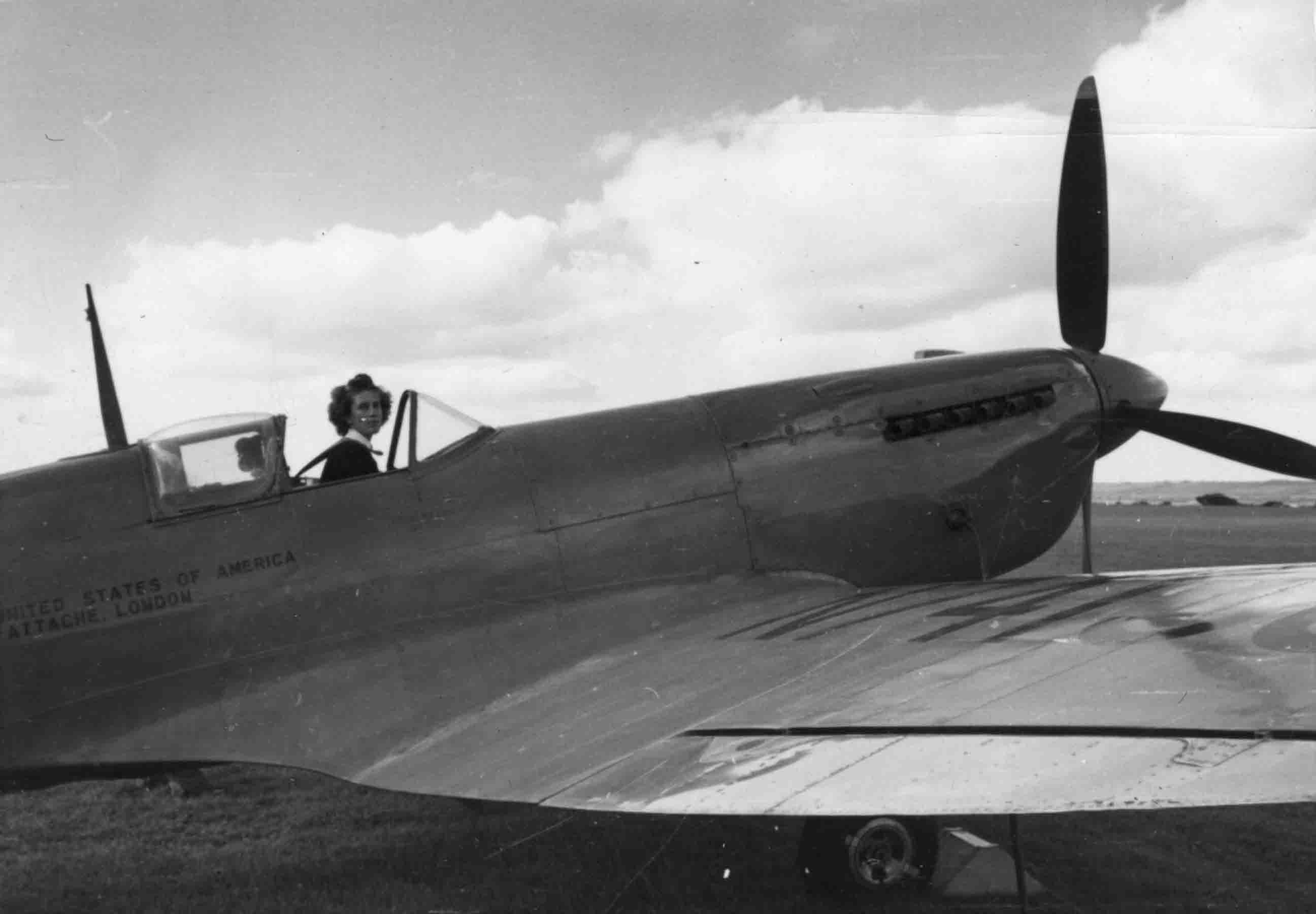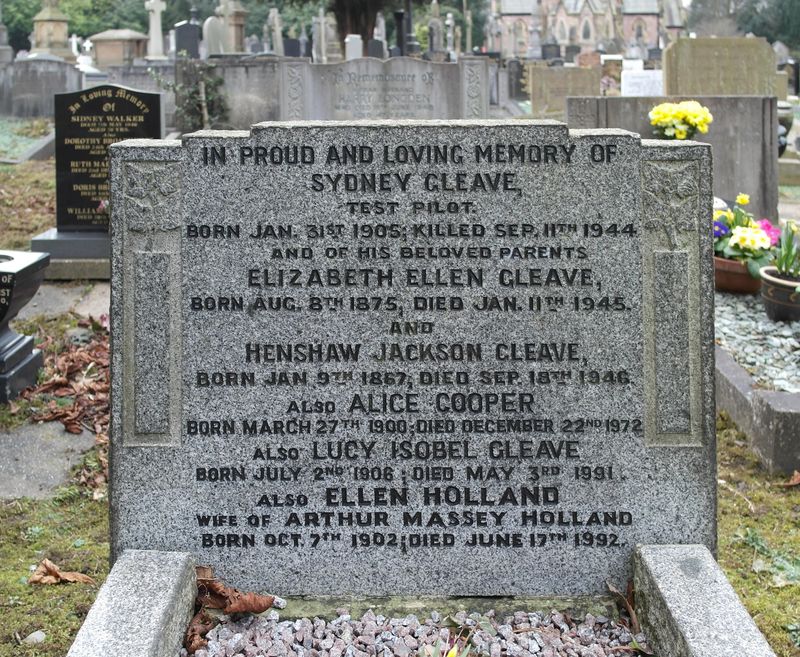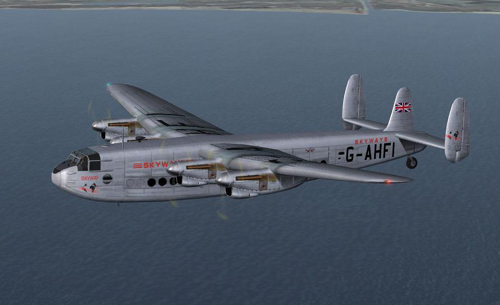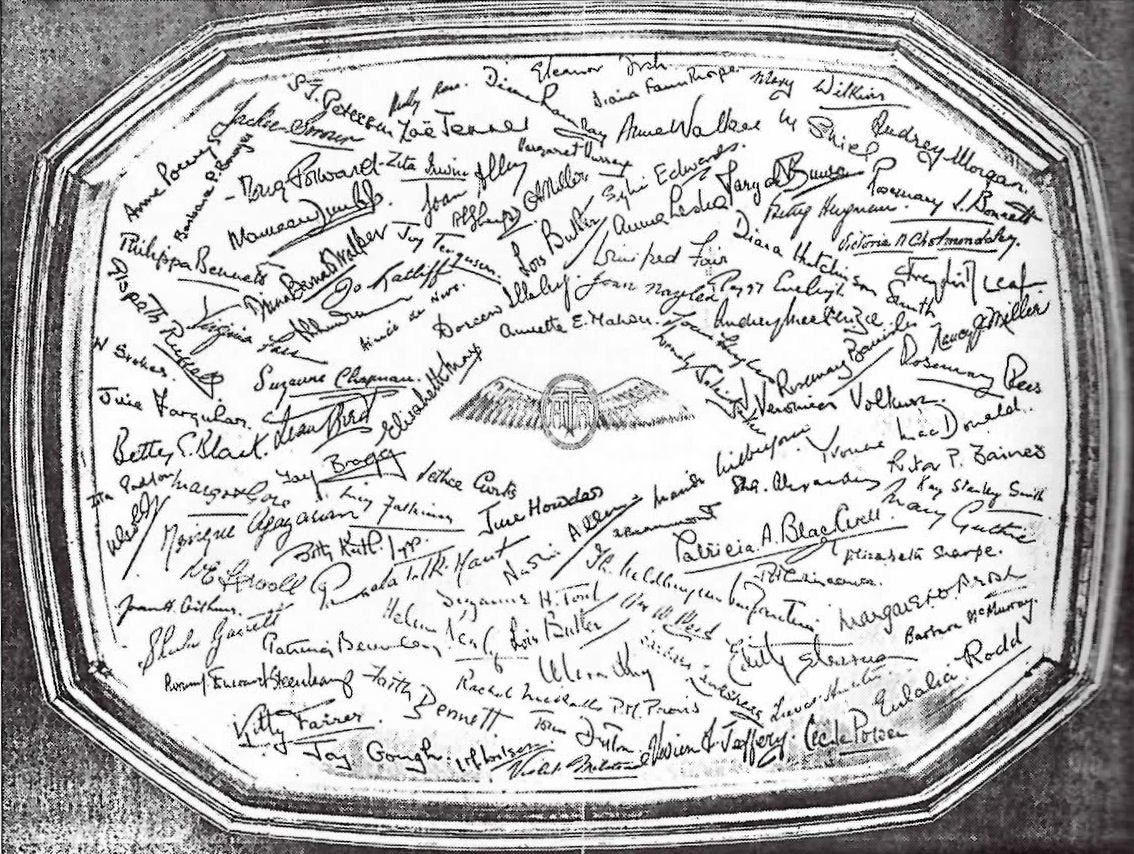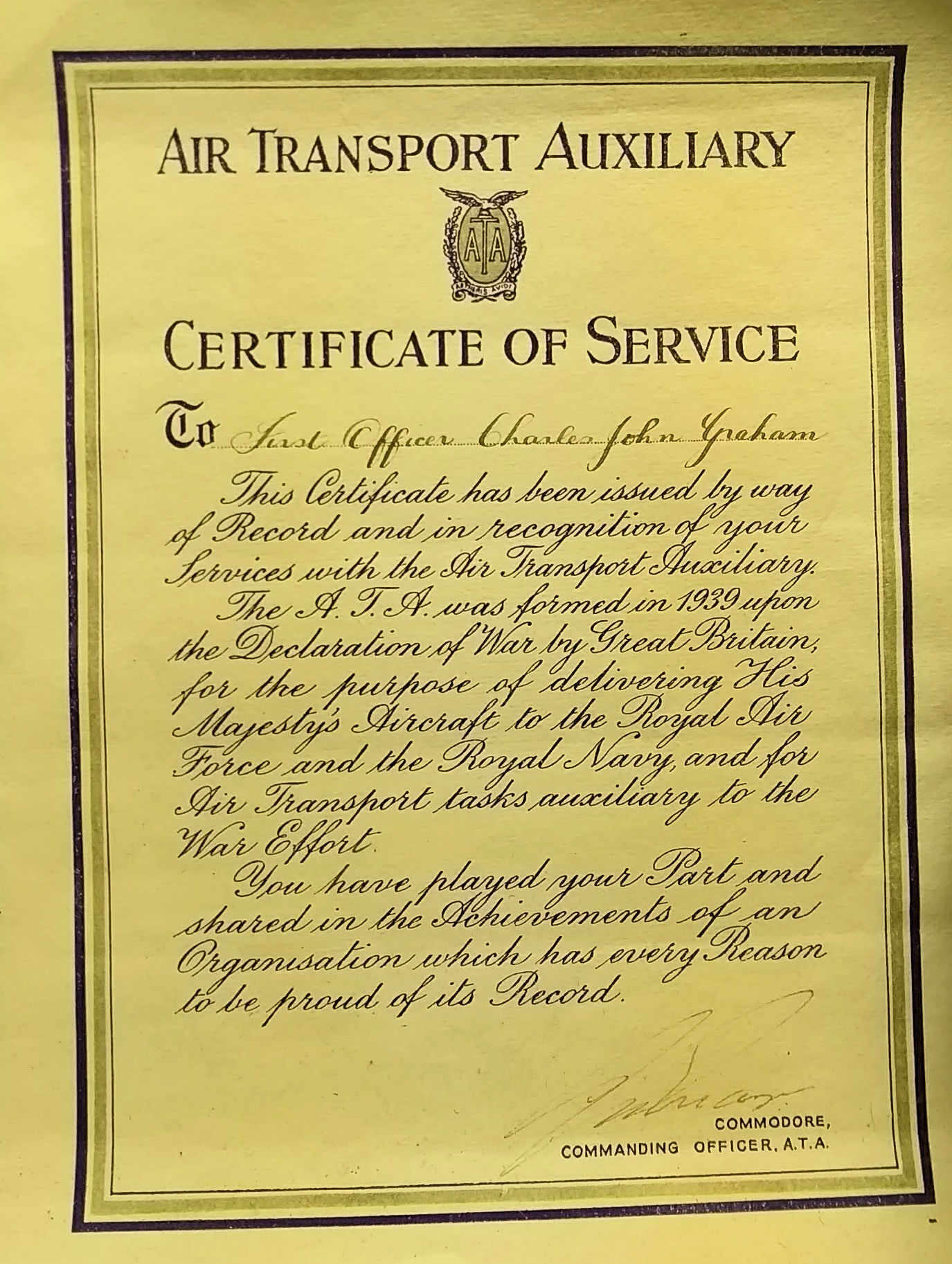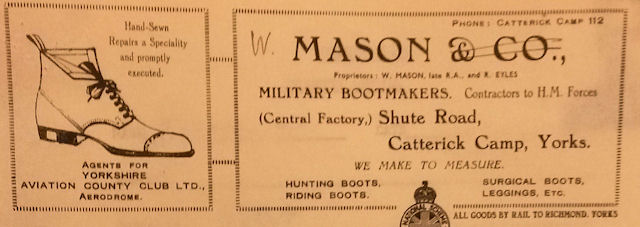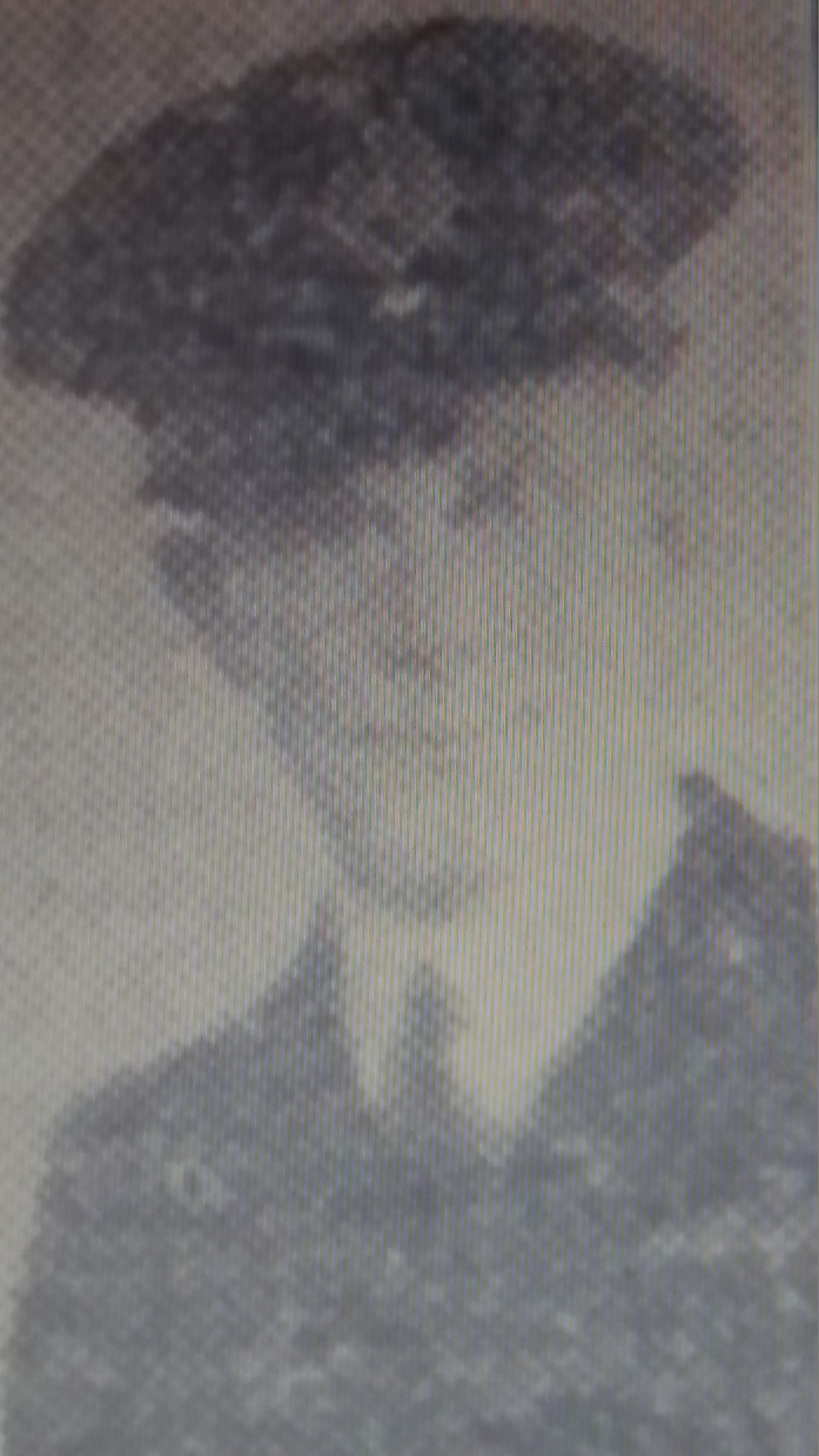-
Abney, William Edward Charles Wootton
M.1014 2nd Officer
[Seconded from RAF]
William Edward Charles Wootton 'Bill' Abney 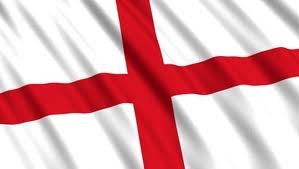
b. 7 Jan 1921, Upminster 19 May 1944 to Apr-45
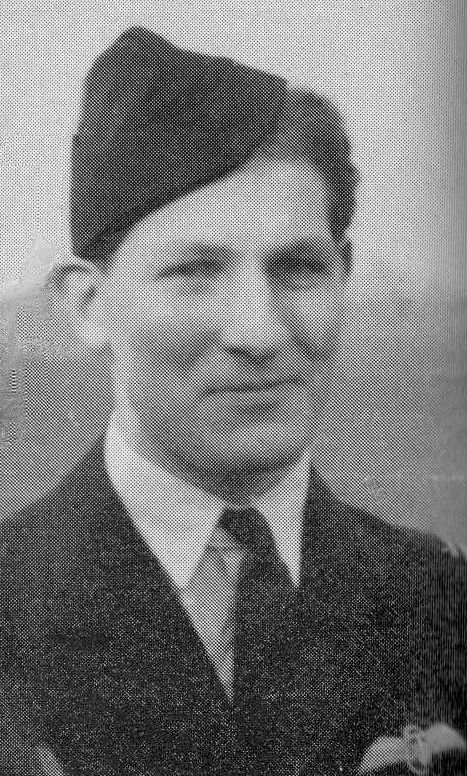 HB
HB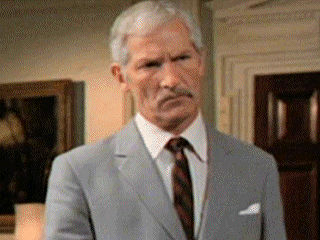 1979
1979son of Henry Charles Wotton Abney (1881-1953)
Address in 1944: West Lodge, Upminster, Essex
prev. RAF, and An Actor:
[Wikipedia: He "played Reverend Copley on Coronation Street in 1977, and Jim Lorimer in 1980. His other television credits include The Adventures of William Tell, Crossroads, Special Branch, Play for Today, All Creatures Great and Small, Robin's Nest and The Return of Sherlock Holmes.
Abney was educated at Cranleigh School and the Central School of Speech and Drama.
As a film actor, Abney appeared in Horrors of the Black Museum (1959), Never Take Sweets from a Stranger (1960), Two-Way Stretch, (1960), Cone of Silence(1960), The City of the Dead (1960), Hitler: The Last Ten Days (1973), The Legacy (1979), North Sea Hijack (1980) and Curse of the Pink Panther (1983).
As a writer, Abney wrote the story for "Poor Butterfly" (1969), an episode of Journey to the Unknown (TV series).]
Ferry Pool: 9
d. 26 Jun 1997 - Lambeth
from The Times, Tuesday, 8 July 1997: "Deaths: Abney, William, suddenly and peacefully on June 26th. Much loved friend of Barry and dear brother of Annabel and uncle of Robin Dewhurst and family. Service at Mortlake Crematorium, July 15th."
-
Abrams, Daphne Elizabeth (W.100)
W.100 2nd Officer Daphne Elizabeth Abrams 
b. 11 Mar 1916, Plymouth
23 Sep 1942 to 13 Feb 1944
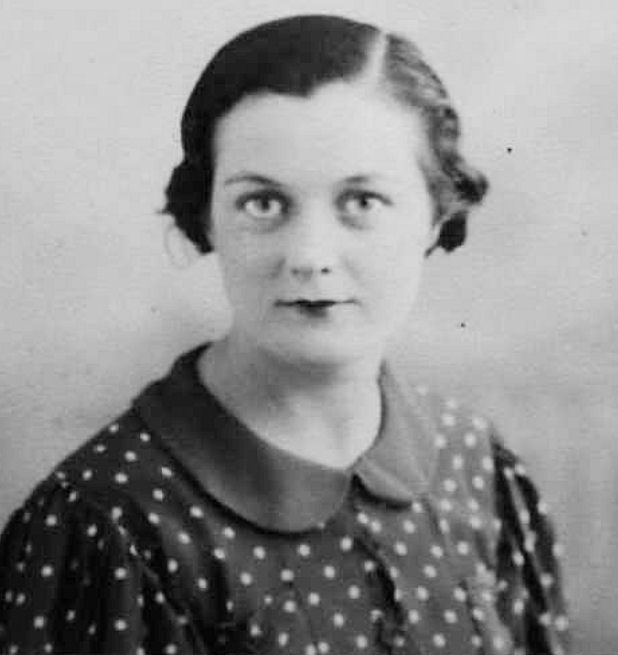 RAeC 1935
RAeC 1935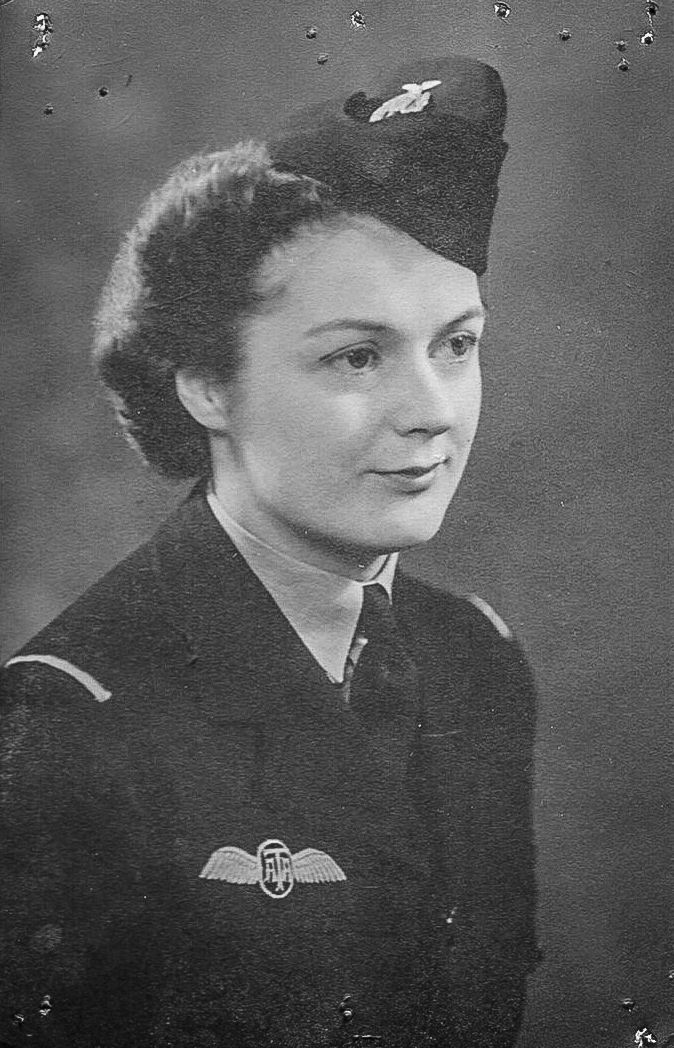 via Taniya Morris
via Taniya Morrisfather: William Charles Surry Abrams, mother Elizabeth Louise [Budden]
prev: Secretary with Imperial Airways; ambulance driver
prev. exp. 8hrs 35min on Gypsy Moth
Address in 1942: 95a Coombe Lane, Bristol
Postings: 5TFPP, 15FPP
"This pilot came to ATA with very little experience. She worked hard in Class I flying and reached a good standard. She should make a useful ferry pilot and a good officer"
One accident:
- 8 May 1943, her Spitfire Vb AD555 landed with flaps up, overshot and was seriously damaged after she felt unwell during the circuit
m. 1943 Flt-Sgt Philip Lindley Hanson-Lester, RAF, prev. a theatrical producer (2 children Phillip b.1944, Taniya b. 1946, marriage dissolved)
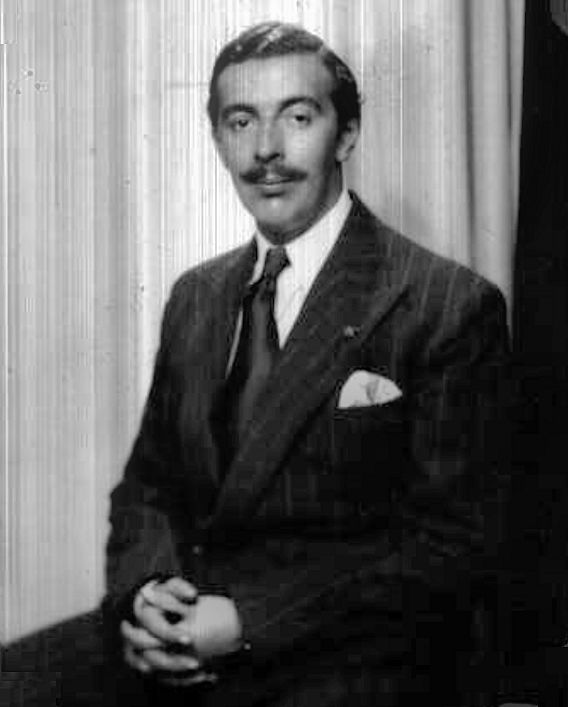 RAeC 1939
RAeC 1939Off sick from 8 Sep 1943 - Contract Terminated Feb 1944
m. 1956 in Cheshire, Philip Rodney Wallis Robinson
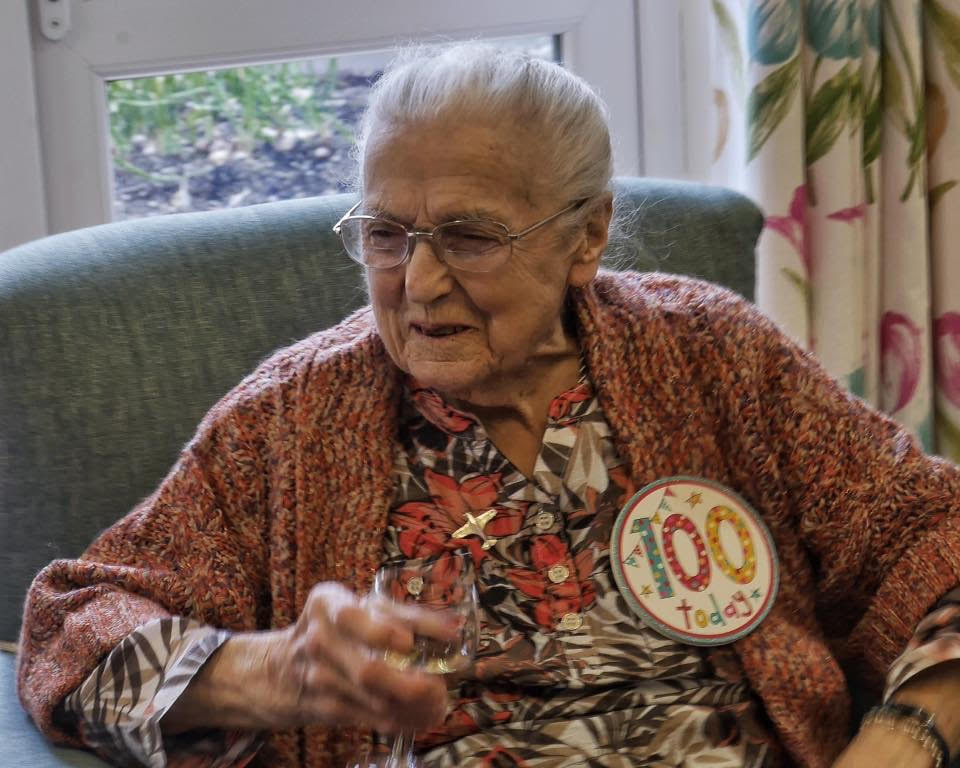 11 Mar 2016
11 Mar 2016"Like many of her generation she sees nothing special in what she did"
d. 18 Aug 2017 - Morgannwg House Care Home, Brecon, Wales
Her granddaughter Taniya Morris told me "You may have noticed my name & the unusual spelling of ‘Taniya’. My mother & I were named after Taniya Whittall who is also on your list of ATA pilots. I was also a military pilot - serving 17 years in the Army, flying Gazelle & Lynx helicopters in the Army Air Corps & commanding 652 Sqn AAC. So it runs in the family!"
-
Adams, Albert Ernest
M--- Cadet Albert Ernest Adams 
b. 23 Aug 1916, Dudley 5 Jul 1943 to Sep-43
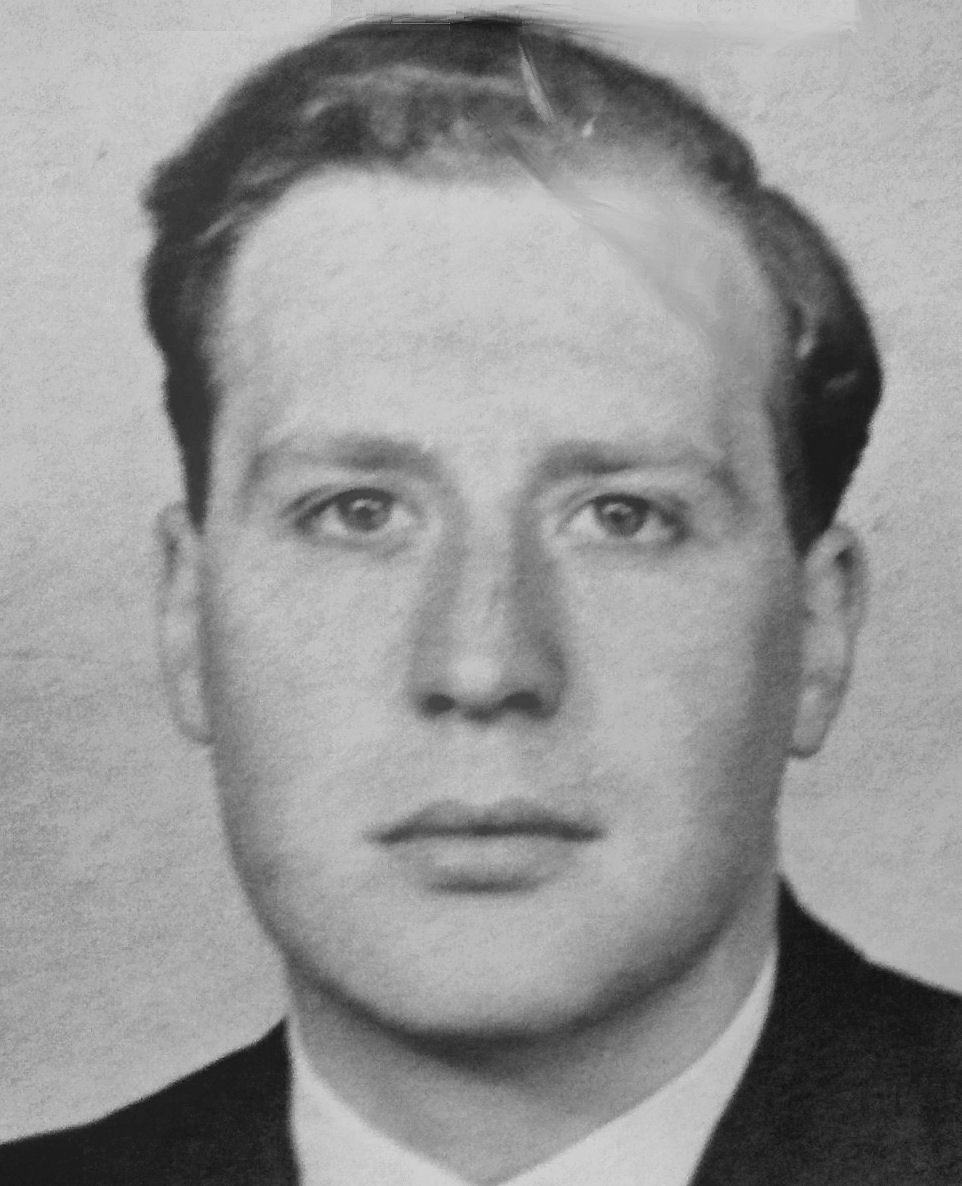
ATA
prev. a draughtsman, then Fleet Air Arm, 1942-3
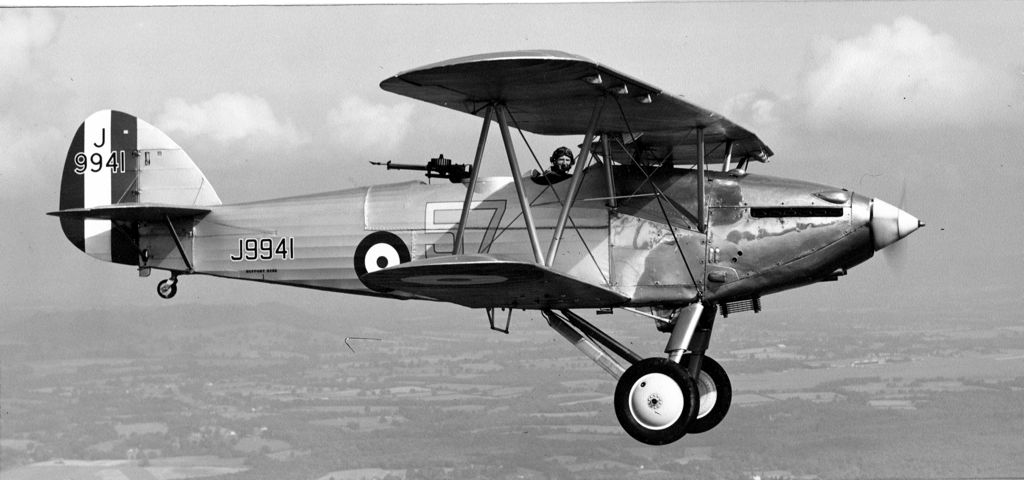
d. 6 Sep 1943 (Died in ATA Service) - Hart K6526, heavy landing at Thame on a training flight, 2 Sep 1943. The aircraft somersaulted onto its back and caught fire; Albert suffered extensive burns and was taken to RAF Halton hospital. He did not wish his wife informed 'as she is expecting a baby some time this week'.
-
Adams, Charles Arthur
M.351 First Officer Charles Arthur Adams 
b. 8 Jan 1906, East Ham, London 25 Mar 1941 to 11 Nov 1941
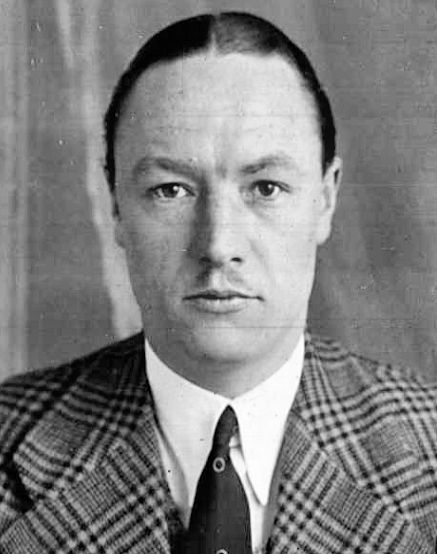 1936
1936prev. a London Transport driver, later inspector
RAF from Jun-40 to Mar-41 (Sgt, Link Trainer instructor)
Address in 1941: 51 Wilson Rd, East Ham, London E6
[Contract Terminated by ATA - Disciplinary Reasons]
d. Dec 1957 - Lambeth ?
-
Adams, John Cecil
M.795 John Cecil Adams
Postings: 8FPP
-
Adams, John Henry
M --- Cadet John Henry Adams 
b. 20 Jan 1921, London 29 Apr 1942 to Jun-42
prev. a General Clerk, then RAF from 1941-2
[Contract Terminated by ATA - Unsuitable]
-
Adney, Kenneth John
M.940 3rd Officer
[Seconded from RAF]
Kenneth John Adney 
b. 7 Dec 1922, Cinderford, Glos. 11 Jun 1943 to 15 Apr 1945
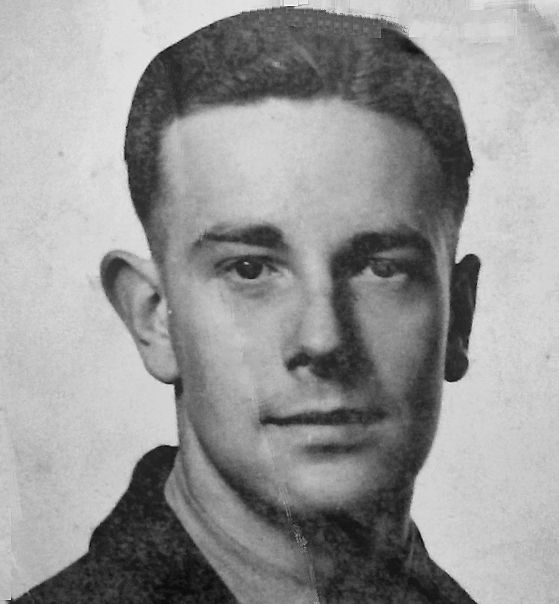 ATA
ATA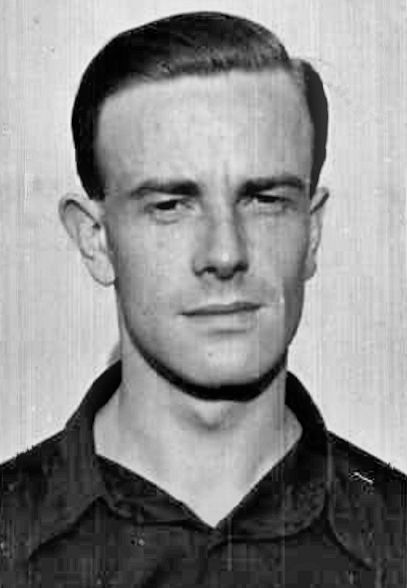 1947
1947Ed. East Dean Grammar (School Cert.)
prev. radio engineer with GEC; RAF from Dec 1941
Postings: 16FPP
Off sick from 25 Feb to 17 Mar 1944 after a flying accident (report missing)
One other accident:
- 23 Oct 1944, the propeller of his Spitfire IX PV312 was damaged when the tail rose on landing downwind at Ratcliffe at 17:40pm. He felt unwell, probably because he'd had nothing to eat all day.
m. Oct 1945 in Barrow upon Soar, Leics, Patricia Clayton [Barratt]
Took his 'A' Certificate in July 1947, at Auster Flying Club
Address in 1947: 516 Loughborough Rd, Birdsall, Leics.
Emigrated to Australia 1948-57 but then returned to live in Surrey
-
Agazarian, Marie Monique Jacqueline (W.143)
W.143 3rd Officer Marie 'Monique' or 'Aggie' Jacqueline Agazarian 
b. 17 Jul 1920, Carshalton, Surrey 18 Oct 1943 to 30 Sep 1945
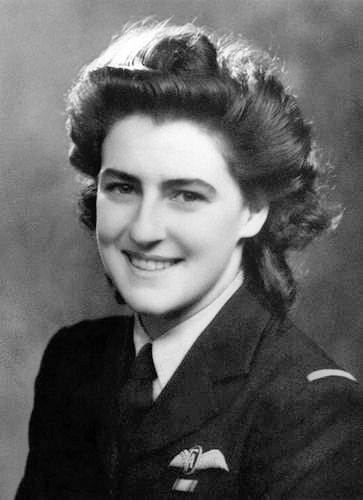 ATA
ATAFather: Le Von Berge Agazarian, originally from Armenia who fled to the UK in 1911, owner of an electrical company; mother: Jacqueline Marie-Louise de Chevalier, from France
Ed. Sacred Heart Convent, Roehampton (School Certificate, 5 credits), RADA and Paris
prev. from Apr-41, VAD attached to East Grinstead Hospital then RAF Uxbridge
Address in 1943: (mother) 7 Park Mansions, Knightsbridge, London
[ab initio pilot]
Two of her three brothers died in WWII; one in the RAF, the other in SOE
Completed "500 hours in Spitfires, Mustangs, Typhoons, Barracudas and Hellcats" as a Class III pilot.
Two accidents, one her fault:
- 21 Nov 1944, her Proctor I LZ791 "skidded on wet grass when landing at Broxbourne and ran into an unmarked gunpit at the end of the landing run".
[Mike Biddulph kindly sent me an eye-witness report written by the late Lee Miller, who remembered the accident thus:
"The sound of an approaching aircraft gave me the excuse to dodge away from my workbench and nip outside to watch as many planes as I could, taking off, or landing. During one such event at 4pm., on a dull afternoon on November 21st 1944 I arrived in time to see a Proctor making a very bad landing approach on the shortest of our grass landing strips, it seemed certain that a crash was imminent if the landing was carried out, no attempt was made by the pilot to abort, resulting in the aircraft being unable to stop, thus hitting a pile of sandbags, which tipped it vertically onto its nose, - at that point it could have turned over, but luckily for the pilot, it fell backwards onto its tail-wheel, -- seconds later the door opened, the pilot emerged unharmed to be greeted by our ground staff who had rushed to help.
The aircraft was moved over to the hangars where it spent the next 3 months."
As of 2024, LZ791 is being restored, having crashed on its delivery flight to Sweden in 1951 and kept in a barn for over 50 years.]
- 29 Mar 1945, a steam roller started up and hit her Seafire III IX953 whilst she was taxying round it at Lyneham.
After WWII, she gained her commercial licence and in July 1947 became a pilot for Island Air Charters / Island Air Services (IAS) which flew Proctors and Rapides between Lands End and the Scilly Isles, pleasure trips to Le Touquet and scheduled services to Deauville from Croydon.
Ex-ATA pilot Cecile Power also joined IAS, in November 1947.
Monique became Managing Director of IAS, then Chairman and Chief Pilot.
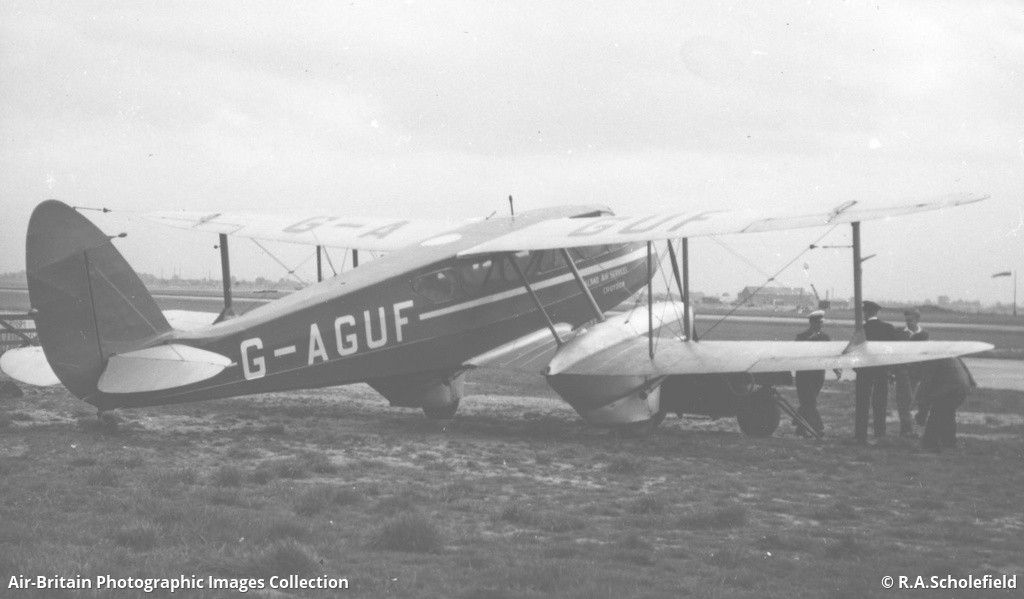
Island Air Services' first Dragon Rapide, (callsign 'Uncle Fox', although allegedly when Monique was pilot it was 'Auntie Fox''), in 1950. (c) Air-Britain
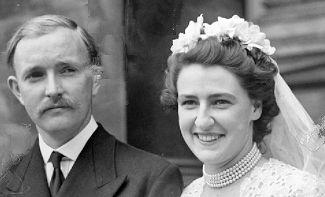 Daily Mirror
Daily Mirrorm. 20 Jul 1949 in Brompton, London, Capt Raymond Charles Rendall (also of IAS, divorced 1973), three daughters Annette Francine, Mary and Lou-Lou
She competed in the King's Cup air race in 1950 and 1952.
In 1956, Veronica Volkersz wrote that Monique was one of only 7 women flying commercially: - "Monique Rendall is chief pilot and managing director of Island Air Services" - and concluded that "The tragedy is that for women, commercial aviation is now - except, possibly, in Russia - a closed field."
[The others were Jackie Moggridge, Jean Bird, Suzanne Ashton, Zita Irwin, Diana Barnato-Walker and Freydis Leaf]
IAS ceased trading in 1959. After it closed, she was a pioneer in promoting flight simulation with Air Training Services Ltd, and published a manual on advanced instrument-flying procedures.
Having reverted to her maiden name, she lived at 84 Park Mansions, Knightsbridge, and d. 3 Mar 1993 from cancer, leaving £140,949.
"The sad loss of this splendidly professional airwoman, brilliant tutor, hugely energetic, ebullient, and lovable friend will be felt deeply by all who knew her." - The Independent
-
Akerman, Jean Mary (W.---)
W.--- Cadet Jean Mary Akerman 
b. 17 Dec 1922, Camberley 8 May 1944 to 3 Jun 1944
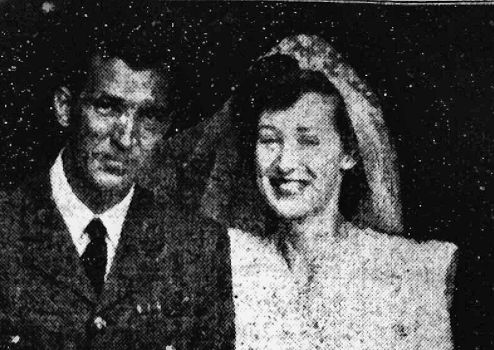 with David Crichton, 1946
with David Crichton, 1946Father: Maj-General William Philip Jopp Akerman CB, DSO, MC, Director of Staff Duties Artillery, Army Headquarters India (Retired 1942, d. 1971); mother: Olga Phyllis [Steevens, d. 27 Dec 1922, i.e. when Jean was 10 days old]
Step-mother: Annie [Alexander] from 1925. Two step-sisters, Rosemary and Susan.
Ed. Bedgebury Park, Goudhurst, Kent
prev. WAAF (WMTS India)
Address in 1944: "Rotherwood", Churt, Farnham, Surrey
[ab initio pilot]
[Contract Terminated by ATA]
m. 25 Apr 1946 in Churt, Flt-Lt Dr David Stewart Crichton MBE, MB, ChB; one daughter Susan (Penny) [Buckley] 1948-2016
d. 13 Jun 2018 - Salisbury
-
Aldren, Thomas
M.948 First Officer Thomas Aldren 
b. 5 Aug 1920, Lancaster 19 May 1944 to 13 Aug 1945
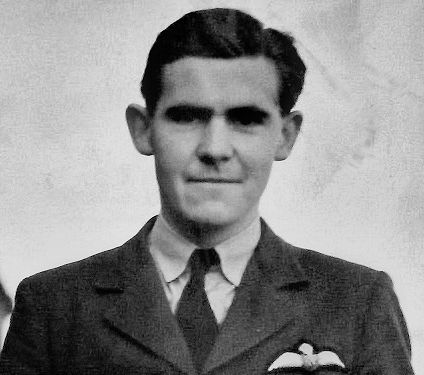 ATA
ATAParents: Richard Aldren, Isabella [Roberts] of 13 Mill St., Lancaster
prev. Local Government (Clerk, Public Health); RAFVR from 9 Jul 1940
Admitted as a "Freeman" to the roll of the City of Lancaster in 1938
m. Jul 1944 in Lancaster, Joan [Boulton]
"TWO WELL-KNOWN members of the Lancaster Amateur Dramatic and Operatic Society were married at St. , John's Church. Lancaster, on Monday. They are F.O. Thomas Aldren, formerly employed at the Lancaster Health Office, and now a Ferry Pilot in the Air Transport Auxiliary, only son of Mr. and Mrs. R. Aldren, of Mill Street. Lancaster, and Miss Joan Boulton (who is on the staff of the Canadian Treasury), younger daughter of Mr. and Mrs. J. Boulton, of South Road. Lan- caster."
Address in 1945: 21 South Rd, Lancaster
d. 1 Mar 1953 at Royal Infirmary, Lancaster
"EX-R.A.F. OFFICER Death at 32
A Flight-Lieutenant in the Royal Air Force during the war, Mr. Thomas Aldren aged 32, of 21 South Rd, Lancaster, died in Lancaster Infirmary on Sunday. He had been in the infirmary for the past three weeks undergoing treatment for heart trouble.
A native of Lancaster, he was educated at Lancaster Royal Grammar School. When he left school he became a clerk In the Corporation Health Department. In 1940 he joined the Royal Air Force. He gained his wings in 1941 and was commissioned as a flying Instructor. In the the latter end of 1943 [sic] he was transferred to the Air Transport Auxiliary, and ferried many planes across the country. He returned to the R.A.F. and at the end of the war was demobbed as a Flight Lieutenant. He was married at St John's Church Lancaster, in 1945 [sic].
Following his war service he went to Nottingham where he quailfied as a Sanitary Inspector and became a meat and food inspector.
He returned to Lancaster in October 1951 but since had not been able to carry on his work owing to ill-health. An ex-member of Lancaster Golf Club, he was a former winner of the George Thompson Trophy, and a very keen player. He was also a former member of LADOS and a member of the Vale of Lune Rugby Club.
His wife survives." - Lancaster Guardian
-
Aldrich, Wilfred Hector
M.1142 * 3rd Officer
[Seconded from RAF]
Wilfred Hector Aldrich 
b. 1 Sep 1919 5 Sep 1944 to 30 Apr 1945
d. Sep 2000 - North Somerset
-
Alexander, Susan Mary Aurea (W.163)
W.163 3rd Officer Susan Mary Aurea Alexander 
b. 19 or 20 Apr 1920, Horncastle Lincs 8 May 1944 to 30 Sep 1945
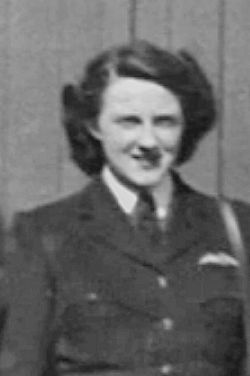 1944
1944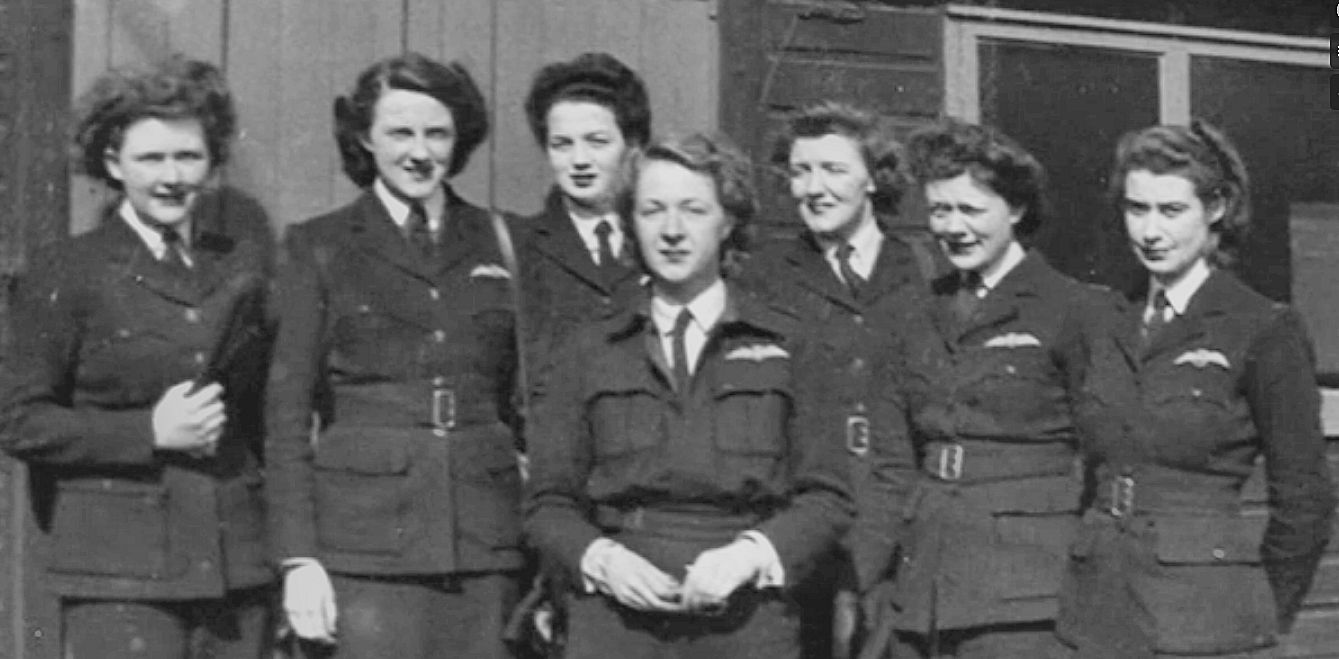
The Final 7 Women Pilots - Betty Keith-Jopp (W.167), Sue Alexander (W.163), Joan Arthur (W.166), Ruth Russell (W.165), Annette Mahon (W.164), Aimee de Neve (W.168), Katharine Stanley Smith (W.162)
Father: Capt William James Alexander (a Company Director, Motor Trade, d. 1947), mother: Mary Jeanette [Rawnsley] (d. Jul 1941) of Raithby Hall, Spilsby:
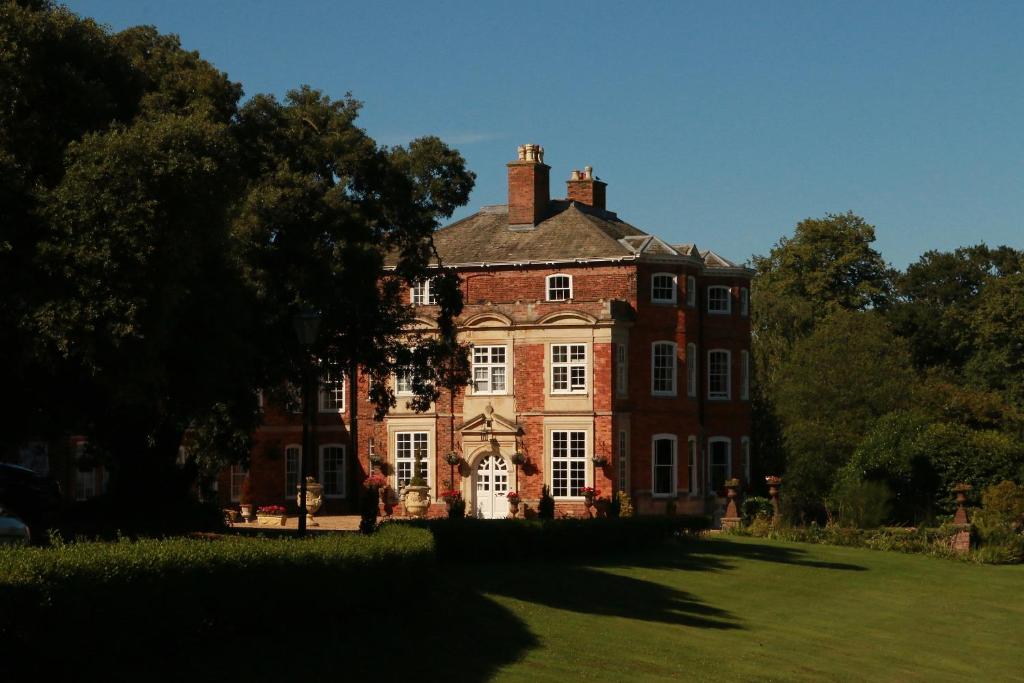 Raithby Hall, the home of the Rawnsley family
Raithby Hall, the home of the Rawnsley familyEd. Benenden, Kent (School Certificate)
prev: WAAF
Address in 1944: c/o L S Dodds Ltd, Spilsby, Lincs
[Ab initio pilot]
Postings: 4FPP
One accident:
- 31 Jan 1945, in Swordfish II LS215; she failed to keep the aircraft straight on take-off, and it swung, hit a snow ridge and turned over
Gained her Royal Aero Club Pilot's Certificate (No 20753) as part of the ATA's 'Wings' scheme on 22 Nov 1945
d. 9 Jul 2000 - Taunton, Somerset
-
Alington, Cyril Geoffrey Marmaduke
M.--- First Officer Cyril Geoffrey Marmaduke Alington 
b. 19 Aug 1914, Richmond, London 4 Oct 1939 to Nov-41
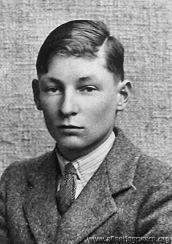
1933
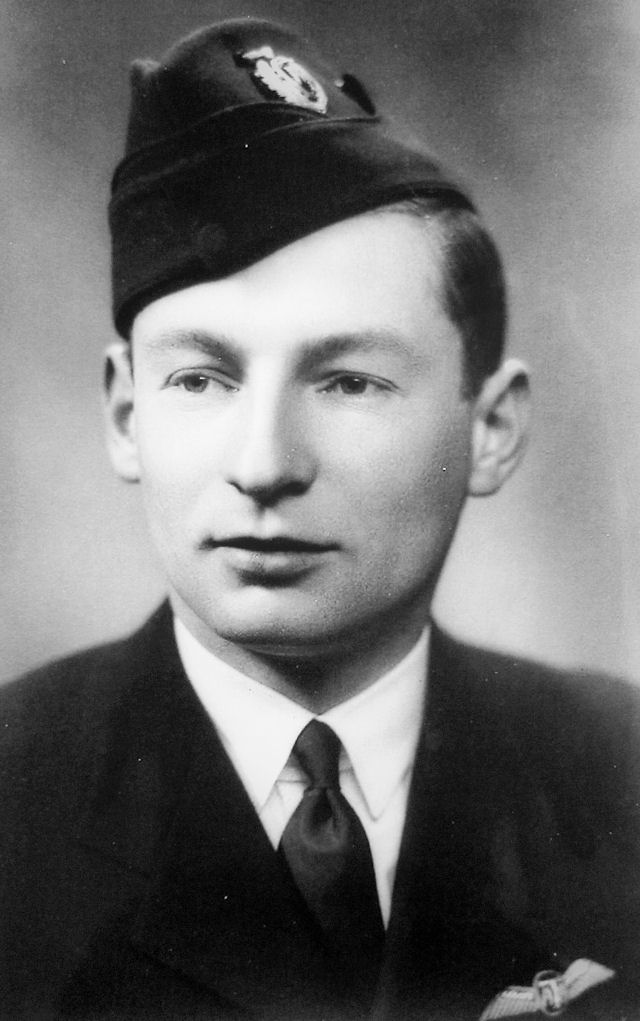
ATA
The youngest of four brothers.
In 1933, a public schoolboy in Hythe, Kent; by 1936 a student at the de Havilland Technical School.
ATA Contract Terminated 4 Aug 1940; he then continued as a part-time pilot until 10 Nov 1941.
later, a test pilot for Fairey.
d. Aug 1987, Poole
-
Allen, Cyril Percy
M71 * Pilot Cyril Percy Allen
aka Aron

b. 28 Jun 1901, London 12 Aug 1940 to 2 Apr 1941
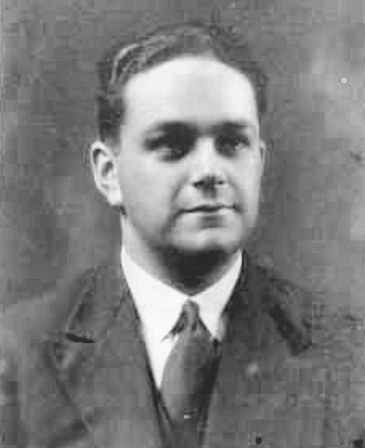 1930
1930Father: Benjamin (Benno) Aron, a hat and cap manufacturer, d. 1 Jul 1941. Mother: Kathleen Hannah [Jacobs]
B.Sc.
Changed surname to Allen c. 1939
m. 1925 in Amersham, Bucks, Amy L [Townsend]
RAeC Certificate 9487 dated 4 Oct 1930, taken at London Aeroplane Club
Address in 1930: 55 City Rd, London EC2
prev. RAF from 1933 (Resigned 14 Mar 1939); Engineer; Probationary Temporary 2nd Lieut, RN
Postings:
2nd Lieut, Royal Army Ordnance Corps from 9 May 1942
Surname reverted to Aron c. 1959
m. 1959 in Kensington, London, Jane [Webster]
Address in 1964: 23 Palace Gardens, Kensington
d. 31 Mar 1980 1980 - London
Buried Willesden United Synagogue Cemetery, Willesden, London Borough of Brent, London
* Personnel File not seen
-
Allen, Helen Naomi (W.70)
W.70 First Officer Helen 'Naomi' Allen 
b. 25 Jun 1913, Folkestone 24 Feb 1942 to 31 Oct 1945
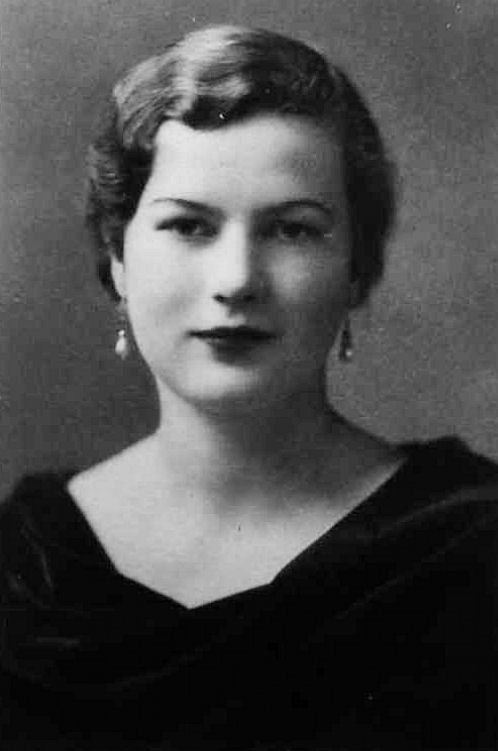 RAeC 1934
RAeC 1934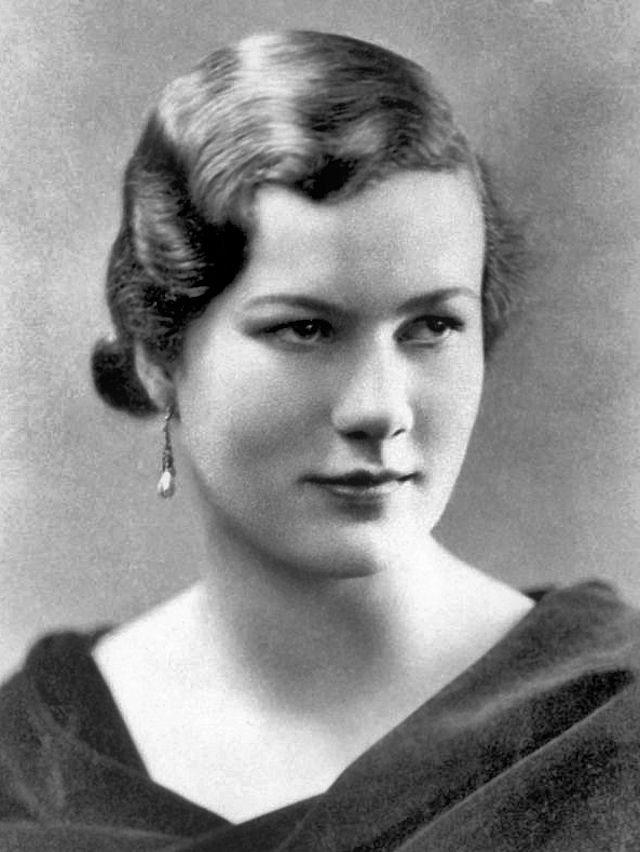 Also 1934
Also 1934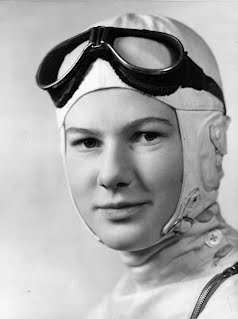
1935, with Cobham's Flying Circus
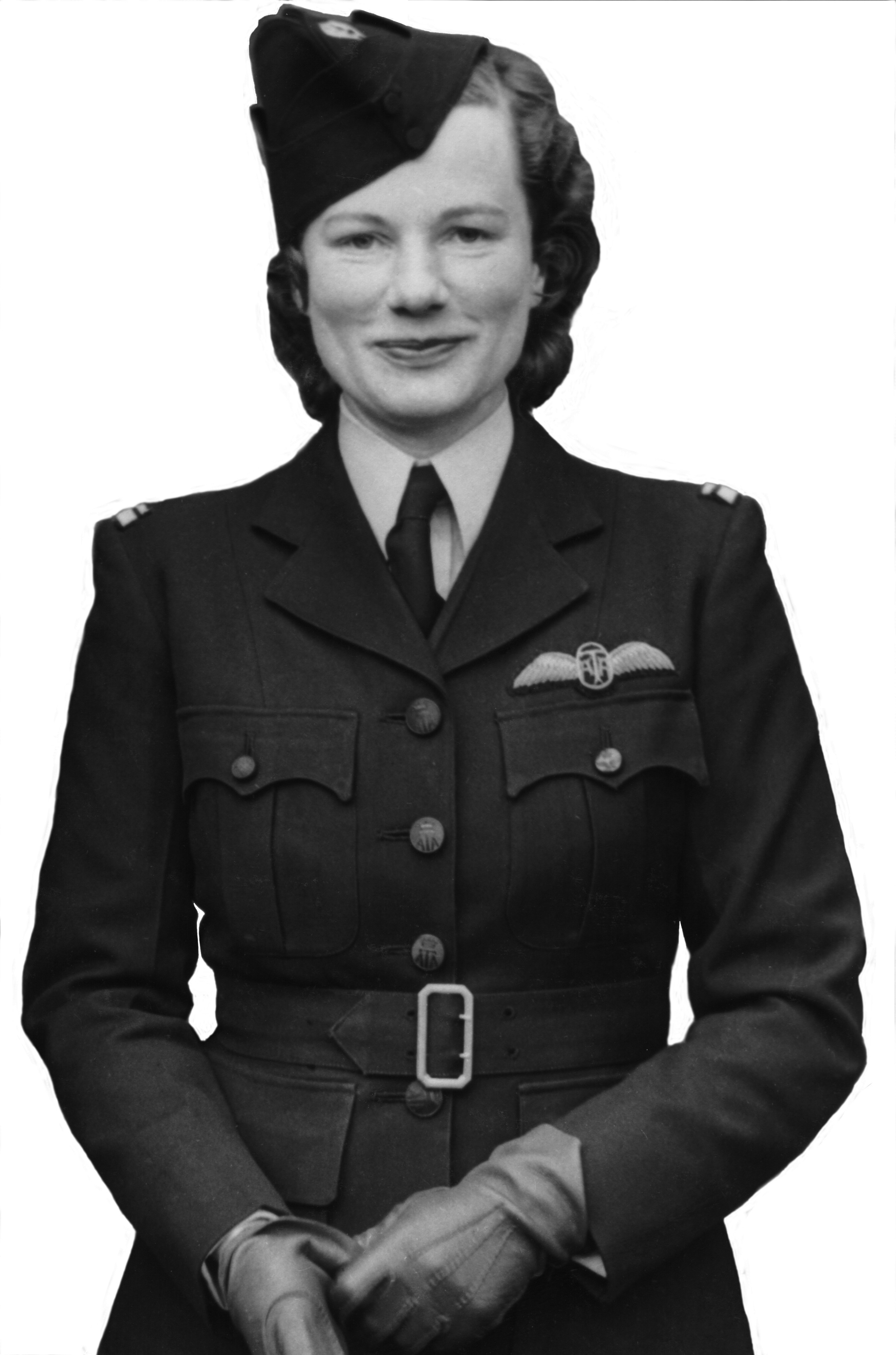 ATA
ATAnée Heron-Maxwell
mother: Lady Heron-Maxwell, of 5 Staverton Rd, Oxford
prev: Secretarial / Lecturing on Gliding and Parachuting
Parachuting with Cobham's Flying Circus in 1935; she made over 100 descents.
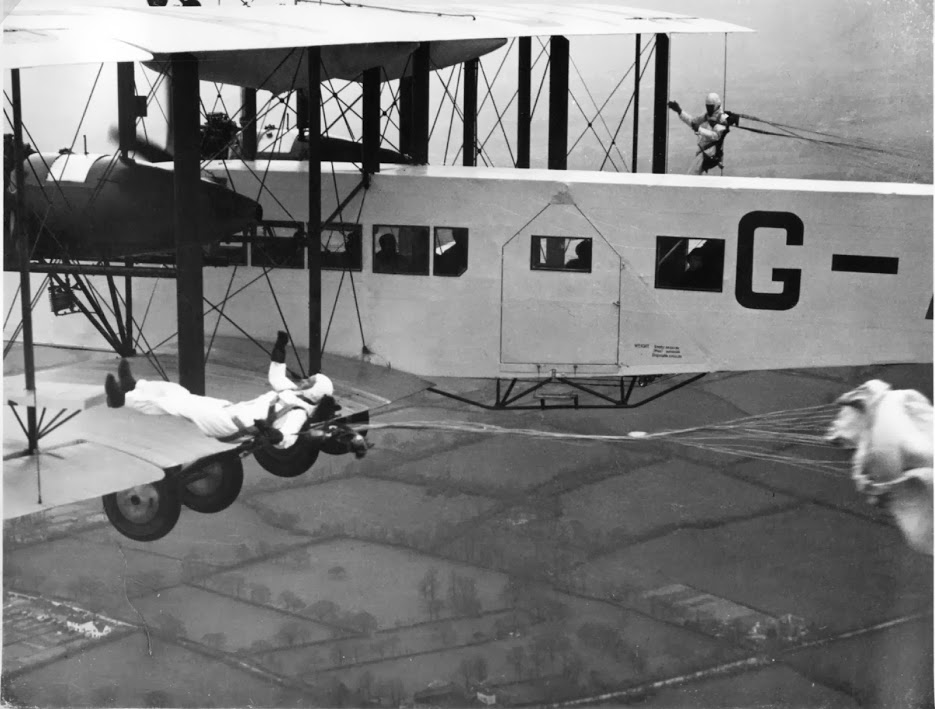
See http://www.afleetingpeace.org for the story of Cobham's Air Circus
The first woman Silver Badge (Soaring) holder in the UK, and one of the founder members (with Lady Bailey, Joan Price, and Amy Johnson) of the Oxford Gliding Club
m. 2 Mar 1938, Francis Cecil Howard Allen (d. 28 Jan 1939 aged 34 in Austria, after an operation for a duodenal ulcer.)
[According to my mother-in-law, who knew the family, "Apparently it was quite a straightforward operation, he woke up, said 'Hello Darling' and then promptly had a heart attack and died", but Naomi wrote that it was 6 days after the operation.]
"Scar on left side of neck"
Address in 1942: 2 Dalmevey Ave, London SW16
Postings: 6FPP, 15FPP, 1FPP, 4FPP
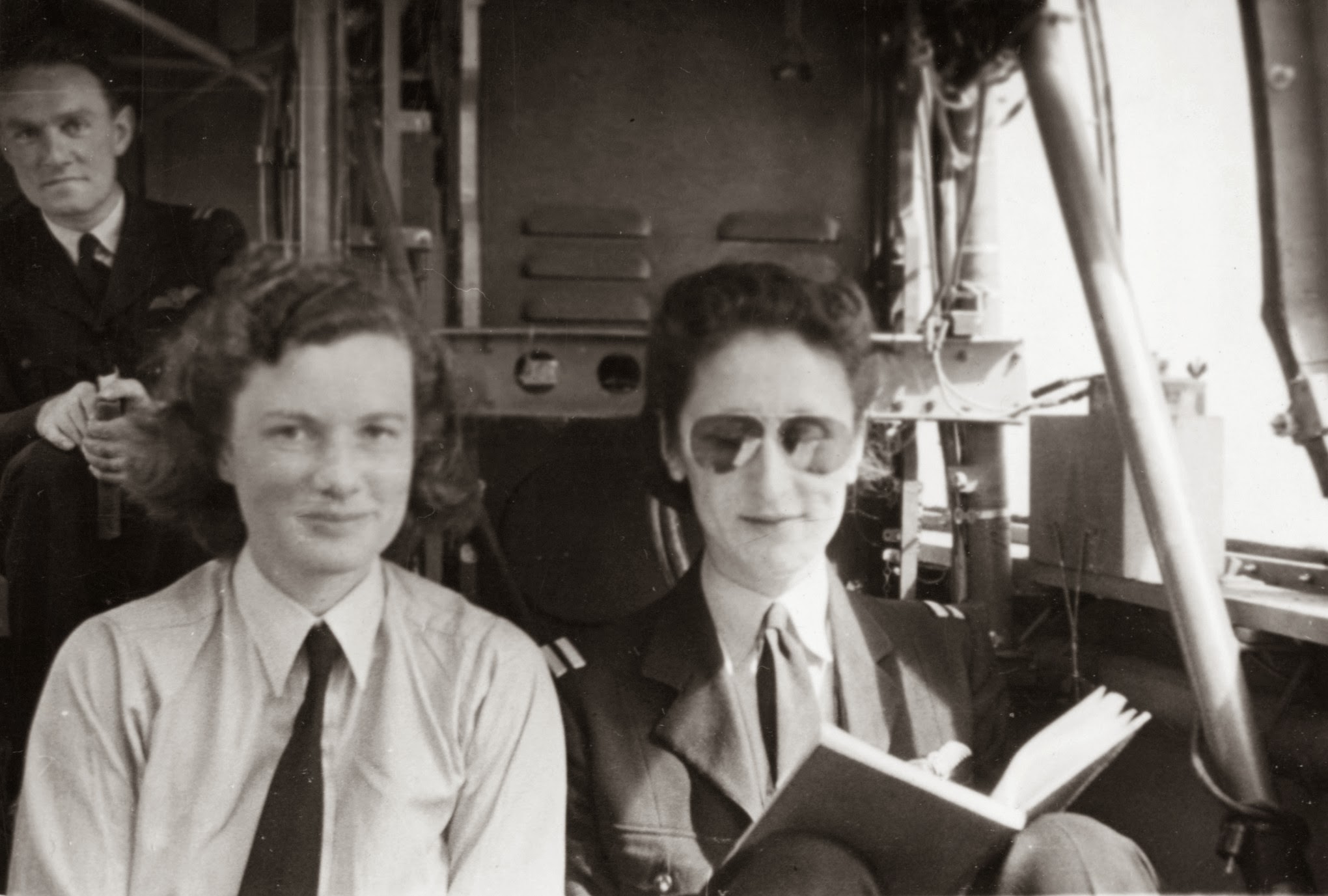 with Jean Bird in a taxi Anson, 1942 [all photos with thanks to Nick Thomas]
with Jean Bird in a taxi Anson, 1942 [all photos with thanks to Nick Thomas]Reprimanded in August 1944 for "Loss of Ferry Pilot's Notes", and in May 1945 for "taxying with insufficient care"
6 accidents, 4 her fault:
- 15 Oct 1942, "careless taxying" crosswind in Hawker Audax K5599; the aircraft tipped onto its nose
- 9 Jan 1943, she overshot a landing in Spitfire JG953
- 22 Mar 1943, she landed without lowering the undercarriage of her Mustang 1a FD443
- 17 Nov 1943, a forced landing in a Seafire III, after the port cannon fairing blew off in the air
- 18 Dec 1943, she overshot a landing in Spitfire IX BS401, after encountering very bad weather and turning back
- 15 May 1945, she failed to control her Warwick BV343 while taxying, and one wheel fell into "an excavation at the side of the track"
"A really keen pilot of average ability who wants hard work. Her temperament is unusual and her attitude towards criticism is inclined to be resentful"
"Her technical knowledge is below average" [she admitted this was true]
Moved to Los Angeles in 1948
m. 1957 Howard D Thomas (a Real Estate agent) (divorced); one son, b. 1958, Nick - who has written a wonderful biography about her, using her diaries, called "Naomi the Aviatrix"
d. 1983 - Leisure World, Laguna Hills, CA
-
Alsop, Howard Charles
M.163 First Officer Howard Charles Alsop 

b. 21 Mar 1909, Manchester 19 Oct 1940 to Feb-41
(Naturalised 1916)
Address in 1940: 41 Clifford St, Hartford, CT
prev. pilot; 3 yrs in 118 Observation Sqn, Connecticut NG, 4 yrs AAA Aerial Survey
Sailed to Liverpool to join the ATA, arriving 11 Nov 1940, with fellow American pilots Charles Smith, Donald Annibal, Francis Bender, Robert Gragg, Dan Jacques, Malcolm Stewart and Roy Wimmer.
[Resigned]
Later joined Eastern Airlines
d. 1979
-
Ambler, John Sharp
M.846 First Officer
(Seconded from RAF)
John Sharp Ambler 
b. 24 Jun 1905, Heaton, Bradford 28 Jan 1943 to 15 Apr 1945
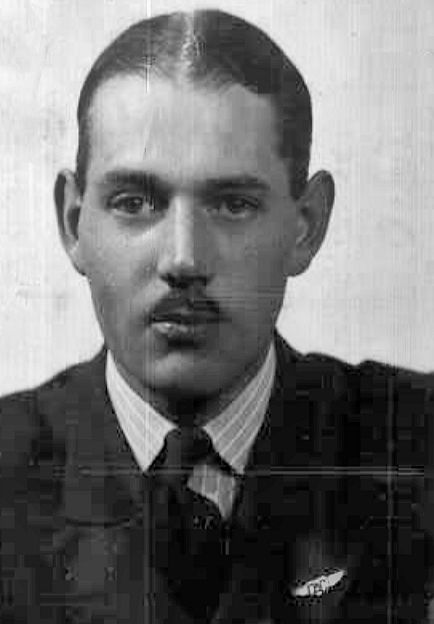 1939 - Yorkshire Aero Club
1939 - Yorkshire Aero Club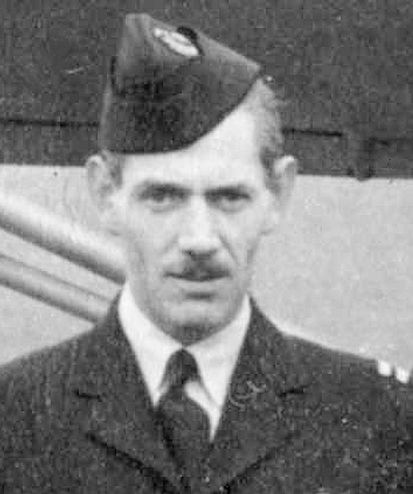 ATAM
ATAMFather; Sam Ambler, mother: Emily Beatrice [Sharp], of Hoyle Court, Baildon, Yorks
One sister, Ruth Beatrice (m. 1923 Emerson Lyman Fisher-Smith, m. 1935 Geoff Morris). His elder brother Lieut. Edward Sharp 'Ted' Ambler (b. 1898) 2nd Bn Scots Guards, d. 8 May 1918 in France
Ed. Shrewsbury School
A bit of a tearaway in his youth:
"SMASH - THEN FINES. Said to have been racing, John Sharp Ambler, spinner, Hoyle Court, Baildon, and Laurence B. King, of Helsley. near Chester, were each fined £5 and costs at Otley yesterday for driving motor cycles to the danger of the public.
It was stated that when near the Junction Hotel, the machine which King was riding met with an obstacle, and it shot from under him. King turned several somersaults and fell on the road. Ambler ran into the kerb about six yards beyond. " - Leeds Mercury - Saturday 22 March 1924
"BAILDON MOTOR CYCLIST'S SPEED John Sharp Ambler, worsted spinner, Hoyle Court, Baildon, was summoned for driving to the danger of the public at Baildon on November 12. It was stated by Police Constable Cooper that he was standing in a garage along Otley Road about 2.05 p.rn. when the defendant dashed past on a motor cycle combination at an exceptionally fast and dangerous speed. The constable ran out on the footpath, about seven yards from where hod been standing, and the machine then was 110 yards away.He saw the defendant later, and after some hesitation, Ambler replied that he did not pass until 2.15 p.m., and was driving very carefully.
Mr. W. T. Scholes for the defendant, submitted that the police hod made mistake in their man. The defendant went to Baildon Station to catch the 1.57 p.m. train to Bradford, but missed it. He returned home, got into his motor clothes, and rode to business. It was 12 minutes past 2 when he passed the public clock at Shipley. Defendant said he had not to be at business until 2.30, and he did not travel at more than 17 miles per hour. He mentioned that he broke the machine on the journey, and it took four days to mend it. After hearing other evidence, the magistrates found the defendant guilty. It was stated that he had been lined £5 for a similar offence at Otley in March last year. He was now fined £5 and his licence suspended for two months." - Shipley Times and Express - Friday 12 December 1924
"CROSS-ROADS CRASH. John Sharp Ambler, worsted spinner. Royal [sic] Court. Baildon was fined £10, with £4 6s. 6d. costs, at Scarborough to-day, for driving dangerously.
Mr G B Parker, prosecuting, said Ambler drove down Holbeck Road at 50 miles hour and at the cross-roads caught a mailvan driven by Herbert King, who was thrown out and injured. Ambler denied that was driving at such a speed, and said he had slowed up to 15 mph at the cross-roads." - Yorkshire Evening Post - Friday 5 May 1933
prev. a 'worsted spinner'; RAF from May 1941
prev. exp. 190 hrs on DH Moth, Oxford, Wellington
Postings: 9FPP
Two accidents, both his fault:
- 13 Jul 1943, his Henley L3399 struck a camouflaged hut when taxying - Reprimanded for "taxying without proper care"
- 16 Mar 1944, he stalled his Barracuda on approach, the port wing dropped and the port undercarriage leg collapsed
"An excellent officer and a sound type of pilot who generally has made such good progress as to warrant every confidence in him making a first rate ferry pilot"
"He is not happy in fast aircraft in bad weather and is not ashamed to admit it"
m. 1958 in Kensington, London, Mrs Gwenda Amy Allbrook [nee Oakden] (d. 2000)
Address in 1973: 4 Angel Court, Compton, Surrey;
d. 15 Jun 1974 - Compton, Surrey
-
Anderton, Sylvanus
M.378 First Officer Sylvanus 'Syl' Anderton 
b. 21 Jul 1907, Bolton 25 Apr 1941 to 30 Nov 1945
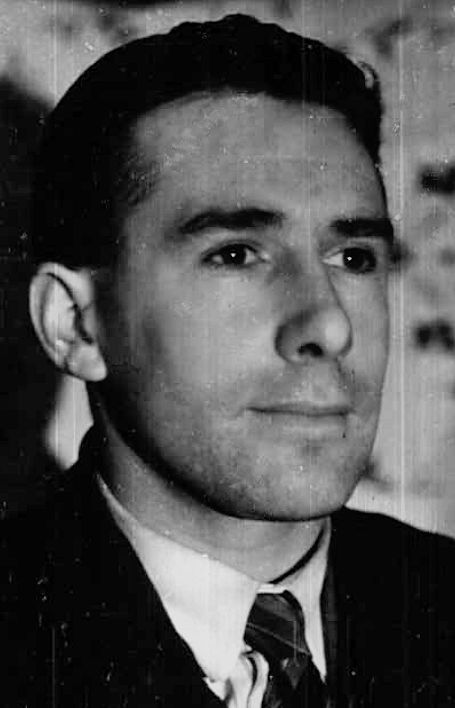 1938
1938prev. A motor trader and motorcycle racer; he and his brother James founded Anderton Bros. Motor Cycles Ltd. in Bolton, Lancashire in 1935.
Served for 6 months in the Civil Air Guard, as a Unit Leader.
Address in 1941: 18 Lever Edge Lane, Great Lever, Bolton
Postings: 3FPP, 14FPP
In September 1944 his CO, Stan Ogden, wrote "Has been a member of this Pool since Dec 1942. He has proved a willing worker. He uses his head as a pilot and does not attempt to fly in weather beyond his capacity. His discipline has been a good example to more junior members of this Pool."
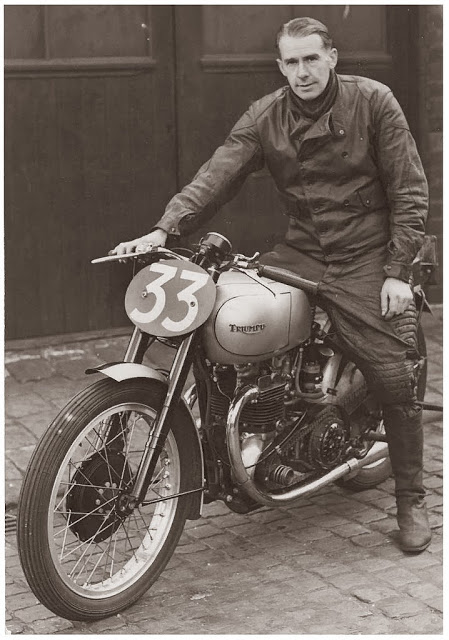 1949
1949from http://triumphtiger100.blogspot.pt/
Wikipedia: "In 1949 he competed in his first Isle of Man TT event with brother James in the pits. He also competed in the Ulster Grand Prix 1949 to 1951."
Owned G-AMZI, a 1953 Auster J-5F Aiglet Trainer.
d. Dec 1983 - Bolton
Download ATA Pilot Personal Record (.zip file):
-
Angus, Alexander Norman
M.942 * 2nd Officer Alexander Norman Angus 
b. 11 Jan 1911, Welling, Kent 12 Jul 1943 to 31 Aug 1945
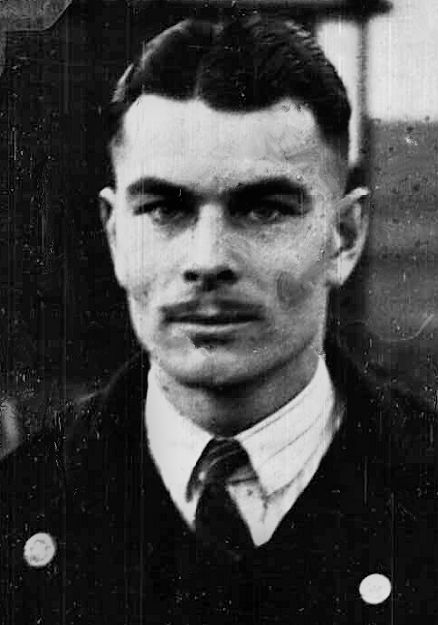 1939
1939 father: Arthur James Angus, mother Lilian Clara [McNally]
prev. a cycle mechanic
Address in 1939: 'Hillcrest', 15 Orchard Terrace, Upper Wickham Lane. Welling, Kent
-
Arckless, Irene (W.47)
W.47 2nd Officer Irene Arckless 
b. 28 Dec 1915, Uppingham 1 Aug-41 to Jan-43
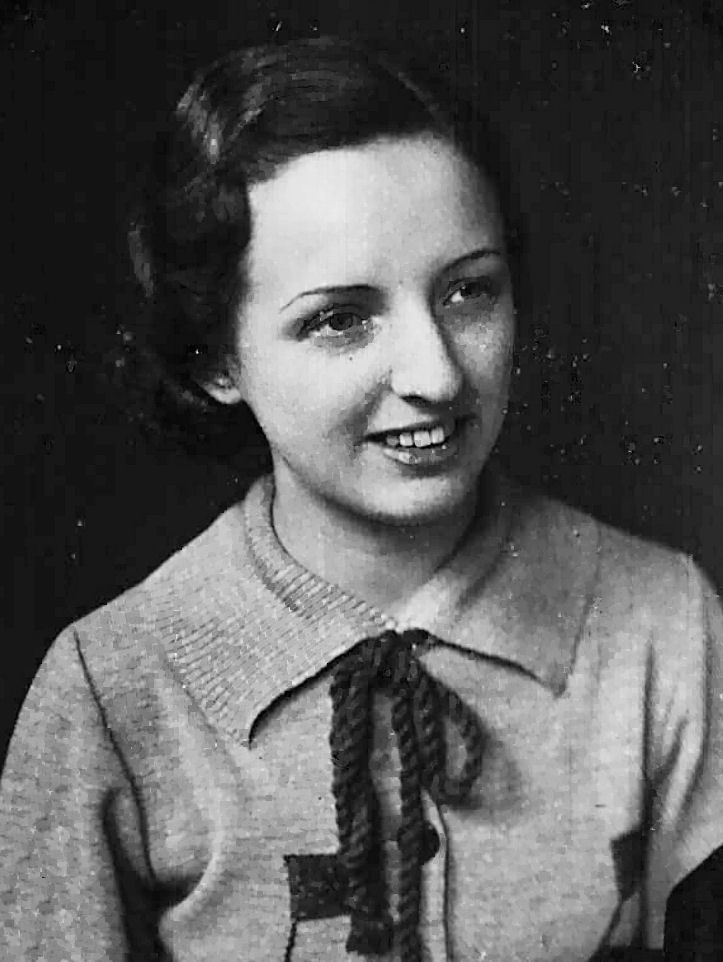 RAeC 1937
RAeC 1937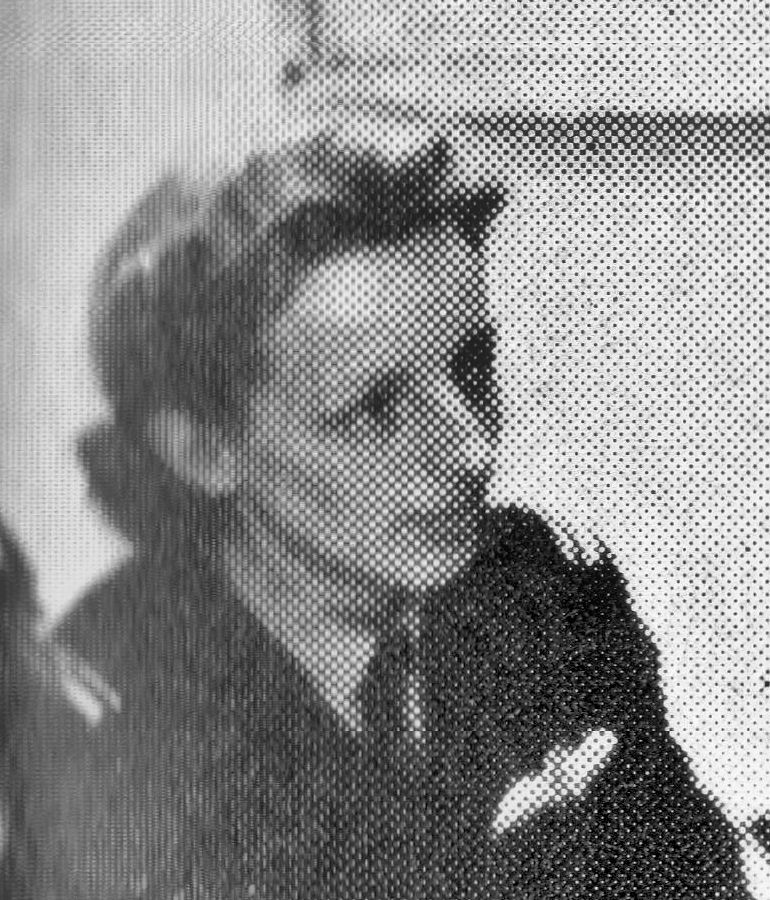 MUWW
MUWWPrev. Exp: 53 hrs solo
Irene was one of those ordinary working-class girls who, by sheer enthusiasm and determination, and with the help of the subsidised Civil Air Guard Scheme, learnt to fly in the years before WWII. She managed to amass over 50 hours solo between 1937 and 1939. Amy Mollison (Amy Johnson as was, and she were only the daughter of a fish merchant in Hull) once snootily dismissed someone as "the typical CAG Lyons-waitress type".
You've probably met someone like Irene; bubbly, a bit cheeky, innocent, irreverent - 'high spirited', if you like that sort of thing, a complete pain if you don't - and probably exactly the sort of person who would get right up Captain The Hon. Margie 'Mrs Cold Front' Fairweather's nose. Which she indeed did - and of that, more later.
Anyway, in her first letter, dated 11 Mar 1941, having heard Lord Londonderry's appeal on the wireless the night before, she applied: "I wish to put forward the following for your approval, and I will be most grateful to hear from you if you think that my services could be of use in connection with the ATA... I was studying for my 2nd class navigators certificate and intending to take a 'B' licence but the war stopped all that I'm afraid.
I am 25 years of age, height about 5ft 4. I would very much like to get into the ATA, particularly as my fiancé is a prisoner of war in Germany (Flt Lt lockyer) and as he is no longer able to fly his beloved spitfires, if I can carry on his good work I would love to do so. I am swotting up all the information I can get hold of with regard to v.p. airscrews, superchargers and boost pressure, as we did not have any of those on our poor old gypsy moths, hornet moths etc!"
She closed by "Hoping I can do my bit for our dear old country."
They invited her for a flight test, and on the 31st March she wrote:
"Dear Mr Wood
First of all I better give you an explanation of this letter! A few days ago I wrote to W/Cdr G. Tuttle asking if he could tell me anything about the prospects of the A.T.A. I had already submitted my application to them, and have since had a letter asking me to go to Hatfield for a flight test. I have arranged to attend at Hatfield on Tuesday, April 8th at 10-00.
I have had a letter from Geoffrey today, and he gave me your name and address, and told me to write to you, so I trust you will forgive the liberty I am taking.
What I want to know at the moment, and before I go to Hatfield next Monday - I am travelling down to London on the 7th instant, is - I might as well come straight to the point! - do you know what kind of machines they are using at Hatfield for the flight tests? I would be most grateful if you could drop me a note and let me know what to expect to handle - 'cause I want to be as well prepared as possible. I have handled Gipsy II, Hornet Moths, Fox Moth, and several of the ultra light types, such as Pragas, Taylor Cubs etc. I am hoping I don't have to do the test on a completely strange machine - if they have Tiger Moths there I shall be quite happy, as they are very similar to Gipsys as you know. If it will be in order for you to inform me what I will be most likely take the test on, I shall be most grateful to you."He sent a telegram back which (even before the days of auto-correctign smartphones) managed to read "Tiger Mothers for initial test".
She was well into her stride now. Here she is, writing to ATA Adjutant Kitty Farrer on the 9 Apr 1941:
"Dear Madam,
First of all I would like to say how pleased I am that I was successful in passing my flight test yesterday, and that I am looking forward very much to coming down to take up duty. I already feel I shall be very happy with you all, as everyone was very nice to me yesterday. I do sincerely hope it will not be long before you send for me - you know I am honestly very anxious to get down to what I term 'a real job of work'.
There was one thing I forgot to ask you yesterday, a rather important one as well! The question of salary!!
I know the rates as published in 'Flight' but whether these apply to male and female, or only the former, I do not know, will you be kind enough to tell me exactly what the scale is?
From what you said yesterday, I gather I shall be at Hatfied 'under training' for about a month, & during this time I take it flying pay will not be applicable. I should like to know just how I shall be fixed as regards salary, so that I can make necessary arrangements here before I leave, i.e. (so that if necessary I will have sufficient cash to last me until I draw my first pay).
I am asking you this because I have recently transferred my Bank balance to War Bonds, & naturally do not want to have to 'cash in' on these if not necessary. I think you will quite understand my asking - I hope so anyway.Further, if there are any special subjects I can 'swot' meantime, will you send me a list? I am swotting up Met: Navigation, etc, and also my morse - I don't know whether the ATA ever have need to use the latter, but it may be useful at some time or other.Believe me Mrs Farrer, this job of work I am going to do, & I shall do my utmost to do it well, means an awful lot to me, I told you my fiancé F/Lt Lockyer is a prisoner of War, & to me now, every 'plane we can deliver to the Great Lads of the RAF, means one day nearer to the time he will be home, & everyone carefree & happy again. You don't know Tommy, but he is a grand fellow, & a damn good pilot, he has over 3,000 to his credit! My record is a mere detail beside that isn't it?
To me, however, his 3,000 hours means an awful lot, & whenever I fly, I always try my best to do it well, I've his good reputation to uphold you see. You'll probably think that a very sentimental reason, on the other hand, maybe you'll understand what I mean.
By the way, I think I could get off with a fortnight's notice, so if perchance if I could start with you in May, will you let me know. Here's hoping I can start then.Forgive me for taking up so much of your time with this letter please, I started it with the intention of being very business like! but I'm afraid it's got to be a personal letter in the end - hasn't it?
Hoping to be with you all very soon.
Irene"
She wrote back to Mr Wood to say thank you, and that "I passed the flight test successfully - in fact, I did very well indeed, so I was told by the Adjutant afterwards - she said "Your test was excellent". So you may guess I felt quite proud of myself!
Actually I surprised myself I must admit, because after being 'off' flying since the outbreak of war, I thought maybe I'd have forgotten a few things - however I hadn't, thank goodness! because this job means rather a lot to me as I told you."Nothing happened...
20th April 1941, to Kitty:
"Dear Mrs Farrer,
Many thanks for your letter of the 14th instant. You know you make me feel very much at 'home' the way you write, and I know that I will be very happy with you all when I come to join you.
I think I told you I am at an E.F.T.S. at the moment, and British Air Transport, who are running the School, have a scheme for training boys to become engine experts! (we hope!) so after office hours, I am an apprentice! I am trying to put together all the numerous parts which go to make up an aircraft engine!!
I suppose I will be reaching the 'watchmaker' stage before too long - you know - one piece over! Where the heck does this go?!! I have learned quite a lot about 'twin' types, and already, in theory! I think I could fly 'em!! That remains to be seen, but I hope one day soon I shall be flying twin, or even more than twin types.
Optimistic aren't I! Strange to say though, right from childhood I've always felt more at home 'upstairs' than on the ground.
Here's hoping you will soon require some more pilots Mrs Farrer, I'm an awful pest aren't I? but I'm just longing to get started you know."Nothing continued to happen...
5th June to Kitty:
"Dear Mrs Farrer,
Yes, it's that Arckless pest again! I am going to ask you something point blank, and leave it to you to decide what happens!
As so far there seems no possibility of me coming down to join you in the immediate future on the flying staff, I wonder if in the meantime there is any chance of a Ground appointment, either as a typist or clerical staff.
If there is any opportunity of work of this nature in the meantime, I would be perfectly willing to come down, and then later, when a vacancy exists for a pilot, I could be transferred to that vacancy.
I feel sure that I could make myself quite useful if there are any openings in this direction, but of course, as you will understand, I naturally want to start on flying duties as soon as possible.
I am sure you will think I am an awful nuisance, but as you have been so kind, I hope you will forgive me troubling you again. To be perfectly honest Mrs Farrer, this is between you and I entirely - I am sitting in the office here doing practically nothing all day and I don't like it!
You see, as Mr Brown, our Accountant, knows I am leaving to come to A.T.A. sometime, he has taken on someone else who is taking over my job, and the point is, that I am left without anything to do, except to watch that my job is done correctly by someone else!
Well, there you are, thats the position, and if you are able to help me, I shall be most grateful to you.
Thanking you in anticipation of your reply, Very Sincerely, Irene"Nothing still continued to happen; eventually Irene took herself off to another job, so she must have been amazed to finally get the call to report on 1 August 1941.
She completed training (although she bumped into another aircraft when landing on the 11th August, due to 'bad airmanship'), went on to ferry work, and progressed through the ranks; she was promoted to Third Officer on 5 Feb 1942, then Second Officer on 1 Jul 1942.
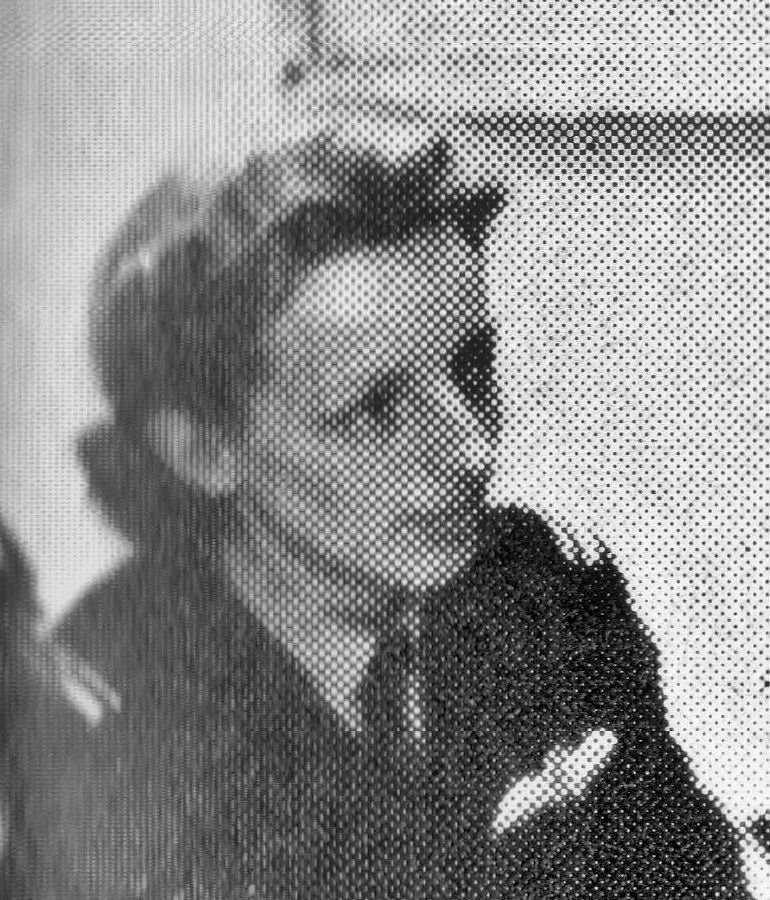
On the 24 Feb 1942, ATA Senior Commander Pauline Gower invited Irene into her office to discuss a rather delicate matter. Irene was typically... forthright:
"Interview with 3rd Officer Irene Arckless
To Pauline Gower Dear Madam,
Further to interview of this morning, I would like to place the following statement on record as I feel it would be more satisfactory from my own personal view point. The matter being to me of a very serious nature, and effecting my good character, as such it has always been to date.Reference the accusation made, and presumed to concern myself i.e. that at a certain aerodrome (unnamed) an unnamed duty pilot is reported to have said to me - when I requested the delivery chit to be signed - "I will, if you give me a kiss first".
I wish to emphatically deny these words, as never, on any occasion, has such a familiar attitude been adopted by any duty pilot wherever I have been.
Further, I would like to place on record that far from adopting a familiar attitude myself - I get my chits signed as soon as possible, and depart from the duty pilot's office.
Having served six months in H.M. Forces prior to joining A.T.A. I consider, that as an Officer and I trust, a lady, I know how to conduct myself both in and out of uniform.... "Irene demanded a full and detailed enquiry, and went on,
"I would like to add that recently at a number of aerodromes visited, & by a number of people, I have been mistaken for another female member of the ATA, whether there proves to be any connection with the charge made & the above - will do doubt, after investigation, come to light.
I an Madam, Your Obedient Servant, IrenePauline (no doubt muttering under her breath 'For goodness' sake, calm down, woman'), replied:
"With reference to your letter to me of today's date, I would point out to you that you have not been charged with any offence. Certain matters have been brought to my attention and I took the course of discussing these with you in order to clear them up.
Under the circumstances I shall make a further investigation but in the meantime I am fully prepared to take your word concerning the particular instance mentioned in our conversation this morning."... and that appears to have been the end of that.
The very next month (March 1942), however, a more serious matter came up, and she was grounded. Without boring you with all the tedious details of 'She said to me, so I said to her', etc, what happened was this:
On the 15th March, Irene ferried an aircraft from Catterick to Prestwick, via Carlisle. As she landed, who should be watching but Margie Fairweather, and she was not pleased by what she saw; "I noted the circuit and approach of the machine which ultimately turned out to be piloted by 3rd Officer Arckless. The final turn into the slight wind which was blowing, was done in a series of jerks, in the nature of flat turns, and the machine was then under-shooting by several hundred yards. The engine was now used to recover, and height was again gained. Thereafter the machine made a perfectly good landing on the grass. I was shocked to discover the pilot was 3rd Officer Arckless who is known to have some experience."
Margie confronted Irene, criticised her turns, the height at which she circuited the aerodrome, minutely cross-examined her on her knowledge of the valley, and queried Irene's explanation of a fuel leak for the large quantity of petrol taken on at Carlisle; (she asked for a 'Snag Report' and said "If it's found to be alright, it will be too bad for you", or words to that effect"); she also told Irene she clearly didn't know how to work an altimeter. Margie summed up her opinion of Irene in no uncertain terms: "Her whole bearing during our conversation convinced me, that her extreme confidence in herself as a pilot has no justification."
Irene, in turn, wrote, "Personally I feel that there is some personal prejudice existing in the whole of Captain Fairweather's attitude" and ended her report by stating, "my one ambition is to be an asset to A.T.A. and not a menace!"
As it happens, Irene came up with convincing arguments against all Margie's criticisms; nevertheless, she was sent back to School for a Check Flight, with the Chief Instructor, no less. I wonder if she could resist a slight smirk when the report came back:
19 Mar 1942
T/O I. Arckless
We have duly received your report dated 15 March regarding the above Officer, and thank you for writing.
Miss Arckless has had a flight check with the Chief Flying Instructor who has given us such a good report that we have no alternative but to return her to full flying duties.
Her explanations on your various points seem fairly satisfactory, but we shall, of course, keep this Officer under observation.To be fair to Margie, she was just doing her job, and she was absolutely right to be concerned; the 15th of March 1942 was one of the worst days of ATA's existence, with 6 people dead in 4 separate crashes. Plus, Margie was a very experienced pilot and instructor; if she had concerns about the way Irene was flying, she was aprobably right. But in any case Margie and Irene's personalities and backgrounds were so different, they were perhaps bound to clash.
Pauline thought it best to transfer Irene anyway, with this note in her file:
"Miss Arckless suffers from over confidence and I am not at all satisfied with her ability as a Class I pilot. I should be grateful therefore if you would keep a careful check on her flying and general airmanship."
Irene's next mishap turned out entirely to her credit; on the 20 Aug 1942 she took off in a Mk I Hurricane, and the port undercarriage leg failed to retract. She wrote "I flew around for about 30 minutes trying to get port leg up, or starboard down, by the emergency methods... nothing happened, in any of these directions, the port leg remained down and starboard up.
After this I circuited the aerodrome, wiggled my wings, and made very amazing other actions. By amazing actions I mean: I trimmed aircraft to fly hands off as well as was possible under the circumstances, took both hands off and feet off everything and tried brute force to move the selector lever... during this period the aircraft certainly appeared to perform some remarkable antics!
I then did a further circuit and went in to land. Port wheel fortunately retracted and I made a normal crash landing."
She went back to School, but this time on a conversion course. Her final report was, again, positive:
"from A G Head, Temp. O.C. Training Pool
"a keen and safe pilot who has shown considerable initiative and resourcefulness. A likeable personality who is inclined to be rather high spirited but whose work is of a high standard. An extremely good navigator who will make a most useful ferry pilot.She had to cope with a difficult problem in a Hurricane with undercarriage selector trouble recently, and belly landed it with less damage than the Engineer Officer of the Station had ever seen before with similar circumstances. She was exonerated by the Accidents Committee, thus proving her School reports to carry considerable weight.All her work in Training Pool has been very satisfactory."She had another accident, on 21 Dec 42; her Airspeed Oxford developed low oil pressure in its starboard engine and she had to force land. The incident was investigated and she was found 'not to blame'.
Sadly however, her next accident - less than 3 weeks later, in the same type of aircraft - was fatal. On the afternoon of Sunday 3 Jan 1943, her Oxford V3888 crashed onto a house on the outskirts of Cambridge when an engine cut during take-off. She was taken to Addenbrooks but pronounced dead.
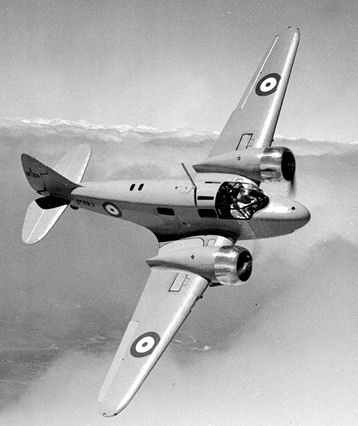
I don't think Pauline Gower ever warmed to her, actually; rather than the usual fairly positive summary, she managed to damn Irene with faint praise: "her conduct and general character was satisfactory and she performed her duties conscienciously"
Buried Stanwix Cemetery, Carlisle. ATA pilot Ronald Porter (q.v.) is buried in the adjacent plot.
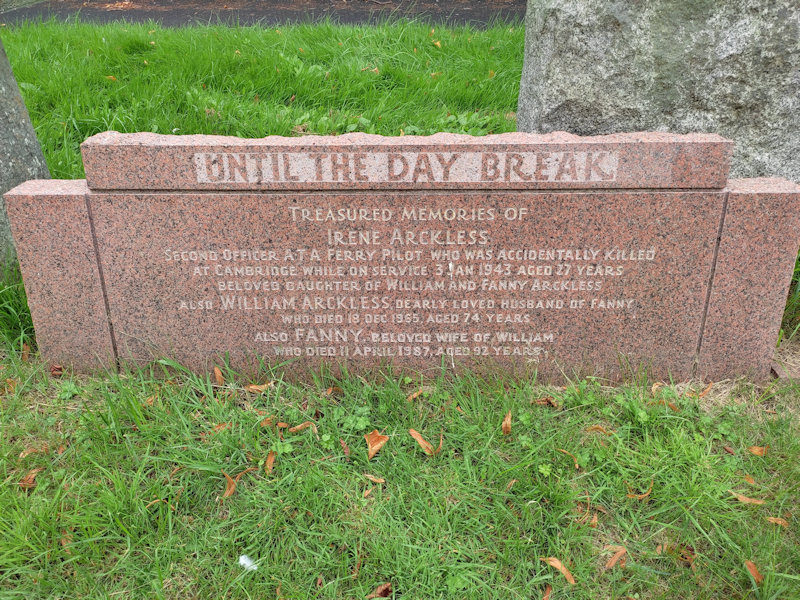
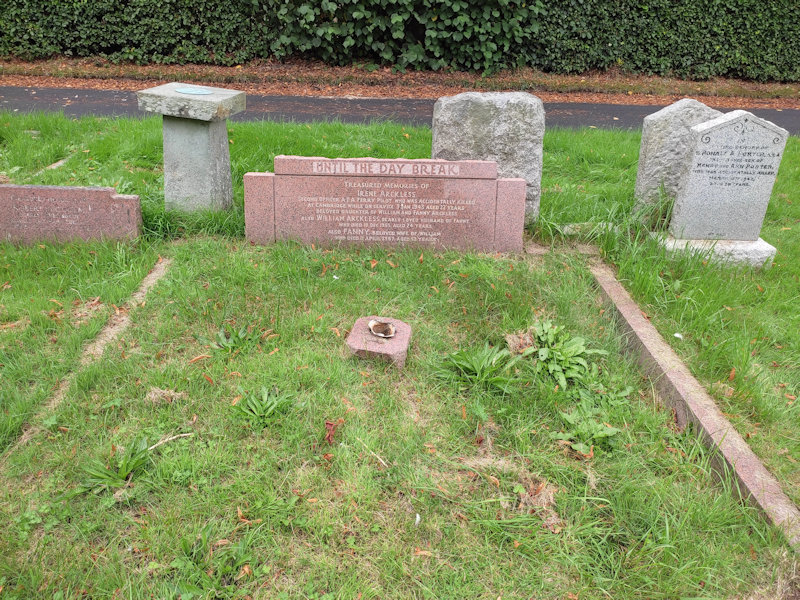
The Inscription reads:
"UNTIL THE DAY BREAK
Treasured Memories of
IRENE ARCKLESS
Second Officer ATA Ferry Pilot who was accidentally killed
at Cambridge while on Service 3 Jan 1943 Aged 27 Years
Beloved Daughter of William and Fanny Arckless
Also William Arckless Dearly Loved Husband of Fanny
Who Died 18 Dec 1965, Aged 74 Years
Also Fanny, Beloved Wife of William
Who Died 11 April 1987, Aged 92 Years"
The ATA Benevolent Fund went to visit her parents, to offer assistance, but reported back:
"Mr Arckless is an ordinary working man, being an organ-builder by trade and I understand that in recent years he has not been fully employed, hence the reason that I deemed it advisable to interview the deceased's parents on the question of the Fund.
Both Mr. and Mrs. Arckless have requested me to thank the Organisation and the Committee for the consideration shown to them, but they feel that, although their daughter contributed considerably to the home, they cannot under the circumstances avail themselves of any monetary allowance which the Committee may have sen fit to grant them as they feel there must be many more deserving cases, namely young widows left with small children."
Cairns Post, 15 Jan 1943; "Irene Arckless, daughter of a Carlisle organ-builder, was known as "the flying school-girl." She realised her school-girl ambition to emulate Amy Johnson. She made her first solo flight when she was 21. She was killed on the day after her 28th birthday [sic]. She had just returned to her station from four days leave. She was engaged to Flight-Lieutenant Thomas Lockyer, a prisoner of war in Germany.
Lockyer's father said last night "Tom and Irene had known each other since childhood. She took flying lessons as soon as she left school. When Tom joined the RAF, she was determined to get her 'wings as soon as he.”
She joined the RAF ferry service in October, 1941 [sic], after she heard that Lockyer was a prisoner. 'One of us must keep flying, she said'.”
Download ATA Pilot Personal Record (.zip files):
-
Armstrong, Henry Michael Andrew
M.748 First Officer Henry Michael Andrew Armstrong 
b.19 Feb 1906, Lacock, Wilts 10 Jun 1942 to 30 Nov 1945
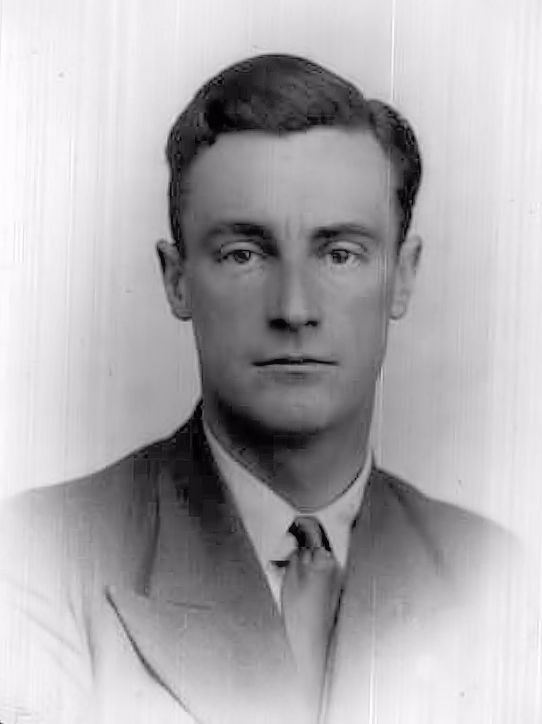 1939
1939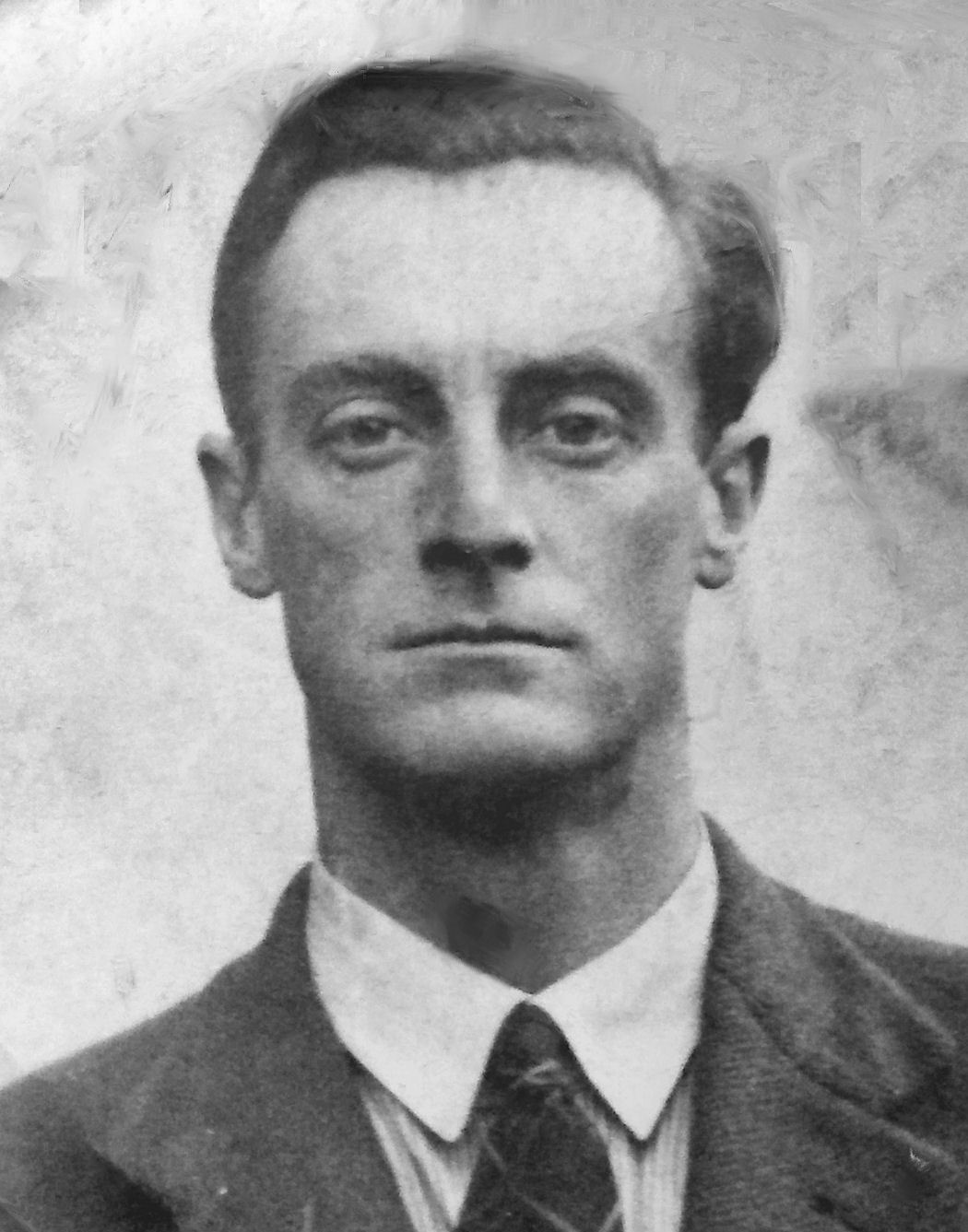 ATA
ATA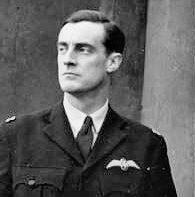 MAMM
MAMMFather: Henry William Armstrong, (d. 1934), Mother: Agatha Henrietta Sibilla [Henslow]
Ed. "privately in France"
prev. Motor Engineer; Electrical Engineer
RAeC Certificate 17637 dated 11 Apr 1939, taken at Exeter Aero Club
prev. exp. 30 hrs on Hornet and Tiger Moth
Address in 1939: Down St Mary, Bow, Devon
Address in 1941: 10a Whitchurch Rd, Bristol (later Manor Farm, Corston, Bristol)
Ab initio pilot
Postings: 4FPP, 6FPP, 2FPP
Off sick from 15 Feb to 3 Mar 1943 with influenza
Reprimanded 3 Oct 1944 for loss of Ferry Pilots Notes
2 accidents, 1 his fault:
- 28 Dec 1943, the starboard undercarriage leg of his Spitfire collapsed, after a normal landing
- 9 Feb 1945, he was taxying "with insufficient care" in Tempest V NV780 and hit a vehicle, because he had not noticed that it had stopped
Severely Reprimanded for this taxying accident
m. 1943 in Wokingham, Berks, Olive Betty(e) May or Whittington also of the ATA (daughter Mary Anne b. 1944, son John William Andrew b. 1949)
He and Bettye ran the Edgcumbe Hotel in Newquay, also from 1959 the Coniston Hotel in Newquay
d. 26 Aug 1984 - Newquay, Cornwall
Postscript:
Bettye m. 6 Sep 1986 in Truro, Thomas Nelson Gray
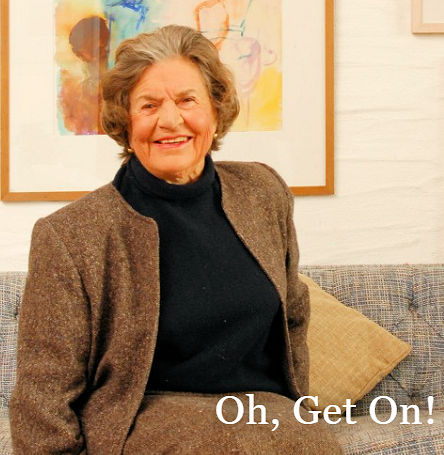
"Oh - Get On! is Bettye Gray's book, [2008] recalling 100 years of Cornwall's holiday scene and how one family (her own) helped to shape it"
-
Arthur, Joan Henrietta (W.166)
W.166 3rd Officer Joan Henrietta Arthur 
b. 5 Aug 1919, Ealing 8 May-44 to Sep-45
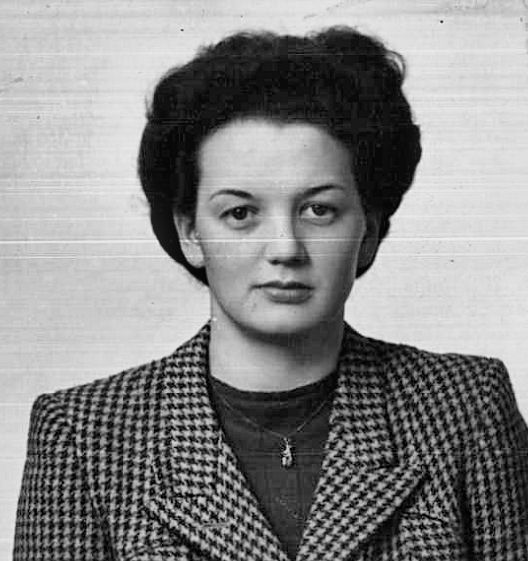 RAeC 1945
RAeC 1945
The Final 7 Women Pilots - Betty Keith-Jopp (W.167), Sue Alexander (W.163), JoanArthur (W.166), Ruth Russell (W.165), Annette Mahon (W.164), Aimee de Neve (W.168), Katharine Stanley Smith (W.162)
Father: George Arthur, a Civil Servant; mother Margaret, a nurse
prev. an insurance clerk
Address in 1945: 51 Hillfield Rd, W Hampstead, London NW6
[Ab initio pilot]
Gained her Royal Aero Club Pilot's Certificate (No 20488) as part of the ATA's 'Wings' scheme on 3 Aug 1945
m. 1948 in Hampstead, Eric G Barton
d. 5 Mar 1993 - Hatch End, Middx
-
Artindale, William Anthony
M.245 First Officer William Anthony Artindale 
b. 21 May 1904, Sheffield 26 Aug 1940 to Aug-45
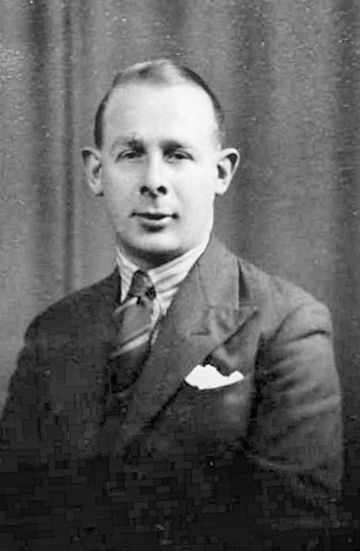 1935
1935prev. a horticulturalist
[Contract Terminated, but re-engaged 3 Feb 1941]
d. 1991, Bournemouth
Download ATA Pilot Personal Record (.zip file):

IWM interview here: https://www.iwm.org.uk/collections/item/object/80009669
-
Ashburner, Lionel Hector Tracey
M.340 * 2nd Officer Lionel Hector Tracey 'Ash' Ashburner 
b. 17 Jun 1899, Seaford, Sussex 27 Mar 1941 to 30 Jun 1945
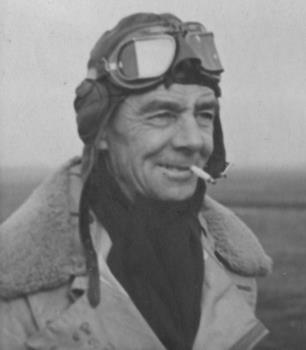 ATA
ATA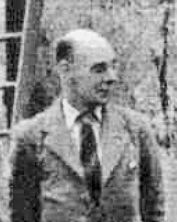 1971
1971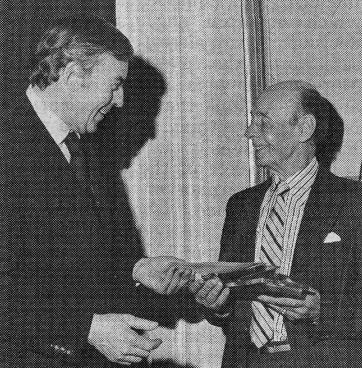 1977 (both 'Flight')
1977 (both 'Flight')father Rev. William Ashburner, [Rector of Dodington], mother Georgiana Alder [Rinder]
m. 1926 Gladys Violet [Sheriff]
prev a Planter in the West Indies
The Imperial War Museum has a 1971 audio tape of him: "REEL 1 Aspects of training as officer cadet with Royal Flying Corps, 1917: early interest in flying; period in army, 1917; basic training at Hastings; technical training at Denham. Period on flying training at RAF Eastchurch, 3/1918: reaction to former Royal Naval Air Service; first flight in Avro 504 K, 20/4/1918; opinion of instructors during dual flying training on DH6 and Avro 504 K; story of nearly throwing instructor out during loop; first solo in Sopwith Pup, 13/6/1918; influenza attack; first solo on Sopwith Camel, 28/7/1918; course as flying instructor at RAF Manston. Period as flying instructor at RAF Eastchurch, 1918: story of nearly flying out in loop; two-seater Sopwith Camel; method of recovering from spin. Demobilisation, 1919.
Period as sugar planter in British Guiana, 1920-1929. Passing air license during membership of Bristol and Wessex Flying Club, Filton and Whitchurch Airfields, Bristol area, 1929-1930. Period as rancher in British Guiana, 1930-1935. Period as member of B&WFC and Leicester Flying Club, 1935: aircraft flown; flights to various flying club airfields; Armistice celebrations, 11/11/1918-12/11/1918; development of commercial flying using flying boats in British Guiana; story of giving parents flights. Period prospecting for gold in British Guyana, 1935 -1938. Period flying with B&WFC, 1938-1939: failed attempt to rejoin RAF; question of communicating with control tower. Period as air traffic control officer at Croydon airport, London, 1938-1939: prior training course; question of competition between Imperial Airways and other airlines; types of passenger aircraft; use of Morse code to communicate with aircraft; use of map and pins to record aircraft position; method of landing aircraft by ear; flights of Air France aircraft in bad weather.
Period at Heston airport, London, 1939: review of services and aircraft; army cooperation exercises. Period as air traffic control officer at airfields at Perth, Aberdeen and Whitchurch, 1939-1943: initial rejection due to reserved occupation prior to acceptance on unpaid part-time basis as Class 1 aircraft ferry pilot with Air Transport Auxiliary, 4/1941; opinion of various aircraft flown. REEL 2 Continues: opinion of various aircraft flown; conversion course as Class II aircraft pilot; opinion of Spitfire; story of arrest by military police due to lack of uniform; near accident due to fatigue whilst flying Spitfire and consequent end of control tower duties, 9/1943. Period as fulltime ferry pilot with ATA, 1943-1945.
Postings: 2FPP
1977, "Flight"; "Lionel Ashburner from Sywell, Northampton was awarded the John Player Award for Achievement in General Aviation trophy and a £350 cheque for long service in Air Traffic Control. 'Ash' officially retired as an airways controller at Preston in 1963, but then became controller at Sywell, a post he held full-time into his seventies, becoming part-time only this year. He has long been known for an almost magic ability to talk 'temporarily uncertain' pilots into Sywell, aided only by his keen knowledge of Midlands geography."
d. 9 Feb 1986 - Bristol
See also http://www.sywellaerodrome.co.uk/
-
Austin, James Stanley
M.--- 2nd Officer James Stanley Austin 
b. 7 Apr 1890, Glastonbury 30 Apr 1941 to 21 May 1941
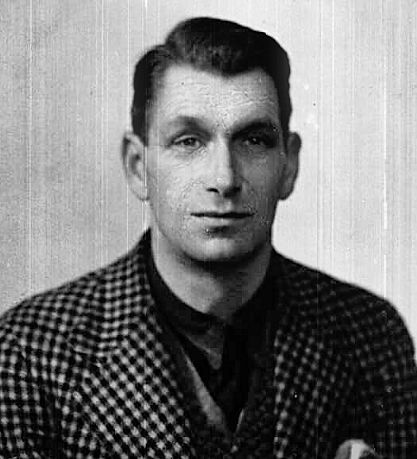 1938
1938prev. a Mining Engineer, then a Motor Engineer
Royal Navy from 1915-18 then Army Air Corps to 1919
Address in 1938: "Alclutha", St George's Rd, Sandwich, Kent
d. 7 Mar 1982, Exeter
-
Avery, Philip de Walden
M.453 2nd Officer* Philip de Walden Avery 
b. 5 May 1909, London 16 May 1941 to 19 Nov 1942
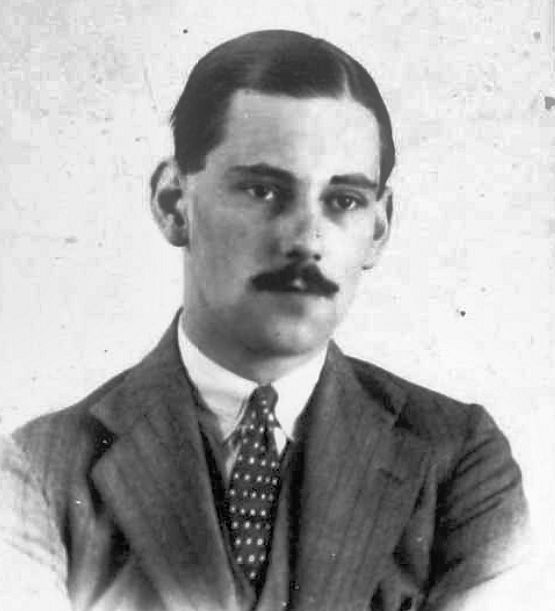 1931
1931Educated at Harrow
Pre-WWII amateur aviator who had owned:
- a 1930 Comper CLA.7 Swift, G-AAZD;
- a 1931 DH.60G Gipsy Moth, G-ABPT, and
- a 1933 Comper CLA.7 Swift, G-ACML
He also entered (the one and only) Comper Streak, G-ACNC, for the 1935 King's Cup Race, but withdrew before the start.
m. 1939 Ilona de Walyel
A Company Director (Minox Ltd)
Address in 1941: Old Mill Cottage, Wargrave, Berks
Postings: 1FPP
"An average pilot, with not too good a sense of discipline"
[* First Officer from 14 Aug-42 but demoted to 2nd Officer 2 weeks later for flying in bad weather, supposedly for a period of 3 months. However, his contract was terminated before this period ended.
The accident which caused him to be demoted was on the 15th August 1942, when he 'abandoned a Spitfire after running out of fuel through flying in bad weather'. The final straw was when, on the 16th November, he forgot to lower the undercarriage of a Hurricane when landing.]
In his defence, he did successfully force-land a Short Scion in September 1942 after engine failure; on the other hand, the Hurricane was the second aeroplane in which his cockpit drill had missed out this rather important item - he had also landed a Blenheim with its wheels up on the 30th August...
[Contract Terminated by ATA 'due to the number of at-fault accidents' (actually, the Hurricane was his 5th)]
Address in 1967: The Garth, Wellingore, Lincoln and Kafue National Game Park, Zambia"
d. Mar 1985 - Lincoln
Download ATA Pilot Personal Record (.zip file):
-
Ayres, Ronald Wilfred
M.667 * First Officer Ronald Wilfred Ayres 
b. 27 Jan 1919, Huntingdon 23 Sep 1941 to 31 Oct 1945
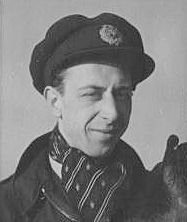
Manx Aviation & Military Museum
prev. an insurance company clerk
d. May 1998, Huntingdon
-
Bach, Denis George
M.---- 2nd Officer Denis George Bach 
b. 22 Dec 1911, Birmingham 19 Aug 1941 to 23 Sep 1941
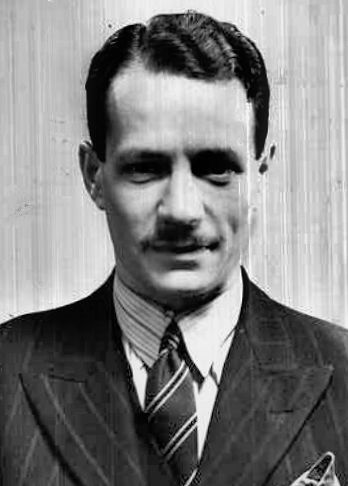 1939
1939Prev. a Technical Engineer
Address in 1939: 16 Holly Rd, Handsworth, Birmingham
One accident:
- 20 Sep 1941, in a Magister; "Pilot got lost and then took off after forced landing, contrary to existing regulations. Wheels of aircraft struck the top of the small hedge and the machine hit the ground."
Contract Terminated 23 Sep 1941
d. 4 Jan 1985 - Santa Barbara, CA
-
Bailey, Mary (W.---)
W.--- 2nd Officer Hon. Lady Mary Bailey CBE
née Westenra

1 December 1890, London 15 Feb 1940 to 29 Mar 1940
.jpg)
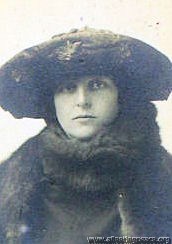 photo: 1927, aged 37
photo: 1927, aged 37Born in London but brought up mainly in County Monaghan, Ireland.
Her family's home was Rossmore Castle, which was a grand affair built in the 1820s, with turrets, a vast drawing room and servants' quarters, not to mention about 20 cottages on the estate:
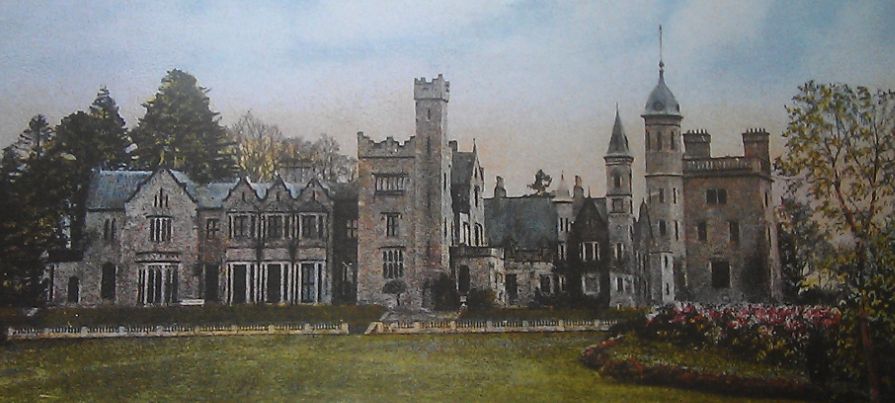 www.monaghan.ie/museum
www.monaghan.ie/museumHere she is, with her brother Willie, and parents (Mittie and Derry) on a set of steps by the house, in 1913:
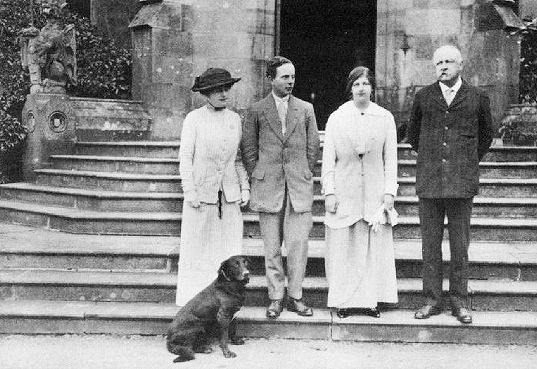 Throttle Full Open
Throttle Full OpenI visited County Monaghan in 2014 and asked in the local museum if they knew where the house was. 'Oh yes' they said, 'but it was demolished forty years ago'. It seems that it became severely infested with dry rot in the 1940s, was abandoned and, indeed, demolished in 1975.
Anyway, here's all that's left of it now:
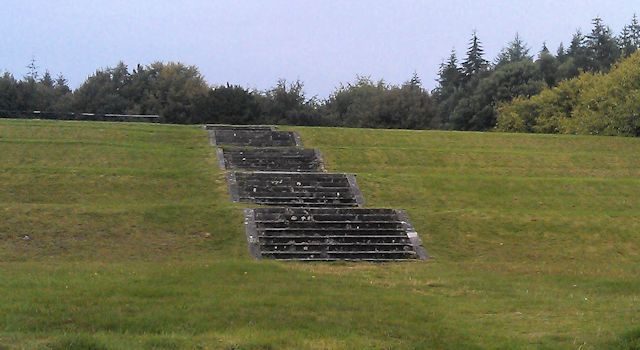
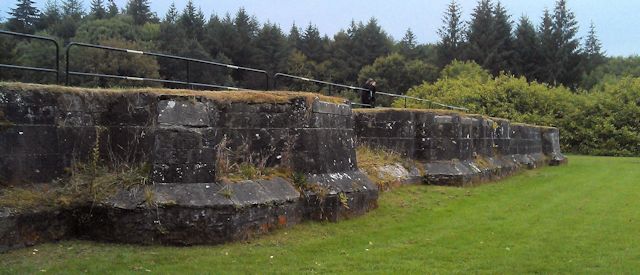
Mary married South African mining magnate and white suprematist politician Sir Abe Bailey in September 1911 (so, she was 21, he was nearly 47; his first wife had died in 1902 and he already had two children). They then had five more children - 2 boys and 3 girls.
She learnt to fly at the London Aeroplane Club in 1926. She was the first woman to fly across the Irish Sea 'by the long route' from Chester to Dublin, the following August.
The following March (1928) she began a solo tour to Cape Town, via Malta and then Cairo. Here, her plane was locked away by order of the Governor-General of the Sudan to prevent her from continuing alone, so she contacted Dick Bentley (who had flown to the Cape a few weeks before) to escort her in his own aeroplane over the "dangerous area of the southern Sudan". She then crashed in Tanganyika, writing off her aeroplane (she said it was her fault), but Abe made arrangements for a replacement Moth to be delivered from Pretoria and she continued, despite having 'flu. Abe was there to meet her when she arrived at the end of April.
The return journey was made via the western 'French' route - the Belgian Congo, Angola and the French Congo. She finally arrived back at Croydon on 16 January, 1929, 10 months after she left. It was "undoubtedly one of the finest performances ever put up by a woman pilot."
Lady Bailey was "so modest, so vague and so charming", and was "surprised that anyone should make a fuss about her journey".
A Director of National Flying Services in 1929, (with Frederick Guest, Colonel the Master of Sempill, Alan Cobham, etc); she was also awarded the Brittania Trophy by the Royal Aero Club, and then made a Dame of the British Empire in 1930 for "services to aviation".
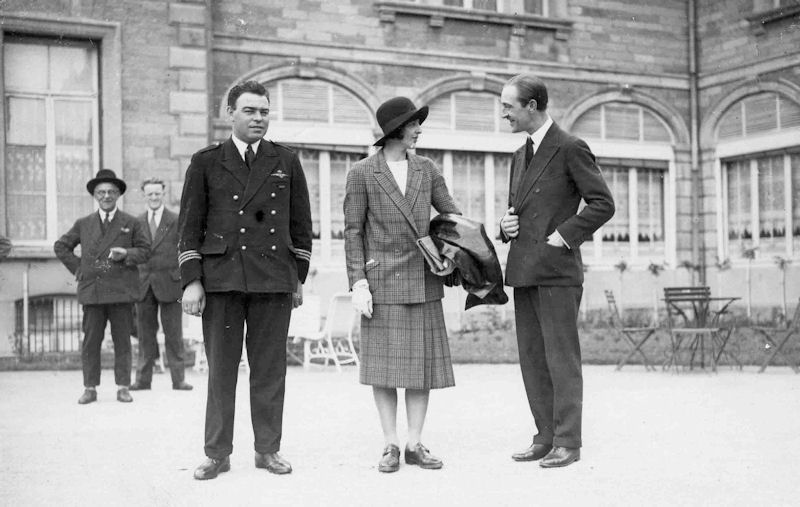 At the Chateau d'Ardennes in 1930
At the Chateau d'Ardennes in 1930She was a guest at Amelia Earhart's reception at the RAeC in May 1932 - photo here.
In early 1933 she gave everyone a scare by disappearing for several days on another solo flight to Cape Town; thankfully, she had only got lost, run low on fuel and landed safely in the Sahara. [Bert Hinkler, who disappeared at about the same time, was killed in the Alps]. She then flew back to England and almost immediately went down with a bout of typhoid, but recovered in time to compete in the King's Cup later in the year.
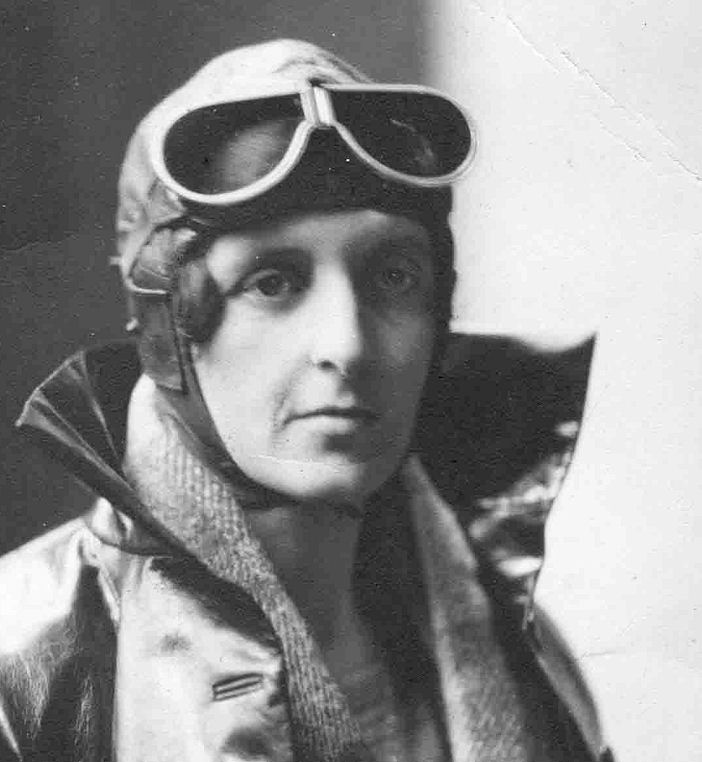
After that, she concentrated on looking after their horses, giving and attending loads more balls and receptions, and marrying off their many children.
When Abe died in 1940, she settled near Cape Town (still keeping a house in Rutland) and died there 29th August 1960 aged 69.
King's Cup in 1927, 1929, 1930, 1931, 1933
Lady Mary's aeroplanes were:
a 1926 DH.60 Moth (G-EBPU),
a 1927 DH.60X Moth (G-EBSF, the one she crashed in Tanganyika),
the replacement DH.60X Moth (G-EBTG, which Abe bought in Nairobi);
a 1928 DH.60G Gipsy Moth (G-AABN);
a 1929 DH.60G Gipsy Moth (G-AAEE) and
a 1930 DH.80A Puss Moth, G-AAYA.
-
Baines, Rita Pauline (W.146)
W.146 3rd Officer Rita Pauline Baines 
b. 13 Nov 1921, Stoke-on-Trent 28 Dec-43 to 30 Sep-45
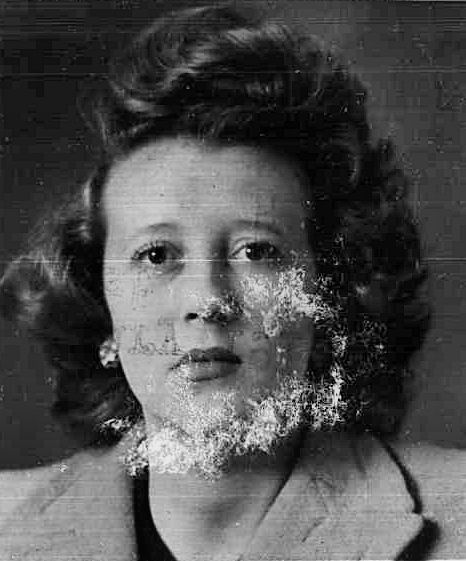
RAeC 1945
Ed. Felixstowe College
prev: Rootes Securities Ltd, (a 'shadow' aircraft factory at Blythe Bridge, near Stoke-on-Trent); MAP from Nov 1942
Ab initio pilot cadet
Postings: 15FPP
Later 'Star Girl No. 2', air hostess for British South American Airlines: (see also Mary Guthrie , who was 'Star Girl No. 1)
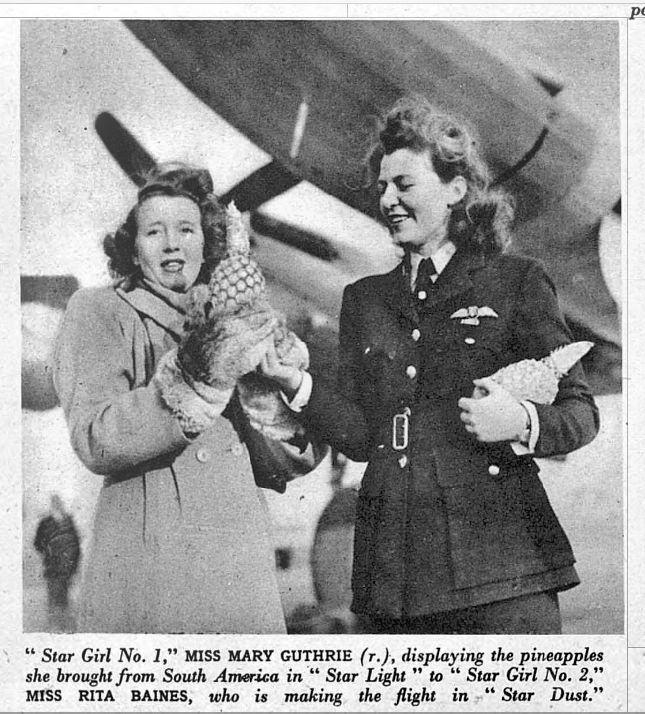
m. 1946 Captain David Colby, an ex-Pathfinder Squadron Leader
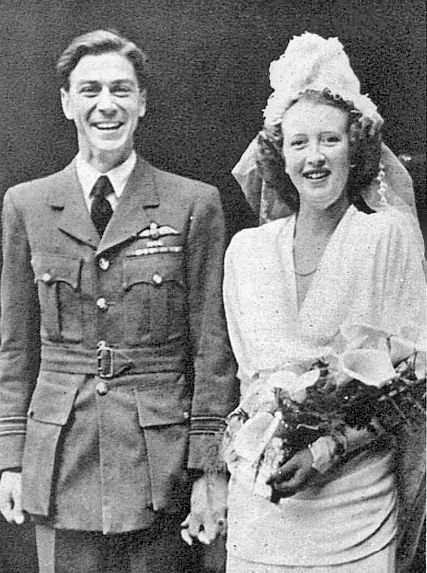 The Tatler
The Tatler"SEQUEL TO AIR ROMANCE
There was a sequel to an air romance at Trentham Parish Church on Saturday when a former transocean passenger air-liner hostess was married to a pilot in the employ of the British and South American Airways. The bride was Miss Rita P. Baines, the 25-years-old daughter of Mr. C J. Baines, head of Messrs C. J. Baines and Co. Ltd . colour manufacturers, of Stoke, and of Mrs, Baines. The Woodlands. Trentham. and the bridegroom. Mr. David Colby, the 26-years-old son of Mrs Colby. Oulton Broads. Norfolk, a former R.A F. squadron-leader and the holder oi the D.F.C.
The couple met last January when Miss Baines travelled as air-hostess and made a call at the Gambia (British West Africa) station of the airways company. of which Mr. Colby was station manager." Staffordshire Advertiser - Saturday 30 November 1946
[David d. 30 January 1948 (age 27) in the crash of British and South American Airlines' Avro Tudor IV G-AHNP 'Star Tiger', lost on a flight between the Azores and Bermuda. 6 crew and 25 passengers died.]
m. 1949 Christopher Johnson, MD of Johnson Bros Ceramics
"The marriage took place at the Priory Church of St. Bartholomew the Great. West Smithfield. London, on Monday, of Mr. Christopher Johnson. younger son of Mr and Mrs Frank Johnson. Kniveden Hall. Leek, and Mrs Rita Colby, daughter of and Mrs. C. J Baines. Woodlands. Trentham. and widow of Squadron-Leader David Colby. D.F.C. After the reception at the Dorchester Hotel. Mr and Mrs. Johnson left for their honeymoon, which is being spent in Italy." Staffordshire Advertiser - Saturday 20 August 1949
d. 2007 - Newcastle Staffs
-
Baker, John Robert
M.--- 2nd Officer John Robert Baker 
b. 26 Jun 1915, London 26 Sep 1941 to Nov-41
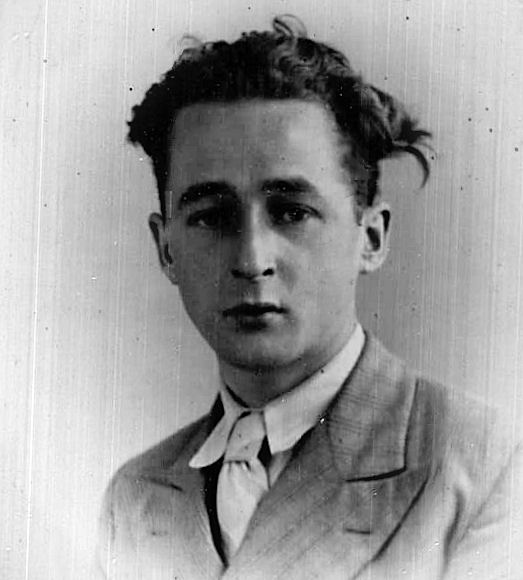
1938
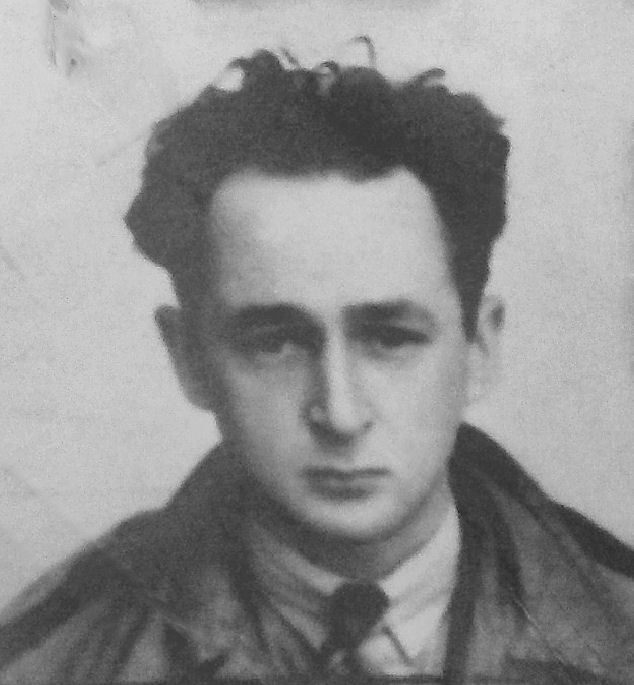 ATA
ATAprev. an electrician for the Borough of Stepney from 1932
prev. exp 25 hrs solo
L/AC in RAF 22 May - 4 Oct 1940. His 'reference' from them to the ATA says "After being reported extremely backward this ex-pupil was tested on 29th Aug 1940 after 5 hours dual on Oxfords, when it was found that he was definitely below average and completely lacking in air sense. His reactions were extremely slow, flying rough, cockpit drill hazy and judgement bad. He was therefore withdrawn from flying training. It is considered that this ex-pupil is entirely unsuited for the work of a Ferry Pilot".
Even his ATA flying test reported him as "keen, but painfully slow at times" and "very lacking in common sense".
Nevertheless, he was taken on as a Cadet.
... And died a few weeks later, in a flying accident.
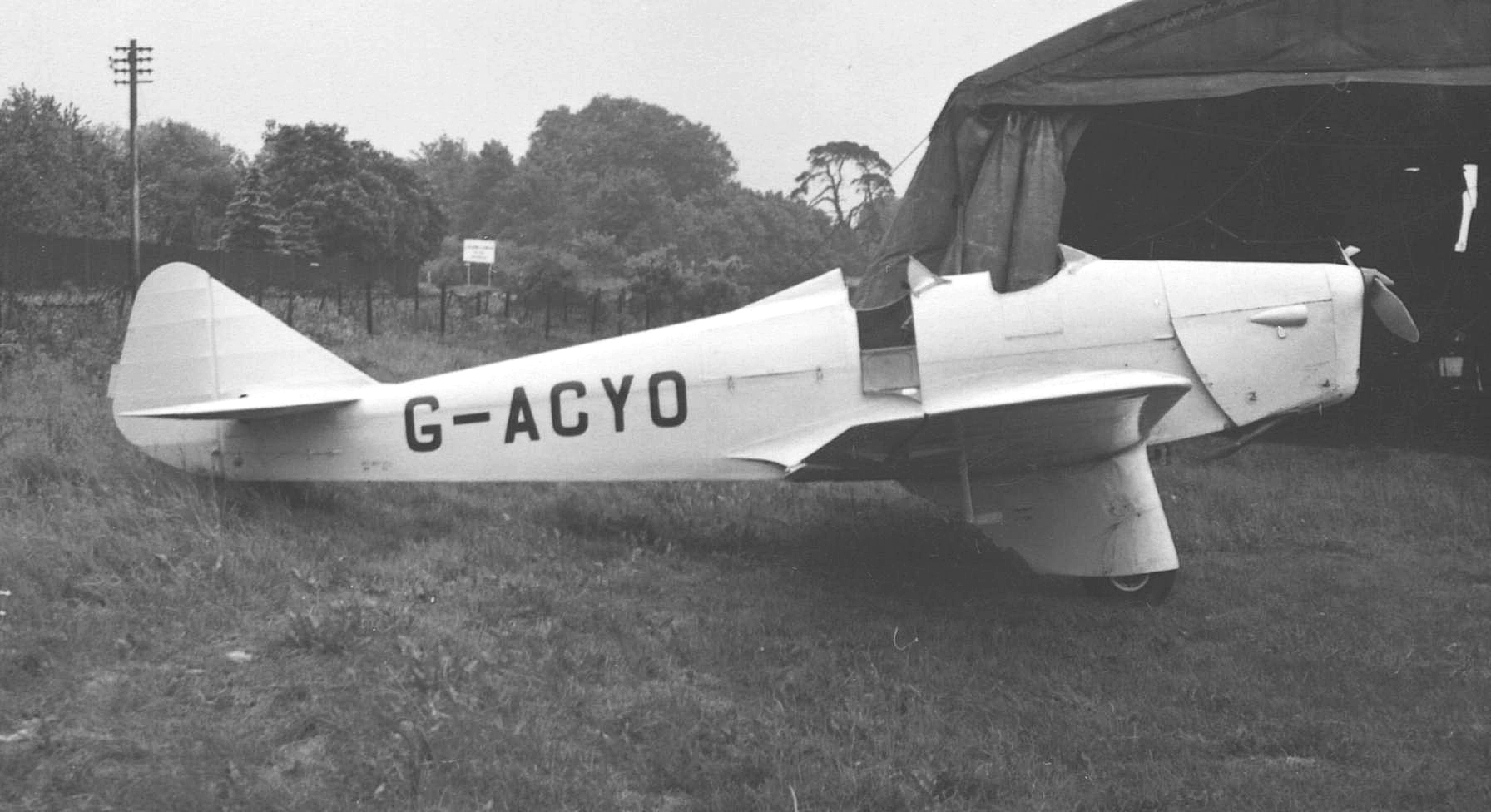
d. 20 Nov 1941 (Died in ATA Service) - Miles Hawk Major DP848 (ex G-AENS) on training cross-country flight ran out of fuel and hit hill nr Priddy Wells Somerset in bad visibility.
-
Bambridge, Frederick Edward Arthur
M.51 Flight Captain Frederick Edward Arthur 'Bam' Bambridge 
b. 7 Mar 1897, Ealing, London 8 Apr 1940 to 31 Mar 1943 (as pilot)
to 30 Nov 1945 (as Flying Control Officer)
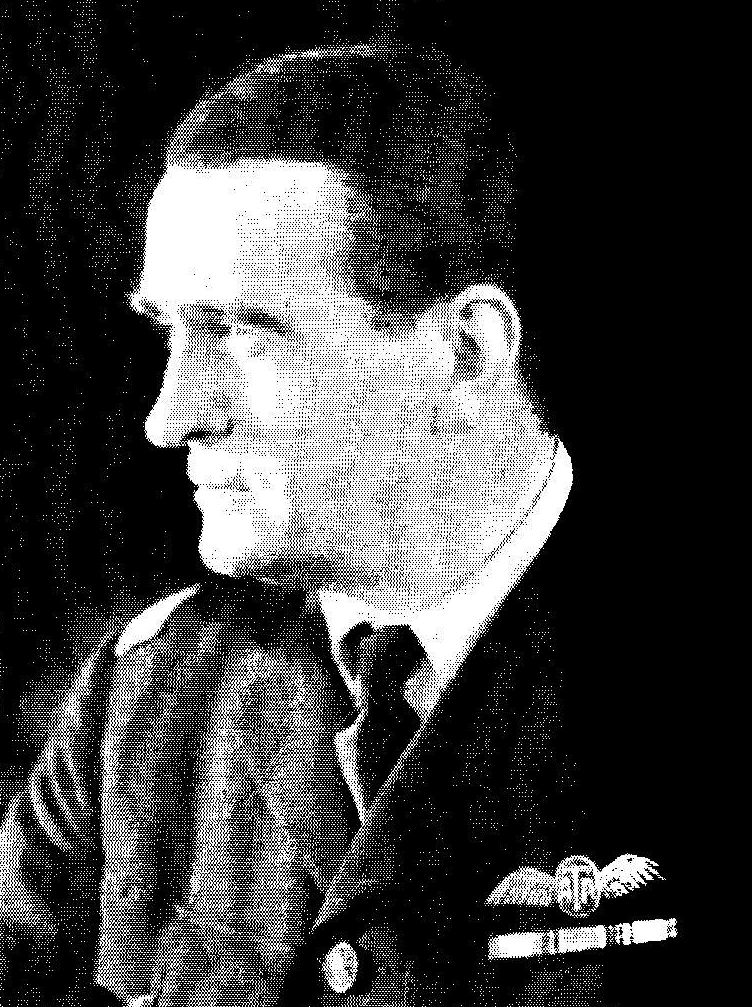 BG
BGFather: Arthur Leopold Bambridge (d. 1923), Mother: Anna Charlotte Caroline [Siebert]
Ed. Marlborough
Royal Field Artillery (6th [Duke of Edinburgh's] Wilts Regiment, Commissioned 12 Apr 1915, in France from 28 Oct 1915), RNAS (Flight Sub-Lieut from 17 Sep 1917, 2nd Lieut), RAF from 1 Apr 1918 (Lieut)
As a Flight Sub-Lieut. in the RNAS, he was seriously wounded in March 1918. This accident, according to research done by his grand-daughter, was "whilst serving as reconnaissance scout in RNAS 2nd Squadron based at Bergues. On 22 March 1918 he and his gunner were hit by anti aircraft fire over Ostende. Bam and gunner Harry Lovelock managed to crawl out onto the wings of the DH4 biplane and witnesses described seeing plane initially diving then fluttering down like a leaf then diving again. Tragically Harry lost his grip and fell at about 1,000 feet from the ground. Bam hung on the tail until a few feet above the ground when he threw himself clear. The plane on crashing rolled over on top of him breaking his legs in several places. The true account was hushed up for the sake of gunner Harry's parents feelings."
In March 1919 he relinquished his commission on account of "ill-health (caused by wounds)" but was permitted to retain his rank.
In July 1919, Flight said (presumably referring to an earlier accident): "Lieut. Bambridge, who had the distinction of losing the tail of his machine at 15,000 ft. in France, and descending on the top plane more or less successfully, was in charge of the ground operations" for an air display in Liverpool.
m. Jul 1926 in Steyning, Sussex Vera Maud [Fullick]
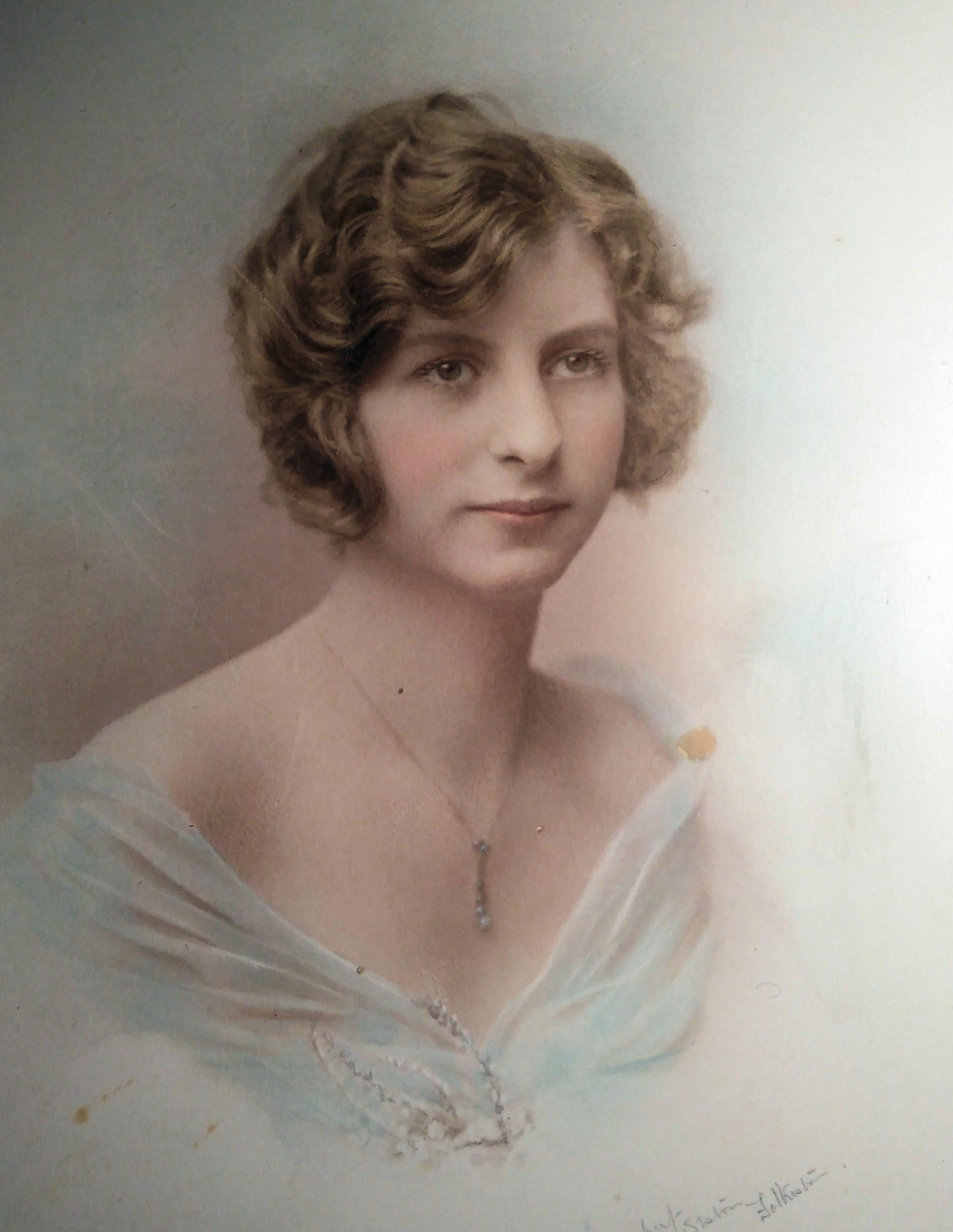 Vera
VeraHis patent No 338,495 for 'Improvements in or connected with Braking Means for Aeroplanes and the like purposes" was published in December 1930:
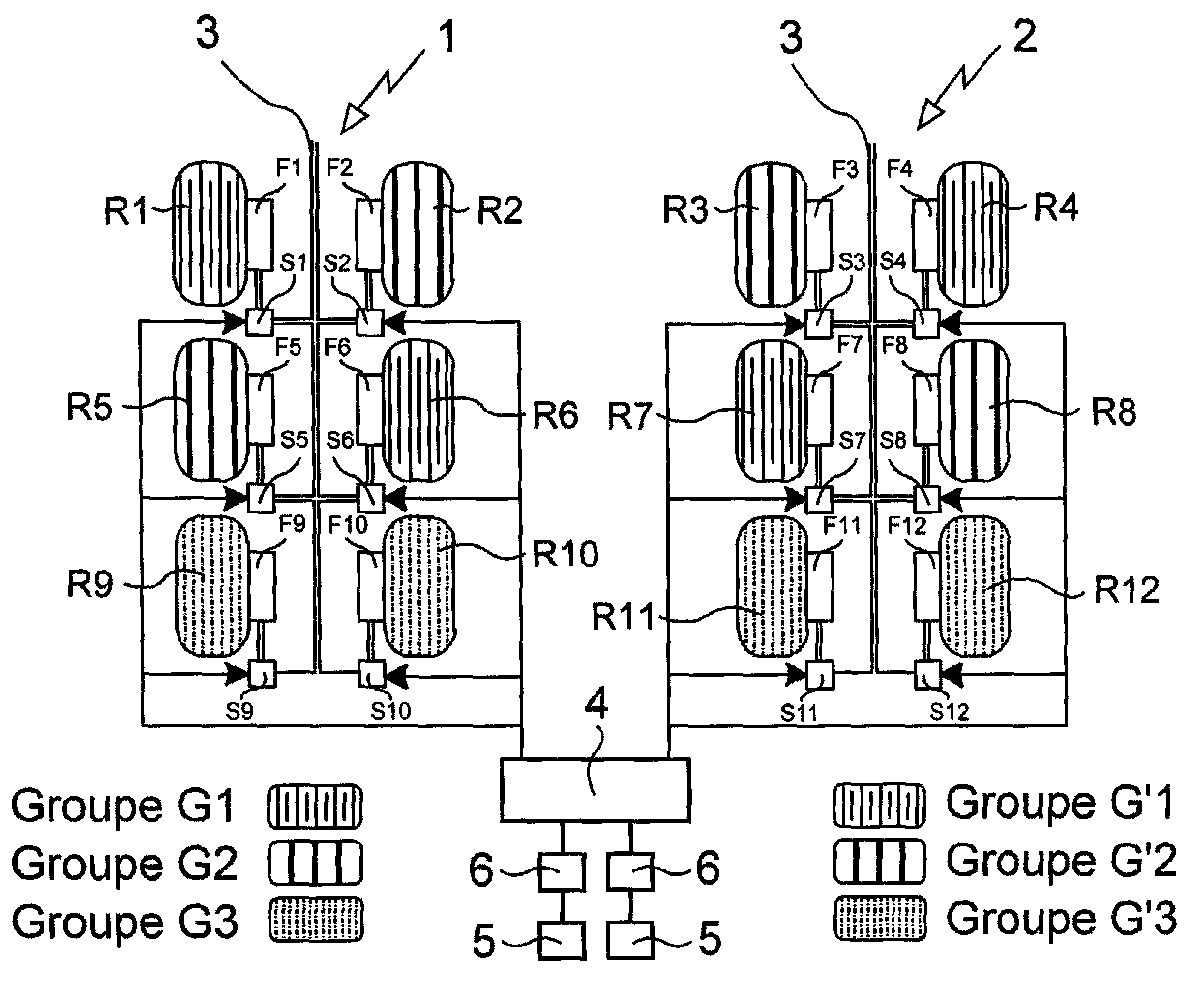
"The braking force is applied directly to the landing wheels and undercariage.... My invention admits of several modes of application and according to one embodiment a bracket or like device having slots in angular or other suitable relation is employed in co-operative relation with and at each end of the axle of the landing wheels."
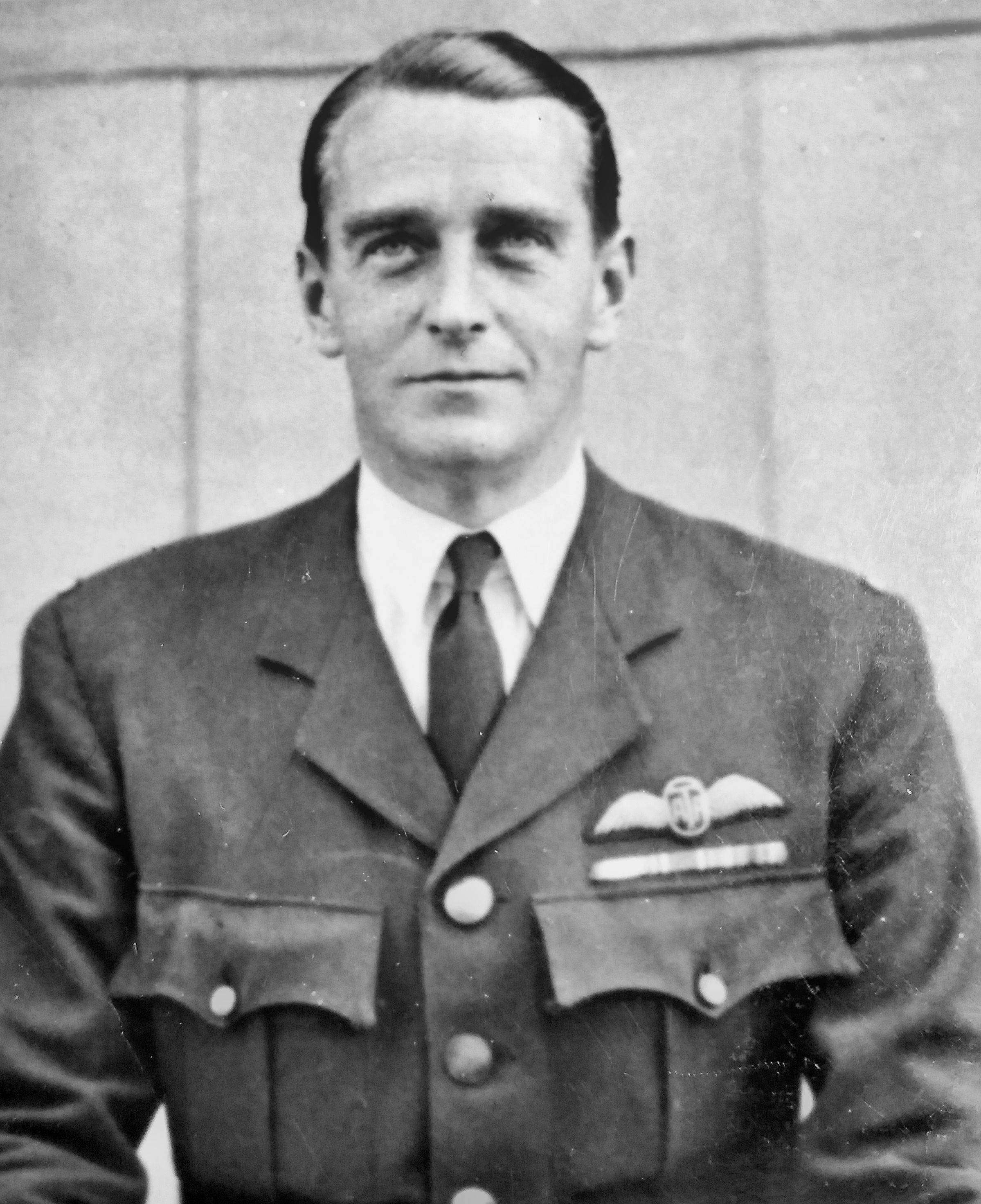
Address in 1940: Waimate, Gordon Rd, Whitstable
Postings: 6FPP, 1FPP, 4bFPP
Suspended in Jan 1941 for nine days for 'Accumulative Misdemeanours'
Suspended for 7 days in May 1941 for 'disregard of flying regulations at 33 MU Lyneham'
1 accident, not his fault:
- 18 Jun 1941, the wheels of his Anson got clogged in long grass, 'which prevented the pilot obtaining sufficient height to clear an obstruction'.
"This officer though limited in his flying activities for medical reasons has more than made up for it by his energy and organising ability in the Operations Room where he has proved himself a very great asset."
Transferred to ground duties 31 Mar 1943.
"Is a very conscientious officer. Unfortunately he is not good at handling his staff, and does not achieve a good team spirit."
Or, "A first class organizer and highly efficient Chief Flying Control Officer."
In September 1945 as the ATA was being disbanded, the Air Movements Flight held a 'Farewell Dinner'. The menu, and a 'poem' in the form of an ABC, have survived:

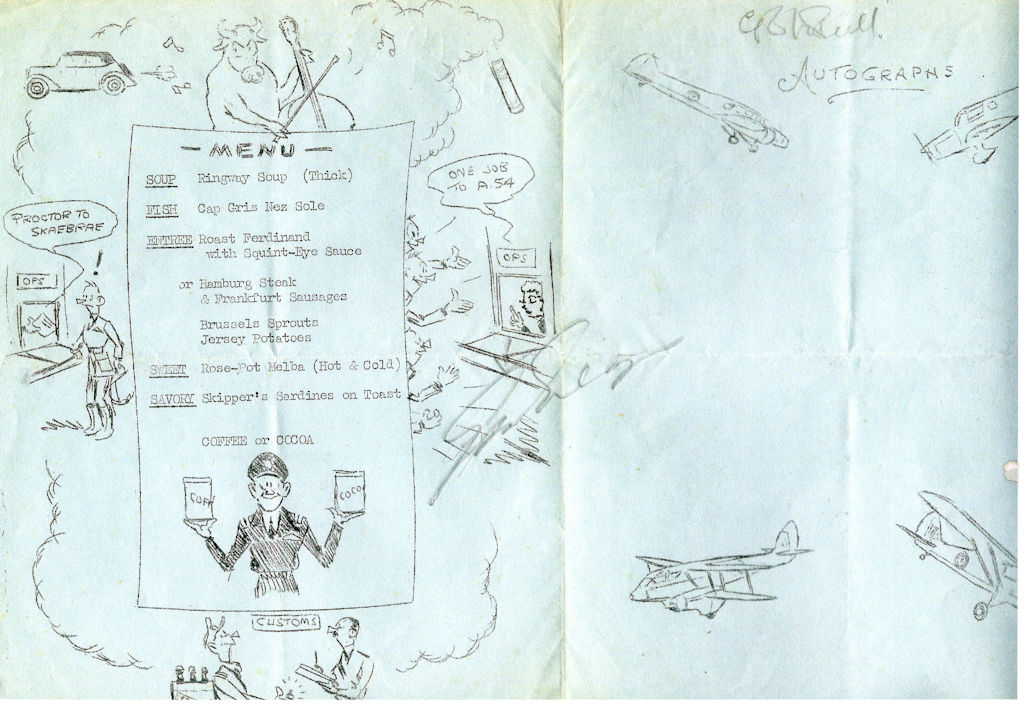
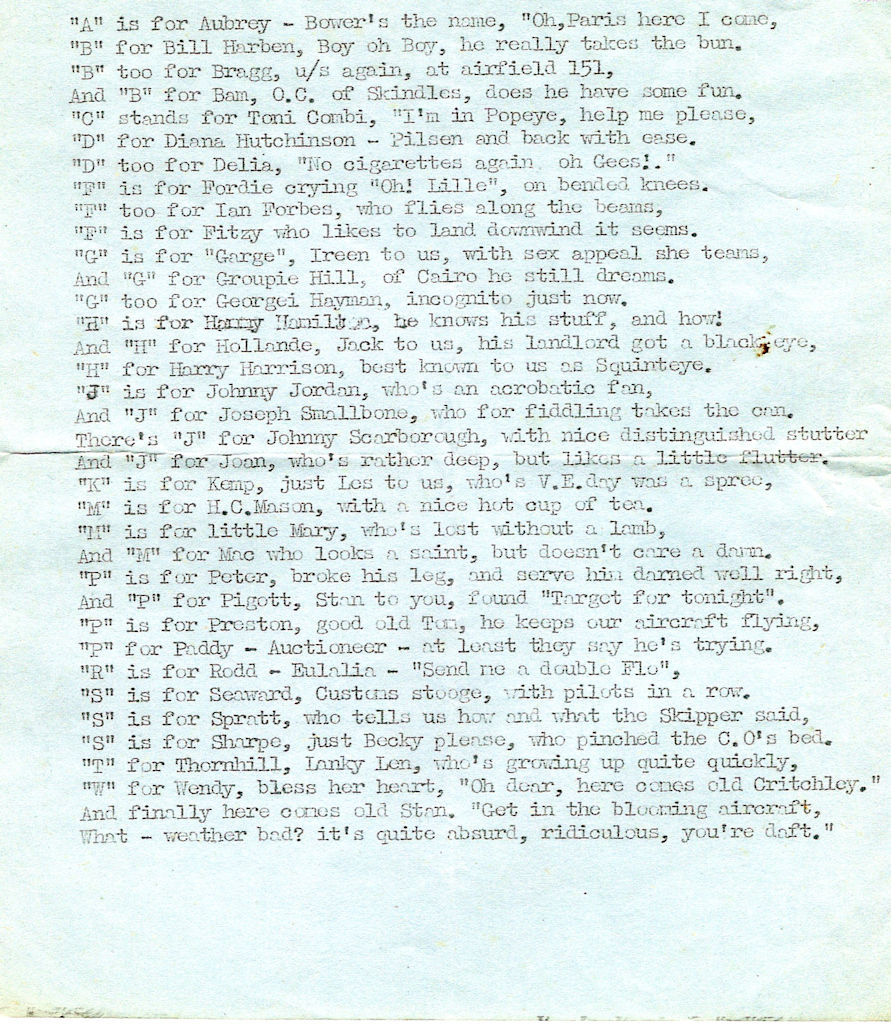
People mentioned:
Aubrey Bower [M.758]
Bill [Guy] Harben [M.18]
Bragg
Bam
Toni Combi [M.588]
Diana Hutchinson [W.107]
Delia
Fordie
Ian Forbes
Fitzy
Ireen Garge
Groupie Hill
Georgei Hayman
Harry Hamilton
Jack Hollande
Harry Harrison
Johnny Jordan
Joesph Smallbone
Johnny Scarborough
Joan
Les Kemp
H. C. Mason
Mary
Mac
Peter
Stan Pigott
Tom Preston
Paddy
Eulalia Rodd
Seaward
Spratt
Becky Sharp
Len Thornhill
Wendy
Stan
---
d. Dec 1966 - Elstree, Herts
His grand-daughter Fiona kindly tells me that "Bam's mother, Caroline Charlotte Anna Siebert-Charters, was a German aristocrat. His father, Arthur Leopold Bambridge, was an artist who exhibited several times at the Royal Academy and was a Member.
Bam's parents divorced when he and his elder sister Emily were small, in 1904. It was his mother who filed for divorce; she took Emily to Germany with her, leaving Bam with his father in England, apparently so that he did not get naturalised to being German.
Bam went to primary school locally in Wiltshire, then later went to stay with his uncle William, who was a Professor of Music and organist for Marlborough College. Bam spent 2 years at Marlborough, although not very successful academically I was informed by their archivist.
He joined the RFA in 1915, then RNAS. He was shot down twice in France, once whilst his passenger took aerial photos; the passenger was sadly killed, Bam was injured and thereafter always walked with a limp.
Bam met Vera when he retrieved her Alsatian dog after it had run off in fields near Shoreham airport. When he inherited his mother's money, he and Vera lived the high life - skiing in Switzerland, Cannes for the casinos (Bam loved gambling), and were friends with the Benetti brothers (racing cars). 'Bam' worked as a stunt pilot, carpenter, admin for BOAC in a London office, and also sold sun lamps.
Bam and Vera had four children, Angela, Anthony, Brian and John. John became a pilot in the RAF and also flew privately. My aunt, Angela, is the last one still with us
Bam joined up in the early days of the ATA; a friend of his from Whitstable, Herbert Mason (q.v.) was joining so he applied. At first he flew planes, then later was promoted to Flight Captain. You can see his name in the marvellous poem written at the end of the war for their final evening dinner party.Bam and Vera separated around 1940, and divorced after the war. Bam remained in Maidenhead (near the old White Waltham ATA base), living in a small flat, and used to visit the old ATA base, by then an Aero Club. He also avidly read flying magazines sent to him by his sister Emily. Bam died of tuberculosis in hospital in Herts in 1966.
He was in contact with some of his relatives during those years including his cousin Philip whose wife told me how Bam lived a very simple life - "one plate, one cup,"less washing up", he said. He was fond of her small children, he was always a gentleman, had twinkly eyes and a lively smile.
The ATA ladies, Joy Lofthouse and Mary Ellis both told me in 2011 that Bam was a gentleman. He was often to be seen standing at the end of the runway at White Waltham, looking up into the sky."
-
Banister, Eirene Rosemary (W.119)
W.119 3rd Officer Mrs Eirene Rosemary Banister 
b. 20 Jul 1919, Budleigh Salterton, Devon 12 Jul 1943 to 30 Sep 1945
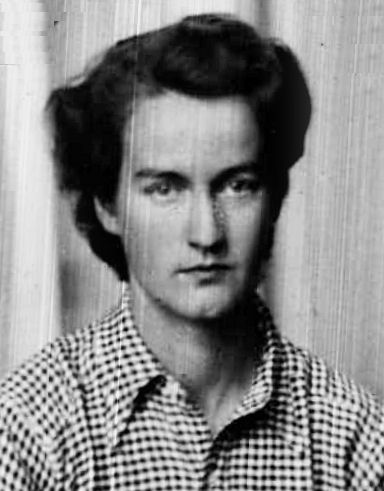 RAeC 1939
RAeC 1939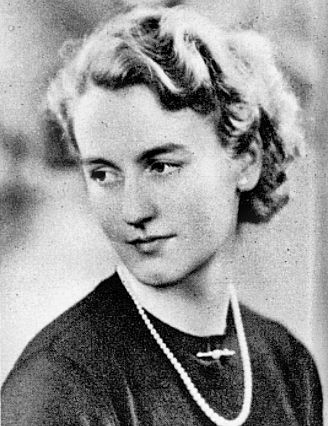 1940 (The Bystander)
1940 (The Bystander)née Whittow
Father Richard Whittow (a Merchant and farmer), mother Eirene Frances Stewart [Tweedie] (m. 1910 in Colombo, Ceylon)
Address in 1939: Muryn, Brockenhurst, Hants
Sailed to the UK from Port Said with her parents in December 1938, then to the USA in June 1939
Civil Air Guard in 1939
prev. exp. 3 hrs on Gypsy Moth
m. 31 Mar 1940 in Brockenhurst, Lt. Peter Charles McConnel Banister RN, DSC (d. 19 Jul 1941 in HM submarine 'Umpire' which collided with a trawler off the Norfolk coast on its maiden voyage) (1 child, Carol b. 1941)
Postings: 5TFPP, 12FPP (Sec), 15FPP
Class III pilot
m. Sep 1947 in Hants, Hugh Digorie Seccombe (2 children: Celia b. 1948, Geoffrey b. 1949)
Moved to Guildford, Surrey and died there 1 Jun 2011
IWM interview (from 1989) here: https://www.iwm.org.uk/collections/item/object/80009672
-
Barker, Albert
M.506 First Officer Albert Barker 
b. 16 Apr 1908, Shipley 6 Jun 1941 to 31 Oct 1945
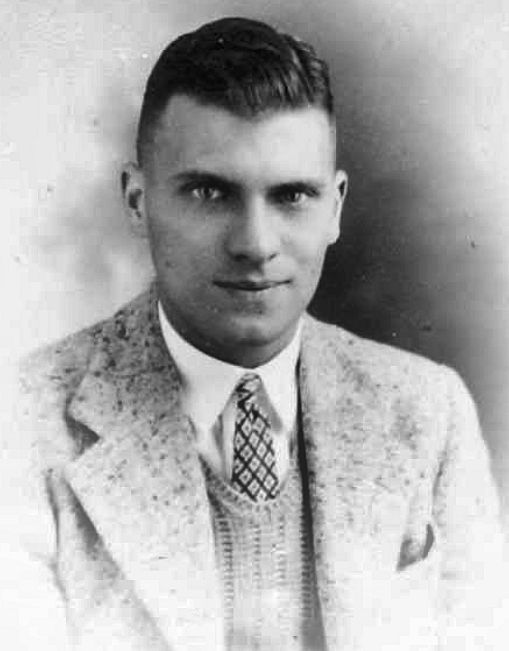 1935
1935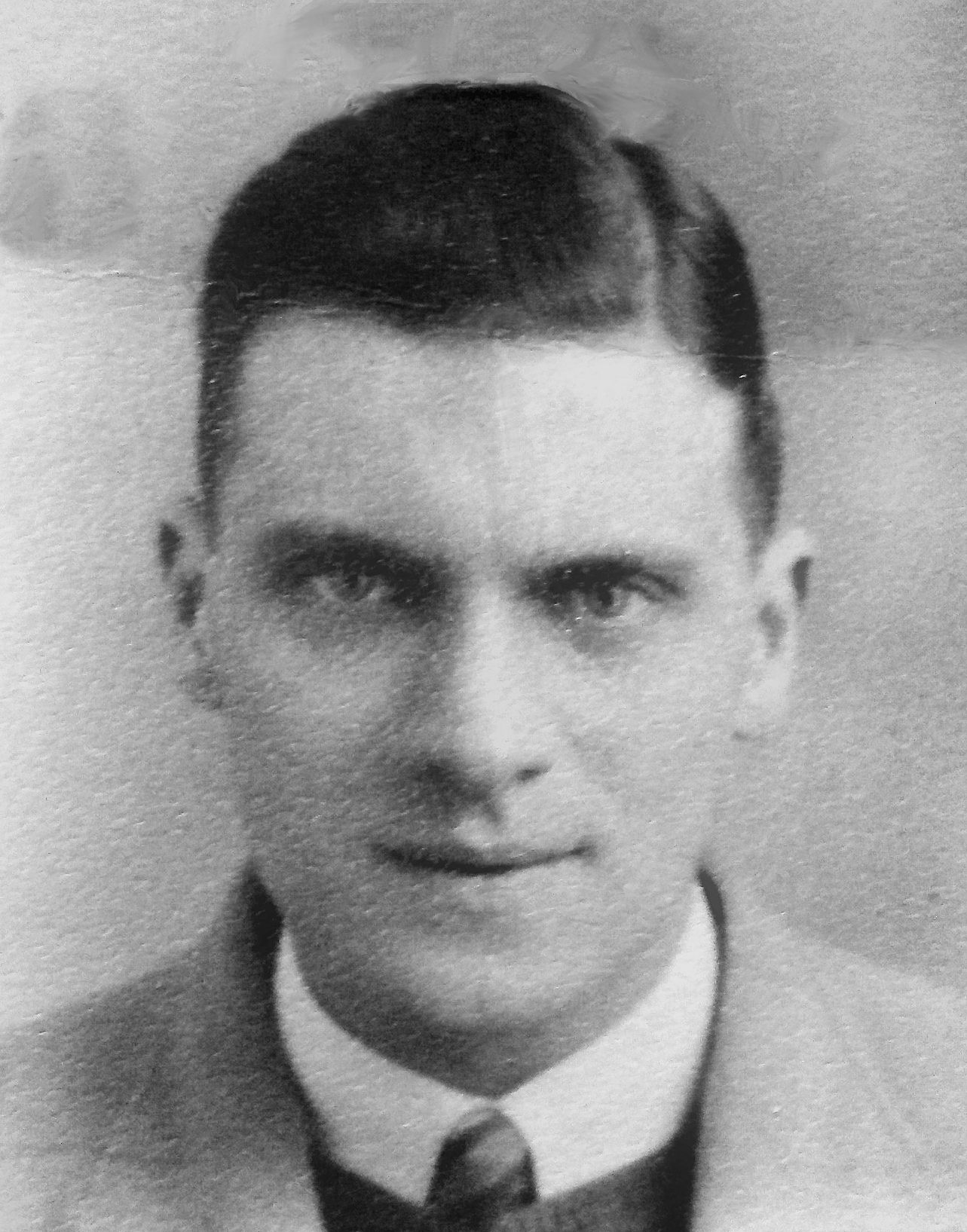 ATA
ATAEducated at Shipley Central School
m. 1934 May [Jackson]; 1 child
prev. Company Director, Valley Road Motors (Shipley) Ltd;
RAF Jul-40 to Apr-41, AC/2 Cadet
Address in 1941: 6 Hilton Ave, Frizinghall, Bradford
Postings: 7FPP, 8FPP
Off sick from 2 Dec 1942 to 23 Feb 1943, following a crash-landing in Wellington W5587 after complete failure of the port engine.
Suspended for 1 day in Dec-43 for Loss of Ferry Pilot's Notes;
Aug-44, reprimanded for low flying: "This pilot has not settled down at this pool, I have recommended C.O.O. to post him [back to 7FPP]. O.C. 8FPP
"An excellent Officer who, by his good flying and behaviour, has been a real asset to the Pool."
d. Mar 1981 - Staincliffe, N Yorks
-
Barnato, Diana (W.59)
W.59 First Officer Diana Barnato MBE FRAeS 
b. 15 Jan 1918, Camden Town, London 2 Dec-41 to Aug-45
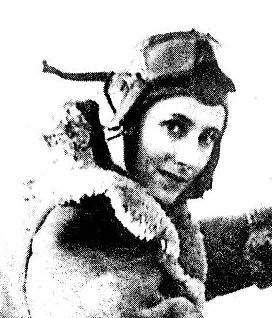 ATA
ATAFather: Capt. Joel Woolf 'Babe' Barnato (a financier, chairman of Bentley Motors and a racing driver), mother: Dorothy Maitland [Falk, divorced 1935]
Ed. Queen's College, London
prev. VAD nurse and with the Red Cross
prev. exp. 10 hrs
Address in 1941: Ridgemead, Englefield Green, Surrrey
Postings: 15FPP
Severely Reprimanded in May 1943 for "appearing at Windsor Races wearing trousers and side cap", and Reprimanded in Jun 1943, and demoted to 3rd Officer for 'divertion of operational aircraft"
m. 6 May 1944 in Englefield Green, Wing-Cmdr Derrick 'Derek' Ronald Walker DFC (d. 14 Nov 1945 in a flying accident)
Post-WWII, having gained her commercial licence she became a pilot for the Women's Junior Air Corps, giving air cadets air experience and training flights at weekends.
In 1956, Veronica Volkersz wrote that Diana was one of only 7 women flying commercially: - "Diana Barnato-Walker flies regularly for the Women's Junior Air Corps" - and concluded that "The tragedy is that for women, commercial aviation is now - except, possibly, in Russia - a closed field."
[The others were Jackie Moggridge, Monique Rendall, Jean Bird, Suzanne Ashton, Zita Irwin and Freydis Leaf]
She was awarded the Jean Lennox Bird Trophy in 1963:
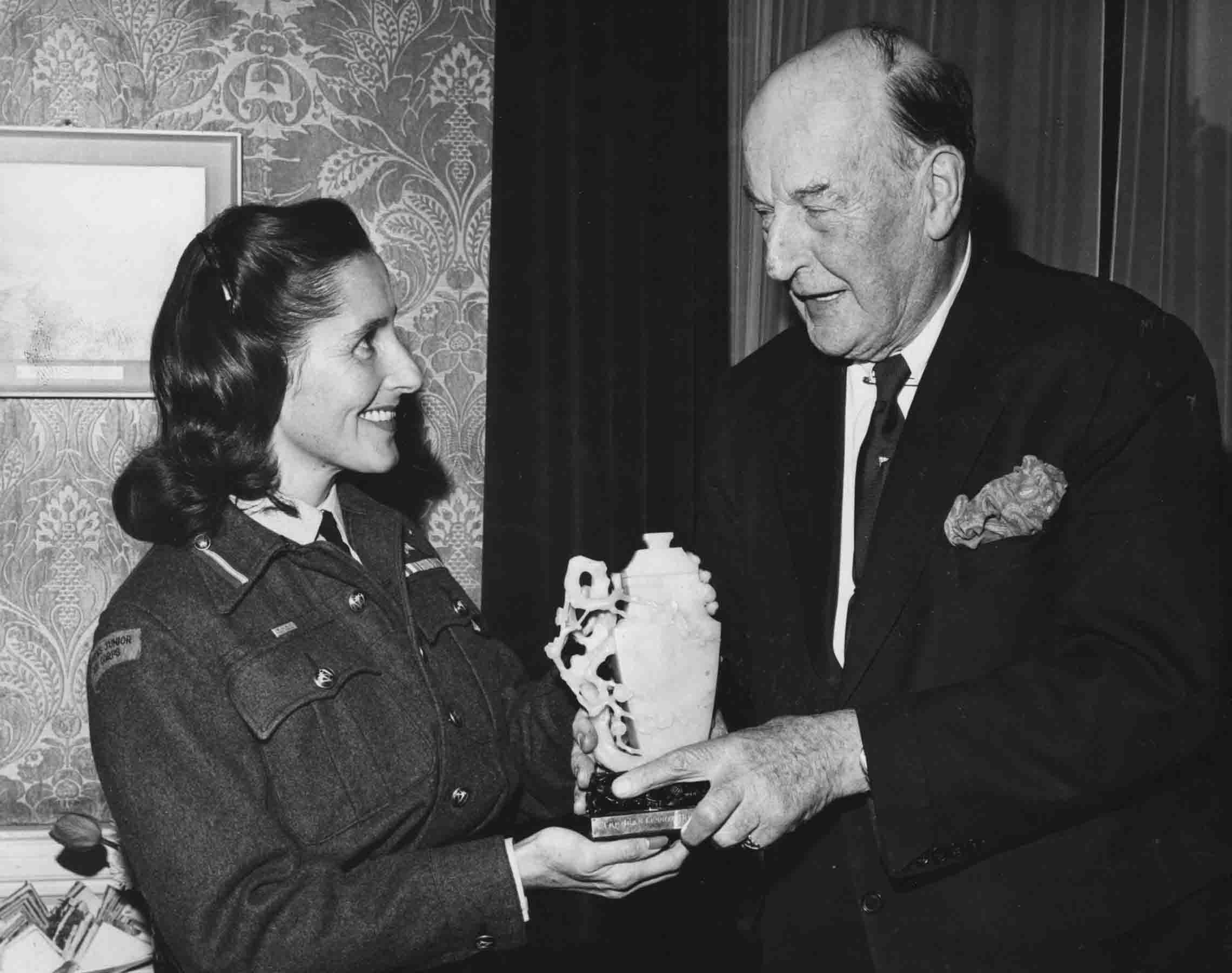
Receiving the Jean Lennox Bird Trophy from Lord Brabazon, 1963 [RAeC]
On 26 Aug 1963 she became the first British woman to exceed the speed of sound, and the fastest woman in the world when she attained Mach 1.65 (1262 mph) in an E.E. Lightning T.4.
Wrote "Spreading My Wings" (1994)
d. 28 Apr 2008
"In later years Diana Barnato Walker took up sheep farming and was master of the Old Surrey and Burstow foxhounds for thirteen seasons, while continuing to fly for the Women's Junior Air Corps (renamed in 1964 the Girls' Venture Corps). She also became commodore of the Air Transport Auxiliary Association. She died of pneumonia on 28 April 2008 in a hospital near her sheep farm in Surrey, and was survived by her son, Barney."
-
Barrington, Edward Leslie
M.699 * Edward Leslie Barrington M.C., D.F.C. 
b. 23 Jun 1895, Harborne, Stafford 4 Feb 1942 to 19 Oct 1943
Awarded the Military Cross 26 May1917 as a 2nd Lieut (temp Captain) in the Devon Regiment, "for conspicuous gallantry and devotion to duty. He succeeded in establishing telephonic communication with the front line almost immediately the objective was reached. He set a splendid example of courage and determination."
Later joined the RFC and RAF.
Flt-Lt in RAF in 1924, later Sqn-Ldr
One accident:
- 27 Jul 1943, in Hellcat FN324; "during take-off the aircraft swung to port and sruck the marking post on a cart working out of sight over the crest of the runway"
d. 1976 - Cheltenham, Glos
-
Bathurst, Benjamin Ludlow
M.689 * Senior Commander Hon. Benjamin Ludlow 'Ben' Bathurst
2nd Viscount Bledisloe

b. 2 Oct 1899, Westbury, Wilts 1 Dec 1941 to 15 Dec 1945
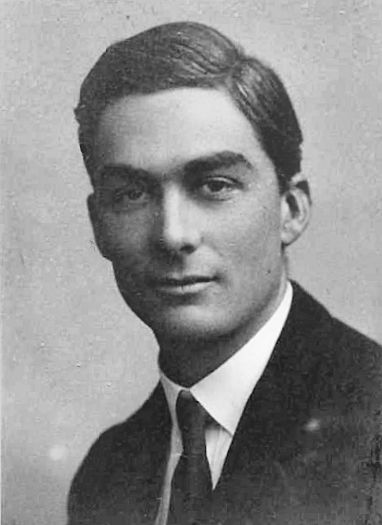 1928
1928 ATAM
ATAMEd. Eton, Magdalen College, Oxford (B.A.)
2nd Lieutenant in the Royal Artillery in WWI.
prev. a Barrister at Law; Squadron Leader in the RAF.
m 1933 Joan Isobel [Krishaber]
Postings: before Apr 43, ATA Chief Establishment Officer; from Apr 1943 Director of Services and Personnel
"In early 1944 [6 Apr] the ATA were called in to collect a Hudson from Holmsley South in the New Forest, which had been flown in from the Middle East and had been landed, one must suppose, at the first airfield in England that came into view. The task fell to Ben Bathurst, one of the senior members of the headquarters staff, who had only recently completed his Hudson conversion course. Nobody at Holmesley South had ever seen a Hudson but eventually, the crew satisfied themselves as to the serviceability of the aircraft and made their departure.
The runway at Holmesley South was a long one but even so, the Hudson even with full engine power refused to become airborne and the take-off ended in an adjacent field minus wheels and engines.Ben and his flight engineer were indeed lucky to escape."
"During the next few months three Hudsons were lost in similar circumstances, in each case the crew being killed. It was at this stage that Coastal Command put in hand an investigation which showed that all four Hudsons had recently returned from the Middle East where they had been parked out in the tropical sun. The sun and heat, it was decided, had split the rubber of the wing leading-edge de-icing boots causing a breakdown of the air over the wings. After this the rubber was replaced by metal sheeting." ELC
He also had another accident on 2 Jan 1945, when his Stinson Reliant FB669 landed at White Waltham minus an escape hatch, which must have blown off in flight, "probably due to insecure fastening."
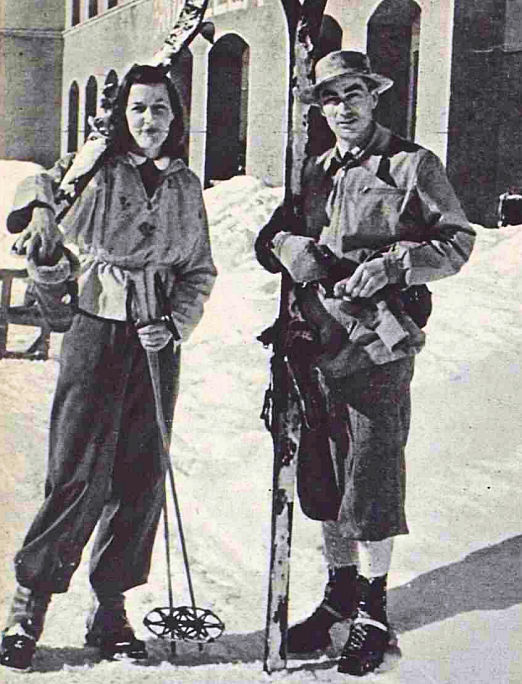
"The Hon. and Mrs Benjamin Bathurst" Tatler, 1946
d. 17 Sep 1979
see his entry in https://en.wikipedia.org
-
Baugh, Robert Edward
M.559 First Officer Robert Edward Baugh 
b. 30 Nov 1900, Birmingham 18 Jun 1941 to 15 Mar 1944
Father: Robert Baugh, [d. 1946 in Rome], Mother Fanny Dingley [ d. 1935]
Ed. Kings Norton Secondary School, Birmingham
m. 1930 Hilda [Thomas]; 2 children [Samuel b. 1934, Miranda b. 1943]
RAF 1920-24, Flying Officer
prev. a Representative for Osmond and Sons, Ltd, Grimsby (a Cattle Medicine Manufacturer)
Address in 1941: Dorrington, Shrewsbury
Postings: 12FPP, 5FPP, 7FPP
He was a passenger in the crash of Anson N4929 at Scorton airfield on 18th November 1941. "The tail wheel appears to have jammed on landing and caused a swing to develop on the ground, the swing was uncontrolled and the starboard undercarriage leg appears to have collapsed resulting in the aircraft skiding to a halt with the starboard wing and aileron being listed as damaged."
http://www.yorkshire-aircraft.co.uk/aircraft/yorkshire/york41/n4929.html
Off sick 6 Feb to 9 Mar 1942 with dental caries;
Off sick 12 Sep to 30 Nov 1942 with concussion.
"His progress through the School was very slow, due partly to a long period of sickness, and a tendency to lack confidence. He is of a somewhat nervous disposition... as a pilot, he is about average."
"He is a modest man with a likeable personailty and the makings of a good officer."
[Contract Terminated by ATA 15 Mar 1944]
Post-WWII, he worked in Kenya (see below) and travelled back to the UK from Mombasa, alone, arriving on the 28 Nov 1958.
Hilda had travelled back to the UK, alone, in Aug 1956.
On 9 Dec 1959, he wrote to Diana Barnato Walker this sad little letter:
"Dear Mrs Barnato-Walker,
You may possibly remember me in the old A.T.A. days - but it is a long time ago. I was at St Pauls on Remembrance Sunday this year and saw you there, but did not have a chance to speak to you as I had to leave directly the service was over.
The purpose of this letter is to ask you if you can help me to get a job in Africa where I believe you have large interests. I have been in Kenya for the last few years doing irrigation and development work and planting. Before the war I was cotton-growing in the Sudan and Egypt. In Kenya I was in a government department working in the Northern Frontier Province, but in 1958 the scheme I was engaged on was abandoned owing to the financial recession, and I became redundant. I stayed on in Kenya for some time with friends hoping to get another job but there was nothing doing; during this time I had the misfortune to have a riding accident in which I fractured my skull and broke my hip-bone, and as I could not afford to pay the hospital fees out there I had to return to this country for treatment.
I am quite better now but have no qualifications for a job in this country, although I have tried very hard to get work I have had no luck. My money ran out some time ago and I have been (and am) living on a very small allowance from the National Assistance Board, which just pays for my cheap lodgings. I am most desperate to get work, and if you can put me on to anything I shall be more than grateful.
Yours Sincerely, Robert E Baugh
p.s. I am perfectly willing to do anything and go anywhere."
Diana passed the letter on to Mr Moore, who was the ATA contact point, and added:
"4 Jan 1960
Dear Mr Moore,
Here is the letter that I spoke to you on the telephone about. If you can do anything right away for him perhaps you will let me know?
I have no contacts now in South Africa, but suggest that when you have contacted Baugh re his present position, that I send his letter on to Mr and Mrs Alan Butler - she was Lois Butler of the ATA - & see if they have any ideas, or offers of employment. For they have a considerable estate in Nairobi.
Unfortunately they are away until mid February."
... And that is all I know, so far... (sorry)
-
Baxter-Jones, Victor Richard
M.585 First Officer Victor Richard Baxter-Jones 
b. 7 Jun 1918, Wells, Somerset 15 Jul 1941 to 31 Dec 1945
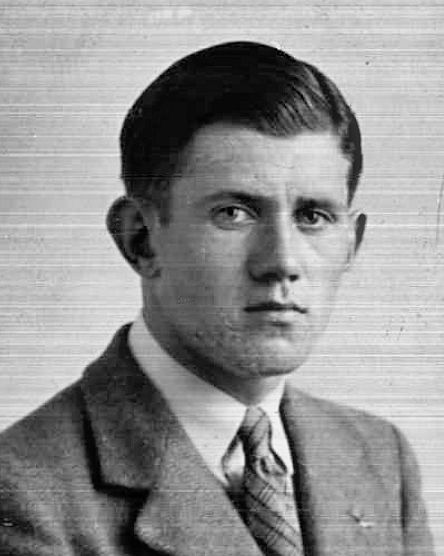 1936
1936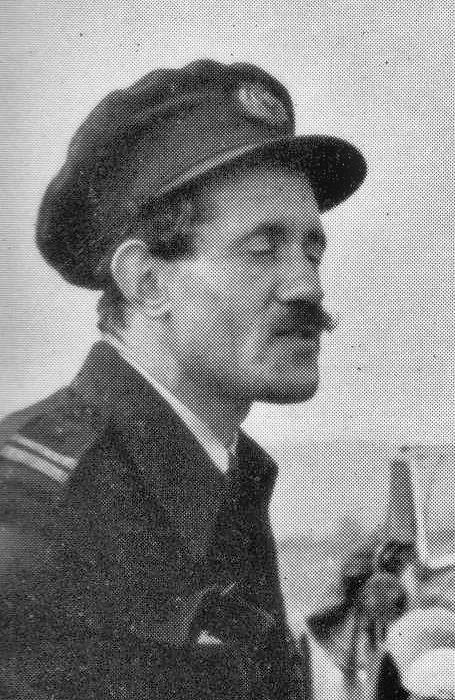 ICCL
ICCL 1947
1947Educated at Jordan Hill College School, Glasgow
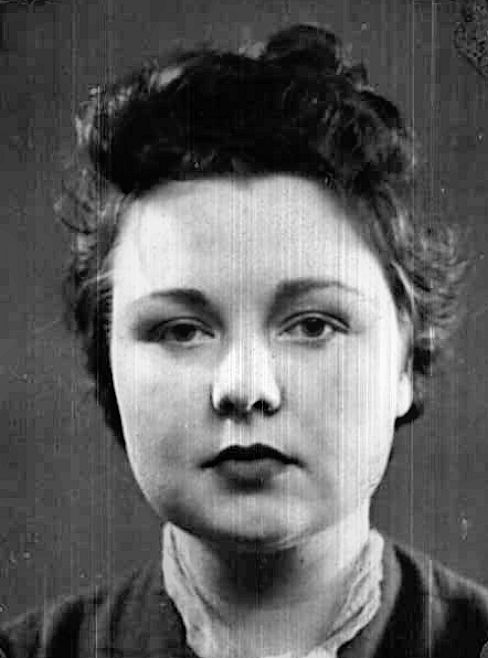 Trudy's 1939 RAeC Cert photo
Trudy's 1939 RAeC Cert photom. 1940 Gertrude 'Trudy' [Eklid], 1 daughter
RAFVR Mar-Nov 1937
prev. Ground Engineer for Bristol Aeroplane Co
Address in 1941: 7 Market Hill, Calne, Wilts
d. 31 Jan 2014, Gainesville GA
"Mr. Baxter-Jones also became the senior concierge at Maxim's de Paris in Palm Springs, Calif. He was loved by all the hotel guests for his English appearance, accent and manners.
When World War II ended Mr. Baxter-Jones worked for the De Havilland Aircraft Company. This career took him from England to the United States in 1957. He lived in Rockford, Ill., Plymouth, Mich., San Antonio, Texas, and Palm Springs, Calif., until moving to Georgia in 1992. He loved the friendly people and beauty of the state of Georgia especially the birds, the wildlife and the climate.
He met the love of his life, Trudy at a flying club in England at the beginning of World War II. She had learned to fly and had made a solo flight before they married. He felt that it was too dangerous for a woman to fly during the war so she never flew again.
Mr. Baxter-Jones wished to be cremated and his ashes returned to his birthplace, in Wells, Somerset, England. A memorial service will be performed at a later date in his beloved Wells Cathedral.
Mr. Baxter-Jones is survived by his daughter and son-in-law, Sue and Steve McMillian, Gainesville; granddaughter and husband, Shea Jaworski, North Little Rock, Ark.; great-grandson and great-granddaughter, Vincent and Anna Jaworski; and his niece, Penelope Baxter-Jones, Hampshire, England.See http://www.legacy.com/obituaries
-
Bayliss, Peter Wellburn
M.257 First Officer Peter Wellburn Bayliss 
b. 17 Jul 1915, Wolverhampton 18 Feb 1941 to Aug-45
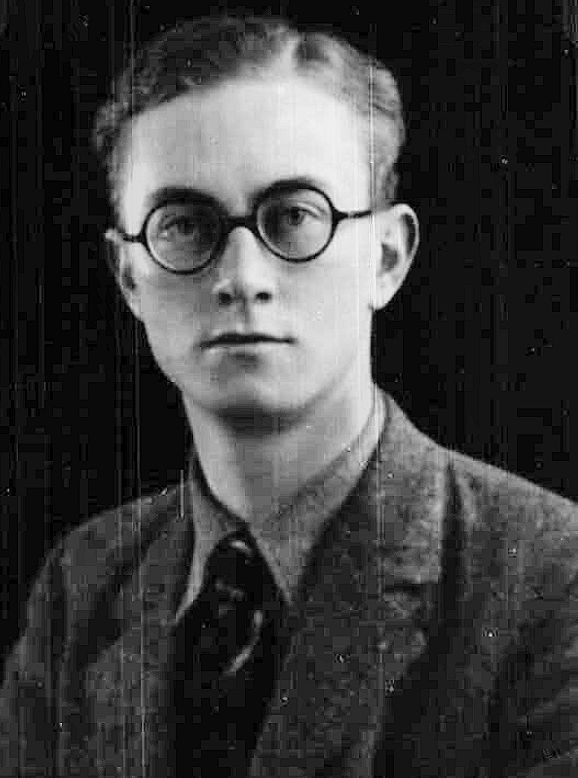 1939
1939educated at Charterhouse
an Iron Founder (Bayliss, Jones & Bayliis Ltd, Wolverhampton)
Address in 1941: 'Woodthorne', Tettenhall, Staffs
Postings: 1FPP, 6FPP, 12FPP, 14FPP
"A good pilot of sound average ability", but he was:
a) severely reprimanded and given 2 extra duties for 'Neglect of Duty' in Jun-43; "When detailed for night duty pilot and fire-watcher, he left the airfield on two occasions without permission" and
b) reprimanded in Feb-44 for taxiing a Proctor so carelesslythat the port wing hit a gate post.
He seems to have settled down later; his discipline was regarded as "satisfactory" by late 1944.
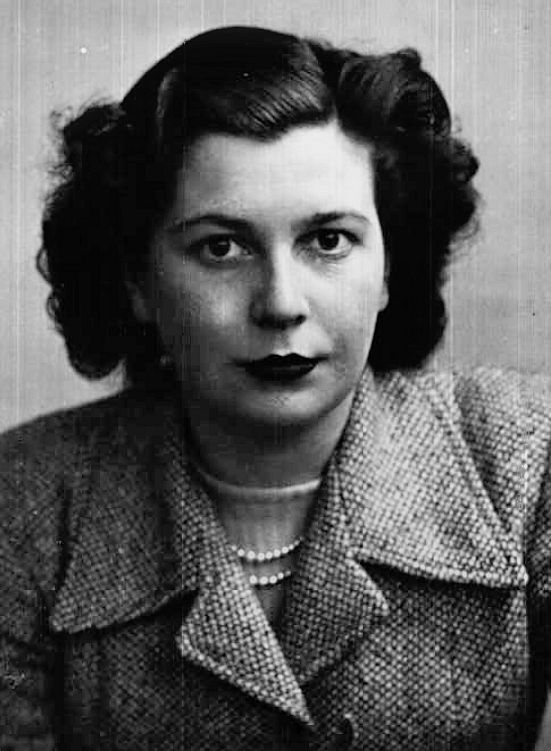
m. Aline Johncelyne Spiers (nee Pickin), also an aviator, in 1946
Flew Proctor II G-AKXZ in the 1949 Goodyear Race
He took out a patent in 1956: "Improvements in or relating to vices" (not that sort of vices, silly).
Later Director and Secretary of Brockmore-Bede Aircraft of the Brockmoor Foundry Co., Brierley Hill, W. Midlands.
d. 14 Nov 1992 - Titley Kington, Herefordshire
-
Bayly, John
M.59 Flight Captain John Bayly MBE 
b. 23 Feb 1911, Leominster 29 Apr 1940 to Aug-45
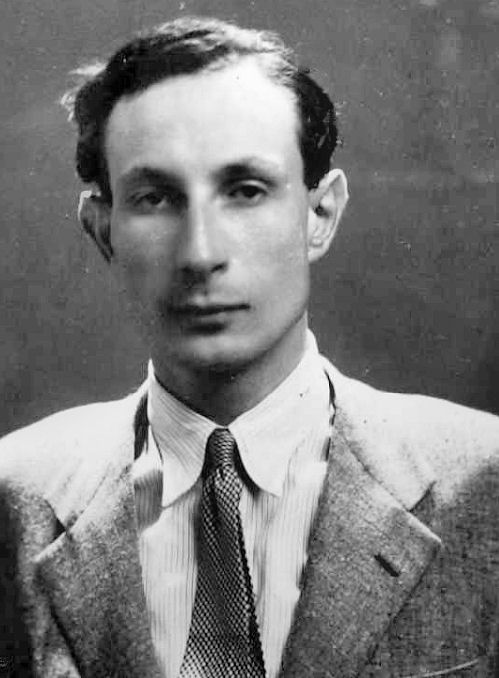 1935
1935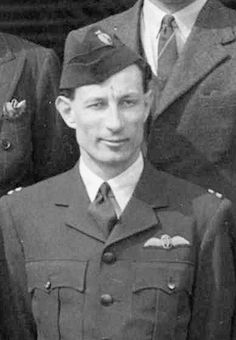 ATAM
ATAMEd. Winchester, then BA from New College Oxford
prev. Coldstream Guards 2nd Lieut. 1929-31
a Timber Merchant
Address in 1940: Amberde House, Taunton
prev. exp. 540 hrs. Owned 2 aircraft:
- G-ACRD, a 1934 BA Swallow 2, and
- G-AEUX, a 1937 Miles Whitney Straight.
Postings: 1FPP, 2FPP, 6FPP, 7FPP, 9FPP (also seconded to AFTS, Air Ministry and RAE Farnborough)
"An excellent ferry pilot, an admirable officer and a charming person. If his reactions to a situation are not always conventional, they are always sound and sensible."
Feb-45: "His qualities are such that he has been appointed acting second-in-command of No. 9 Ferry Pool".
-
Beckton, John Anthony Harkness
M.1009 3rd Officer John Anthony Harkness Beckton 
b. 16 Jul 1917, Brighton 4 Oct 1943 to 30 Jun 1945
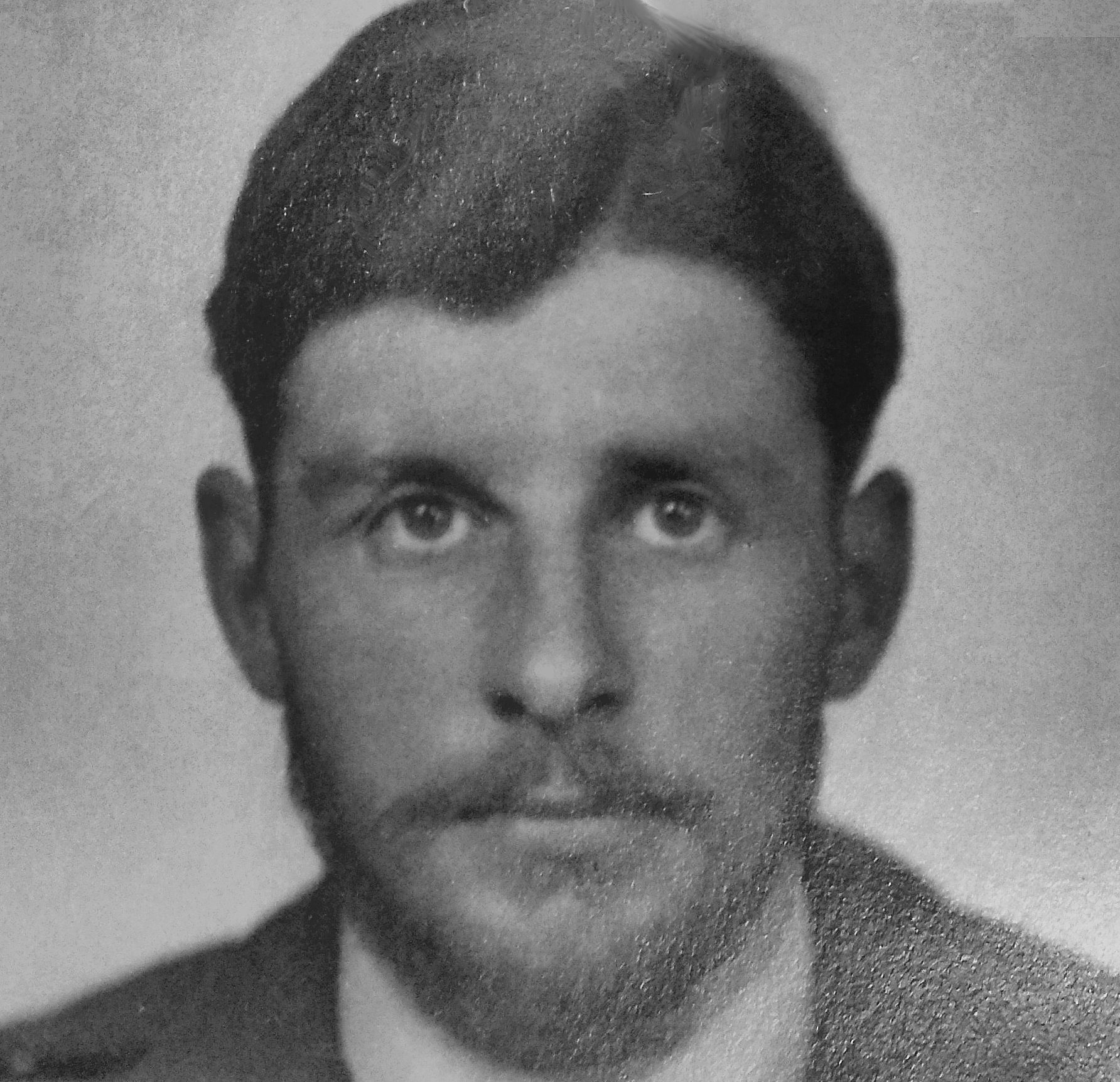 ATA
ATA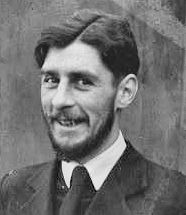 MAMM
MAMM
-
Bell, Betty (W.---)
W.--- Cadet Betty Bell 
b. 23 Sep 1919, Holborn, London 1 Apr 1942 to 2 May 1942
Father: Robert Norton Bell, 55 St Albans Park, Sidney Parade, Dublin, mother: Marie [Stemple or Stempel, d. 1939]
Ed. Westcliff High School, Essex
[Contract Terminated by ATA - "Unlikely to become an efficient ferry pilot"]
m. 1942 in Dublin, Matthew David Buchalter(?)
d. 7 Oct 1978 (?)
-
Bell, Dorothy Ritson (W.---)
W.--- Cadet Dorothy Ritson Bell 
b. 27 May 1920, Carlisle 8 May 1944 to 25 May 1944
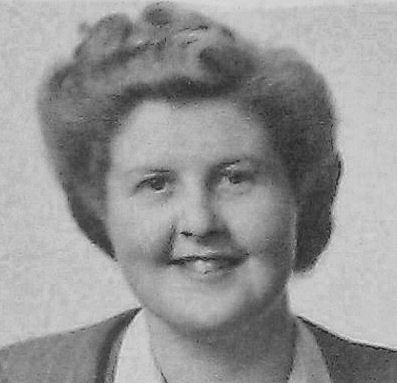
ATA
Father: Alfred Redmayne Bell (an agriculturalist, d. 1925 in Nigeria), mother: Ruth Dorothy [Ritson]
prev: Private secretary; WAAF
Next of Kin: (uncle) Alan Brewis Bell
Address in 1944: Cardrona, Wise Lane, Mill Hill London NW7
Contract Terminated by ATA - unlikely to become an efficient ferry pilot
m. 1945 in Paddington, John T Tierney (?)
-
Bell, Frank William
M.489 First Officer Frank William Bell 
b. 7 Jun 1903, Lincoln 10 Jun 1941 to 12 Jul 1945
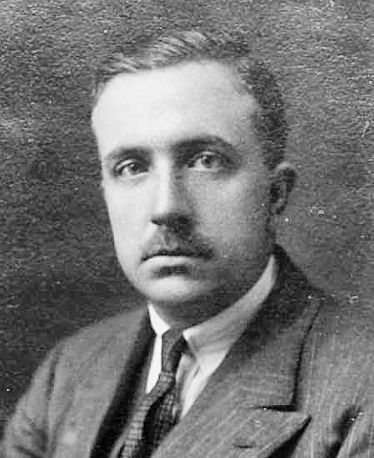 1930
1930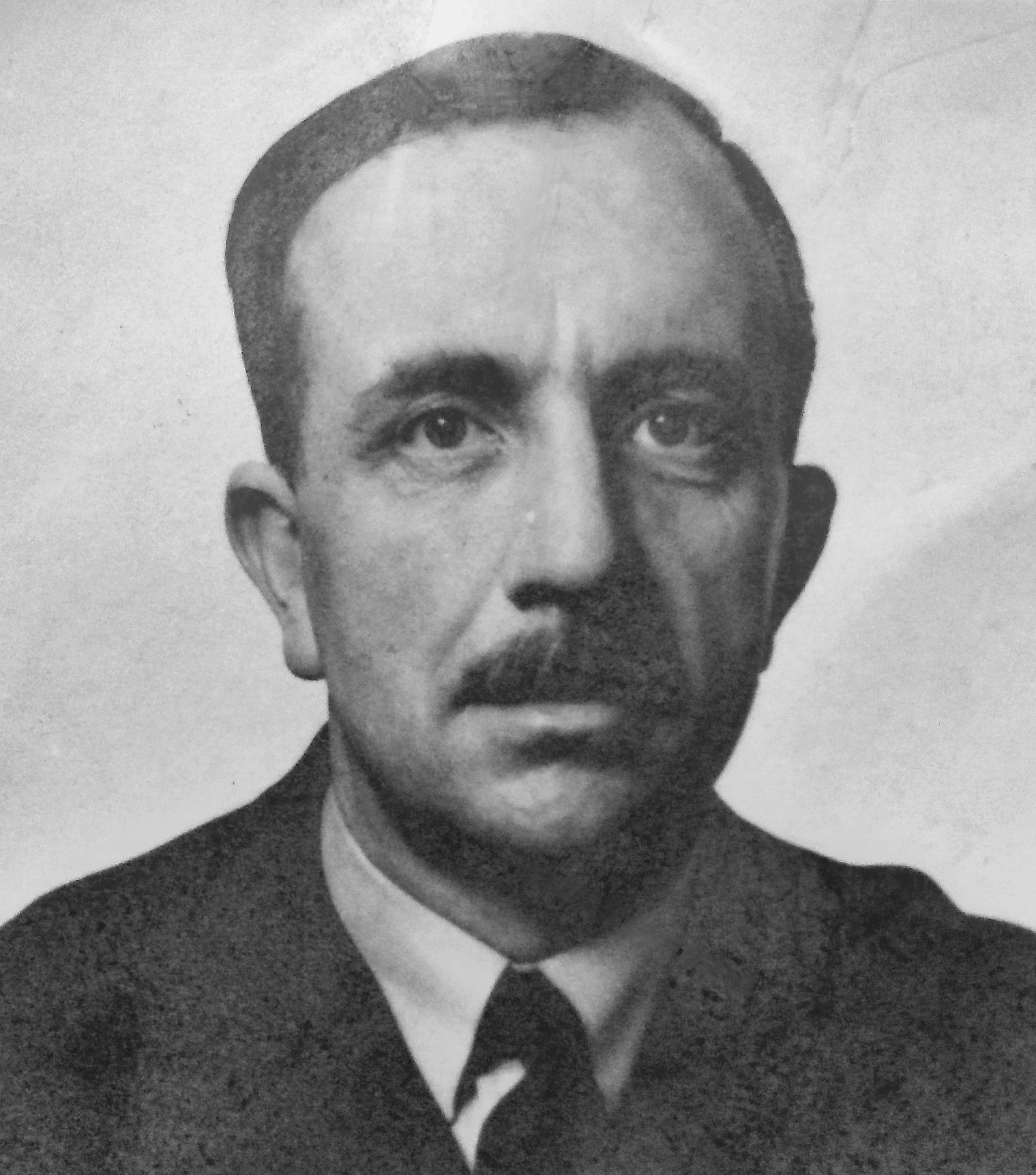 ATA
ATA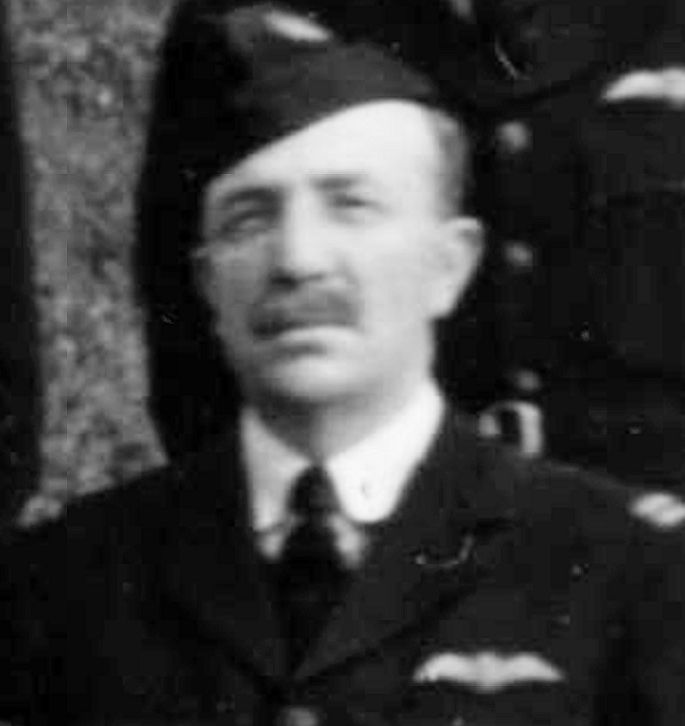 ATAM
ATAMEducated at Gresham School, Holt then New College Oxford.
Associate Member of the Institute of Mechanical Engineers, in 1929
Father: William Thomas Bell
prev. an engineer for Robey & Co., Lincoln and an Inspector in the Lincoln City Special Constabulary from Aug-39
Address in 1941: Hillside, South Park, Lincoln
Postings: 6FPP, 3FPP, 5FPP
"A capable pilot and a good officer. With the exception of the Fulmar accident [when an undercarriage leg collapsed on landing] all his Training Pool work has been satisfactory".
Lincolnshire Echo, 16 Sep 1942:
"Ferry Pilot To Pay Damages
An accident near Saxilby Bridge on June 28 was referred to at Lincoln County Court when Frank William Bell, ferry pilot, South Park, Lincoln, defended an action for damages for negligence brought by Charles Freeetone Cansdale, fitter and erector, and his wife, Olive May, Bell St, Lincoln, who were given judgment for £98 3s 10d, and costs.
It was stated that a collision occurred just after Cansdale, who was riding a motor-cycle with his wife on the pillion, emerged from Mill Lane on to Saxilby Rd. Cansdale said that when he reached the junction of the lane and the road he stopped, looked both ways, and not seeing any traffic, went on the main road intending to turn right and go over the bridge.
He was almost on the crown of the road when he saw Bell's car come over the peak of the bridge. He (Cansdale) drove to his correct side of the road, and was straightening up when he saw Bell's car coming over the white line to his side of the road. In an effort to avoid the car he drove so that half the cycle was on the pavement. The car hit the rear of it. His wife was injured, and he was was off work two weeks.
Denial
Bell said he was travelling at about 30mph. After crossing the bridge he could see the motor cycle in Mill Lane. He expected it to stop when it reached the main road, but it did not. He braked hard, and went over to his offside to give the motor cycle a much space as possible. He did not agree that part of the motor cycle was on the pavement when the impact occurred.
P.C. Gough said there was a brake mark 69ft long caused by the car, commencing 8ft 9ins from the offside and ending close to the curb on its offside.
Judge Lanaman said that in swerving to the offside Bell made an error of judgement, but the degree of negligence was small."
d. Sep 1963 - Lincoln
Download ATA Pilot Personal Record (.zip file):
-
Belville, Rupert
M.2* First Officer Rupert Bellville 
b. 28 Dec 1904, Lubenham, Market Harborough, Leics. 1 Feb 1940 to Nov-40
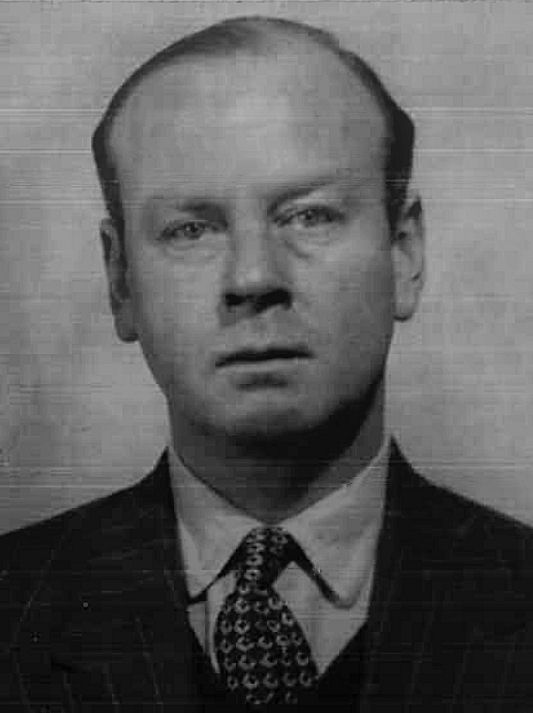
1946
His family had made their fortune in the mustard trade.
Ed. Eton (left in 1921)
Height: 6ft 4½ in. Fair hair, blue eyes.
In 1931, he was Venetia Montagu's personal pilot when they decided to tour Persia and Russia in her DH.60G Gipsy Moth G-ABFW. They left Heston on March 27th, reached Budapest on April 1, made a forced landing at Nisch, Jugoslavia, but were able to fly to Constantinople on the 13th April. 20 days later on May 2nd, "when flying from Teheran to Moscow, their machine crashed near Sabzawar, Persia, and, although the machine was burnt, they were both unhurt.”
It only took her a couple of weeks to find another aeroplane, however; she purchased a ‘Moth‘ in Iraq, and left for Astrabad, on the Russian frontier, on May 16. They arrived in Moscow from Tashkent on June 1st, and left for Berlin on June 3rd.
In 1934, he was described as "a very well-known air pilot, of Papillon Hall, Market Harborough, Leicestershire".
He was fined £10, plus 3 guineas costs, in 1936 for persistently smoking on board the Imperial Airways airliner 'Heracles'. He said at the time "I shall smoke if I like, I have always done so". The Times reported that Mr Bellville had joined the Auxiliary Air Force in 1926 and had flown "all over the Continent and all over Syria, Iraq, Palestine, Persia, India, Siam and China". The court was thinking about letting him off with a warning, but were put off by what they described as his "defiant attitude".
In late August 1937, he got himself into the Spanish Civil War (on General Franco's side) and was briefly taken prisoner by the republicans. Apparently, he had (wrongly) heard that Santander had fallen to the nationalists, so he flew himself and the head of the Gonzales Byass sherry firm there, with "a few cases of sherry for the officers of the victorious troops". When they landed at the airport, he discovered his mistake and was taken prisoner and forced to fly to Gijon, while his passenger was held as a hostage. I don't know what happened to the aeroplane... or the sherry!
Rupert was released 10 Sep, 1937, prompting a question in the House of Commons as to "in what circumstances, on whose authority, and at what cost a British destroyer was dispatched" to rescue him.
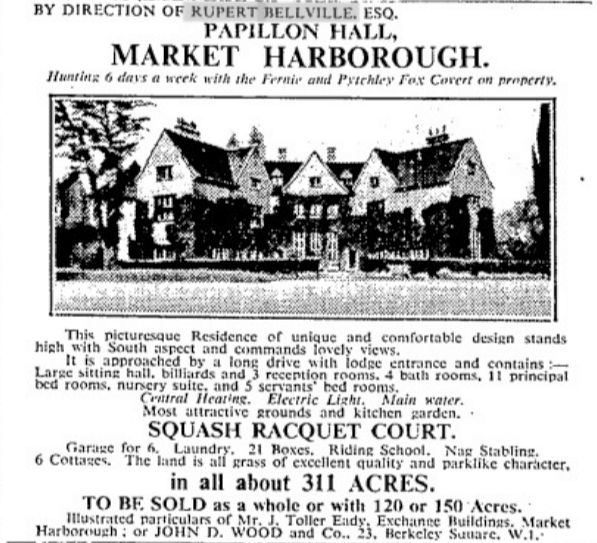
He sold Papillon Court the following year and thereafter gave his address as "White's Club, London."
His son Hercules ** was born in San Diego in 1939 (Rupert's then-wife was American).
He resigned from the ATA on 19 Nov 1940.
He gave his profession in 1946 as (trust me) "a bullfighter".
He was declared bankrupt in 1955.
d. 23 Jul 1962, London
His obituary said "Rupert's death will leave a gap in many places. He had a host of friends in London, Paris, New York, Spain, and wherever else his wanderings took him and these friends were of all sections of the community.
Rupert's tragedy was that he was born in the wrong age. He would have been an ideal companion for d'Artagnan or would have been in his element helping Francis Drake to singe the King of Spain's beard. These things being denied to him in this material age, he nevertheless contrived to find adventure in every walk of life. He fought bulls in Spain and became a brilliant air pilot in the years before the war. He also took part in the Spanish Civil War. He loved to gamble and some of his happiest hours must have been spent at backgammon tables all over the world and at the bridge table.
There were times, perhaps, when the world became too much for him but his many friends will remember him for his cavalier qualities and his companionship. To paraphrase the words from which his great friend Ernest Hemingway took the title of a book, "... never send to know for whom the bell tolls. It tolls for thee".
** His son Hercules, who became a famous film director and producer, died of lung cancer on 12 Feb 2009.
-
Bennett, John Leslie
M.1049 3rd Officer John Leslie Bennett 
b. 17 Oct 1914, Manchester 29 Jan 1944 to Sep-45
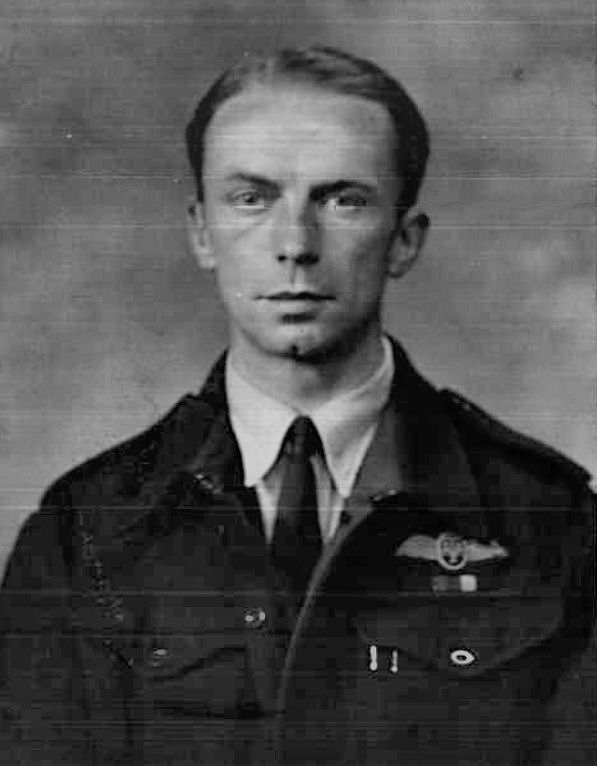 1945
1945prev. Sales Mgr for BO Morris, Birmingham, then a Sergeant in the RAFVR Oct-39 to Apr-41
His grandson kindly tells me that "Your website has prompted a conversation with my Mum (his daughter) regarding my Grandfather's life in the war - She informs me that that she thinks he had wanted to be a pilot in the RAF but had not passed the necessary exams, so instead became a rear gunner/bomber in Lancasters.
He spoke very little of his time in the RAF, but did regale a story of almost falling out of the gunning position in the Lancaster (through the floor), and of dropping bales of propaganda leaflets over Germany - they were supposed to cut the strings to let them flutter down, but instead just through them out in hope they would land on a German's head!
There is then a period of time that is unaccounted for, but my mum wonders if he had had some sort of breakdown from some comments he made very late in his life about spending some time in hospital. Then he spent 18 months in the ATA - my Mum remembers him talking about flying with the instruction manual on his knees as he flew all sorts of different planes!"
...and here are some of the photographs his grandson sent me:
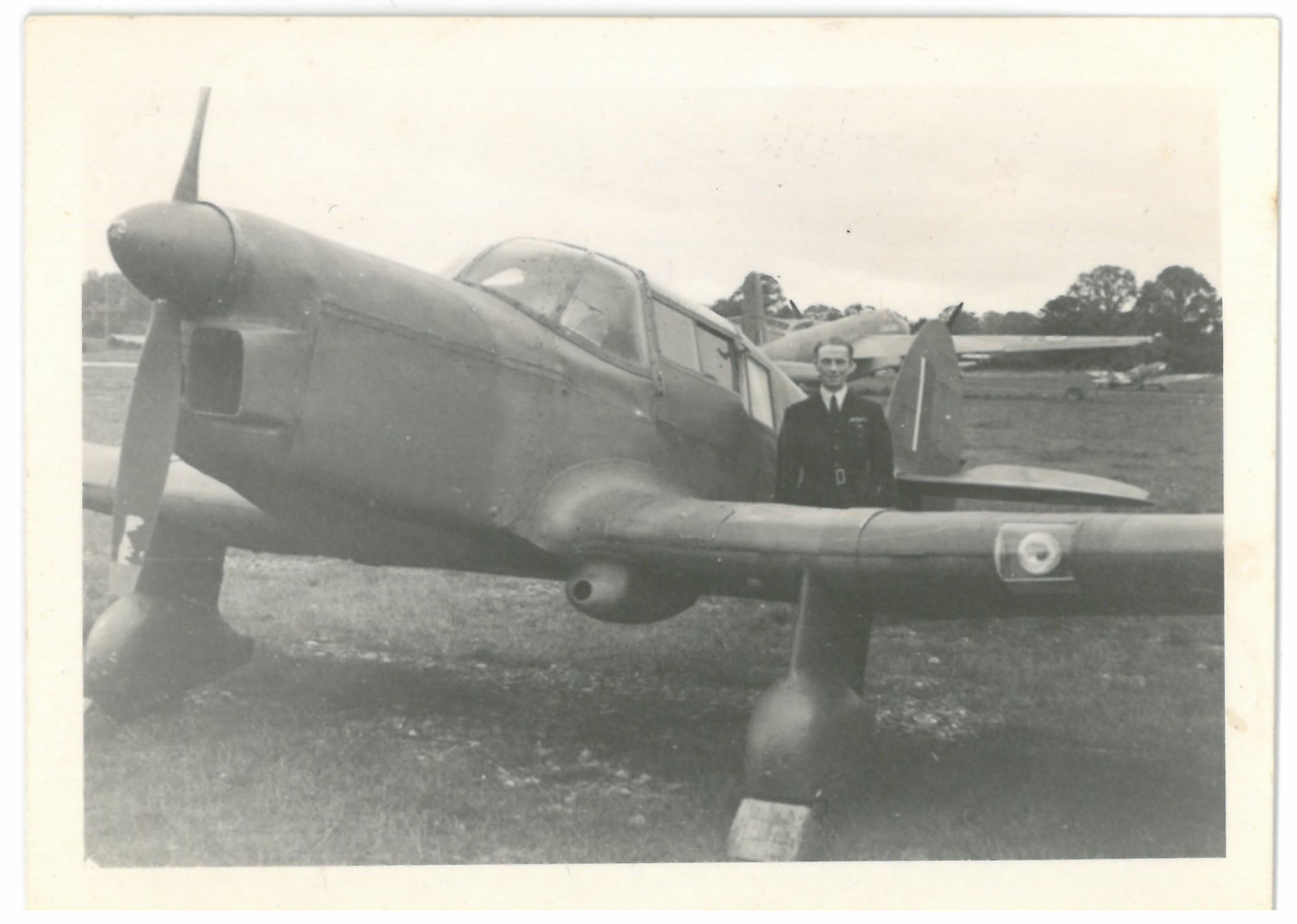
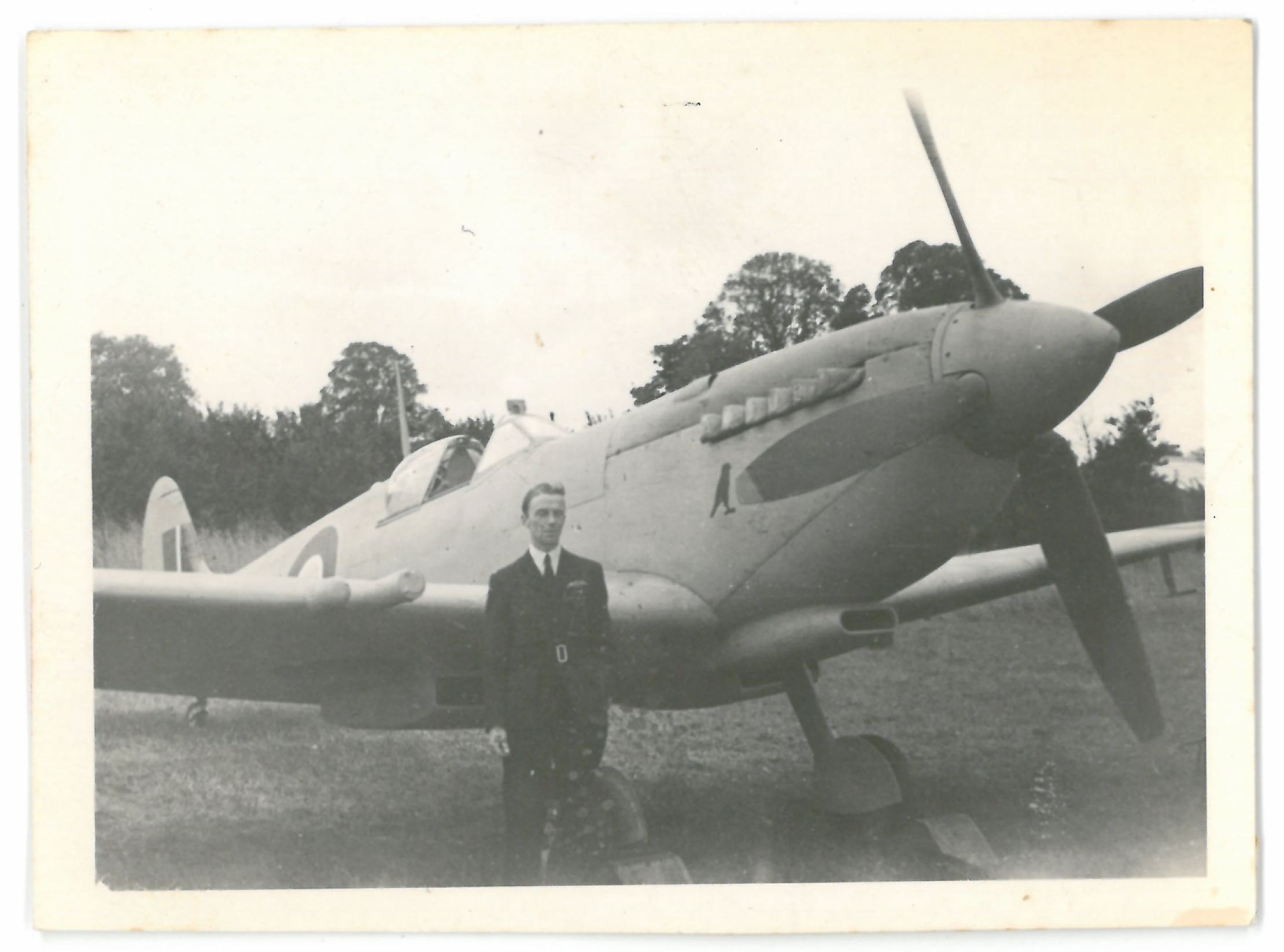
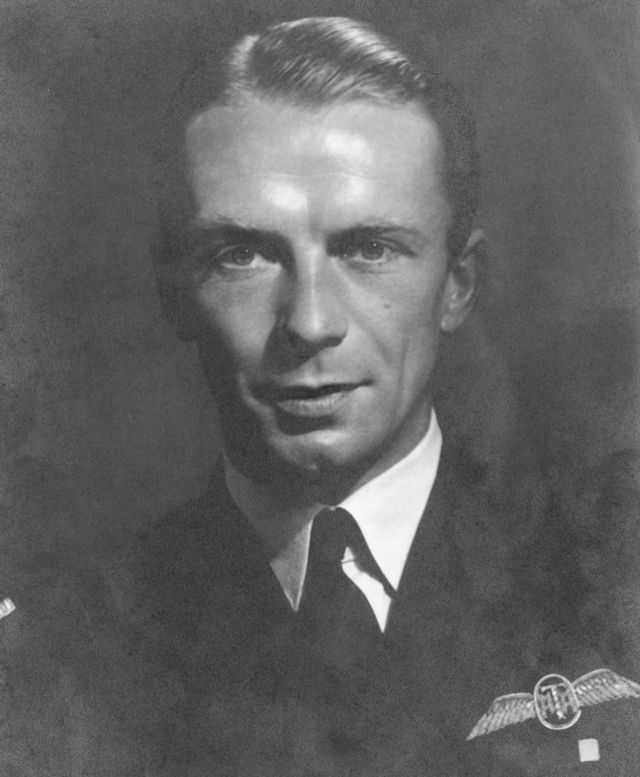
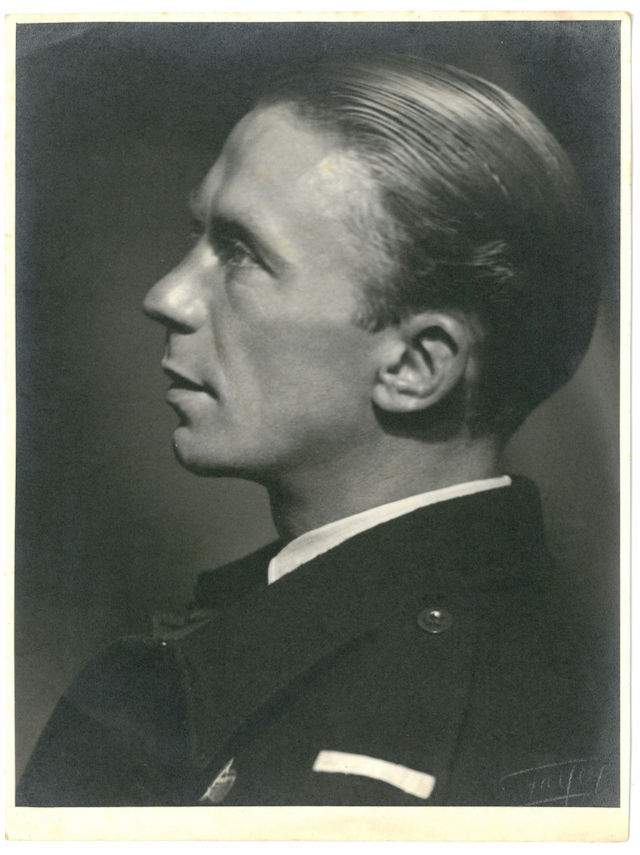
-
Bennett, Margaret Ellen (W.45)
W.45 First Officer Margaret Ellen 'Faith' Bennett 
b. 12 May 1903, London
8 Jul 1941 to 31 Jul 1945
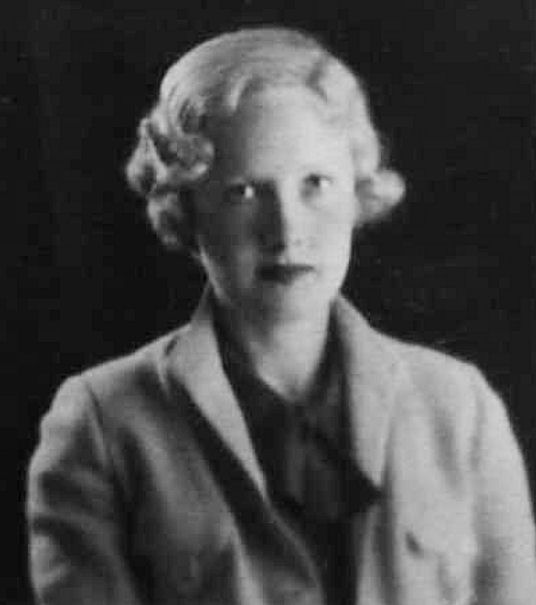 RAeC 1934
RAeC 1934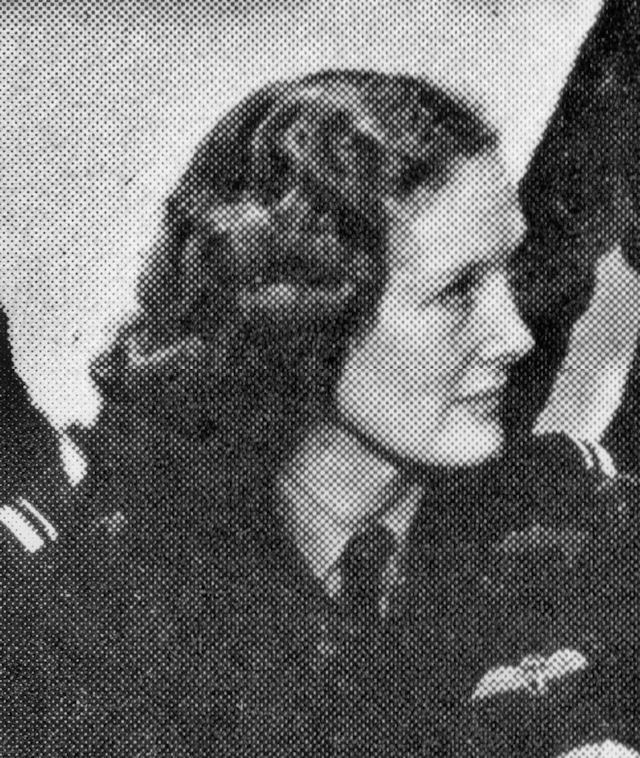 MUWW
MUWW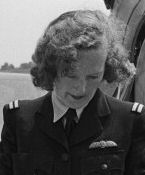 1944
1944née Margaret Ellen Riddick
Father: Harry Riddick, mother Mabel
Ed. Selhurst High School, Croydon, Surrey
Her elder brother, Private Stanley Charles Riddick, d. 15 Nov 1916, aged 19, in France during WWI.
She married Hollywood film writer Charles Alfred Selwyn Bennett in 1930, and calling herself 'Faith Bennett', was an actress pre-WWII - firstly on the London stage:
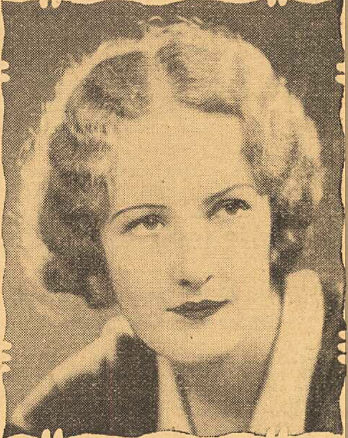
"Faith Bennett, who will play lead in 'Recipe for Murder', a new play by Arnold Ridley, which opens at the Duke of York's Theatre on December 21" (1932)
... and then in many films, including 'Eyes of Fate', 'Hawleys of High Street' and 'The Pride of the Force' (1933), and 'Seeing Is Believing', and 'Master and Man' (both 1934)), although I've seen references to other films e.g. 'Love In The Air' and 'Atlantic Crossing'...
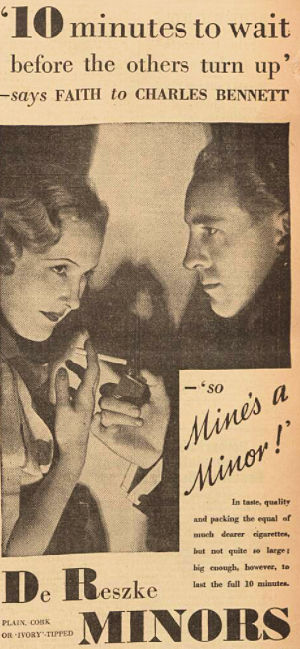
"In taste, quality and packing the equal of much dearer cigarettes but not quite so large; big enough, however, to last the full 10 minutes" (1937)
... and also played the Fairy Godmother in 'Cinderella', the Drury Lane pantomime, in !934
At the same time, she took up flying and passed for her 'A' Licence at Sywell Aerodrome in 1934 (which apparently included wearing 'weird and wonderful costumes' at the Novelty Dance held there in February:
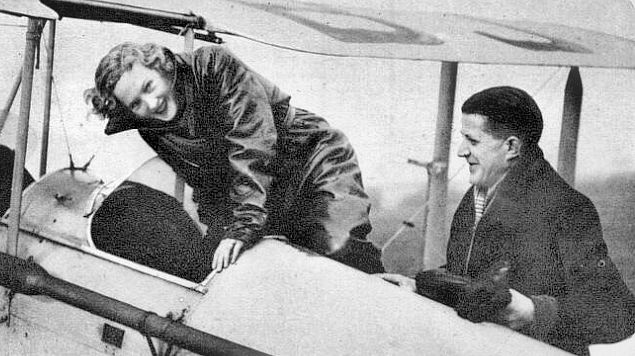
With her instructor, Tommy Rose - see
http://www.afleetingpeace.org/index.php/pioneering-women/rose-thomas
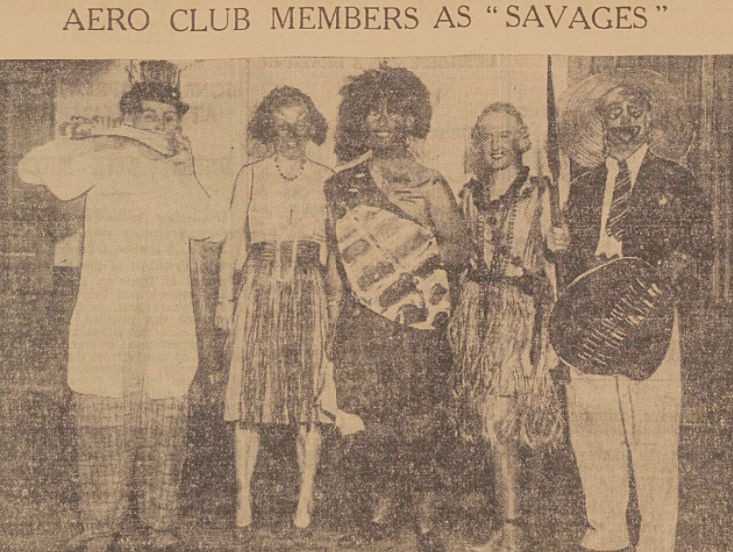
(Faith and Charles, far right)
[Charles also took lessons, but doesn't seem to have gained his certificate]
In May 1941 she decided to 'do her bit': "Faith Bennett, actress and writer, is flying to England to ferry 'planes for the Royal Air Force [sic]. Mrs Bennett was born in London 30 years ago [sic]. Flying is her hobby. She holds both American and British licenses. ''One of my brothers died in the last war, another is in the Royal Navy, my sister is a censor at Bermuda - they are all doing their bit, and I want to do mine,' she said."
prev. exp. 296 hrs
Address in 1941: Falcon House, Sonning, Berks
Postings: 1FPP, 5TFPP, 15FPP
Off sick from 9 Dec 1941 to 6 Jan 1942 after her Hurricane crash, and 27 Oct 1943 to 13 Jan 1944 with 'concussion'
Rather unfortunate: 11 accidents, 3 her fault:
- 8 Dec 1941, she persisted too far in bad weather, stalled her Hurricane BD859 near the ground and broke the undercarriage
[see https://www.yorkshire-aircraft.co.uk/aircraft/yorkshire/york41/bd859.html]
- 16 Feb 1943, the port leg of her Tomahawk AH802 broke off during landing
- 24 Feb 1943, in another Tomahawk AH845, the port undercarriage leg collapsed
- 16 Sep 1943, forced landing in a Hurricane after the landing gear locked up
- 10 Aug 1943, in Master I T8366, which veered off the runway and collided with a car, due to ineffective brakes
- 1 Oct 1943, her Hudson swung off the runway on landing, because the tail wheel lock had disengaged
- 20 Oct 1943, a taxying accident in an Anson, due to an error of judgement on her part
- 23 Jan 1944, her Mosquito suffered a 'strained' port undercarriage leg on landing - faulty indicator light
- 25 Apr 1944, forced landing in Seafire MB356, after the landing gear locked up
- 30 May 1944, the port undercarriage leg of her Barracuda II BV921 collapsed on landing
- 29 Jun 1945, she failed to control the swing when landing Mosquito XXV KB617
"Extremely keen and hardworking. Seems to have regained confidence" "Her navigation is somewhat unorthodox. Technical knowlege poor"
Class IV pilot
m. 1946 Herbert Henry Newmark, also an ex-ATA pilot:
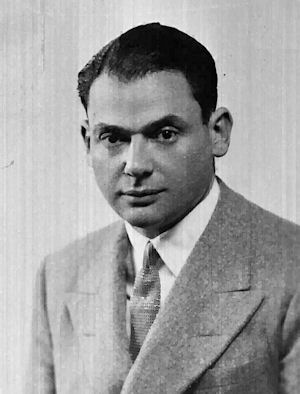
d. 14 Mar 1969 - London.
Wikipedia: https://en.wikipedia.org/wiki/Faith_Bennett
-
Bennett, Philippa Mary (W.1)
W.1 Flight Captain
Philippa Mary Bennett 
b. 22 Nov 1919, Birmingham 26 Jun-40 to Nov-45
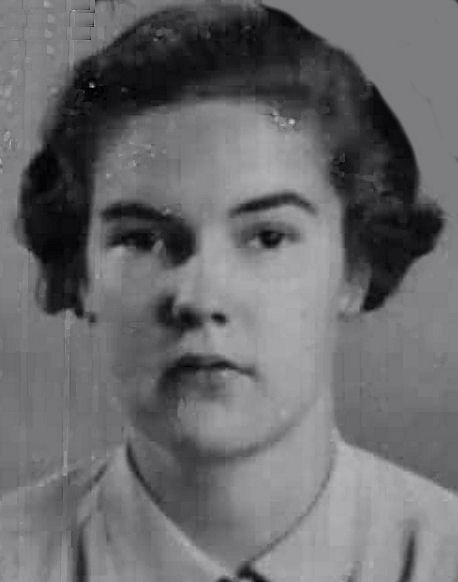 RAeC 1 Jun 1937 (age 17)
RAeC 1 Jun 1937 (age 17)Father: Capt. Philip Dennis Bennett (5th Bn, Royal Warwickshire Regiment, an architect, m. 17 Aug 1915, d. 24 Feb 1919 from influenza)
Philippa was born 9 months after her father died.
Mother: Doris Mary [Lowe, m. 1922 Ian Forbes Panton, he d. 1935]
Philippa's elder brother Dennis Labron Bennett was b. 20 Nov 1917, BA (Cantab), d. 25 Oct 1942 at El Alamein
Ed. Westonbirt School, Glos
Address in 1937: Ash Cottage, Harlington, Hayes, Middx
She was engaged to Francis Richard Bevan, RASC (previously a 'Mountie' with the RCMP) in May 1940.
Postings: 5FPP, 15FPP
Class 5 (4-engine) pilot
7 accidents, 3 her fault:
- 7 Sep 1941, in Hurricane W9124 at Hatfield, she collided with a Tiger Moth due to 'gross carelessness'
- 20 Oct 1941, she failed to control the landing swing of Tomahawk AH808, and ground-looped (at Colerne)
- 18 Nov 1941, a forced landing in Anson R3340 after port engine failure
- 20 May 1942, she taxied Anson AX537 into a narrow parking space, ignoring the signal made by a member of the ground crew, and the tail hit a starter trolley
- 9 Sep 1943, a forced landing in Halifax II BB135, after a battery exploded
- 28 Oct 1944, another forced landing, this time in Walrus I W3008 after she lost all brake pressure
- 8 Jun 1945, a fourth forced landing, in Barracuda II DR202 when she noticed the batteries were overheating (due to incorrect voltage adjustment).
Commended for "valuable service in the air", 14 Jun 1945
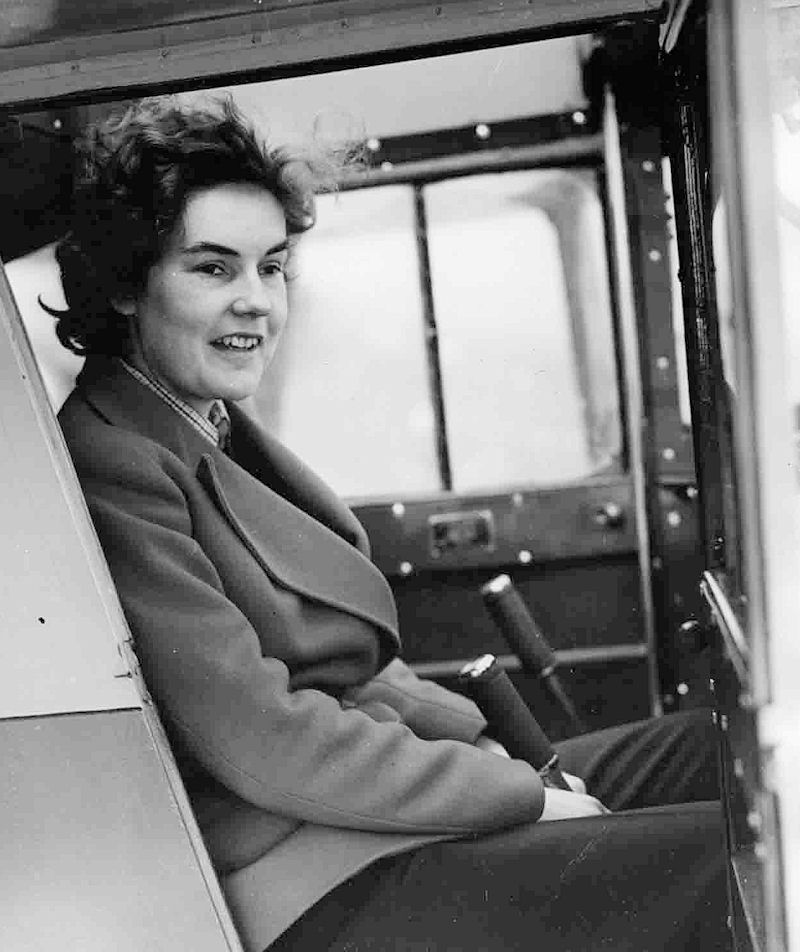 RAeC
RAeC26 March 1946: "26-year-old Miss Philippa Bennett has been flying planes ever since she was 17. For 5 and a half years she flew with the Air Transport Auxiliary service, when she piloted all types of planes from 4-engined bombers to Spitfires. She got her B Licence in 1938. Now she is proposing to make a business out of what was her hobby and her war work; she has bought two high wing monoplanes with which she is starting her own air taxi service at Southampton Airport. She hopes to specialise in aerial photographic work.
Photo Shows: Miss Phillippa Bennett in her taxi monoplane at Southampton Airport"
The three aircraft Philippa eventually owned included the Foster Wikner Wicko GM1s G-AFJB and G-AGPE (the latter used for spares)
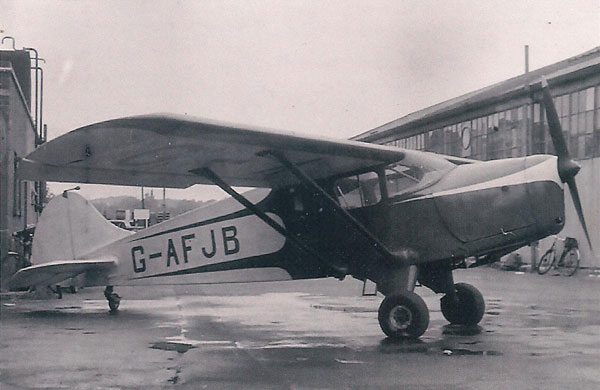 http://www.wicko.com/wickohistory.htm
http://www.wicko.com/wickohistory.htm"When Geoffrey Wickner purchased a surplus Halifax bomber with the intention of returning to Australia he sold the Wicko to Philippa Bennett who used the aircraft in her air taxi service again out of Eastleigh. During that time the machine was extensively damaged in a forced landing, caused by bad weather when it ran over the edge of a cliff, fortunately without injury to the occupants. After repair the aircraft was sold but again was registered to Philippa and Lettice Curtis who raced the aircraft at a number of events under the race number 39. The handicappers were unkind to the Wicko and her pilot and the aircraft was not too well placed at any event. "
"Although exciting and fulfilling, it was not a financially viable enterprise"
m. Jul 1947 in Winchester, Wing Commander Maurice Booth DFC (3 sons)
"She later settled in the village of Durrington in Wiltshire where she owned and ran the village shop" - The Telegraph
d. 24 May 2007 - Salisbury
-
Bergel, Hugh Charles
M.307 Commander Hugh Charles Bergel OBE 
b. 19 Nov 1905, London 7 Oct 1940 to 30 Apr 1945
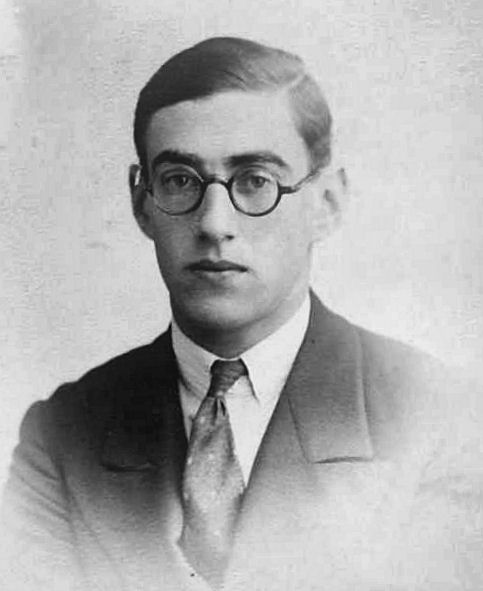 1928
1928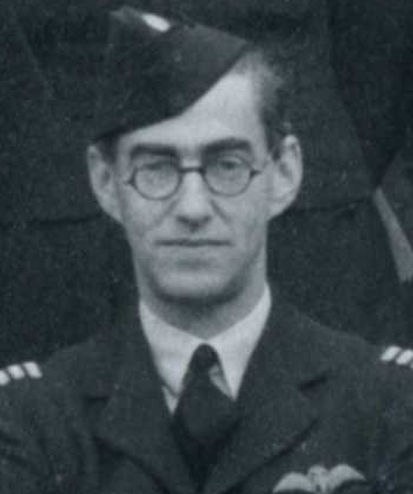 ATAM
ATAMEducated at Rugby School
m. Priscilla M Baumer, in 1930; 2 children before joining ATA
A "well known member of the gliding community" with his great friend Philip Wills (q.v.); in 1930 he received the Dent Cup ("in memory of Mr. David Dent, who did such good work for gliding in general"), for the year's outstanding performance, for his cross-country flight to Hornchurch, Essex, made with very little previous soaring experience.
Here he is in 1938 with Capt. Harold Balfour, the Under-Secretary of State for Air, in a Falcon III glider:
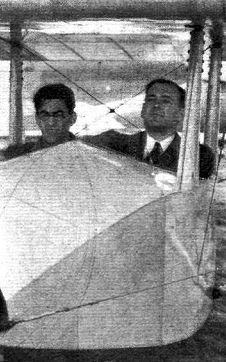 Flight
Flightprev. an advertising copywriter with WS Crauford Ltd. From 1938, Sales and Advertising Manager for Desoutter.
Address in 1940: Stamford Brook House, London W.6
Postings: 1FPP, 16FPP, 6FPP, 4FPP, 4aFPP, 2FPP, 9FPP
'A keen and competent pilot, and an able and hardworking administrator.'
From 16 Jul 1942, ran No 9 FPP Aston Down 'in an eminently satisfactory manner'.
"He leaves ATA with an excellent record behind him." (Gerard d'Erlanger, O.C. ATA)
Wrote "Fly and Deliver - A Ferry Pilot's Log Book" (AirLife, 1982)
d. Jan 1986, London
[His elder brother Jack also joined the ATA in 1941, but died the same year in a flying accident]
-
Bergel, John Graham
M.264 First Officer John Graham 'Jack' Bergel 
b. 1 Mar 1902, London 2 Mar 1941 to Nov-41
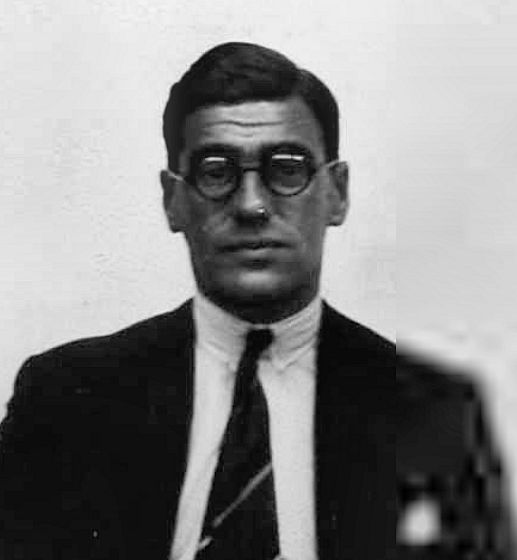
1934
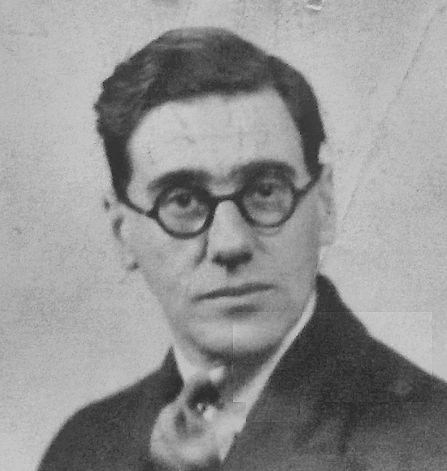
ATA
prev. a journalist for the 'London Evening News' from 1925; "no previous employment"
His brother Hugh said: "Jack was nearly four years older than I was, so that we never overlapped at school, and were never quite as close to each other as I would have liked. All his working life had been spent on the London Evening News, which he joined as a cub reporter. By the time he left to join ATA he was, or had been, wireless correspondent, motor-racing correspondent, music critic, Rugby football correspondent, aviation correspondent and writer of the Diary. But for years his main job had been that of Dramatic Critic, and there must be some who can still recall the reviews he wrote over the initials J.G.B."
prev exp. 160 hrs
He originally applied in July 1940: "My brother Hugh tells me that the A.T.A. is still anxious to recruit ferry pilots. As I am despairing, after ten months, of getting into the RAF in any capacity - I've seen three [selection] boards who all lose interest when they find I'm over 30 and wear glasses - I would like to know if I am any good for your service - which sounds disrespectful, I'm afraid, but isn't meant to be."
He added: "I'm nothing like as good a pilot, naturally, as Hugh, but I can find my way; it always was my one aeronautical talent."
[
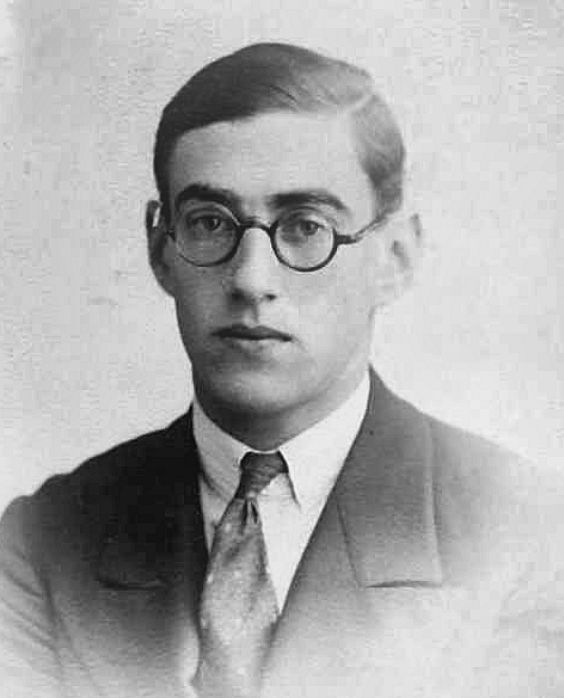
His brother Hugh had learnt to fly in 1928, and had already joined the ATA]
However, when he turned up for a flight test in September 1940, the report was that "this applicant's standard of flying is so low that he cannot be accepted for ATA duties even on light types".
By January 1941 the ATA had realised that it needed more pilots, even if they had to train them themselves. Accordingly, a second test was arranged for the 19th January; this time he was accepted, and duly started on the 3rd March.
By the 7th November, when he was posted to No 6 FPP, he had satisfactorily passed training courses on Classes 1, 2, 3 and 4 aircraft. Sadly, he was killed a week later.
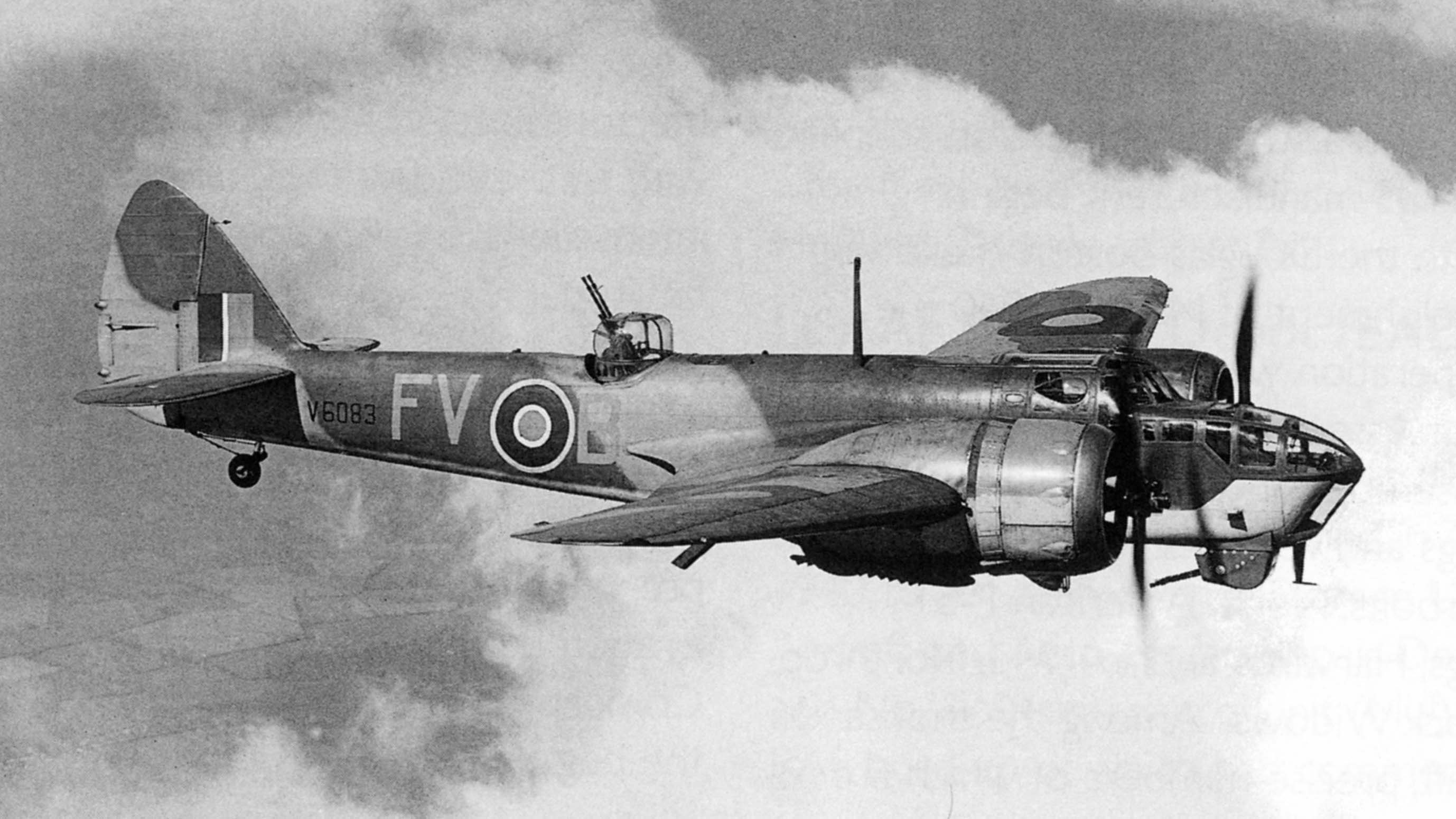
d. 15 Nov 1941 (Died in ATA Service) - Blenheim Z6080 stalled on landing approach to Oulton. He "made his final approach too slowly, particularly having regard to the fact that it was a fully equipped Blenheim IV, with inner and outer tanks full."
[Hugh attributed the accident to a faulty air-speed indicator reading, "caused by water in the system, which in turn was caused by aircraft having to live their lives out in the open through all weathers."]
His mother said of him "Jack's happiest months were spent in the ATA".
-
Berry, Nathaniel Addison
M.499 2nd Officer Nathaniel Addison Berry 
b. 31 Aug 1905, London 10 Jun 1941 to Mar-42
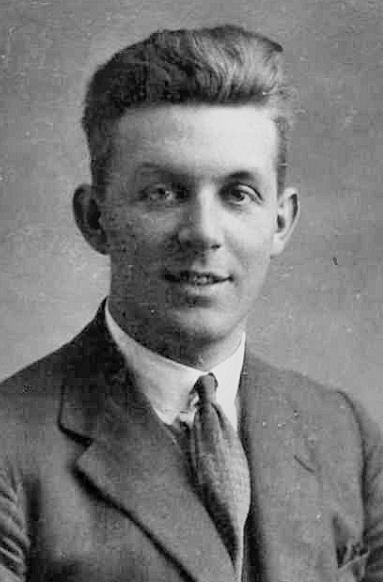
1930
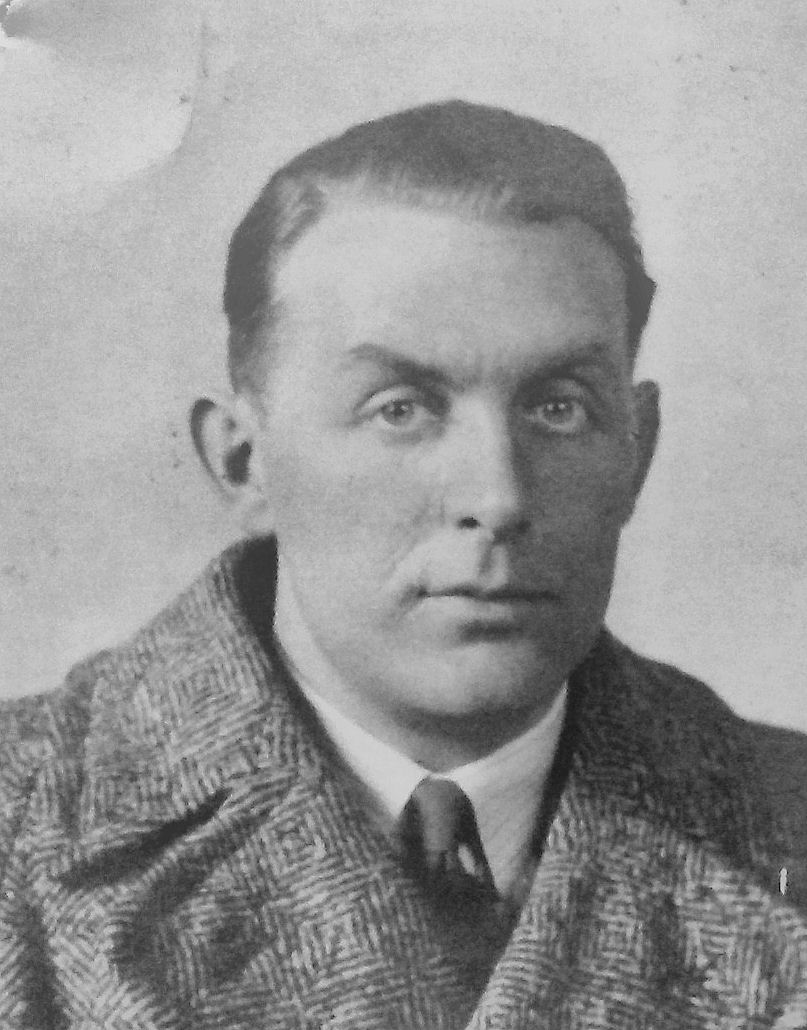 ATA
ATAprev. director and factory manager, Nathaniel Berry & Sons Ltd, piano manufacturers
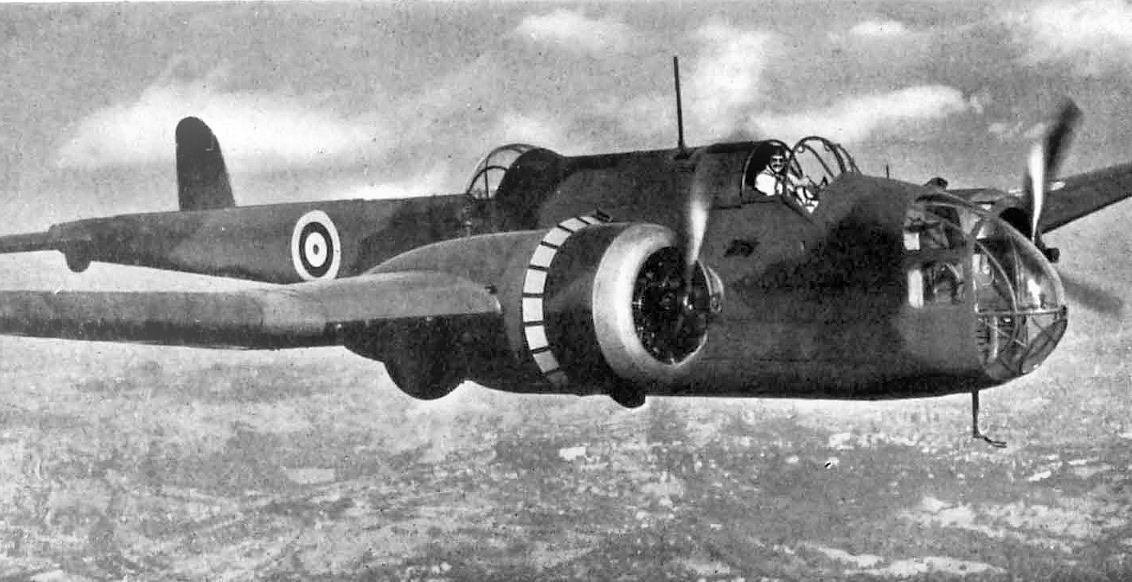
Died in ATA Service - flying as 2nd pilot with F/O Thomas Bray (joined 1940) in Hampden X3130 which went missing 18 Mar 1942 after taking off from Kirkbride. Their bodies were later washed ashore - Nathaniel's was found on 11 Jul.
Download ATA Pilot Personal Record (.zip file):
-
Bertram, Neville Vezey
M.652 First Officer Neville Vezey Bertram 
b. 23 Dec 1910, Birmingham 25 Jul 1941 to Jan-42
prev. RAF 1929-34, No. 12 Bomber Squadron, R.A.F., Andover, Hants.
declared bankrupt in 1934, then went into advertising
m. Joan Grumbar in 1935
[Contract Terminated by ATA - Disciplinary reasons]
d. 1956, London
-
Beverley, Patricia Gladys (W.93)
W.93 First Officer Mrs Patricia Gladys Beverley 
b. 22 Aug 1910, Egham Surrey 29 Jul 1942 to 31 Oct 1945
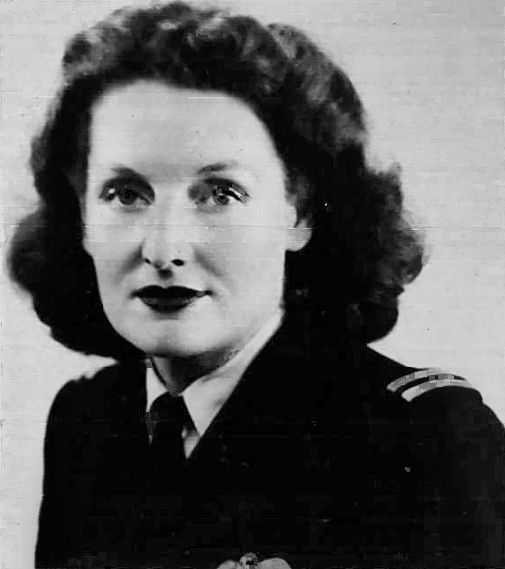 ATA
ATAnee Seemann
Father: Norman Charles Seemann, mother Beatrice Maud [Grey, d. 1926]
m. 1931 in Barnet, Robert Lewis Beverley, (original surname Baker, based in S. Rhodesia in 1942)
Her brother, Norman Walter Keith Seeman, was killed age 25 in a car accident in 1934. Patricia was injured in the same accident and was "carried into court", which decided that former racing driver William Berkeley Scott was responsible for the accident due to "careless, reckless and dangerous driving."
Address in 1942: Stone House Hotel, Hatfield
Joined ATA originally as an MT Driver
Postings: 1FPP, 5FPP
Class 3 Pilot
Reprimanded and fined 3 days salary in Feb 1943 for 'Neglect of Duty'
4 accidents, 2 her fault:
- 1 May 1943, a forced landing in a Hurricane after a hydraulic failure
- 20 Jul 1943, while taxying 'without sufficient care', her Spitfire Vb hit a stationary Beaufighter [Severely reprimanded]
- 29 Nov 1943, she landed her Proctor LZ651 crosswind on wet grass, disobeying airfield 'runways only' signals, skidded and hit an obstruction [Severely reprimanded and suspended without pay for three days]
- 13 Apr 1945, a wheels-up forced landing in Mustang IV KM217 after the selector lever jammed
d. 27 Feb 1948 in Miles M.65 Gemini 1a G-AJZI owned by St. Christopher Travel-Ways Ltd, which crashed at Ridge Park, Wallington shortly after take-off from Croydon airport.
She was acting as co-pilot to Wing-Cmdr William Herbert Whetton; he and the 2 passengers were injured in the crash.
-
Biggart, David Goodchild
M.3 Flight Captain David Goodchild Biggart 
b. 13 Jun 1916, W Hartlepool, Co Durham 22 Jan 1940 to Apr-42
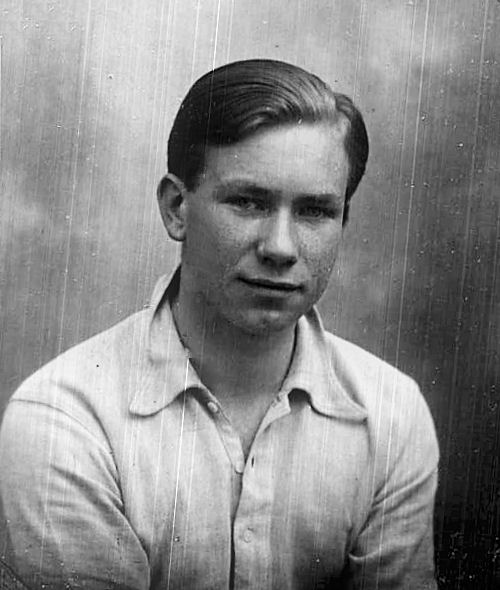
1936
Learnt to fly in 1936 at the Witney and Oxford Aero Club
On the 8 Mar 1941, his C.O. wrote that he was amongst those pilots who "have been outstanding in the way they have worked, and the example they have set".
d. 1999, New Forest, Hants
-
Biggs, Leonard Oliver
M.521 First Officer Leonard Oliver Biggs 
b. 2 Apr 1904, London 3 Jun 1941 to 30 Sep 1945
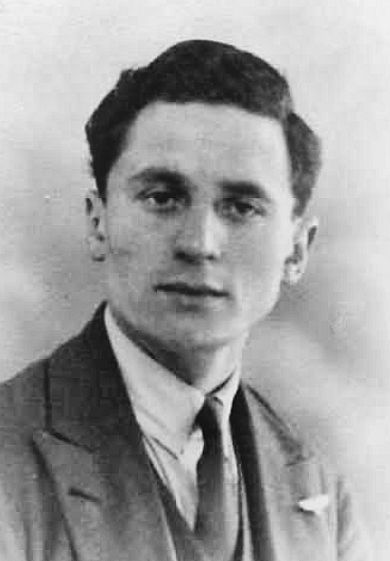 1931
1931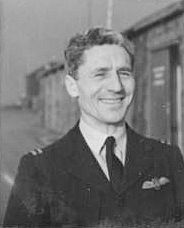 MAMM
MAMMm. 1936 Molly [Child]; 1 child Penelope b. 1940
Was in Canada from Aug 1923 to Dec 1924
prev. a Departmental Manager (Sales) for British Cellophane Co.
prev. exp. 52 hrs on DH Moth, Blackburn Bluebird
Home Guard from Jul 1940 to Apr 41, Volunteer
Address in 1941: 22 Quantock Rd, Bridgewater, Somerset
Postings: 7FPP, 2FPP
Off sick (in hospital) from 11 Oct to 7 Dec 1943
"A good officer and an average pilot. Keen and hard-working. Progress should not be hurried in view of limited experience prior to ATA."
d. Nov 1995 - Surrey
Download ATA Pilot Personal Record (.zip file):
-
Birkett, Trevor Bertram
M.201 First Officer Trevor Bertram Birkett 
b. 13 Dec 1912, Southsea, Hants 16 Oct 1940 to Aug-45
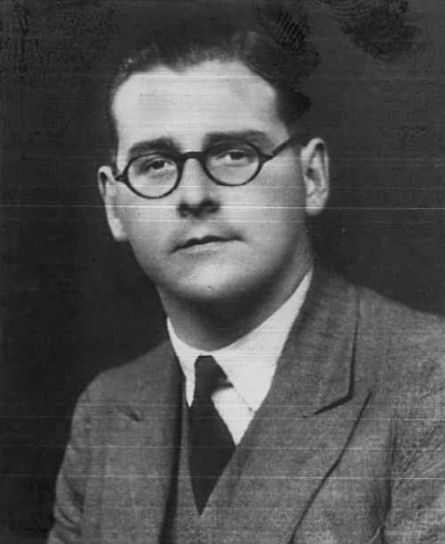 1936
1936Educated at Radley
Address in 1940: 12 High St, Portsmouth
prev. a Solicitor (Messrs Brutton Birkett & Walsh, 132 High St Portsmouth)
Postings: 4FPP, 4aFPP
His Feb-45 recommendation for promotion (he was briefly a Flight Captain) calls him "an officer who sets a very high standard of discipline... during the past 12 months this officer has completed 364 hrs flying and has now flown all types of Class 5 aircraft, including Liberators.
He has spent 20 days on Accidents Investigation and I understand his work in this respect has been outstanding."
d. Jun 1983 - Portsmouth
-
Bishop, Frederick Arthur
M.1042 Cadet
(Seconded from RAF)
Frederick Arthur Bishop 
b. 4 December 1915, Bristol 19 Oct 1943 to Apr-45
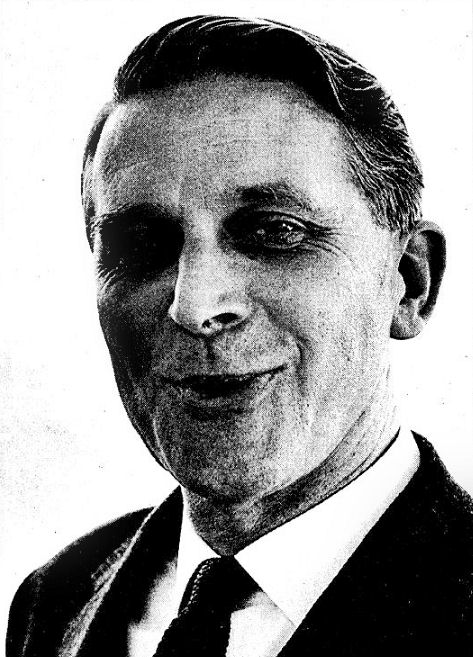
The Times
Sir Frederick Arthur Bishop, (1915–2005), civil servant and director-general of the National Trust.
Joined the Inland Revenue in 1934.
1 Jan 1940 he married Elizabeth Finlay Stevenson (1915–1999), a fellow civil servant; they had two sons and a daughter.
RAF from Feb 1942.
"An ab initio pilot who immediately made steady progress and made great efforts to fly well... he can be assessed as a natural pilot of average ability"
Oxford DNB says: "Bishop returned to the civil service in 1947, initially in the Ministry of Food. There his abilities were soon recognized; within two years he was principal private secretary to the minister, John Strachey, and to his successors Maurice Webb and Gwilym Lloyd George. He was moved to be assistant secretary to the cabinet in 1953. He was an effective manager of the cabinet's economic business, and secretary of its building committee during the government's drive to build 300,000 houses a year, led by Harold Macmillan as minister of housing. He worked closely with the powerful cabinet secretary, Sir Norman Brook, who in 1956 secured his move to 10 Downing Street to become Anthony Eden's principal private secretary. His calm efficiency won the respect, and the ear, of an increasingly embattled prime minister. Some historians believe that even under Eden his advice, and his ‘hawkish’ views on international affairs, began to acquire the influence that was to be more marked under Eden's successor Macmillan.Macmillan kept Bishop on when he took over as prime minister in 1957. Over the next four years Bishop played a key role in the policy process, exercising influence out of all proportion to his formal responsibilities. With a weak foreign secretary in Selwyn Lloyd, Macmillan relied heavily for advice on international affairs on his civil service private secretaries, whose primary loyalty was increasingly to him personally, treating them as a virtual ‘kitchen cabinet’ (Aldous, ‘Family affair’, 14), ‘more akin to American national security advisers than mere private secretaries’ (McNamara, 67). Working closely with his colleague Philip de Zulueta, Bishop did not hesitate to disagree with, and brief the prime minister against, the official Foreign Office line. He and de Zulueta have been described as the ‘“change agents” essential to any process of [policy] redefinition, [giving] access to ideas that had not been dulled by slow passage through the bureaucratic machine’ (Aldous, ‘Family affair’, 15). When in 1957 Macmillan wanted to ensure American collaboration in resisting communist infiltration into Syria, it was Bishop whom he sent to Washington for talks with the secretary of state, John Foster Dulles. Dulles was charmed and impressed by Bishop, declaring that there was ‘genuine, intimate and effective co-operation, stemming directly from Macmillan’ (McNamara, 100). Bishop often travelled with Macmillan, for instance to the Bermuda conference in March 1957 and to Moscow in 1959, the scene of a celebrated row between Macmillan and Nikita Khrushchov. His role and his influence were openly resented by the Foreign Office and the foreign secretary.
Bishop became deputy secretary to the cabinet in 1959. Although in principle he should now have been impartially serving the cabinet as a whole, he remained very close to the prime minister; he has been described as acting at this time in some respects as though he were still Macmillan's principal private secretary, advising him on European matters. During the protracted debates about Britain's relations with the European Economic Community (EEC), pro-Europeans used Bishop as their direct link to the prime minister. He was appointed CB in 1960, having been made CVO in 1957.
Bishop returned to the Ministry of Agriculture, Fisheries, and Food in 1961. Even there he continued to be influential in international affairs, especially in relation to the EEC. One historian, Jacqueline Tratt, has described him as a leading member of the small group—including Harold Macmillan, Edward Heath, and Sir Frank Lee, permanent secretary to the Treasury—that connived to bring about a major change of policy orientation, almost surreptitiously planning and putting into action the ultimately unsuccessful first approach to the EEC in 1961. He also played a significant part in creating the National Economic Development Council. He intended this in part to rival a department he disliked, the Treasury, arguing that there was a need for ‘a more planned approach to the national economic problem … a partnership with employers and unions’ (Ringe and Rollings, 342–3). His draft terms of reference were reproduced largely verbatim when the creation of the council was announced by the chancellor of the exchequer, Selwyn Lloyd.
After three years in the Ministry of Agriculture, Fisheries, and Food Bishop's government career seemed to be moving towards a climax when, in 1964, he was appointed permanent secretary of the Ministry of Land and Natural Resources, newly created by Harold Wilson. Wilson's aim was to speed up the planning process by removing it from what some saw as the dead hand of the Ministry of Housing and Local Government. Others felt that the new department, with a remit to bring forward more land for development by taxing landowners and developers, never had a chance. It was doubly unfortunate for Bishop both that his new minister, Fred Willey, was out of his depth and that the Ministry of Housing and Local Government was led by one of the most formidable civil servants of the post-war period, Dame Evelyn Sharp. She was determined that her department should lose no important responsibilities. Exploiting the access of her own minister, Richard Crossman, to Wilson, she fought ruthlessly to ensure, first, that the new ministry was given no real powers and, second, that it was wound up as soon as possible. Willey's complaints and Wilson's resentment were unavailing. Bishop, who had no illusions about either his ministry or his minister, found himself in a non-job. By June 1965 he had let it be known that he wished to resign from the civil service and Crossman was exulting in his diary, ‘He should be sent off as soon as possible. Let's get rid of him this summer’ (Crossman, 261).
Bishop was an able and well-liked public servant who, in his most senior Whitehall post, was unlucky to be frustrated by such fierce bureaucratic and political in-fighting. He left the civil service in 1965 and took a number of part-time posts, most notably on the board of S. Pearson & Son. In 1968–9 he was a member of a group of former senior officials set up to advise Edward Heath, then leader of the opposition, on reforms to the machinery of government. The Pearson board brought him into regular contact with Patrick Gibson, a committee member (and later chairman) of the National Trust. One result was that in January 1971 Bishop took up his final full-time position, as director-general of the National Trust. He succeeded another former senior official, Sir John Winnifrith, whose name he had suggested himself.
The National Trust, whose ethos Bishop was to describe as ‘amateurism, in the real and best sense of the word’ (Jenkins and James, 258), was trying to bring its style more into line with modern needs; it had opened its first shop in 1970, and during Bishop's tenure enlarged its professional staff and saw its membership double (to 500,000). Described by a former colleague as ‘by nature a manipulator and negotiator’ (Gaze, 235), Bishop used his Whitehall experience and contacts assiduously on behalf of the trust, in particular helping to secure valuable changes in the rules governing the tax treatment of bequests and gifts. Not all was smooth sailing, however: the 1975 annual report noted that ‘a high level of inflation will make it impossible to maintain the high standard of conservation which both members and the general public have come to expect’. When Bishop that year outlined to staff the executive committee's proposals for a 20 per cent cut in real expenditure, the need for this was hotly questioned and tempers ran high. But in general Bishop was popular, both with members of the trust's committee and with staff, for whom he obtained better salary levels and pension arrangements. His management style was described as ‘unobtrusive’, without undue intervention in matters of detail (Gaze, 244).
Bishop (Fred to his family, but Freddie more widely) took early retirement for health reasons from the National Trust in May 1975, having been knighted in January that year, and he and his wife moved to Cornwall. He had already been a member of the BBC's general advisory council (1971–75), a director of Pearson Longman (1970–77), and chairman of the Home Grown Timber Advisory Committee (1966–73); in Cornwall he took up directorships with English China Clays Ltd (1975–86) and Lloyd's Bank (1976–86). He continued to practise his skills as an amateur painter and his gift for friendship, not only with the Gibsons and others but also with Harold Macmillan, who visited the Bishops several times and remained in close touch until his own death. In 1987 Bishop and his wife moved to Hampshire to be closer to their grandchildren. He died at his home, Manor Barn, 65 Church Road, Bramshott, Hampshire, on 2 March 2005, of an acute transformation of chronic lymphatic leukaemia. He was survived by his three children, his wife having predeceased him."
-
Blackmore, Richard Henry
M.--- * 2nd Officer Richard Henry Blackmore 
b. 21 Sep 1896, Gillingham, Kent 2 Sep to 31 Oct 1940
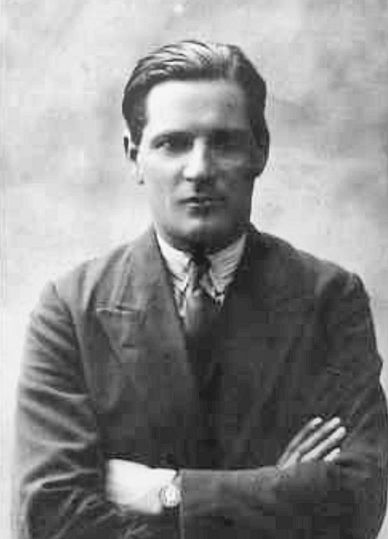 1929
1929Father: Richard Blackmore, Mother: Maud
2nd Lieut Essex Regiment, RFC Corporal in WWI
RAeC Certificate 8549 dated 9 Apr 1929, taken at De Havilland Flying School
Address in 1929: 21 Vale Court, Mallord St, Chelsea
prev. student of electrical engineering; butcher
Sailed to Canada in May 1930
Address in 1931: 2147 Sherebroke, Montreal, Canada, described as a commercial air pilot, living with wife Olive Joy (m. 1928/9, an artist)
Olive sailed back to the UK from Canada in Sep 1931 and May 1932, Richard in Sep 1932
Postings:
Olive d. 1959 as a widow
* No ATA File
-
Blackwell, Patricia Annette (W.73 *)
W.73 * First Officer Mrs Patricia Annette 'Ann' Blackwell 
b. 30 Mar 1913, Putney 24 Feb-42 to Dec-45
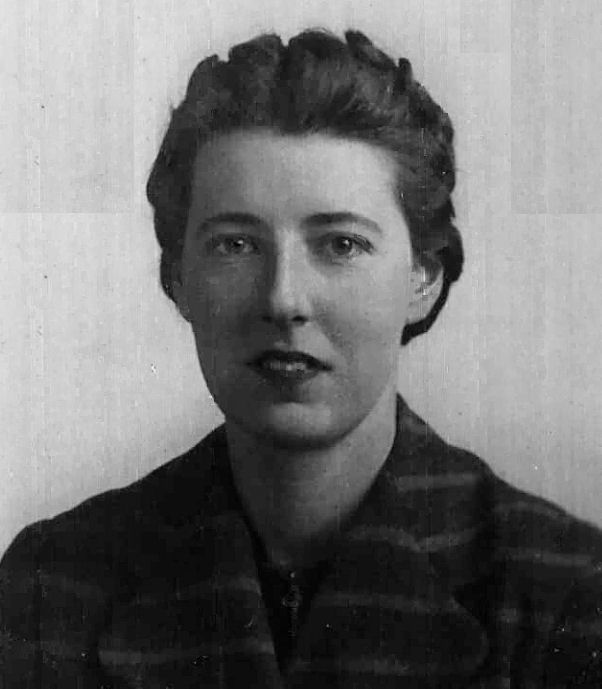 RAeC 1939
RAeC 1939nee Noble
Father: Major Bertram W Noble OBE ("Messrs. B. W. Noble. Ltd. insurance and reinsurance brokers, of London and Paris"), mother Kate Elsie [Buckland]
m. 24 Oct 1935 in Knightsbridge, George Wilson Blackwell
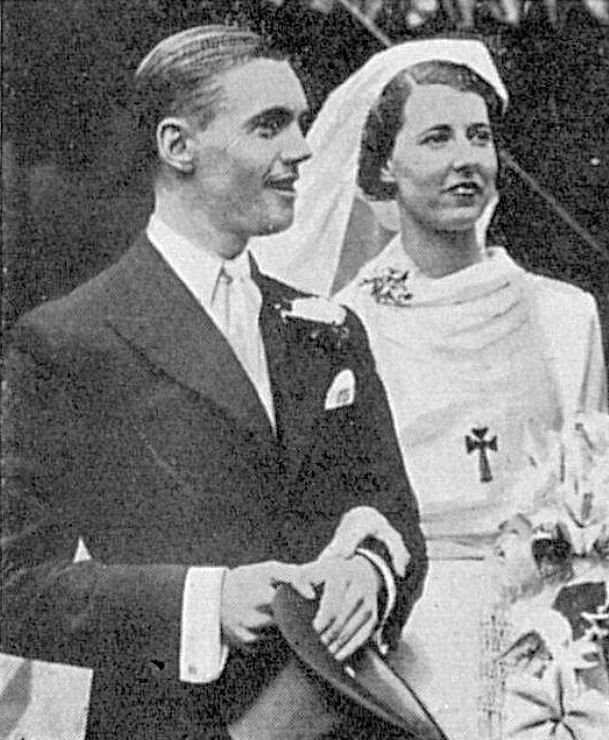 The Bystander
The Bystander"They met at the International Marine Insurance Conference at Montreux in September 1933"
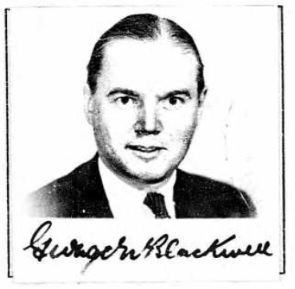 (George moved to Canada, then the USA in October 1945 and became an American citizen.)
(George moved to Canada, then the USA in October 1945 and became an American citizen.)
Postings: 6FPP, 4FPP
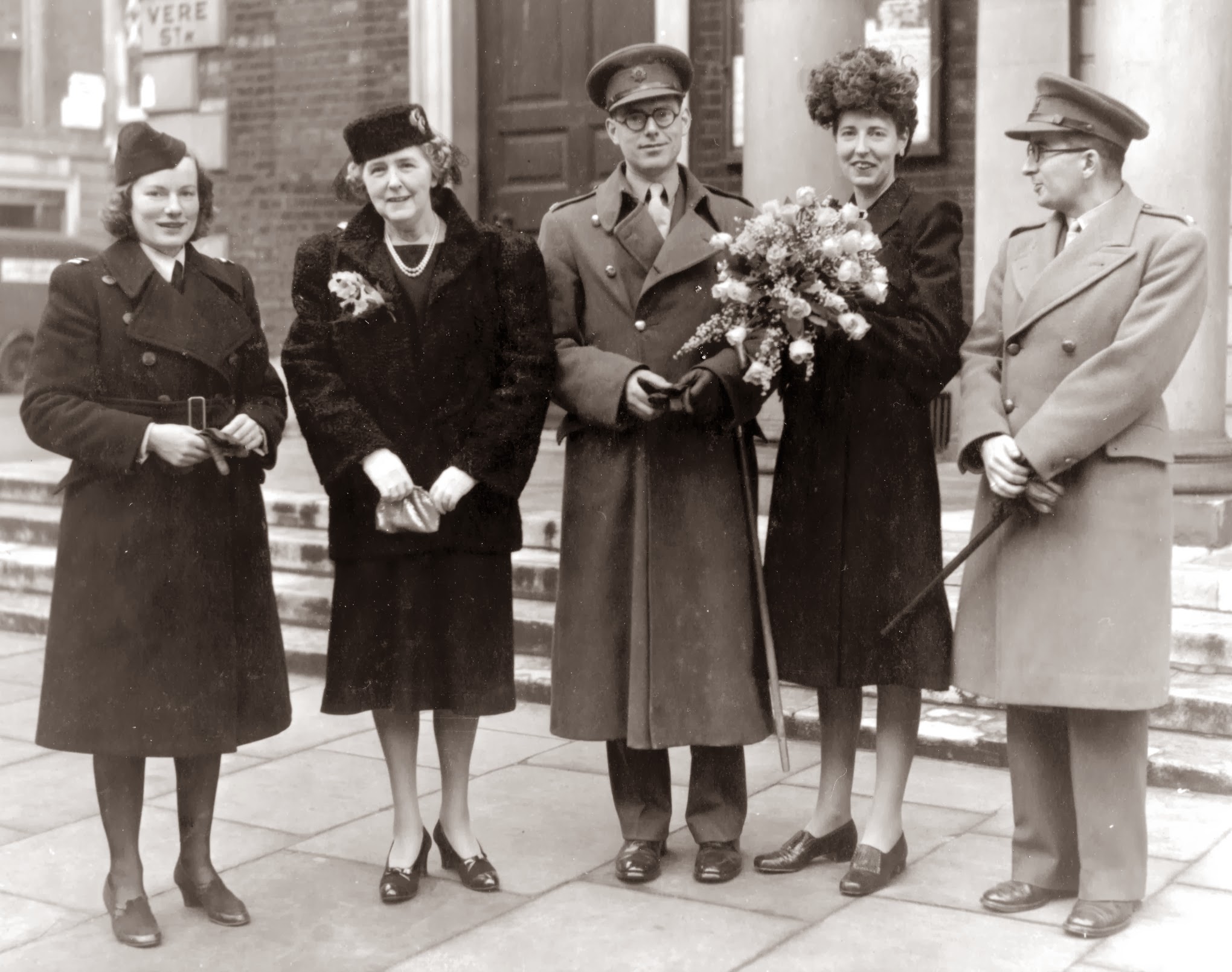 Naomi Allen on the left, Ann 2nd right. 1942?
Naomi Allen on the left, Ann 2nd right. 1942?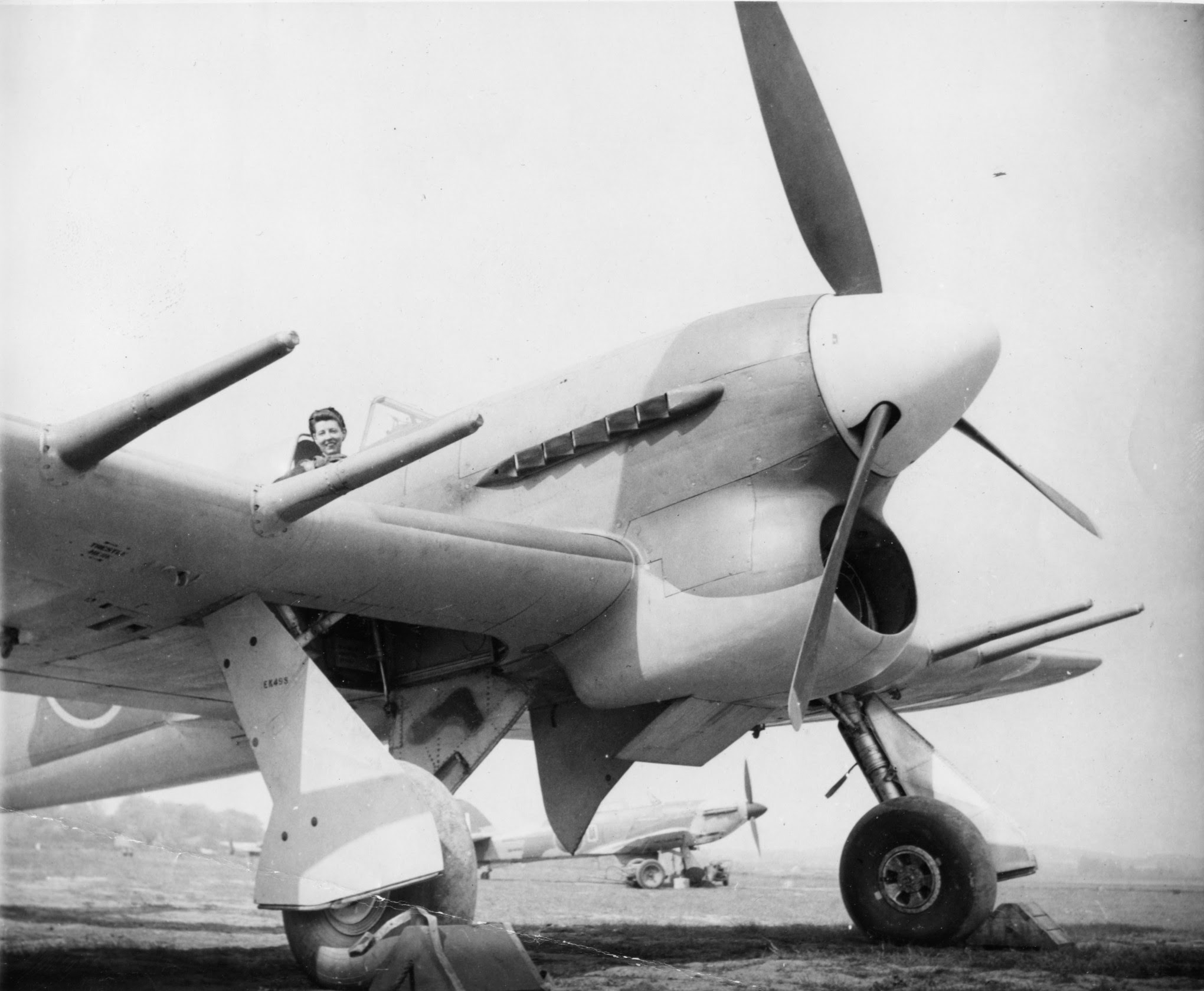 Ann in a Typhoon [photos with thanks to Nicholas Thomas]
Ann in a Typhoon [photos with thanks to Nicholas Thomas]At least 4 Accidents, 1 her fault:
- 9 Aug 1942, a forced landing in Fairchild EV771, with a broken connecting rod
- 7 Nov 1942, in Hurricane I L1877, forced landing with low oil pressure and high oil temperature
- 20 Nov 1944, she failed to control a crosswind landing in Seafire III NF499, swung and damaged the port wing
- 20 Feb 1945, the tail wheel of Proctor III DX229 collapsed during landing
m. 1948 in Maidenhead, Hugh McLennan Kendall
d. Feb 1992 - Isle of Wight
-
Blake, Thomas Howes
M.828 First Officer
[Seconded from RAF]
Thomas Howes Blake 
b. 16 Apr 1913, Isle of Wight 6 Jan 1943 to 15 April 1945
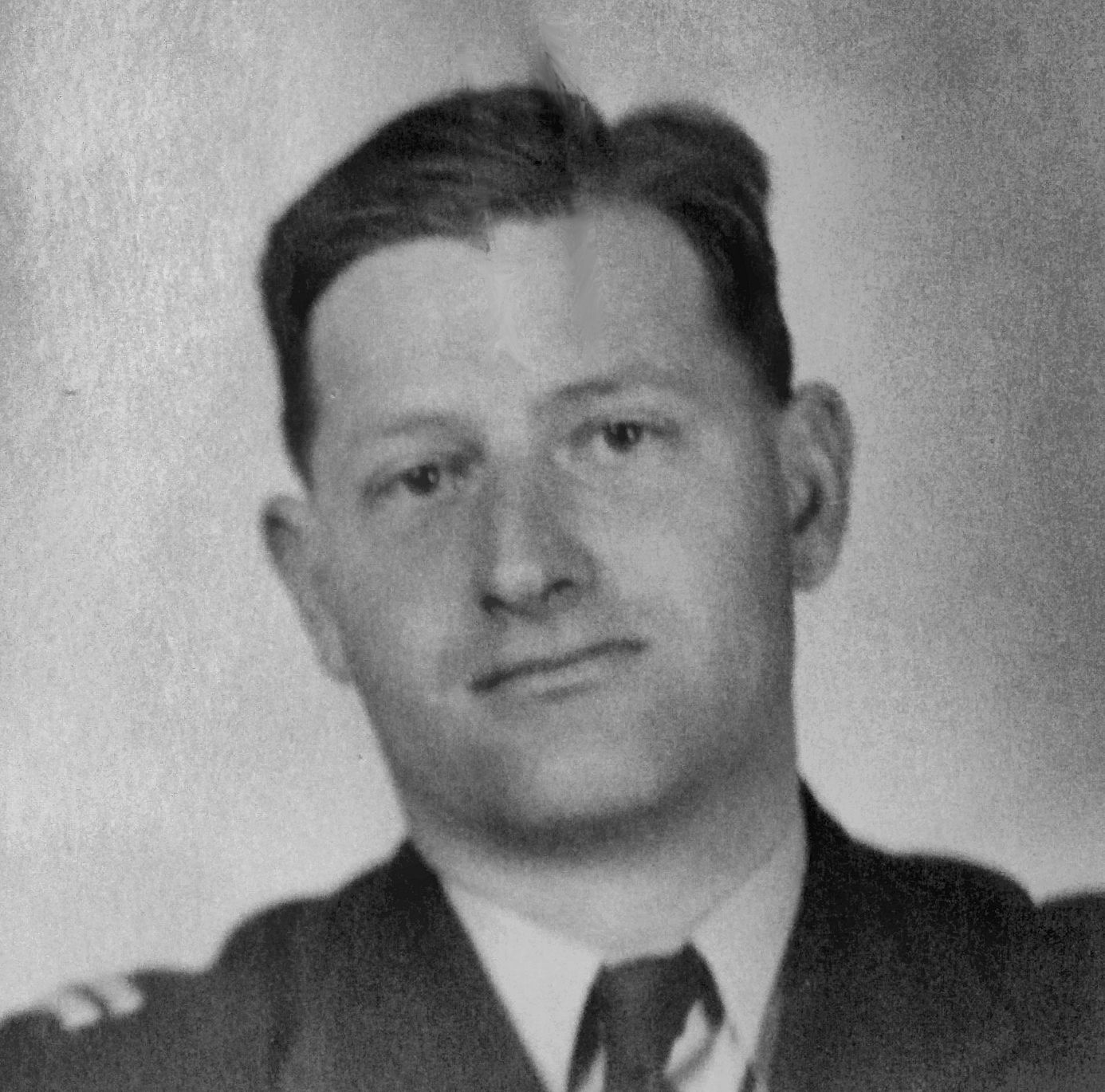 RAFM
RAFM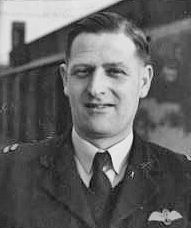 MAMM
MAMMAddress in 1943: Apes Down, Calbourne Rd, Newport, Isle of Wight
prev. Legal Assistant, IoW Council; RAF 3 Apr 1941 - Dec 1942
Postings: 5FPP, 2FPP
d. Apr 1996 - Isle of Wight
-
Blow, Ernest Lynton
M.768 First Officer Ernest Lynton Blow 
b. 9 Dec 1906, Dunstable 9 Sep 1942 to Dec-44
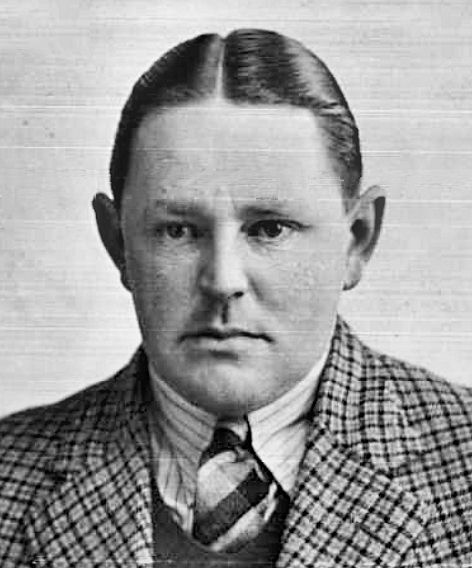 1936
1936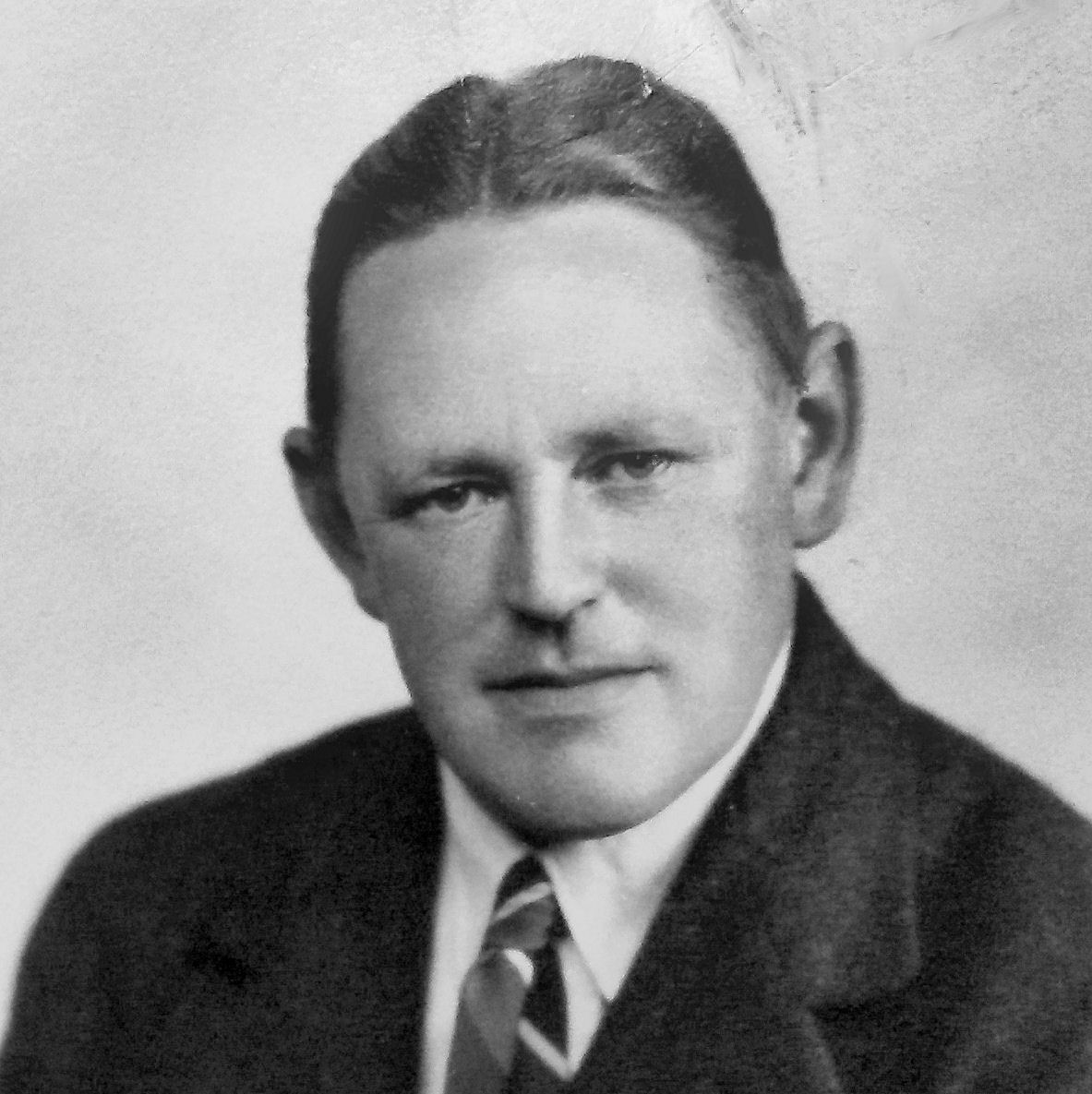 ATA
ATAprev. F/O in RAFVR 1939-41; Test Pilot for Airspeed
prev. exp. 3,843 hrs;
Owned:
- 1930 Avro 616 Avian IVM G-ABDP
- 1931 DH.80A Puss Moth G-ABMC- 1936 BA Swallow L25C Mk.2 G-AEKG
"A keen and efficient pilot and a good officer"
d. 2003, USA
-
Bodinnar, John Kenneth
M.150 First Officer John Kenneth Bodinnar 
b. 9 Jan 1906, Bristol 14 Aug 1940 to 3 Apr 1941
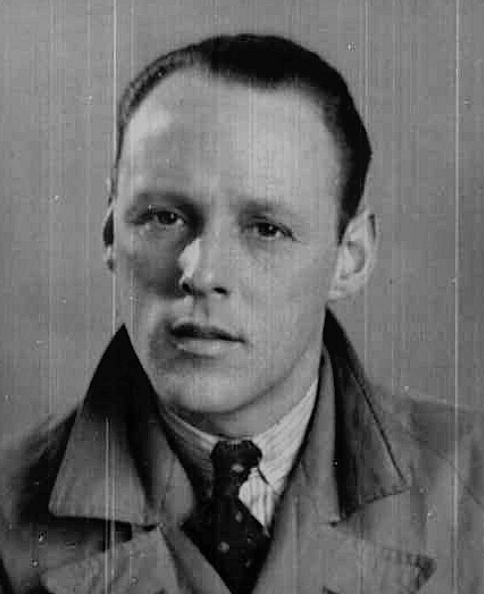
1937
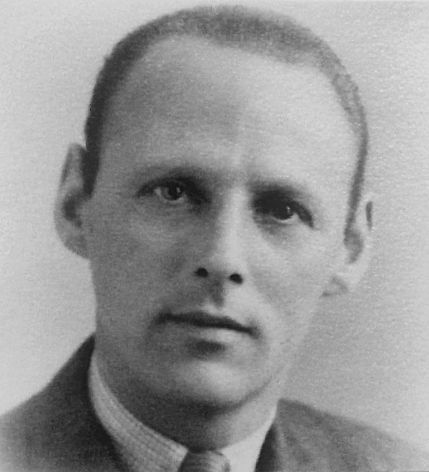
ATA
Father: Sir John Francis Bodinnar J.P., The Old Palace, Chippenham, Wilts
[Sir John Francis Bodinnar (1880-1958) was a Company Director (of, among others, the West of England Bacon Company, Ltd) and Mayor of Calne from 1925-27. "On the site of the Old Palace stood the house in which King Alfred is traditionally said to have burnt the cakes."
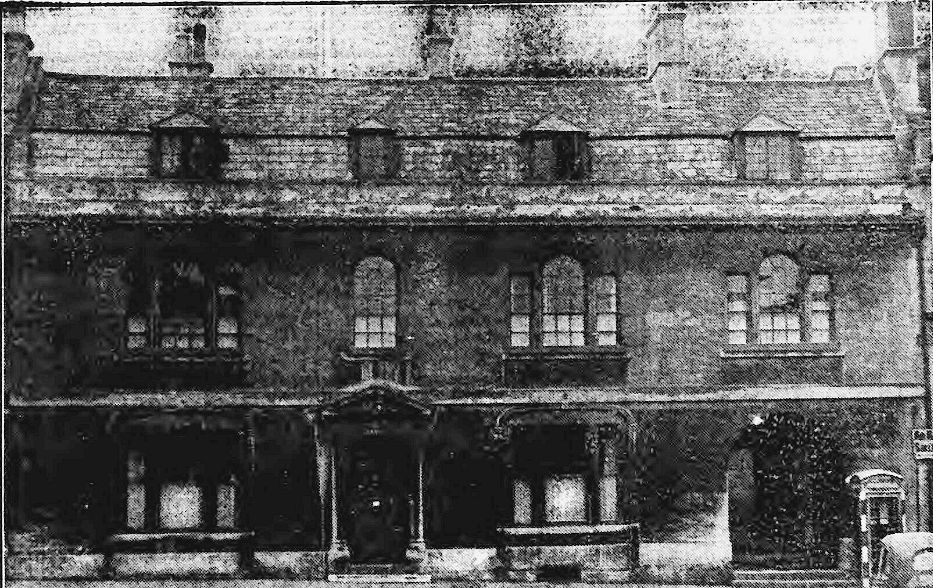
The Old Palace was bought by the Town Council in 1942 for new offices; it is now the Chippenham Museum.]
Mother: Mabel Frost [Latham]. [d. 1948)
Ed. Malvern College
prev. "various, including fruit growing and engineering" - spent 1926-35 in Canada.
Address in 1940: 5 Alexandra Court, Wembley Pk, Middx
m. 1937 in Kensington, London, Sheila Frances Grace [George, d. 1997]
Next of kin: (wife) Sheila, c/o "Branksome", Old Woking Rd, Pyrford, Surrey
Postings: 1FPP
Suspended for 2 days in Dec 1940 for infringement of flying regulations
2 accidents, 1 his fault:
- 6 Feb 1941, he hit a concrete block whilst taxying a Leopard Moth, having to avoid an approaching Hart
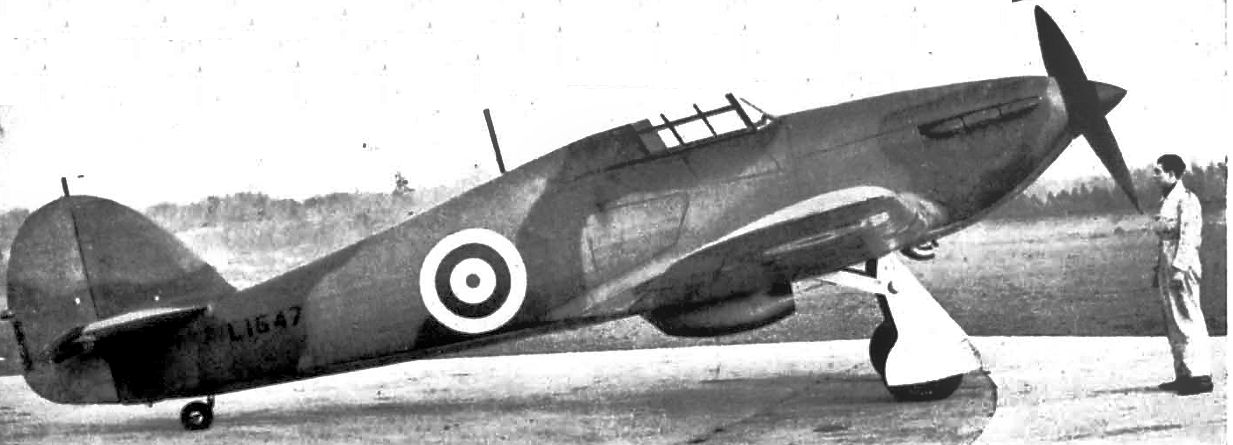
d. 3 Apr 1941 (age 35) (Died in ATA Service) - Hurricane Z3166 flew into a ploughed field at Gorse Lane, Tarleton, Lancs, in poor visibility.
He was held to blame for the accident, having persevered too long in bad weather. Douglas Fairweather was flying in the same area on the same day, and confirmed that the weather was so bad he had to curtail his own flight.
He had flown 98 hrs in delivering 105 aircraft for the ATA.
Buried in Maidenhead Cemetery, Sec. D. Row L. Grave 7
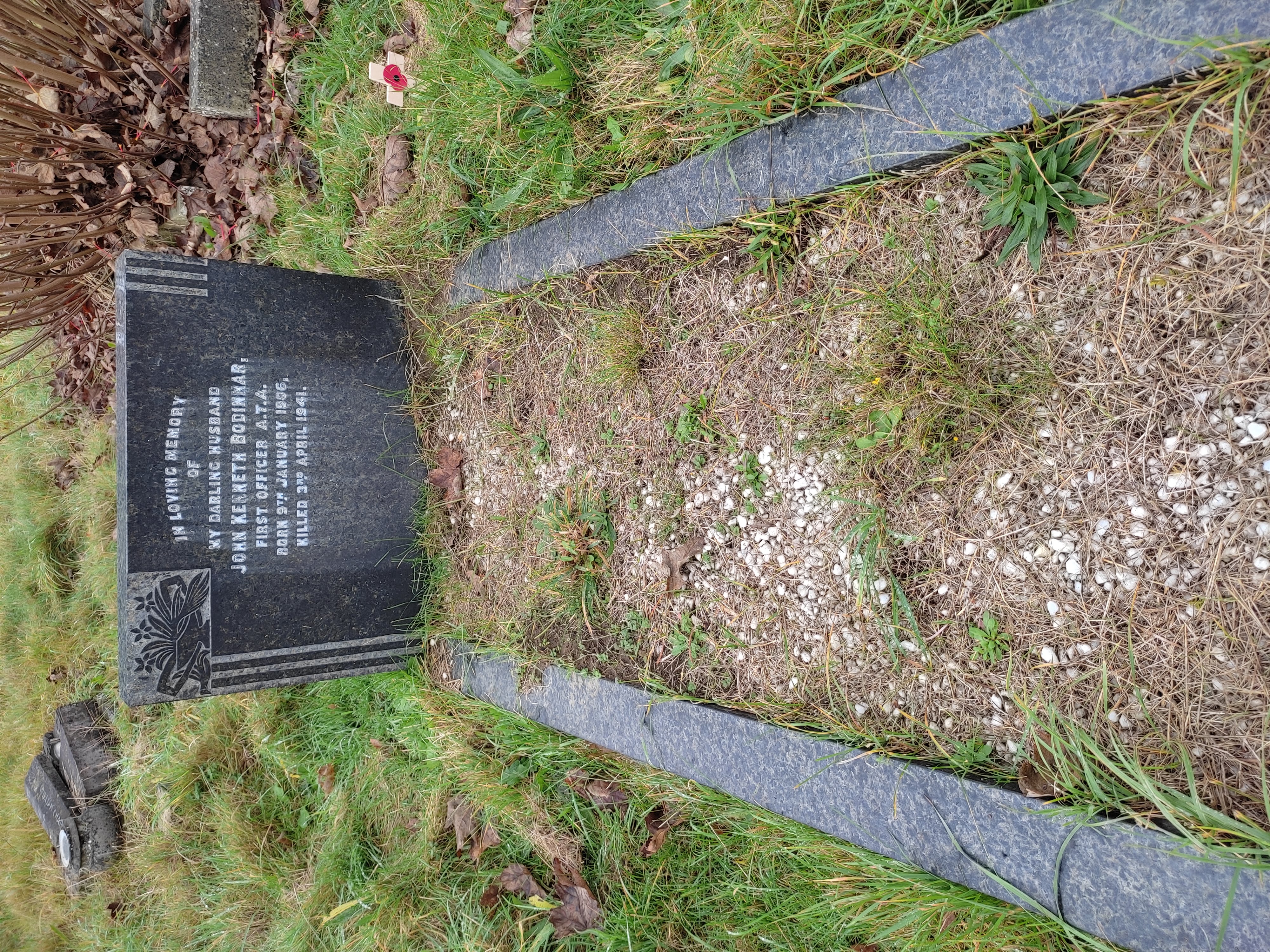
Sheila wrote to Gerard d'Erlanger: "May I send you my very sincere thanks for your flowers and sympathetic letter on the occasion of my husband's death.
Your kind remarks made me feel very proud of him and I am sure he would not have wished for higher commendation."
-
Boilstone, John William
M.849 Flt-Sgt / First Officer
[Seconded from RAF]
John William 'Jack' Boilstone 
b. 28 Jun 1915, Stourbridge, Worcs 30 Jan 1943 to 9 Dec 1943
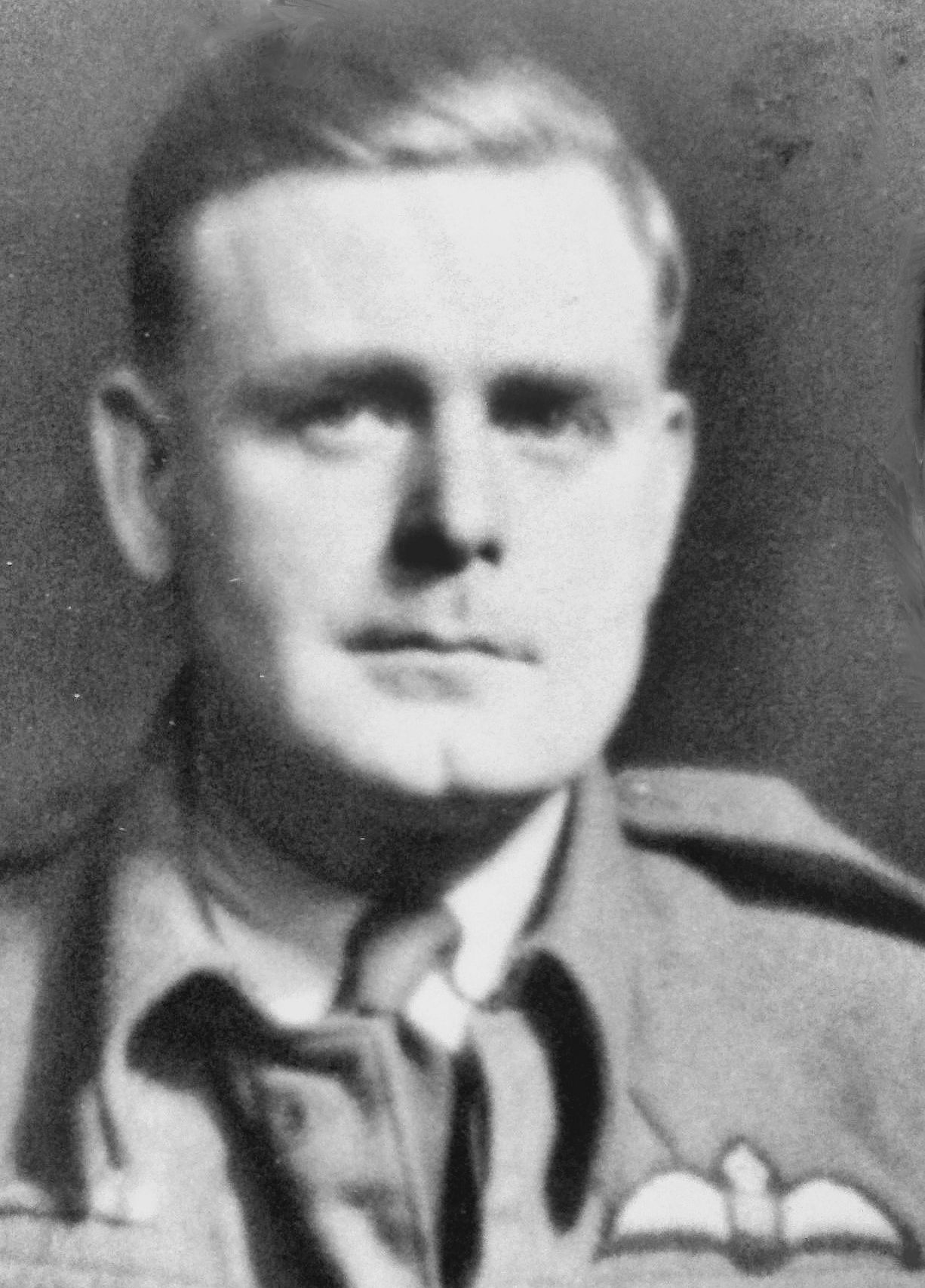 ATA
ATAFather: Joseph Pearson Boilstone, a Farmer; mother: Dorothy May [Downing]
m. 1942 in Bromsgrove, Dorothy Margaret [Taylor, b. 1919]
prev. a Motor Tester; RAF from 5 Jul 1941, 10 OTU, Abingdon
prev. exp. 190 hrs on Stearman PT 17, Harvard, Vultee, Oxford, Whitley in UK and USA
Address in 1943: Hillingdon, Highfield Crescent, Blackheath, Birmingham
Postings: 16FPP
"A neat and steady pilot of good average ability who takes his work seriously and has the makings of a very good ferry pilot"
"He posseses a quick & keen personailty and his discipline has been exemplary"
One accident, his fault:
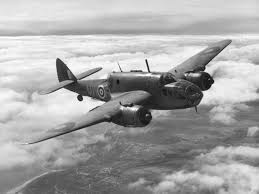
d. 9 Dec 1943 in Beaufort II LZ146 which stalled on approach to Kirkbride, dived into the ground 1000ft west of the airfield and was destroyed. Ferry from 44 MU Edzell to 40 APU Melton Mowbray.
Buried St Kenelm's Churchyard, Romsley, Worcs
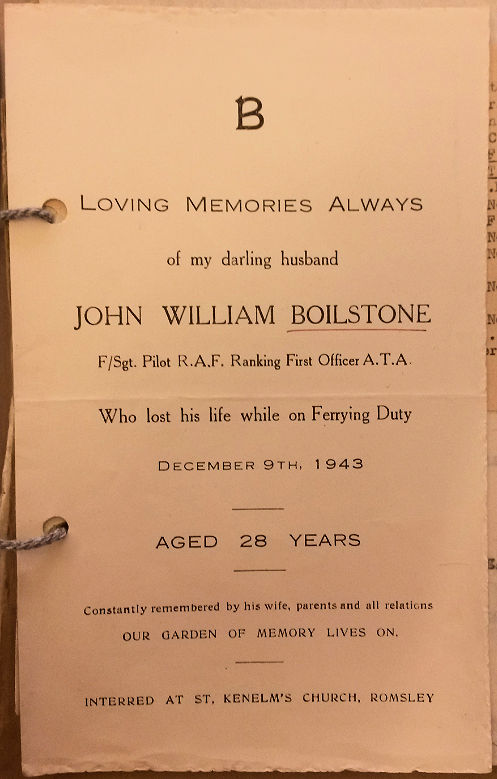 "Constantly remembered by his wife, parents and all relatives"
"Constantly remembered by his wife, parents and all relatives"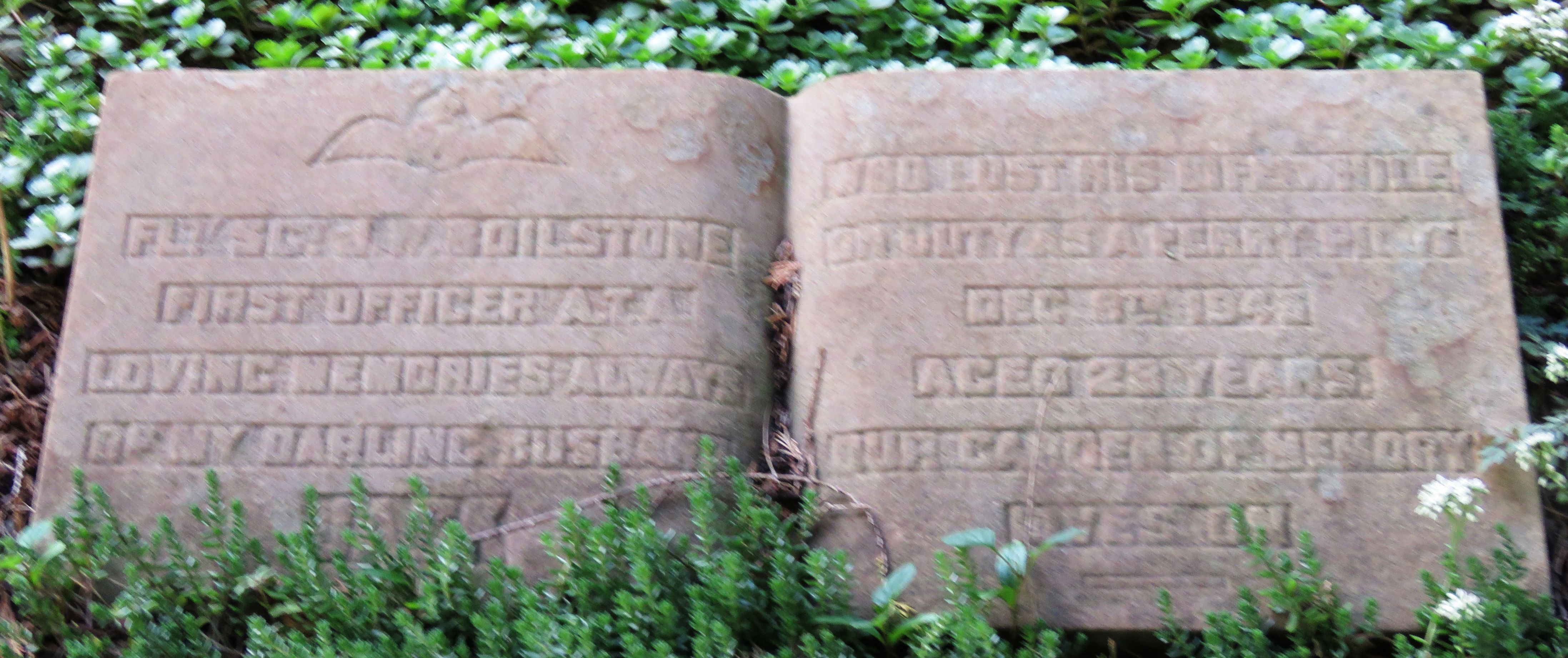
FLT SGT J.W. BOILSTONE
FIRST OFFICER A.T.A.
LOVING MEMORIES ALWAYS
OF MY DARLING HUSBAND
JACK.
WHO LOST HIS LIFE WHILE
ON DUTY AS A FERRY PILOT
DEC 9TH, 1943
AGED 28 YEARS.
OUR GARDEN OF MEMORIES
LIVES ON
Dorothy later (1951) m. Alfred J Newman and d. 2008
-
Bonnett, Rosemary Leslie (W.155 *)
W.155 * 3rd Officer Mrs Rosemary Leslie [or Lesley] Bonnett

b. 1 Sep 1918, Bristol 21 Feb-44 to Sep-45
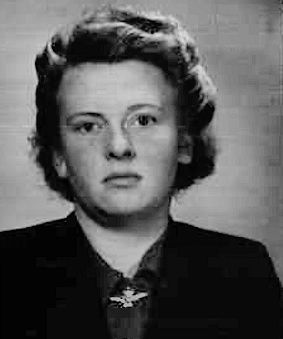 RAeC 1945
RAeC 1945née Bell
father: Percy Harrison Bell (2nd Lt in WWI, who gained an RAeC Certificate No 5298, in October 1917) , mother Adele Helene [Gellatly, a midwife, d. 1967 in S. Africa]
Grew up in South Africa (1924 - Jan 1936)
prev. a Secretary, typist
m. early 1942 Flt-Lt Dorian Dick Bonnett DFC
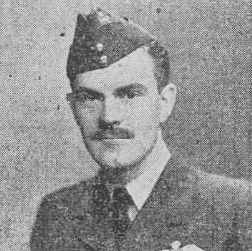 (39 Sqn RAF, d. 24 Oct 1942 in Lancaster I W4306, which crashed in England on return from a daylight raid on Milan)
(39 Sqn RAF, d. 24 Oct 1942 in Lancaster I W4306, which crashed in England on return from a daylight raid on Milan)
[ab initio trainee]
Postings: 15FPP, 7FPP
2 accidents, both her fault:
- 14 Oct 1944, when taxying on wet grass and in windy conditions, her Argus I EV792 collided with marker flags
- 9 Aug 1945, taxying in Andon I AX319, she struck a motor sweeper and the aircraft was damaged.
Gained her Royal Aero Club Pilot's Certificate (No 20610) as part of the ATA's 'Wings' scheme on 3 Oct 1945
m. Oct 1946 in Surrey, Flight Captain Phillip Lambert Gibbs
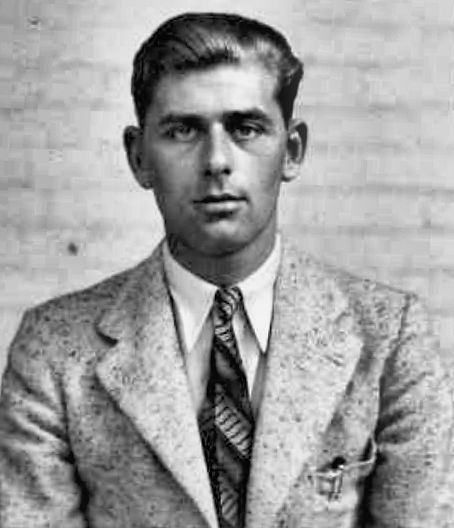 (also an ex-ATA pilot)
(also an ex-ATA pilot)m. 1949 in Kensington, London, Richard C Towers
Address in 1989: Garden Farm, Tufton, Haverfordwest
d. 25 Jan 1989
-
Bowles, Frederick George
M---- Cadet Frederick George Bowles 
b. 26 Mar 1912, Newcastle on Tyne 16 Sep 1942 to Dec-42
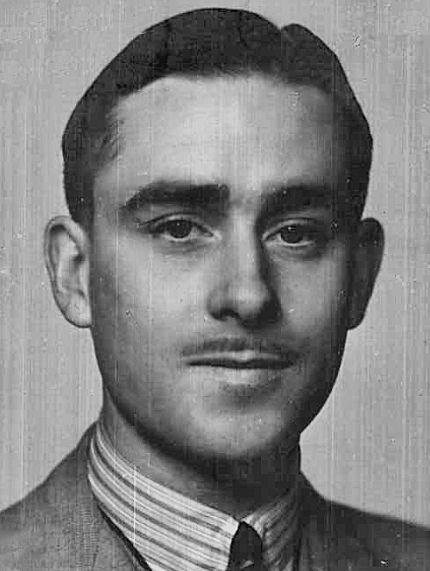 1938
1938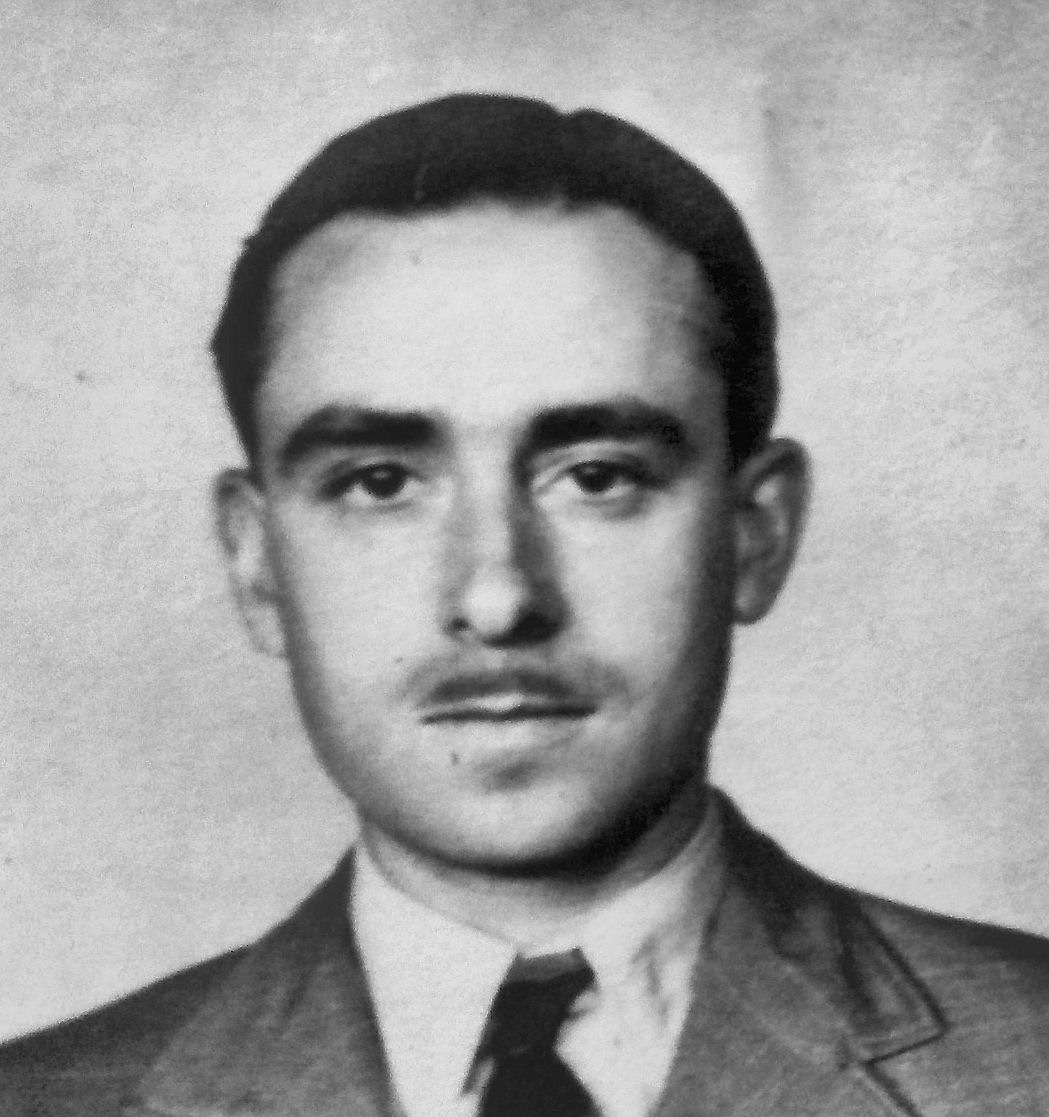 ATA
ATAprev. an engineering draughtsman
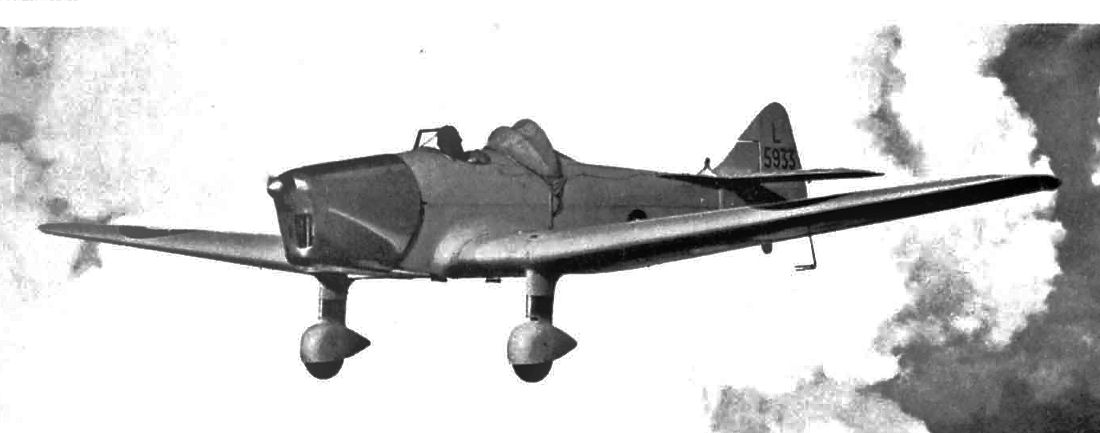
d. 6 Dec 1942 (Died in ATA Service) - Magister L8233 spun in near Letchworth, Herts 1.5m SSW of Baldock.
Marked as a red spot on this map::
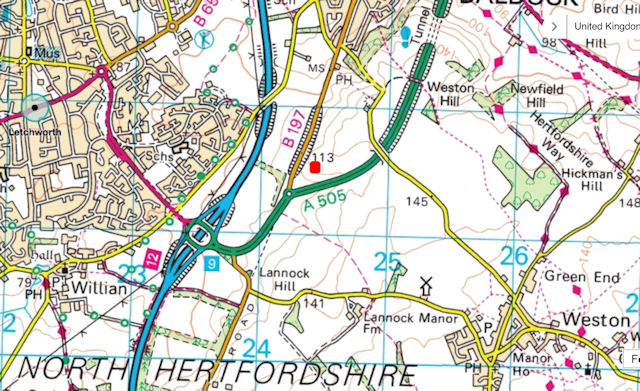
-
Boyes, Edwin Arthur
M.776 * First Officer Edwin Arthur Boyes 
b. 17 Feb 1908, Bramley, Leeds 15 Jul 1942 to 30 Nov 1945
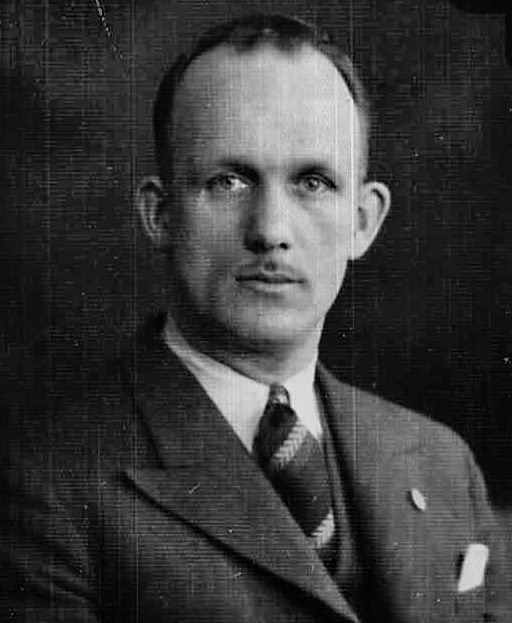 1939
1939Address in 1939: 123 Ring Road, Farnley, Leeds
prev. A Woollen Manufacturer
-
Bradbrooke, Francis Delaforce
M.4 Captain Francis Delaforce 'Brad' Bradbrooke 
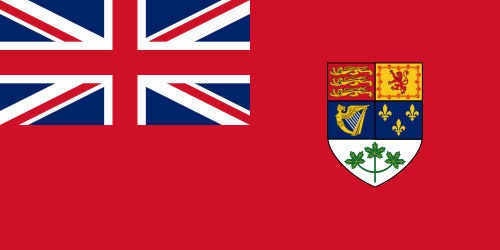
b. 14 Mar 1895, Worcestershire 11 Sep 1939 to Aug-41
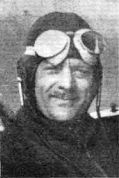 1935 (Flight)
1935 (Flight)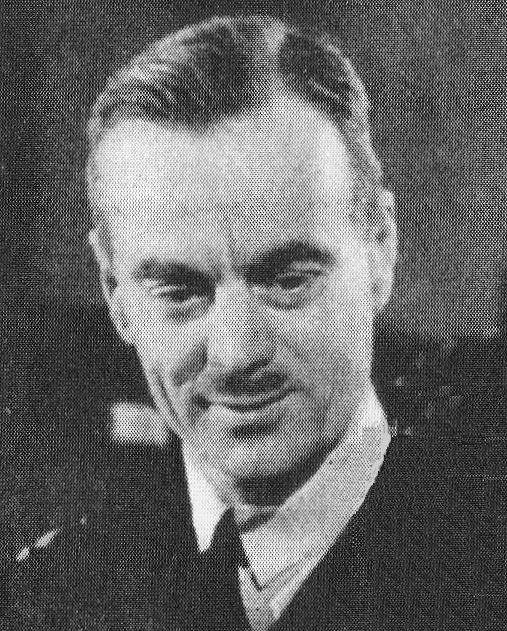 Brief Glory
Brief Glory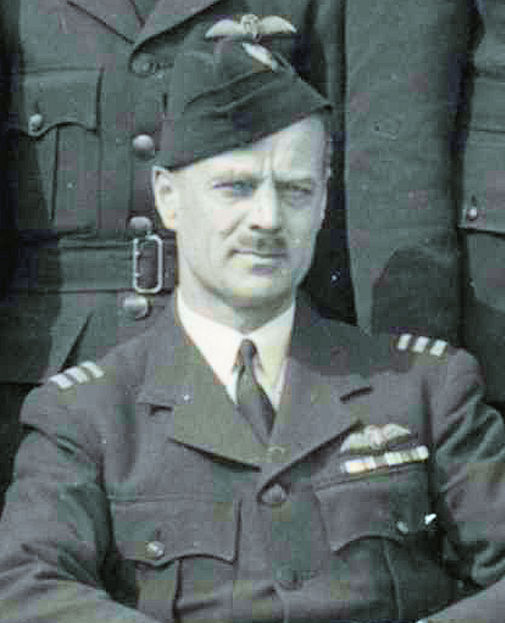 ATAM
ATAMEd: Bletchley Grammar School, then Manitoba University
1914-16 3rd Canadian Mounted Rifles;
1916-1930 1st Lieut., Canadian Machine Gun Corps;
prev. an aviation journalist, on the staff of 'The Aeroplane'; had flown about 110 types of aeroplane
Seconded to AtFero 20 Mar 1941
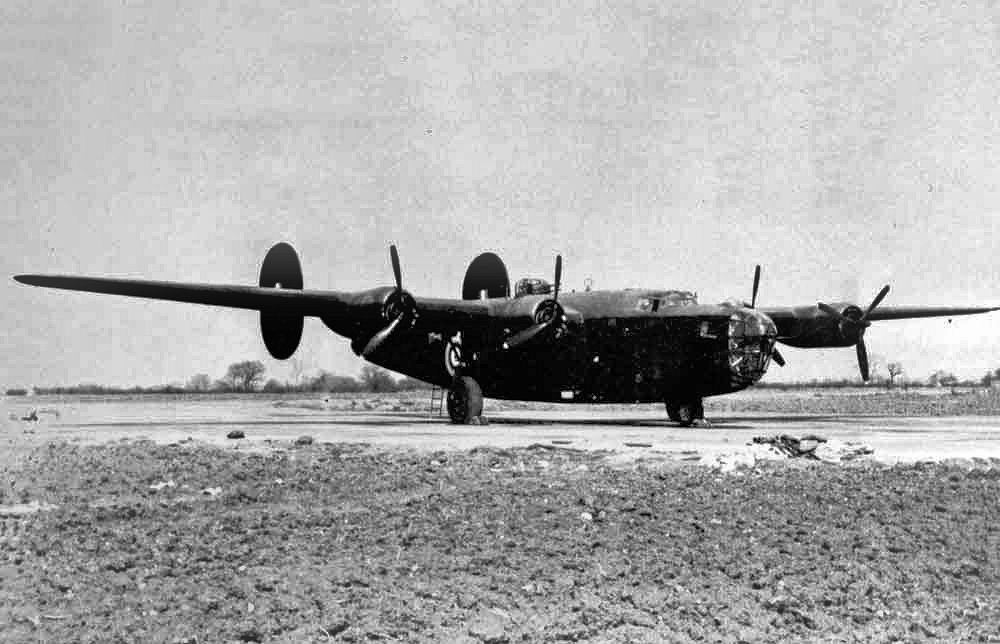
d. 10 Aug 1941 (Died in ATA Service) - Liberator AM261 crashed into Goat Fell mountain on Isle of Arran after take off from Heathfield, Ayr (22 killed - 5 crew and 17 travelling as passengers)
9 of the victims were Canadian, 5 British, 7 American, and one was an Australian.
11 of the victims were pilots: Josiah James Anderson (Can), Daniel J Duggan (US), Watt Miller King (US), George Thomas Harris (US), Hoyt Ralph Judy (US), John James Roulstone (US), Harold Clifford Wesley Smith (Can), Jack Wixen (US), Capt. Ernest R. B. White (BOAC, ex-Imperial Airways), F. D. Bradbrooke, and John Evan Price (Aus).
10 radio operators, including Albert Alexander Oliver, George Herbert Powell and Herbert David Rees from BOAC, and one Flight Engineer, Ernest George Reeves (US), also lost their lives.
Flight said: "Canada shares with Great Britain the loss of Capt. F. D. Bradbrooke, who, although born in Worcestershire, has spent many years in Canada, where he learned to fly in 1928. Several years ago he came to this country to join the staff of The Aeroplane, of which he became assistant editor. He left that post to become editor of a little journal called The Aero Pilot. On its formation he joined the Air Transport Auxiliary and ferried aircraft from factories to service units, and finally he joined Atfero. He was a very experienced pilot"
"To say only that aeronautical journalism had lost one of its most important figures in the Atfero accident would be very much understating the case. Capt. F. D. Bradbrooke was much more than an aeronautical journalist. He was one of those amateur pilots who had helped to make private flying in this country, and was, at the same time, an "amateur technician " of no mean importance. He had a finger in every pie remotely connected with his primary interest and hobby, and was by way of being a humorist in his own inimitable way.
"Brad" was one of the most enthusiastic persons anyone could possibly meet, and his enthusiasm was catching. As a member of the staff of The Aeroplane he was an unstinting supporter of everything which he felt to be a "good thing," and a somewhat vitriolic opponent of anything which he felt to be useless or silly. When, for instance, the tricycle undercarriage was considered merely as a peculiar kind of throwback, " Brad " was vigorous in his praise, and I was with him when he flew the first tricycle type to appear in this country. The machine in question was a " safety-first " type, and until "Brad" started to expatiate (with his usual lack of professional "tightness"), I had been interested only in the slots and things with which the machine was fitted. It was Bradbrooke, in fact, who helped to make this country "tricycle conscious."
And that was only one of the many ideas which he had sponsored. What was more important is that he was prepared to put his enthusiasm into vigorous practice. In the course of his investigations he would fly almost anything anywhere. And I must say that in his search for truth (of the aeronautical kind) he risked his neck in one or two very queer contraptions so that he could at least give the designer an absolutely fair opinion—in print or otherwise.
At the beginning of this war he was one of the founders of Air Transport Auxiliary, and here again his enthusiasm was terrific. Later, when the Atlantic ferrying business started, he was one of the first to volunteer for the work, and was thereafter - until he started on the work itself - to be seen, so to speak, with a sextant in one hand and a textbook on astronomical navigation in the other. At odd moments he would hoist the sextant to his eye and compute his position—though he knew perfectly well where he was.
When there is peace and civil flying returns we shall miss "Brad", a very great deal. All this war-flying was only for him an interlude preparatory to returning to his greatest interest - civil flying. The only kind of flying which is really worth anything in the long run. Yes, we shall certainly miss him."
A memorial service was held each year on the anniversary of the crash at Lamlash Cemetery, Island of Arran.
ATA's insurance policy paid out £5,000 to his widow Joan, and £2,000 each to the families of the 3 radio operators.
-
Bradford, Cassandra Felicity (W.41)
W.41 Flight Captain
Cassandra Felicity 'Fay' Bradford MBE 
b. 22 Sep 1915, London 1 May-41 to Sep-45
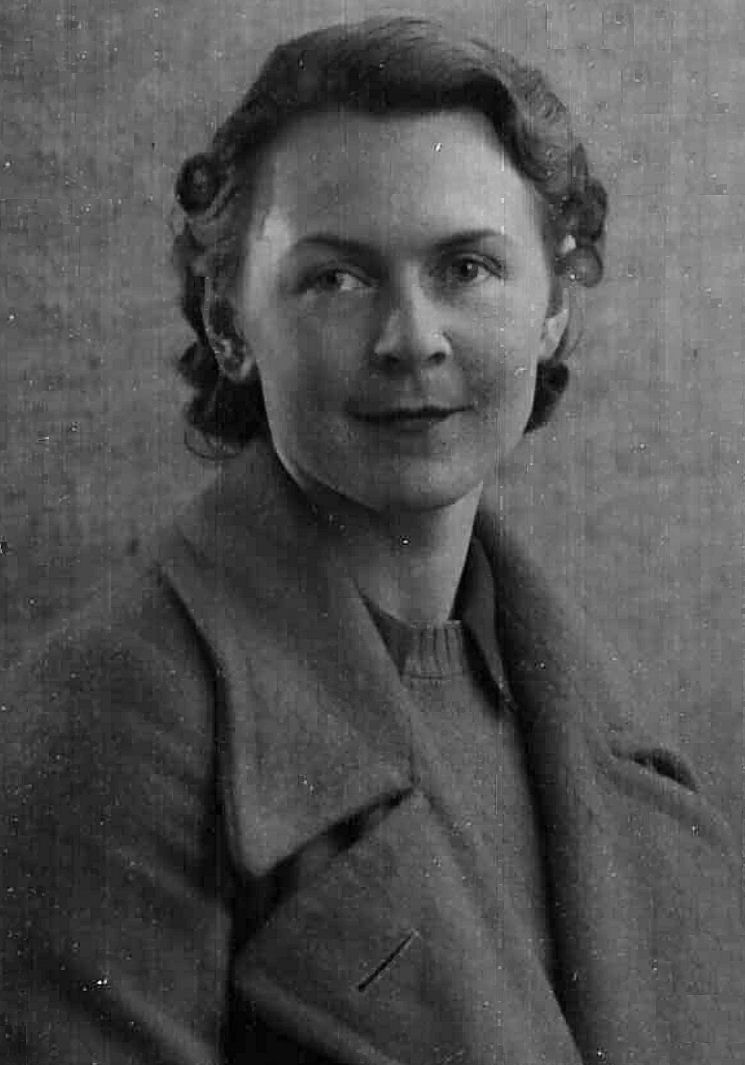 RAeC
RAeCAddress in 1941: Empshott Lodge, Liss, Hants
Postings: 5FPP, 12FPP
4-engine (Class 5) pilot
5 accidents, 2 her fault:
- 9 Jan 1941, when the rear cockpit cover of her Master fell off, damaging the tail;
- 26 Jun 1942, forced landing in an Airacobra;
- 13 Dec 1942, she failed to control the take-off swing of a Hudson;
- 30 Apr 1943, her Spitfire's port wing touched the ground on a difficult crosswind landing, and
- 11 Jul 1944, forced landing in an Anson.
A good natural pilot" "A capable pilot who is keen and quietly confident"
"Has proved to be a good second in command and was acting C.O. for 2 months with credit"
m. 1941 Cmdr Peter Hugh Bragg, RAF Boscombe Down
d. 1984
See her biography here - Felicity Bragg – solentaviatrix (wordpress.com)
Download ATA Pilot Personal Record (.zip file):
-
Bradley, Philip Penrose
M.204 First Officer Philip Penrose Bradley 
b. 25 Jul 1905, Nottingham 1 Jan 1941 to Oct-45
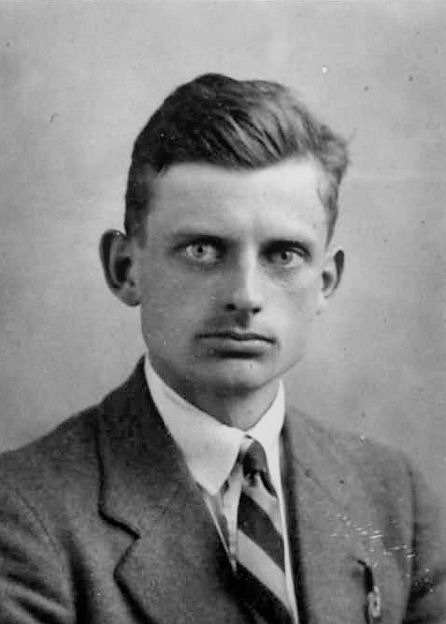 1928
1928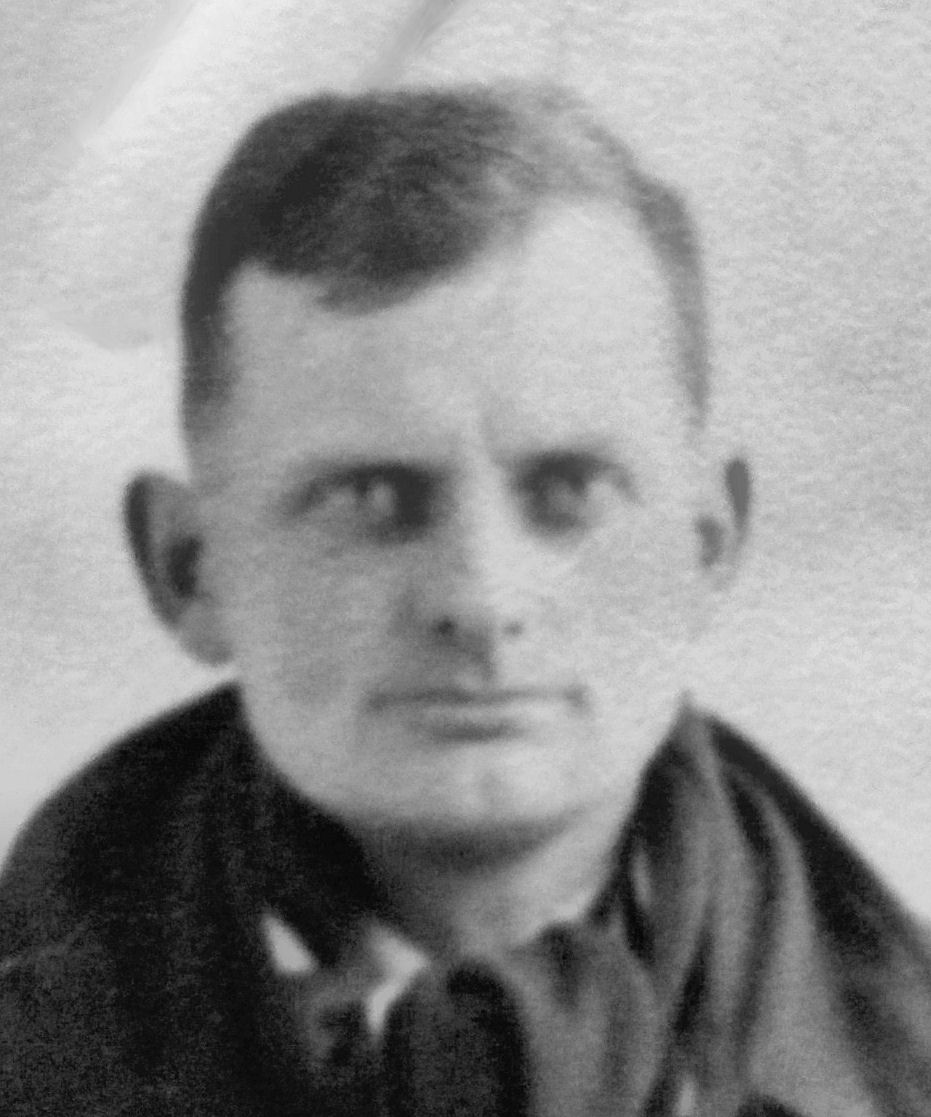 ATA
ATA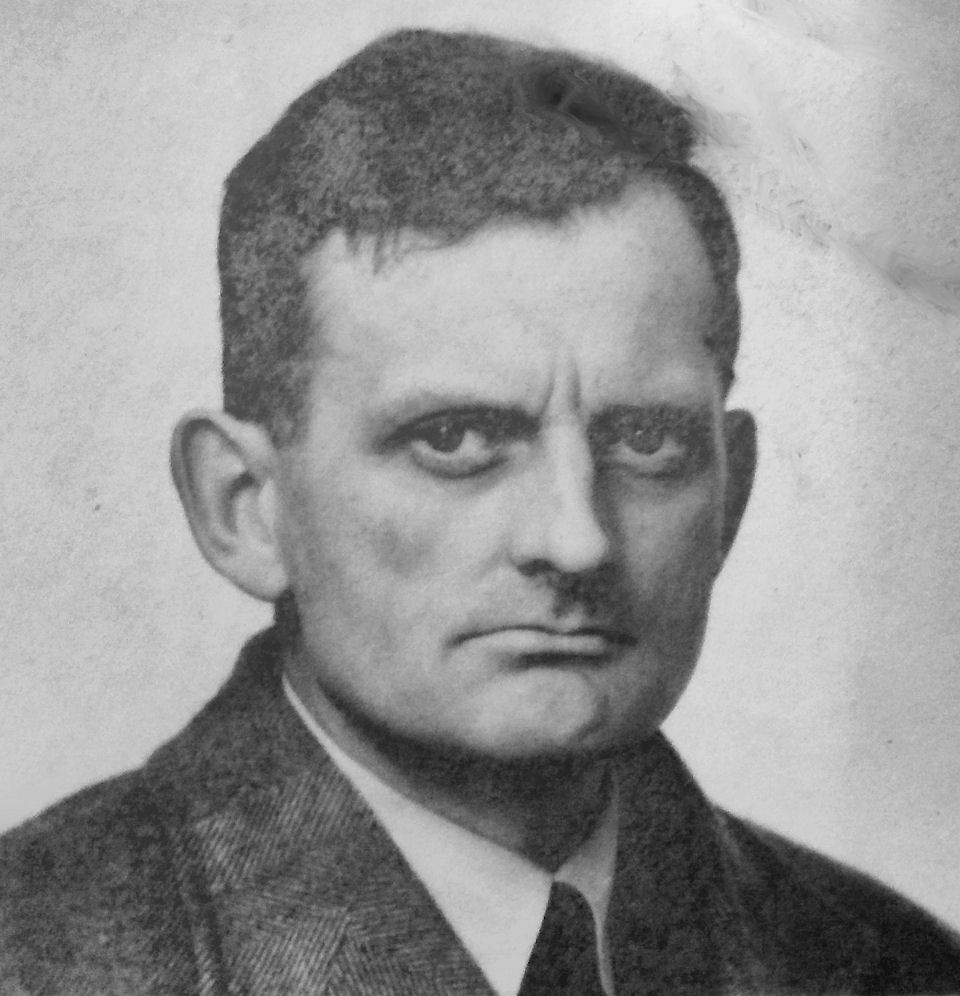 ATA
ATAEd. Bradfield College, Leeds; Lausanne and Zurich Universities. B.Sc.
a Company Director
Sgt pilot instructor in RAF; discharge on medical grounds, Nov-40
prev. exp. 2,398 hrs
[Resigned Aug-43, re-instated Apr-44]
"Reliable pilot and good officer when on duty. General behaviour off duty suspect owing to several police visits on private matters"
Hmmm... wonder why the police kept visiting... perhaps because he was (still) a terrible car driver...
Nottingham Evening Post - Tuesday 16 March 1937:
"CITY MOTORIST FINED £10
PENALTY BY WILTSHIRE BENCH
CAUSED TROUBLE TO POLICE
CONDUCT DESCRIBED AS VERY SLACK
Salisbury magistrates yesterday imposed fines amounting to £10 upon Mr. Philip Penrose Bradley, company director, giving an address in The Park, Nottingham, who surrendered to bail charged with five offences under the Road Traffic Act. When the cases were first before the Bench defendant did not appear, and a warrant was issued for his arrest. It was then discovered that he was in a nursing home, and the case was adjourned, bail being extended.
The charges were that he drove a motor car without having in force a policy of insurance; that he failed to produce a certificate of insurance; that he drove without a licence; that he failed to produce his licence, and that he, having been prosecuted for exceeding the speed limit, failed to produce his driving licence to the Clerk of the Court prior to the hearing of the summons.
At the hearing yesterday the Chief Constable (Mr. F. Nixon) said he was now satisfied that the defendant held a driving licence and that he had in force a policy of insurance at the time that the offence was committed, and he therefore asked that those summonses be withdrawn. This was agreed to, and defendant pleaded guilty to the remaining, summonses. Mr. Nixon said when defendant was stopped by the police he promised to produce his policy of insurance and driving licence within five days to the Nottingham Guildhall. This he failed to do. The Nottingham police made several unsuccessful efforts to interview him, and it was only few days ago that the insurance policy was produced. In January summons was sent to defendant for a speeding offence, and with it was enclosed a printed slip instructing him to send his licence to the magistrates' clerk the day before the hearing. On the day of the hearing defendant telephoned to say that he could not attend court, and that he put his licence in an envelope ready to post, but he had forgotten to send it. On January llth he was fined in that court for exceeding the speed limit, and an endorsement of his licence was ordered. He was instructed to produce his licence endorsement, but as no satisfaction could be obtained, further proceedings were instituted."
Tamworth Herald, Saturday 13 August 1938: "A collision happened at the Bodnets cross-roads, Bonehill, on Saturday afternoon, between a motor lorry driven by Herbert Young. Prospect Street, Old Kent Road, London, S.E.I, and a motor car, the driver of which was Philip Penrose Bradley, Malvern Road, West Bridgford."
Derby Daily Telegraph - Saturday 31 August 1940:
"PATROL CAR INCIDENT
Pleading "Not guilty" to driving a motor-car without due care and attention on March 11, Philip Penrose Bradley, Burnaston, was discharged. He was fined 5s. for failing to produce his driving licence and a similar amount for failing to produce his certificate of insurance. Inspector S. Bradwell said that a private car and police patrol car had to brake violently when Mr. Bradley suddenly stopped his car on the Nottingham road without warning. Mr. H. M. Clifford admitted that the only danger was caused by the speed of the patrol car."
--------------
His daughter tells me that "My father deserted my mother in 1946. They had been married for just a few years, and I never had the opportunity to get to know him. His visits were infrequent and, like my mother, he eventually re-married and had more children.
During the 1960’s he served a prison sentence. He embezzled a large sum of money from 'Kennings'. He had worked for Kennings for a number of years and became a company director. It was during his term in prison that he became ill and had a stroke. He was given early release but was eventually diagnosed with lung cancer and he died in 1968 in Nottingham."
"He came from a well known Nottingham family, they were lace manufacturers and also had leather works both in Nottingham and abroad. My mother was Philip's second wife. He married his first wife, Lilian, in the early 1930’s and they had one son, John, who sadly died from polio at the age of approx. 2 years. My mother was introduced to Philip by her older sister and they married early 1940’s.
I do know that he had owned at least two planes of his own. The first one, I was told, was purchased with money his father had given to him to buy a factory in Holland….Philip obviously had other ideas! Unfortunately my father told numerous lies both to his family and especially to my mother. I attended his funeral in 1968 but had not seen him for several years. I believe his third and last marriage was a happy one."
---
He owned:
- a Leopard Moth,
- a 1929 Desoutter I, G-AAPK (bought in Dec 1937),
- a 1933 Comper Swift G-ACGL, registered to 'E Bradley' [presumably his father Ernest Frank Bradley], and
- a 1934 Miles M.2 Hawk, G-ACOC.
-
Bradshaw, Stanley Orton
M.404 2nd Officer Stanley Orton Bradshaw 
b. 2 Feb 1903, London 29 Apr 1941 to 31 Oct 45
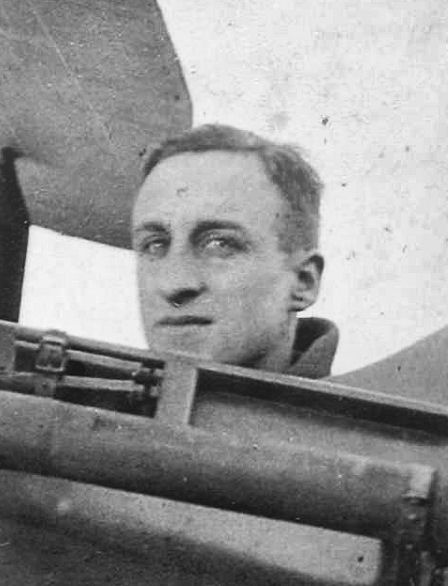 1927
1927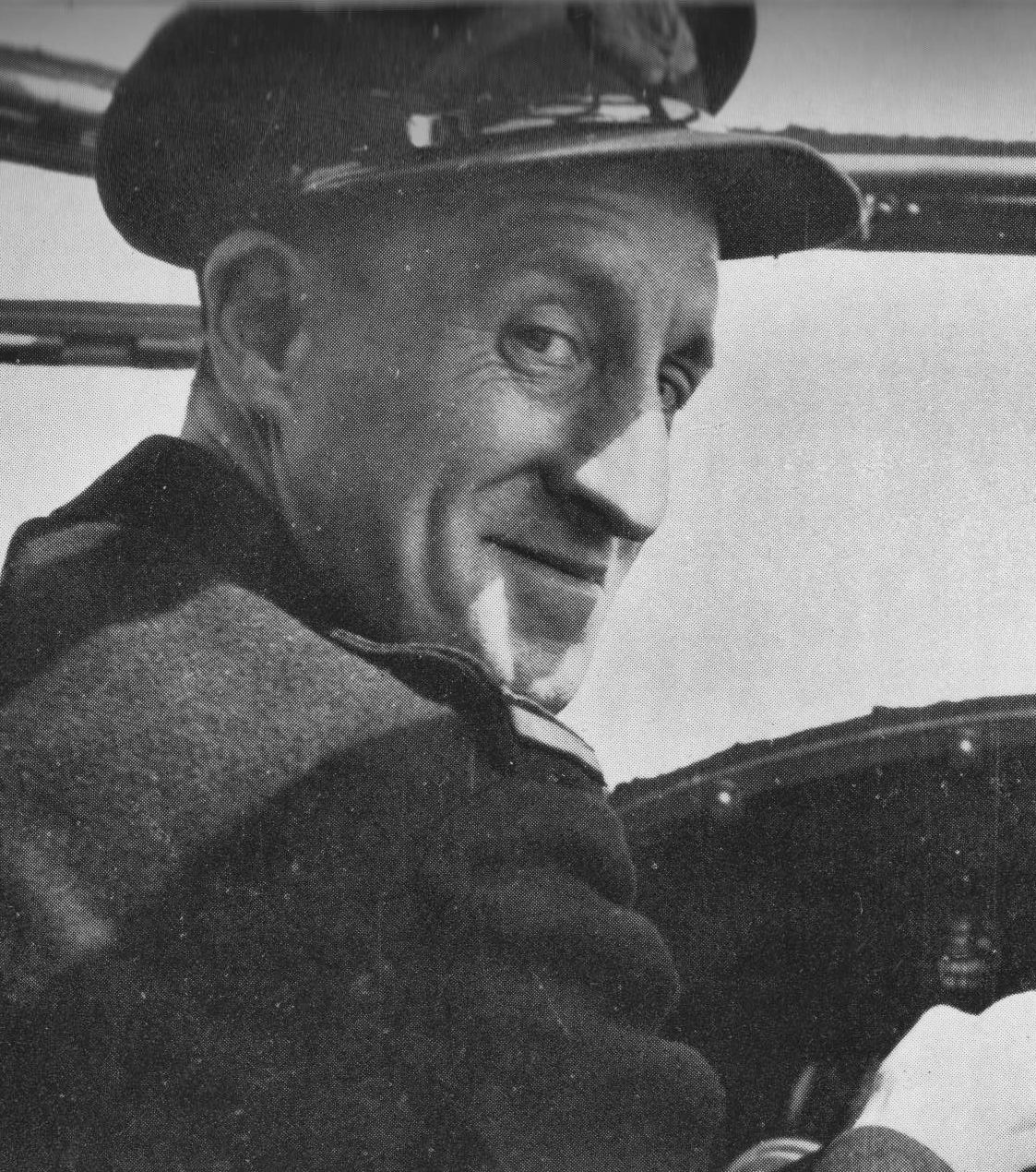 ICCL
ICCLAn aviation journalist (e.g. 'Flying Memories,' 1936) and a prolific and well-known artist, e.g. this from 1931:
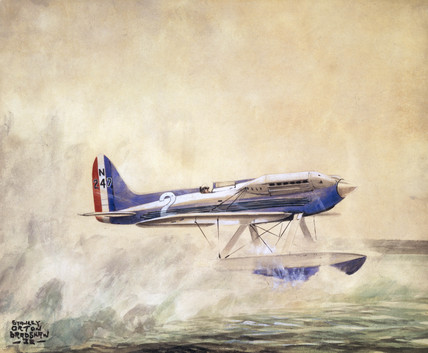
and this, from 1936:
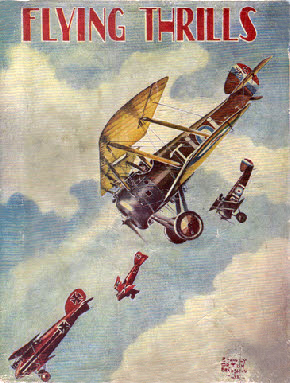
Address in 1941: Fivetrees, Wood Lane, Stanmore Middx
Postings; 1FPP, 6FPP
[Promoted to First Officer 29 Dec 1941, but demoted to 3rd Officer 21 June 1943 after being absent through injury following a forced landing in a Hurricane, from 27 Mar 1942 to 15 Nov 1942]
Jan-43: "After a long rest from flying owing to his accident this pilot failed to reach the necessary standard on his Class 2 refresher. He has bnow been checked out on Class 1 and after 3 months experience in this class should be given another trial."
By Dec-44 he had qualified for Class 2 and 3, and became "a good reliable and well behaved officer. His knowledge of the country and steady flying make him an excellent pilot."
d. 1950. Flight, 13 Apr: "It is with deep regret that Flight records the deaths, in an air accident at Boston last Friday, of Stanley Orton Bradshaw, pilot, and editorial contributor to The Aeroplane, and of his two passengers, E. J. Riding and N. C. Stoneham. Aged 47, Mr. Bradshaw had been a pilot since 1926 and, following wartime A.T.A. experience, had over 70 types of aircraft in his logbook. In addition, he was a noted aviation writer and painter of flying scenes. He had a happy way of transmitting his intense enthusiasm for aviation, particularly private flying, to all he met. Mr. Riding, also a writer, was an authority on aero-modelling and light aircraft. The third victim, Mr. Stoneham, was a member of the Redhill Flying Club."
Download ATA Pilot Personal Record (.zip file):
-
Brandt, Laurent Frederick Ronald
-
Brasher, Ronald David Henry
M.1105 3rd Officer
(Seconded from RAF)
Ronald David Henry Brasher 
b. 3 Oct 1922, Yorkshire 20 Jun 1944 to Apr-45
prev. RAF, and an Engineer's clerk
d. 1986, Derbyshire
-
Brinjes, Dennis Gerald
M.319 First Officer Dennis Gerald Brinjes 
b. 11 Feb 1918, Hornsey, London 21 Oct 1940 to Oct-45
(Ground Duties from Apr-44)
prev. aircraft engineer
RAF 1939-40
Accidents Committee from Oct-44
d. 2011, Bideford
-
Broadsmith, Joan Irwin (W.---)
W.--- Cadet Joan Irwin Broadsmith 
b. 23 Jul 1917, Withington Chester 24 Jun 1942 to 23 Aug 1942
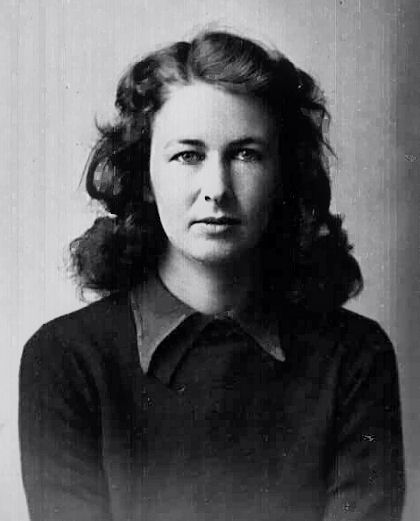 RAeC 1939
RAeC 1939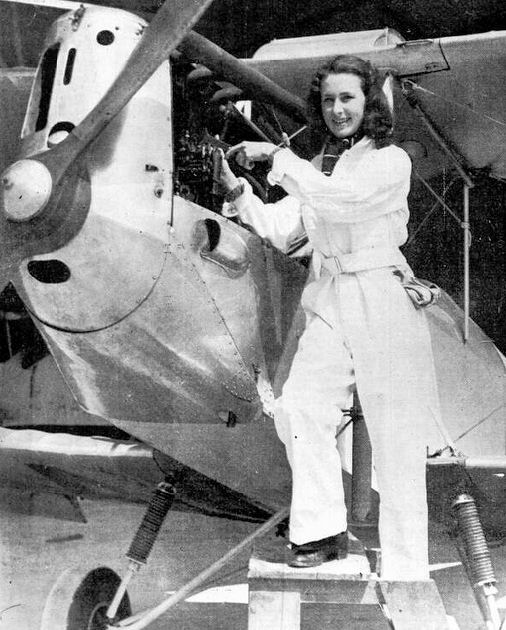 Empire Air Day 1939
Empire Air Day 1939Ed. Upper Chine School, Shanklin, IOW
prev: Ambulance Driver in Islington Green
prev exp: 30hrs solo
Her father, Harry Edgar Broadsmith (d. 1959 in Australia), was one of the original directors of Saunders-Roe.
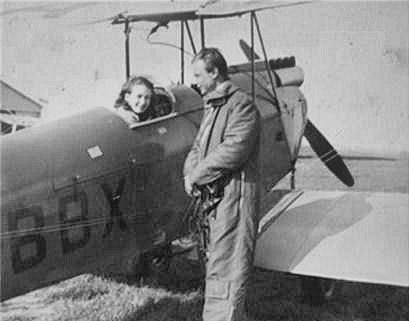
"Adam Karolyi, right, with his girlfriend, Joan Broadsmith, in the cockpit of his plane. Adam was 21 when he died of his injuries after he crashed his plane in Sandown, just days before the Second World War started [actually G-AAAL belonging to the IOW Flying Club, on the 21 Aug, 1939]. He had planned to join the RAF."
[G-ABBX, in the photo above, also belonged to the Isle of Wight Flying Club].
Adam, 21, was flung from the wreckage but suffered 75 per cent burns and died in Shanklin Cottage Hospital the next day.
"His girlfriend, Joan Broadsmith, daughter of Saunders Roe’s managing director Harry Broadsmith, was so traumatised by Adam’s death she doused herself in paraffin and set herself alight but survived. "
See their story here: http://www.iwcp.co.uk/
In 1939, "Interested in aeroplanes since she was 14, and with a Flying Officer brother in the R.A.F., Empire Air Day is bound to hold a special interest for Miss Joan Broadsmith, of Cowes, who is working at Lee Airport, Sandown, to secure her ground engineer's licence. Miss Broadsmith, who is 21, is a member of the Civil Air Guard." Portsmouth Evening News, 18 May 1939
Address in 1942: 18 The Boulders, Binstead, Isle of Wight.
[Contract Terminated by ATA]
1961, in the Court of Appeal: "Joan Irwin Broadsmith (Spinster) v Dora Helen Mary McCubbin (Widow):
Lord Justice Sellers: "Miss Broadsmith, the court has heard your submission and we have had the judgment of the learned judge read to us. Having given the best consideration we can to all that you have said, we see no reason to think that the learned judge was wrong. His judgment appears to us to be right and unimpeachable, and your appeal must be dismissed."
d. Feb 1993, IOW
-
Bromley, Thomas
M.892 2nd Officer (Seconded from RAF) Thomas Bromley 
b. 10 Oct 1922, Wigan 18 Mar 1943 to Apr-45
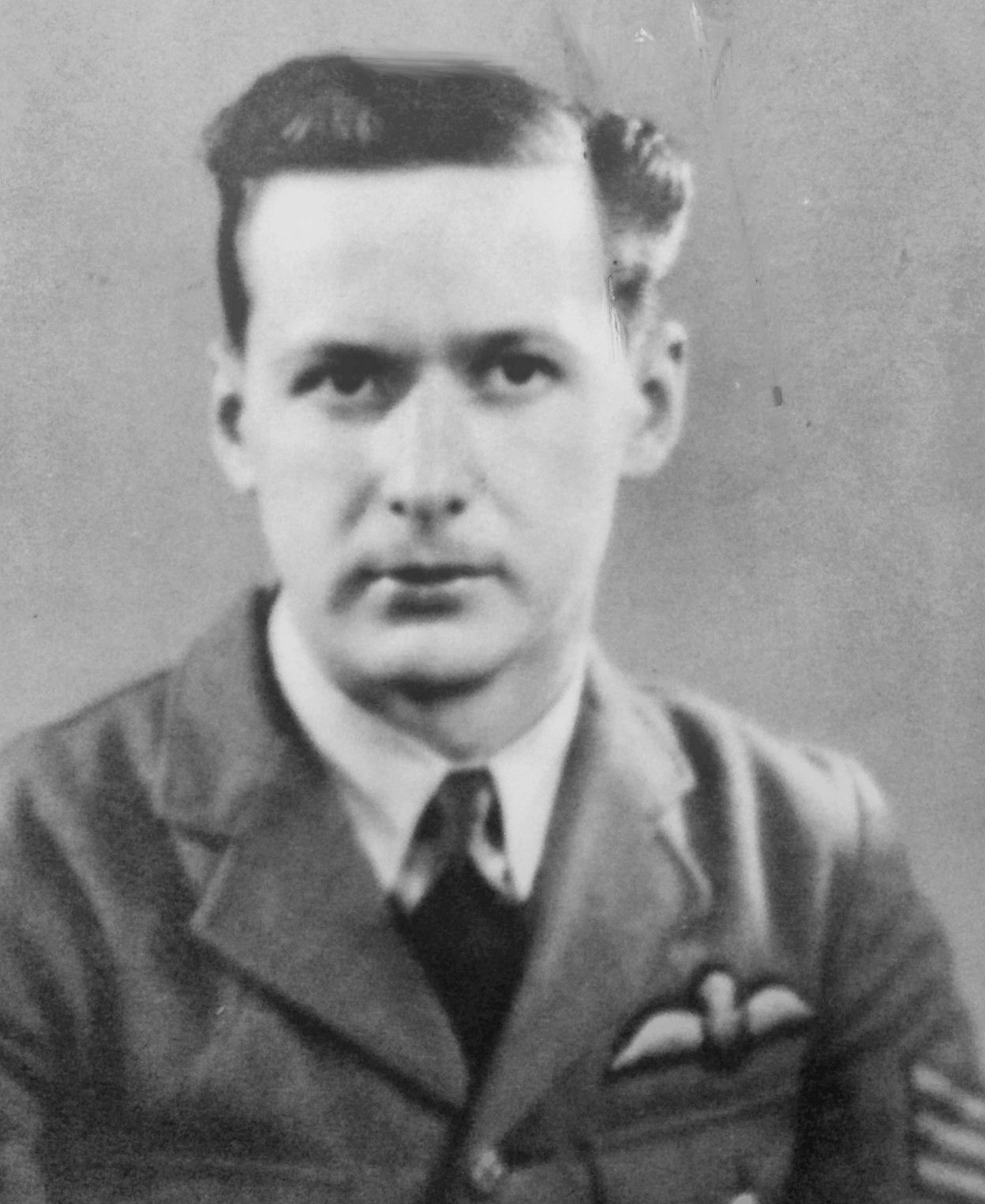 ATA
ATAprev. RAF, from Feb-1942, and an Analytical Chemist
-
Brook, Harold Leslie
M.---- * 2nd Officer Harold Leslie Brook DCM 
b. 11 Oct 1897, Bradford 28 Oct 1940 to 3 May 1941
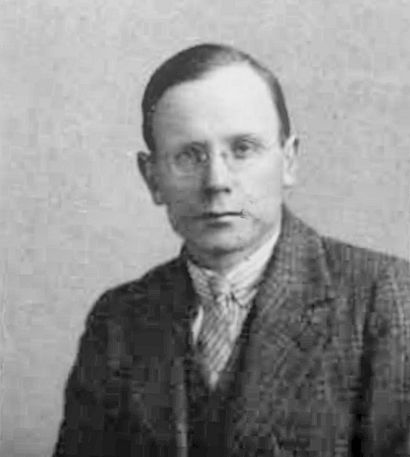 1933
1933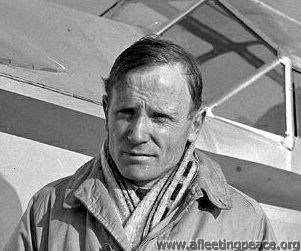 1934
1934Father: John Wilson Brook, a manufacturer; Mother: Lilian [Charlesworth]
Sometimes used the surname 'Brooke'
At the age of 13 he, his parents and his elder sister Violet were 'boarders' at 17 Farcliffe Terrace, Bradford; the landlady was a Mrs Florence Wood.
"He joined the Royal Field Artillery on August 20, 1914, at the age of 16, obtained his commission soon afterwards, and, despite a couple of wounds, served five years in France and India." - Flight
RAeC Certificate 11595 dated 29 Oct 1933, taken at York County Aviation Club
Address in 1933: 6 Lancaster Park Rd, Harrogate, Yorks
"Restored to his family, he remained a normal civilian until Yorkshire began to build and fly sailplanes and gliders. These occupations kept him mildly diverted until the approach of his 37th birthday. Then he began to yearn for more horse-power. The York County Aviation Club at Sherburn-in-Elmet offered a likely fulfilment of this secret ambition. So, in August, 1933, Brook placed himself in the hands of Instructor Cudemore, and after four hours' instruction became a soloist with serious designs on the MacRobertson Handicap, for which Phillips and Powis have built him the first of their Miles 'Falcons'.
What happened between last autumn and this spring is now almost historic. Brook bought the "Puss Moth" G-ABXY (Heart's Content) in which the Mollisons had crossed the Atlantic, and, with a total of 43 hr. in his logbook, pushed off solo from Lympne to survey the route to Melbourne. That was on March 28, 1934, at 5.20 a.m.
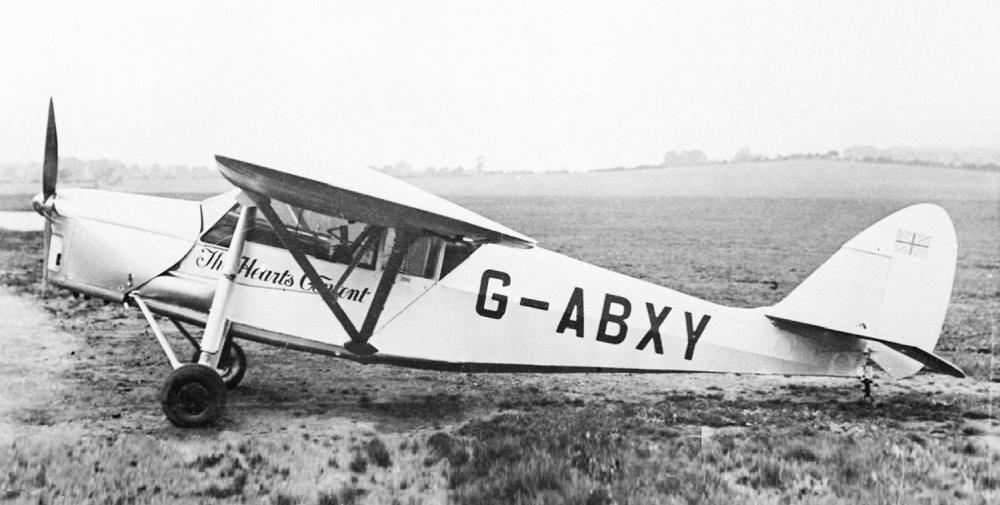
By noon the incident had closed. Describing it a few days later Brook said that, while flying through very dirty weather over France, he was forced down from 12,000 ft. by ice formation on the wings, and, before he knew how or why, the side of an unsuspected mountain was rushing up at him out of the murk. Guided by some uncanny sixth sense, he brought off a bloodless landing on the mountain proper. The scene of this epic of the air was Genolhac, in the Cevennes. With some local help he salvaged the "Gipsy Major," brought it back to England, and has had it installed in Heart's Content II.
Brook's next attempt on the Australian record will not be solo. If expectations are realised, he will be accompanied by two lady passengers" - Flight
-------------- The 1934 MacRobertson Race ---------
He just scraped up the minimum 100 hrs solo flying time required to enter the 1934 England-Australia 'MacRobertson' Race, and ordered a newly-designed Miles M.3 Falcon from the Phillips and Powis factory.
G-ACTM was the first Falcon to fly, on 12 Oct 1934.
A month before the start of the race, however, it didn't have any seats, and was in "a very unfinished condition". Harold was not impressed by "those fools at Reading... this is not the first time they have omitted to do something".
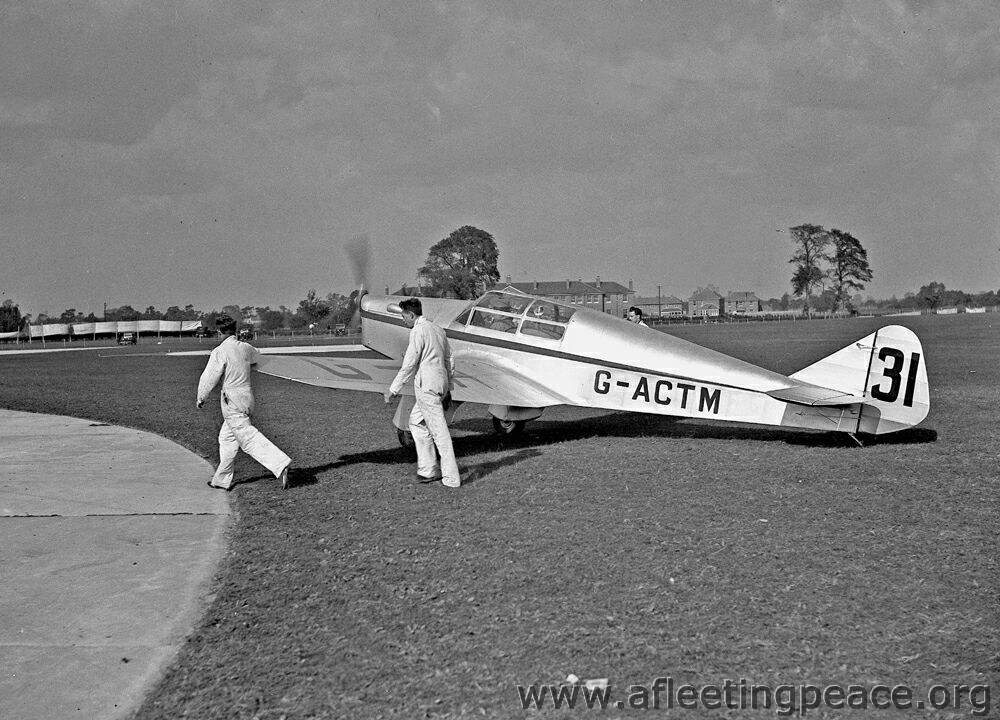

The race started on the 20 Oct 1934; he and his passenger, Miss Ella Lay, made it all the way to Australia but he was disqualified for 'arriving too late'.
He then flew back from Australia in record time; you might like to see him talk about his record-breaking flight (on the other hand, you may have some drying paint that needs watching);
if so, click here:
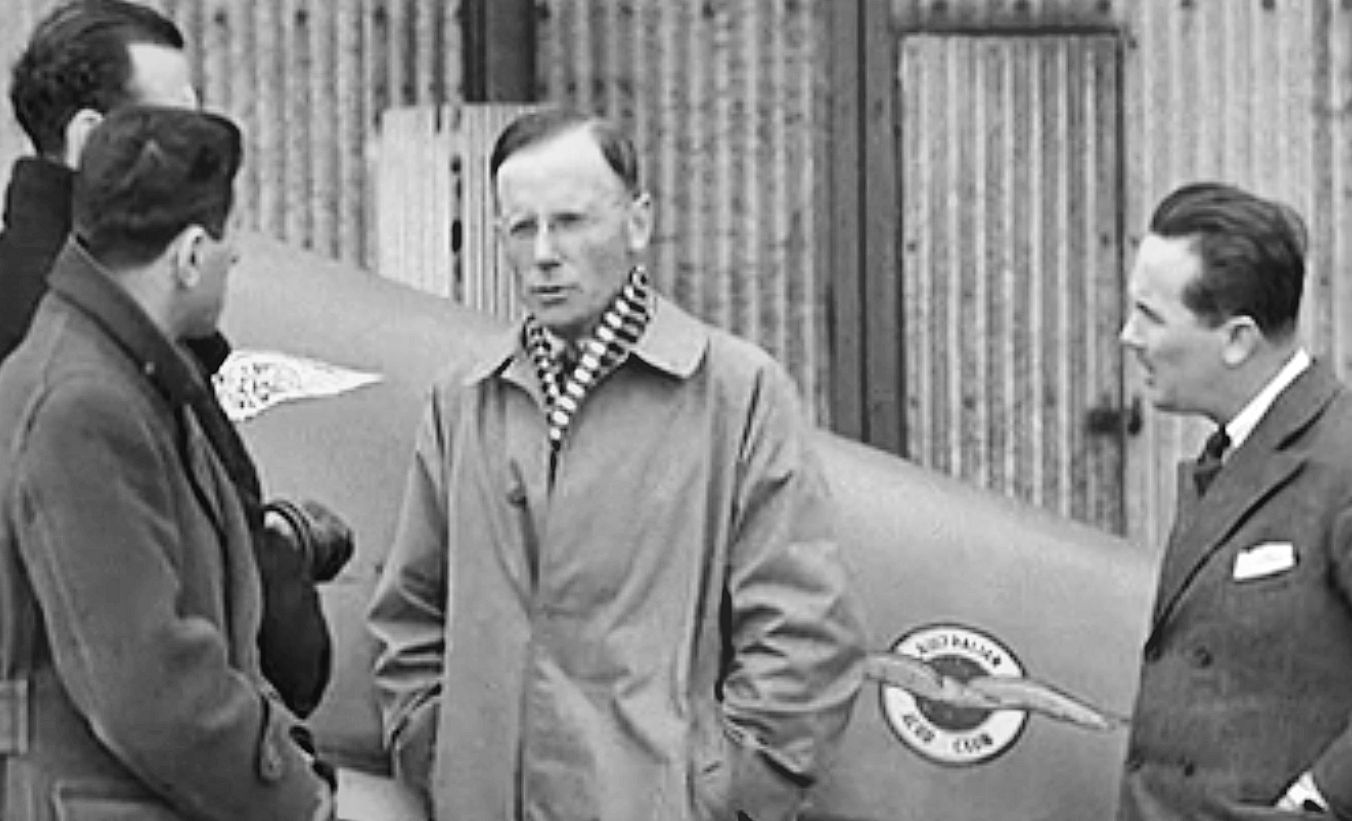 Record Flight From Australia - British Pathé (britishpathe.com)
Record Flight From Australia - British Pathé (britishpathe.com)[He is described as 'an accountant - but see later...]
"Last Sunday afternoon, at 3.55 p.m., the original Miles "Falcon" landed at Lympne, having flown in 7 days 19 hr. 50 min. from Darwin, North Australia, with Mr. H. L. Brook, of Harrogate, at the controls.
The pilot thus beat the unofficial "solo" record of Mr. C. J. Melrose by 13 hr. 10 min., and the officially recognised performance of Mr. J. A. Mollison by 1 day 2 hr. 25 min. The shortest time for the Australia-England trip is still,of course, the 6 days 16 hr. 10 min. of Cathcart Jones and Waller in a "Comet".
After leaving Darwin at 5.30 a.m. on Sunday, March 24 (Australian time), Mr. Brook's time-table was as follows:-
Sunday night, arrived Rambang;
Monday, Penang;
Tuesday,Rangoon;
Wednesday, Calcutta;
Thursday, Karachi;
Friday,Athens;
Saturday, Rome;
Sunday, Marseilles (9.25 a.m.) ;
Lympne (3.55 p.m.).
The Timor crossing, he told a member of the staff of Flight, was "rotten", with rain, low clouds and heavy head winds. On the trip from Penang he landed on the delta near Calcutta. Over the Sundarbans low clouds and darkness caused him to take this measure rather than to fly on, possibly missing Calcutta, and, as he put it, perhaps making a crash landing through shortage of petrol.
Perhaps the worst section of the trip was that between Athens and Rome, particularly the portion over the channel of Corfu, where a gale was encountered. At Brindisi Mr. Brook was advised not to proceed, but he pushed on and crossed the Apennines in a snowstorm.
And what of the man himself? He is a thirty-eight-year-old Yorkshireman, who, despite the newspaper stories, has never been an accountant in his life.
When he was younger he indulged in motor racing and later built a few sailplanes and gliders. Then he joined the York County Aviation Club and went solo after four hours' instruction. He next bought Mr. J. A. Mollison's "Puss Moth" Heart's Content, and set out for Australia to survey the route to Melbourne, for he had decided to enter the MacRobertson Handicap. But ice formation forced the "Puss Moth" down on a mountain side in the Cevennes. Neither Brook nor the "Major" (which, it should be remembered, had already been flown over the South Atlantic) was rendered hors de combat, however. The engine was salvaged and Brook brought it back to England, where it was installed in the first of the Miles "Falcons" which then was fitted with extra tanks for the race.
During the event it carried a lady passenger and a large helping of appalling luck (no connection is suggested between the two facts!) Suffice it to say that the Australian trip, a large portion of which was made in easy stages, took about twenty-six days.
During his stay "down under," Brook worked until the "Falcon" and its engine were in tip-top condition before starting his almost unheralded flight.
Of travelling in the "Falcon" he says that, compared with flying in an ordinary aeroplane with open cockpits, it was" like travelling in a saloon car instead of on a motor cycle". The veteran "Gipsy Major" was run throughout the flight at 2,100 r.p.m." - Flight
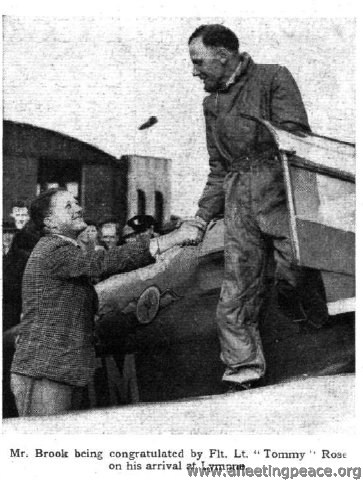
He briefly became a rather unlikely celebrity, endorsing products such as Terry's Springs:
"H. L. BROOK writes to TERRY'S
Dear Sirs,
I should like to take this opportunity of congratulating you on the excellence of your springs in my Gipsy 6 Engine. In a record-breaking flight of this description the engine has to be run for long periods in extreme temperatures, and at a higher rate of revolutions than normal, and for a valve spring to break would spell disaster. I had never at any time any fear of this happening with your springs, and they are now at the end of the flight in just as good condition as they were at the start.
Yours faithfully,
(signed) H. L BROOK."
-------------
In 1935 he tried to beat the England to the Cape record in his Falcon, but had a 'mild crash' while landing after dark at Mersa Matruh, about 260 miles E.N.E. of Cairo. He was uninjured.
m. 26 Mar 1936 in Harrogate, Madge Marion [Edwards]
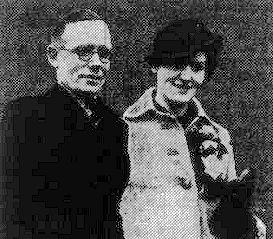 Yorkshire Post
Yorkshire PostHe then owned G-ADZO, a 1935 Percival D.3 Gull Six which competed in the King's Cup for 1936, coming 7th out of 26 piloted by Roly Falk. Amy Johnson used it to break the England-Cape Town double journey record in 1936, and Harold himself broke the Cape Town to England record the following year.
It was scrapped in May 1938, after he made a forced landing on a sandbank in the Wash, after running out of fuel, on a flight from Skegness to Norwich:
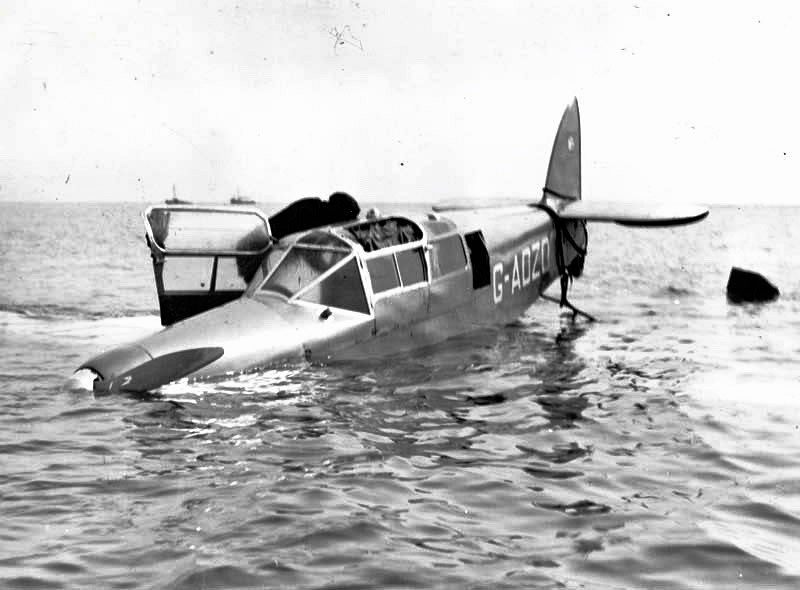
"Harold, (who recently acquired a garage near Snitterfield, Warwickshire) said, "Just think, one does long-distance flights and nothing happens, and then over a place like the Wash a silly thing like this occurs". - Coventry Evening Telegraph - Friday 27 May 1938
Despite Harold saying that it was insured for £1200, its resulting value of £32 19s 7d was eventually divided between the 22 Lynn fishermen who salvaged it.
In 1936, he flew to Cape Town in his Hillson Praga G-ADXL (previously OK-PGC). Mercifully, there don't appear to be any interviews about this one. The aircraft was sold in South Africa and re-registered ZS-AHL, and in 1953 converted to a glider.
 (similar to this one)
(similar to this one)prev. RAF Pilot Officer, Administrative and Special Duties Branch in May-October 1940.
Postings:
"NEWS from Southern Rhodesia reports the arrival there of Mr. Harold Leslie Brook, formerly of Lancaster Park Road, Harrogate, who became world famous in 1935 by breaking the record In a solo flight from Australia to England, and two years later broke the record created by the late Amy Johnson In a solo flight from Cape Town to England.
"He has settled In Southern Rhodesia with his wife and three children", states the report. "He has bought a ranch of 12,000 acres in the Midlands where, in addition to raising cattle, he plans to grow a little tobacco and quite an acreage of sorghums."
Mr. Brook, who is 54, has been farming in South Devon for the past 10 years, and decided to settle in Southern Rhodesia because, to quote his own words, "my wife and I think our three children - there are two girls aged 12 and eight and a boy of six - will have a better future here than they would in England."
The flight of which Mr Brook was most proud was the one he made from England to Cape Town in 1936 to demonstrate the merits of ultra-light aeroplanes. It took 16 days 4½ hours in a baby 'plane fitted with a two cylinder motor cycle engine, the retail price of which then was only £385. It was designed for short trips of from 300 to 400 miles, but he covered the 8,600 miles at an average fuel consumption of 33 miles per gallon. When referring to the breaking of records on one occasion said: " I do not think they serve any useful purpose. It is really only a question of the machine. Fast machines will continue to clip hours off records."
Interesting to recall that he flew from London to Harrogate in 1937 with the news reels of the Coronation." - Yorkshire Post and Leeds Intelligencer - Monday 08 September 1952
d. 1965 ?
* ATA file not seen
-
Brooke-Smith, Thomas William
M.100 First Officer Thomas William 'Tim' Brooke-Smith 
b.14 Aug 1918, Kirton, Lincs 27 May 1940 to 31 Oct 1942
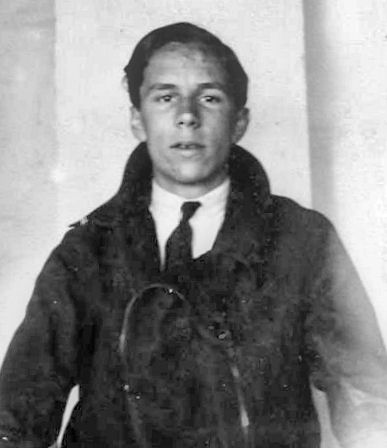 1935
1935Father: Thomas Edward Smith
Ed. Bedford School; Chelsea College of Aeronautical Engineering
prev. aircraft engineer - British & Continental Airways, Croydon from 1934; pilot for Air Despatch Ltd
Address in 1940: 31 Liverpool Rd, Chester
Postings: 8FPP
Suspended for two days with loss of pay in Apr 1942, for "flying in bad weather against orders"
2 accidents, one his fault:
- 1 Mar 1942, he stalled his Beaufighter during a crosswind landing and damaged the port wing
- 30 Apr 1942, after landing in a Boston, a tyre burst.
"above average. A very capable and experienced pilot"
later Chief test pilot for Short Bros. and Harland
"Mr Brooke-Smith is married and has two children, Simon and Selina. His principal hobby is shooting, and he also plays golf" 1951
d. 1991, Poole
-
Brown, George Gilbert
M.1117 3rd Officer
(Seconded from RAF)
George Gilbert Brown 
b. 9 Feb 1922, Finedon, Wellingborough, Northants 20 Jun 1944 to Apr-45
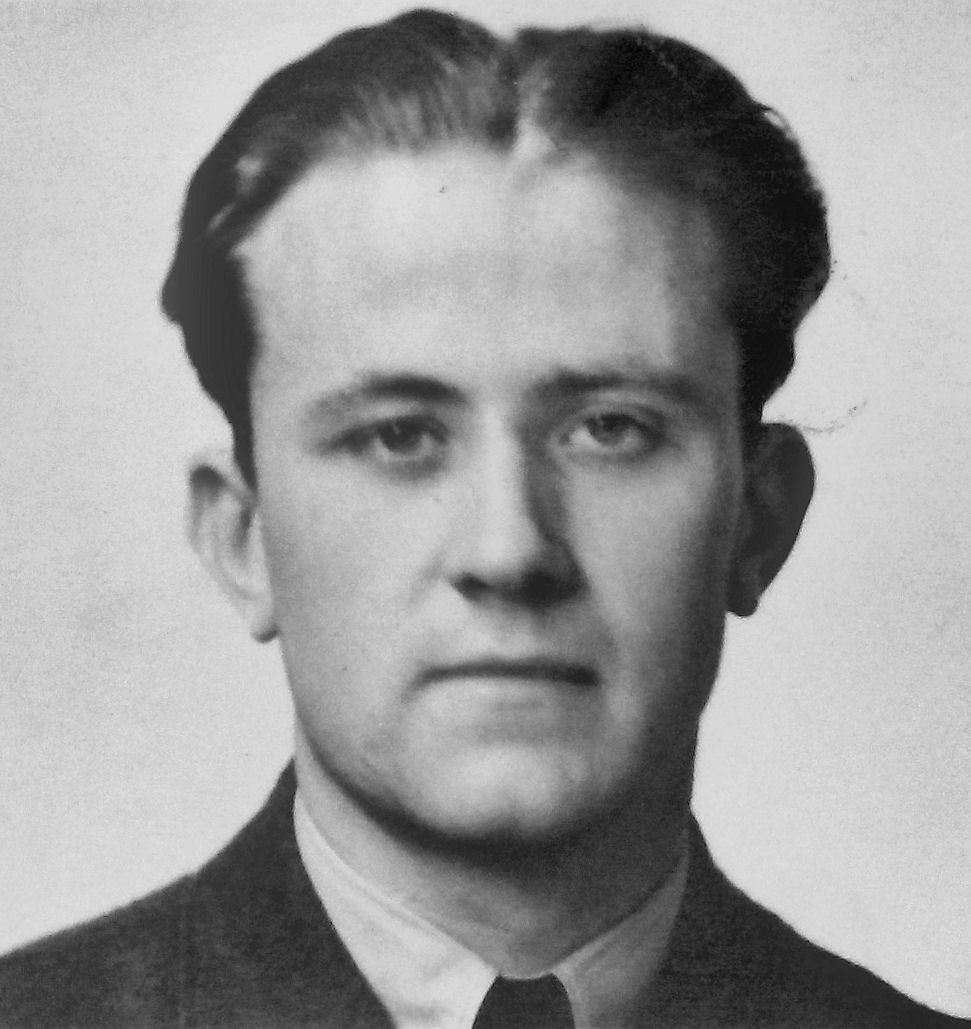 ATA
ATAprev. RAF, and an electric loco driver
d. Feb 2004, Coventry
-
Brown, James Waldron
M.1057 3rd Officer
(Seconded from RAF)
James Waldron Brown 
b. 6 Aug 1918, Liverpool 23 May 1944 to Mar-45
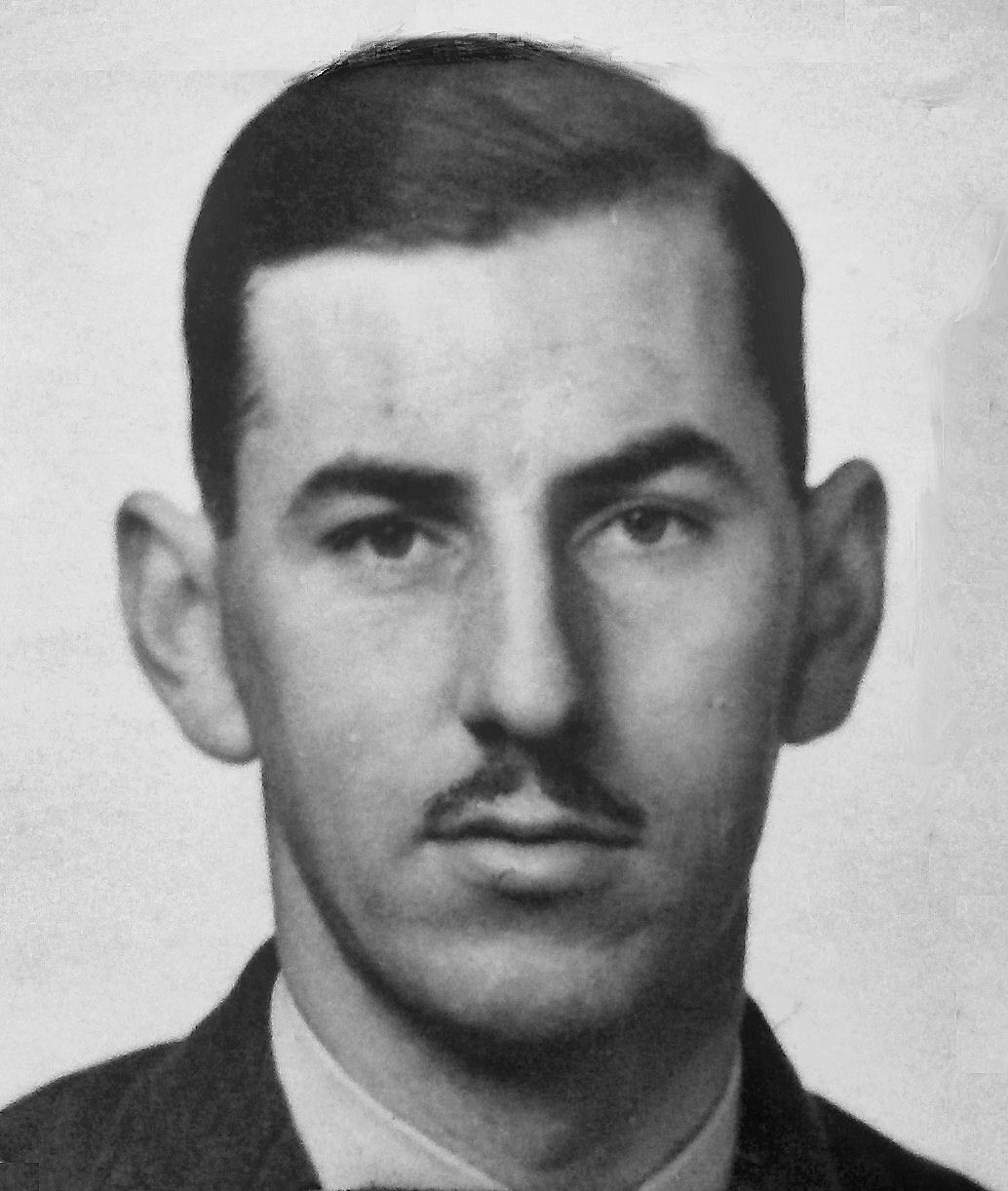 ATA
ATAprev. a draughtsman
RAF from May-41 to May-44
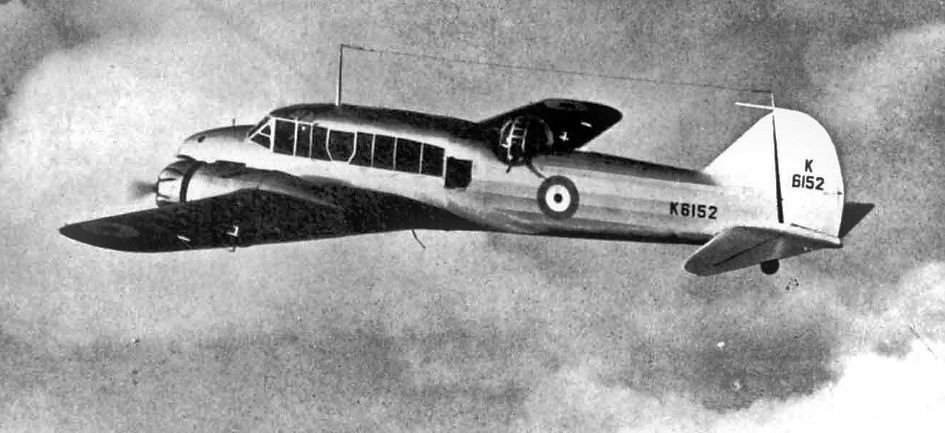
d. 20 Mar 1945 (Died in ATA Service) - passenger in Anson I DJ471 (pilot Frank Hill, also killed) which collided with a Typhoon at RAF Aston Down, Glos.
Both aircraft were approaching to land, but neither pilot could see the other; the Typhoon struck the Anson from behind and above.
-
Brown, Kenneth William
M.876 First Officer [Seconded from RAF] Kenneth William Brown 
b. 2 Jul 1920, Bulwell, Nottingham 28 Feb 1943 to Apr-45
prev. a teacher
-
Brunskill, Eric
M.806 First Officer (RAF Sgt)
[Seconded from RAF]
Eric Brunskill 
b. 10 Sep 1914, Spennymoor, Co. Durham 19 Nov 1942 to 23 Jan 1944
In 1939, he worked for Warwickshire County Council on (honestly) "Egg Laying Trials"
prev. RAF from 3 Mar 1941
prev. exp. "some experience on fighter types, including Spitfires", in UK, Miami and Oklahoma, USA
Postings: 3FPP
3FPP from 24 Jul 1943
"gave the impression of being casual and rather uninterested.. this may be only his manner but he should realise it is apt to give the wrong impression to others"
"An average pilot who has tried hard and made normal progress"
One accident, not his fault:
- 23 Jan 1944, the accident in which John Hawkey was fatally injured and Pilot Officer Edward Vincent suffered severe burns; his Beaufighter was hit by a Mustang landing on the wrong runway at Hawarden.
Eric was admitted to Derby Royal Infirmary and then RAF Hospital Cosford with burns to his face and hands, transferred to the Queen Victoria Hospital in East Grinstead on 19 Oct 1944 and became a member of 'The Guinea Pig Club' - one of 649 Allied Aircrew treated there for burns injuries.
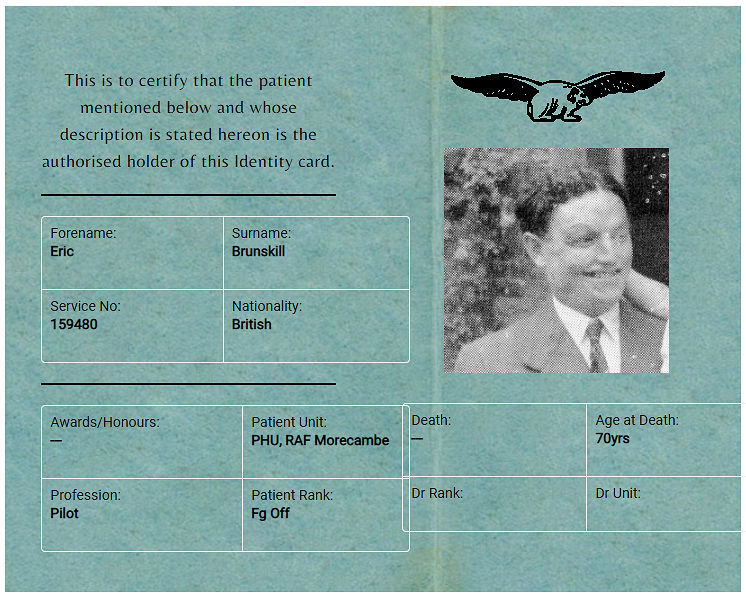
https://www.eastgrinsteadmuseum.org.uk/
m. 1946 in Cambridge, Muriel Maud Allgood; one son Rupert b. 1947
d. 24 Nov 1983 - Derby
-
Burnhill, Charles Sykes
M.1040 3rd Officer Charles Sykes Burnhill 
b. 9 Nov 1921, Leeds 28 Dec 1943 to 30 Sep 1945
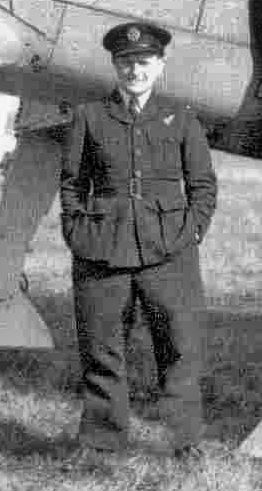
http://www.airtransportaux.com
(so may be wrong)
Ed. Roundhay, Leeds
m. 1944 Helen [Whitehead]
prev. Architectural Draughtsman for A Kershaw & Sons;
RAF Sgt, Jun-41 to May-43
Address in 1943: 41 Clifton Terrace, Leeds 9
later Back Bower Farm, Gee Cross, Hyde, Cheshire
Postings: 7FPP
d. Jan 2010 - Leeds
-
Burns, Harold
M.434 Flight Captain Harold Burns 
b. 12 Jun 1913, Barnsley, Yorkshire 20 May 1941 to 30 Nov 1945
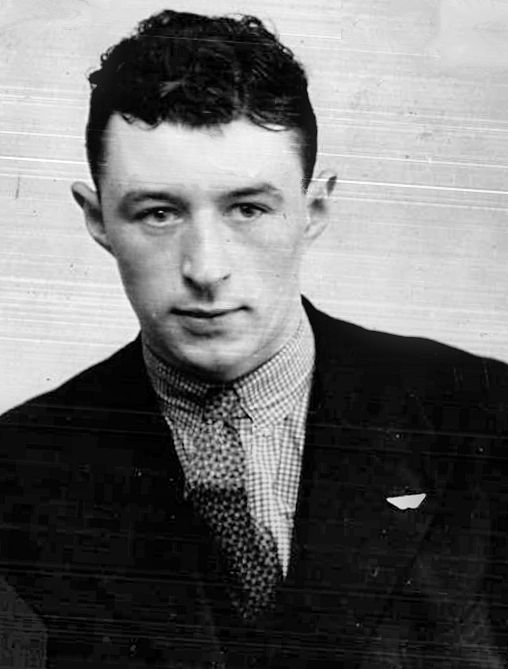 1936
1936 ATAM
ATAMMoved to Congleton when his father became a partner in Wadesons, later Burns Garages:
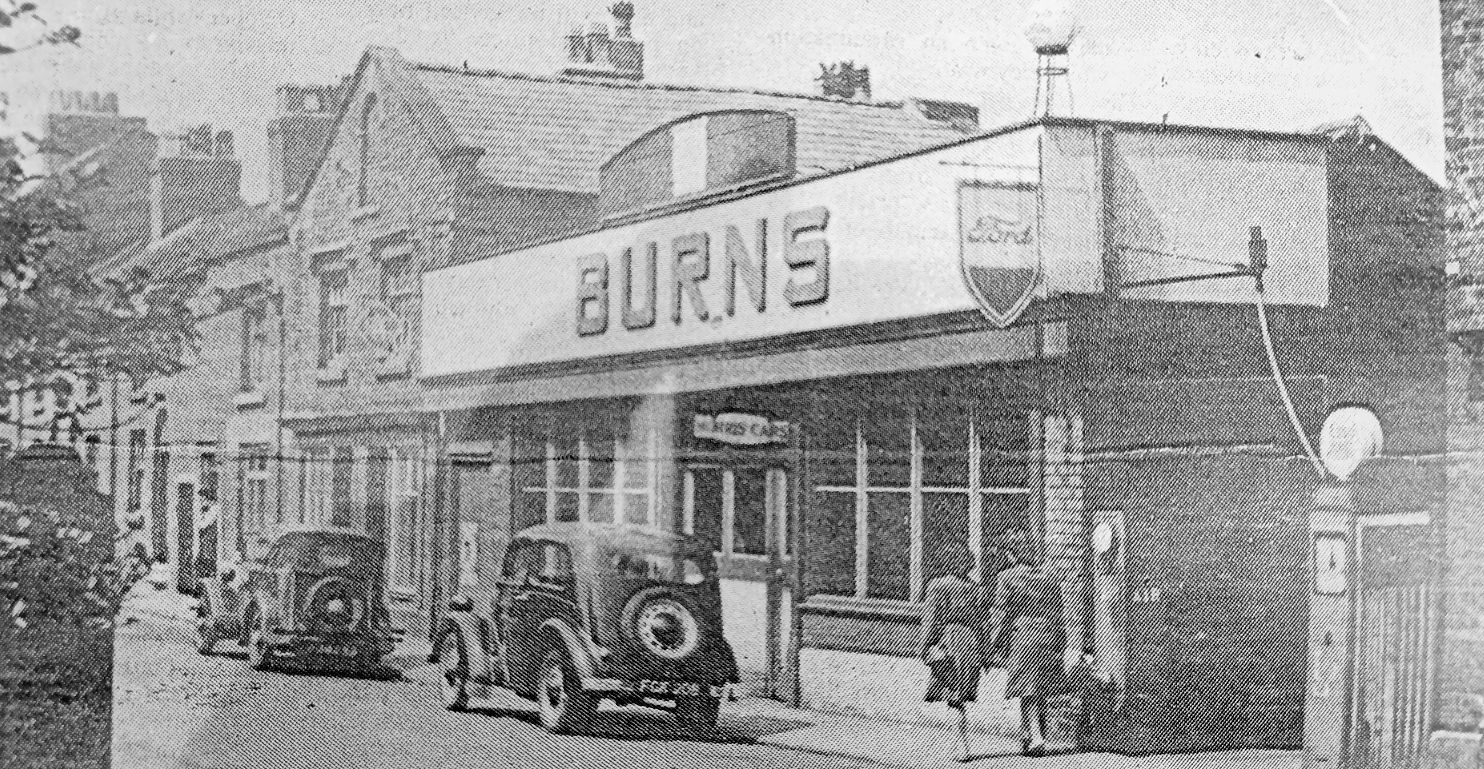
RAeC Certificate 13805 dated 27 Mar 1936, taken at North Staffs Aero Club on Miles Hawk
prev. a motor engineer
Address in 1936: "Dundella", Bromley Rd, Congleton, Cheshire
prev. exp. 56 hrs, including this:
"CONGLETON PILOT'S ESCAPE.
Disaster overtook Mr. Harold Burns, of Congleton, when making a flight from the Heir Aerodrome on Sunday in a Flying Flea which he had constructed himself, with the assistance of his father.
He had previously flown the machine in the Congleton district, and had made several successful flights at Heir on Sunday before the crash. It is stated that the accident occurred because the pilot lost height. The machine struck the ground with great force and was wrecked, and eye-witnesses were amazed to see Burns extricate himself from the wreckage apparently not seriously injured. He appeared to be only slightly upset by his narrow escape. and remarked that it was "part of the flying game".
The pilot's father was at the aerodrome at the time and superintended the removal of the wreckage. Burns received medical attention at the North Staffs Aero Clubhouse on the aerodrome." - Crewe Chronicle - 11 Apr 1936
m. 1938 Millicent [Parker]
Postings: 5TFPP, 14FPP, 3FPP
Class 5 (4-engine) pilot
5 accidents, 1 his fault:
- 3 Nov 1941, Commended for a forced landing near Evesham in Master I W8734 after engine failure
- 20 Dec 1942, he failed to correct the landing swing in Spitfire Vc ES318, ran off the runway and nosed over
- 23 Mar 1943, the port undercarriage of his Wellington XI HE372 collapsed after landing at Middleton St. George, due to a defect,
- 27 Mar 1943, whilst stationary on the perimeter track at Ringway, the tail of his Argus I EV795 was struck by a taxying Fulmar
- 20 Apr 1945, after a normal landing at Ringway in Firefly II Z1870, the undercarriage collapsed due to a technical fault.
"A good all-round ferry pilot with a capacity for hard work. He is thorough in his duties and can be relied upon at all times. He has ferried over 600 aircraft to date"
"An accurate pilot who flies well, but is inclined to be somewhat careless in drill, and his reactions in an emergency are somewhat slow.
Totals: Single-engine types: 423 hrs, Twins: 636.30 hrs, Multi-engine: 283.25 hrs.
d. 30 Jul 1983 - Congleton

Download ATA Pilot Personal Record (.zip file):
 Thanks to Alan Weeks
Thanks to Alan Weeks -
Burnside, Daphne Alice (W.116)
W.116 3rd Officer Mrs Daphne Alice Burnside 
b. 19 Mar 1918, London 6 May 1943 to 11 Sep 1944
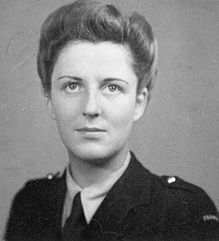 ATAM
ATAMNot in 'Forgotten Pilots'
nee Humphrys
Father: Major Nugent Winter Humphrys (Manchester Regiment, BEF from 14 Aug 1914, d. 1931),
Mother: Blanche Ada de Vivefay [Wilson] (m. Apr 1926 Sidney A Gaudion)
Ed. Wycombe Abbey
Sailed to Gibraltar with her mother in Oct 1935, was in Colombo in 1936, (Blanche sailed back to the UK in Jun 1937 and Aug 1938), sailed back to UK from Canada in Sep 1938
prev: Civilian Driver, French Diplomatic Corps
prev exp: 4hrs 30min in Magister, Hawk and Tiger Moth, inc. Palestine, Egypt
Address in 1939: Newton Abbott, Devon
Address in 1943: (mother) 4 Lawrence Mansions, Cheyne Walk, London SW3
m. 1940 William A H B Burnside (a wireless operator)
[ab initio trainee]
Postings: 5FPP, 12FPP, 15FPP
Class I pilot
One accident, not her fault:
- 28 Jan 1944, her Tiger Moth nosed over while taxying, due to a Liberator in front suddenly opening up one of its engines
exp in ATA:
Magister: 102hrs 25min;
Hart: 15hrs 20min;
Fairchild: 67hr 50min;
Moth: 7hrs 25min;
Swordfish: 3hrs 15min;
Harvard: 26hrs 20min;
Hurricane: 5hrs 25min;
Spitfire: 13hrs 50min;
Auster: 3hrs 35min;
Barracuda: 4hrs 45min;
Fulmar: 50min;
Master: 4hrs 10min;
Miles Falcon: 1hr 05min;
Mustang: 1hr 10min;
Proctor: 1hr 25min.
She and William lived in 'Overmead', Lingfield, Surrey [until 1946, when he married Margaret H Grady]
-
Burton, James Richard
M.704 First Officer James Richard Burton 
b. 26 Oct 1914, Selby Yorks 2 Dec 1941 to Aug-45
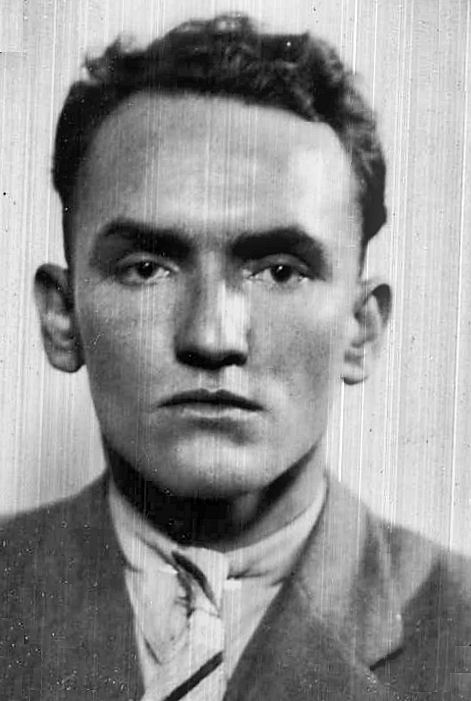 1939
1939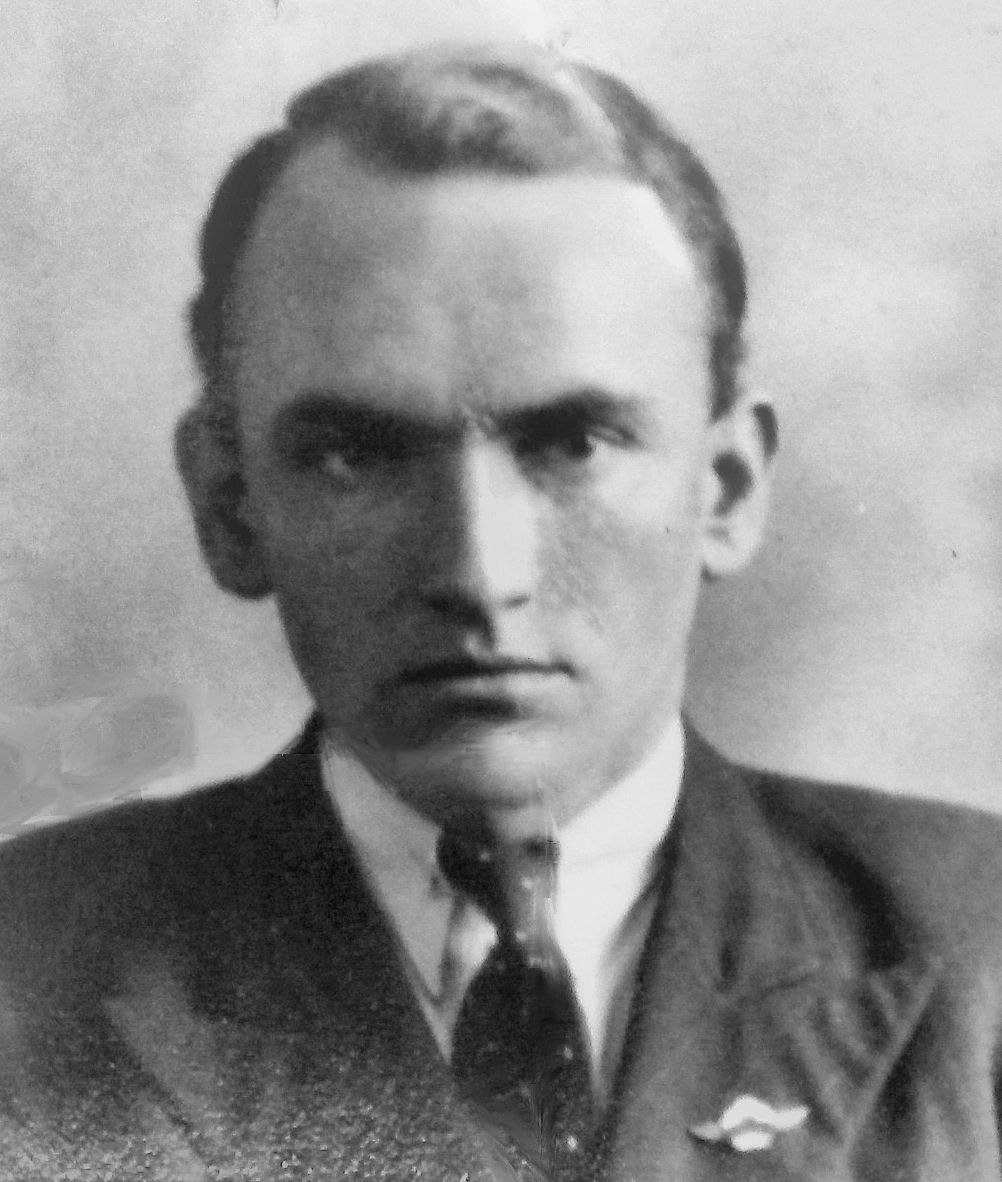 ATA
ATA ATAM
ATAM prev. aircraft fitter for Blackburn Repairs, Yorks.
Address in 1941: 61 Armoury Rd, Selby Yorks
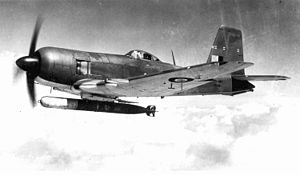
d. 30 Aug 1945 (Died in ATA Service) - Firebrand IV EK635 stalled after takeoff from RAF Brough.
The Accidents Committee reported that the aircraft was seen to take off tail-down, and the undercarriage was retracted (thus increasing the nose-up trim); it then climbed to about 300 ft, stalled and dived to the ground.
buried Selby Cemetery
-
Bush, Francis Joseph
M.5 Captain Francis Joseph Bush 
b. 26 Apr 1904, Banbury Oxfordshire 11 Sep 1939 - Nov-41
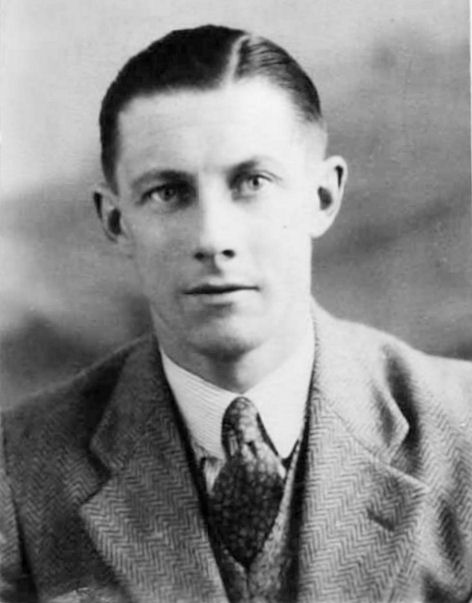 1935
1935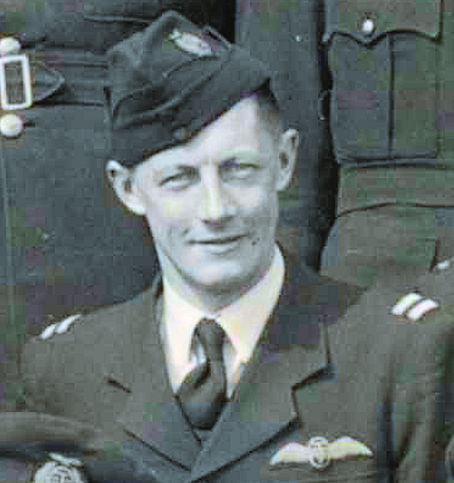 ATAM
ATAMJune 1940
Ed. Uppingham
prev. a Manufacturer and Company Director
prev exp 507 hrs. Owned a 1928 DH Moth G-AAAA, then a 1931 DH Puss Moth G-ABLG (which he bought from Margaret Fairweather)
Address in 1939: 76 High St, Watford, Herts
By the 6 Dec 1939, when he still hadn't started flying, he wrote to the ATA, "I was wondering if my Puss Moth (which is in tip-top order) would eventually be of use in the ATA, or do you advise me to try and sell it to be shifted overseas?
I am still at the above address [Green Park Hotel, Bournemouth] waiting for your instructions when and where to report for duty."
[His Puss Moth was impressed 18 Feb 41, and struck off charge for spares 12 Apr 44]
Certificate of Commendation "After a satisfactory test flight at Kinloss, F/O Bush set off on the 19th December 1940, in a Boston for Prestwick. After about 25 miles the starboard engine failed and F/O Bush feathered the airscrew. He then returned to Lossiemouth and landed there. In spite of the fact that the brakes were out of action, the landing was made without damage to the aircraft. He had never flown the type before, and the ATA at that time could not provide handling notes."
"He has beeen outstanding in the way he has worked, and the example he has set."
"A competent pilot and a very good officer"
3 accidents, 1 of them his fault.

d. 23 Nov 41 (Died in ATA Service) - Liberator AL562 engine caught fire and crashed into the sea south of Burrow Head, Wigtownshire, en route Prestwick to Hawarden.
2nd pilot, F/O EE Uhlich (USA) (q.v.) also killed.
'Gen' Genovese (q.v.) wrote later that "the ship was one of the first Liberators in England, but... through some grim blunder on someone's part the anti-aircraft crew had not been advised of its being a new addition to the British Air Force. Elmer Ulich (sic) was shot down and killed by British anti-aircraft fire."
The official accident report says "Insufficient evidence to establish cause but thought to be through bad weather causing aircraft to catch fire in the air."
The ATA insurers paid his mother Edith and sister Violet £2,000.
buried Maidenhead Cemetery
-
Butterworth, Dennis Mills
M.1061 3rd Officer
[Seconded from RAF]
Dennis Mills Butterworth 
b. 24 Apr 1921, Manchester 27 Apr 1944 to Apr-45
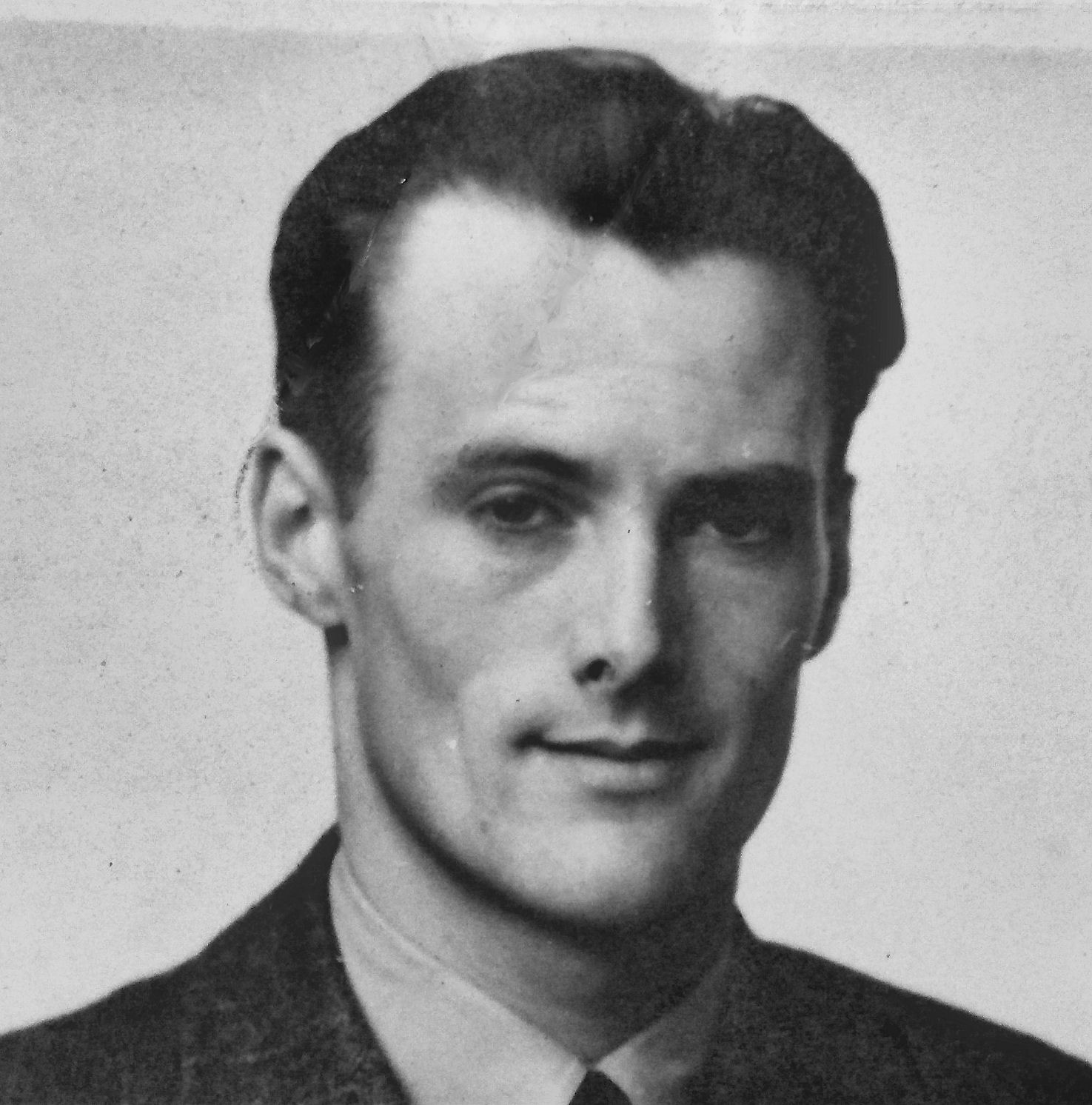 ATA
ATAprev. a Commercial Artist
RAF May-40 - 1944
-
Buxton, Kenneth Alfred
M.---- Captain
[Seconded from BOAC]
Kenneth Alfred Buxton 
b. 19 Sep 1916, London 1 Sep 1940 to 15 Jan 1942
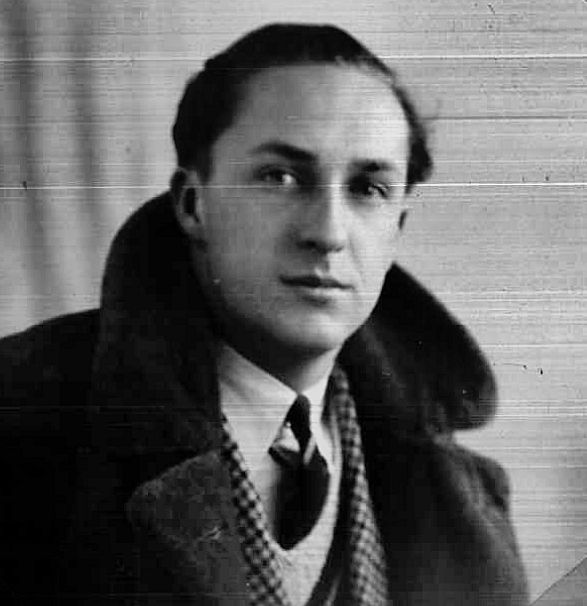 1935
1935Imperial Airways before WWII
Address in 1935: Welford House, Hampstead, London
The BOAC pilots seconded to the ATA were the mainstay of the Advanced Flying Training Unit from September 1940, but; they were all recalled to BOAC in January 1942.
Lettice Curtis says ""with the going of the BOAC pilots the school was never the same again, and certainly a lot of fun and gaiety went out of the instructors' room when it passed into the hands of the generally older professional instructors."
"With pilots like BOAC Captains Griffiths, Derrington Turner, Weston Taggart, Ken Buxton and last but no means least Jim Weir, there was never a dull minute."
"since the war he has been flying on the BOAC routes to North America. He is married and has two children"
-
Calver, Maud Agnes (W.---)
W.--- Cadet Maud Agnes 'Molly' Calver 
b. 13 Apr 1910, Wix Essex 24 Jun-42 to 30 Jun-42 (7 days)
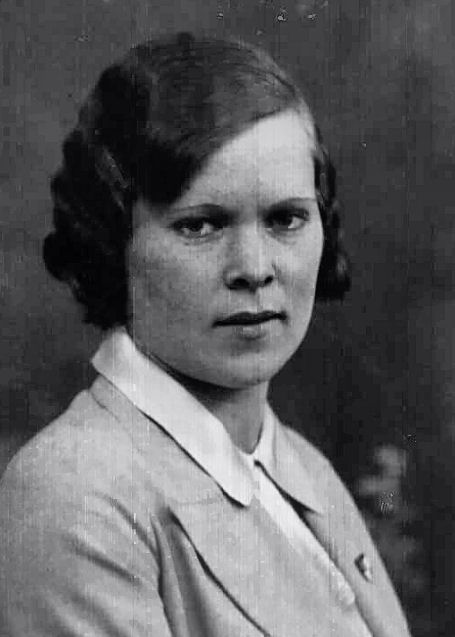 RAeC, 18 Oct 1936
RAeC, 18 Oct 1936(Member of London General Omnibus Co ("the Busmen's") Flying Club)
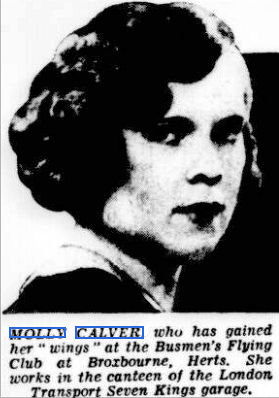 Daily Herald, 29 Jul 1936
Daily Herald, 29 Jul 1936Father: William Calver, mother Edith Annie
Ed. Mistley Council School
prev: Stewardess, Welfare Dept, London Transport
Next of kin (mother) Annie Plummer, 47 Victor Rd, Hythe, Colchester
prev exp: 14 hrs
Address in 1936: 9 Basedale Rd, Dagenham, Essex
Address in 1942: 58 Green Lane, Ilford, Essex
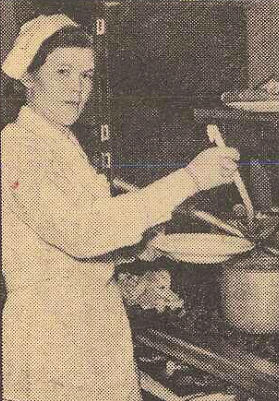
"Molly Calver pours out tea every day for the busmen at her London garage. Each time she hopes it will be the last time. She paid her subscription of sixpence a week when the London Transport Flying Club started"
"From bus garage canteen stewardess to air ferry pilot is the wartime change by Miss Molly Calver, only woman among the 1,200 members of London Transport's Central Buses Flying Club. She'll soon be leaving her job at Dalston to become a member of Air Transport Auxiliary. " - Daily Mirror - Wednesday 21 January 1942
[Resigned]
m. Jan 1949 Joseph T Pulham
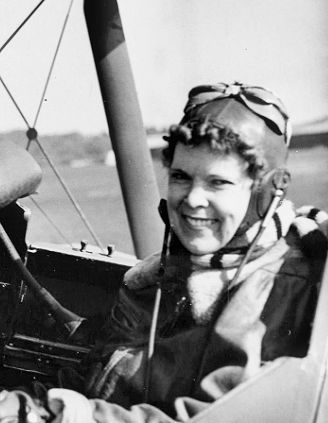 Daily Mirror 15th May 1953
Daily Mirror 15th May 1953"Molly Calver seated in her aircraft before taking off at Chobham. Molly is a stewardess employed by London Transport at their Romford Garage and has worked for the London Transport Board for 20 years, but only very few of her hundreds of workmates realised that she is 'an old sweat' aeroplane pilot during World War II.
Before the war, Molly was a pilot in the London Transport Road Services Sports Association Flying Club and, during the war years, was an Air Transport Auxiliary Pilot, ferrying all types of aircraft. "
[Hmmm]
Later Mrs Warr(?)
-
Cameron, Herbert Seddon
M.300 * First Officer Herbert Seddon 'Jock' Cameron 
b. 1909 30 Apr 1941 to 30 Sep 1944
m. 1931 in Staines, Patricia Harriet Louise [Watson]
prev. a ground engineer at Heston Airport
d. 1 May 1952 - Tripoli, Lebanon
buried Anglo-American Cemetery, Beirut
-
Campbell, Albert Bower
M.1085 3rd Officer
[Seconded from RAF]
Albert Bower Campbell 
b. 11 Jan 1913, Alderley Edge 10 Jun 1944 to Apr-45
prev. RAF A/C inspector
-
Campbell, Bruce
M.260 First Officer Bruce Campbell 
b. 9 Feb 1910, Harrow 18 Feb 1941 to May-43
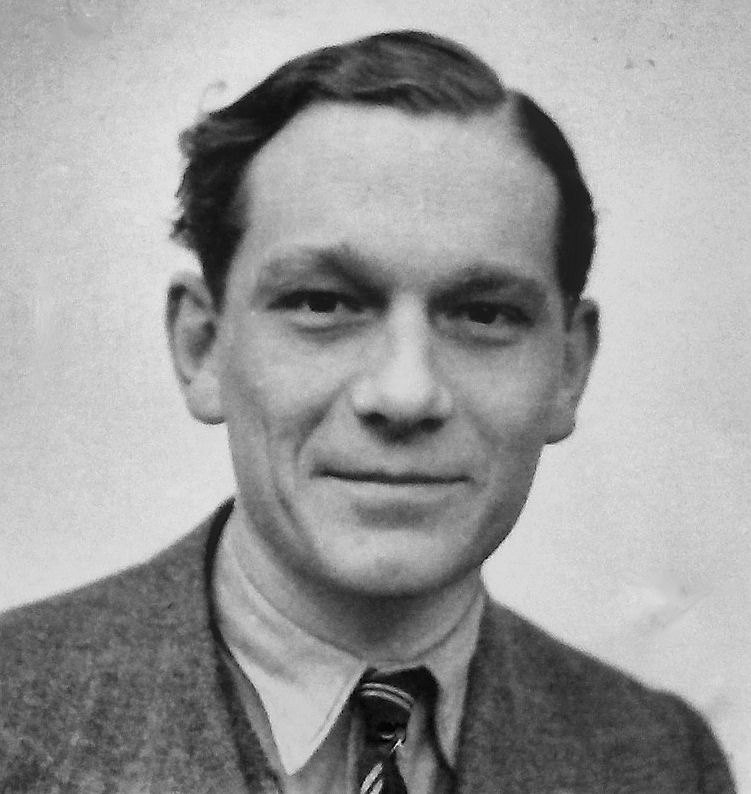
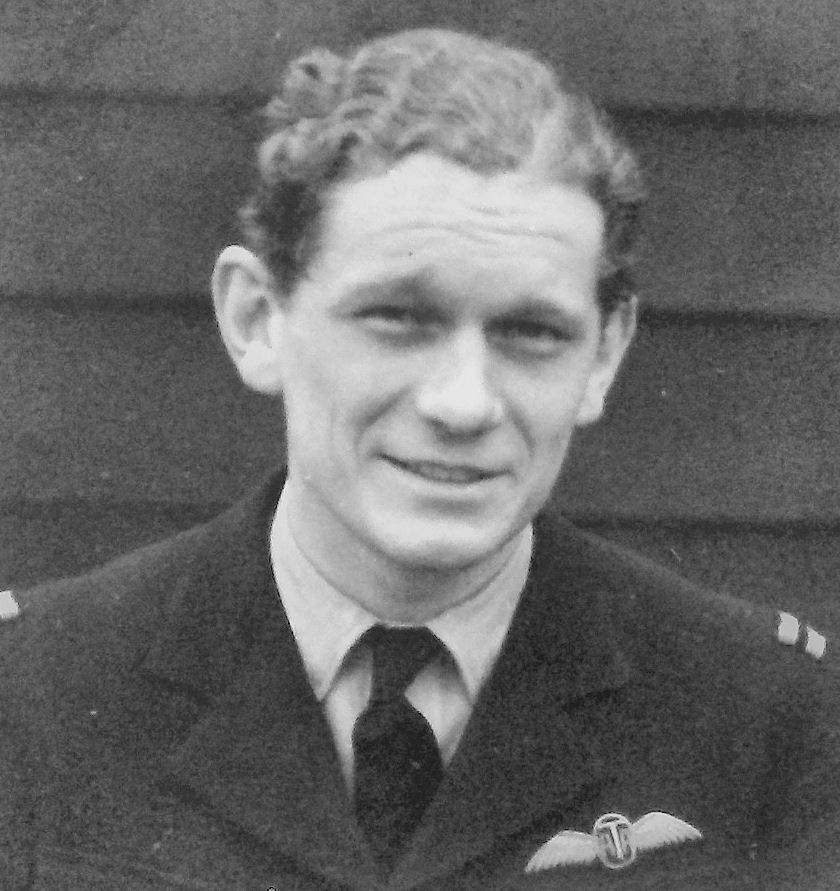 ATA
ATAprev. A Stockbroker
RAF Sgt Pilot 1938 then P/O Jun 1940
Later a test pilot with de Havilland
"In July 1955 Bruce Campbell, a long-time friend of mine, as well as owning a boat in the south of France, had a de Havilland two-seater Hornet Moth registered G-ADNE. From his boat, then in the south of France, he asked me to fly the Hornet down to Cannes for both of us to fly home in." Lettice Curtis
-
Campbell, Thomas James McOran
M.213 Flight Captain Thomas James McOran Campbell 
b. 15 Aug 1906, Plympton 21 Jan 1941 to Jun-42 (as pilot), then Technical Dept until Sep-44
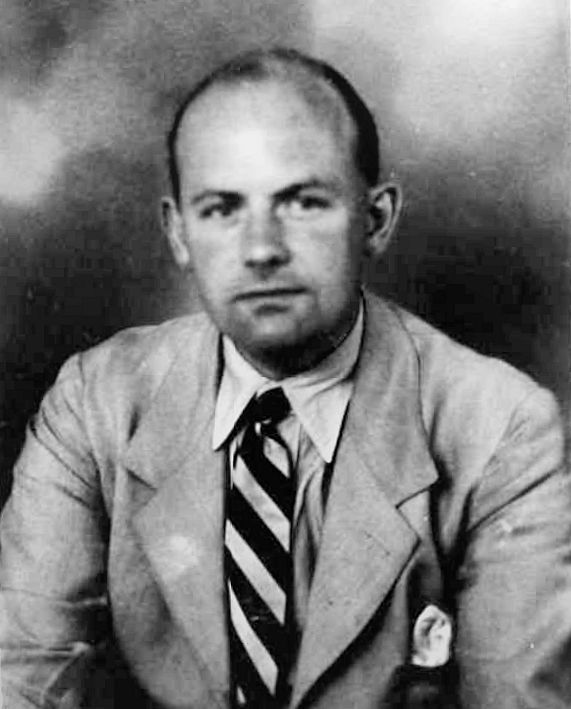 1935
1935Eldest son of Rear-Admiral George McOran Campbell, C.M.G.
Address in 1941: 'Jacques', Pipers Lane, Harpenden, Herts
Educated at St Edwards, Oxford; BA (Eng), Cantab
prev. 2nd Lieut, Royal Corps of Signals Aug 1926-Nov 1929, then an Aeronautical Engineer and pilot
m. Jean Emily [Mitchell] in 1928 (d. 1976)
(3 children before 1941)
Postings: 1FPP, 2FPP, 4FPP, 4aFPP, 6FPP, 15FPP
"A hardworking and methodical pilot, and a good officer."
"(Jan-42) Has done very little flying as a pilot lately, as he is employed on the engineering side on Liberator training."
"This officer's work on the collection of data for and the writing of handling notes is of a very high order. He is a very hard worker and has put in exceptionally long hours."
In May 1955, Flight reported: "Another Bristol appointment announced last week was that of Mr. James McOran Campbell as senior technical representative in Pakistan... In pre-war years Mr. Campbell was with de Havillands and Imperial Airways, and during the war flew as an A.T.A. pilot, later becoming a Hawker production flight development engineer and test pilot. He joined the Bristol engine division in 1951."
d. 4 May 1990 - Plymouth: a "much loved father, grandfather and great-grandfather... A very special and Christian life, greatly missed by all of us."
-
Cant, Herbert George
M.--- Cadet Herbert George Cant 
b. 21 Jun 1906, Clapham 22 Apr 1942 to 6 May 1942
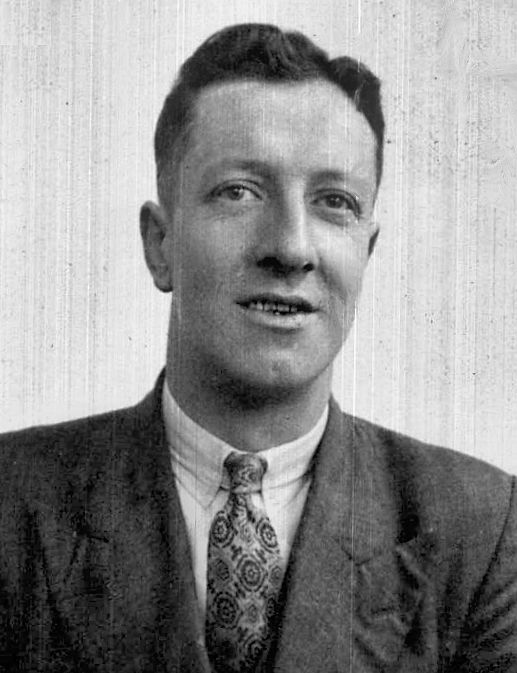 1939
1939ed. Acton Council School
m. 1929 Elsie Clarice [Reed]
prev. an Insurance Clerk, then a Drawing Officer Manager at Phillips and Powis Aircraft, Reading
Address in 1942: Winnersh Corner, Berkshire
On 5 May, Herbert stalled his Magister whilst attempting to land, causing a broken propeller and other damage. This led to...
Contract Terminated 6 May 1942 - Unsuitable
d. Jun 1982 - Basingstoke
Download ATA Pilot Personal Record (.zip files):
-
Carpenter, Anthony
M.457 First Officer Anthony Carpenter 
b. 4 Sep 1913, London 27 May 1941 to Jun-43
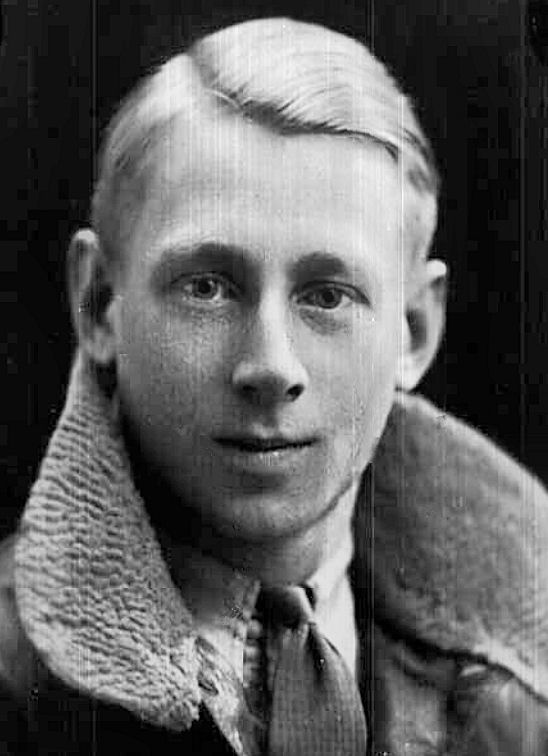 1936
1936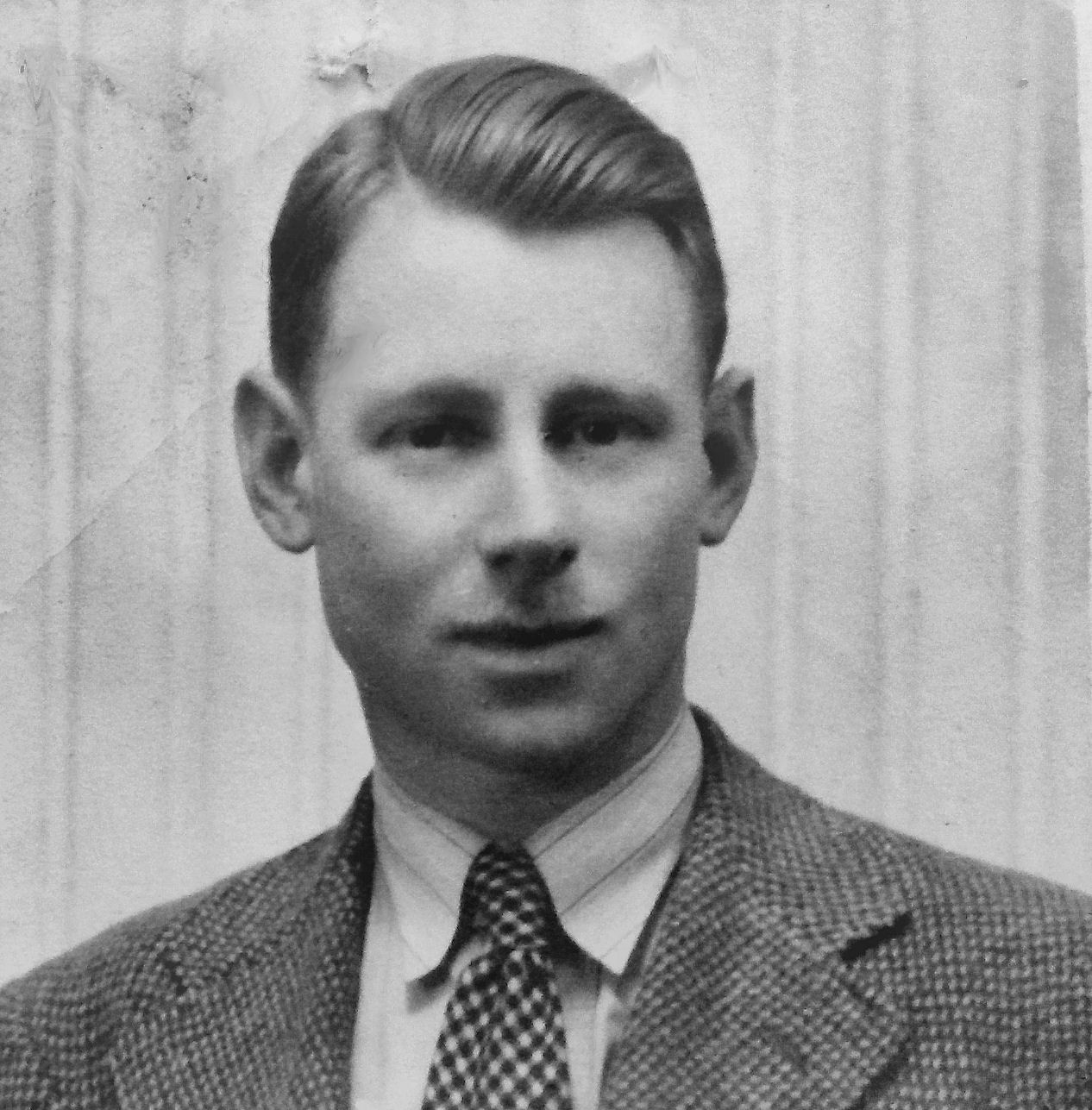 ATA
ATAEducated at Caterham School
m. 1940 Ruby Violet [Haines]
RAeC Certificates in 1936 (in an autogiro) and 1938
prev. A/C erection foreman, Armstrong Whitworth Aircraft Ltd
Address in 1941: 289 Alleseley Old Rd, Coventry
Postings: 6FPP, 3FPP
"A keen and conscientious officer, inclined to be a little slow."
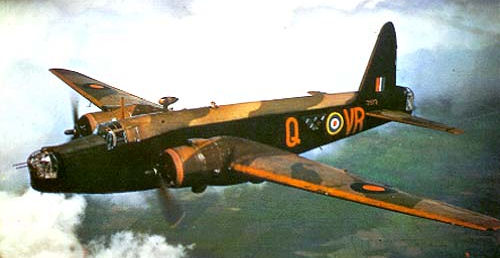
d. 21 Jun 1943 (Died in ATA Service) - Wellington XIV HF136 crashed and burnt out at Hawarden. Port engine lost power immediately after takeoff, due to an electrical short-circuit which caused the port propeller to feather.
Download ATA Pilot Personal Record (.zip file):
-
Carr, Walter Raymond
M.553 * First Officer Walter Raymond Carr 
b. Oct 1897, Carlisle 13 May 1941 to 31 Aug 1945
prev. a Company Director
Lived in Kenya during the 1920s and early 30s
d. 20 Apr 1957 - Hampshire
-
Carter, Charles Leo
M.842 First Officer
[Seconded from RAF]
Charles Leo Carter 
b. 19 Jan 1915, Manchester 29 Jan 1943 to Apr-45
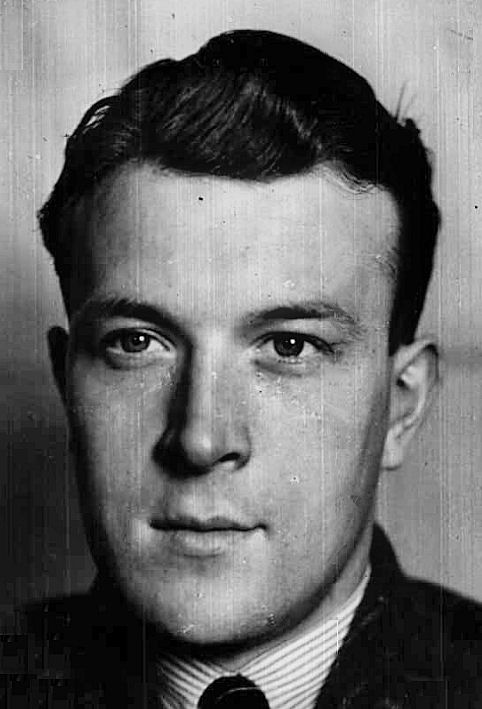 1939
1939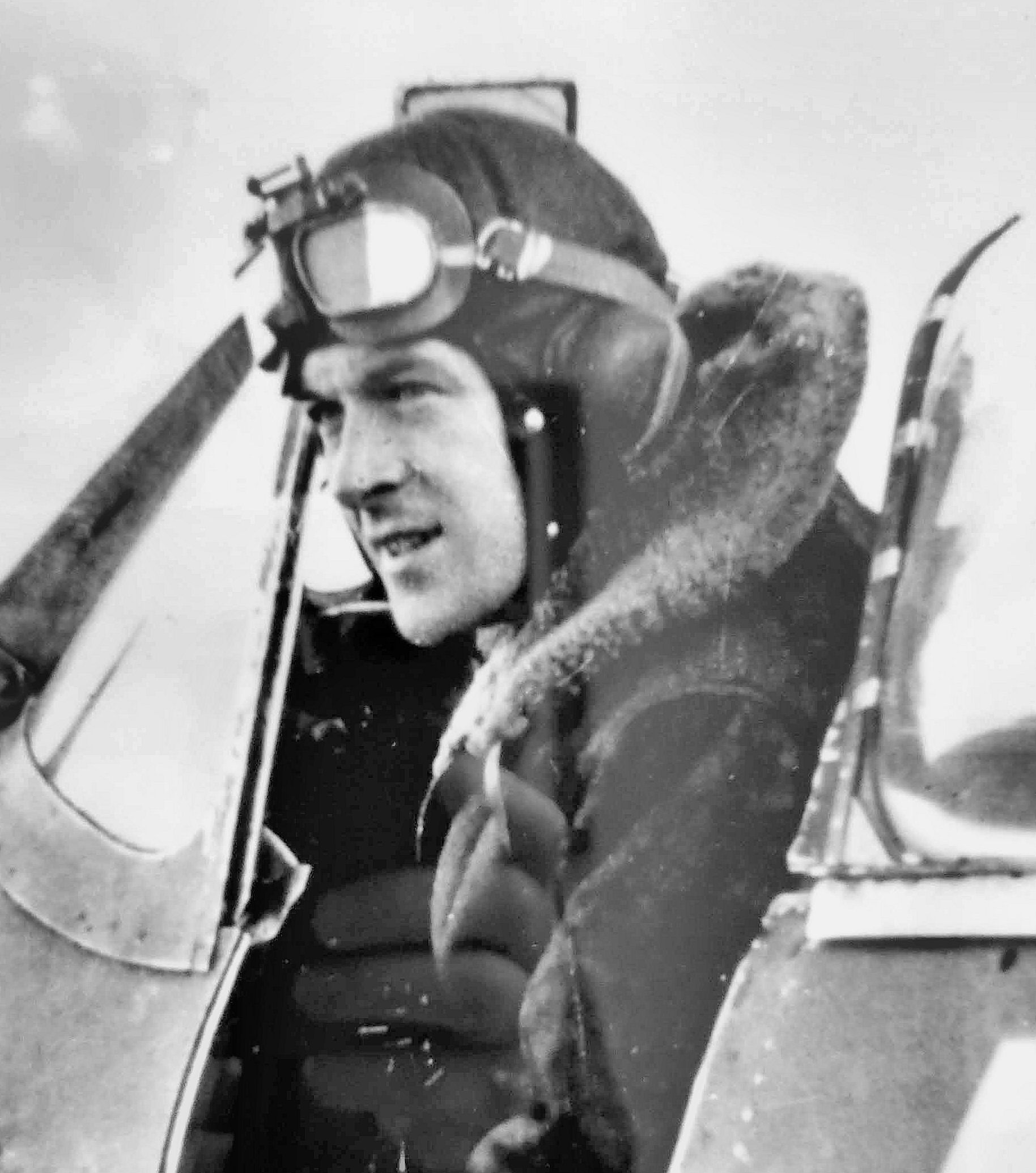 ATAM
ATAMprev. Newspaper photographer, then RAF from 1939
-
Carter, Raymond Harry
M.1054 First Officer
[Seconded from RAF]
Raymond Harry Carter 
b. 19 Feb 1921, Rugby 23 May 1944 to Apr-45
prev. a Travelling Salesman, then RAF 41-44 (Africa Star and Clasp)
-
Castle, William Frederick Bertram
M.683 First Officer William Frederick Bertram Castle 
b. 13 Oct 1908, London 4 Nov 1941 to Nov-45
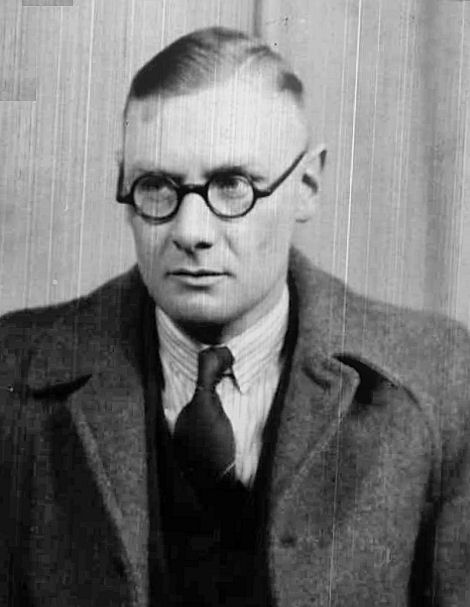 1939
1939d. 1987, Weymouth
-
Chadwick, Mervyn George Checkland
M.821 First Officer Mervyn George [Checkland] Chadwick 
b. 18 Jun 1907, Barnes, London 13 Oct 1942 - 30 Nov 1945
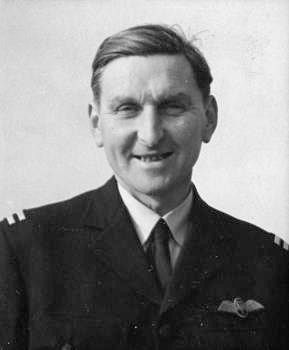 ATA
ATA ATAM
ATAMFather: Bernard George Chadwick [d. 1916 in Flanders], Mother: Millicent [Kettle]
[Checkland was his grandmother's maiden name]
Ed. St Lawrence College, Ramsgate
m. 1929 in Eton, Bucks, Marjorie Joan [Crockford], 2 children
prev. RAF 1930-32 then Oct-40 to Feb-42 (Sergeant Pilot)
prev. exp. 1,436 hrs plus 8 hrs 45min night
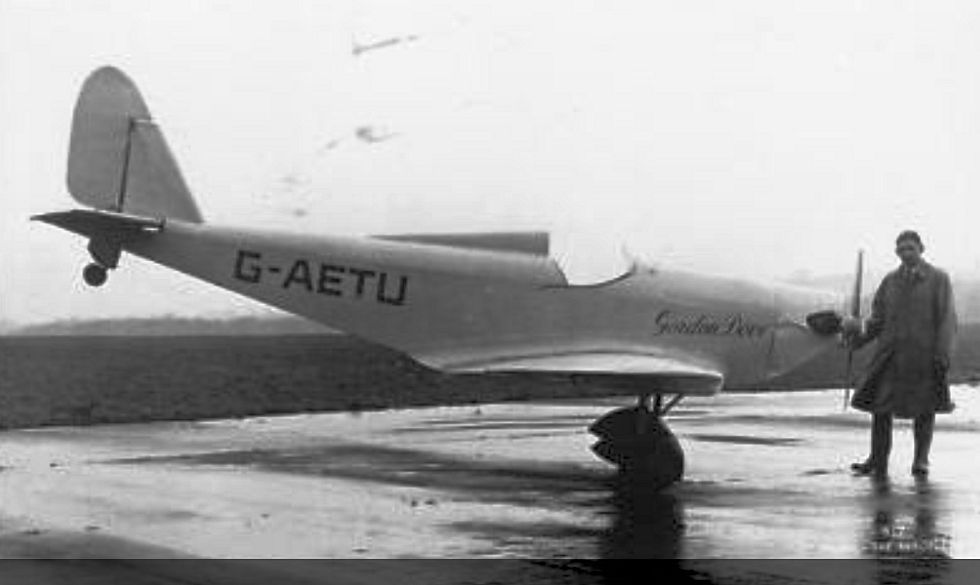 via Richard Durrant
via Richard DurrantTogether with Raymond Gordon, formed Premier Aircraft Constructions Ltd in 1936, based at Maylands Aerodrome, Romford, to market the Gordon Dove, but this was unsuccessful and Mervyn was declared bankrupt in 1939.
Address in 1942: 119 Riverview Gardens, Barnes, SW13
Later moved to 44 Ingrave Rd, Battersea, SW11
"slight limp left leg"
Postings: 16FPP, 9FPP, 2FPP, 6FPP
Suspended without pay for 2 days in Feb-43 for "breach of airmanship and breach of flying discipline"
2 accidents, both his fault:
- 5 Jan 1944, when his Auster III landed in a strong and gusty wind with flaps down (contrary to pilots handling notes) and tipped onto its nose;
19 Mar 1944, when he did exactly the same thing in an Argus, except this time the wingtip was damaged - "The attention of C.O.O. is drawn."
"A keen, hard-working and well behaved officer. He is not over-confident, but as a pilot he is not quite as good or as quick-witted as he thinks he is."
At 2 FPP, "although he has been on the strength of this Pool for seven months, has been away for three of these due to sickness and conversion to Class 3."
"An intelligent and careful pilot who shows great competence. A well disciplined officer who has been of great value."
m. Oct 1946 Joan Edith [Nobbs], 3 children
d. 3 Nov 1971 - Brent, London
With thanks for the family and other research by Richard Durrant
-
Chambers, Arthur Edward
M.54 * Flight Captain Arthur Edward Chambers 
b. 11 Oct 1913, Lowestoft 8 Apr 1940 to 20 Aug 1945
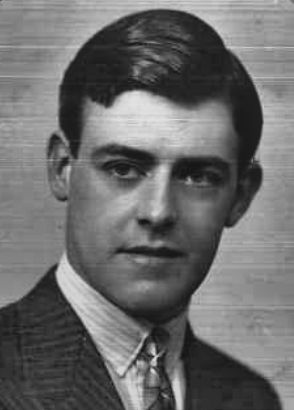 1936
1936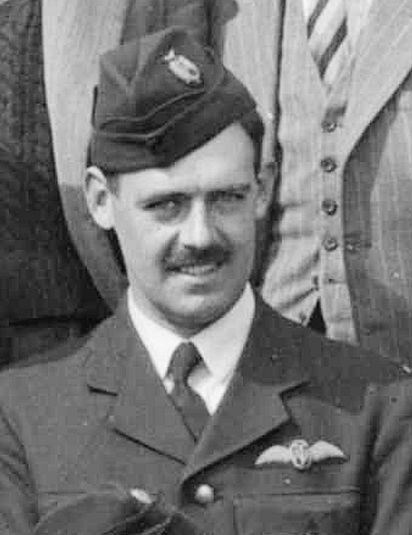 ATAM
ATAMprev. a motor mechanic (Science Dept.)
Address in 1936: 16 Ellys Rd, Coventry
Postings include 8FPP
d. Jul 1993 - Waveney, Suffolk
-
Chapman, Laurence Alfred
M.867 First Officer
(Seconded from RAF)
Laurence Alfred Chapman 
b. 13 Sep 1921, Upminster 19 May 1944 to Apr 1945
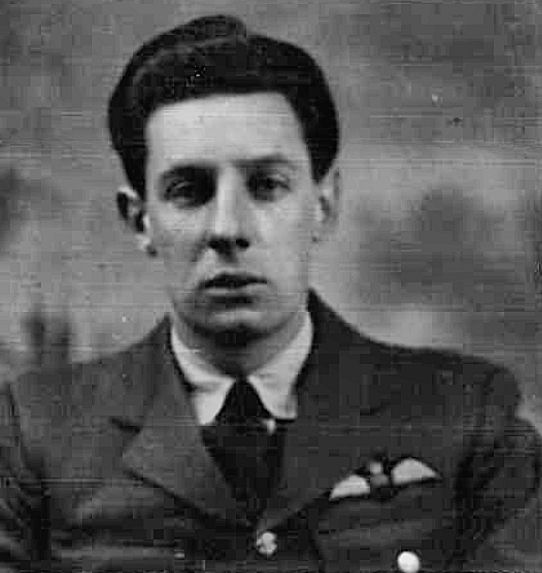 1946
1946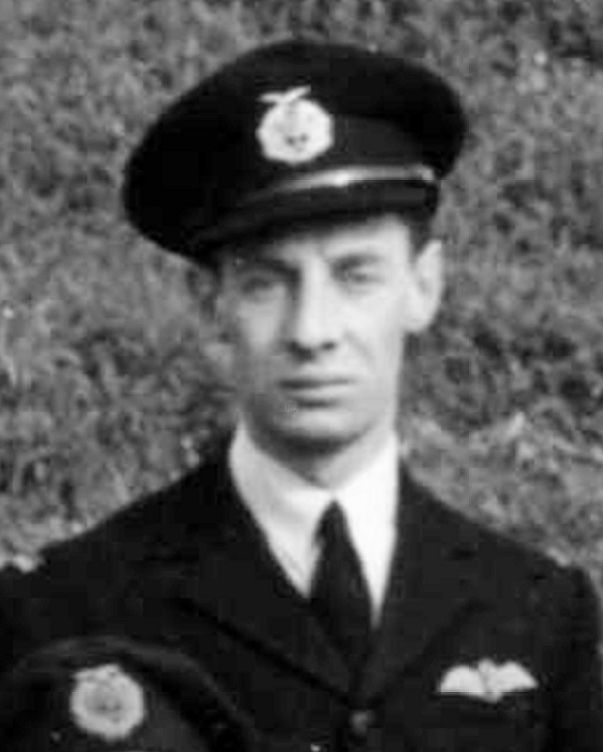 ATAM
ATAM
-
Chater, Harold
M.80 First Officer Harold Chater 
b. 4 Sep 1908, Eastbourne 23 May 1940 to Jun-45
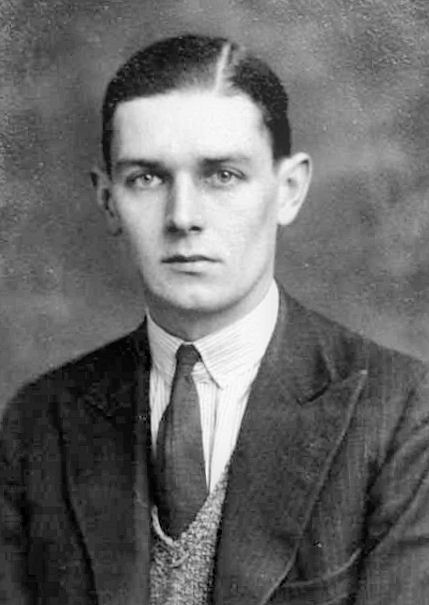 1931
1931A Pilot; owned 1932 Avro 504K G-ABVC (ex F8834), known affectionately as "Screaming Annie".
"Mr. Chater, who has become well known locally for the amount of spare time he has put in at the [Cinque Ports Flying] Club building up an Avro 504 from spare parts. He has fitted an equally aged Bristol 'Lucifer' engine." (Flight, 1933)
He advertised it for £225 in 1936, but it appears not to have found a buyer, and its registration was finally cancelled in 1945.
Chief Instructor at the Kent Flying Club in 1939.
Postings: 1FPP, 6FPP, 9FPP, 14FPP
"A pilot of above average ability and a capable instructor. He does, however, easily lose interest and he would do well to show greater keenness and enthusiasm." (T A Gale, Chief Flying Instructor, Jan-43)
May-43: "This pilot, although posted here with a somewhat moderate report has not shown any of the bad qualities he was reported to possess... I find him a likeable individual."
Address in 1944: 1 Glynde Ave, Hampden Pk, Eastbourne
m. 1944 Susan Kathleen Speak Or Eastwood (an ATA driver at 6FPP)
He was still interested enough in aviation in 1965 to write to 'Flight': "My wartime ferry pilot [colleague] Tom Brooke-Smith said that flying a VTOL aircraft was like coming down a ladder for the first time. I saw the Hawker Siddeley P. 1127 at Farnborough last summer and decided that this sort of aviation was here to stay.
Having been a commercial pilot for 30 years I know that nothing annoys a customer more than unpunctuality at either end of the line. Whether you do 200 or 2,000 m.p.h. doesn't matter if he can't keep his appointment."
-
Chifney, Ronald Walter Francis
M.991 3rd Officer
(Seconded from RAF)
Ronald Walter Francis Chifney 
b. 6 Oct 1918, London 19 May 1944 to Apr-45
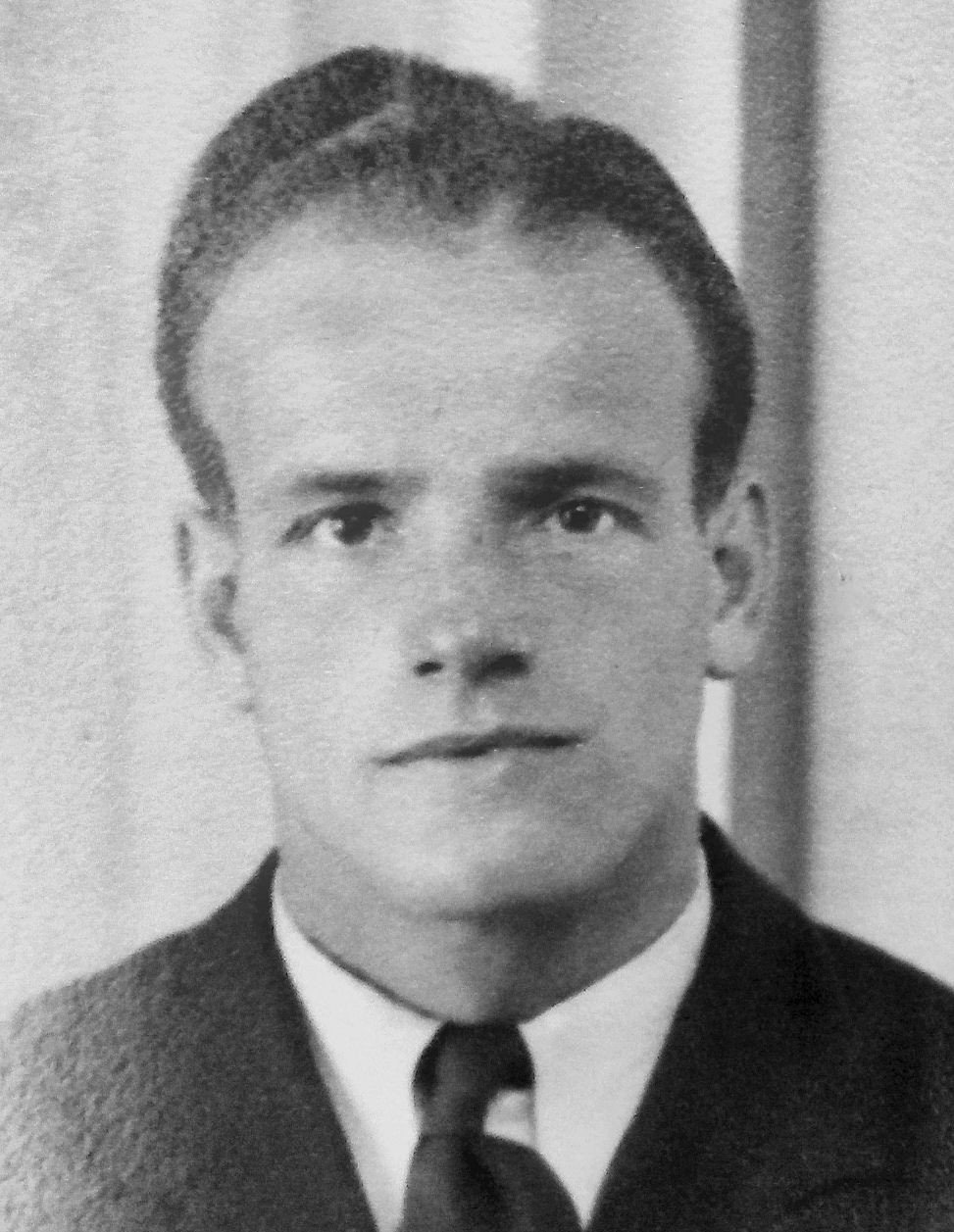
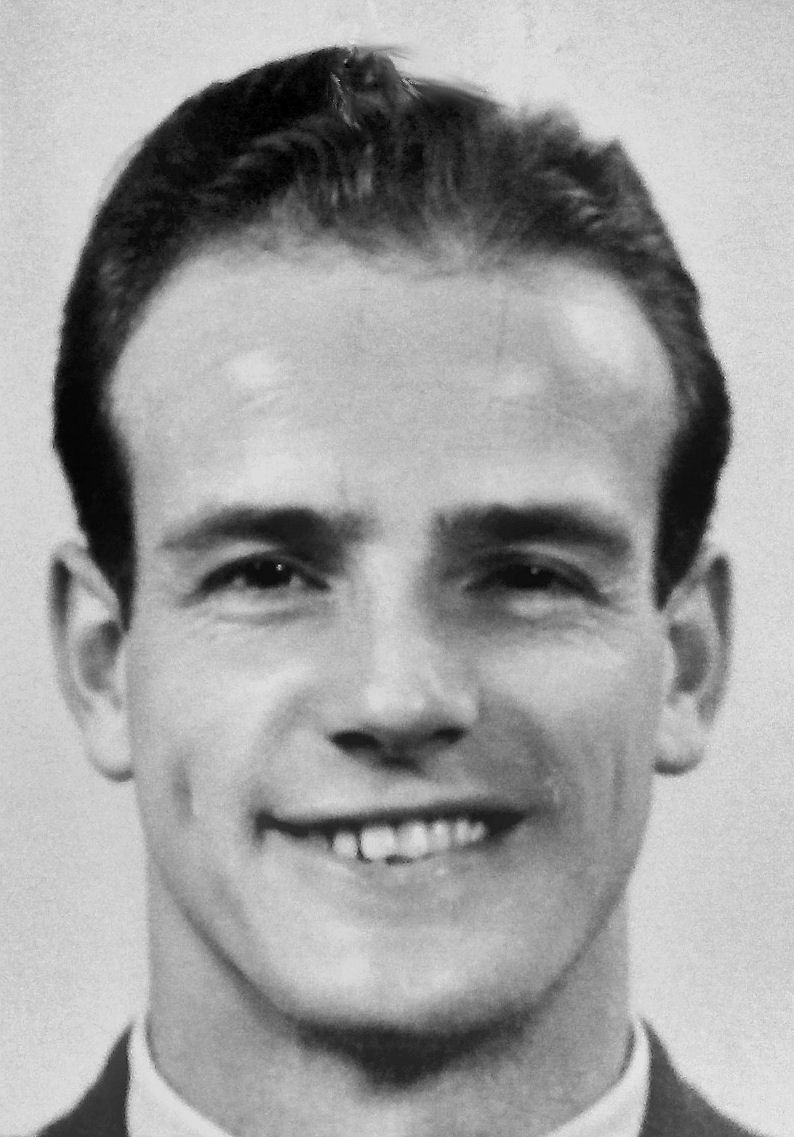 ATA
ATA
-
Clark, John Taverner Wilson
M.6 * First Officer John Taverner Wilson Clark 
b. 9 Apr 1910, London 21 Sep 1939 to May-40
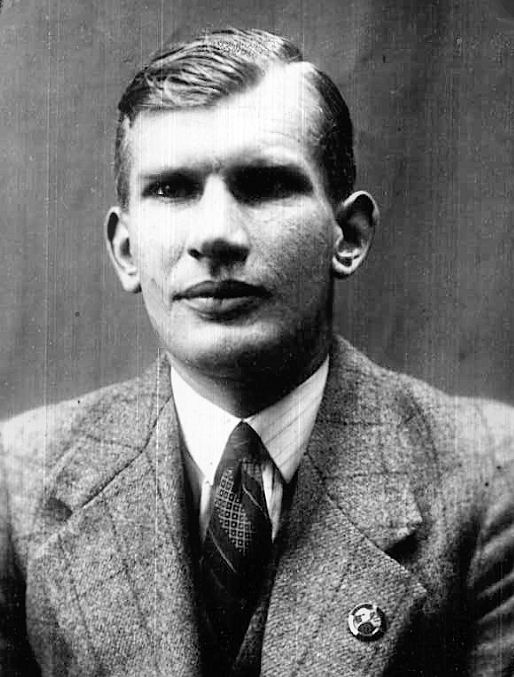 1938
1938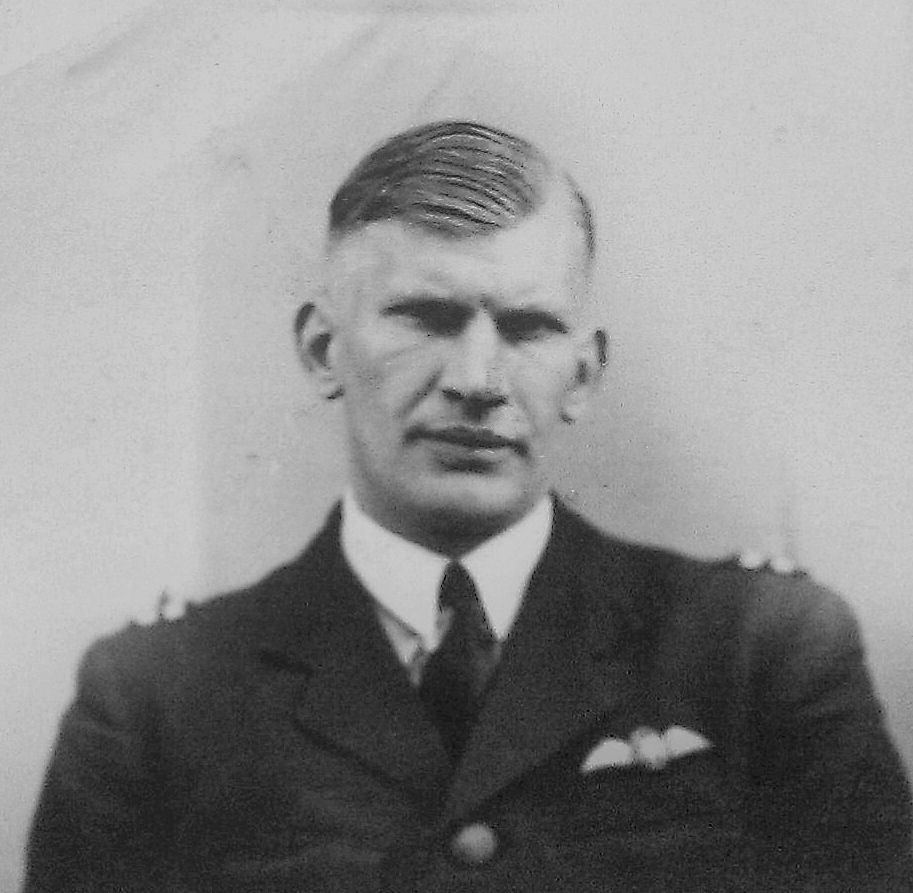 ATA
ATAprev. civil pilot - 'B' Licence holder
prev exp. 483 hrs on DH Moth, Puss Moth, Hornet, Leopard Moth, Tiger Moth, Tomtit, Avro 638, 640, 504N, Avian
m. Oct 1934 in London, Norah [Penny or Ford] (one daughter b.1934)
Instructor's Report (Nov 1939) says "has no outstanding faults and has flown the Harvard, Battle and Blenheim very satisfactorily. He should be capable of flying all types."
Address in 1939: 'Crossways', Lower Babington, Wirral, Cheshire
Address in 1940: Meads, Pinkneys Green, Maidenhead, Berks (the home of his brother Paul')
Postings: Filton, 3FPP (White Waltham)
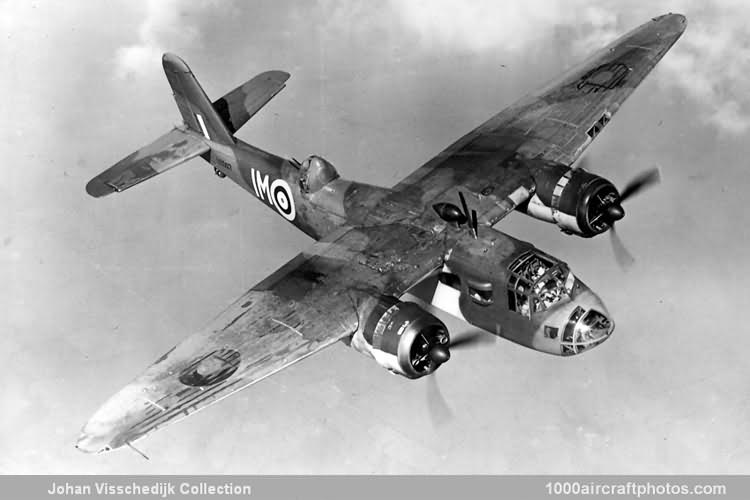
d. 25 May 1940 (the first pilot to die in ATA Service) - took off in Blackburn Botha L6160 from Yeadon but shortly after take-off, finding himself approaching two houses on high ground, banked steeply right and, in doing so, hit a stone boundary wall and crashed in Layton Rd, Horsforth, Yorks..
His next-of-kin (and Executor of hs will) was his brother, Lieut. Paul Clark, RN
buried Yeadon Cemetery, Leeds, Yorkshire
The £2,000 insurance money was paid to his widow Norah in October 1940, but on 15 August 1941 she wrote to the ATA:
"Dear Sirs,
I am wondering whether you could advise me or help me in the following manner:
I am left with a small daughter aged 7, and my living to earn, she will have to go to boarding school as I have no income coming in now.
[Is there] a possiblility of my getting a small pension, if not for myself, for my little girl to help towards her education, my husband's family are in Australia and I cannot get assistance from them, could you in any way possibly put me in touch with the right source of approach to anyone who could help me in this matter.
Thanking you in anticipation of a reply.
Yours Faithfully
Norah Clark (Mrs)"
Nothing seems to have come of this, although an ATA Benevolent Fund file was opened for her (but not until July 1945).
-
Clarke, Charles Sidney
M.90 * Flight Captain Charles Sidney Clarke 
b. 8 Feb 1896, Birmingham 12 Sep 1940 to 31 Jan 1945
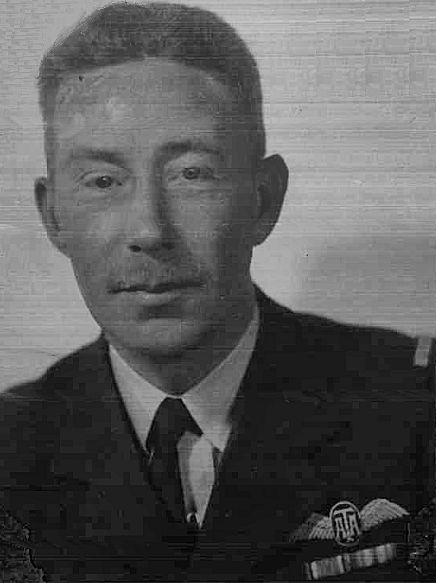 1941
1941RFC in 1917
Address in 1941: The Close, Olton, Warwickshire
-
Clarke, Rodney Eyre
M.507 First Officer Rodney Eyre Clarke 
b. 10 Nov 1915, London 20 Jun 1941 to 23 Jul 1942
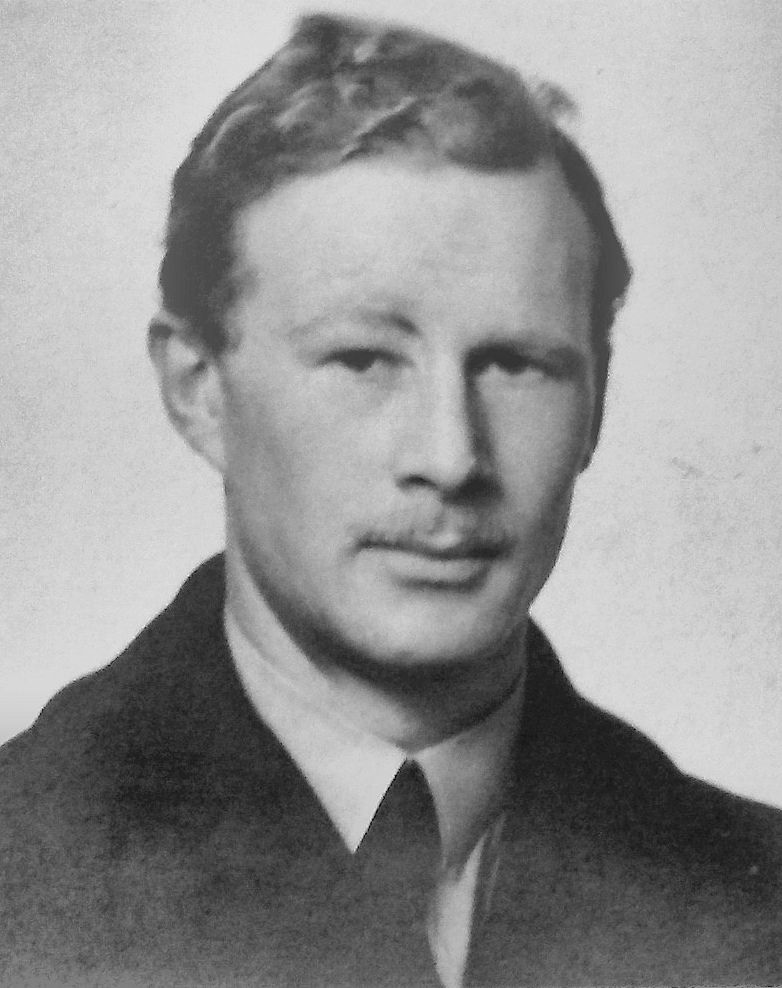
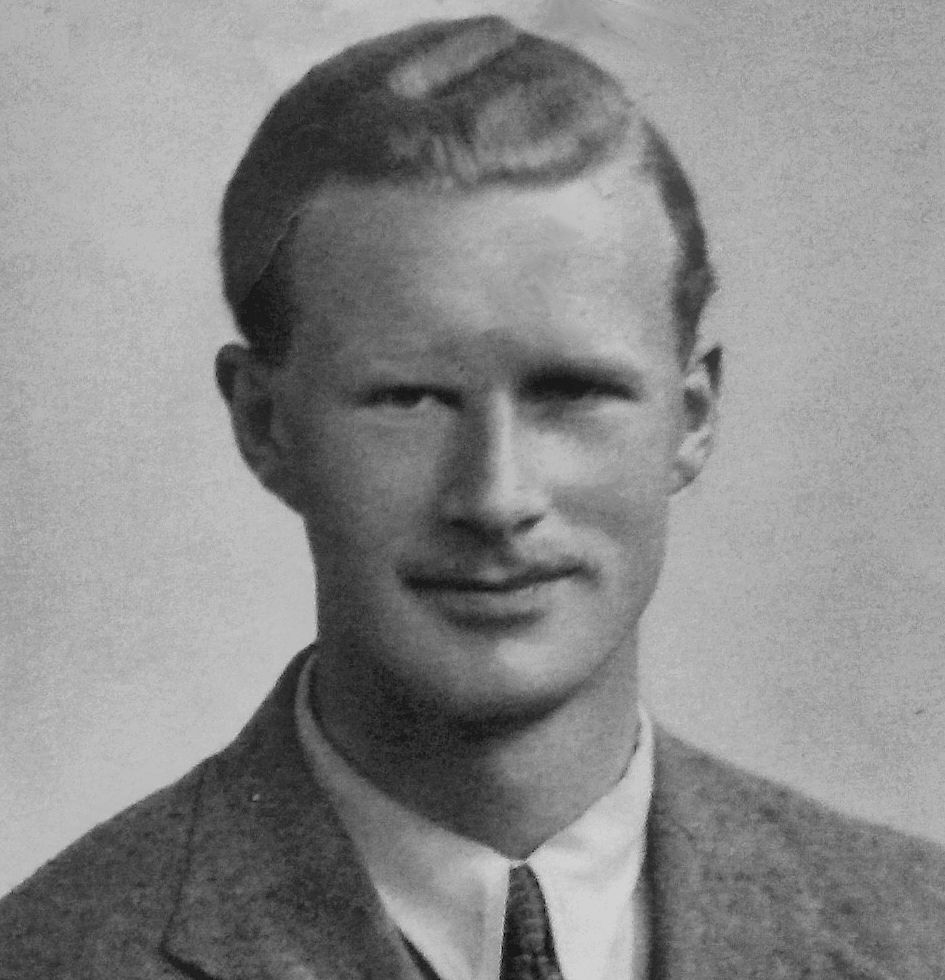 ATA
ATAFather: Francis Clarke
Ed. at Berkhampsted School
prev. RAF 1935 -1941 (F/O from 1940)
m. 1 Jan 1940 Sibyl Faith [Ingram-Johnson, divorced; d. 1993]; 2 children John b.1940, Pamela b. 1943
6 ft 4in tall
Address in 1941: Old Manor House, Squires Bridge Rd, Shepperton, Middx
Postings: 1FPP
"A pilot of fully average ability."
[Resigned]
The 'Liabilities (War-time Adjustment) Act', allowed people who reckoned they were in serious financial difficulties owing to war circumstances to apply for help:
"ORDERS OF DISCHARGE. No 6. CLARKE, Rodney Eyre, now of Ship & Bell Hotel, Horndean, Hants, previously residing at "St. Vincent," Woodland Grove, Weybridge, Surrey, and formerly residing and carrying on business at the Ship & Castle Hotel, St. Mawes, Cornwall. Now Hotel Manager, previously Air-Transport Pilot, formerly HOTEL PROPRIETOR. Date of Order of Discharge—Jan. 21, 1944"
"M.S.A.E., F.R.S.A., A.M.I.M.I., F.Inst.D. Chairman, Continental Cars, Ltd, since 1943; General Manager, Connaught Engineering (Automobile and General Engineers), since 1949. b: November 10, 1915. London. Educ: Berkhamsted; A.E.T.C., Chelsea. Served apprenticeship in Electronics research, 1933-35; Royal Air Force commission (night-bomber Captain), 1935-40; Air Transport Auxiliary (Ferry Pilot), 1941; engaged in Motor Industry as from 1943. Club: R.A.C. Add: Connaught Engineering, Portsmouth Rd., Send, Surrey, and St. Vincent, Woodland Grove, Weybridge, Surrey. " Who's Who in the Motor Industry 1959
d. Jun 1979 - Surrey
-
Clarke, Roger Grenville
M.911 First Officer Roger Grenville Clarke 
b. 5 Dec 1921, Leicester 10 Apr 1943 to Oct-45
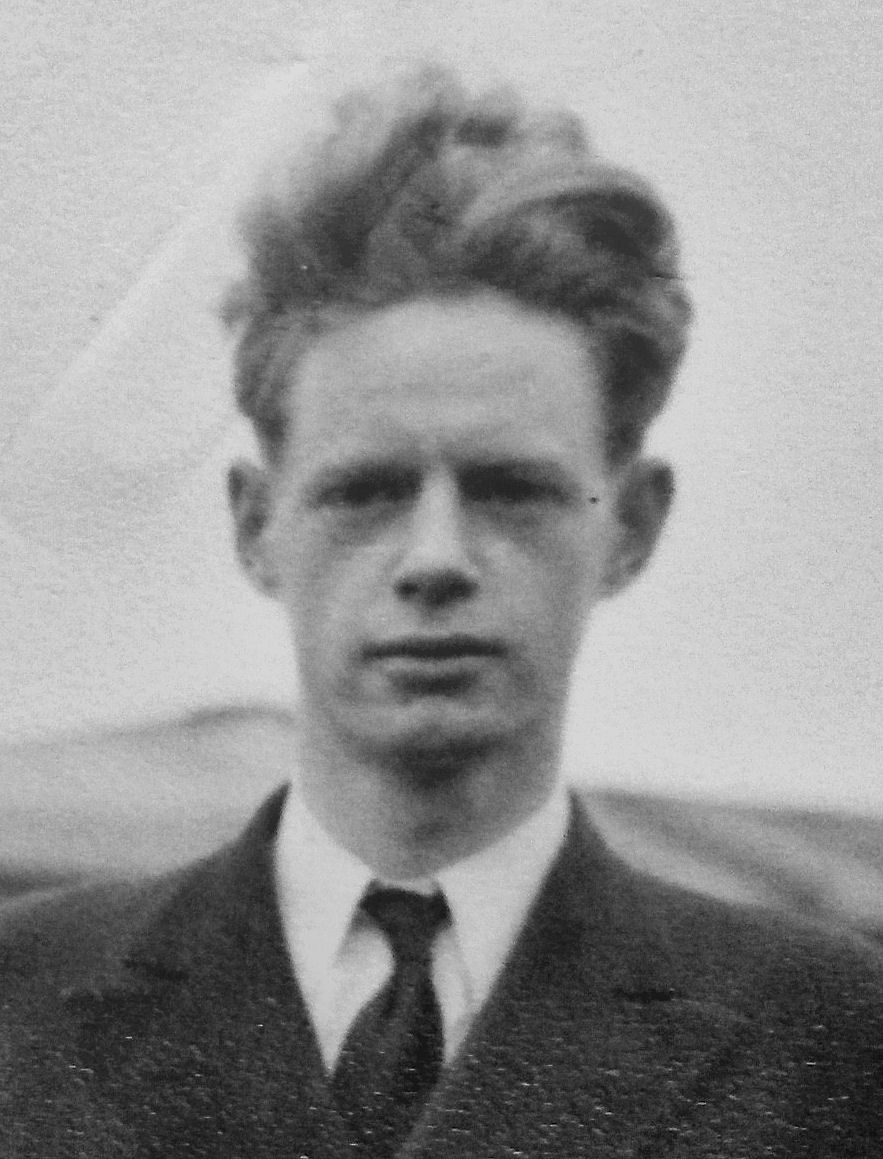 ATA
ATA
-
Clayton, Edna Violet (W.30)
W.30 2nd Officer Edna Violet 'Sammy' Clayton

b. 26 Jul 1900, Hampstead, London 1 Mar 1941 to Feb 1942
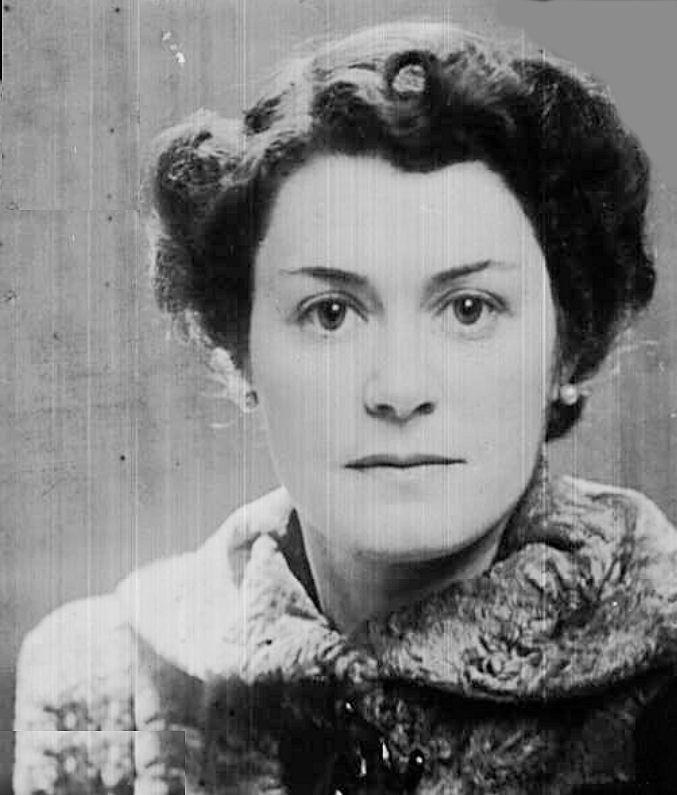 RAeC 1936
RAeC 1936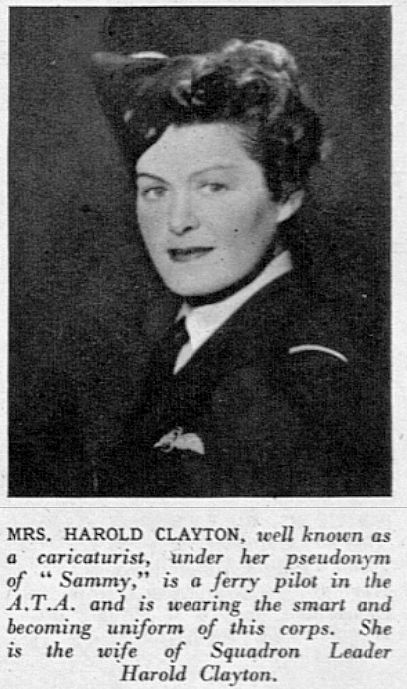 The Sketch, 1942
The Sketch, 1942née Samuel
Father: Barnett Samuel (a financial broker, d.1925), mother Annie Leah [Barnett] (d. 1933)
Ed. St Paul's Girls School; Slade School of Art
2 sisters (Amelia b. 1891, Olga Esther b. 1893, later Mrs Roys), 1 brother (Ivor Dudley b. 1894)
m. 5 Mar 1927 in Hampstead, Harold Clayton (later Sqn-Ldr with No 40 Group, Andover)
Address in 1936: 128 Dorset House, Gloucester Place, London NW1
prev. 1939- Dec 1940 Section Cadet Officer, Mechanised Transport Corps
prev. exp. 87 hrs on Tigers [sic], Hornet Moth, Puss Moth, Potez, Tanpin, Swallow in France, Belgium, Holland, Germany, Austria, Hungary, America, Czechoslovakia, UK
Address in 1941: 36 Viceroy Court, Prince Albert Rd, London NW8
------------------
Harold and Edna contested the will of Edna's father, Barnett Samuel, in 1941.
Briefly, Barnett had left Edna a large legacy, but specified that she would forfeit it if she married someone "who is not of Jewish parentage and of the Jewish faith"
"This is a case in which the testator has sought, in the words of the Master of the Rolls, to direct the lives of his children from the grave... to control his daughter Edna's choice of a husband."
Now, Harold Clayton was an English Wesleyan, "not in any possible sense of the words a person of Jewish parentage, nor has he been at any time in any possible sense of the words a person of the Jewish faith"
... which sounds like an open and shut case, but No!
In a rather Dickensian twist, their appeal was (thankfully, IMHO) upheld as (I can only quote the judgement): "It is true that, on any possible construction of the clause Mr. Clayton was disqualified. But any possible construction is not the question: the actual construction must be certain: and as it is not the Appeal succeeds."
So there you have it. Hope that's clear.
[On her application form for ATA, Edna gave her religion as 'Protestant']
Postings: 5FPP
Described herself as an 'Artist' when emigrating to Kenya in Nov 1957 (and was either widowed or divorced at the time)
d. 13 Aug 1970 - Nairobi, Kenya
-
Clennell, Geoffrey James Ian
M.209 First Officer Geoffrey James Ian Clennell 
b. 29 Oct 1912, Letchworth 4 Feb 1941 to 17 Jul 1941
m. 1934 Joan Ossory [Dunlop - she was an M.T. driver with the ATA from 20 Jul 1942 to 27 Jan 1943], 3 children
prev. RAF Sep 1932 - Sep 1938 (Pilot Officer in 1934, promoted to Flt-Lt 8 Jun 1937); apprentice to Bentley Motors
A test pilot in 1939.
Address in 1941: 38 Richmond Hill Rd, Birmingham
Suspended for 2 days in April 1941 for "aerobatics"
"First Class pilot, very keen and hard-working. Occasionally has fallen down on small points of discipline."
Resigned to join RAF
d. 25 Feb 1942 when a Squadron Leader with 255 Sqn, RAFVR when crash landing Beaufighter II T3023 due to engine failure on final approach to RAF Coltishall.
P/O Harold Vincent also died of injuries sustained in the same accident.
buried Scottow Cemetery
Mrs Clennell wrote to Pauline Gower in May 1943, asking for help as she was "in very straightened circumstances."
Pauline passed it on to the RAF Benevloent Fund, who were already paying for her elder son's education (£25 per term).
-
Cobb, John Rhodes
M.824 * First Officer John Rhodes Cobb 
b. 2 Dec 1899, Beddington 23 Sep 1942 to 30 Sep 1945
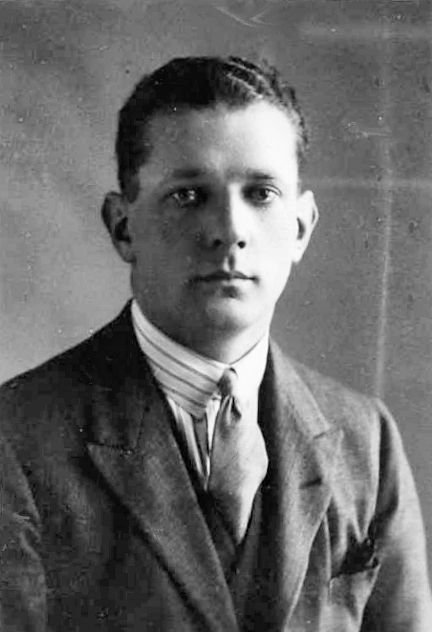 1924
1924Ed,. Eton, Trinity Hall Cambridge
prev. a Produce Broker
Address in 1924: The Grove, Esher, Surrey
"An English racing motorist. He was three times holder of the World Land Speed Record, in 1938, 1939 and 1947, set at Bonneville Speedway in Utah, US. He was awarded the Segrave Trophy in 1947. He was killed in 1952 whilst piloting a jet powered speedboat attempting to break the World Water Speed Record on Loch Ness water in Scotland."
https://en.wikipedia.org/wiki/John_Cobb_(racing_driver)
d. 29 Sep 1952 - Loch Ness
-
Cochrane, John Noble
M.986 3rd Officer [Seconded from RAF]
John Noble Cochrane 
b. 31 Jan 1923, Newcastle on Tyne 5 Oct 1943 to 15 Apr 1945
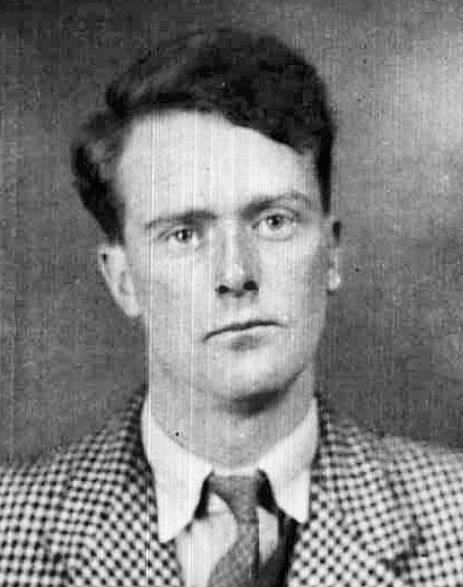 1947
1947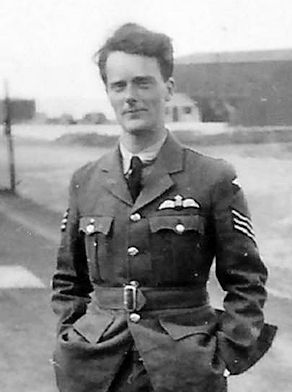 ATAM
ATAM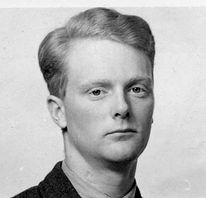 ATAM
ATAMFather: Wilfred Theodore Claude Cochrane, Mother: Yseult Joan
Ed. Eton, Magdalene College Cambridge
prev. RAF Sep-42 to Oct-43
Address in 1943: Edenmore, Stranolar, Co. Donegal, Eire
Postings: 8FPP
2 accidents, 1 his fault:
- 1 Nov 1944, he landed his Spitfire VII with the tail wheel retracted, due to a technical fault [The Mk VII was the first Spitfire with a retractable tail wheel, btw] [The accident happened at Aldergrove, so I think this must be him, although the pilot is recorded as 'T.M Cochrane'];
- 2 Mar 1945, he seriously injured a pedestrian, naval rating A M Ducker, while taxying in a Swordfish. His attention was distracted by a motorcyclist coming towards him.
Address in 1947: 15 Alpha Rd, Cambridge
m. 1952 Georgiana Elizabeth Fane de Salis [4 childen]
He was a Development Engineer with Bristol Aeroplane Co. between 1947 and 1961, and was in the Scientific Civil Service at RAF Farnborough.
-
Coe, Euclid W
M.643 First Officer Euclid W. 'Ed' Coe 
b. 18 Jun 1912, Cleveland, TN 21 Jun 1941 to 21 Jun 1942
Father: John W. Coe, mother Retta [Hagler] both dec'd
Ed. High School, Porterville, CA
prev. Gas and Electric Welding; Mechanic. 1940-41 US Army Civilian Flyng Instructor in Albany, GA
prev. exp. 1800 hrs
Address in 1941: Main St., Richland Center, WI
Postings: 3FPP, 6FPP
Suspended for one day and fined £5 in Dec-41 for "failing to report to police on being posted to 3FPP", and then suspended for 2 days in Apr-42 for "low flying".
One accident:
15 May 1942, his Spitfire broke an undercarriage leg during a forced landing following a drop in oil and brake pressure. Not his fault.
"A steady and reliable pilot and a good officer."
m. 1943 Mildred Kathleen [Christie] from NY [2 children]
Post-ATA, he joined RAF Ferry Command and was stationed in Nassau and Montreal, until 1946.
Later a test pilot for Canadair, operator of a number of flight schools, and owner of ABC Rentals in Glen Falls, NY.
d. 15 Oct 1990 - Glen Falls, NY (Age 78)
-
Coles, John Leslie Courtenay
M.170 2nd Officer John Leslie Courtenay Coles 
b. 26 Aug 1905, London 19 Nov 1940 to 27 Jul 1941
RAeC 1934 (Photo missing) Ed. "Douai Abbey. Russia. USA"
prev. RAF 1921-23; Signalman in Royal Corps of Signals 1924-26; Engineer Tool Maker; "Rough Rider"; Pilot for BOAC
prev. exp. 200hrs
m. Ivy Maude
Address in 1940: Kim, Powercourt Rd, Barton-on-Sea, Hants
Postings: 2FPP, 4FPP
Off sick from 29 Apr to 20 May 1941 with 'nervous debility', and from 12 to 27 Jul 1941 with 'cellulitis of ankle'.
Suspended for 3 days without pay for going AWOL in Jul 1941
"A pilot whose flying ability and sense of judgement I have no great confidence in."
"Has carried out the duties allocated to him satisfactorily."
Contract Terminated 27 Jul 1941 - Disciplinary Reasons
d. 24 Mar 1984 - Barnet, London
-
Collinge, Alexander
M.103 First Officer Alexander Collinge 
b. 2 Jun 1906, Oldham Lancs 10 Jun 1940 to Apr-41
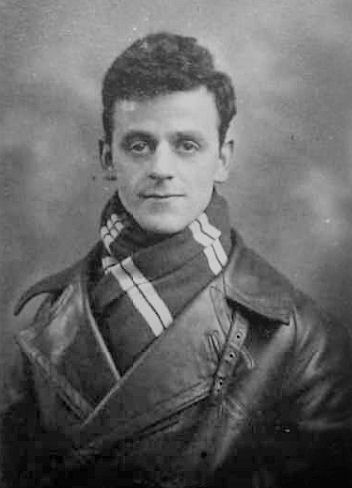 1931
1931A Secretary in 1931
In October 1933, he and his wife, and Mr. Gifford Hallam, made "a successful journey to Paris and return", and in 1934 he was a close runner-up to Alan Goodfellow in the Senior Landing Competition at Woodford.
Address in 1940: Flat 39, Parrawood Court, Didsbury, Manchester
Postings: 1FPP
[Resigned]
-
Collins, Harold James Whitfield
M.552 * Flight Captain Harold James Whitfield Collins 
b. 4 Oct 1896, Kings Nation Worcestershire 6 May 1941 to 31 Dec 1945
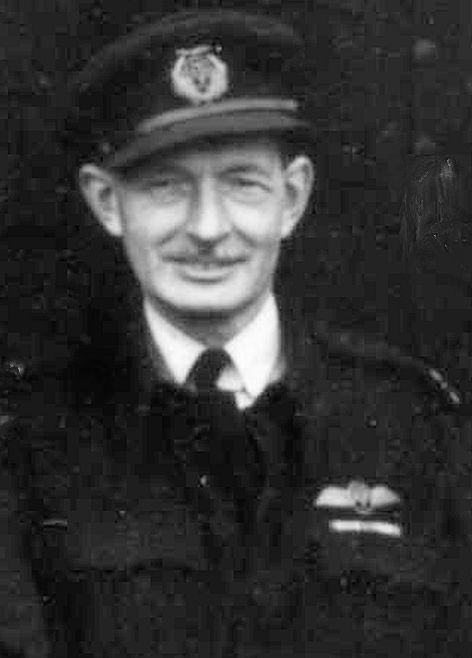 ATAM
ATAMLieut., 16th Gloucestershire Regiment, RFC and RAF in WWI
Certificate of Commendation
"On the 10th February, 1944, First Officer Collins was ferrying a Walrus when the engine failed completely over mountainous country. He landed it undamaged on a bend of the River Devron between high banks, and managed to moor it successfully."
One accident, his fault:
- 10th Oct 1942, Tomahawk AH806 was being flown to Catterick on a delivery flight so the aircraft could join No.1472 A.A.C.Flight. It landed at Dishforth at 13.15hrs with its undercarriage retracted and was slightly damaged.
d. 5 Sep 1979 - Cannock, Staffs
-
Collins, Percival John
M.629 2nd Officer Percival John Collins 
b. 6 Feb 1912, Woolwich, London 26 Aug 1941 to Jan-42
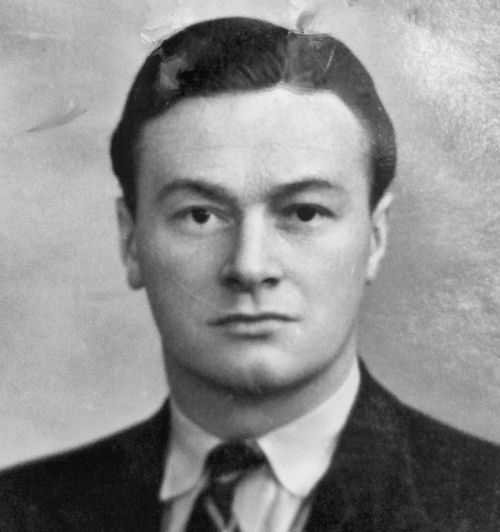 ATA
ATAprev. A Civil Servant

d. 29 Jan 1942 (Died in ATA Service) - Hurricane V7001 crashed into hillside during snowstorm at Pen-y-Cae nr Ruabon
-
Colman, Alan Rees
M.761 3rd Officer (Acting 2nd Officer) Alan Rees Colman 
b. 3 Jan 1901, Norwich 8 Jul 1942 to Jan-43
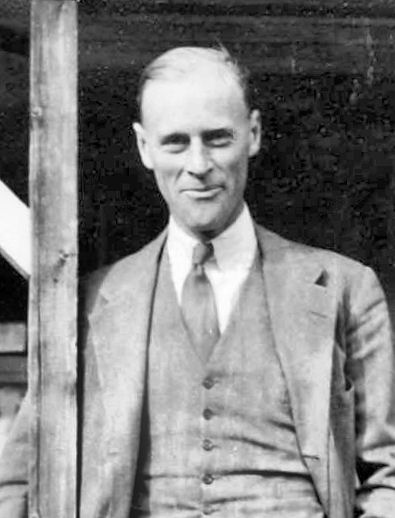 1932
19326ft 3in tall; educated at Eton and Cambridge
A Director of the family firm, J&J Colman Ltd (Colmans Mustard)
A very keen yachtsman; member of the Royal Yacht Squadron, the Royal Norfolk and Suffolk Yacht Club, and 'other local clubs'.
prev. Army Reservist 1932 to 1942 (Major). He went on active service to France with the Norfolk Yeomanry in 1939, returning with the evacuation of Dunkirk.
prev exp. 315 hrs. He had owned 3 aircraft:
- G-ABCD, a 1930 Avian IVM;
- G-ACTL, a 1934 DH Leopard Moth, and
- G-AFBC, a 1937 Percival Vega Gull.
Ferry Pool: No. 6
On Aug 5, 1942, he wrote to Cmdr Bathurst from 'Gastlings, Southill, Biggleswade':
"My dear Bathurst,
I have been expecting to turn out the guard for you at Barton this past 10 days on one of your routine inspections but have been disappointed in that so far.
This is a job to end all jobs as far as I am concerned and have enjoyed nothing so much in years: if you can kindly arrange to forget my existence until the winter afterwards it will be A1 by me!
I have drawn Paull for Instructor and he is first class, as are, I shd think, most of your team here."
He transferred to the Administrative Staff from 1 Dec 1942, as Assistant to the Chief Establishment Officer - essentially, a Personnel Officer, a job for which he was expected to be "occasionally flying".
On the 1st January 1943 he wrote this set of 'Handling Notes':
"Prima Donnas
I venture to put forward for your consideration the suggestion that you should cause to be promulgated amongst O.C.s and Adjutants of this Organisation some technical instruction on the above subject - either orally or in writing.
There is no dispute that the average pilot has more than the Human Average of Prima Donna Complex embedded in his temperament, and it appears probable that, more often than not, it will also be found that this Complex is highest in the best pilots and progresses geometrically with Anno Domini.
The Prima Donna may be defined for this purpose as one who can perform desirable - or even remarkable - feats of virtuosity over almost indefinite periods, granted only that a favourable atmosphere is maintained around her by the thoughtful provisions of four opportunities:
1. To exhibit Personality by indulging in a few little whims.
2. To blow off steam about Everything to a Sympathetic and Untiring Ear.
3. To receive occasional Encouragement or Praise.
4. Never to be criticised - or, if this must be done once in a while, then to have it so well wrapped up in the Chinese or Irish Manner that she may get the Idea without loss of 'face'.
It is undeniably a great nuisance to have to worry about such apparent trifles, especially in wartime, but the fact remains that our job is not to remake human nature, but to try to make the absolute best of the material that happens to be available, and I have a feeling, based on all too little experience admittedly, that we may sometimes be apt, in a natural attempt to produce a well-run and well disciplined show, to pay too little attention to the delicate art of handling our Prima Donnas.
The recent Meadway incident seems to illustrate this. The Army have an excellent and wise tradition that no superior officer should come within striking distance of a soldier who is under the influence of alcohol: I seriously suggest that for at least 24 hours after landing an aircraft, a pilot - if he has any pride at all - will be feeling so low and bloody-minded that it will be well worth his Superior Officer spending a few seconds thought before coming within verbal striking range of him.
... During the four months I spent in E. and AFTS I served under two or three C.O.s and several adjutants, but I do not think any one of them ever took the trouble to find out anything about me as an individual (except possibly my name and flying record) and I suspect that much the same would be true of Meadway. The latter, as it happened, was an easy going type whom you could get anything out of round the the fire over a glass of ale, but practically nothing over the Orderly Room Table or on the Mat, and armed with this knowledge I still believe that ATA might have made a useful servant out of him."
He went on to suggest that "O.C.s and adjutants be impressed with the need for knowing their personnel more intimately than they now do, and...for future appointments the quality of being a Good Mixer be designated a sine qua non for adjutants, and a Major Qualification for O.C.s."
Sadly, he died shortly after in a bizarre accident:
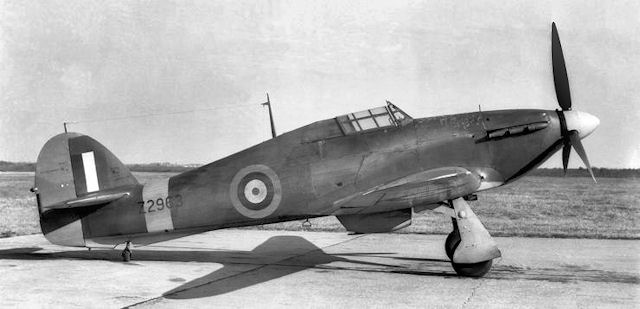
d. Sunday 17 Jan 1943 (Died in ATA Service) - in Hurricane II KX441 which made a normal landing at Sherburn, but struck a very wet patch and nosed over onto its back.
Alan drowned, in about 18in of water, before he could be rescued.
His obituary in the Eastern Daily Press concludes: "Generous, capable, and with the keenest zest for life and all its interests, throwing himself with all his varied gifts into all that he undertook, he inspired those around him to give also of their best. Only those who knew him well realised the depth and sincerity of his desire to help his fellow men, and his loss to those who knew him is an irreparable one."
He was cremated in Leeds, and his ashes were scattered from an aircraft, piloted by Douglas Fairweather, flying over Southampton Waters on the 29th January.
-
Coltman, Arthur Edward Henry
M.214 Flight Captain Arthur Edward Henry Coltman 
b. 25 May 1906, Leicester 1 Jan 1941 to 30 Nov 1945
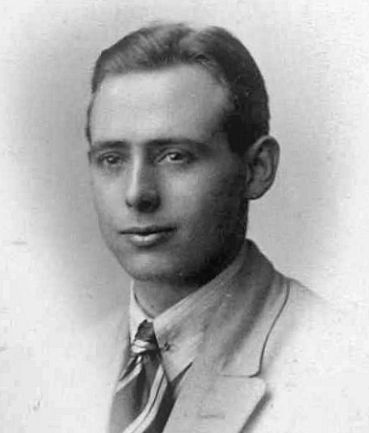 1929
1929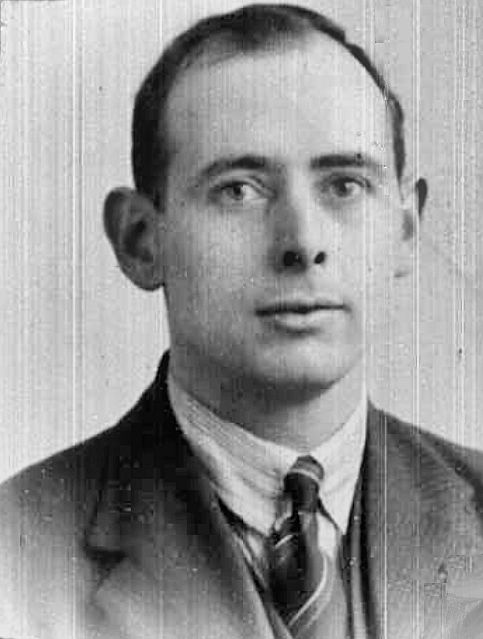 1939
1939Ed. Narborough School; Leicester Technical College
m. 1932 Hilda [Hayward] (2 children before 1941)
prev. Motor salesman, and then pilot for Taylorcraft Aeroplanes, Syston, Leics
RAF Sergeant - Link trainer instructor, Jun-Dec 1940
prev. exp. 153 hrs
Address in 1941: 'Avion', 60 Edward Ave, Braunstone, Leicester (later 3 Derwent Ave, Streatley, Luton, Beds)
Postings: 6FPP
Instructor from Jan 1943
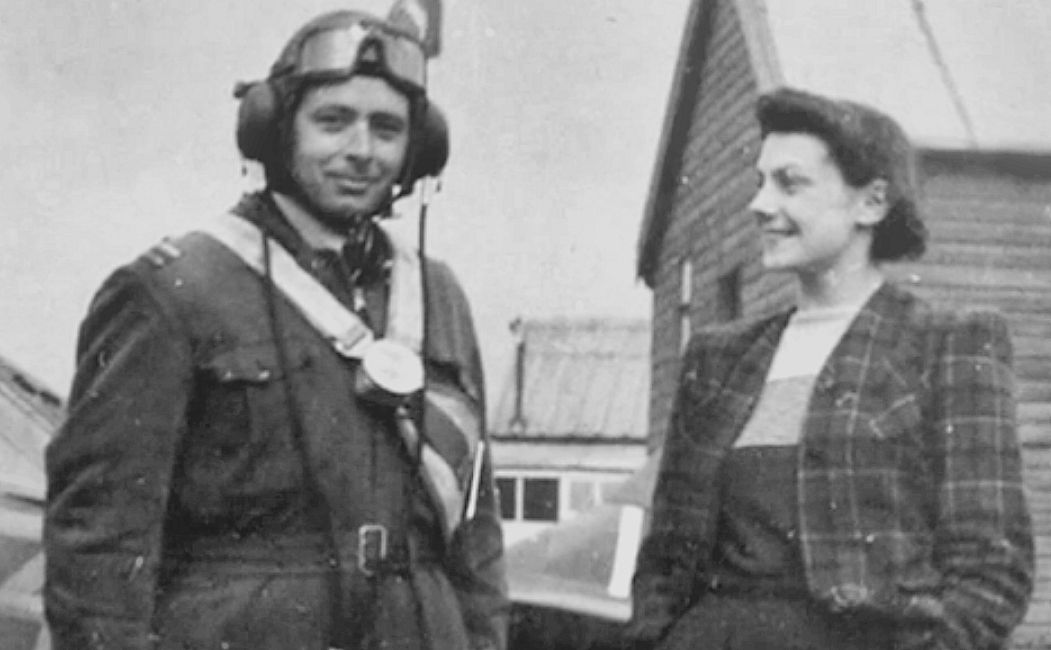 with Suzanne Palmer Chapman (ATAM)
with Suzanne Palmer Chapman (ATAM)3 accidents, 2 his fault:
- 4 Apr 1941, he landed his Hurricane on grass instead of runway as instructed
- 24 Feb 1942, swung to port and wingtip struck the ground, after partial engine failure
- 8 Mar 1942, port undercarriage leg of his Hampden broke adrift on landing
"A willing and hard working instructor who fits his present job better than he would a ferry pilot... his patience and placid temperament has undoubtedly been of great value in assisting backward pupils through the elementary stages of their training."
d. Sep 1997 - Market Harborough, Leicestershire
-
Cook, Arthur Harry
M.976 2nd Officer Arthur Harry Cook 
b. 29 May 1909 in Bletchley, Bucks 14 Jun 1943 to Jun-45
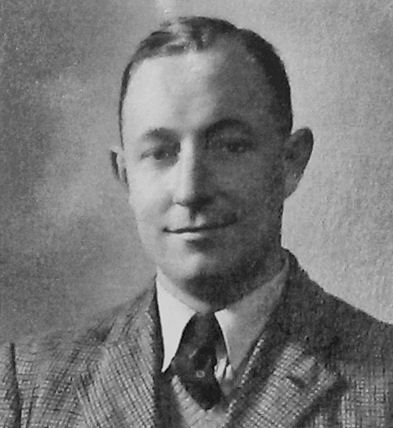 1932
1932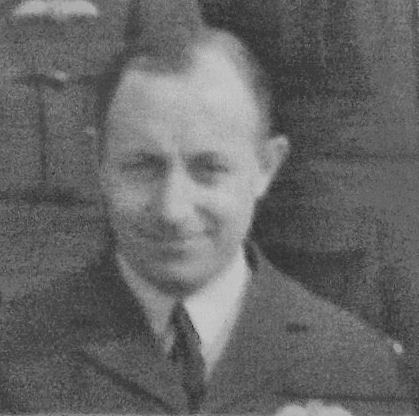 ATA
ATAEducated at Bletchley Grammar.
In 1932, worked for Beacon Brushes Ltd, Bletchley; apparently, brush-making is Bletchley's oldest large-scale industry and Beacon Brushes was formed in 1926 by 'Jack Cook and his sons'. See http://www.discovermiltonkeynes.co.uk
Arthur's father was called Arthur John Dennis Cook, but anyway by 1943 our Arthur was 'Works Manager and Joint Managing Director' of the firm, based at Church Farm, Wavendon, Bucks. Which is near Bletchley (that's enough mentions of Bletchley).
Competed in the King's Cup in 1934 and 1935
Although he had over 400 hrs flying experience before WWII, presumably due to a long lay-off from flying he joined as a Pilot Cadet. However, he progressed well ["a quiet and hard-working pilot... he has worked keenly and well and his discipline has been excellent]", and was appointed 3rd Officer in September 1943, then 2nd Officer in Jan 1944.
During his ATA career he flew 29 single- and twin-engine types.
d. 1980
-
Cook, Ernest
M.7 Captain Ernest 'Bertie' Cook 
b. 12 Jan 1915, Colchester 7 Nov 1940 to Aug-45
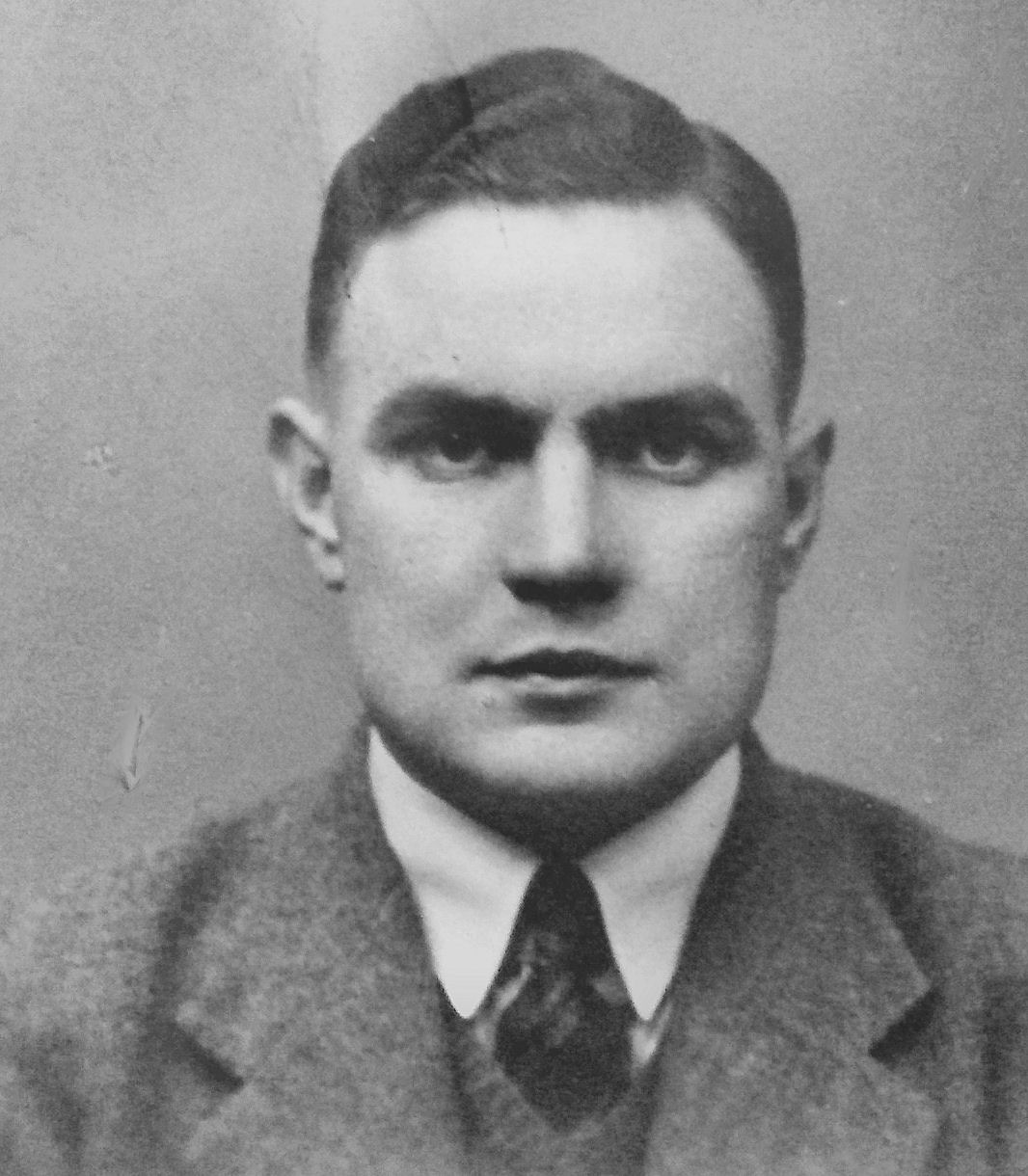 ATA
ATAprev. RAF, Pilot Officer, Aug-1931 to Jun-40
prev. exp. 260hrs
Postings: 4FPP, 4aFPP
Deputy C.O. of 4FFP after Apr 1942
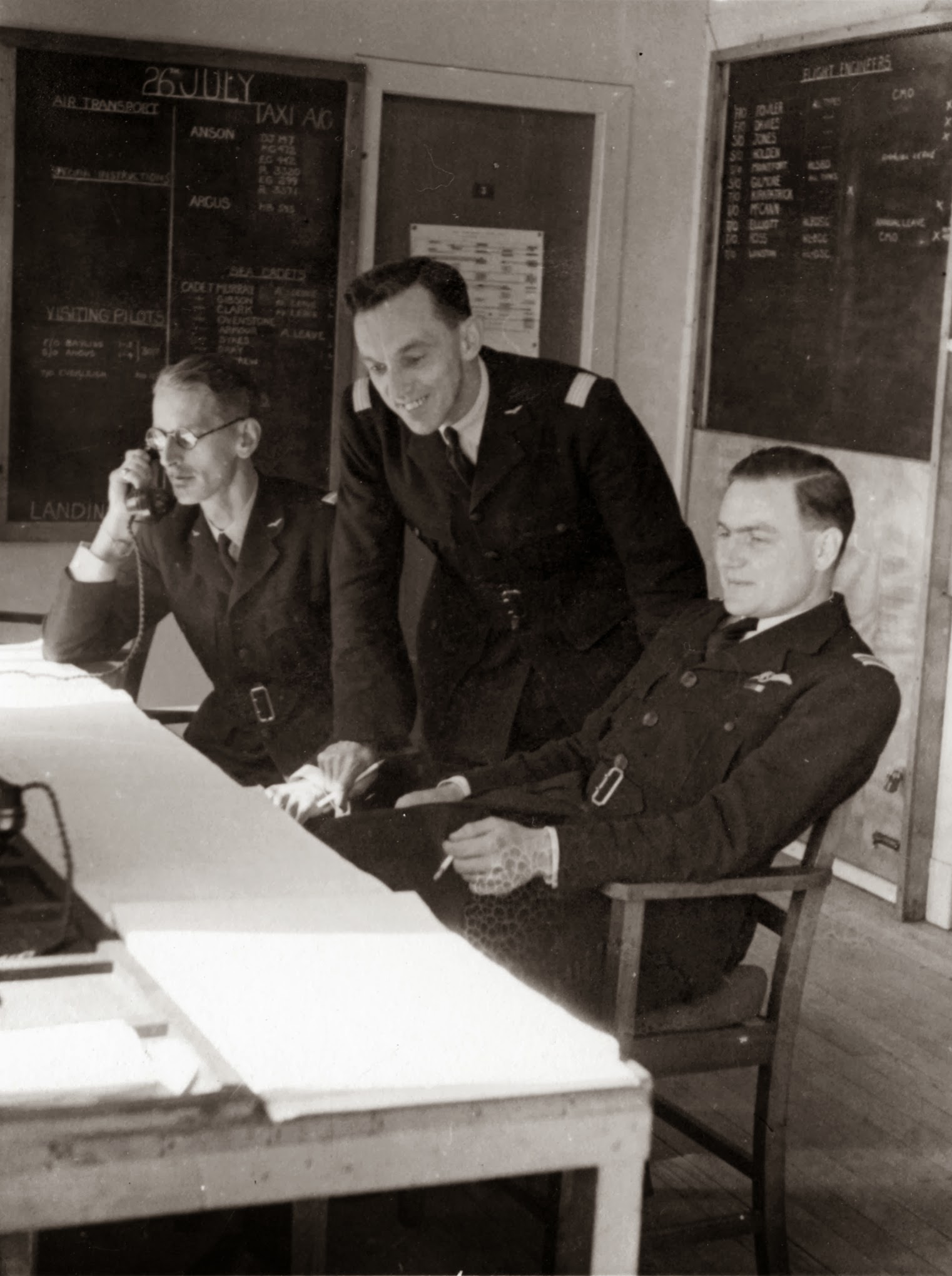
right, 1942 [with thanks to Nicholas Thomas]
Off sick after a flying accident from 22 Apr to 1st Jul 1943
"An excellent officer, who handles all duties assigned to him in an excellent manner."
-
Cook, Gerald Victor
M.183 Commander Gerald Victor Cook OBE 
b. 14 Aug 1910, Alverstoke (Gosport) Hants 19 Aug 1940 to Jul-45
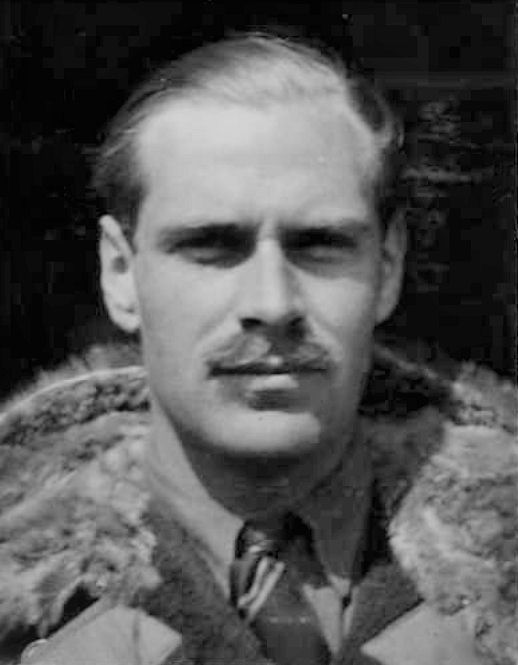 1935
1935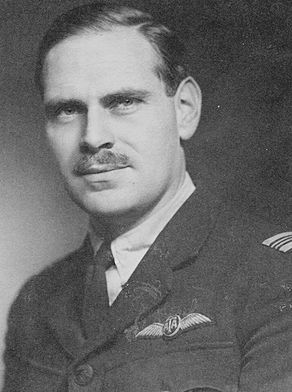 ATAM
ATAM"The second son of the late A. W. Cook, C.I.E., I.C.S., of Calcutta, and Mrs. Cook, Willstead Lodge, Lee-on-Solent"
prev. exp. 325hrs
prev. RAFVR from 1935-7 (invalided out due to ill health)
and, a Tea Broker
O.C. No 7 Ferry Pool, Sherburn, from 22 July 1941
"He is exceptionally keen, hard-working and competent as a pilot, but there has been some risk that he judges others by his own standards and drives his pilots too hard."
... although Brief Glory puts it rather differently: "But from the Pool Commander - who in most cases spent as much time in the air as his most junior pilot - downwards, everyone was happy."
d. Jun 1958 - Surrey
-
Cooke, John Caister
M.793 First Officer John Caister Cooke 
b. 26 Jan 1908, Spalding 16 Sep 1942 to Nov-45
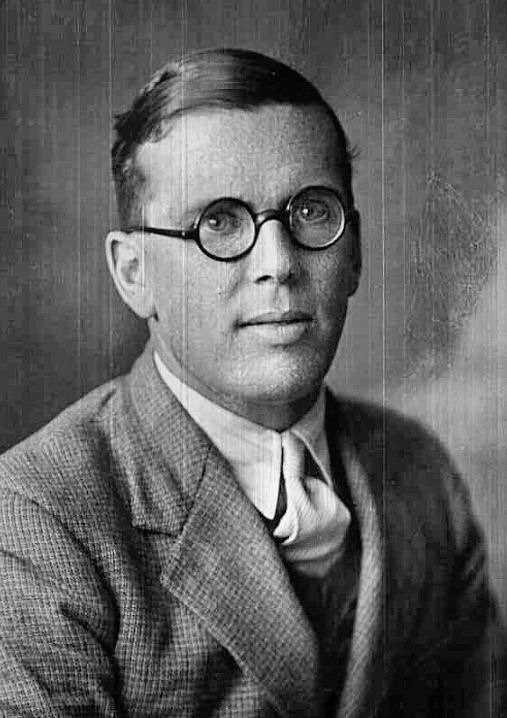 1938
1938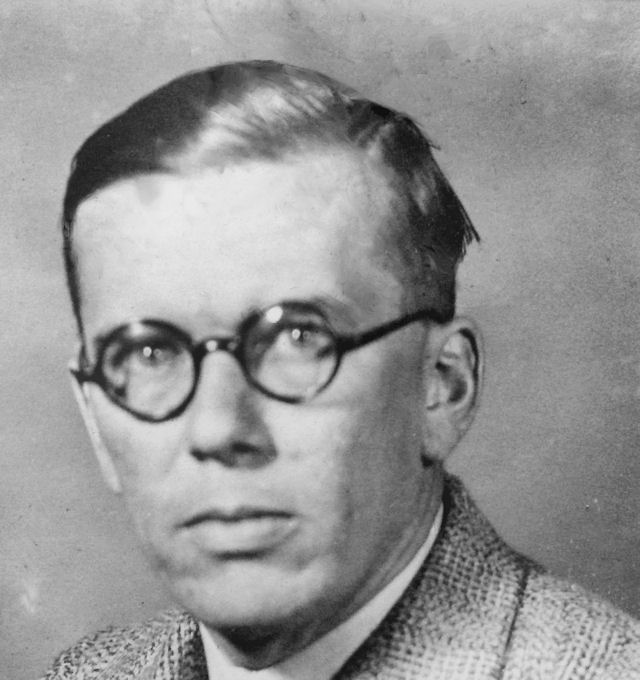 ATA
ATA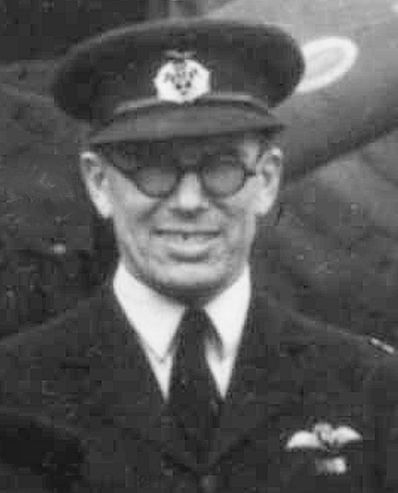 ATAM
ATAMMA Oxon
prev. a Maths Lecturer, Raffles College Singapore;
Flt Lt. in the Malayan Volunteer Air Force, Sep-40 to Aug-42
Postings: 3FPP, 7FPP, 16FPP
"A sound pilot of good average ability who made rapid progress."
later published several aeronautical engineering papers, e.g. "Supersonic laminar boundary layers on cones, (Aeronautical Research Council. Current papers, no. 1063)" (1969)
d. Sep 1991 - Dover, Kent
-
Cooper, Geoffrey James
M.1073 3rd Officer
[Seconded from RAF]
Geoffrey James Cooper 
b. 8 Dec 1917, Worcester 10 May 1944 to Apr-45
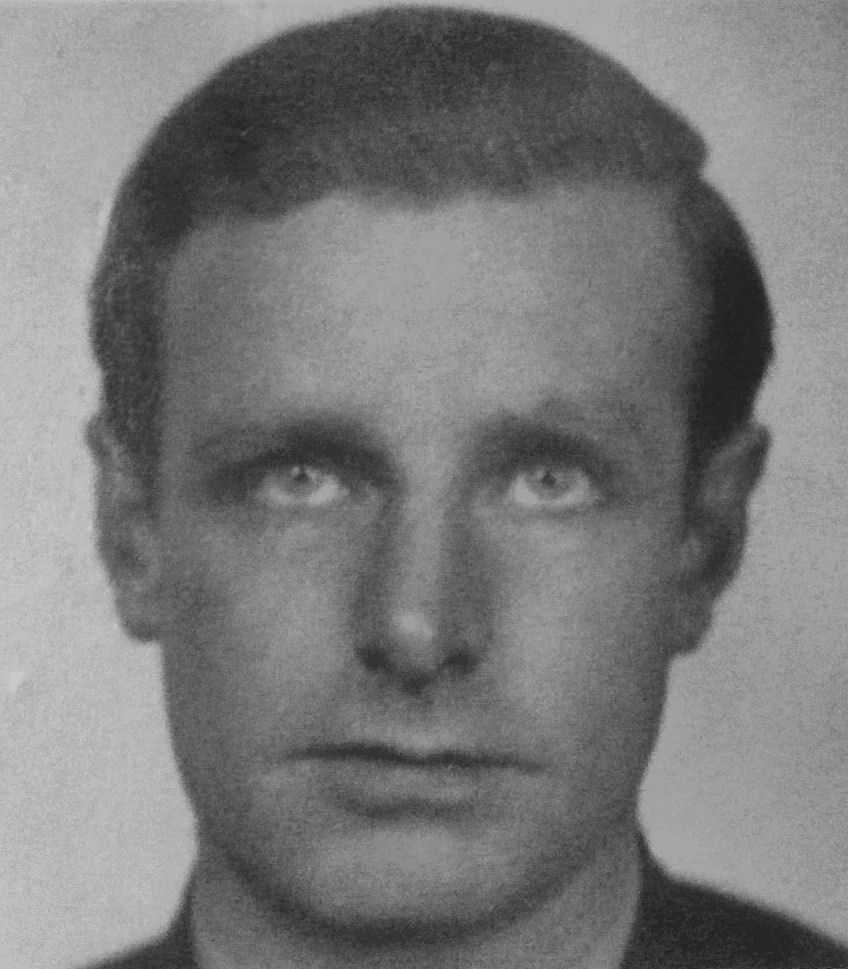
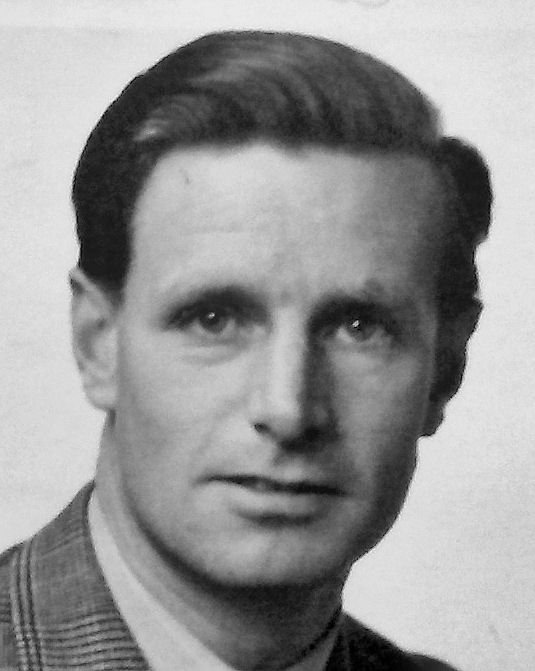 ATA
ATA
prev. Advertising, and RAF for 4 years
-
Coopper, David John
M.686 First Officer David John Coopper 
b. 20 Apr 1915, Bristol 6 Jan 1942 to Nov-45
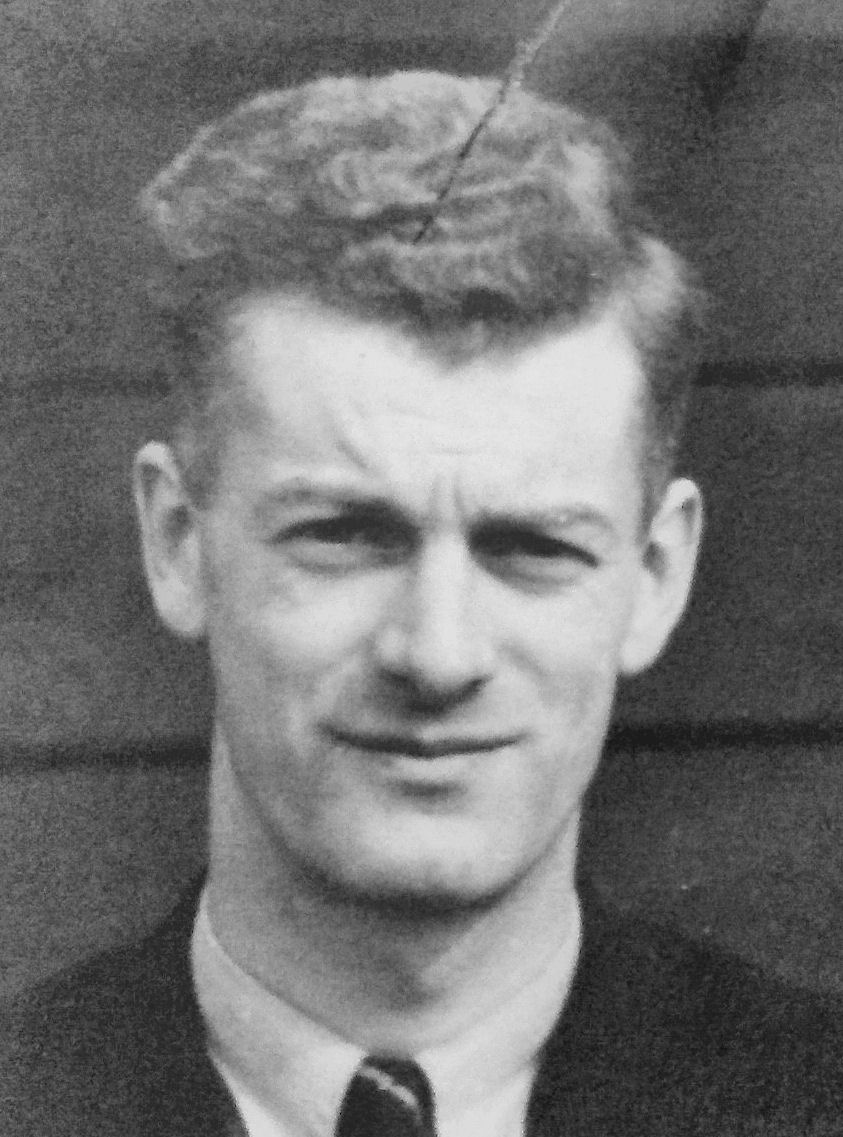
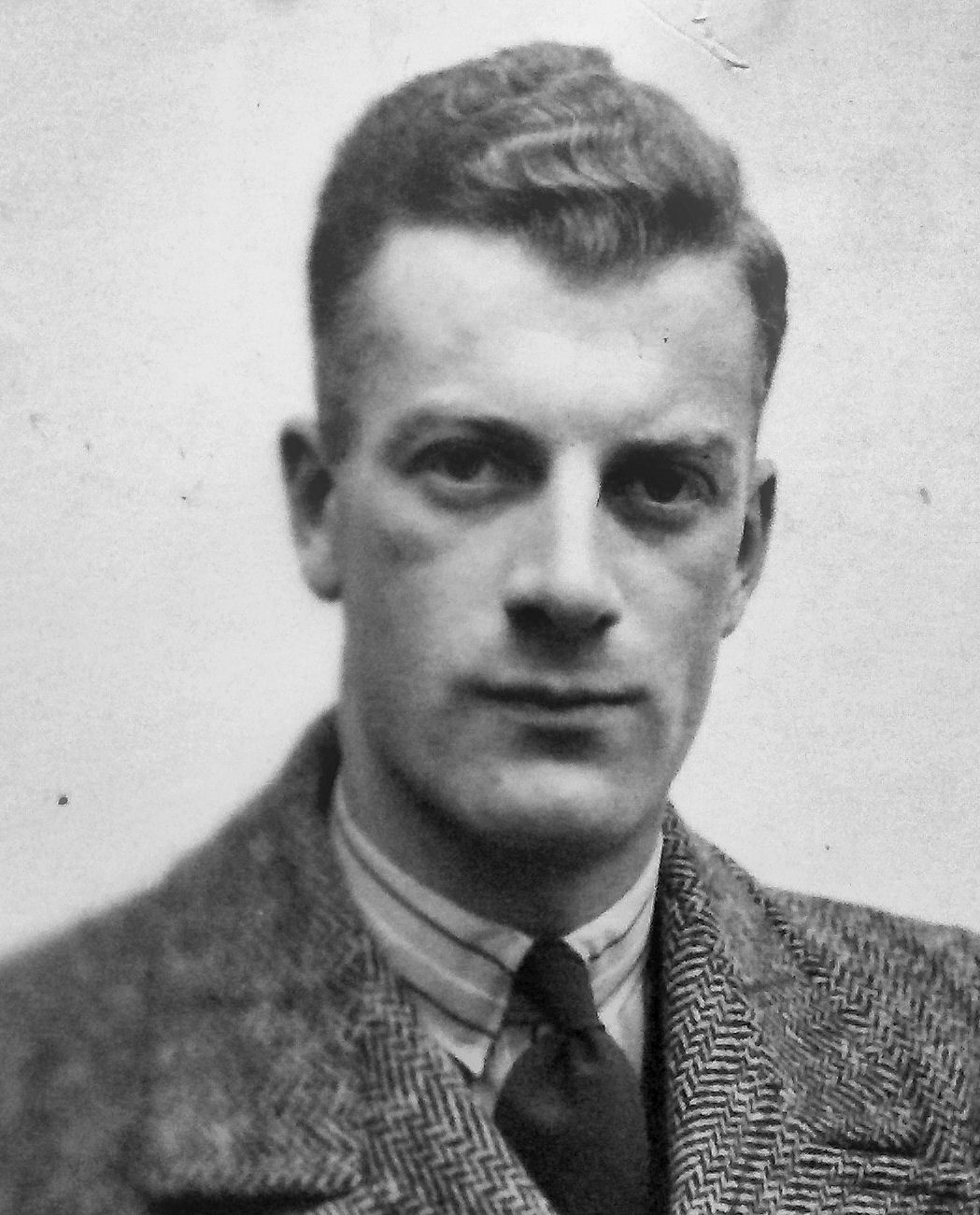 ATA
ATAprev. A clerk with WD & HO Wills, Bristol; RAFVR Sgt. Pilot 1937-41
Postings: 2FPP, 3FPP, 8FPP
"An extremely conscientious pilot"
d. Apr 2000, Bristol
-
Corrie, Robert Arthur
M.232 First Officer Robert Arthur Corrie 
b. 18 Sep 1905, Maidstone 25 Sep 1940 to Dec-43
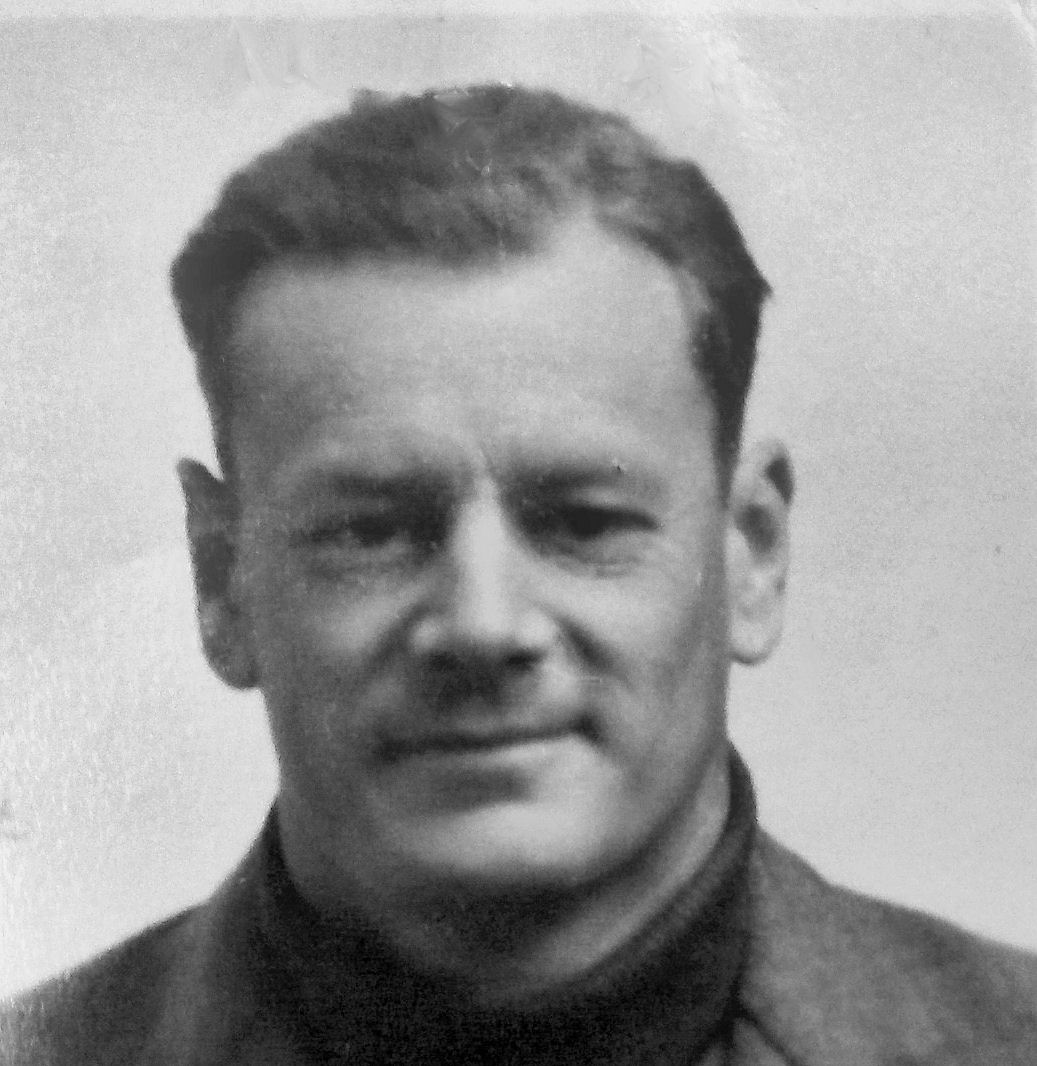 ATA
ATA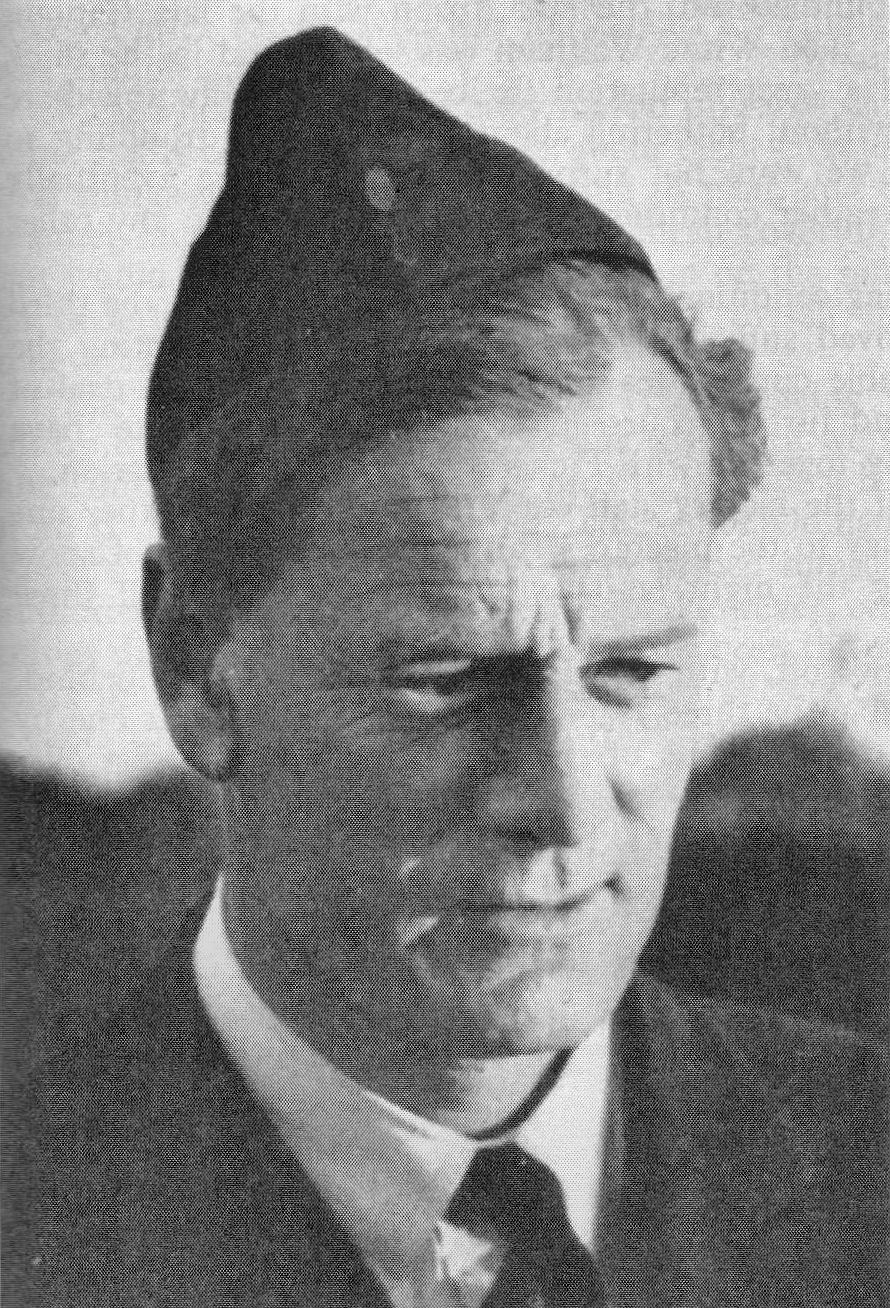 BG
BG"One-armed pilot and film actor" (Brief Glory)
prev. exp. 300hrs (pre-war he was restricted to single-engine types, but also flew twins in the ATA).
Postings: 1FPP
"An excellent ferry pilot whose disability handicaps him surprisingly little.... inclined towards conceit, but this does not detract from his usefulness."
-
Corsellis, Timothy John Manley
M.625 2nd Officer Timothy John Manley Corsellis 
b. 27 Jan 1921, Eltham, London 19 Aug to 10 Oct 1941
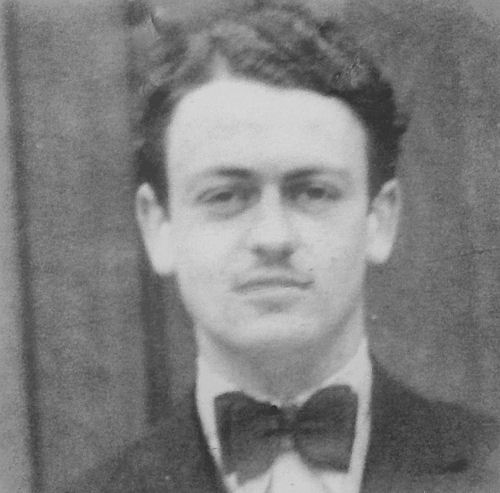 ATA
ATAFather: Douglas Henry Corselis, a Barrister-at-law:
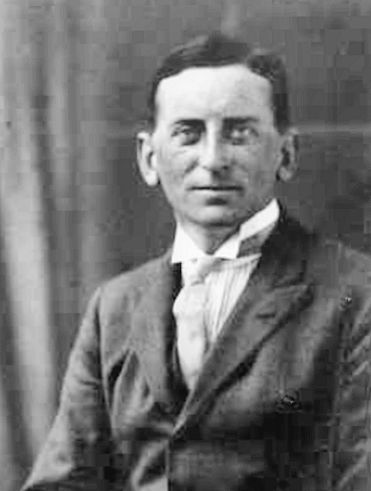 1928
1928[Douglas died 1 Nov 1930 when his DH.60G Moth G-AAEI crashed and caught fire after he hit the perimeter fence on landing in fog at Stag Lane Aerodrome, Edgware.]
Mother: Helen Mary [ Bendall], of Gaunt Mill, Standlake, Oxford
Ed. Winchester
prev. RAFVR pilot AC/2, LAC 11 Jul 1940 - 14 Feb 1941, based at Carlisle and Cranfield; Assistant ARP Organiser, Wandsworth
prev. exp. 35 hrs in Magister, Oxford
"The reason for my discharge from the RAF was my application to be drafted to a fighter squadron in order that I might avoid the possibility of being ordered to take part in indiscriminate bombing, which I would feel bound to disobey."
[I suppose we should point out that the RAF only allowed its most promising pilots to go for fighter training.]
The Town Clerk for Wandsworth Borough Council (one of his 'referees') said "He is a young man of considerable mental attainment and keen interest. His education at Winchester and work here should fit him for any appointment of responsibility and I have no hesitation in saying he will be thoroughly trustworthy"
Having checked with the Air Ministry to ensure that he was not required by the RAF or for other duties, the ATA invited him for a flight test. The resulting assessment was, "Take-off: Good; General Flying: Poor; Approach and Landing: Fair. Nervous type. 15 hrs for Class 1, Doubtful for Class 2"
Address in 1941: 2 Montague Gardens, London W1
By 27 September, Timothy had completed his Class 1 Technical Course, training in Ground Navigation and Morse Code, and about 25 hrs flying in Magister, Moth and Tutor. He was rated as a pilot of average ability, "but he has made good progress."
He was then cleared to fly Class 1 (light single-engine) aircraft.

d. 10 Oct 1941 (Died in ATA Service) - on his 3rd ferry flight, from Luton to Carlisle, Magister L8286 crashed at Warmanbie House, nr Annan, Dumfries.
He died instantly, from a fractured skull, and inter-cranial haemorrage.
There was "Insufficient evidence to determine the cause of the accident."
Retired Colonel Charles Spencer, the resident of Warmanbie House, said, "I was at the east side of Warmanbie House, when an RAF plane flew over the house from about north-east at a low altitude. I then saw it make a sudden violent swerve towards the north-west and dive out of sight.... In my opinion the engine did not stop prior to the crash." However, other witnesses reported that the plane had circled "a number of times" and the engine did stop before the crash.
Fellow pilot Percy Olieff also ferried a Magister from Luton to Carlisle that day, and had spoken to Timothy en route, at Sealand. "He told me he had stopped at Worcester to refuel, and I expressed surprise at this as the endurance of the Magister is about 3 hours. S/O Corsellis seemed to be jittery and on enquiry admitted that he had had a night out. I asked him why he had not been to see the Doctor, and he replied that he did feel all right."
His body was cremated in Oxford on 15 October 1941, and his ashes were scattered from an ATA Anson over heath land between Oxford and Kemble.
------------
"November 7th 1941
Dear Captain Kiek,
It was good of you to let me come to White Waltham - it comforted me to know that Timothy must have been happy in that atmosphere of efficiency & inspiration & aliveness.
I shall not forget how wonderfully patient & sympathetic you were - it was a hateful job for you to have to do but you did it perfectly and I do thank you.
I think it had to be, with Timothy - I felt sure the moment he started flying - just as I felt sure with his father.
I am thankful he was spared any agony.
Yours Sincerely,
Helen Corsellis"
------------
The £2,000 insurance claim was paid to his mother Helen on 13 Apr 1942.
Oxford DNB: "As with so many servicemen poets of the period, Timothy Corsellis first had his work published by the admirable Keidrich Rhys, himself serving as a gunner in the Royal Artillery. It belongs to the group of air force poets who include Henry Treece, John Pudney, and Vernon Watkins, while remaining distinctive and troubling. An edition of his collected poems has never been published. Corsellis's originality lies in his ability to reveal youthful disappointment with what was offered him. Barely grown up, and lacking his friend Weir's strong sense of cause, he wrote poetry that is a severe indictment of the grim world into which the war cast him.
Sometimes we pray to be hardened and callous,But God turns a deaf ear,And we know hate and sorrow- intimately,And we do not mind dying tomorrow.(Corsellis, ‘Dawn after the Raid’, Poems)"Wikpedia: https://en.wikipedia.org/wiki/Timothy_Corsellis
In 2012, 100 of his poems were published by Helen Goethals in 'The Unassuming Sky: The Life and Poetry of Timothy Corsellis'. " - https://www.wikitree.com/wiki/Corsellis-30, with thanks to Jim Turpy
-
Cotter, David George Sinclair
M.439 Flight Captain David George Sinclair Cotter MBE 
b. 18 May 1913, Leicester 16 May 1941 to Dec-45
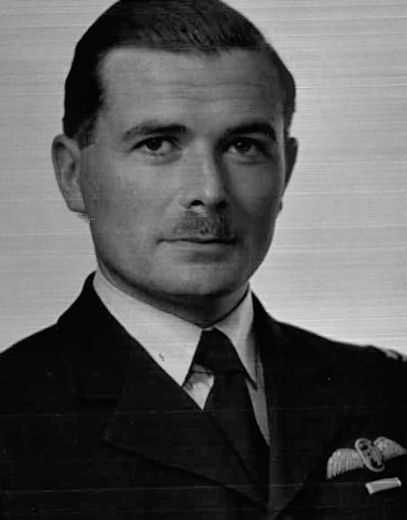 1945
1945Ed. St Paul's, London
RAF Short Service Commission, terminated 1933 due to ill health
Company Commander in the Home Guard May-40 to Jan-41
prev. Aircraft Inspector for Fairey Aviation, Hayes.
"A sound and smart officer who is a great asset to the ATA"
He was awarded a Certificate of Commendation for his part in the rescue of the crew of a returning operational Halifax III of No. 420 Squadron, piloted by Flight Lieutenant R. A. Kalle which, having been damaged during a sortie over Normandy, overshot the runway and caught fire at White Waltham on the 30th July 1944.
The full list of those commended was:
- pilots David Cotter (M.439), Reginald Davidson (M.918), Marvin Dunlavy (M.408), Alan Murray (M.1053);
- Fire Officer D Baldwin,
- Senior Flight Engineer Kenneth Payne, Engineer Second Officer Albert Gardner, Engineer Third Officer John Gulson, Engineer Second Officer Francis Lees, Engineer Third Officer Donald Soutter, and
- Mr J.J. Thompson.
He was also awarded an MBE. The citation reads "An aircraft crashed on landing and burst into flames. Despite the fire and the bombs on board, which subsequently exploded, the crew, five of whom were seriously injured in the crash, were extricated... First Officer Cotter gave invaluable help in getting the Rear-Gunner out of his turret, which had become jammed. The man was unconscious, lying partly in the turret and partly in the rear of the fuselage. While others worked on the turret from the outside, Cotter, finding the turret could not be swung back, entered the fuselage, after forcing the normal entrance. The starboard wing was blazing fiercely and the heat was so intense that the starboard elevator burst into flames. It was then found necessary to remove the gunner’s flying equipment before those outside could extricate him safely... Cotter showed great courage without thought for his own safety."
d. 2003, Surrey
Download ATA Pilot Personal Record (.zip file):
-
Cotton, Ralph Douglas
M.9 First Officer Ralph Douglas Cotton 
b. 15 Feb 1908, Hendon 11 Sep 1939 to Jun-41
A Bank Clerk in 1927; RAF Flying Officer 1928-30
m. Emily Mary Rawstron in May 1938: "The many Bedford sportsmen who remember R. D. Cotton, the Old Modernian, will wish him well in his married life. Last week Mr. Cotton married Miss E. M. Rawstron, of St. Anne’s, Lancashire, at the Parish Church, Lytham St. Anne’s.
Ralph Douglas Cotton, who is a flying and physical training instructor, played Rugby football and cricket for the Bedford Modern School about twelve years ago, and was also prominent as an athlete. In the Public Schools Championships in 1926 he won the pole-vault challenge cup at nine feet, and four years later he pole-vaulted for England.
On leaving school Cotton’s prowess as a centre-threequarter was soon recognised by the Town Club. He played many fine games for the Blues and also for the East Midlands. On moving north he won a place in the Lancashire fifteen. He has also played for the Royal Air Force, and is at present a member of the Fylde R.U.F.C. He is a member of the Blackpool and Fylde Aero Club.
Mr. Cotton is the only son of the late Mr. J. B. Cotton, and of Mrs Cotton, 16 St. Leonard’s Road, Marton. His wife comes of a well-known St. Anne’s family, being the third daughter of Mr. Arthur Rawstron. Alpha House, St. Andrew’s South. Mr. and Mrs. Cotton will live at Old Farm House, Little Poulton, Poulton-le-Fylde."
[Contract Terminated by ATA 7 Jun 1941 - Disciplinary Reasons]
Flying Instructor in Egypt post-WWII
Landlord of the Golden Cross Hotel, Marlbrook, near Bromsgrove in 1956 and of the Old Cock Hotel, Halifax, in 1961.
d. Jan 1986, Bedford
-
Cowdry, Roland Harry
M.992 2nd Officer Roland Harry Cowdry 
b. 3 Oct 1919, London 12 Jul 1943 to 31 Oct 1945
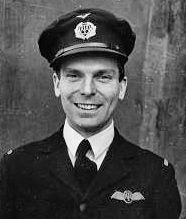 MAMM
MAMM
-
Craven, George
M.1111 3rd Officer
[Seconded from RAF]
George Craven 
b. 4 Mar 1914, Keighley, Yorks 14 Jul 1944 to Apr-45
Lived at: 26 James Place, Edinburgh with wife Sadie
prev. a worsted spinner
Postings: 4FPP, 5FPP, 16FPP
"His progress was slow... he showed a tendency to let things drift and not take action to remedy faults quickly."
At 16 Ferry Pool, he spent 1 month ferrying and he carried out his duties "satisfactorily."
d. Sep 1959 - Worth Valley, Yorks
Download ATA Pilot Personal Record (.zip files):
-
Cremonini, Guy Alan
M.296 2nd Officer (Acting First Officer) Guy Alan Cremonini 
b. 6 Jul 1917, Birmingham 25 Mar 1941 to Mar-42
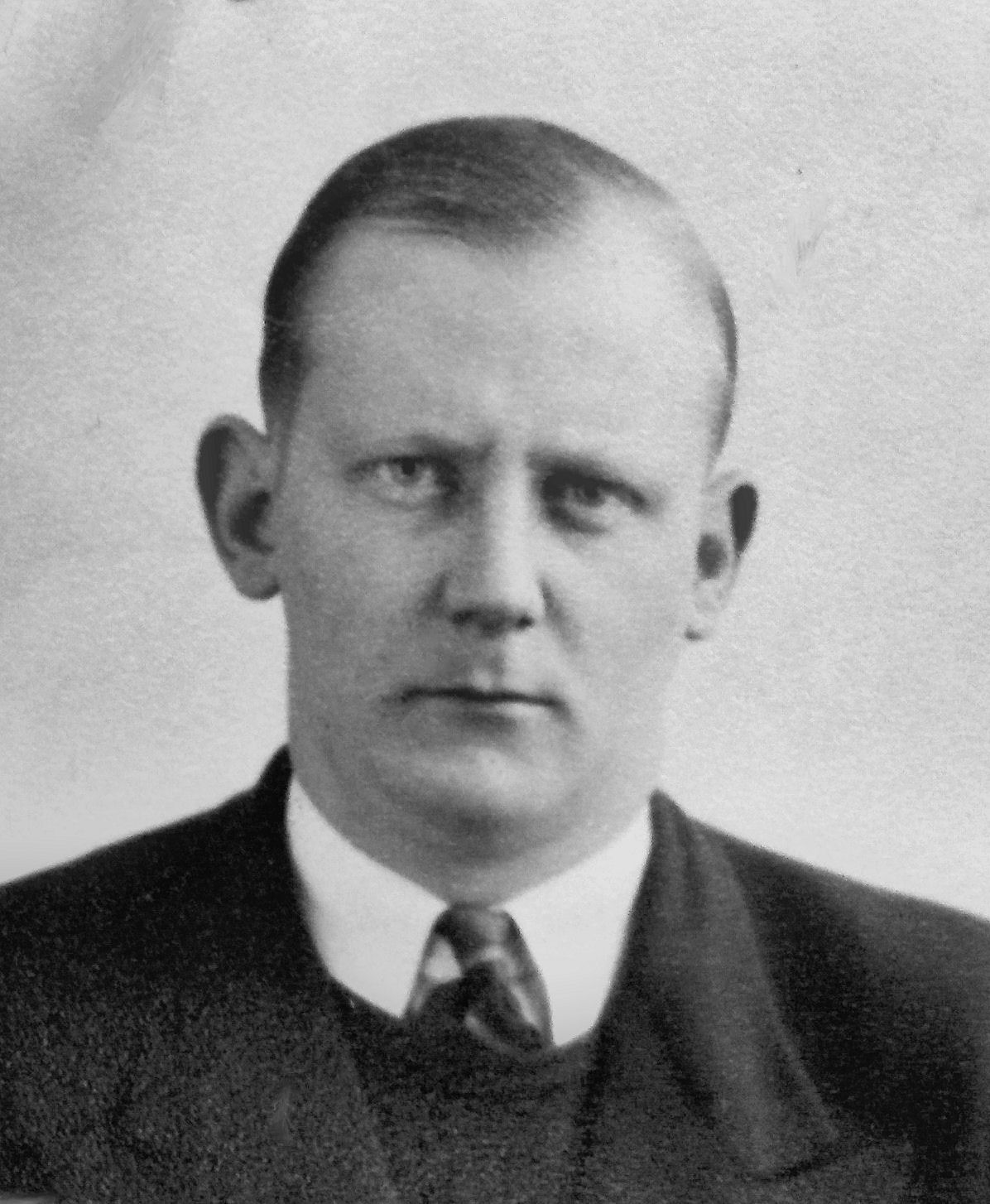 ATA
ATA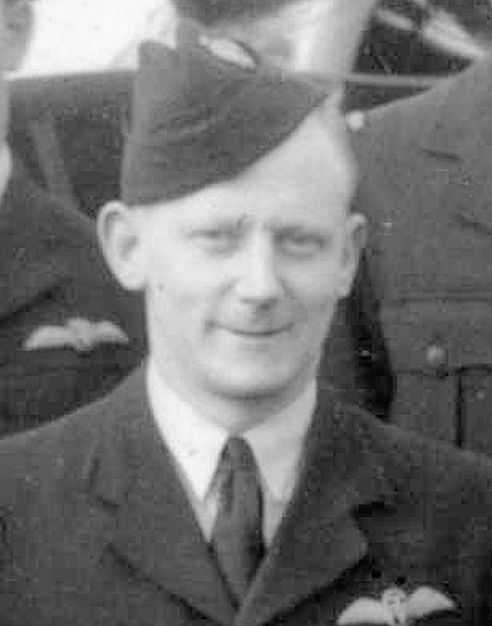 ATAM
ATAMprev. RAFVR Jan-39 to Feb-40 (Sgt Pilot, OTC)
[Contract Terminated by ATA - 'Temperamentally unsuited']
'A highly nervous pilot whose sense of judgement does not seem to be very steady. He is keen, but in the four months at [Ratcliffe] Pool he has consistently taken longer to complete jobs than other pilots.'
Changed surname to 'Jordon' (his mother's maiden name) in 1944
d. 1977
-
Cripps, Derek Arthur Rivers
M.491 Flight Captain Derek Arthur Rivers Cripps 
b. 17 Jun 1905, London 10 Jun 1941 to Nov-45
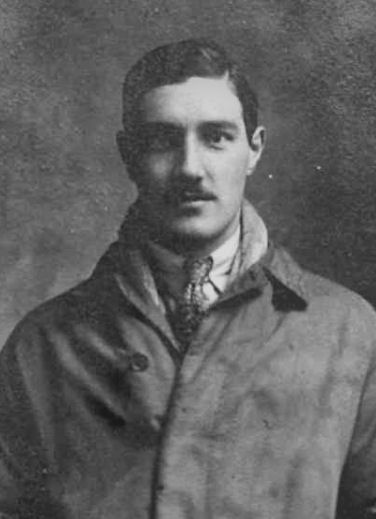 1928
1928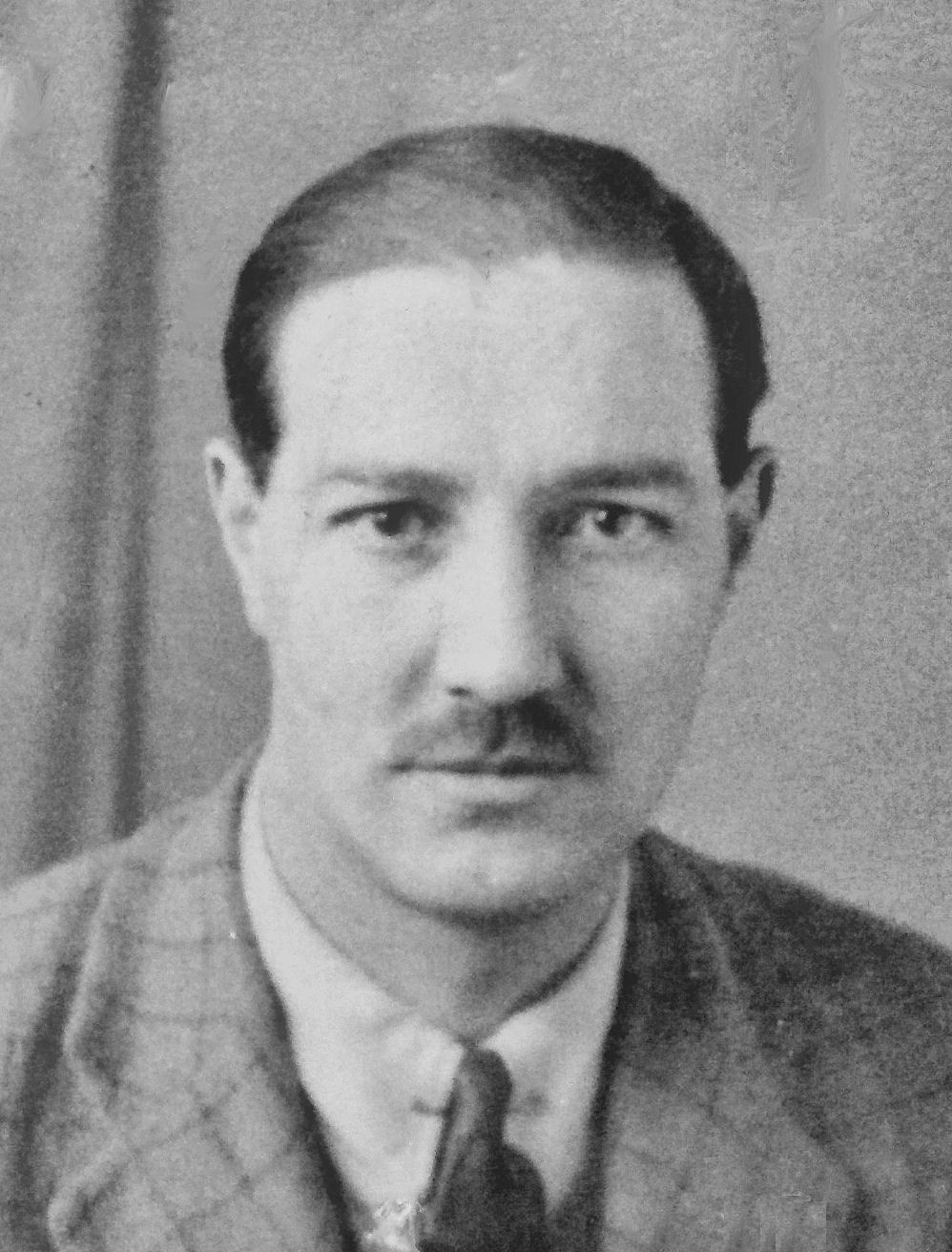 ATA
ATA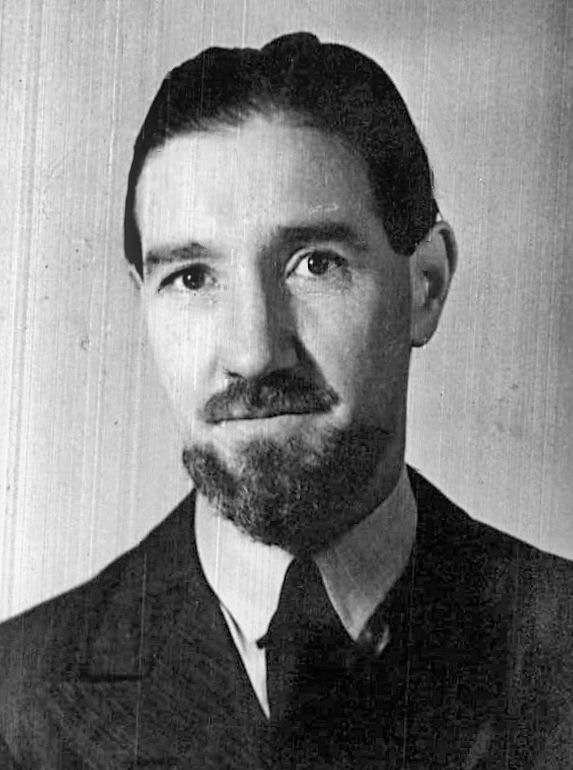 1946
1946ed. Malvern College - OTC Private 1919-22
prev. with Turner, Adamant Engineering Co, Dallow Lane, Luton
Postings: 1FPP, 5FPP, 6FPP, 7FPP
In Apr-43 he was posted to AFTS as an instructor: "A hard working & keen officer who had the making of a good instructor, but unfortunately, he apparently felt the work too much of a mental strain and he made application to revert to ferrying."
m. "Barbara Petronella Bowyer Or Reid" (also of the ATA) in Dec 1946
-
Critchley, Charles Brian
M.578 First Officer Charles Brian Critchley 
b. 14 Apr 1917, St Annes on Sea, Lancs 19 Jun 1941 to Nov-42
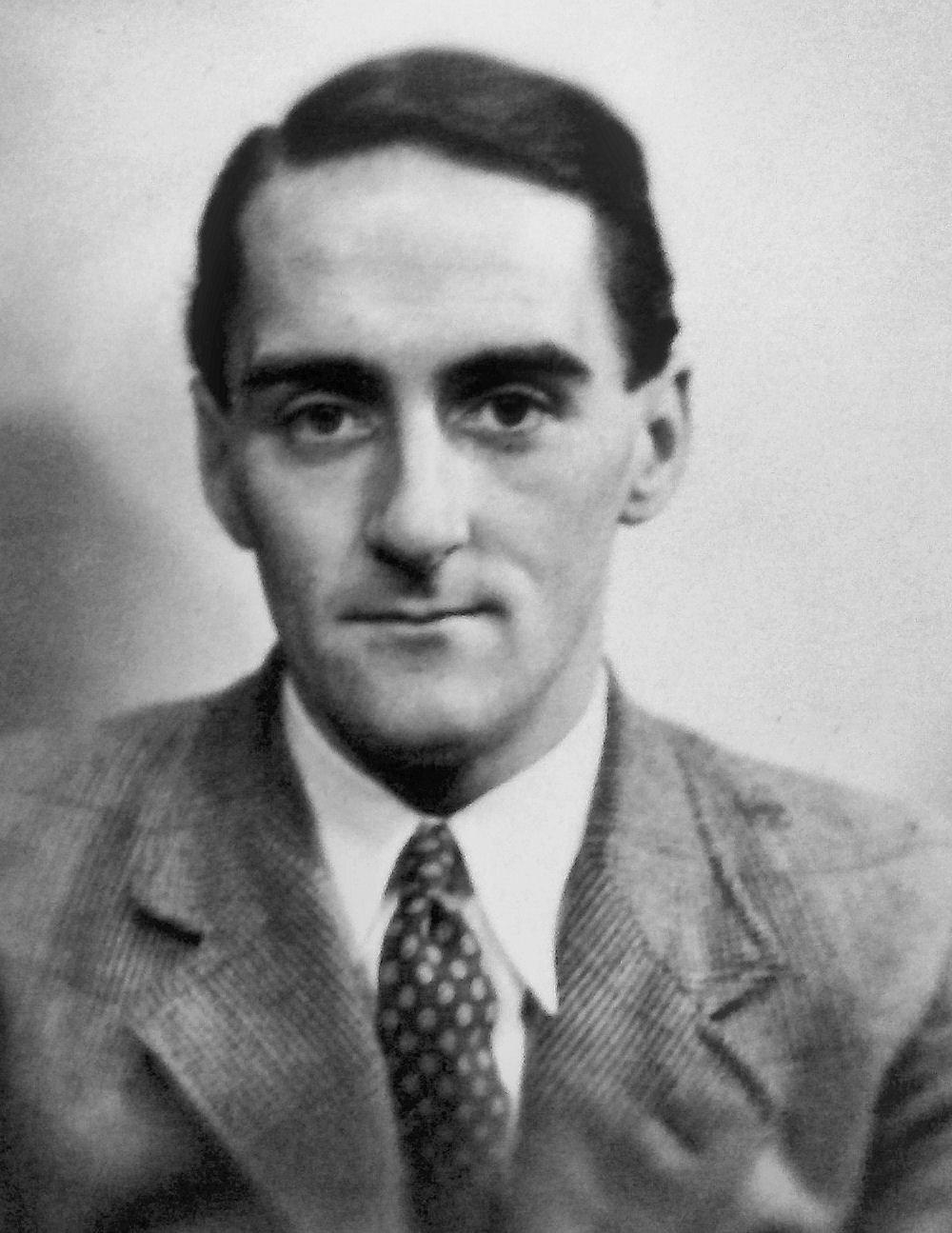 ATA
ATAprev. Fleet Air Arm Feb-39 to Sep-40;
A Cotton salesman for C Tattersall & Co, Manchester
d. Mar 1943, Hatfield?
-
Crossley, Fidelia Josephine (W.27)
W.27 2nd Officer Fidelia Josephine 'Delia' Crossley
Mrs Schubert

b. 1 Jun 1905, Altringcham Cheshire 16 Dec-40 to Jan-42
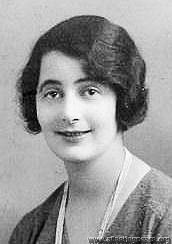 RAeC 1930
RAeC 1930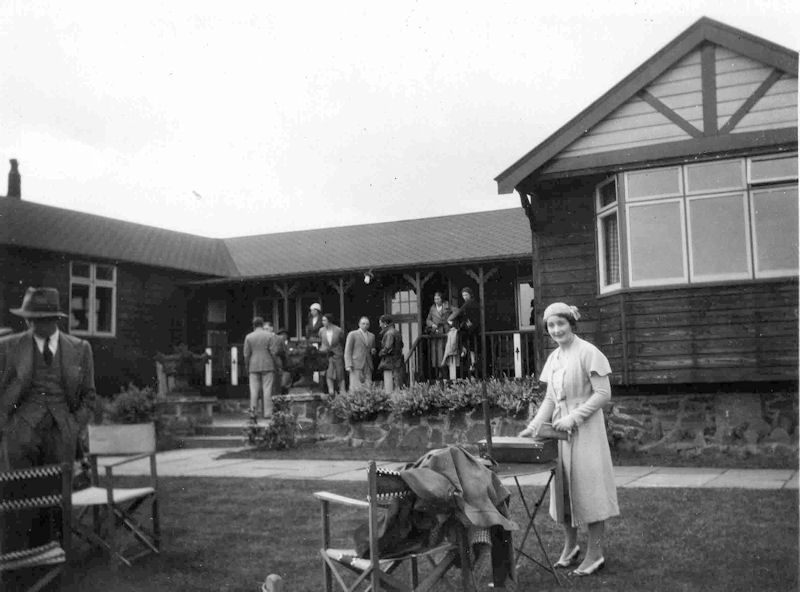
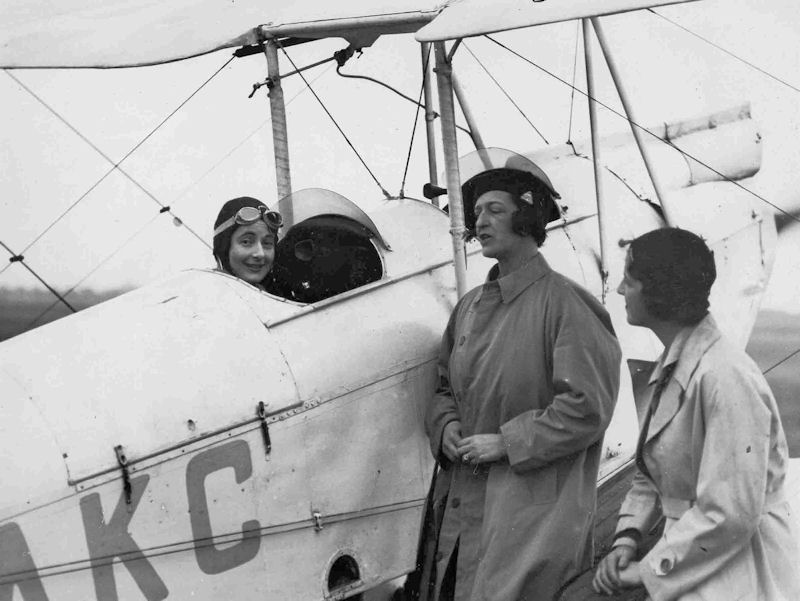
The daughter of Sir Kenneth Irwin, 2nd Baronet Crossley, Chairman of the Crossley Car and Engineering companies in Manchester.
In 1919, the Crossley family moved to Combermere Abbey, Whitchurch, Shropshire and her father held the offices of High Sheriff and Justice of the Peace for Cheshire. These days, although it continues in private ownership, Combermere Abbey ‘welcomes visitors in groups or on specific days by appointment’. It has been described as ‘one of the most romantic places in Europe’ .
Gained her pilot’s licence in 1930. She only competed in the King’s Cup once - in 1931, when she was the only woman competitor to finish, a gallant 20th out of the 21 finishers (another 20 dropped out on the way, don't forget).
August 1931 found her in Dublin; "Among the visitors was one who deserved especial mention, and that was the intrepid Miss Crossley, who put up such a fine show in the recent King's Cup race. She flew the long way round, and is now continuing to tour the country."
In 1932, she visited India, where "we hear she has been doing a considerable amount of flying." In fact, she competed in the Viceroy Cup (India's version of the King's Cup) with 5 other English pilots and 6 from India.
She also competed in several other races and gatherings, e.g.
- Ladies event at Reading (May, 1931) - the other competitors were Amy Johnson, Pauline Gower, Dorothy Spicer, Gabrielle Burr (Patterson), Susan Slade, and Winifred Spooner - a historic gathering indeed.

- London-Newcastle, August 1932, in Comper Swift G-ABUA; finished 11th of 18
- Yorkshire Tophy Race, September 1932 (not placed);
- Heston-Cardiff, October 1932, also in Comper Swift G-ABUA; finished 3rd of 9
- the second 'Bienvenue Aerienne' in France (July 1934)
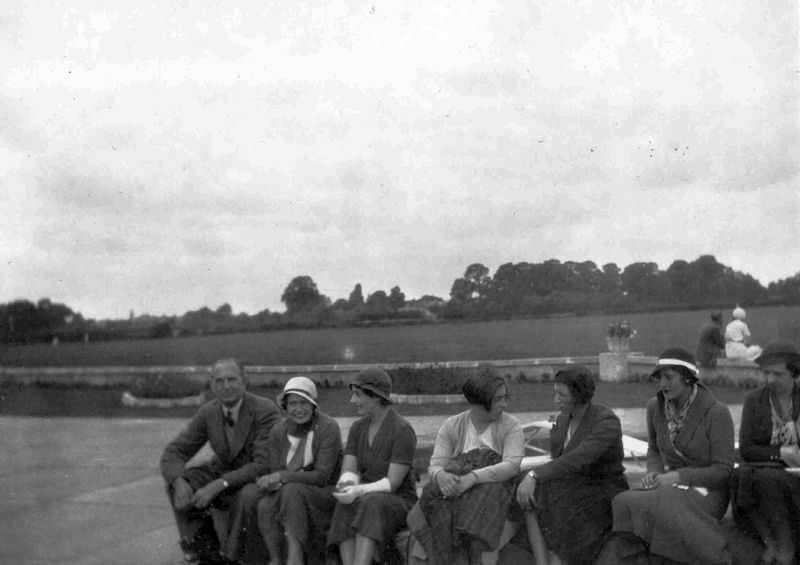
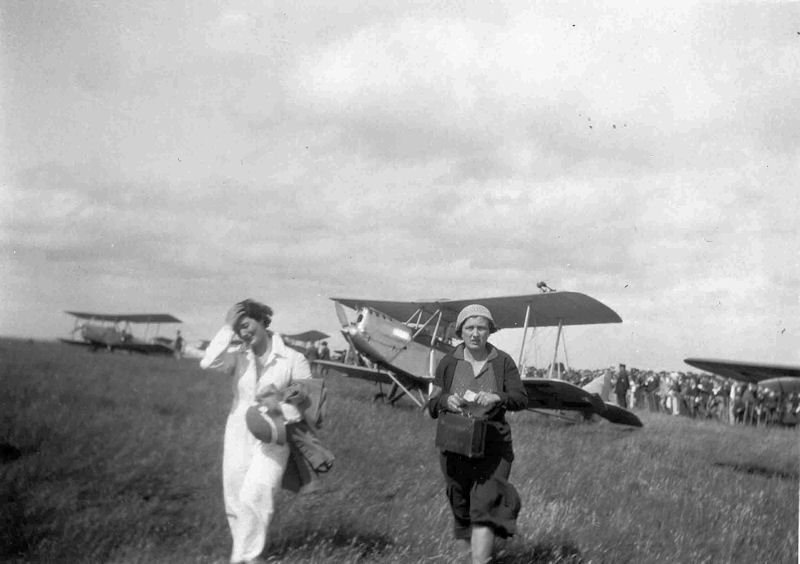
Delia with C C Grey (editor of 'The Aeroplane'), Mrs Grey, Connie Leathart and others.
She also entered her Comper Swift in the 1932 King's Cup Race, but withdrew before the start, and seems to have retired from air racing in 1935.
On the outbreak of WWII, Delia became an ambulance driver for the London County Council, but then applied for a job as a ferry pilot for the ATA. She started as a Second Officer on the 16th December 1940, but suffered a bout of 'corozyia' (presumably coryza, i.e. catarrhal inflammation of the mucous membrane in the nose) which kept her out for 6 weeks in October/November 1941, so that she didn't complete her training and start at a Ferry Pool until December 1941.
A few weeks later, on the 11th Januuary 1942, she had an accident in a Hurricane; when landing in bad weather, she overshot and went through a hedge. She was considered to be at fault, having 'persisted too far in bad weather and had to land in conditions which were too difficult for her', and her contract was terminated a couple of weeks later.
She married Geza O Schubert in September 1949.
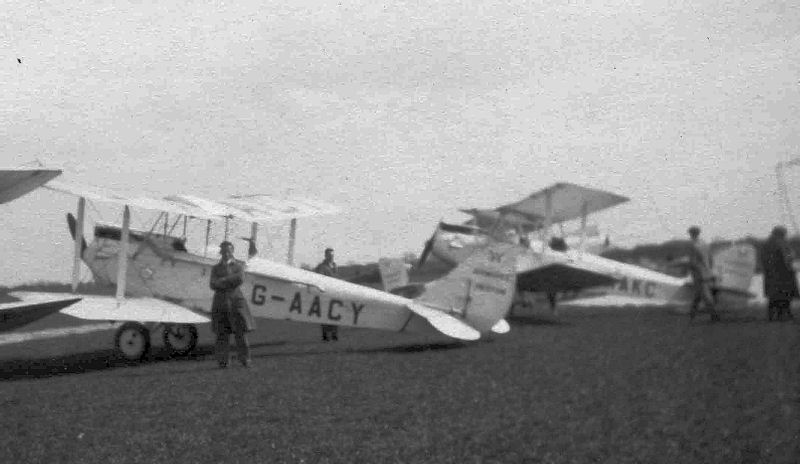
Fidelia’s de Havilland D.H. 60G Gipsy Moth G-AAKC (seen here behind G-AACY) was first registered in July 1929, and she bought it from Malcolm Campbell Ltd, the Moth distributors for the UK. She eventually passed it to her father, and it was then sold in South Africa in 1937.
Her Comper Swift was first registered in February 1932 to J D M Gray, and she sold it to Arthur H Cook (q.v.). It ended up in Indonesia.
d. c.1980
... and there's a splendid page about 'Combermere's Pioneering Aviatrix Delia Crossley' here, written by the archivist at Combermere Abbey.
-
Crossley, Winifred Mary (W.4)
W.4 Flight Captain
Mrs Winifred Mary 'Winnie' Crossley

9 Jan 1906, St Neots. 1 Jan 1940 to 30 Nov 1945
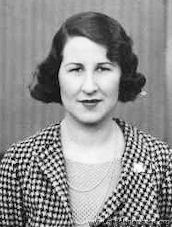
RAeC 1934
nee Harrisson
Her father was a G.P. Dr. Ernest Henry Harrisson and they lived at 'The Priory' and/or 'The Shrubbery', St Neots. He was famous for bringing the St Neots [Miles] quadruplets into the world in 1935.
She had an older brother [John Ernest McRae], a twin sister [Daphne Louisa], a younger brother George Granville, and a younger sister Muriel (b. 1912).
Educated at Burchett House, Dorking
m. Sep 1926 James Francis 'Frank' Crossley. In 1930 they lived in Mallowry, Riseley, N. Beds.
They had 1 child, John James, b. 1929 (he apparently "often flew with her.") **
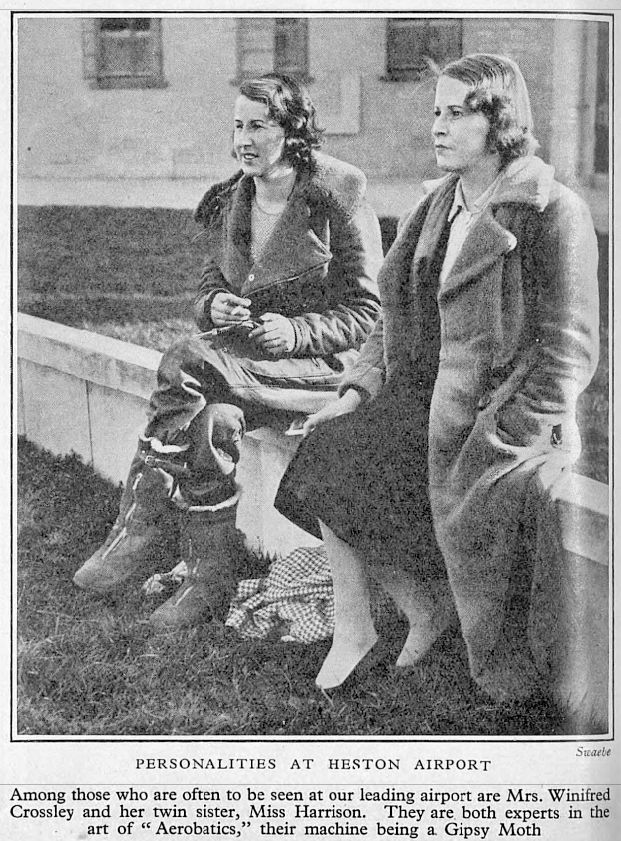 The Tatler, 1935
The Tatler, 1935prev. exp 1866 hrs on 'most single engine types; slight knowledge of twins'.
Owned a DH Gyspy Moth I in 1935. Learnt to fly at the Norfolk and Norwich Aero Club.
prev. performed aerobatics with CWA Scott's 'Flying for All' Aerial Circus:
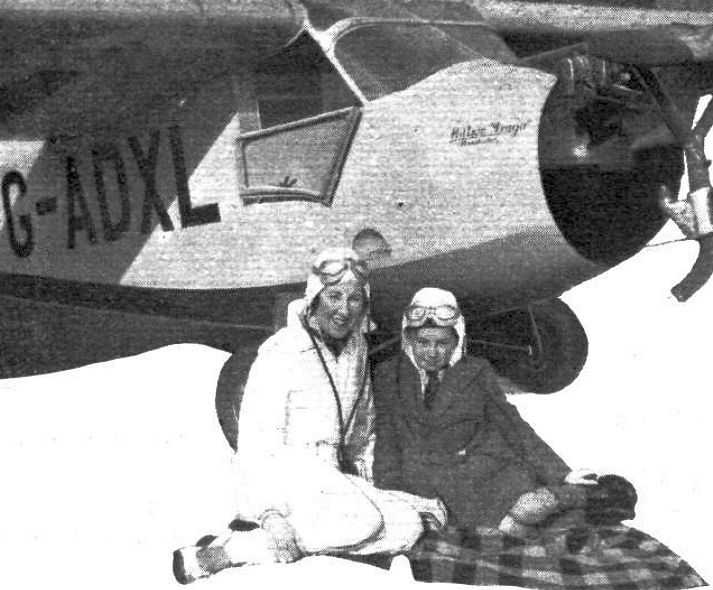
Mrs. Crossley, the Display's lady aerobatic pilot, with Master Rice (whose father deals with the publicity) and the Hillson-Praga Baby monoplane. [Flight, Apr 1936)
3 Sep 1936: (Flying for All) "Mrs. Winifred Crossley provides one of the most amazing features of the display. She is the first woman acrobatic pilot, and although she has only been flying for two years she has reached a surprisingly high standard."
... then the only woman pilot for Air Publicity Ltd, Heston from 1936, towing advertising banners; for example, in July 1937 she flew over Whitehall towing a banner reading "Give All Civil Servants Pensions".
Lived in Gamlingay, Beds from 1932-39. Represented Bedfordshire at lawn tennis.
Address in 1940: Newhaven Court Hotel, Cromer, Norfolk
4-engine (Class 5) pilot
Postings: Hatfield, 5FPP, 9FPP, 6FPP, 4FPP
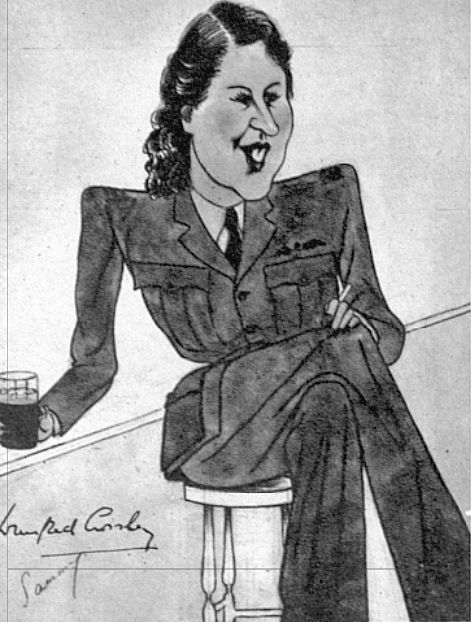 1942 caricature by 'Sammy' Clayton
1942 caricature by 'Sammy' Clayton"General Conduct: Average. Qualities of Leadership: Not markedly good. A pleasant and amiable person who is friendly and helpful to her less experienced colleagues."
"Has now cultivated a sense of responsibility. Very reliable pilot."
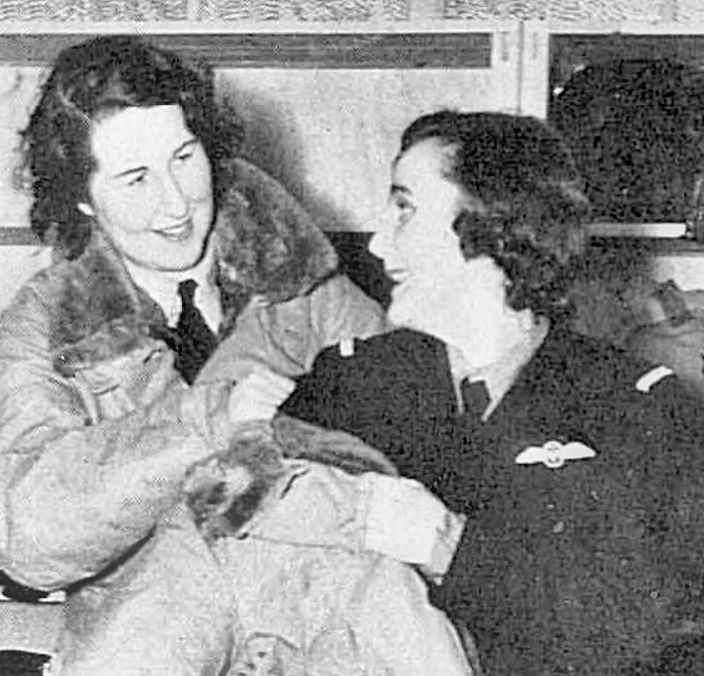 with Joan Hughes in 1940
with Joan Hughes in 1940In 1944 Norman Whitehurst wrote: "A smooth and polished pilot. She is apprehensive of poor weather to an extraordinary degree for such an experienced and good pilot. Discipline is fair and her influence, which is considerable, is not perhaps always in the best interests of the unit. She has lately shown improvement in this respect. She is at all times an amiable person of great charm and is extremely kind-hearted."
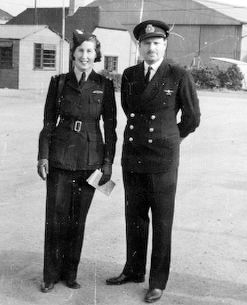 ELC
ELCSeparated from her first husband Frank; in 1943 she married Canadian airline captain Peter Cleugh Fair, later General Manager of BOAC-owned Bahamas Airways in Nassau.
Daily Record - Thursday 09 September 1943: "FLYING ROMANCE. Mrs. WINIFRED CROSSLEY, one of Britain’s finest women fliers, is spending a golfing holiday in Ayrshire with her fiance, Captain P. C. Fair, of British Airways. Slim, dark-haired, she is the daughter of the late Dr. E H Harrison, who brought the St. Neots quads into the world. She flew milk for the quads from London daily during the first weeks of their life. Captain Fair, who has been flying for 18 years, says that his bride-to-be is a better pilot than himself. She has done 4,000 flying hours, probably far more than any other woman in the world."
Peter Cleugh Fair (b. 18 May 1906 in Ontario) had travelled to England in 1927 and joined the RAF. He was promoted to Flying Officer in Dec 1928, was stationed at Uxbridge in 1934, and eventually was placed on the retired list at his own request in April 1937.
Andy Pickering tells me that "Peter Fair was an Imperial Airways pilot who lost a Lockheed model 14 Super Electra in the Mediterranean on Dec 21st 1939, G-AFYU. It seems it was the first ever BOAC loss, the company having only being formed a few weeks before. There were 6 survivors from a complement of 11, Fair being injured and rescued by a French ship off Sicily after a RN search."In January 1955, when 'fun-loving royal' Princess Margaret flew from London to Trinidad for an official visit, she was piloted by "Captain Peter Cleugh Fair, 48-year old Canadian who has flown the Atlantic nearly 400 times.
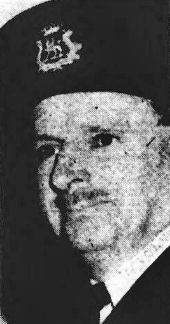
Captain Fair is one of BOAC's senior commanders and has logged more than 13,000 flying hours."
** Sadly, her son died in 1950: "On November 18, 1950, at Bovey Tracey. John James Crossley, only son of Mr. Frank Crossley and Mrs. Winifred Fair" Western Morning News
Western Times - Friday 24 November 1950: "LOSS TO PARISH.—The death of Mr. John Crossley has cast a gloom over local cricketing circles. Deceased was only about 22, and had been a playing member of the Bovey Tracey Cricket Club for some years. He lived at Harbertonford. His death came with tragic suddenness. He was at Bovey Tracey on Thursday night last, and, not feeling very well, went to bed. Returning to his home, he became worse, and on Saturday was removed to Bovey hospital, where he died soon after admission. Only a fortnight ago he received the president's bat for being the best all-rounder for last season. Mr. Crossley was a nephew of Dr. John Harrison, the president of Bovey Tracey Cricket Club. There was a large attendance at the funeral service held in Bovey Tracey parish church. The Rev. G. O. C. Duxbury, M.A.. vicar, officiated. Members of the club acted as bearers."
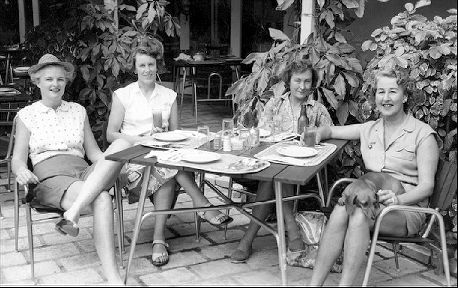
l to r Ann Wood-Kelly, Lettice Curtis, Ruth Ballard and Winnie, Nassau 1957 (ELC)
They came back to the UK to visit Alan and Lois Butler in Studham in 1960.
Peter died in 1961, and was buried with his mother [Sophia Meiklejohn Cleugh Fair] and brother [Howard Cleugh Fair] in Pennsylvania.
Winnie moved back to the UK and d. 1984 in Aylesbury, Bucks.
[Ultimate trivia fact: Winifred's younger sister Muriel married Peter Fair's brother Alfred!]
-
Crowder, Eric Noel
M.709 2nd Officer Eric Noel Crowder 
b. 4 Dec 1903, Chester 20 Jan 1942 to Oct-44
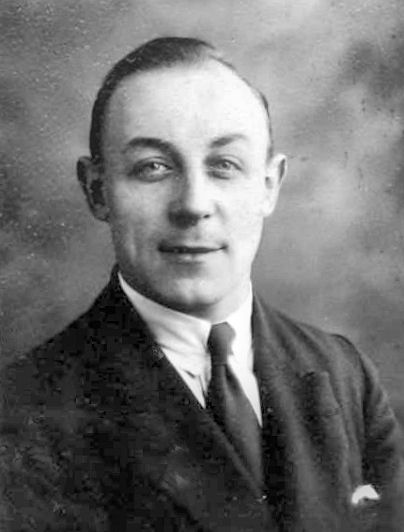 1931
1931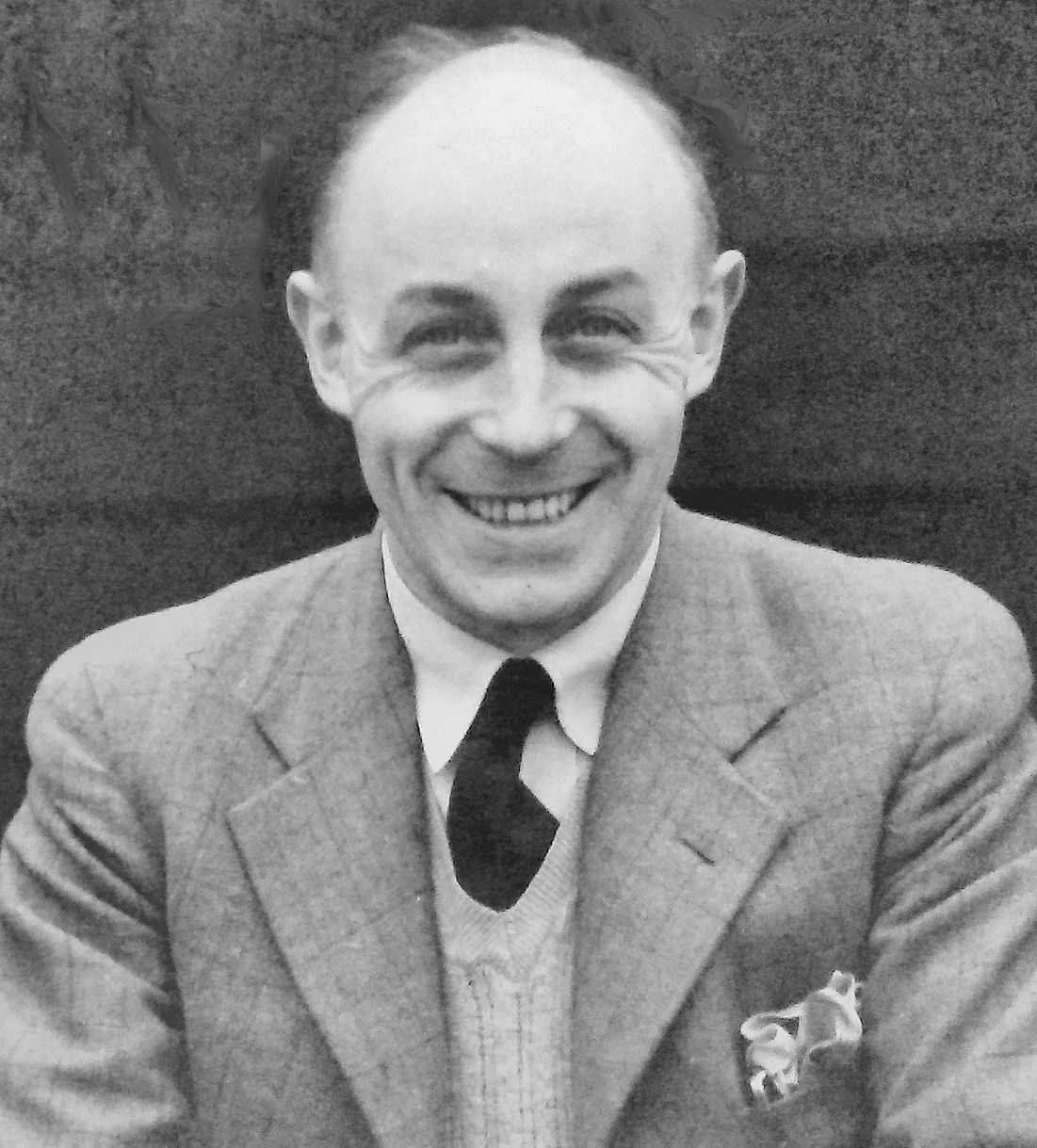
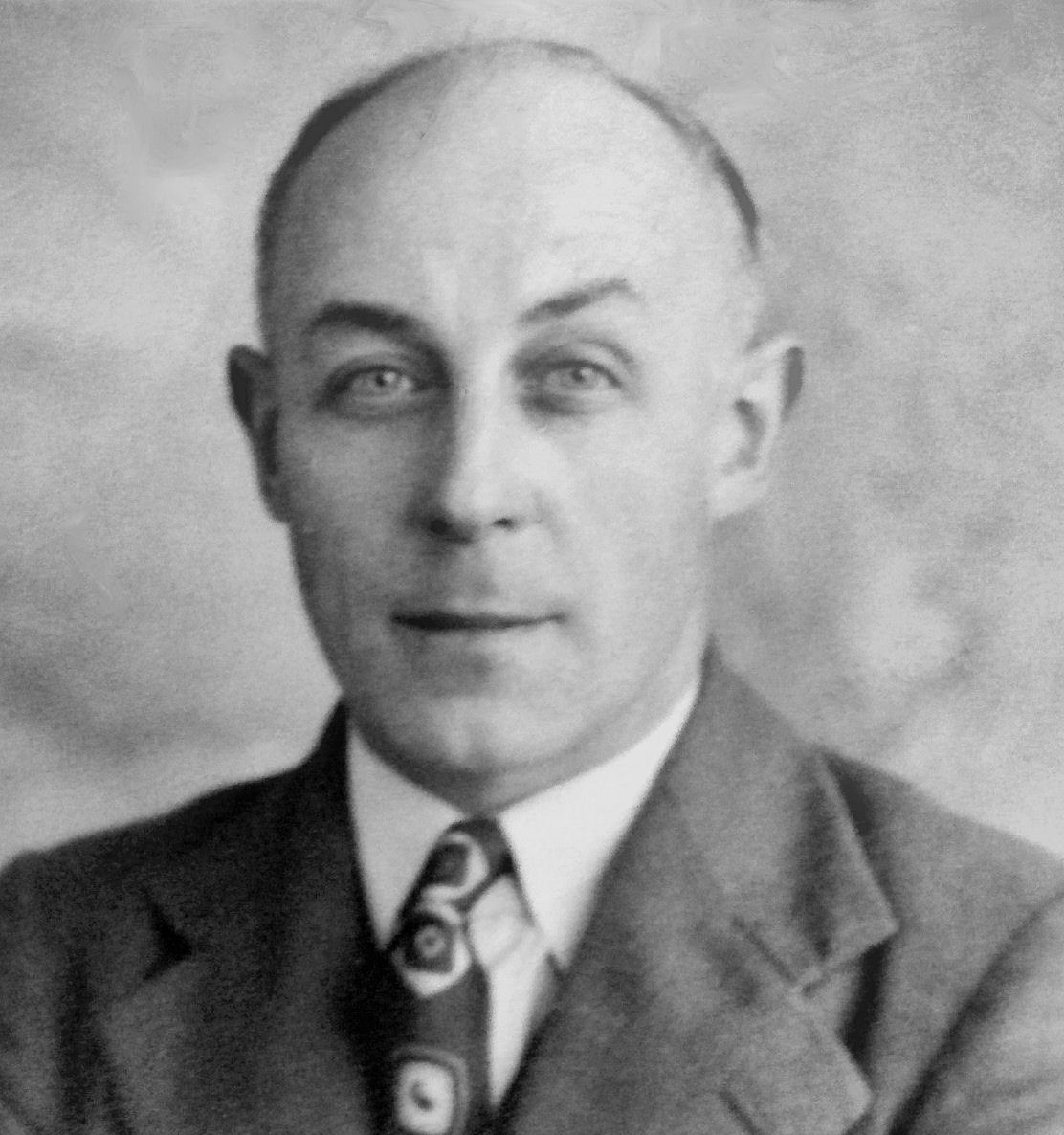 ATA
ATAprev. Managing Director, RC & EN Crowder [Hardware Merchant], Seller St, Chester
'Perfectly happy when flying up to Class 3, and in these classes he is a most useful ferry pilot."
"I consider he has reached the limit of his ability."
d. 1979
-
Cruttenden, Percy James Wulliens
M.565 First Officer Percy James Wulliens Cruttenden 
b. 16 Aug 1905, Bexhill on Sea 1 Jul 1941 to Aug-45
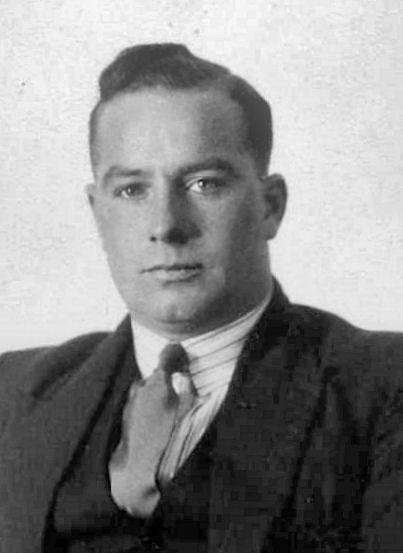 1931
1931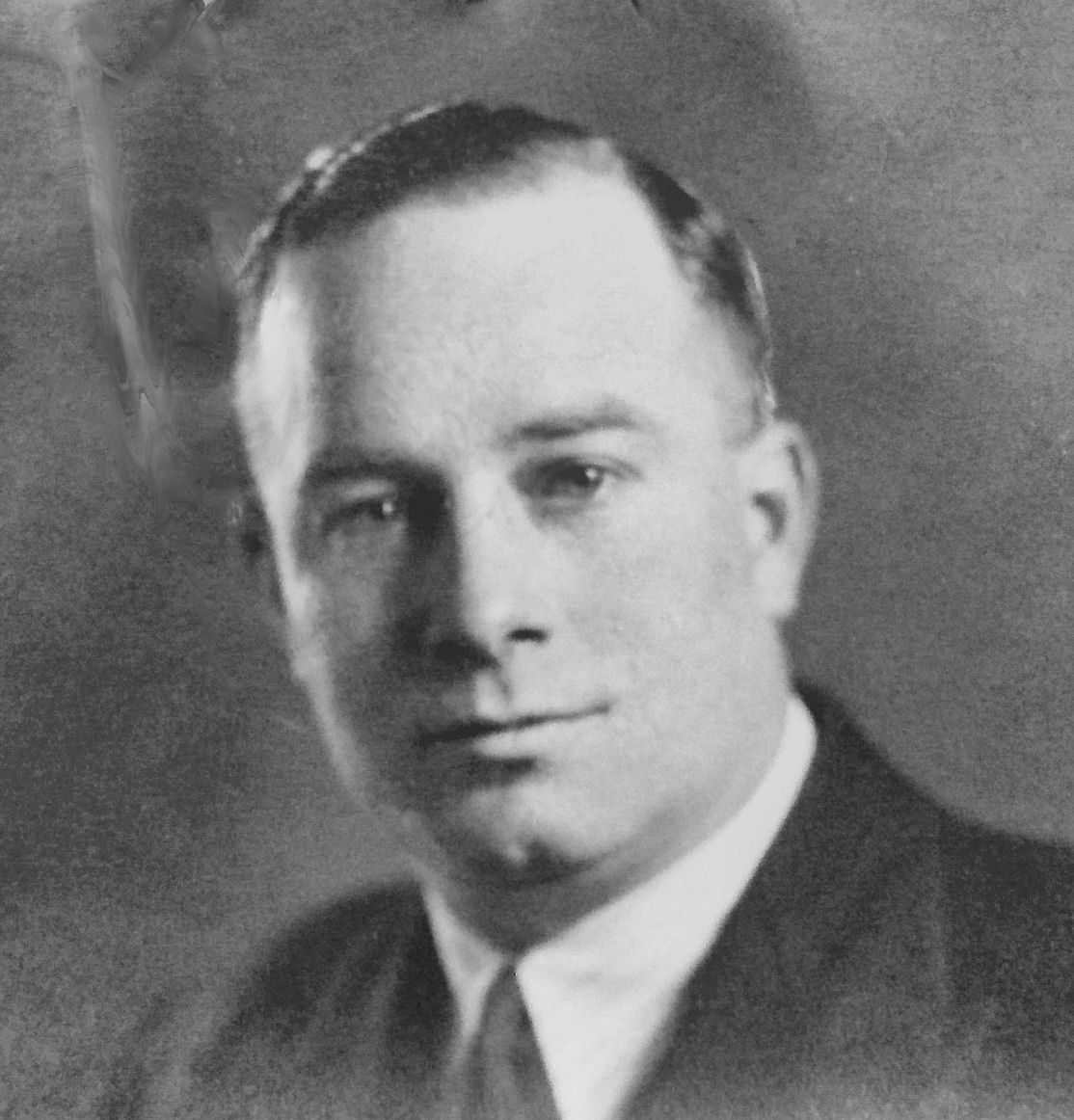
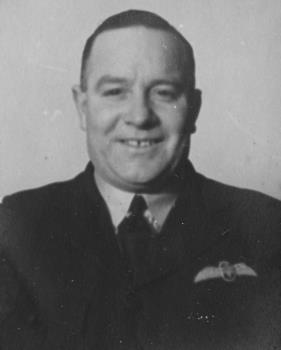
ATA
prev. a Prison Officer in Cardiff
m. Tetdora Anna Oltmans in 1933
When Douglas Bader crashed his Bulldog at Woodley Aerodrome, Reading, in 1931, "a man called Cruttenden got to the Bulldog first, undid the straps, somehow dragged Douglas out of the cockpit, and transferred him to an ambulance... Cruttenden stuck a large hand tightly over his leg... Douglas was convinced that Cruttenden saved his life by that action alone." The Bader Wing
Postings: 2FPP, 6FPP
'A competent and careful all round pilot, who has completed 4 years excellent work with No 2 Ferry Pool. As an officer, he has been deservedly popular with all ranks.'
Prison Commission, 1961
d. 1978, Brighton
-
Cummergen, Victor
M.1112 Third Officer (Seconded from RAF) Victor Cummergen 
b. 27 Mar 1916, North Shields 4 Jul 1944 to Apr-45
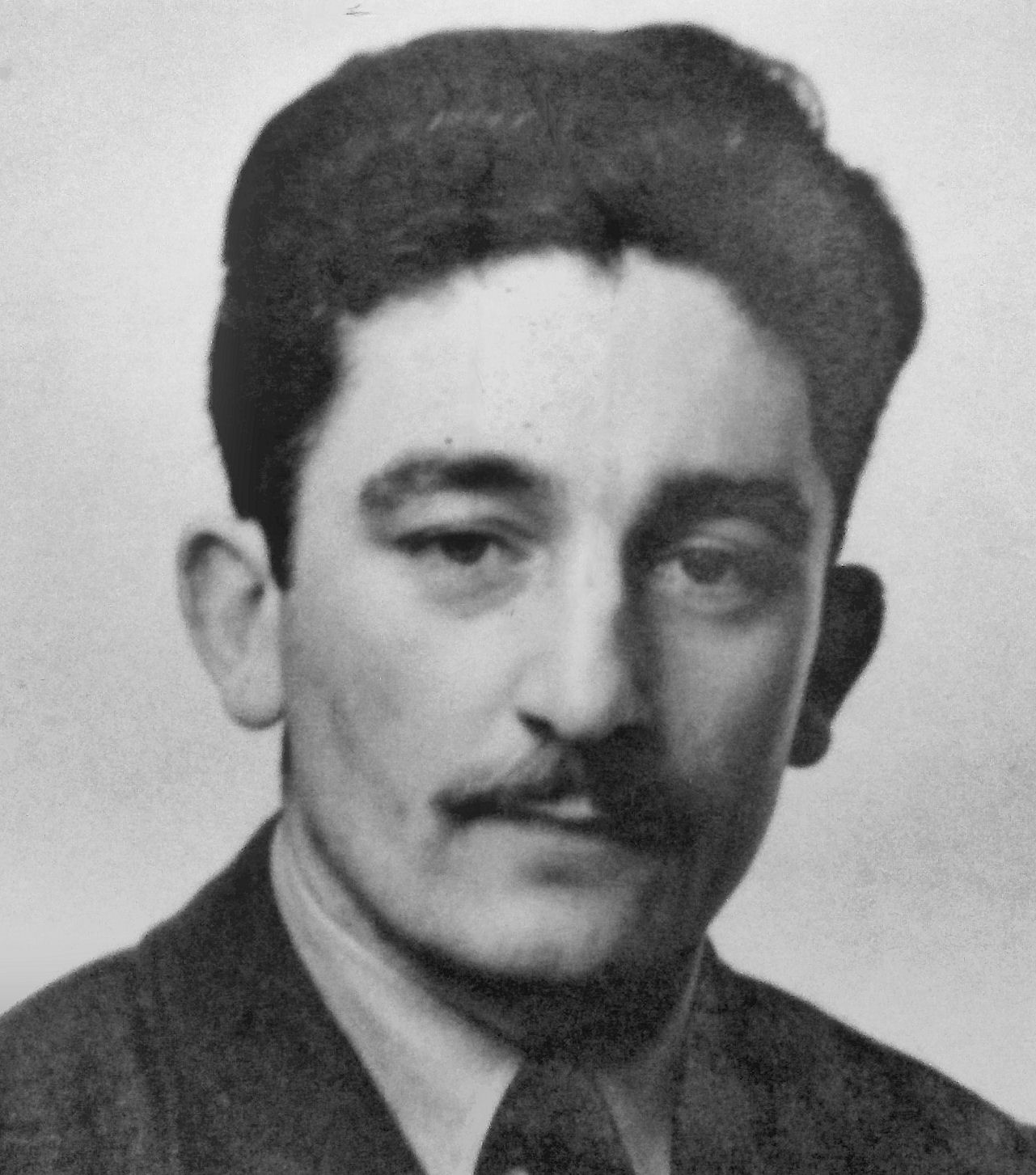 ATA
ATA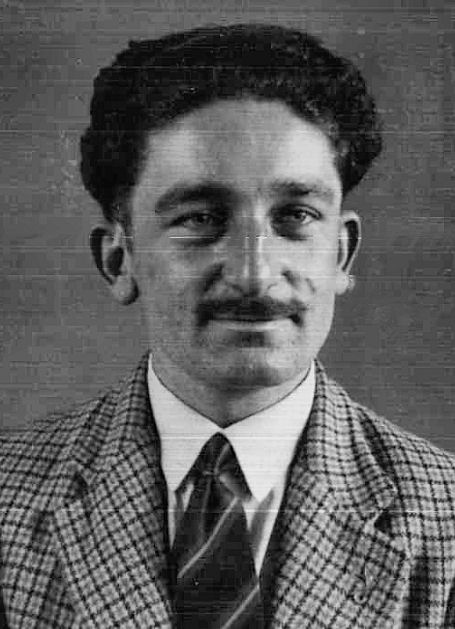 1946
1946prev. 3yrs 9months in RAF
A Dispenser
The RAF Selection Board in Harrogate reported that he "has good all round ability but is liable to lapses in concentration and is thus inclined to make mistakes."
d. 23 August 2012. The Pharmaceutical Journal reported his death: "Victor Cummergen, MRPharmS, aged 96, of 1 Widecombe Close, Bedford MK40 3DR. Mr Cummergen registered in 1948 and was formerly manager of various Boots stores in the North East, London Earl’s Court and Bedford."
-
Cummings, Sydney Edward
M.43* First Officer Sydney Edward Cummings 
b. 14 Dec 1903, London 26 Sep 1939 to Aug-40
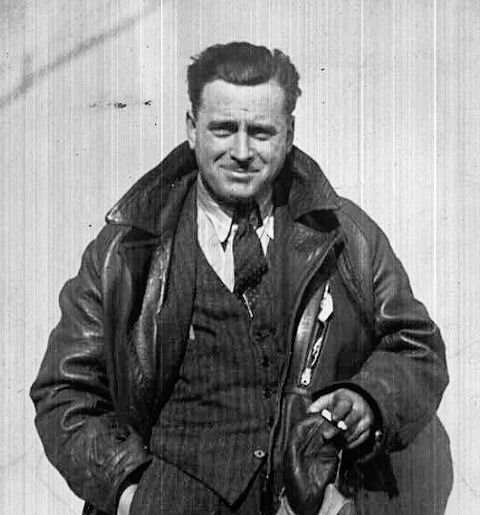
1938
Owned 1936 Foster Wikner Wicko GM1 G-AENU
prev exp. 161 hr solo
prev. a construction engineer
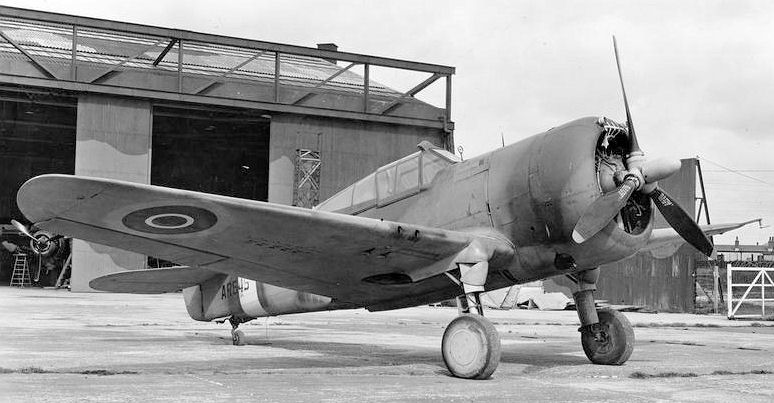
d. 29 Aug 1940 (Died in ATA Service) - died from injuries received on 26th Aug; stalled when piloting Curtis Hawk AR666 which caught fire in the air.
-
Cunnington, Joan (W.121)
W.121 3rd Officer Joan Cunnington 
b. 22 Jan 1921, London 1 Jun 1943 to 13 Sep 1944
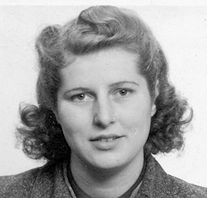 ATAM
ATAMFather: John Leslie Cunnington, mother Florence Chosa [Downes]
Ed. Loretta Convent, Colmel, Eire and Pitmans College, London
prev: Secretary, ATA from Nov-41
Address in 1943: "Crowland", 84 Broadwalk, Winchmore Hill, London N.21
[Ab Initio trainee]
Postings include: 7FPP
One accident, her fault:
- 7 Nov 1943, she made a heavy landing in a Swordfish II and the undercarriage collapsed
Contract Terminated 13 Sep 1944
d. 1977?
-
Cunnison, Margaret MacDonald (W.6)
W.6 Flight Captain Margaret MacDonald Cunnison
Mrs Ebbage

b. 29 May 1914 in Bourneville, Birmingham 1 Jan-40 to Mar-43
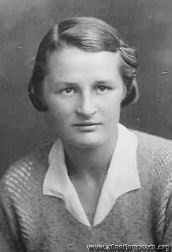
RAeC 1933
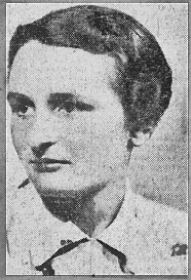 Dec 1939
Dec 1939Ed. Laurel Bank School, Glasgow.
Father: Professor James Cunnison, of 19 Montrose Gardens, Milngavie, Dumbartonshire.
5 foot 2, eyes of, er, hazel. Veronica Inness described her as "a rather dour little Scotswoman"
From May 1937, Chief Flying Instructor with the Strathtay Aero Club, Perth (the one in Scotland). She was only the second woman in Scotland to gain a commercial pilot’s licence, and the first to become a flying instructor.
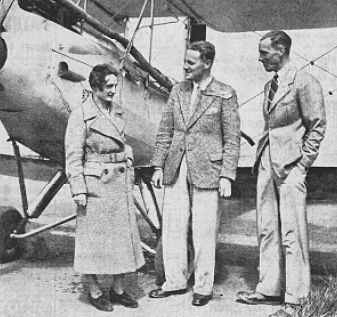 Jun 1937, with quite tall members of Strathtay Aero Club
Jun 1937, with quite tall members of Strathtay Aero Club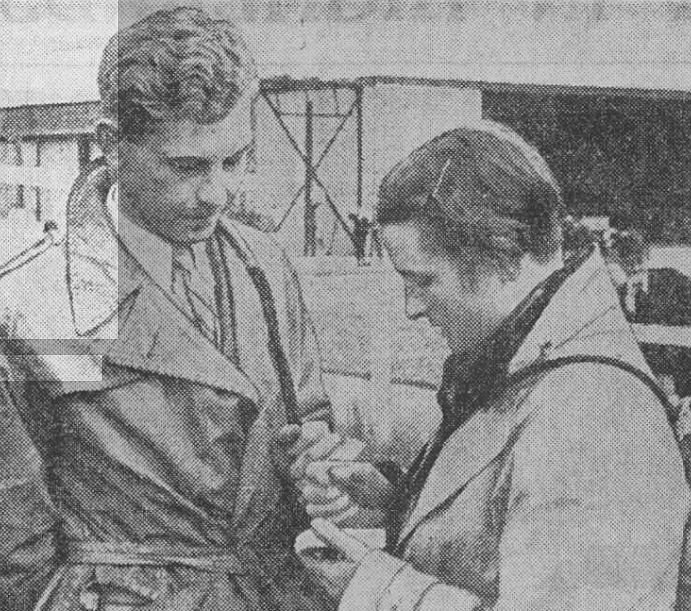
"Miss Margaret Cunnison, flying instructress of Strathtay Aero Club, Perth, giving some wrinkles to a pupil" - The Courier and Advertiser, 13 Jul 1937
She married Major Geoffrey Bruce Ebbage, an ophthalmic surgeon with the RAMC, in 1941.
She then became one of the 'First 8' women ATA pilots, joining on the 1st January 1940 as a Second Officer.
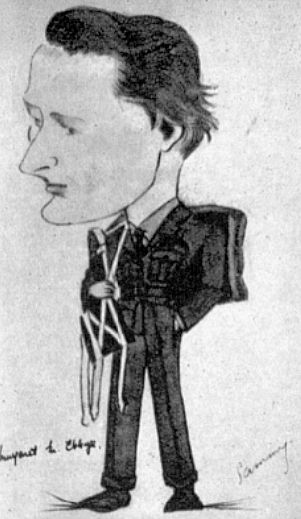 1942 caricature by 'Sammy' Clayton
1942 caricature by 'Sammy' ClaytonAfter couple of years at Hatfield, she was posted to Luton as an instructor; her report at the time said she "is a steady and reliable pilot. She works extremely hard and has proved invaluable as an instructor on light types".
She was promoted to Flight Captain in Feb 1942, but suffered a bout of appendicitis from July to October, and then went off sick again on the 19th December 1942 and never returned to the ATA; her contract was terminated in March 1943.
She did, indeed, only work on 'light types'; her log book shows 'Moth, Magister, Courier, Master, Oxford, Hart, Proctor, Rapide, Anson and Piper Cub'.
d: 4 January, 2004, in Haddington, aged 89
https://en.wikipedia.org/wiki/Margaret_Cunnison
-
Curtis, Eleanor Lettice (W.5)
W.5 First Officer
Eleanor 'Lettice' Curtis 
b. 1 Feb 1915, Denbury, Devon 6 Jul 1940 to 31 Nov 1945
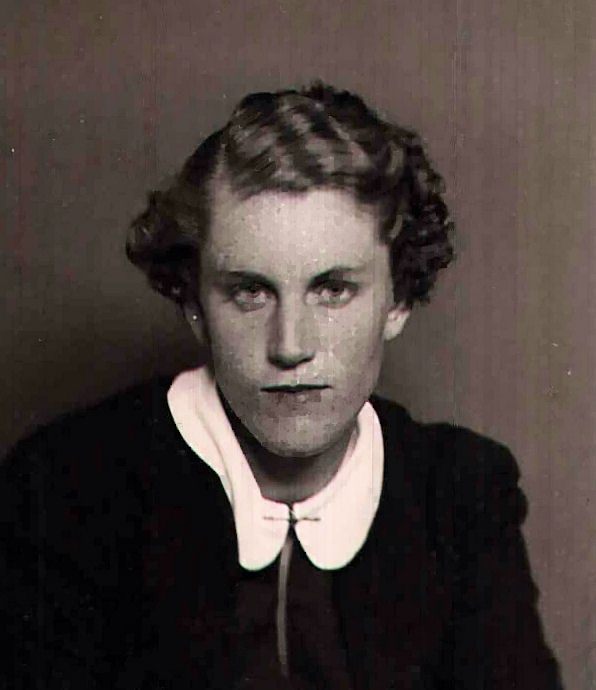 RAeC 1937
RAeC 1937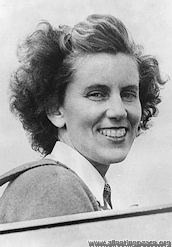
Father: Walter Septimus Curtis, The 'Lord of the Manor', Denbury Manor, Newton Abbott, Devon; mother, Eleanor Frances [Master]
6 siblings, inc. Robert M (b. 1920), and 4 sisters inc Lillias Marion, (b. 1902), Rosemary (b. 1905), Adelaide Gabrielle (b. 1909), and Evelyn (b. 1922)
Ed. Benenden School, Cranbrook; St Hilda's College Oxford (BA Mathematics)
prev. exp. 440 hrs on "Puss, Leopard, Tiger & wooden Moths", Swallow, Hornet, Spartan
prev. C. L. Surveys Ltd., Southampton
Postings: 15FPP, 6FPP, 5FPP, 1FPP
4-engine (Class 5) pilot
Off sick from 23 Apr to 7 May 1944 after her flying accident in the Typhoon
4 accidents, one her fault:
- 22 Aug 1942, brake failure when landing in a Havoc II
- 18 Jul 1943, starboard engine failure in an Anson
- 10 Jul 1943, she opened the throttles of her Mosquito VI too rapidly and the aircraft swung
- 22 Apr 1944, she crashed in a Typhoon after complete engine failure when approaching to land.
"Flying exceptional. Discipline greatly improved. When in her best mood her behaviour is impeccable but when in her worst, Oh Lord!"
"Shows a tendency to disregard the interests of others"
In August 1948 she set a new international women's record for the 100-kllometres closed circuit of 313.07 mph (flying a Spitfire XI owned by the United States Embassy) In the Lympne high-speed flying handicap, beating Jacqueline Cochran's 1940 record.
wrote:
- 'The Forgotten Pilots' (1985);
- 'Winged Odyssey' (1993)
- 'Lettice Curtis - her autobiography' (2004)
d. 21 Jul 2014
https://en.wikipedia.org/wiki/Lettice_Curtis
-
Curtis, George Henry Lawrence
M.8 Captain George Henry Lawrence Curtis 
b. 13 Apr 1903, London 11 Sep 1939 to Jan-42
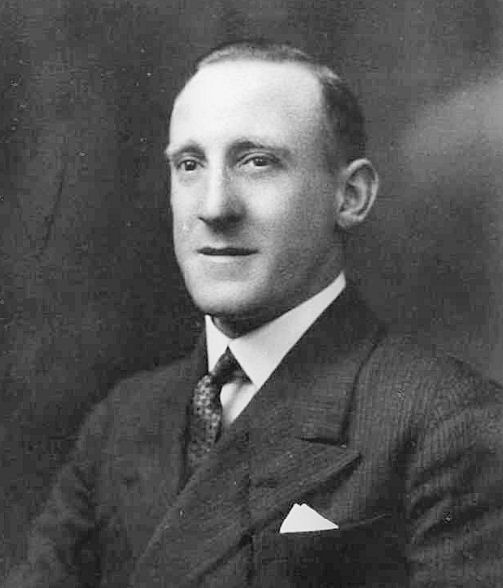 1932
1932A 'Wiper Merchant' in 1932
prev exp 440 hrs
Ferry Records Officer from Feb-41
Resigned 7 Jan 1942
d. Sep 1982, Southend
-
Cuthbert, William
M.366 Flight Captain William Cuthbert MBE 
b. 17 Jul 1912, Belsay, Newcastle on Tyne 22 Apr 1941 to 30 Nov 1945
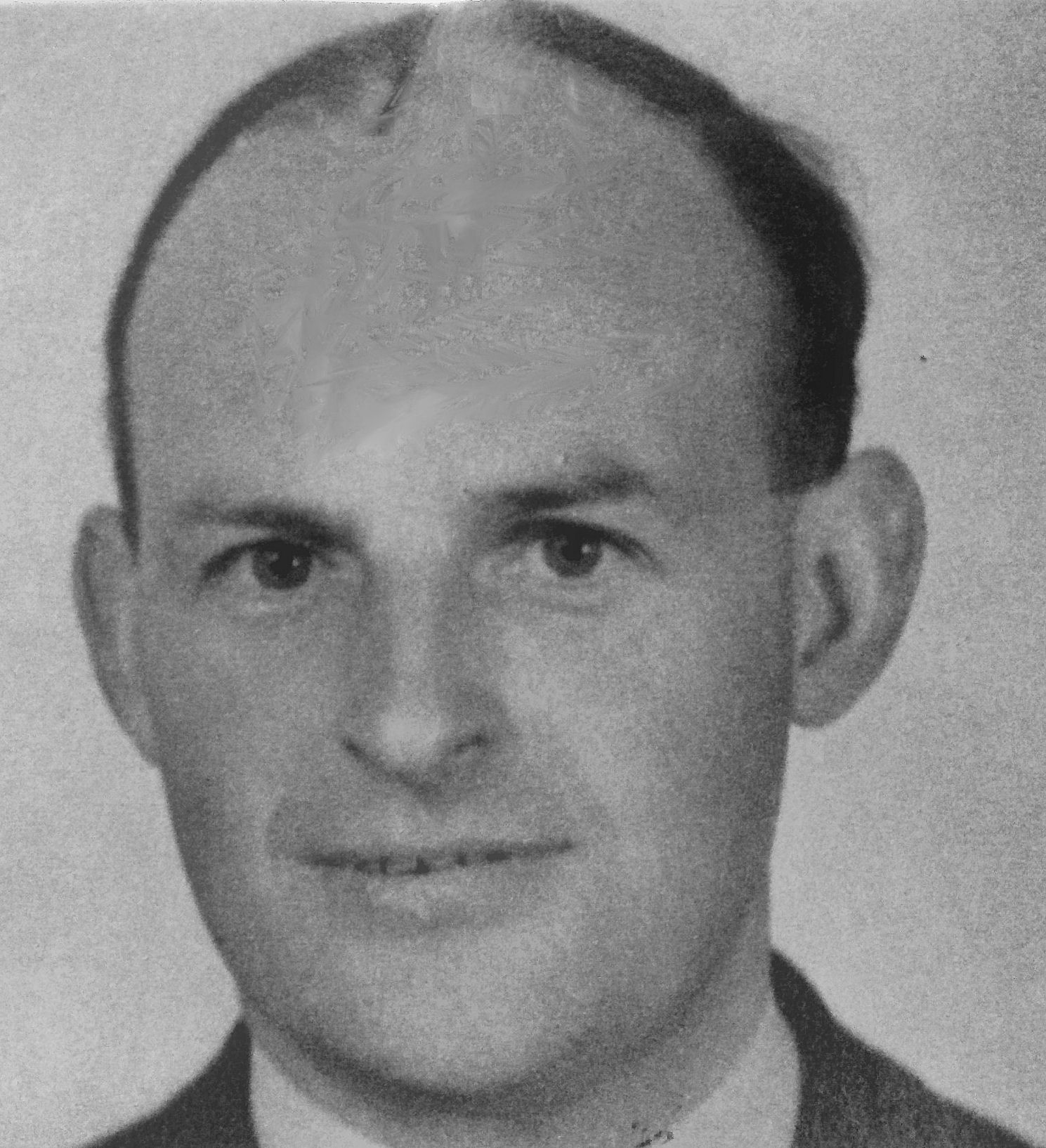
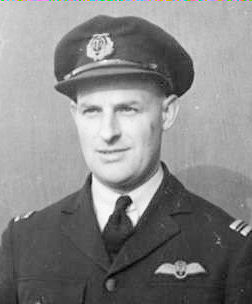
ATA
prev exp 90hrs
a Ground Engineer for Rotol Airscrews in Gloucester
Postings: 2FPP, 3FPP, 9FPP
"A pilot of outstanding ability on all types, with the added advantage of having an excellent technical background."
O.C. No 2 FPP wrote in 1945: "I cannot speak too highly of this officer's ability as a Flight Captain and a pilot. He has been one of the mainstays of this pool since the beginning of 1942."
Download ATA Pilot Personal Record (.zip file):
-
Cutts, Cyril Ernest
M.269 Air Gunner, then First Officer Cyril Ernest Cutts 
b. 19 Apr 1910, London 23 Sep 1940 to Jun-45
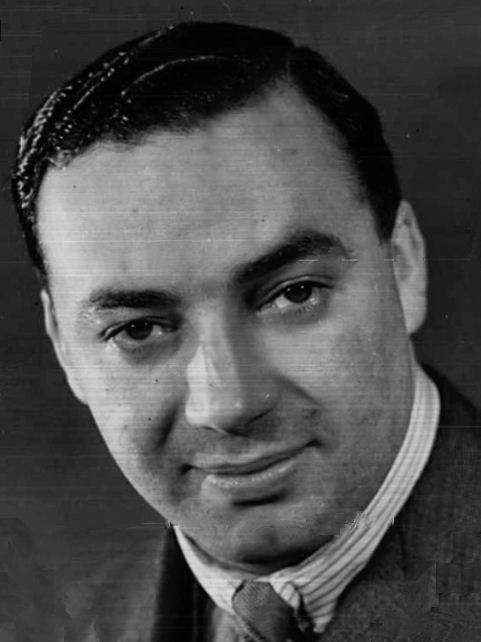 1936
1936prev. in Advertising
prev exp. 170 hrs
"A capable and intelligent pilot of above average ability."
-
Cyphus, Sylvia (W.---)
W.--- Cadet Sylvia Cyphus 
b. 27 Oct 1920, Stow-on-Wold, Glos 29 Jan-44 to 22 Mar-44
Father: Arthur Cyphus (a farm labourer), mother Lily [Archer]
Ed. Council School, Gt Rissington; Westwards Grammar School, Northleach (School Cert.)
prev: from May 1939, Telephonist, GPO Cheltenham
Address in 1944: 11 Great Rissington, nr Cheltenham, Glos
[Contract Terminated by ATA]
m. Oct 1963 in Cheltenham, Goldwin How(e) Edwards (d. 1992)
d. Oct 1978 - Cheltenham
-
d'Anacker, Mercedes (W.---)
W.--- Cadet Mercedes 'Baba' d'Anacker 
b. 7 Oct 1916, Aldershot 31 Mar 1942 to 8 Apr 1942
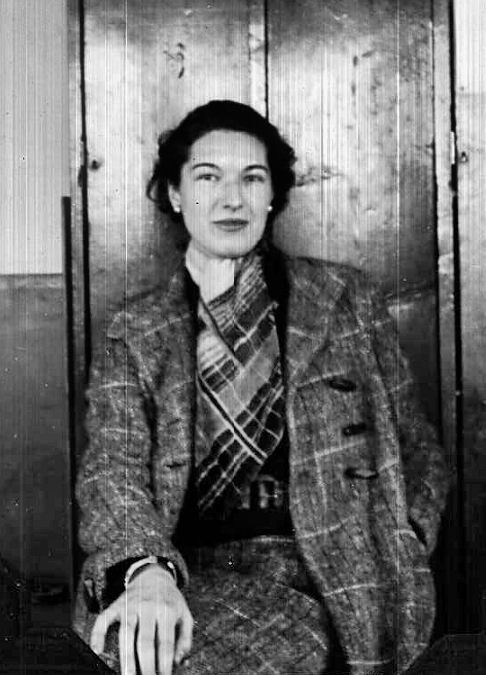 RAeC 1936
RAeC 1936
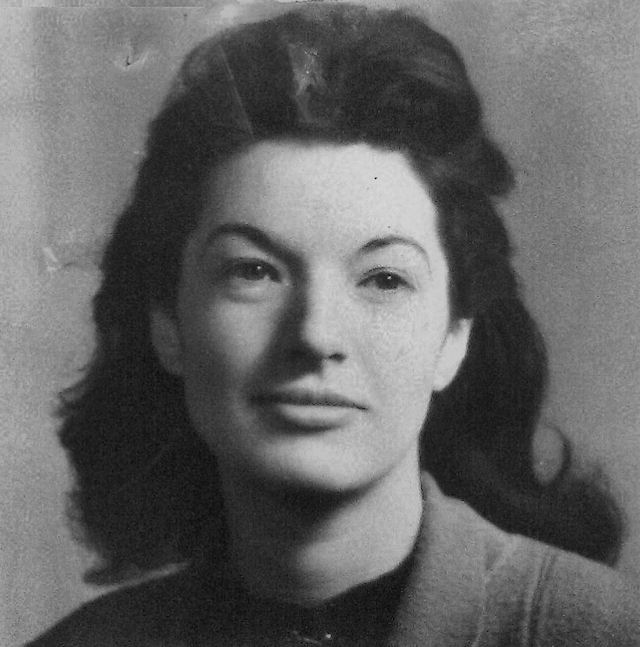 ATA
ATAFather: Valentine Otto d'Anacker; mother Eva Mary [Savage]
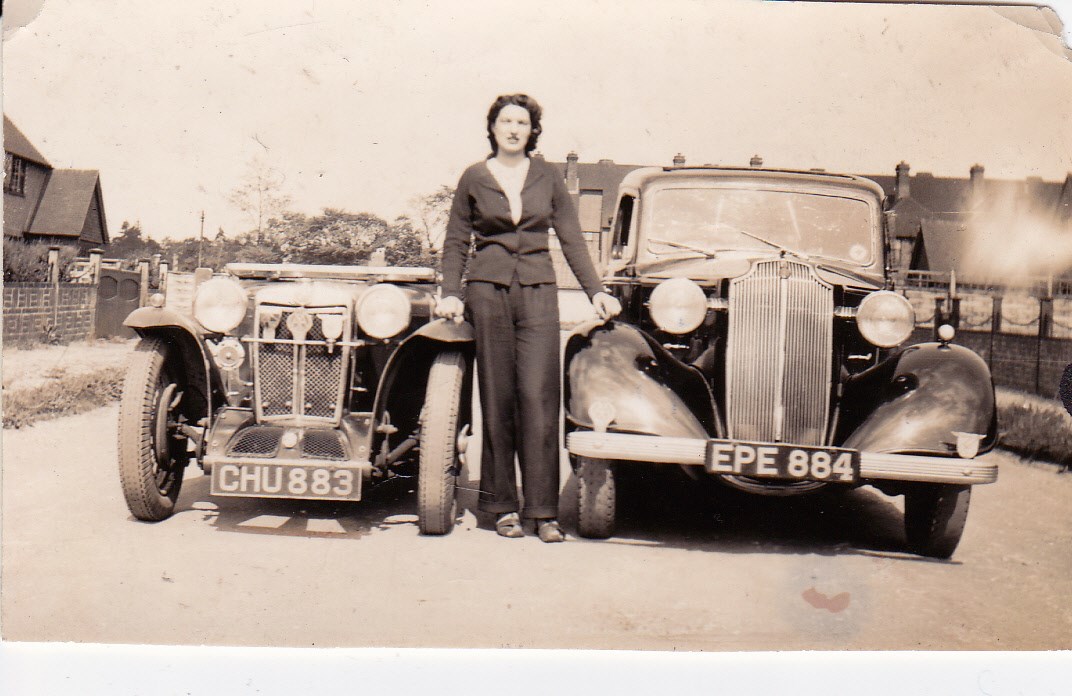 1939. "Mummy's Vauxhall & Daddy's M.G." - Ancestry
1939. "Mummy's Vauxhall & Daddy's M.G." - AncestryAddress in 1936: "Elvern", Hindhead, Surrey
prev exp: 50hrs on Gypsy/Tiger Moth
[Contract Terminated by ATA]
m. Jul 1943 in Surrey, George Walter Courtland Baker (a Canadian soldier) (2 sons)
Moved to Toronto, Canada
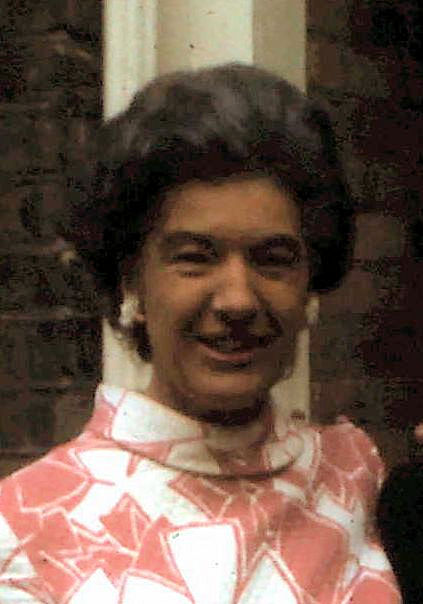 Ancestry
Ancestryd 2015 - Brampton, Ontario
https://www.wardfuneralhomes.com/memorials/mercedes-baker/2017248/obit.php?&printable=true
-
d'Erlanger, Gerard John Regis Leo
M.10 Commodore Sir Gerard John Regis Leo d'Erlanger CBE 
b. 1 Jun 1906, Bexley, Kent 11 Sep 1939 to 31 Dec 1945
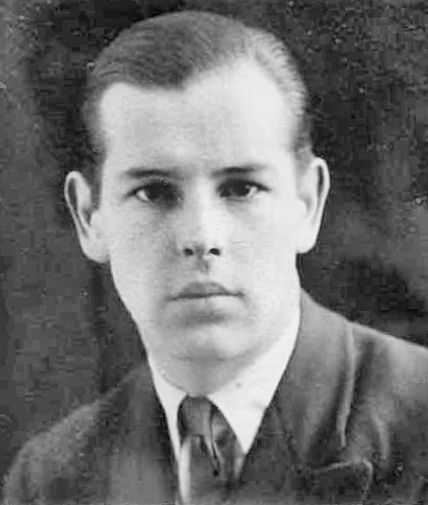 1931
1931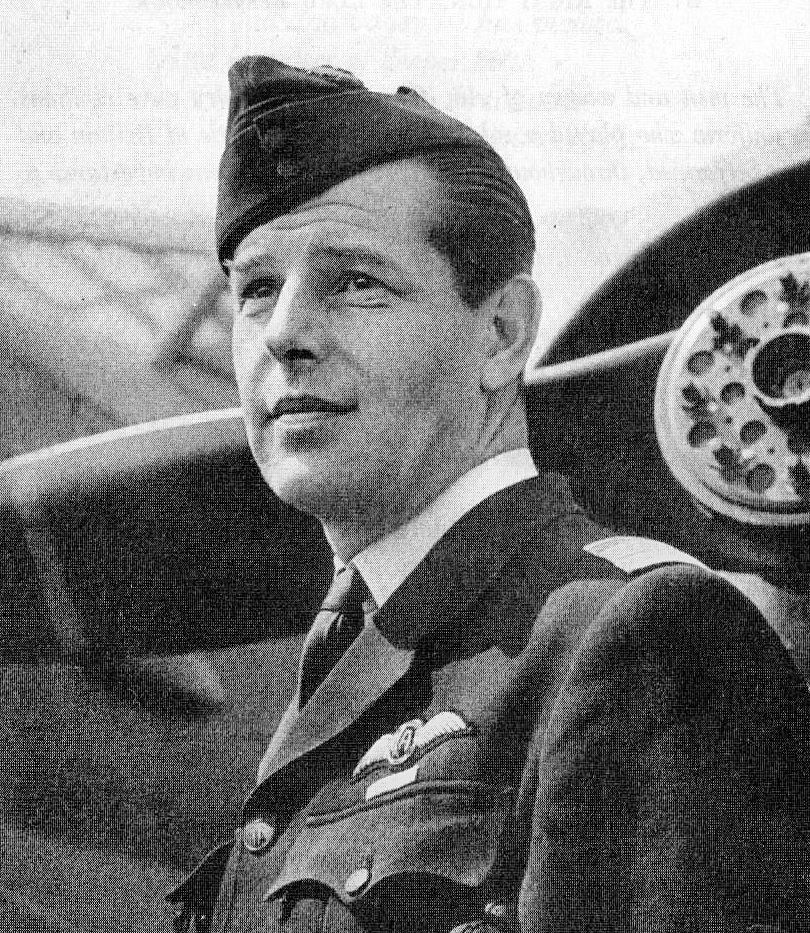 Brief Glory
Brief GloryFather: Emile Beaumont d'Erlanger (French, naturalised British in 1890)
Ed. Eton
m. 1928 American pianist Edythe A [Baker],
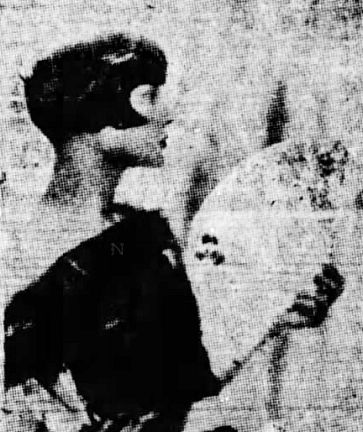
[divorced] ;
m. 1937 Gladys F [Sammut], 3 children
prev. a Banker, Director of British Overseas Airways
prev. exp. 670 hrs
Address in 1939: Lane Farm, Cherry Garden Lane, Nr Maidenhead.
6ft 2in tall, 'scar on left side of neck'
Postings: White Waltham
Although he was the Creator and Commanding Officer of the ATA, d'Erlanger insisted that he (and all his station commanders) flew as often as possible. In fact, he was deemed responsible for one accident:
- 31 Oct 1942: Typhoon Ib R7880 hit a ridge during take-off, he failed to control the resulting bounce and the propeller touched the ground.
He flew 54 different types of aircraft during his time with the ATA; everything from a Horsa glider up to Sunderlands and a Catalina. His instructors reported him a "safe good average pilot", but said his "aerobatics were poor". However, he showed a "real appreciation of the difficulties that can be encountered on flying boats."
CBE in 1943
Chairman of BEA from 1947; Chairman of BOAC from 1956 - he said his aim was to make it the "most formidable and outstanding airline in the world."
d. 15 Dec 1962 - London
-
Dackers, Ernest Fraser
M.612 First Officer Ernest Fraser Dackers 
b. 10 Dec 1900, Wallasey 22 Jul 1941 to 29 May 1945
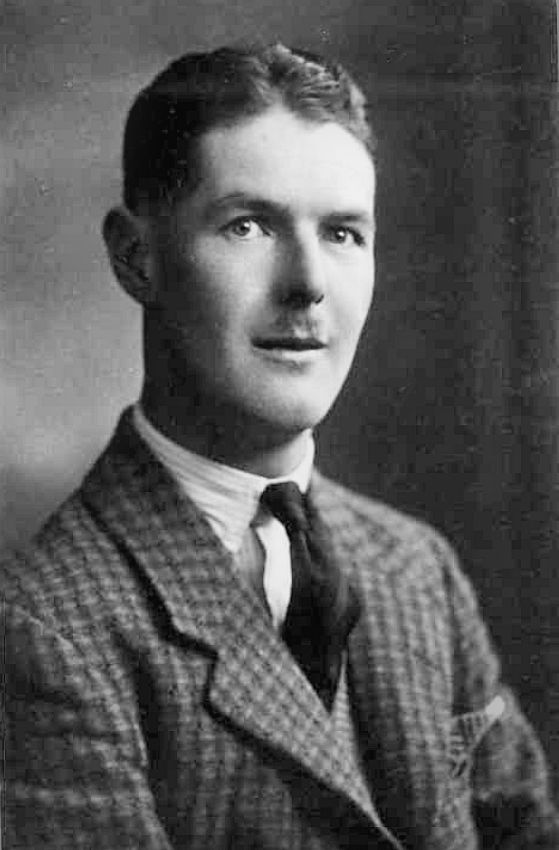 1931
1931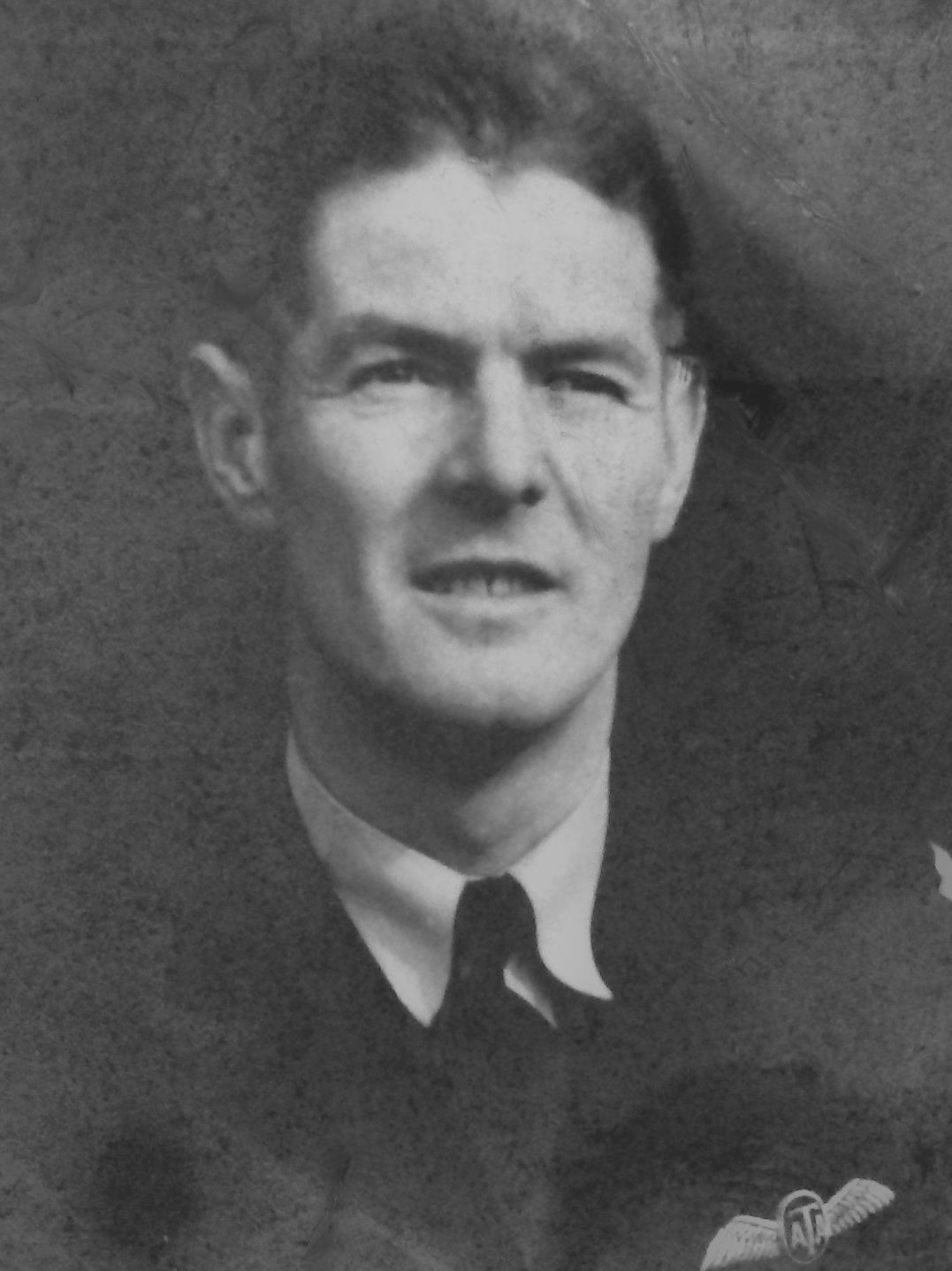 ATA
ATAEd. Wallasey School
m. 1930 Alnesa M [Brookes], 2 children
prev. a Master Tailor (Own Account) - 42 Argyll St, Birkenhead
prev. exp. 73hrs on Avians, Gypsy and Puss Moth
Address in 1941: "Mamore", Thornton Rd, Birkenhead, Cheshire
Postings: 6FPP, 3FPP
Off sick from 20 Mar to 6 May 1943 (urethritis); 3 Jul to 28 Jul and 9 Oct to 29 Oct 1943 (abdominal trouble);
Reprimanded in Oct-42; "Absented himself from Fire Guard Duty. Also Night Duty Pilot."
Suspended with loss of pay for 2 days in Feb-43 for "habitual lateness for duty."
"An officer of just average ability. Has had a spell of sickness during his course which delayed his progress. His flying although safe is rough and not accurate."
d Mar 1971 - Birkenhead
-
Dale, John Douglas
M.968 3rd Officer
[Seconded from RAF]
John Douglas Dale 
b. 5 Aug 1921, Templeton, Co. Durham 7 Sep 1943 to 17 Aug 1944
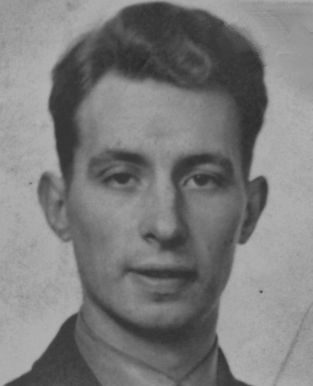 ATA
ATAFather: James Dale
Ed. Consett Secondary School
prev. a police constable: RAF
Address in 1944: 10 St Marys Crescent, Blackhill, Co. Durham
Postings: 14FPP
"He is not a particularly polished pilot but seems quite sensible and flies the Spitfire satisfactorily."
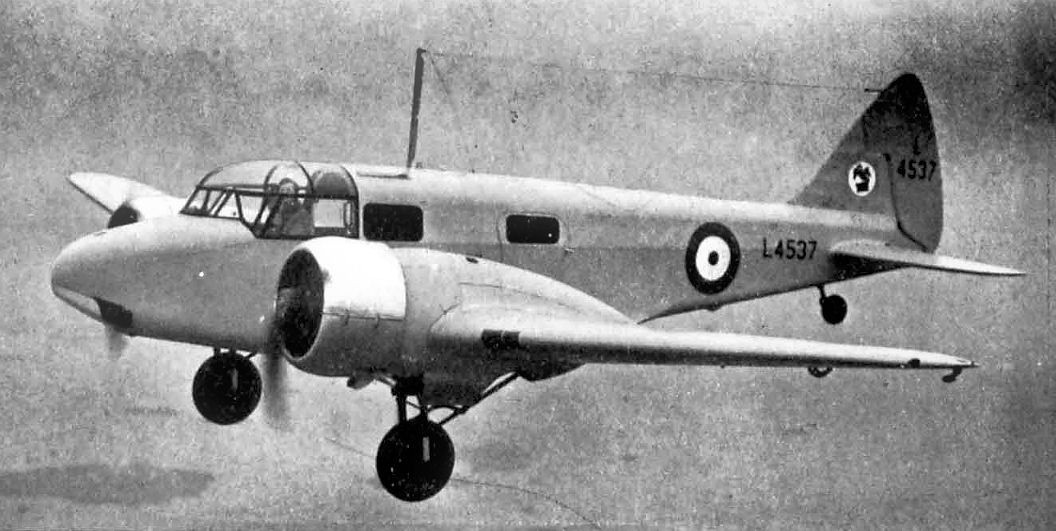
d. 17 Aug 1944 (age 23) as a passenger in Oxford PH235, piloted by First Officer Thomas Frank Thompson (M.841).
Ferrying from Airspeed's factory in Portsmouth to 44 MU Edzell, Angus, Scotland; for an unknown reason (possibly hitting HT Cables), the aircraft dived into the ground at about 17:30 near Holmes Chapel, Cheshire.
The other passenger, Third Officer Archibald Campbell Couser (M.967) was also killed.
"HOLMES CHAPEL 'PLANE CRASH
THREE KILLED
Three pilots of the Air Training Auxiliary (A T.A.) were killed when their 'plane crashed in a field off Knutsford-road. Holmes Chapel, last Thursday. They were Thomas Frank Thompson (23). chief pilot, of 31 Patmos-road. London ; John Douglas Dale (23). of 14. St. Mary's Crescent, Blackhill. Durham, and Archibald Campbell Couser (24), of 73, High Pleasance Falkirk. Their 'plane was seen flying low over the the village before diving suddenly to earth. The bodies were recovered from a wood thirty yards away.
At the inquest conducted by Mr R. A. Daniel on Monday Dr. A. D. Picton said he saw the machine flying level over the village at about 500 feet. Within a second or so it went into a fairly steep dive and crashed behind some trees. His impression was that the engines cut out and that the machine then dived. Before that be thought the engines were working normally.
Norman Forshaw, electrical engineer, Macclesfleld Road. Holmes Chapel. and Walter Caulfield, 30. Middlewich-road, Holmes Chapel. also gave evidence.
A Captain of the A.T.A. said it was a bad crash—too bad to ascertain any technical cause. The Coroner recorded a verdict of " Accidental death" in each case.
First Officer Moore. A.T.A., thanked the local police for their assistance. " - Winsford Chronicle - Saturday 26 August 1944
Buried Old Blackhill Cemetery, Consett
Download ATA Pilot Personal Record (.zip files):

-
Davey, Geoffrey Ernest Richard
M.848 Geoffrey Ernest Richard Davey
Postings: 8FPP
-
Davies, Joy Dorothy Lilian (W.102)
W.102 3rd Officer Mrs Joy Dorothy Lilian 'Jane' Davies 
b. 12 Feb 1916, Cambridge 16 Sep-42 to Mar-43
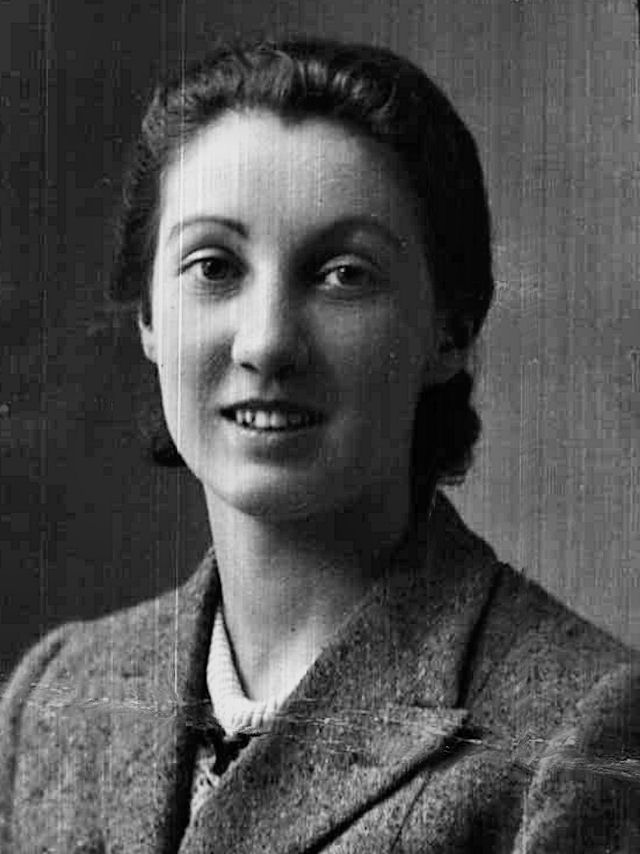 RAeC 1938
RAeC 1938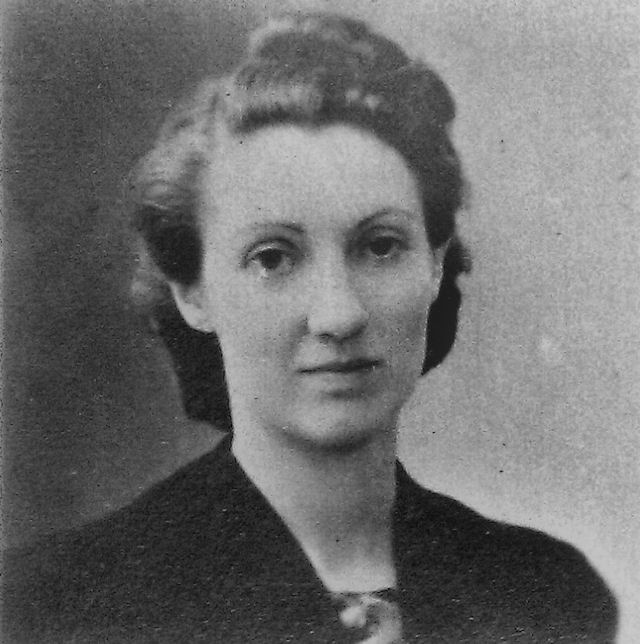 ATA
ATANot in 'Forgotten Pilots' or 'Brief Glory'
née Pond
Father: Henry William Pond, mother Dorothy Rosie [Piggott]
Ed. County Girls School, Cambridge
prev: Secretarial/Clerical, Marshalls of Cambridge
prev exp: 11hrs 10min on DH Moths
m. 1940 RAF F/O (pilot instructor) Renford Percy Davey [widowed - Renford d. 9 May 1941, shot down by an intruder at Sibson, Leics during a night training flight]
m. Apr 1942 in Swindon,
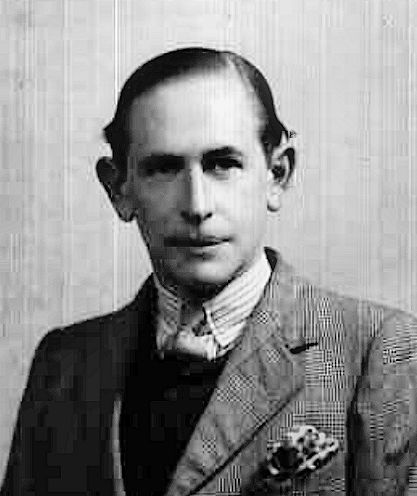 RAeC 1938
RAeC 1938Derrick Stephen 'Steve' Davies (b. 6 Feb 1907, a solicitor)( 2 daughters and a son John Anthony Renford Davies)
exp in ATA:
Magister: 100hrs 40min;
Hart: 11hrs 50min;
Fairchild: 14hrs 05min;
Tutor: 1 hr.
[Resigned 11 Mar-43]
Her daughter tells me: "Incidentally the reason she resigned in 1943 was because she became pregnant - with me"
The family moved to Egypt in 1947, and to Kenya in 1953
d. Dec 2008
-
Davis, Mavis Agnes Kennard (W.---)
W.--- Cadet Mavis Agnes Kennard Davis 
b. 13 Feb 1917, Tenterden Kent 24 Jan 1944 to 24 Mar 1944
Father: Leonard James Kennard Davis (Private in Royal East Kent Regiment, d. 1 May 1944 in Italy), mother Annie Mavis
prev: secretary, Foreign Office
Address in 1944: Forstal House, Selling, nr Faversham, Kent
[Contract Terminated by ATA]
d. 11 Aug 1977 - Chelsea
-
Davy, Frederick Robert
M.450 Flight Captain Frederick Robert Davy 
b. 30 May 1900, Great Yarmouth 13 May 1941 to 31 Dec 1945
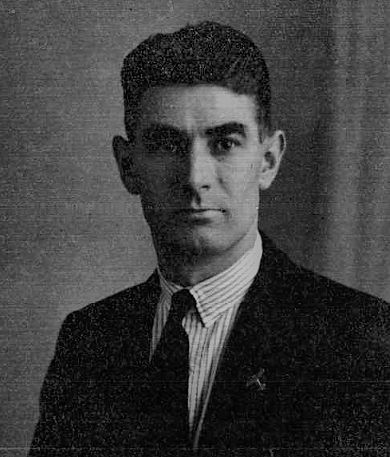 1936
1936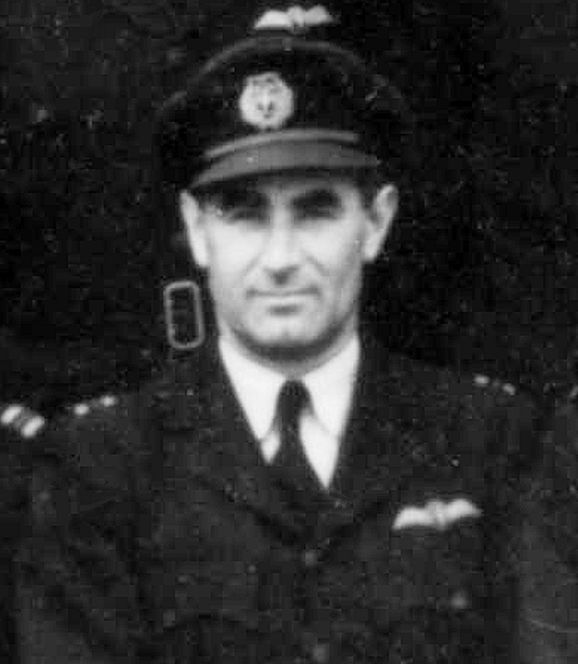 ATAM
ATAMRoyal Flying Corps/RAF from Nov-17 to Jun-19; 'Boy and Aircraft Mechanic'
m. 1925 Adelaide [Holmes], 2 children [Robert, b. 1929, d.2002, Pamela b. 1931, d. 1936]
A jeweller and watchmaker (his own business: apparently, "The sign on Frederick Davy's shop in Great Yarmouth said "Watchmakers since 1700."), also an instrument maker for the Air Ministry.
He was a witness in a rather sad case in May 1937, as reported by the Thetford & Watton Times:
"FOUND HANGING. Yarmouth Man’s Suicide In His Home.
A verdict of "Suicide while temporarily of unsound mind” was recorded by the Borough Coroner, at the Town Hall on Tuesday, at the inquest on Edward Gilbert Edwards (53), of 8 Caister Road, who was found hanging from a bannister in his home on Saturday.
Frederick Robert Davy, watchmaker, of 37, Calster Road, said that at 1.40 a.m., in consequence of information he received, he went across to 8, Caister Road. 'When I got into the house', 'said witness, 'I saw the man hanging by the neck from a bannister rail; his feet were about ten or twelve feet from the ground floor. I could see that the man was dead and had been hanging for some time, and owing to this fact I telephoned the police.'"
Address in 1941: 8, Caspard Pl, Barry, Glamorgan
Postings: 16FPP, 15FPP, 14FPP, 4FPP, 1FPP
"A careful pilot of average ability, has sound judgement but was inclined to be underconfident at first"... "Since promotion to Flight Captain [in September 1944] has assumed the position of Accidents Investigation Officer."
Off sick from 17 Dec 1942 to 1 Jan 1943 with a 'touch of pleusiry [sic]'
King's Commendation for Valuable Service in the Air
d. Mar 1979 - Norwich
-
Dawes, Leslie Gordon
M.803 Leslie Gordon Dawes
Postings include: 8FPP
-
Dawson, Lawrence Saville
M.436 First Officer Lawrence Saville Dawson 
b. 13 Jan 1908, Bradford 20 May 1941 to 8 Dec 1944
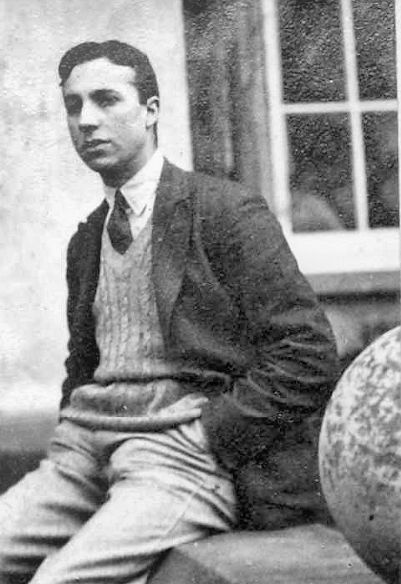 1927
1927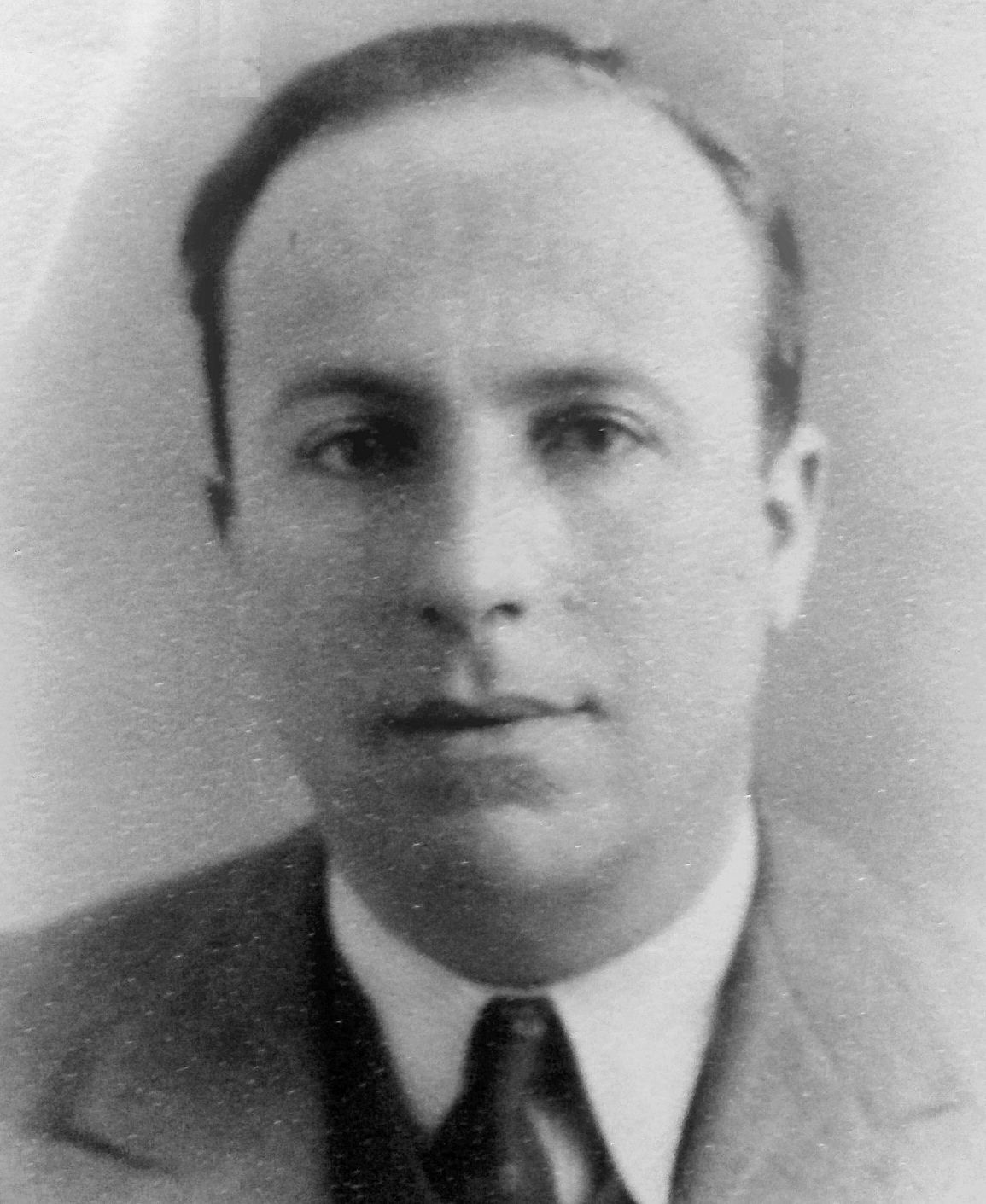 ATA
ATAFather: Sir Benjamin Dawson, 1st Baronet (d. 1966)
Educated at Harrow
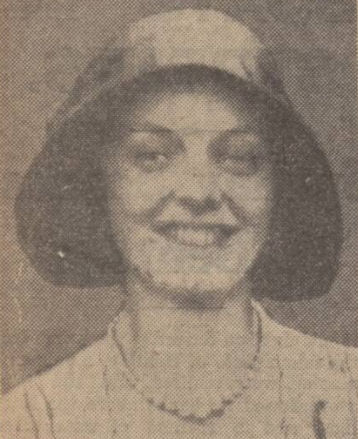
m. 1932 to Alice [Hudson], 1 child before 1941
A Wool Merchant, (Joseph Dawson Cashmere Works, Bradford)
Address in 1941: Park House, Pool-in-Wharfedale, Yorks
Postings: 6FPP, 7FPP, 782 Sqn RAF
"a safe and reliable pilot who carries out his work in a conscientious manner and has proved a useful Class 5 (4-engine) pilot to this Unit." C.O. 7FPP, Oct-44
He wrote to the ATA on 10 Jan 1945: "I am very sorry I had to resign from ATA at my firm's request, and would like to take this opportunity of thanking you and all your officers for the help and consideration I received all over the country during the course of my duties as a ferry pilot.
If a further emergency arises, and you require my services again, I shall be very pleased if you will let me know, in which case I would do everything possible to come back."
The Yorkshire Post reported on him thus, in November 1955:
"Flew too low over sports field, fined
Prosecution witnesses at Bradford City Court yesterday claimed that a twin-engined aircraft flew over a Dudley Hill sports ground at 100 feet, frightening young children.
To this, Lawrence Saville Dawson (47), company director, Park House, Pool-in-Wharfedale, the pilot of the plane, said: “I should have hit mill chimneys and all sorts of things at 150 feet.”
Dawson, a war-time ferry pilot with 30 years flying experience, and director of Yeadon Aviation Ltd., was accused of flying over an “assembly of persons” at less than 1,000 feet. He was fined £5O and ordered to pay £5 costs.
Dawson told the Court that he appreciated the folly of low flying. He had been asked to fly over the works field on their sports day and did so at about 1,000 feet."
He owned Taylor Auster AOP5 G-ANID, which was written off after he crashed it at Stonor, Oxfordshire on 13 Feb 1958.
Lawrence became 2nd Baronet on his father's death in 1966.
d. 14 Aug 1974
buried St John Churchyard, Acaster Selby
Download ATA Pilot Personal Record (.zip file):
-
Deane-Drummond, Marigold (W.114)
W.114 2nd Officer Marigold Deane-Drummond 
b. 13 Aug 1919, Upton-on-Severn, Worcs 1 May 1943 to May 1945
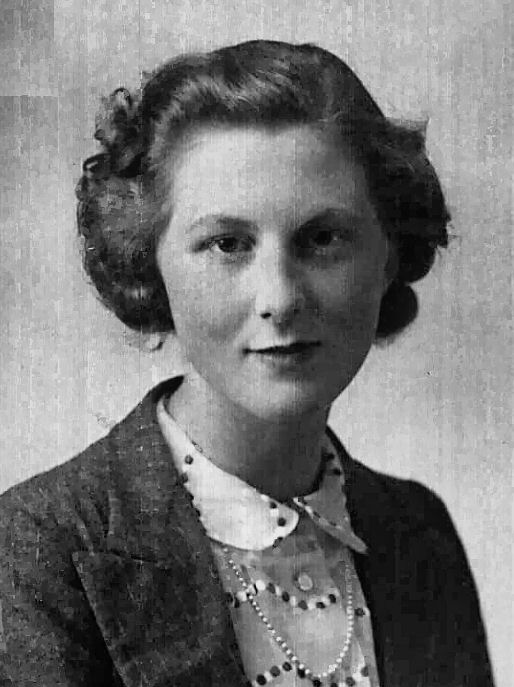 RAeC 1939
RAeC 1939Father: Col. John 'Jack' Drummond Deane-Drummond DSO, OBE, MC, Mother: Marie Lily Anne [de Cuadra, b. 1883 in Madrid]
Address in 1939: The Old Vicarage, Little Barrington, Oxford
[Her elder brother Anthony also learnt to fly in 1939, and wrote, in his 1992 autobiography 'Arrows of Fortune': "My mother had to divorce my father in 1926... This was not the end of my father's amorous adventures and, at the time I was married in 1944, my wife had the dubious distinction of having no less than three living mothers-in-law"
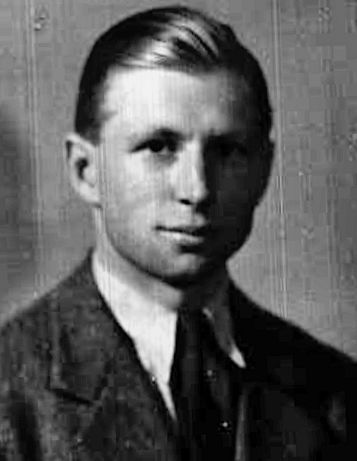 RAeC 1939
RAeC 1939He escaped from German captivity three times in WWII: - see https://en.wikipedia.org/wiki/Tony_Deane-Drummond]
m. 15 Apr 1944 in Cirencester, George Rowland MBE, of the Royal Corps of Signals
In Jul 1949, the Western Daily Press reported that "The heavy rain on Saturday played havoc with the final day's programme of the R.A.F. Week on Durdham Down, but it did not prevent Vampires of 501 (County of Gloucester) Squadron from carrying out their fly-past. When they returned to Filton. however, the pilots discovered that, due to the high speed at which they had been flying, the rain had washed the crests and identification markings off the aircraft.
Other sufferers from the weather conditions were the five W. R. A. F. V. R. pilots, from No. 8 Reserve Flying School at Woodley, Reading, who were scheduled to fly formation over the exhibition 2.30 p.m. During the morning a squall hit their airfield, damaged some of the aircraft and delayed their take-off. Ten minutes after their arrival Filton, however, the five Tiger Moths were airborne again, flying over Southmead towards .the Downs cloudburst, and at 2.30 exactly led by Miss Vera Strodl, they flew over the exhibition site. The other four pilots were Mrs Fay Bragg, Mrs Marigold Rowland, Miss Sheila Van Damm *, and Mrs Ann Kendall. All of them were, at one time A.T.A. pilots. "
[* Sheila van Damm, motor rally driver in the 1950s, and sometime owner of the Windmill Theatre, wasn't an ATA pilot:
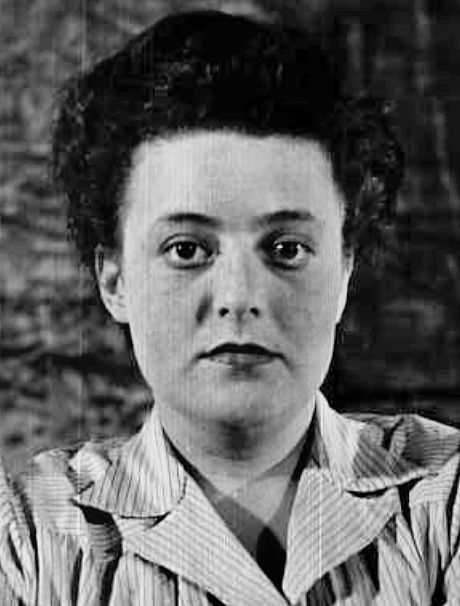
She only learnt to fly in 1947]
m. Jan 1955 in Chelsea, John M Saville
d. 1 May 2003 - Warwickshire
-
Derbyshire, Gerald Wilfred Pearson
M.60 * First Officer Gerald Wilfred Pearson Derbyshire 
31 Mar 1913, Surrey 1 May 1940 to 17 Mar 1944
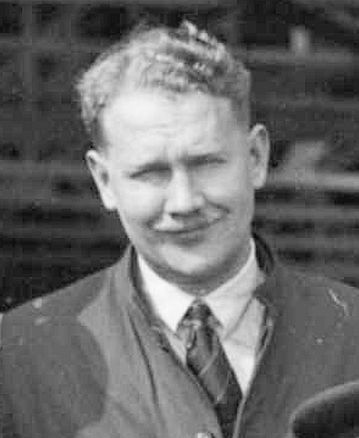 ATAM
ATAMm. 1934 in London, Ida F [Sharman]
m. 1942 in Eton, Bucks, Imogen D [Duncan]
prev. Pilot Officer in RAF Reserve Mar-34 to Apr-35;
RAF Apr-35 to Jul-38.
Accident Report:
On 10 Feb 1938 the pilot of Hector K9723 was on a night flying exercise when he became lost in bad weather whilst flying over the East Coast, he force-landed the aircraft in a ploughed field near Filey whereupon the aircraft overturned. It is not known whether there were any injuries sustained. The investigation reported: "The pilot...found difficulty in stowing the Verey pistol and as a result lost direction".
Pilot - P/O Gerald Wilfred Pearson Derbyshire RAF. Probably uninjured.
d. Jan 1970 - Devon
-
Dew, Stanley Anthony
M.431 * First Officer Stanley Anthony Dew 
b. 29 April 1910, London 7 May 1941 to 30 Nov 1945
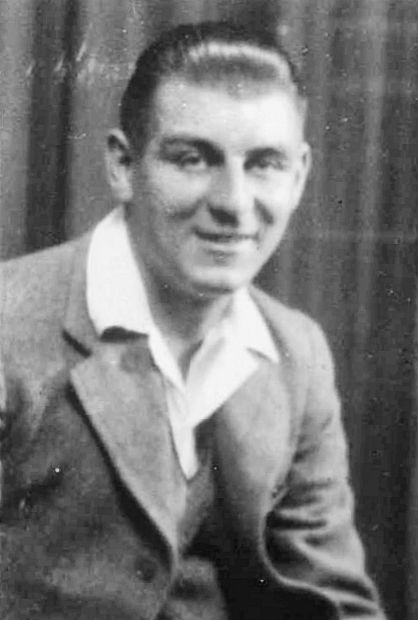 1935
1935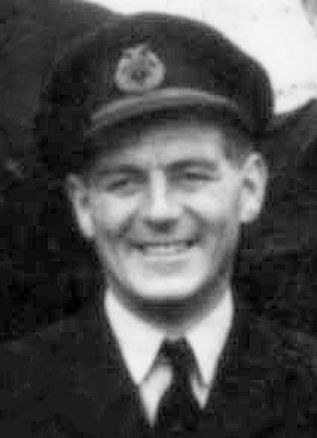 ATAM
ATAMprev. a tobacconist
Address in 1935: 7 Lordship Lane, East Dulwich, SE 22
-
Dickinson, Vincent Neville
M.--- * 2nd Officer Vincent Neville Dickinson 
b. 15 Apr 1899, Wolverhampton, Staffs 5 Jun to 5 Jul 1940
Father: Frank Dickinson, a Merchant, Mother: Sarah Jane [Bayley]
2nd-Lieut, RFC, RAF in WW1; Pilot Officer, RAF from 20 Nov 1923
He was one of two pilots who inaugurated the Belfast to Liverpool Daily Air Service in April 1924 (the other was Alan Cobham), He started out at 05:30am in his D.H. 50, but the weather was so bad he could get no further than Southport Sands.
m. 18 Nov 1923 in Richmond-upon-Thames, Marjorie Winifred [Lloyd-Still] (1 daughter, Katheen b. 1926)
Elected a Member of the Royal Aero Club in June 1925
Formed Aero Hire Ltd in 1927, based in Birmingham, to "establish, maintain and work lines of aeroplanes, seaplanes and taxi-planes and aerial conveyances, etc." (later co-owned, with L W van Oppen,)
Competed in the King's Cup in 1929, flying G-EBTH, a DH.60X Moth. He was forced to retire at Blackpool.
prev. Hon. Secretary and Chief Instructor, Hertfordshire Flying Club, St Albans in 1932
He owned G-EBZZ, a 1928 DH60 X Moth, which crashed at Stansted Abbots 23 Jun 1934
One reported accident:
- 14 Mar 1939, flying G-AEDD, a 1936 Avro 504N belonging to Publicity Planes Ltd; he hit a fence and crashed at Calderfields Farm, Walsall, after engine failure.
Address in 1939: 'Muree', Queen's Rd, Sandown, Isle of Wight
Postings: ---
Post-ATA, a Sub-Lieut in the Royal Navy from 15 Jul 1940
Address in 1962: 10 Oakwood Rd, Rayleigh, Essex
d. 3 Sep 192 - London
* ATA Personnel file missing
-
Dixon, Hubert James
M.736 Acting 2nd Officer Hubert James Dixon 
b. 26 May 1914, Northernden, Cheshire 17 Mar 1942 to 28 Nov 1942
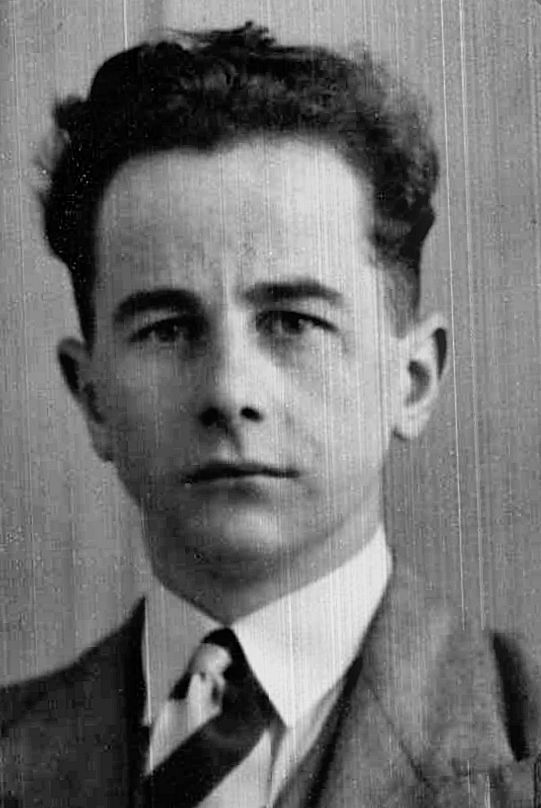 1938
1938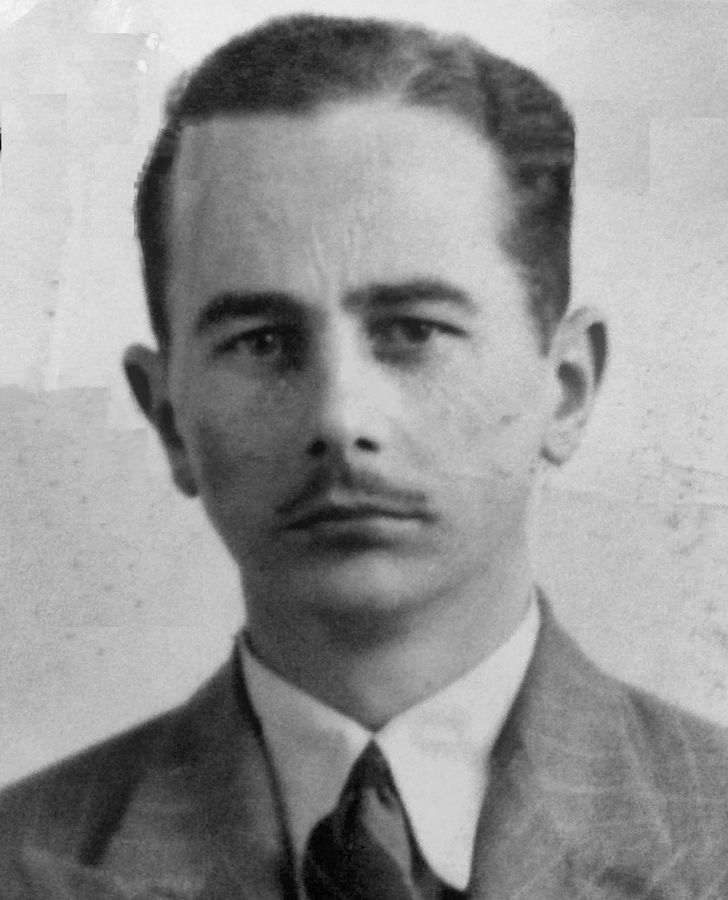 ATA
ATA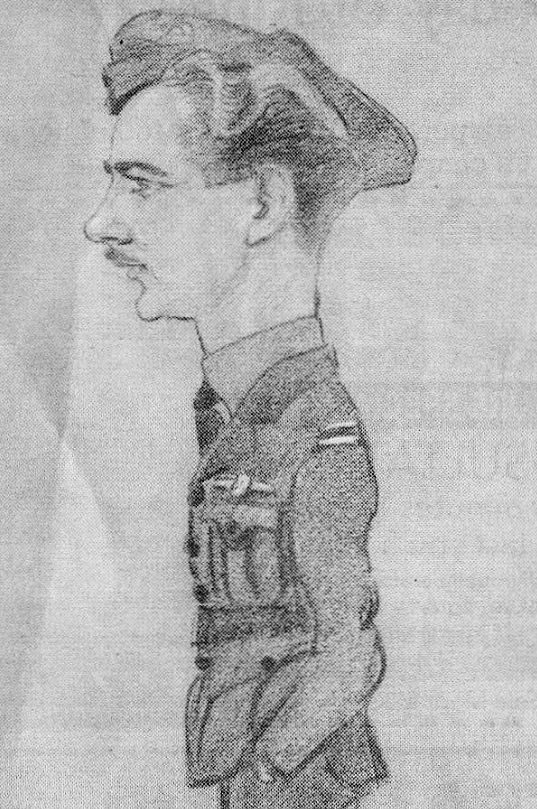
1942 caricature by 'Pat Rooney'
via George Cogswell
prev. an aero engineer, for Ford Aero Engines (Rolls Royce) in Eccles, Lancs.
prev. exp. 97 hrs
Address in 1938: 'Moliere', Wythenshawe Rd, Northernden
Address in 1942: 'Manilla', Nansen Rd, Gatley, Cheshire
Hubert originally applied to the ATA in February 1941, but they replied that they weren't allowed to take pilots of military age unless they had been turned down by the RAF.
He replied that he had indeed offered his services to the RAF, twice, but they had refused him because he was in a strictly reserved occupation. The ATA replied, somewhat archly, that as he seemed now to able to obtain his release, he should go back to the RAF and ask them again...
After another session with the RAF (who still said they couldn't take him), he then talked to the Ministry of Labour and the National Service Controller in Manchester. Who agreed that, if he could find a job of even greater national importance than his current one, they might be able to secure his release.
Finally, the RAF had a chance to turn him down properly, which they duly did because the vision on his left eye was not up to their standards. Hubert said "In my own personal opinion I can see perfectly."
Anyway, by December 1941 the ATA was prepared to offer him a job, and he was eventually taken on as a Pilot Cadet. His instructors (Margaret Ebbage, Harry Woods and Eugene Prentice) assessed him as 'an average pilot' with 'an average amount of common sense.'
After training, he was seconded to 6FPP at Ratcliffe on 27 Nov 1942. He died the next day in an unlucky accident.
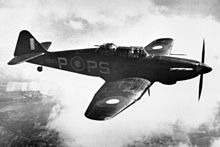
d. 28 Nov 1942 (Died in ATA Service) in Defiant I N3319 which stalled and crashed at Wood Lane, Timperley, nr Ringway, while he was attempting a forced landing after an engine problem.
The aircraft ended upside down and on fire with Hubert, already dead, trapped in the cockpit. Harry Warburton, (an ex-RFC pilot) who owned the adjoining nurseries, was the first to arrive on the scene, "followed by many others", who righted the aircraft and carried the body away. Mr Warburton said later that he "was only 12 feet away when the petrol tank exploded."
The Coroner praised the rescuers: "I should like to congratulate Warburton and the others on the very prompt way they responded... they recovered the body as little burned as was possible... it was very commendable. I trust those who were injured will soon be well again."
He was buried at Altrincham Bowden and Hale Cemetery, Cheshire, near Bill Elliott and Earl Renicker (q.q.v.)
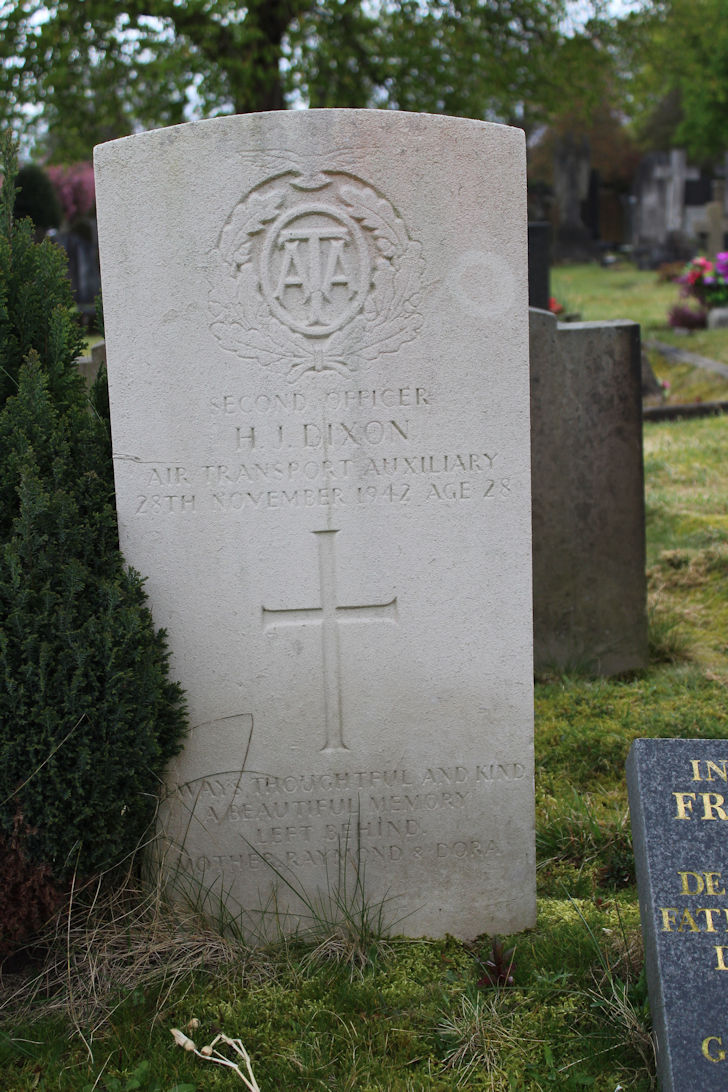
"Always thoughtful and kind, a beautiful memory left behind. Mother, Raymond & Dora
with thanks to Barbara Grayson
The ATA's Flying Establishment Officer visited his widow Elsie and her two children in January 1943. Elsie had in fact moved out a few months before Hubert died, and was living with her parents in "rather a humble dwelling, in a poor quarter of Manchester."... "I gathered the impression that Mrs Elsie Dixon was rather young and irresponsible, so I decided to call on the deceased's parents, to obtain what information I could."
Annie (Mrs Dixon senior) agreed, and went as far as to say that "whatever money was given as a lump sum to Mrs Elsie Dixon would be squandered." Annie also showed him a letter from her son dated 12th May 1942, in which he had written "About the insurance - I have had it made payable to you (Annie Dixon 23 Nansen Rd Gatley). If anything should happen I want £800 to go to Elsie and £800 for Michael and the other baby [Martin, who was born 13 September 1942] to be divided equally when they are 21. The other £400 is for you - don't say you don't want it."
And so that is what they did.
-
Dorrell, Alan Blair
M.727 First Officer Alan Blair Dorrell 
b. 8 May 1910, Worcester 5 Mar 1942 to 1 Dec 1943
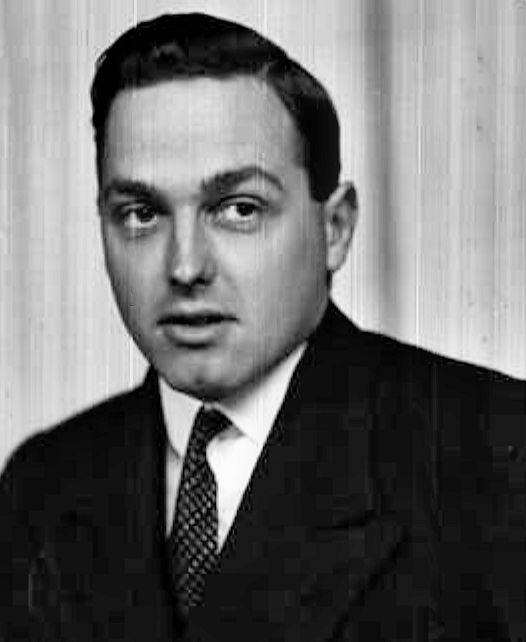 1939
1939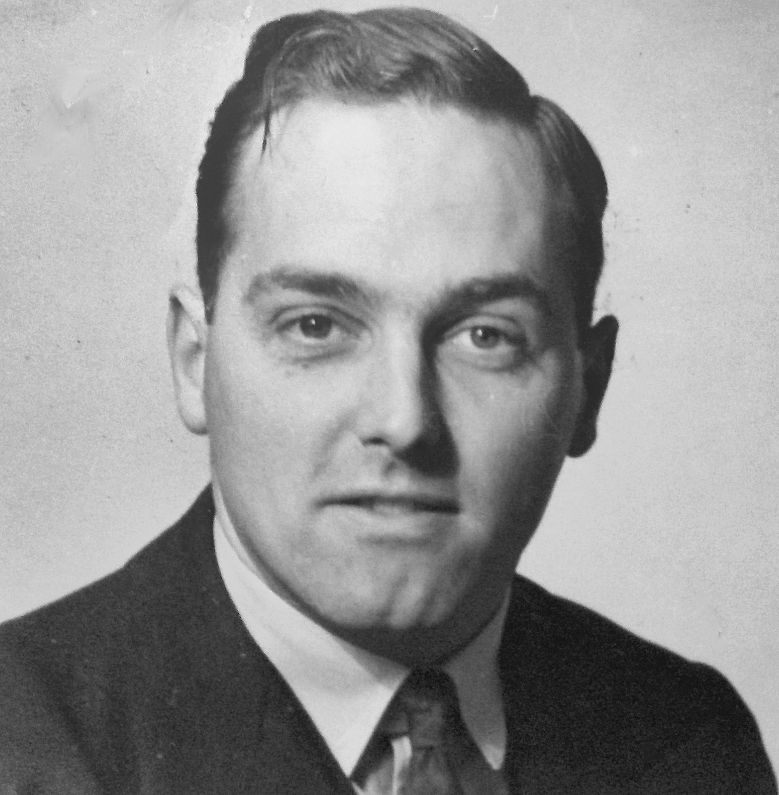 ATA
ATA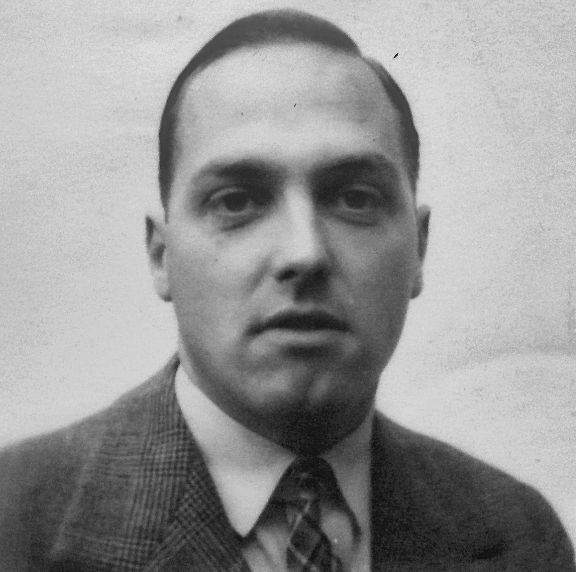
Father: John Dorrell, Kylemore, Avenue Rd, Malvern, Worcs.
Ed. Bromsgrove School. Associate of the Institute of Chartered Accountants.
"French - moderate", having lived in Paris for 6 months
prev. Director and Secretary of the family drapery firm in Worcester; also Hon. Sec. of the Worcestershire Flying School
RAF Oct 1939- Sep 1940, LAC Air Observer
prev. exp. 20hrs on DH Moth
Address in 1942: Link Elm, Malvern Rd, Worcester
Originally joined ATA in 1941 as an Assistant Accountant, at £400 a year:
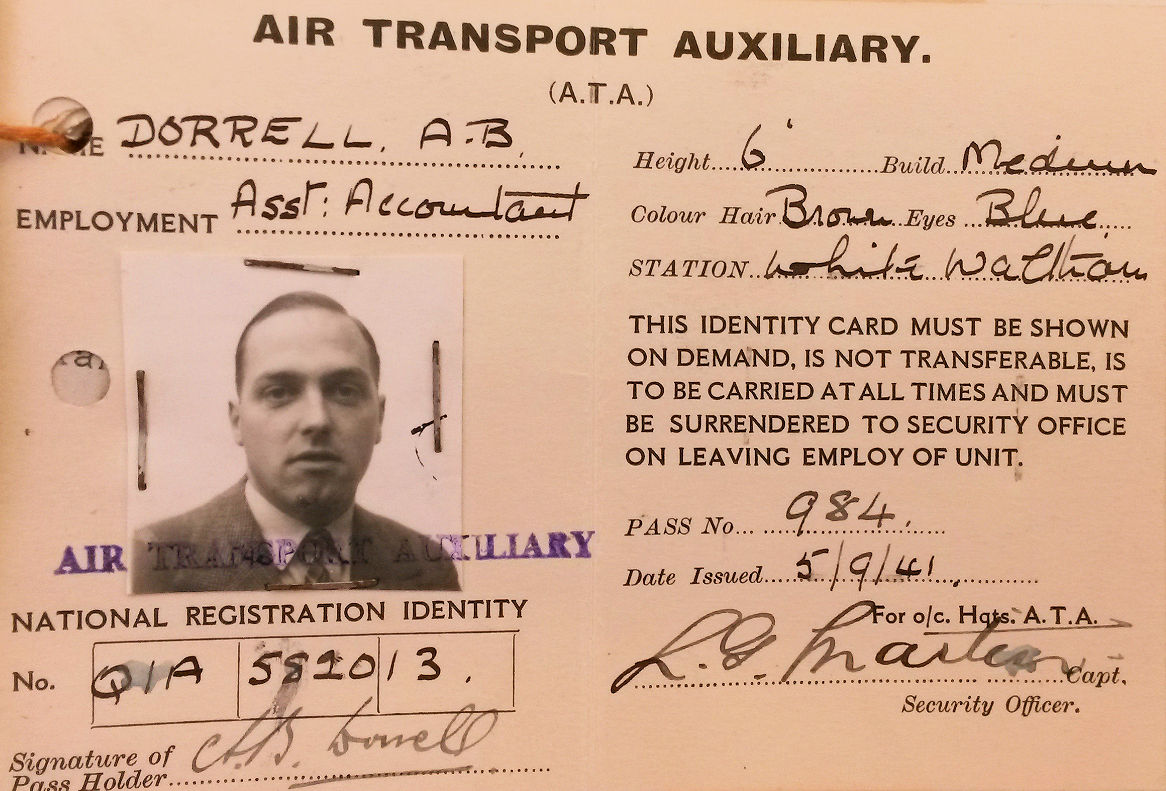 Alan's original ATA Identity Card
Alan's original ATA Identity Card[He said he wsn't concerned about the salary]
Postings: 3FPP, 1FPP, 2FPP
To begin with, he was trained by Joan Hughes. "A very slow starter but made steady progress and reached a satisfactory standard. He has worked hard and his discipline has been good."
3 accidents, 2 his fault:
- 16 Jun 1942, his Hart swung violently after landing, due to a technical defect
- 21 Jul 1942, he "over-estimated his ability in adverse conditions" in landing a Gladiator, a type with which he was unfamilar, and it swung
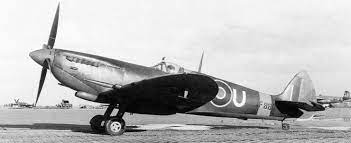
d. 1 Dec 1943 in Spitfire VIII JG546 which crashed nr Byron Hall Farm, Stag Lane, Lowton, nr. Warrington, Lancs.
He was flying from Brize Norton to 18MU Dumfries. He dived out of low cloud but over-corrected, the tail struck the ground and the aircraft disintegrated. He was deemed to be at fault, having "persisted too far in a local patch of bad weather."
His CO, Leonard Leaver, reported: "On being handed his chit by the Operations Officer in the morning, his remark was "Thank you very much indeed, this is just the sort of job I like". On the way to Brize Norton in the Anson, First Officer Coopper states that Dorrell was extremely bright and cheerful, and said to him, "This Spitfire job is the nicest job I have had given me this month."
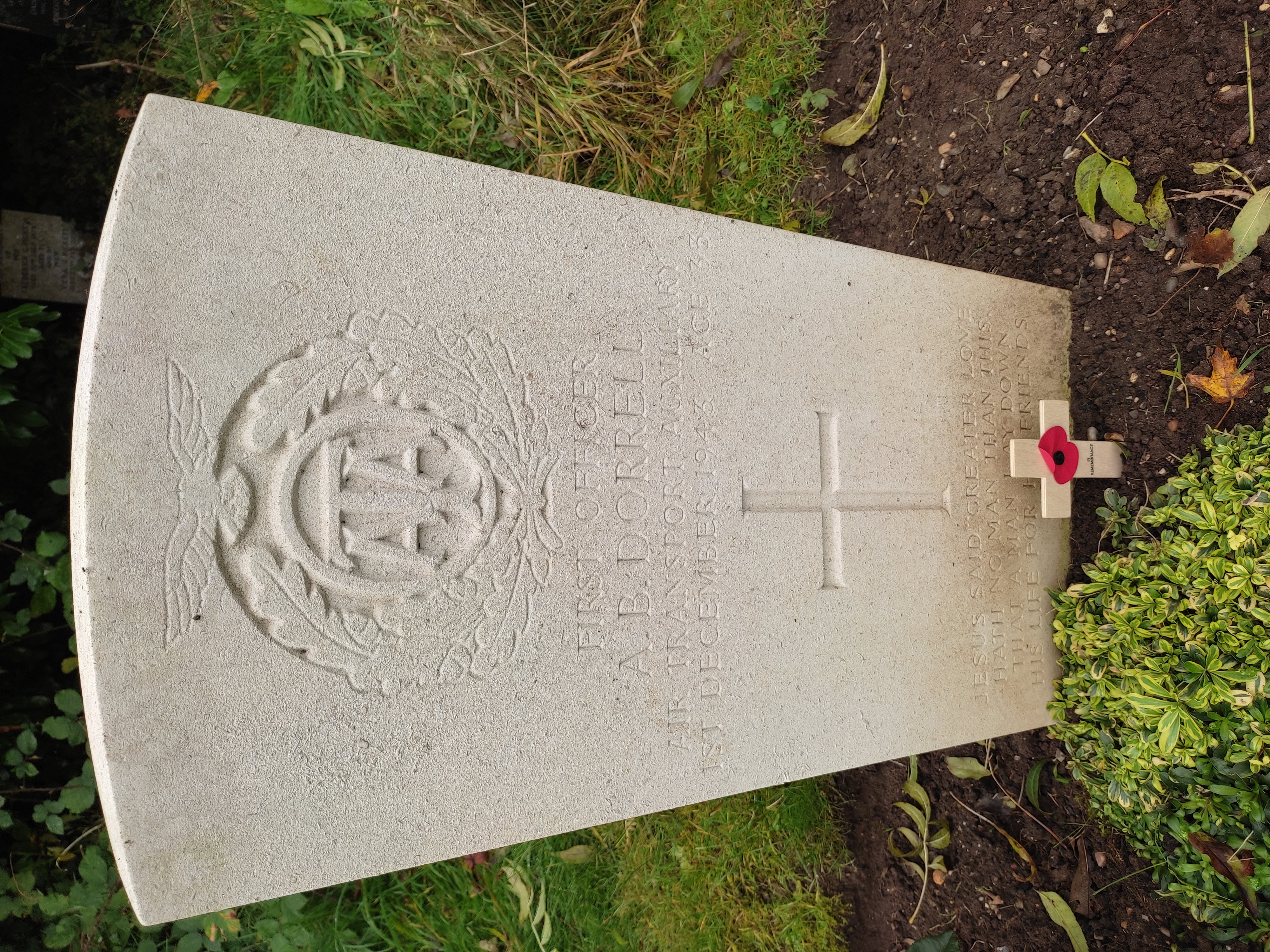
Buried in Maidenhead Cemetery, Section D No 15W; his pall bearers were ATA First Officers KWD Jones, H Freemantle, P Cruttenden, FH Rooke, MB Steynor and J Joss ("or another")
He left £7,265 11s 5d.
Also commemorated on the Bromsgrove School WW2 Memorial, and Malvern WWII Memorial.
-
Douglas, Ann Courtenay (W.26)
W.26 First Officer Ann Courtenay Douglas MBE OBE

b. 20 May 1917, Paddington, London 1 Dec 1940 - 19 Aug 1942
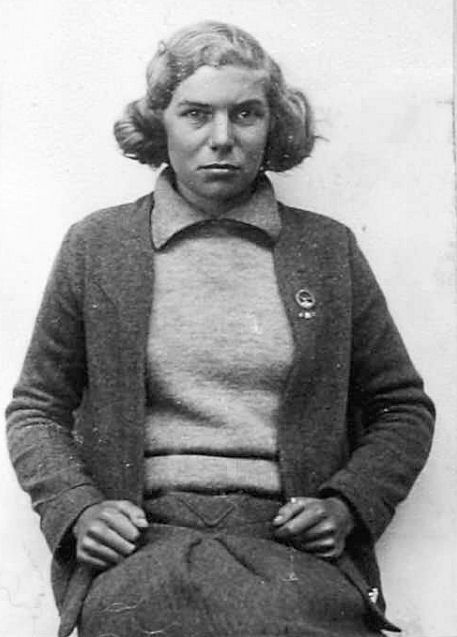 RAeC 1934
RAeC 1934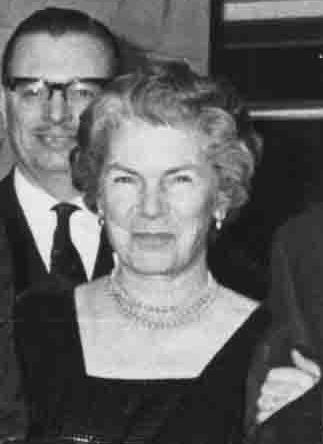 In 1959, at an RAeC 'do'
In 1959, at an RAeC 'do'née Edmonds
Father: Major Courtenay Harold Wish Edmonds (a railway engineer; RN and Royal Engineers in WWI, Royal Engineers in WWII, d. 1953), mother [Austin] (m. 1914 in Exeter) of Wish House, Bickley, Kent
Ed. Stratford House School, Bickley, Kent
prev. Instructor, Dunstable Gliding Club; Founding Member of Surrey Gliding Club
prev. exp 185 hrs on 'standard light types'
m. 1939 Flt-Lt (later Wing-Cmdr) A 'Graham' Douglas (3 daughters, marriage dissolved 1948)
Address in 1940: Staplehurst Farm, Salfords, Redhill, Surrey
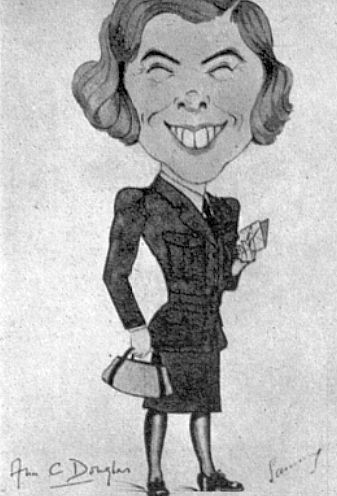 1942 caricature by 'Sammy' Clayton
1942 caricature by 'Sammy' ClaytonPostings: 5FPP, 15FPP
Two accidents, neither her fault:
- 23 Dec 1940, one wheel of her Queen Bee (the optionally-unmanned aircraft based on the Tiger Moth) sunk into a concealed hole, damaging the propeller
- 11 Mar 1941, another Queen Bee, an accident due to engine failure
Contract Suspended 19 Aug 1942, when she became pregnant
"After the war, in 1946, Ann restarted the Surrey Gliding Club at RAF Kenley, initially with five members – but no aircraft. Almost all the country’s gliders had been requisitioned by the RAF and had been broken up or rotten away in unsuitable storage conditions during the war.
Their first glider, a Weihe, was an ex-German requisition. In 1947 the club relocated to nearby Redhill airfield – it wouldn’t return to Kenley until 1985 as the Surrey Hills Gliding Club which still flies from the airfield.
Ann worked hard to re-establish the British Gliding Association, resigning as its vice chairman in 1976. She managed the British Team at the World Gliding Championships between 1948 and 1968. She presided over the formation of the British Hang-Gliding Association in 1974 and was president of the British Microlight Association. She was also a Fellow of the Royal Aeronautical Society and in 1997 was elected as an Honorary Fellow of the Royal Institute of Navigation.
Awarded an MBE and OBE for services to gliding, Ann Welch was an amazing all-rounder. A mother of three girls, she was a pilot, an instructor, a flying competition organiser, national administrator, author, painter, skier and one of Kenley’s famous faces." - https://www.kenleyrevival.org/content/history/local-lives/ann-welch-aviatrix-extraordinaire
m. 1953 in Surrey,
 1947
1947Patrick Palles 'Lorne' Elphinstone Welch (who played a major part in designing the famous two-seater glider secretly constructed in the attic of Colditz Castle PoW Camp. d. 1998):
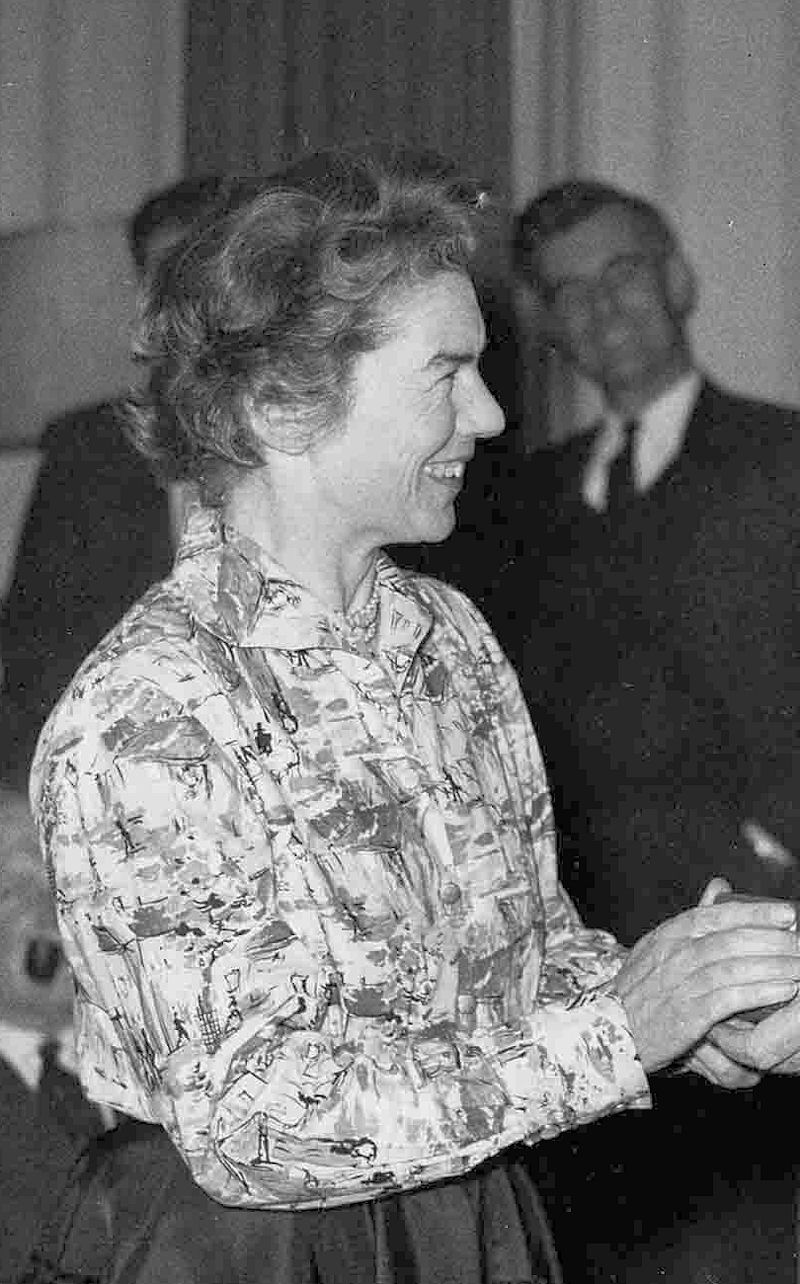 © RAeC [0517-0226]
© RAeC [0517-0226]Receiving the Royal Aero Club Silver Medal [from Lord Brabazon], for her service to the advancement of gliding, 26 Mar 1959
Wrote her autobiography, 'Happy to Fly' in 1983
d. 5 Dec 2002 - "the world's best-known glider pilot"
https://en.wikipedia.org/wiki/Ann_Welch
-
Drabble, Arthur Irving
M.458 First Officer Arthur Irving Drabble 
b. 16 Feb 1901, Conisbrough, Yorks 20 May 1941 to 28 Apr 1945
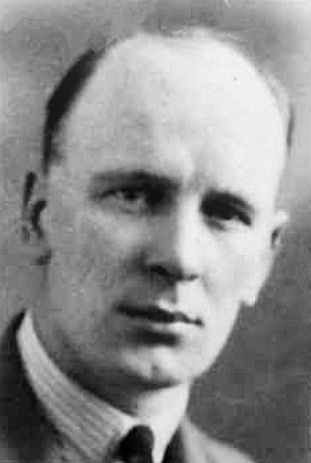 1933
1933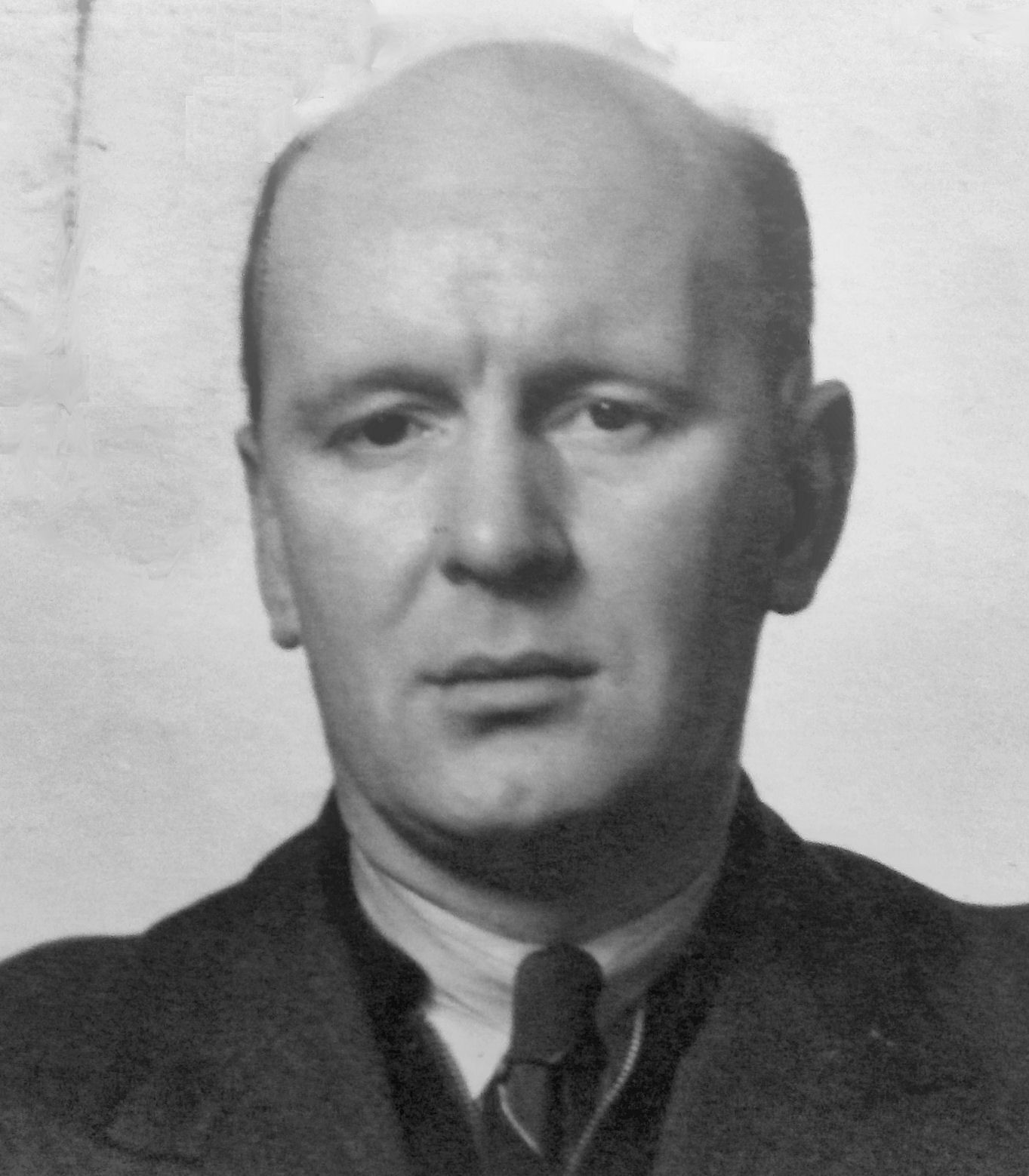 ATA
ATAEducated at Mexborough Secondary School
m. 1923 Phyliss [Akester]
Corporal in Home Guard 'B' Co, Hatfield, Sep-40 to Mar-41
A "Manufacturing Confectioner"
Address in 1941: North Cliffe House, North Cliffe Rd, Conisbrough, Nr Doncaster
Postings: 2FPP, 3, FPP, 14FPP
"A steady and conscientious pilot who has worked well. He is a little inclined to be forgetful at times."
"A very slow starter [on the Class 5 conversion course] due partially to complete lack of experience on 4+ aircraft and the fact that he was inclined to be somewhat nonchalant towards the whole course, showing little interest. After realising the high responsibility he was accepting he showed considerable improvement."
d. 1958 - Don Valley, Yorks
"A confectionery business was established in Conisbrough by Jos Drabble and brother-in-law John Maxfield during 1890. But after a while the two men parted company and established their own confectionery businesses. John’s firm was short-lived and a number of his staff joined Jos’s venture which by 1924 was a limited company.
Jos’s son, Arthur, succeeded his father and he was also well-known in motorcycling circles. He was in the first four in the 1924 Isle of Man TT Races and was a keen flyer. On Sunday afternoons during the 1930s he was frequently seen performing ‘loop-the-loops’ and other spectacular tricks in his aeroplane over Conisbrough.
In 1938 Drabble’s warehouse caught fire and residents said that this led to the road being covered in melted chocolate. Arthur Drabble died in 1958 and was succeeded in the business by daughter, Doreen. The company ceased trading after she retired in 1981."
http://www.southyorkshiretimes.co.uk/lifestyle/down-memory-lane-with-peter-tuffrey-conisbrough-traders-1-5476918Evidence of his motor-cycling career comes from the 'Sheffield Independent' in 1923: "MOTORISTS' OFFENCES In the West Riding Police Court on Saturday, William S. Flower, dentist, and Arthur Drabble, confectioner, Conisborough, were fined £7 each for riding motor-cycles in a manner dangerous to the public on the Great North Road. The police evidence was that defendants were travelling at 60 miles per hour."
Download ATA Pilot Personal Record (.zip file):
-
Drabble, John Edmund Layard
M.292 First Officer John Edmund Layard Drabble 
b. 14 Mar 1901, Twickenham 27 Feb 1941 to Apr-42
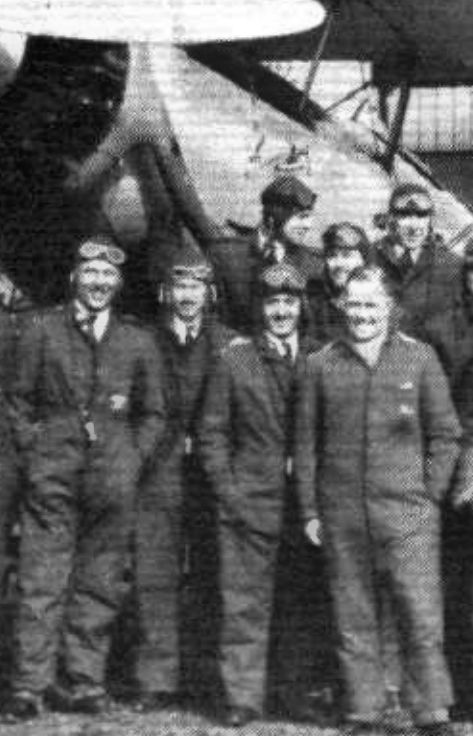
1st on left, with other members of 40 Bomber Sqn, Upper Heyford, 1932 (Flight)
Royal Navy from 1914 to 1919 (Sub Lieut.)
Victory Medal
RAF 1919 to 1932 (Flight Lieut.)
m. (One child before 1941)
a Civil Pilot
prev. exp. approx 3,000hrs
"Lost right foot and ankle - artificial foot" [Possibly in the accident to Avro 504K J732, of 39 Sqn, Spittlegate which spun in during aerobatics on 2 Feb 1923; F/O Cyril Chambers (24) killed, F/O John Edmund Layard Drabble injured. The inquiry found that the accident was due to an error of judgement on the part of Flying Officer Drabble.]
June 1932: "FLIGHT LIEUTENANT FINED. John Edmund Layard Drabble, Flight Lieutenant. 49 Squadron, Upper Heyford, Bicester, did not appear to answer a charge of using a motor car with no Road Fund licence at Waddesdon on Tuesday, April 26th. but sent a telephone message explaining that was on duty until noon. P.S. Snelling deposed that in High Street, Waddesdon, he noticed that defendant’s Road Fund licence expired on March 24th. Defendant said, " I forgot all about it."
Director of Aircraft Equipment Ltd from Jan 1936, presumably based on his patent for 'increasing the field of vision in aircraft", filed the same year.
Address in 1941: 1 Lanark Rd, Maida Vale, London
Postings: 3FPP, 6FPP
"A pilot of considerable experience... a capable pilot who is working hard and well." but...
[Contract Terminated 10 Apr 1942 by ATA - Disciplinary Reasons]
-
Duckett, Reginald Wilfred
M.109 First Officer Reginald Wilfred Duckett 
b. 30 Jun 1907, Porstmouth 1 Nov 1940 to Jun-45
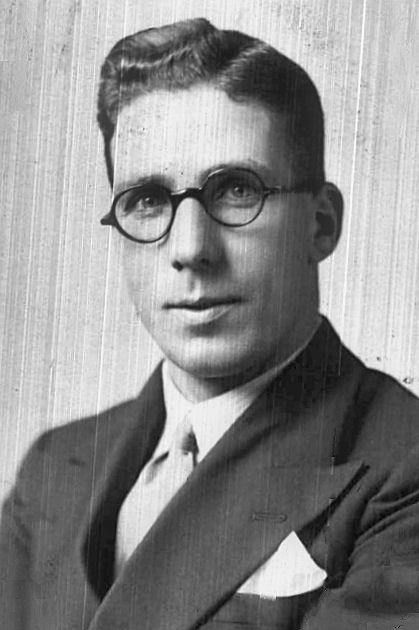 1937
1937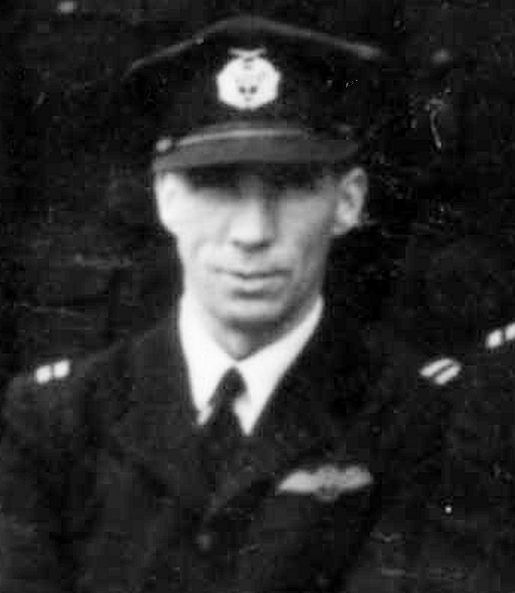 ATAM
ATAMAddress in 1940: 25 Parkside Drive, Cheltenham Reach, Gloucester
prev. RAF Instructor, Estate Agent, Surveyor
Postings: 1FPP, 2FPP, 6FPP, 14FPP, 16FPP
He had an exciting time in a Warwick in June 1943. The undercarriage failed to lock down due to an uncoupled pipe; he and the passengers reconnected the pipe and replaced the hydraulic fluid with "a mixture of ethanol and urine" and pumped the undercarriage down by hand. They were all commended for their efforts.
... and then 10 months later, in April 1944, the same problem occurred in a Barracuda - a hydraulic connection came adrift. This time, as there were no passengers with the necessary, he made a successful forced landing.
"A keen and willing worker who, after a slow beginning, reached average ability. A pilot who knows his own limitations and has no special faults."
Rejoined the RAF post-WWII; Pilot Officer in the Aircraft Control Branch from Nov 1950.
d. Jun 1976 - Hampshire
-
Dutton, Hon. Charles
M.138 First Officer Hon. Charles Dutton 
b. 13 May 1911, Burford Oxon 23 Jul 1940 to Nov-45
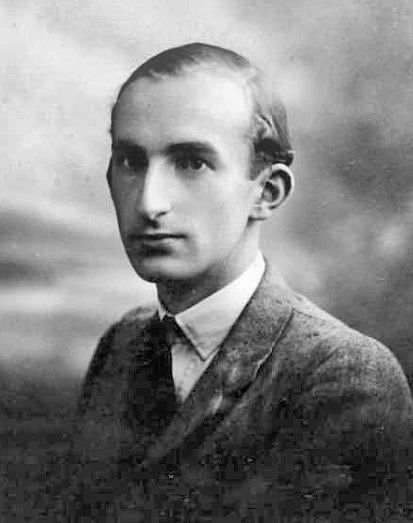 1933
1933George Dutton's brother
Physical Defects: No right arm [the result of a congenital defect, not amputation]
Next of kin: Father, Lt-Col James Huntly Sherborne, 6th Baron Sherborne, Sherborne Park, Cheltenham, Glos.
Ed. at Stowe
He worked in the Finance Department of the Hospital Savings Association, and was a Temporary Assistant, Ministry of Economic Warfare, Apr-40 to Jun-40
Postings: 1FPP, 9FPP, 12FPP
He got a Certificate of Commendation, in 1942: "On the 29th April, F/O C Dutton (a one-armed pilot) was ferrying a Spitfire from Lyneham to Biggin Hill. When he had got about a mile beyond Kenley he experienced complete engine failure due to a broken connecting rod. He succeeded in lowering his undercarriage and flaps and in landing his aircraft at Kenley (runway aerodrome) in a high wind without further damage."
"This officer has been flying consistently well and keenly... a most likeable person whose discipline is good."
Lettice Curtis described him as 'a particularly English pilot'; "One day, in an honest effort to excuse something which American instructor Charles Smith had said or done, he said to all and sundry 'Remember he's just an American'."
m. Joan Molesworth Jenkinson, also an ATA pilot, in 1943:
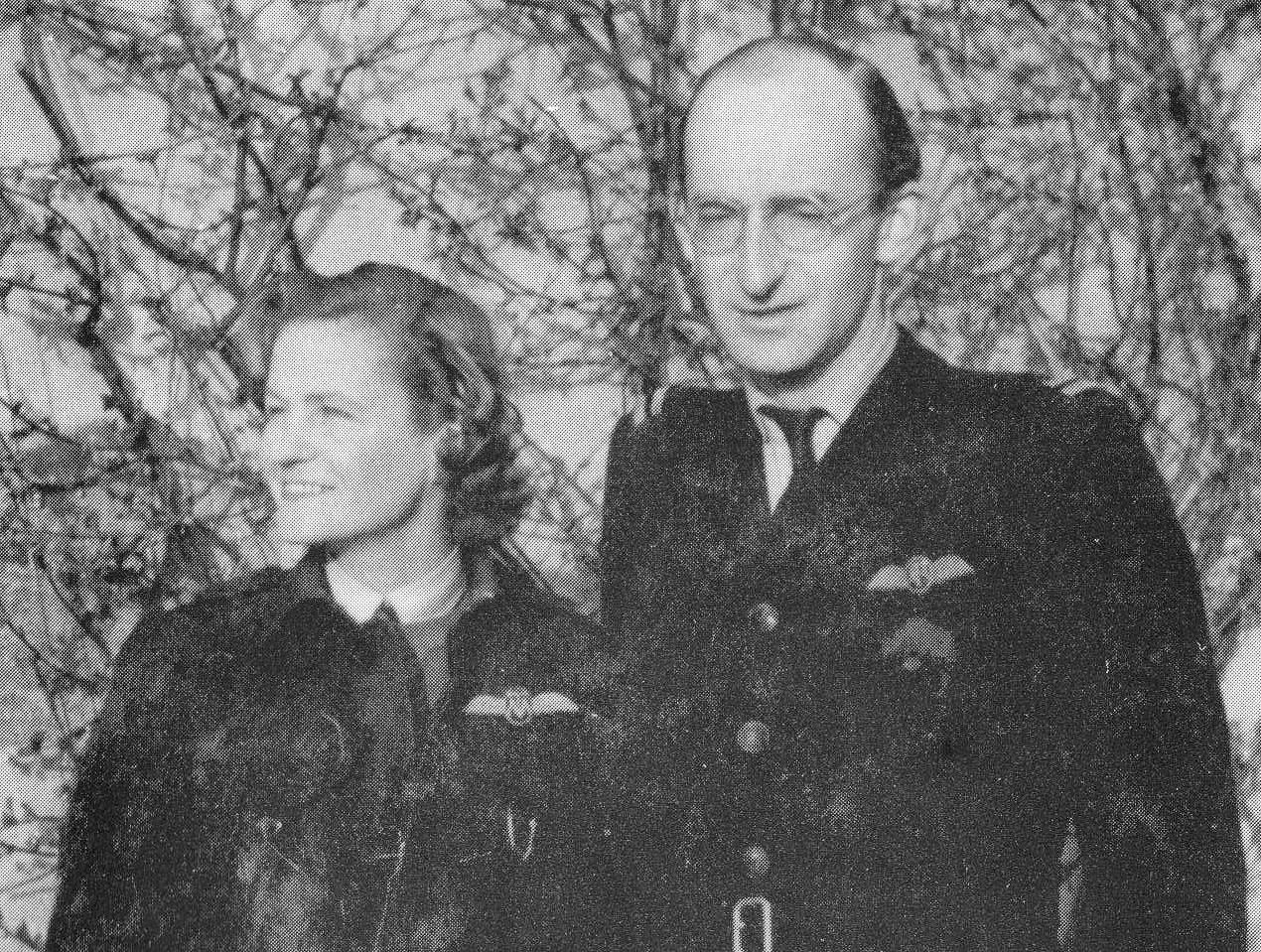 HB
HBDespite his disability, Charles ferried 541 Spitfires, 14 Mustangs, 232 Typhoons, 4 Fireflies and 47 Tempests during his time with the ATA.
He duly became 7th Baron Sherborne in 1949, on the death of his father. He then farmed in Gloucestershire and was a member of Gloucestershire County Council for some years.
d. 25 Dec 1983
-
Dutton, Hon. George Edward
M.124 Flight Captain The Hon. George Edward Dutton 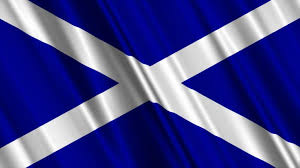

b. 23 Sep 1912, Beauly 2 Jul 1940 to Dec-45
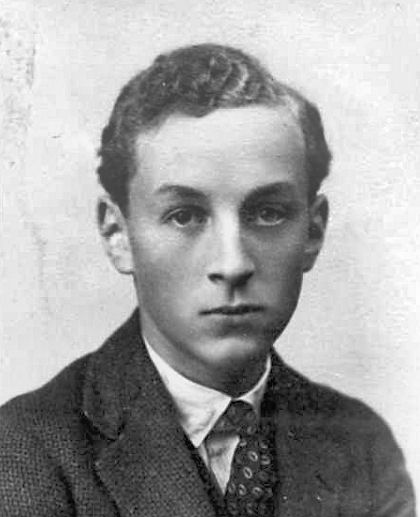
A student in 1929
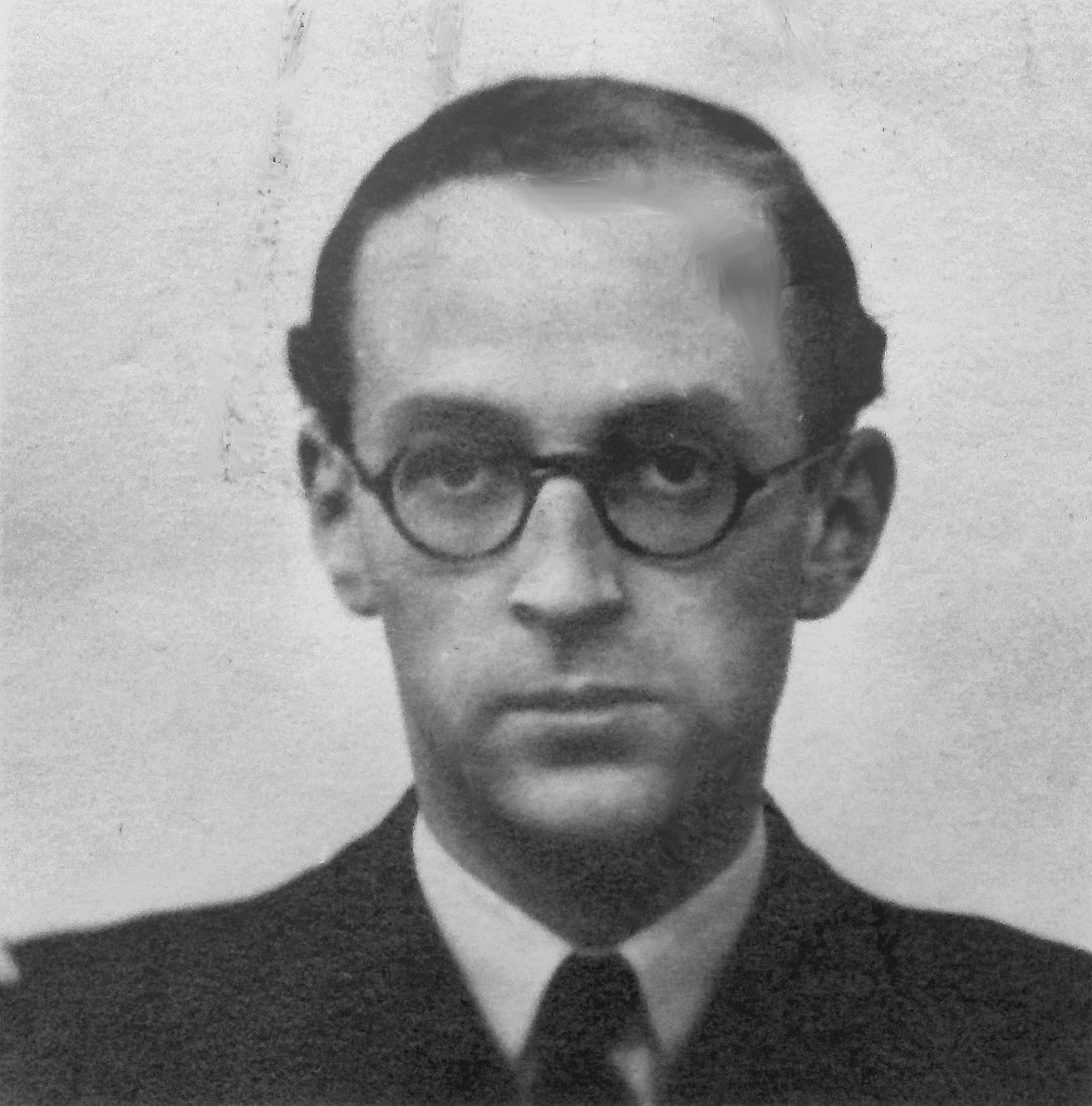 ATA
ATA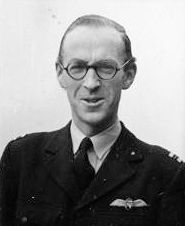 MAMM
MAMM* King's Commendation for valuable service in the air
Charles' brother (see below)
Next of kin: Father, Lt-Col James Huntly Sherborne, 6th Baron Sherborne, Sherborne Park, Cheltenham, Glos.
Ed. at Stowe
prev. Foreign Office (Communications) Aug-39 to Jul-40
prev. exp. 250 hrs
Postings: 1FPP, 2FPP, 15FPP
"A pilot of exceptional ability, and a successful Flight Captain, inasmuch as his high qualities as a pilot set a good example to others. His quiet disposition and lack of natural aptitude for leadership prevent him from being an outstanding Flight Captain as well as an outstanding pilot."
m. Joan Doreen East 1945; Pauline Stewart Robinson 1959
d. 21 July 1981, Hereford
-
Eayrs, Arthur Frank
M.380 * 2nd Officer Arthur 'Frank' Eayrs 
b. 2 Aug 1893, Manton, Rutland 13 May to 18 Sep 1941
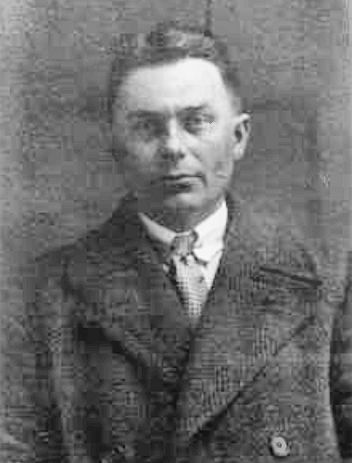 1930
1930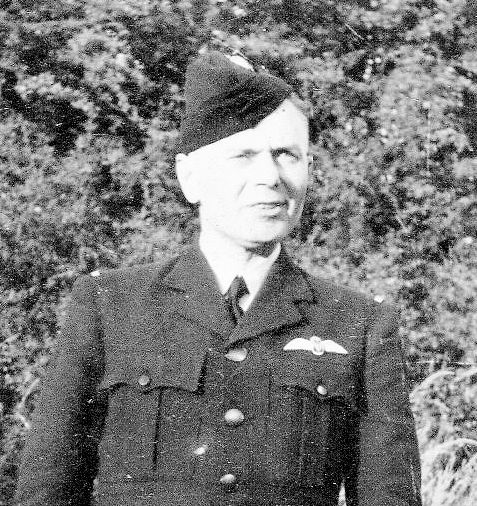 1941
1941pre. a motor engineer; garage proprietor (Scott and Eayrs Limited, High Street and Melton Rd, Oakham)
m. 1925 in Uppingham, Rutland, Mabel E [Taylor]
RAeC Certificate 9050, taken at Nottingham Aero Club in 1930. His instructors were Keith Kendle Brown, then Reginald Lee Bateman up to September 1929, and then Ronald Thomas Shepherd.
Address in 1930: 2 Parkfield Rd, Oakham, Rutland
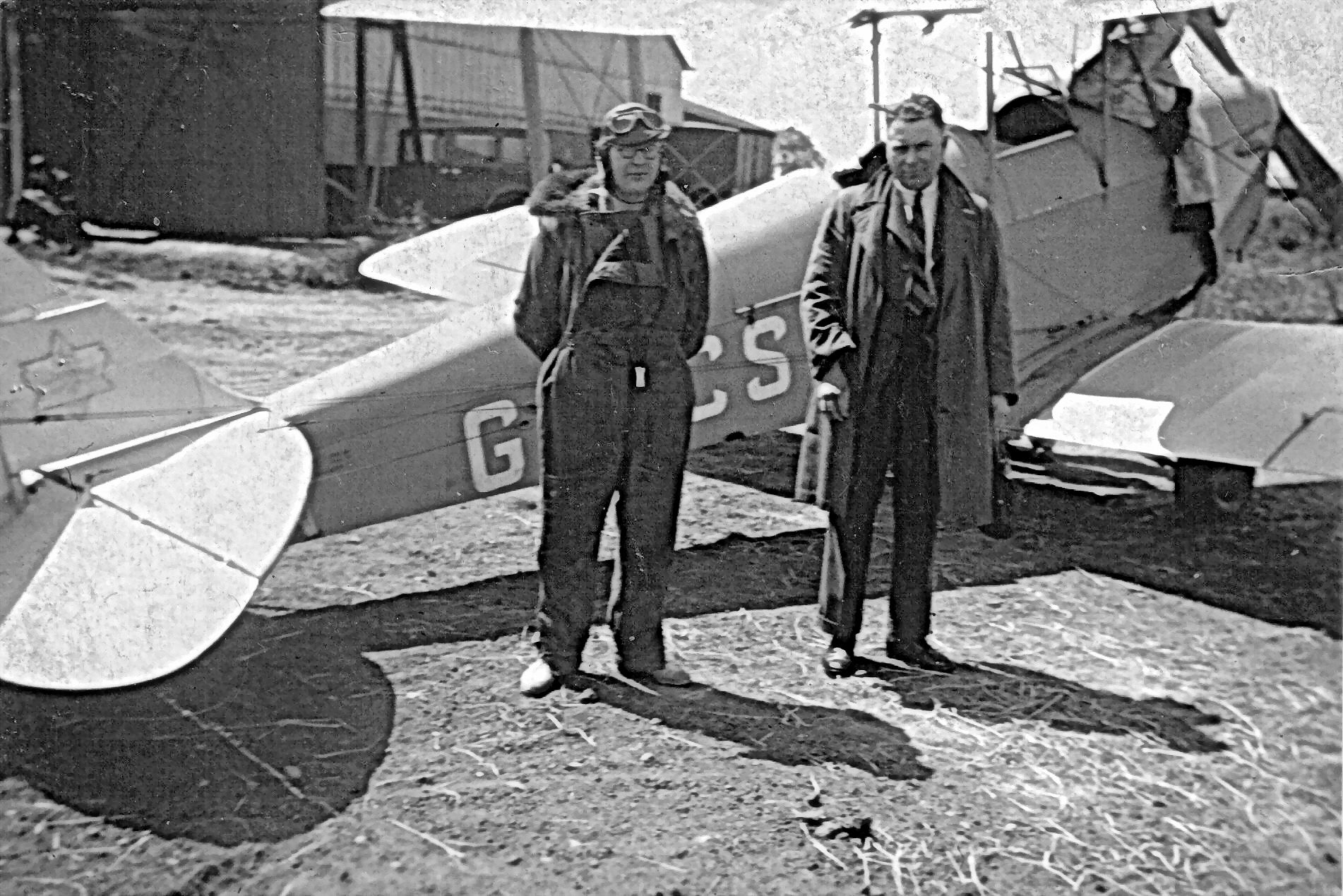
(r) at Tollerton; G-ACST in the background.
[G-ACST was a 1934 DH.60G III Moth Major based at Tollerton, which was sold in 1937 to Singapore, became VR-SBA in the Malayan VAF and was destroyed in 1941]
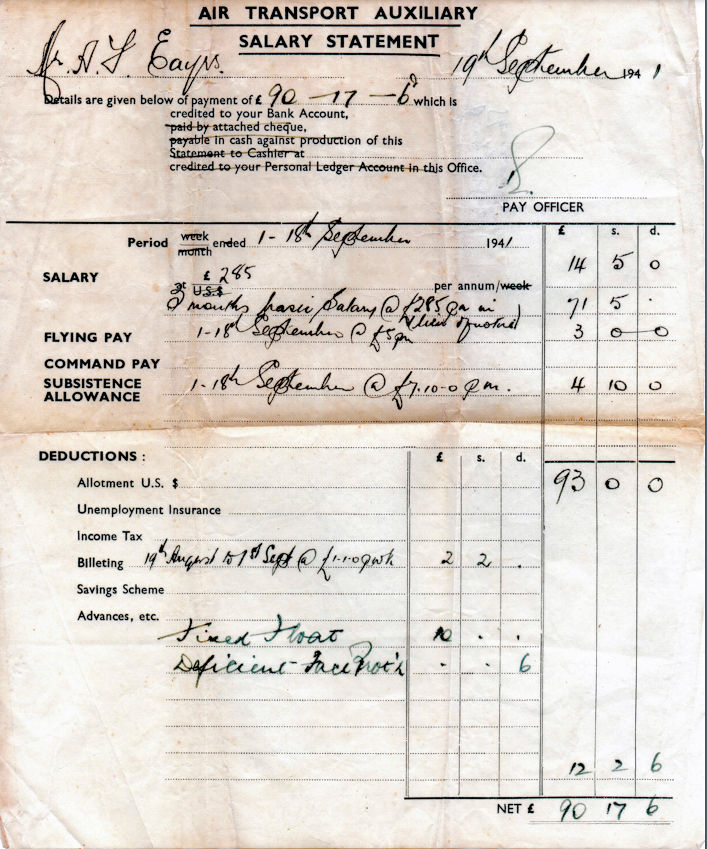
This document confirms the end of Frank's ATA service on 18th September 1941; he received 3 months pay (£71 5s) in lieu of notice.
A note in his logbook says "approx 480 hrs in Hart, Audax, Gladiator, Swordfish, Anson, Oxford, Whitney Straight, Leopard Moth, Miles Magister, Tiger Moth etc." but this probably includes his pre-ATA hours.
"The information in our family was that his ATA flying had been cut short by a medical problem, possibly related to blood pressure."
"After the war he came back to flying. He owned an Auster G-AHAH, and a Miles Whitney Straight G-AEUZ between 28 Feb 1948 and 15 Aug 1949"
d. 9 Jul 1965 - Rutland
His grandson kindly sent me the photos and information.
* - ATA File Missing -
Edney-Hayter, Frederick Charles
M.280 * 2nd Officer Frederick Charles Edney-Hayter 
b. 22 Jul 1899, Whitchurch, Hants 25 Mar to 25 Jun 1941
Father: Thomas Augustine Edney Hayter JP, a farmer; Mother: Emma Harriet
Ed. Sherburn School
RFC, RAF Jul 1917- Aug 1919 (Temp 2nd Lieut., 16 Sqn, Uxbridge)
Emigrated to Canada, 1922 - Lands Dept, Canada Parks and Recreation (CPR):
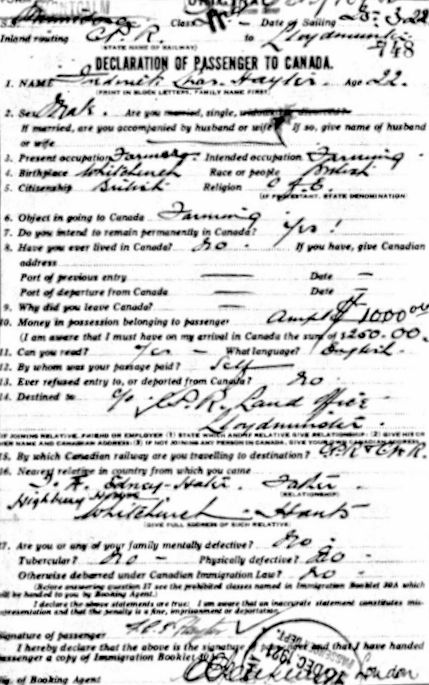
"Do you intend to remain permanently in Canada: Yes!"
However, he was back in the UK by 1930, and back in the RAF;
m. 1930 in Reading, Hylda Muriel [Bradford]
"Flying Officer Frederick Edney-Hayter of the 7th Squadron RAF, Worthy Down, Winchester, Hants, and his bride flew by air taxi from Reading Aerodrome after their wedding at Sonning Church. The bridegroom is a well-known pilot with a distinguished air record."
Four photographs (by Bassano, taken in 1931) are in the National Archives.
By early 1935, however, he was in a spot of bother:
"A LENIENT VlEW.—Frederick Chas. Edney-Hayter, a well-spoken man of 40, giving the address of a hotel at Southampton, pleaded guilty at Eastleigh Petty Sessions on Monday to a charge of obtaining £2 10s, by false pretences from Alfred Edward Knight, at Netley, on December 4. The prosecutor cashed a cheque for accused for the amount which was returned from the bank marked "No account." Accused had been in no previous trouble. He had an excellent War record.
Accused asked for an outstanding offence at Southampton to be taken into consideration. This was for incurring a debt of liability, by false pretences, from Alexander Cornish-Trestmil, of Southampton.—Supt. Pragnell said accused had now obtained a job. He was sincerely sorry and had promised to pull himself together. —ln view of this statement the Bench decided to take a lenient view, and bound the prisoner over for two years. He was placed under probation for that period. " I hope you will repay those you have defrauded," said the Chairman of the Bench (Col. E. F. Hall).—Accused: I will, sir. " - Hampshire Telegraph - 18 Jan 1935
He resigned from the RAF 14 Mar 1935. His new job turned out to be as a commercial air pilot based at Chilworth Aerodrome, but this did not always go very well, either; on the 24 Feb 1936 he crashed G-ACKD, a DH84 Dragon owned by the Ethiopian Government and operated within Ethiopia on behalf of the Red Cross. He and his passenger were injured and the aircraft was destroyed.
And then this:
"SMUGGLING BY AIR. 106 boxes of Cigars, 12 bottles of rare brandy.
Capt. Frederick Charles Edney Hayter, air pilot, of Highbury. Whitchurch, Hants, was one of three defendants at Folkestone Police Court. on Thursday, charged with smuggling cigars and brandy.
There were 10 offences alleged against Hayter and some of these were in respect of breaches of the Air Navigation Consolidation Order.
In a statement. Hayter admitted bringing cigars in a machine from Belgium and hiding them from a Customs officer. but declared that he had had no financial gain from the venture. He was fined £100 with £25 costs, or three months' imprisonment. His solicitor said he did not possess a farthing. " - Hampshire Advertiser - 19 December 1936
The following year, 1937:
"An air pilot, Frederick Charles Hayter, described as of Highbury Whitchurch, Hants, was referred to by the police as " a slippery customer " at Reading to-day, when be was fined £7 10s. for using a motor-car without an insurance policy, and £5 for aiding and abetting another man in using the car without Road Fund licence. Supt. Osborne said that Hayter was involved in a traffic accident in Reading in October, and the owner of the car, a man named Chandler, was fined in December for permitting the car to be used uninsured and unlicensed. Hayter did not appear when summoned on that occasion, probably because he was in custody in connection with smuggling offences in Folkestone. He was sent to prison, but afterwards paid his fine through writing his life story in a certain paper, and released. "In my opinion, he Is a slippery customer."
He understood that Hayter had lost his job as an air pilot as a result of the smuggling offences.
In imposing the fine, to be paid forthwith, the Chairman, Mr. A. G. West, said that the alternative would be a month on each summons, the sentences to run consecutively. " - Gloucester Citizen - 1 Feb 1937
Address in 1939: HM Prison, Winchester.
Postings:
He enlisted as AC2 in the RAFVR on 4 Jul 1941.
d. 2 Dec 1985 - The Old Manor Hospital, Salisbury, Wilts
* File not seen
-
Edwards, Sylvia Isabel (W.131*)
W.131 * 2nd Officer Mrs Sylvia Isabel Edwards 
b. 6 May 1919, London 9 Aug-43 to Sep-45
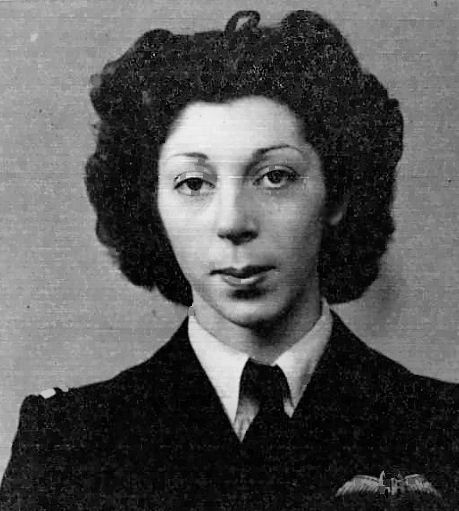 RAeC 1945
RAeC 1945née Namias
Father: Lea Namias, a textile merchant, mother Hilda
m. 1939 in London, Flt-Lt David Harold Edwards(from Vancouver BC, of 144 Sqn, Bomber Command, RAF. d. 21 Jul 1940 when his Hampden was hit by flak and ditched in the North Sea during a minelaying operation against the Tirpitz and Von Scheer)
Address in 1939: 27 Woodfield Ave, Streatham
prev. an ambulance driver for the LCC
ab initio trainee
Address in Oct 1945: 1 Hugo House, Sloane St., London SW1
exp: 185.15 hrs as ferry pilot
Gained her RAeC 'A' Certificate No 20611 as part of the ATA 'Wings' scheme on 3 Oct 1945
m. 1945 in Westminster, Flt-Lt Richard Anson Freshwater, who had been a PoW in Stalag Luft III / Milag-Marlag Nord-Oflag L from 28 Aug 1942 after his Beaufighter was shot down
They moved to 9 Pasture Lane, Hathern, Loughborough, Leics, where Sylvia was the Unit Commander for the Junior Air Corps formed in 1955:
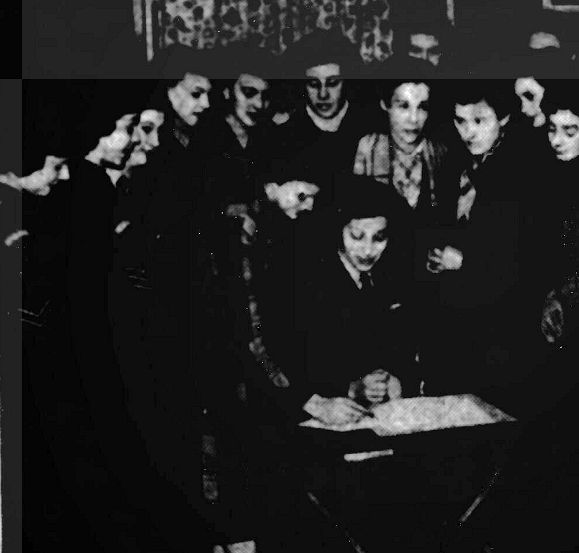
"Air-minded girls rolled up at the YWCA, Loughborough, last night to enrol in the newly-formed Junior Air Corps. The first recruit, Miss Ivy Whelden, signs on the dotted line for unit commander Mrs Sylvia Freshwater"
but they later emigrated to New Zealand, living at 51 Toroa St, Aukland.
-
Egginton, Roy Leonard
M.749 First Officer Roy Leonard Egginton 
b. 2 Nov 1921, Coventry 20 May 1942 to 9 Jun 1944
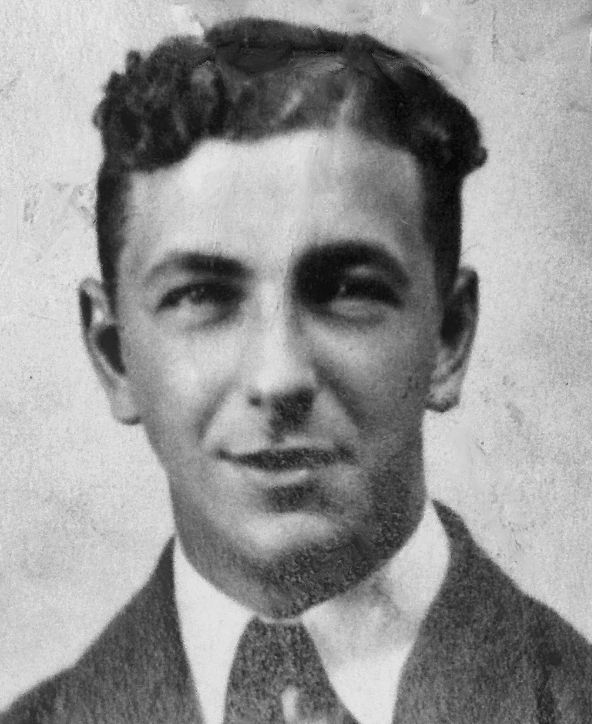 ATA
ATA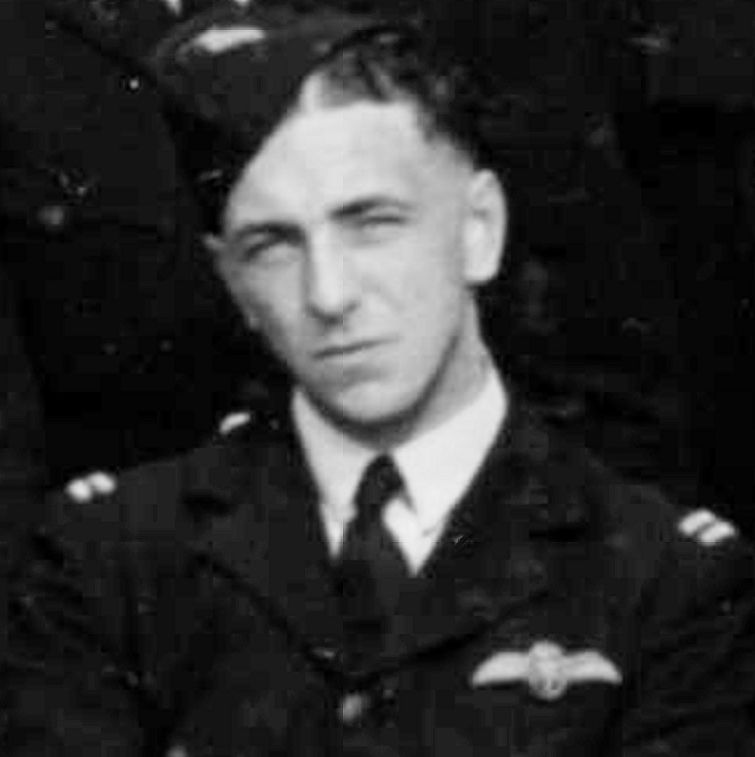 ATAM
ATAMFather: Sidney Lawrence Egginton, Little Heath Post Office, Coventry; mother, Florence [Bolton]
Ed. King Henry VIII School, Coventry
prev. a sub-Post Master; RAF LAC from 22 Feb 1941 to 15 Sep 1941
prev. exp. 37 hrs
Address in 1942: Rose-Mary, Coventry Rd, Fillongley, Coventry
He was fined 7s 6d in June 1939 for ignoring a 'Halt' sign while riding his bicycle (!)
Postings: 6FPP, 7FPP, No 782 Sqn RAF (Donibristle), 3FPP
The Air Ministry reported: "After 18 hrs dual and 12 hrs 30 min solo general standard below that required. Extremely slow thinking and has also found great difficulty in mastering the fundamentals of navigation"...
... but his 'reference' from Pilot Officer T C Sumner MSc. said "I found him most capable and can say without hesitation that in many respects he was quite brilliant... he was awarded the 'Holt Memorial' Medal for Service and Leadership"
His instructor perhaps summed it up: "Egginton is a likeable chap, thoroughly trustworthy and keen to fly" but "In war time there are limits to the amount of time we can give to a slow pupil"
6 accidents, only one definitely his fault:
- 23 Aug 1942, a loose stone flew up while taxying and chipped the propeller
- 2 Feb 1943, he landed a Hurricane with gear retracted; the gear operation was faulty
- 29 Jul 1943, an error of judgement while landing a Martlet led to an uncontrolled swing
- 9 Nov 1943, forced landing in a Warwick after engine failure
- 14 Jan 1944, his Swordfish collided with a van while taxying, due to "insufficient care on part of the van driver"
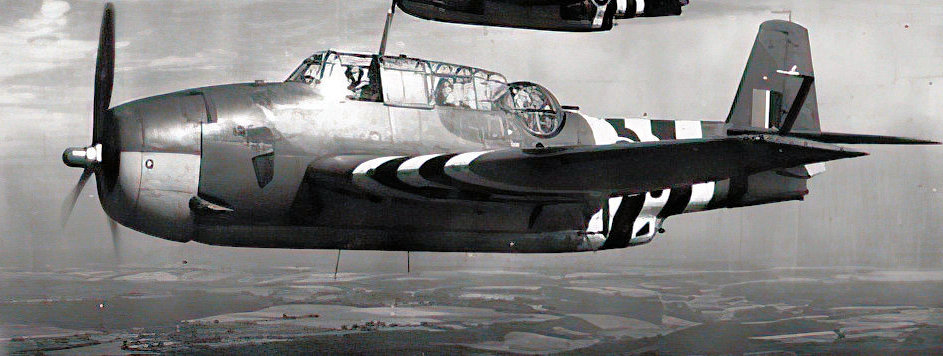
d. 9 Jun 1944 in Avenger II JZ560, which disappeared on a flight from Hawarden to Hawkinge, Kent. It was assumed that he had flown too far and crashed into the English Channel as neither he nor the aircraft were spotted after takeoff, or ever found.
The ATA (who continued paying his salary) even contacted the Red Cross to find out if he had accidentally flown to France and been taken prisoner, but nothing had been reported and he was finally presumed dead after 9 months, although it took until 1 Jul 1946 for probate to be finalised.
Commemorated on the Runnymede Memorial.
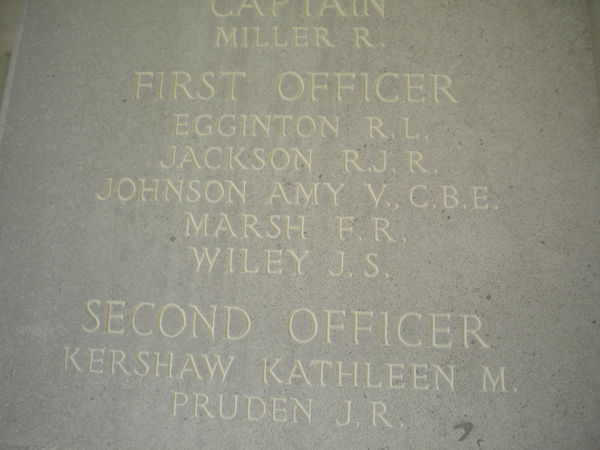
When Coventry Cathedral was rebuilt in 1953, he was also remembered there:
"SIX COMMEMORATED
The Lady Chapel window, situated over the Lady Chapel altar, portrays the Blessed Virgin Mary. It has been given by parents, relatives and friends in memory of six young men of St. Paul's Guild who gave their lives in the Second World War.
Their names—Kenneth Aspell. Geoffrey Burrows. Anthony Crabb. Howard Checkley. Roy Egginton. and Edward Savage - are inscribed in the window. "
-
Ellam, Frederick
M.12 Commander Frederick 'Joe' Ellam Jnr 
b. 15 Aug 1895, Bexley 11 Sep 1939 to Nov-41
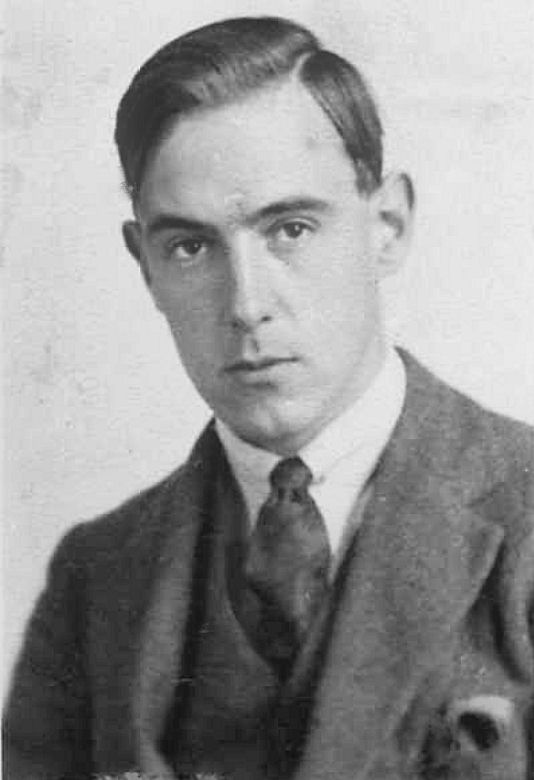
1917
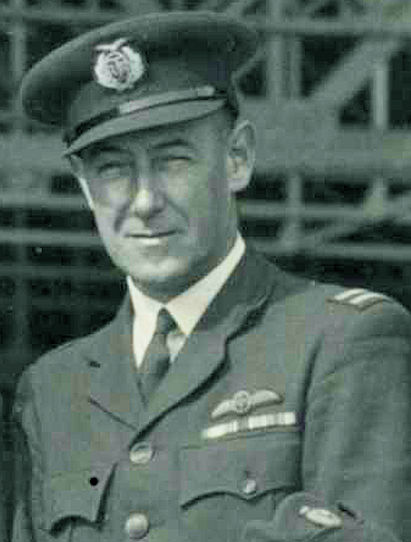 ATAM
ATAMRFC (17th London Regiment) and RAF Reserve 1914 to 1933
prev Director of Ellams Duplicator Co.
Transferred to MAP, November 1941
d. Sep 1973, Eastbourne
-
Ellis, Arthur Godfrey
M.274 First Officer Arthur Godfrey Ellis 
b. 23 Feb 1913, Hanley, Stoke-on-Trent 26 Feb 1941 to Nov-44
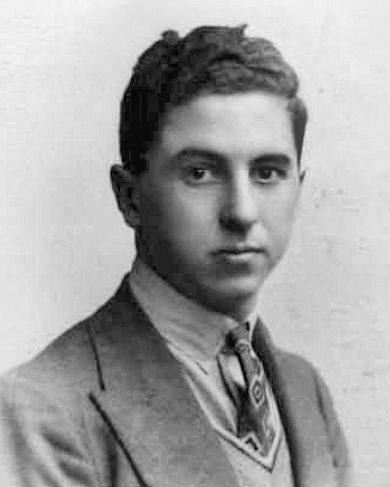 1934
1934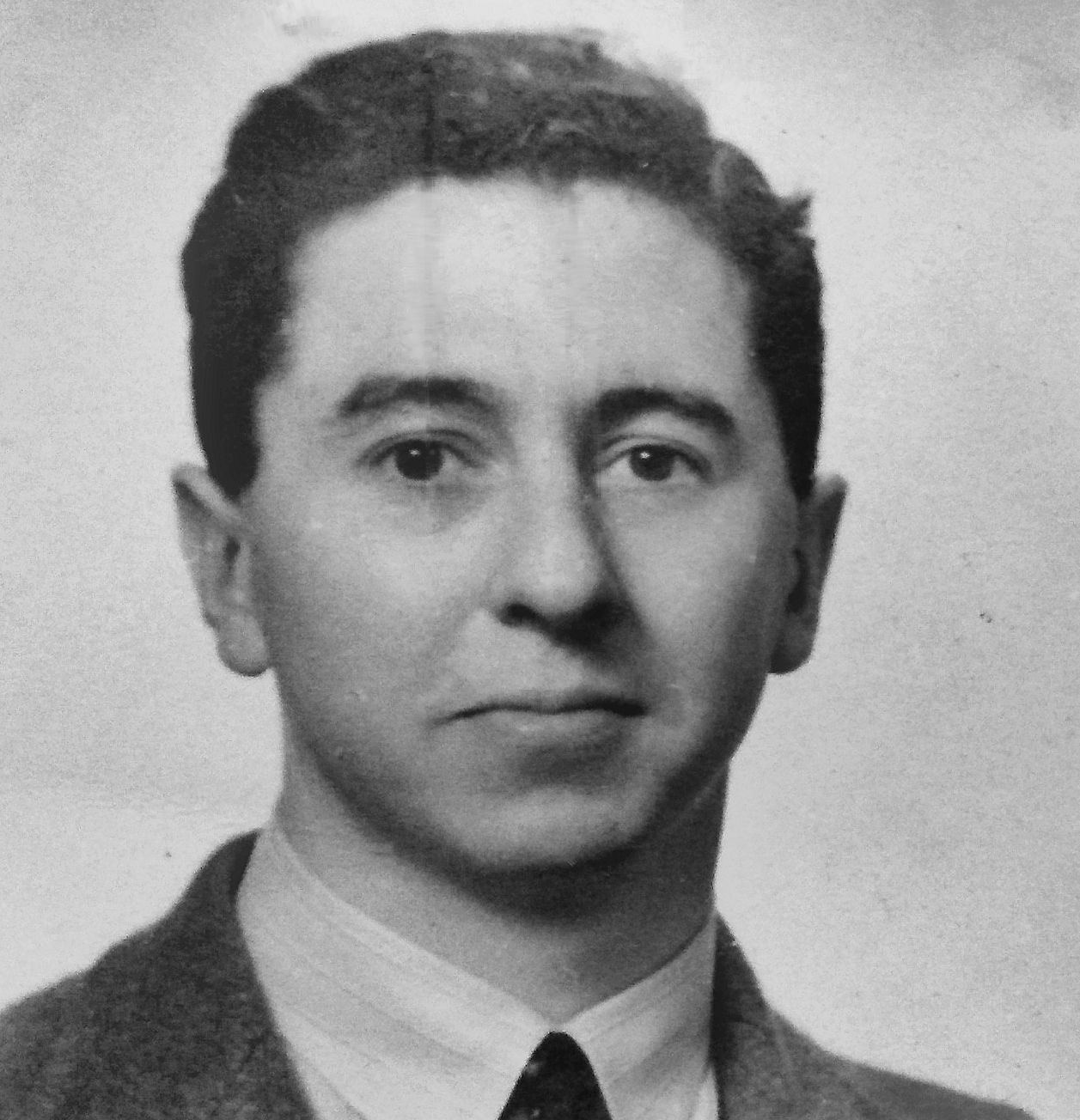 ATA
ATAEducated at North Staffordshire Technical College;
Bronze Medal in Pottery
Works Manager for Colclough China Ltd, Regent Works, Longton, Stoke-on-Trent
m. (1 child before 1941)
Address in 1941: 227 Stone Rd, Longton, Stoke-on-Trent
prev. a member of the Civil Air Guard
Missing index finger on right hand, and bad scar
prev. exp. 153 hrs
Postings: 2FPP, 3FPP, 6FPP, 12FPP
"A willing, keen and reliable pilot, a good officer with a keen sense of discipline", but was given a severe reprimand in Dec-43 for taxying a Beaufighter without sufficient care and colliding with a Blenheim. Both pilots were held equally to blame.
Filed a number of patents post-WWII, e.g. in 1948, "a chuck for holding articles of clay, glass, plastics or other materials, in manufacture or finishing operations", and 1952: "Apparatus for shaping clayware."
[Colclough China Ltd became part of the Royal Doulton Group in the early 1970's; production ceased in 1996.]
d. Nov 2003 - Stoke On Trent
-
Ellis, Harry Alfred
M.139 Flight Captain Harry Alfred Ellis 
b. 8 Dec 1908, Mitcham Surrey 29 Jul 1940 to Dec-45
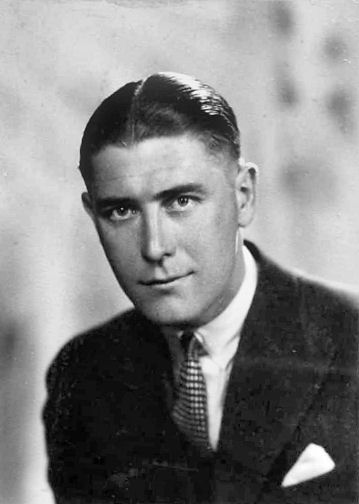 1934
1934Address in 1940: 214 Pullman Court, Streatham, S.W.2
prev exp. 300 hrs
A Commercial Traveller in 1934
Postings: 1FPP, 14FPP
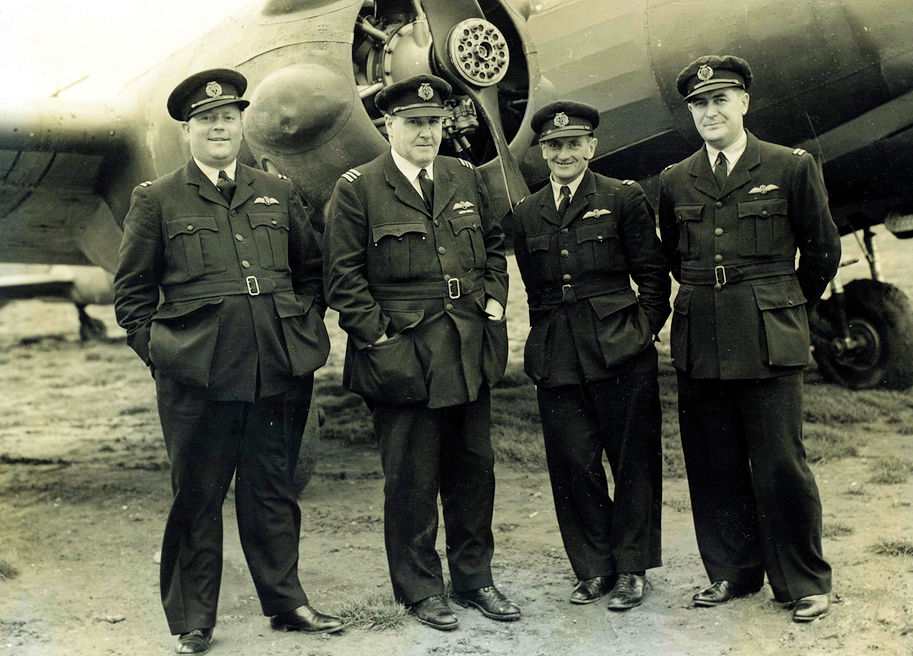
Early days at White Waltham, Anson taxi pilots - Ronnie Malcolm, Douglas Fairweather (M104), Jim Kempster and Harry Ellis (M139)
Brief Glory
" A first cass ferry pilot... albeit one who does not always take too kindly to regulations."
"He is still inclined to be somewhat controversial."
d. May 1989 - Slough
-
Eveleigh, Yvonne Margaret (W.156)
W.156 3rd Officer Mrs Yvonne Margaret 'Peggy' Eveleigh 
b. 18 Aug 1917, London 21 Feb-44 to Sep-45
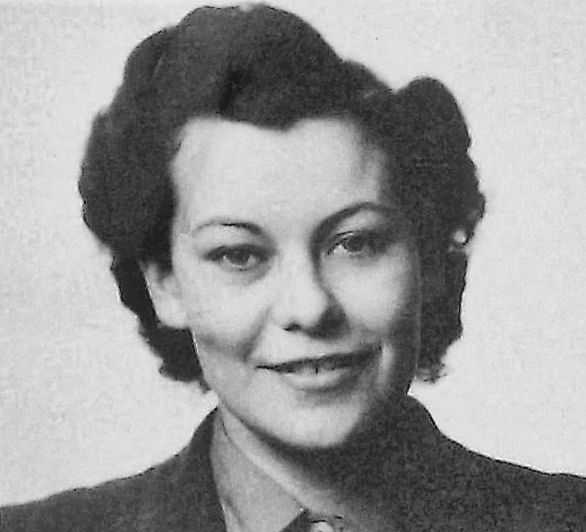 ATA
ATA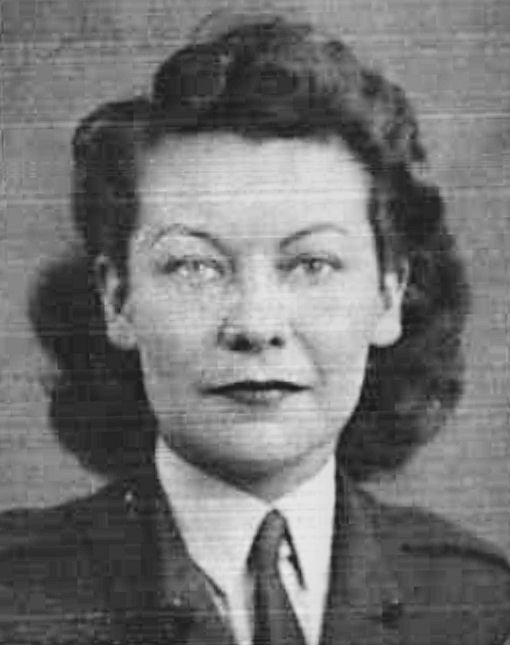 RAeC 1945
RAeC 1945née Lucas
Father: Lieut. Albert James Lucas, R.F.C., (killed whilst flying in France in May 1917), mother Violet Cordelia [Chauncy] (m. 1932 Douglas G Shrubshall)
m.1939 in Surrey, Derek Ernest Eveleigh, who d. 22 Apr 1940 in the crash of BOAC's Lockheed 14 G-AFKD at Binn Uird, near Loch Lomond, Dunbarton, en route from Perth to Heston
Postings: 5TFP, 2FPP
exp. in ATA: 178.35 hrs
3 accidents, one her fault:
- 14 Feb 1945, the starboard tyre of her Spitfire IX MA639 burst while taxying, and the aircraft swung off the perimeter track and nosed over
- 20 Aug 1945, a forced landing in Oxford II T1258 after engine vibration caused by a bent propeller tip
- 3 Sep 1945, she failed to control the landing swing of Spitfire III SP196, damaging the starboard wing tip
Gained her RAeC 'A' Certificate No 20527 as part of the ATA 'Wings' scheme on 31 Aug 1945
Address in 1945: King's Arms, Tedburn St Mary, nr Exeter, Devon
m. Oct 1946 in Aylesbury, Roger G Grace
m. Oct 1952 in Westminster, Maj. Charles E Kaiser
m. Edouard Stamfer
All three post-war marriages ended in divorce.
Wrote 'WAAF with Wings' in 1992:
"A very good book published in 1992 by Y M Lucas (Peggy) called ’WAAF with Wings’ tells the story of the ATA with contributions from the girls themselves. In it Peggy describes delivering a repaired Martinet to St Eval for target towing and collecting a damaged Spitfire from there to deliver to a Maintenance Unit.
Peggy Lucas continued flying and at age 84 qualified as a helicopter pilot!
 1993
1993Frankie Horsburgh, a Canadian, located 16 out of the 17 [ex-WAAF ATA pilots] for their first reunion."
- http://www.olivehouserock.co.uk/link/144/index_files/Page549.htm
d. 8 Jan 2008 - buried St Nicholas Church in Remenham, Berkshire.
She reverted to 'Eveleigh' as her surname:
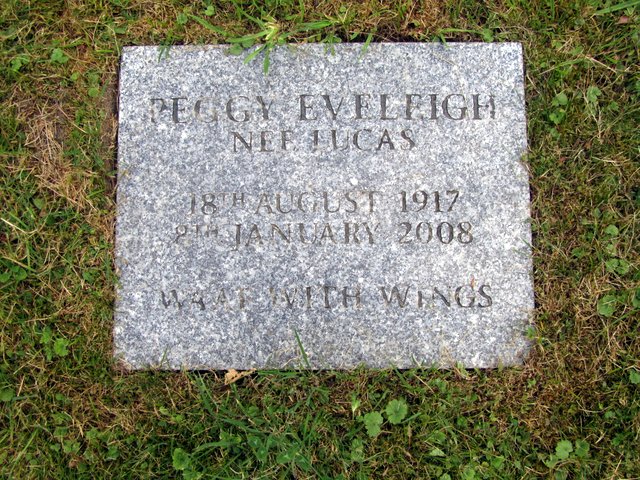
see http://www.oxfordhistory.org.uk/war/stfrideswide/lucas.html
-
Fairey, Richard
M.186 First Officer Richard 'Dick' Fairey 
b. 21 Nov 1916, Iver Bucks 26 Aug 1940 to Dec-41
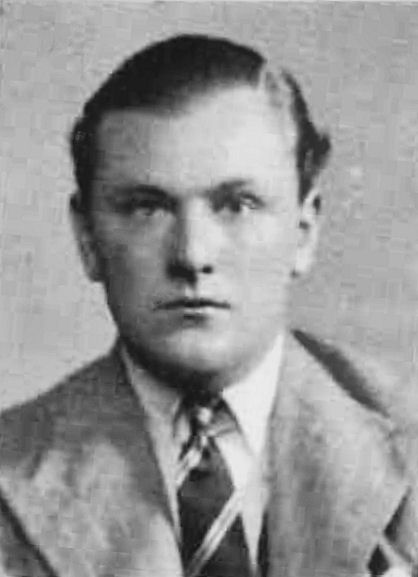 1935
1935Son of Sir Charles Richard Fairey MBE, the aircraft designer and industrialist. He joined his father's firm in the jig and tool office in 1936, then transferred to the design office.
Educated at Harrow and Cambridge
Address in 1940: Sutherland Grange, Oakley Green, Windsor
Special Characteristics: "High blood pressure, must not fly high"
A "very good pilot, good worker" but he suffered ill-health for most of 1941: 4 Jan to 11 Jun, ischio-rectal abcess; 22 Jun to 5 Jul, multiple minor injuries, and 18 Sep to 25 Nov, injury to back and knee.
He resigned from the ATA in December 1941.
Shortly afterwards, on the 24 Jan 1942, on his way to the USA to visit his father, his ship (the Norwegian vessel Ringstad) was torpedoed and he spent six days in a open boat. As a result of frostbite and exposure, both his legs were amputated below the knee.
"At 15.25 hours on 24 Jan 1942 the Ringstad (Master Jacob K. Knudstad), straggling from convoy ON-55 due to several days of stormy weather, was hit on the starboard side in the foreship by one torpedo from U-333 about 85 miles southeast of Cape Race. All on board abandoned ship in three lifeboats and were questioned by the U-boat that surfaced after the ship sank after 20 minutes by the bow. The Germans offered water and food to the survivors and told them the direction of the nearest land before leaving the area after wishing them good luck.
The lifeboats were separated in the stormy and cold weather. Two lifeboats containing 27 crew members and three passengers were never seen again. Only the motor boat of the master that was completely covered in ice was spotted after five days by an aircraft that escorted a convoy and sent USS Swanson (DD 443) to rescue the master and eleven other survivors in it. The exhausted men were landed at Reykjavik on 5 February."
[In case you ever look up the Times' obituary, you will find that they mistakenly thought that Dick was torpedoed in 1941 on his way to join the Atlantic Ferry Organisation. However, Dick, as his personnel file confirms, was ill for most of 1941, and was not seconded to Atfero. The Times reporter may have thought that Dick was on the SS Nerissa, which was indeed torpedoed in 1941, but she was bringing American ATA pilots to Britain - 11 of the 13 pilots on board were killed. Dick also said in April 1942 that he had been on a Norwegian ship which was torpedoed.]
After WWII Richard rejoined Fairey and became a Director and later Vice-Chairman. He also became "an outstanding private pilot", and flew for the company all over the world.
He was also a keen follower of powerboats; the 'Fairey Huntress' class of marine motor cruisers was his idea, apparently. He entered his Huntress in the 1960 Miami - Nassau race but this blew up and sank, the crew escaping unharmed. d. 27 Jul 1960 - Villa Benefiat, Cannes, "as a result of physical disabilities which followed injuries he received in the Second World War."
-
Fairman, Albert Edward
M.1084 3rd Officer
[prev. RAF Flying Officer, 146431]
Albert Edward "Roy" Fairman 
b. 9 Nov 1921, London 30 May 1944 to 15 Feb 1945
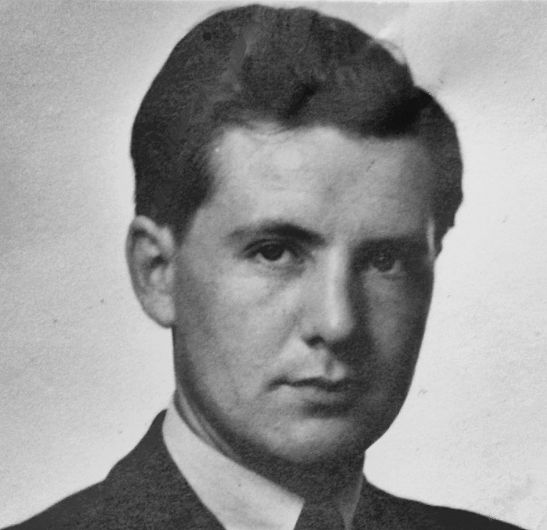 ATA
ATAFather: Albert Francis Bessemer Fairman, mother Lily Mildred [Ketley]
Ed. Sir Walter and St John's School, Battersea, London
m. Apr 1942 Grace [Varney]prev. RAF Flying Officer in Bomber Command from 21 May 1940 to 29 May 1944, based at Abingdon
Awarded the 1939-43 Star for at least 60 days of service in an operational unit, including at least one operational sortie
Injured by enemy action [flak injury to foot] and was released from the RAF on medical grounds.
prev. exp. 550 hrs on DH Moth, Proctor, Anson, Oxford, Hampden, Hereford, Manchester, Lancaster, Whitley
Address in 1944: 32 Middleton Sq, London EC1
Postings: 5TFPP, 6FPP, 14FPP
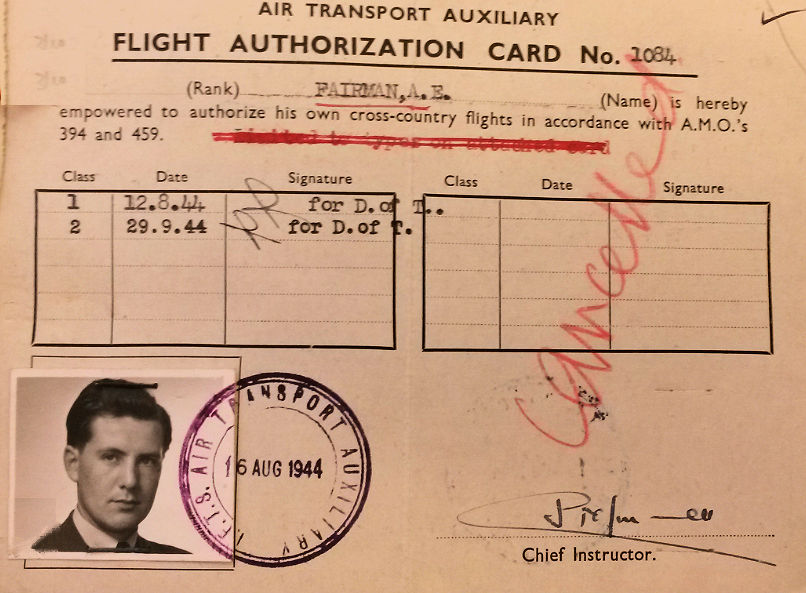 Albert's Flight Authorization card, 16 Aug 1944
Albert's Flight Authorization card, 16 Aug 1944"A pilot of average ability, but very overconfident, combined with a happy-go-lucky kind of temperament. Capable of carrying out some very useful work, but may require curbing as regards weather, and needs firm handling generally"
"It may be that in view of his past experience in the RAF he has disliked the idea of having to pass through Training Pool with some far less experienced, and those who were ab initio."
He was only cleared for Class I and II (single-engine) aircraft, but it was intended that he should later also deliver Class III and IV (twin-engine) aircraft.
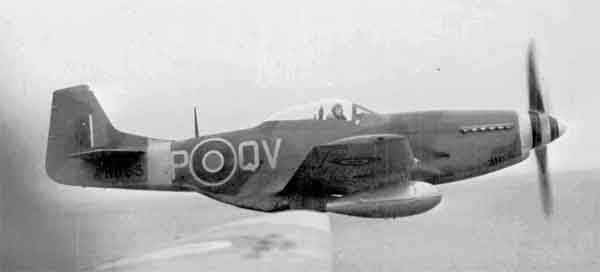
d. 15 Feb 1945 from injuries received in the crash of Mustang IV KH838 at Wrightington near Wigan, on a ferry flight from Lockheeds Renfrew to Rootes Meir.
"The aircraft was seen to complete a roll to the left, and commence a second roll. During the second roll the pilot was thrown out of the cockpit... After the crash the shoulder straps of the cockpit harness were found broken."
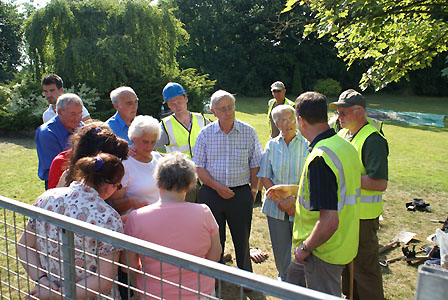 At the crash site in 2010, including Albert's two younger sisters
At the crash site in 2010, including Albert's two younger sisters See http://laituk.org/P-51KH838.htm, and
which describe the excavation of the crash site.
They speculate that "... the reported manoeuvres... have been identified by experienced pilots as being consistent with an incapacitated pilot unable to maintain control of an aircraft or perhaps trying to hold the aircraft steady with one hand whilst trying to open the canopy to bail out? "
Buried Greenwich Cemetery
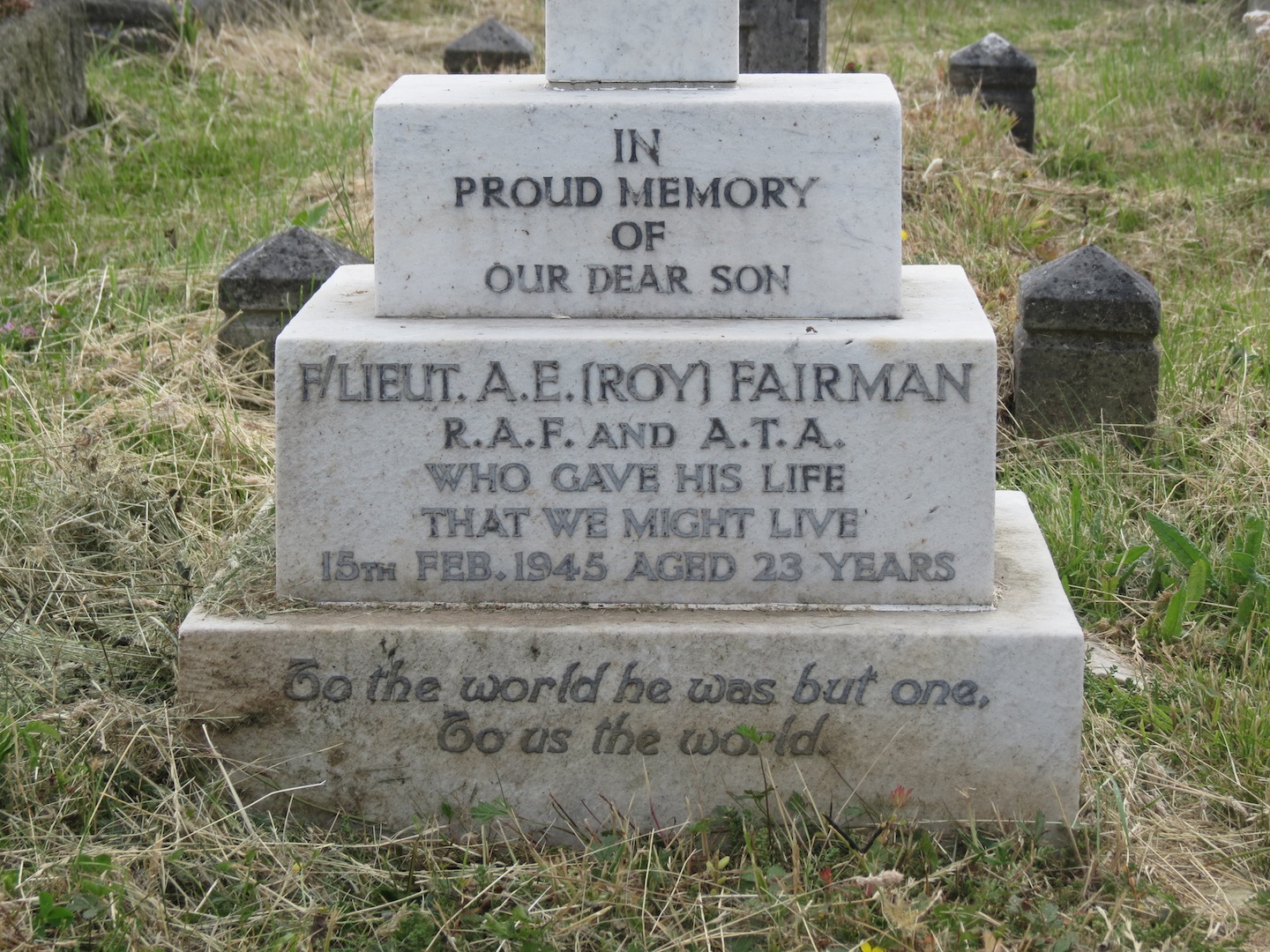 "F/Lieut" appears to be a mistake
"F/Lieut" appears to be a mistake
-
Fairweather, Margaret (W.7)
W.7 Flight Captain
Mrs Margaret 'Margie' Fairweather
née Runciman; Mrs King-Farlow

23 Sep 1901, Newcastle-on-Tyne 1 Jan-40 to Aug-44
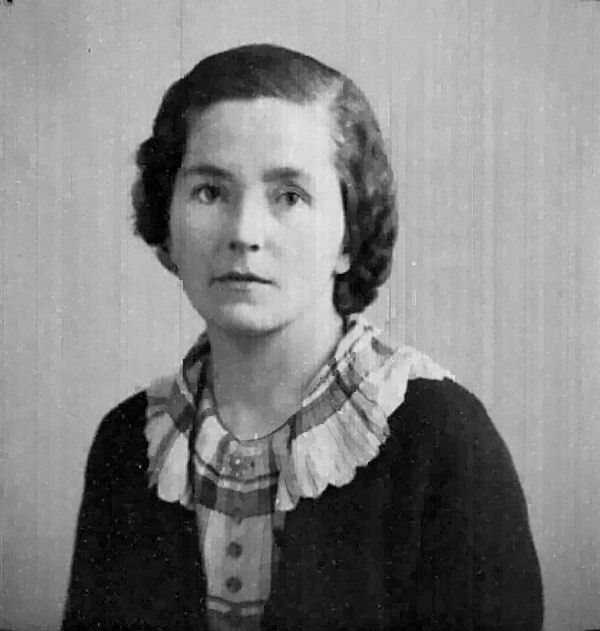 RAeC 1931
RAeC 19314-engine (Class 5) pilot
Mrs King-Farlow from 1925 to 1936;
Mrs Fairweather from 1938.
The eldest daughter of Lord Walter and Lady Hilda Runciman.
Her brother Walter (co-Director, with Connie Leathart (q.v.), of Cramlington Aircraft, First Director-General of BOAC, Commodore of the Royal Yacht Squadron, OBE, etc, etc) became the 2nd Viscount Runciman of Doxford, and her sister Katherine ('Kitty') was adjutant for the Women's Section of the ATA from March 1941.
I sometimes feel that Margie gets a bad press; she was, apparently, quiet and rather withdrawn, (nicknamed 'Mrs Cold Front') and, in photos, always seems to have that far-away look in her (green, btw) eyes. But, her ability, and her devotion to duty and to her friends, were never in doubt.
She got her RAeC certificate in 1937. In fact, she acquired her first aeroplane from her brother Walter; a 1931-reg D.H. Puss Moth G-ABLG, which he had flown in two King's Cup races.
She had married Roderick Nettleton King-Farlow in July 1925. Their daughter Ann was born in 1931, but they divorced in 1936, and she then married Douglas Keith Fairweather in March 1938. He was a businessman from Glasgow, and her complete opposite - outgoing, irreverent, and very eccentric.
Margie then sold her aeroplane, and she and Douglas re-registered his Puss Moth G-ABYP in their joint names. Later they also bought a Leopard Moth, G-ACXH.
She had a horrible experience in 1939 when her friend, Dr. Elizabeth Cook, was killed by walking into the propeller of the aeroplane Margaret was about to pilot; they were going to fly to Paris for a holiday, and the plane was standing with the engine ticking over.
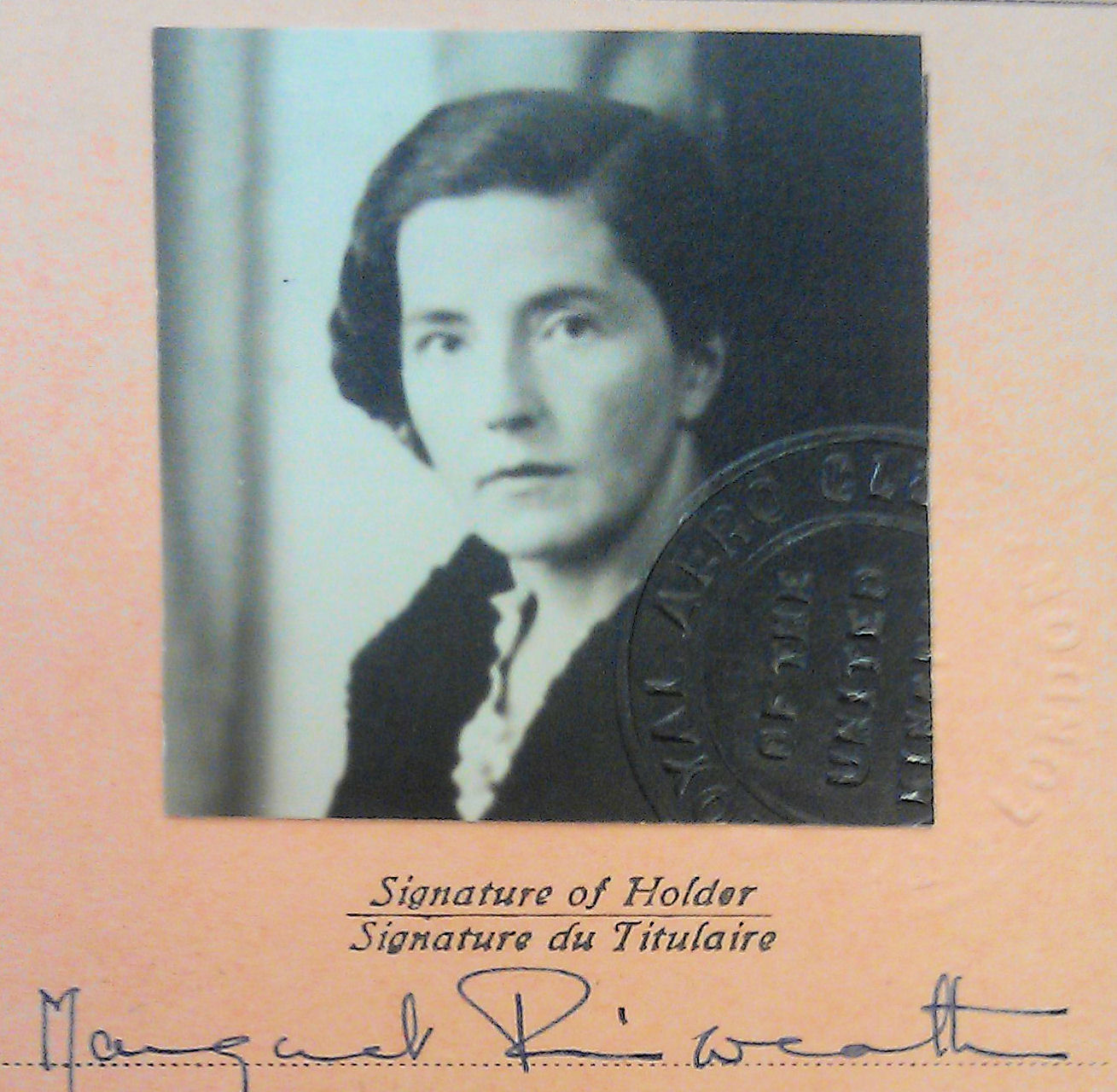 FAI 1939
FAI 1939So, prior to WWII she was one of the most experienced women pilots in the country, with 1,050 hours of civilian flying, and (from late 1937) was an instructor with the Scottish Flying Club. She had flown Miles Whitney Straights, D.H. Moths, Puss Moths, Tiger Moths, Fox Moths, Leopard Moths, Hornet Moths, Dart Kitten, Taylor Cub, Potez, and Percival Vega Gull, in Belgium, Holland, Germany, Sweden, Denmark, Hungary, Czechoslovakia, France Switzerland and Austria.
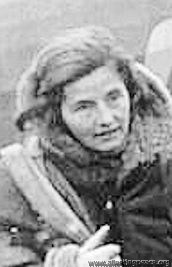
Not surprisingly then, she was one of the 'First Eight' Women ATA pilots at Hatfield, starting in January 1940. Her training went well: "The handling characteristics of the Service trainer were entirely novel to Mrs. Fairweather, but having once mastered the take-off, she had no further difficulty, and is now able to fly both Master and Oxford satisfactorily. Her cockpit drill is excellent'"
Douglas also joined the ATA as a pilot. He was devoted to Margie; as Lettice Curtis says in Forgotten Pilots: he was once heard to say, "I love Margie, better than any dog I ever had," and then more thoughtfully, "or even a pig or a cat."
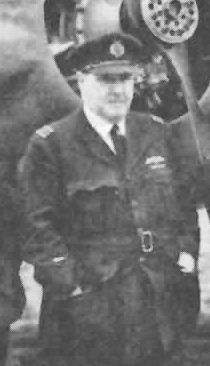 [For more about Douglas, I can recommend 'Brief Glory - the Story of the ATA']
[For more about Douglas, I can recommend 'Brief Glory - the Story of the ATA']On the 3rd March 1941 she was one of the four women especially praised by Pauline Gower: "The following pilots during the past year have been outstanding from the point of view of hard work and have set an example to others:- Mrs M Wilberforce [exceptional devotion to duty], Miss M Cunnison [great devotion to duty], Hon Mrs M Fairweather [has shown great devotion to duty, and worked hard and conscientiously as a taxi pilot], and Miss J Hughes [has shown devotion to duty]."
[Mona Friedlander, Rosemary Rees, Lois Butler, Gabrielle Patterson and Winifred Crossley also get a mention [they have 'worked hard and conscientiously'], and Pauline added that "had Miss Amy Johnson still been with us [she had died on the 5th January], her name would have been particularly mentioned".]
In May 1941 Margie requested extra leave:
"Dear Commander Whitehurst,
As you know I have a daughter of twelve years of age. She is at boarding school during the term time, but for half of the period of each holidays I am responsible for her care. With the assistance of my family I have managed up to now fairly well without interfering with my work, but I now, owing to reasons of health and occupation I can no longer count on this help and paid help is almost impossible to come by.
In these circumstances I am writing to enquire whether ATA would consider granting me an extra week's leave in the summer, and a fortnight's extra leave at both Xmas and Easter, it being understood that any leave so granted would be without pay."
The request was granted, and Margie and Douglas took Ann for a holiday in a small farmhouse in Western Scotland [where they acquired a baby goat, which Douglas later took with him on at least one ferry flight.]
She and Douglas were both posted to Prestwick (4b Ferry Pool, Northern Area) in November 1941.
On the 14th December, she wrote to Pauline Gower:
"Sunday,
Dear Pauline,
I was hampered in talking to you the other day by the crowd around the telephone, amongst which were persons about whom I wanted to speak.
I am not sure we can make good use of the lady in question at this moment. We need a second ground person in this office but he or she must, as well as doing adjutant duties, be a good shorthand typist. Unless we combine the jobs there isn't sufficient to do. The lady's counterpart is doing 'ops' just now with only moderate success. It would be a pity to get her up here if that falls through. She is too 'choosy' for our mixed bag of aeroplanes to come only as a pilot. I am sorry we raised her hopes so high. Perhaps in a week or two the matter might be reconsidered if you have no other plans in view for her.
I have at last caught a Wellington for myself. I flew it with great pleasure from Prestwick to Sherburne today and am now here on my way back with a Hurricane. I found it very like a big Anson, & I can see no reason why any of the normally hefty of us should find them too heavy. It was tough today & at slow speeds as when coming in to land you have to heave and push but forewarned there is no difficulty. I wonder who of the others have had one and what they think.
We have had a tragedy already in no. 4b FPP. A charming American called Wiley who was posted to us left Speke on Wednesday afternoon & has not been heard of since. It is strange (or perhaps just a matter of psychology) how it always seems to be the nice ones that go and the toughs who remain.
Living in the … hotel as we are doing amongst all the over-night ATA one gets a bit of a … about humanity. I was almost pleased to see Mary H[unter], & Veronica [Volkersz] yesterday by contrast! Douglas is in his element entertaining his visiting pilots; clearly our post war job must be public house proprietors with Douglas as 'mine host'.
Please make Kitty write to me again soon. I loved getting your letters. When are you coming to inspect me? I wish you would.
I would love to have a talk. Are you likely to be at W[hite] W[altham] without warning if I cadge an aeroplane to that point?
with love, Margie."
She was promoted to Flight Captain in February 1942, in charge of the Women's Flight at Prestwick. Her Commanding Officer said that she was a "very reliable and steady ferry pilot... she has been a very real help to me." Shortly after that, she had her spat with Irene Arckless (q.v.)
She also had an 'incident' on the 24th March 1943 - flying a Halifax (she was one of only 11 women cleared for 4-engine aircraft), the bolts securing an engine cowling broke away and fouled a propeller. Luckily, she was uninjured.
However, she was in big trouble in May 1943 - some Flight Captain or other (I can't make out the signature) wrote to Pauline:
"It is observed that F/Capt Mrs Fairweather is not complying with Standing Orders re. her hair. Also, this pilot still persists in wearing grey coloured stockings, whereas black is the order. Will you please be good enough to point out to this pilot that the Commanding Officer's Instructions in regard to 'Dress Regulations' must be complied with."
There is a scribbled note "Is anything ever done?", but, indeed, no sign of anything else happening...
And then, on the 14th September 1943, (so, when Margie was nearly 42), and rather out of the blue , came this:
"Flight Captain Mrs Fairweather is pregnant and I recommend that her contract is terminated with three months' pay in lieu of notice."
[The ATA policy was that women who became pregnant would have their contracts terminated, to give them 3 months salary. However, Pauline soon discovered that Margie was "not interested in the financial aspect, but would rather have her contract suspended" and added,"I think we might well meet her wishes in this case."]
So, her contract was suspended, and she duly returned back to work on the 15th June 1944. By then, sadly, Douglas was dead; he and ATA Nurse Kathleen Kershaw had crashed in the Irish Sea, on a mercy flight to Prestwick. Douglas and Margie's daughter Elizabeth was born a few days after his death.
And then Margie herself died in another crash soon after, on the 4th August 1944. It happened on a communications flight in Percival Proctor III LZ801; the engine 'faded out', she force-landed in a field near Wrexham, but hadn't seen a ditch at the end of it. The aircraft went nose first into the ditch.
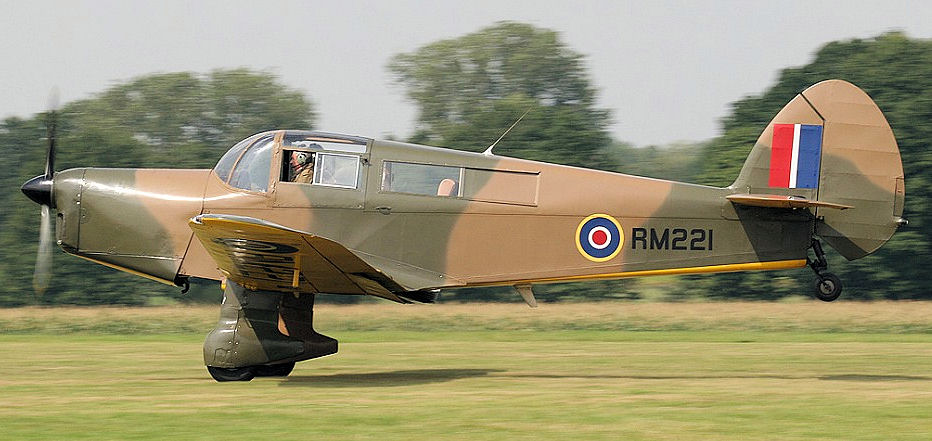
She, and her sister Kitty suffering from severe fractures to her right leg, were taken to Chester Royal Infirmary. Margie had serious head injuries; the third person on board, Lewis Kendrick, had minor abrasions. Margie died at 11 p.m., without regaining consciousness.
The technical investigation showed that the vent pipe of the port fuel tank was completely blocked by a film of dope, causing the tank to collapse. "In these circumstances the petrol gauge is likely to have indicated that the tank still contained fuel, when in fact it was dry."
Blame was heaped on everyone involved in ensuring the aircraft had been fit to fly: The Chief Engineer, and the Engineers in Charge at White Waltham, for failing to ensure that it had been serviced properly; the Officer-in-Charge Air Movements Bay; the Engineering Inspector, for failing to ensure that the fitters were competent, and the two fitters who failed to notice the blocked vent.
The report recommended that procedures were changed, and Proctors modified, to prevent it happening again.
The cause of death was 'extensive skull fracture'; I've not come across any reference to Margie's spectacles shattering and contributing to her death, although this has been suggested recently.
She is buried, together with Douglas, in Dunure Cemetery, South Ayrshire. Near Prestwick.
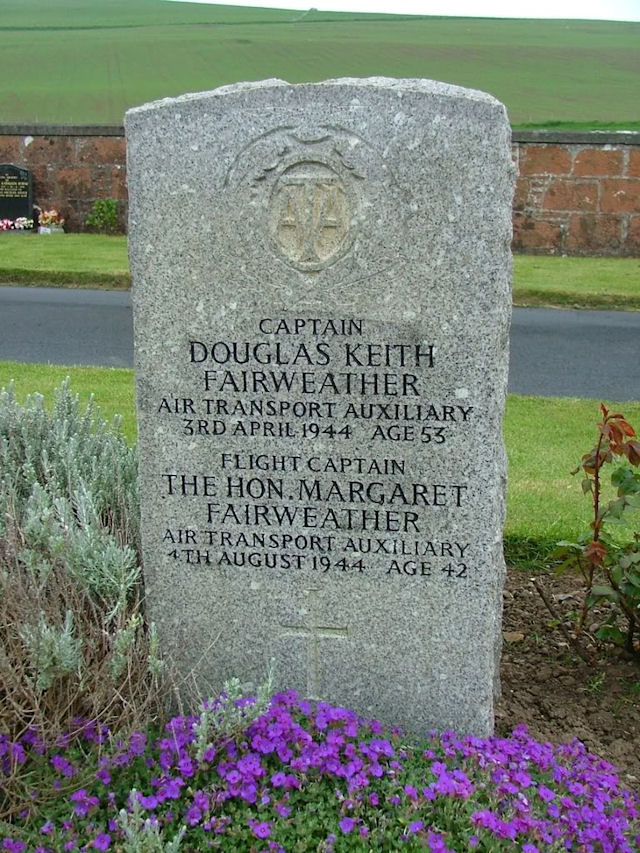 http://scottishwargraves.phpbbweb.com/
http://scottishwargraves.phpbbweb.com/
28th August 1944
Dear Mr d'Erlanger,
You will I hope forgive me for being slow to thank you for your kind letter & for what you say of Margaret's work, and I would like especially to thank you for all the kindness and consideration shown to my daughter Ruth & for all the arrangements made for the funeral which we could not have wished otherwise. I would be grateful if you could also pass on our thanks to whoever in the RAF was responsible for allowing her to lie in that little war cemetery beside Douglas. We very greatly valued the kindness that prompted that decision.
I am afraid it will be a long time before Kitty is up & about, but we are glad to have no real anxiety about her.
Hilda Runciman
Margie's loss was "a great blow to ATA, for she was not only one of our best women pilots, but in her modest and enthusiastic manner set an almost unequalled example of unselfish devotion to duty."
Oxford DNB : "Fairweather [née Runciman], Margaret (1901–1944), airwoman, was born at West Denton Hall, near Newcastle upon Tyne, on 23 September 1901, the second in a family of two sons and three daughters of Walter Runciman, first Viscount Runciman (1870–1949), and his wife, Hilda Stevenson (1869–1956) [see Runciman, Hilda]. Margie, as she was always known, was educated initially at home together with her younger brother Steven (later Sir Steven Runciman) by a governess who taught them Greek and Latin at an early age. She then attended a number of educational institutions including The Mount, a Quaker school in York, and Notting Hill high school, from where she went to Girton College, Cambridge. After a year she dropped out of Girton to study singing in Paris, though she never performed professionally. She married Roderick Sydney Nettleton King-Farlow (1900–1988), the son of Sir Sydney Charles Nettleton King-Farlow, at St Margaret's, Westminster, on 15 July 1925. A daughter was born in 1931. The marriage ended in divorce in 1936.
In the autumn of 1936 Margie learned to fly at Newcastle Aero Club and was issued with her aviator's certificate (licence no. 14687) by the Royal Aero Club on 13 January 1937. She was planning to fly solo to Australia but changed her mind when she met a fellow pilot, Douglas Keith Fairweather (1891–1944), son of Sir Walter Fairweather. They were married on 28 March 1938. In that year Lord Runciman was sent on the ill-fated mission to Prague to mediate between the German and Czech governments. Fairweather flew out herself to visit him. During a European tour that same year she and Douglas, under the guise of tourists, photographed unrecorded German airfields. She also sent back letters to her brother Steven which seemingly contained only trivial domestic details. On her return, however, she decoded these to recover intelligence data.
With the threat of war looming, in October 1938 the Civil Air Guard scheme was inaugurated to provide subsidized training of pilots through the civil flying clubs. As experienced pilots, Margie and her husband became instructors at Renfrew. Douglas Fairweather was one of the first to sign contracts with the British Overseas Airways Corporation (BOAC) for service with the AirTransportAuxiliary (ATA) in September 1939.
Many women, qualified flying instructors with considerable flying experience, volunteered to serve with the ATA. However, the pilots enrolled by BOAC under the ATA scheme were employed in RAF ferry pilots' pools and the RAF would not agree to the employment of women in their ferry pools. This problem was solved in December 1939 when Pauline Gower (who became commandant of the women's ATA) was informed that a small pool of eight women based at Hatfield could be formed to ferry Tiger Moths to stored reserves.
With over 1000 flying hours, Margaret Fairweather was one of that select band who signed contracts with the ATA on 1 January 1940. This departure from tradition caused a furore in a world in which professional women were still a novelty. Press and newsreel gave full publicity to the event and the so-called ‘ATA girls’ were under constant scrutiny. However, ferrying Tiger Moths from Hatfield to storage reserves, some as far away as Kinloss, Perth, and Lossiemouth, and returning by overnight train, often with no sleeper in midwinter, was not the glamorous occupation some imagined. In July 1941 ATA women pilots were cleared to fly operational aircraft and Margaret Fairweather was one of the first four chosen to do practice landings in a Hurricane. These four carried a burden of responsibility as the future of all women pilots in the ATA depended on them.
Meanwhile Douglas Fairweather was joint commanding officer at Prestwick. In 1942 he was posted to no. 1 ferry pool, White Waltham, to take charge of the air movements flight. Margie was then posted to join him. For the rest of her time there she was engaged in communication duties and it was on one such assignment that she met her death—the only one not to survive among the original eight who served from the very beginning.
Gradually more operational types of plane were being flown by women and the progression was made from single engine to twin aircraft to advanced twin, and eventually eleven women pilots were qualified to fly four-engined aircraft. Fairweather was one of the eleven. She was considered by her fellow pilots to be one of the most intelligent and able, though rather quiet and self-effacing. In fact, according to her daughter, her nickname was Mrs Cold Front.
On 3 April 1944 Douglas Fairweather volunteered to go to Prestwick to collect an ambulance case requiring special treatment. In appalling weather, somewhere over the Irish Sea, the Anson came down and both he and the nurse travelling with him were lost. Margie gave birth to their daughter Elizabeth a few days later. Margie returned to flying only to be killed herself four months later. She was piloting a Proctor to Scotland on 4 August 1944 with two passengers on board when the engine failed near Malpas, Cheshire. All three were taken to Chester Royal Infirmary where Fairweather died soon afterwards. Her passengers were her sister, the Hon. Kitty Farrer, adjutant of the ATA, and Louis Kendrick of the Ministry of Aircraft Production. They recovered, escaping with injuries. Douglas Fairweather's body was washed up on the Ayrshire coast. Margaret Fairweather and he were both buried in the small churchyard of Dunure, Ayrshire."
-
Falkiner, Lucy Agnes Vera (W.38)
W.38 Flight Captain Hon. Mrs Lucy Agnes Vera Falkiner

b. 1 Jan 1905, Stanford 1 Apr 1941 to 31 Dec 1945
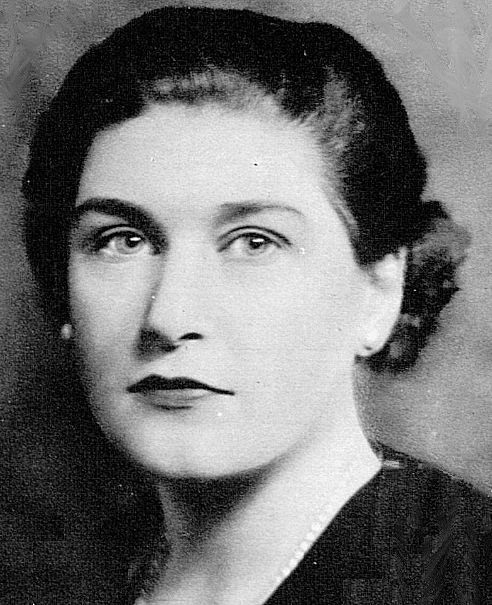 1935
1935(by Bassano)
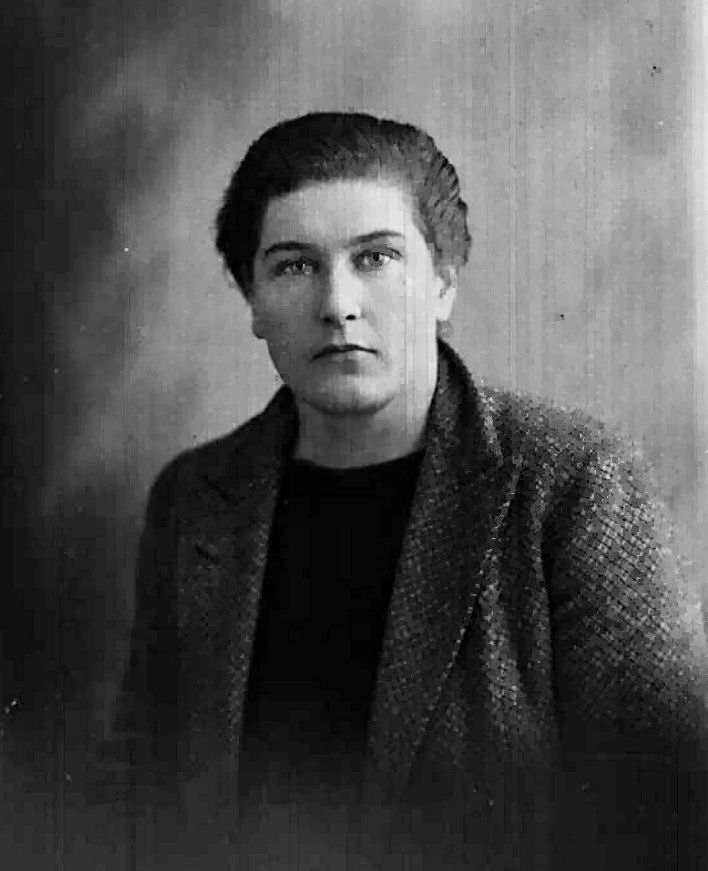 RAeC 1938
RAeC 1938née Verney Cave
Father: Adrian Verney Verney-Cave, Lord Braye, Mother: Ethel Mary [Bouverie-Pusey], of Stanford Hall, Swinford, Rugby
Ed. Convent, St Leonards on Sea
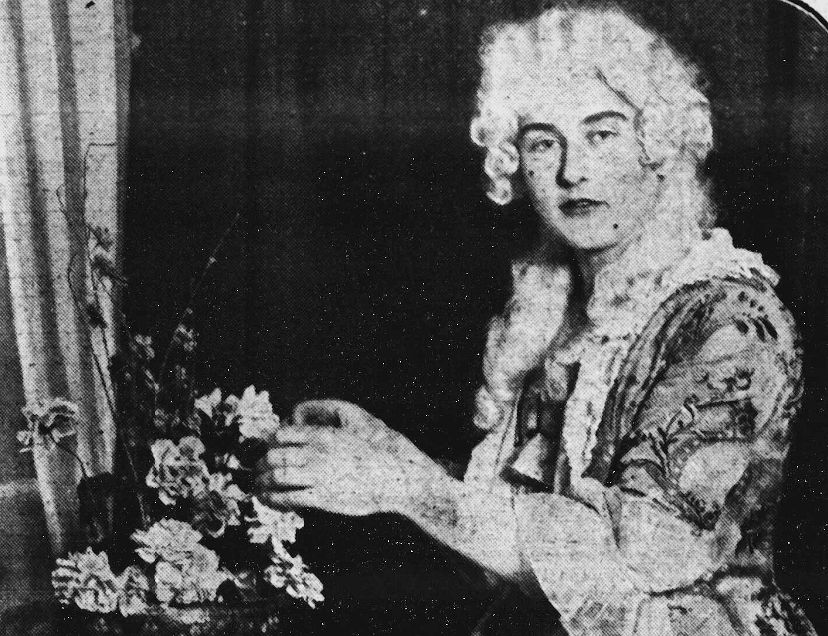 1929
1929"The Hon Lucy Verney Cave as Miss Neville in Goldsmith's comedy 'She Stoops to Conquer' performed by Girl Guides in the Church Hall in Lutterworth. They gave a very entertaining performance of thes delightful old play"
 with her brother, the Hon. Thomas Adrian, at the 'Lincoln Stuff Ball' in 1930
with her brother, the Hon. Thomas Adrian, at the 'Lincoln Stuff Ball' in 1930[one of many many balls, dances, society weddings, etc, etc that she attended]
m. 1935 in Bosworth, Lucien Leslie Falkiner "of the 43rd Light Infantry... both families are well-known in the Midlands and they are slightly related"
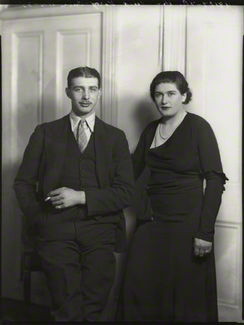 Ancestry
AncestryCapt. Falkiner d. 30 May 1940 in France
prev: WAAF from 23 Nov 1940; Assistant Section Officer, based at Wittering, Northants
prev exp: 14 hrs on Avro Cadet, Tiger Moth, Hornet Moth
Postings: 5FPP, 12FPP, 9FPP, 1FPP
Off sick from 6 Oct 1942 to 30 Mar 1943 with 'nervous overstrain'
7 accidents, 2 her fault:
- 29 Mar 1942, flying Master I N7552, she found it difficult to select 'Flaps Up' and accidentally released the hood
- 14 Apr 1942, she couldn't get the flaps or undercarriage to lock down in a Hurricane
- 7 Jul 1942, the propeller of her Master I N7482 was discovered to be bent after she parked it, cause unknown
- 4 Jul 1943, she landed Master II EM329 with complete engine failure, due to the servicing cock under the port fuel tank being turned off
- 14 Jul 1943, she failed to control the landing swing of Hudson III FH373 and damaged the port wing
- 10 Nov 1943, the hood blew off her Spitfire VIII JG379 on take-off when she tried to close it, damaging the tailplane
- 15 Jun 1945, forced landing in Mosquito XXX MV527 after a serious oil leak in the port engine
"A good, very steady and extremely careful pilot, who has an excellent influence on the junior pilots"
d. Mar 1980 - Cirencester
-
Farnell, Diane Elaine (W.19)
W.19 2nd Officer Mrs Diane Elaine Farnell

b. 27 Mar 1899, Hampstead, London 16 Sep-40 to 25 Mar 1942
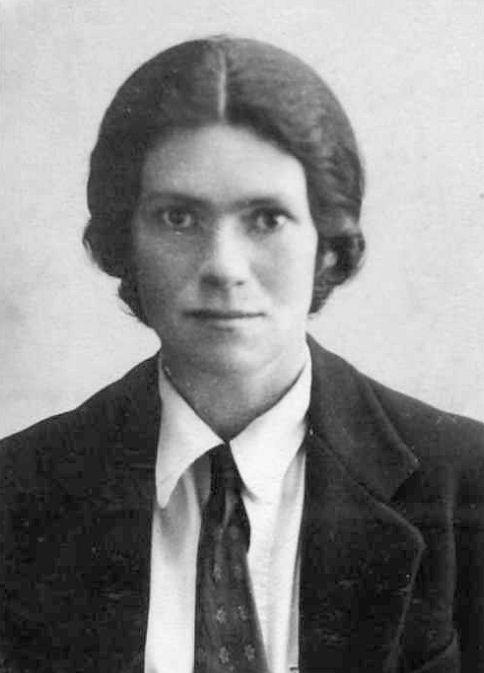 RAeC 1935
RAeC 1935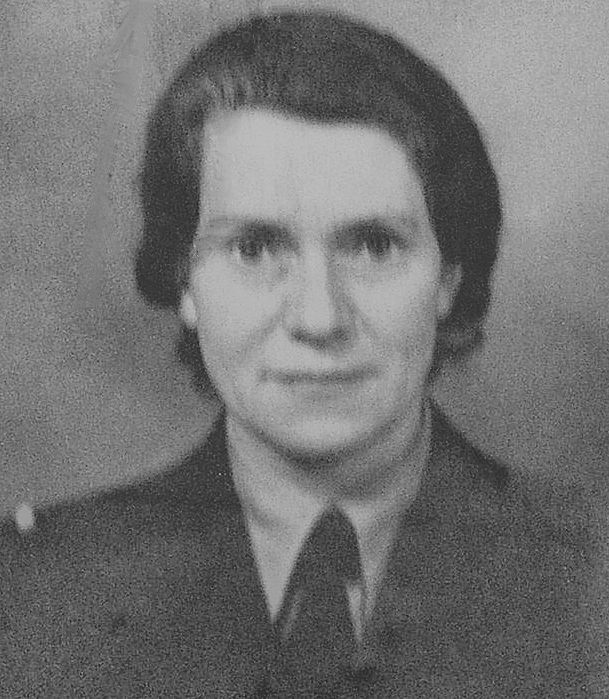 ATA
ATAnée Schlesinger
Father: Cesar Schlesinger, from "a region of Germany which is now part of Poland"
Ed. Roedean
changed name by deed poll (to name of step-father George Herbert, who brought her up from 1904) New
m. 1922 in Chelsea, Ronald H Boswell, a Publisher (Messrs John Lane, Bodley Head)
She and Ronald travelled to Argentina together in 1927, and to South Africa the following year.
She listed her profession as "Author"; she had published books called 'Posterity - A Novel' in 1926, and 'Bull among China' in 1928.
m. 1929 in Paddington, Robin George Westbury Farnell (of Farnell Carbons Ltd, Plumstead, London SE. The son of the Vice-Chancellor of Oxford. His first wife Dorothy [Coode] d. 1926)
3 children (David (Boswell) b. 1923, Martin (Boswell) b. 1926, Michael (Farnell) b. 1928)
Address in 1935-1940: Idleigh Court, Meopham, Kent
In 1940 she said she lost contact with her father "about 15 years ago - now dead" [Cesar "spent the last 20 years of his life equally shared 6 months at a time between South Africa and the UK"]
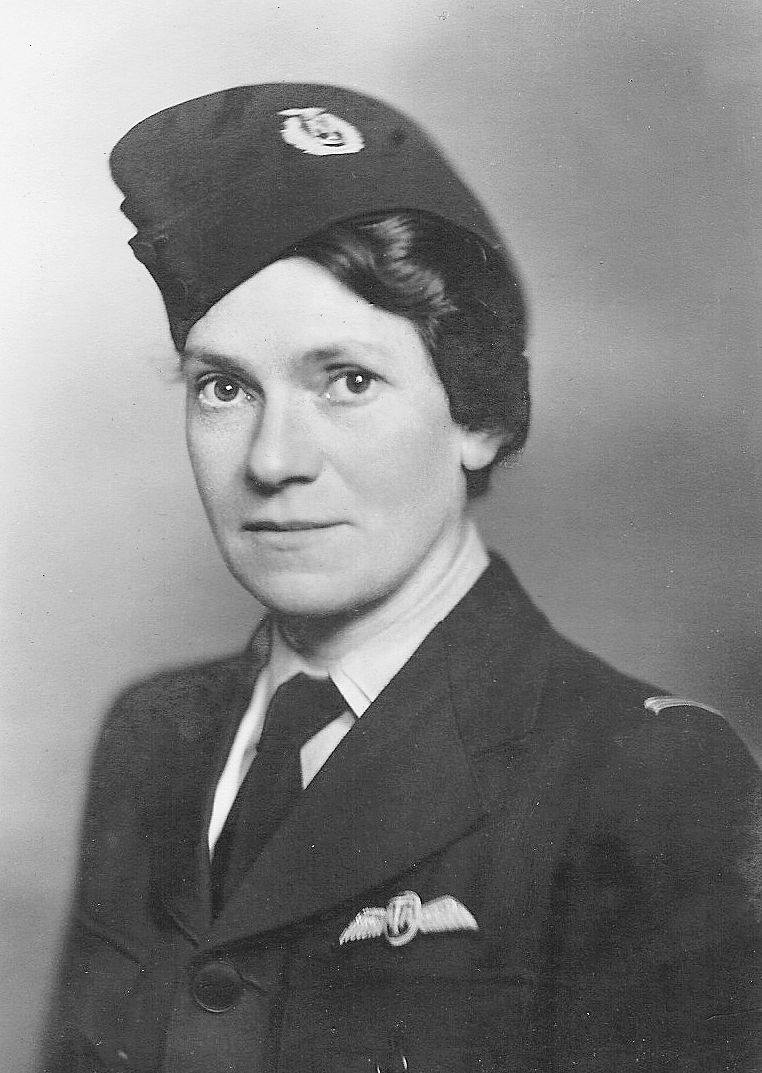
3 accidents, 2 her fault:
- 22 Feb 1941, when she misjudged an approach in her Puss Moth;
- 11 Dec 1941, her Wicko nosed over after misuse of brakes while landing
- 22 Feb 1942, the engine of her Magister backfired when the airscrew was being swung.
[Contract Terminated by ATA]
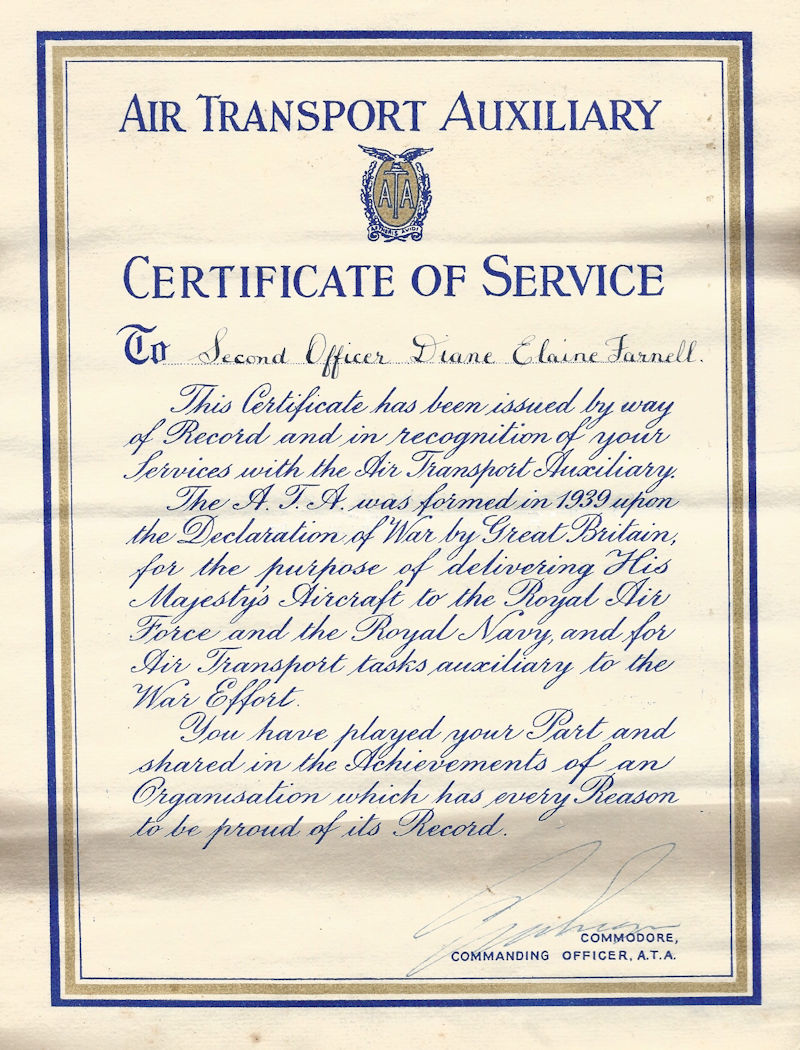 Images via Nicholas Farnell
Images via Nicholas Farnell
d. 14 Apr 1995 - Sedbury, Tidenham, Glos
-
Farquhar, Marjorie June (W.159)
W.159 3rd Officer Miss Marjorie 'June' Farquhar 
b. 28 Jul 1921, London 21 Feb-44 to Sep-45
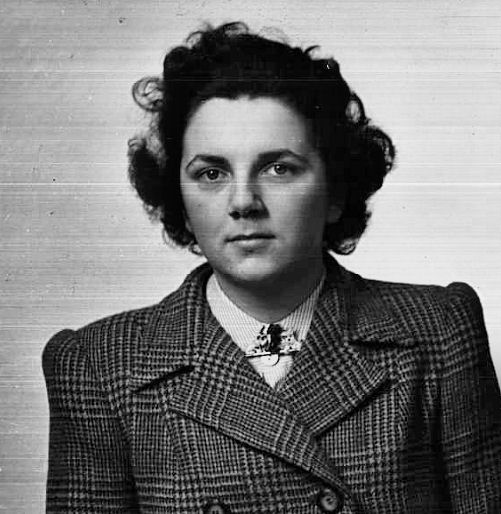 RAeC 1945
RAeC 1945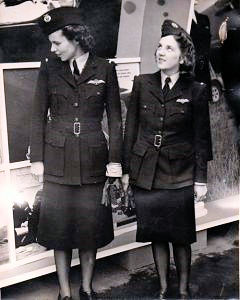 (r) with Edith Beaumont
(r) with Edith BeaumontRather: Capt. Arthur Farquhar, of Town Farm, Aldbury, nr Tring, Herts
Ed. "Private and Finishing Schools", Francis Holland (London) and Chateau Mont Choisi, Lausanne
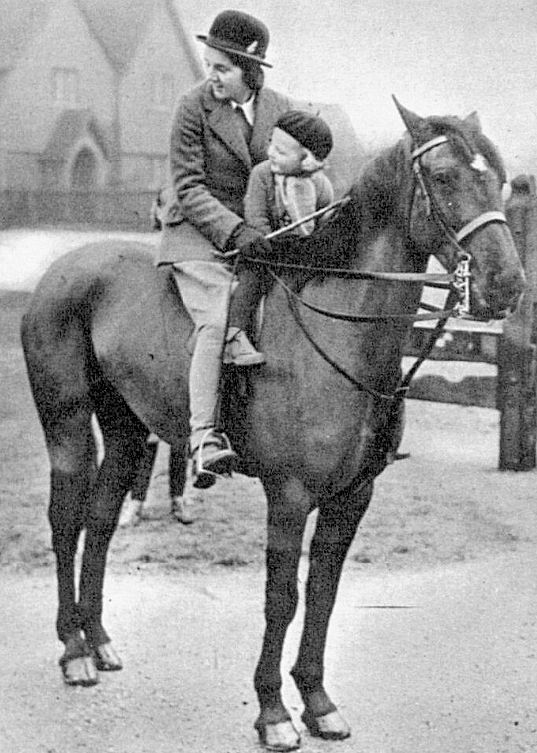 With the Hertfordshire Hunt in 1940
With the Hertfordshire Hunt in 1940prev: VAD,; from Oct 1941 WAAF
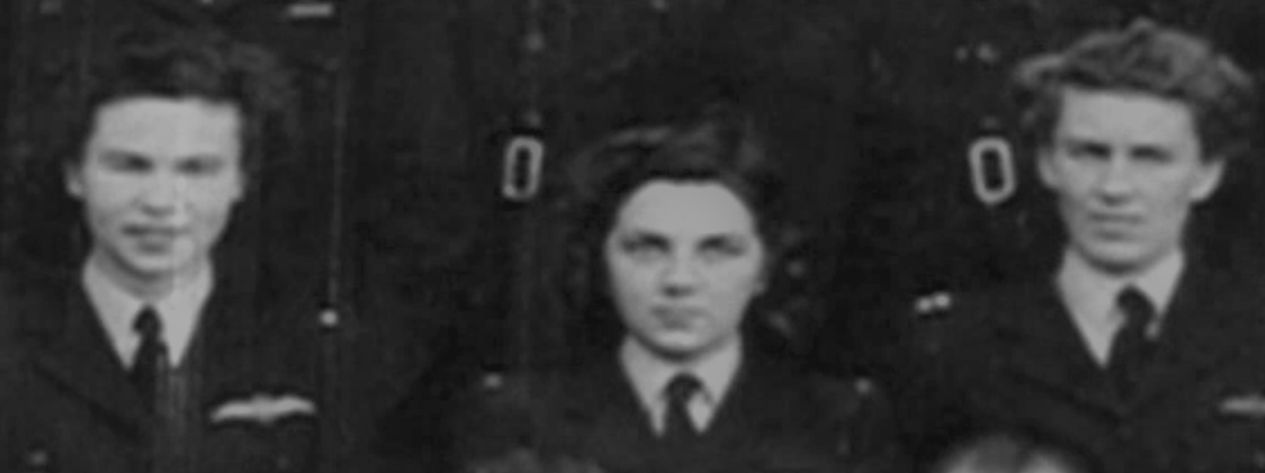
(c) with Edith Beaumont and Lettice Curtis
One accident:
- 26 Aug 1944, she was commended for a forced landing in Magister L8054 after engine failure
Gained her RAeC 'A' Certificate No 20491 as part of the ATA 'Wings' scheme on 3 Aug 1945
Address in 1945: 49 Milverton Rd, London NW1
Mrs Cole from 1946, as reported by the Bucks Herald on 14 June;
"MARRIAGE OF MAJOR C. B. COLE AND MISS M. J. FARQUHAR
The wedding took place between Major Charles Brian Cole and Miss Marjorie June Farquhar at the Church of St. John the Baptist, Aldbury, on Friday.
The bride, younger daughter of Captain and Mrs Farquhar, of Town Farm, Aldbury, was given away by her father. The reception was held at “Hawkwell”, a Tring residence owned by the bride’s parents, and which is at present largely occupied by farm workers of the H.W.A.C. About 275 guests were present, and refreshments were served under a marquee, set up on the lawns of the house, the sunshine on the day making possible the use of the lovely garden. After the cake was cut, the health of the bride and groom was proposed by Mr. E. J. Gilbert, an old friend of the family. The best man, Capt. Michael Charlesworth, R.A., answered the bridegroom’s toast on behalf of the bridesmaids.
Major and Mrs. Brian Cole later left by car for Marlow, where they spent the week end at the hotel where they first privately celebrated their engagement, five-and-a-half years ago.
On returning from their honeymoon, they will live in London, at least until the bridegroom leaves the War Office, where he is at present employed.
During the war the bride was in the W.A.A.F., doing radar work, but, later, became one of the twelve out of five thousand successful volunteer applicants for A.T.A. [I wonder where they got that from?]
As a ferry pilot she flew all types of fighter and torpedo planes all over the British Isles. Her father and mother, both Canadians, liked and stayed in England after the Great War, in which Capt. Farquhar served in the R.F.C. They first came to Ivinghoe 18 years ago for weekend riding, and it was then that Capt. Farquhar became known as the 'fairy godfather' for the pennies he distributed to the children who presented themselves with clean faces. He came to live in Aldbury about 10 years ago.
The bridegroom, third son of the late Mr. Charles Phillips Cole and Mrs. Cole, of Tring, was studying architecture with his father at the Berkhamsted office of Messrs, W. Brown and Co. when war broke out. He was then embodied with the Hertfordshire Regiment, and in 1941 he went to India, where, after attending Staff College, he served on the staff of an Indian Beach Group. He was mentioned in despatches, and at the cessation of hostilities with Japan was a Lt.-Col. on the Q. Staff of the 14th Army.
It will be remembered that in April, 1945, the elder sister of the bride was married at Tring to the oldest brother of the bridegroom, Mr. Richard Cole."
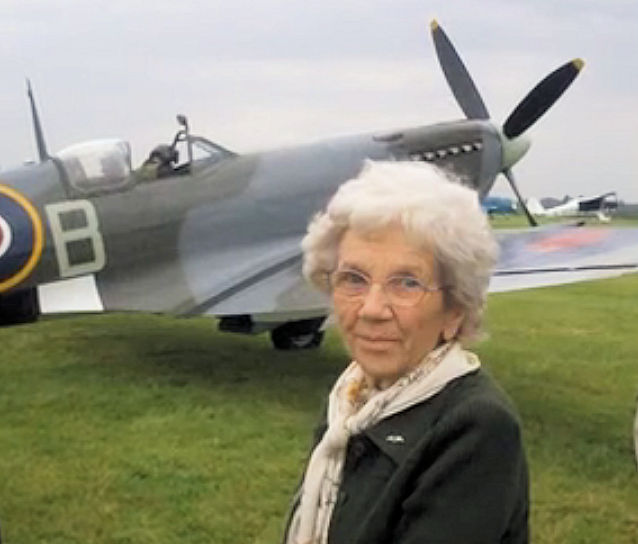
At an ATA Reunion c.2011
d. 13 Sep 2017
Her son kindly tells me that "Whilst serving in the WAAF she was engaged then on secret work with radar, directing allied aircraft to targets deep in Germany. She always chuckled about leaving the WAAF to join the ATA. Apparently the only reason to be allowed to opt out was due to pregnancy, but my mother managed to wangle it (without pregnancy!) to join the ATA. I think her father's contacts helped pull strings, as he had been a Royal Naval Air Service Captain in the Great War.
I have been looking at her Pilot Log Book, and give a summary of her flying service below. For the record it was signed off by EP Lane, Flt?Captain and Adjutant of No 1 Ferry Pool ATA.
Summary of Aircraft Flown between 28.3.44 to 21.9.45
Total hours 343.55
Aircraft
Dual
Pilot
Magister
32.20
72.05
Tiger Moth
1.40
25.00
Proctor
26.20
29.40
Harvard
11.15
18.55
Fairchild
4.50
75.45
Spitfire
14.35
Swordfish
5.30
Firefly
8.05
Martinet
2.45
Master
1.10
Seafire
.55
Hurricane
.30
Barracuda
3.00
Tempest
.55
Auster
9.40
-
Faunthorpe, Diana (W.157)
W.157 3rd Officer Diana Faunthorpe 
b. 2 Mar 1920, Beaminster, Dorset 21 Feb-44 to Sep-45
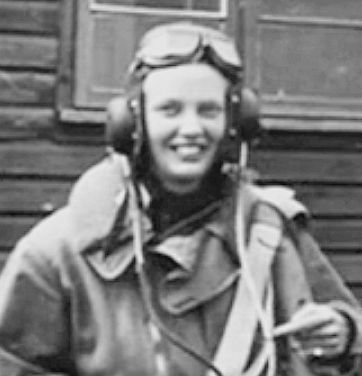 in 1944
in 1944Mother: Alice Overton [Wills], Father Bertram Platt Faunthorp (d. 1949)
Ed,. Prior's Field School, Guildford; in 1935 she was a member of the choir, the lacrosse team ("Faunthorpe is a useful member of the team as she can play defence or attack, but must try to gain more speed") and the tennis team, and competed in the high jump and the hurdle race.
Address in 1938: Greystones, Enton Green, Godalming, Surrey
Sailed, with her mother, to Montevideo, Uruguay in Aug-Dec 1938
prev. a WAAF plotter, RAF Fighter Command
"Of the fifteen different aircraft types she ferried for the ATA (the Spitfire was her favourite) she received instruction on only four." The Times, 2010
Address in 1947: Bramshott Cottage, Wilmer Lane, Liphook, Surrey
Sailed to Kenya in September 1947, intending to settle there and giving her profession as a 'Child's Nurse'.
She then met and married Henry James Hamilton 'Jim' Home, a psychoanalyst based in the Sudan, and they returned to the UK together in 1950. (Marriage dissolved), 3 children [1 son, Jennifer, and Jessica].
Retired to Totners, Devon where she "painted and learnt glass engraving".
d. 27 Mar 2010 (age 90)
-
Fenwick, Joyce Ann (W.152)
W.152 3rd Officer Joyce Ann Fenwick 
b. 3 Mar 1918, Southampton 21 Feb 1944 to Apr 1945
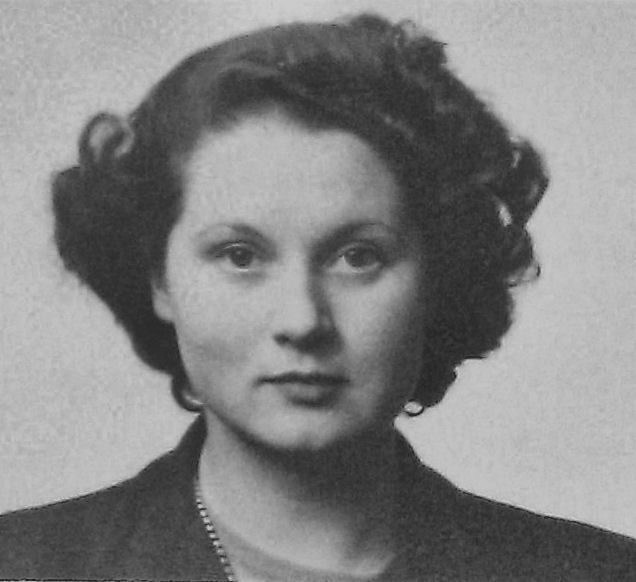 ATA
ATA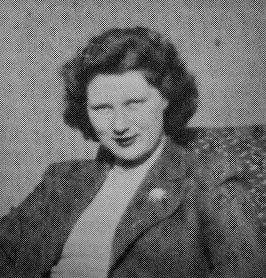 WwW
WwWMother: [Donald], from Edinburgh
Prev. WAAF from Jun 1942, stationed at RAF Ailton
Ab initio pilot
Postings: 7FPP
m. Sep 1944 John de Winton 'Johnnie' Tharp, also of the ATA.
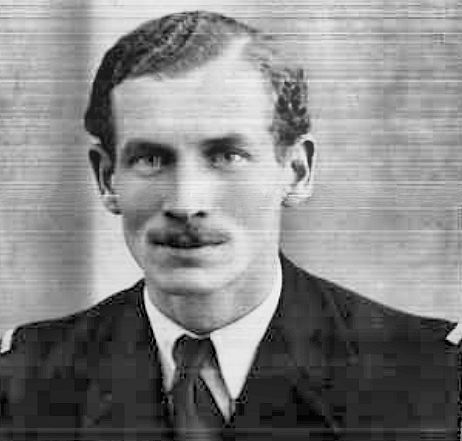
"Flying Romance
There was a wedding in Old Bosham Church on Tuesday, which was the culmination of a war time flying romance, when Third Officer John Tharp, of the A.T.A., married Cadet Joyce Fenwick, also of the A.T.A. They are both pilots and ferry aircraft.
John Tharp is the second son of Mr. Charles Tharp, the well-known portrait painter, who has made his home in Old Bosham since the war, and whose beautiful picutres, portraits and landscapes are hanging in the Anchor Inn. Charles Tharp was at The Slade School of Art with Sir William Orpen and Augustus John, and has had many pictures hung in the Royal Academy.
John Tharp was in the First Parachute Battalion formed in the early days of the war, but injured his back doing a jump, and was invalided out. Later he joined the A.T.A.
The bride was given away by Third Officer John Gilbert, A.T.A. pilot, and her sister Marjorie Fenwick, was bridesmaid. The best man was Hugh Stewart, B.B.C. producer. The Rev. A. L. Chatficld officiated. Mrs. Turvey. the bridegroom’s sister, made the wedding cake, and decorated the church with the help of Third Officer (Mrs.) Bannister, another A.T.A. pilot. A delicious tea for 30 people was provided by Mrs. Leather at The Grange. Mr. Graham Tharp, who is a film producer for M.o.I., did a lot of work as M.C., and Mrs. Diana Britton did “billeting officer,” finding bed and accommodation for numerous guests, not an easy thing to do these days. After spending a night in Bosham, the happy couple left for the Scilly Isles to spend their honeymoon. " - Chichester Observer - Saturday 16 September 1944
2 accidents, one her fault:
- 2 Dec 1944, a heavy landing in Spitfire V X4280, breaking the port undercarriage and wing
- 24 Feb 1945, her Argus I EV803 was hit whilst taxying, by Ida van Zenten in Argus FK337
"She left ATA in April 1945, owing to a rather unexpected pregnancy that was only discovered when she went to the sick bay complaining of nausea" - WAAF with Wings
They moved to Kenya, but John appears to have died in an air accident in Tanganyika, 20 Jul 1951 - see Accident Avro Anson Mk I VP-KHT, 20 Jul 1951 (aviation-safety.net)
Joyce and her daughter Gilian Carol, aged 8, sailed from Mozambique back to the UK in September 1954 to visit her mother in Edinburgh, then returned to Kenya, where they lived until they returned to the UK in 1962 before going to Fiji.
m. c.1956 Maj. Kenneth Spicer Few (a lawyer who had been a PoW of the Japanese after the fall of Singapore, from Feb 1942 to 2 Sep 1945) (d. 1975)
They, together with daughter Sara (b. 21 Jun 1957), sailed to the UK from Kenya in Feb 1959, and back in Jun 1959, for four months. He is listed as a "Resident Magistrate"
d. 20 Dec 1973 - Cambridge
-
Ffrench, Patrick
M.630 First Officer Patrick Ffrench 
b. 2 Mar 1907, London 6 Aug 1941 to 30 Nov 1945
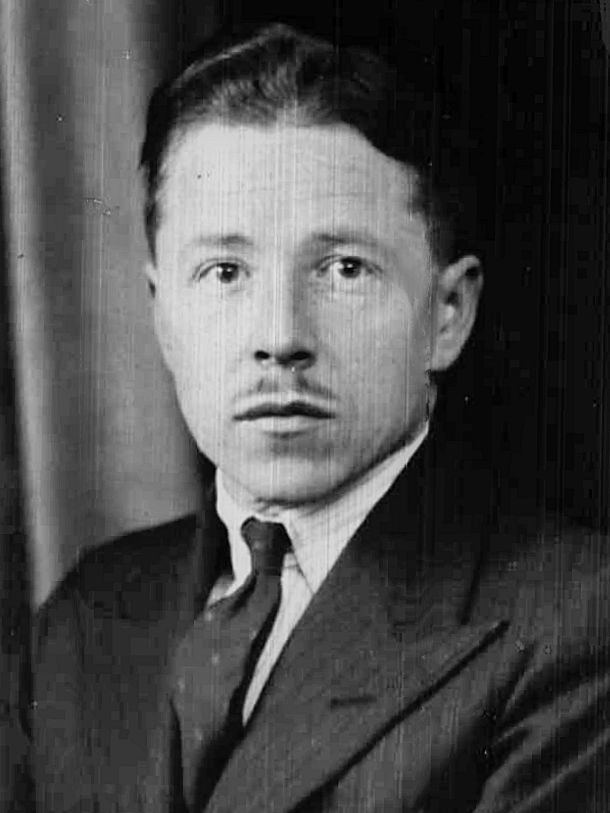 1938
1938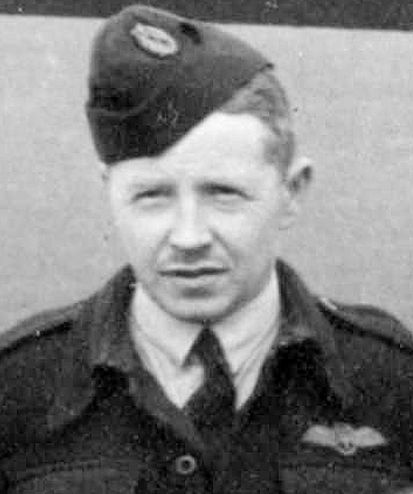 ATAM
ATAMFather Nicholas George Ffrench
Ed. Surbiton Grammar School. Cert. AIB (Banking)
m. 1930 Esther [Jones], 1 son John b. 1935
prev. a Bank Cashier, then Home Guard private Jul-40 to Aug-41
Address in 1941: "Chelsey", Weston Green Rd, Thames Ditton
Postings: 5FPP, 16FPP, RNAS Arbroath (Jun-Jul 1943), 1FPP, 9FPP, 2FPP, 7FPP, 3FPP
He had a spectacular accident on 31 May 1943; his Hudson III "swung first to port and violently to starboard during take-off and just after leaving ground, port wing dropped. The aircraft cartwheeled and was destroyed." He was held to blame but, luckily, uninjured.
"A well-behaved, smart and conscientious officer and a safe, average pilot. Had very little experience prior to joining ATA and is rather retiring and a trifle under-confident."
"A keen and hard-working pilot. He has made good progress throughout"
d. Apr 2003 - Surrey
-
Fields, Herbert Roy
M.--- First Officer Herbert Roy Fields 
b. 26 Jul 1901, Hull 11 Sep 1939 to Aug-40
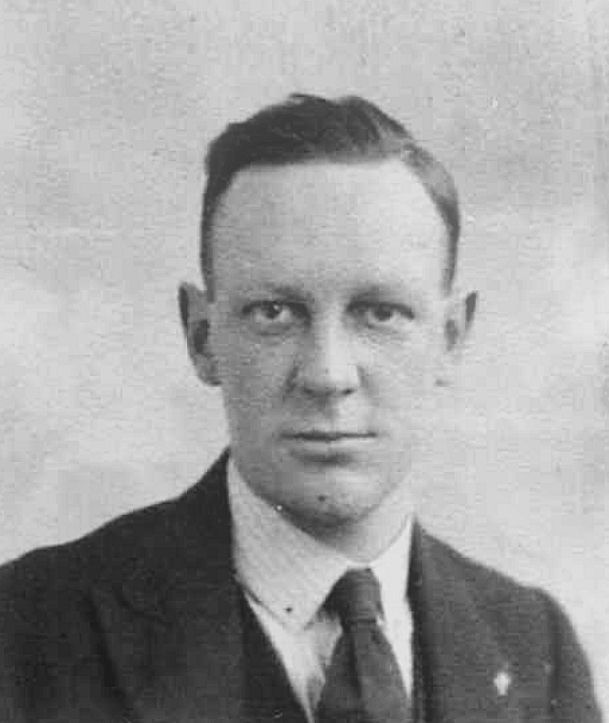
1929
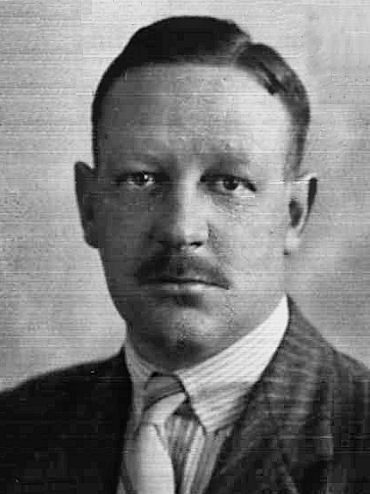 1936
1936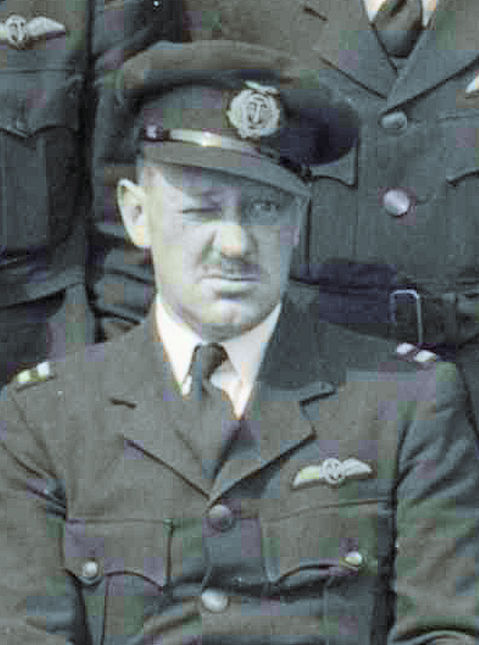 ATAM
ATAMJun 1940
a Garage Proprietor in Hull in 1929;
a Company Director in Dunswell E Yorks in 1936
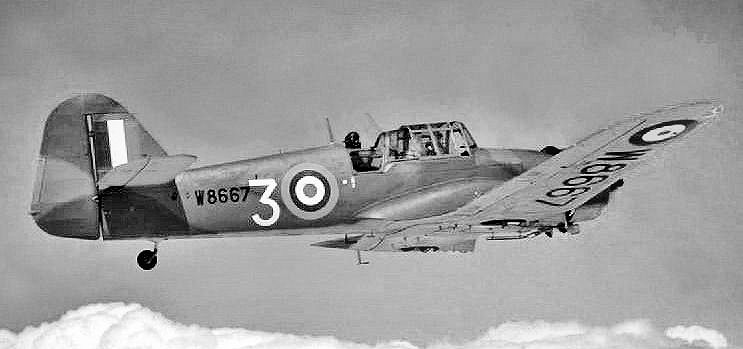
d. 4 Aug 1940 (Died in ATA Service) - Miles Master flew into hill in fog and crashed at Burnhead Tweedsmuir Peebles
Buried Maidenhead Cemetery:
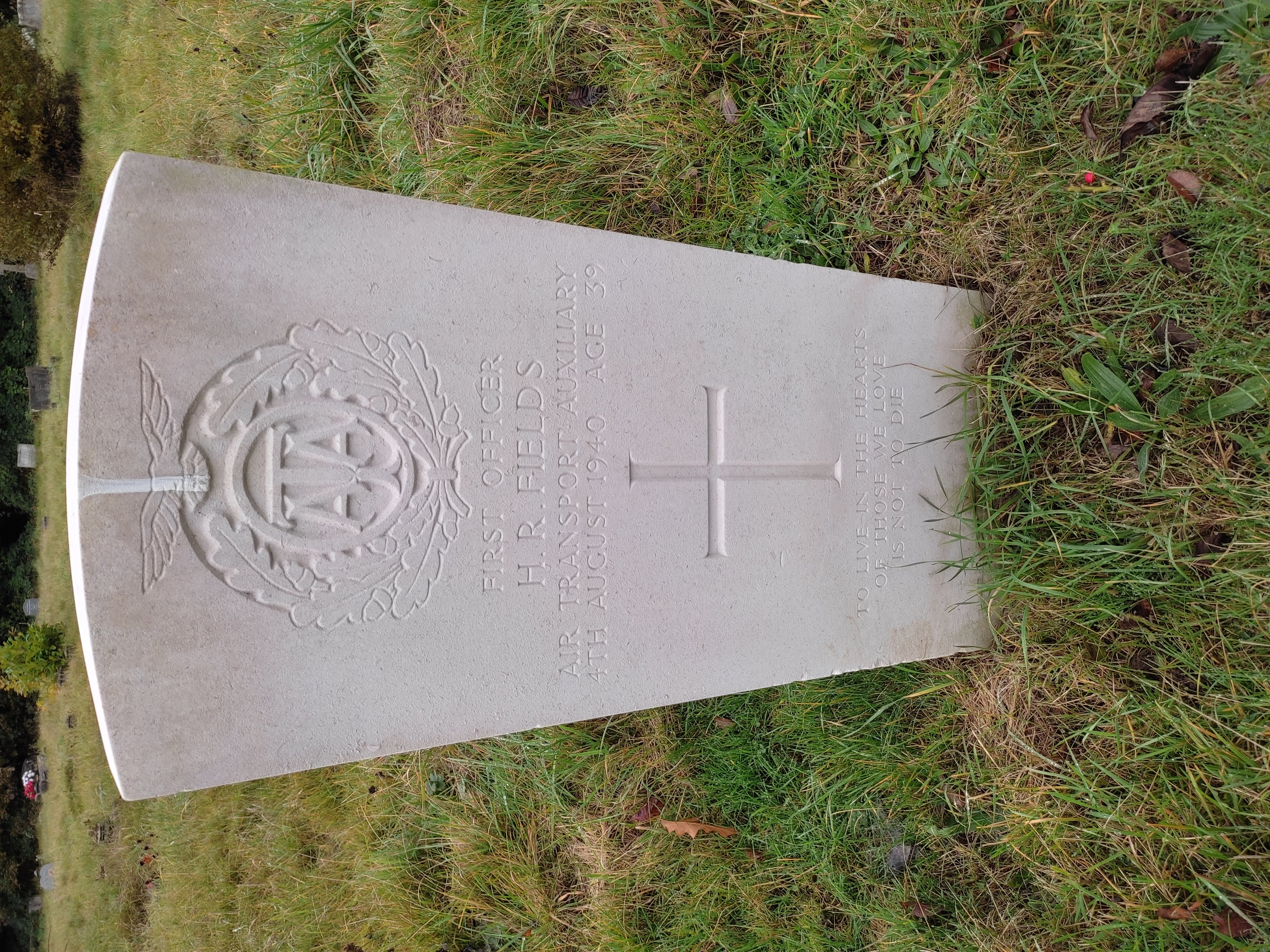 "To live in the hearts of those we love is not to die"
"To live in the hearts of those we love is not to die"
-
Firby, Geoffrey Maurice
M.557 First Officer Geoffrey Maurice Firby 
b. 21 Sep 1910, Bradford 10 Jun 1941 to 5 Feb 1944
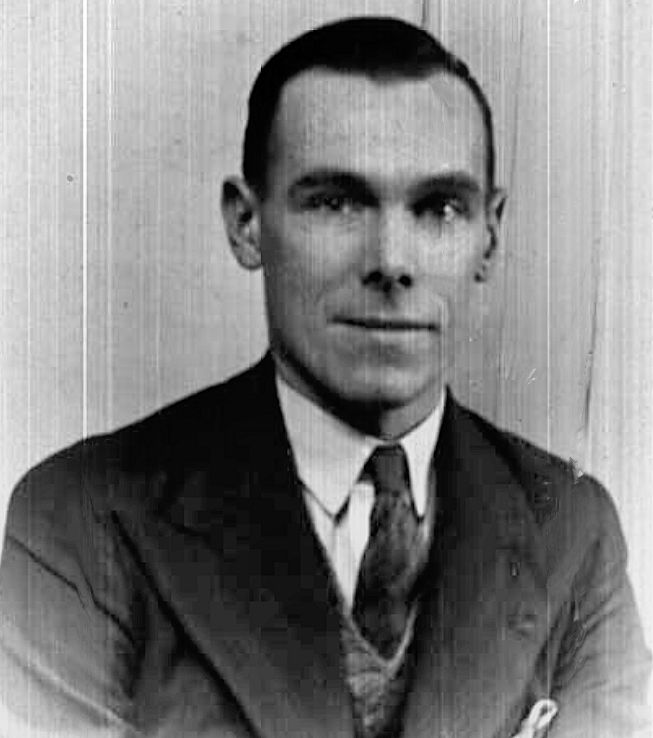 1938
1938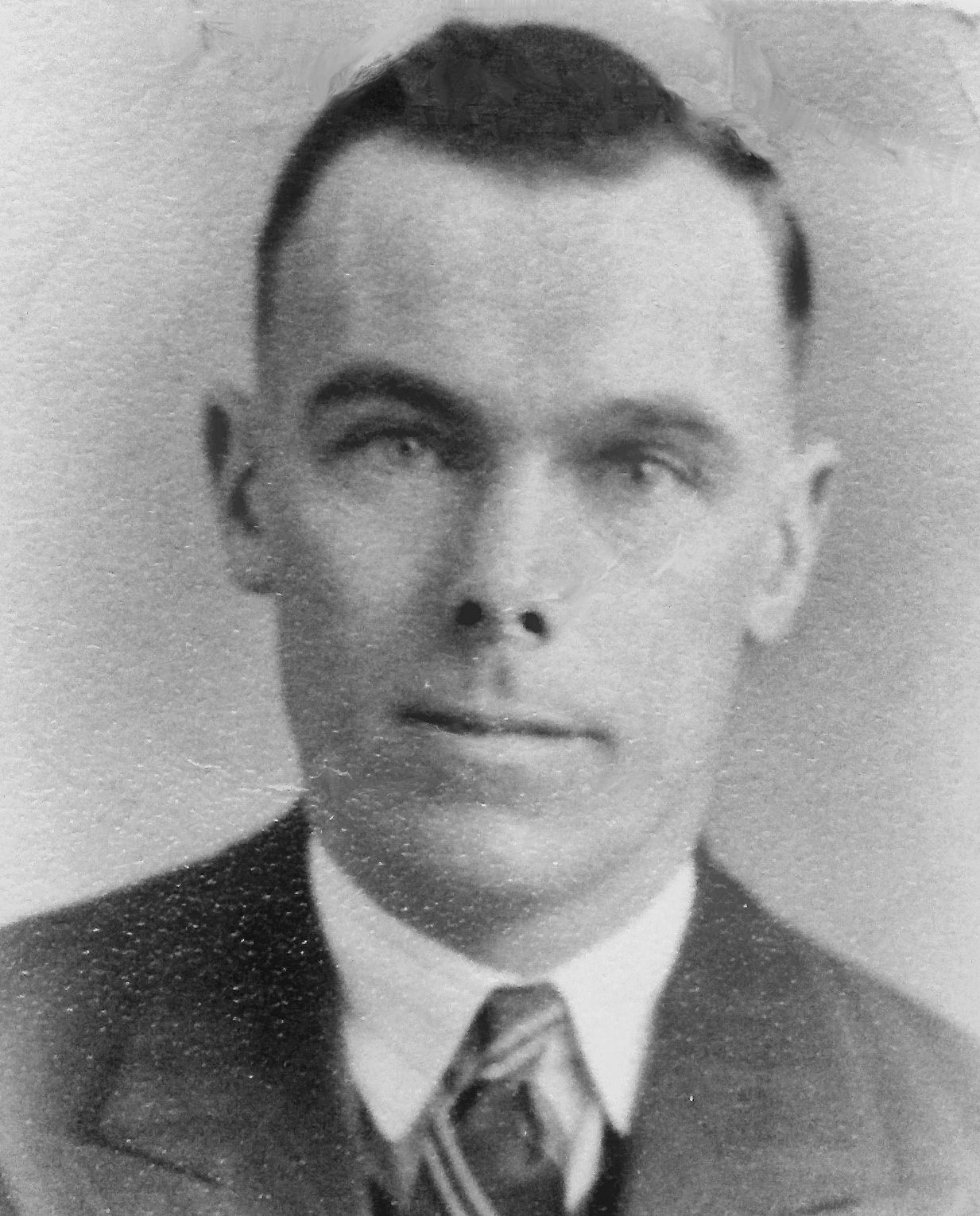 ATA
ATAFather: George Firby, Mother Annie
Ed. Bradford Moor, Ansons Secondary School
m. 3 Jan 1944 Doris [Watmough] S.R.N.
prev. a Haulage Contractor (Own business)
prev. exp. 57 hrs on Gipsy Moth
Address in 1941: 4 Dundas St., Bradford
Postings: 7FPP, 6FPP
Jan-42: Suspended without pay for 7 days and promotion deferred for 3 months for being "AWOL at Christmas 1941 & submitting a false report."
"A hard working and safe pilot, but who is inclined to be irresponsible."

d. 5 Feb 1944 (Died in ATA Service) in Avro Anson W4945 which disintegrated in the air, crashed between Newsham Hall and Walkers Farm, Winston, Darlington and was destroyed.
"Investigations showed that the starboard aileron was struck in flight by a fast moving metal object such as the propeller of another aircraft. This caused dislocation of aileron hinges & subsequent disintegration of the starboard wing. In this connection two Spitfires were observed manoeuvering around the Anson just before the crash. One was reported to have descended and circled the wreckage after the crash."
See also http://www.yorkshire-aircraft.co.uk/aircraft/yorkshire/york43/fr172.html
Buried at Undercliffe Cemetery, Bradford
He had only been married 33 days and hadn't informed the ATA, which meant that the insurance money of £2,000 was paid to his nominated next-of-kin, his mother Annie. She agreed to pass on £675 to his widow Doris, who also inherited Geoffrey's estate of £201.
A daughter Christine was born in March 1944 but died shortly afterwards.
-
Fish, Eleanor Dorothy (W.122)
W.122 3rd Officer Eleanor Dorothy 'Beanie' Fish 
b. 15 Oct 1917, Nottingham 1 Jun 1943 to 30 Sep 1945
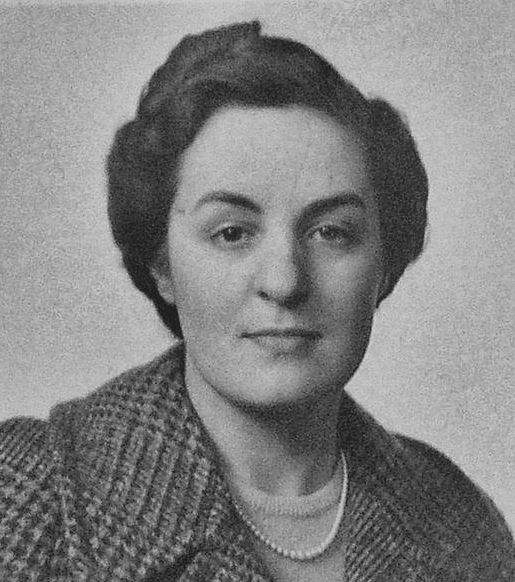
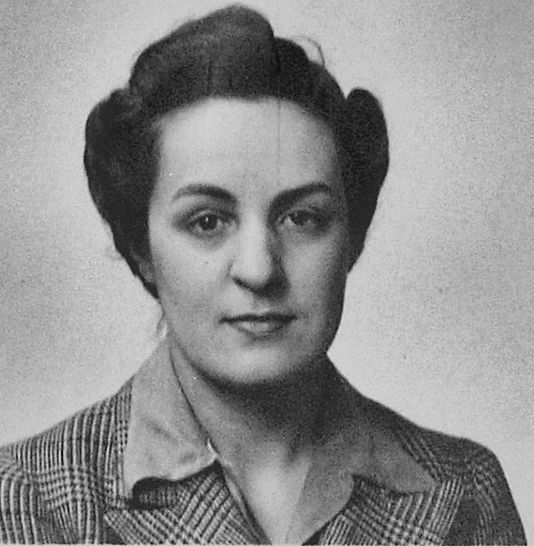 ATA
ATAFather: George Fish (a Master Butler); mother: Dorothy
Ed. Nottingham High School and RIBA, London
prev: Architect (Eberlin and Derbyshire Architects), then architectural assistant for the ATA from Jan 1942
Address in 1943: 14 Vivian Ave, Nottingham
Ab initio trainee
Postings: 5FPP, 15FPP, 12FPP, 6FPP
2 accidents, 1 her fault:
- 2 Dec 1944, a forced landing in Argus I FK345 after engine failure
- 12 Dec 1944, flying Spitfire IX TA780, she was reprimanded when she "persisted in landing well up the runway, knowing there was another aircraft in front of her. She collided with this other aircraft and was held to blame by the Accidents Committee"
m. Sep 1945 in Nottingham, 3rd Officer (Flt-Eng) Bernard K Wadsworth, also of the ATA
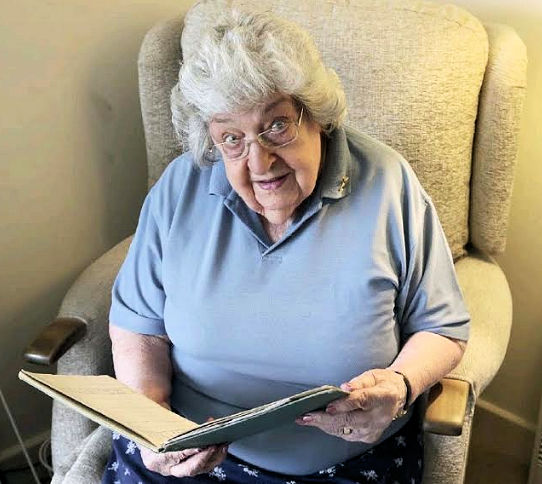 2019
2019d. 21 Dec 2020, Bury St. Edmunds, Suffolk
-
Fisher, John Charles
M.347 First Officer John Charles Fisher 
b. 6 May 1918, Newcastle-under-Lyme, Staffs 30 Mar 1941 to Mar-42
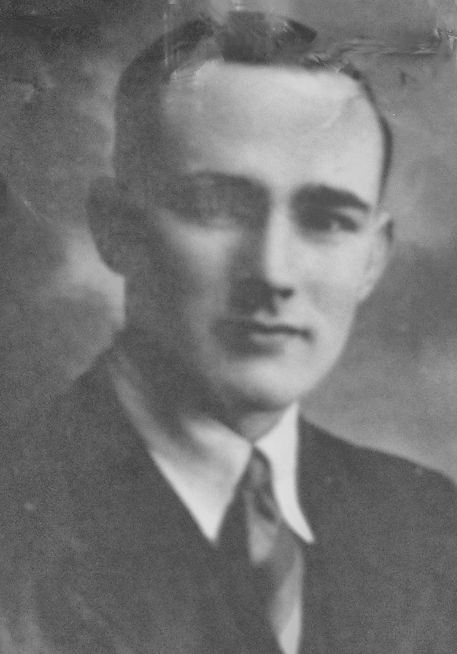
ATA
a Sergeant Pilot in the RAFVR from Apr-39 to Jan-41; exp. 120 hrs. He was discharged - "unable to complete course following a night crash."
prev. an insurance agent
He proved himself a "quiet, steady and conscientious officer", but had a couple of accidents during his short ATA career; on 25 October 1941 he taxied a Swordfish "carelessly" into a parked Piper Cub, and the following January he suffered head injuries in a forced landing in a Mohawk after engine failure.
His third accident, sadly, proved fatal.

d. 15 Mar 1942 (Died in ATA Service) - Oxford X7190 crashed into ground 300' above sea level nr Wigtown. He was deemed to be 'at fault' as he persisted too far in bad weather, "of which the forecast he received gave him warning."
The wreckage was not discovered for 3 days, and the sketch map below shows its location:
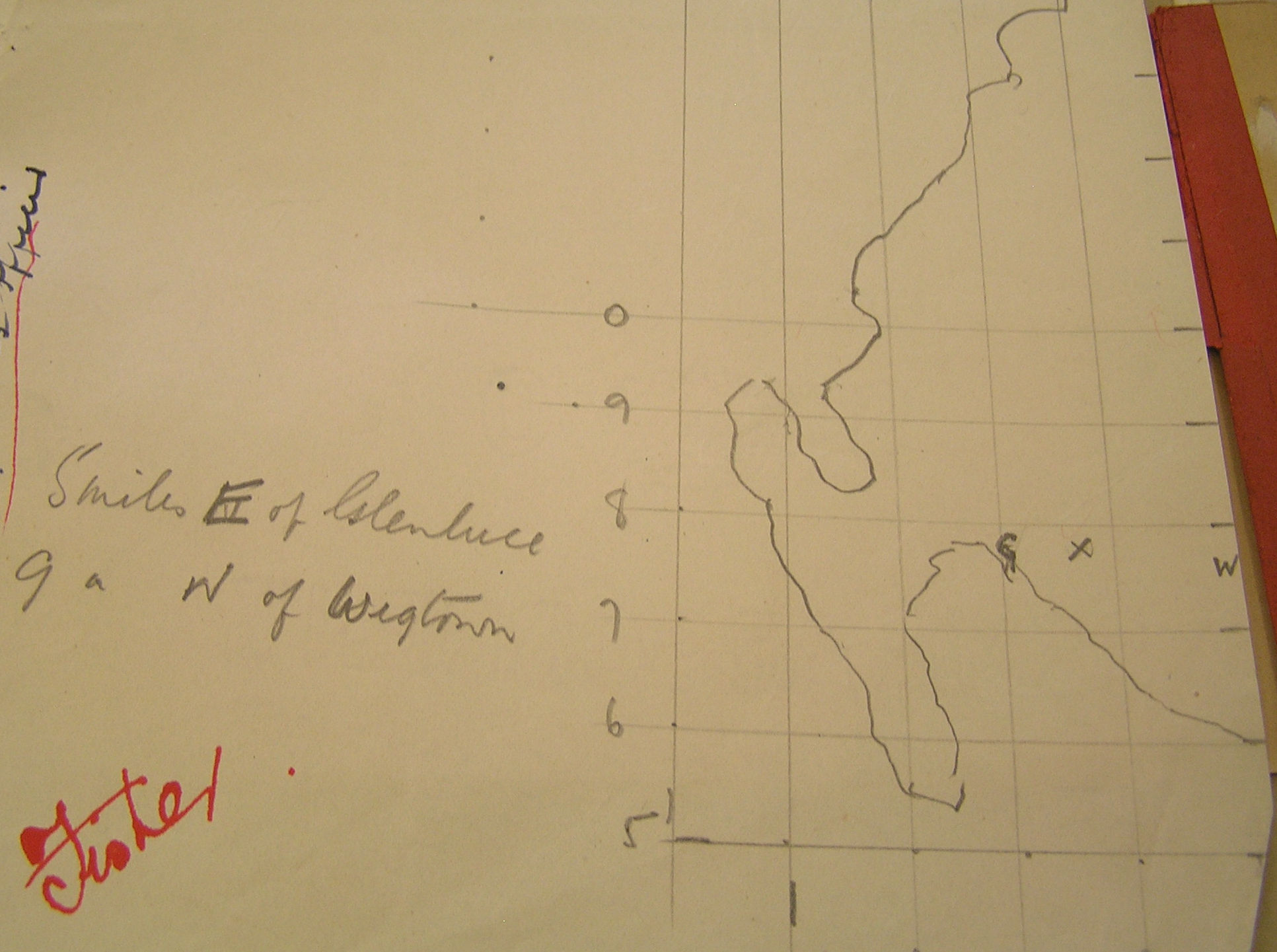
He was buried in Newcastle-under-Lyme Cemetery. His parents took some flowers to his grave in September 1943 and were sorry to see a wooden cross had been put there by the ATA, despite his parents having erected a stone memorial the previous November. The wooden cross was later removed.
-
Fitzgerald, Derek Lionel William
M.397 * First Officer Derek Lionel William Fitzgerald 
b. 21 Jun 1918, South Stoneham, Hants 6 May 1941 to 30 Nov 1945
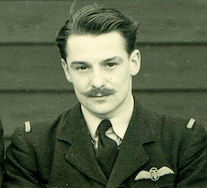 ATAM
ATAM
Postings include: 1FPP, 8FPP, 16FPP
3 accidents, 2 his fault:
- 24 Apr 1942, he forgot to lower his undercarriage in Hurricane BP517 after being baulked on his original approach
- 26 Sep 1942, he taxied Hurricane IIb JS303 into a petrol tanker, breaking the propeller
- 26 Nov 1942, he failed to control the take-off swing in Wellington X HE388 and hit an obstruction, due to being directed to the wrong runway.
m. 1946 in Maidenhead, Jessie H [Wilson]
d. 1996, Winchester, Hants
* File not seen
-
Fletcher, Silas Harwood Cash
M.---- * First Officer Silas Harwood Cash Fletcher 
b. 14 Feb 1915, Mansfield, Notts 22 Oct 1940 to 31 Mar 1941
Father: John Harwood Cash Fletcher (2nd Lieut., Nottinghamsire and Derbyshire Regiment, d. 1 Jul 1916);
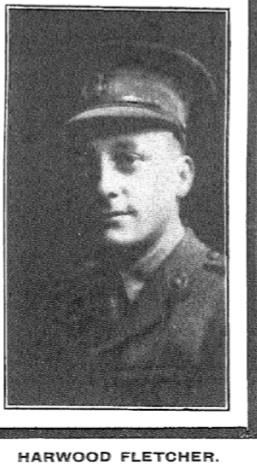 IWM
IWMMother: Alice Maud [Fisher, later Field]
prev. a chauffeur for "Mr. Butlin in Skegness", Commercial Traveller (Radio and Elecrical); Sergeant Pilot, RAFVR
Address in 1939: 39 Millicent Rd, West Bridgford, Nottingham
Postings:
'Invalided from the service'
m. 7 Oct 1944 in Nottingham, Moyra Angela [O'Mullane]
m. 1958 Susan Mary [Ashford]
Harwood Fletcher Ltd, "Britain's largest distibutor of domestic appliance spare parts to the electrical wholesale industry", was based in Nottingham in the 1980s
d. 11 Dec 1989 - Waltham-on-Thames, Surrey, leaving £546,640
* ATA file not seen
-
Fontes, Luis Goncelvis
M.--- First Officer Luis Goncelvis Fontes 
b. 20 Dec 1912, London 1 May 1940 to Oct-40
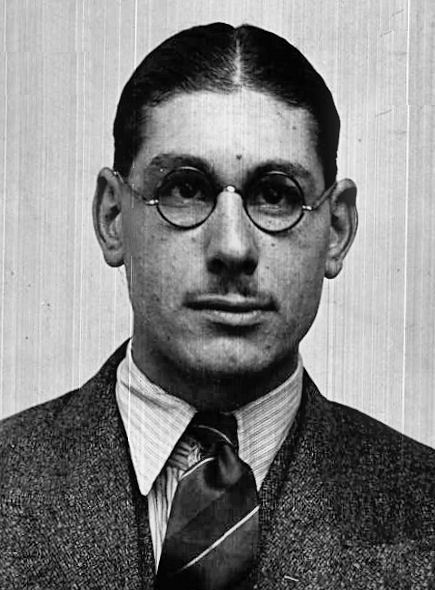
1938
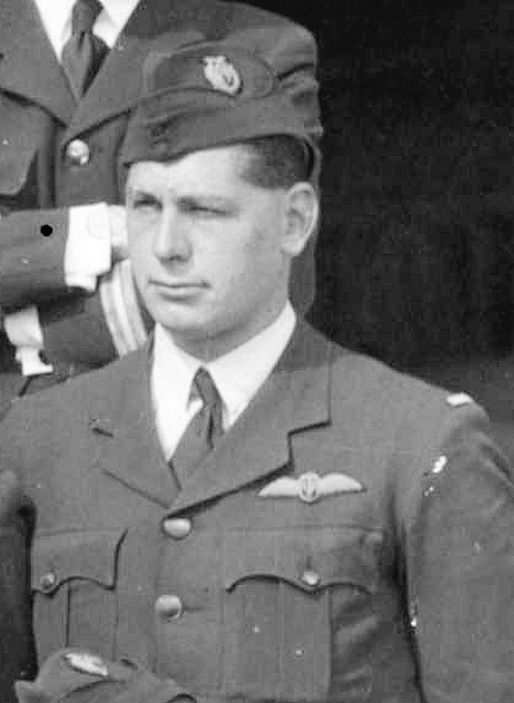 ATAM
ATAMFather Brazilian, mother English
Racing driver [1935 Le Mans winner] and sometime jailbird [spent 3 years in jail - convicted of manslaughter having killed a motorcyclist in a car accident whilst drunk]. Operated a speedboat firm in Torquay.
Owned:
1935 Miles Hawk Speed Six G-ADGP
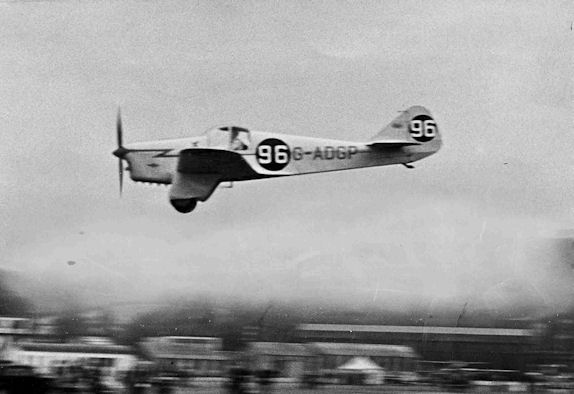
and
1938 B A Eagle 2 G-AFKH
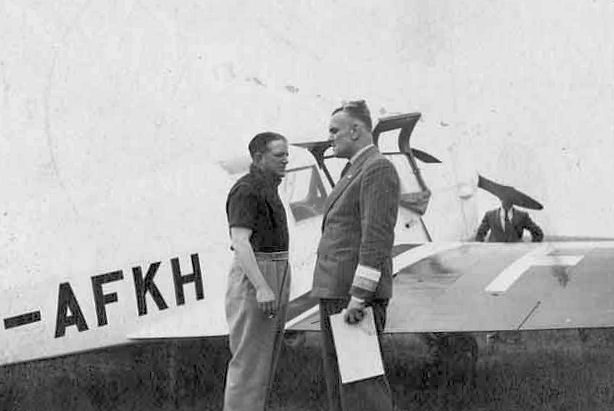
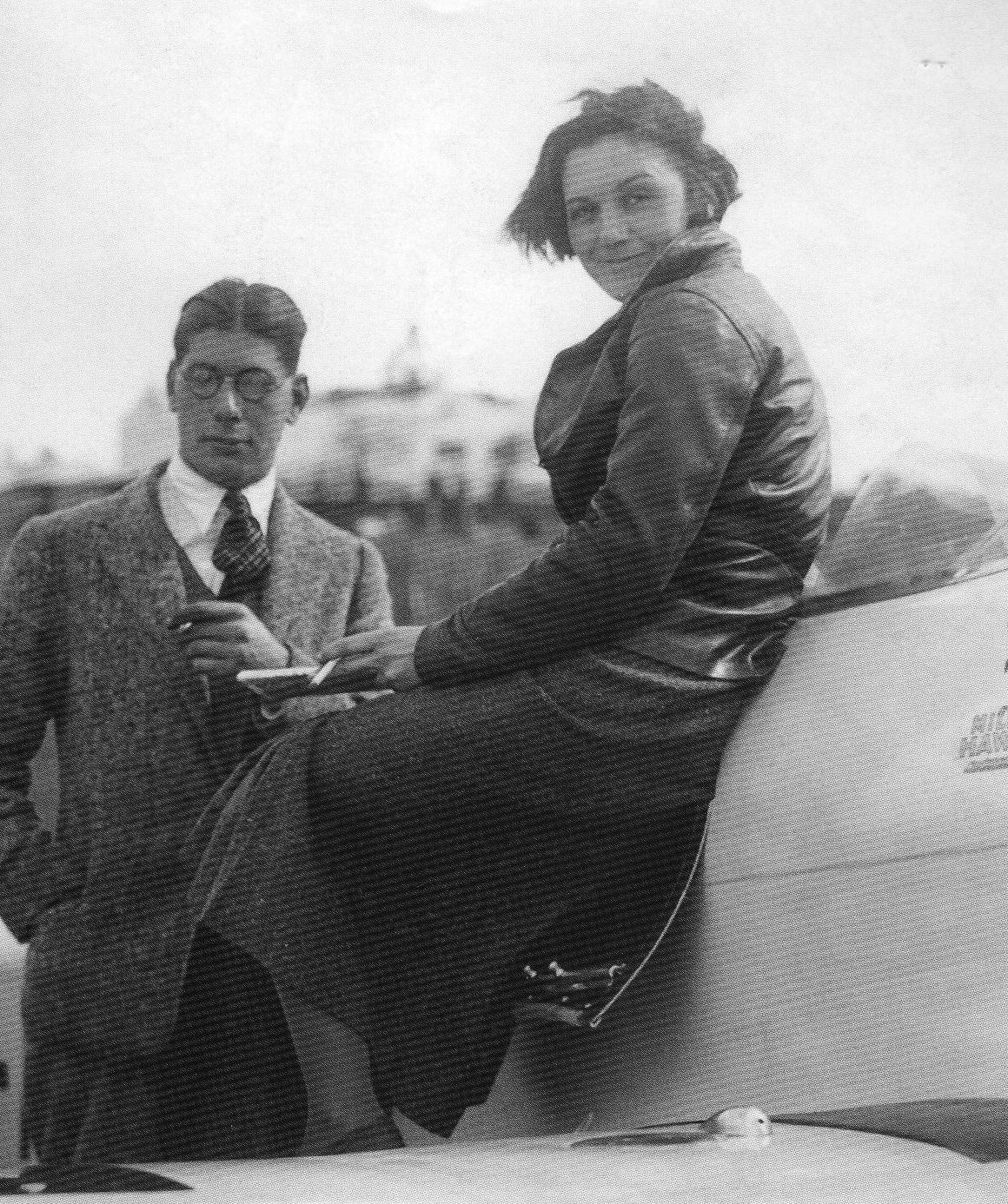
with his sister Ruth, King's Cup 1935

d. 12 Oct 1940 (Died in ATA Service) - while circling to land at Llandow, his Wellington R1156 struck a telegraph pole in Llysworney during a second circuit and crashed into a bank.
Buried Mapledurham, Oxfordshire
King's Cup in 1935, 1938
-
Forbes, Ian Archibald
M.664 First Officer Ian Archibald Forbes  +
+
b. 29 Nov 1919, Oxted, Surrey 30 Sep 1941 to 30 Nov 1945
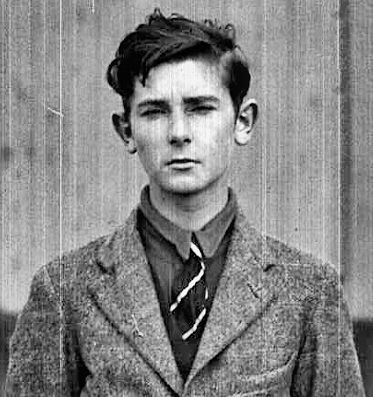 1937
1937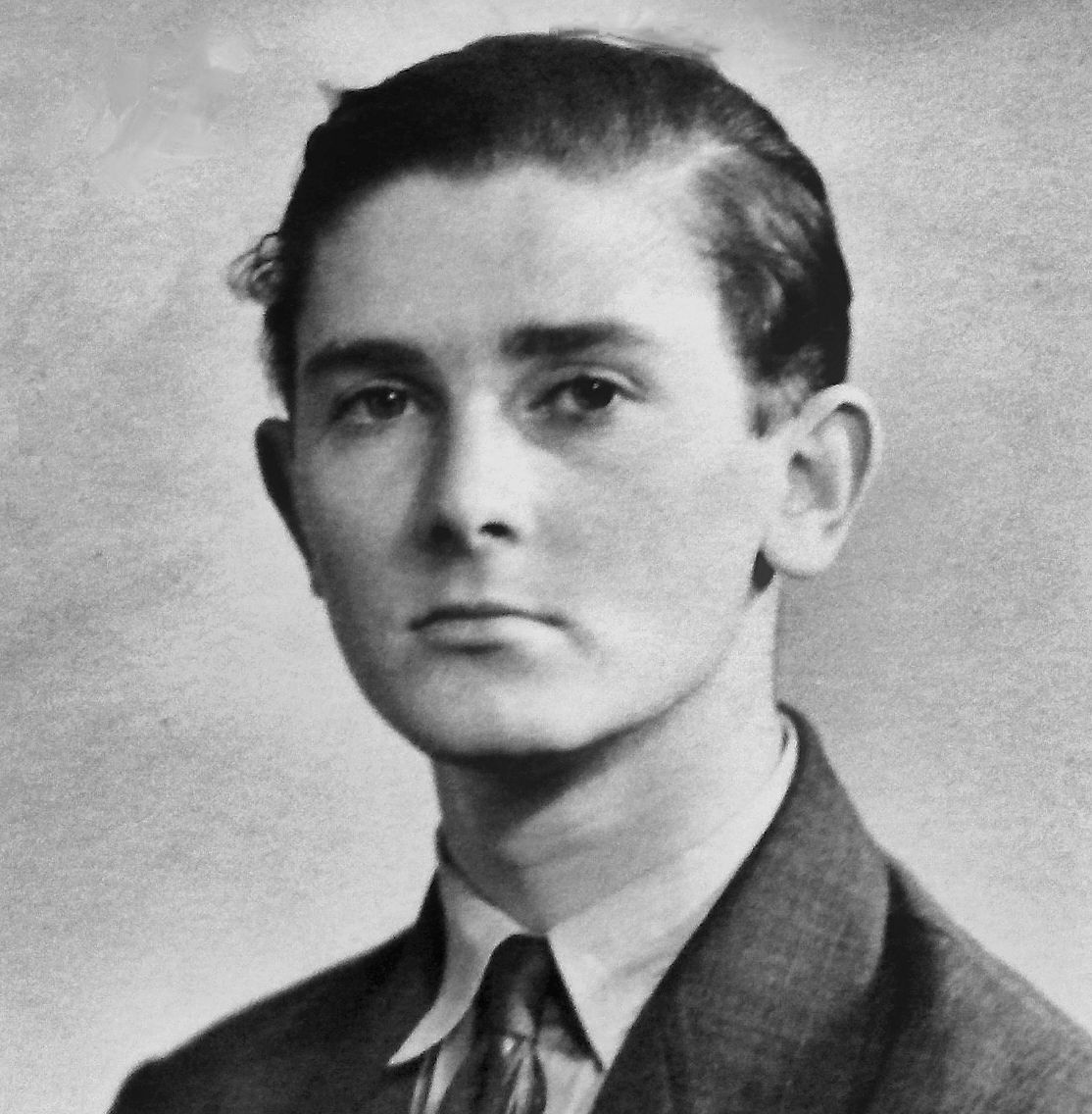 ATA
ATAFather: James Grant Forbes II (d. 1955) Mother: Margaret [Winthrop] (both American)
Margaret was a descendant of John Winthrop, one of the leading figures in founding the Massachusetts Bay Colony in the 1630s,
His mother inherited €100,000 from her aunt Ida Means Mason, who died in 1928 in Boston, Mass., and then €75,000 "and personal effects" from another aunt, Ida's sister Miss Ellen F Mason, who died in 1929 in Newport, RI. The remainder of Ellen's €5,000,000 went into a charitable trust, the money to be distributed within 21 years of the death of the last of Margaret's children. His father James Grant Forbes was named Trustee of a fund of €300,000 (€150,000 each from Ida and Ellen) for his children's education "and comfortable support".
Ed. Eton, Trinity College Cambridge
5ft 11in, brown hair
Address in 1937: Little Plumyard, Seven Hills Rd, Cobham, Surrey
prev. in 1939 a Student of Music (changed his mind) Economics in Kensington
He traveled to the USA in June 1939 on the 'Queen Mary' and was listed as an American "by virtue of his father's citizenship."
Address in 1941: (Mother's address) 43 Swan Court, Manor St, Chelsea, London
m. Oct 1941 Phoebe V Thomas in Marylebone, Middlesex
Off sick from 21 Feb to 21 Mar 1943
1 accident, not his fault:
- 4 Aug 1944, during the take-off run in a Hudson at White Waltham, the port tyre burst. He "completed the take-off, noticed that the tyre was apparently loose and wobbling, and therefore decided to execute a belly landing."
Address in 1947: Friary Lodge, Old Windsor, Berks
His mother Margaret died in 1970 aged 91, at her home in St Briac, France, leaving 11 children (including his sister Rosemary, the mother of John Forbes Kerry (68th US Secretary of State and Democratic Nominee for President, 2004) and Mme Alain Lalonde), 30 grandchildren and 5 great-grandchildren.
John F Kerry visited the Forbes' family estate at Les Essarts, near St-Briac-sur-Mer, on several occasions:
"In his youth, Kerry joined the family gatherings while his father, a U.S. diplomat, was posted in Europe. Young Kerry also attended a Swiss boarding school and brought a touch of America to this corner of northwestern France.
"He introduced us to games like capture the flag. We still play something called kick the can," said [John's cousin] Brice Lalonde, who at 58 is two years Kerry's junior.
Walking along a beach where Kerry and his cousins once played, Lalonde talked about their summers of swimming, cycling and tennis.
"We would take boats and go to islands and have a picnic. We'd go shrimping and have them cooked up in the kitchen," he said.
It was in Saint Briac, or nearby, that Kerry's parents met, when his father, Richard Kerry, was traveling in Europe before World War II.
During the war, the Nazis occupied Les Essarts and then destroyed it when they left. A family reunion was held last summer [2003] to mark the 50th anniversary of the home's reconstruction, but Kerry didn't attend.
Kerry told The New Yorker magazine that seeing the aftermath of the war in Europe kindled his interest in politics.
"My very first memory — I was 3 years old — is holding my mother's hand and she was crying... as we walked through the broken glass and rubble of her childhood house in France, which the Germans had used as a headquarters and then bombed and burned as they left," Kerry was quoted as saying." - Fox News, 29 Mar 2004
Ian Forbes lived at the rebuilt Les Essarts in 2004.
d. 2015
-
Forster, George William
M.172 Flight Captain George William Forster 
b. 26 Nov 1912, Deptford London 19 Nov 1940 to Dec-45
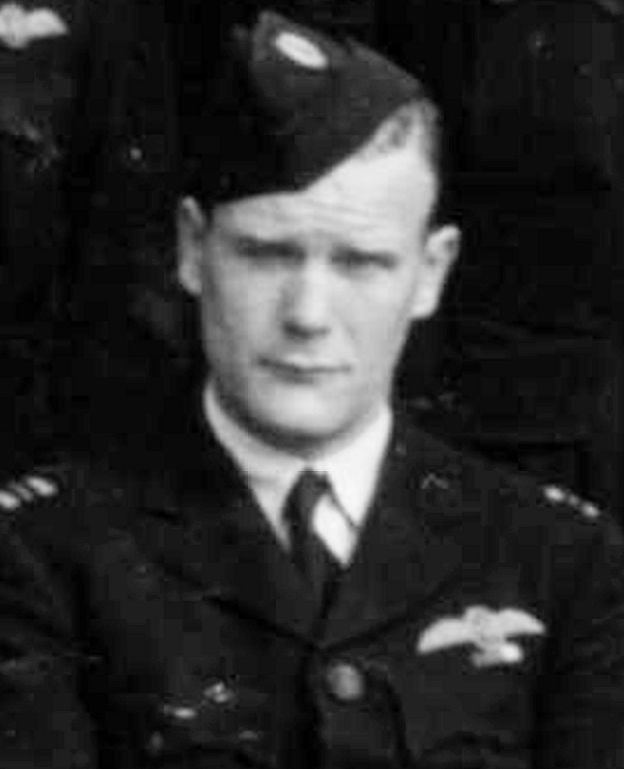 ATAM
ATAMAddress in 1940: 19 Ford View Rd, Stowmarket, Suffolk
prev. RAF Sgt Pilot May-31 to Jun-40, then Pilot Officer to 30 Sep 40
Postings: 1FPP, 3FPP
"Exceedingly keen as a pilot and takes his duties as a Flight Captain seriously."
d. Apr 2002 - Greenwich, London
-
Fossett, Ian Stewart
M.407 Flight Captain Ian Stewart Fossett 
b. 14 May 1917, Wolverhampton 13 May 1941 to 31 Jul 1945
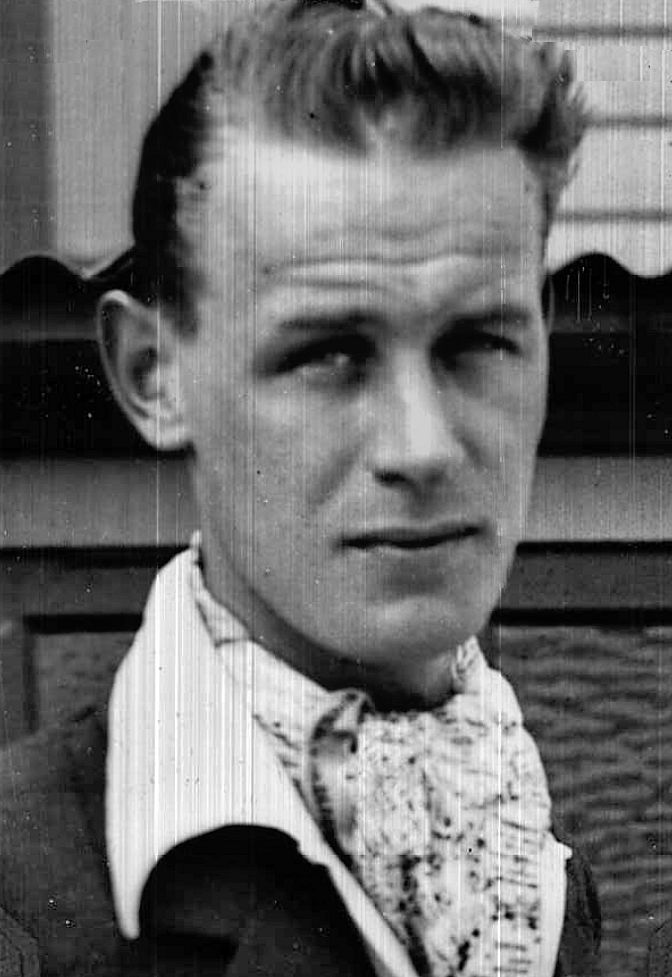 1939
1939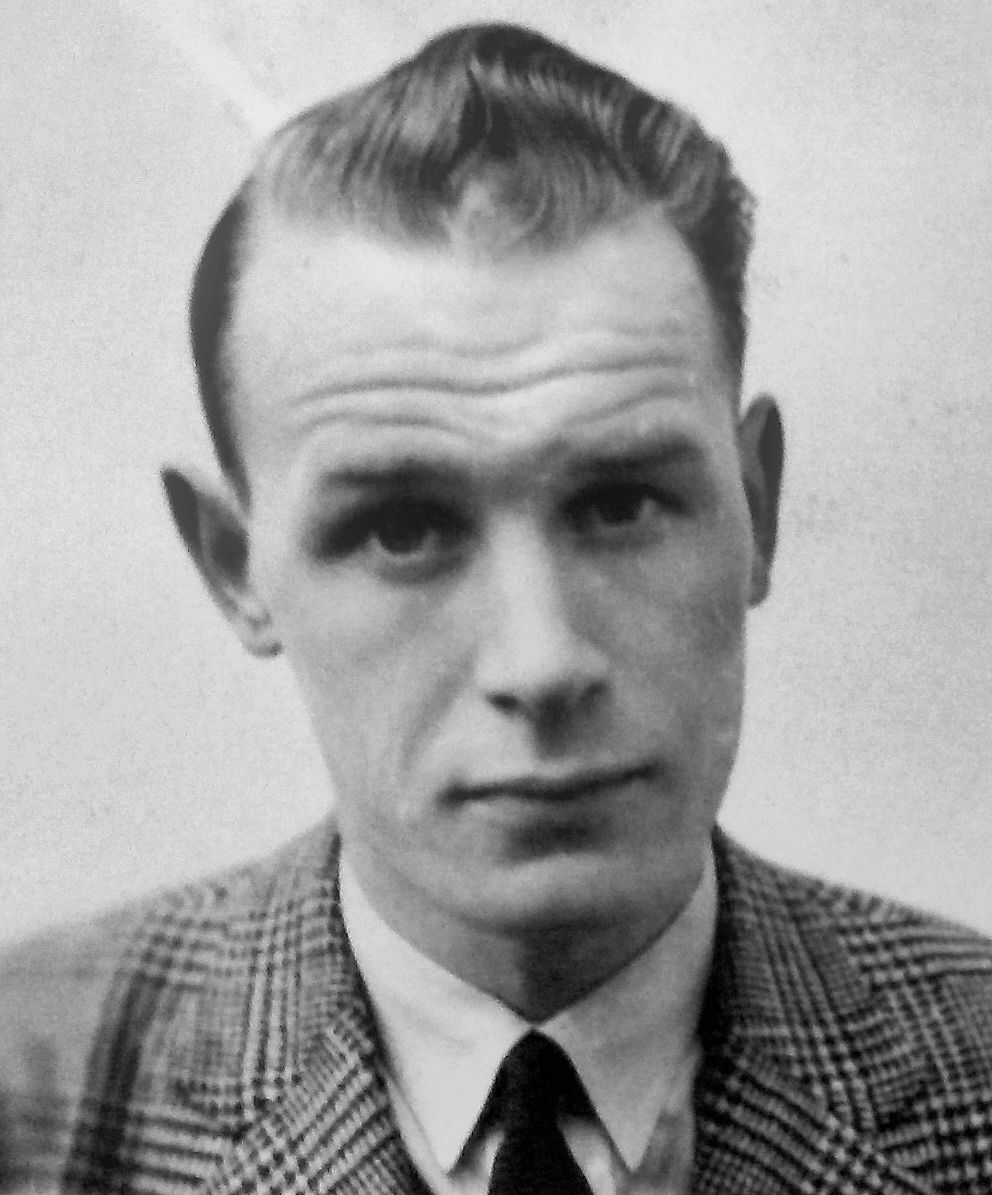 ATA
ATAprev. a draughtsman for Bristol Aeroplane Co
RAFVR L/AC from Sep-39 to Oct-40
prev. exp. 52hrs
Address in 1941: (father) Outwood, Almondsbury, Bristol
Later: Rosemary, Imber Pk Rd, Esher, Surrey
Postings: 16FPP, 5(T)FP, CTO
Reprimanded in Mar-43 for a taxying accident in which his Dominie struck Pilot Officer Reinke and knocked him over, although both were held responsible.
"This officer at all times carries out his duties and responsibilities in a very satisfactory manner."
King's Commendation for valuable service in the air
m. 1952 Kathleen M Kromhout Or Fraser in St Albans
The ‘quiet and reserved’ executive aircraft sales manager of Hawker Siddeley.
d. 27 Apr 2001 - Sootfield Green, nr Hitchin, Herts
Download ATA Pilot Personal Record (.zip file):
-
Francis, Francis
M.318 Commander Francis 'Frankie' Francis 
b. 28 May 1906, London 18 Oct 1940 to 11 Nov 1944
[1,485 days]
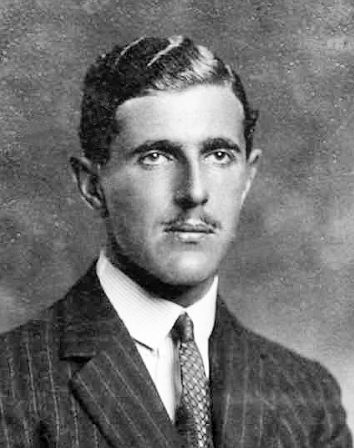 1929
1929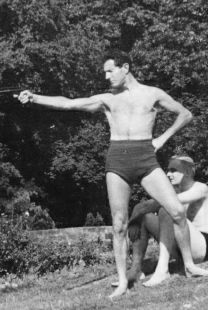
Off-duty at White Waltham [ELC]
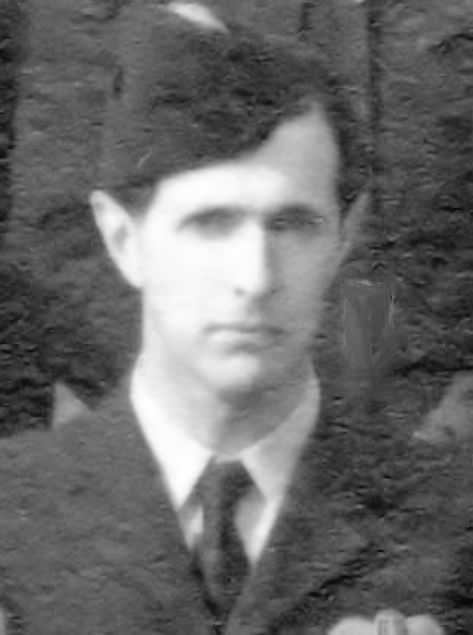 ATAM
ATAMEducated at Rugby and Sandhurst
m. , 2 children
prev. a Lieutenant in the Horse Guards, 1926-29, and a 'Director of Companies'
Address in 1940: The Pavilion, Datchet, Bucks
Next of Kin: Wife, c/o City Bank Farmers Trust, 22 William St, New York
Postings: 1FPP, 6FPP
On the 17th Feb 1944, he jumped out of a perfectly good Beaufort; "On encountering bad weather the pilot turned on a reciprocal course but lost sight of the ground. He then ran into severe icing conditions... he climbed over the cloud, proceeded to the vicinity of Hawarden, and when an engine started to fail through lack of petrol, headed his aircraft out to sea and abandoned it by parachute."
"Unfortunately", as he later recounted in 'Brief Glory', "my baling out (a somewhat difficult operation) upset the trim of the aircraft, which proceeded to fly in circles round me as I descended, to my great embarrassment. However, it got on to the straight course and later plunged into the [Irish] sea as I had hoped."
Although he was held to blame for the incident, "the measures subsequently taken by the pilot showed commendable presence of mind."
Officer Commanding 1FPP from May-44
[Released by mutual consent]
-
Freshfield, Edwin Hanson
M.236 First Officer Edwin Hanson Freshfield 
b. 16 May 1909, Buckland, Surrey 8 Jan 1941 to 18 May 1942
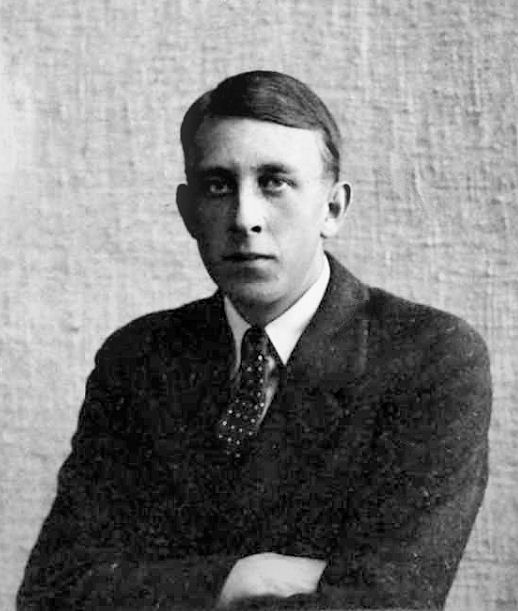 1929
1929ed. Lancing College, Trinity College Cambridge M.A.
prev. an Air Traffic Controller, attached to HQ Fighter Command Bentley Priory, 1937-date
Order of St John
'Slight limp left leg'
prev. exp. 1450 hrs; owned a 1928 D.H. Moth G-EBZE from 1930 to 1932, and had flown in France, Belgium, Holland and Germany. His instructor at Brooklands was George Lowdell.
His flying may have been curtailed after this incident on the 23 Mar 1932: "Animals at the Whipsnade Zoo rushed about an excited state and there was danger with elephants carrying children when an aeroplane flew low overhead, it was stated at Luton, where a summons against Edwin Freshfield, a Cambridge undergraduate, the pilot of the machine, was dismissed on payment of costs."
Address in 1941: Glovers Farm, Reigate, Surrey
Postings: 1FPP, 4FPP (part time)
"Keen pilot, but owing to part-time duties this officer is not seen very much."
[Services Discontinued]
d. 18 Feb 1985 - Lewes, Sussex
-
Friedlander, Mona Renee Vera Ernesta (W.8)
W.8 First Officer Mona Renee Vera Ernesta Friedlander
Mrs Forward

b. 2 June 1914, London 1 Jan 1940 to 24 Feb 1943
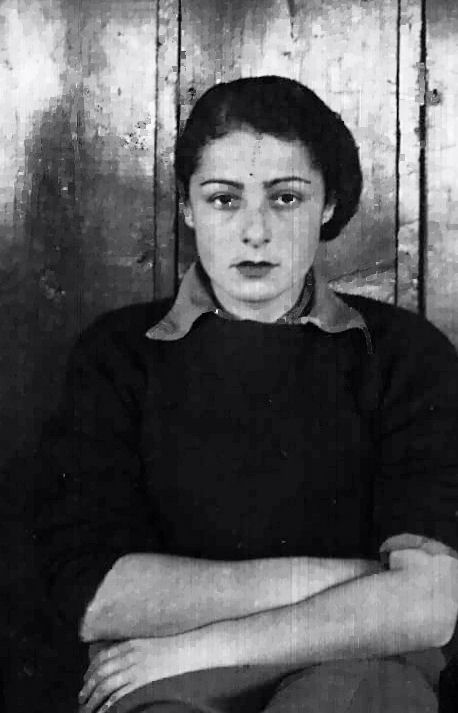 RAeC 1936 - Brooklands
RAeC 1936 - Brooklands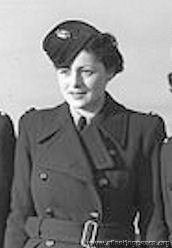 ATA
ATA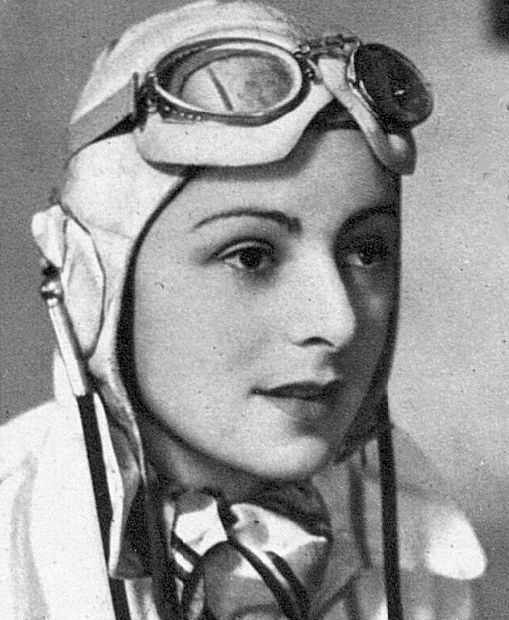 1939
1939Bassano
Father: Ernest Friedlander (German, naturalised 1909 - "founder and chairman of the well-known banking firm of Singer and Friedlander"). Mother: Vera(na)
Educated 'abroad', (Vienna, Switzerland, Germany) and at the Royal School of Arts and the LSE in London (Commerce Examinations).
5 foot 5 inches tall; hair and eyes: dark brown. Religion: Hebrew (sic).
Ken Waller taught her to fly
Her uncle, V. Mansfield, was a Colonel in the British Army in WWI.
prev. pilot for Air Taxis, Croydon, giving "5 bob joy rides"
Mona was in the squad for the British Women's Ice Hockey teams who faced France in 1934 and 1935, but Britain lost the first and only drew the second. She was a defender, playing for her club the London Lambs; against France "probably the fastest skater on either side, and certainly the strongest".
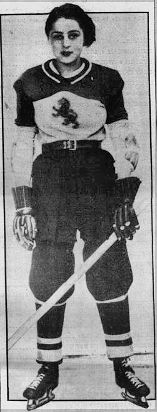 Playing for the 'Wembley Lionesses' in 1937 - Daily Mirror
Playing for the 'Wembley Lionesses' in 1937 - Daily MirrorIn 1938, "Airwoman Mona Friedlander, who played left-back for England. was the most dashing player on the ice. Dressed in a short black split skirt and a blue and white jersey —the England uniform—she was all over the ice, leaving a trail of devastation in her wake. Her enthusiasm led her into trouble. She was sent off twice, but made up for it by scoring two of England's goals."
From 1st March 1939 to the end of November, she worked as an Army Cooperation pilot, flying in front of anti-aircraft batteries to help them with the aiming and ranging of guns and searchlights. The Sketch said "We take our hat off to Miss Mona Friedlander - for being an attractive night-flying target that no-one should miss"
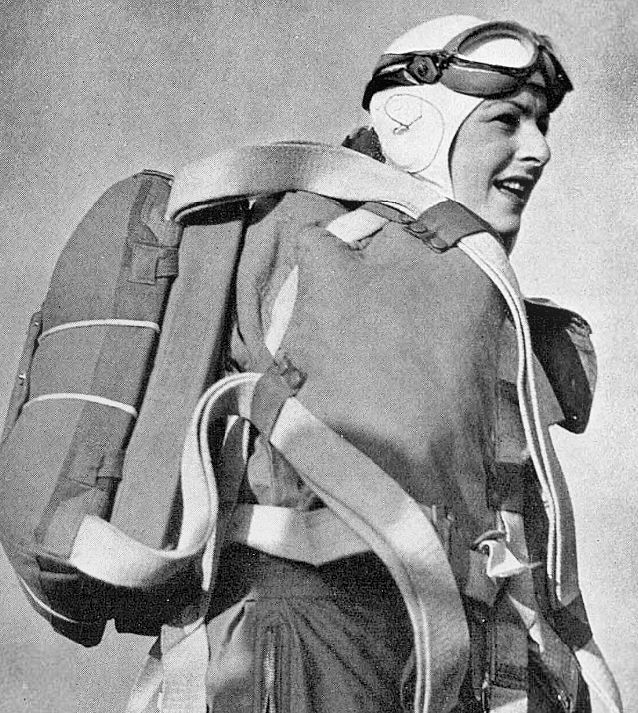
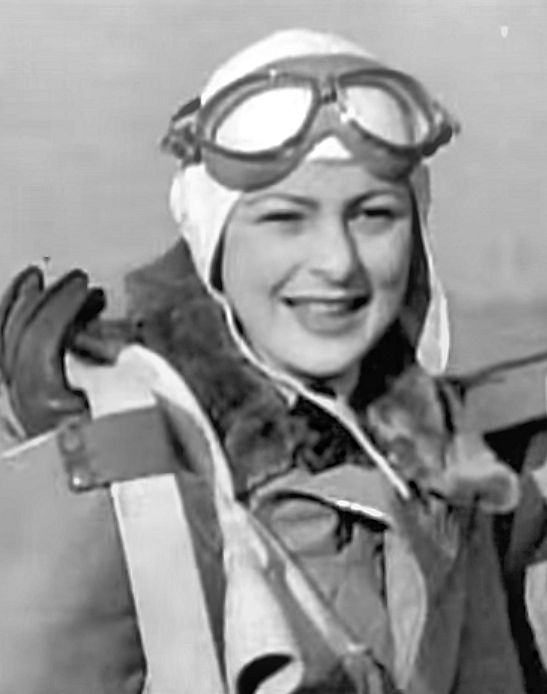 1940
1940She was then one of the 'First 8' women pilots of the ATA, joining on 1st January 1940 as a Second Officer. At the time, she had 600 hours experience, on 'most light types'.
Postings: Hatfield, 5FPP
She married Major Alan Forward, M.C. in June 1941; by then, she had had 3 accidents:
- 4 Oct 1940, she failed to get the undercarriage of Oxford V3325 down and locked before landing;
- 25 Mar 1941, she had a forced landing in Lysander P1727 when the engine failed, and
- 29 Apr 1941, another forced landing Hawker Hind 4643, during which she collided with a cow in the field, which ended up costing the ATA £150.
She was exonerated in all 3 accidents.
Her report says "First Officer Forward is a good pilot and a hard worker. She has been unfortunate in the matter of accidents but cannot be held responsible for those she has had. On one isolated occasion she showed bad airmanship - this has not been repeated" but added (rather strangely in view of her ice hockey-playing career before the war), "Physical endurance rather below average."
She was promoted to First Officer in May 1942, but in September hit a parked Anson when taxying a Hudson, then in October suffered from carbon monoxide poisoning in a Typhoon, remained off sick until February 1943 and then resigned.
During her ATA career, Mona flew 32 types of aircraft up to 'Class 4' (Advanced Twin Engined), including 20hrs on Wellingtons and 10 hrs on Mosquitos.
post-ATA, Censor for the Ministry of Information
Moved to Egypt. Flew one of a flight of 8 Fairchilds down to Johannesberg for £50.
d. 24 Dec 1993 - Yeovil
https://en.wikipedia.org/wiki/Mona_Friedlander
IWM interview here: https://www.iwm.org.uk/collections/item/object/80009073
-
Frost, Margaret Olive (W.110)
W.110 3rd Officer Margaret Olive 'Maggie' Frost 
b. 26 Nov 1920, Kingston by Sea, Sussex 25 Nov 1942 to 30 Sep 1945
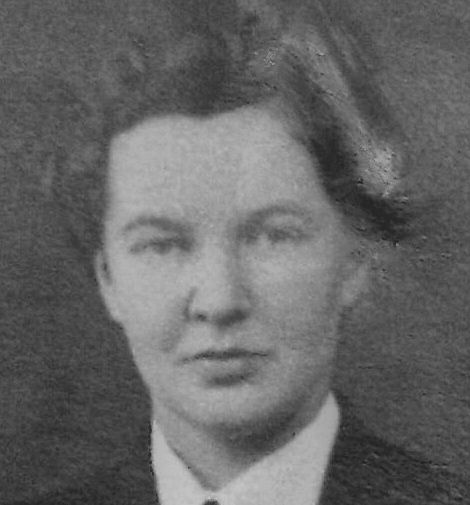 ATA
ATA ATAM
ATAMFather: Ernest Isaac Frost, a country parson; Mother, Olive Jessie [Thornton]
(First solo 1 Aug 1939)
Address in 1942: The Rectory, Fulborough, Sussex
prev: from May 1941 WRNS, HMS Forward
Postings: 15FPP
Off sick from 21 Dec 1943 to 8 Mar 1944 due to an appendectomy
One accident, not her fault:
- 5 Aug 1945, three propeller blades of her Barracuda III RJ492 were found to be chipped, reason unknown
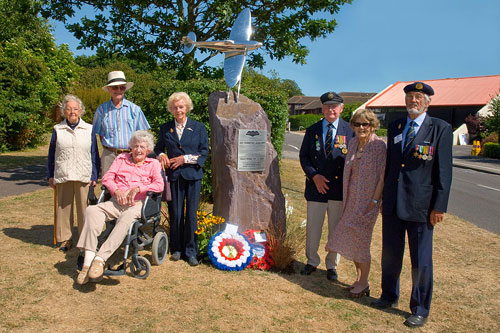
Maggie (far left) at the unveiling of the ATA Memorial in Hamble-le-Rice, 2010
d. 4th August 2014 - Aberystwyth
https://en.wikipedia.org/wiki/Margaret_Frost
-
Fryer, Noel
M.780 First Officer Noel Fryer 
b. 25 Dec 1912, Newcastle on Tyne 22 Jul 1942 to 31 Oct 1945
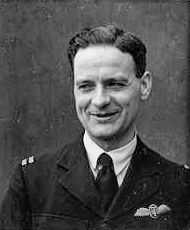 MAMM
MAMM
-
Fuller-Hall, Rosemary Lilian (W.63)
W.63 First Officer Rosemary Lilian Fuller-Hall 
b. 25 Jun 1919, Hampton Middx 2 Dec-41 to Jan-44
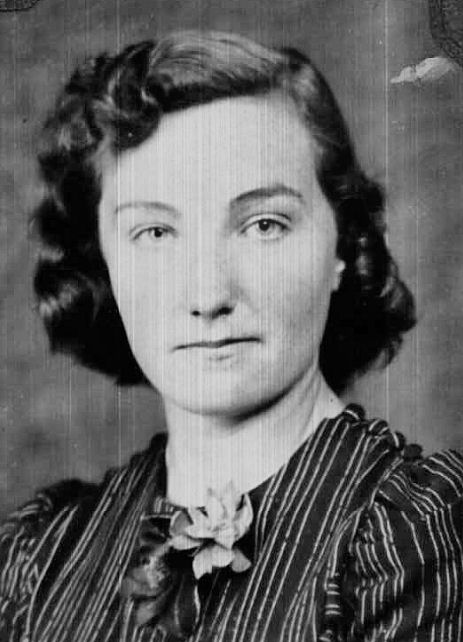
RAeC 1939
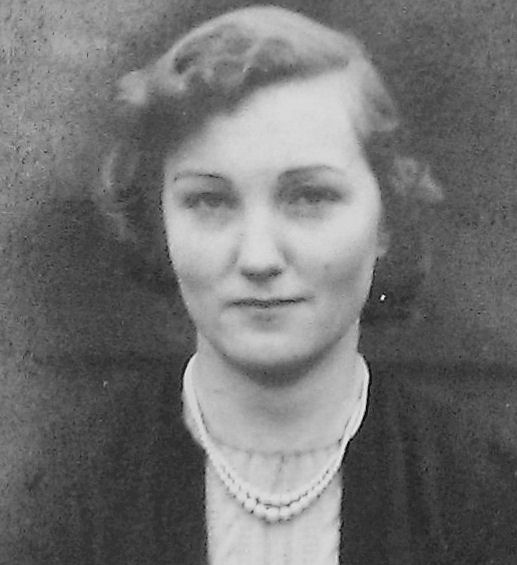
ATA
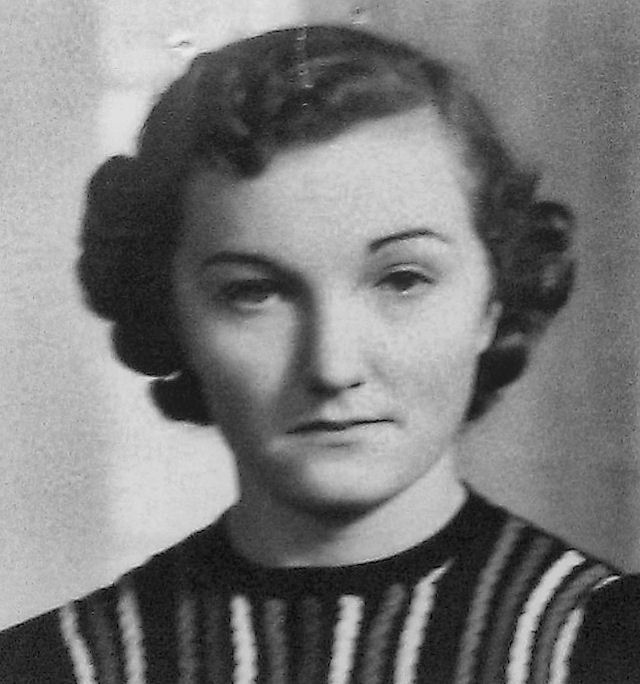
ATA
-- Not in 'Forgotten Pilots' or 'Brief Glory' --
Daughter of Charles Fuller-Hall.
prev exp: 30hrs
5' 7", slight build, fair hair, blue eyes
Got her RAeC certificate in 1939, became a stenographer (which I think is a sort of shorthand typist, but I could be wrong) for the Manufacturers Life Insurance Company of Canada, and then was in the A.T.S. from September 1938 to February 1939.
She is mostly interesting for the number of accidents she had :-)
Here is the story of the ups
 and downs
and downs 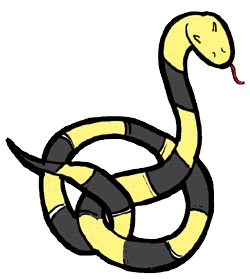 of her ATA career :-
of her ATA career :-- 3 May 1942: Completed Class 1 Training.
 Promoted to 3rd Officer (from Cadet)
Promoted to 3rd Officer (from Cadet)- 23 Aug 1942: Completed Class 2 Training.
 Promoted to 2nd Officer
Promoted to 2nd Officer- 6 Dec 1942:
 Accident to Master I N8057 at Hullavington. "Whilst taxying, the a/c skidded off perimiter track into ditch due to the pilot taxying without sufficient care on muddy surface. Pilot IS held responsible."
Accident to Master I N8057 at Hullavington. "Whilst taxying, the a/c skidded off perimiter track into ditch due to the pilot taxying without sufficient care on muddy surface. Pilot IS held responsible."- 12 Dec 1942:
 Accident to Fairchild EV774 at Hamble. "A/C overshot on landing and collided with fence due to gross error of judgement on part of pilot. Pilot is held responsible."
Accident to Fairchild EV774 at Hamble. "A/C overshot on landing and collided with fence due to gross error of judgement on part of pilot. Pilot is held responsible."- 18 Dec 1942:
 Demoted to 3rd Offficer.
Demoted to 3rd Offficer.- 21 Dec 1942: Back to School. "A good average pilot whose flying is quite satisfactory. Her recent accidents have apparently little or no connection with her flying skill, but seem to be purely a question of carelessness. " [That's all right, then].
- 1 Feb 1943:
 Promoted to 2nd Officer (again).
Promoted to 2nd Officer (again).- 15 Mar 1943:
 Accident to Mustang I. "Tail wheel punctured & tyre fell off on take off. Pilot is not responsible for accident." [phew].
Accident to Mustang I. "Tail wheel punctured & tyre fell off on take off. Pilot is not responsible for accident." [phew].- 20 Apr 1943: Completed Class 3 Training. "A hard working pilot of average ability whose flying is quite sound but she must pay very particular attention to her airmanship."
- 30 Apr 1943:
 Accident to Barracuda P9740. "After landing undercarriage retracted. Pilot selected U/C up instead of flaps. Pilot is to blame.
Accident to Barracuda P9740. "After landing undercarriage retracted. Pilot selected U/C up instead of flaps. Pilot is to blame.- 7 May 1943:
 Suspended 3 days with total loss of pay and warned that "another accident, for which she is held responsible, will mean termination of contract."
Suspended 3 days with total loss of pay and warned that "another accident, for which she is held responsible, will mean termination of contract."- 13 Aug 1943:
 Promoted to 1st Officer. "A keen pilot and a well-behaved officer. Her accidents are entirely due to lack of concentration."
Promoted to 1st Officer. "A keen pilot and a well-behaved officer. Her accidents are entirely due to lack of concentration."- 30 Sep 1943: Class 4 Training Completed. "Somewhat forgetful with cockpit drill which gives the impression of overconfidence. She should be given ample Class 4 ferrying before being considered for 4+. Average Ability."
In Dec 1943, she married Mr Peter Pennington-Legh and resigned from the ATA.
Total Hours ferrying: 459 hrs 15min.
She later moved to Australia, and died there in 1984.
-
Gale, Thomas George Lamb
M.56 Commander Thomas George Lamb Gale OBE 
b. 11 Nov 1910, Stoke Hammond, Bucks 19 Nov 1940 to 30 Nov 1945
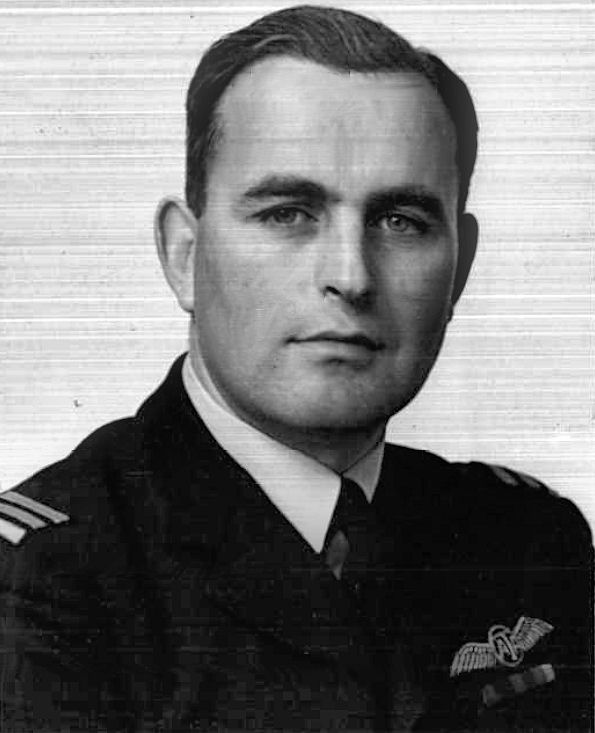 RAeC 1945
RAeC 1945Ed. at Berkhampstead School
RAF [originally an appentice at Cranwell, eventually Sqn Ldr] 1927-1940; winner of the Sir Charles Wakefield Scholarship in 1930; Indian General Service Medal
Married 1935 Helen [Cragg], 2 children
Address in 1940: The Cottage, Wicks Lane, Shurlock, nr Reading
Postings: 1FPP, 6FPP, AFTS
Officer Commanding, ATA's Advanced Flying Training School (AFTS) from Aug-42
"The AFTS has given excellent results for which the credit goes to Cmdr Gale. As an individual, if he were to unbend occasionally, he might get even better results from his staff and pupils." G d'Erlanger
d. Dec 1956 - Colchester, Essex
-
Garrod, Francis Roland Peter
M.638 * First Officer Francis Roland 'Peter' Garrod 
b. 1920, Croydon ? 28 Aug 1941 to 31 Oct 1945
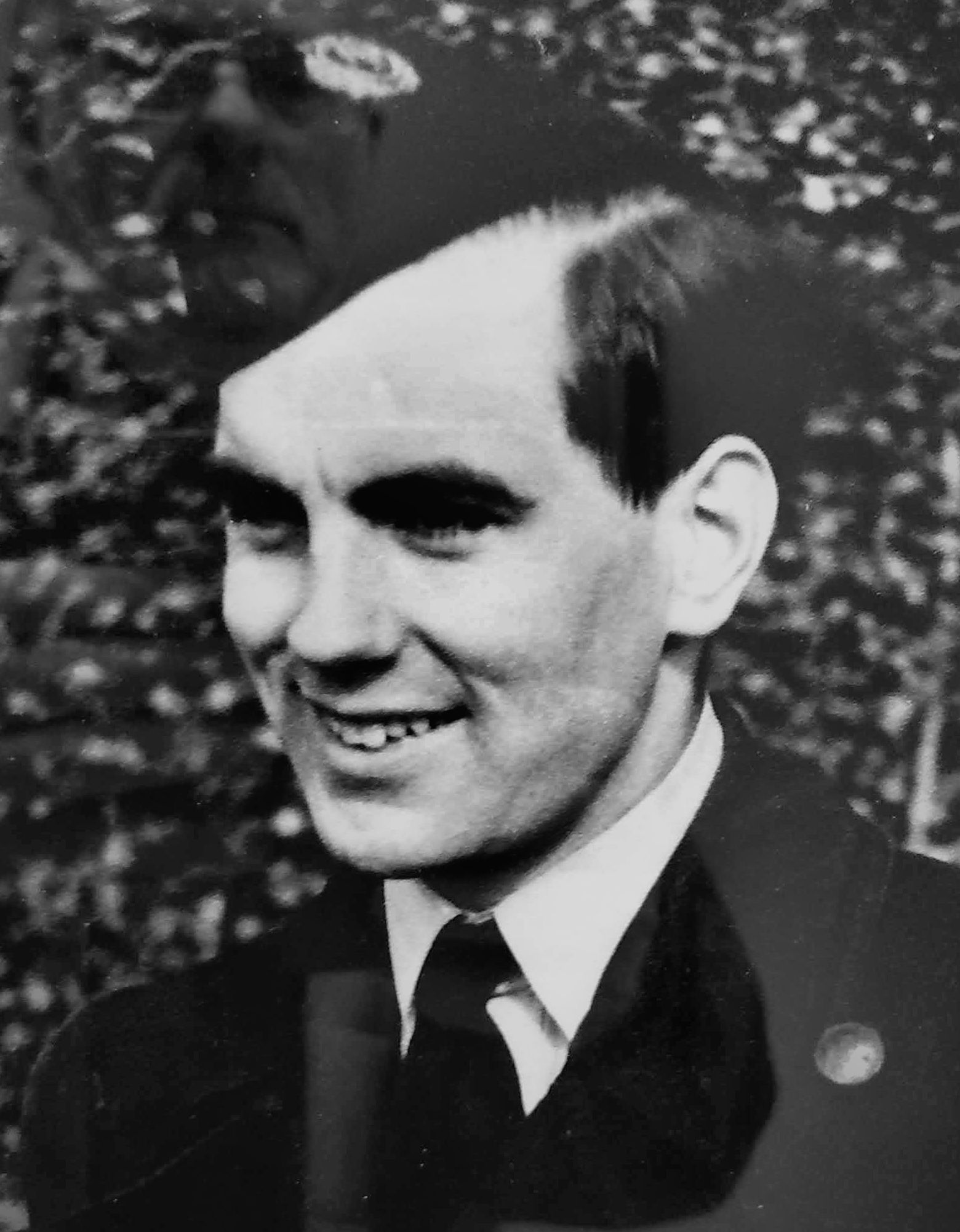 ATAM
ATAM ATAM
ATAM
m. 1945 in Kensington, London, Rosamond Z [Goddard]

Peter (far right) at the unveiling of the ATA Memorial in Hamble-le-Rice, 2010
d. 23 Jun 2016
Interviewed here: https://www.iwm.org.uk/collections/item/object/80009727
-
George, Peter Macdonald
M.493 First Officer Peter Macdonald George 
b. 22 Dec 1920, Hammersmith London 7 May 1941 to 30 Nov 1945
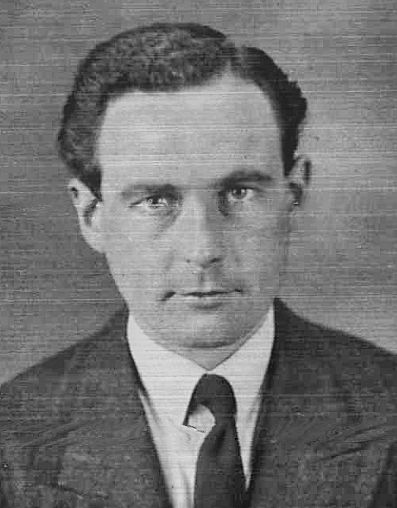 1946
1946Ed. at Perse School, Cambridge
father: Robert Evelyn George
m. Jun 1943 Wendy M [Tadgell]; 3 children b. 1944, 1947, 1949
prev. a Master Tailor
RAF Sgt. from Mar-39 to Jan-41 "Unable to fly satisfactorily at night"
prev. exp. 182 hrs
Address in 1941: 68 Panton St, Cambridge ["Telephone No 3943 during day, not Thursday afternoon or Sundays (shop)"]
Postings: 1FPP, 12FPP, 4aFPP, 6FPP, 7FPP
Seconded to RNAS Lee-on-Solent Aug-Sep 1944
"This officer was very slow at the beginning but is progressing slowly."
"Flying of average standard. Slowness was due to sickness and domestic worries."
"A likeable officer whose discipline is good. A capable pilot although somewhat underconfident."

Peter (3rd from right) at the unveiling of the ATA Memorial in Hamble-le-Rice, 2010
d. 10 Feb 2012 - Dry Drayton, Cambridgeshire
"Former WWII ATA Pilot. Died peacefully at home, on Friday, 10th February, 2012, aged 91 years. Beloved husband of the late Wendy and very much loved and admired by all his family. Funeral service at the West Chapel, Cambridge City Crematorium, CB3 0JJ on Friday, 9th March at 2.15pm. Family flowers only, but your kind donation in Peter's memory to Maidenhead Heritage Trust may be forwarded." Cambridge News
'The proportion of women fatalities was lower than the proportion of men. The late Peter George said simply that “the women were more reliable. They didn’t do the same damn fool things as the men did.” ' http://maidenheadheritage.org.uk
Download ATA Pilot Personal Record (.zip file):
-
Gerrard, Robert
M.599 First Officer Robert Gerrard 
b. 9 Apr 1900, Surbiton on Thames 1 Jul 1941 to 30 Nov 1945
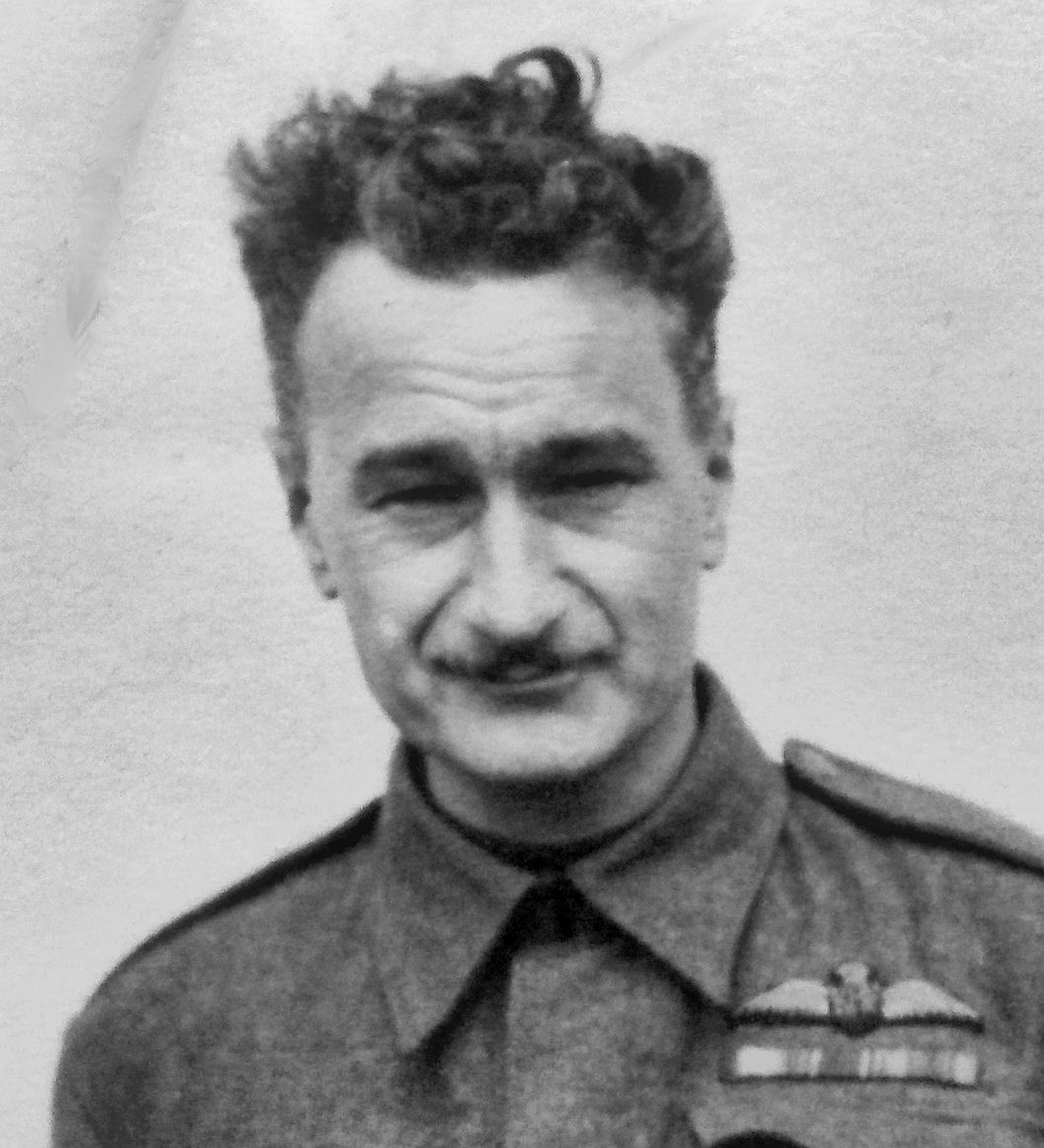 ATA
ATABritish by naturalisation of father (Arend Jartams was Dutch)
Ed. Lindisfarne College, Essex
m. 1928 Winifred [Culshaw]
prev. private in RAMC, 1915; RFC Cadet, 1917, 2nd Lt. in RAF, 1919;
an aircraft fitter for A.S.T., Hamble
prev. exp. on Bristol Fighter, R.E.8, SE5, Martinsyde, Dolphin (!)
Address in 1941: c/o Etheridge, Bank St, Bishops Waltham, Hants
Postings: 15FPP, 7FPP, 6FPP, 4aFPP, 4FPP
"An excellent officer and capable pilot who gets on with the job in a quiet and efficient manner."
d. 1963 - Tiverton, Devon
-
Gibbons, Anthony Bridgeman
M.370 * First Officer Anthony Bridgeman Gibbons 
b. 3 Jul 1899, Wolverhampton 15 Apr 1941 to 23 Feb 1944
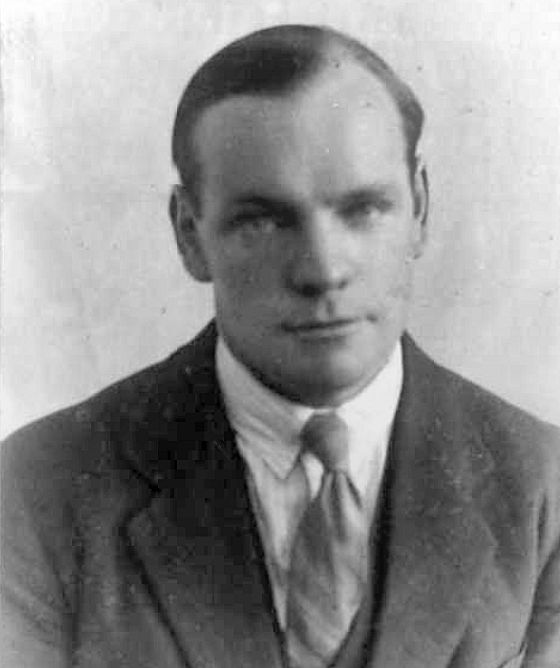 1928
1928prev. an 'Assistant Manager'
Address in 1928: Penn Hall, Penn, Staffs
-
Gibbs, Philip Lambert
M.526 Flight Captain Philip Lambert Gibbs 
b. 16 Nov 1913, Staines, Middx 6 Jun 1941 to 31 Dec 1945
 1935
1935Ed. Bethany High School, Goudhurst
m. 1936 in Worthing, Sussex, Eileen Florence [Wylie], a hairdresser
prev. a Motor Salesman; from 1939, an aircraft rigger and fitter for Fairey Aviation Co, Hayes, Middx
In 1941, Foreman Rigger at Rollason's Aircraft Services, Croydon Airport, "was bombed out of job"
prev. exp. 127 hrs on DH Moth, Avian, Miles Hawk
Address in 1935: Lairnsmore, Leighton Ave, Worthing
Address in 1941: 'Groombridge', Woodfield Close, Beulah Hill, London SE19
Postings: 6FPP, 3FPP, 7FPP, 1FPP
6 accidents, 1 his fault:
- 6 Jan 1942, the brakes failed on his Proctor P6237 and he collided with a fire tender
- 19 Feb 1942, a forced landing in Hind K6728 after engine failure
- 11 Dec 1942, he made a heavy landing in Spitfire JG714 (avoiding two men on the perimeter track) instead of going round
- 26 Feb 1943, whilst waiting for take-off, flames from the starboard engine of his Wellington IV R1620 caused the wing to catch fire
- 20 Aug 1943, rear perspex panel of gun turret from Beaufort L4471 became detached in flight
- 8 May 1944, after a normal landing in Argus HM179 the undercarriage collapsed after running into a deep unmarked hole.
"A conscientious and reliable pilot, who has proved his worth as a Flight Leader, and his personality is an asset to the Pool".
m. 1946 in Surrey, Rosemary Bonnett (also of the ATA)
d. Apr 1980 - Swindon, Wilts
-
Gill, Ernest Maurice
M.210 First Officer Ernest Maurice Gill 
b. 4 Aug 1905, Caterham, Surrey 15 Jan 1941 to 24 Mar 1943
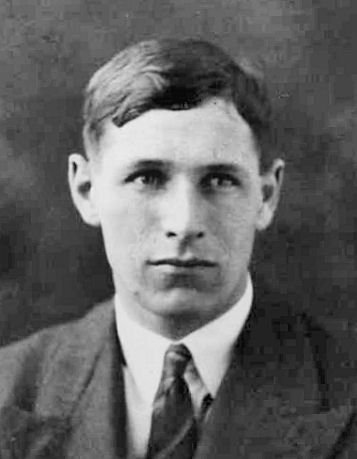 1931
1931ed,. Lancing College O.T.C. 1919-23
m. Cherry, 1 child
prev. a trooper in the Calcutta Light Horse, 1927-29; then a Technical Representative in Africa for the Stanton Iron Works of Nottingham.
Address in 1941: The Garden Flat, The Park, Cheltenham, Gloucestershire
Postings: 2FPP, 15FPP, 6FPP, 9FPP
"A very hard worker. His cheerful willingness to undertake any job is a great asset in this Pool. Rather over-zealous in command owing to lack of experience."
In Nov-42, "Failure to immobilise his motor-car in Montpellier-walk led to Ernest Maurice Gill, a ferry pilot, of 6, The Park, Cheltenham, being fined £2."
[Resigned 27 Dec 1942, after his third 'at-fault' accident, but he stayed on until 24 Mar 1943]
-
Gill, Kenneth Carlyle
M.200 Captain Kenneth Carlyle Gill 
b. 28 Aug 1915, Southgate, London 1 Jan 1941 to 30 Nov 1945
[Possibly related, a Captain Kenneth Carlyle Gill, M.C. RAF, was accidentally killed while flying on 22 Oct 1918. He was 26 years of age, and was married in April 1917 to Miss Louie Gwendolen Cullen. daughter of Mr. W. H. Cullen, of Leatherhead. ]
Mother: [Brown]
Ed. Royal Masonic School, Bushey, Herts
m. Jul 1937 in Holderness, Yorks, Dorothy [Turner]
prev. apprentice for De Havilland; Flt-Lt RAF 14 Sep 1934- 20 Nov 1940 (SSC, 1AACU based in Egypt)
Retired from RAF due to ill-health
prev. exp 747 hrs on Henley, Battle, Magister, Gordon, Wallace, Hart, Wellington, Harrow, Anson, Heyford, Valencia
Address in 1941: 25 Oxford Rd, St Annes, Lancs
Adress in 1945: The Moorings, Cawood, nr Selby, Yorks
Postings: 4FPP, 14FPP, 3FPP, 6FPP, 7FPP (as Second-in-Command)
Class 5 (4-engine) pilot
3 accidents, one his fault:
- 21 Feb 1941, unknown at-fault incident in Magister N3851
- 4 Jun 1941, the tail strut of his Wellington R1773 failed due to a structural fault
- 20 Jul 1941, his Beaufighter T3331 struck an unmarked obstacle whilst taxying
"Thorough, loyal, conscientious worker. A first class pilot, and an officer who commands the respect of those junior"
d. 29 Oct 2005 - Market Harborough, Rutland
Buried Kibworth Villages New Cemetery, Kibworth Beauchamp, Harborough District, Leicestershire
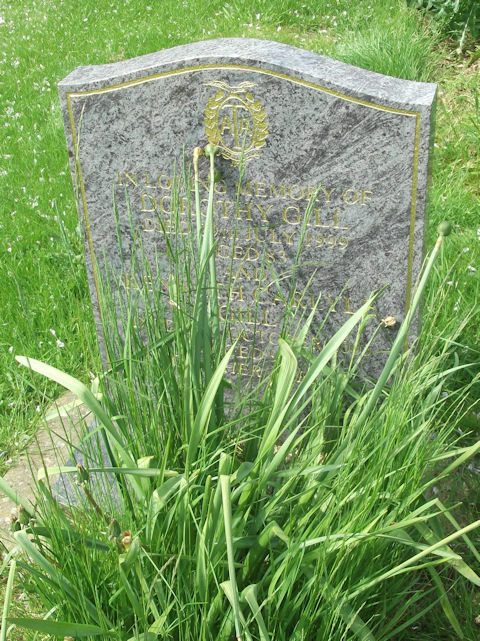
In loving memory of
DOROTHY GILL
died 29th july 1999
aged 83
and
KENNETH CARLYLE
GILL
died 29th october 2005
aged 90
together at rest
-
Gleave, Sydney
M.152 First Officer Sydney 'Syd' Gleave 
b. 31 Jan 1905, Bosley, Macclesfield 8 Aug 1940 to 2 Mar 1942
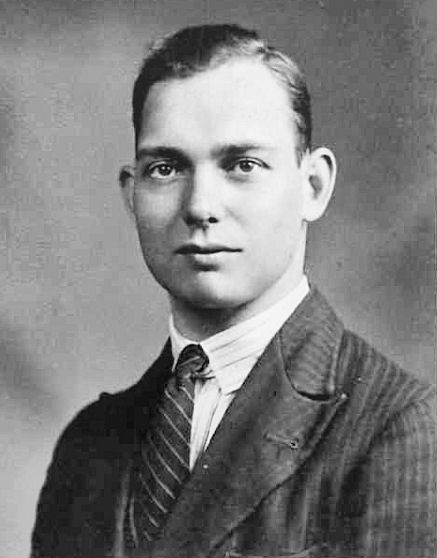 1932
1932m. 1931 Dora [Clarke, divorced 1943], but gave his sister, Lucy Isobel Gleave, as next-of-kin in 1940
Ran his own motorcycle business: "Gleave Motors", and developed his own 'Syd Gleave Special' motorcycle. With this he competed in races from 1928-35.
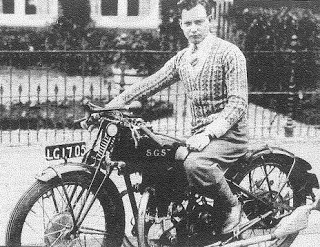
See http://reddevilmotors.blogspot.co.uk
Syd owned 1930 Avro 616 Sports Avian G-AAYU, which had flown in the 1930 King's Cup Race piloted by Jack Cantrill. He bought it in February 1936, flew it in the 1936 London to Isle of Man Race (coming fifth out of 20 starters) and the Manx Air Derby (coming 13th), but he wrote it off at Cheltenham later that year:
"PILOT'S DRAMATIC TALE
The wreckage of an aeroplane perched on top of a Cotswold hillside field to-day remained as evidence of the dramatic and almost miraculous escape of two airmen from death. The pilot, Mr. Sid Cleave, of Macclesfield, well-known T.T. rider and survivor of a remarkable racing crash a year ago, is today out and about, showing litte sign of the experience.
His passenger, Mr. Geoffrey Males Holt, of Manchester, is in Cheltenham General Hospital with a compound fracture of the right ankle and injuries to the head.
Mr. Gleave last evening told the "Echo" his dramatic story of the crash during the fog which enveloped parts of the Cotsvvolds as he and his friend were flying from Bournemouth to Macclesfield. "The visibility was nil," he said, "and as we were flying down a valley a bank of clouds came down in front of us. Although we attempted to turn we went into it, and the wing tip hit the top of the hill."
Mr. Gleave has recently recovered from a terrible accident while riding in the T. T. last year. He was thrown when travelling at about 110 miles hour. He was hurtled along the road and finished up by crashing into wall. It was found that he had no fewer than 44 bone breakages."
Fleet Air Arm 1938-40
In 1939 he was one of two golfers who played five games of golf within 24 hours on courses in Scotland, Ireland, England, the Isle of Man and Wales, for a £100 bet. He and professional golfer Ernest Smith flew 1,000 miles, walked thirty miles, and "went hungry". They started at 3.30 a m., by the light of road lamps, at Prestwick, Ayr, and then flew to games in Newtonwards, Ulster; Castletown, Isle of Man; Blackpool, and Hawarden, North Wales. "A condition of the wager was that Smith should average under eighty over the five courses. He won with an average of seventy two."
Address in 1940: 388 Buxton Rd, Macclesfield
Postings: White Waltham, Ratcliffe, Ringway
[Contract Terminated 2 Mar 1942] "in order that you may undertake the post of Test Pilot with AV Roe & Co. Ltd."
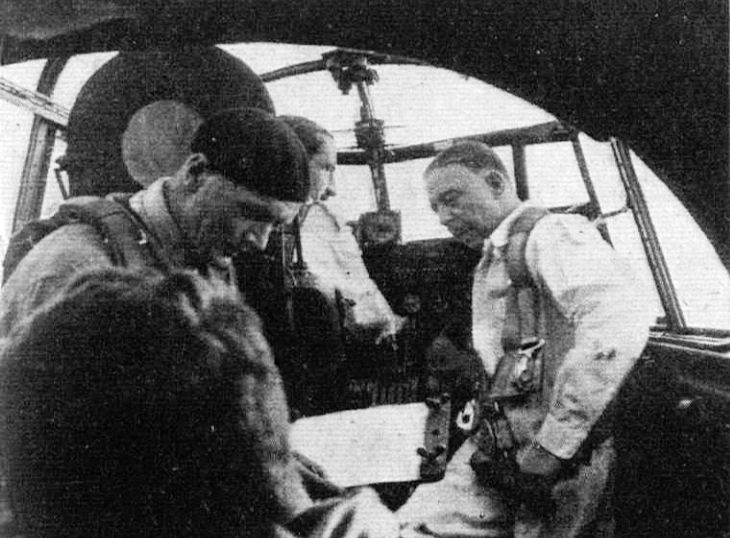
As 2nd pilot in a Lancaster with Bill Thorn and Roy Chadwick in 1942 (Flight)
d. 11 Sep 1944 in Lancaster III PB579; one of every 10th aircraft that was checked to its terminal velocity dive speed of 375mph to verify control effectiveness and ease of recovery. During the dive the fuel jettison pipes tore off, hit the tailplane and stripped the elevator skin. The aircraft dived vertically into the ground at Alderley Edge, three miles south of Woodford. This was the only fatal accident involving a Lancaster out of the 3,958 tested at Woodford.
"To assist in the identification of two men who lost their lives in an aeroplane crash near a Midlands town on September 11th, pieces of clothing, a tie and a pen-knife, were produced at the inquest at Wilmslow (Cheshire) to-day. The men were identified as Sydney Gleave, 39, test pilot for Messrs. A. V. Roe and Co., Ltd., and a former racing motor cyclist, and Harry Lewis Barnes, 41, a flight engineer, of Wilmslow.
Charles Stewart Riseley, member of the Observer Corps, who plotted the plane, said it was flying about for half an hour, and the first indication he had of anything being abnormal was when he saw it in a power dive. It came out of the sun with engines running, and dived almost vertically at a speed of between 500 and 600 miles an hour."
Sydney, his parents, and 3 of his 4 sisters are commemorated together
-
Godwin, William Lionel
M.432 First Officer William Lionel Godwin 
b. 15 Jan 1914, Newport Monmouthshire 16 May 1941 to 30 Apr 1944
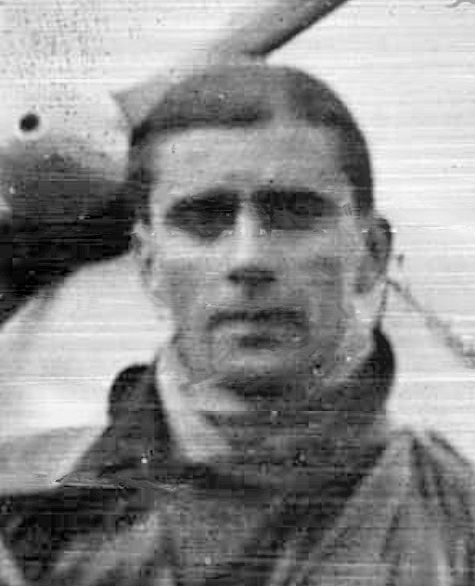 1939
1939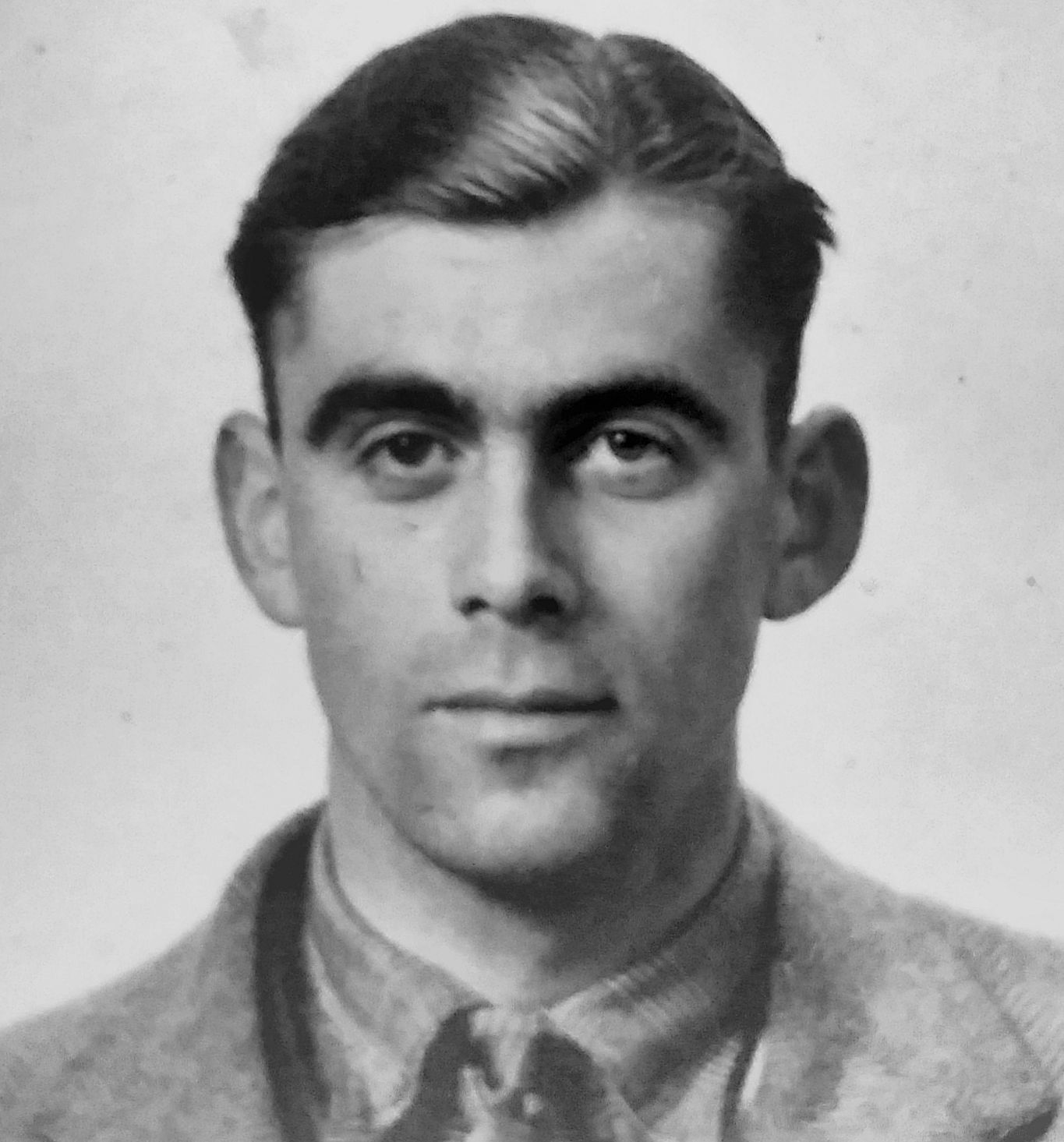 ATA
ATAEd. The College, Weston Super Mare
Next of kin: (mother) Mary Selina Godwin
prev. Sergeant in RAF Class F Reserve Aug-36 to Sep-39 [Ser. No. 700650],
then an accountant for Somerset County Council, Taunton
prev. exp. 109 hrs on Hart, Tiger Moth, Swallow and Oxford.
Address in 1941: 15 Wilton Gardens, Weston Super Mare, Somerset
William originally applied in August 1940; "I have seen it stated in Flight that you are urgently in need of more pilots in A.T.A. and I have felt moved to write to you. On May 20th this year I was suspended from the RAF as being unlikely to to make a good service pilot because (a) I get air-sickness in violent manoevres (aerobatics etc), (b) ears give some trouble during rapid descents and I am ny nature rather cautious.... If you want an interview, I should be able to come to London this week as I am on leave. However, if you think this is all rather bats - please say so, - gently, in the enclosed envelope."
ATA did not think it entirely bats, but it took them until the following April to give him a flying test ("Flies and lands well. Is not flustered in an emergency, though he reacts rather slowly", and follow up his references ("I have much pleasure in testifying to the personal character of Mr W L Godwin, a member of the permanent accounting staff of this Council.") and offer him a position as a ferry pilot.
Postings: 6FPP, 1FPP, 8FPP
"A keen pilot of average ability, slow to adapt himself and should consequently be progressed gradually on to subsequent types." "A quiet and likeable officer."
m. Mar 1942 WAAF Corporal Sylvia Mary [Earwicker] from the Dental Centre, School of Technical Training, RAF Henlow, Beds.
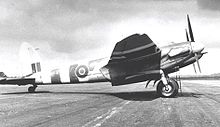
d. 30 Apr 1944 (Died in ATA Service), in Mosquito MT192, which crashed 2 miles S of Litchfield: "At about 8,000 ft, the A/C turned to port and then dived. At about 200 ft. the machine flattened out, hit the ground and was totally destroyed. Insufficient evidence to determine the cause of the accident but available evidence indicates that the pilot was not responsible."
His C.O., Norman Whitehurst, said "I have always regarded him as one of my most reliable and progressive pilots. He was a man of splendid character, whose discipline was of the highest order, and had he survived would undoubtedly have reached a much higher rank in this organisation. His flying was exceptional, and in this respect he set a first class example to his colleagues."
Download ATA Pilot Personal Record (.zip file):
-
Golding, Percy Cecil
M.314 First Officer Percy Cecil Golding 
b. 3 Dec 1911, Plymouth 1 Mar 1941 to 31 Dec 1945
[1,766 days]
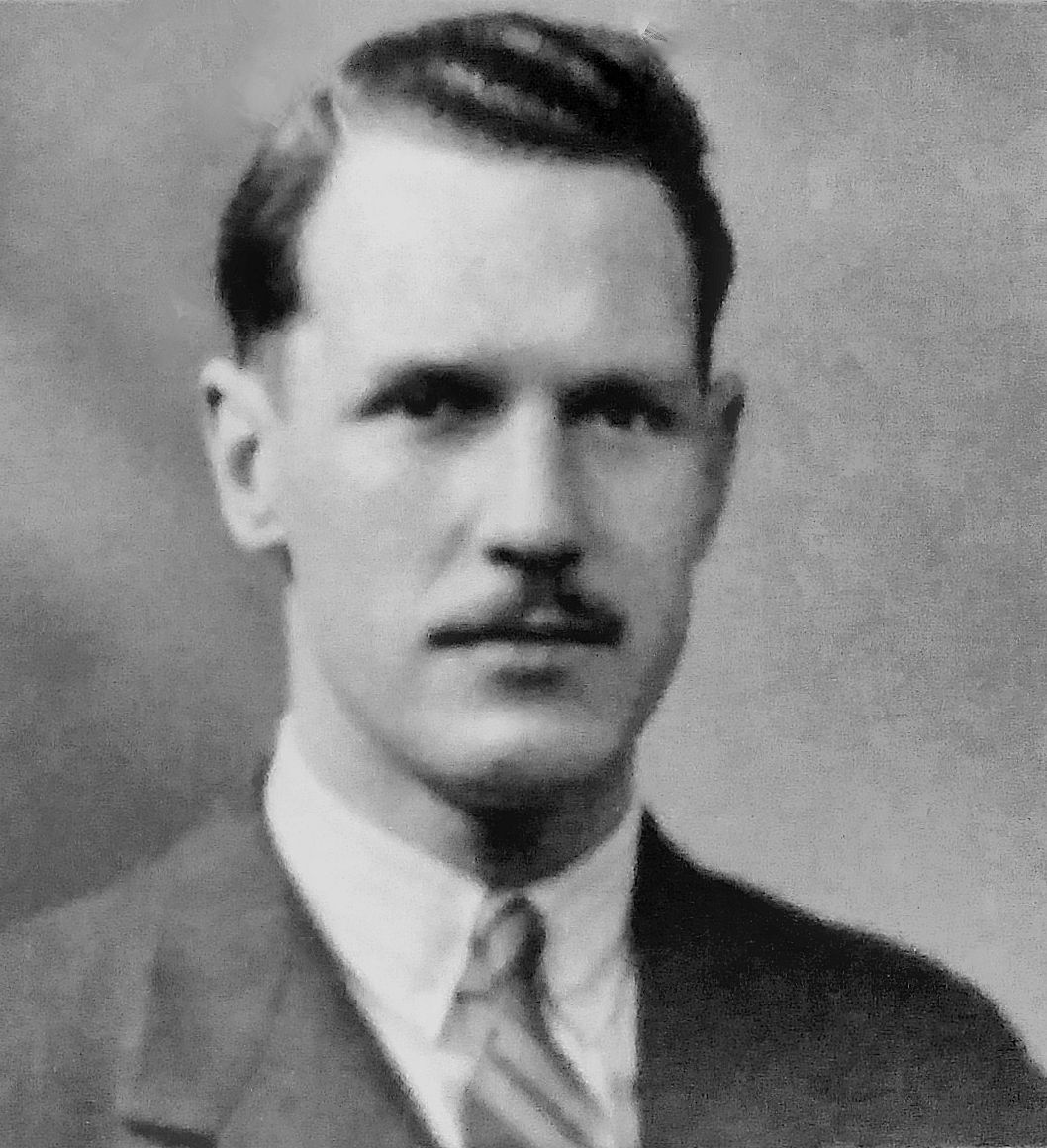
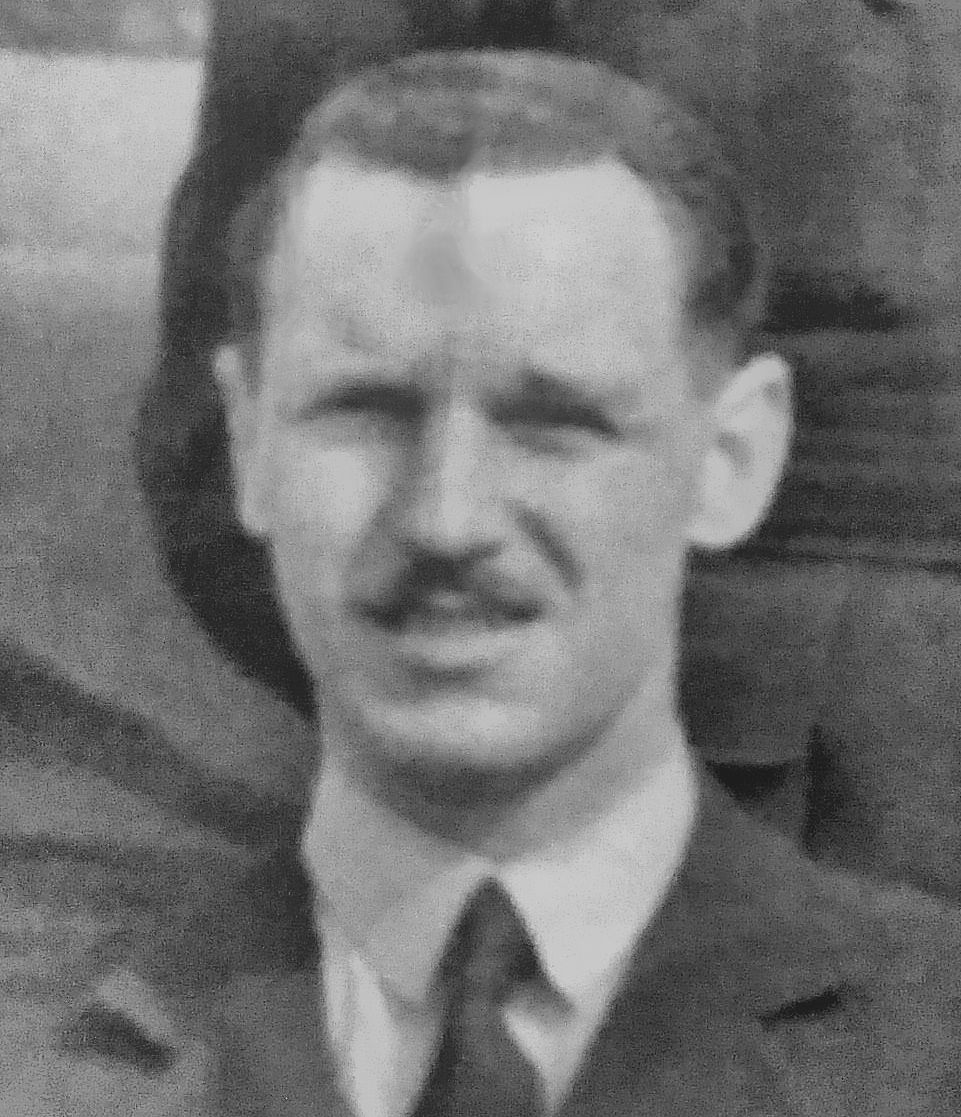 ATA
ATA"Second finger right hand malformed"
Ed. at Devonport College, Plymouth
m. 1939 Adelaide B [Stephenson]
prev. an 'Official' in Sun Life Assurance Society, and 1 year in 'a Banking Firm'
RAF Sergeant Pilot from 17 Sep 1939 to 21 Jan 1941
Address in 1941: 37 Bemberley Avenue, then 114 Hurst Grove, Bedford
Postings: 6FPP, 1FPP
He was absent for 4 months in 1944 due to a motor accident, and suspended for 7 days without pay in Sep-45 for 'Low Flying'.
"A keen pilot who I think is apt to underestimate his own ability", or "Had some difficulty at the commencement of training apparently due to the fact that he considered the Halifax an easy proposition."
One of the very last batch of pilots to leave the ATA at the end of WWII.
After leaving the ATA he lived at 53 Philpotts Avenue, Bedford, and became a civil pilot.
d. 15 Mar 1949 at Gatow Aerodrome, during the Berlin Airlift (26 Jun 1948 – 30 Sep 1949).
He was the pilot of Skyways Avro York G-AHFI, which lost control while approaching Gatow; the port wing dropped and the aircraft dived into the ground. Two other Skyways staff - co-pilot Henry Thomas Newman and Radio Operator Peter James Edwards - also died.
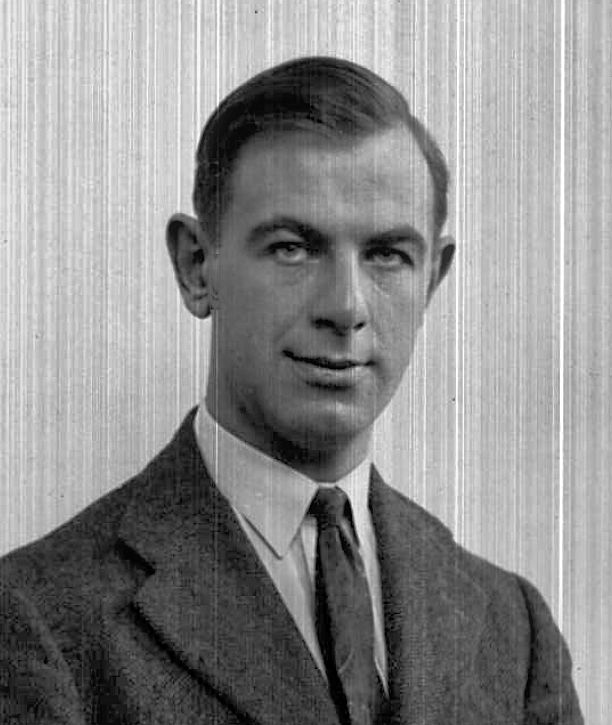 Henry Thomas Newman in 1946, aged 22
Henry Thomas Newman in 1946, aged 22
-
Golege-Steel, Donald Henry Arthur
M.102 Flight Captain Donald Henry Arthur Golege-Steel 
b. 9 Nov 1909, London 14 May 1940 to 20 May 1943
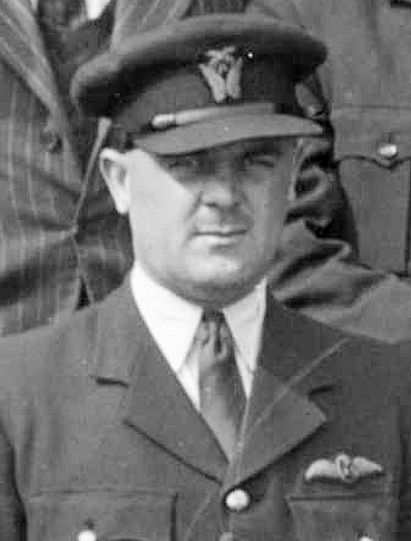 ATAM
ATAMm. 1933 Eloise [Edwards, divorced], 1939 Constance [Nye, 1 daughter b. 1940], 1965 Barboro [Norgaard or Lind]
prev. RAF 1929-32, [dismissed after a court martial], then a pilot for Birkett Air Services
prev exp. 3900 hrs
Postings: 1FPP
At first, "an excellent pilot, but not one to put himself to excessive discomfort in the execution of his duties.", but eventually "he performed the duties of Flight Captain with distinction and has show exemplary aptitude for the organisational side of the organisation. An influential and respected member of the pool."
Post-WWII, a pilot for Scandinavian Airlines; in 1948, in New York, he refused to take a load of (dead) deer; "No soap", he (allegedly) said, "They smell too bad. It would keep the passengers awake. Take them off."
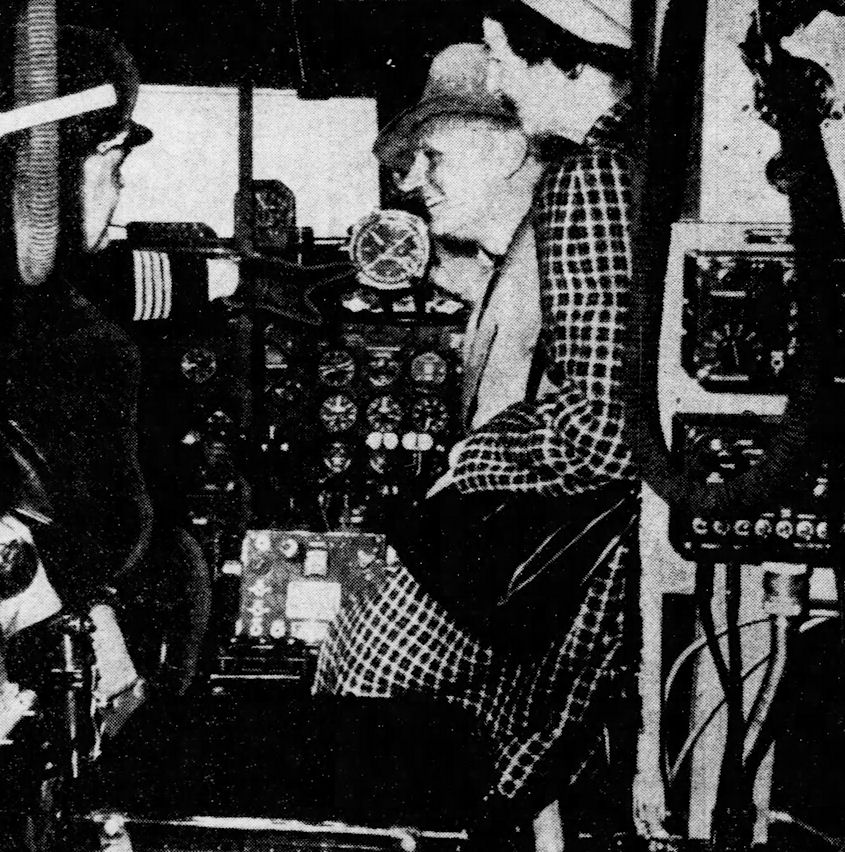
OK, this is the only other photo I could find of him. That's him on the left, explaining the controls to Governer Youngdahl of Minnesota before flying them from New York to Copenhagen in 1948.
d. 21 Dec 1983 - Hurley, Maidenhead
-
Goodman, Daphne (W.---)
W.--- Cadet Daphne Goodman 
b. 1 Mar 1922, Surbiton 27 Aug 1943 to 13 Nov 1943
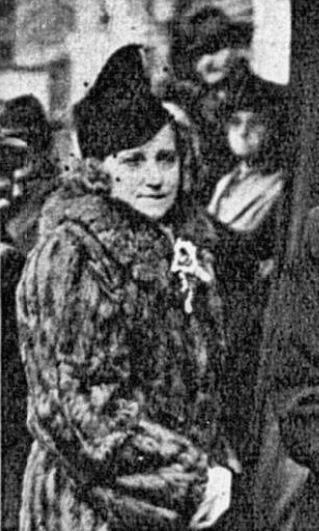 possibly this is her, in 1948
possibly this is her, in 1948Father: W N Goodman
Ed. Bedales School, Petersfield, Hants
prev: Civil Servant, Ordnance Survey from Sep 1942
Address in 1953: 4 Brook Gardens, Kingston Hill, Surrey
ab initio trainee
[Contract Terminated by ATA]
m. Jul 1949 in Surrey, Peter Derrick Newington, a TV film maker (1 son, 1 daughter, marriage dissolved)
d. c. 2010, in Abbey Rd, London
-
Goodwin, Lawrence Frederick
M.591 First Officer Lawrence Frederick Goodwin 
b. 16 Nov 1912, London 9 Jul 1941 to 30 Nov 1945
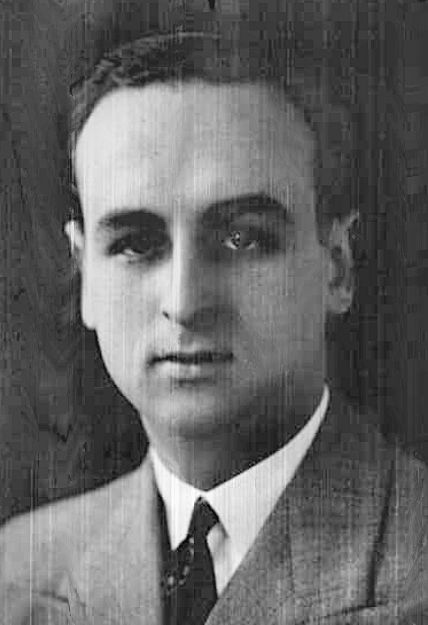 1937
1937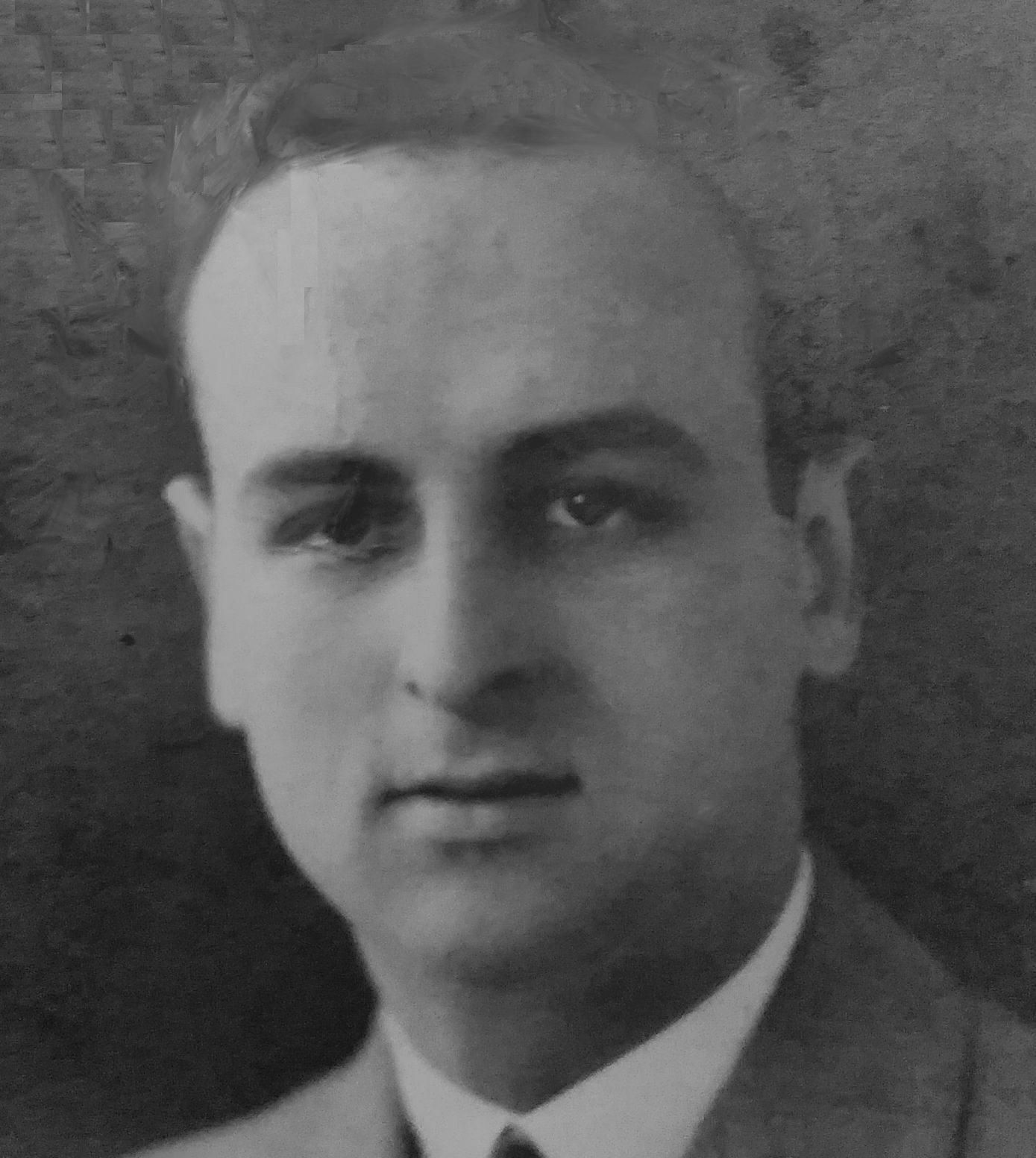 ATA
ATAFather Frederick Charles Goodwin
Ed. Portsmouth Grammar School
m. 1937 Rebecca 'Betty' [Brilleslyper]
prev. a Company Director, then The Admiralty, Deptford [Royal Naval Motor Transport]
prev. exp. 49 hrs
Address in 1941: 295 Lewisham High St, London SE13
Postings: 16FPP, 7FPP, 1FPP
To begin with, "Works well up to his ability, inclined to nervousness and over cautiousness." but improved later and successfully completed Class V (4-engine) training in 1944.
-
Gore, Margaret Wyndham (W.10)
W.10 Commander
4-engine (Class 5) pilot
Margaret Wyndham 'Margot' Gore MBE, Doctor of Osteopathy (DO) 
b. 24 Jan 1913 in Worthing, W. Sussex. 25 Jun 1940 to 30 Nov 1945
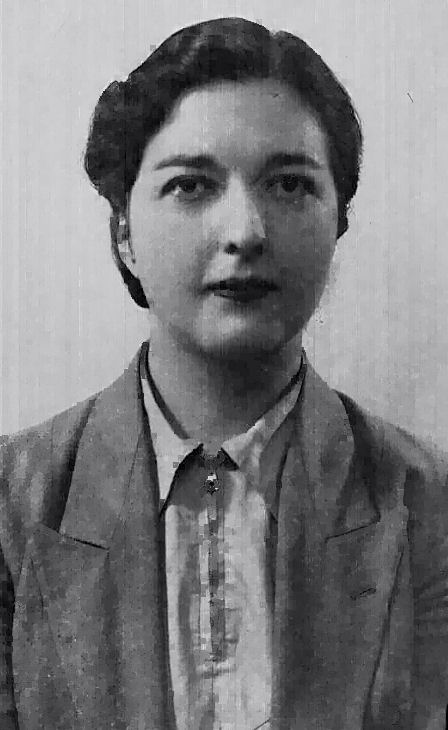 RAeC 1938
RAeC 1938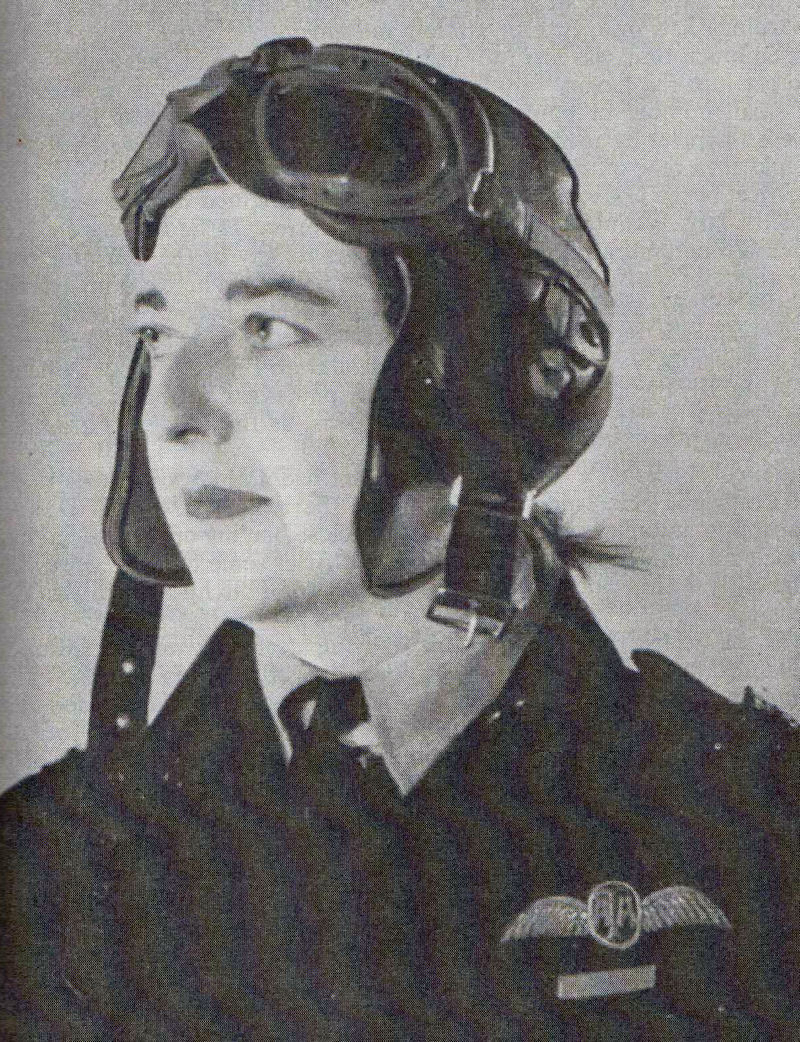 BG
BGFather: William Wyndham Gore, a mining engineer; mother: Martha [Lord]
Ed. Bedford High School (but mainly grew up in Ireland, until 1929).
Having made her first solo flight in Nov 1938 at Romford Flying Club, she was one of the Assistant Instructors there by the following September, along with Gabrielle Patterson (whose husband Pat also covered the 'theory' side of things) and Joan Hughes
prev. Secretary, British Reinforced Concrete, then at Smithfield Market
Postings: Hatfield, 15FPP, 1FPP
On the outbreak of WWII, she was one of the second batch of women pilots for the Air Transport Auxiliary (ATA), starting on the 25 June 1940 as 'W.10' - the 10th woman pilot. She was consistently praised, both for her flying and her organisational ability: "First Officer Gore is a very steady and reliable pilot and has undertaken responsibilities in the office which she has carried out well."
Eventually, she was promoted to be Officer Commanding, No 15 Ferry Pool of women pilots at Hamble - one of only two women to achieve the rank of 'Commander', the other being Marion Wilberforce.
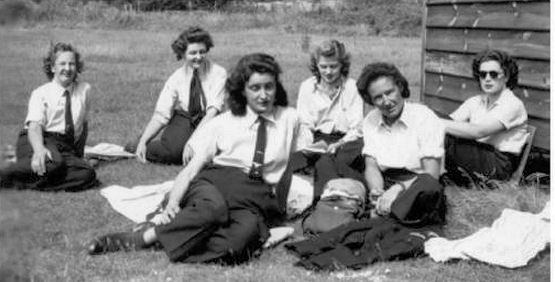 15 FPP pilots, between flights.
15 FPP pilots, between flights.She was also one of the 11 women cleared to fly 4-engined aircraft, which she did so from May 1943 - "A keen and confident pilot of above average ability", but once she took over as OC Hamble, she cut down her flying hours considerably, prompting the Head of the ATA (Gerard d'Erlanger) to write "In her capacity of Commanding Officer, No 15 Ferry Pool, Commander Gore runs her Pool in an eminently satisfactory manner. However, I am very surprised that she has only done some 5 hours flying in seven months on ferry types. There may be some reason for this of which I am unaware, but if not she must make every effort to put in time."
And finally, she was one of only 6 women to get a medal for her service in the ATA - an MBE in 1946.
[The other MBEs were Felicity Bragg, Pauline Gower, Joan Hughes, Roy (Mary) Sharpe and Rosemary Rees, although Phillippa Bennett, Victoria Cholmondley and Elisabeth May got 'Commendations'.]
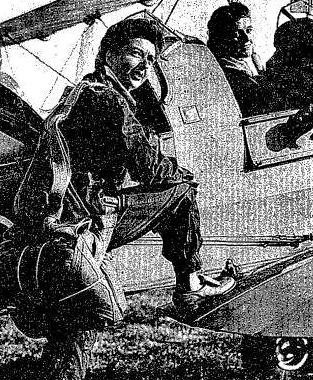 Margot and Joan in 1947 (The Times)
Margot and Joan in 1947 (The Times)In 1947, she signed on as 'Recruit No. 1' for the Women's Auxiliary Air Force Volunteer Reserve (Flying) List, designed to train pilots for non-operational duties in emergencies. Joan Nayler, another ATA Woman pilot, was No. 2.
She then became Managing Director of the West London Aero Club.
In 1948, she was called by the prosecution at the court martial of her elder brother, Colonel Thomas Gerard Gore DSO, OBE, on charges which alleged that he had received money from a Mr Newman, knowing it came from the sale of stolen arms.
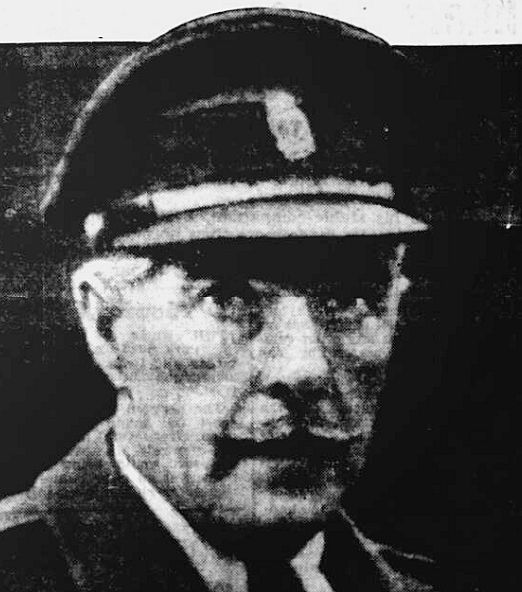
Margot testified that "her brother had never been very good at business affairs or, anything that demanded a high degree of intellectual effort." [Ouch]
Colonel Gore was sentenced to be cashiered and serve two years imprisonment. Major-General James D Dennlson, Director of Ordnance Services at the time of the Invasion of Normandy, told the Court that he had referred him as "a problem child," but said that Colonel Gore was a first-class leader in war-time."
In 1952, aged 39, she passed out as Gold Medallist (of course) at the British School of Osteopathy and later practised as an osteopath, eventually becoming (of course) its Chairman.
In retirement Margot was "an enthusiastic golfer".
I bet she was good at that, too...
d. 28 Aug 1993 - Sue Ryder Home, Nettlebed, Oxfordshire.
This is her memorial in Maidenhead Cemetery:
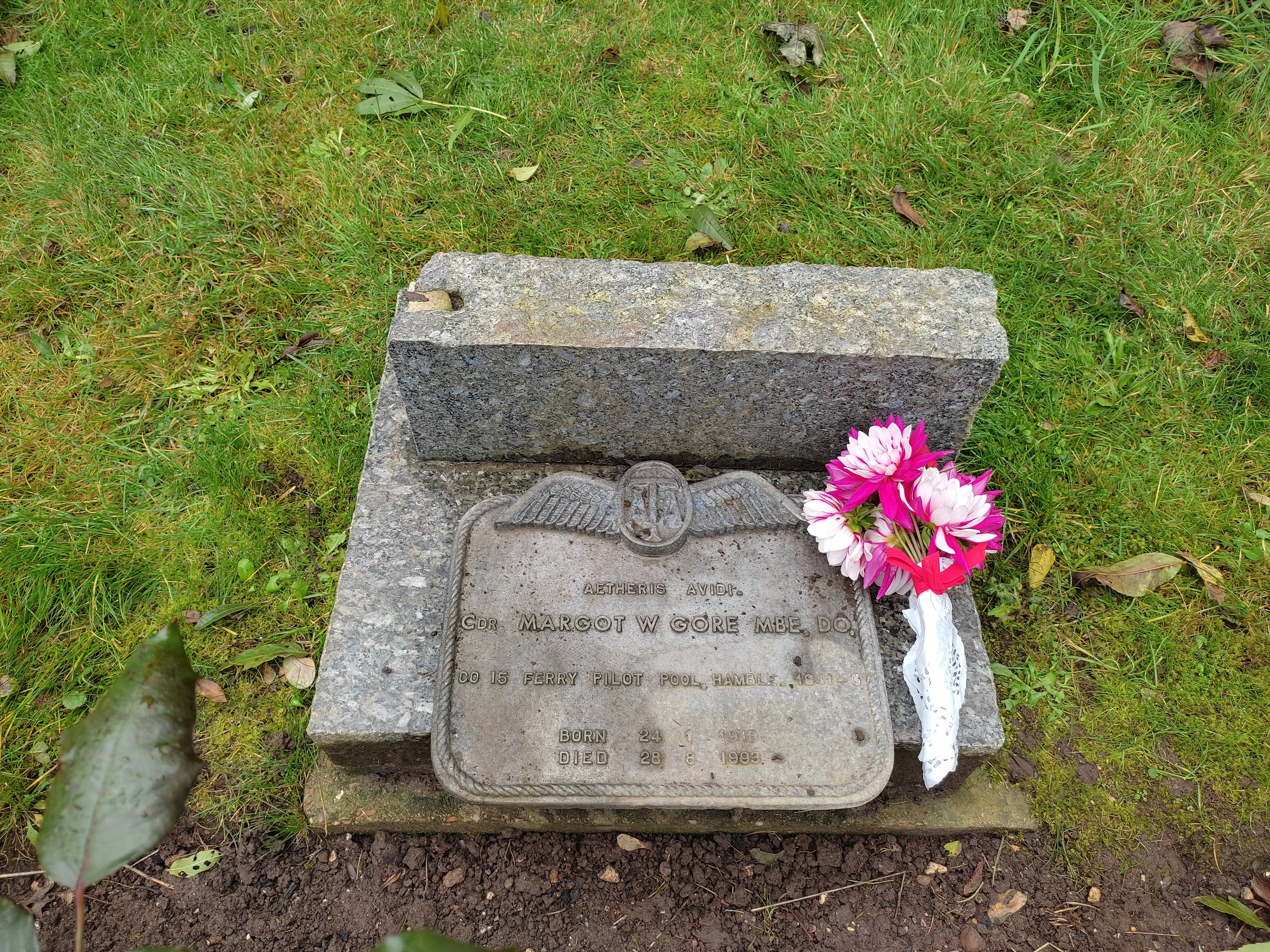
Download ATA Pilot Personal Record (.zip file):

IWM interview here: https://www.iwm.org.uk/collections/item/object/80009075
-
Gough, Joyce (W.149)
W.149 3rd Officer Joyce 'Joy' Gough 
b. 14 Feb 1923, Cirencester, Glos 28 Dec 1943 to 30 Sep 1945
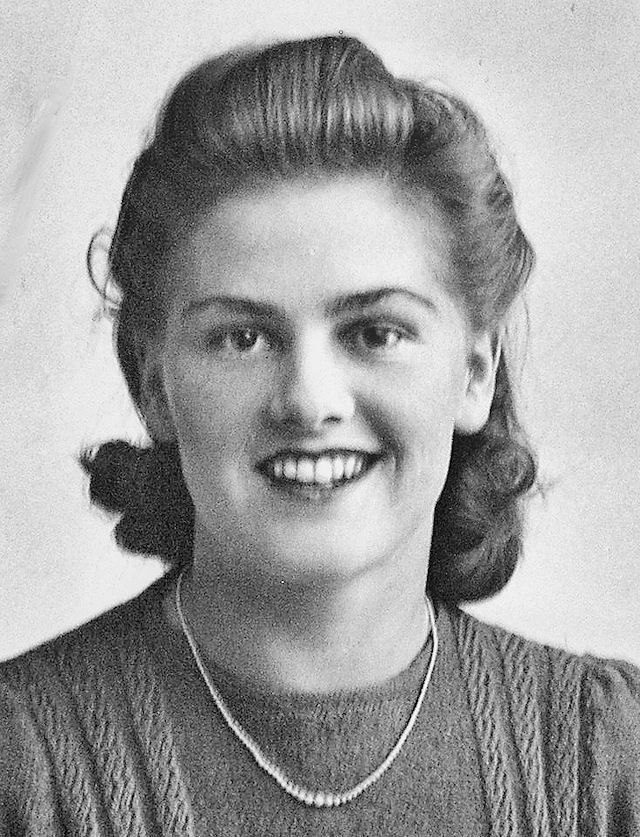 ATA
ATA[see also Yvonne Wheatley, her elder sister, also an ATA pilot]
Father: Arthur Victor Gough, a professional footballer turned hairdresser, mother Doris Irene Alexandra (Herbert]
Ed. Stratton School, Cirencester Grammar School
prev: Cashier, Lloyds Bank, Cirencester
Address in 1943: Galba Villas, Prospect Place, Cirencester
Postings: 5TFPP, 15FPP, 12FPP, 7FPP
Ab initio Trainee
One accident:
- 3 Feb 1945, forced landing after she discovered that the hood of her Spitfire Vb EP661 had "been blown away", reason unknown
Class III pilot
Gained her Royal Aero Club Pilot's Certificate (No 20586) as part of the ATA's 'Wings' scheme on 29 Sep 1945
m. 1945 in London, F/O Jiri HartmanDFC, formerly Cmdr, 'A' Flight, 310 (Czech) Sqn, RAF
Joy and Jiri moved to Prague, but had to flee back to the UK in 1948 after the coup d'etat.
m. Jun 1971 in Warwickshire, Charles James Lofthouse, who had been an RAF Lancaster pilot and PoW in WWII (d. 2002)
She became a Special Needs Teacher

Joy (2nd from right) at the unveiling of the ATA Memorial in Hamble-le-Rice, 2010
d. 15 Nov 2017
Download ATA Pilot Personal Record (.zip file):

interviewed here: https://www.iwm.org.uk/collections/item/object/80009633
-
Gould, Gilbert Christopher
M.881 First Officer Gilbert Christopher Gould 
b. 13 Jun 1906, South Godstone 6 Aug 1941 to 8 Feb 1945
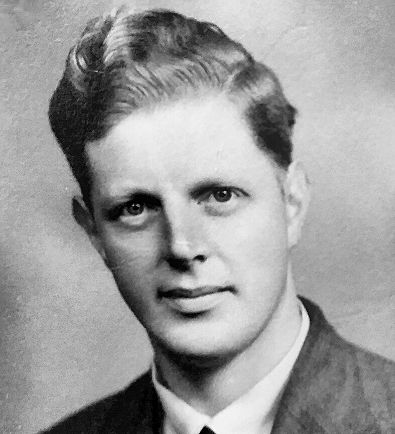 ATA 1941
ATA 1941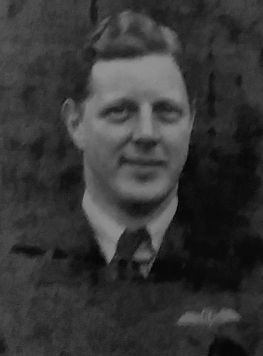 ATA 1944
ATA 1944Father: Gilbert, mother: Grace Mildred
Ed. Reigate Grammar School; Goldsmith College, University of London
m. Aug 1931 Esme Maud [Knight, "a well known teacher and vocalist"], 2 children Mary and John b. 1932 and 1937
prev. a schoolmaster in Surrey. RAFO F/O, 1929-1939
prev. exp 80 hrs on DH Moth and 9J, Avro Cadet & 626. One of the founder members of the Surrey Gliding Club at Redhill.
Address in 1941: 'Tanglehedge', Limes Estate, Felbridge, East Grinstead, W. Sussex
Following Lord Londonderry's radio appeal for pilots in March 1941, he applied to the ATA and was given a 15-minute flight test on 7 June; "Good, except for approach and landing".
Postings: 12FPP, 1FPP
Having started as a Pilot Cadet in August 1941, his flying contract was terminated on the 24 Feb 1942 because "an attempt to convert him to Class 2 has revealed that he is unlikely to become a service type pilot", and he was moved into ATA's Accidents Committe, as Joint Secretary (with Gerald Merton), and promoted to Third Officer.
In July 1942 he was 'called up' to the RAF and duly reported for attestation, but the RAF then granted him secondment, back to the ATA, initially until 1 Feb 1943. Further extension might be possible, they said, but only if he was to be employed as a ferry pilot.
He was duly reinstated as a ferry pilot in February 1943, (they described him as "not a very brilliant pilot", but all agreed that he was doing invaluable work for the Accidents Committee) and began negotiations with the RAF to keep him. Eventually, in August 1943, the RAF agreed to extend his secondment whilst he was employed on the Accidents Committee.
He was off sick from 19 Oct to 11 Nov 1943 with "Anxiety State and Depression", and was taken off flying duties again and promoted to First Officer.
His C.O. by this time was the aforementioned Gerald Merton, who reported in Feb 1944 that "He is very keen on his investigational work and does it well. I have had difficulty with him in the past because of his unwillingness to accept and carry out orders from me, and his inclination to be evasive... Recently however, his attitude has been more helpful. A normal increase in salary seems justified."
Towards the end of 1944 however, accidents by then being less frequent with the run-down of ATA, he agreed to return to flying duties, and performed as a "most useful taxi pilot" for 1FPP.
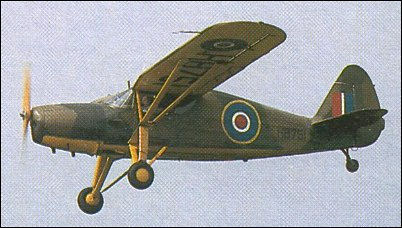
d. 8 Feb 1945, in Fairchild Argus HM188, which hit a survey pylon in bad weather and poor visibility, and crashed in Nor Wood, near Leatherhead, Surrey during a ferry flight from White Waltham to Gatwick (Southern Aircraft Co.).
He was held to blame for the accident, having persisted too far into bad weather.
Cremated at Golders Green Crematorium, Barnet, London
"He took a keen interest in local affairs. He was Hon. Secretary to the Parochial Parish Council." - Crawley and District Observer
"He is not dead, he doth but sleep" ..this knowledge will help me to carry on to fit his children to take their place in the better world we hope to build. .. I am proud that I was privileged to be his wife.
Yours Sincerely, Esme Gould"
-
Gover, Thomas Edward
M.944 * 3rd Officer
[Seconded from RAF]
Thomas Edward Gover 
b. 6 Sep 1922, Taunton ? 14 Jul 1943 to 30 Apr 1945
d. 17 Mar 2010 ?
-
Govett, Vincent George
M.448 First Officer Vincent George Govett 
b. 1910, Islington, London 12 Jul 1941 to Sep-41
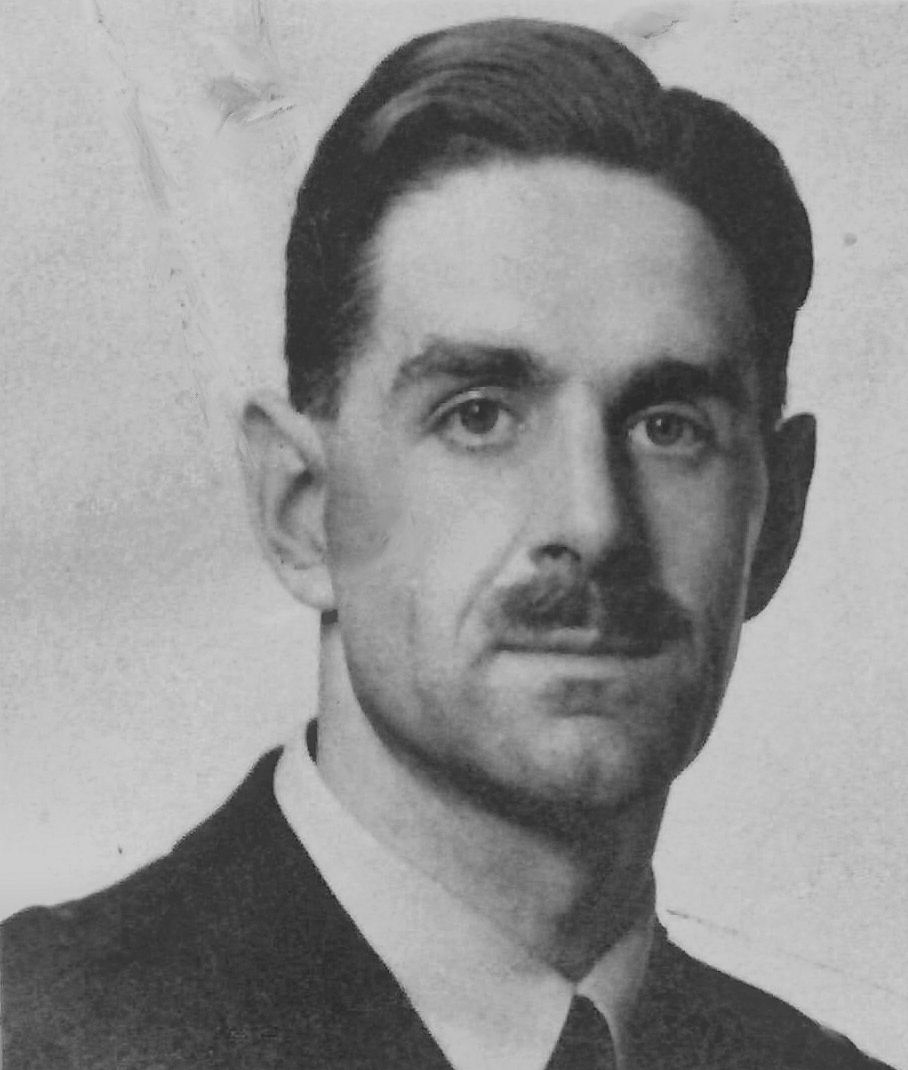
ATA
RAF from 1931; 33 Sqn Bicester from 1932, 503 Sqn Waddington from 1934 then the Anti-Aircraft Co-operation Unit, Biggin Hill from 1936.
May 1932: "GRANTHAM AIRMAN FINED Vincent George Govett. of No. 3 Flying School, R.A.F., Grantham, was fined 5s at Lincoln Police Court to-day for not having a red rear light on his motor-cycle and 5s for failing to illuminate his identification plate in Lincoln High-street on May 7."
Flt-Lt in RAF Reserve; BOAC, Bristol
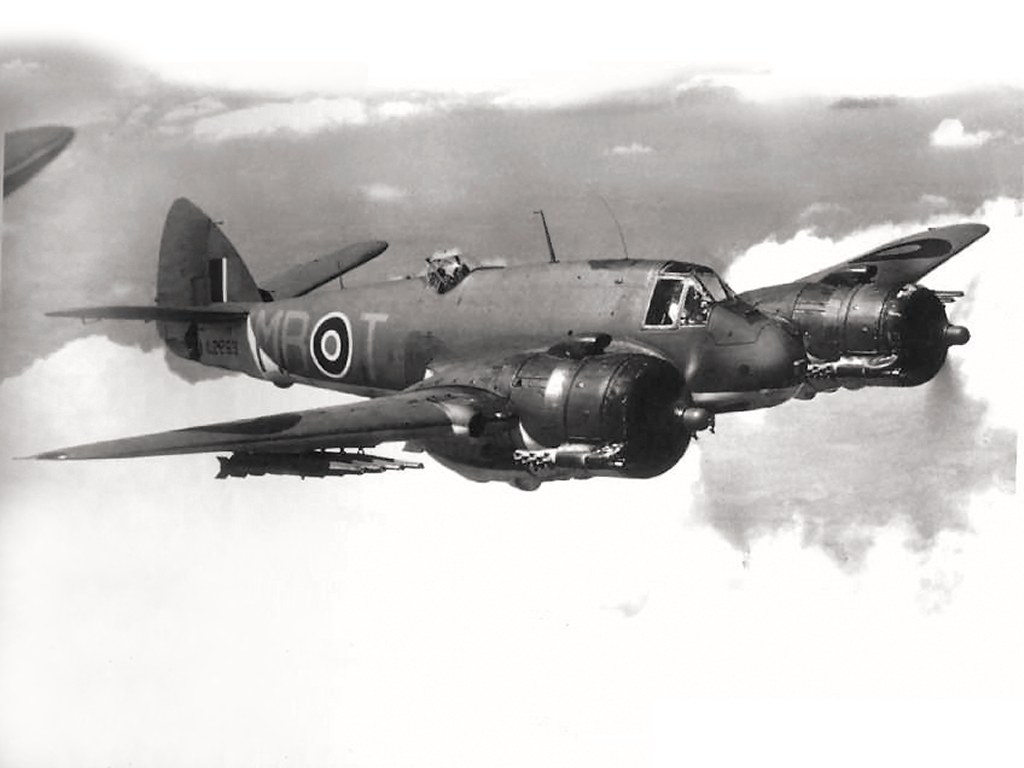
d. 8 Sep 1941 (Died in ATA Service) - Beaufighter X7640 crashed 3 miles SW of Capel Curig, Snowdonia
-
Gower, Pauline Mary de Peauly (W.25)
W.25 Senior Commander Pauline Mary de Peauly Gower MBE
Mrs Fahie

b. 22 Jul 1910, Tunbridge Wells 1 Dec-39 to Oct-45
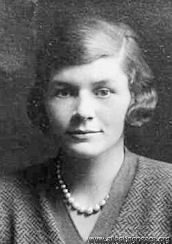 RAeC 1930
RAeC 1930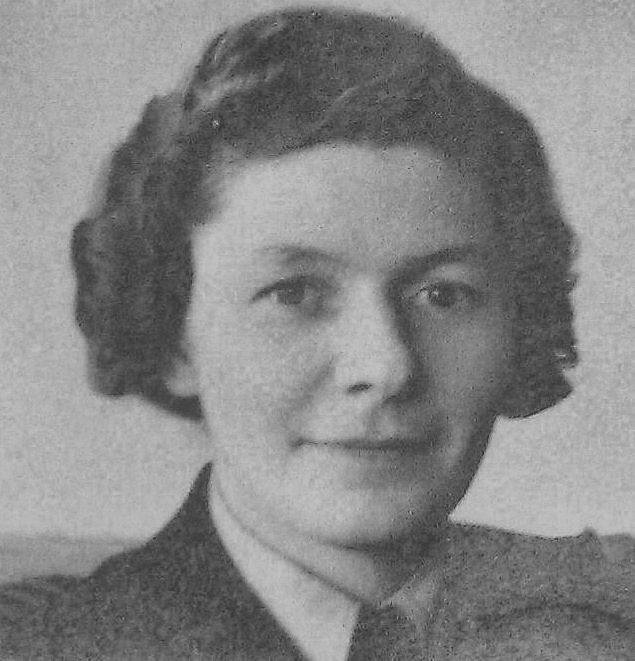 ATA
ATA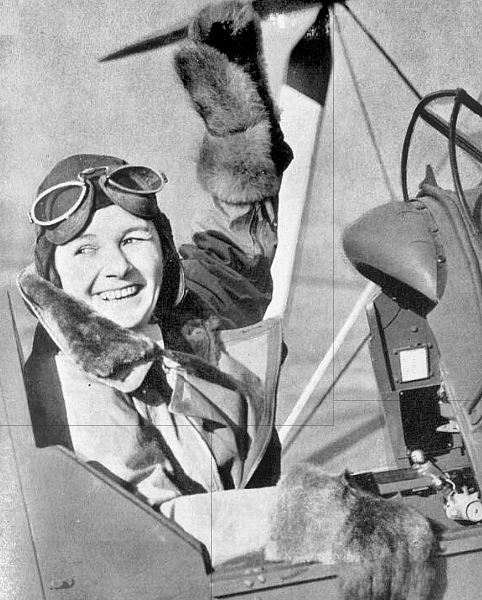
5 feet 5 in height, in case you wondered.
"In England you can count on one hand the women who are making a living directly from flying. Probably foremost among them are the two girl flyers, Pauline Gower and Dorothy Spicer, who work in partnership at joy-riding. Miss Gower is the pilot and Miss Spicer the mechanic."
Amy Mollison, writing in 1934
"Pauline Gower, one of the few women who has already achieved a successful commercial flying career, did joyriding last year in 185 different towns with a travelling air circus."
Mary Bertha de Bunsen
She was fined £222 in 1933, having taxied her Spartan into a stationary Moth at Cardiff while giving joy-rides in an air pageant (although she reckoned it had definitely moved since she checked where it was). Three years later, she was taken to hospital suffering from concussion and 'lacerations of the scalp' after she... collided with another aeroplane on the ground, this time at Coventry airport.
She owned:
a 1929 Simmonds Spartan, G-AAGO, (the one which she wrote off in the taxying accident in Cardiff in August 1933), and then
a 1931 Spartan Three Seater, G-ABKK, the one which she wrote off in the taxying accident at Coventry in May 1936.
During her air-taxi career, she was reckoned to have piloted more than 33,000 passengers.
In 1937 she, Amy Johnson and Dorothy Spicer invited "all women pilots interested in the idea of a central meeting-place for women aviators in London" to write to them, but I don't think it ever happened.
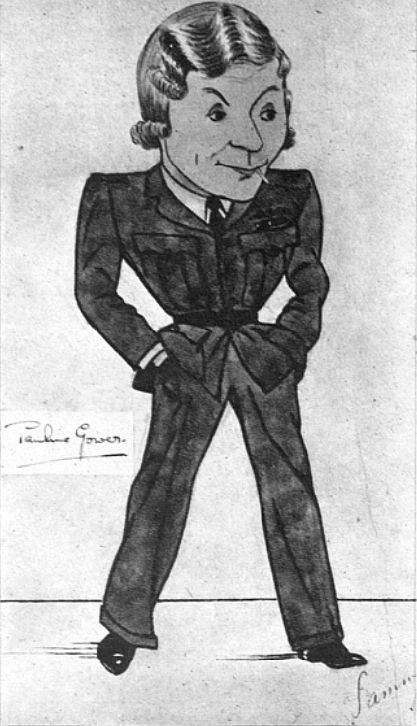 1942 caricature by 'Sammy' Clayton
1942 caricature by 'Sammy' ClaytonFounder and first Commandant of the Women's Section of the Air Transport Auxiliary in 1940; from 1943, a board member of BOAC. She had a narrow escape in August 1943 when 'Fortuna', an old Imperial Airways airliner, with her and 7 other BOAC officers aboard, made a forced landing near Shannon and was written off.
Silver salver presented to Pauline on her wedding day on 2 June 1945, signed by over 90 of the women ATA pilots. (Lois Butler signed twice, though) Click to enlarge.
Married Wing Commander William Cusack Fahie in June 1945, but died of a heart attack in March 1947 giving birth to twin boys, one of whom, Michael, later published 'A Harvest of Memories' about her.
Pauline Gower and Dorothy Spicer - In Memory
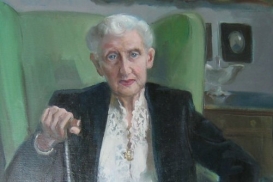
by Claudia Parsons
from "The Woman Engineer", Spring 1948
It is grimly ironical that Mrs Fahie, M.B.E., and Mrs Richard Pearse, better known as Pauline Gower and Dorothy Spicer, after the risks of their early youth and of the war, should meet death, the one through the age-old hazard of child-birth, the other as a passenger in an air liner flying to South America. It is also grimly tragic that these partners who risked, endured and enjoyed so much together should die within a year of each other. Though neither got further than the middle thirties they filled the brief interval between attaining majority and leaving life with a record of hard work, pioneering experience and fine achievement that was as gallant as it was short lived.
Yet in using that word 'gallant' one hesitates, not questioning its truth but out of consideration for the two who achieved this record, whose aim was never more than to pursue a private ambition and to do it well. The word 'gallant' would have been held by them in derision.
I feel honoured to write the appreciation of these two fellow members of The Women's Engineering Society, whose careers I always followed with particular interest since first meeting them on a tour of the Ford works at Dagenham, organised by the W.E.S. Mere babes they then seemed, the one very round of face the other with fairest hair, and it was only in the course of this visit that I learnt their names and remembered having read that Sir Robert Gower, M.P., had given his daughter an aeroplane as a twenty-first birthday present and that now, with Dorothy Spicer as her ground engineer, she was using the plane to give people joy-rides and for aerial taxi service.
In the following years as I watched these two soar ever higher, in the metaphorical rather than the literal sense, I used to ponder this parental gesture which, so early as 1931, might have seemed to many to be rash and courting trouble, and reflected how often really enterprising acts were well rewarded and that here was one that had laid the foundation stone of two successful careers. In this I was not altogether accurate; this was the coping rather than the foundation stone. The gesture was indeed the greatest assistance but in no means were Pauline or Dorothy ever financed or given much moral support in their early ambition, which at first was viewed as a joke by their contemporaries. Like Madame Curie, and others of set purpose, before embarking on their careers they had to find the money with which to train, and in this interest Dorothy spent a year in a London store and Pauline gave violin lessons and lectures at schools. This was while still in their teens and before joining forces, in their twenties, at Stag Lane aerodrome where they decided to go into partnership. Already therefore, in 1931, in spite of opposition and setback, Pauline had her A and B Flying Licences and Dorothy had an A Pilot's Licence and Engineer's Licence, and one rather gathers, reading the pages of Women with Wings - the book the two of them later published - that the hand of Sir Robert Gower was forced rather then held out eagerly with the gift of a two-seater Spartan plane. The gift was advanced only in the face of the inevitable, and as a safety measure, Pauline so often coming home late for meals with harrowing tales of forced landings with hired machines. (The forced landings were not always the fault of the machine.)
Indeed, in those early days of gaining experience, Pauline on a cross-country flight often came down to ask the way; there were narrow margins between forced landings and the petrol running dry; there was the occasion of flying the Channel at 250 feet and of making a forced landing at Brussels and finding it was Liege. Yes, there were many harrowing moments whose memory later made thri blood run cold, but there was also the exuberance and confidence of youth and a very decided will to conquer. It was perhaps typical that in her night flying test for the B Pilot's Licence, after two hours in the air, cut off from the earth by a ground fog that had formed, Pauline, determined not to become panic-stricken, suddenly remembered an old friend - her mouth organ - on which she played 'Show me the way to go home'. And she was shown.
If these two started with a light-hearted attitude towards flying, their subsequent experiences in joy-riding, in joining up with Air Pageants and Air Circuses and in working in all weathers and cvonditions, gave them a far higher sense of respinsibility. They formed themselves into a Limited Liability Company - Air Trips, Ltd. - and worked for two seasons from a field near Hunstanton where they themselves camped beside their plane in a caravan. B~y the time she had carried 3,000 passengers Pauline was foremost among women air pilots in skill and reliability and had added to her A and B Licences a Navigator's Licence and a G.P.O. Wireless Operator's Certificate. Meanwhile Dorothy had had wide experience of servicing machines and in the winter, during enforced flying activity, had studied for her Engineer's Licences, the first woman ever to attain the A, B, C and D Engineering Licences. Pauline often stressed how much the safety of herself and her passengers depended on Dorothy's efficient care of the machine; her praise was equally divided between Dorothy's engineering ability and, on those long periods of camping, her excellent cooking.
It is scarcely necessary to to remind fellow members of the later achievements of these two pioneers. With such experience behind them it is not surprising that they gave valuable service to their country both during the war and in the years preceeding it when they played a leading part in making the public air-minded. Members of the WES will remember papers read by each of them at the September Conference in 1937. In 1938 Dorothy joined the staff of the Air Registration Board and added to her qualifications a No 1 Glider's (Engineering) Licence. Later in this year, and with Pauline as her bridesmaid, she was married to Squadron Leader Richard Pearse who, when the war broke out, was in the RAF Coastal Command. Just before the war Patricia Mary was born and later Dorothy took up war work with the Ministry of Aircraft Production on research in connection with engines in flight. With her husband posted to her Flight, she had the unique opprtunity of working in war-time together with her husband. It was after the war, in December, 1946, and retired from their war activities, that Wing Commander and Mrs Pearse lost their lives in the air liner that crashed near Rio de Janeiro. Their daughter Patricia survives them.
In the meantime Pauline, who in 1938, had obtained an Air Ministry's Instructor's Licence, had been appointed to serve on the Committee investigating the position of civil aviation in this country, and later was made District Commissioner for the London area of the Civil Air Guard. Of her activities in building up the Women's branch of the A.T.A., members of the WES heard her oqn account when, in 1946, she gave us an interesting talk on this subject, accompanied now by her husband, Wing Commander Fahie, RAFVR, to whom she was married in 1945.
When invited to be Commandant of the women pilots in the A.T.A., Pauline stipulated that she must have a free hand in order to do this, a condition for which, interestingly, another great woman pioneer stipulated when asked to take over the hospital service in the Crimea. The fine achievement of the women serving in the A.T.A., their record, and the fact that some of them were finally ferrying heavy four-engined bombers, is a proof of how well Pauline used her powers. In 1943 she was appointed a member of the board of the British Overseas Airways Corporation. Pauline died on March 2nd, 1947, her twin sons surviving her.
That is the record of what they did; a bleak summary of achievements is unavailing, however, unless some mention is also made of what they were. Impressive as their qualifications, achievbements and later honours might be, it was the human side that interested most people, it was their pleasant unaffected charm that everyone noticed. One can pay no higher tribute to Dorothy than to recall Pauline's description of her, referring to their partnership, as one whose 'business' reliability proved always as unfailing as her friendship. There is also the tribute paid by Amy Johnson, who was their friend of long standing and who finally worked under Pauline for the A.T.A. In the foreword she wrote for Women with Wings she refers to staying at Pauline's home at Tunbridge Wells and listening to her and Dorothy singing to the banjulele, and winds up: "I played the part of spectator, admiring the utterly unspoiled character of two girls who have done more than their bit in making aviation history."
They owed their leading position in the field of aviation to hard work and often severe discomfort; they never set out on record-breaking or otherwise spectacular flights; they did what they did because they enjoyed it and it was the thing they had chosen and wanted to master. There was no intention of ending life swiftly and heroically; they had every hope of seeing this precarious century to its final chapter and Pauline in her book prophesied a time when she and Dorothy would be old ladies still flying an antiquated machine and the passengers in a rocket would lean out and say, "Look at those old girls in that pre-historic bus!" Alas, this is no longer a possibility but to what extent air transport has been influenced by the two who will never be old ladies, and whose memory will always be associated with youth, is impossible to measure.
-
Graham, Charles John
M460 * First Officer Charles John 'Kipper' Graham 
b. 28 Mar 1899, London 10 Jun 1941 to 30 Nov 1945
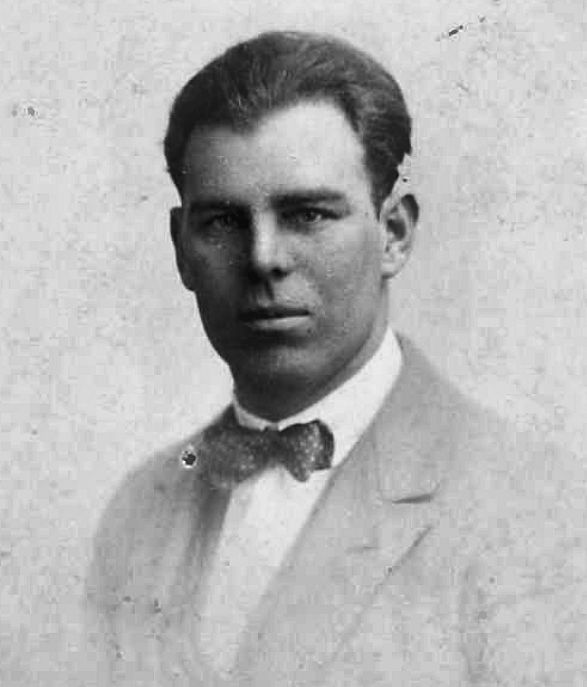 1925
1925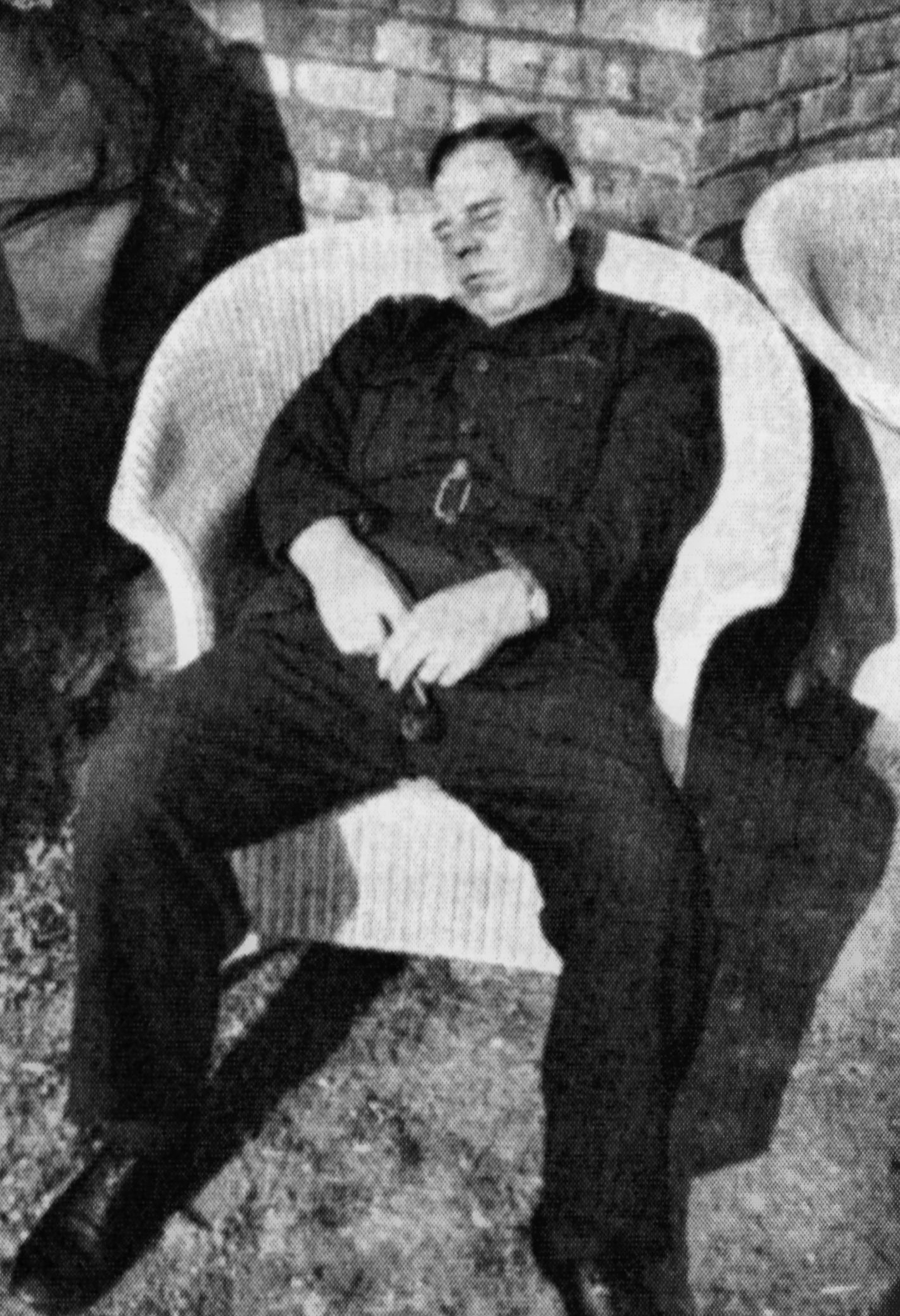 BG
BGprev. a Master Mariner
Address in 1925: Lensbury, Teddington, Middx
Postings: 6FPP, 8FPP, 4FPP
5 accidents, 4 his fault:
- 24-Jul-42, he "mishandled the brakes" when landing in Proctor III HM284, and the aircraft tipped over onto its nose, breaking the propeller
- 15-Nov-43, while taxying, the port wheel of his Wellington X LN861 sank into a soft patch of ground, and the port propeller was damaged
- 18-Jan-45, a forced landing after engine failure in Anson XI NL208
- 19-May-45, he selected 'undercarriage up' after his Anson XII PH699 left the ground prematurely on take-off, the aircraft settled back on the ground and damaged the undercarriage, which then collapsed
- 11-Oct-45, flying Anson I MG582, he persisted too long in bad weather and attempted a forced landing after sunset. The aircraft hit a bank and was damaged.
-
Grant, Malcolm Goss
M.357 First Officer Malcolm Goss Grant 
b. 17 Dec 1914, Croydon 21 Mar 1941 to 28 Aug 1942
[525 days]
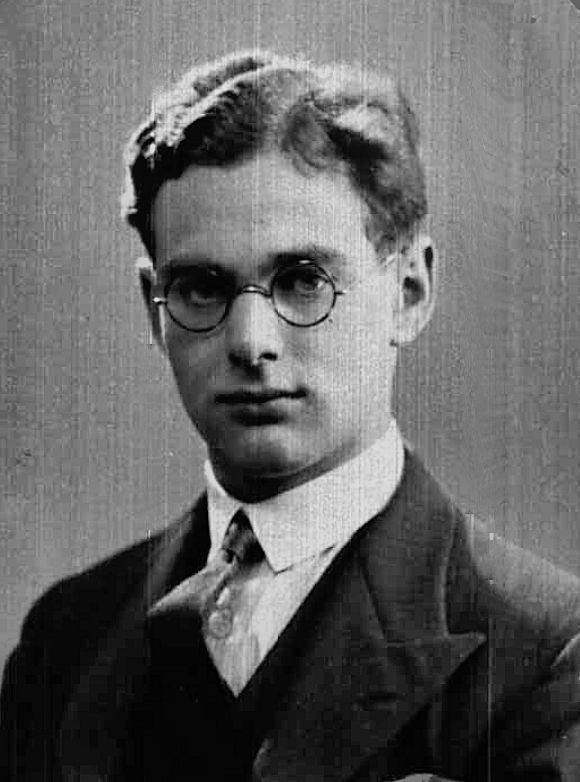 1937
1937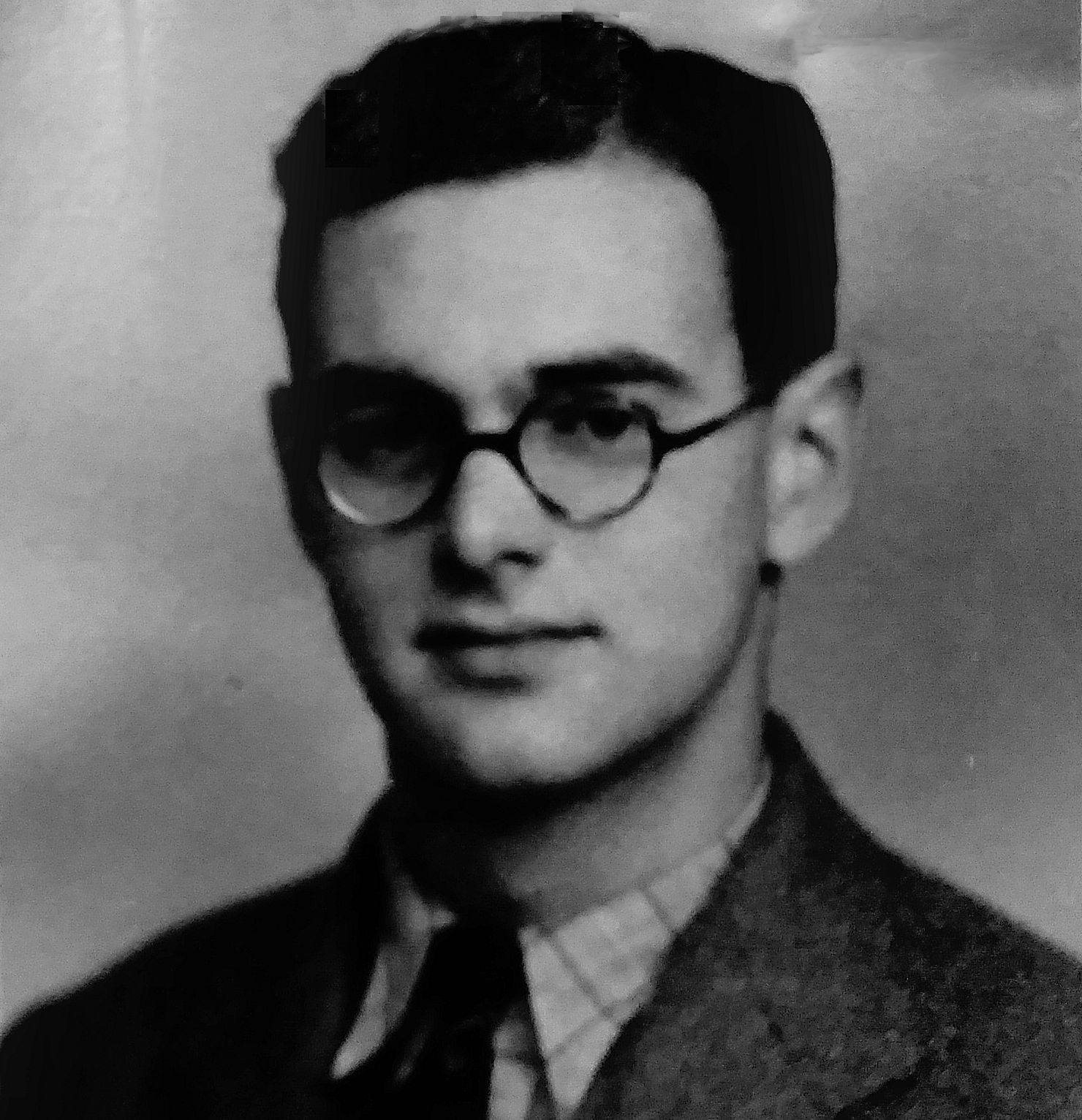 ATA
ATAEducated at Eastbourne College
m. Marie [Plumpton], 17 Feb 1939 in Cullompton, Devon. After the wedding they departed in a Leopard Moth from Exeter Airport and were back in Croydon by 3:30, "subsequently going on to the beautiful little cottage at Newdigate, Surrey, which the bridegroom's father has given them as a residence."
prev. a draper (Grant Bros Ltd, Croydon) then a Link Trainer instructor in Carlisle, Dec-39 to 1941.
Member of Redhill Flying Club from 1936. Prev. exp. 75 hrs. They reported that his flying was "consistently steady and reliable." He first applied to the ATA in Dec 1940, but his flying hours were below the standard required at the time. However, things changed within 3 months and he was accepted for training.
Address in 1941: Gotwick Farm, Orlton Lane, Rusper, Sussex
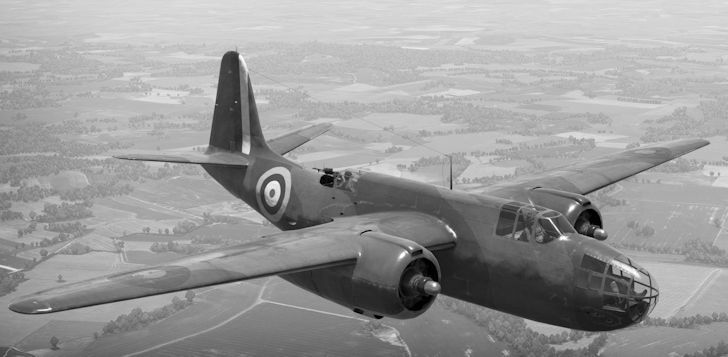
d. 28 Aug 1942 (Died in ATA Service) in Douglas Havoc Z2299, which dived into the ground at Abington Pigotts near Bassingbourn, Cambs, whilst attempting to land following port engine failure. the accident report blamed a "loss of control on turn towards dead engine in course of circuit at low altitude and with insufficient air speed."
His wife wrote to the ATA afterwards, asking whether they had discovered the whereabouts of his stop watch, silver cigarette case and gold lighter, and key case: "I am only fussing about such things as I would so like to have them for his son - who is only five weeks old - and so, will not remember him at all."
"My great consolation is the fact that he loved every moment of his job, and although you must have many pilots with more experience, you can have few so keen - and for this reason the past eighteen months have been particularly happy."
-
Greaves, John Milne
M.485 3rd Officer John Milne Greaves 
b. 15 Jan 1909, Oldham 3 Jun 1941 to 30 Jul 1942
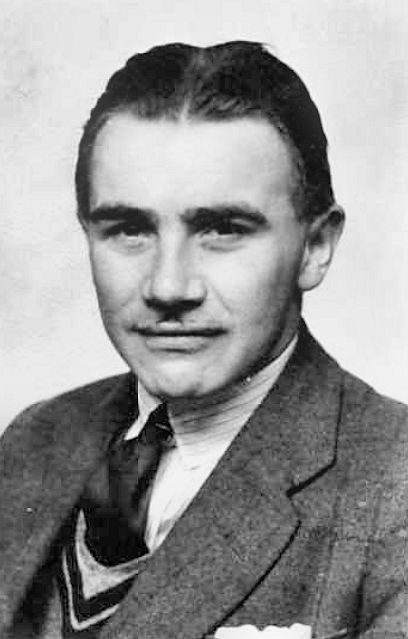 1931
1931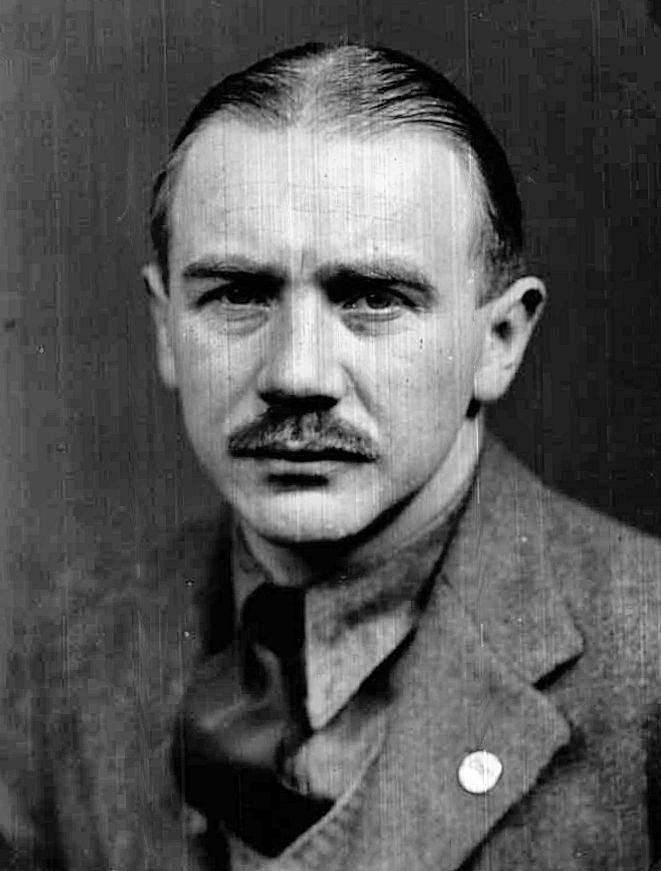 1939
1939prev. in 1931 a Publicity Manager, 1939 an Insurance Broker
Address in 1939: 6 Langdale Ave, Oldham
Postings:
Off sick from 19 Aug 1941 to 22 Apr 1942 after an aircraft crash ( see James o'Halloran)
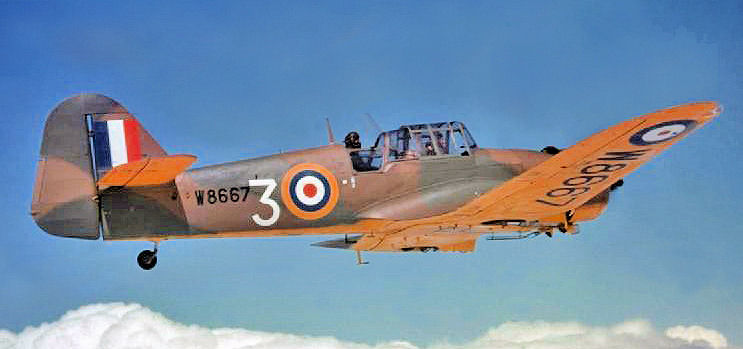
d. 30 Jul 1942 (Died in ATA Service) Miles Master M7958 engine cut on take-off, stalled avoiding trees and overturned at White Waltham. Instructor Norman Haymanwas also slightly injured.
-
Green, Alfred Edward
M.487 2nd Officer Alfred Edward Green 
b. 8 Feb 1916, Warwick 3 Jun 1941 to Dec-41
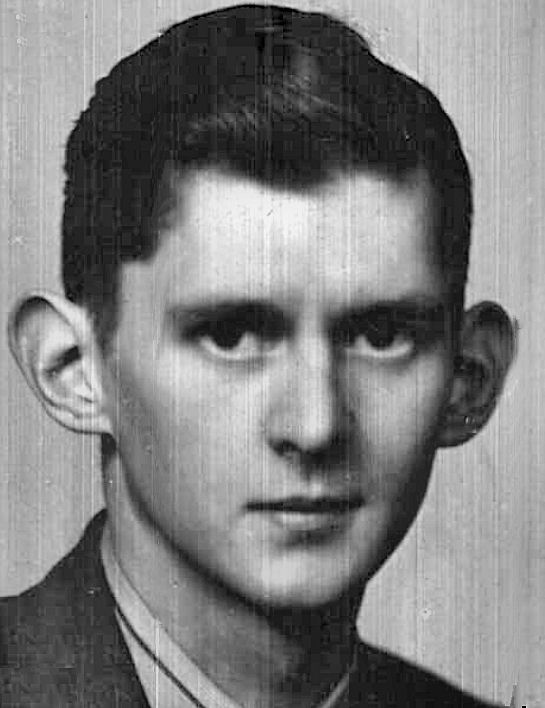
1937
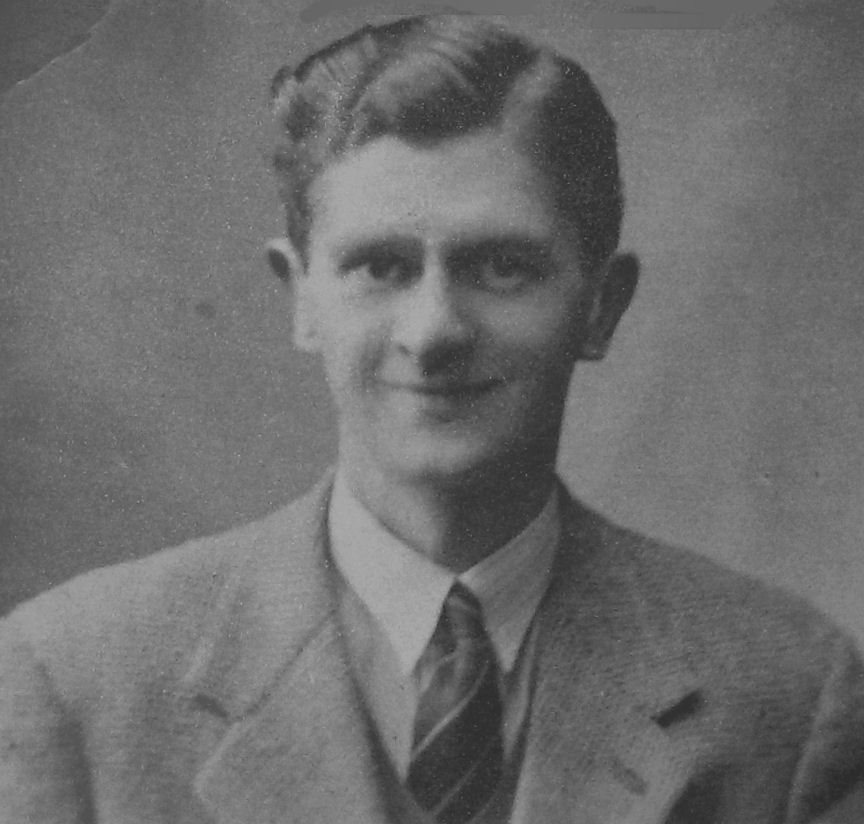
ATA
married, one son
Owned 1936 BAC Drone 23 G-AEJS
prev. a Cabinet Maker;

He originally applied to the RAF but was rejected, due to "(a) eyesight not up to required standard, (b) feet, in respect of fallen arches". Also, because they noted that there was "no service Trade in the RAF in respect of cabinet-making."
He was also rejected at first (in 1940) by the ATA as his flying test was not up to standard, and became a Fitter and Technical Records Assistant for Air Service Training Ltd in Coventry. By 1941, however, the ATA was less picky and he was finally accepted.
He was assessed as "average, with no special faults but his limited experience demands constant supervision."

d. 9 Dec 1941 (Died in ATA Service) - Hurricane BM955 dived into ground nr Cockerham Rd, Lancaster in bad weather.
see http://laituk.org/Hurricane%20BM955.htm
buried Old Milverton Churchyard, Warwick
18th Aug 1945: "I have to inform you that my daughter Mrs Joan Constance Green passed away on the 12 May last year after a long illness, she is buried in the same grave as her husband Alfred, they leave a son age 7 years. Yours Faithfully W C Kimberley"
Download ATA Pilot Personal Record (.zip file):
-
Greenhalgh, James Donald
M.77 Flight Captain James Donald Greenhalgh 
b. 27 May 1913, Rochdale Lancs 17 May 1940 to Jun-45
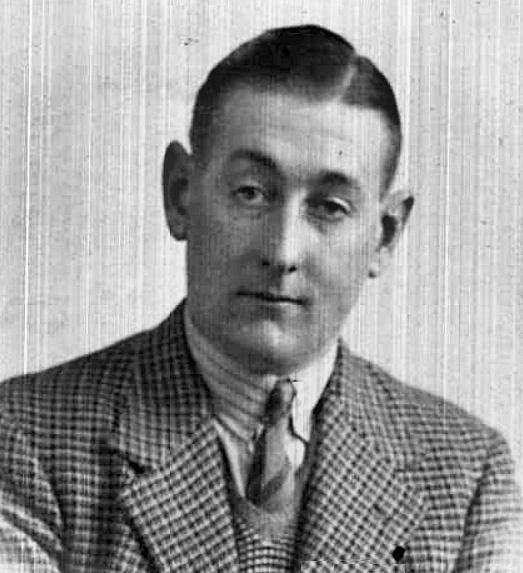 1936
1936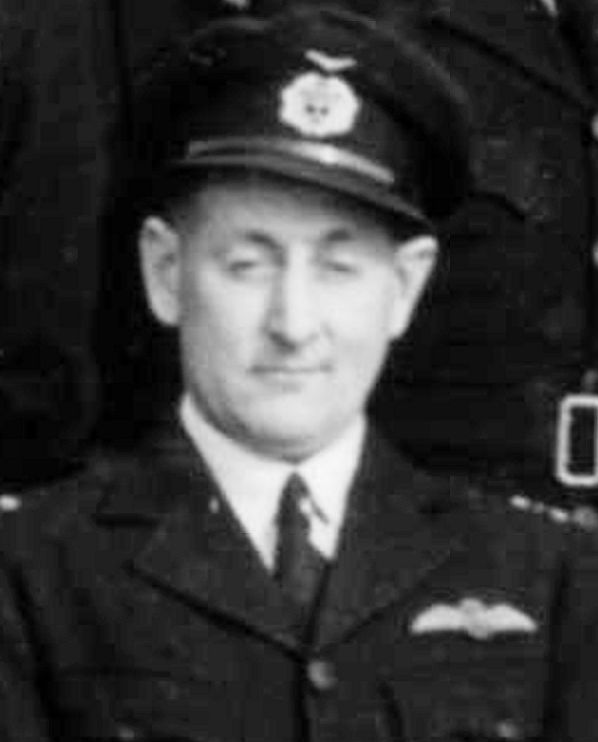 ATAM
ATAMprev. pilot with Birkett Air Services
prev. exp. 1053 hrs
Address in 1940: 9 Heather Bank, Higher Bebington, Wirral, Cheshire with wife Flora [later changed next-of-kin to his mother E.H. Greenhalgh]
Postings: 3FPP
General Conduct "Good, with occasional minor lapses which are probably due to domestic difficulties." Leadership qualities: "Could do better if he tried harder."
"a good Flight Leader and his discipline has been excellent."
d. Apr 1996 - Honiton, Devon
-
Grenside, Philip James
M.105 First Officer Philip James 'Jimmie' Grenside 
b. 6 Dec 1907, Paignton, Devon 8 Apr 1940 to 30 Nov 1945
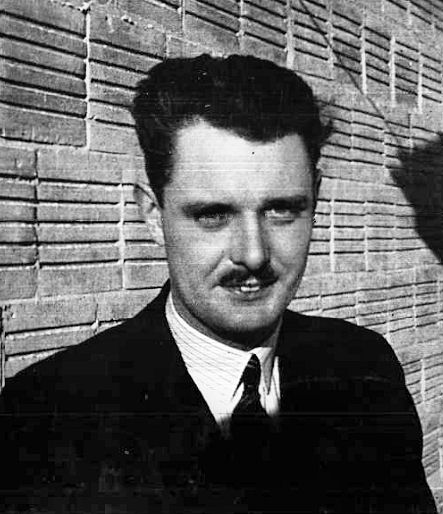 1935
1935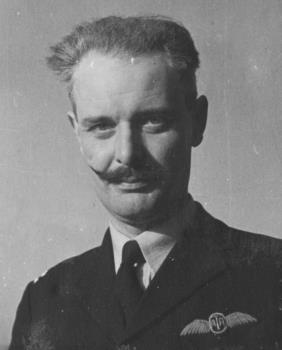 ATA
ATAed. at 'Public School'
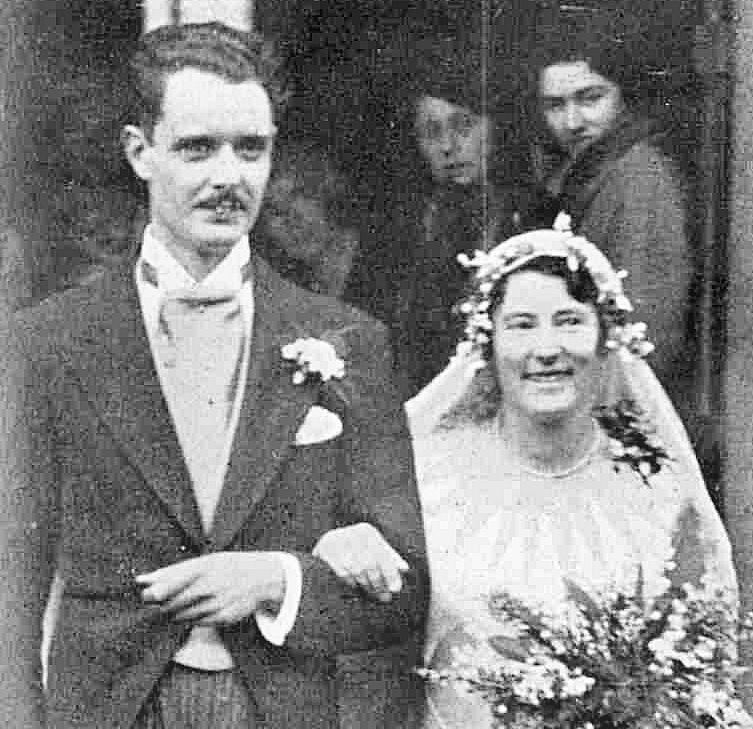
m. 1934 Ellen Marjorie 'Madge' [Watson, LRAM], the daughter of the bloke that designed the Royal Yacht 'Brittania'. Children: George b. 1934 d. 2002, Hazel b. 1937, Lois and Tulip b. 1940
prev. a Flying Instructor
Address in 1940: 'Vril', Ramsden Rd, Godalming, Surrey (Madge's house)
Postings: White Waltham, 6FPP, 1FPP, 2FPP, 1FPP
Off sick from 2 Feb to 1 Jul 1943 with a fractured ankle
After a slow start ("Not very confident in bad weather conditions. Not one of my hardest workers, suggest you keep an eye on him in this respect"), he made steady improvement and became "a sound and hardworking ferry pilot. He flies well and is unduly modest about his ability which is greater than he thinks."
He did confess he "hated the sight of aeroplanes" for a while, after an accident in June 1940.
d. 8 Jul 1961 - Godalming, Surrey
-
Griffith, Peter Robert
M.396 First Officer Peter Robert Griffith 
b. 28 Jun 1920, Northampton 4 April 1941 to 31 Dec 1945
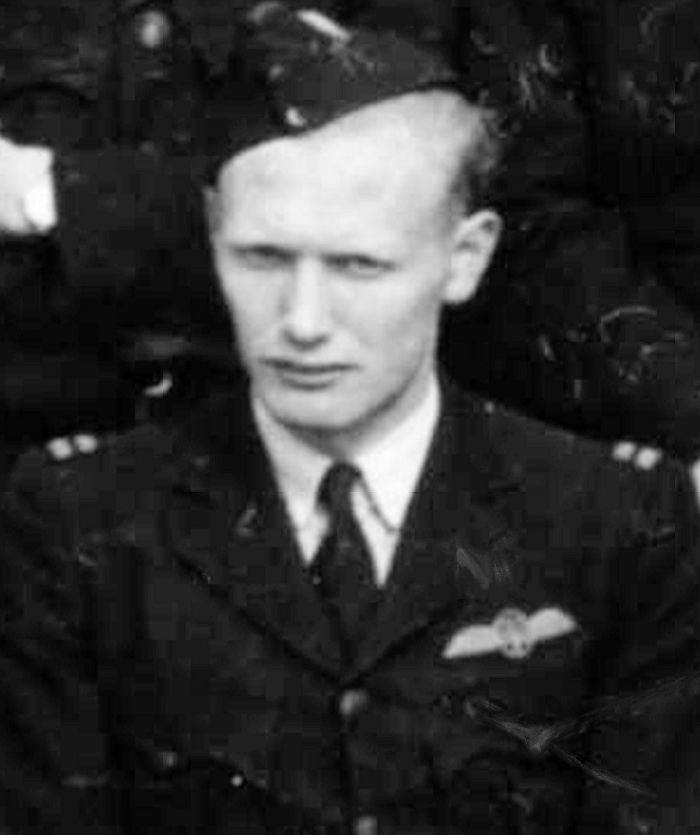 ATAM
ATAMEd. Northampton Town and County School
m.
prev. a Leather Traveller
RAF from Apr-39 to 29 Nov 1940 (Sgt Pilot)
Address in 1941: 44 Union St, Montrose, Scotland (Father's address 53 Holly Rd, Northampton)
-
Grinling, Joan Mary (W.---)
W.--- Cadet Joan Mary Grinling 
b. 23 Sep 1917, Grantham Lincs 8 May 1944 to 10 Jun 1944
Father: Col. Edward Johns Grinling DSO, MC, TD, mother Helen Marie [Cafferata]
Address in 1944: Fairfields, Grantham, Lincs
prev. ATS, WAAF
[ab initio]
[Contract Terminated by ATA]
m. Apr 1948 in London, Brian Lester Howell
d. Jul 1972 - Colchester
-
Gripton, Muriel Joan (W.---)
W.--- Cadet Muriel Joan Gripton 
b. 6 Jul 1921, West Bromwich 27 Mar-43 to 7 May-43
prev: Telephonist/Receptionist, West Brom & District General Hospital
prev exp: 20min
[Contract Terminated by ATA - 'unsuitable']
m. 1945 in W Bromwich, Frederick E C P Underhill
d. 24 Dec 2007, Worthing, W Sussex
"Suddenly but peacefully in Worthing Hospital on December 24, 2007, aged 86 years.
Adored Mother to Wendy and David, and loving Nannie to Tess and Rory. "
-
Grisdale, John
M.451 First Officer John Grisdale 
b. 29 Jan 1900, Oldham Lancs 6 May 1941 to 3 Mar 1944
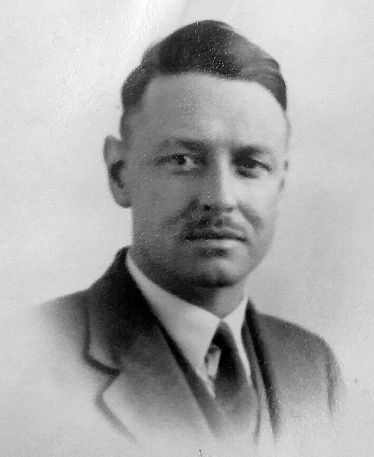 ATA
ATAEd. Technical School. Oldham [Diploma in Textiles]
Chartered Institute of Secretaries
prev. RFC, RAF Nov 1917 to Apr 1919 2nd Lieut.
m. 1930 Dora [Hewitt], 2 children Margaret b. 1933, John b. 1935
prev. a Yarn Salesman for Park Mill, Royton, Lancs
prev. exp. 200 hrs
Address in 1941: 442 Burnley Lane, Chadderton, nr Oldham
Postings: 3FPP, 14FPP
"A slow and rather erratic pilot but proved safe and of average ability"... "A very good officer to whom nothing is a trouble."
Off sick from 27 Jan 1944 to 1 Mar 1944 with 'flying fatigue'.
Contract Terminated by ATA 3 Mar 1944
d. Jun 1951 - Manchester
Download ATA Pilot Personal Record (.zip file):
-
Guest, Harry
M.614 First Officer Harry Guest 
b. 15 Jan 1904, London 16 Jul 1941 to 30 Nov 1945
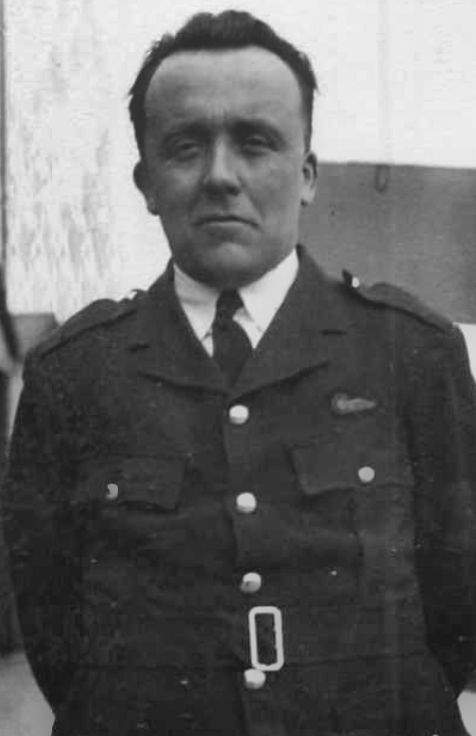 1935
1935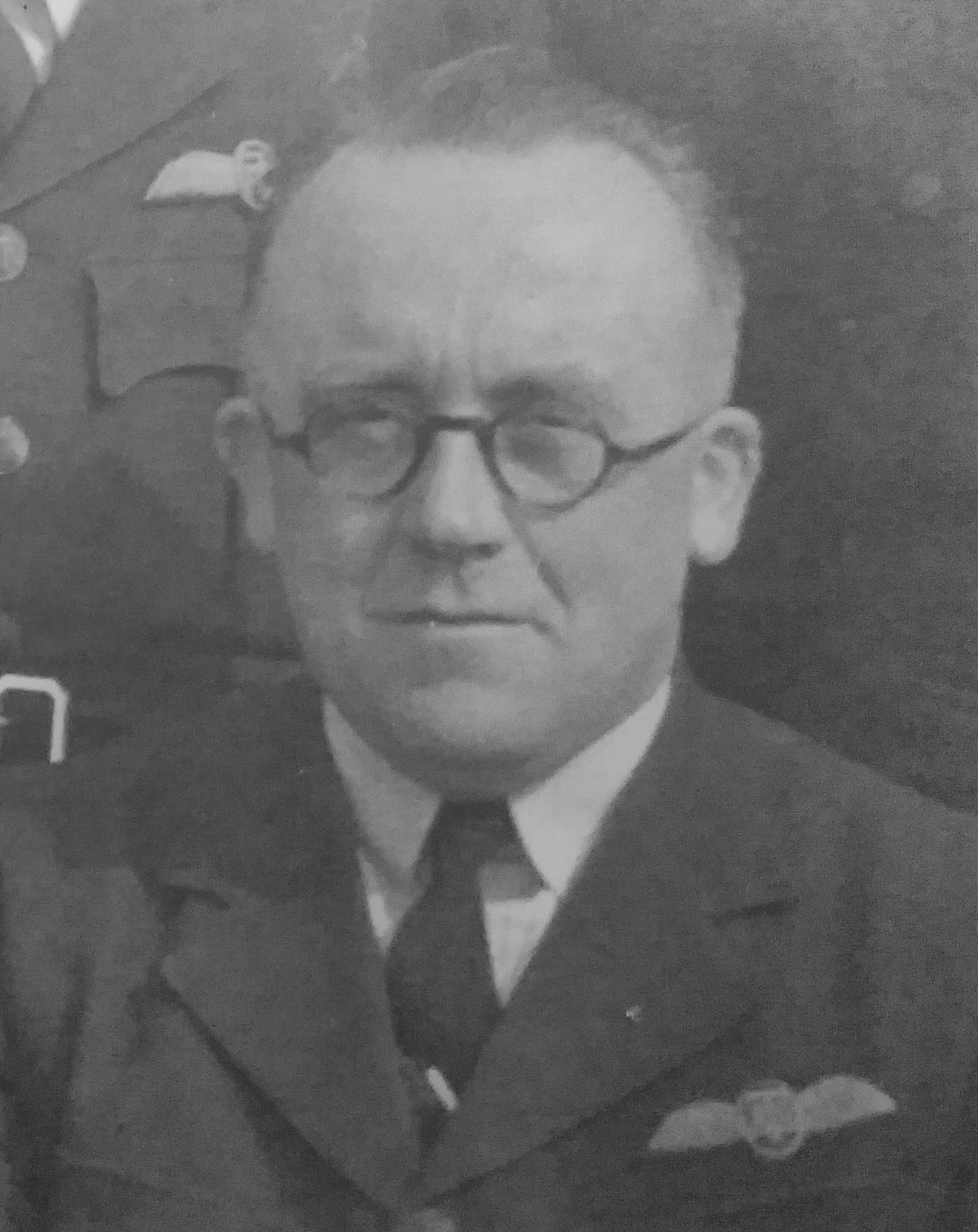 ATA
ATAEd. at East Ham Technical School
prev. an Electrical Engineer for Standard Telephones and Cables Ltd., North Woolwich
prev. exp 63 hrs on Gypsy Moth
Address in 1941: 60 Holland Rd, East Ham London E6
Postings: 6FPP, 5FPP, 3FPP
Suspended for 1 day with loss of pay in Jul-42 for Loss of Ferry Pilots' Handling Notes.
"A conscientious and hard-working pilot whose progress has been somewhat slow due to his limited experience prior to joining ATA."... "He would do well to pay more attention to his personal appearance."
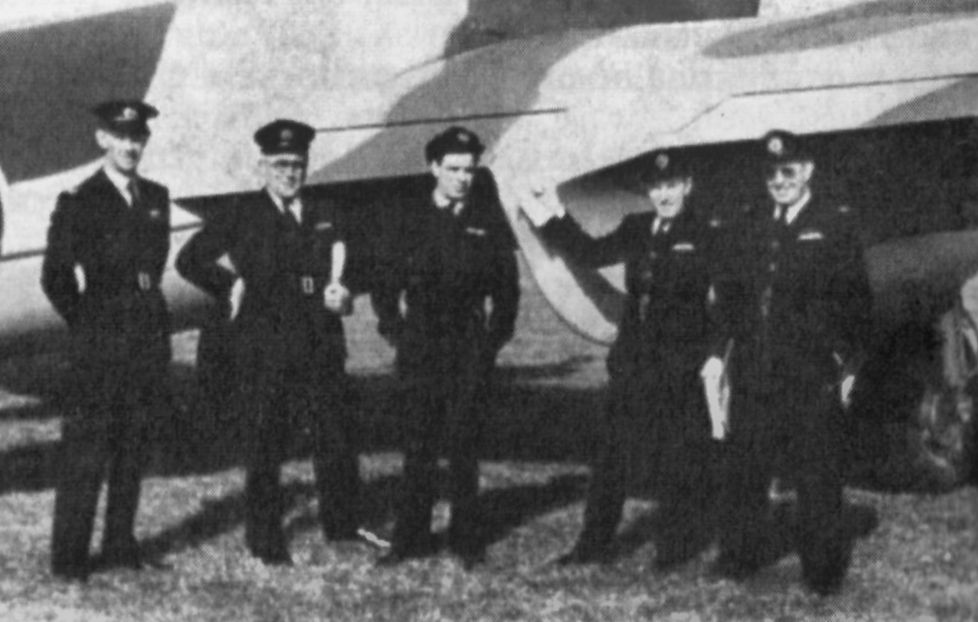
Harry, 2nd left (Brief Glory)
d. Mar 1978 - Dartford, Kent
-
Guild, Henry Rochester
M.---- 2nd Officer Henry Rochester 'Harry' Guild 
b. 21 Feb 1906, Gosforth Park, Newcastle-on-Tyne 20 Aug to 22 Sep 1940
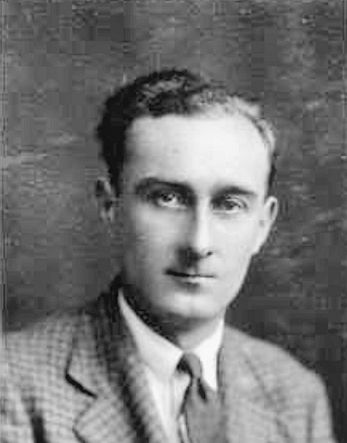 1934
1934Father: Alexander Guild, a hotel owner (d. 16 Mar 1914), Mother: Anne [Stoker] (d. 1923)
RAeC Certificate 12273 dated 8 Sep 1934, taken at Portsmouth Aero Club
prev. Fleet Air Arm (Temp Sub-Lieut RNVR from Nov 1939); Electrical Engineer
Travelled to the US in May 1927 to visit a friend, Mr S M Hostler (presumably Sidney M Hostler, the supervisor interviewer for Los Angeles); returned April 1928
Address in 1940: 97 Vctoria Rd North, Southsea, Hants
Postings: ---
Travelled back to the USA in Oct 1948 (in SS Queen Elizabeth) and applied for naturalization in 1951:
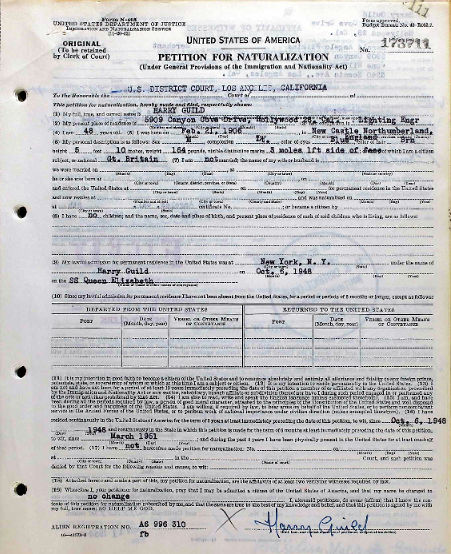
"Harry Guild, 5909 Canyon Cove Drive, Hollywood, CA - a Lighting Engineer"
Naturalization was granted in 1954
d. 3 Dec 1966 - Los Angeles
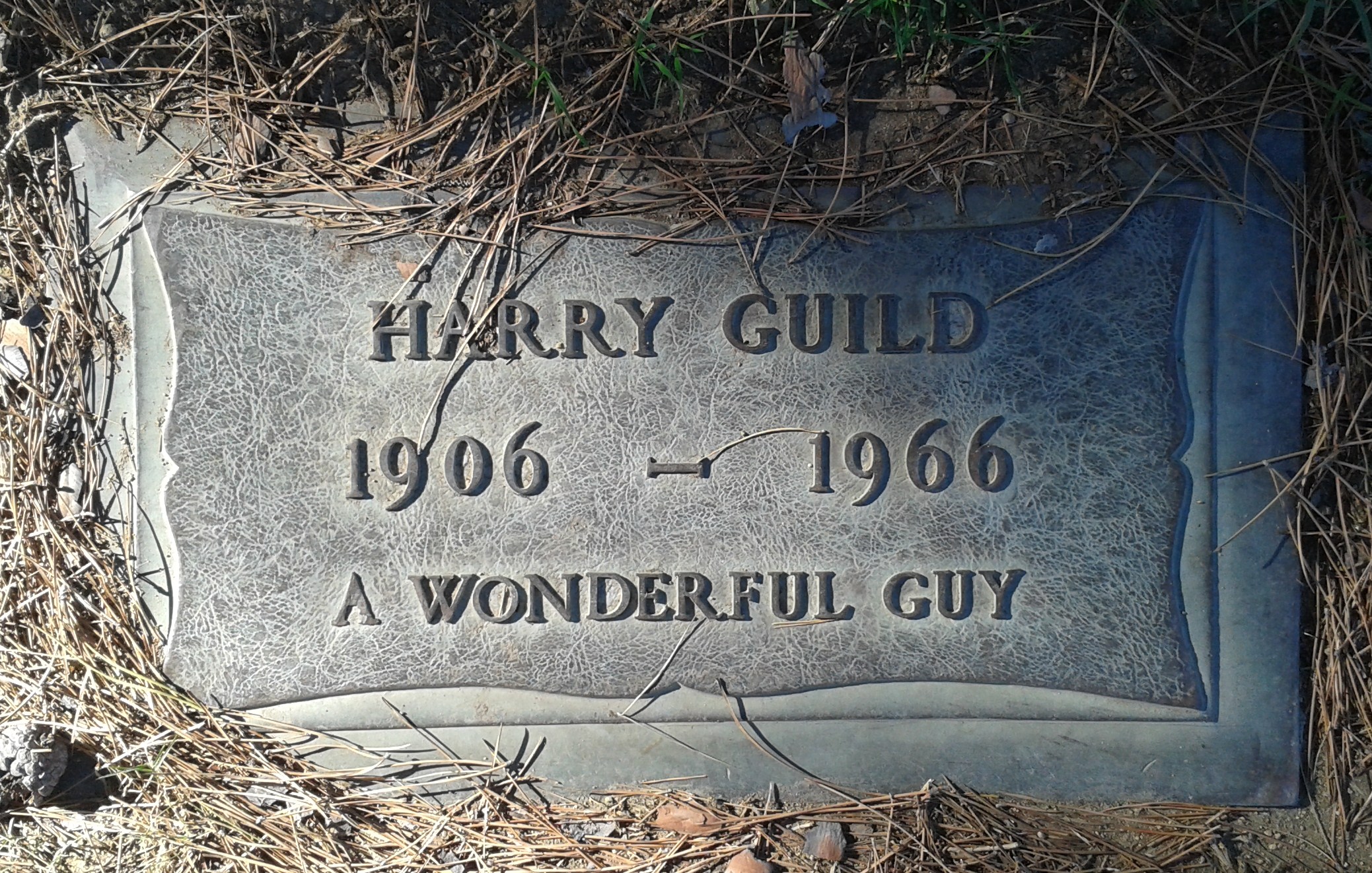
Forest Lawn Memorial Park,Hollywood Hills, Los Angeles County, California, USA
-
Guthrie, Sylvia Mary (W.142)
W.142 3rd Officer Sylvia 'Mary' Guthrie 
b. 9 Jun 1921, Thornton Heath Surrey 18 Oct 1943 to 30 Sep 1945
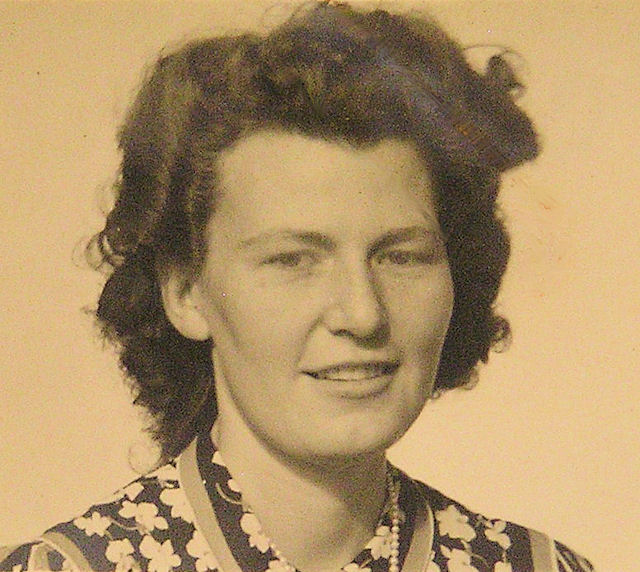 ATA
ATA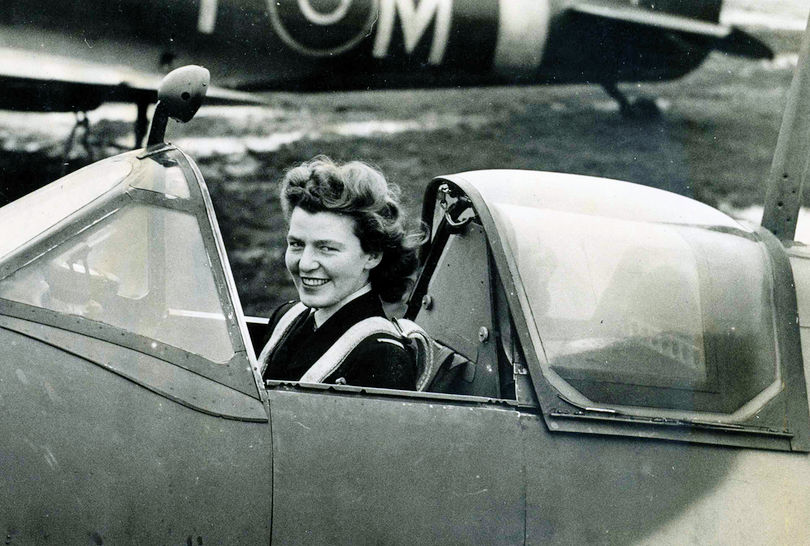 ATAM
ATAM
Father d. 1925 having been gassed in WWI
Stepfather Mr Grapel, d. 1944
One sister; brother James died in WWII
Ed. Montrose College, Cliftonville; RADA
prev: Blind School Hospital, Leatherhead; Mobile VAD (voluntary Aid Detachment) nurse, attached to various RAF Hospitals, from Feb 1941 to Jul 1943 (where she worked with Monique Agazarian, and played tennis with Dan Maskell)
Applied after seeing an advertisement, interviewed at White Waltham.
ab initio pilot cadet [because "I thought it would be glamorous"]
Postings: 5FPP, 15FPP
3rd Officer from 11 Aug 1944 - Class 3 pilot
One accident, not her fault:
- 31 May 1945, the hood blew off her Spitfire XVI TD134 and damaged the fin and rudder
Gained her RAeC 'A' Certificate No 20588 as part of the ATA 'Wings' scheme on 29 Sep 1945, and later a Commercial 'B' Licence:
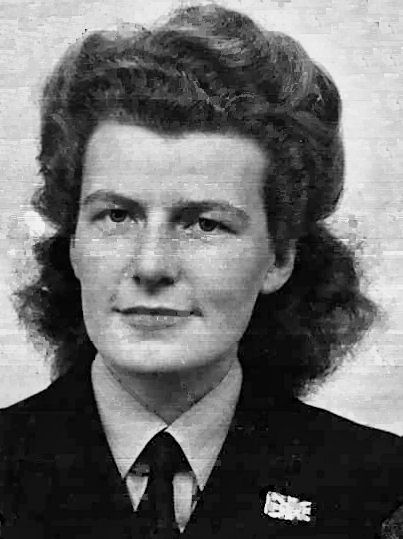 RAeC 1945
RAeC 1945
Address in 1945:17 Basil Mansions, Basil St, London SW3
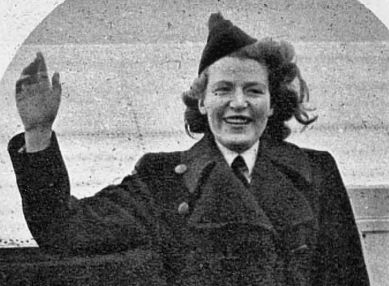
From January 1946, 'Star Girl No. 1', Britain's first post-war air hostess, for British South American Airlines: (see also Rita Baines, who was 'Star Girl No. 2).
Her first BSAA flight was in a Lancastrian from the newly-opened 'Heath Row Airport' with ex-Pathfinder chief Don Bennett, the MD of BSAA, on board.
Flew Spitfires and Hurricanes for Skyways to the Portuguese Air Force, until she crashed a Spitfire
m. Jan 1952 in Kensington, Cyril John Cunningham
daughter Deborah b. 1955?
Download ATA Pilot Personal Record (.zip file):

IWM interview (1987) here: https://www.iwm.org.uk/collections/item/object/80009976
-
Haggas, James William
M.1108 * 3rd Officer [Seconded from RAF] James William Haggas 
b. 14 Dec 1916, Bakworth Yorks 30 Jun 1944 to 15 Apr 1945
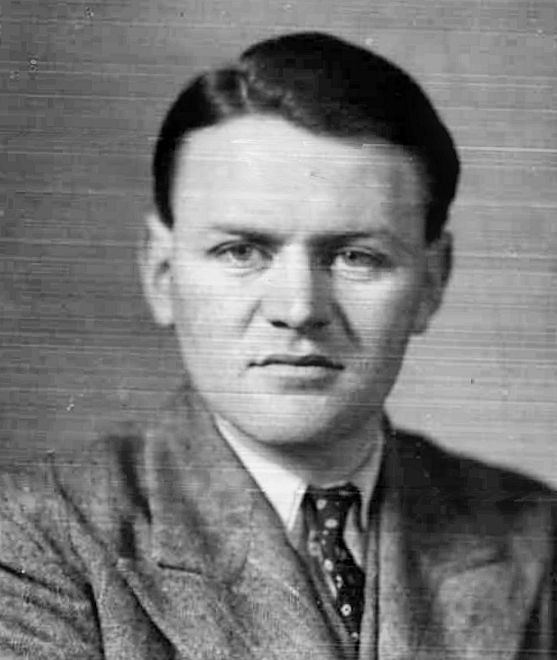 1949
1949An Engineer
Address in 1949: 1 Poplars Ave, Hatfield, Herts
-
Hale, Marcus Samuel
M.405 Commander Marcus Samuel 'Mark' Hale OBE 
b. 20 Jan 1900, Manchester
but grew up in London; went to school in Fulham and Putney.
15 May 1941 to Sep-45
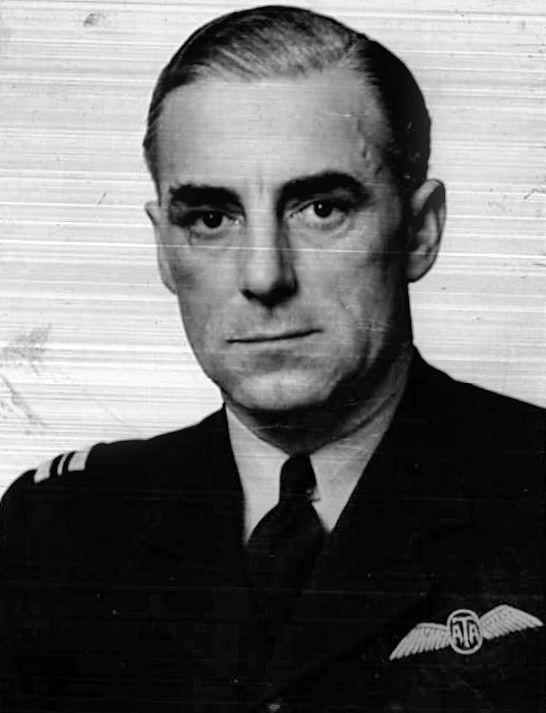
RAeC 1945
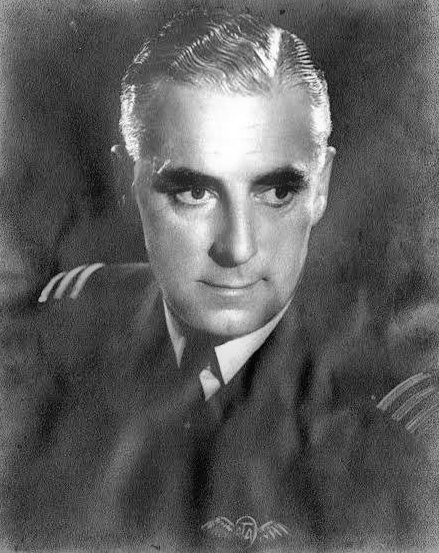 via Marcus J Hale
via Marcus J Haleprev exp 'over 500 hrs' on D.H.9a - he joined the RFC as a cadet in Nov 1917. However, his time in the RAF was short; he moved to 137 Squadron in June 1918, and graduated with good marks in October 1918, but he was moved to the unemployed list in May 1919.
After a year out, he was given a short service commission in July 1920, but this did not go well:
- He was reprimanded for 'failing to take proper precautions...of secret despatches' in October 1920;
- He went 'absent without leave' from the 5th to the 11th December 1920. (Actually, on the 20th he married Gertrude Maude Mickle at Lambeth Registry Office), and was again reprimanded;
- Finally, he was court-martialled for 'disobeying a lawful command given by a senior officer' and was dismissed His Majesty's service in May 1921.
He then married Dorothy Mary () and they lived in Sevenoaks, Kent. He worked in the leisure industry, then when WWII came along, in the Hurricane Repairs Section of Gloster Aircraft Co.
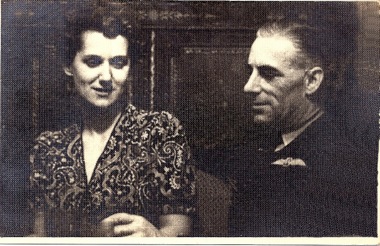
Joan and Mark 1942
He met Joan Durham Witherby (q.v.) when she joined the ATA in 1942, and they had a son together in November 1945, who remembers his mother telling him that "she was still flying missions with the ATA whilst pregnant".
During his time in the ATA, he flew 35 different types of aircraft. He was initially assessed as an "above average pilot who, although somewhat out of flying practice proved himself a safe and steady pilot, possessing good judgement."
In Feb 1943 he was appointed as Officer Commanding, No 5 FPP, then O.C. the Training Pool from Aug-43, and finally O.C. No 1 FPP from Nov-44. He performed his duties in "an eminently satisfactory manner" and also managed to do a fair number of ferry flights himself, including a few on Halifaxes.
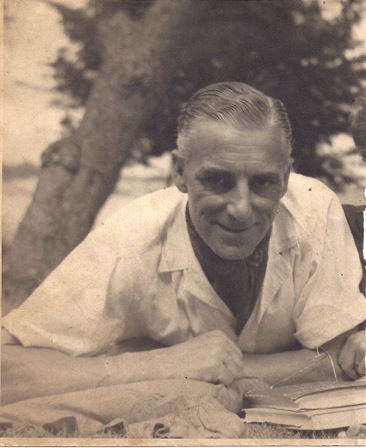
Mark in 1945
In 1946 he was one of the 13 members of the ATA to receive the OBE for his services during WWII.
Apparently, he referred to his OBE, as for Other Bugger’s Efforts.
d. Sep 1981, Chichester
Download ATA Pilot Personal Record (.zip file):
-
Hall, Edgar Bernard Harold
M.369 First Officer Edgar Bernard Harold Hall 
b. 23 Mar 1908, Woolwich 1 Apr 1941 to 24 Apr 1943
[753 days]
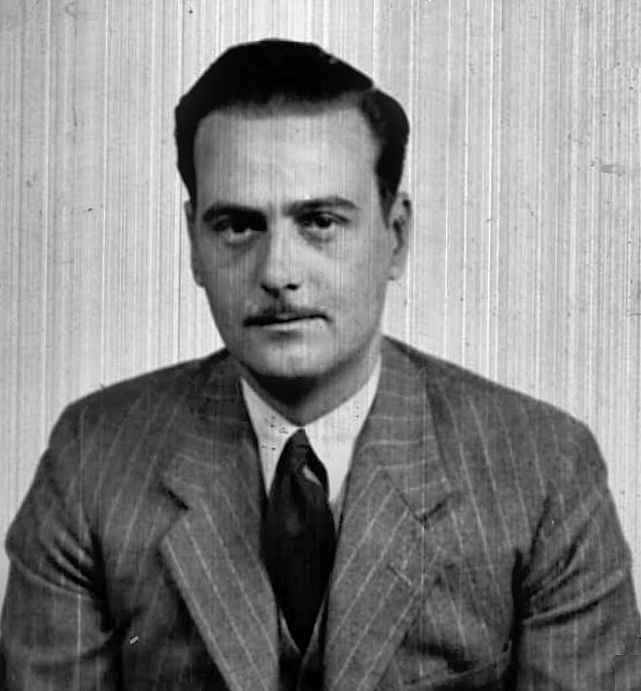 1939
1939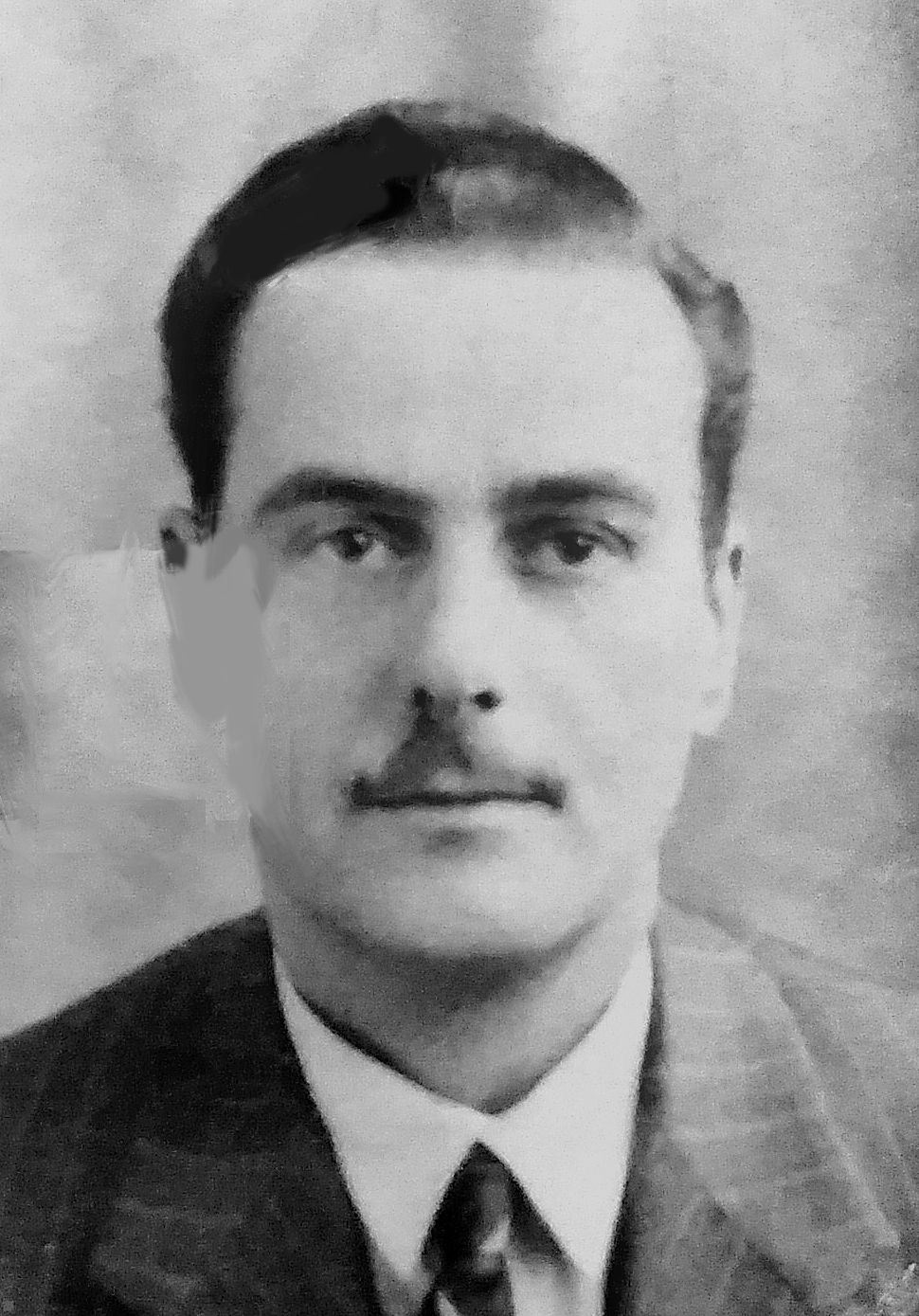 ATA
ATAm. 1935 Philis Margarete [Hills], one child
prev. exp. 135hrs
prev a Chief Link Trainer Instructor, and aircraft inspector for A.S.T.
Address in 1941: 5 Gambia St, Swindon
"Although he appears keen enough in his flying, he is unable to control his weakness in financial matters, and through worry of this, his flying is of poor quality"
Demoted to 3rd Officer for 3 months in 1942 for landing in poor weather conditions and then leaving the aerodrome before close of flying, without waiting to see if the weather improved.
Jan-43: "Hall came here with somewhat poor reports, but to date has done his job conscientiously and safely and has behaved himself as an officer."
[Contract Terminated by ATA - 'Financial Instability']
In 1949, he was fined £40 for bad airmanship: "Edgar Bernard Harold Hall, of Homefield House, Old Coulsdon, Surrey, was fined a total of £40 with three guineas costs at Croydon yesterday.
Hall was found guilty of making a circuit of the Croydon Aerodrome while not clear of the manoeuvring area; endangering life and property by diving under another aircraft which was engaged landing on or about July 4; and failing to obtain such authorisation of movement as was necessary for the protection of aerodrome traffic on August 13.
He pleaded guilty to piloting a plane on August 13 while not in possession of a licence. He was fined £10 on each of the four summonses.
Captain T. J. Gunn, chief pilot of an airways company at Croydon, told the court that when he was preparing to land a Proctor at Croydon, a Tiger Moth flew straight at him for a few seconds and then dived under him. It landed in front of him and he turned away. Hall denied Captain Gunn's allegations, and said, " I am an experienced pilot and a qualified instructor of 40 years of age and have got beyond things like that."
d 1982 - Lewes, E Sussex
-
Hallowell-Carew, Roy Phillip
M.42 First Officer Roy Phillip Hallowell-Carew 
b. 27 Dec 1911, Kensington, London 13 Apr 1940 to 11 May 1942
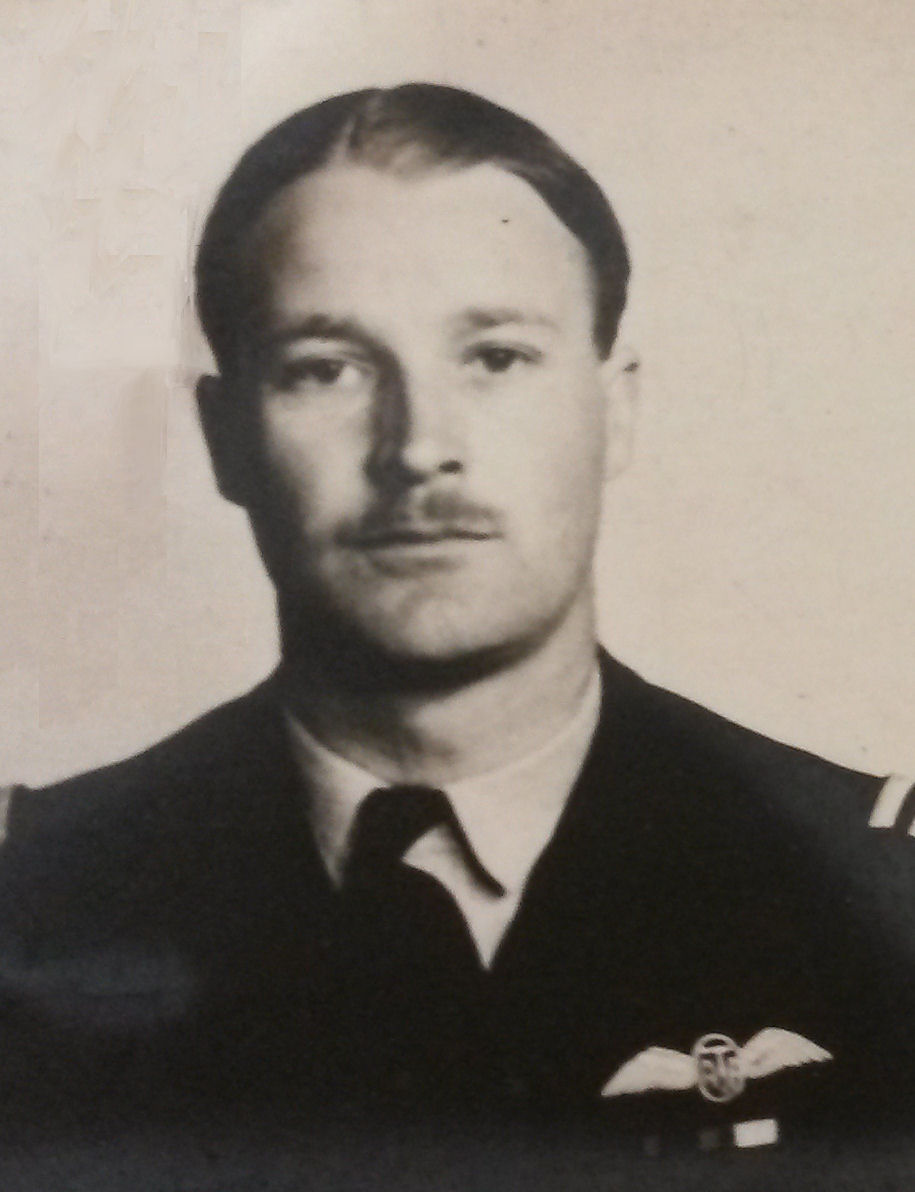
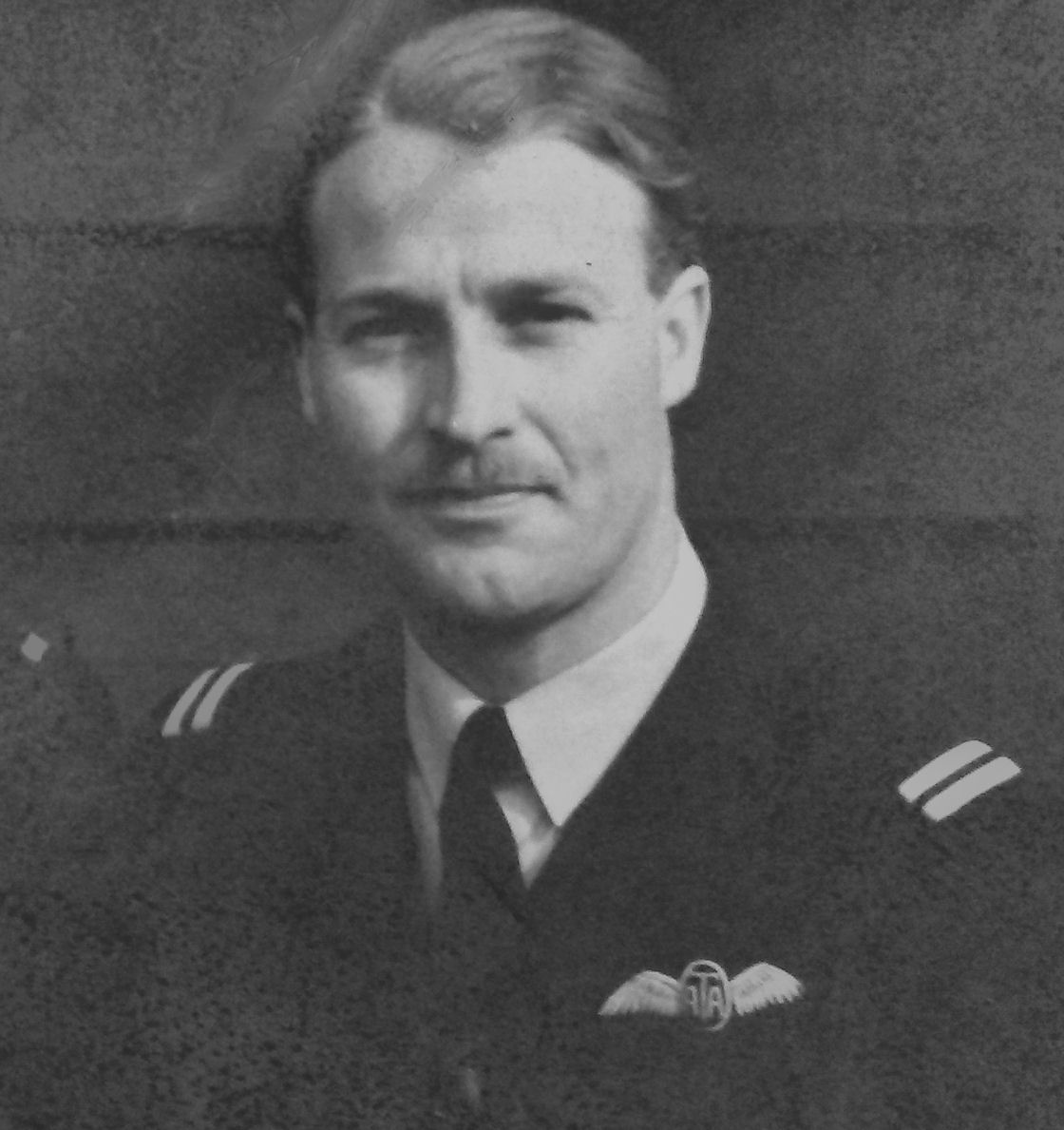 ATA
ATAEd. Senior College of Preceptors
m. Ivy Ellen
RAF 1932-37 (Flt-Lt)
Address in 1940: Cedarcroft, Sticklepath, Okehampton, Devon
Postings: 2FPP, 1FPP, AFTS as Instructor, 16FPP
"Good multi-engine pilot, though inclined to be nervous, particularly in bad weather."
"Not over stable financially."
Reprimanded for disobedience of Standing Orders on 3 Apr 1942
[Contract Terminated by ATA 11 May 1942 - Disciplinary Reasons]
Died in a flying accident, 23 July 1942 when a Test Pilot for MAP. His Spitfire V W3958 of 1 CRU (Civilian Repair Unit) at Cowley crashed at Cumnor Hill, 3.5 miles West South West of Oxford.
Buried Epsom Cemetery.
-
Hampton, William
M.15 Flight Captain William Hampton MBE 
b. 9 Apr 1909, London 20 Sep 1939 to Nov-45
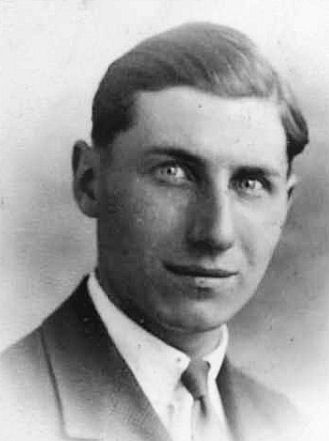
1933
Chauffeur-Mechanic in Fulham in 1933
d. 1968?
-
Handley, Walter Leslie
M.16 Junior Captain Walter Leslie 'Wal' Handley 
b. 5 Apr 1902, Birmingham 11 Sep 1939 to Nov-41
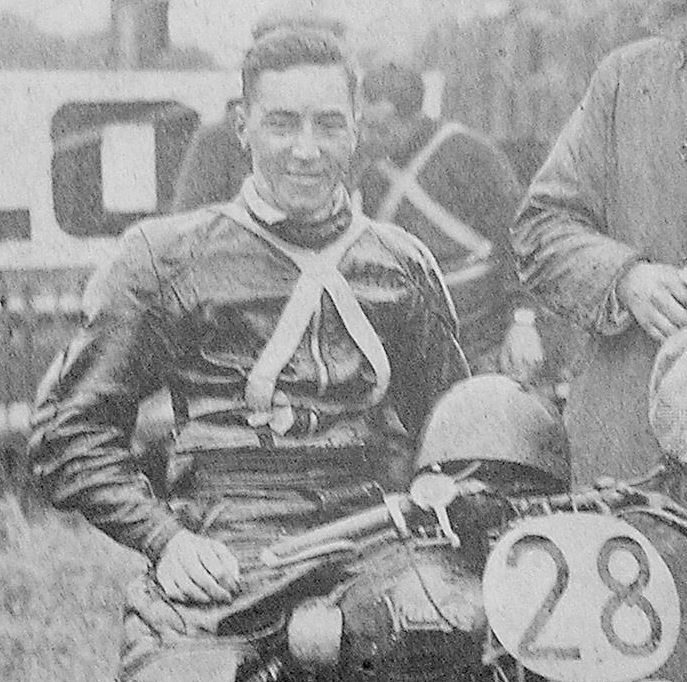
1930
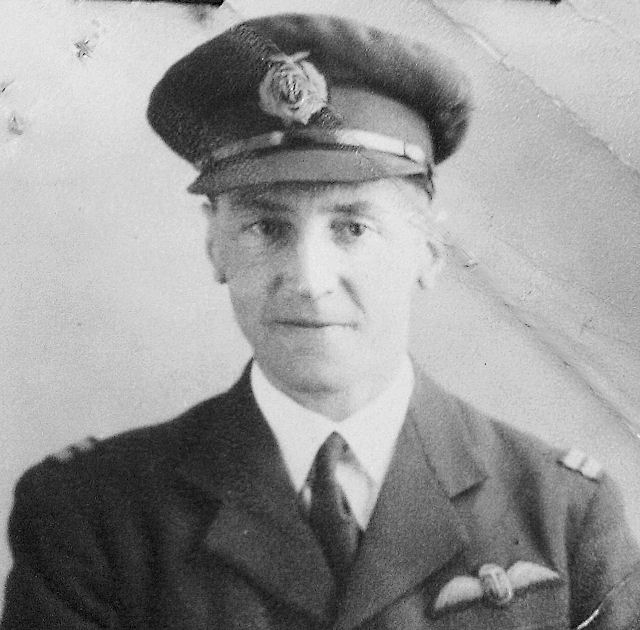
ATA
Well-known motorcycle racer pre-WWII
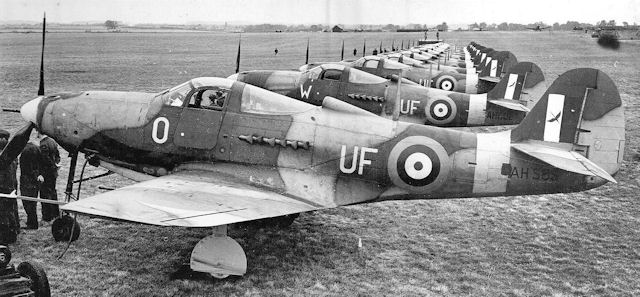
d. 15 Nov 1941 (Died in ATA Service) - Airacobra AH598 caught fire in the air shortly after take-off from 12 M.U. and crashed nr Fingland, Cumbria.
"Major fire occurred in engine. A/C stalled and crashed. Cause of fire cannot be established but two possibilities:
1. Engine was over-boosted and over-revved on takeoff
2. A/C may have been run up with mixture control in full rich."
'Gen' Genovese was of the opinion that Wal's accident in the Airacobra was due to the fact that American aircraft would allow the pilot to over-rev and over-boost the engine, unlike British-built aircraft which restricted the power to what the engine could take.
A memorial to Walter has recently been erected near where he crashed in his Airacobra after taking off from Kirkbride:
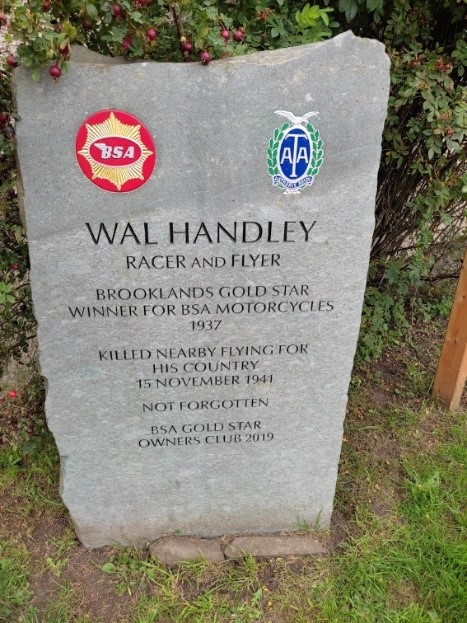
-
Harben, Guy Wilfrid
M.18 Flight Captain Guy Wilfrid 'Bill' Harben MBE 
b. 17 Jul 1906, Richmond, Yorks 11 Sep 1939 to Oct-45
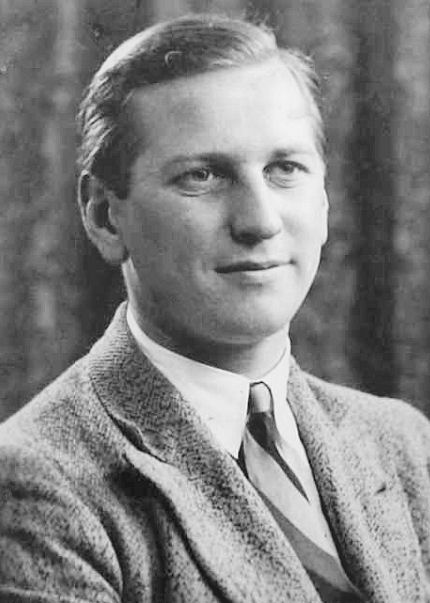
1931
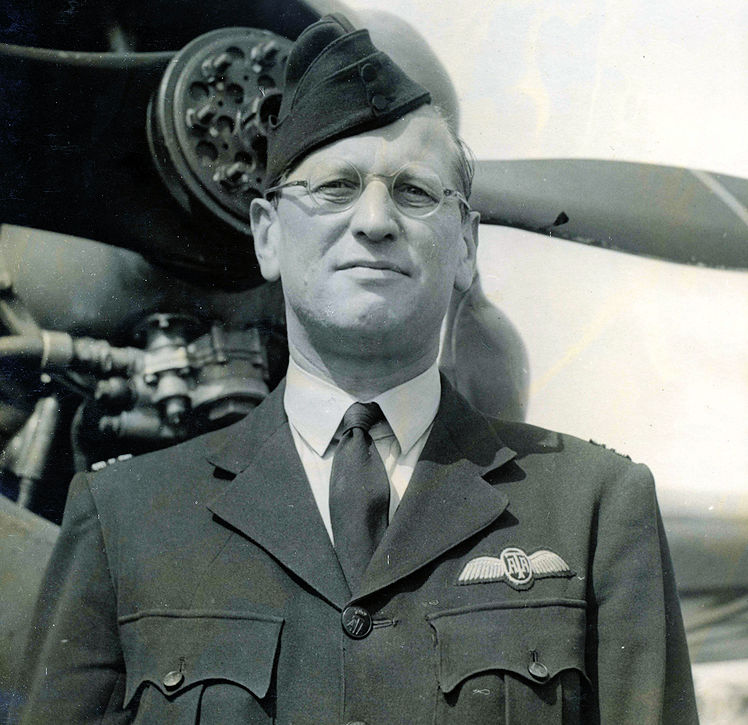 ATAM
ATAMEd. Charterhouse; FRGS
prev. Director of a greyhound track in Brighton; Director of Marlow aerodrome; Director of a tourist bureau.
A "most efficient and hard working pilot, with a keen sense of duty"
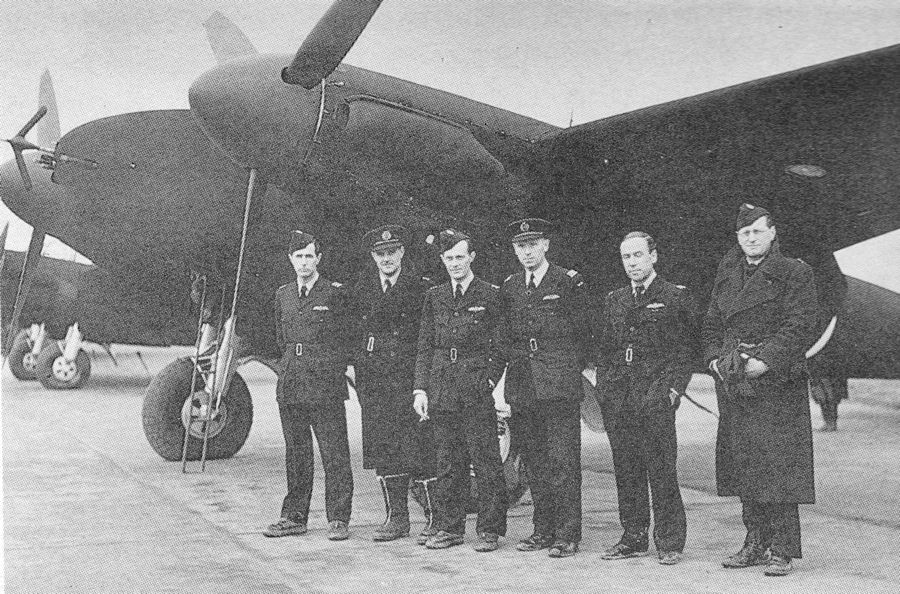
Far right, with Frankie Francis, Frank White, Doc Whitehurst, Klemens Dlugaszewski, Jim Mollison in Feb-42.
On sick leave for 5 weeks in Mar-Apr 1941 after crashing a Hurricane in bad weather.
d. Sep 1982, Wycombe Bucks
-
Hardy, Stanley Hobson
M.19* First Officer Stanley Hobson Hardy 
b. 20 Feb 1906, Atherstone 23 Sep 1939 to Jan-41
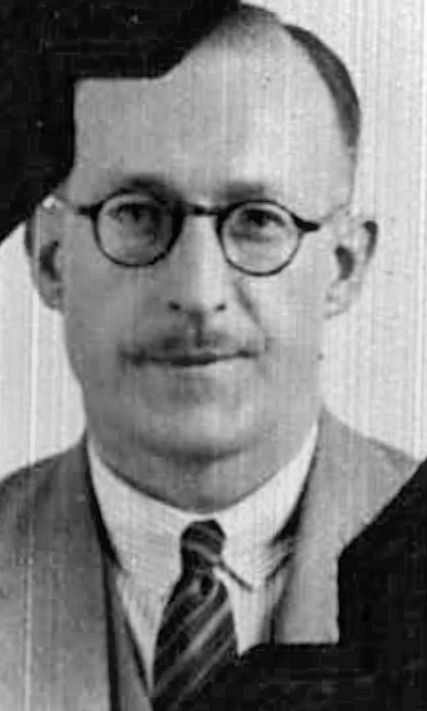
1938
A 'Director' in Birmingham in 1938
d. Mar 1973, Poole
-
Harmer, Reginald Harry
M.261 * First Officer Reginald Harry Harmer 
b. 16 Oct 1897, Bristol, Gloucestershire 26 Feb 1941 to 30 Sep 1945
Father: Harry Harmer, Mother: Mary Elizabeth [Sheppard]
prev. Lieut., RFC, RAF from 16 Jan 1918 to 7 Aug 1919 (wounded 19 Apr 1918, resigned 1919 due to ill-health) then RAFVR from 10 Jun 1940
m. 1933 in Amersham, Doreen Gwenffrurdd Mary [Armstrong or Melhuish]
Sentenced to 3 months in prison, and banned for driving for 5 years, in October 1934; "There were four summonses against him: driving a car in a dangerous manner; driving without due care and attention; driving whilst disqualified, and having no third party insurance certificate. He pleaded guilty to all the summonses except the one for dangerous driving. "
prev. "Cost Accountant and Organizer, also Printing & Advertising Agent"
Address in 1940: Edgehill, Dalkeith Rd, Harpenden, Herts
Postings include: 2FPP, 9FPP, 4FPP
5 accidents, none his fault:
- 2 Jul 1942, a forced landing in Spitfire Vb P8759 following complete engine failure (broken con rod) immediately after take-off at Charmey Down
- 14 Jul 1942, another forced landing, this time in Beaufighter VI V8356 at High Ercall, after a faulty gauge indicated low oil pressure
- 1 Mar 1943, the starboard undercarriage leg of his Spitfire Vc EE862 failed to lower but the port leg refused to retract, so he made a forced landing at Hullavington, whereupon the port leg collapsed
- 29 Apr 1943, forced landing at Cardiff in Anson N4875 after port engine failure
- 10 May 1945, whilst he was taxying Halifax LW363 at Prestwick, Engineer James Mitchell walked into the propeller of No. 4 engine and was fatally injured.
d. 16 Mar 1976
Buried Canterbury City Cemetery, Kent
* File not seen
-
Harris, Albert William
M.477 First Officer Albert William Harris 
b. 26 Jan 1904, Winkleigh, Devon 29 May 1941 to 30 Sep 1944
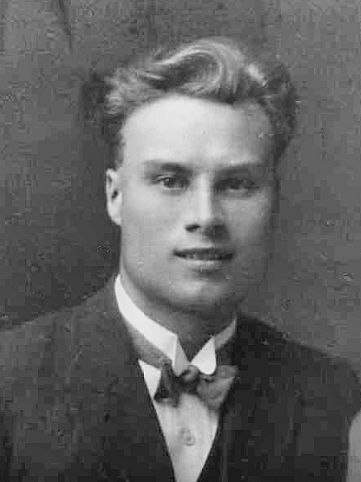 1935
1935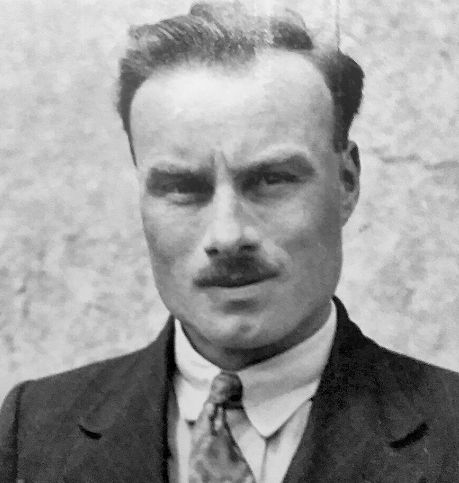 ATA
ATAEd. at Chulmleigh School
m. 1927 Ann Alford [Boundy]
prev. a Coal Merchant (own business); RAF Sgt. Aug-40 to Jan-41
Address in 1941: Elmsleigh, Wembworthy, Chulmleigh, Devon
Postings: 6FPP, 2FPP, 7FPP
d. 5 Oct 1982 - Wembworthy, Devon
Download ATA Pilot Personal Record (.zip file):
-
Harvey, Montague Charles
M.159 * First Officer Montague Charles Harvey 
b. 14 Oct 1910, Lymington, Hampshire ? 16 Oct 1940 to 4 Aug 1942
Possibly:
Father: Alfred Thomas Harvey, Mother: Florence [Cass]
The family emigrated to Canada in Jun 1911
m. 28 Jul 1933 in Dundas, Wentworth, Ontario, Canada, Roberta Hope [Bruce]
Address in 1939: 57 Norfolk House Rd, Wandsworth, London
prev. Sales Manager
Postings:
Lived in Hampshire in 1948, but moved back to Canada in 1951 with wife Marjorie
d. 20 Aug 1975 - Chilliwack, British Columbia, Canada
* ATA File not yet seen
-
Hawthorn, Leslie Dickinson
M.184 First Officer Leslie Dickinson Hawthorn 
b. 30 Dec 1902, Mexborough, Yorks 2 Sep 1940 to 20 Nov 1942
[809 days]
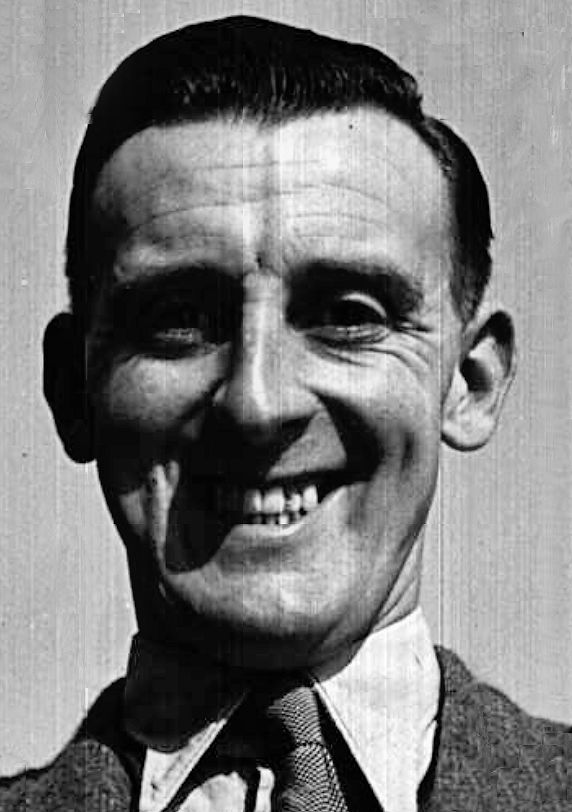 1936
1936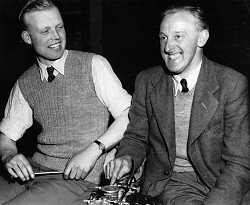
with son Mike, 1952
Ed. Mexborough Secondary School
m. 1926 Winifred Mary [Symonds] [d. 1989], son John b. 1929 d. 1959 **
prev. a Motor Engineer - T.T. [Tourist Trophy] Garage, Farnham
Address in 1940: 'Merridale', Rowledge, Farnham, Surrey
Owned a 1928 Avro Avian III G-EBWK until 1938: "PRIVATELY Owned Avro-Avian 2-seater, dual J. control. 12 months C. of A.; approximately 150 hours since rebuilt by Avro's; £150 or near offer.—Hawthorn, T.T. Garage, Farnham."
Postings: 1FPP, 6FPP
"A hard working pilot but is a nervous type and requires regular flying and good weather".
Contract Terminated 21 Nov 1942 - Disciplinary Reasons; "Work as a pilot was satisfactory but behaviour as an officer was poor. Continually giving trouble on establishment questions and considers his own opinion of greater force than official orders."
d. 8 Jun 1954 - Godalming, Surrey "LESLIE HAWTHORN, father of Mike Hawthorn, the racing motorist, died in Haslemere Hospital last night from Injuries received in a crash at Hindhead, Surrey, on Monday night. He was driving to his home in Farnham when his car was Involved in a collision with another private car and turned over three times, Mr. Hawthorn received severe head injuries The driver of the other car was uninjured but a woman passenger in it was taken to hospital. Mr, Hawthorn was unconscious lor more than 12 hours before he died. His wife was his bedside throughout the day. Police confirmed that telegrams had been sent to Italy informing Mike Hawthorn of his father’s accident, but they did not know whether or not he had received them."
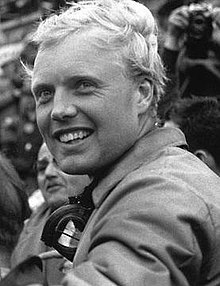
** from Wikipedia: "John Michael 'Mike' Hawthorn (10 April 1929 – 22 January 1959) was a British racing driver. He became the United Kingdom's first Formula One World Champion driver in 1958, whereupon he announced his retirement, having been profoundly affected by the death of his teammate and friend Peter Collins two months earlier in the 1958 German Grand Prix. Hawthorn also won the 1955 24 Hours of Le Mans, but was haunted by his involvement in the disastrous crash that marred the race. Hawthorn died in a road accident six months after retiring; he was suffering from a terminal illness at the time."
-
Hayes, Eric Gerald
M.17* Captain Eric Gerald Hayes 
b. 11 Jan 1900, Hoolebank, Chester 6 Nov 1939 to Nov-40
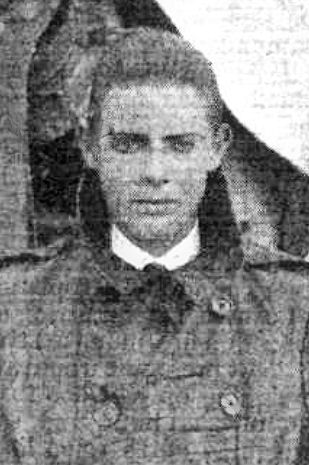
1916 (Flight)
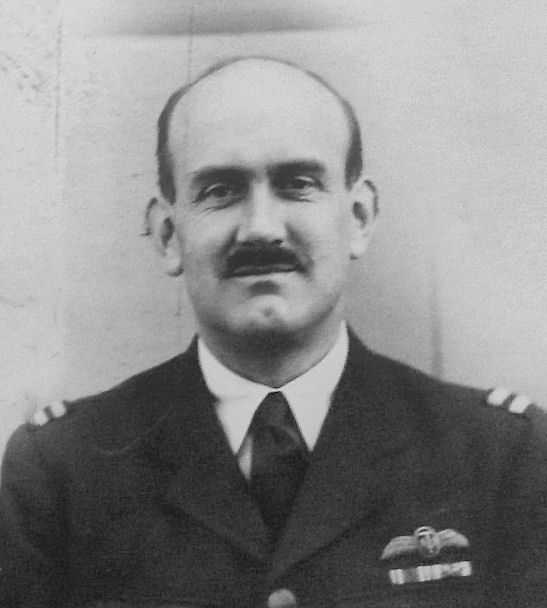
ATA
RNAS, RAF 1916 to 1919 then Officer in Shropshire Yeomany to 1929.
Resident Ardoch, Braco, Perthshire in 1916
Owned a 1927 DH.60 Moth, G-EBQW, then a 1934 Stinson SR-5 Reliant, G-ACSV
Flight, June 23 1927: "Captain Eric Hayes has G-EBQW. He landed at Stag Lane one afternoon lately with his left arm in a sling, and he explained quite seriously that as he had dislocated his shoulder bone in a motorcycle accident, flying was now the only way he could get about the country."
ATA Contract Terminated 25 Nov 1940
d. Mar 1959, Scilly Isles
-
Hayman, Norman Lambert
M.475 Flight Captain Norman Lambert Hayman 
b. 8 May 1916, Cranleigh, Surrey 4 Jun 1941 to 30 Nov 1945
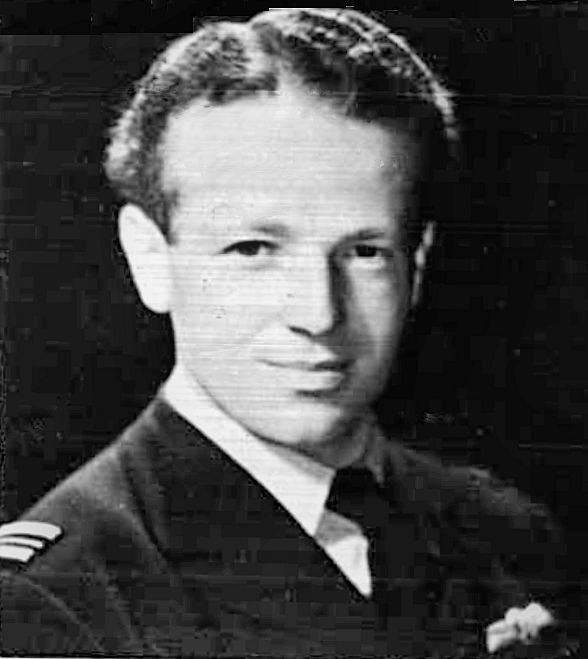 RAeC 1945
RAeC 1945Father: Gordon Victor Hayman
Educated at Cranleigh School
prev. Lieut. in RNVR Feb-39 to Feb-41
Next of Kin: (mother) Winifred Agnes Hayman, Caryll House, Okehurst, Cranleigh
m. 1943 Beatrice Glanley 'Betty' Grant also of the ATA, although they appear to have separated sometime before 1947.
Postings: 6FPP, AFTS (as Instructor), 1FPP, 7FPP
Demoted to First Officer in Mar 1943 for flying a Halifax without authority; he ferried it "without full uniform, money, travel vouchers, identity card or correct kit" and then had to stay overnight at an RAF station.
"A most willing, conscientious and sound pilot who has flown a great numbers of hours for this Unit."
Posted to Air Movements Flight in Mar 1944 - "it is felt that, due to his overkeeness, he would be more suited to the Air Movements Flight... as it would leave him more to his own initiative." "His manner is courteous and pleasant."
Post-WWII, Norman entered the 1947 Manx Air Races and Rally, flying G-AHIZ, a Beechcraft Traveller belongning to Sidney Rubin of Hindhead.
He also took a round-trip by ship to Madeira in January 1949, giving his occupation as a 'Company Director' and his address the Royal Aero Club, Pall Mall.
[In September 1949, his wife Betty and her mother sailed to South Africa, apparently intending to settle there, but they returned in July 1950.]
d. 3 Jul 1951 - Cranleigh
Probate £8,624 18s 2d for "Norman Lambert otherwise George Norman Hayman"
Download ATA Pilot Personal Record (.zip file):
-
Hayter, Frederick Roy Eaton
M.---- Pilot Cadet Frederick Roy Eaton Hayter 
b. 18 Jul 1919, Christchurch, Hants 26 Jul to 22 Oct 1943
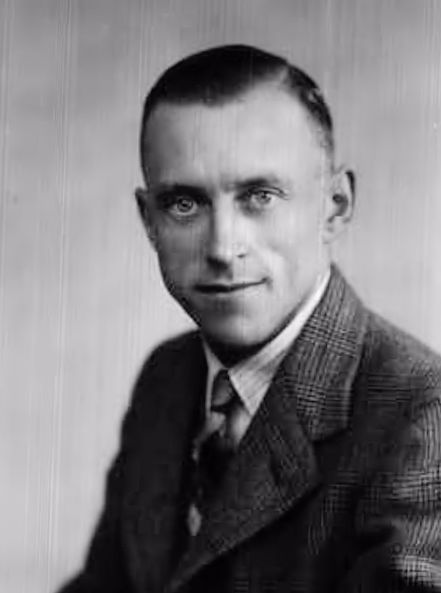 1949
1949Father: Montague William Hayter, a Water Bailiff; Mother: Minnie [Clark]
Ed. Broadlands School, Christchurch, Hants
prev. GPO; Signalman, Royal Corps of Signals 15 Jan 1940 to 30 Mar 1941
prev. exp. 2.55 hrs on DH Moth
Address in 1943: Royal Fishery House, Christchurch
Postings: ---
RAeC Certificate 25483 dated 10 Jan 1949, taken at West London Aero Club
m. 1959 in Christchurch, Bettina L [Hibbert]
d. 15 Jul 2002 - Bournemouth
-
Hayward, William Arthur
M.420 First Officer William Arthur Hayward 
b. 15 or 16 Apr 1907, Surbiton, Surrey 18 Apr 1941 to 15 Jun 1942
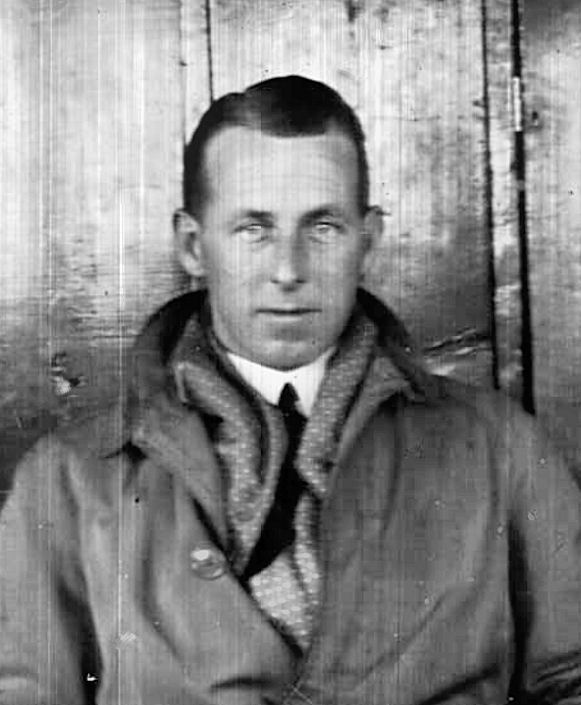 1937
1937prev. a chauffeur, then an aircraft fitter for Hawker at Brooklands
Address in 1941: Ivy Cottage, St Mary's Rd, Oatlands Park, Weybridge
Postings: 6FPP, 16FPP
Off sick with gastro-enteritis from Dec-41 to Jan-42, then Apr-42 to May-42
"Has not made much progress lately, probably due to indifferent health."
Contract Teminated 15 Jun 42
d. Mar 1976 - Newport, Gwent, Wales
Download ATA Pilot Personal Record (.zip file):
-
Hazledine, Alliston Temple Clough
M.20* First Officer Alliston Temple Clough Hazledine 
b. 14 Apr 1907, Bedford 27 Sep 1939 to Feb-41
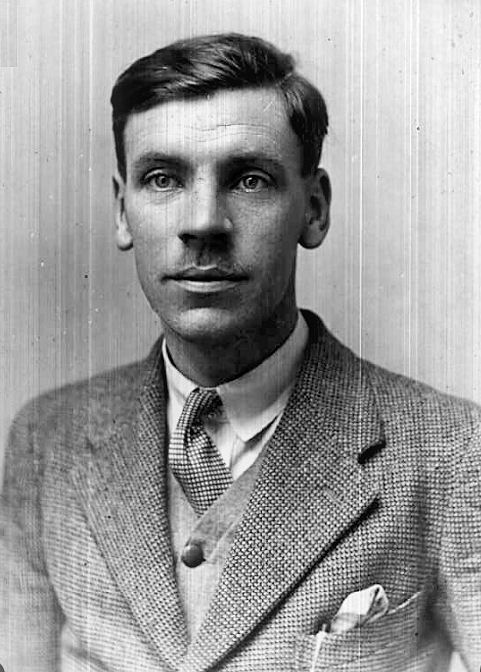
1939
RAF 1928-32
A 'Conservative Agent' in Tavistock in 1939
later a Lt-Cmdr, RNR
d. Jun 1978, Exeter
-
Head, Anthony Graham
M.21 Captain Anthony 'Graham' Head 
b. 14 Sep 1909, Hove Sussex 11 Sep 1939 to Nov-45
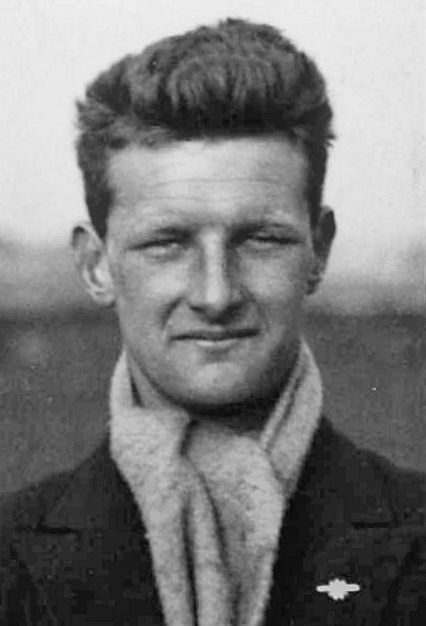
1930
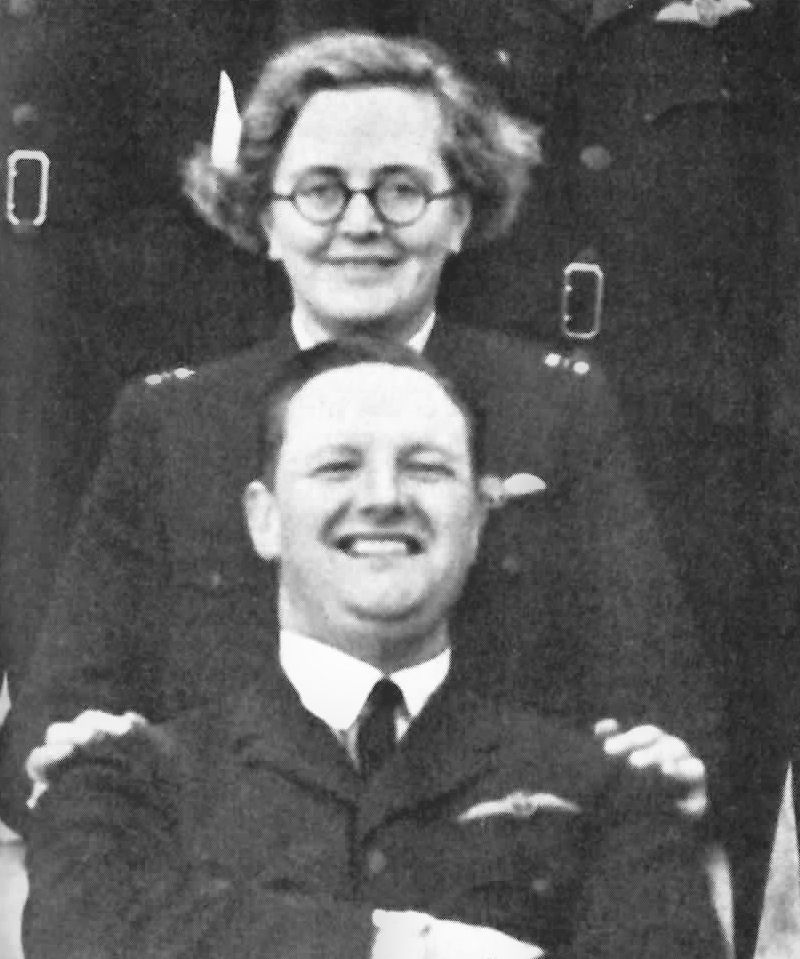
with Susan Slade
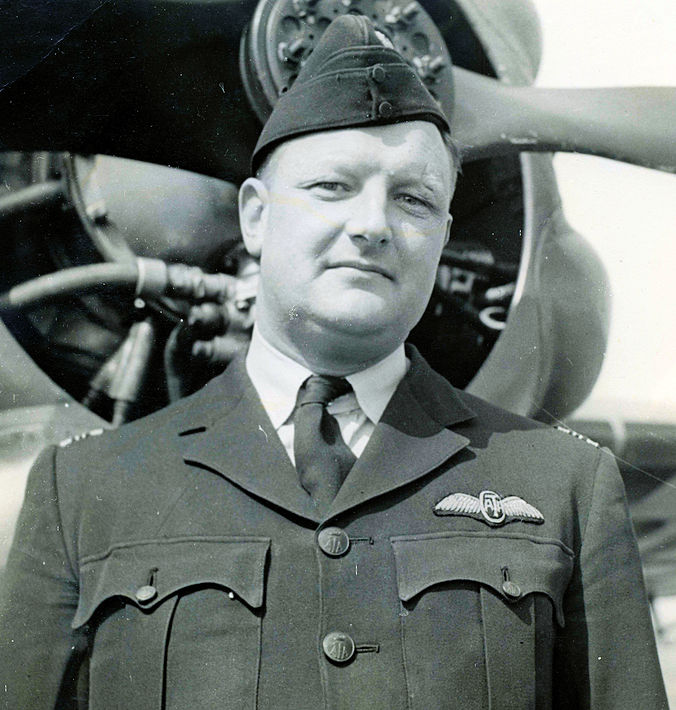
prev pilot for Brooklands Aviation Ltd, and Flying Instructor in Civil Air Guard
In Jan-41 he was demoted to Second Officer for 6 months, for "Seriously unbecoming conduct at the Grosvenor Hotel, Chelsea, London", but by May they reported that "his discipline was poor but has improved greatly of late", and by 1944 he was "an excellent pilot with a most cheerful manner. His long term as a civilian instructor is of great value to Training Pool and he has proved himself fully capable of taking entire charge of the Pool."
Post-WWII, Marcus Hale's son tells me that "I knew him as a child, one of my father’s good flying mates. I often accompanied my father and Graham Head down to the local flying club at Sandown, Isle of Wight, and waited while they got plastered on G&T’s before going flying or flying through a fence, from laughing too much. The good old days.
Graham was somewhat of a genius with aeronautics and made tiny paper planes with paper and paper clips, which, in a windless room he could get to do all sorts of aeronautical manoeuvres before landing back in his hand. I remember him doing this at the Air Club, back at Seaview and later in Bognor Regis."d. Sep 1980, Hove
-
Helmy, Dorothy Frances (W.---)
W.--- Cadet Dorothy Frances Helmy 
b. 31 Oct 1910, Padstow, Cornwall 2 Dec 1941 to 12 Jun 1942
 1939
1939nee: Arkell
Father: Herbert Arkell, Mother: Marie Louise
Royal Aero Club Certificate No. 16399, 16 Oct 1938 (Airwork School of Flying, Heston) (photo missing)
Address in 1938: "Courtfield", Courthouse Rd S, Maidenhead
prev. Bookkeeper, Secretary; A R P
m. 1940 in Maidenhead Saleh Helmy (b. 1905 in Cairo, Egypt)
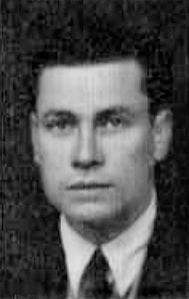 Royal Aero Club Certificate No. 18315, 24 Sep 1938 (Airwork School of Flying, Heston)
Royal Aero Club Certificate No. 18315, 24 Sep 1938 (Airwork School of Flying, Heston)Saleh designed the Helmy Aerogypt at Heston Aerodrome in 1938. It was a low-wing cantilever monoplane initially powered by three 22 hp (16 kW) Douglas Sprite engines, with an upward hinged roof that acted as a landing flap. Registered G-AFFG, it first flew in 1939.
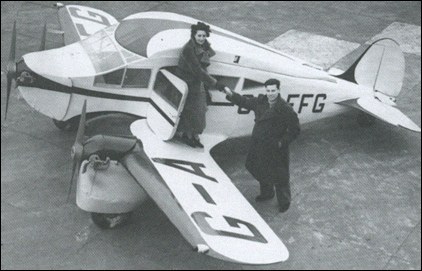 ... and this is presumably Dorothy and Saleh with the Aerogypt I (she was registered as the owner)
... and this is presumably Dorothy and Saleh with the Aerogypt I (she was registered as the owner)It was based at White Waltham Airfield from 1943, but written off in 1946 and spent its remaining days as a hen coop:
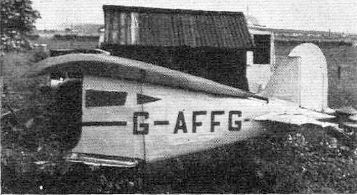 in 1960 ('Flight')
in 1960 ('Flight')
d. 5 Mar 1993 - West Wittering, Sussex
-
Henderson, Ralph Harold
M.22 * Flight Captain Ralph Harold 'Snagger' Henderson MBE 
b. 15 Jan 1894, Loughborough Junction 8 Apr 1940 to 31 Dec 1945
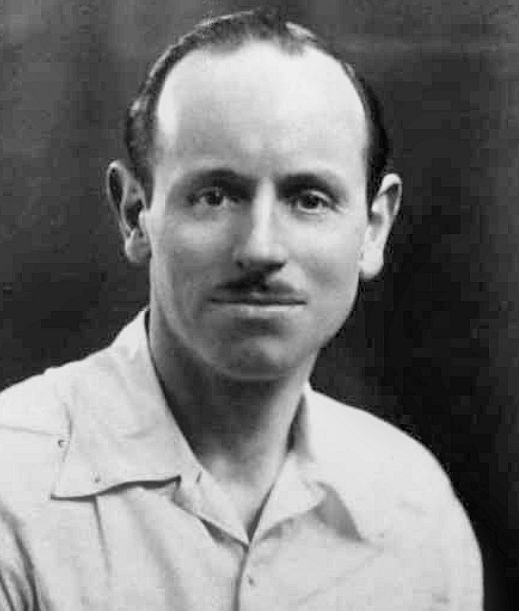 1934
1934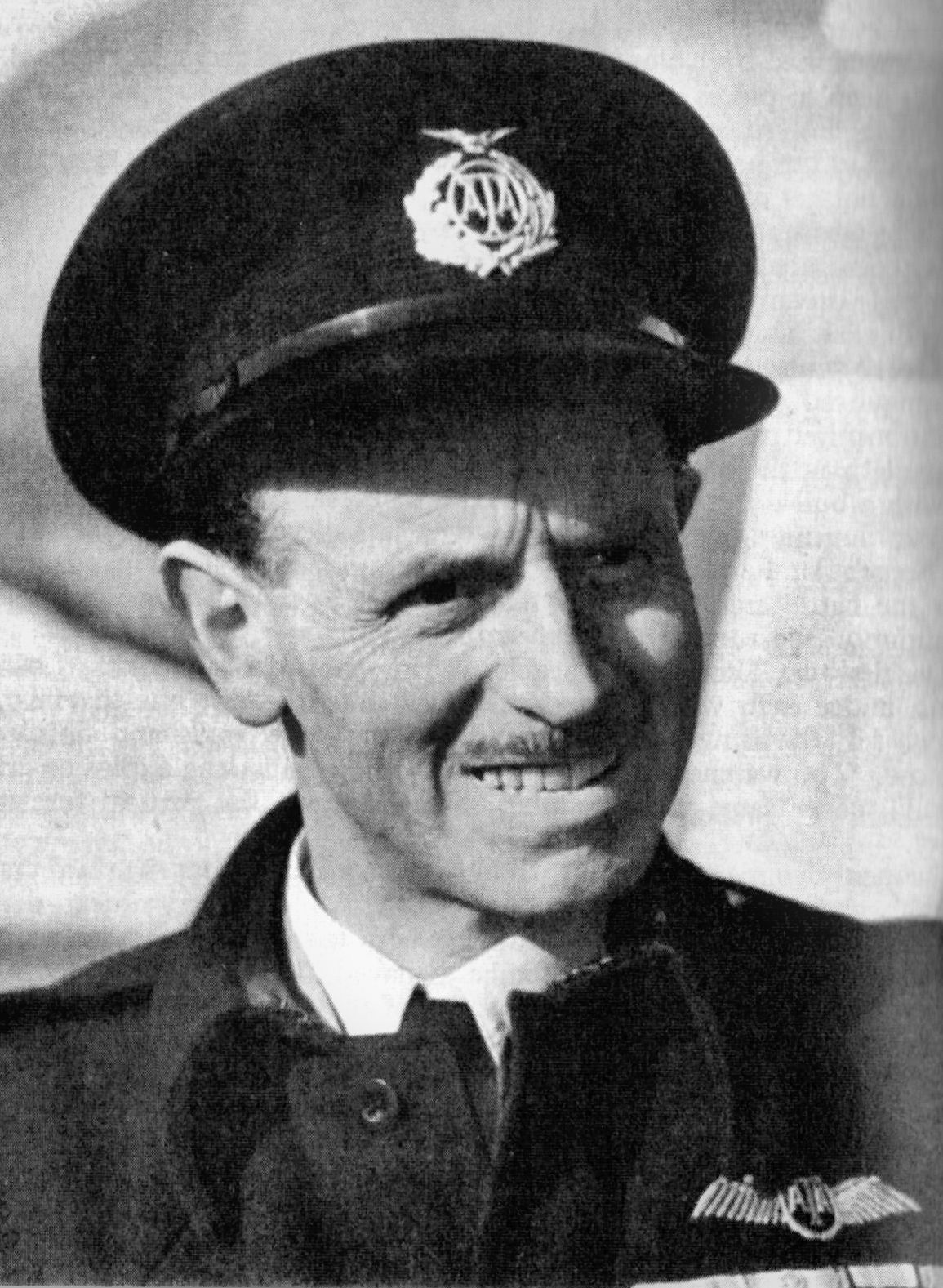 BG
BGprev. a motor and marine engineer
Address in 1934: 22 Clifford Ave, London SW14
Certificate of Commendation, 1940: "On the 7th October, 1940, FLt-Capt Henderson made a successful landing without damage in a Wellington aircraft in spite of the fact that the elevator control had broken off causing him partially to lose control, and that at the time the wind was strong and gusty"
From 1941 until Dec-42, Chief Test Pilot in ATA's Technical Department, responsible for producing many of the early 'Pilots Handling Notes'.
Certificate of Commendation, 1943: "On the 10th April, 1943, Flt-Capt Henderson was instructing on a Halifax aircraft. During the course of approach the up lock control handle of the undercarriage port leg broke off leaving the leg locked up. Flt-Capt Henderson thereafter displayed great initiative and ingenuity. With the only tool available - a crash axe - he chopped away the back of the rest bunk and made a hole through the fuselage wall, thereby laying bare the broken pull rod. The broken piece of the rod was then unscrewed from the tee handle by nipping it in the hinge of the armour-plate door. He then screwed the handle back on to the remaining threads of the pull rod and was enabled thereby to lower the undercarrige by the normal manually operated emergency system. The aircraft was then landed without damage, thereby saving a valuable aircraft and preventing possible injury to his crew."
He celebrated his fifty-first birthday (15 Jan 1945) by beginning the task of delivering a Spitfire from Hawkinge in Kent to the French Air Force Wing at Luxeil. "When the pilots arrived to collect them [12 Spitfires] the landscape was covered in snow, the temperature was well below zero and a biting east wind blew in heavy gusts." BG
d. 15 Jul 1947 - Logrono, nr Bilbao, Spain, in an air crash.
"Hull Businessman die in Plane Crash
Mr Meyndert S. Kamphuys, managing director of British Cocoa Mills, Ltd, Hull, and his brother, Mr Henry S Kamphuys, were both killed when a plane in which they were flying to Africa on business crashed in the Lumbreras Mountains in Northern Spain. Also killed was the pilot, Ralph Harold Henderson, well known in London flying circles. The plane had been privately chartered." - Hull Daily Mail
-
Heppell, Rhoda Elinor (W.61)
W.61 3rd Officer Rhoda Elinor Heppell 
b. 1 Feb 1920, Newcastle-on-Tyne 16 Dec 1941 to 31 Jul 1942
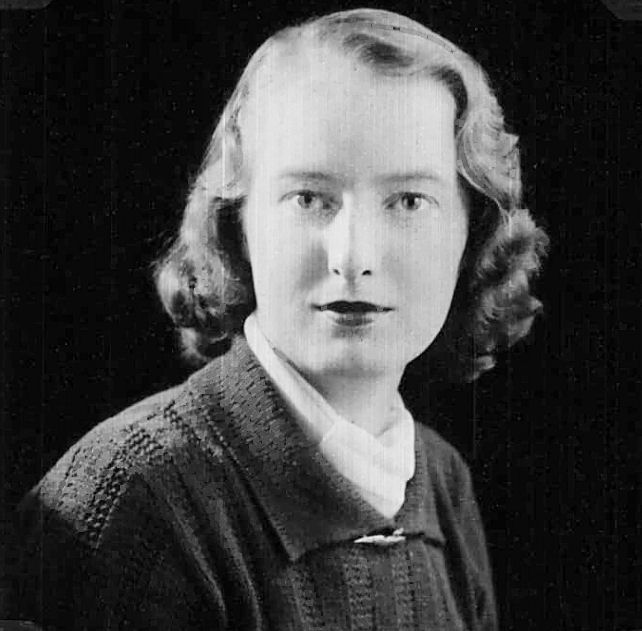 RAeC 23 May 1939
RAeC 23 May 1939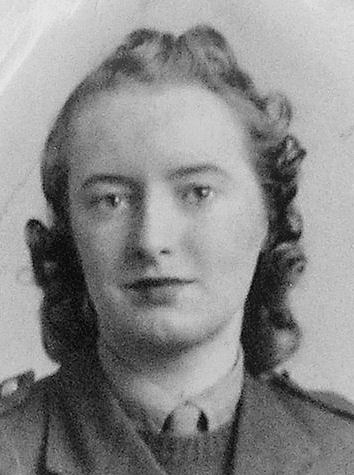 ATS
ATSFather: Sqn-Ldr Philip Forsythe Heppell, with the British Air Staff in Washington DC; mother Dorothy Elizabeth [Fryer]
Her father was a WWI RFC pilot and one of the founders of Newcastle Aero Club, "where he taught his children to fly as soon as they left school."
[Her brother, Philip Whaley Ellis Heppell, also became a Squadron Leader in WWII; the three of them were known as the 'Flying Heppells']
Ed. St Helens, Abingdon, and Berne
prev: 1939-41 Driver, ATS
Address in 1941: Keston. Matthew Bank, Newcastle-on-Tyne
m. 1942? Roy? Croft
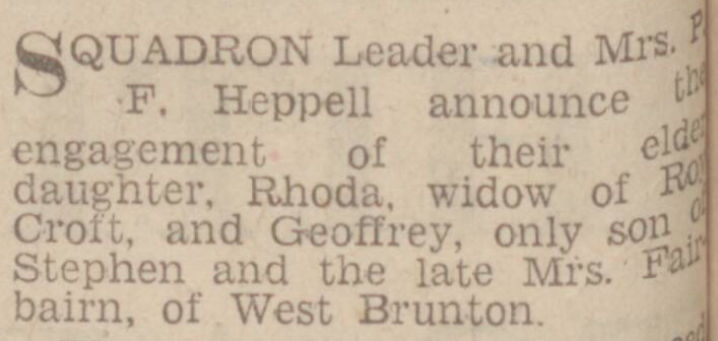
[A very frustrating clip from the Newcastle Journal and North Mail, 21 Jun 1943!]
m. 17 Aug 1943 in Newcastle, Stephen 'Geoffrey or Jeffrey' Fairburn
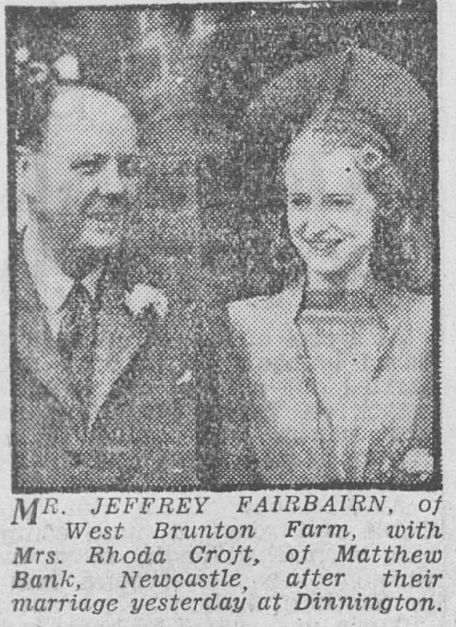
Later a Pilot Officer in the Women's Royal Air Force Volunteer Reserve (WRAFVR)
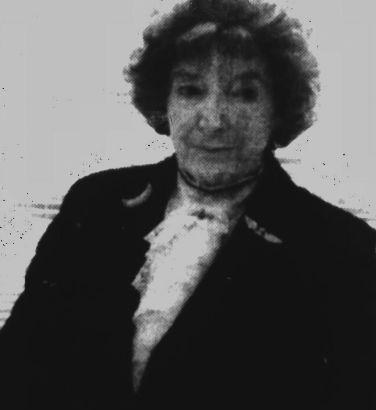 Newcastle Journal
Newcastle JournalShe was still flying in 1974 - she said then that "Light aircraft haven't changed that much since I started. At the time it wasn't the done thing for a woman to do, but I suppose it was inevitable I would fly."
d. 1 Nov 2001 - Newcastle-on-Tyne
-
Herringshaw, Stanley Richard
M.403 First Officer Stanley Richard Herringshaw 
b. 2 Mar 1905, Erith, Kent 6 Apr 1941 to 23 Jan 1944
[1,002 days]
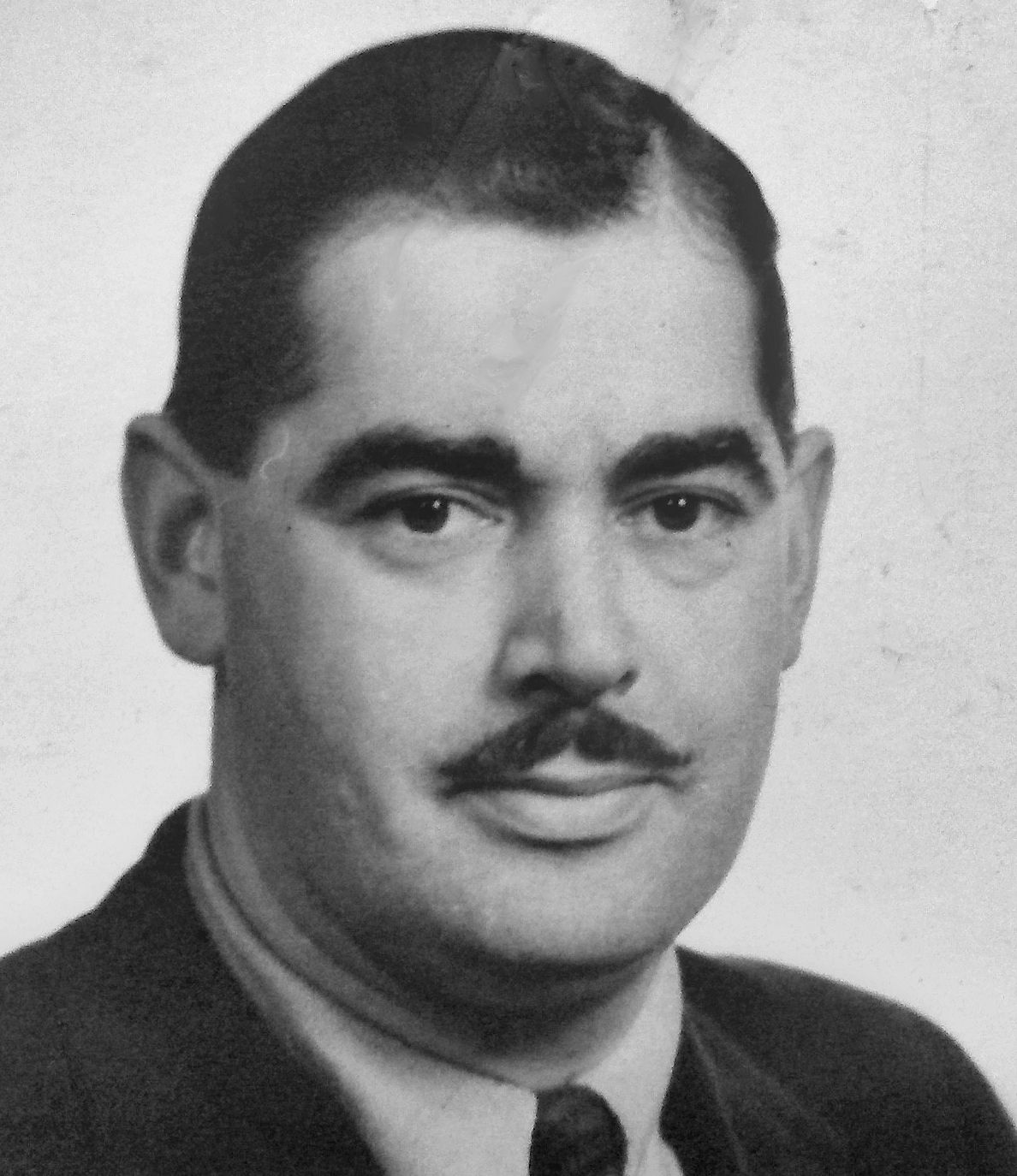 ATA
ATAed. at Elborow and Rugby
m. 1936 Myra Helen [Small], 3 children
RAFO from 1928 to 1941; Studied Engineering at Imperial College London, then an Aeronautical Draughtsman for Fairey & Co.
prev. exp. 188 hrs in 'Hart, Audax, DH87, DH Tiger Moth, Miles Hawk, Blackburn B2'
Address in 1941: 12 St Mary's Walk, Hayes, Middx. Later moved to "Ashfield", Milmer Rd, Burnham, Bucks.
Originally applied to ATA in Aug-1940 but withdrew owing to 'circumstances beyond my control', and re-applied in Mar-41.
Postings: 1FPP
"A keen, hardworking pilot who is progressing well, and developing into a first rate ferry pilot. Discipline Good." [Frankie Francis] He was offered a place as an instructor but turned it down as he wanted to continue ferrying, and felt he did not have the right temperament to be an instructor.

d. 23 Jan 1944 [Died in ATA Service] in Beaufort N1001 which crashed at Chobham, Surrey, after a fire in the port engine caused by a 'seizure of a wrist pin'.
Buried Maidenhead (Section D No, 16W)
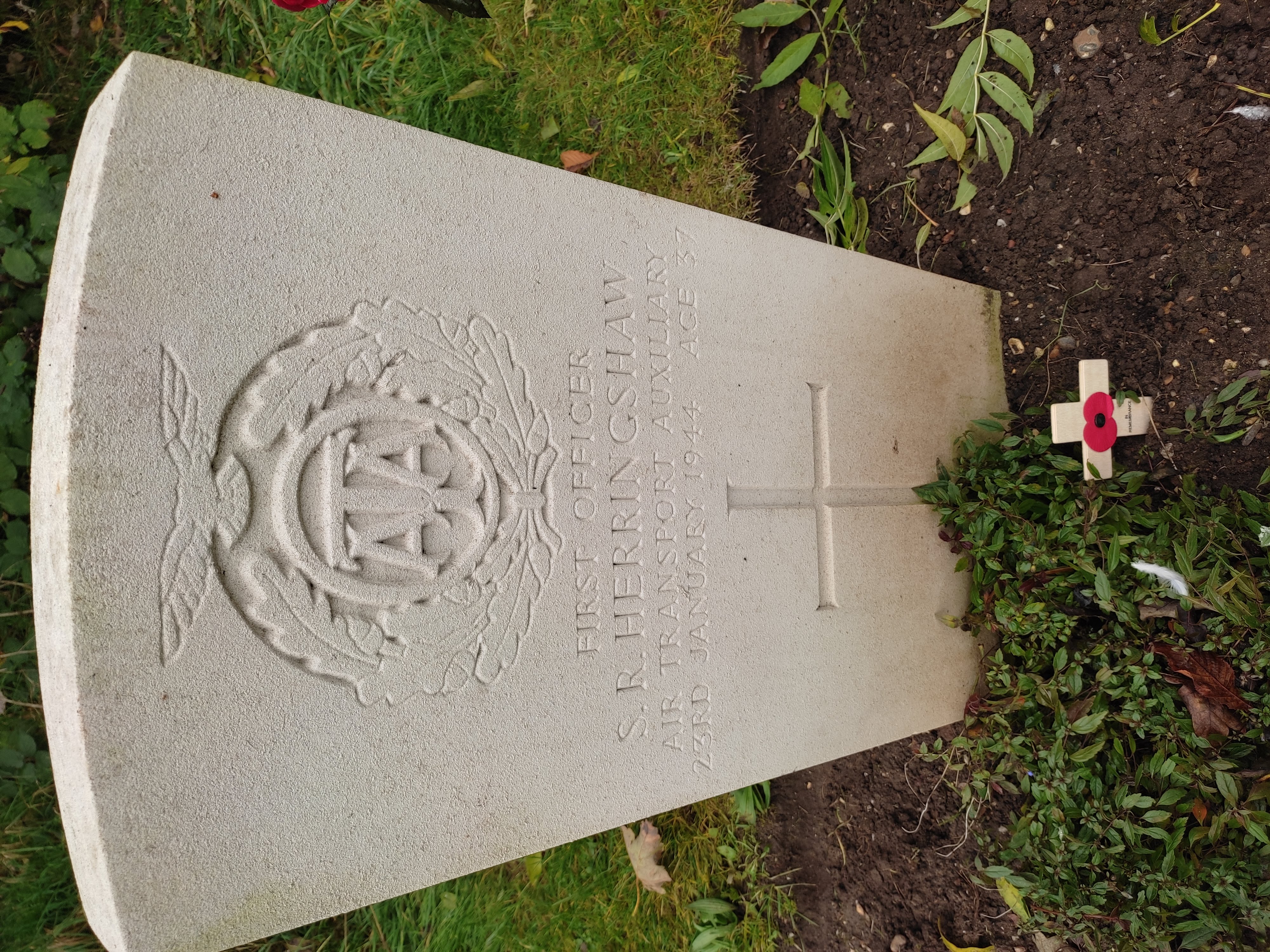
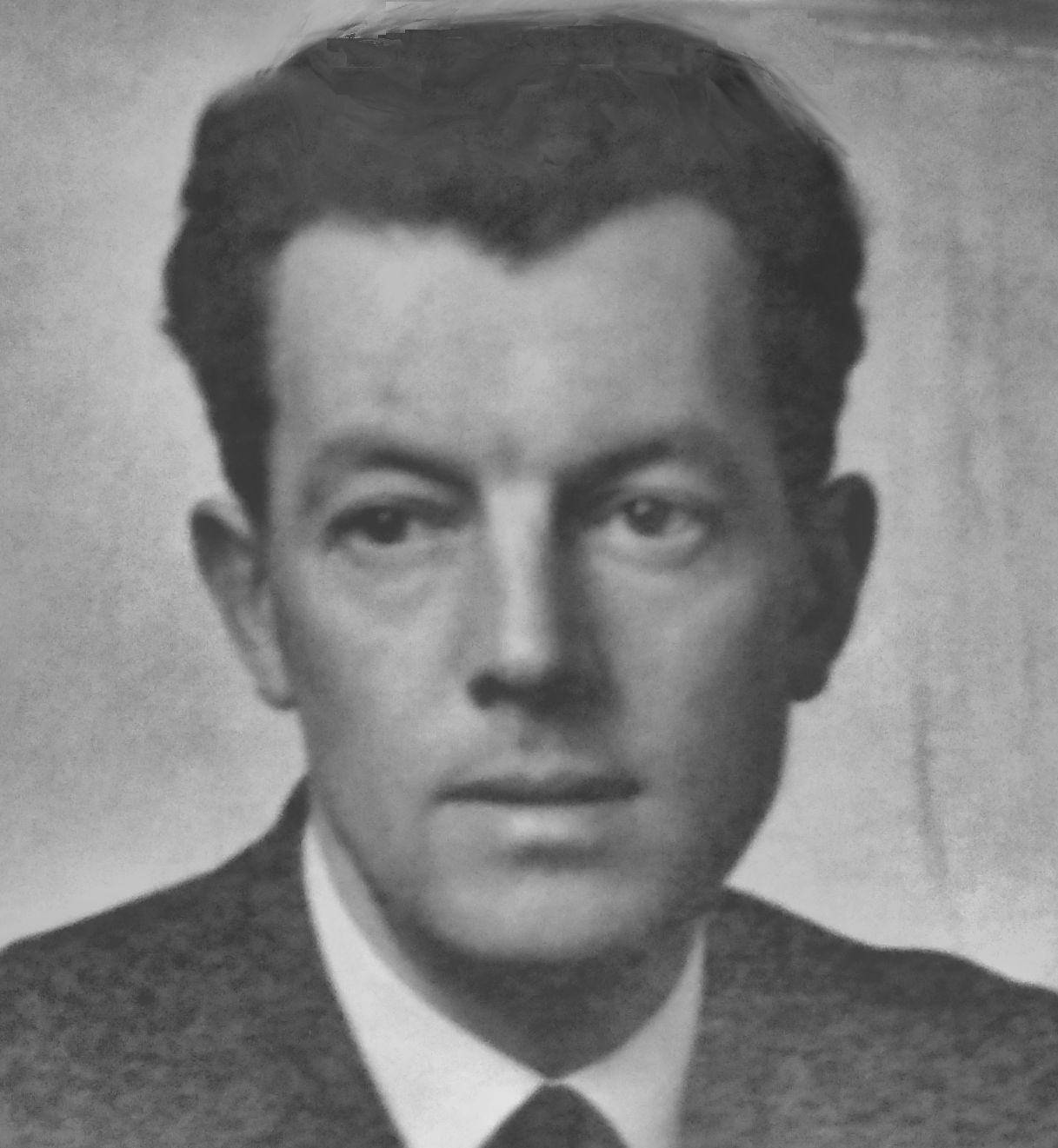
Third Officer [Flight Engineer] Stanley Edwin Cooke also died.
Download ATA Pilot Personal Record (.zip file):

-
Hicks, Eric Perrin
M.359 * First Officer Eric Perrin Hicks 
b. 28 Jun 1891, Sheffield 4 Mar 1941 to 17 May 1945
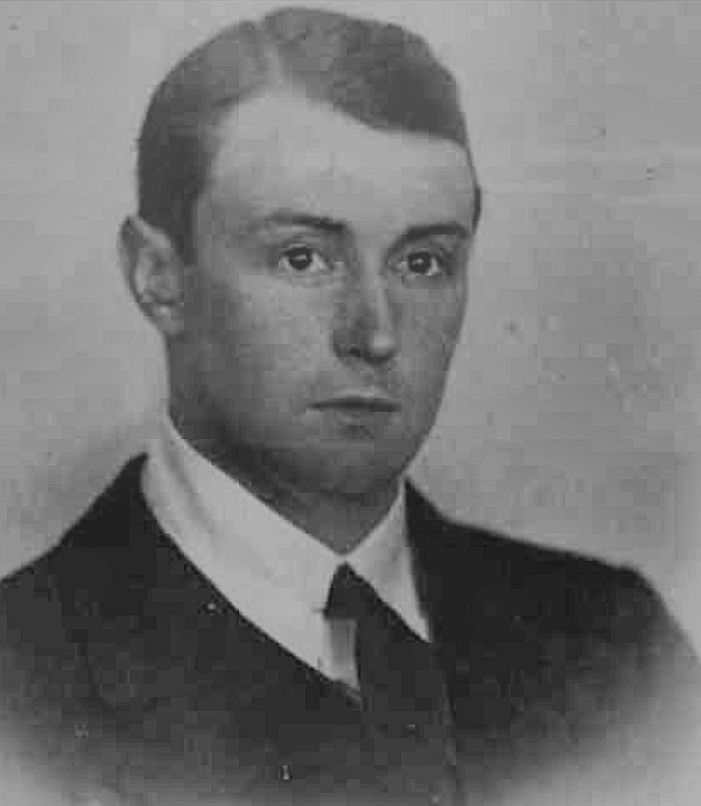 1915
1915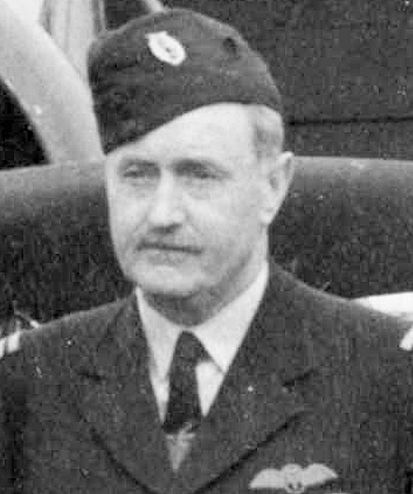 ATAM
ATAMprev. a Flight Sub-Lieut., R.N., then a physician
Commended for "valuable service in the air", 14 Jun 1945
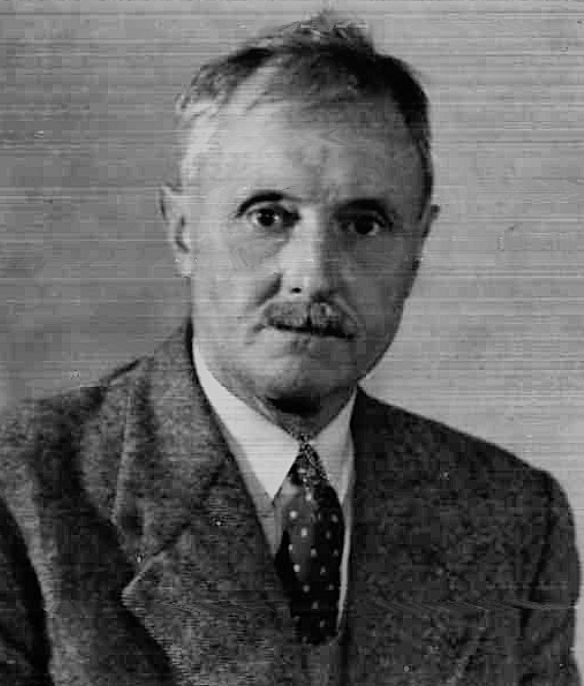 1946
1946Address in 1946: Mylor Bridge, Falmouth, Cornwall
-
Hill, Bridget Grace Marian Ledger (W.49*)
W.49 * 3rd Officer Bridget Grace Marian Ledger Hill 
b. 7 May 1914, Camberley 15 Aug-41 to Mar-42
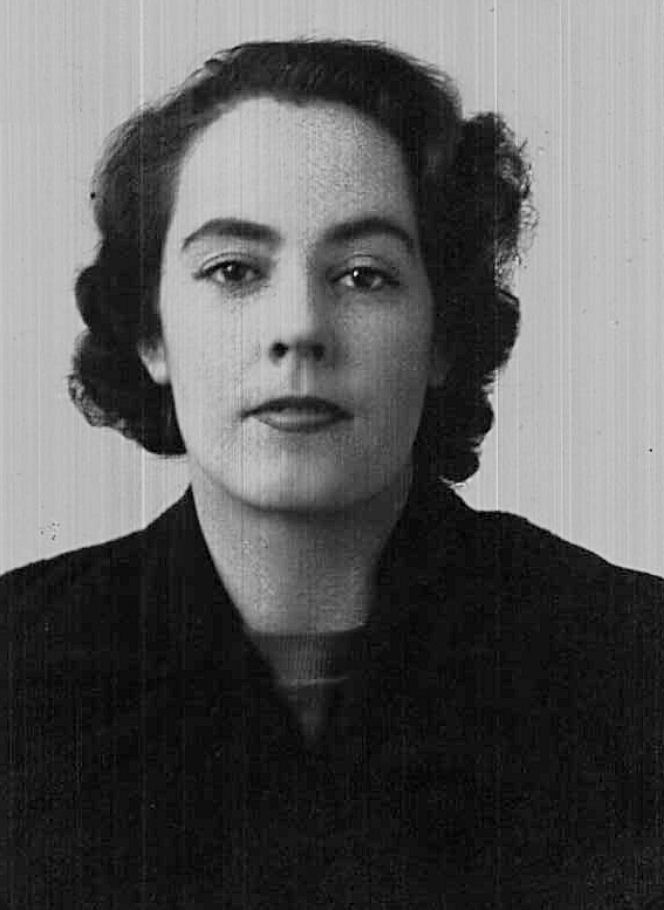
RAeC 1939
Prev. Exp: 78 hrs solo

Bridget's father was Major-General Walter Pitts Hendy Hill and they lived in Amesbury, Wilts.
She earned her RAeC Certificate in Feb 1939 in Wiltshire. That September, within a fortnight of war being declared, she wrote to Marion Wilberforce;
"I am writing to know if you have any sort of flying job to offer me. I had almost completed my instructor's course, during which I did some blind flying - this was interrupted by the outbreak of war. I do hope you can find some use for me, as I adore flying and have spent everything on my training as an instructor."
And, to back her up, her instructor wrote "I hereby certify that Miss Bridget Hill has carried out 108 hours flying, of which 78 have been solo. During her training as a pilot she has shown very good progress, and as a cross-country pilot I would place her as above average.
She has learned quickly and has displayed remarkable common sense in the matter of estimating the weather in the interests of safety.
While flying here she started an instructor's course and, although this was not completed, she gave evidence of ability as an instructor."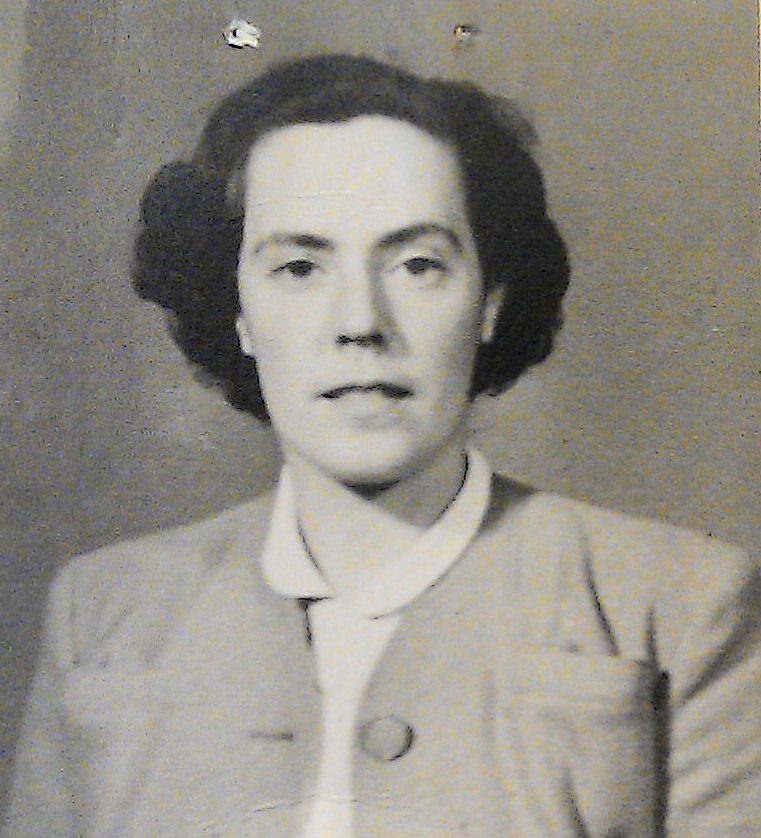
She was actually a bit too early: "I regret to inform you that we are not considering employing lady pilots in the ATA at the moment. In any case the minimum solo flying experience requred is 250 hours. We are filing your letter, however, and if in the future the position should change we would get in touch with you."
They didn't, of course, get in touch with her, so in May 1940 she wrote again, and was offered a test.
This, as she admitted later, was a disaster: "I am more than aware what a mess I made of my test, but I think the strongest nerves could hardly help being affected by waiting from 10 to 5 with so much at stake!"
However, by December of 1940, she was brave enough to write to Pauline Gower, again; "There has been so much in the newspapers of the expansion of the ATA, that I have decided to risk bothering you again by writing to know if there is any hope for me."
This time they wrote back to say No (again) - and you still need at least 150 hours.
Most people would probably have given up by now, but Bridget was made of sterner stuff. She took a job driving a mobile canteen but, here she is again, on the 10 Mar 1941: "I am answering the appeal made on the wireless this evening by Lord Londonderry to members of the Civil Air Guard and holders of 'A' licences.... I am hoping that there is some chance of my being able to be of service."
At last, they relented, and offered her another test on the 2 April 1941. She was grateful, excited, and a bit apprehensive; "One is bound to be a bit rusty not having flown for so long..."
Her test was with Margaret Cunnison, and this time it went OK - "quite good, but would need some further training".
Even then, there was another couple of months' wait until, finally, she got the call: "Please report 15 July for 15 Aug."
She was delighted.
Kitty Farrer, the ATA Adjutant, filled in a little essential background knowledge: "She tells me she is a Baha'i, but would be satisfied with any form of christian burial!"
After 4 months at Hatfield, she was posted to Hamble, then Training Pool. Her flying instruction went well. "She is shaping very well indeed. An intelligent, hard-working pilot. Expected to do well." She completed 23hrs on Tiger Moth, 4hrs 45min on Magister.
She was seconded to No 15 Ferry Pool (Hamble) on the 19th Jan 1942, and made 75 ferry flights, totaling 129.35 hrs, in the following few weeks. She flew Tiger Moths, Puss Moths and a Wicko.
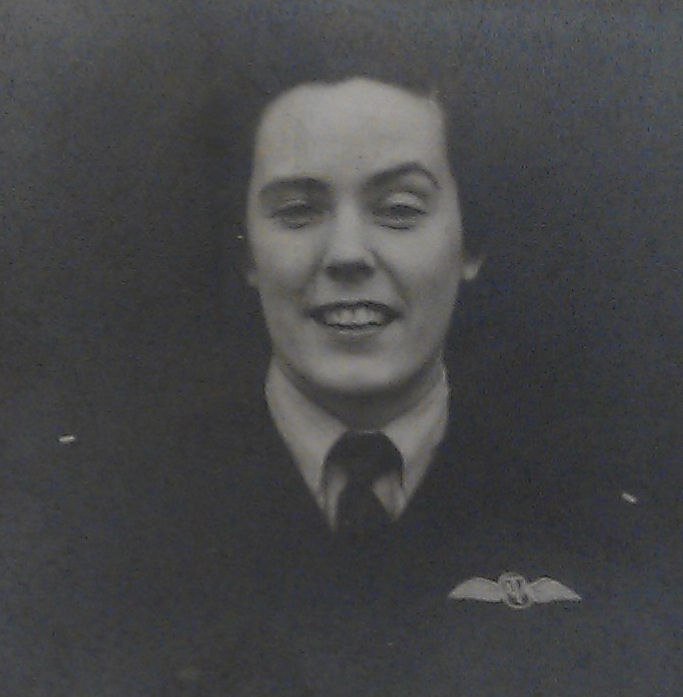
Sadly, however, she was killed at 12.20pm on the 15 Mar 1942 when flying as a passenger in Fairchild Argus HM178, which stalled and crashed onto a bungalow when returning to land at White Waltham after bad weather.

Yorkshire Evening Post, 17 Mar 1942: "AIRWOMEN KILLED Ferry Pilots' 'Plane Hit Bungalow. The Ministry of Aircraft Production announces that Flying Officer Graham Lever, Third Officer Bridget Hill, and Third Officer Bessie Sayers lost their lives in a flying accident on Sunday. The accident occurred in the course of their duties with the Air Transport Auxiliary. The 'plane crashed on to a bungalow. A fourth passenger in the machine, also a woman A.T.A. officer, was injured. Twenty-six people were injured when they rushed to the house to extricate the passengers in the 'plane. It is believed that the petrol tank in the machine exploded. The injured woman passenger was Third Officer P. D. Duncan."
THROWN CLEAR At the inquest, which was adjourned until April 14. the Coroner stated that Miss Duncan, who was in hospital, had had "an extraordinary escape." It is understood that she was thrown clear of the house as the 'plane crashed, and escaped with cuts and bruises. Among the injured were children who were in the street. The petrol tank exploded some time after the crash, owing, it is believed, to contact with a fire in the kitchen. A man named Croft, living in an adjoining bungalow, was blown through a window into the street and badly hurt but a child in the front room of the bungalow was rescued almost uninjured. "
She is buried in Britford Cemetery.
[Her older brother, Brigadier Stanley James Ledger 'Speedy' Hill, DSO**, MC, was a World War II Commander who joined the British Airborne Forces at an early stage, fought in North Africa and went on to play a vital role in the D-Day landings and the crossing of the Rhine:
see Stanley James L Hill | ParaData]
Her father Walter wrote to Pauline on 20 Mar 1942:
"My Dear Miss Gower, I must write and tell you once again how happy in, and proud of, her Corps Bridget was. It was all one great adventure for her, and her purpose in life was to make it a success"
Her mother Phyliss added: "Dear Miss Gower, I feel I want to write to you about our darling Bridget. She used to talk to me about you with the deepest admiration...
The man who stood next to me at her graveside would have been her husband and it is so sad to think that they were deprived of that great happiness.
I wouldn't have had my darling in any other service... it was a wonderful life and she was so supremely happy."
Walter died just over four months after Bridget's death, on 26 July 1942.
Phyliss d. 1982.
Download ATA Pilot Personal Record Part 1 (.zip file):

Download ATA Pilot Personal Record Part 2 (.zip file):

-
Hill, Frank
M.734 First Officer Frank Hill 
b. 14 Oct 1912, Great Yarmouth 31 Mar 1942 to 20 Mar 1945
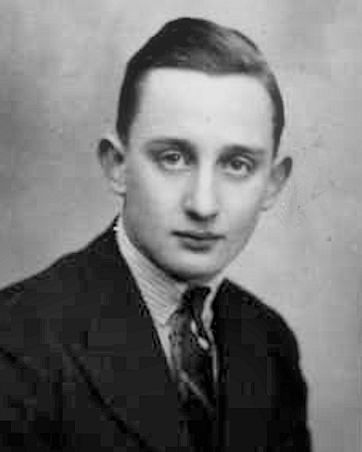 1935 RAeC
1935 RAeC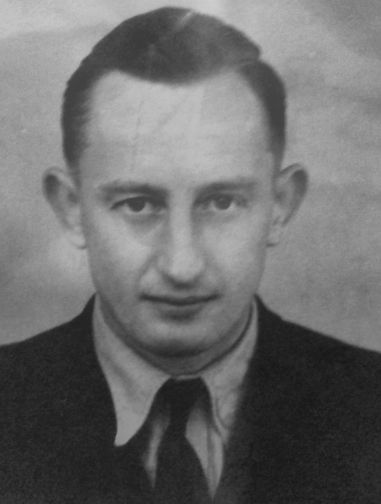 ATA
ATA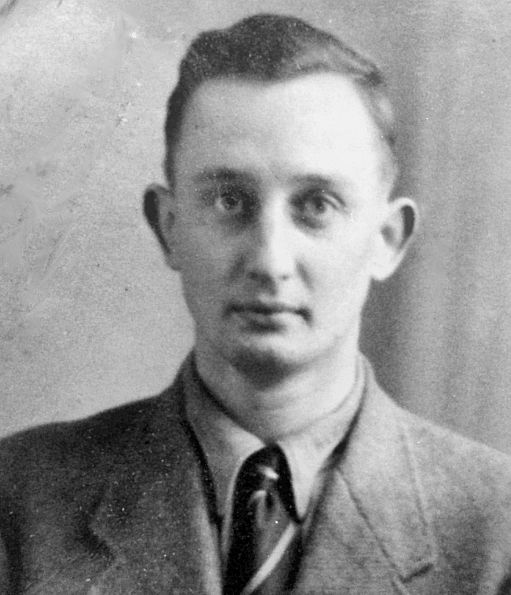 ATA
ATAFather: Frank Powell Hill, mother Edith Caroline [Brewer]
Ed. Bishops Stortford College
prev. Confectioner, Cake Maker and Caterer
prev. exp. 86 hrs in Gipsy and Cirrus Moth, Hornet Moth
In 1933, as a result of a motorcycle accident, his left leg was amputated between the knee and ankle... "as I learnt to fly in 1935 you will see that all my flying has been done with this disability"
m. 1938 Marjorie Muriel [Clogg]
He spent 1939 and 1940 as a volunteer in the Finnish-Russian War
Address in 1942: Blue House, Warren Lane, Hopton, Gt Yarmouth
Postings: 7FPP, 3FPP, 6FPP, 9FPP
Reprimanded in Jul 1944 for "Taxying with insufficent care"
"Although of a quiet nature, he seemed very keen to do his job and this he carried out in a satisfactory manner... safe and conscientious"
"A most reliable and cheerful officer who has become the mainstay of the Pool (9FPP)"
6 accidents, only one his fault:
17 Mar 1943, forced landing in Henley L3244 due to progressive engine failure
5 Jun 1944, the port tyre of his Typhoon JR205 burst, he swung of the runway and ground-looped, and the undercarriage collapsed
10 Jul 1944, the incident which led to his reprimand - he taxied Hurricane IV LF451 into an (unmarked) heap of gravel and cement bags. Flying Control was jointly held to blame
13 Oct 1944, a forced landing in Vengeance RB539 after the port escape panel blew off in flight
7 Feb 1945, another forced landing, in Typhoon Ib RB476, after a leak covered the windscreen with oil

d. 20 Mar 1945 (Died in ATA Service) - in Anson I DJ471 (passenger James Waldron Brown, also killed) which collided with Typhoon JP433 at RAF Aston Down, Glos.
Both aircraft were approaching to land, but neither pilot could see the other, and the Typhoon struck the Anson from behind and above.
Buried Hopton St Margaret Churchyard, Gt Yarmouth
"My great burden has been eased by the glowing tributes paid to my husband" Marjorie M Hill
The £2,500 insurance was paid to Marjorie on 30 April 1945.
-
Hill, Peter Brockwin
M.1155 * 3rd Officer
[Seconded from RAF]
Peter Brockwin Hill 
b. 20 Jun 1919, Hampstead, London NW 5 Sep 1944 to 15 Apr 1945
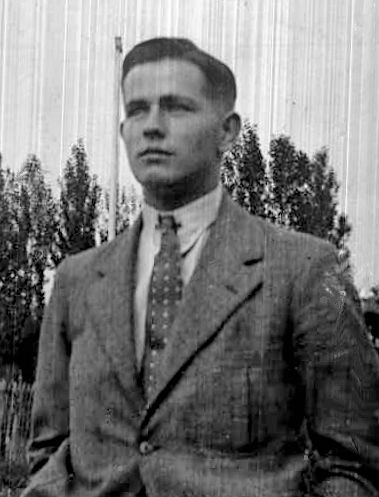 1938
1938prev. an aero engine fitter
Address in 1938: 'Crosby', 25 The Newlands, Wallington, Surrey
-
Hills, Oswald Marchant
M.216 * Commander Oswald Marchant Hills 
b. 10 Sep 1896, Stafford 7 Oct 1940 to 1 Sep 1944
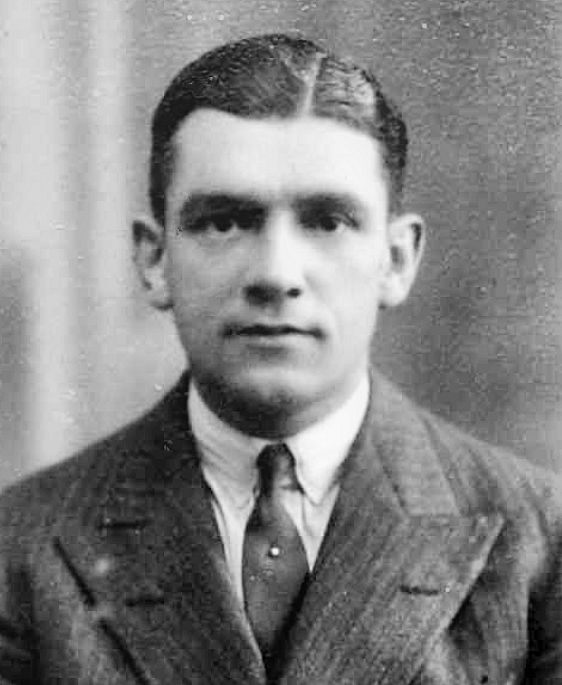 1930
1930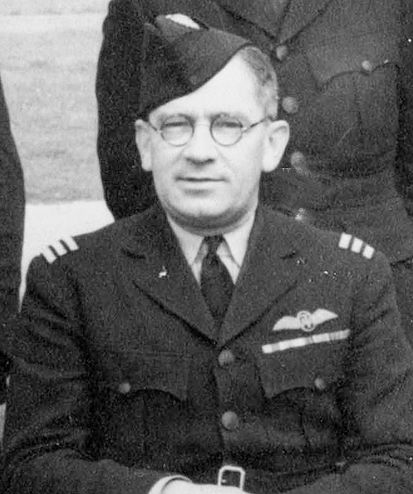 ATAM
ATAMprev. a Company Director
Address in 1930: 2 Shirehall Park, Hendon London NW4
-
Hincks, George William John
M.931 * 2nd Officer George William John Hincks 
b. 31 May 1913, Preston 5 Jul 1943 to 30 Jun 1945
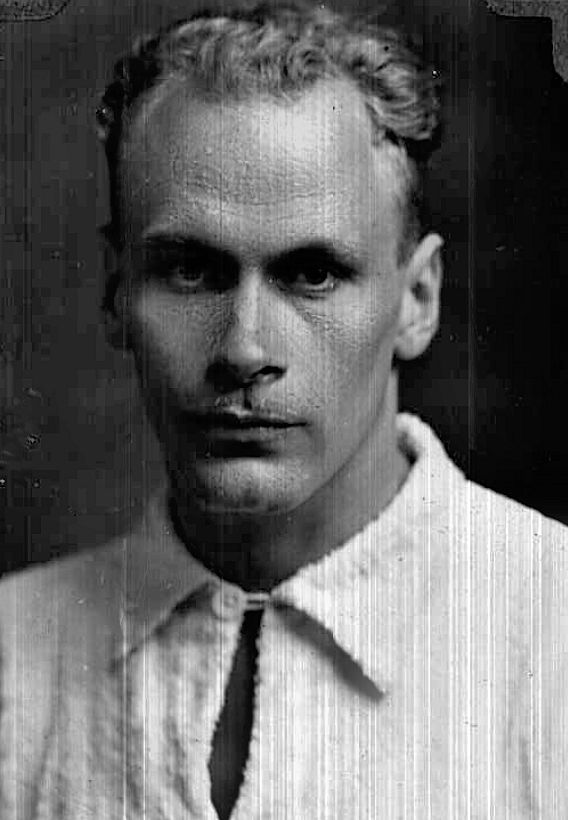 1939
1939prev. Engineer
Address in 1939: "Trevoak", Oakley Woods, Benson, Oxon.
-
Hoar, Jill Elizabeth (W.---)
W.--- Cadet Jill Elizabeth Hoar 
b. 20 Jan 1922, London 24 Jan 1944 to 22 Jun 1944
Father: George Henry Hoar, Mother: Margaret [Harper]
Ed. Welsh Girls School, Ashford, Middx and Dunelm College, Tankerton, Kent
prev: Hotel Receptionist; Clerk for Fairey Aviation Ltd; Aircraft Fitter with ATA
Address in 1944: Ellington Cottage, Ellington Rd, Taplow, Berks
Ab initio pilot
[Contract Terminated by ATA]
m. 1947 in Kensington, London, Peter Alan Coles
d. 31 Mar 2006 - Bracknell, Berks
-
Hordern, Hugh Cecil Shubra
M.---- Cadet Hugh Cecil Shubra Hordern 
b. 26 Mar 1906, Shortlands, Kent 29 Jan 1943 to 7 Apr 1943
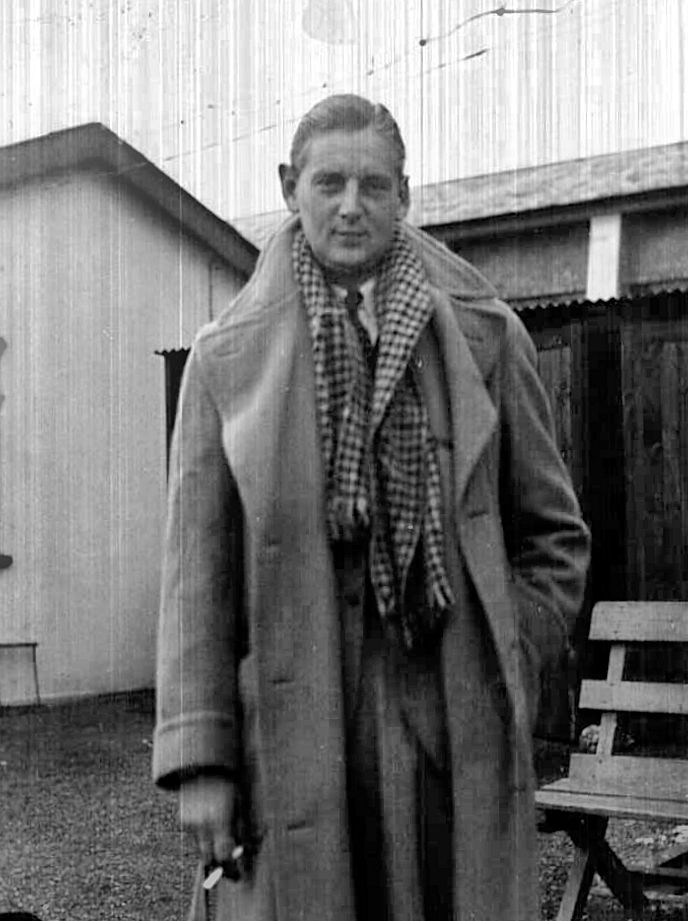
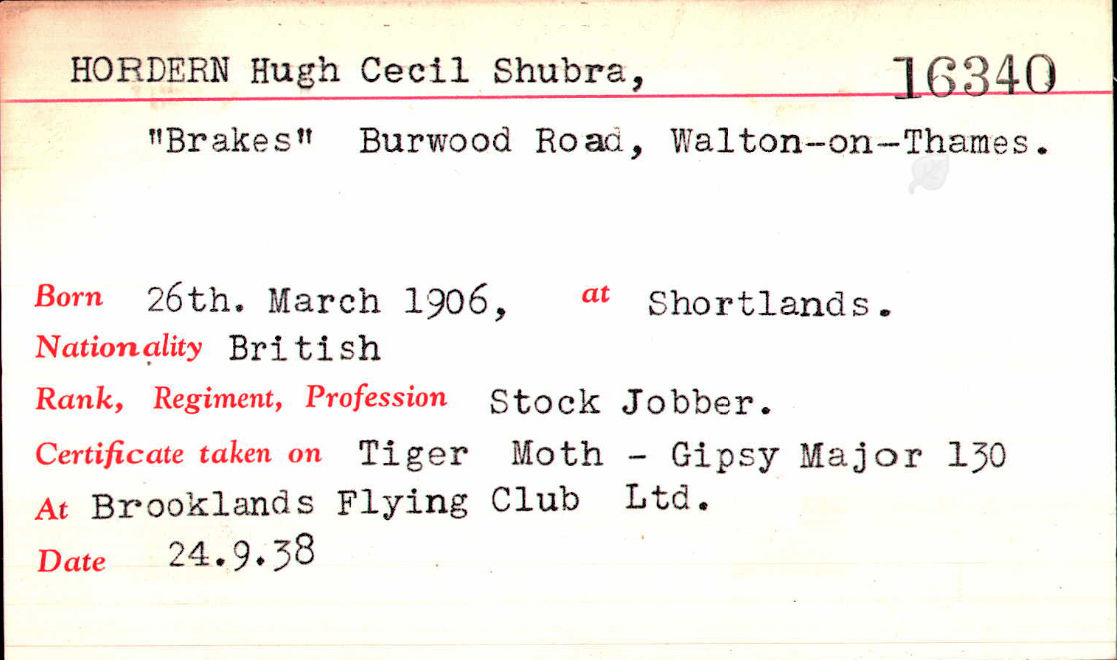
Father: Anthony Shubra Hordern (b. 1879, d. 1934 in Jersey), mother: Edith [Campbell].
His grandfather, Anthony Horden III, "left Sydney for Western Australia, where he made his mark as an entrepreneur, founding the Albany–Beverley "Great Southern" railway and developing much of the surrounding land. He died aboard the steamer R.M.S. Carthage on the Red Sea while returning to Australia after several years conducting his business affairs from London. A memorial to him was erected at the top of York Street, Albany. He was nominated by A. J. H. Saw, the Chancellor of the University of Western Australia, as one of the fifteen greats in the development of the State."
His elder brother was Anthony Arthur Shubra Hordern.
His younger brother, Basil Colin Shubra (1910–1969) was a "prominent bank shareholder"
"Shubra Hall, Croydon, is the oldest building on the campus of the Presbyterian Ladies' College, Sydney, and was the home of Anthony Hordern III." - Wikipedia
6ft 2in tall; "scar centre of forehead"
Ed. Malvern College 1920-23
m. 2 Jun 1928 in Kensington, London, Vera Elizabeth Bryer (Divorced)
In 1928, he filed a patent in France, with his brother Anthony and Bernard John Lynes, for an "Improved device controlled by means of a coin and by hand for the recording and delivery of phonograph records of various types, or for the reproduction of such records"
He became engaged to Miss Marian 'Betty' Seton (or Secombe) in 1936, but I can find no record of the marriage taking place.
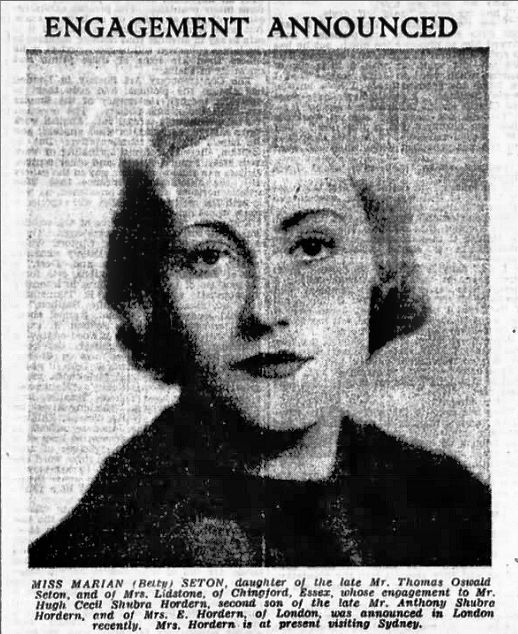 - The Sydney Morning Herald, 15 Jun 1936
- The Sydney Morning Herald, 15 Jun 1936prev. a Stock Jobber; RAFVR 31 Jan 1940 - 27 Jun 1942 (Flt-Lt, 214 Sqn)
prev. exp. 740 hrs on "Henley, Hart, Demon, Phoenix, Wellington, Harrow, Percival Q.6"
Address in 1943: 8 Wimbledon Close, London SW19
[Resigned]
d. 12 Dec 1944 - Stockbury, Kent, in a car accident
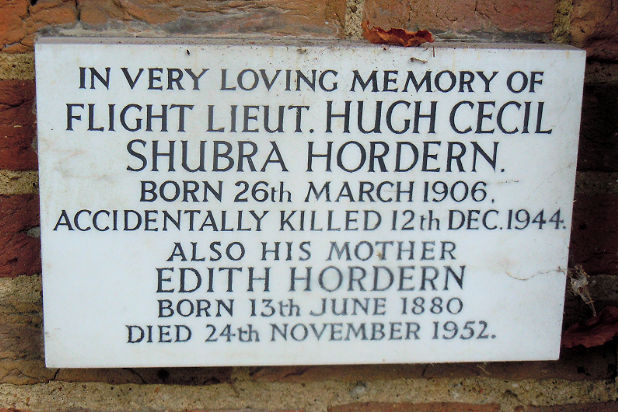

He left £895 2s 3d, which went to his mother.
-
Horsey, Herbert John
M.49 * Captain
[Seconded from BOAC]
Herbert John 'Horse' Horsey 
b. 26 Nov 1899, Cheshunt, Herts 1 Jan 1940 to 6 Jan 1941
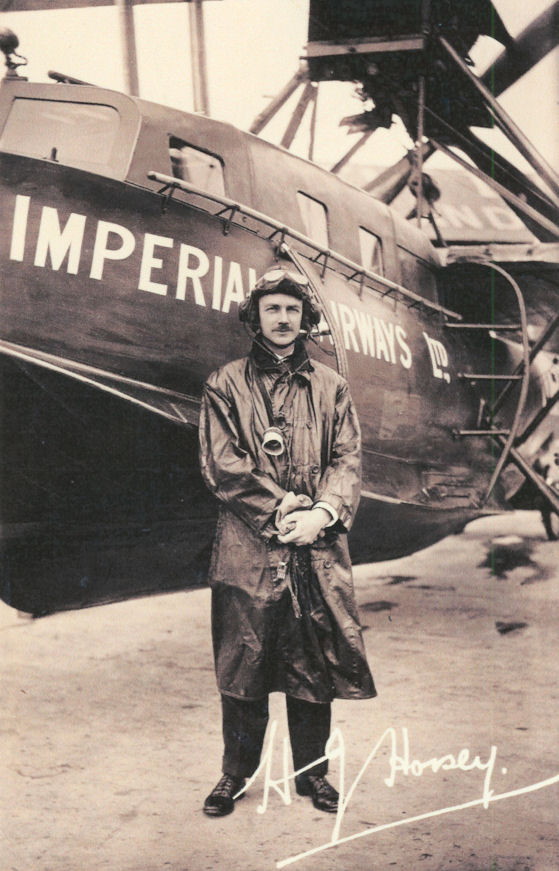
RNAS and RAF in WWI, then joined Supermarine, followed by British Marine Co. as a flying-boat captain on the route from Southampton to Guernsey. When BMC became part of the newly-formed Imperial Airways in 1924, he was one of their 16 founder-pilots.
In June 1927, he created a new record for big passenger aeroplanes, by flying from London to Cologne in one hundred and sixty minutes, at an average speed of 130 miles an hour.
Address in 1932: 138 King's Hall Rd, Beckenham, Kent
Postings: 2FPP

d. 6 Jan 1941 (Died in ATA Service) after he hit cables and crashed on 2 January, 2.5 miles NW of Wroughton ferrying Curtiss Mohawk IV AR658.
G.P. Olley wrote in his obituary: "An atmosphere of gloom settled over the war-time base of British Overseas Airways Corporation when the tragic news came through that Captain H. J. Horsey ('Horse' to his friends, and that meant every one) had died suddenly from the injuries he had received in an accident some days before."
Gordon reported that, a few days before, "poor old 'Horse' was concerned that he had broken his clean record - up to then, he had never had a major crash, or harmed a hair of the head of a single passenger."
Herbert is buried in Hatfield Heath, Essex.
-
Hosking, Raymond Rufus
M.503 First Officer Raymond Rufus Hosking 
b. 28 Dec 1903, Kettering 6 Jun 1941 to 30 Sep 1945
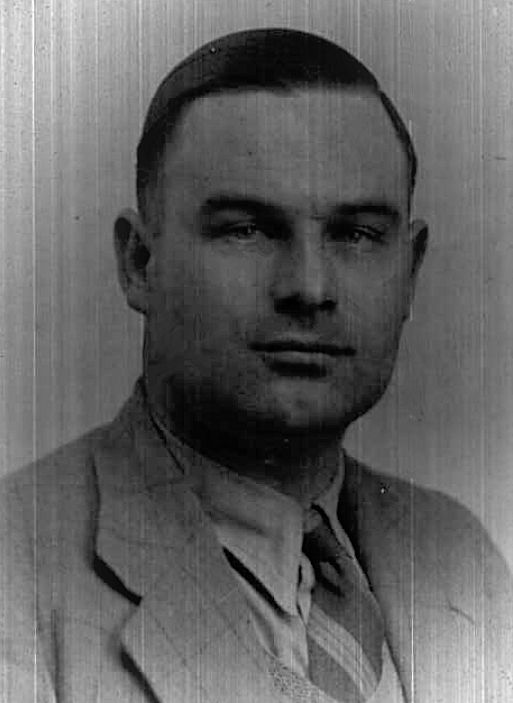 1939
1939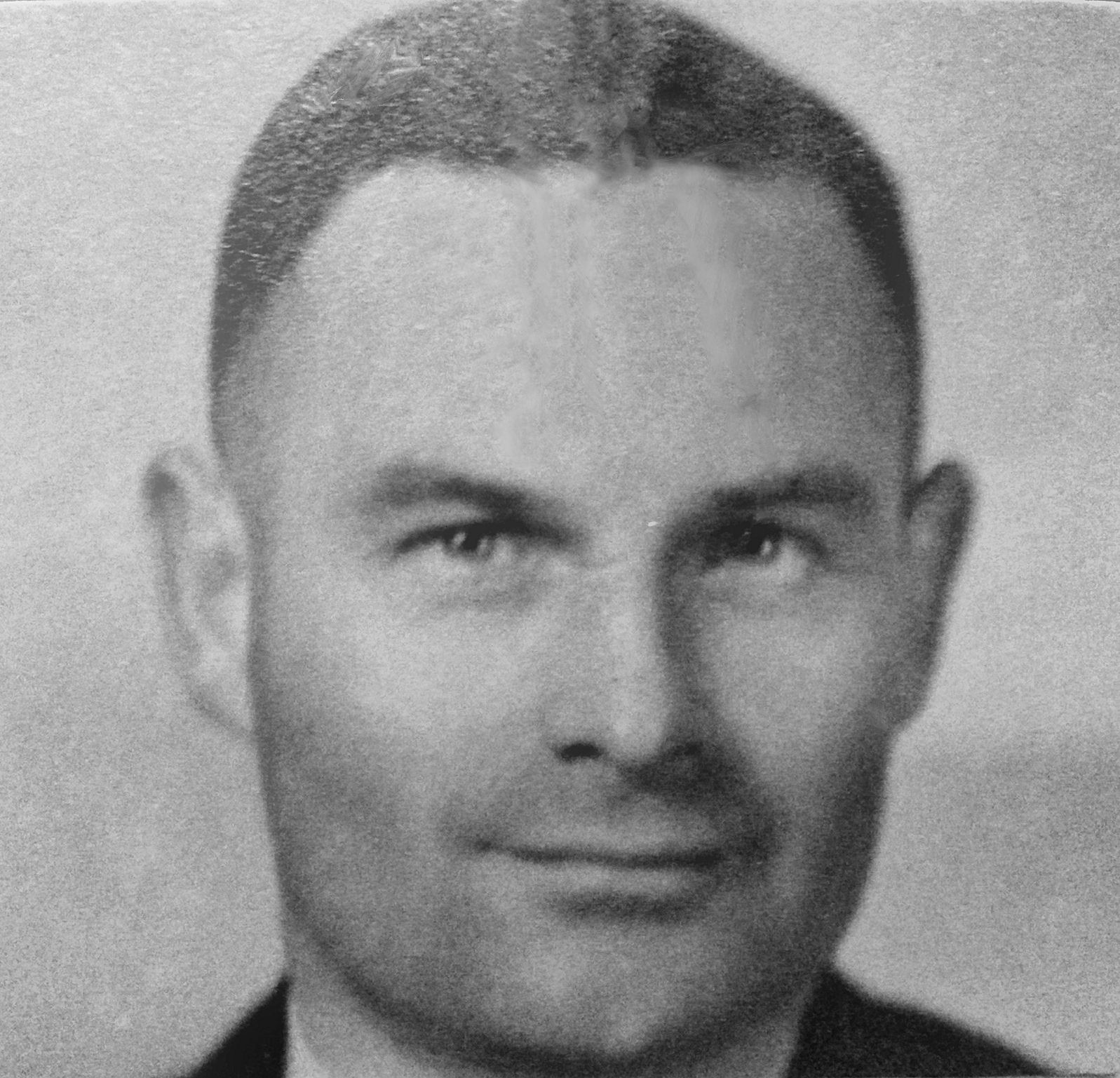 ATA
ATA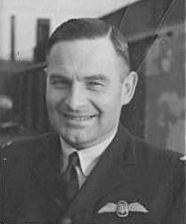
Manx Aviation & Military Museum
Parents: William Stanley Hosking, Sophy Seymour Richards
Ed. at Kettering Grammar School
m. 1933 Rhoda A [Barden]; 1 son b. 1938
prev. Branch Manager for Marks and Spencer Ltd
prev. exp 53 hrs on Hornet Moth, Tiger Moth, Magister, Anson
Address in 1941: 42 Round Hill Cose, West Garth Rd, Exeter
Postings: 6FPP, 7FPP, 2FPP
Sep-45: "This pilot has had consistently good reports since he joined this unit in 1942. Considering the small flying experience with which he joined the ATA, the fact that he finishes his service by being one of our most skilled All-Class pilots, is greatly to his credit. His unfailing cheerfulness and good discipline have always been most marked." O.C. No 2 FPP
d. 18 Jun 1992 - Tavistock, Devon
-
Hotham, Jocelyn Mary Emma (W.---)
W.--- Cadet Hon. Jocelyne Mary Emma Hotham 
b. 18 Apr 1908, London 15 Apr 1942 to 8 Jun 1942
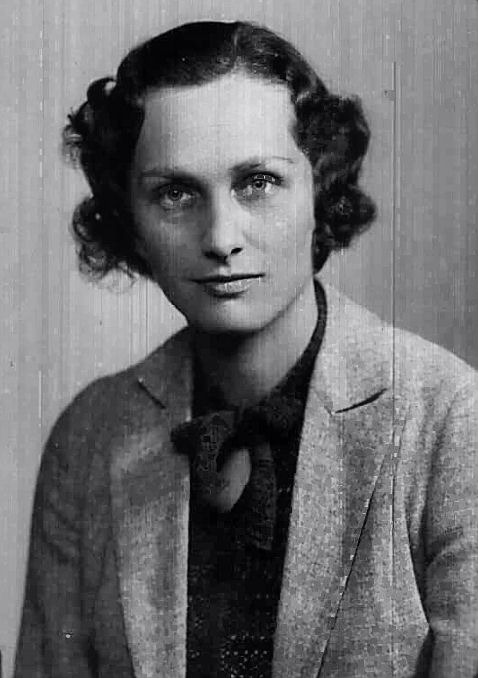 RAeC 1936
RAeC 1936Father: Lord Frederick William Hotham (6th Baron Hotham of South Dalton, d. 1923), mother Eliza Benita [Sanders] of Dalton Hall, nr Beverley
Had an elder sister, The Hon. Sylvia [m. 1924 Ralph Assheton]
Ed. Abbotts Hill, Hemel Hempstead
She and Honor Pitman (also later of the ATA) were amongst the bridesmaids to a Miss Beau Lawson-Johnston in 1927.
"WOMAN FLIER AT PERIVALE
The most interesting woman I met this week was the Hon. Jocelyn Hotham, daughter of the late Lord Hotham—the young woman who learnt to fly by a mistake.
I met her out at Perivale this week at a meeting of the Perivale Women's Fellowship. She is a slim brunette, with a passion for flying. This is how she took up aviation. "I was lunching with a young woman about a year ago, and during our conversation she quite startled me when she told me that she had taken up flying. And so, not wishing to be outdone by her," Miss Hotham laughingly added, " I set off for Heston at once and told the instructor there that I wanted to learn to fly. We set off in a bi-plane, and I confess I was rather scared. As we soared up to the clouds I felt that I was in a strange land and in a dream, and the world below looked like a huge patchwork quilt.
"Then came my three-hour solo flight, and this was a most depressing time, as up in the clouds you know that if you do anything wrong you will be killed. I managed to come through all right. and in ten days gained my pilot's licence. "Flying, in m opinion. is the most marvellous feeling in the world. One leaves all one's cares in the clouds and you feel that the whole world lies at your feet. You feel that you have done something which man wanted to do ages past.
"I get lots of fun out of flying." Miss Hotham told me. "and later on would like to attempt the more serious, sphere of aerial ambulance work, which I am 'very keen on." "Flying," she added, Is no more dangerous than other things. There is one accident to every 25,000 flights, and two-thirds of these are due to stupidity and breaking of air regulations, and a third due to engine failure over bad country."
Though, to most of the Perivale mothers present, an aeroplane was something they had viewed only at a distance, in the succeeding lantern lecture they showed a very keen interest and bombarded Miss Hotham with a barrage of questions. " - West Middlesex Gazette - Saturday 28 November 1936
prev: Commandant of Transport, Chelsea, Sep 1938- May 1940; ARP
The work of the Chelsea ARP featured in July 1939 in The Bystander - Jocelyne is shown (r, l) in these images
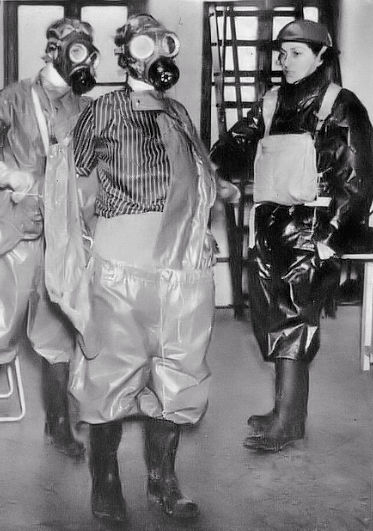
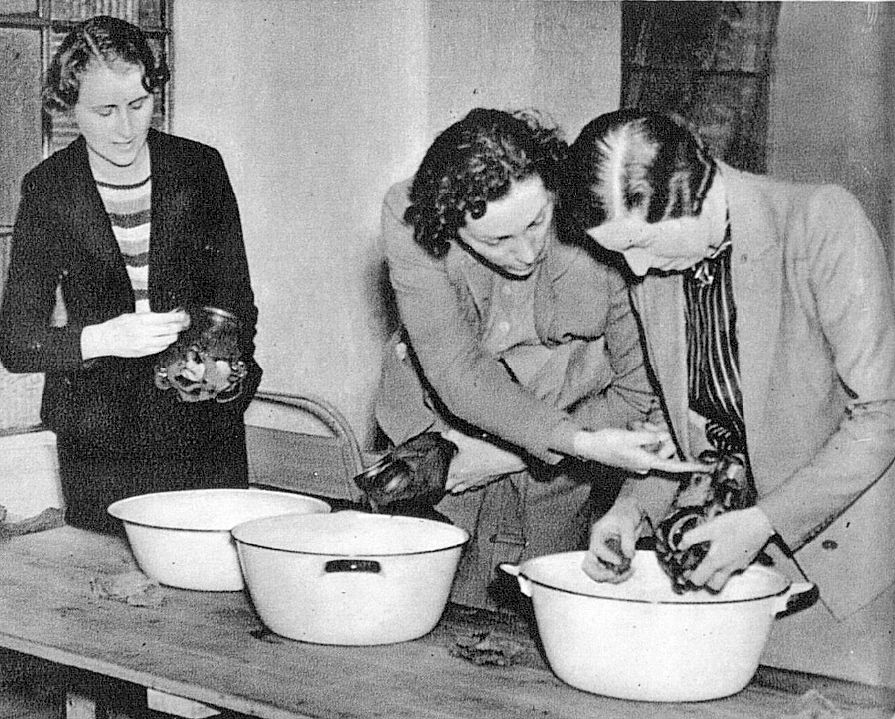
prev exp: 22hrs 35min on Avro Cadet
Address in 1942: Red Syke, Twiston, Clitheroe, Lancs
In 1948, "The 'Malkin Tower Repertory Company', who presented " Pendle Witches of 1948" written by Miss Jocelyne Hotham, included Mr. and Mrs. Ralph Assheton. Mr. N. Assheton. Miss Jocelyne Hotham. Miss Bridget Assheton. Miss Ann Yorke and Mr. J. E. E. Yorke. " - Clitheroe Advertiser & Times
She sold the Red Syke herd of Ayrshire dairy cattle, in 1954: "Miss Hotham Is giving up dairy farming to concentrate stock rearing and poultry keeping at Red Syke. The Ayrshire herd was established in 1944. There was keen competition for the 43 head of cattle, all of which were sold. Top price was 110 guineas."
d. May 1997 - York
-
Howlison, James
M.594 First Officer James Howlison 
b. 29 Jul 1903, Stockport 10 Jun 1941 to 28 Mar 1945
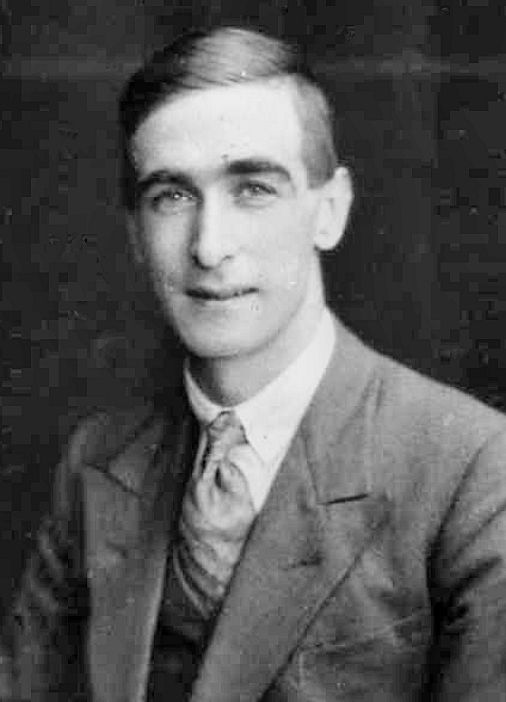 1931
1931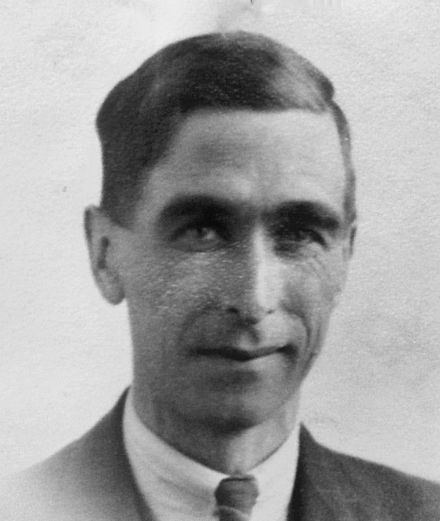 ATA
ATAEd. St Cuthberts College, Worksop
m. 1929 Constance T [Willson], 1933 Dorothy Mary [Thompson], 2 children
prev. Managing Director of Howson Gloves Ltd, Lancashire Hill, Stockport
Address in 1941: Tree Tops, 1 Valley Rd, Bramhall, Cheshire
Postings: 6FPP, 7FPP, 14FPP
"A well-behaved and conscientious officer, and a safe average pilot. Had very little experience prior to joining ATA"
Passed Class V (Halifax) training Mar-43
Mar-45: "He has done very well throughout his ATA career, but the strain of nearly four years ferrying has proved too much for him, and he has been advised to resign."
Contract Terminated 28 Mar 1945
d. 1964 - Bucklow, Cheshire
-
Hughes, Joan Lily Amelia (W.11)
W.11 Flight Captain Joan Lily Amelia Hughes MBE 
b. 28 April 1918, Woodford, Essex 1 Jan 1940 to 31 Dec 1945
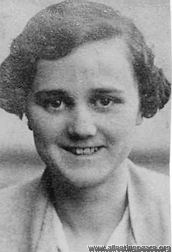 1935 - London Aeroplane Club
1935 - London Aeroplane Club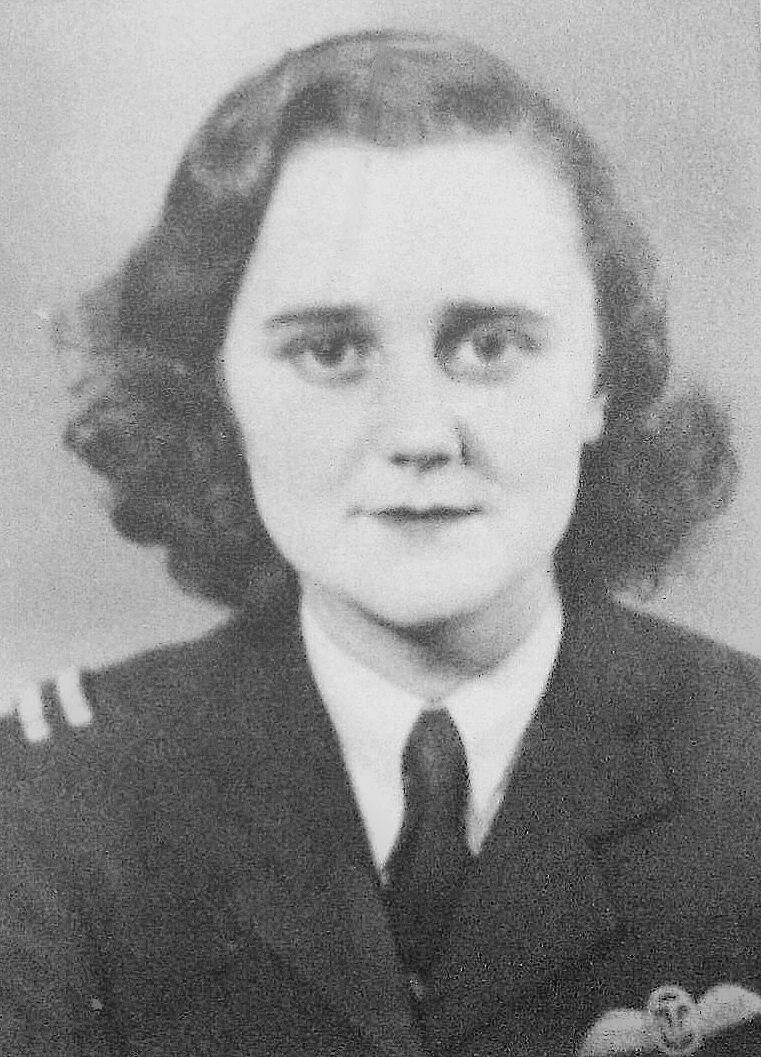 ATA
ATAFather: Arthur Edward Hughes, a braid manufacturer,, mother: Lily Amelia [Lekeup] of Acreage, Harlow Common, Harlow, Essex
Educated 'privately'. 5 foot 2, build: slight, eyes: hazel.
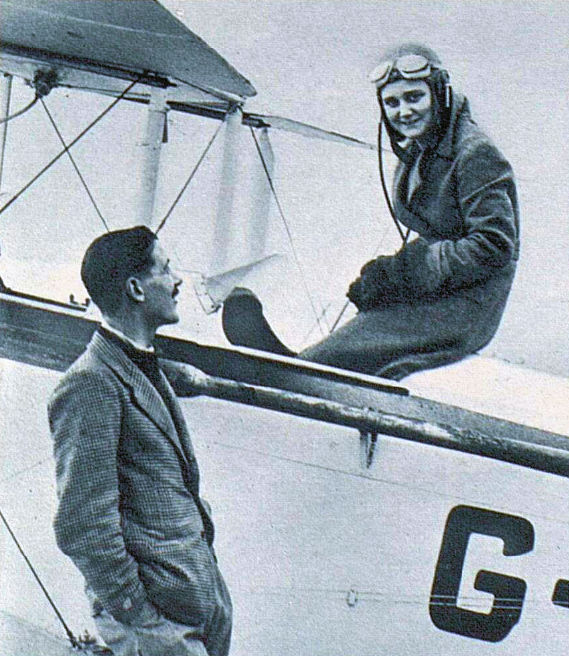
"Miss Joan Hughes, who will be sixteen in April, is working hard to become an efficient aviator" - The Sketch, Mar 1934
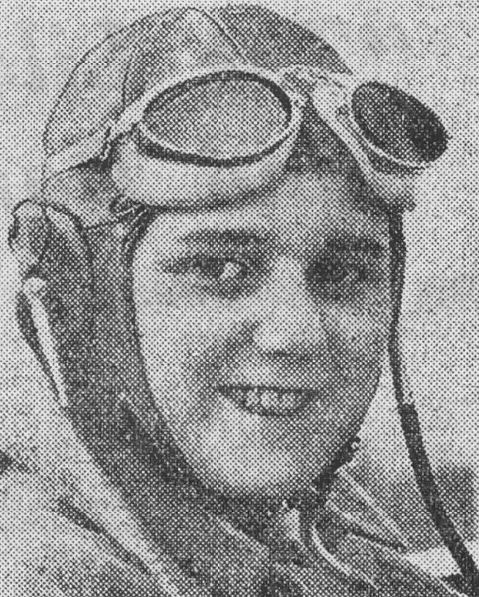
"Miss Joan Hughes, a schoolgirl, says her ambition is to run an air-taxi service in partnership with her brother" - Leeds Mercury, 4 Apr 1934
She celebrated her 17th birthday by qualifying for her RAeC Certificate, making her, at the time, the youngest flyer in Great Britain.
She became an instructor with Chigwell Flying Club, then joined the Civil Air Guard at Romford in 1938.
prev. exp. 620 hrs (at the time, the women needed 600 hrs to join ATA)
Postings: 5FPP, AFTS, EFTS, 1FPP, 6FPP, 15FPP
4-engine (Class 5) pilot
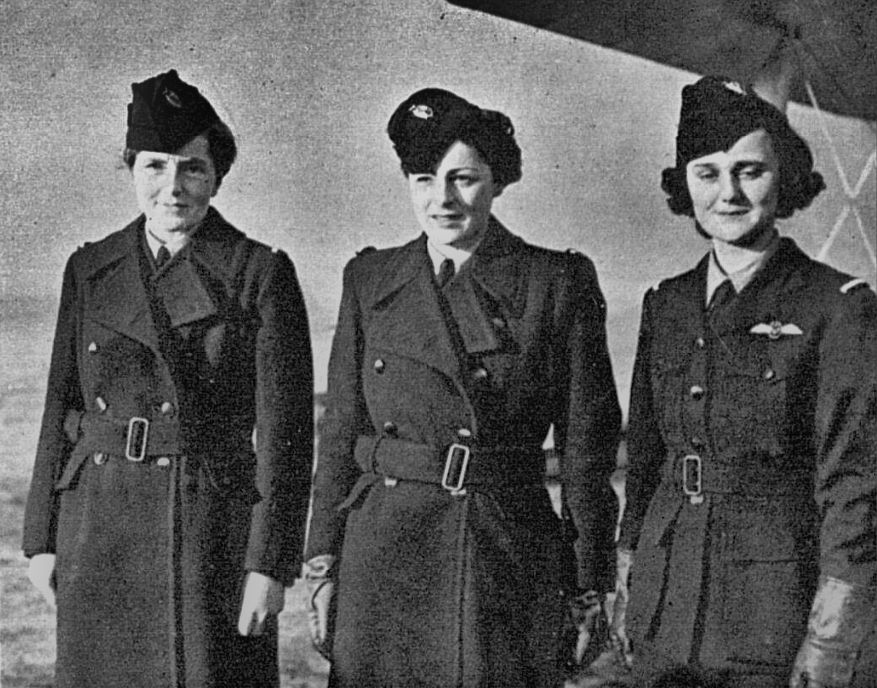
Margaret, Mona and Joan in January 1940
The youngest of the 'First Eight' women ATA members who joined on the 1st January 1940, she mostly continued as an instructor, eventually at the Advanced Flying Training School at White Waltham. She did, however, ferry many types of aircraft, including Hurricane, Spitfire, Lysander, Typhoon, Mosquito, York, Fortress, Lancaster, Halifax, Liberator and Stirling.
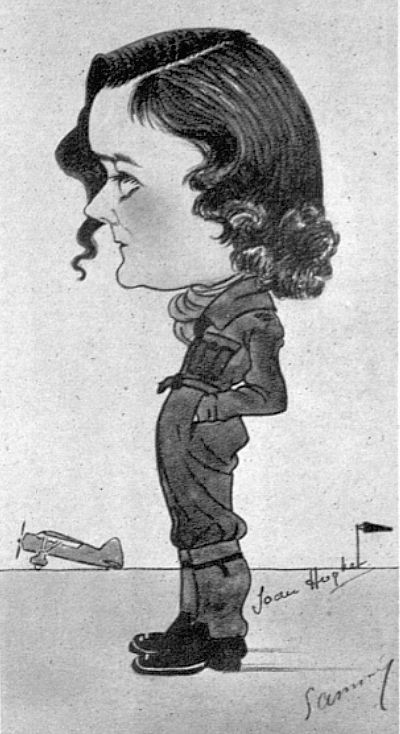 1942 caricature by 'Sammy' Clayton
1942 caricature by 'Sammy' ClaytonShe had 4 mishaps (one deemed to be her fault);
- 12 Dec 1940, her Oxford skidded on loose ice on the runway
- 22 Aug 1941, a forced landing in Hurricane N2588 when the undercarriage jammed
- 4 Jun 1942, a landing accident when she was instructing Jocelyne Hotham in Hart K6486, which swung and tipped onto a wing,
- 22 Dec 1944, another forced landing in a Stirling III, LJ506. This was due to "[Port Outer] No 12 cylinder induction elbow blowing off")
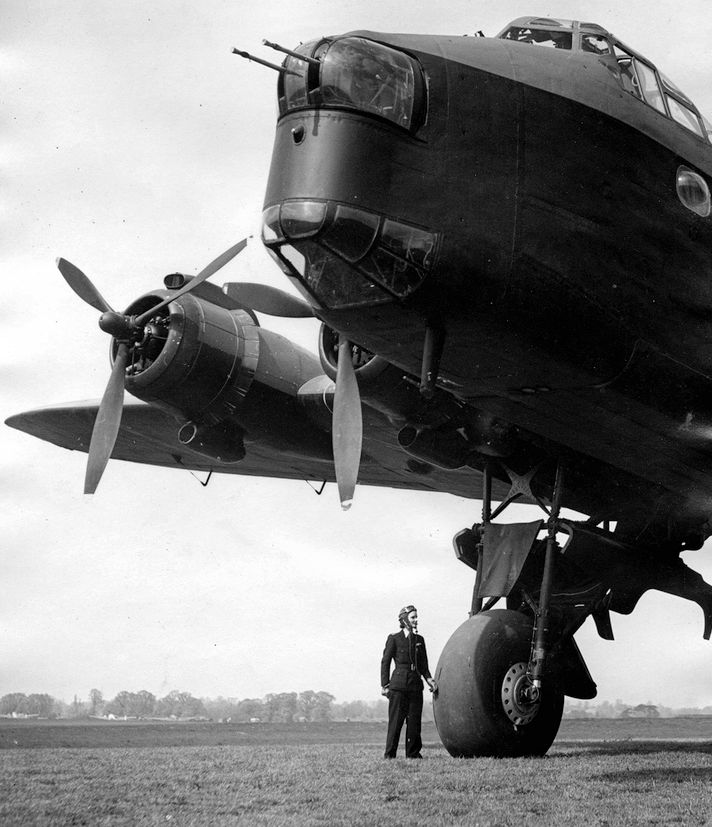
One of the iconic images of the ATA - Joan, dwarfed by a Stirling (Brief Glory)
Her flying was always highly praised: "First Officer Hughes is an exceptionally good and level-headed pilot. She has worked extremely hard and conscientiously... a capable pilot on the Stirling; of above average ability, who, in spite of her small stature, handled the aircraft in a most satisfactory manner. She is to be complimented on such an excellent performance."
One small criticism, however: "her technical knowledge is a long way behind her flying ability & she should spend more time in study of this branch."
After WWII Joan moved to the West London Aero Club in White Waltham, then the British Airways Flying Club at Booker.
She coached Kenneth More for his role as Douglas Bader in the film 'Reach for the Sky' (1956).
She was awarded her RAF 'Wings' in June 1954, the last of 5 women (all ex-ATA pilots) to do so when serving with the short-lived (1 Feb 1949 - 1954) Women's Royal Air Force Volunteer Reserve (WRAFVR). The others were Jean Bird, Jackie Moggridge, Freydis Leaf and Benedetta Willis.
In 1956, Veronica Volkersz wrote that Joan was one of ".. only seven [women ATA pilots] are now flying commercially... Five-foot-nothing Joan Hughes, one of the few ATA girls who did the Class 5 conversion, subsequently ferrying four-engine bombers and instructing on Harvards and Hudsons, is chief flying instructor of the West London Aero Club at White Waltham"
She concluded that "The tragedy is that for women, commercial aviation is now - except, possibly, in Russia - a closed field."
n 1961 she was awarded the Jean Lennox Bird Trophy; she had trained more than 50 pilots during the year.
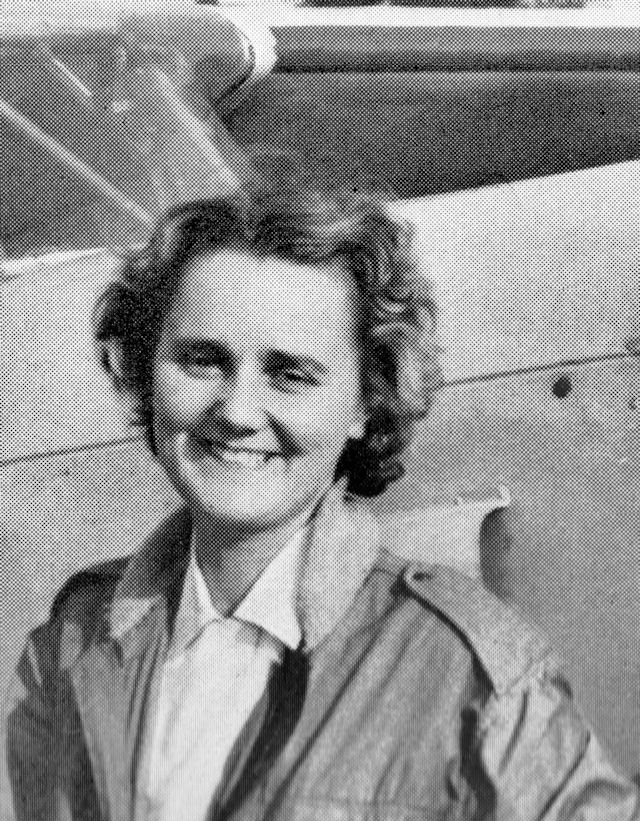 MUWW
MUWWIn 1965 she flew a replica of a 1909 Santos-Dumont Demoiselle in the film "Those Magnificent Men in their Flying Machines", and then a replica in simulated dog-fights for the film "The Blue Max". She later visited the US where she appeared on a television quiz show as a mystery guest.
Miss Hughes was one of the display pilots at the Shuttleworth Trust during the 1960s: "These aircraft are wonderfully removed from scientific aircraft. Everything depends on the pilot's skill, so you feel more personally involved. Apart from that you are open to the weather".
Bob Brion tells me that "Joan was my instructor at White Waltham in 1955 flying Tiger Moths... [She] treated me as an equal in what was a different world in the 50s. I have always had the greatest respect for her and her accomplishments.
A great lady."
She retired in 1985 with 11,800 hours in her logbook, 10,000 of which were as instructor, and "devoted herself to tennis, music and country walks".
She died age 74, on the 16 August 1993 in Taunton, Somerset.
Download ATA Pilot Personal Record (.zip file):

IWM interview here: https://www.iwm.org.uk/collections/item/object/80008455
-
Hunter, Mary Josephine (W.34)
W.34 First Officer Mary Josephine Hunter
nee Corbett-Lowe

b. 17 Dec 1913, Bromborough, Cheshire 1 Mar-41 to 6 May 43
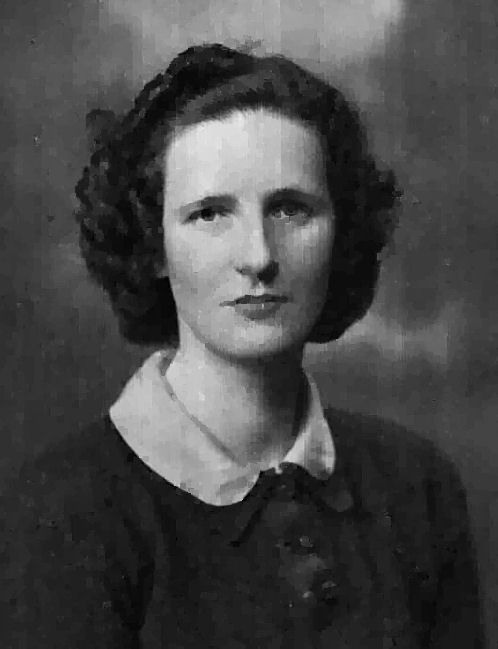 RAeC 1939
RAeC 1939Father: William Sidney Corbett-Lowe
Ed. Howells School, Denbigh
prev. a Teacher of Dancing
5ft 10in tall, hazel eyes
Mary told Veronica Volkersz that that her husky voice was "due not to gin but to faulty vocal cords."
m. 30 Mar 1940 David Ronald Hunter, son of the Reverend and Mrs Hunter, of Childwall Vicarage, Liverpool
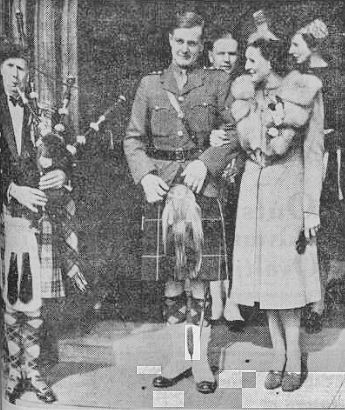
Address in 1941: 30 Bidston Rd, Oxton, Cheshire
Postings: 5FPP, 15FPP
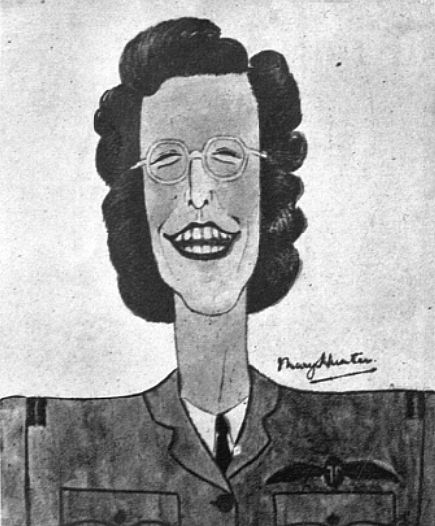 1942 caricature by 'Sammy' Clayton
1942 caricature by 'Sammy' Clayton4 accidents, 2 her fault:
- 17 Dec 1941, she stalled her Hurricane when attempting a cross-wind landing and damaged a wing;
- 3 Oct 1942, she failed to control the take-off swing of a Tomahawk I and "swung violently";
- 2 Sep 1942, made a normal landing in a Tomahawk II but an undercarrriage leg collapsed, due to a technical problem, and
- 29 Jan 1943, her Spitfire IX was hit by a tractor while she was stationary.
"A keen and hard-working pilot" and "An excellent pilot and a most useful member of the Ferry Pool". (Marion Wilberforce)
[Contract Terminated by ATA - 3 months notice due to pregnancy - David b. Oct 1943]
d. 2010
-
Huxley, Desmond Roy
M.147 Flight Captain Desmond Roy Huxley 
b. 21 Oct 1911, London 26 Jul 1940 to 18 Jan 1944
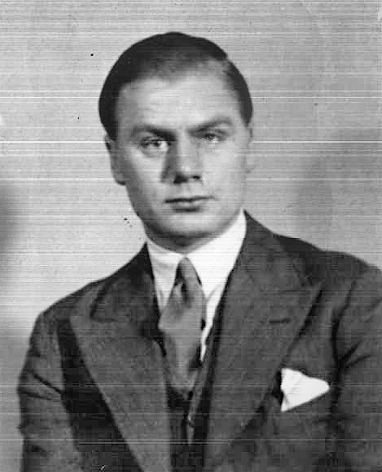 1935
1935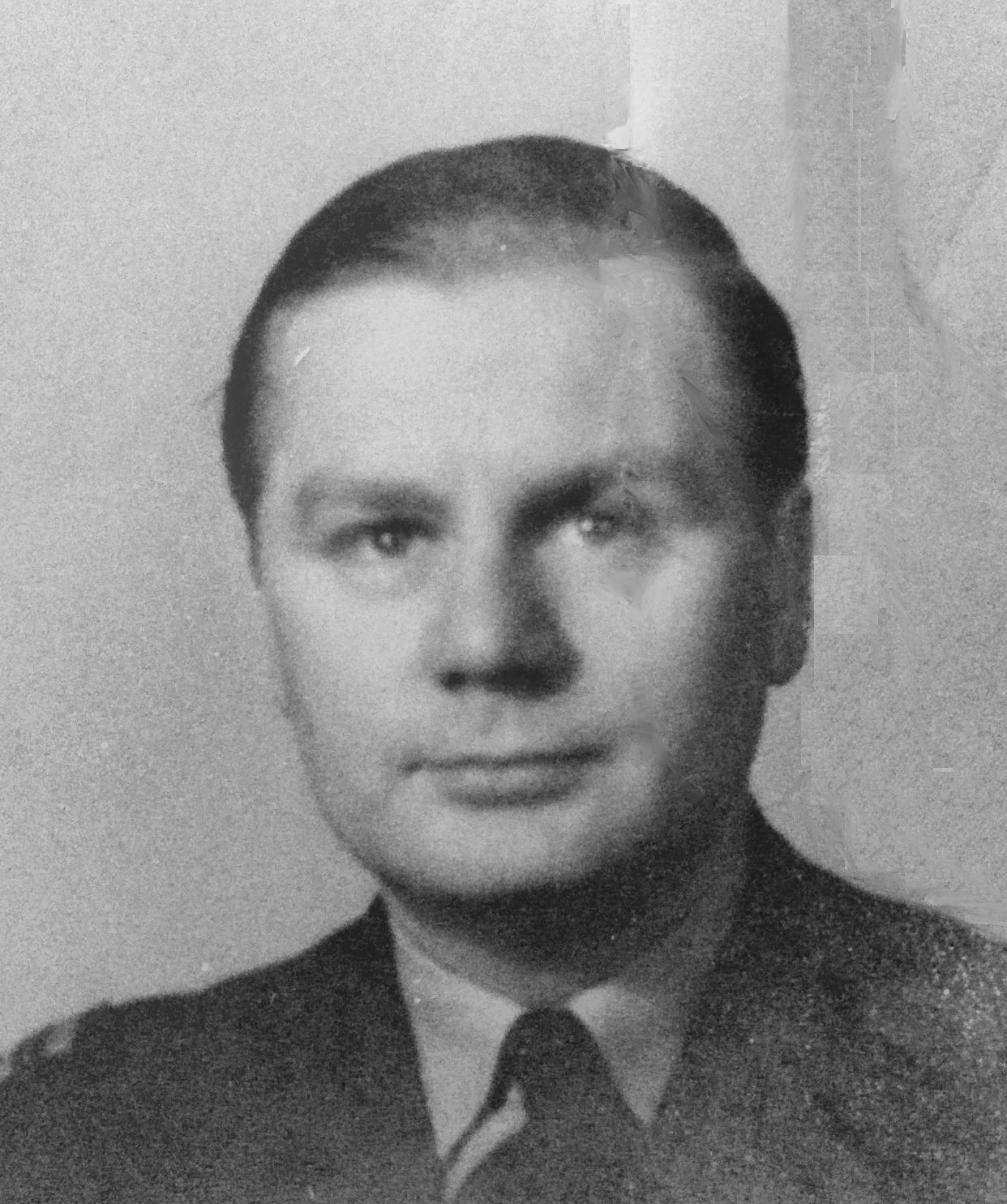 ATA
ATA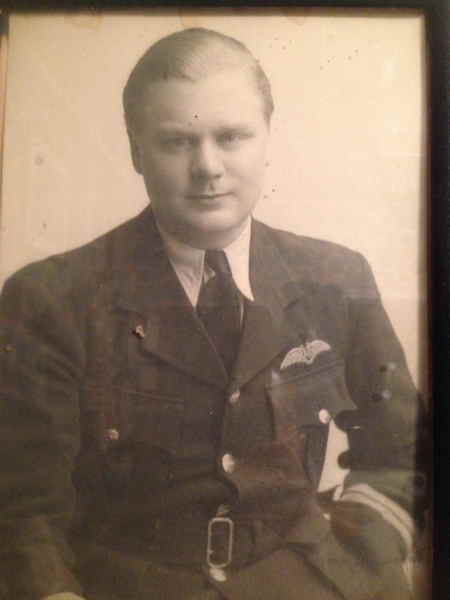
Ed. Bedford College
m. Violet Irene Agnes [Morton]
prev. a wine merchant; pilot for Air Dispatch Ltd.;
Sgt Pilot RAFVR (Nov-36 to Jul-40)
prev. exp. 730 hrs on DH 60, 80, 82, 85 and Stinson
Address in 1940: New House Farm, Balcombe, Sussex
Postings: 3FPP, 6FPP, 4aFPP, 14FPP, 4FPP, 7FPP, 2FPP, 16FPP
4 accidents, 1 his fault (Jul-43, in a Blenheim, when he selected 'undercarriage up' instead of 'flaps up' after landing.)
"His excellent work as an experienced pilot has been of great value to this Pool. Due to lack of discipline in small matters, however, he has failed to become correspondingly useful in his capacity of Flight Captain."
Certificate of Commendation for "displaying exceptional initiative in giving assistance to the survivor of an a/c crashed in mountainous country on 7 Aug 1942."
[Desmond was ferrying a Defiant from Lossiemouth to Edzell when he noticed a pall of smoke which turned out to be a crashed Wellington on fire. He dropped cigarettes, matches and a map to the sole survivor, with a note telling him that he would report the crash, and then flew in the direction of the nearest road to show the way. The survivor stated that it was "mainly through this assistance that he was able to find his way."]
Resigned 8 Nov (effective 19 Oct 1943), giving 3 months notice.
He died 2 months after leaving the ATA;
d. 18 Mar 1944 - Oakmere, Northwich, Cheshire
"BALCOMBE. SAD NEWS. We regret to state that news was received Saturday that Desmond Roy Huxley, elder son ol Mr. and Mrs. D. R. Huxley, of Little Strudgates, had been killed. At the outbreak of war he joined the Auxiliary Transport Association, and held the rank of Captain [sic]. Latterly he had been a test pilot for an aviation company. He was educated at Ardingly and Bedford Colleges. Prior to the war he was in business as a wholesale wine merchant in London, and was a Liveryman of the Vintners Company. A married man, he leaves a widow and a five-year-old son." Mid Sussex Times
-
Ibbotson, Hugh
M.447 * First Officer Hugh Ibbotson 
b. 5 Apr 1894, Warwickshire 5 Jun 1941 to 31 Dec 1944
Sergeant, Warwickshire Regiment in Egypt from 12 Sep 1915, 2nd-Lt, Shropshire Light Infantry
RFC; RAF Lt 1 Apr 1918- Jun 1919
m. 1938 in Coventry, Doris L [Ducker or Birch]
Postings: 1FPP,
At least 8 accidents, 7 his fault:
- 13-Dec-41, he persisted too far in failing light in Proctor R7560 and struck a fence when attempting a forced landing
- 23-Mar-42, whilst taxying in Master W8478, a wing hit a cart
- 01-Apr-43, the port wing tip of his Wellington N2906 grazed a shed whilst taxying
- 25-Sep-43, he failed to control the landing swing in Spitfire IX MH760 and the port undercarriage leg collapsed
- 05-Nov-43, a forced landing in Warwick BV449 after port engine failure
- 20-Aug-44, he inadvertently left the ground in Spitfire XIV RM744, the tail came up and the propeller tips were damaged
- 20-Sep-44, a landing accident in Spitfire IX MJ500; he lost sight of the airfield control van and his port wing struck its roof, damaging both
- 27-Nov-44, he approached too fast and high in Warwick V PN740, ran out of runway and ground-looped, "straining the undercarriage".
d. 10 Sep 1984 - Brighton, Sussex
-
Impey, Maisie Evelyn Montgomery (W.---)
W.--- Cadet Maisie Evelyn Montgomery Impey 
b. 4 Oct 1914, London 1 Nov 1943 to 2 May 1944
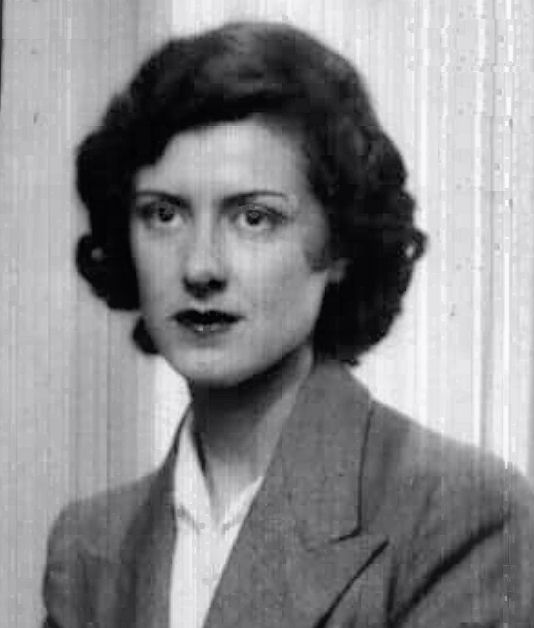 RAeC 1939
RAeC 1939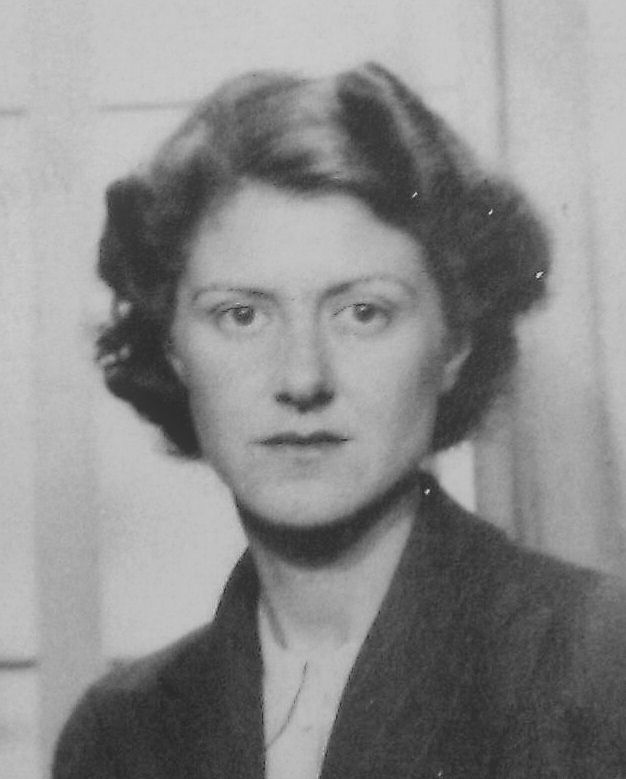 ATA
ATAFather: Percy Michael Elijah Impey, mother: Kathleen
Ed. Malvern Girls College; Ville la Belle Neuchateau, Switzerland
prev: FANY, volunteer ambulance driver attached to Polish Forces in Scotland, from 10 May 1941
prev exp: 6hrs in Gypsy Moth
Address in 1943: Wray House, Spur Hill, Parkstone, Dorset
[Resigned]
m. Oct 1945 in Dorset, Jan M I Wroblewski (who appears to have emigrated to the USA in 1950)
"Dogs stop help for sick woman
A DOZEN ferocious and hungry dogs kept a doctor from reaching their desperately-ill mistress. Two of the dogs guarded her bed. The others — which included Alsatians and a large Labrador — were in the hallway and other rooms. The doctor was called to elderly Mrs. Maisie Wroblewska's cottage in Higher Shaftesbury lane, Blandford, Dorset, after she had not been seen for several days. He called the police and RSPCA.
A policeman forced a bedroom window and one of the two dogs was caught in a special loop on a pole. A vet leaned through the window and gave it a knock-out injection. Then a policeman climbed into the bedroom and caught the other dog. It was also drugged. Mrs. Wroblewska was carried out through the bedroom window and taken to hospital. Later the other dogs were caught and drugged. Last night, Mrs. Wroblewska was transferred to Dorset County Hospital's intensive care unit. She has pneumonia." - Daily Mirror, 24 Dec 1970
d. Apr 2003 - Dorset
-
Innes, Veronica May (W.35)
W.35 Flight Captain Veronica May Innes

b. 20 Apr 1917, Cambridge 1 Mar 1941 to 30 Nov 1945
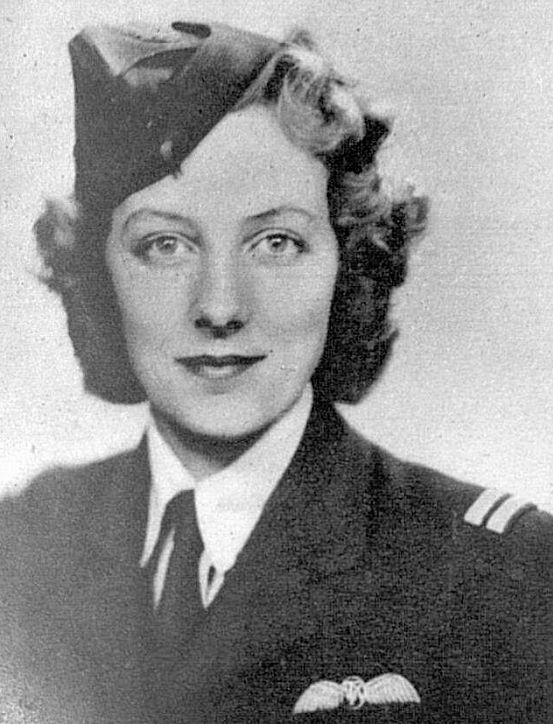 1942
1942
Father: Maj. George Victor d'A Innes (Royal Scots Fusiliers), mother Mary Beatrice [Benyon]
Grew up in India from age 6, (educated: "privately")
RAeC Cert 17,266 (16 Feb 1939); she learnt to fly at Brooklands
prev. Civil Air Guard, 15 months as a driver for the London (Auxiliary) Ambulance Volunteer Service
prev. exp. 70 hrs
Address in 1939: Queensmead Lodge, King's Road, Windsor, Berks
Postings: 15FPP, 2FPP, 3FPP
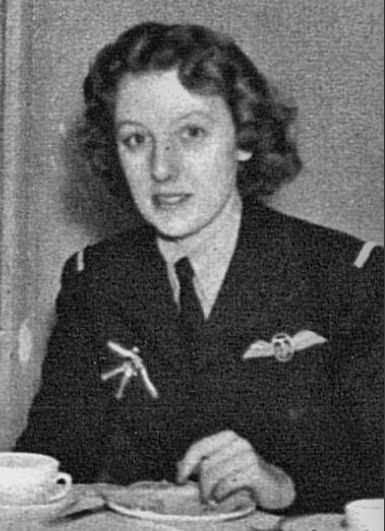 "Sunday tea-dance" in December 1941
"Sunday tea-dance" in December 1941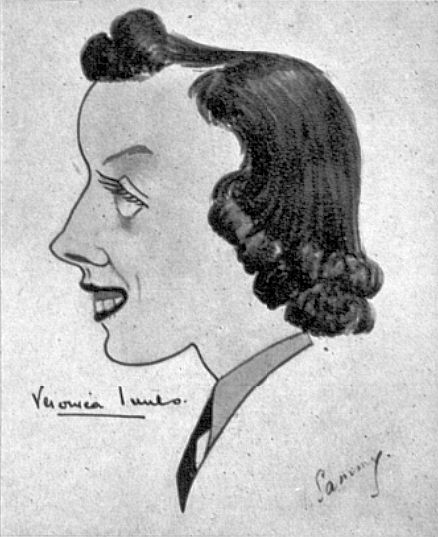 1942 caricature by 'Sammy' Clayton
1942 caricature by 'Sammy' Clayton8 accidents, 3 her fault
- 8 May 1941, in Tiger Moth T6116, she taxied off the runway which was in "bad condition"
- 27 Jan 1942, her Hurricane AG137 nosed over after a poor landing
- 25 Sep 1942, she had a fire in the port carburettor of her Wellington III BK257 after stopping engines
- 12 Feb 1943, taxying "without due care" in Spitfire Vb AD386, her wing hit the side of a low loader trailer
- 21 Jan 1944, the tail wheel of her Seafire IIc MB217 was damaged while taxying
- 13 Mar 1944, the port tyre of her Anson N9920 burst while taxying
- 12 Jul 1944, taxying in Argus II NB604, she ran into a pile of chocks
- 27 Jul 1944, a forced landing in an Anson after failure of the port engine.
She was considered a 'careful, steady' pilot: "An extremely reliable and intelligent pilot whose influence in the [ferry] pool is good. Has progressed well."
She was, however, reckoned to be 'too diffident in manner to really possess any great qualities of leadership. It is her sense of responsibility and interest in the job that makes her a useful Flight Captain".
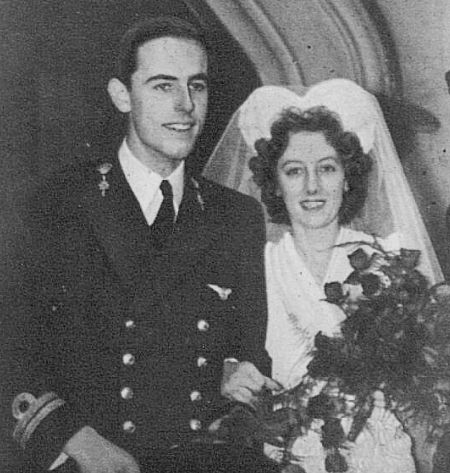 The Tatler
The Tatlerm. Dec 1942 Flt. Lt. Gerard Volkersz of the Royal Netherlands Naval Air Service (divorced 1947)
ATA experience: 1,200 hrs on 60 types - including...
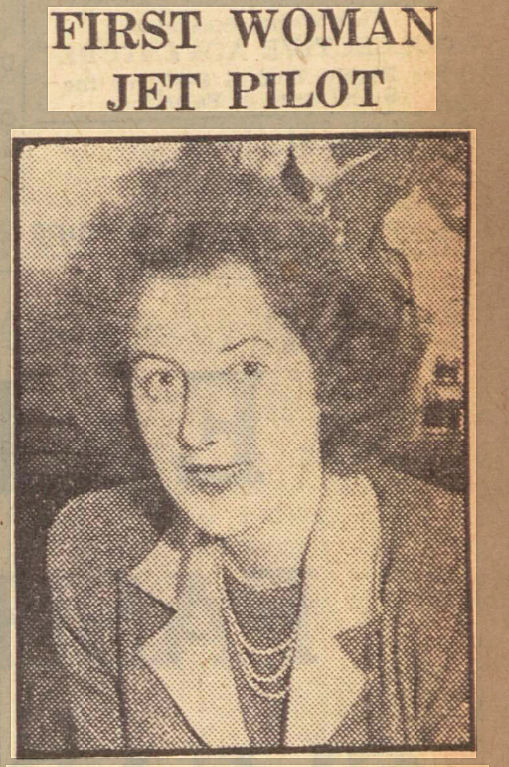 Aberdeen Press and Journal - 17 Jan 1946
Aberdeen Press and Journal - 17 Jan 1946... being the first woman to deliver a Meteor, (EE386) on 15 Sep 1945
Post-WWII, a Pilot Officer in the short-lived (1 Feb 1949 - 1954) Women's Royal Air Force Volunteer Reserve (WRAFVR), but was not awarded her 'wings' - she later wrote "four [actually five] of the girls qualified, but by that time I was working hard with an Army Co-operation Unit, and had neither the leisure, nor, for that matter, the inclination to follow suit"
Mardi Gething, Patricia Kendall and Vera Strodl were also appointed as Pilot Officers in the WRAFVR at the same time (June 1950)
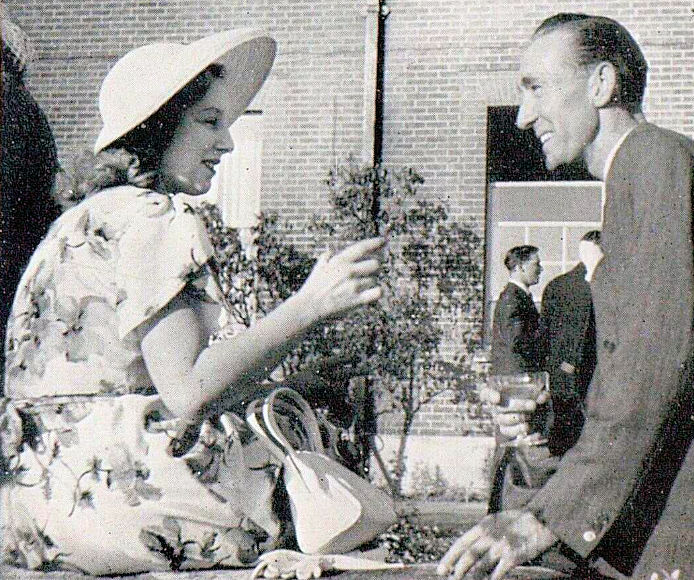 Veronica with Sqn-Ldr D R Turley-George DFC - The Tatler, 12 Jul 1950
Veronica with Sqn-Ldr D R Turley-George DFC - The Tatler, 12 Jul 1950"A summer cocktail party at Biggin Hill Air Station which, favoured by brilliant weather, was greatly appreciated by the 250 guests"
She and Freydis Leaf flew RAF-surplus Tempests to Pakistan, for Mayfair Air Services. She was not taken on when the contract transferred to another company, despite all the other (male) pilots being offered a job, then in 1951 (having gained her commercial pilot's licence, joined Monique Agazarian (also ex-ATA) at Island Air Services.
wrote "The Sky and I" (W.H.Allen 1956); "Her experiences make interesting reading for all who have their heads in the skies"
In 1956, "Members of No. 3618 Fighter Control Unit returned to headquarters in The Goffs on Saturday from 15 days’ annual training at the Royal Air Force station, Sandwich. Adding to the interest this year has been the fact that one the pilots was Mrs Veronica Volkersz. A wartime member of the Air Transport Auxiliary, she has over 3,000 flying hours in her log book and has piloted 60 different types of aircraft." - Eastbourne Gazette - 29 Aug 1956
d. 13 Dec 2000 - Cambridge
IWM interview here: https://www.iwm.org.uk/collections/item/object/80009149
Wikipedia: https://en.wikipedia.org/wiki/Veronica_Volkersz
-
Iredale, Edward Dyson
M.433 2nd Officer Edward Dyson Iredale 
b. 6 Mar 1902, Elland Yorks 14 May 1941 to 25 Sep 1944
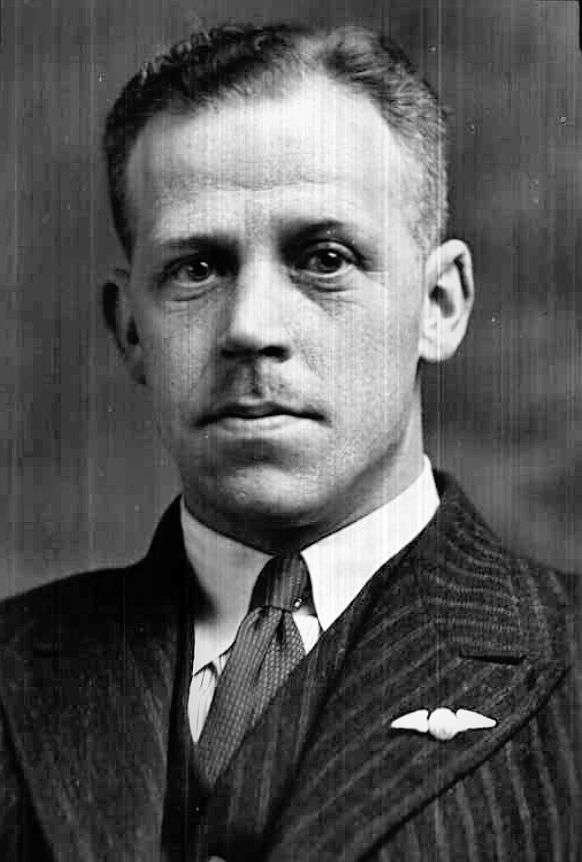 1939
1939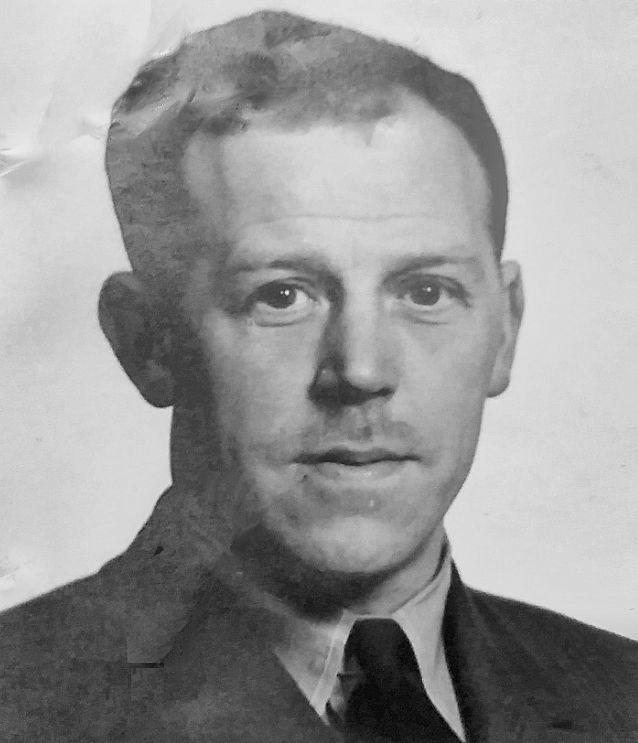 ATA
ATA Father: William. Mother: Hannah
ed. Elland Grammar School; Leeds University
m. 1926 Hilda May [Berry], a teacher from Halifax [d. Dec 1942]. 1 daughter Mary C. b. 1931
Next of kin: Originally his wife, then Miss C. Iredale, c/o St.Winifred's School, Llanfairfechan, N. Wales
prev. a woollen and drapery merchant; representative of J. C. Sudders, 16 Monument St, EC3
RAF Sergeant from Feb-40 to 3 Apr 1941 (Link Trainer Instructor, based in Cambridge)
prev. exp. 217hrs on Tiger Moth, Stinson Reliant, BA Swallow, Taylor Cub, Monospar
Address in 1941: c/o Granville House, Chestnut Ave, Hampton-on-Thames
Postings: 6FPP, 2FPP
Absent sick from 10 Mar 1942 to 25 Jun 1942 after he force-landed a Spitfire following engine failure.
"His flying has been good, and his conduct excellent"
"His flying progress since his sick leave has been slow."
d. Mar 1975 - Westminster
Download ATA Pilot Personal Record (.zip file):
-
Iredale, Norman
M.636 * First Officer Norman Iredale 
b. 1 Sep 1899, Golcar nr Huddersfield 12 Aug 1941 to 31 Aug 1945
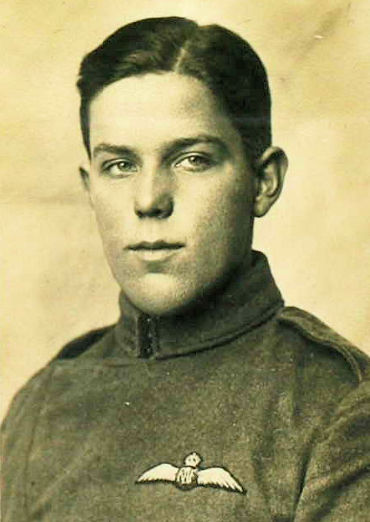 1918
1918prev. Sergeant, RAF
Address in 1918: 16 Wood St, Longwood, Huddersfield
-
Irwin, Arthur Cecil
M.372 * Flight Captain Arthur Cecil Irwin 
b. 11 Sep 1899, Friern Barnet, Middlesex 10 Apr 1941 to 4 May 1945
Father: Alexander Staples Irwin, a Railway Registrar (b. in Co. Tyrone, Dungannon, d. 1912); Mother: Lilliaan Edith [Howse, d. 1945]
5 brothers, 2 sisters
m. 1 Jun 1924 in Barnet, Kathleen Nancy [Swindell] (d. 1978)
prev. RFC, RAF 12 Sep 1917 - 1919; Bank Manager (Director of the National Provincial Bank)
Address in 1939: 19 Bramber Rd, Friern Barnet, N.12
Postings: 6FPP, 1FPP
7 accidents, 5 his fault:
- 29 Oct 1941, a wheels-up landing in Spitfire P8202 after the undercarriage failed to lower
- 5 Dec 1941, he overshot the landing in Spitfire BL255 in poor visibility after persisting too far in bad weather
- 5 Dec 1942, he taxied too fast in high winds, in Spitfire Vc ES288, and the aircraft nosed over
- 6 Aug 1944, he failed to control the take-off swing in Stirling IV EF435 and the port undercarriage collapsed
- 2 Sep 1944, he landed Halifax VII NP772 in a crosswind and heavy rain, drifted off the runway and failed to stop before hitting a Lancaster with his wingtip
- 18 Mar 1945, his Spitfire IX NH197 struck a tree stump whilst taxying, due to defective brakes
- 7 Apr 1945, he overshot the landing in Tempest II MW757, and overturned after running into some barbed wire.
King's Commendation for Valuable Service in the Air
d. 13 Jan 1987 - Woking, Surrey
* File not seen
-
Irwin, Zita Kathleen (W.54)
W.54 First Officer Mrs Zita Kathleen Irwin 
b. 30 Aug, 1907, Westminster, London
15 Aug 1941 to 30 Nov 1945
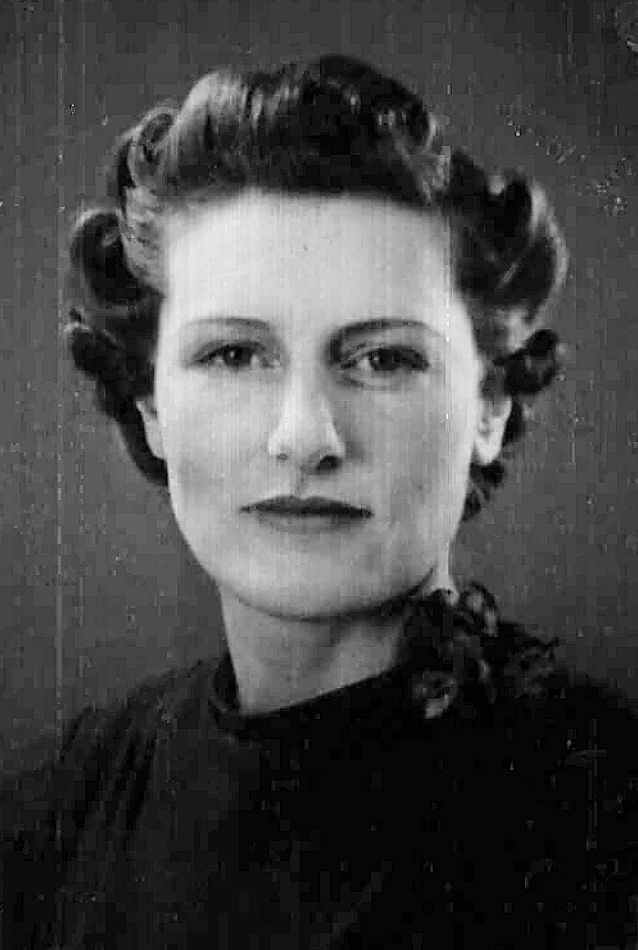 RAeC Mar 1939
RAeC Mar 1939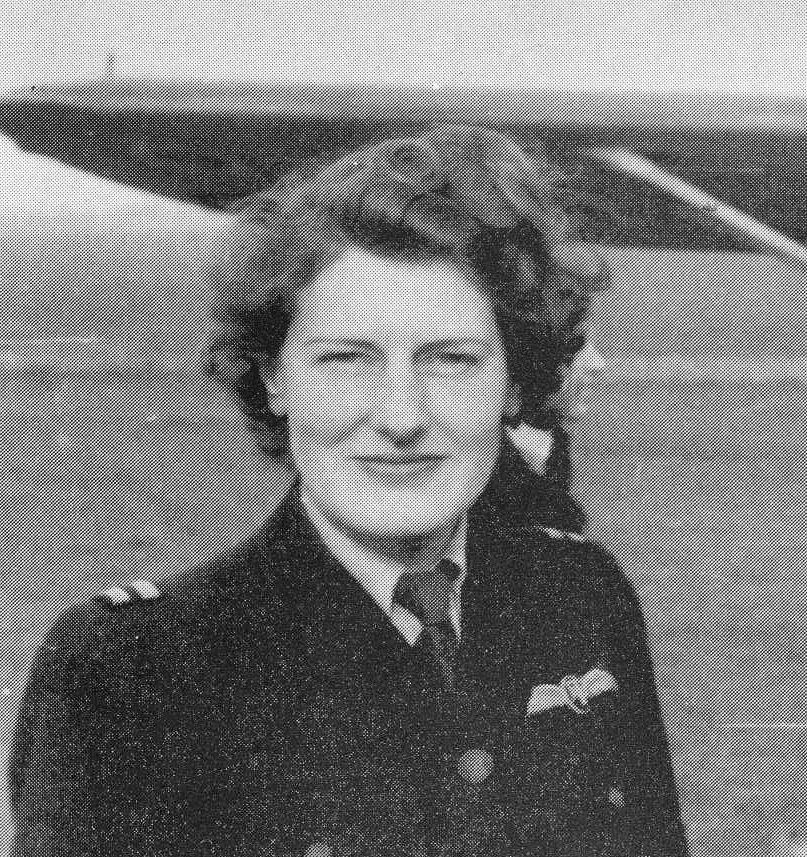 HB
HBAccording to birth and marriage records, 'Zita' was actually born Elsie Kathleen Heysham in Westminster, England on 30 Aug 1907 but, for some reason, she changed her name and gave her place of birth as 'Lucerne, Switzerland'.
Father: Frederick Fernandez Nancy Heysham, mother: Ada Beatrice
prev: Bridge Hostess [whatever that is] at Grockford's Club
m. 1937 in London, Wilfred Adams Irvin (d. 1961)
prev exp: 30hrs 50min (55 hrs with dual) on Gypsy and Tiger Moths, and Moth Minor
Address in 1941: 45c Sloan Sq, London SW1
Postings: 5TFPP, 12FPP, 9FPP
Off sick from 6 Jul to 2 Aug 1942 after her flying accident in a Hurricane, and 6 Feb to 10 Mar 1943 with influenza
7 accidents, 4 her fault:
- 31-Jan-42, in Tiger Moth BB800 which turned onto its back when taking off from a snow-covered surface. 'Poor airmanship' blamed.
- 05-Jul-42, a forced landing in Hurricane I L1945 after she 'used the fuel tanks incorrectly'
- 06-Dec-42, she overshot the landing in Spitfire IIa P7628, hit a fence and the aircraft tipped onto its nose
- 30-Sep-43, while taxying, the port wing of her Wellington III DF571 struck the propeller of a parked Thunderbolt. Not her fault.
- 03-Jan-45, forced landing in Typhoon Ib EK169 after an engine problem
- 13-Apr-45, the tail wheel of her Mosquito RF763 retracted after a normal landing, due to incorrect adjustment of the lock
- 16-Apr-45, she failed to control the take-off swing of her Mosquito VI TA385, and the starboard undercarriage collapsed
Zita carried on flying after WWII; she was commissioned as a Pilot Officer in the Womens' RAF Volunteer Reserve (WRAFVR) in 1949, and became the personal pilot of Vivian van Damm, the owner of the Windmill Theatre.
She flew a Proctor in the 1950, 1951 and 1952 International Challenge Trophy Air Races from Hurn Airport, near Bournemouth, to Herne Bay:
"The Windmill owner-producer-manager Vivian Van Damm will be able to see for himself how his plane Windmill Girl,"' a Proctor V piloted by Mrs. Zita Irwin, is faring at the half-way mark in the International Challenge Trophy Air Race on Saturday, September 16, as the course will take the aircraft within a few yards of his seaside home at Angmering.
Zita Irwin, the Windmill's own pilot, will be accompanied during the race by a television newsreel cameraman who will record a pilot's eye-view of the race."
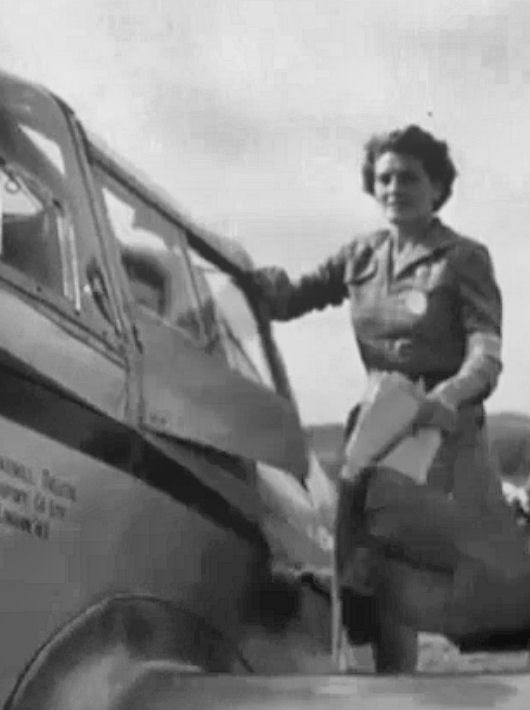
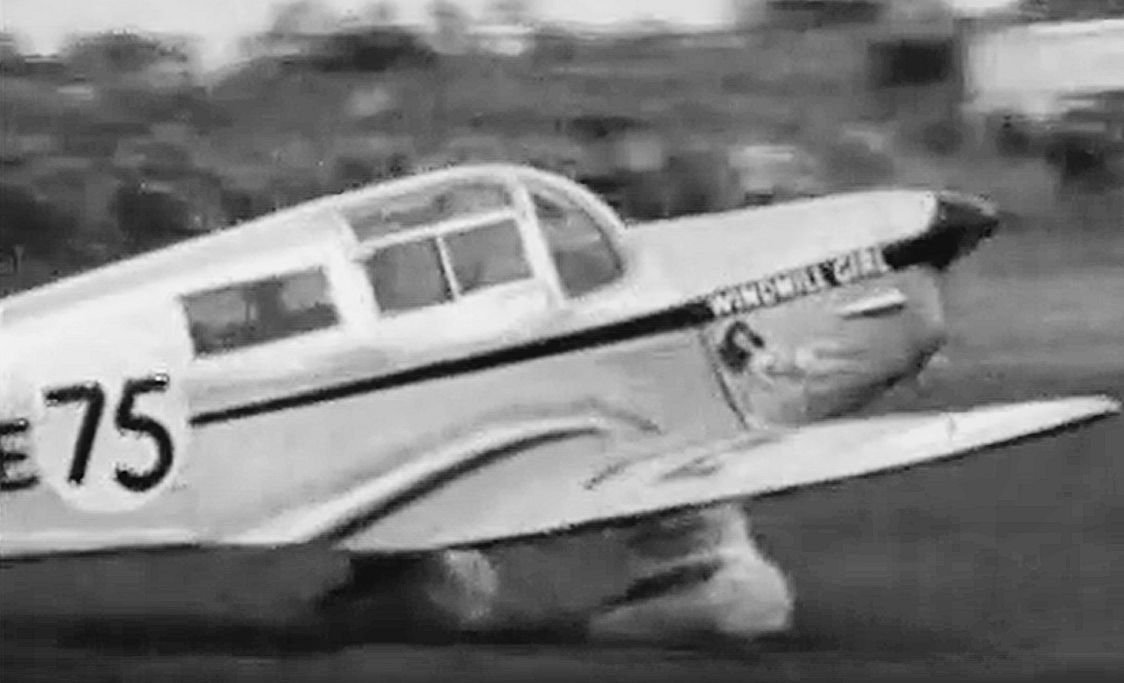
Zita piloting G-AIET 'Windmill Girl', [which later became EI-AMV, damaged beyond repair 1963]
In 1956, Veronica Volkersz wrote that Zita was one of only 7 women flying commercially: - "Zita Irwin pilots the Windmill Theatre's Rapide" - and concluded that "The tragedy is that for women, commercial aviation is now - except, possibly, in Russia - a closed field."
[The others were Jackie Moggridge, Monique Rendall, Jean Bird, Suzanne Ashton, Diana Barnato-Walker and Freydis Leaf]
see https://www.bbc.co.uk/archive/newsreel--car-engined-plane-wins-air-race/zhx4nrd
Richard Hoblyn tells me that "I knew her through my father & grandfather years ago. She worked for Hoblyn & King after the war and was probably the first ever female stockbroker (although not a Member); I still have her dealing books. Raymond Baxter met her when she piloted one of the air races.
My father was an executor of her estate and when she died circa 1975 I helped clear her flat in Sloane Street. I was gifted a German war medal for this which Zita took from the burnt out Reistag in 1945.
A remarkable woman. Her connections were extraordinary and she was highly regarded at Hoblyn & King especially by my grandfather."
d. 19 May 1979, London
-
Jackson, Reginald John Richard
M.777 First Officer Reginald John Richard Jackson 
b. 1 Nov 1908, Cheltenham, Glos. 8 Jul 1942 to 23 May 1945
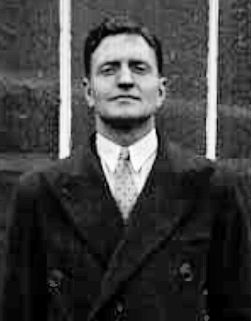 1939 [RAeC]
1939 [RAeC]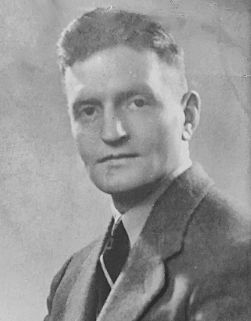 ATA
ATAFather: Richard William Jackson [a retired builder], mother, Mary Elizabeth [Turbyfield]
Ed. Cheltenham Central School
m. 1930 Elsie May [Martin], 1 son
prev. Transport Contractor (own business); RAFVR Sgt, 2 Jun to 10 Dec 1941
prev. exp. 17 hrs on DH Moth
Address in 1942: 54 Eldon Rd, Cheltenham
Postings: 4FPP, 3FPP
"A keen pilot of average ability who completed by flying the Hurricane very well. "Inclined to be careless at times... a good navigator"
In Jun 1944, he requested a transfer to 9FPP (Aston Down), to be near his wife, who had been suffering from poor health and was unable to get any domestic help, but this doesn't seem to have happened.
Reprimanded in March 1945 for Loss of Ferry Pilot's Notes
Three accidents, two definitely not his fault:
2 Dec 1943, he was initially blamed for overshooting a landing in Defiant TT.1 AA493. However, it was subsequently discovered that the approach speed published in the ATA Pilot's Notes was incorrect if the turret had been removed, so he was exonerated, and the figure amended.
- 7 Aug 1944, during a take-off from Crosby, the navigator's escape hatch of his Beaufort I JM546 detached and damaged a propeller
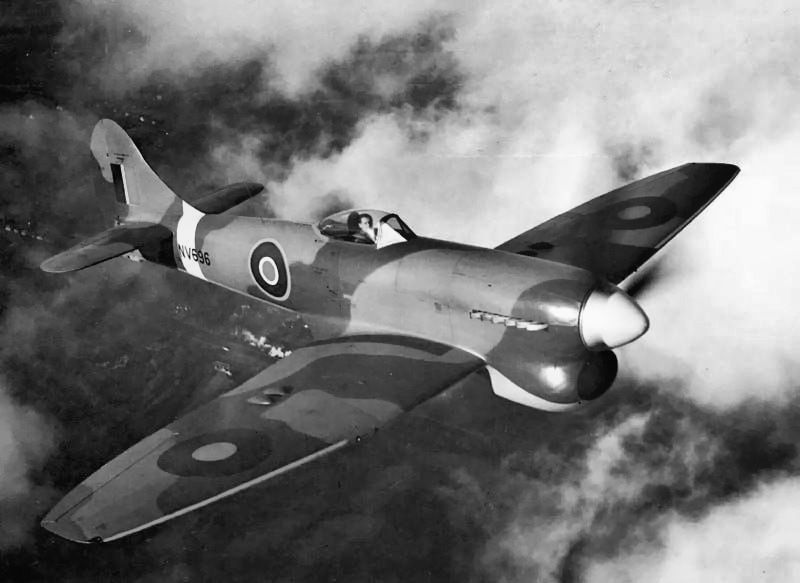
d. 23 May 1945 in Tempest V NV666 which disappeared during a flight from Hawarden to Kirkbride.
By the 3 Jun 1945 no further news had been received, so they presumed that he had crashed into the Solway Firth, or the Irish Sea.
On the 6 June, his wife Elsie wrote to the ATA: "Of course I have realized for some time that there was no hope of the safe return of my husband. Naturally it was a deadful shock to my son and me, and I have been quite ill over it...I must admit that I will find this rather difficult financially... I have had many offers of loans from relatives, but daren't accept them until I know what position I shall be in with regard to re-payment"
The ATA continued to pay Reginald's salary [£370 a year] until presumption of death was formally established, and eventually paid the £2,500 insurance to Elsie on the 21 Jan 1946.
"my husband was very proud of being a member of ATA and loved his work"
Commemorated on the Runnymede Memorial

and on Cheltenham's War Memorial:
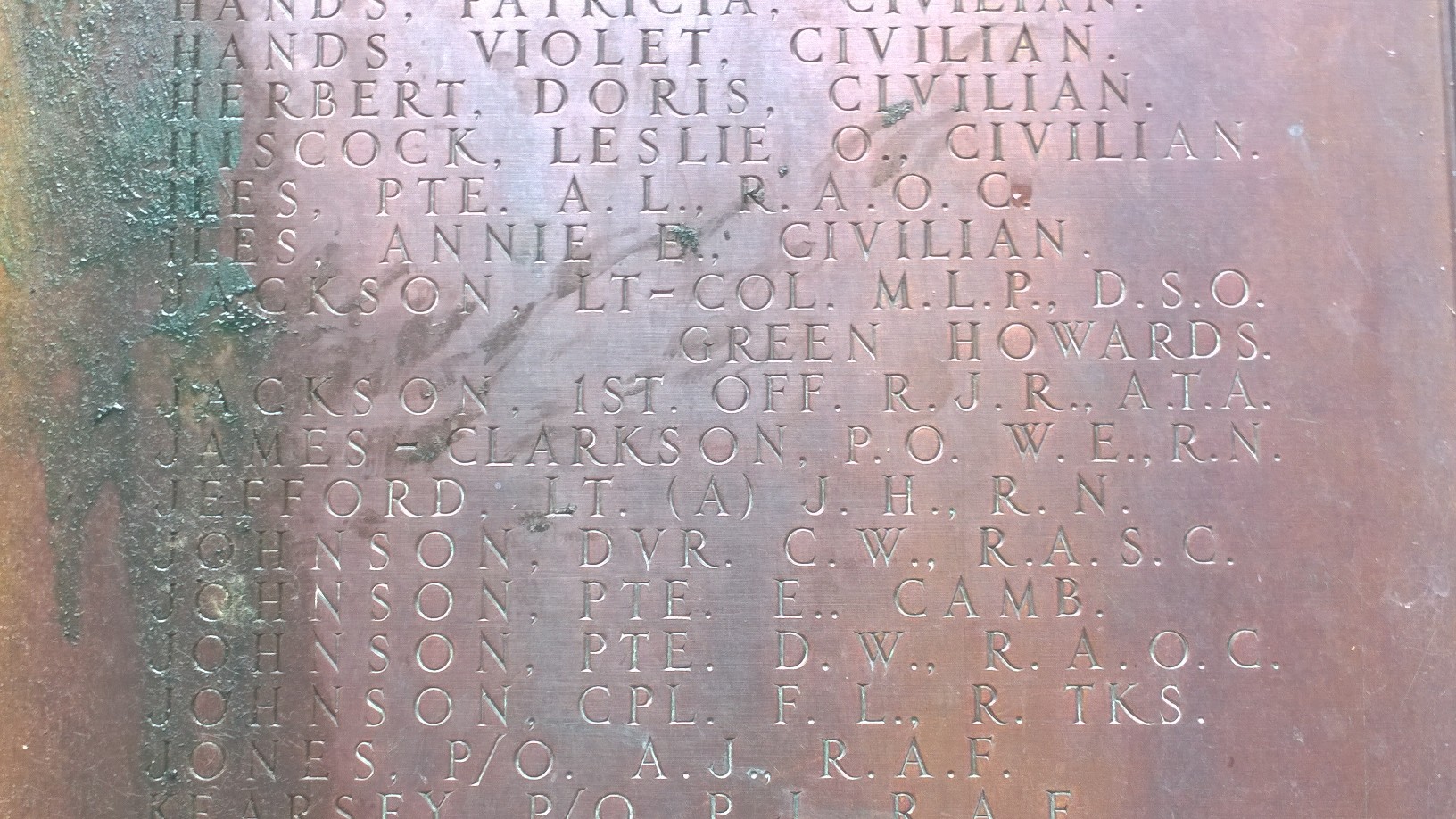
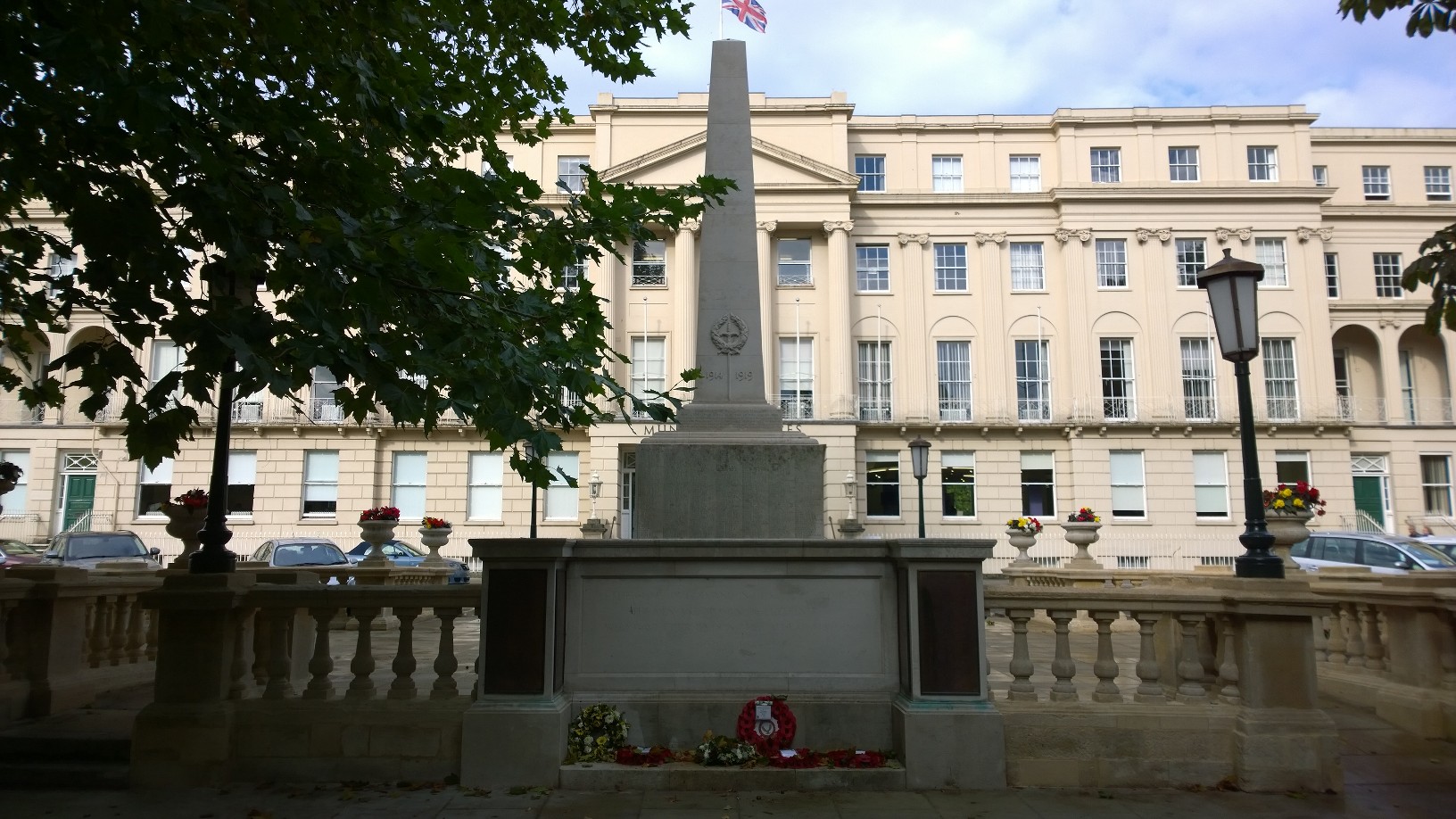
with thanks to Reg's grandson, David, who also tells me: " My grandmother did not talk about him much (it was old and tragic news to her), and neither did my father (I suspect that he did not know his father well as he was sent to boarding school when young and may not have seen a lot of him)... I found out quite by accident that he is commemorated in Cheltenham when visiting (I was born in England but have lived for most of my life in Canada). I did not know the memorial was there, walked past it quite by luck and was astounded to see his name as I had no idea it was there."
-
Jaggar, Ralph
M.502
Flight Captain Ralph Jaggar 
b. 3 Jun 1912, Cleckheaton 6 Jun 1941 to 31 Oct 1945
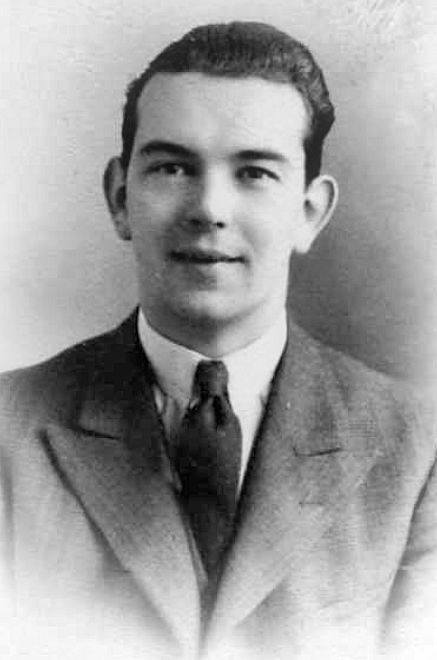 1935
1935Father: Jesse Jaggar, mother Annie [Elliott]
Ed. Heckmondwike Grammar School
prev. 'Motor Trade' - Director and General Manager of Turf Motors, Bradford
RAeC Certificate 12696, dated 14 Apr 1935, on DH Moth at Yorkshire Aviation Services, Leeming
m. 1935 Kathleen [Leach], 1 son b. 15 Aug 1936
6ft 2½ in.
prev. exp 100 hrs
Address in 1941: 8 Fernhill Grove, Victoria Park, Sultaine, Shipley, Yorks.
In March 1939, Turf Motors ran an 'aeroplane guess-the-height' competition in connection with the release of the film 'Men with Wings (which is about the Lafayette Squadron of WWI)':
"FLIGHTS AS PRIZES The entry numbers of the four forms bearing the figure nearest to the correct height will be projected on the screen during the showing next week of Men With Wings,” and will also be exhibited in the showrooms of Turf Motors. The first and second prize winners will both be entitled to one hour’s flight from York Aerodrome, on Sunday, March 26, being taken there by car free of charge. If they wish it, their ’plane will stunt and go through all the tricks of aerobatic fliers, or, if they prefer, the flight will be a straight passenger trip. The third and fourth prize winners will have the same choice, but their flights will be limited to half an hour. Mr. Ralph Jaggar of Turf Motors, is an expert pilot, and will fly one of the ’planes himself." - Leeds Mercury, 17 Mar 1939
Part-owned a 1936 Hillson Praga HA15 G-AEOL, with J Kenworthy and G R Waugh
Postings: 4FPP, 6FPP, 14FPP, 7FPP
Off sick from 10 Sep to 26 Oct 1943 with gastric ulcer
Class 5 (Four-engine) pilot
7 accidents, 2 his fault:
- 17 Apr 1942, a forced landing in Puss Moth DP853 after engine failure on a taxi flight from Ratcliffe to Sherburn
- 23 Oct 1942, the undercarriage of his Spitfire Vb ER780 collapsed, due to his faulty cockpit drill
- 25 Feb 1943, Commended for a forced landing in Tomahawk AH907
- 18 Jan 1944, he turned back in Lancaster III ME 368 with a 'strained undercarriage"
- 8 Mar 1945, the throttle lever of his port outer engine became disconnected, and he landed Halifx III MZ543 with the propeller feathered
- 2 May 1945, another Halifax, another feathered propeller; this time the starboard outer of LW395
- 27 Aug 1945, the propeller tips of his Mosquito VI TA578 touched the ground during take-off.
"A steady and intelligent pilot."
"Handled the Halifax very well in difficult cross wind conditions."
"Set a high standard of discipline and is a good example to all those around him."
"Thorough, conscientious pilot. Administrative ability above average" "Sets a good example to all those under him"
King's Commendation for valuable service in the Air (London Gazette 1.1.46).
"The new price of petrol in Bradford is 3s. 0¼d. per gallon not 3s. Bradford garage proprietors have been embarrassed since Budget Day by the complaints of customers, who had not realised that the price of petrol in inland towns has always been higher than in zones near the ports. Usually, the customer is not asked for the odd farthing when buying only one gallon. But when he is asked for 6s. 0½d. for two gallons he begins to protest. Yet at the old prices he never noticed the difference. "Dealers are hoping that the increased price is the first step toward de-rationing." said Mr Ralph Jaggar, managing director of Turf Motors, Frizinghall, yesterday." - Bradford Observer, 22 Apr 1950
May 1954: "Two well-known local businessmen have had a most successful week-end. though a tiring one. in the National Morecambe Motor Car Rally, which is sponsored the Lancashire Automobile Club They are popular Rotary Club President. Mr. Edward Hirst and Mr. Ralph Jaggar. Mr. Jaggar. who is managing director of Turf Motors, Is also the main local distributor for M.G. and he was the driver while Mr. Hirst acted as navigator They finished eighth (without handicap) in the whole of the Rally, in which 221 cars were competing, and they also won the prize for the Leeds Starting Contest (the most meritorious performance irrespective of group or class at the Leeds starting control." Shipley Times and Express
m. 1973 Susan [Fudge]
d. 14 Nov 1987, Bradford
-
James, Lucie Margaret (W.---)
W.--- Cadet Lucie Margaret James 
b. 1 Jan 1917, London 29 Apr-42 to 22 May-42
prev: Flt Sgt, WAAF
prev exp: (claimed) 200hrs/40hrs solo
[Contract Terminated by ATA]
-
James, Richard Farrer
M.207 * Flight Captain Richard Farrer James 
b. 28 Jan 1893, Gresford 21 Nov 1940 to 28 Feb 1943
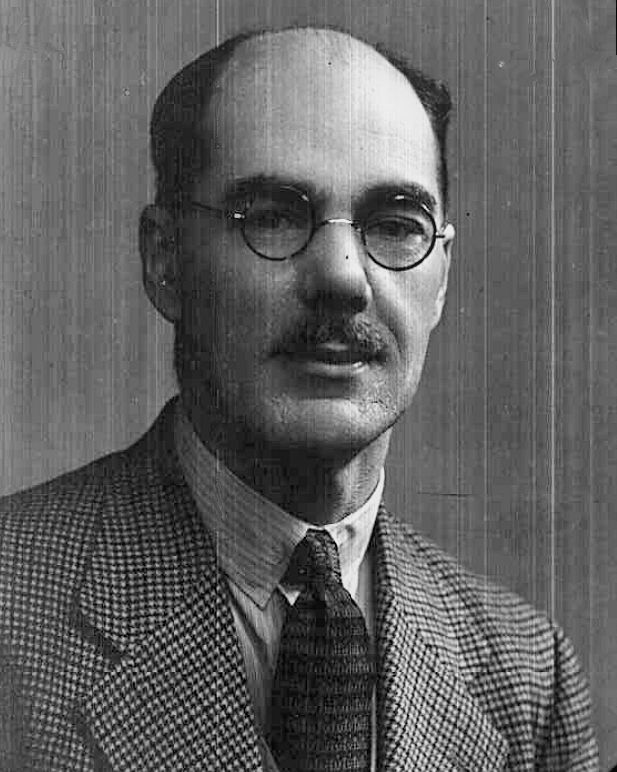 1937
1937prev. a Director
Address in 1937: 49 City Rd, Chester
-
James, William Leslie
M.558 * 3rd Officer William Leslie James 
b. 14 Nov 1906, Bozeat, Northants 10 Jun 1941 to 1 Aug 1942
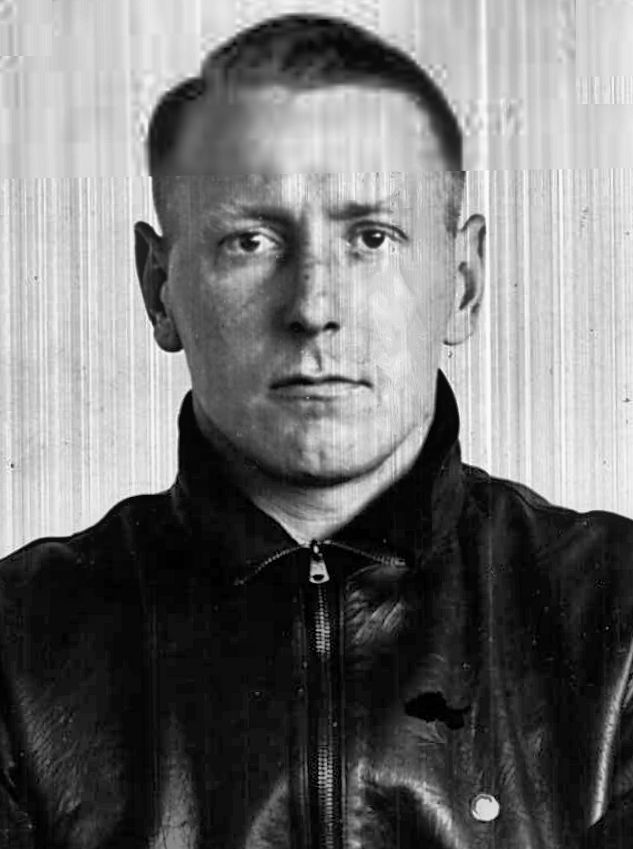 RAeC 1937
RAeC 1937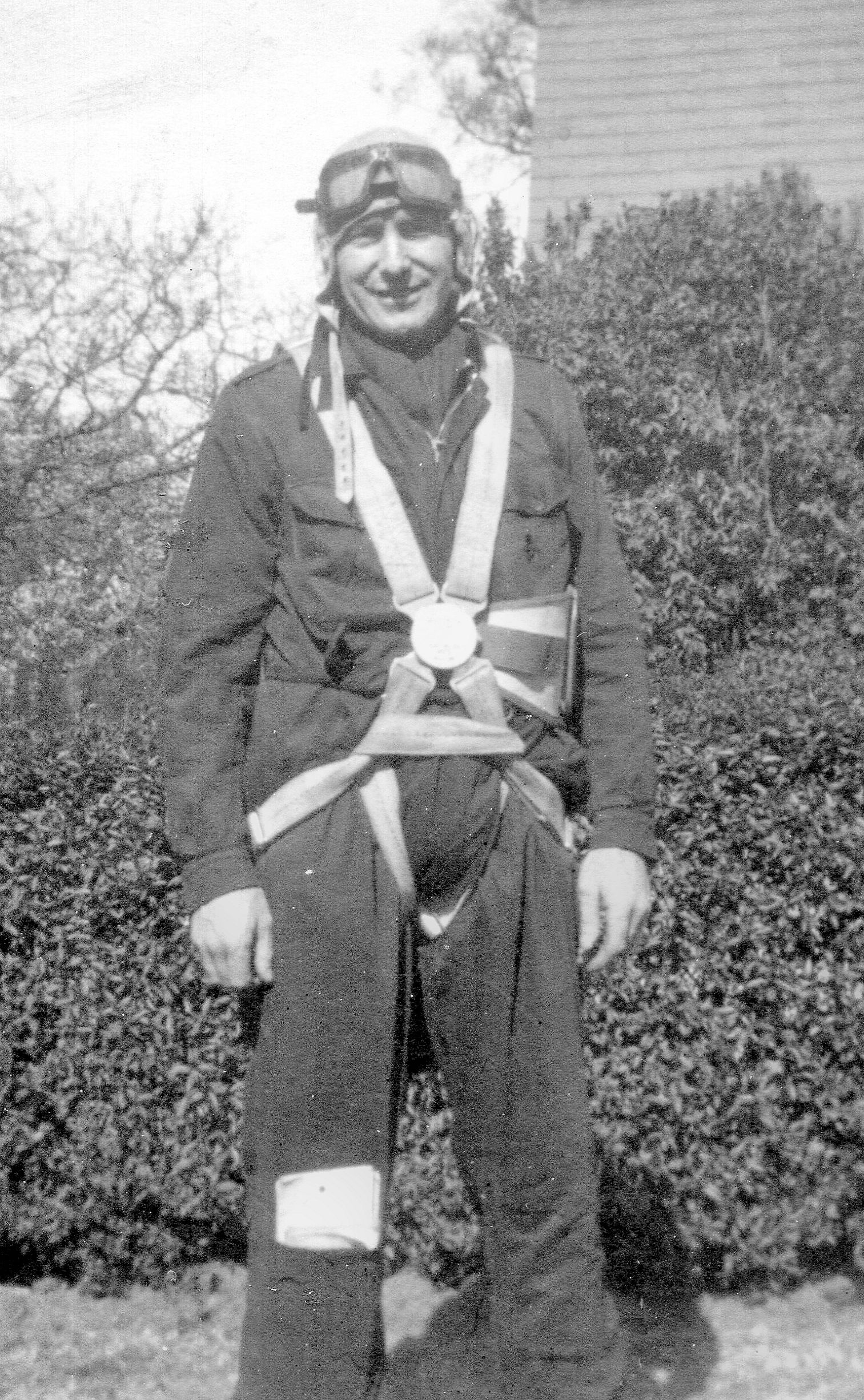
Father: William Arthur James, mother Rebecca [Rainbow]
prev. an engineer
"William Leslie James (19), engineer. Newhay Farm, Yardley Hastings. was summoned for driving a motor car without an efficient silencer on the Wellingborough Road, on August 9. Defendant did not appear. but wrote denying an offence and offering to give a demonstration. P.C. Eales said defendant told him he took the silencer off the machine a month after he bought it. James was fined £1." - Northampton Chronicle and Echo - 25 Aug 1926
Address in 1937: 'Avalon', Stow Longa, Kimbolton, Hunts [He built the house himself]
m. 1937 in Huntingdon, Irene Constance [Mash] [4 daughters: Irene b. 1938, Freda b. 1942, Denise b. 1945, Jennifer b. 1947]
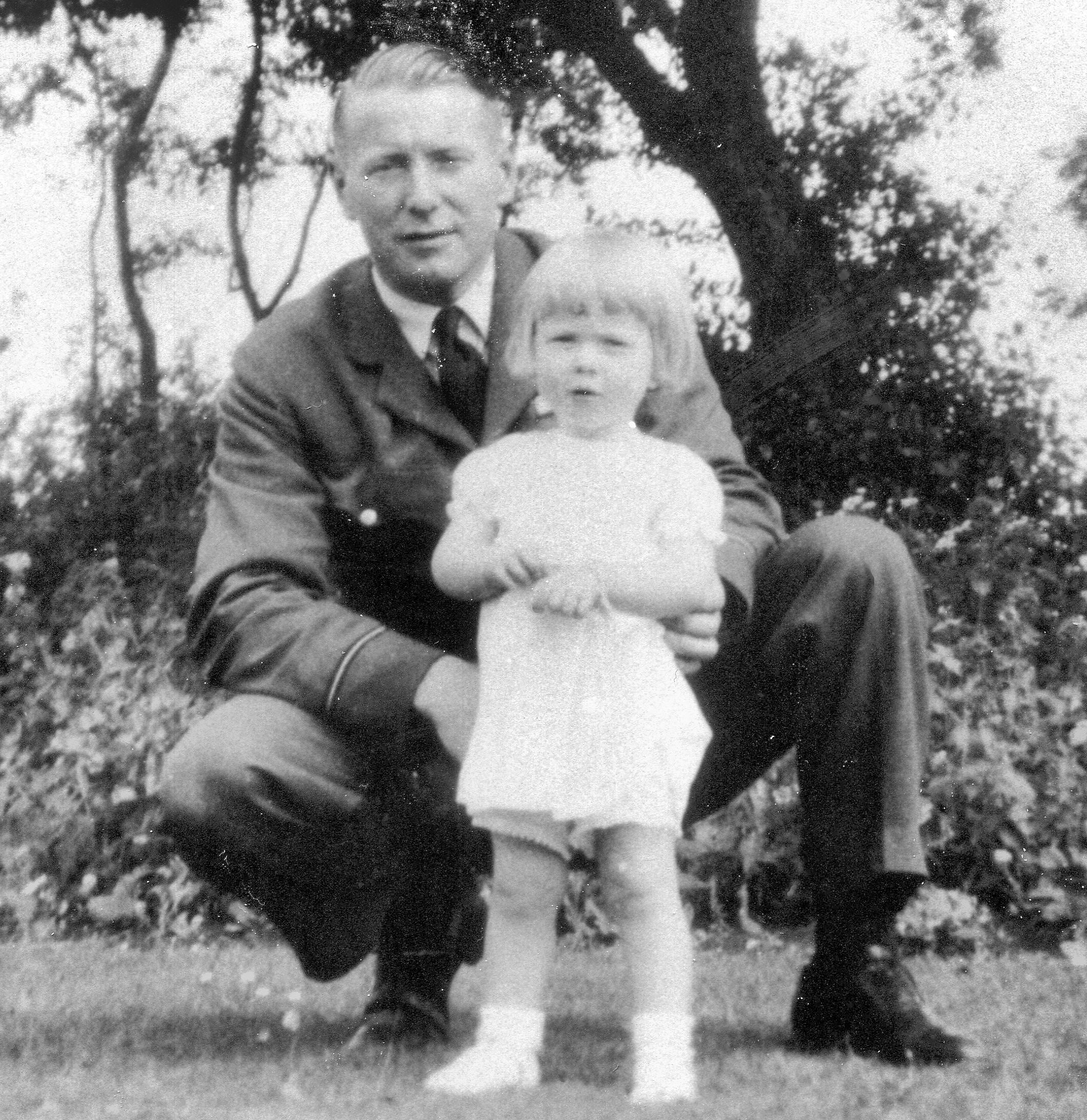 In ATA uniform, with Irene
In ATA uniform, with Irene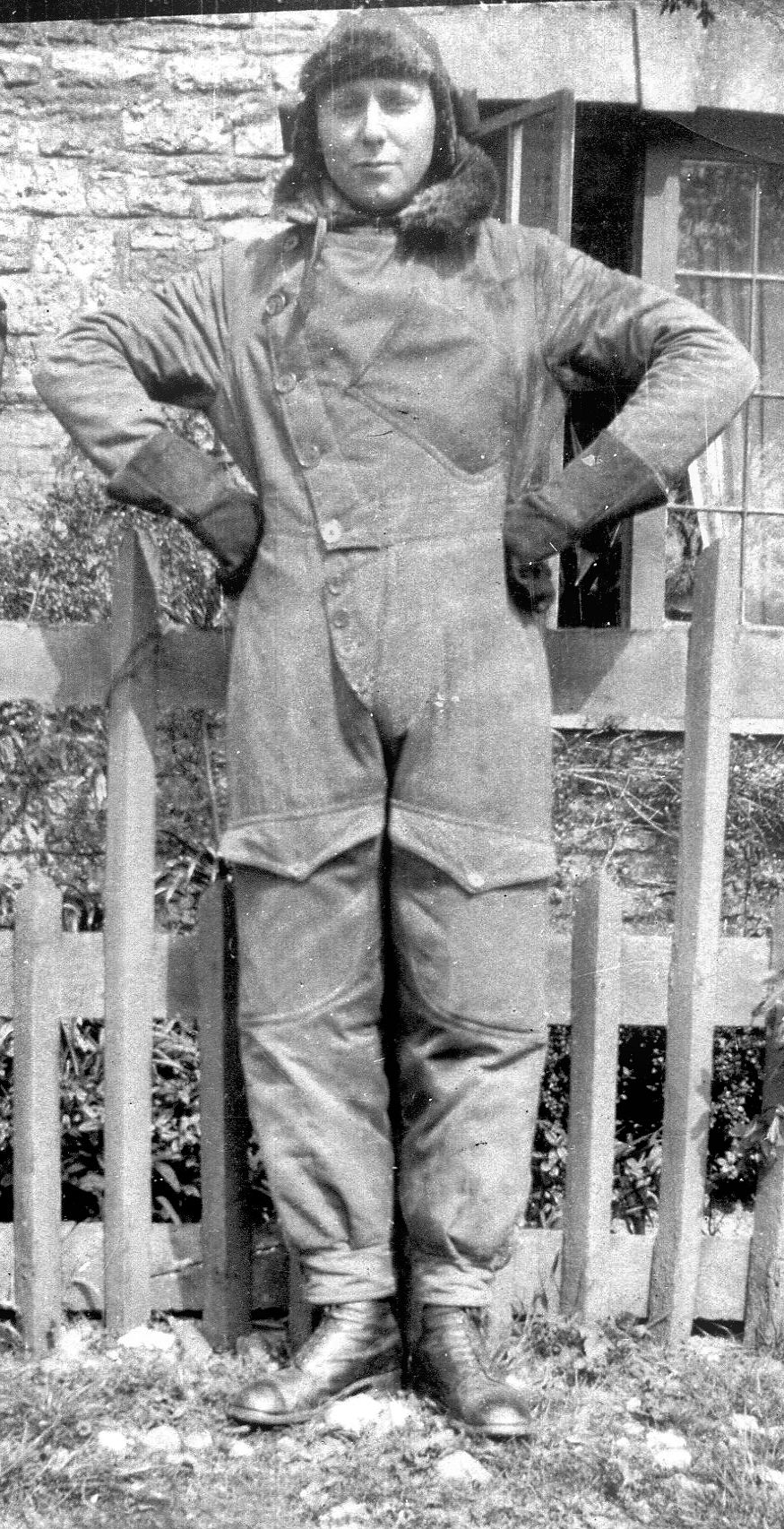
d. 23 May 1953
His grandson Sean [who also kindly supplied the photos] tells me that "He ran an aircraft maintenance and engineering company (his job pre-war was an Aircraft Engineer) in Kimbolton until his untimely demise in 1953 when an oil drum he was welding exploded, killing him instantly.
He owned his own Tiger Moth, which was last noted to be at Sywell (I do not know what happened to it) and was famous locally for his “daredevil” flying antics, including flying the Tiger Moth through a Dutch Barn on his father's farm."
-
Jameson, Donald Alexander
M.823 * First Officer Donald Alexander Jameson 
b. 30 Mar 1910, Redhill, Surrey c. 1 Jul 1941 to 24 Apr 1943
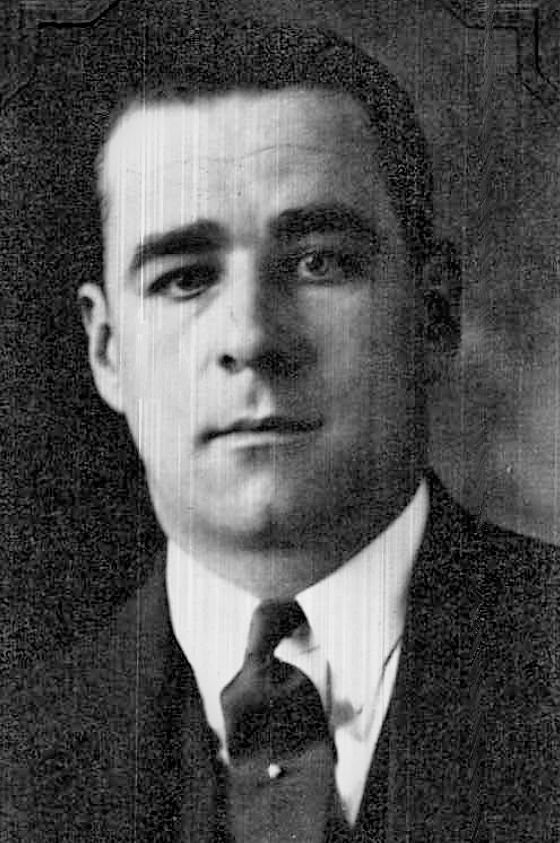 1939
1939prev. a stockbroker
Address in 1939: Doran Court, Redhill, Surrey
m. Oct 1940 in Surrey, Beatrice Joan [Allen]
Postings: 1FPP
3 accidents:
- 2 Nov 1941, the propeller of his Spitfire AA969 was damaged, due to pilot "taxying across a strong wind without a man on the tailplane"
- 11 Nov 1941, damaged his Hurricane RE467 when he retracted the undercarriage before being properly clear of the ground
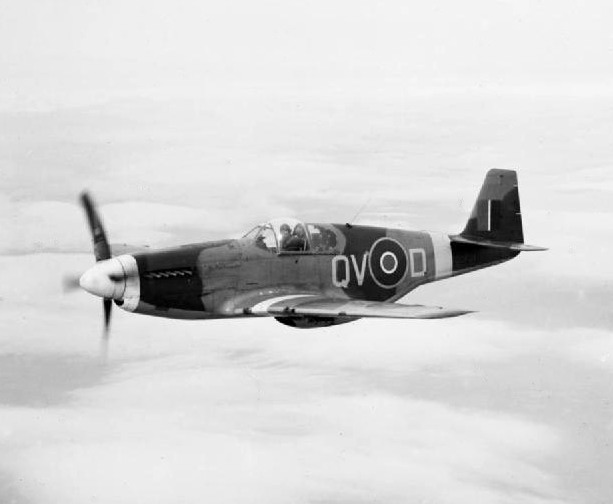
d. 24 Apr 1943 (Died in ATA Service) Mustang AG471 blew up and crashed 1m SW of Bottisham, Cambs, on a ferry flight from 12MU Kirkbride to Bottisham
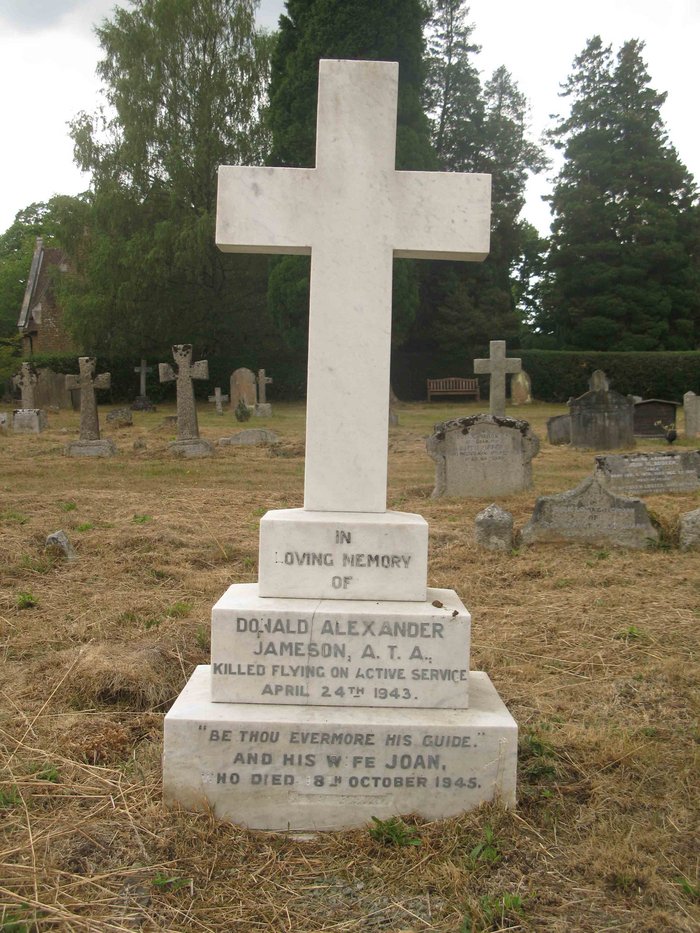
Buried Christ Church, Shamley Green, Surrey
-
Jefferys, Charles Aidan Vernon
M. ---- Warrant Officer / First Officer
[Seconded from RAF, Ser. No. 968927]
Charles Aidan Vernon Jefferys 
b. 30 Aug 1910, Tetbury, Glos. 15 Dec 1942 to 10 Mar 1944
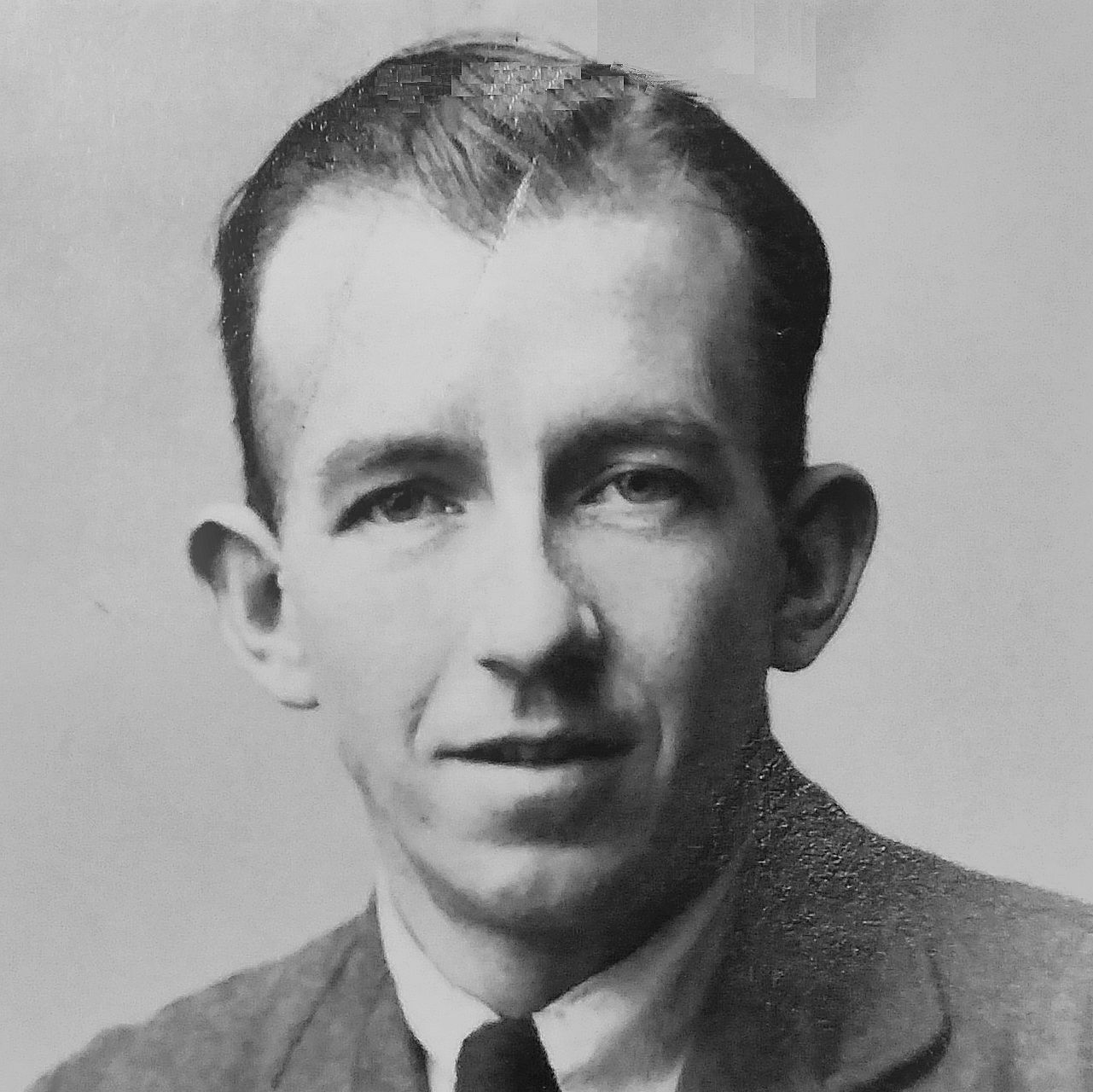 ATA
ATAEd. St Pauls School
m. Dec 1934 Mary Gertrude [Burton] in Stroud, Glos.
prev. an 'Engineering Representative'
prev. exp. 394 hrs plus 1.45 hrs night on Tiger Moth, Magister, Lysander, Oxford, Blenheim, and Wellington.
Address in 1942: The Woodlands, Malpas, Newport, Mon.
Seconded due to a) lack of night flying experience, and b) being of a 'highly nervous type'.
Postings: 16FPP
"A keen and sensible type of N.C.O. who should prove a useful ferry pilot. He was somewhat slow in emergency but he possesses good air-sense and is unlikely to come to grief."
" A very nice type whose flying is unfortunately not too good. He is under-confident and does not use his head but tries very hard."

d. 10 Mar 1944 (Died in ATA Service) in Wellington II W5385 which after an excessive take-off run, rose slowly and then struck trees 1/4 mile N
NW of Aldergrove aerodrome en-route Vickers Armstrong Shawbury.Technical examination showed the elevator trimmers and trimmer control to be in the 'fully nose-down' position. "Evidence also showed that the pilot did not do the preliminary cockpit check in the normal fashion, since he took over the aircraft with engines running and did not run them up. The pilot appears to be to blame for this accident."
Buried Stroud.
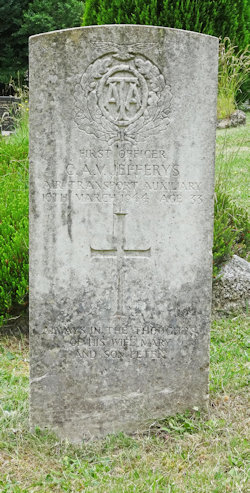 findagrave.com
findagrave.com"Always in the thoughts of wife Mary and son Peter."
In April 1944, Mary wrote to the Under-Secretary of state for Air, the Rt Hon Harold Balfour, to ask for his help: "As you know it was always understood that Peter should follow on at his father's school St. Paul's and he should be starting this coming winter as a boarder. Public Schools as you know are somewhat heavy on the pocket consequently it is imperative that I leave no stone unturned to improve my pension."
She reckoned that, due to Charles having being seconded from the RAF as an NCO, her pension would only amount about 2 guineas a week. He was unfortunately not eligible for the ATA death insurance payment of £2,000.
Peter did start at St Paul's, but by September 1945 Mary wrote again to say that she found her RAF pension "quite inadequate to cover his expenses and tuition."
Could the ATA, therefore please help them to emigrate to the USA? She wanted Peter to finish High School, and then Harvard "at my fiance's expense". Perhaps they could allow her 'free or reduced passage by way of practical appreciation of my husband's services and death?"
They said, well, no, or to put it another way: "It does seem that there is no justification and no argument that we could put forward in any way that will enable us to assist her in her request." Perhaps her fiance could stump up a bit extra?...
Anyway, Mary married Irvin B Miller in Sep 1946 in Newport, and sailed to New York in July 1947, stating that she was intending to stay in the USA.
-
Jenkinson, Joan (W.33)
W.33 First Officer Mrs Joan Molesworth Jenkinson

b. 7 Aug 1908, Sevenoaks, Kent 1 Mar 1941 to 30 Nov 1945
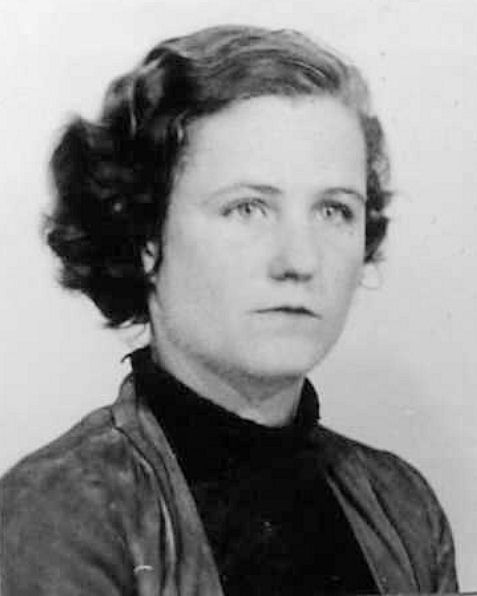
RAeC 1933
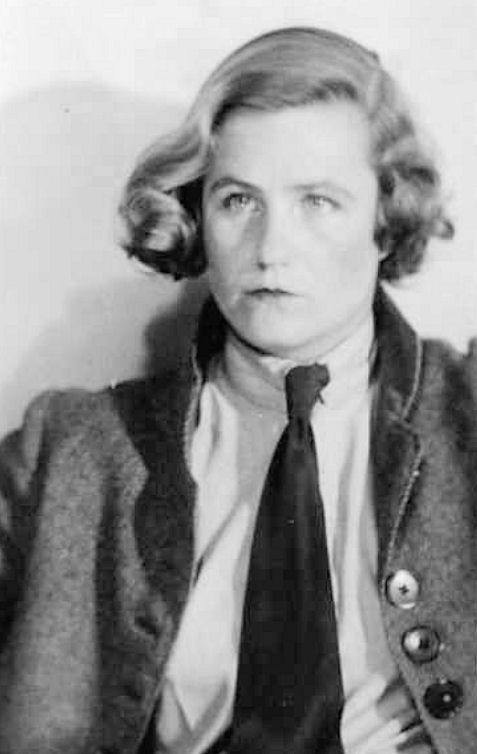
RAeC 1935
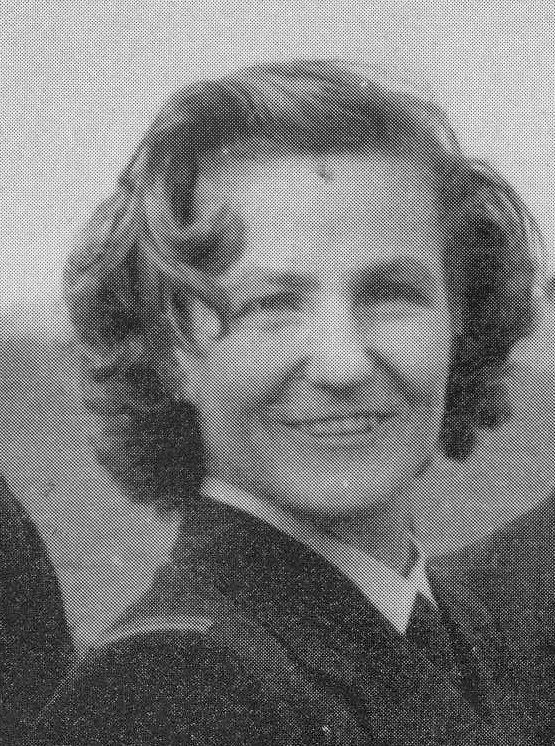
HB
5' 9". Fair hair, blue eyes.
née Dunn
Father: Sir James Dunn, a Canadian banker. "Sir James and Lady Dunn own a ranch in Canada. It is a 12,000 acre estate near Bathurst, New Brunswick, near the spot where Sir James was born."
"Miss Joan Dunn is the sister of Miss Kathleen 'Kit' Dunn. They are among London's most beautiful debutantes" The Scotsman, 17 Mar 1928
m. Jun 1928 Hubert John Duggan - "Mr Duggan is resigning a commission in the Life Guards to enter politics in the Conservative Party"
They divorced in 1930, after Joan admitted adultery with John Jenkinson. There was one child, of which Hubert was granted custody.
m. 1930 in Easthampstead, Berks, John Anthony Jenkinson (suicide, 1935)
31 October 1935: "WORRY DRIVES MAN TO NEEDLESS SUICIDE Dramatic evidence was given Mrs. Joan Jenkinson, the youngest daughter of Sir James Dunn, the Canadian financier, at the inquest at Hammersmith to-day on her husband, Mr. John Anthony Jenkinson, who was found shot in his Chelsea home on Tuesday. A verdict of "Suicide while of unsound mind" was returned. Mrs. Jenkinson told the coroner that her husband was 29 years of age, and a sugar merchant. His general health had not been very good of late, and he had been in a nursing home for little while. He had been depressed owing to financial troubles. She had been away, and when she returned home on Tuesday she found a letter on the table in her husband's handwriting addressed to her. She had lunch with him afterwards, but returned about 4:40pm to find him dead."
"I do die with the most beautiful thoughts of you." This was a phrase in a letter left to his wife by John Anthony Jenkinson, aged 29, who shot himself at his flat in Tite-street, Chelsea. S.W. A verdict of suicide while of unsound mind was recorded"
prev. a Cadet Officer with the Mechanised Transport Corps, May to Jul 1940
Address in 1940: 1, Wilton House, London SW1
Postings: 1FPP, 5TFPP, 9FPP, 15FPP
Off sick from 7 Apr to 26 Jun, then 74 Jul to 29 Sep 1941 with 'sciatic neuritis'
3 accidents, none her fault:
- 13 Oct 1942, a forced landing in Spitfire I L1021, following partial engine failure (she was commended)
- 20 Feb 1944, the tailwheel of her Spitfire retracted after landing, due to a hydraulic fault
- 5 Jul 1944, the engine of her Spitfire cut out during takeoff; she retracted the undercarriage and managed to miss the far hedge
Her C.O. at 9 FPP, Hugh Bergel, thought her "a most conscientious, industrious and reliable ferry pilot. Her unassuming but charming personality are both an asset and a good influence in the Pool."
m. 1943, Hon. Charles Dutton, also of the ATA
d. 1982
-
Jenner, Zoe Elise (W.133)
W.133 3rd Officer Zoe Elise Jenner 
b. 10 Jul 1922, Ealing 6 Sep 1943 to 30 Sep 1945
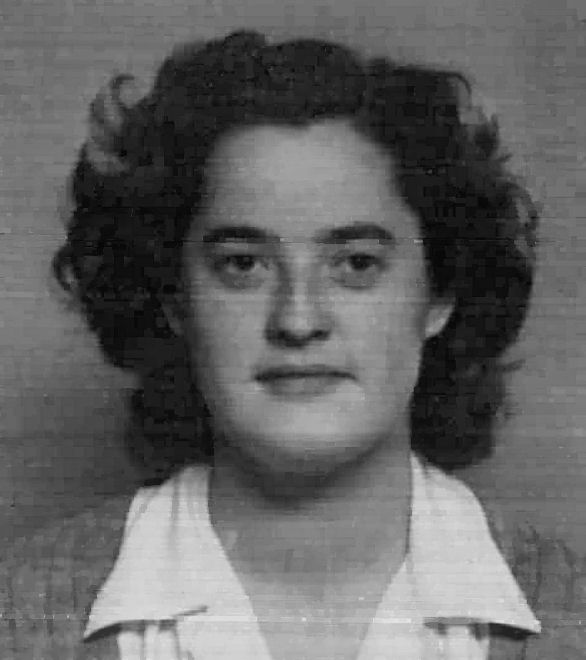 RAeC 1945
RAeC 1945Father: Ronald Vivian Jenner (1894-1970), Mother: Winifred May Louisa Powe (1893-1963)
Ed. St Michael's, Bognor Regis
Address in 1939: Davenport Rd, Bognor Regis
prev: MTC Company Cadet Officer from 28 Oct 1939
"An interesting cricket match was held this club last Saturday, Women v. Men, and attracted a good audience. The men were handicapped by batting left handed and catching with only one hand.
I found it difficult at a distance to distinguish some of these lissome ladies from the men, as both wore white trousers and shirts and had short hair. I don't know much about cricket, but I did learn that in bowling the women at the start gave the men some advantage with " wides," but MISS PALMER and MISS ZOE JENNER soon put a stop to that. I am afraid the men won easily in spite of their handicap but it was an amusing afternoon which was all that mattered. " - Bognor Regis Observer - Saturday 24 August 1940
Address in 1943: Paddy's Land, Beach Estate, Felpham, Sussex
ab initio trainee
Postings: 15FPP
1 accident:
- 11 Jul 1945, when taxying her Defiant I DR966, it weathercocked, the starboard wheel "fell into a trench" and the aircraft nosed over. Partial brake failure was suspected.
engaged to a Mr. Thompson in 1944, but does not seem to have married him.
Gained her Royal Aero Club Pilot's Certificate (No 20646) as part of the ATA's 'Wings' scheme on 12 Oct 1945
d. 15 Aug 2013 (age 91) - Bosham, Chichester, West Sussex
-
John, Geoffrey Hugh
M.196 First Offficer Geoffrey Hugh John 
b. 11 Aug 1912, Dudley 16 Sep 1940 to 28 Apr 1945
[1,685 days]
Father: Ivor Bertram John
Ed. Bristol University, [Zoology]
Prev. RAF Link Trainer Instructor at EFTS, P/O in RAF 151(F) Sqn, North Weald from May 37 to Jan 39 (Resigned)
m. 1938 Evelyn Mary [Congdon]
Address in 1940: 165 Markfield Lane, Ratby, nr. Leicester
Postings: 1FPP, 4, FPP, 14FPP, 6FPP, 8FPP, 3FPP, 10FPP
Jun 42: "This officer does the work that is given to him but doesn't show great keenness and is rather slow. His behaviour as an officer leaves something to be desired... he is unlikely to suffer from overwork."
Nov 42: "His finances have been shaky but this trouble has been tackled firmly and an improvement should result."
May 44: "A keen hard working pilot who has shown good judgement and a high degree of adaptability."
Reprimanded and fined one day's pay for going AWOL, in early Dec 44
d. Sep 1982 - Chichester, West Sussex
-
Johnsen, Pamela May (W.135)
W.135 3rd Officer Pamela May Johnsen 
b. 30 Oct 1918, Bromley Kent 25 Aug 1942 to 31 Aug 1945
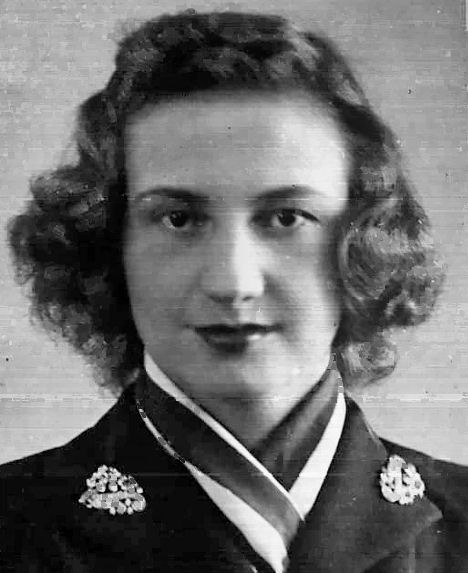 RAeC 1945
RAeC 1945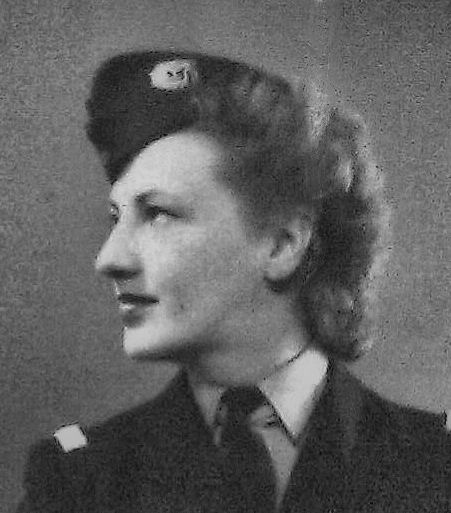 ATA
ATA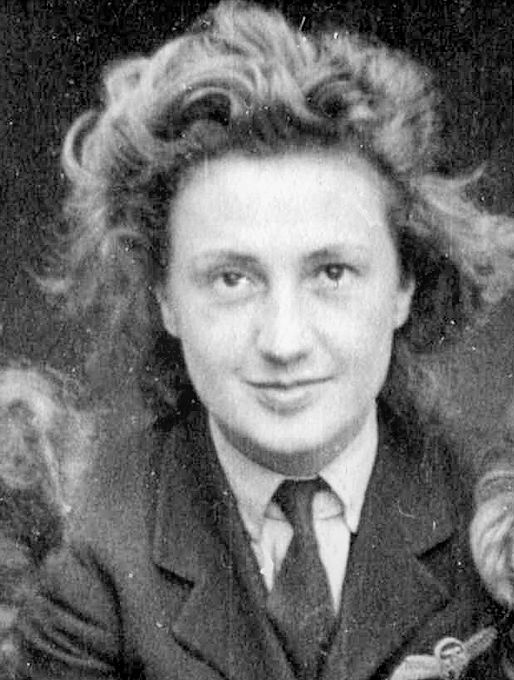 ATAM
ATAMFather: Maj. Olans/Olaus Charles William Johnsen DFC (1889 –1960), a WWI flying ace - see https://en.wikipedia.org/wiki/Olaus_Johnsen;
Mother: Ethel 'May' [Bowater] (1896 - 1990)
Pamela had 6 brothers and a sister.
Grand-daughter of Sir Frank Bowater, Lord Mayor of London 1938-9, and Lady Bowater.
Ed. Benenden School (as was Lettice Curtis, btw), and Munich
prev: Sub-Editor for a women's magazine; volunteer ambulance driver
She had this piece published in the 'Mid Sussex Times' in June1937:
"FRAGMENTS OF TO-DAY.
Forget
The limp, wet bodies
Of burnt, semi-nude humanity
Sweating London’s grime on sunbaked sand ;
Automata, fragments of suburbanity,
Coming from months of toil on office stools !
Cocktails
Drunk by painted lips of painted fools
Who flee from life to bars, and bridge, and balls :
From life.
To whittle time away until Death calls.
But, O remember
The straight young limbs
Diving off rock in the moonlit bay—
Cutting the crest of a foam-tipped wave.
Thoughts thought from the depth of the uncut hay
About Life and Death, space and infinity ;
Sailing Before fresh, salt-laden breezes
Which often rise to fierce and yelling gales.
Drifting
Down to moorings with sunset in your sails. "
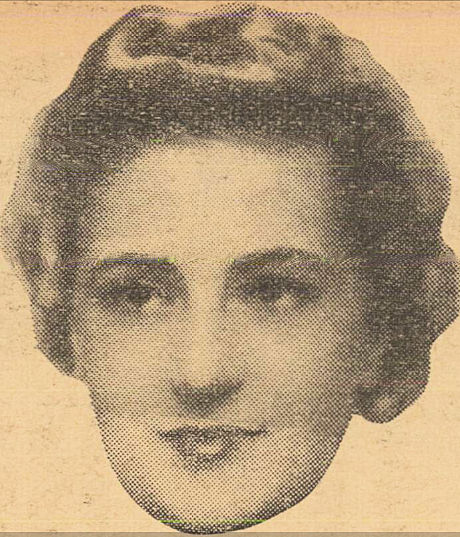 Daily Mirror
Daily MirrorShe was also quite an accomplished golfer, competing at the Hayward's Heath Ladies Autumn Meet in September 1937.
In 1939, she and her sister Sheilagh were two of the 10 maids of honour to "the new Lady Mayoress [of London], Lady Bowater"
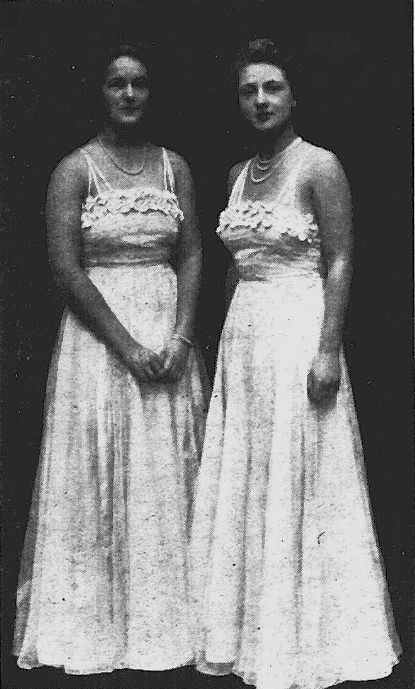 Mid Sussex Times, 8 Nov 1938
Mid Sussex Times, 8 Nov 1938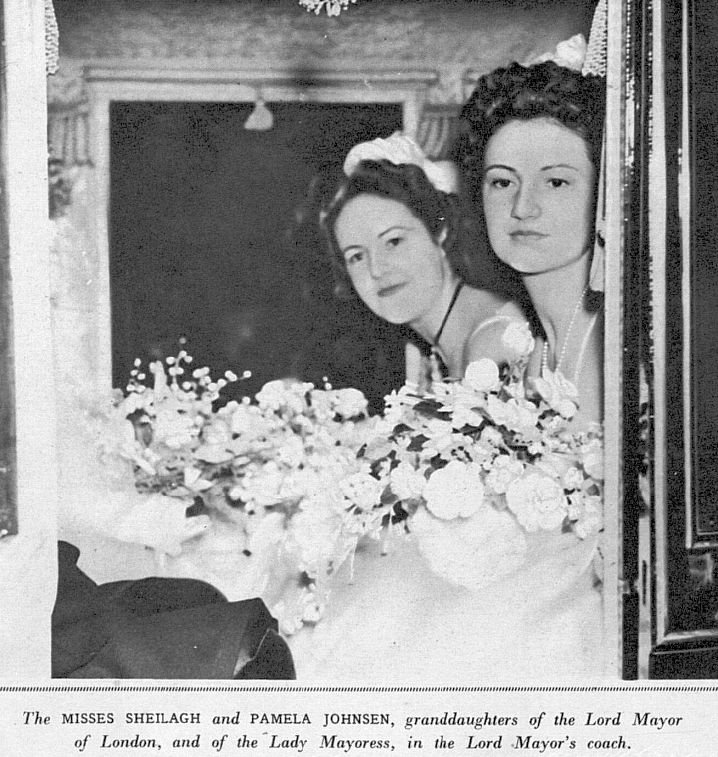 TheSketch, 15 Mar 1939
TheSketch, 15 Mar 1939Address in 1942: Gravetye Manor, East Grinstead, Sussex
Started in Flight Operations until 23 Aug 1943
Ab initio pilot
Postings: 15FPP
2 accidents, neither her fault:
- 23 Oct 1943, a forced landing in Magister P6371, after partial engine failure
- 23-Sep-44, during an emergency landing in Spitfire IX PV232 following a loss of oil pressure, the aircraft ground-looped and was damaged.
m. 11 Mar 1944 Flt-Lt Dr. Richard Braddyl Tulk-Hart, who was stationed at RAF Old Sarum, Wilts (d. 1996)
Address in 1945: 'Tainters', Piltdown, nr. Uckfield, Sussex
In 1948 she wrote, with Margaret Morrison, 'Paid to be safe', "A romantic novel of love and high adventure, told against the authentic background of the band of daring women who ferried the war planes."
"Miss Morrison, who has a big following as a writer of romantic fiction, here enlists the aid of a woman pilot who served with Air Transport Auxiliary during the war. This ensures an authentic background for the story of a girl who comes back to England after the fall of Singapore and personal tragedy, to find new hope and an exciting career in the ranks of the A.T.A."
d. 24 Jun 2010 (age 91)
-
Johnson, Amy (W.12)
W.12 First Officer Amy Johnson CBE 
b. 1 July 1903, Hull 25 May-40 to Jan-41
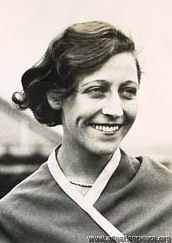
1934
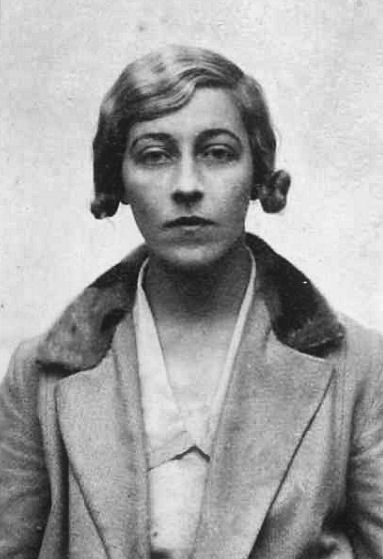 1929
1929Mrs Mollison from 1932 to 1938
Amy was 'a slight young woman with heavily lidded eyes, dentured teeth, a shy smile and a soft Yorkshire accent' [she later developed a rather fake upper-class BBC one, possibly under her husband Jim's influence].
By 1929, a secretary (albeit one with an economics degree, and an engineer's licence to go with her aviator's certificate) turned solo record-breaking pilot and all-round nation's sweetheart. Married for six years to Jim Mollison (which was a Big Mistake).
On May 26th, 1932, after her solo flight from America, Amelia Earhart was the guest of the Royal Aero Club in London, and amongst the ladies in attendance were Lady Bailey, Amy, and Winifred Spooner (less than a year before her untimely death).
"First combined aviation with work in a law office, but specialized on the former and in 1930 made a solo flight to Australia by way of learning her job. Has established a high reputation as a long-distance navigator-pilot in flights, many of which were records, to various parts of the world. Has not done much racing yet" [1936]
Amy originally applied to join the Air Transport Auxiliary on 29 February 1940. At the time she gave her address as the 'St George and Dragon Hotel, Wargrave', and quoted her previous experience as 'approx 2,000 hrs day, 500 night'. 'Types flown' were 'Most light types, several twins, Ford Tri-motor - about 50 in all'.
The form also had a space for "have you any foreign experience?", in which she wrote 'Nearly all except S. America.' She was, shall we say, not your typical ATA applicant.
After being made redundant, like Joy Davison (q.v.), when National Air Communications closed down, she spent the next few months trying to find something better, but to no avail. On the 20th April, ATA Womens Commandant Pauline Gower wrote to her to ask if she was still interested in joining, and, if so, "I shall be glad if you will forward us by return your log book and licence for inspection". Two days later Amy sent the documents, but asked if they could be returned as soon as possible, as she needed them for her medical examination on the 7th May.
A week later, Amy received a circular letter: "Dear Madam, We are holding interviews and flight tests here on Monday next, the 6th May, at 11a.m. Kindly let us know if you intend to be present". She wrote a short note back on the 2nd May:"I note the arrangements for Monday at 11a.m. & will be there".
This was the famous occasion when Amy turned up and saw another applicant "all dolled up in full Sidcot suit, fur-lined helmet and goggles, fluffing up her hair etc - the typical CAG Lyons-waitress type."... "I suddenly realised I could not go in and sit in line with these girls (who all more or less looked up to me as God!), so I turned tail and ran."
Luckily for her, when she telephoned ATA to make some excuse about having the 'flu, they said the job was being kept open for her anyway, the test was just a formality, and she could start when she liked. Which she duly did, on the 25th May, as a 2nd Officer.
Her initial instructor's report was OK: "A good average pilot who had no difficulty in converting to both Master and Oxford aircraft. Should be suitable for modern single engine service types and multi-engine trainer types. With a further period of dual should be quite suitable for Blenheim type."
Despite her extreme reluctance to join the ATA in the first place, clearly thinking it was beneath someone with her great experience (she thought she could have had Pauline Gower's job, "if I had played my cards right and cultivated the right people"), Amy settled well into the job and "worked hard and conscientiously". She was promoted to First Officer on July 1st 1940.
She was killed 5th January 1941, aged 37, after baling out into the Thames Estuary from Airspeed Oxford V3540. It seems likely that she was run over by the boat trying to rescue her.

A flurry of urgent telegrams and letters hurtled around on the 5th and 6th January, as everyone tried to find out what had happened to her:
ADDRESSED TO ALL RAF FLYING UNITS AND WESTON SUPER MARE FROM AIR MINISTRY: OXFORD V3540 MISS AMY JOHNSON LEFT SQUIRES GATE 1045 HOURS 5/1. REQUEST NEWS OF ANY SUBSEQUENT LANDING IMMEDIATELY. ALL UNITS TO ACKNOWLEDGE.
They all replied, along the lines of this one from No 3 Ferry Pool, Hawarden: REGRET HAVE NO INFORMATION REGARDING F/O AMY MOLLISON OXFORD V3540 (They obviously forgot she was divorced).
By the evening of the 6th, the concern was for the second of the two people thought to have been on board: IDENTITY OF PASSENGER OF OXFORD V3540 PILOTED BY MISS A JOHNSON WHICH LEFT SQUIRES GATE 1045 5/1. TWO PEOPLE BALED OUT IN THE ENGLISH CHANNEL IDENTITY OF SECOND UNKNOWN
It was headline news in all the papers, of course:
Gloucester Citizen, 7 Jan 1941: "AMY JOHNSON DROWNED. BALED OUT OVER THAMES ESTUARY. Amy Johnson, the airwoman, is feared to have drowned after baling out of her plane over the Thames Estuary on Sunday. A woman passenger with her in the plane also baled out, and they came down some distance from a boat. An Officer who jumped into the sea in an effort to save them is also believed to have drowned. Just before Miss Johnson baled out her plane was seen to dive towards the sea. A speedboat put out immediately, but the men aboard failed to find her or her passenger. The flight authorisation papers from her machine were, however, picked up from the sea.
A Good Swimmer. Her father. Mr. W. Johnson, a Bridlington fish merchant, was telephoned by Miss Pauline Gower, head of the Air Transport Auxiliary, saying that the wreckage of his daughter's aeroplane had been found in the sea. Mr. Johnson told our reporter:— " Everyone knows Amy's skill as a pilot. If there had been any chance of getting the machine down safely she would have done it. She must have been injured, too, before she landed in the water, for she was a good swimmer. 'We were looking forward to having her home at Christmas, but she had to cancel her visit because of flying duties. I spoke to her last Saturday night. She was very cheerful. She joined the Air Transport Auxiliary six months ago. She knew it was a risky job, but she felt she had do something for Britain, and flying was the job she knew best. Our one comfort is that she gave her life for her country.'"
The mystery of the 'passenger' was addressed by Pauline a few months later:
Hull Daily Mail, 27 Aug 1941: "AMY'S LAST FLIGHT Miss Pauline Gower, Commanding the Women's Section Air Transport Auxiliary, stated yesterday at a London luncheon that she had checked Johnson's last flight and had "absolutely no doubt how she died" in the Thames Estuary last January. The famous airwoman, Miss Gower said, ran short of petrol in bad weather, and when she baled out "it was just bad luck that she happened to be over water. In baling out the type of 'plane she was flying it is often necessary to jettison a door, and this door coming down may have given rise to the rumour that there was another passenger aboard."
Pauline wrote to Amy's parents on the 10th January: "Apart from the loss to the Nation of one who, by her achievements, had endeared herself to all, we are suffering our own particular loss. Since she had been with me, she not only proved herself to be a pilot of the calibre one might expect, but we had come to rely on her and she had made friends with all and sundry."
Amy's aircraft included:
a 1928 DH.60G Gipsy Moth (G-AAAH) which she named 'Jason', and is now in the Science Museum;
a 1930 DH.80A Puss Moth, G-AAZV, 'Jason II';
a 1930 DH.60G Gipsy Moth, G-ABDV, er, 'Jason III'.
After 1930 she owned:
a 1932 DH.60G III Moth Major, G-ABVW,... ummm, let me guess... yes... 'Jason 4', and
a 1932 DH.80A Puss Moth, G-ACAB, 'The Desert Cloud'
Commemorated on the Runnymede Memorial:

-
Johnson, Philip Harvard
M.87 Flight Captain Philip Harvard Johnson 
b. 18 Sep 1907, Hessle, E Yorks 2 Oct 1940 to 30 Jun 1942
[636 days]
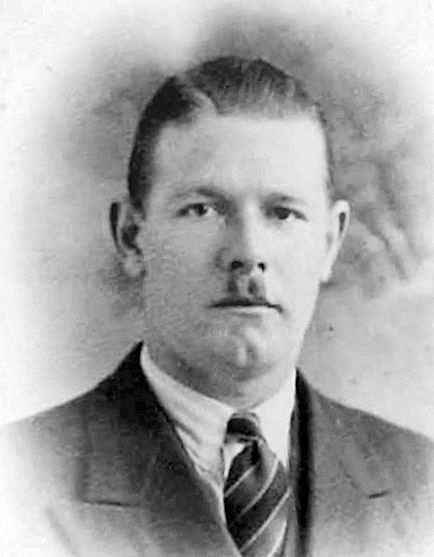 1933
1933Ed. at Marlborough College. His father, Dr. Samuel Harvard Johnson, was the Medical Officer for Hessle, Hull. His mother was Ethel Ida [Booth] and he had an elder sister, Kathleen.
prev. a pilot for BOAC.
prev. exp. 4500 hrs (day), 500hrs (night) on "All Moths, Avian, Spartan Cruiser, DH84, 86, 89, Airspeed Envoy, HP42, and 'C' Class Flying Boat" in "France, Germany, Czechoslovakia, Austria, Hungary, Africa and the Far East".
Member of Hull Aero Club, and owned a 1930 Avro 616 Avian IVM G-AAVP:
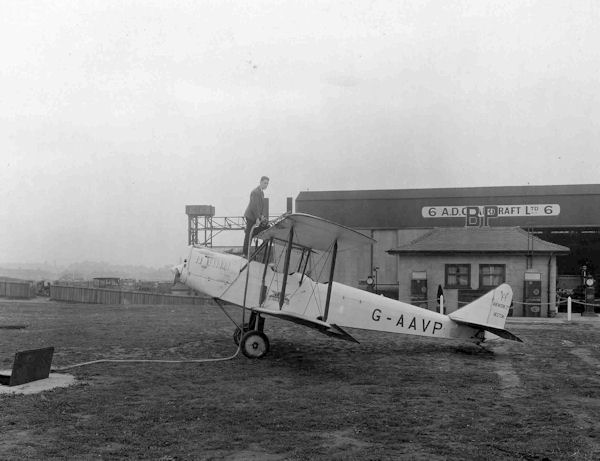
Single. Next of kin his mother, c/o Walney Hall, Southfield, Hessle
---------------------------------------------------------------------------
The Scotsman - Friday 2 Jun 1939:
"AIR PILOT FINED £10 ON MOTORING CHARGE
Philip Harvard Johnson, an air pilot, at Perth, whose address was given as the Royal British Hotel, Perth, was fined £10 and had his driving licence suspended for twelve months when found guilty at Dundee Sheriff Court yesterday of driving a motor car in Dundee while under the influence of drink.
No evidence was led for the defence. Sheriff-Substitute Malcolm, addressing Johnson, said his occupation and position made it more incumbent on him than on most people to refrain from drink."
---------------------------------------------------------------------------
Manchester Evening News - Thursday 8 February 1940
"BLACK-OUT AIRMAN FINED £25
Described as an air pilot engaged on aerial black-out survey at the time of the offence, Philip Harvard Johnson, giving an address at the Woodcourt Hotel, Brooklands, was found guilty at the Manchester City Police Court of being under the influence of drink while driving a car and when disqualified. A third charge of driving dangerously was dismissed.
Mr T. A. Cunliffe, barrister, for the defence, said that at 11:20 p.m on February 18, a police war reserve officer saw a car driven by Johnson zig-zagging slowly towards London Road ; near Whitworth Street. The car reversed, mounted the foot-path and collided with a warehouse wall. When questioned about his licence, Johnson told the officer he had written to the Air Ministry and had got a letter to say that he was engaged on aerial duties which gave him special facilities.
Johnson said that on the night of the offence he had had ten whiskies and sodas between 7:30 and 11. This was his usual drink.
The Stipendiary Magistrate fined him £20 for driving a car while under the influence of drink, £5 for driving while he was disqualified, and banned him from driving for three years."
---------------------------------------------------------------------------
Address in 1940: 'Thornhill', Stamford Rd, Bowdon, Cheshire
Postings: White Waltham, Ringway
Seconded to Atfero, 20 Mar 1941
m. Sep 1941 Joan [Hartley], son Timothy (later a Lt-Cmdr, RN) b. 1944
d. Aug 1984 - St Austell, Cornwall
-
Jones, Oscar Philip
M.--- * Captain Oscar Philip Jones 
b. 15 Oct 1898, Beckenham, Kent c. Jan 1940 to c. Jan 1942
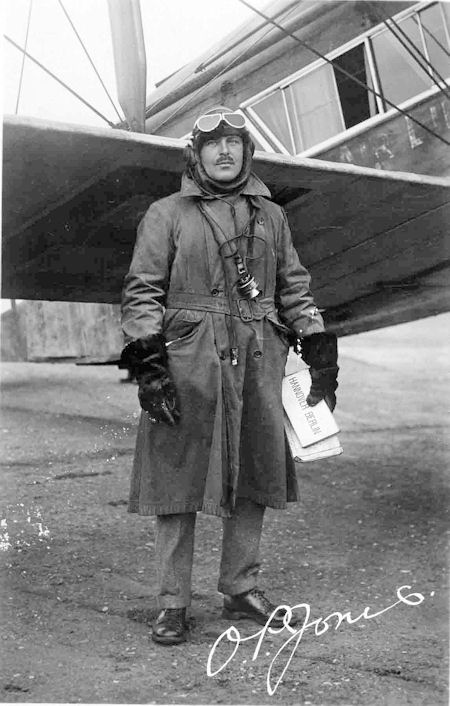
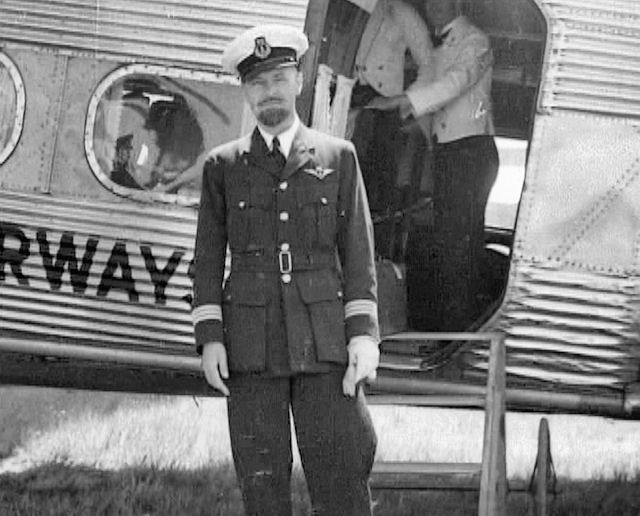
RFC in WWI; with Instone Air Line before 1924
One of the original 16 pilots of Imperial Airways in 1924
January 1935: "AIR LINER PILOT IN MOTOR SMASH. Captain O. P. Jones, the well-known Imperial Airways pilot, was yesterday involved in a motor smash at Coulsdon, Surrey. Ten minutes later he was circling low over the scene of the accident in a Paris-bound liner. It was in Burton Road, Coulsdon, that Captain Jones' car came into collision with another, both vehicles being wrecked. Apart from scratches no one was hurt."
Awarded Master Pilot's Certificate in 1935
17 May 1935: "PILOTS TRAGIC FLIGHT Knowing Widowed Mother Was Dead. With the knowledge that his widowed mother had met with a tragic death, Captain O. P. Jones, a well-known Imperial Airways pilot, had to complete a flight in the course of his duties before he could travel to Hove to identify her body.
His mother, Mrs. Florence Effle Jones (80), had been found dead in the sitting-room of her flat with the gas tap turned full on. The police, who at once telephoned to Imperial Airways, got into touch with Captain Jones, who learned the news just before he had to undertake the flight.
The police are stated to have found a note in which the dead woman said that loneliness and depression had been too much for her. Captain Jones was the first pilot in the world to cover 1,000.000 miles in the air. That means that he has spent about 10,000 hours in the air or more than a year's continuous flying. He has been apilot with imperial Airways for more than 11 years. He has often piloted royal passengers, including the Prince of Wales, and recently the Duke and Duchess of Kent."
May 1935: "FATAL DEPRESSION. MOTHER'S LAST LETTER TO CHILDREN Mrs. Florence Jones (60), mother of Captain O. P. Jones, an Imperial Airways pilot, was found dead in a gas-filled room at her home at Cambridge Road, Hove, yesterday, and at the inquest at Hove to-day a verdict of "Suicide while of Unsound Mind" was recorded.
In a letter to her son and daughter she wrote: "Loneliness and depression and money troubles have become too much for me. Love to all of you." Captain Jones said that his mother had had fits of depression since the death of his father in 1914. She had no need to worry over money, as she had a small income."
Postings: 2FPP (As CO)
* File not seen
-
Jordan, Edward Warder
M.220 * First Officer Edward Warder Jordan 
b. 2 Apr 1895, Tewkesbury, Gloucestershire 4 Apr to 5 Nov 1941
Father: Samuel Warder Jordan, a farmer (d. 1933); Mother: Mary Sophia
Address in 1911: Moat House, Gotherington, Cheltenham
prev. RE 1914 - 1916, RFC/RAF 23 Jan 1918 - 1920, 1923 - 1936 (transferred to Class C on reaching age limit. Machines flown: 'All single engine types')
2 years dispatch riding in France
In 1923, "Pilot of more than average ability, slightly spoilt by too much confidence." By 1924, "has become much steadier than he was on the last course"
Address in 1939: Belmore House, Bath Rd, Cheltenham
Postings:
A 'civil air pilot' in 1952
d. 12 Nov 1978 - Cirencester, Glos
* File not seen
-
Jordan, William Alan
M.752 First Officer William Alan 'John' or 'Johnny' Jordan 
b. 29 Nov 1920, Sandy, Beds 17 Jun 1942 to 30 Sep 1945
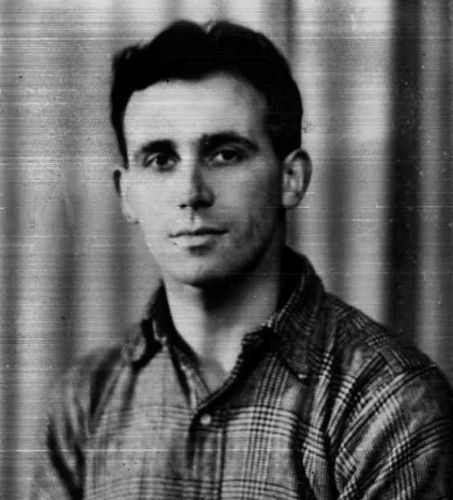 1946
1946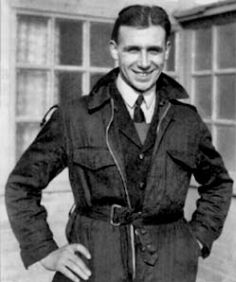
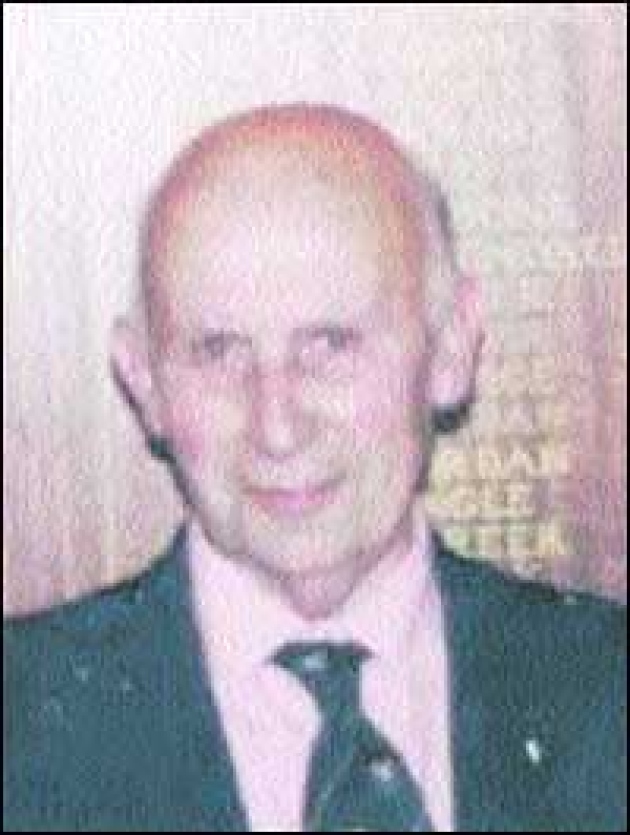
Ed. Wellingborough
prev. gave his occupation as a 'Haulage Contractor', but he was also a member of the family that owned "Jordan's Mill", near Biggleswade, from before 1900:
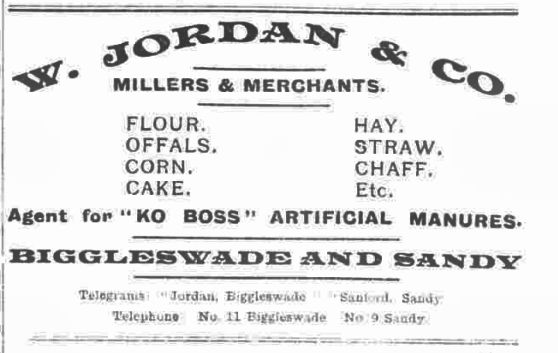 1908
1908RAF from July 1940 to March 1942 (A.C.2 and L.A.C)
Taken on by the ATA as a Pilot Cadet; 3rd Officer from 18 Aug 1942, First Officer from 23 Jun 1943.
"On the 16th January 1945, during the period of the Ardennes offfensive, 12 Spitfires needed to be flown from Hawkinge in Kent to the French Air Force Wing at Luxeuil. When the pilots arrived to collect them the landscape was covered in snow, the temperature was well below zero and a biting east wind blew in heavy gusts.
The first three to get away were flown by Johnny Jordan, [M.926, Joseph] McSween, and [M.941] Basil Wrightson." - "ATA's Polar Expedition", according to Brief Glory
"William (5th). always known as 'John’, did his milling apprenticeship in Norwich, before joining the RAF at the start of WWII.
Although a quiet man, John was known to be quite mischievous... His 'no fear' attitude often got him into trouble. He’d been thrown out of school for building a car during school hours, and he was thrown out of the RAF for flying friends to the pub when they had been confined to barracks. With his RAF career cut short, he went on to join the ATA delivering planes and by the end of the war he'd flown over 80 different types of aeroplane.
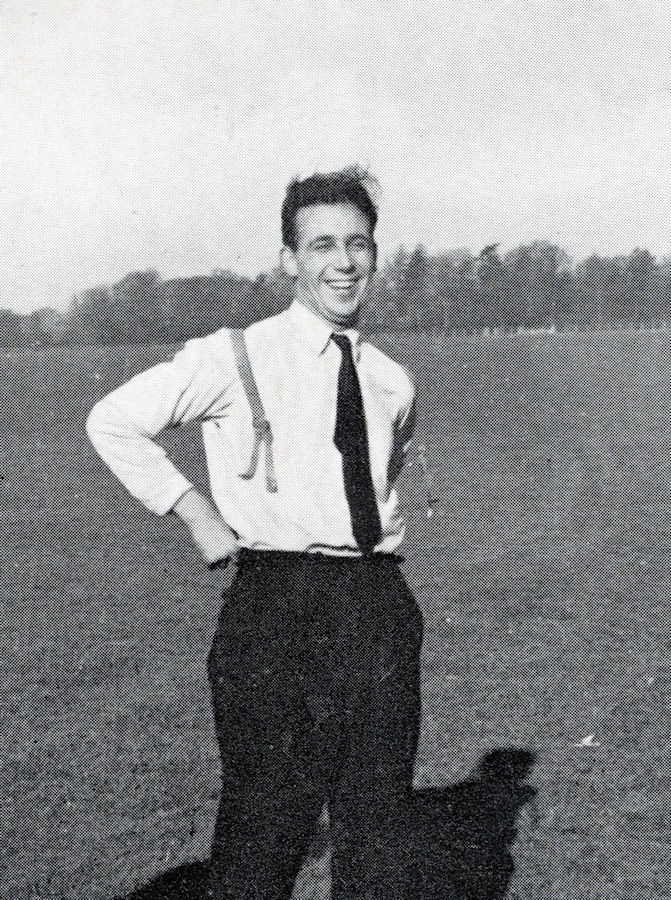 ICCL
ICCLBeing an ‘adrenaline junkie' of his day. John started on motocross bikes and went on to race F5000 cars, winning the Sports GT Series in 1973-74. He held the top lap speed record at Silverstone and Snetterton for 20 years. John never tired of flying his Boeing Stearman Biplane. delivering daredevil aerobatics.
Passions aside, John followed in his family's footsteps, buying Holme Mills from his grandfather in 1949. By then he'd met and married Pamela (nee Logsdon) in 1946. They had three children — Bill. David and Lindsay." https://jordansmill.com/history#williamfifthJonathan Kent kindly tells me "I met him first in the 1980's, as our group Auster aircraft had been moved from its one time base at Panshanger to a farm strip at Little Gransden, near Biggleswade. Jordan kept his well known Super Stearman G-AROY there, also a Pitts Special. He had brought his Stearman back from the USA where he did some years as a cropduster with it. He still had the cropdusting hopper in it, with a rudimentary windscreen, as he was known to take people for flights in the hopper!
He said he had around 18,000 hours flying time and had delivered 300 or more Spitfires in the ATA. He had prior to ATA service been dismissed from the RAF for 'gross indiscipline in the air and on the ground''..
Henry Labouchere, a Tiger Moth and de Havilland expert based in Norfolk, borrowed John's Stearman to fly it in a feature film called 'The Aviator' in (then) Yugoslavia.
John also appeared in a feature film, 'Biggles', flying the Stearman as a German ace complete with spiked helmet.
Several interviews were done with John including an ITV film with Mavis Nicholson presenting, which went into his history at the Jordans Mill, his self-imposed exile to the USA, his motor-racing exploits, etc.
A legend."
Post-WWII, he he took over his grandfather's run down flour mill [Holme Mills in Biggleswade] and built an animal feed mill on the same site which he continued to run until July, 2004.
He was also the owner of four local garages, including Manor Garage (Commercial Vehicles) in Biggleswade.
d. 1 Apr 2006, Biggleswade, Beds:
"One of the area's best known businessmen and public figures died at the weekend.
John Jordan, pioneer of the Jordans grain empire in Biggleswade, passed away in his sleep on Saturday night at his family home in the town. He was 84.
Hours before he died he had spent the afternoon with family and friends visiting the Shuttleworth Collection of aircraft at Old Warden, a place he loved, being an experienced aviator himself."- The Comet
-
Keith-Jopp, Eleanor Betty (W.167)
W.167 3rd Officer Eleanor 'Betty' Keith-Jopp 
b. 1 Apr 1920, Bristol 8 May 1944 to 17 Aug 1945
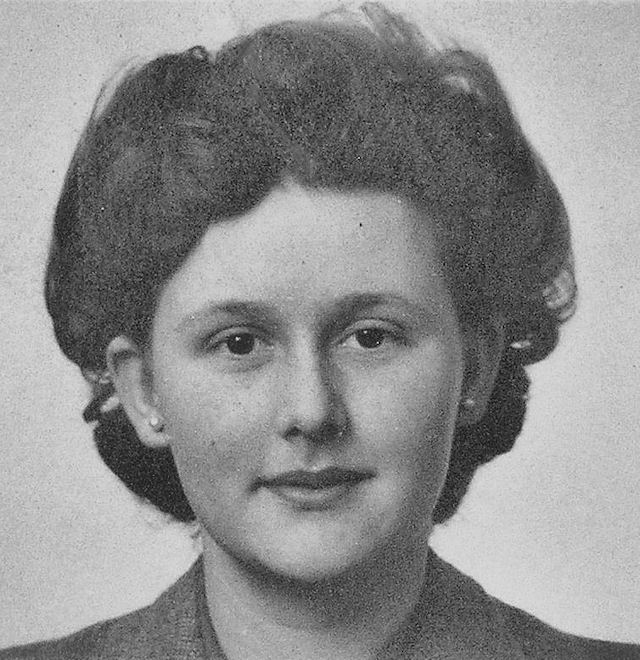 ATA
ATA
The Final 7 Women Pilots - Betty Keith-Jopp (W.167), Sue Alexander (W.163), Joan Arthur (W.166),Ruth Russell (W.165), Annette Mahon (W.164), Aimee de Neve (W.168), Katharine Stanley Smith (W.162)
Father: Maj. Charles Henry Keith-Jopp MA, ICS (Indian Civil Service) (d. 21 Oct 1939); Mother: [Evans]
Neice of William Stewart Keith-Jopp, also of the ATA.
Had a brother, Stewart.
Her father Charles was "a brilliant man and a scholar of Winchester and New College, Oxford, and a Boden Sanskrit Scholar. For many years he was a lecturer at Oxford University"
Ed. Royal School for Daughters of Officers of the Army
prev: secretary for BOAC; WAAF
Address in 1944: 4 Rodney Cottages, Clifton, Bristol 8 (Mother's address)
Ab initio pilot
Postings: 4FPP
2 accidents: 1 her fault:
- 29 May 1945; delivering Barracuda MX792, she "persisted too far in bad weather, found herself in cloud, and in turning, lost height. The aircraft struck the sea [between Anstruther Point and the Isle of May] and was lost, but the pilot was rescued."
["She saw the water a second before hitting it, did a good landing ‘all things considered’, but the aircraft started to sink until it settled on the sea bed. When Betty pulled the canopy release lever a giant bubble of air was released – but she had not released her parachute and harness straps. When she did, ‘it took forever to get to the top.’ It was her lucky day and a little fishing boat chugged past and pulled her out of the water. " - ATA Museum
- 11 Jul 1945, her Argus FK338 was 'blown onto its nose' by one of the Liberators which were running up nearby at the same time. [Airfield Control got the blame].
m. 27 Mar 1948 in Bristol, Maj. Peter Stuart Huggett [ex Royal Artillery] and they lived at 26 Brunswick Sq., Gloucester
Betty and one-year-old daughter Caroline sailed to South Africa in September 1953 and the family settled in Southern Rhodesia (where Peter was an Insurance Manager - and a member of the Rhodesia (Fire Insurance) Advisory Committee !) then South Africa. A second daughter, Eleanor, was born in 1955.
d. 5 Jul 2016 - Port Elizabeth, South Africa
-
Kemp, George Major Samuel
M.23 Captain George Major Samuel Kemp MBE 
b. 6 Oct 1901, East Greenwich 23 Sep 1939 to Nov-45
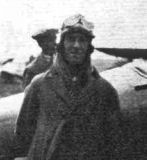
'G S Kemp' in 1929 (Flight)
Address in 1939: 15 White Hall Parade, Cardiff
RAF 1919-28, Sgt Pilot
a Flying Instructor; Club Instructor at Newcastle, 1929
"An able and competent instructor but he should endeavour to use more tact and drive with the other instructors"
Grosvenor Trophy, 1929, 1949
d. Sep 1972, Cardiff
-
Kemp, Leslie Arthur Reginald
M.290 First Officer Leslie Arthur Reginald Kemp 
b. 8 Mar 1908, Bromley Kent 24 Feb 1941 to 30 Sep 1945
[1,679 days]
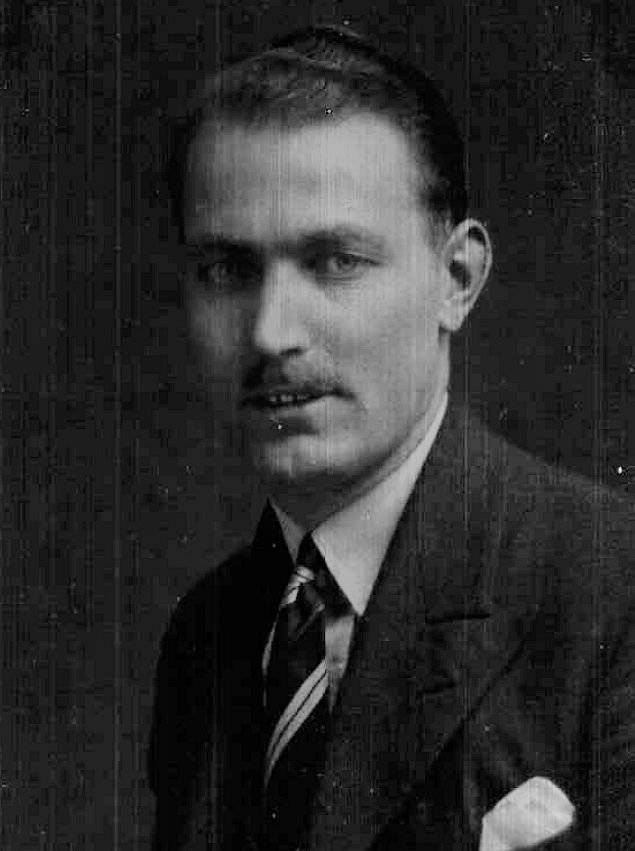 1939
1939Ed. Bromley County School
prev. Managing Director/Sales Manager, A.E. Gould [Coach builders] , 220 Regent St. London NW1
prev. exp. 98 hrs on Avian, Tiger Moth, Puss Moth, Gipsy Moth, Moth Minor, B.A. Swallow
Address in 1941: 243 Baker St, Regents Park, London N1
Postings: 2FPP, 1FPP, 8FPP
"A good and capable pilot, good navigator and very keen on the job. General behaviour also good."
d. Jun 1964 - Surrey(?)
-
Kemp, Richard Alfred Graham
M.388 First Officer Richard Alfred Graham Kemp 
b. 8 Feb 1901, London 16 Apr 1941 to 31 Jan 1945
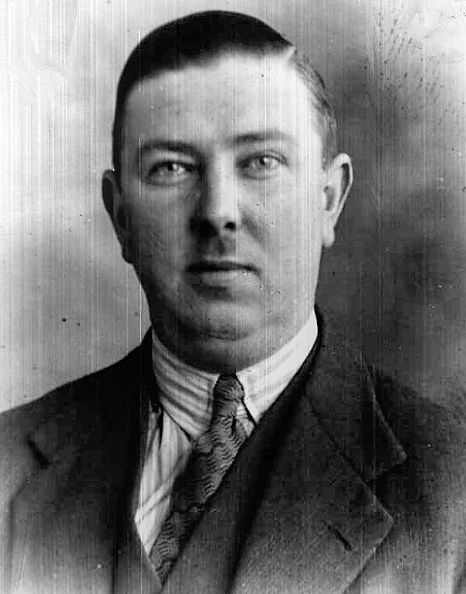 1936
1936Father Ralph was a market gardener and pig breeder
Educated at Kings School, Chester
m. with 2 children in 1941
Next of Kin: Dora Kemp (Mother), 41 Belmont Park, Lewisham London SE13
prev. a Garage Proprietor
Address in 1941: 42A Longfield Ave, Upton, Chester
Postings: 3FPP
"A good officer, gaining experience"
22 Mar 1943: "Pilot reprimanded for indiscipline and unsatisfactory conduct in the presence of the Station Commander at RAF Station Cark"
26 Sep 1943: "Average pilot, discipline good, has shown no tendencies to repeat offence mentioned above."
d. Sep 1954 - Bristol
Download ATA Pilot Personal Record (.zip file):
-
Kempster, Ernest Arthur David
M.65 * First Officer Ernest Arthur David 'Jim' Kempster 
b. 9 Oct 1900, Leighton Buzzard c. 15 May 1940 to 29 Jun 1945
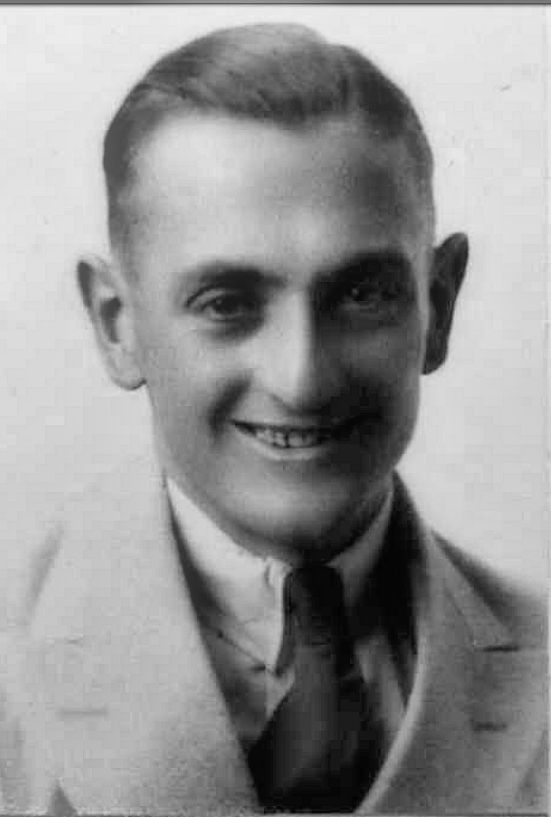 1930
1930prev. a motorcycle speedway rider

Early days at White Waltham, Anson taxi pilots - Ronny Malcolm, Douglas Fairweather (M104), Jim Kempster and Harry Ellis (M139)
Brief Glory

d. 29 Jun 1945 (Died in ATA Service) Anson I DG916 crashed into River Rhine en route Le Bourget to Pilsen due to bad weather.
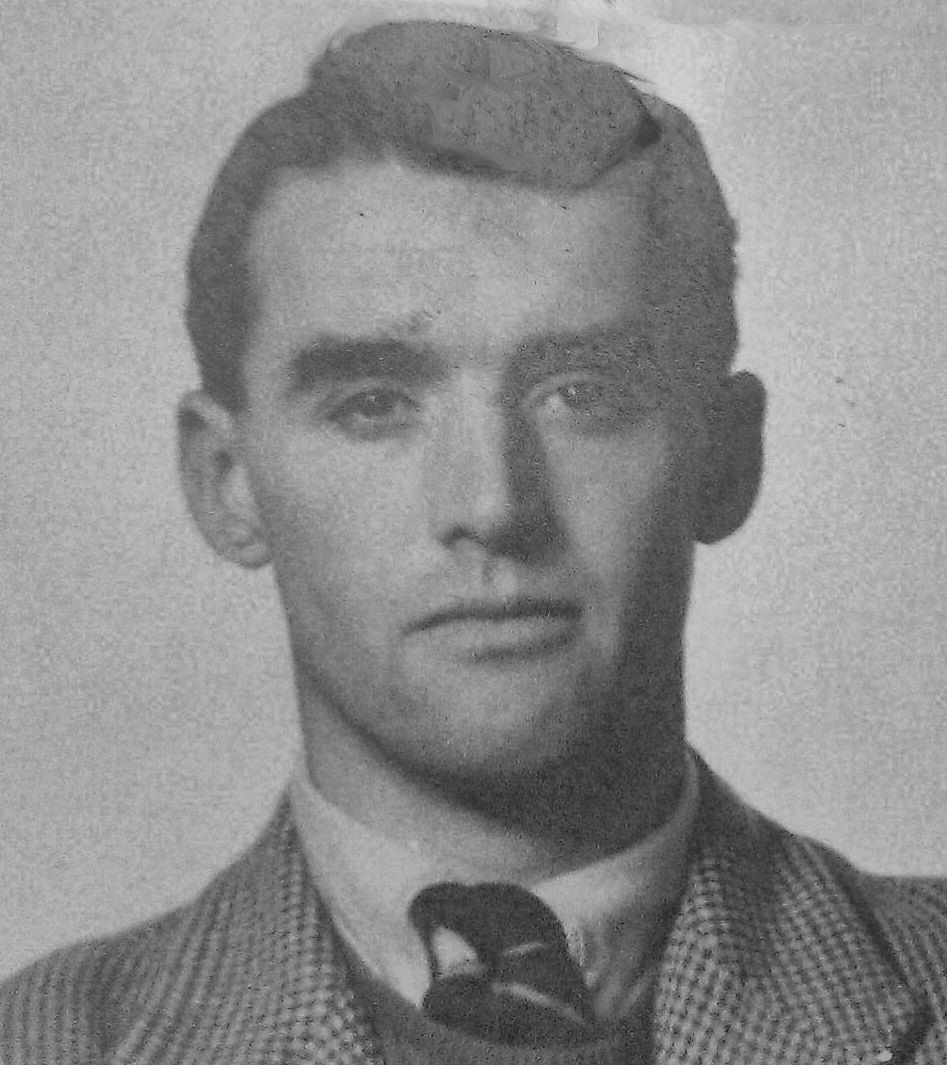
Flt-Engineer Harry Race was also killed, and he is buried in Rheinberg War Cemetery, Nordrhein-Westfalen, Germany.
Jim Kempster's body was never found.
Commended for "valuable service in the air", 14 Jun 1945
-
Kerly, Ruth Helen (W.130)
W.130 * 3rd Officer Ruth 'Helen' Kerly 
b. 6 Jan 1916, Putney 23 Aug 1943 to 30 Sep 1945
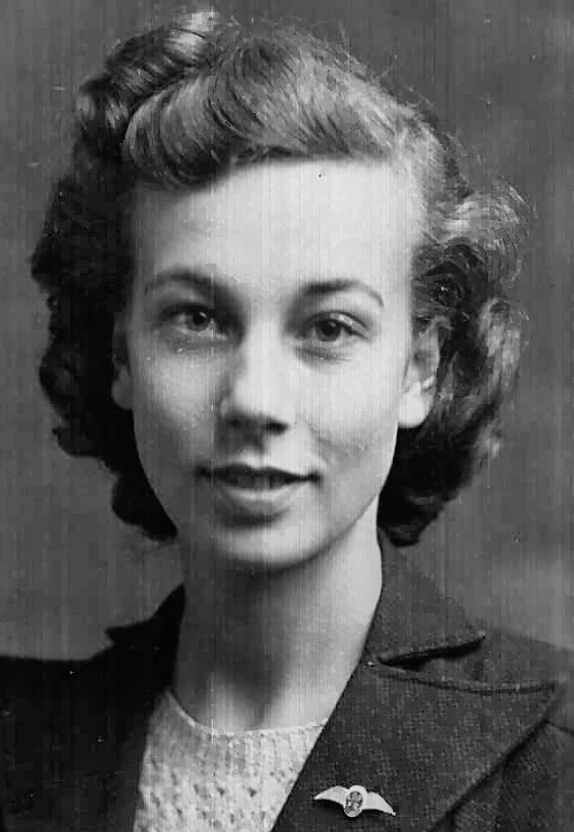 RAeC 1938
RAeC 1938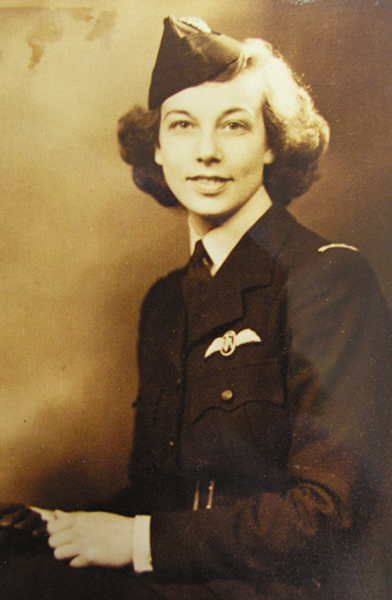 ATA
ATAFather: Frederick Gyles Kerly (d. 1920), Moher: Ada Martha [Edwards]
prev. a Shorthand Typist
Address in 1939: Thorley, Avondale Ave, Hinchley Wood, Esher, Surrey
Postings include: 15FPP
Two accidents:
- 25 Jun 1944, a forced landing after engine failure in a Mustang. For this, she received a Certificate of Commendation:
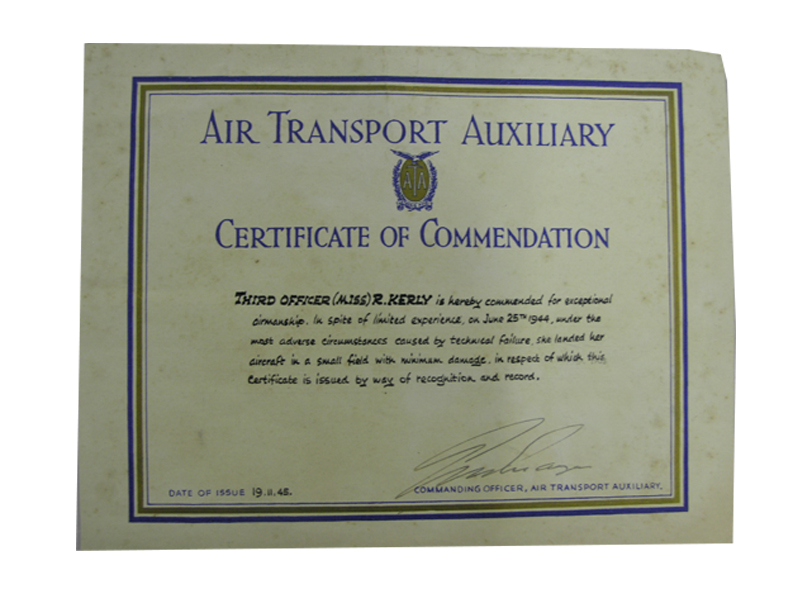
"For exceptional airmanship. In spite of limited experience, on June 25th 1944, under the most adverse circumstances caused by technical failure, she landed her aicraft (Castle Bromwich) in a small field with minimal damage. In respect of which this certificate is issued by way of recognition and record."
- 4 May 1945, another forced landing, this time in Spitfire XIV TZ104, after a serious oil leak. She had to land on an unserviceable part of the airfield, (only slightly damaging the propeller) as another aircraft was landing on the runway.
m. 1947 in Westminster Charles Walter T Clark (d. 1985)
d. 26 May 1992 - Surrey
Wikipedia: https://en.wikipedia.org/wiki/Helen_Kerly
Helen's daughter gave her mother's helmet and goggles to ATA pilot Alec Matthews in 1994, and they are now in Birmingham Science Museum's Spitfire Gallery.
-
King, Mary Emily (W.---)
W.--- Cadet Mary Emily King 
b. 4 Mar 1917, Hampstead, London 21 Feb to 1 Jul 1944
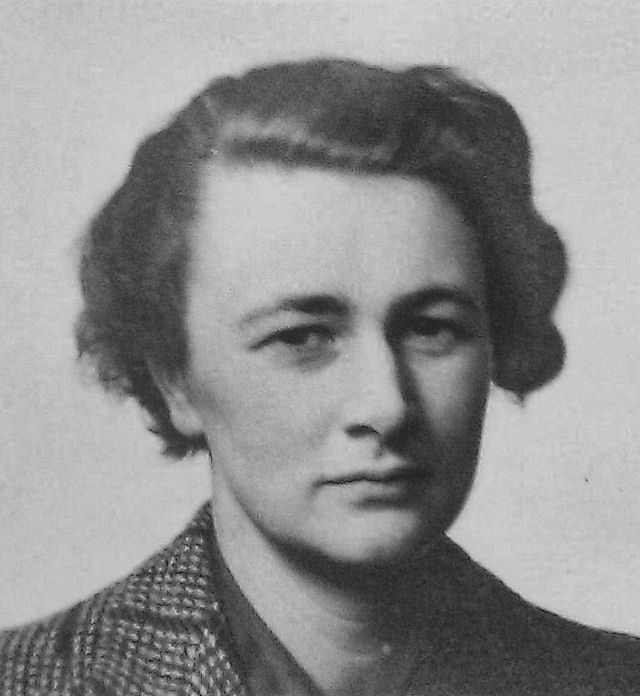 ATA
ATAFather: Hon. Humphrey Hastings King KC, (b. 1880 in St Petersburg, RN in WWI, Chancellor of the Dioceses of Chester and Sheffield from 1930, of Orchard House, Holywell Hill, St Albans.
Mother: Marjorie Mary [Webb]
Ed. Queen Anne's School, Cavershal, Reading and Bedford College for Women
prev: British Institue of Adult Education;1940-41, Foreign Office; 1942-Feb 1944, WAAF
Address in 1944: 10 Warwick Sq, London SW1
[ab initio pilot]
Off sick from 11 Apr 1944
[Contract Terminated by ATA]
poss. m. 1954 William C Poile and d. 1960
-
Kirkby, Albert
M.58 Flight Captain Albert Kirkby 
b. 17 Nov 1902, Rochford, Essex 1 May 1940 to 17 Nov 1943
[1,295 days]
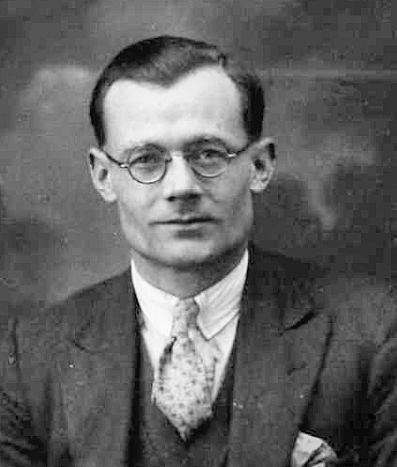 1929
1929RAF Jan 1919 to Jan 1927
prev. Ground Engineer and Instructor at Norwich Aero Club, Chief Flying Instructor, Sports Association Flying Club.
In 1933, he and Miss Winifred Florence Hudd (Norwich Aero Club's first lady pilot) spent part of their holidays on a flight abroad in one of the Club's machines, DH60 Gipsy Moth G-ABAE.
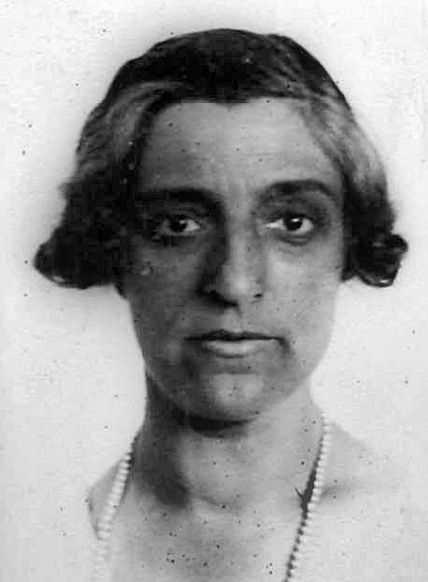 Winifred in 1935
Winifred in 1935"They intend to visit Berlin."
m. 1934 Frances Anne Stewart [Henfry, d. 1981], one son Robert b. 1935
He advertised in 'Flight' in 1938 as follows: "Situation Wanted. EX-NORFOLK and Norwich Aero Club Instructor (Mr. A. Kirkby) seeks a position where his 19 1/2 years' experience of aviation can be made full use of; chief ground engineer to Norwich Club for 10 years, also 1,510 hours as pilot in charge of aircraft, including 910 hours instructional flying, accidents nil, experienced air photographer, with own equipment; age 35, married.— Address, Airport, Norwich."
prev. exp. 1,933 hrs on "DH60, DH87, Puss, Leopard, Avians, Comper Swift, Miles Hawk, BA Swallow, Klemms, BA Drone, Dart Kitten, gliders various" in UK, Belgium, Germany and Iraq.
Address in 1940: Leigh Vicarage, Sherborne, Dorset (Telephone: "Yetminster 85")
Postings: 6FPP, 7FPP
"A thoroughly sound and reliable pilot" who was recommended for the Class 3&4 conversion course but "expressed reluctance to undergo this training. At his own request, he was allowed to return to duty in Classes 1 & 2."
Off sick from 4 May 41 to 2 Aug with pleurisy, from 17 Dec 1941 to 13 Mar 1942 with a dislocated clavicle, and from 30 Dec 1942 to 8 Nov 1943 with 'bronchial catarrh'.
"His health is his greatest handicap."
[Contract Terminated 17 Nov 1943]
d. 1950, Ware, Herts
-
Knight-Bruce, Enid Frances Lilian (W.---)
W.--- 2nd Officer Enid Frances Lilian Knight-Bruce  +
+ 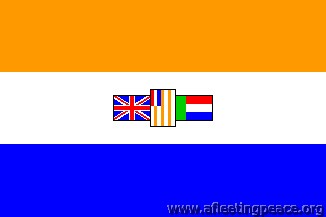
b. 19 Feb 1889, Bloemfontein, South Africa 1 Apr to 27 Nov 1941
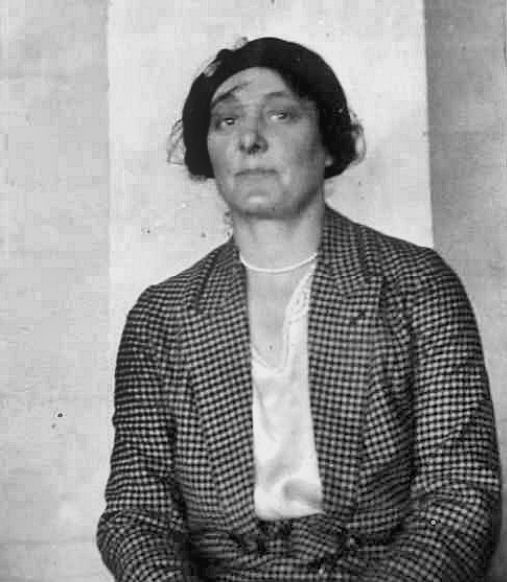 RAeC 1935
RAeC 1935Father: Bishop George Wyndham Hamilton Knight-Bruce DD; mother Louisa [Torr], from Carlett Park in Cheshire.
Her father was Bishop of Bloemfontein between 1886 and 1891, Bishop of Mashonaland between 1891 and 1895, and Vicar at Bovey Tracey, Devon, between 1895 and 1896. He died on 18 Dec 1896
Wikipedia: https://en.wikipedia.org/wiki/George_Knight-Bruce
Next-of-kin: Col. J C L Knight-Bruce, of The Sea House, nr Brighton
Enid had an elder sister, (Caroline) Ethelfloed Knight-Bruce, and two brothers
She was awarded £7 by the Royal College of Music in 1911, and £8 in 1912, for violin.
2 Apr 1915: "A DANGEROUS DOG. At Newton Abbot, on Tuesday, Miss Enid Knight-Bruce, Highweek, was summoned for being the owner of a dangerous bulldog, which was not kept under proper control.
Supt. Crooke said he would not ask for the animal to be destroyed, but simply for an order to be made to keep it under control.
Several witnesses spoke to having been attacked by the dog. Defendant said she did not consider the dog very dangerous. It had very high spirits, and turned to people half in fun.
Miss Knight-Bruce was ordered to pay the costs, £1 16s. 6d. " - Teignmouth Post and Gazette
"Enid Knight-Bruce, of Western House, Newton Abbot, was fined £2 on Tuesday, for failing to comply with an order on March 26th to keep a dangerous bulldog under control. " - Teignmouth Post and Gazette - Friday 10 Sep 1915
She was engaged to "Mr. Piers Gilchrist Thompson, second son of Canon and Mrs. Thompson of Hayes Rectory, Kent, and Liberal ex-MP for Torquay" in 1925:
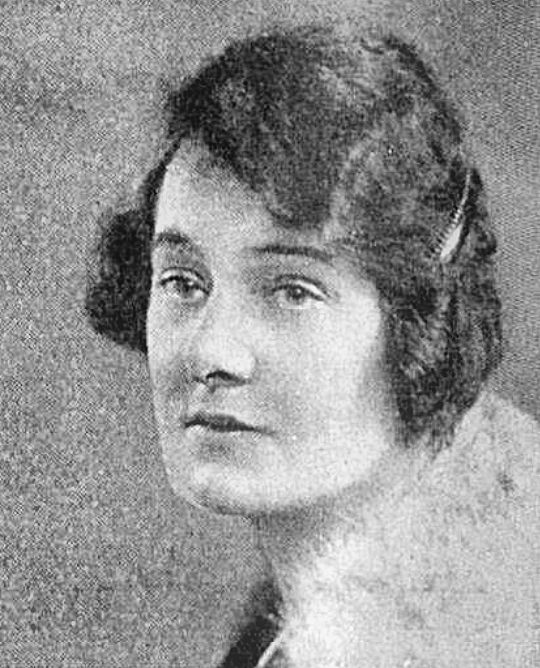 Looking forward to it!
Looking forward to it!... but eventually she m. 23 Apr 1938 in Babbacombe Church, nr Torquay, Devon, Capt. Ralph T Edge:
"The bride is an experienced pilot, and holds the position of hon. flying instructor to the Women's Reserve. She flew from Brackley to Oxford, and motored from there to Torquay.
A keen student of industrial problems, she has also engaged in a good deal of philanthropic work. In pre-war days she opened a rest-home for men engaged in the dock strike in London, and another of her activites was assisting in the distressed areas of Wales and the Midlands under the auspices of the Industrial Christian Fellowship. She later went to America and gave a series of lectures on 'Industry', 'Mediaeval Economics', and 'England'" - Western Times - Friday 29 April 1938
She does not seem to have used her married surname after 1940.
prev: HQ, Postal and Telegraph Censorship (Air Force Section)
prev exp: 400hrs
Address in 1941: 384 Kensington Close, London W8
"A careful pilot and is shaping well" on 29 May, but went on indefinite sick leave (collitis) from 6 Aug and did not return to duty
exp in ATA:
Moth: 38hrs 40min;
Magister: 2hrs 35min.
Resigned
Moved to 2a Kensington Court Gardens, London W8, and lived with her sister Ethelfloed (who d. 1956)
d. 25 Apr 1969 - Kensington, London
[I'm not entirely sure when or where Enid was born; her ATA record has "19 Feb 1900, Eastham, Cheshire" but her Royal Aero Club Cert. has "19 Feb, 1903, Bloemfontine (sic) South Africa". My guess is 1889 in Bloemfontein, as her 1969 death certificate says she was 80 at the time, and anyway her father died in 1896.]
-
Lambton, Ethel Ruth (W.20)
W.20 First Officer
4-engine (Class 5) pilot
Ethel 'Ruth' Lambton
nee Nicholson; Mrs Ballard

b. 5 Jun 1913, Shepperton 25 Jun-40 to Jan-45
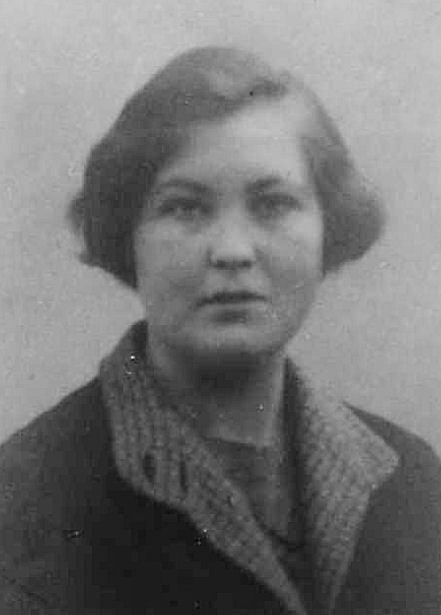 RAeC 1930
RAeC 1930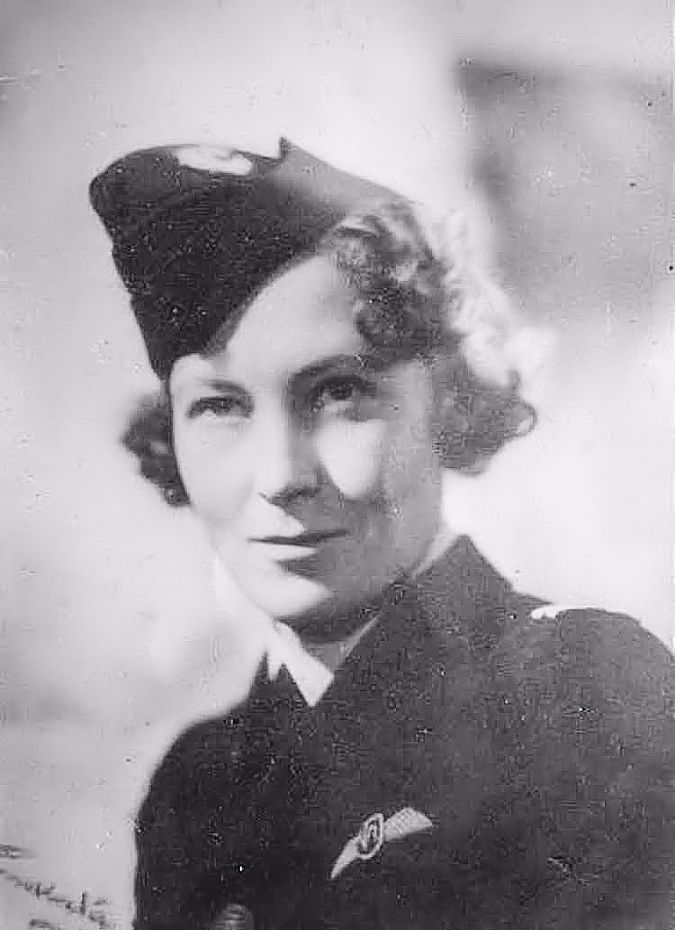 ATA (with thanks to Dana MacDuff)
ATA (with thanks to Dana MacDuff)Her parents were Capt William Henry Nicholson and Sybil Wigham.
Educated at Roedean, got her 'matric', and went into welding research as an engineer, working for Arc Manufacturing Co. in Shepherd's Bush.
She married John Lambton in March 1934, and they had one son, Peter. **
In 1937, she and the Hon. Ruth Cokayne took a 'light-hearted summer tour' to Budapest (via Brussels, Cologne, Munich, and Salzburg) in a Gipsy Moth; a trip which they reckoned cost them about £55 each in total.
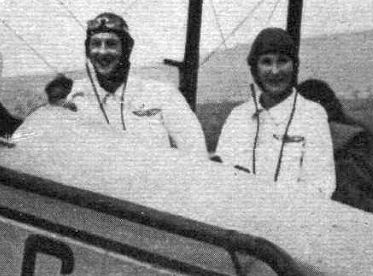 Ruth C (l) and Ruth L (r) ('Flight')
Ruth C (l) and Ruth L (r) ('Flight')They muddled along in a breathless, schoolgirlish sort of way. In Frankfurt, all their possessions were confiscated but then 'we found ourselves in the officers' mess, where the entire squadron shook our hands with the utmost solemnity, clicked heels, Heiled Hitler and gave us lunch! Another round of handshakes, our belongings were duly returned to us, and we Heiled Hitler gratefully ourselves as we took off'.
She was an early recruit to the Air Transport Auxiliary (ATA) in 1940, starting on the 25th June as W.20 - the 20th woman employed by the ATA. (Ruth Cokayne also joined the ATA, as W.40, in April 1941).
They admitted that she 'flew very well indeed and was exceedingly keen', but pretty soon, she had her first accident. In November 1940, she landed a Fairey Battle and ran into an unmarked drainage ditch. The problem was, she wasn't cleared to fly the Battle at all, it being 'out of her class', and she was suspended for 5 days with loss of flying pay.
Her husband John was killed on active service in Gibraltar in 1941, and she then met and married an American, First Officer Edwin Dana Ballard, also of the ATA, in 1942.
Things were going better (for a while); in June 1942 she was considered a 'good steady pilot, handling the larger types of aircraft excellently'. However, she was actually demoted to Second Officer (for three months) in August 1942, for landing a Mustang in dangerously bad weather conditions.
She was suspended (again) for a week in February 1943, for taking off in a Spitfire with the hood open. Her instructor said she was 'a very high spirited officer who finds discipline somewhat irksome, and as a result is subject to occasional outbreaks. However, if handled with a little extra understanding & consideration these outbreaks are at no time serious or to the detriment of her work. As a pilot her keenness and desire to get work done are exceptional'.
The following month, March 1943, she taxied a Tiger Moth into an oil bowser, and was held responsible: 'taxying without due care'.
Nevertheless, in mid-1943 she was put on the conversion course to fly 4-engine (Class 5) aircraft; unfortunately, her training ws suspended after 3 days as 'it was considered that the Stirling was proving too much for her to tackle under emergency or adverse conditions.'
In 1944, another instructor (presumably less understanding & considerate than the previous one) agreed that she was 'an excellent pilot who works hard and efficiently' but 'her sense of discipline is poor and she is uncooperative and frequently obstructive'.
She tried again in May 1944 for Class 5 and this time was successful, eventually flying Halifaxes for a total of 9hrs, Lancasters 31hrs and Stirlings 5hrs. She was one of only 11 ATA women cleared to fly 4-engine aircraft.
She made it right through until 1945, but then pushed her luck too far. In January, she and Edwin were hauled before a disciplinary court for 'drinking during an unauthorised period in spite of a warning by a senior officer' and 'insubordination'.
The Court was inclined Not to Overlook the Offences. "After considering the evidence, and after hearing verbal evidence given by Commander Whitehurst and Captain Rome the Court reached the conclusion that the charges were fully substantiated, and after reviewing the record of both these officers, who as pilots have undoubtedly done a good job, the Court nevertheless came to the conclusion that their disciplinary record throughout, as disclosed by the History Cards, has left a great deal to be desired, despite repeated warnings, and that this incident is so bad as to warrant their instant dismissal".
She and Edwin were duly dismissed, on the 23rd January 1945. They moved to the USA (to Edwin's home town of Hadley, MA), had 2 more children and then moved to Nassau, Bahamas.

l to r Ann Wood-Kelly, Lettice Curtis, Ruth and Winnie Fair, Nassau 1957 (ELC)
She died 25 July 2003; both hers and Edwin's log books are now in the Maidenhead ATA Heritage Centre.
And her 1930 MG M-Type, which she acquired at the age of 16, still exists!
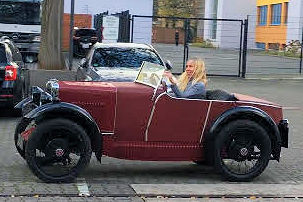
** Her son Peter joined up with ex-ATA pilot Austin Young in 1959, in a CIA plot to overthrow Castro. They went to Cuba, but were captured almost immediately, and Peter was sentenced to 25 years jail.
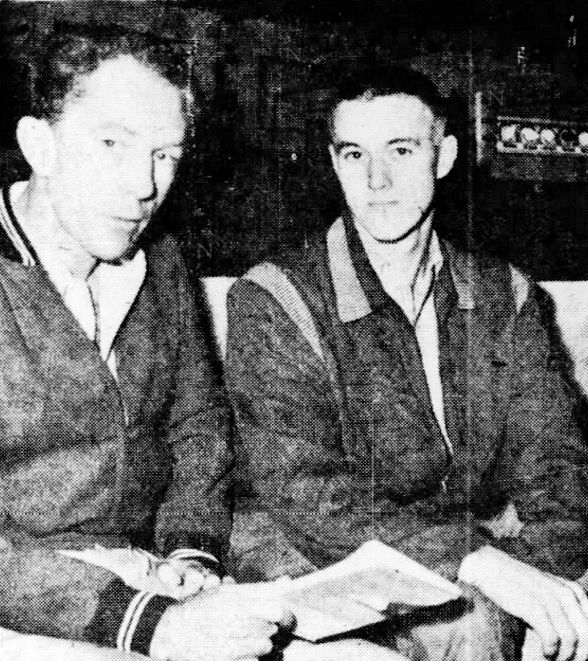 Austin Young and Peter Lambton, awaiting trial
Austin Young and Peter Lambton, awaiting trialWhen released in 1963, he declared flatly that the charges against him were true; "I tried and failed to help destroy Castro and I have no regrets."
-
Lane, Edwin Percy
M.25 Flight Captain Edwin Percy Lane 
b. 17 Oct 1904, Olton, Birmingham 20 Sep 1939 to Apr-43 (as pilot)
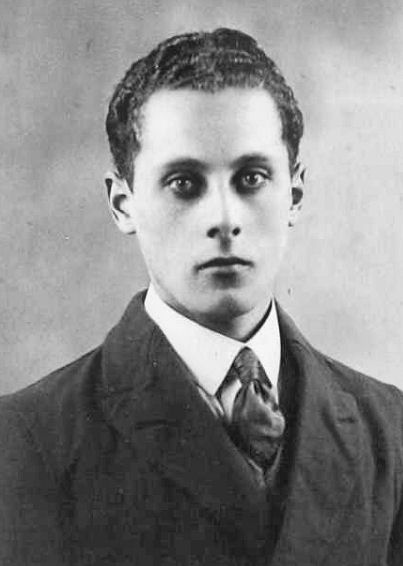
1928
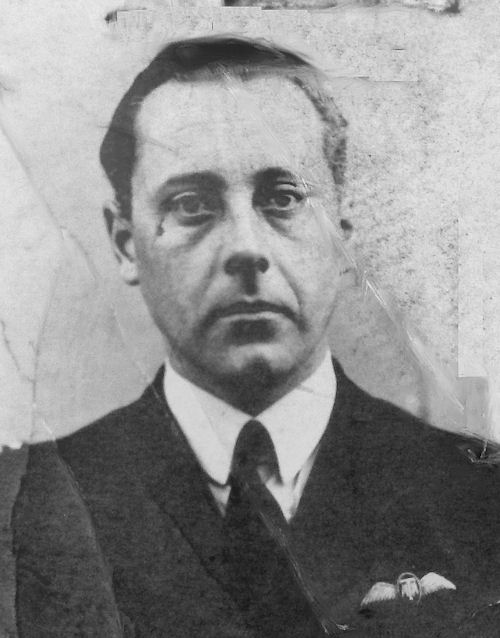
ATA
prev. an electrical engineer
ATA Pilot Contract terminated 21 May 1943 - after an accident in Feb 1942, ("a great loss to us") he became Officer in Charge, Squires Gate and finally Adjutant, No 1FPP
d. Sep 1972, Solihull
-
Lane, Francis Henry Warren
M.--- * 2nd Officer Francis Henry Warren Lane 
b. 22 Jun 1899, Twyford, Berks 18 Sep 1940 to 7 Mar 1941
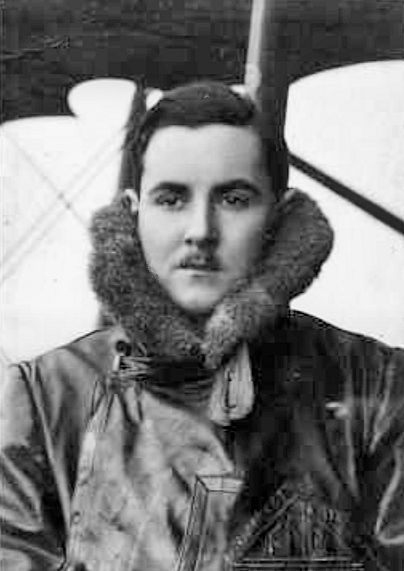 1918
1918Father: Albert Francis Lane, a Colliery Agent, Mother: Mary [Warren]
2nd Lieut, RFC in WW1
RAeC Certificate 5709 dated 17 Feb 1918, taken at Ruffy-Baumann School, Acton, on a Caudron Biplane
Address in 1918: 8 Laburnam Rd, Maidenhead, Berks
m. 1924 in Maidenhead, Olga [Greiner]
Address in 1930: The Chase, Belmont Park Avenue, Windsor
Postings:
d. 1972 - West Glamorgan
* ATA File not seen
-
Lang, Dora (W.52)
W.52 First Officer Dora Lang 
b. 30 Mar 1914, London 8 Sep 1941 to 2 Mar 1944
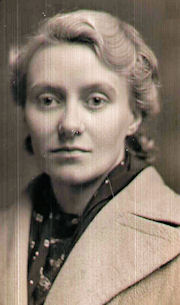 RAeC 1939
RAeC 1939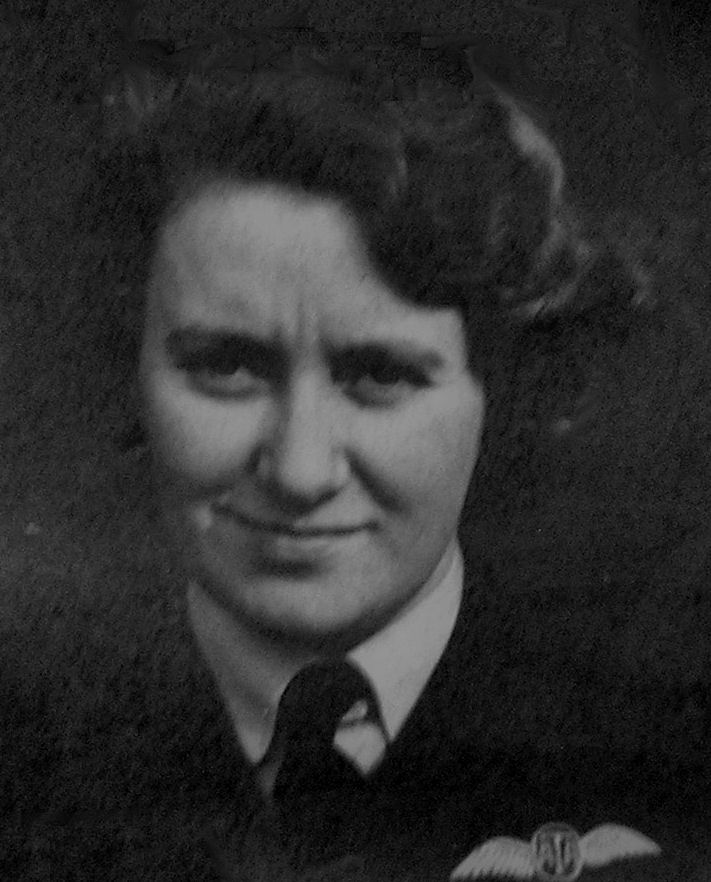 ATA
ATA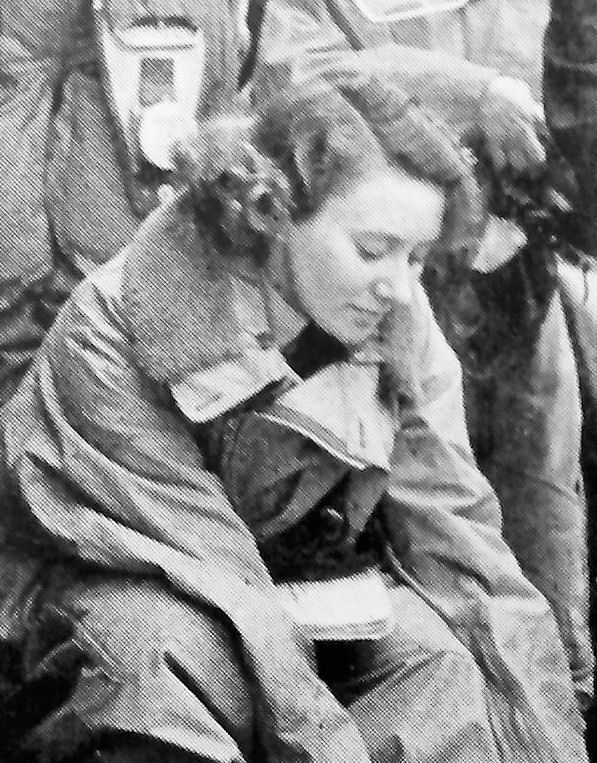
nee Tily
Father: Thomas William Tily, a Garden Contractor, d. 1969; Mother Amelia [Fielding] (m. 1902) of 103 Stanlake Rd, Shepherds Bush
One brother (Thomas William II, b. 1902) and a sister Amelia May (b. 1904, d. 1967 in Cape Town, SA)

m. Oct 1935 Henry Albert Lang, a motor engineer
She joined the government-subsidized Civil Air Guard flying scheme, and got her RAeC Certificate in March 1939. She gave her occupation then as 'fancy goods manufacturer'.
Intriguingly, she referred to herself then as 'Miss Dora Tily'.
Prior to WWII, she had 12 hours solo on Gypsy Moth, B.A. Swallow and Miles Magister (later supplemented by, as she wrote, '26 hours duel with the RAF') - she was a Corporal in the WAAF, stationed at Hornchurch in Essex as a 'plotter'.
She wrote originally to the ATA in March 1941, following an appeal put out on the wireless by Lord Londonderry:
"Dear Sir,
I possess a pilot's 'A' licence and would very much like to qualify as a ferry pilot. I have 25 hours in my log book and have since done some passenger flying in RAF machines (Magisters). I am studying for a navigator's licence. I would be pleased of the opportunity to fly at my own expense to complete the required number of solo hours necessary to qualify for the advanced training provided under your scheme. I will be very eager to hear if any arrangements can be made.
ACW Dora Lang."
She got the standard reply at the time which was a) you need more hours, and b) we have no training facilities so, No.
She didn't give up, though; she wrote back straight away to say "I am informed by the Air Ministry that I may be able to do the training in Southern Ireland. Can you tell me how many hours I need?"
Well, they said, 50, although people may come here for a flight test with 30.
While she was mulling this over, (things changed quite rapidly for the ATA as 1941 wore on), on the 29 July they said, actually, "there are a few vacancies, come to Hatfield for a flight test."
She took her test on the 9th August, it was satisfactory, and she reported for duty on the 6th September as a Second Officer.
Postings: 6FPP, 4bFPP, 15FPP
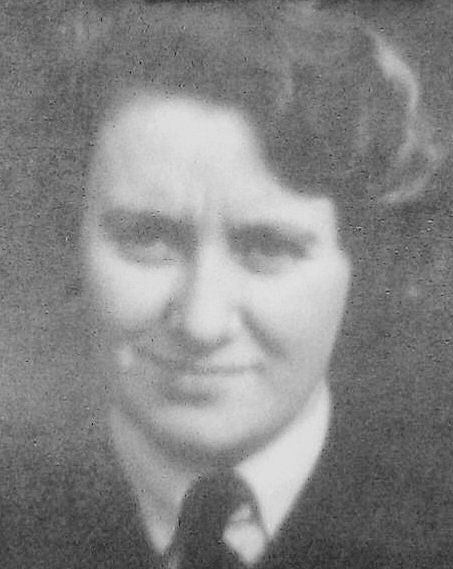
She flew 17 hrs on Moths, 2 on Harts, 8 on Magisters, and a Swordfish, and was posted to training pool in March 1942. Her instructors' reports were consistently positive: "This pupil came to ATA at practically 'ab initio' stage, but very satisfactory progress made in school has been furthered during stay with T.P. and she should make an excellent ferry pilot. Keen and quietly confident.... very active and attentive".
In May 1942 she went on the conversion course for Hurricanes, and was then posted to Prestwick in July. She was recommended for Class 4 conversion at an early date: "an intelligent and conscientious pilot whose flying is neat and tidy. "
She was promoted to First Officer in March 1943.
She had an 'incident' in June 1943, for which she was held responsible; when taking off in Spitfire BL991, she attempted to retract the undercarriage too soon after take-off and the throttle slipped back, allowing the aircraft to sink until the propeller tips hit the ground.
Otherwise things progressed well, until the 2nd of March, 1944, when she had two accidents in rapid succession.
She had just been off sick for 2 days, but said she felt better. With her Flight Engineer Janice Harrington (q.v.), she ferried a Hudson VI FK458 to RAF Cosford, but then ground looped on the icy runway, causing slight damage to the port wing, which she did not report. She and Janice had examined the undercarriage but couldn't see any damage; she then had lunch at RAF Cosford, and "both she and her flight engineer appeared very calm and cheerful, and neither showed any sign whatever of tiredness or strain."
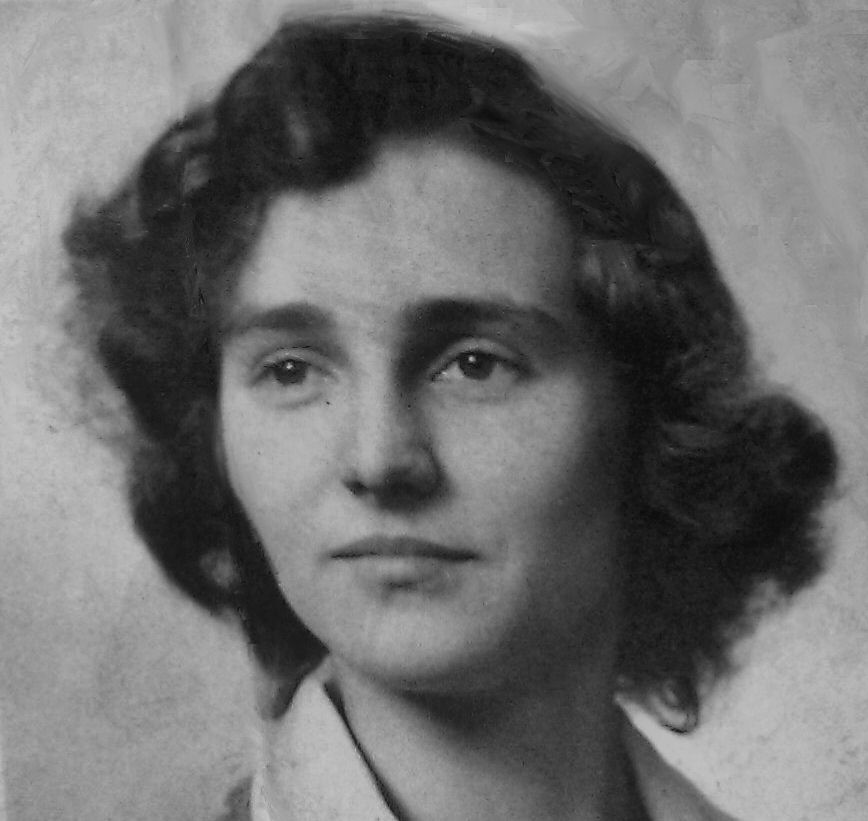
Janice Harrington
Marion Wilberforce wrote that "F/O Lang was a most straightforward officer, and I feel convinced that she would have reported the possibility of damage to the wing had she suspected that such might have occurred. If such damage had been revealed her Pool C.O. would have been contacted before she was allowed to leave the Pool."
They were allowed to leave, however, and she and Janice were then killed in Mosquito VI HP932, which crashed on approach to Lasham.

The official report says "Whilst approaching to land the aircraft appeared to undershoot slightly, the throttles were opened gently and then fully, whereupon the aircraft climbed sharply 100 feet, stalled, crashed and was destroyed.
Insufficient evidence to determine the cause, but it is clear that upon the application of full power the pilot failed to get the stick forward quickly enough to prevent the nose of the aircraft rising.
Insufficient evidence to determine responsibility."
Buried Maidenhead Cemetery - Sec. D. Row W. Grave 18
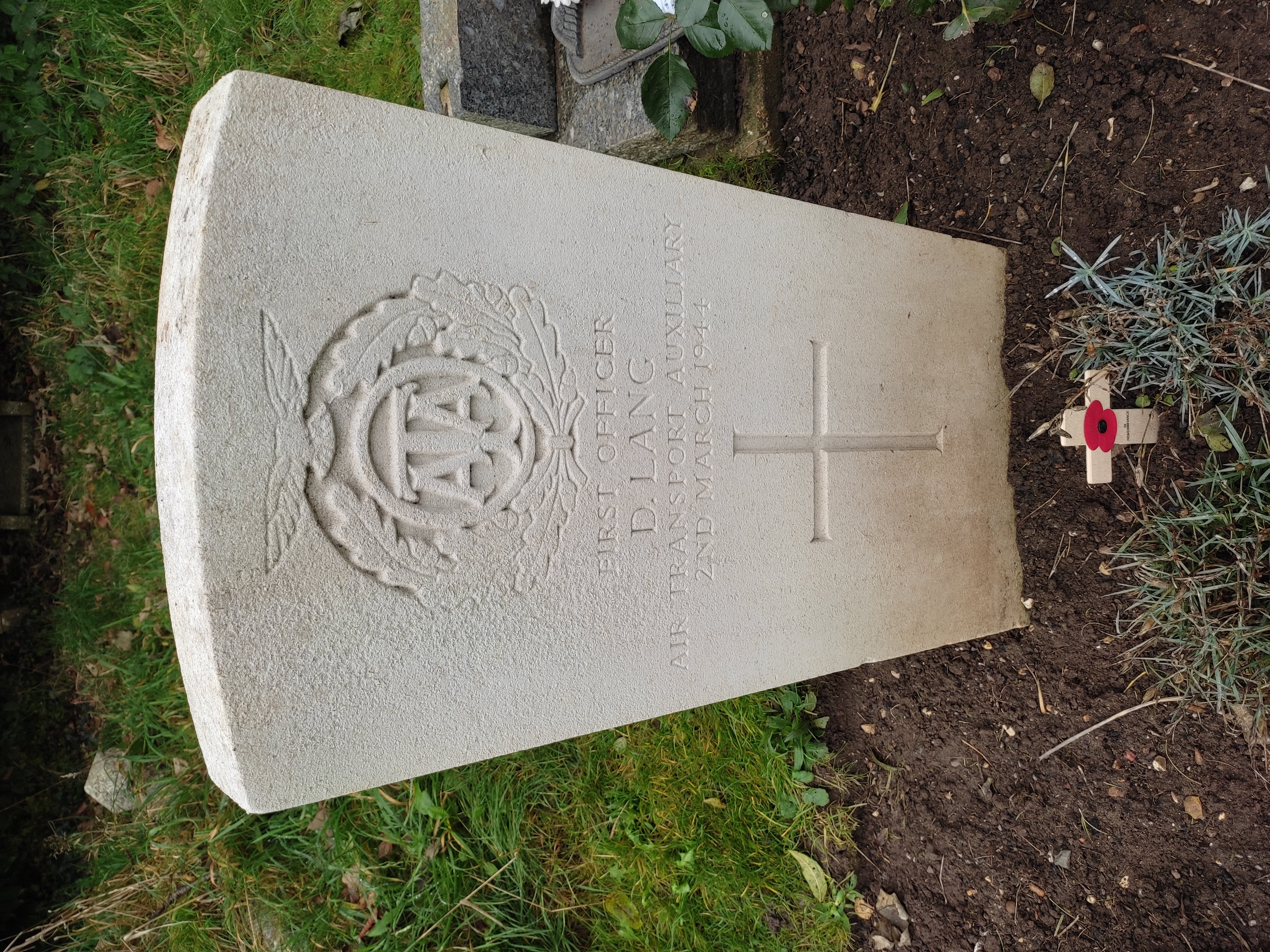
Janice was buried alongside her - Sec. D. Row W. Grave 19.
On the 10th, her husband wrote: "during her service with the ATA my wife always received the greatest kindness, and she was very proud to be serving in your organisation."
On the 3rd May, her mother added this: "I know my daughter was very happy in her work & with her many kind friends in the ATA & wish to thank them for all their sympathy in our great loss."
It looks like Henry remarried almost immediately - in October 1944 - to Margaret C Cowper, and died in 1950.
The location of her log books (which may have been given to Henry, or Dora's parents, at the cessation of hostilities) is unknown.

-
Lankshear, Barbara Lilian (W.160 *)
W.160 * 3rd Officer Barbara Lilian Lankshear 
b. 13 Oct 1917, Rusholme, Lancs 21 Feb 1944 to 30 Sep 1945
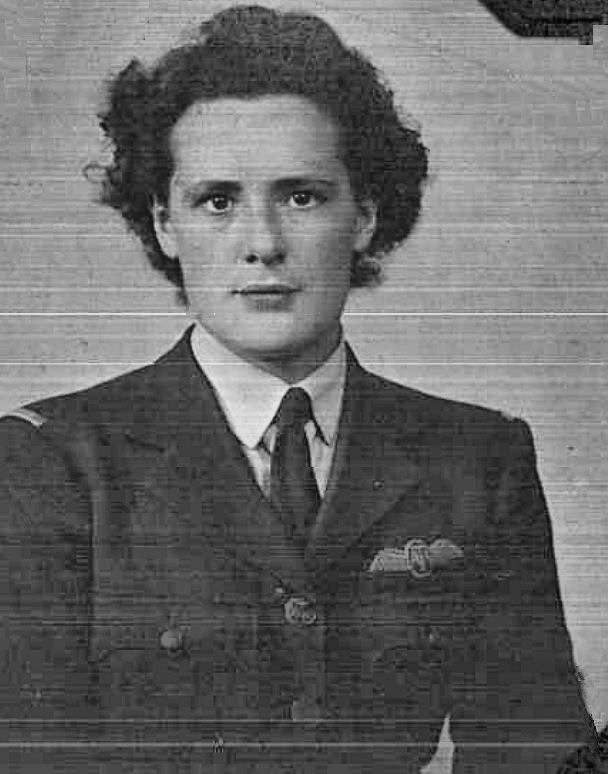 RAeC 1945
RAeC 1945Father: Frederick Russell Lankshear, a Chemical Manufacturer; Mother: Lilian [Rhind]
Address in 1939: Claremont Rd, Bristol
prev. Secondary School Teacher
Ab initio pilot
Gained her Royal Aero Club Pilot's Certificate (No 20583) as part of the ATA's 'Wings' scheme on 26 Sep 1945
"3420 SUPPLEMENT TO THE LONDON GAZETTE, 22 JULY, 1947
WOMEN'S AUXILIARY AIR FORCE - METEOROLOGICAL BRANCH
Commission resigned - Section Officer B L LANKSHEAR (4208) retaining her rank 7th July 1947"Her son Michael wrote: "She worked on computers after the war and spent a life working on Main Frame sytems before computers became universal."
-
Last, Geoffrey Cecil Harrison
M.129 First Officer Geoffrey Cecil Harrison Last 
b. 22 Oct 1906, Littlehampton 15 Jul 1940 to 15 Apr 1943
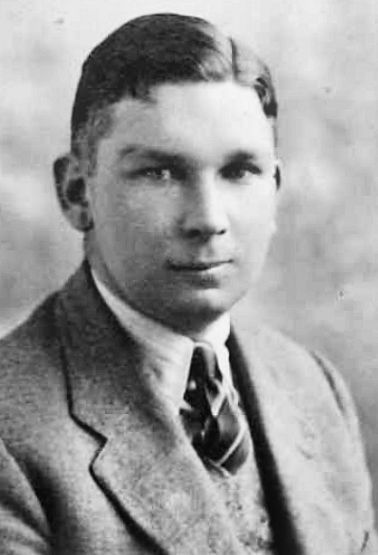 1932
1932Next of kin: (father) Dr. Cecil Edward Last, c/o Queen Mary Hospital, Carshalton, Surrey (he was a surgeon there)
Ed. Lancing College
m. 1933 Margaret Lillian Burton [Leach] [divorced c.1940]
prev.
- 1926-28 Tea Planting in Ceylon (and a rifleman with the Ceylon Planters Rifle Corps);
- Director, British Air Transport (Croydon and Redhill), and
- BOAC Stores Dept.
Address in 1940: 32 The Waldrons, Croydon, Surrey
Postings: 1FPP, 4FPP, 14FPP, 16FPP, 5FPP
A less-than-stellar ATA career, on the whole; he was:
- Suspended without pay three times;
-- for 2 days in Feb 41 for flying a type of plane for which he was not classified;
-- for 3 days in Apr 41 for flying in unsuitable weather, causing him to make a forced landing, and
-- for 4 days in Apr 43 for unauthorized aerobatics near Luton Airfield;
- Reprimanded in Feb 42, for "not starting a delivery flight until after 11:45", and
- Posted to 16FPP in Jun 42, at the request of the Officer Commanding 14FPP "on account of unsatisfactory discipline."
Off sick from 27 Sep 1942 to 8 Jan 1943 after a motor accident.
"This officer, after a somewhat tempestuous start, settled down enormously and has become a most efficient and hard-working pilot."
"Discipline poor."
Contract Terminated 15 Apr 1943 - Resigned.
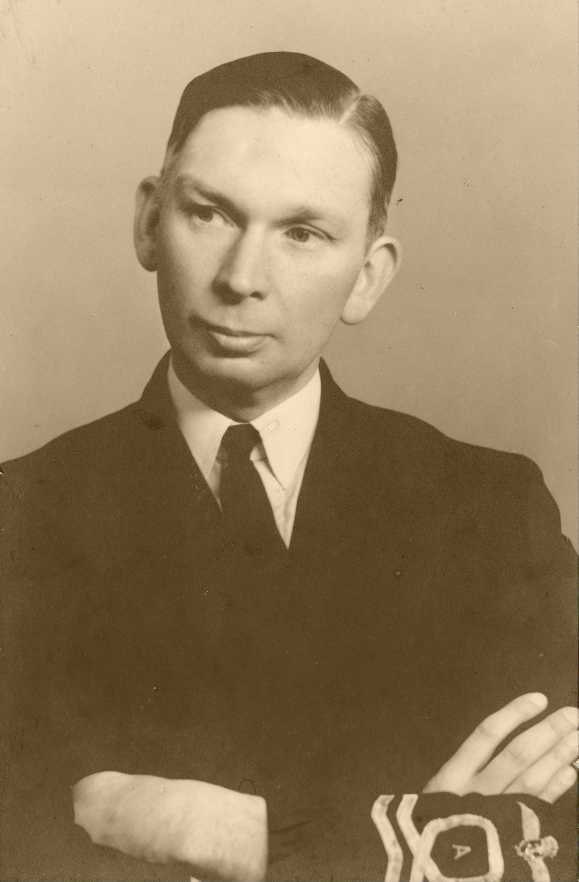 As a Lieutenant in the Royal Naval Reserve, 1943
As a Lieutenant in the Royal Naval Reserve, 1943m. 1973 Brenda N [Baxter]
d. May 1991 - Worthing, W Sussex
-
Lax, Richard Kenneth
M.544 First Officer Richard Kenneth Lax 
b. 3 May 1904, Leeds 7 Oct 1940 to 31 Jan 1945
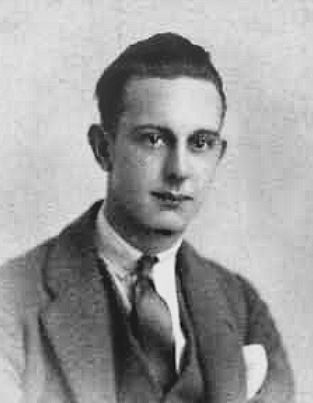 1927
1927Ed, Leeds Modern School for Boys; Leeds and Reading Universities.
Address in 1940: 6 Allerton Lodge, Harrogate Rd, Leeds 7
m. 1929 in Leeds, Olive Mary [Crawford]
prev. a Company Director; Farmer
Postings: 2FPP
Two accidents, both his fault:
- 9 Sep 1941, when he made a bad landing in a Hurricane and applied the brakes 'coarsely';
- 10 Sep 1941, he landed (another) Hurricane with the wheels up.
Off sick from 14 Sep to 29 Oct 1941 with 'neuropathic fatigue', from 8 Jul to 18 Aug 1942, then 16 Sep to 10 Nov 1942 after a flying accident,
"An extremely willing pilot, whose flying has been limited due to his accident"
d. 8 May 1959 - Leamington Spa
-
Leaf, Freydis Mary (W.108)
W.108 First Officer Freydis Mary Leaf 
b. 22 Sep 1920, Cambridge 17 Feb-43 to Oct-45
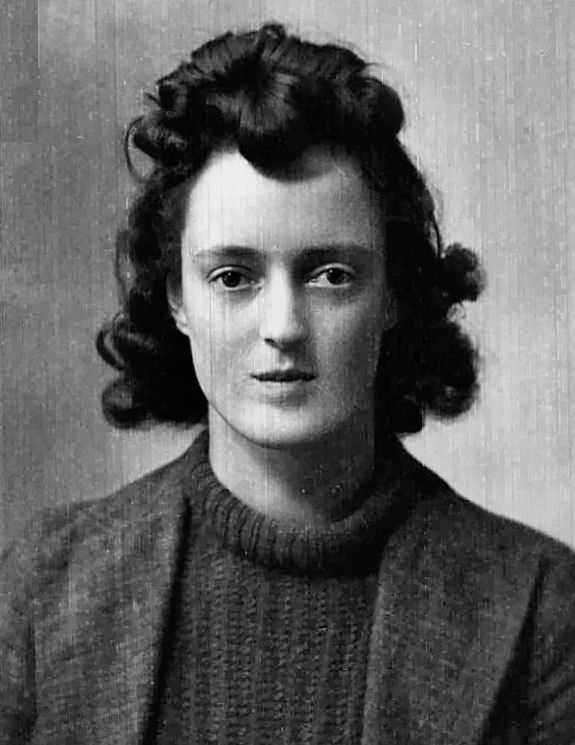 RAeC 1939
RAeC 1939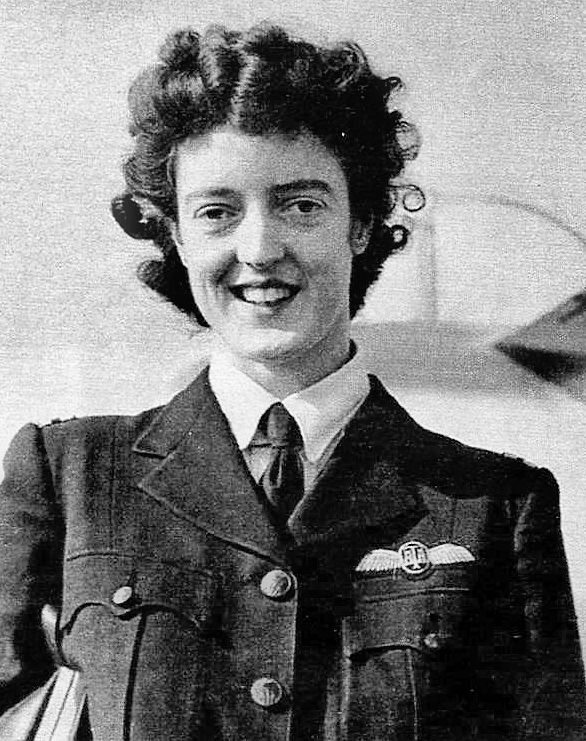 1943
1943Father: Lt. Charles Symonds Leaf RM, mother Hon. Catherine Blanche [Kay-Shuttleworth]
"She is a granddaughter of Lord Shuttleworth. Her name is Norwegian and refers to the sister of Lief the Lucky, a Viking warrior... she is 6 feet tall - almost as tall as her mother - dark and striking-looking"
prev: Mobile VAD Nurse, RAMC
Address in 1939: Freckenham Manor House, Bury St Edmunds, Suffolk
She was one of two hundred 'debutantes and ex-debutants' in the 'Guard of Honour to attend her Majesty the Queen' in March 1939:
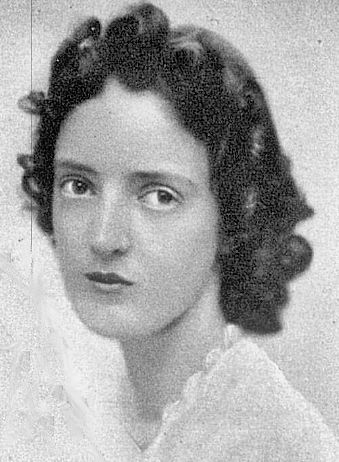 The Sketch
The Sketch
Postings include: 15FPP, 1FPP
One* accident:
- 28 Sep 1945, she 'exhibited bad airmanship' in (of all things) Tiger Moth DF210, when she taxied behind an aircraft with two engines running, and nosed over.
Experience in ATA: 700 hrs in 40 aircraft types.
[Her brother, Lt Edward Derek Leaf DSC, FRGS, RNVR was killed in action, 15 Feb 1944.]
In January 1948, she and Margaret Frost were among the earliest recruits for the newly-formed WAAFVR:
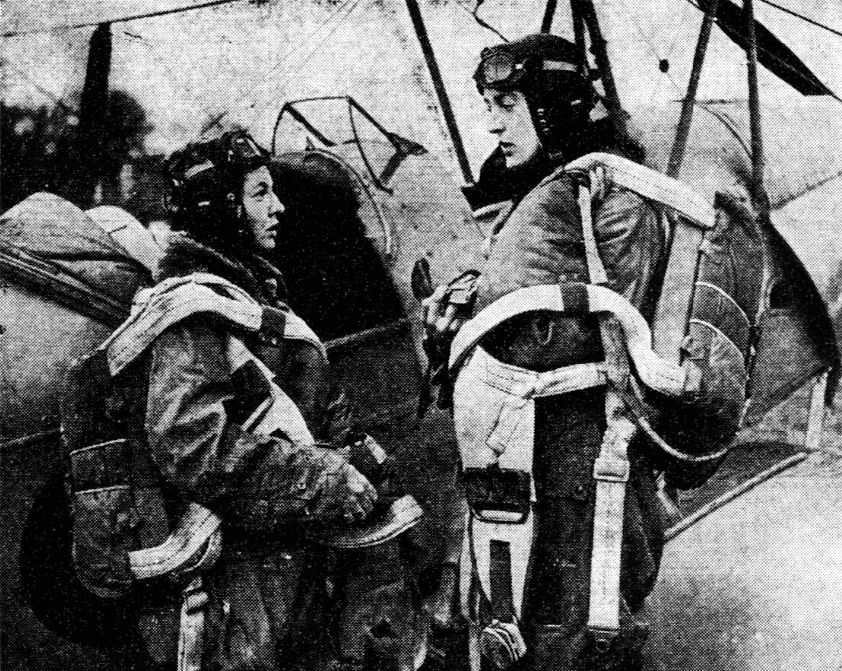 Margaret and Freydis, Nottingham Evening Post, 17 Jan 1948
Margaret and Freydis, Nottingham Evening Post, 17 Jan 1948Others included Roy Mary Sharpe and Ruth Russell.
She and Veronica Volkersz flew RAF-surplus Tempests to Pakistan in 1949, for Mayfair Air Services.
In December 1953 she was awarded her RAF 'Wings', one of 5 women (all ex-ATA pilots) to do so when serving with the short-lived (1 Feb 1949 - 1954) Women's Royal Air Force Volunteer Reserve (WRAFVR). The others were Jackie Moggtridge, Benedetta Willis, Joan Hughes andJean Lennox-Bird.
"Miss Leaf is at present training girls for flying at the Women's Junior Air Corps in London and takes the girls up regularly in a Fairchild Argus called 'The Grey Dove'. Last year she took 1,950 students into the air". Also involved in the WJAC were Diana Barnato Walker, and Anna Daab.
In August 1954, she became the first woman to win the title of 'British Air Racing Champion' when she won the Goodyear Trophy in her Miles Hawk Major G-ACYO:
She was presented with the Cup by Mr John Profumo at the Royal Aero Club:
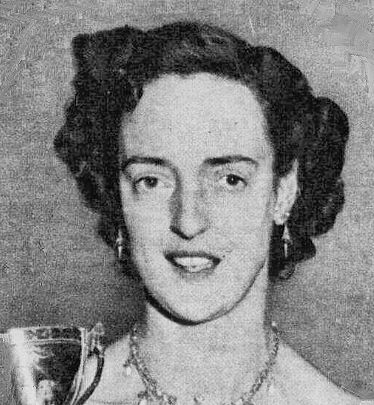 RAeC
RAeCShe also came 3rd in the King's Cup Air Race in 1954, and was described as "Britain's top woman pilot":
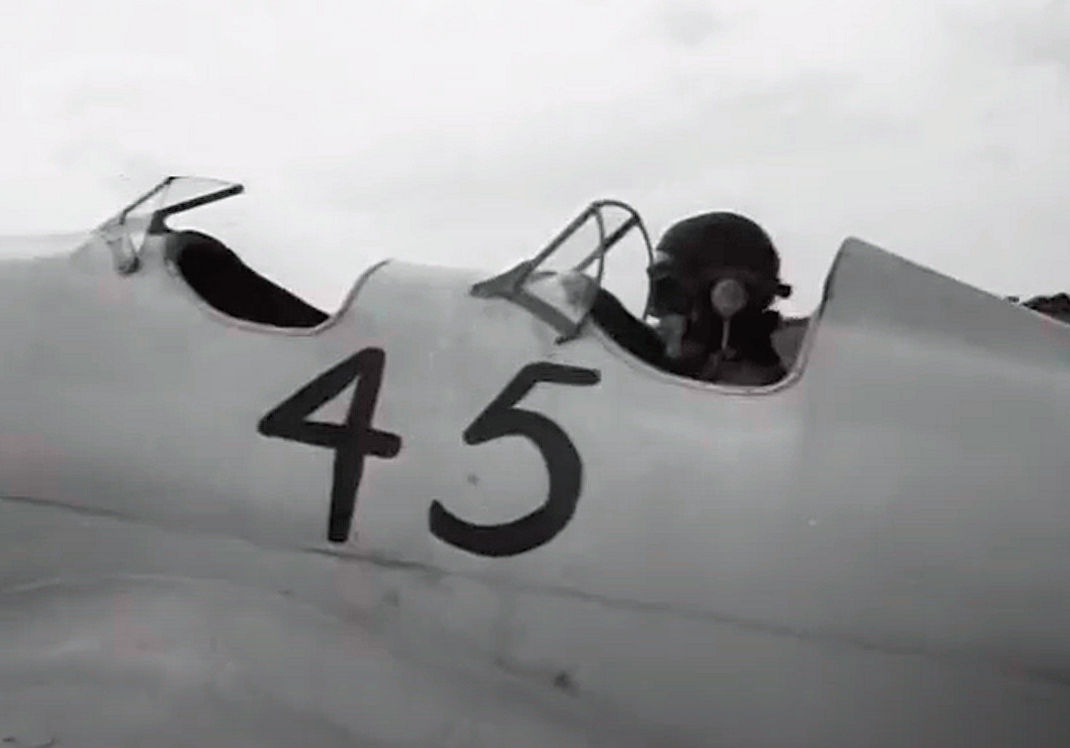
[She only owned G-ACYO from August 1953 to August 1954, and then sold it to Frederick Howard Stirling; he managed to write it off 28 Nov 1954 when he crashed at Elstree, Herts]
m. 1955 in South Africa, Timothy Herbert Abbott Sharland
In 1956, Veronica Volkersz wrote that Freydis was one of only 7 women flying commercially: - "Freydis Leaf, who until recently was chief aviation advisor to the Women's Junior Air Corps, has left England to marry and settle in South Africa" - and concluded that "The tragedy is that for women, commercial aviation is now - except, possibly, in Russia - a closed field."
[The others were Jackie Moggridge, Monique Rendall, Jean Bird, Suzanne Ashton, Zita Irwin and Diana Barnato-Walker]
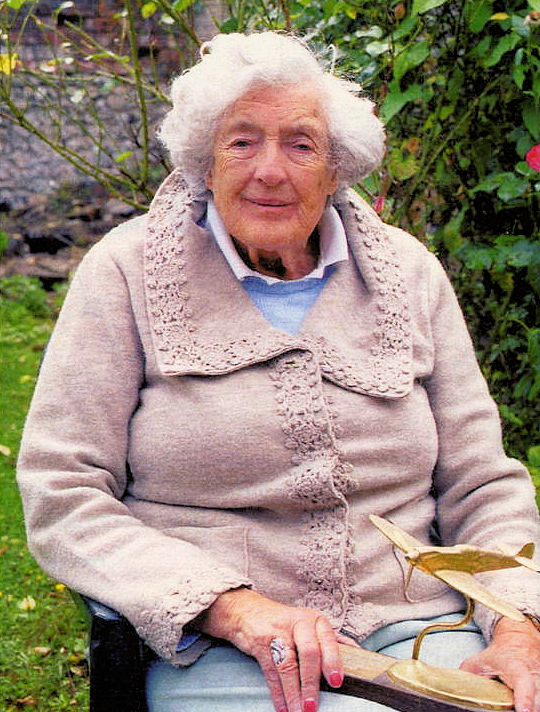 Ancestry
Ancestryd. 24 May 2014 - Benson, Oxfordshire
Wikipedia: https://en.wikipedia.org/wiki/Freydis_Sharland
-
Leathart, Constance Ruth (W.13)
W.13 Flight Captain Constance Ruth 'Connie' Leathart 
b. 7 Dec 1903, Low Fell, Northumberland 14 Aug 1940 to 30 Jun 1944
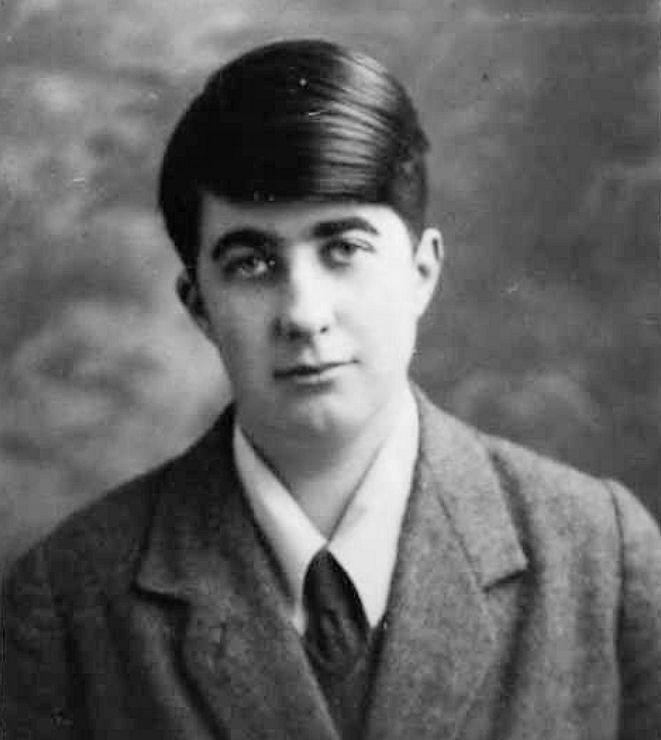
RAeC 1927
Father: Thomas Headley Leathart, a Lead Manufacturer, mother: Janet Ruth Grant
"Five foot three and of generous proportions" (Lettice Curtis);
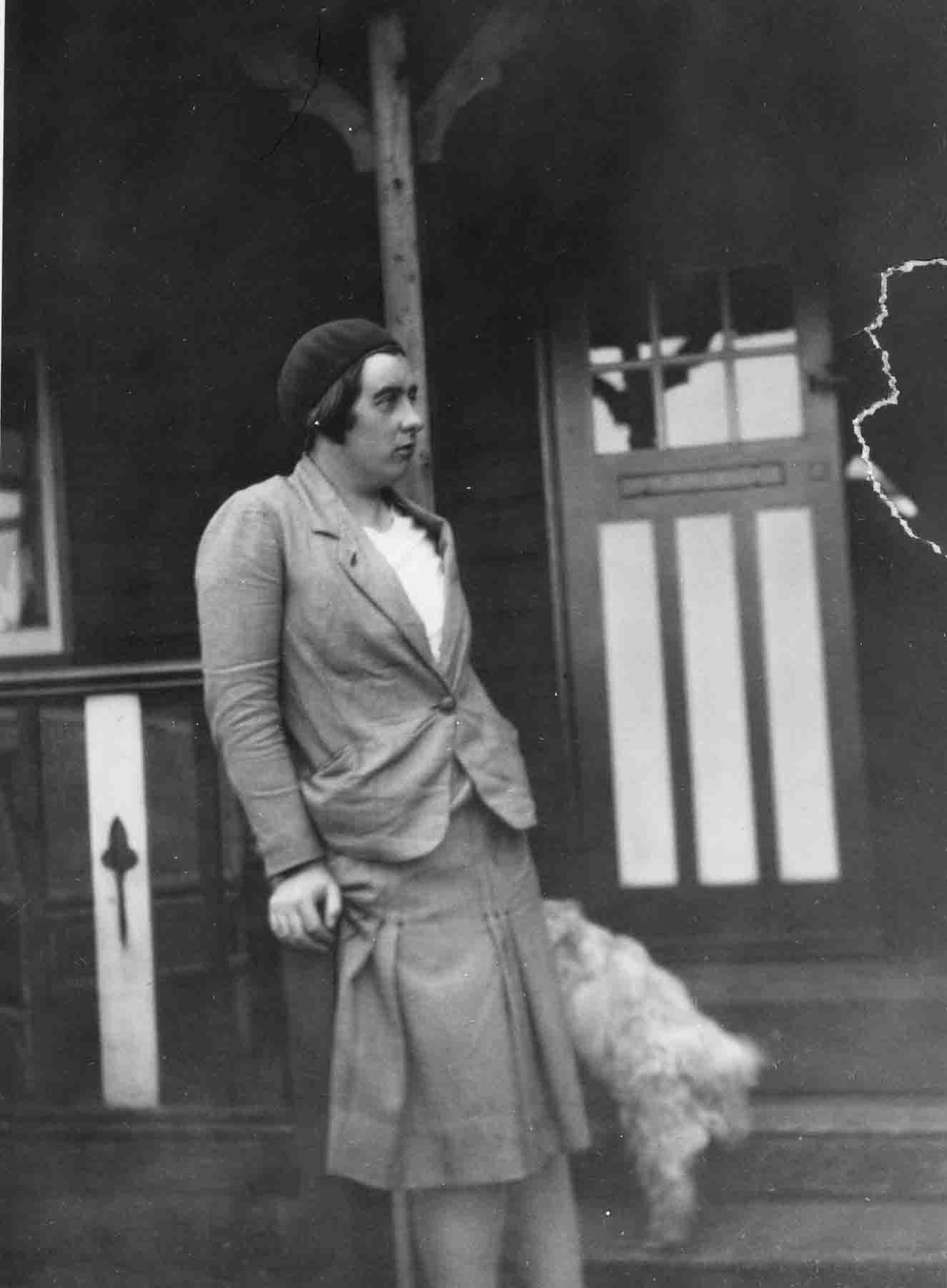
[Check]
"a very experienced pre-war racing pilot and... looked like George Robey" (Mary du Bunsen).
[I'm not so sure this is fair... here's a picture of George Robey for comparison:
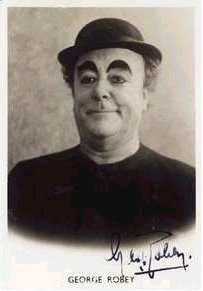
Hmmm...]
"One of the first 20 British women pilots to obtain the RAeC certificate, and the first outside London"
[Amazing - as Connie got her certificate No. 8,085 in 1927, 14 years after the first woman pilot Hilda Hewlett - but true; she was only the 12th woman to get an RAeC certificate. And the previous 11 women had obtained their certificates at one of Hendon, Brooklands, Northolt or Edgeware, all more-or-less London]
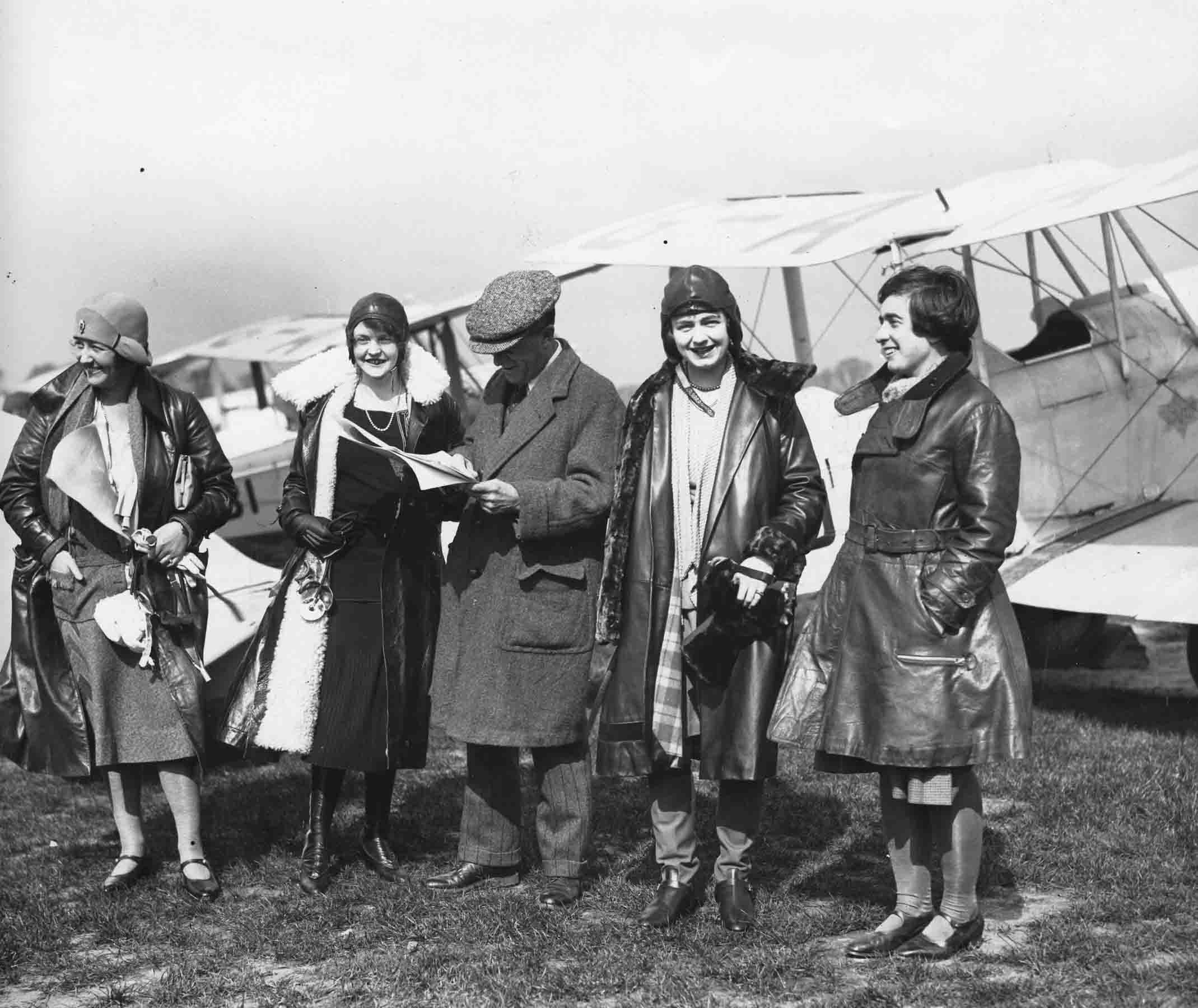
l to r Edith Chalmers, Adelaide Cleaver, Sir Sefton Brancker, Rosalind Norman and Connie before the start of the 1930 Heston Spring Flying Cruise to Germany
In the late 1920s and early 1930s, with Leslie Runciman (q.v.), she ran Cramlington Aircraft, a company which repaired damaged aeroplanes. She also designed and flew her own glider.
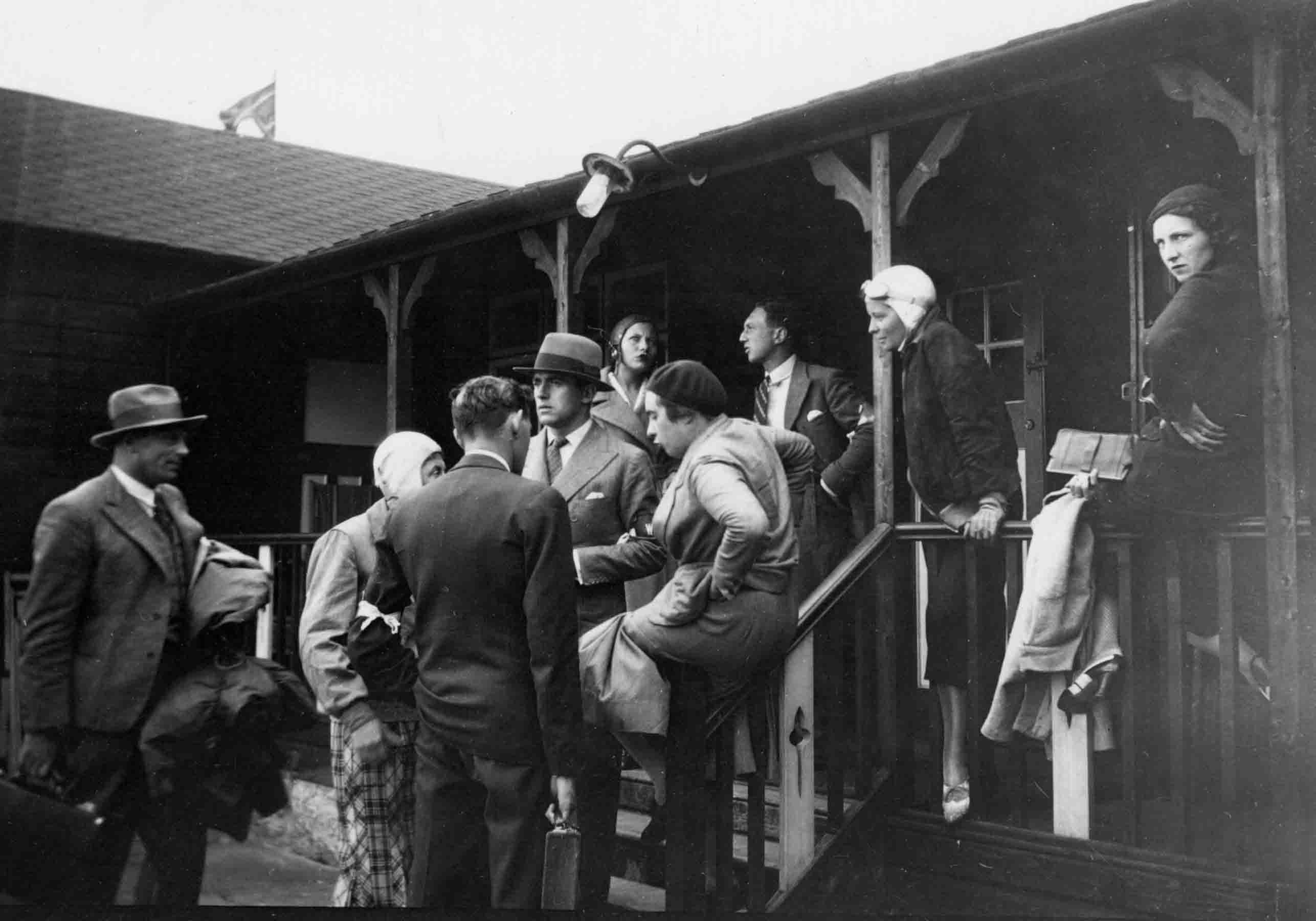
Leslie Runciman and Connie (centre)
She was educated at Cheltenham Ladies College, and then Ethelburgas School back in Newcastle. By 1939, her mother had moved to Ottery St Mary in Devon, but Connie was still in the north-east, at Morpeth in Northumberland.
In December 1939, aged 35, working in the map department at Bristol Airport, she applied to join the Air Transport Auxiliary (ATA). Her experience at the time was over 700 hours, making her one of the most experienced women pilots in the UK, so she started as soon as they could sort themselves out (Pauline Gower was only allowed to take on 8 women to begin with)... which turned out to be August 1940.
Connie owned
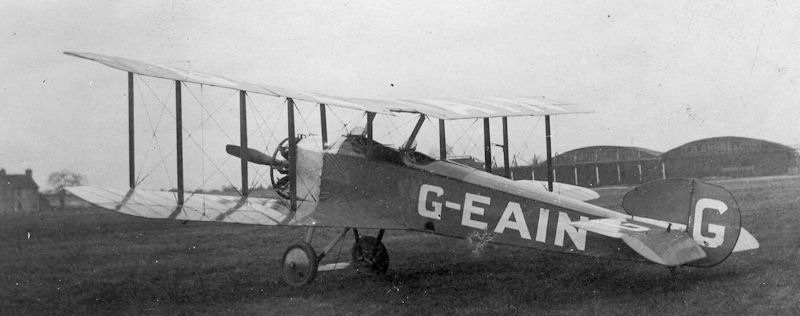 RAeC
RAeC- the 1922 Sopwith Grasshopper (WO 2698, G-EAIN, the only one ever built, which she acquired in 1928),
- a 1927 DH.60 Moth (G-EBRX, later PH-KLG),
- a 1929 Westland Widgeon IIIa (WA1776, G-AAJF), and
- a 1932 Comper Swift, G-ABUU.
Address in 1940: Mill Greens, Angerton, Morpeth, Northumberland
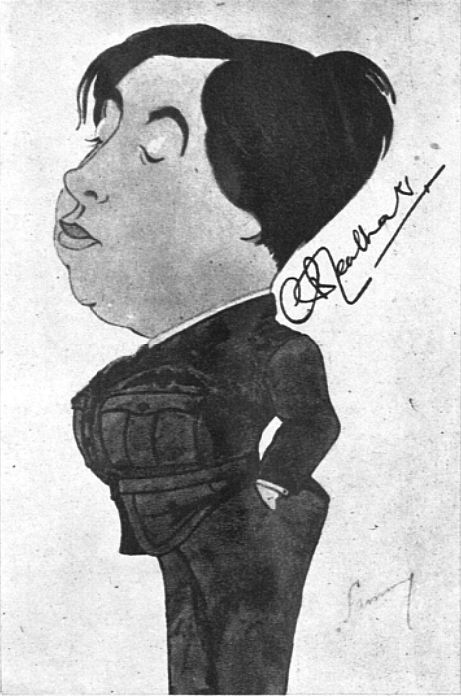 1942 caricature by 'Sammy' Clayton
1942 caricature by 'Sammy' ClaytonMary du Bunsen says that "Connie hated to fly high, because she said it was further to fall... she was reputed to make most of her approaches from below ground level if possible".
She ended up serving for nearly 4 years, her contract being terminated in June 1944.
Postings: 15FPP, 12FPP
Her initial report said that she 'flies well and although rather lacking in polish she is perfectly safe and has useful experience behind her'. In fact, her flying was always described as reliable and steady, and she was cleared for Class 4 (advanced twin-engined) aircraft from May 1942, and promoted to Flight Captain in March 1943.
She had three accidents, none of which were her fault:
- 2 Jan 1942, the undercarriage of her Blackburn Skua L3020 collapsed after a normal landing;
- 5 Jun 1942, the tail wheel of her Wellington was bent after taxying over rough ground,
- 3 Dec 1943, her Spitfire 1a X4244 tipped onto its nose after its port wheel sank into an unmarked hole.
Her health let her down after her third accident, it seems. Having only been off sick for a bout of tonsilitis in early 1941, followed by 'flu that December, she was then off sick continuously from 4th December 1943 until 10 June 1944. She returned and did a perfectly satisfactory Class 1 ("only") check, and was posted to 12 Ferry Pool 'for ferrying and maps and signals work' on the 13th. Her short time at 12 FPP went well, apparently; she was "most helpful" and showed great "knowledge of all departments", so they employed her as an Operations Officer.
It's clear that Connie wanted to stay on. She wrote to the ATA on the 17th June:
"Dear Captain Mead (HQ ATA),
Thank you for your posting notice but I believe you should have put "etc"; I find I am temporary adjutant as well, although we hope to get assistance from Ratcliffe on Monday.
Mrs Wilberforce now suggest I should stay on Operations during Miss Jeffery's leave, i.e. 8 weeks from the 27th June. As you know my contract expires on the 1st July and I wonder if you can possibly extend it, in some form, for another fortnight, after which, if there are any further suggestions for my future, I should come to White Waltham and talk to you about it.
I know this is not exactly the usual way to go about such things but I did Operations fairly often during my two years at Hamble and feel that, if I can be of further use here, the problem of how to pay me ought not to be insuperable. I like the work here and have already got in some flying so I do hope you can resolve whatever difficulties may crop up."
The ATA refused, and wrote back on the 19th June:
"I am instructed to say that it is not possible to consider any extension of this officer's current flying agreement.
If she wishes to sign a new flying agreement, under which she would revert to the rank of Third Officer on her present flying classification, she may do so. Alternatively, an administrative contract is also available to her as an Assistant Operations and Maps and Signals Officer, with the rank of Second Officer (Admin) at a salary of £300 per annum, plus 15s 6d cost of living bonus. It is however understood that Miss Leathart is not desirous of accepting an operations post."
Obviously, Connie didn't fancy starting all over again as a Third Officer, either. So, eventually, she was grounded (they cancelled her insurance on the 30th June) and told to report to White Waltham and return her uniform and equipment on the 7th July.
So ended, on a rather downbeat note, Connie's wartime ATA career. Her log shows that she flew "Moth, Magister, Hart, Proctor, Harvard, Master, Oxford, Lysander, Anson, Battle, Dominie, Albacore, Fulmar, Gladiator, Hurricane, Spitfire, Swordfish, Walrus, Henley, Skua, Courier, Blenheim, Airacobra, Beaufighter, Fairchild, Hampden, Wellington, Whitley, Hudson, Albermarle, Auster, Beaufort, Envoy, Ventura, Barracuda, Boston, Mosquito, Manchester and Mitchell" aircraft - a total of nearly 800 hours.
Lettice Curtis says "Although she never became senior in the ATA she was definitely superior in experience and in later years her common sense, stability and lack of fear of her superiors, many of whom she had watched learn to fly, made her a valuable friend and adviser."
The Times wrote "She continued flying until 1958 when, reluctantly, she finally disposed of the last of her aeroplanes.
Connie Leathart remained a reserved, private person who shunned any form of publicity. In a sense this was a pity as many of her feats went unremarked. In retirement she farmed in Northumberland, where she bred Kyloe cattle[actually, it seems that "she did not breed Kyloe cattle; she did once have a couple of them, but both were bullocks"] and raised sheep. An accomplished horsewoman throughout her life, she continued into her fifties to ride regularly to hounds with the Morpeth and Tynedale hunts. She never married."
A friend of hers tells me: "I knew her for the last 20 years of her life, she was my parents' employer and my grandparents' before them. An amazing and eccentric and very kind lady."
Died 4 November 1993 in Northumberland, aged 89, leaving £518,086
...
and John G D 'Jack' Armour (q.v.), who was her first flying instructor in the ATA, was her cousin(!)
-
Leaver, Leonard Marshall
M.26 Commander Leonard Marshall Leaver OBE 
b. 5 Feb 1903, Weston-super-mare 11 Sep 1939 to Nov-45

1929
 Manx Aviation & Military Museum
Manx Aviation & Military MuseumAn 'Automobile Engineer' in 1929
"A very steady pilot and a great asset to any ferry pool"
Officer Commanding No 2FPP from November 1941, and ran it in "an extremely satisfactory manner".
d. Dec 1974, London
-
Lee, Charles Leonard
M.703 First Officer Charles Leonard Lee 
b. 26 Dec 1900, South Wigston, Leicestershire 2 Dec 1941 to 18 Sep 1944
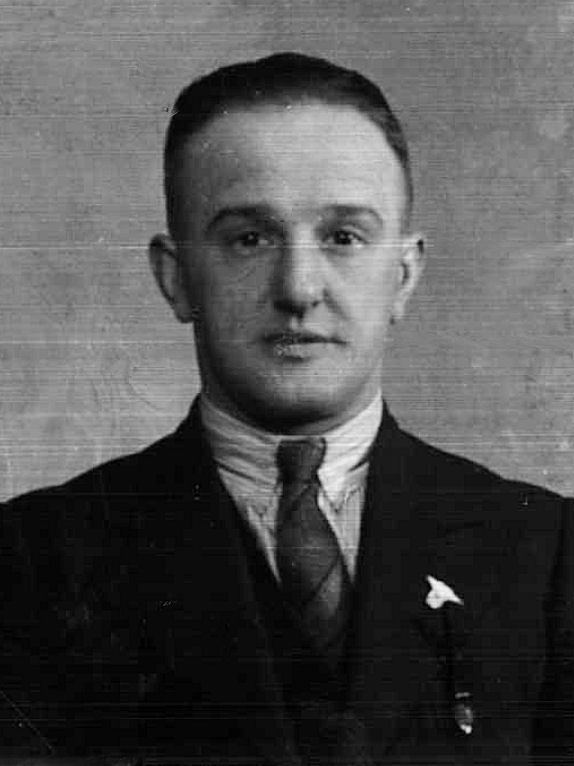 1936
1936Father: Thomas Senior Lee, Mother: Florence Elizabeth
Ed. Bluecoat School, Walsall, Staffs
prev. RFC from 1917; RAF from 1919; A Commercial Traveller for B. Dean & Co, Walsall
prev. exp. 35 hrs on Miles Hawk, Avro Avian, Gipsy/Tiger Moth, Puss Moth, B.A. Swallow
m. 1926 Mildred M [Nune]
Address in 1941: 13 Westbourne St, Walsall, Staffs
Postings: 12FPP, 6FPP, 7FPP, 8FPP
2 accidents, both his fault:
- 28 Mar 1942, his Avro Tutor collided with a stationary Magister
- 12 Nov 1942, he failed to correct the landing swing in a Spitfire and nosed over.
Off sick from 6 to 19 Oct 1942 with 'carbuncle'; from 24 Dec 1942 to 25 Jan 1943 after the Spitfire accident; 15 Feb to 1 Mar 1943 with 'airsickness'
"A careful and conscientious pilot. A Well disciplined officer"
Posted to Medical Pool 23 Aug 1944
[Contract Terminated 18 Sep 1944]
d. 1956 - Wolverhampton
-
Legge, Geoffrey Thomas
M.--- * 2nd Officer Geoffrey Thomas Legge 
b. 8 May 1896, Torquay, Devon 2 Apr to 15 Aug 1941
Father: John Thomas Legge, Mother: Alice, of Croydon
East Surrey Regiment, then RFC, RAF from 12 Dec 1917; 4 Sqn. Transferred to unemployed list 1 May 1919, back in the RAF as F/O from 11 Mar 1924
m. 11 Sep 1918 in Sanderstead, Surrey, Vera Elsie Madeleine [Stokes]
Address in 1939: 'River House', Strood, Kent - described as a 'civil servant'
His son, Sgt. John Stephen Legge, RAF d. 3/4 Mar 1941 aged 22 when his Stirling crashed into the Channel after a night raid. Commemorated at Runnymede.
Postings:
d. 4 Nov 1972 - Lincoln
Commemorated at Lincoln Crematorium
* File not seen
-
Leslie-Melville, Alexander Ronald
M.181 First Officer Alexander Ronald Leslie-Melville 
b. 13 Dec 1905, Chelsea, London 4 Dec 1940 to Jun-42
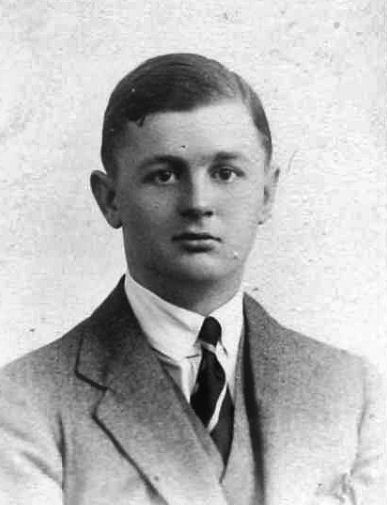 1929
1929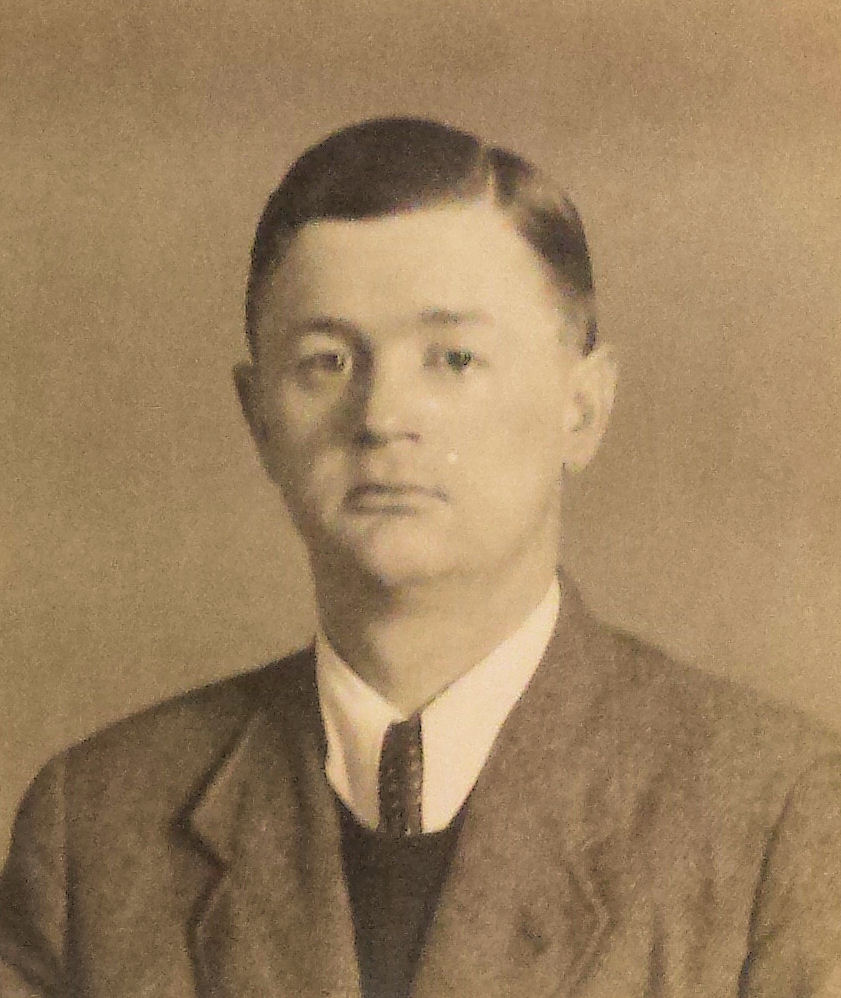
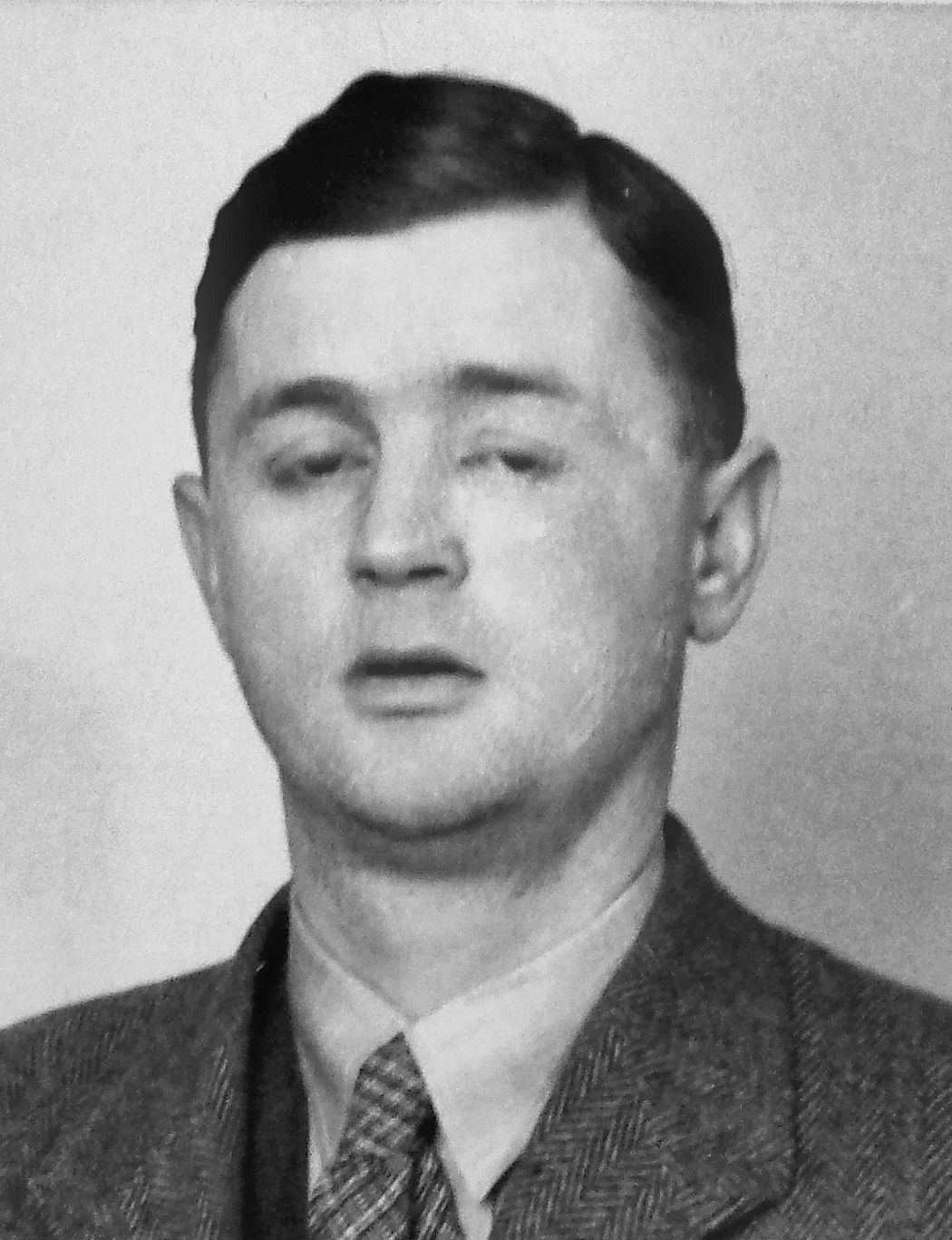 ATA
ATAprev. a journalist
prev. exp. 'about 700 hrs'
RAF 1924-30; entered Cranwell from Eton, Jan-24 ; P/O from Dec-25, eventually F/O
Invalided out "solely through being unfit for tropical climates"
RASC Nov-39 to Apr-40 (Driver)
RAE Farnborough Jul-40 to Dec-40, to do Pilot's Notes on aeroplanes. "The work I am doing is a useful one, but I do feel that there must be many better-qualified people to do it who for one reason or another cannot fly, and I really believe I would be more use as a pilot."
1 Sep 1940, he wrote:
"Dear Mr d'Erlanger,
You may not remember me, but we were at Eton together (I was at S.G.L.'s, 1919-23) & I remember you perfectly well, although we did not happen to come across each other very much.
I happened to see Keith Jopp today at Boscombe Down, who told me that you wanted experienced pilots in ATA. I believe you would find that I was all right, & for my part there is nothing I should like more than to get back to flying..."
He was offered a contract on the 16th September; after his 15-minute Tiger Moth flight test, the Chief Flying Instructor recorded that he was "above the average", except that " He flies with a little too much abandon and all turns are too steep"
He was posted to Kirkbride (west of Carlisle, the 16th and last Ferry Pool to be opened), but his father died in October 1941, and he applied for a transfer to be nearer London to wind up the estate. This was not possible, however, and he wrote to ATA a month later:
"I have suffered from Lupus Erythematosus since 1928... since joining ATA a year ago I have been able always to go to London to get the regular treatment, from the doctor I have had for years, that this complaint necessitates... I must therefore request to be posted immediately to White Waltham, with permission to take one day off a week instead of two consecutive days a fortnight."
While this was being considered, he had a car accident, in December 1941; this left him with severe concussion and some 'postconcussional phenomena such as slight giddiness on turning quickly". His doctor wrote "I recommend that he not return to flying for at least three months."
In fact, he did not return to flying until May 1942, doing a refresher course from 8 May to 2 June. He had made arrangements to move into a small cottage owned by Anthony Phelps (q.v.), but before that could happen he was killed in a flying accident.

d. 12 June 1942 (Died in ATA Service) - Hurricane AG680 crashed into a hill at a height of over 1500ft in Keld, N Yorkshire, in poor visibility and low cloud.
He was blamed for the accident, having persisted too far over high ground in bad weather. Also, "He failed to obtain weather information for his route before taking off and continued to fly in conditions worse than those prescribed in ATA Standing Orders."
Buried Maidenhead Cemetery
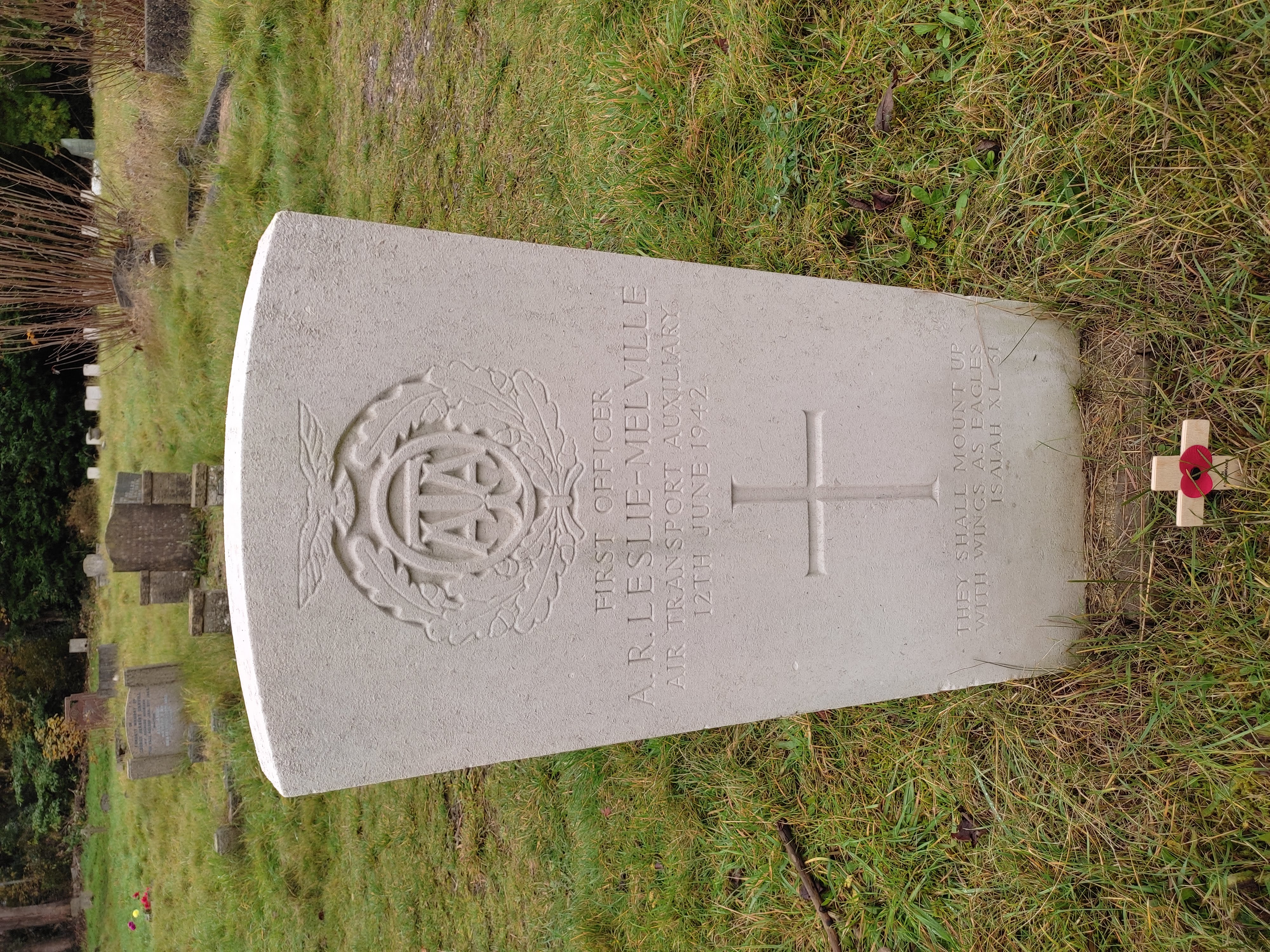 "They shall mount with wings as eagles"
"They shall mount with wings as eagles"
-
Lester, Kathleen Marjorie (W.118)
W.118 3rd Officer Mrs Kathleen Marjorie 'Betty' Lester 
b. 9 Jul 1915, West Bridgeford, Nottingham 14 Jun 1943 to 28 Feb 1945
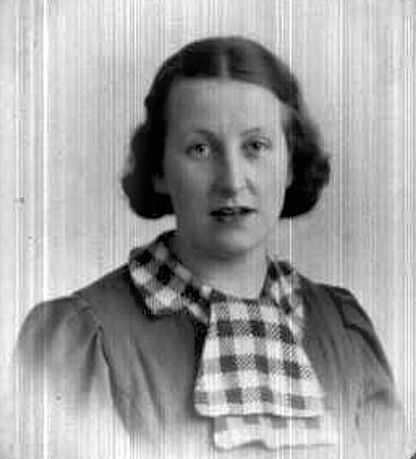 RAeC 1939
RAeC 1939née Haylock
Father: Edward Montagu Haylock, a Ballroom Manager; mother: Lillian [Jones]
Ed. Alderman Newton's School. Leicester
prev: ATS Convoy Driver 1939-1943 (Sergeant)
m. Oct 1940 in Leicester, Flt-Lt Philip Stanley Lester, RAF
Address in 1943: 315 Uppingham Rd, Leicester
Postings: 6FPP
One accident:
- 18 Nov 1944, she needed to taxy between two aircraft and asked a rigger to help her. Unfortunately, her Anson XI NL238 skidded on mud and hit the tail of a Hurricane. The rigger was blamed!
m. 1950 in Leicester, Dennis M Wilson
d. 2001 - Ringwould, Dover, Kent
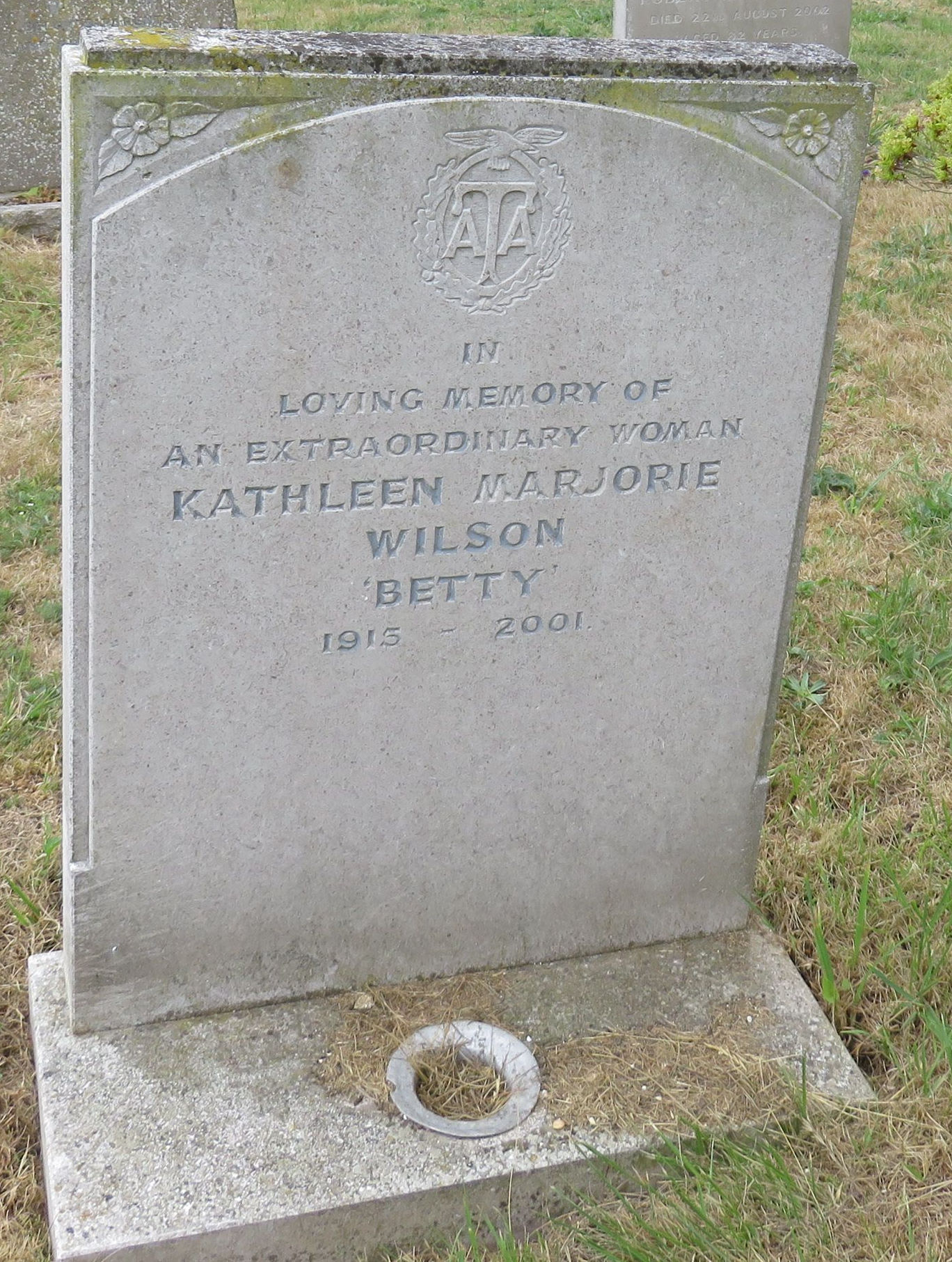 "An extraordinary Woman"
"An extraordinary Woman"
-
Lever, Graham Oliver
M.353 First Officer Graham Oliver Lever 
b. 31 Dec 1914, Hook, Hants 21 Mar 1941 to Mar-42
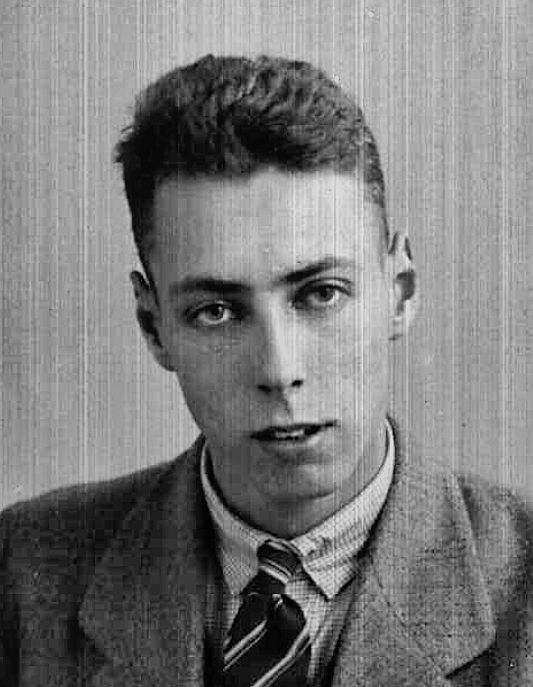 1937
1937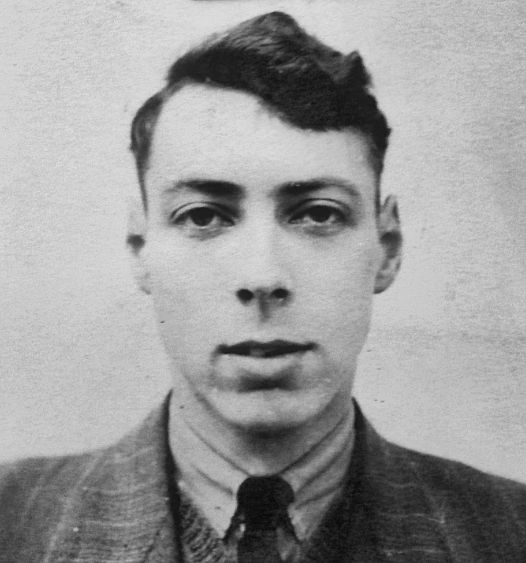 ATA
ATAprev. ground engineer
RAF trainee pilot, Jun-40 to Feb-41 - "The reason for his withdrawal from training is due to the failure to pass his examinations."
prev. exp. 166 hrs
Address in 1941: Dixons Rd, Broughton, nr Stockbridge, Hants
Postings: 1FPP
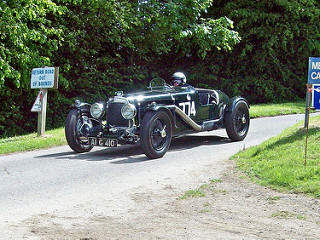
He bought himself this 1932 Aston-Martin Le Mans, [registered APG 410, previously owned by Richard Shuttleworth; it still exists] in September 1941, for £175.

d. 15 Mar 1942 (Died in ATA Service) piloting Fairchild HM178 which stalled and crashed on approach to White Waltham. His fellow ATA pilots Bridget Hill and Betty Sayer (qqv) were also killed; Pamela Duncan (qv) was thrown from the aircraft during the crash and suffered burns.
He had turned back due to bad weather, but was held to blame for the accident.
Yorkshire Evening Post, 17 Mar 1942: "AIRWOMEN KILLED Ferry Pilots' 'Plane Hit Bungalow. The Ministry of Aircraft Production announces that Flying Officer Graham Lever, Third Officer Bridget Hill, and Third Officer Bessie Sayers lost their lives in a flying accident on Sunday. The accident occurred in the course of their duties with the Air Transport Auxiliary. The 'plane crashed on to a bungalow. A fourth passenger in the machine, also a woman A.T.A. officer, was injured. Twenty-six people were injured when they rushed to the house to extricate the passengers in the 'plane. It is believed that the petrol tank in the machine exploded.
Among the injured were children who were in the street. The petrol tank exploded some time after the crash, owing, it is believed, to contact with a fire in the kitchen. A man named Croft, living in an adjoining bungalow, was blown through a window into the street and badly hurt but a child in the front room of the bungalow was rescued almost uninjured. "
buried at Broughton Church, Hants
Aston Martin offered £50 for his car - "we are afraid that the recent petrol restrictions have severely hampered car sales."
-
Lind, Eleanor (W.---)
W.--- Cadet Eleanor Lind 
b. 20 Apr 1922, Brentford, Middlesex 18 Oct 1943 to 31 Dec 1943
Father: Herman Peter Thygesen Lind (b. Denmark 1890, d. 1956, MD and founder of Peter Lind and Co., a company specialising in reinforced concrete work including the Waterloo Bridge over the Thames in 1945, and Mulberry harbour units in WWII], mother: Alba Christine [Katel, d.1981]
Eleanor had three sisters (Inger Kirstine [Laub], Betty [Jaegar] Helen Alexandra [Hartmann]) and a brother, Peter Michael Lind
Ed. St Hilda's College Oxford
prev. Progress Chaser, Vickers-Armstrong
Address in 1943: Hamstone House, St George's Hill, Weybridge, Surrey
Ab initio trainee
Contract Terminated by ATA, after her 'at fault' accident on 4 Dec 1943 in Magister N5406, when she held off the approach too long, stalled and landed heavily, breaking the port undercarriage leg.
Joined WRNS (Acting 3rd Officer from 25 Feb 1945)
m. 1950 in Surrey, Harald Meltzer
d. 21 Jun 2014 - Oslo
-
Lindsay-Hogg, Anthony Henry
M.68 * First Officer Sir Anthony Henry Lindsay-Hogg 
b. 1 May 1908, Hyde Park, London 22 Jun 1940 to 13 Mar 1941
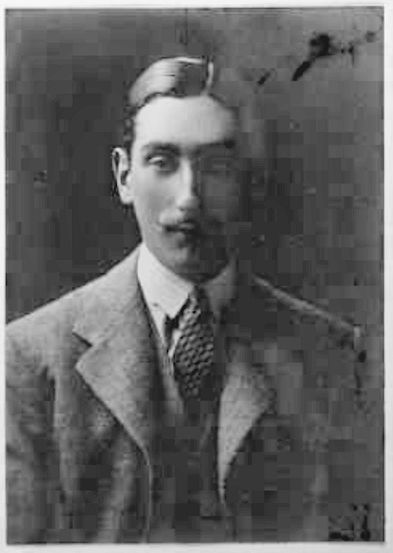 1930
1930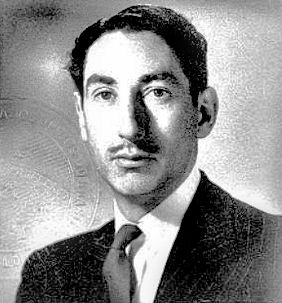 1949
1949Father: William Lindsay Lindsay-Hogg, 1st Baronet, Mother: Nora Cicely [Barrow], of Hayward's Grange, Jarvis Brook, Sussex
His father was made a Baronet in recognition of his work in small horse breeding.
Anthony became Second Baronet in 1923 when his father died.
He appeared in the movie "Dark Red Roses" (which is presumably where he met Frances Doble, who also appeared in the movie).
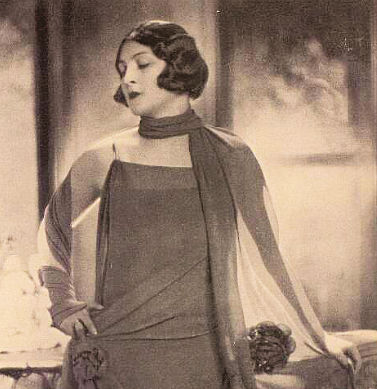 Frances in The Tatler, 1924
Frances in The Tatler, 1924m. 16 Dec 1929 in St Margaret's Church, Westminster, London, Frances Mary Hyde [Doble] , "The young Canadian actress"
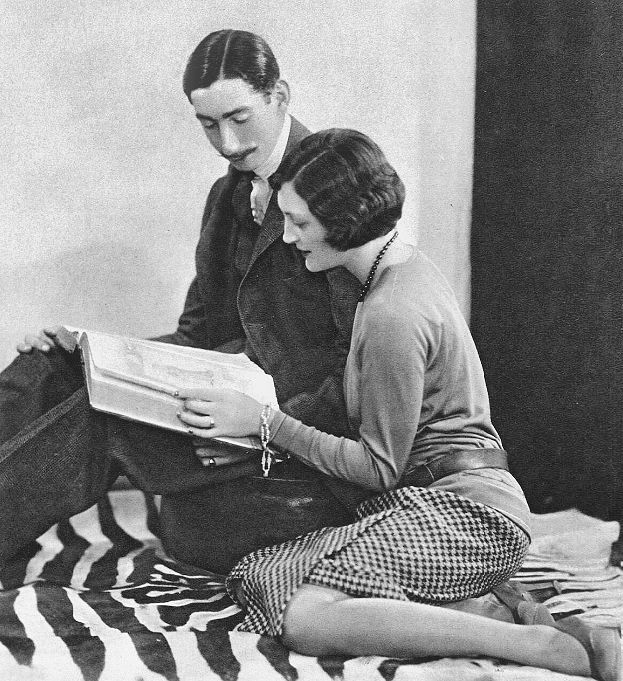 The Sketch
The Sketch"Since the groom, who is 21, is in mourning for his mother, Mrs Nora Lindsay-Hogg, who was killed recently on the hunting field [she was found drowned in a swollen stream after her return from a meeting of the Eridge Hunt], no reception was held after the ceremony" - Edmonton Journal
They were divorced in 1934 on the grounds of adultery by Sir Anthony "with a woman whose name was not mentioned." They had separated in 1932, and in 1933 she received a letter from him, in which a hotel bill was enclosed.
She was granted custody of their son William, who later became the 3rd Baronet.
In 1937, she was reported to have joined General Franco's army organisation in Spain, serving in an ambulance unit in Salamanca. "Apart from the humanitarian instinct which no doubt prompted Miss Doble, she is an ardent supporter of General Franco's cause".
Frances, Lady Lindsay-Hogg, died 12 Dec 1969 in Spain. "She was by no means a great actress, and her range was certainly limited. But what she acted, she acted perfectly" - The Stage
Postings:
Address in 1949: 1, Hanover Sq, London
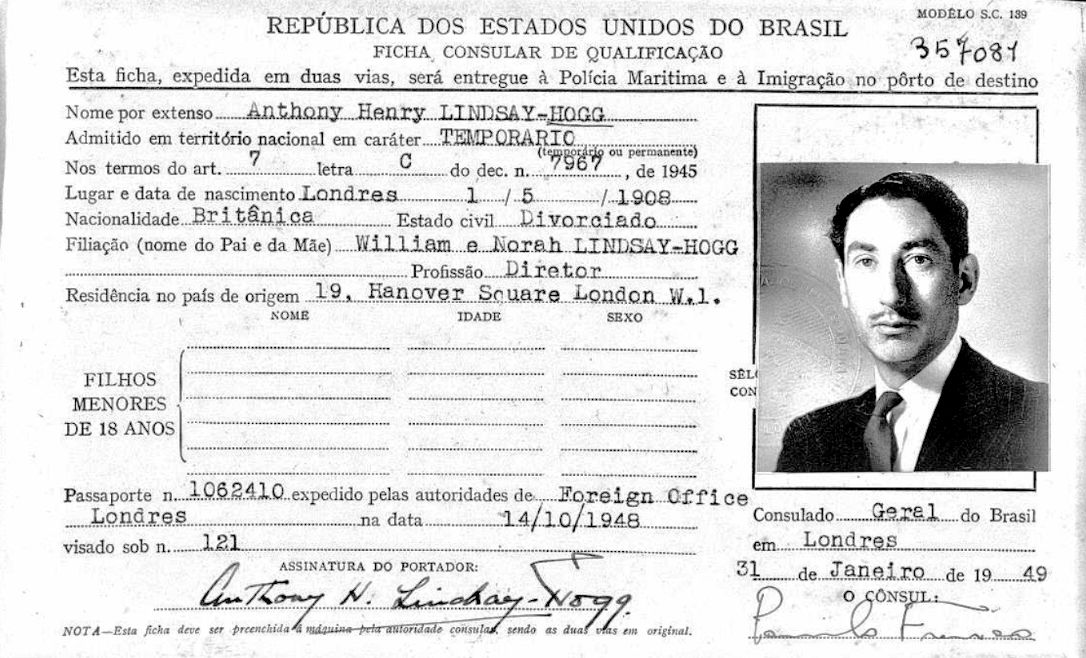 Visa for Brazil, 1949
Visa for Brazil, 1949d. 31 Oct 1968
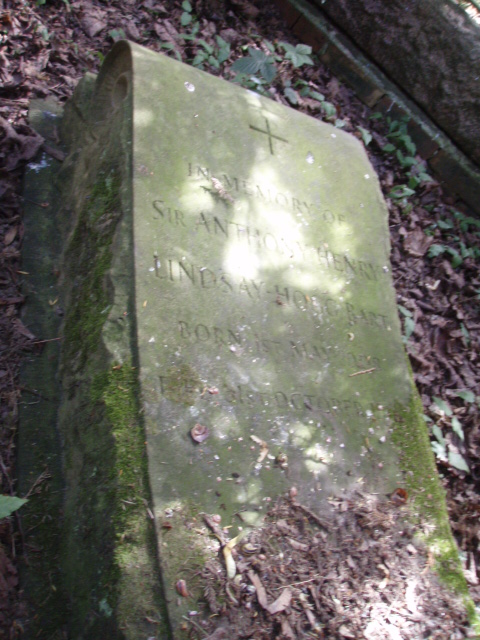 findagrave
findagraveBuried St. Denys Churchyard, Rotherfield, Wealden District, East Sussex
* ATA Personnel file not yet available
-
Lingard, Asa Foster
M.28* Flight Captain Asa Foster Lingard MBE 
b. 20 Feb 1899, Bradford 22 Jan 1940 to Nov-45
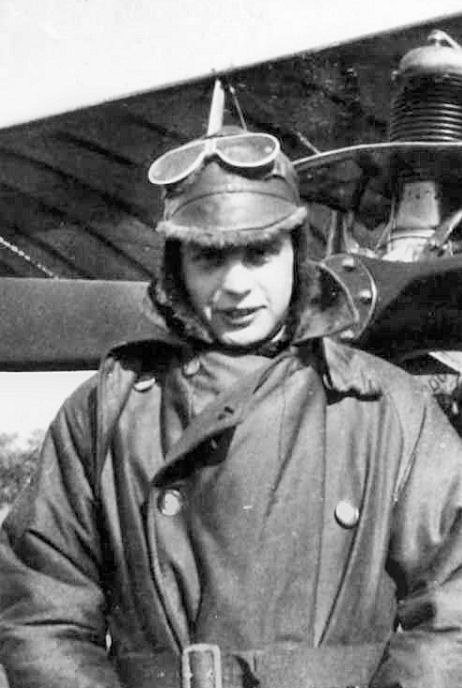
1917
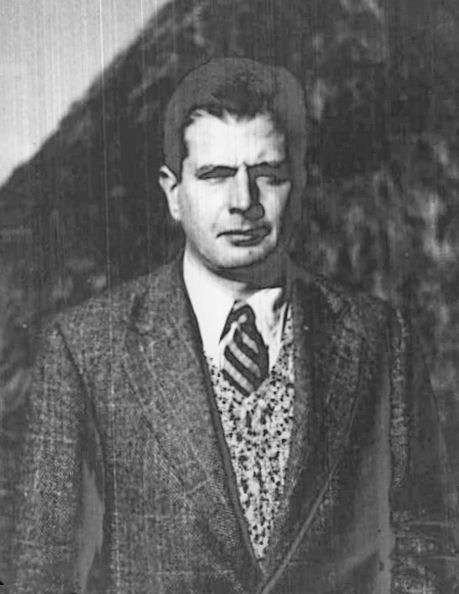
1937
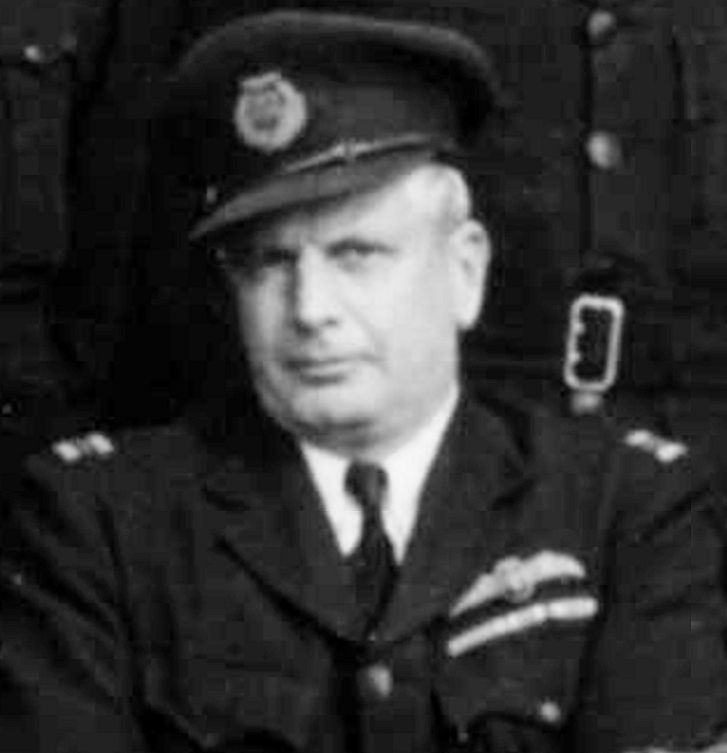 ATAM
ATAMLearnt to fly in 1917 at Bournemouth Aviation School (on a Caudron) while a Lieutenant in the RFC, then renewed his RAeC Licence in 1937 in Belfast
RAF post-WWI
MBE in 1943
His father (also Asa) was head of Lingard's Drapers in Bradford
d. 1 Jan 1971, New Forest, Hants
-
Lofgren, James Eric
M.310 First Officer James Eric Lofgren 
->

b. 18 Jun 1912, Birmingham, England 24 Jan 1941 to 28 Jan 1942
and
8 Jul 1943 to 23 Sep 1943
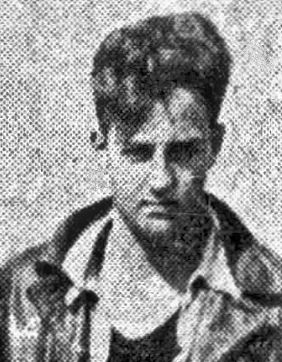 1932
1932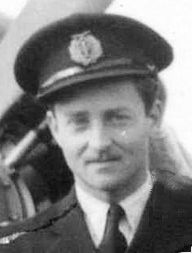 ATAM
ATAMFather: Charles Paul Lofgren (originally Swedish), a travelling salesman (Music Tuition); Mother Gertrude A [Payne or Moore], (English).
The family (including their 5 children) moved to New Jersey in January 1917.
Ed. Detroit, North Western High School
He was shipwrecked when on a boar-hunting trip in 1932 and the 7 crew and passengers spent 3 days marooned on Santa Cruz Island, about 30 miles off the California coast.
prev. Private in US Army Reserve 1931-35; Air Line Pilot for Transportes Aereos Centro Americanos (TACA) in Costa Rica, Panama, Nicuragua, San Salvador, Guatemala, USA, Canada and Honduras.
prev. exp. 1650 hrs
Address in 1941: 2716 S Willard Ave, San Gabriel, Los Angeles, CA; later 805 N 2nd St., Alhambra CA
Exempt from US Draft 'due to previous military experience'.
Postings: 15FPP, 6FPP, 16FPP
Suspended for 2 days from 4 Jul 1941 for 'Refusal to obey orders'
2 accidents, 1 his fault:
- 13 Jul 1941, his Swordfish lost its tail wheel;
- 16 Dec 1941, his Anson hit an iron stake while taxying.
Oct-41: "A good pilot who carries out all his work well. Would be a greater asset to the pool if he was more cheerful and cooperative"
Dec-41: "As above, except that he is now a more cheerful and therefore pleasanter member of the pool."
Flew to New York on a TWA flight 16 May 1943.
After ATA, sailed back to the US on the "Queen Mary" on 29 Sep 1943.
Address in 1948: Majorca Ave, Miami, FL, when he was a pilot for Skyways International.
d. 22 Apr 1959 (age 46) - Orange Co, CA
-
Lonergan, Christopher Thomas Declan
M.764 Christopher Thomas Declan Lonergan
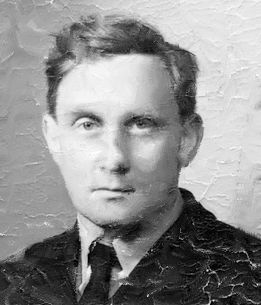 ATAM
ATAMPostings: 8FPP, 3FPP
-
Lott, Heather Marion (W.---)
W.--- Cadet Heather Marion Lott 
b. 3 May 1917, London 8 May 1944 to 10 Jun 1944
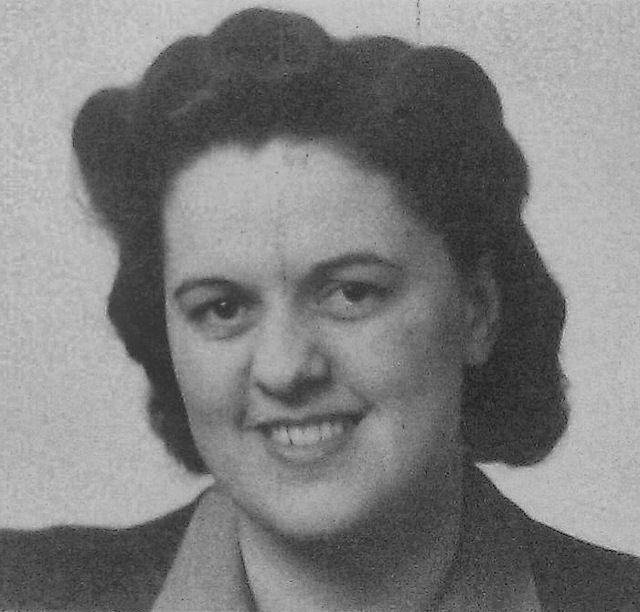 ATA
ATAMother: [Rawson]
Ed. Ashford School, Kent
prev: Secretary; WAAF from 3 Aug 1942 to 7 May 1944
Address in 1944: 22 Ellerton Lodge, East End Rd, London N3
One accident:
- 16 May 1944, a taxying accident in Magister V1039, which struck another Magister N3826. She was not blamed, as she was obviously inexperienced and under instruction.
[Contract Terminated by ATA]
m. Oct 1954 in London, Richard J Jesson
d. 27 Nov 2006 - Jersey
-
Lowe, Stanley
M.46 Commander Stanley Thomas Lowe OBE 
b. 15 Mar 1911, London 8 Apr 1940 to Nov-45
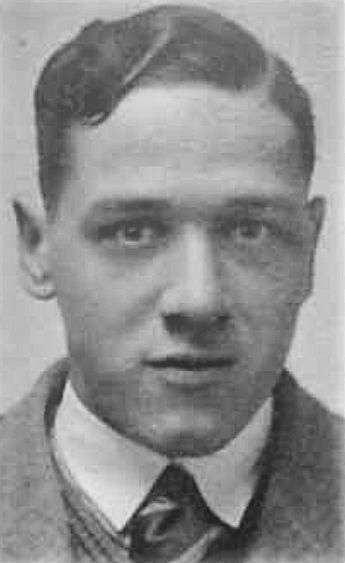
1932
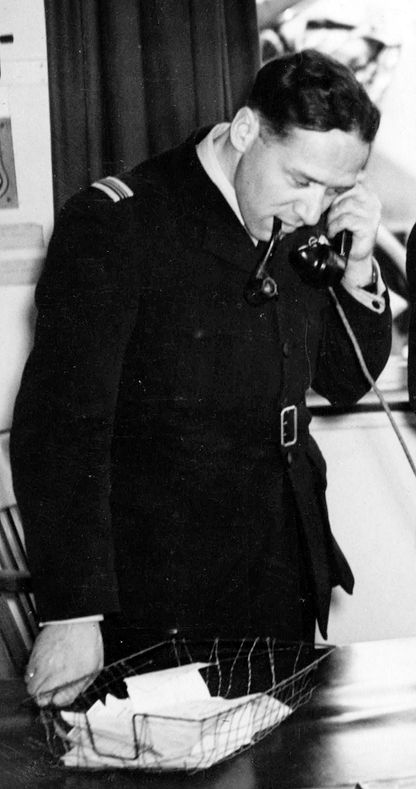 ATAM
ATAMprev. with Mac Fisheries Ltd
"5ft 10ins, build: medium, eyes: hazel".
Father: William Thomas Lowe. Educated at Seaford College, Sussex.
A salesman in 1932, when 'Flight' said he was 'in the wholesale fish business' (in fact, he worked for Mac Fisheries Ltd).
For the 1938 King's Cup Race, (in which he came 9th out of 19), 'Flight' described him thus: "He has been a consistent competitor in air races, though last year - when he had the bad luck to retire at Glasgow in the eliminating contest - was his first King's Cup race. He won the 1937 Manx Air Derby. He lives at Twickenham, Middlesex, and plays golf and Rugby football."
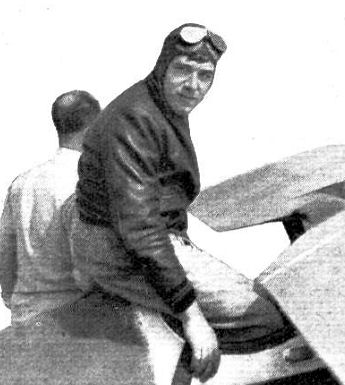 Flight
FlightHe also won the 1936 Portsmouth - Shoreham - Portsmouth race, averaging 126mph, in his Comper Swift (presumably the very lovely G-ABWE, although he later owned the Gipsy-engined [and therefore plug-ugly, imho] 'WW'):
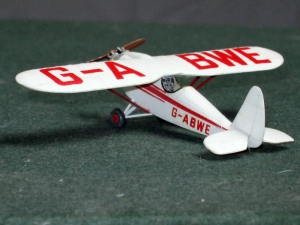
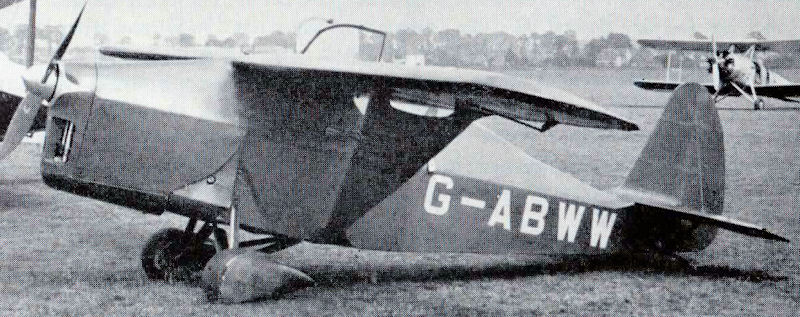 AJJ
AJJHe modified 'WW in 1938 to have a hinged racing windscreen and a fairing between the wing bracing struts, which are visible here. Them fairings must have made the visibility even worse...
He married Enid Eileen Thirlwell in 1939, and they had a daughter in 1943.
Stanley was very successful in the ATA, rising through the ranks to become a Commander by March 1945 and only leaving in November 1945, when the ATA ws disbanded. His recommendation for promotion in February 1945 reads like the appraisal I never got, praising his "excellent quality of leadership, occupational ability, punctuality, attendance, general conduct and discipline".
In over 5 years he flew 41 types of aeroplane, up to and including all 4-engine types, without any serious incident. His instructors reported him to be 'a competent pilot, obliging, efficient, considerate of his brother officers, and attentive of his duties'... 'recent operations to the Continent indicate his ability to command, organise and improvise. As a pilot he sets an excellent example"... (I could go on, but I think we can agree that he deserved his O.B.E., awarded in the New Years Honours List of 1946).
d. 1993; wife Enid d. 2002.
-
MacLeod, Rosemary Theodora Hamilton (W.123)
W.123 * 3rd Officer Mrs Rosemary Theodora Hamilton 'Theo' MacLeod 
b. 15 Mar 1913, London 7 Jun 1943 to 16 Apr 1945
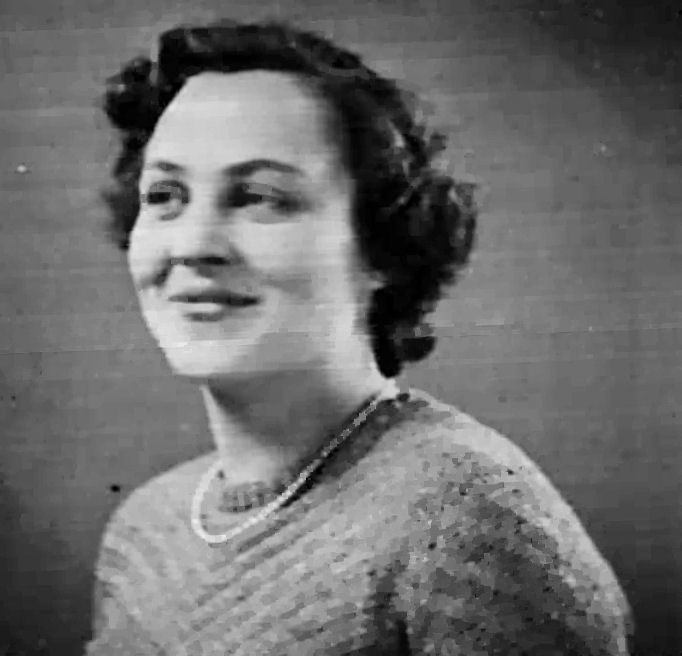 RAeC 1936
RAeC 1936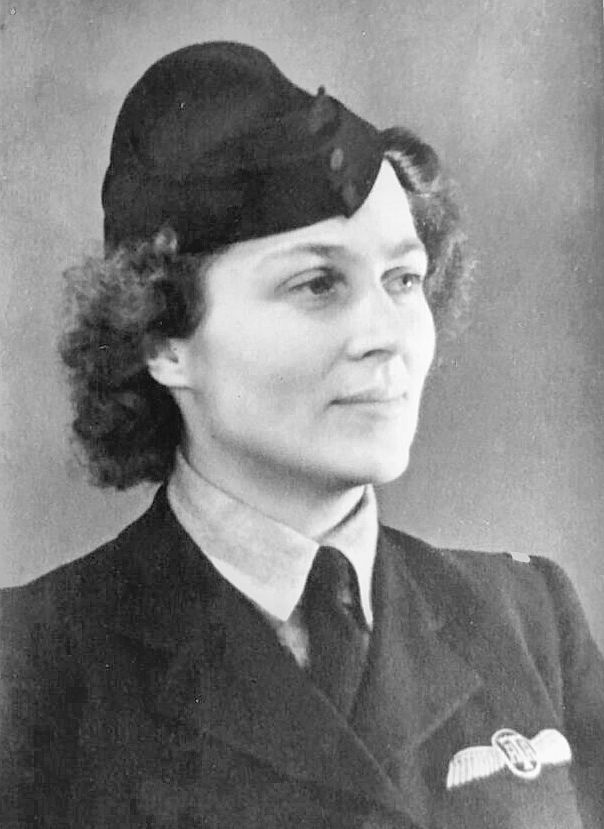 ATA Museum
ATA Museumnée Wills
Father: Frederick 'Noel' Hamilton Wills (a director of WD & HO Wills Ltd, d. 1927, leaving £5.05 million, "subject to large interests given to his wife, for his two sons on attaining the age of 25 and his three daughters on attaining that age or marrying"), mother: Margery Hamilton [Fraser]
The neice of (Noel's brother) Lord Dulverton, Chairman of the Imperial Tobacco Company.
Address in 1936: Miserden Park, Miserden, Gloucestershire
m. 8 Dec 1938 in London, Captain (later Sir) John 'Jacko' MacLeod, "of Skeabost House. the Isle of Skye":
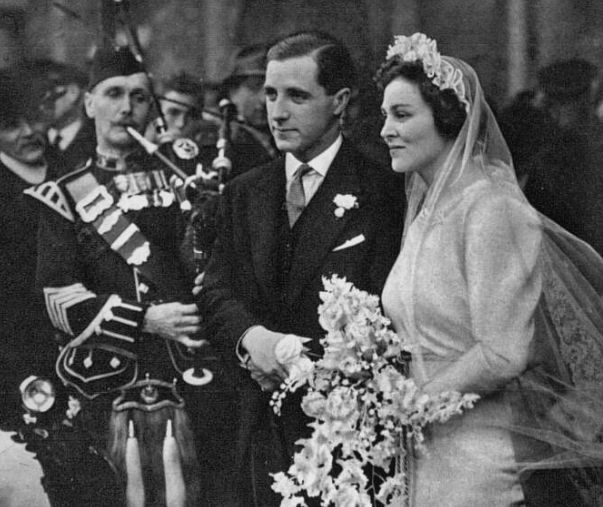 The Bystander
The BystanderHe was later an MP. They had twins, "which run in the Skeabost family" in 1939.
prev: Personal Assistant to Director, Fighter Operations
[ATA Personnel file missing]
Her elder brother, Michael Desmond Hamilton Wills MC, (who gave her away at her wedding) was killed in action 16 Mar 1943. He is commemorated on the Medjez-el-Bab Memorial in Tunisia, and in Miserden Church, Stroud
Lived at Culloden House, Inverness and 36 Curzon St, London
Her uncle, Lt.-Col Graham Beaucham Coxeter Rees-Mogg OBE, left her £15,000 in his will in 1949.
d. 4 Sep 1994 - Northleach, Gloucestershire
-
Malcolm, George Alexander Ronald
M.140 Commander George Alexander Ronald 'Ronnie' Malcolm 
b. 20 Mar 1903, Wimbledon, Surrey 7 Aug 1940 to 24 Dec 1943 (as pilot)
to 30 Nov 1945 (as Station Commander)
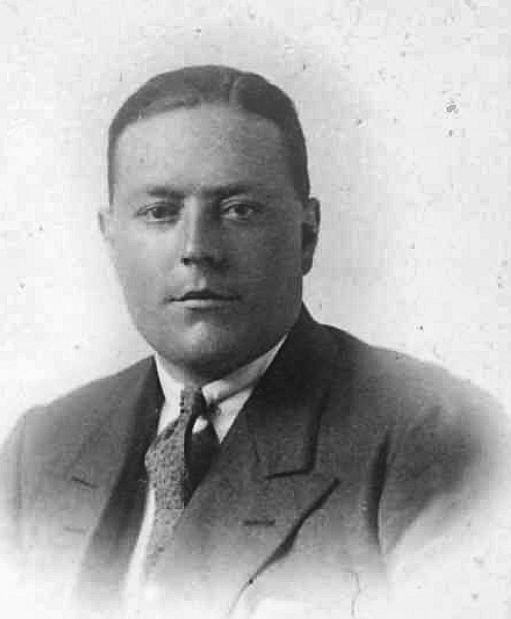 1926
1926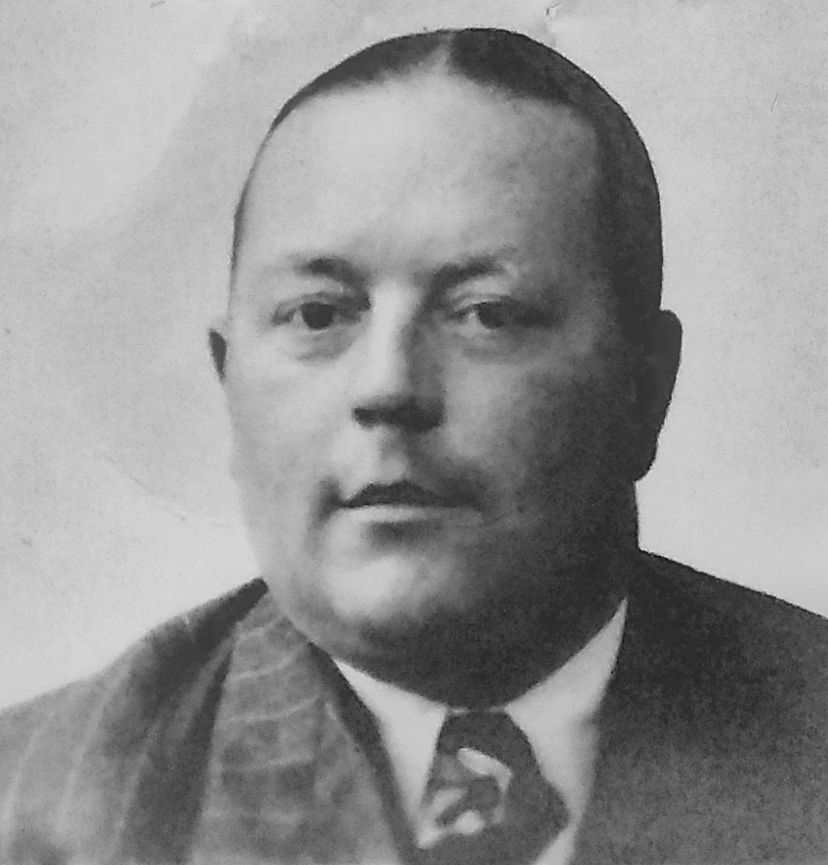 ATA
ATA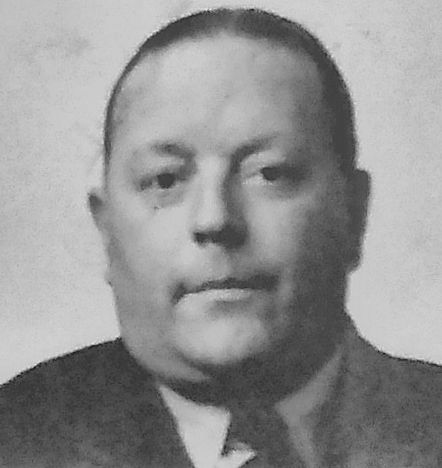 ATA
ATAFather: Col. George Alexander Malcolm DSO
Ed. at "Public School"
m. 1938 Margaret Peggy [Jones]
prev. RAF Reserve 1928-33 (F/O); aircraft sales and manufacturing company.(M.L. Aviation)
Adddress in 1940: Orchard Corner, Littlewick Green, Maidenhead
Postings: 1FPP, White Waltham [as Station Commander]

Early days at White Waltham, Anson taxi pilots - Ronnie Malcolm, Douglas Fairweather (M104), Jim Kempster and Harry Ellis (M139)
Brief Glory
"As a pilot he has always been safe and reliable."
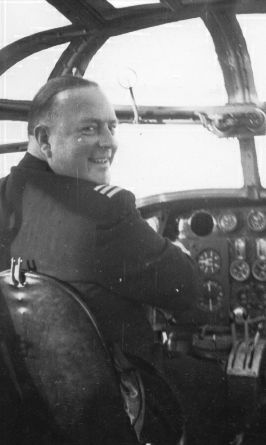 Ronnie in an Anson [ELC]
Ronnie in an Anson [ELC]"Thoroughly reliable, honest and diplomatic. Runs his station very well indeed."
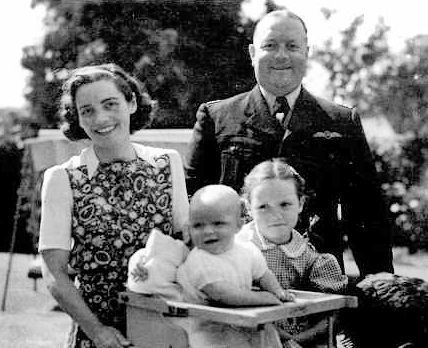
https://www.ancestry.co.uk/family-tree/person/tree/49406236/person/12982442343/gallery
Post-WWII, continued at White Waltham Airfield with the West London Aero Club.
d. 20 Nov 1947
-
Mander, Mervyn Caverhill
M.642 First Officer Mervyn Caverhill Mander 
b. 14 Jan 1910, Wolverhampton, Staffs 23 Sep 1940 (as Air Gunner)
2 Sep 1941 to 19 Dec 1944
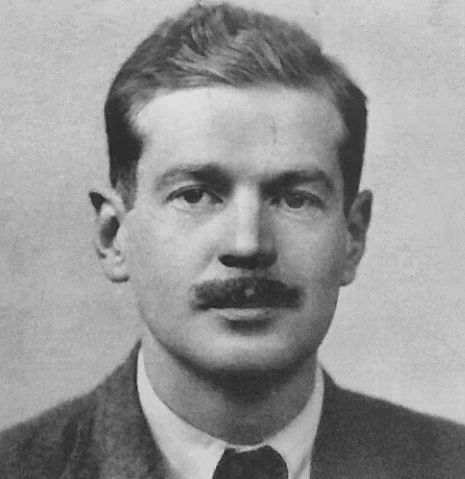 ATA
ATA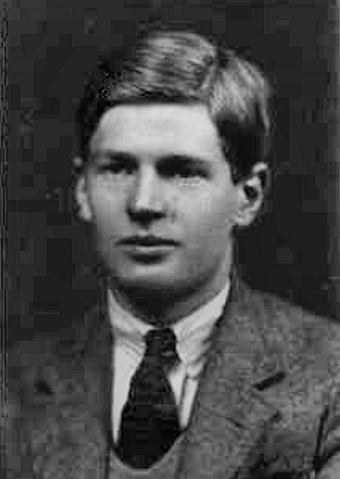 1930
1930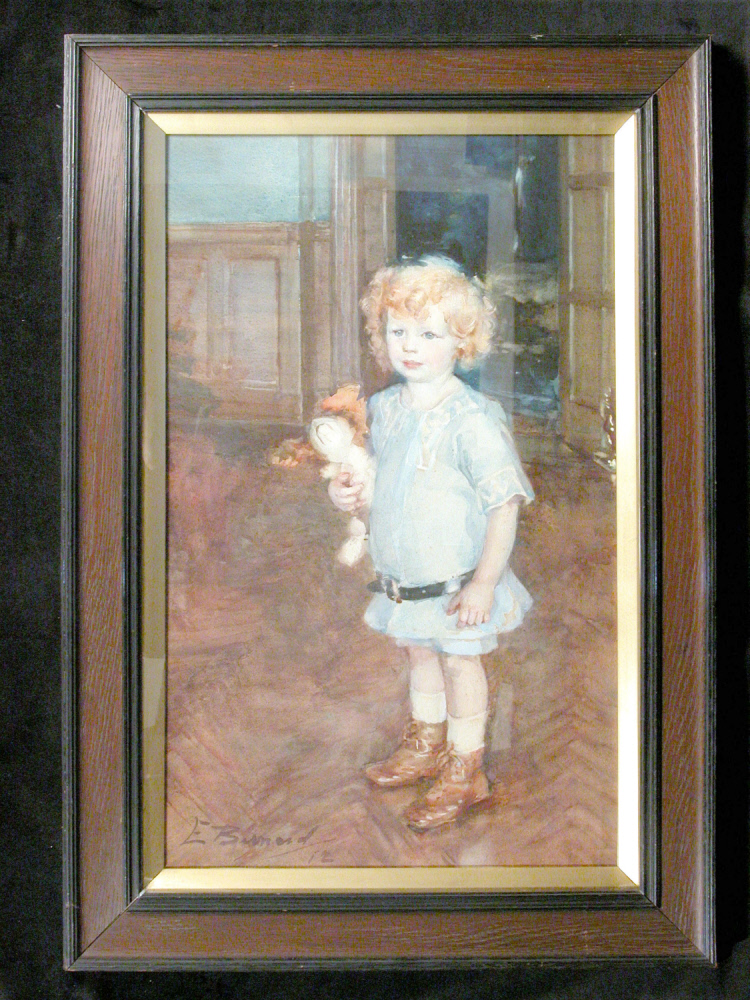 Aged 3!
Aged 3! https://www.nationaltrustcollections.org.uk/object/1288062 - Wightwick Manor © National Trust / Sophia Farley and Claire Reeves
Father:
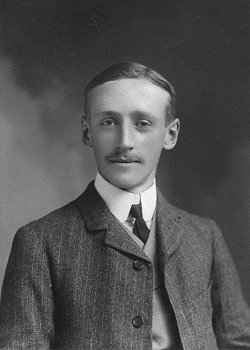
Sir Geoffrey Le Mesurier Mander KB (1882-1962), MP for East Wolverhampton 1929-1945 - see http://www.historywebsite.co.uk/genealogy/SirGeoffreyMander/Mander.htm
Mother: Rosalind Florence [Caverhill]
Ed. Harrow; Chilllon College, Switzerland; Trinity College, Cambridge; University of Pennsylvania, Philadelphia, USA
RAeC Certificate 9557 dated 8 Oct 1930, taken at Midland Aero Club
m. 29 Oct 1935, Fraulein Elizabeth Maria Dorothea [Mettlich] (one son Mervyn Nicholas Mettlich, b. 22 Jan 1943)
"He and his wife are keen swimmers"
prev. Paint manufacturer (Director of Mander Bros., Wolverhampton)

prev. exp. 50 hrs on DH Moth, Bristol Fighter and Avro 504
Address in 1940: Boningale Farmhouse, Albrighton, Salop
Later moved to Wightwick Manor, Wolverhampton, Staffs, (the house built by his grandfather, which is now owned by the National Trust):
https://www.nationaltrust.org.uk/visit/birmingham-west-midlands/wightwick-manor-and-gardens
Postings: 12FPP, 3FPP
4 accidents, 2 his fault:
- 6 Feb 1942, he taxied his Magister N3884 'carelessly' into a barbed wire fence at Hawarden
- 26 Aug 1942, his Master I T8274 was baulked whilst landing at Thornhill and he lost height and touched a barbed wire fence, instead of going round
- 11 Jan 1943, after a heavy landing in Spitfire IX EN248 at Sealand, the undercarriage collapsed on soft unflagged ground
- 5 Feb 1943, the propeller tip of his Hurricane II KX718 broke off during taxying, due to it 'picking up' a stone
"A well-behaved officer, and a good worker. As a pilot he is about average"... "A reliable pilot who uses his common sense and shows good judgement"
His C.O. at 3FPP added "F/O Mander has left the ATA for health reasons... I am exceedingly sorry that he has left"
m. 27 Nov 1952 in Bristol, Janet Prangley [Philip]
Address 1962-1978: Pond House, Wilmington, Sussex
d. 28 Mar 1978 - Eastbourne, Sussex
-
Marks, David Aaron
M --- 2nd Officer / Air Gunner David Aaron Marks 
b. 31 Dec 1909, Holloway, London 16 Oct 1940 to Dec-41
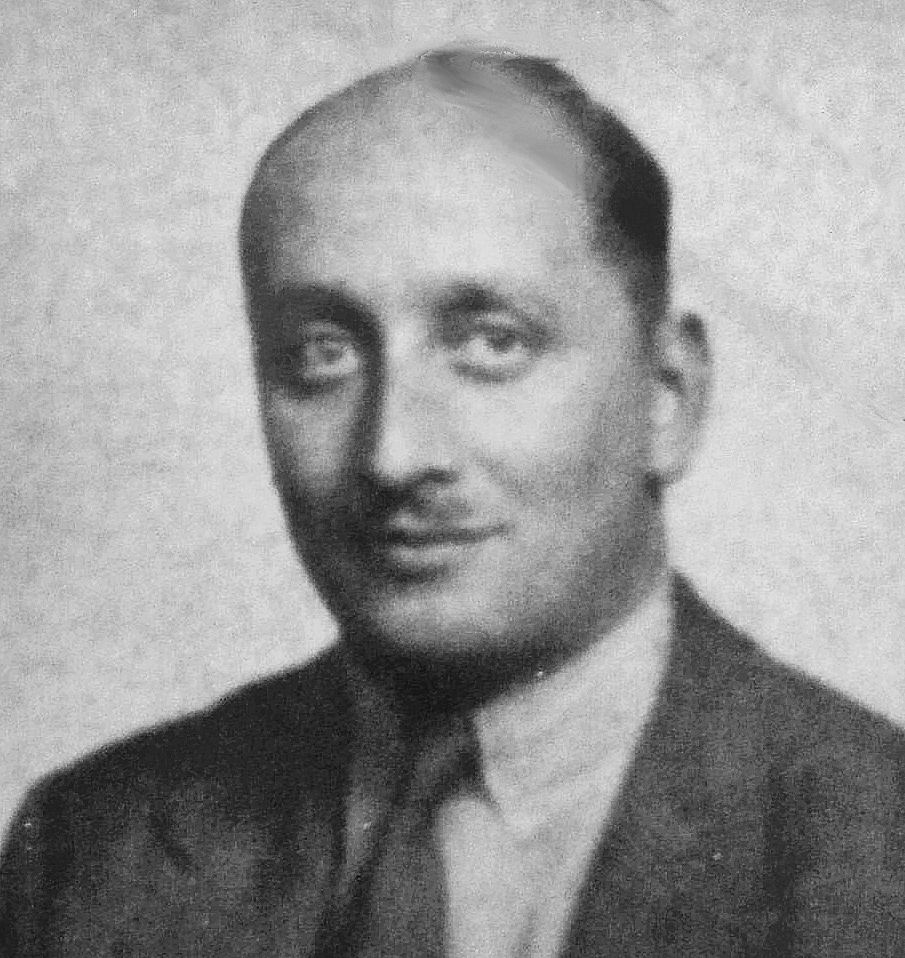
ATA
prev a Fruit Broker
Postings: 8FPP
"A keen and intelligent man"

d. 26 Dec 1941 (Died in ATA Service) - as passenger in Hudson AE489 which flew into ground at Stewarton, 15mi NE of Prestwick, in thick fog.
Pilot Lee Garlow also killed.
Buried Jewish Cemetery, Willesden NW10
"He was very popular with every one he came in contact."
-
Marks, John Arthur
M.192 Flight Captain John Arthur Marks 
b. 4 Dec 1911, Luton 3 Dec 1940 to 30 Nov 1945
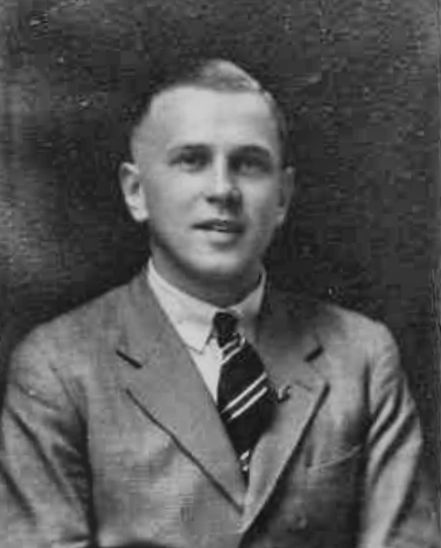 1935
1935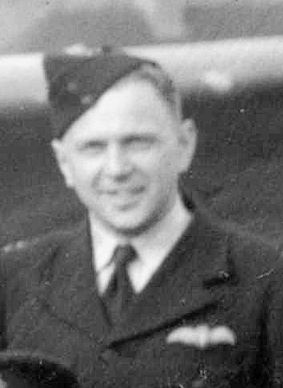 ATAM
ATAMEd. St Georges College, Harpenden
prev. wine and spirit merchant; driving instructor; Sgt. in RAFVR 1938- May 1940
m. 1939 in St Albans, Ethel [Dixon]
Address in 1940: 243 Camp Rd, St Albans, Herts
Postings: 6FPP, 1FPP
Off sick from 4 Apr to 20 Apr 1941 after an operation on his right foot.
1 accident, not his fault:
- 5 Sep 1943, he force landed his Magister after the carburettor float stuck.
"A willing, hard working instructor doing a good job on Class 2 Training. His keenness to fly at all times was a great factor in maintaining the high standard of IFTS Training."
d. 1987 - St Albans
-
Marsh, Francis Robert
M.801 Sgt / First Officer
[Seconded from RAF]
Francis Robert Marsh 
b. 17 Sep 1921, Bromley, Kent 1 Dec 1942 to 29 May 1944
Father: Francis Alexander Marsh, "Trading Business"; mother: Eliza Ann Grace [Lawrence]
m. 1942 in Bromley, Florence Elaine [Berryman]
prev. An Accountant; RAF from 21 Dec 1940 to 30 Nov 1942
prev. exp. 112 hrs on Tiger Moth, Harvard, Master, Spitfire in the UK and Canada
Address in 1944: 35 (later, 48) Roslin Way, Bromley, Kent
Postings: 3FPP, 7FPP
"Has not proved satisfactory at this Pool [3FPP]. He is slow in obeying orders and gives the impression that he feels that obedience to an order should not clash with his own convenience. As a pilot he is over confident and does not use his head."
"[7FPP] Discipline: Improved... should show more keeness in his job but otherwise handles his aircraft in what appears to be a safe manner... will not be ready for Class 4 until he loses his over-confidence"
2 Accidents:
- 18 Feb 1943, forced landing in Hart K6522 at Luton after he saw smoke coming from the engine (coolant leak)

d. 29 May 1944 - his Beaufighter NV195 disappeared on a ferry flight from Sherborne to Lossiemouth. A similar aircraft was seen (by two fishermen) to crash in the Firth of Forth at about that time, and then a fuel tank belonging to this aircraft was discovered on 30 May by a Mr. Martin Thorburn, a painter from North Berwick.
1 Jun 1944 - "Thank you for your letter received this afternoon. It was, as you say, very much of a shock for me. Somehow one expects these kinds of things with Bomber or Fighter Command but not so much with ferrying.
I suppose you have no idea how the accident occurred. Was it due to a fault in the aircraft or in the engine? Or was it the weather? He was usually very careful - more than ever lately as I am expecting a baby in September, Please give me any further information as soon as possible. Yours Sincerely, Florence E Marsh"
Their daughter Janet was duly born in September 1944.
Francis' body never being found, he was finally presumed deceased on 2 Feb 1945.
Commemorated on the Runnymede Memorial:

-
Marshallsay, Roger
M.1066 * 3rd Officer
[Seconded from RAF]
Roger Marshallsay 
b. Jul 1912, Poole, Dorset 26 May 1944 to 30 Apr 1945
m. 1939 Barbara M [Deyes]
-
Martens, John Erwin
M.284 Flight Captain (Hans) John Erwin 'Dick' or 'Dickie' Martens 
b. 5 May 1909, Weybridge, Surrey 11 Mar 1941 to 31 Dec 1945
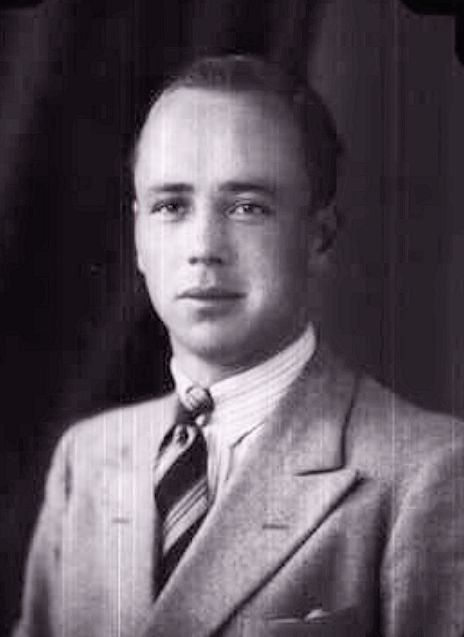 1939
1939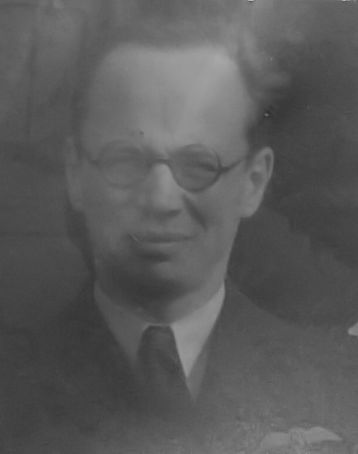 ATA
ATAFather: Erwin Gustav Martens (originally Dutch, nationalised British in 1904, d. 1937); Managing Director of the Anglo-Continental Guano Works Ltd, London
Mother: Amalia Ottile Luise Henriette 'Molly' [Joachimi], (originally from Germany),
of The Old Rectory, Rotherby, Leicestershire
[Their house in Hampstead, London, was burgled in 1916 by a William Farrer, a ship's fireman, who stole a quantity of silver goods to the value of £l40:
"He was arrested solely as a result of finger impressions on some articles of silver.
Mr. Martens said that when he went downstairs on the morning of June 13th, he found the dining-room in great disorder, the window open, and a considerable amount of silver missing. No trace of the thief could be found. Det.-Sergt. Pike stated that he found footmarks on the flower border and window-sill, and a teapot wrapped in a serviette ready for removal. A closer examination of the three articles revealed several finger impressions; he at once conveyed them to Scotland Yard and submitted them to Mr. Superintendent Col of the finger print department.
As a result of his report the prisoner was arrested on Sunday night. He declared that he knew nothing about it, but on the way to the police station he said, "I suppose this is a nark done this for me. I have been on the drink or you wouldn't have found me. It is just my luck." In his pocket the officer found a jemmy." - Marylebone Mercury]
Ed. Stowe,; Zuoz, Engadine, Switzerland; Paris
prev. Company Director (Sales) for Anglo Continental Guano Works Ltd, London and Fogan Perrard & Prentice Ltd, Ipswich; "Works carried out all over Europe"
RAeC Certificate No 16824 dated 3 Mar 1939, taken at Ipswich Aero Club
Address in 1941: 17 Wellesley House, Sloane Sq., London SW1
m. Jul 1941 in Surrey, Diana Evelyn Mary [Willoughby]:
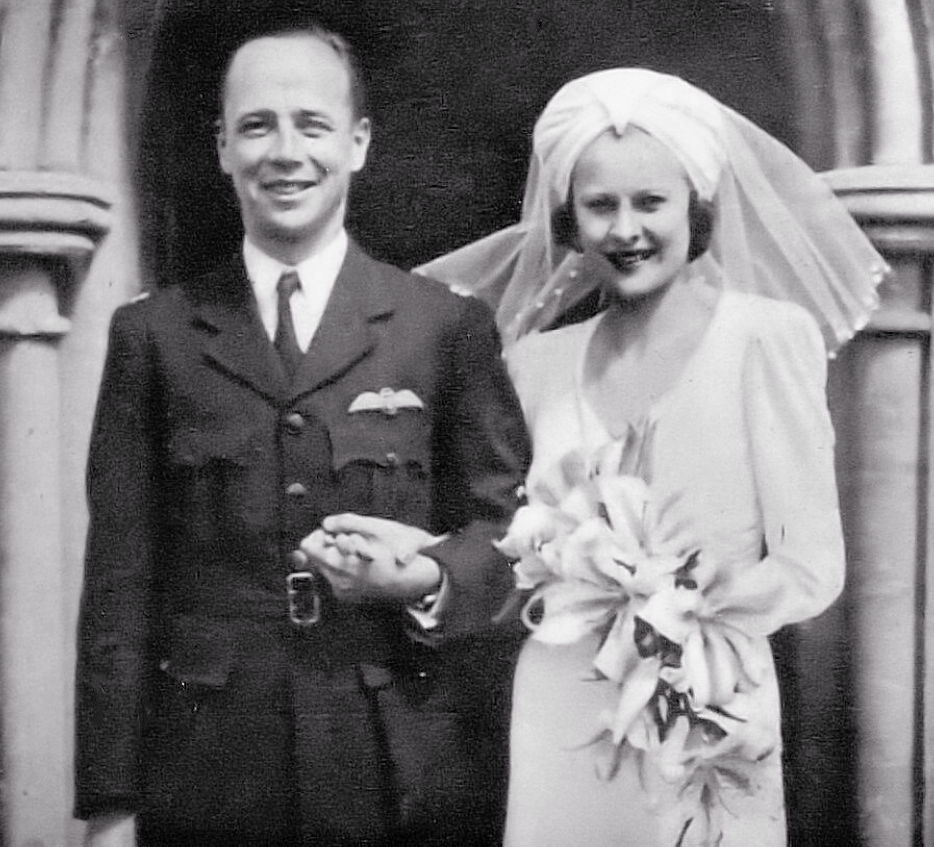 The 'Bystander'
The 'Bystander'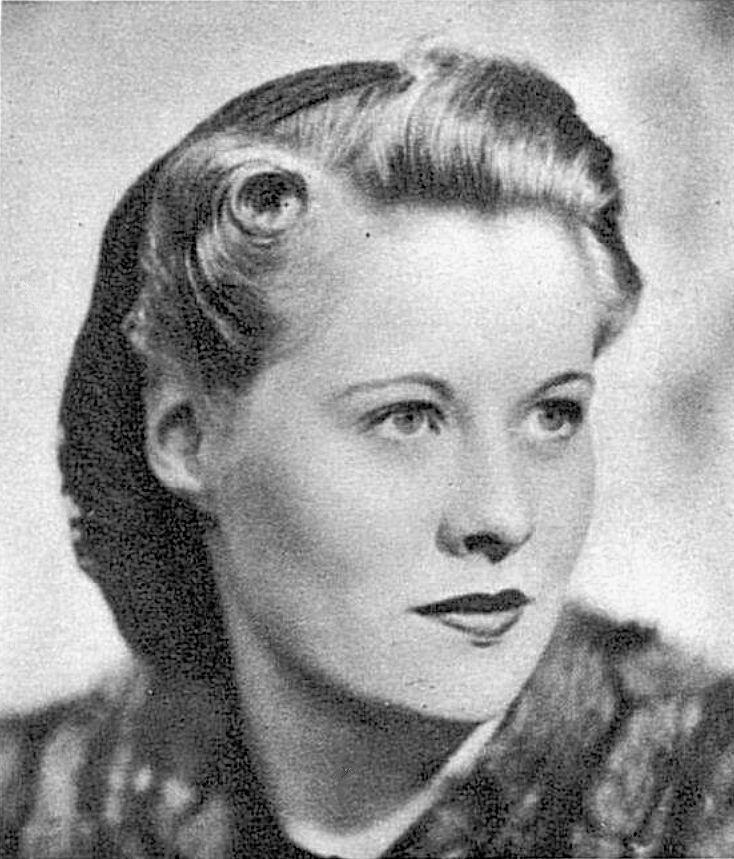 1939
1939
[Although the 'Tatler and Bystander' has her maiden name as 'Shanks']
Postings: 2FPP, 15FPP, 7FPP, 1FPP, 6FPP
Class 5 (4-engine) pilot
Reprimanded on 1 Feb 1943 for 'Late Arrival for Duty'
12 accidents, (which I think is a record, btw), 4 his fault:
- 20 Oct 1941, he over-corrected the landing swing of Tomahawk AK107 on landing at Odiham, and damaged the port wing
- 19 Dec 1941, his Hampden L4076 swung violently on take-off at Kirkbride and the undercarriage leg collapsed, due to a technical defect
- 23 Nov 1942, he made a heavy landing in Spitfire Vc ES197 at Ratcliffe, and the undercarriage collapsed
- 17 Jan 1943, he collided with a tractor at the end of the runway after landing at Brize Norton in Spitfire Vc JK123, having previously checked that it was clear
- 18 May 1943, the undercarriage of his Hampden I AD857 collapsed during landing at Sherburn. He failed to allow enough time for the wheels to lock down after an engine failure
- 16 Jul 1943, a forced landing at Scampton in Mitchell II FV925 after partial engine failure
- 16 Oct 1943, "failure of junk head in No 8 cylinder" in Lancaster II DS844, leading to a forced landing at Linton-on-Ouse
- 20 Oct 1943, Commended for "exceptional airmanship and courage" after a forced landing, after both engines failed, in Hampden I P2113. "He twice re-entered the burning aircraft, and extinguished the fire"
"On 20th October 1943 the aircraft was scheduled for delivery to 12 MU at Kirkbride for long term storage as the T.B.I's had all been withdrawn from service by this time. Flight Captain John Erwin Martens ATA, of 16 FPP, was given the job of ferrying the aircraft from Tatenhill to Kirkbride and when ten miles north of Morecambe Bay at 3,000 feet the port engine failed, the aircraft lost height at a rate of 200 feet per minute and with the air speed down to 120 mph the starboard engine failed leaving the pilot no option but to make a forced landing in a field at Tod Brow, 1 mile West of Newton, Cumbria at 13.40 hrs. The aircraft was badly damaged and part of the wrecked aircraft caught fire. Flight Captain Martens sustained minor injuries. The aircraft was not repaired from this serious damage and Cat.E2/FA was recorded on the paperwork." - https://www.yorkshire-aircraft.co.uk/aircraft/yorkshire/york41/p2113.html
- 5 Dec 1943, (another day, another undercarriage), he landed too fast in poor visibility at Tollerton in Warwick I BV448, and, as he turned off the runway, the undercarriage collapsed
- 13 Mar 1944, a forced landing in a Stirling III after an engine failure
- 2 Dec 1944, the port wing and tail of his Argus I FK348 lifted in a strong and gusty wind after landing at Bottesford, damaging the propeller and wingtip
- 10 Aug 1945, a forced landing at Church Broughton after an oil leak obscured the windscreen of his Barracuda II MX550
"An exceptionally keen and hard working pilot. His cheerfulness and willingness is a great asset to the pool"
"He still shows errors in judgement of men and is often tactless"
d. 14 Oct 1984 - Chessington, Surrey
Diana d. 1999
-
Martin, Deryck John Michael
M.811 Flt-Sgt (RAF)
[Seconded from RAF, Serial No 1292918]
Deryck John Michael 'Mickey' Martin 
b. 21 Aug 1919, Bridport, Devon 15 Dec 1942 to 11 Oct 1943
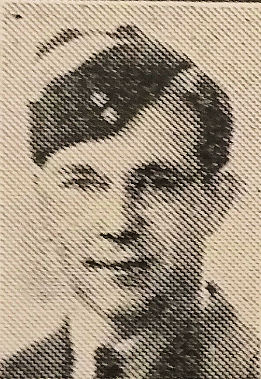
B.Sc. (Lon) at King's College, 1940
Address in 1942: 34 Marlow Rd, Maidenhead
prev. RAF 21 Oct 1940 - 15 Dec 1942
prev. exp. 127hrs in Tiger Moth, Harvard, Oxford, Wellington, in UK and S. Rhodesia
"Although the above-named member of the RAF is a clever and intelligent fellow, it is unfortunate that he suffers considerably from air-sickness. If he could overcome this difficulty, he should prove to be a very good ferry pilot."
Postings: 16FPP
17 Aug 1943, he was held to blame for a take-off accident in a Wellington.
"All through his training he has been exceptionally keen, well behaved and willing but his flying has been rather erratic and not as sensible as would be expected from his experience and intelligence."

d. 11 Oct 1943 (Died in ATA Service) in Hurricane I L2026 which crashed at Cranage Farm, Kilmany, Fifeshire, after engine failure.
buried Baptitst Chapel, Marlow Rd, Maidenhead (where his father Arthur was the minister)
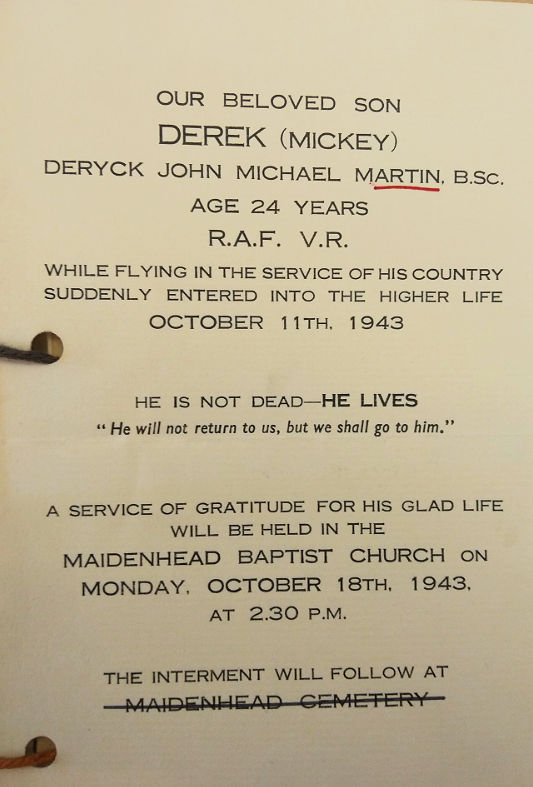
"He was a popular young man; he was a member of the Maidenhead Tennis Club and his wide circle of friends deeply mourn his loss."
-
Mason, Herbert Castle
M.64 * Captain Herbert Castle Mason MBE 
b. 30 Jul 1895, London 12 Aug 1940 to 30 Nov 1945
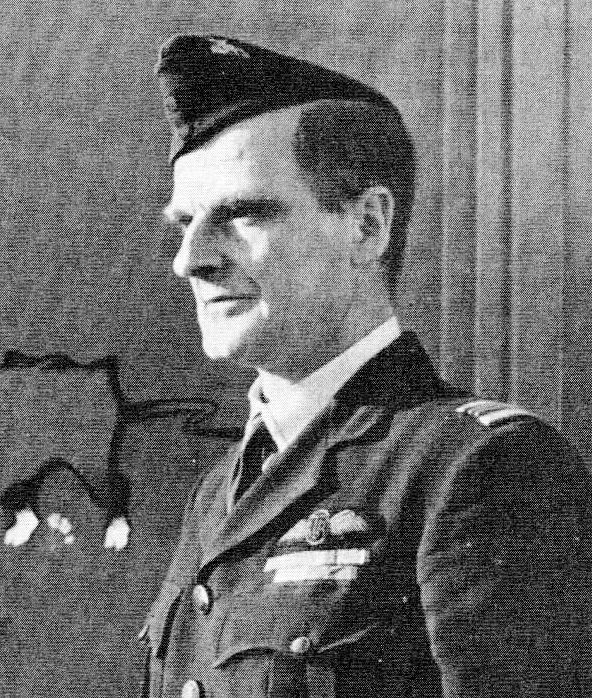 BG
BG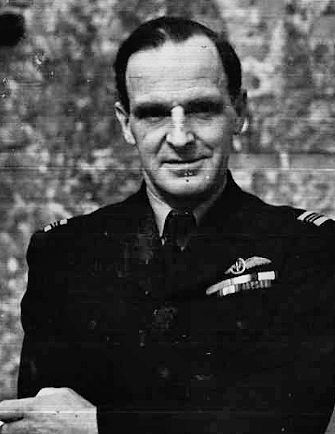 1946
1946Royal Navy and RFC in WWI
Address in 1946: Waypost House, Whitstable, Kent
Postings: Air Movements Flight
Certificate of Commendation, 1941: "When calling in at Squire's Gate on a delivery trip in March 1941, Flt-Capt Mason discovered at least 20 machines in various stages of unserviceability. On reporting this to HQ ATA he was instructed to go to Squire's Gate, make a thorough inspection and fly and dispose of aircraft as and when they became serviceable. Flt-Capt Mason found a total of 41 aircraft unserviceable at Squire's Gate and between 6th March and 16th April he succeeded in moving all these, with the exception of two. Being unable to obtain any co-operation from the RAF there in getting these machines repaired and ready for flight, Flt-Capt Mason had first to underake any work on them himself before he could fly the aircraft away. His energy and knowledge of airframes and engines were undoubtedly responsible for saving many valuable aircraft."
d. Sep 1974, Canterbury, Kent
-
Mason, Walter
M.29 Flight Captain Walter Mason 
b.18 May 1892, Bury St Edmunds 11 Sep 1939 to Nov-42
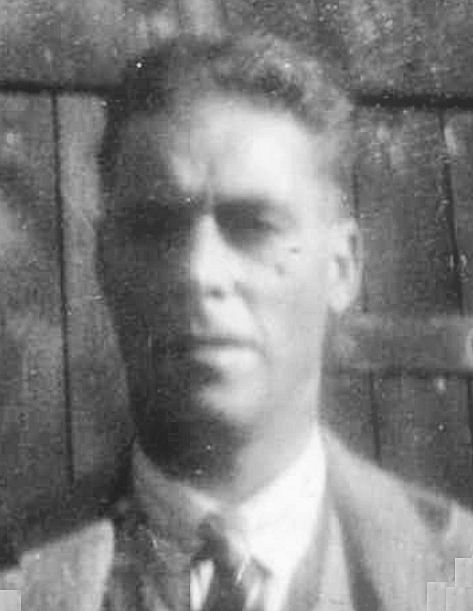
1934
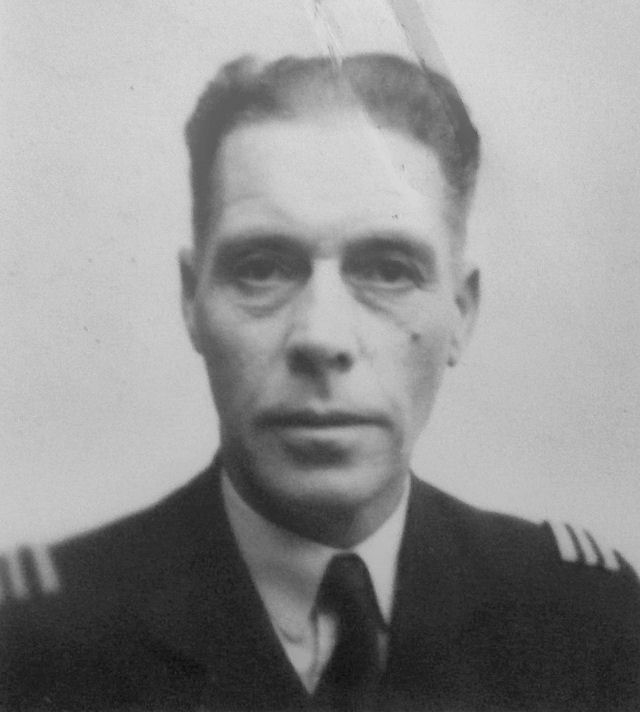
ATA
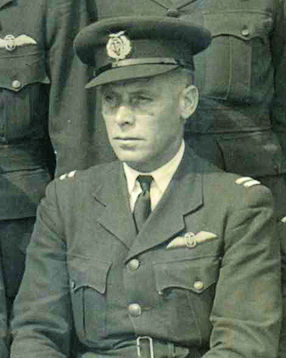 ATAM
ATAMJun 1940
1918-25 Military Accounts Dept, Puna, India
Director of Mason & Co, Military Bootmakers, Catterick Army Camp Yorks
(click to enlarge)
A "careful and conscientious, but rather nervous pilot"
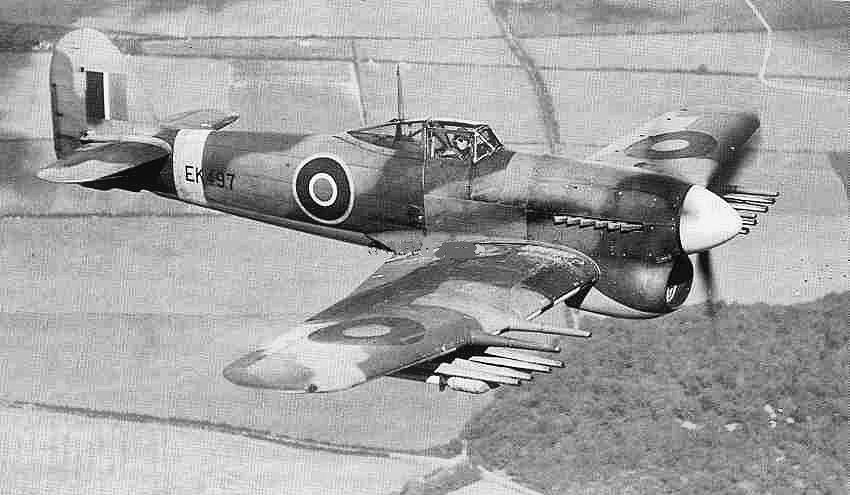
d. 21 Nov 1942 (Died in ATA Service) - Typhoon Ib DN251 crashed at Banbury Farm, 1.5 miles SW of Burwarton, Shropshire in bad visibility
This was his first accident, having safely delivered 482 aircraft.
-
Mather, Herbert Stanley
M.256 First Officer Herbert Stanley Mather 
b. 15 Dec 1915, Manchester 20 Feb 1941 to 30 Nov 1945
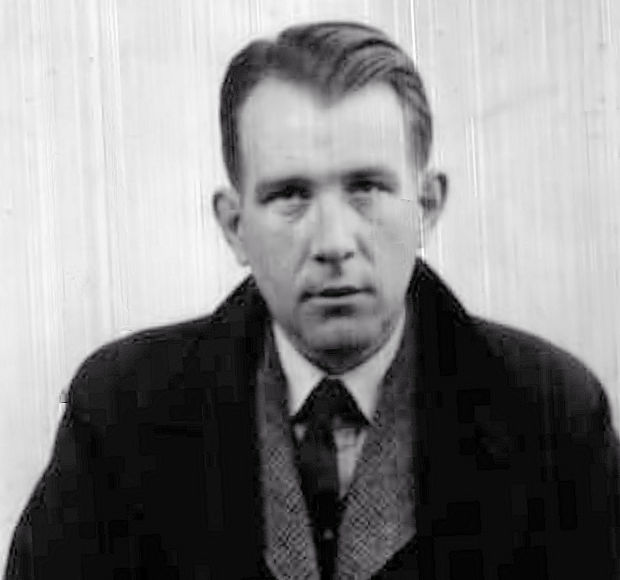 1946
1946Father: Frank Mather, Mother: Alice
Ed. Huntingdon; University College, Notts
prev. Heating and Sanitary Engineer; Sgt Pilot, RAFVR Dec 1938 - Apr 1940, based at Little Rissington
prev. exp. 54 hrs on Miles Magister, Harvard
Address in 1941: 110 Cator Lane (later 27 Gwenbrook Ave), Chilwell, Nottingham
Postings: 3FPP, 6FPP, RNAS Lee
m. 1941 in Nottingham, Olive [Tyler]
Off sick from 13 Sep to 1 Oct 1943 with 'injury to forearm', and 15 to 31 Jan 1944 with lumbar fibrositis
5 accidents, only 1 his fault:
- 29 Oct 1941, he crashed Lysander T1466 on landing at Scampton. He knew the ASI was faulty, so should not have flown the aircraft on a windy day
- 16 Aug 1942, forced landing in Mosquito IV DK288 after the tailwheel failed to lock down
- 31 Aug 1942, the escape hatch of his Wellington III X3812 blew off in flight, due to insecure fastening
- 11 Dec 1942, he crash-landed Oxford II R6034 in a field near Leicester, after complete failure of port engine in bad weather
- 20 Jun 1943, due to a hydraulic leak, he over-ran the runway at Tollerton in Boston III W8266 attempting a forced landing due to a faulty fuel warning light, damaging the nose wheel and main undercarriage
"A good type of officer & a good pilot" "Must appreciate the importance of his appearance when entering RAF Messes"
Royal Aero Club Certificate 21729, dated 4 Sep 1946, taken at Tollerton Flying Club
Address in 1970: 37 Westfield Rd, Brockworth, Gloucester
Olive d. 1988
d. 1991 - Gloucester
-
May, Elisabeth Frances (W.32)
W.32 Flight Captain The Hon. Elisabeth Frances May

b. 29 Jun 1907, Rickmansworth, Herts 1 Mar 1941 to 30 Aug 1945
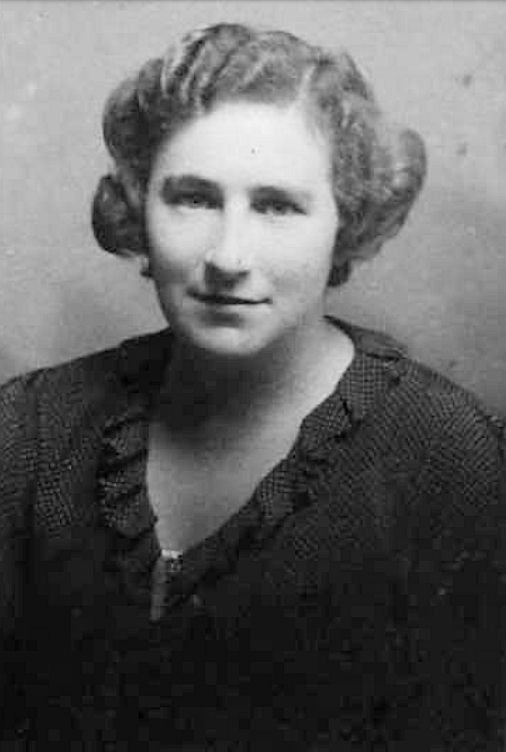 RAeC 1934
RAeC 1934
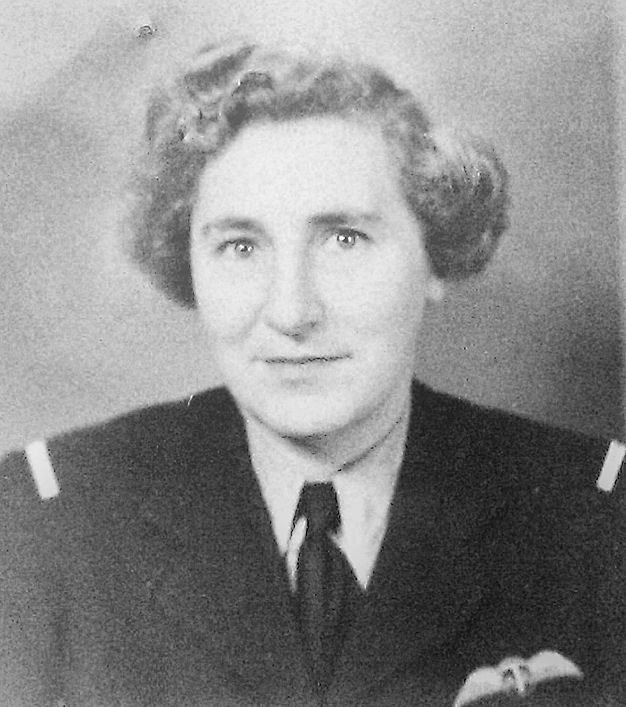 ATA
ATA Father: Lord George Ernest May, a financial expert and civil servant (d. 1946); mother: Lily Julia [Strauss] OBE
Ed. London School of Arts and Crafts
Address in 1941: Eyot House, Weybridge, Surrey. Later 42 Orchard Court, Portman Sq, London
Prev. a bookbinder; WVS; WRNS chief Petty Officer W/T Operator at Worthy Down, from Apr 1940
prev. exp 150 hrs
Postings: 5FPP, 12FPP
4-engine (Class 5) pilot
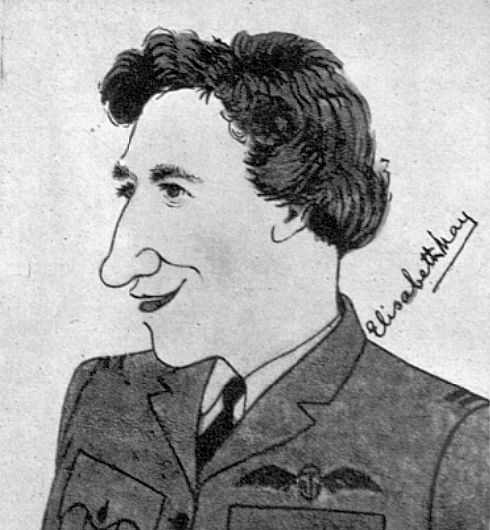 1942 caricature by 'Sammy' Clayton
1942 caricature by 'Sammy' ClaytonAt least 4 accidents, none her fault:
- 26-Aug-42, a forced wheels-up landing in Botha I L6243 after engine failure on a go-round
- 11-Dec-42, her Mosquito IV DZ405 flew into a flock of seagulls, sustaining minor damage
- 28-Jan-43, another forced landing, this time in Argus HM188 after the cowling came loose and fouled the propeller
- 16-Mar-43, a crash landing in Wellington II Z8051 after engine failure before single-engine speed had been reached. Two of her passengers (Fay Bragg and Evelyn Hudson) were injured, Evelyn seriously.
King's Commendation for Valuable Service in the Air
m. 1955 in Chelsea, George Leonard Brunton Henderson
d. 10 Apr 1995
1987 IWM Interview here: https://www.iwm.org.uk/collections/item/object/80009815
-
McDonnell, Edward
M.--- * Pilot Edward McDonnell 
b. 18 Feb 1919 - Hanley, Staffordshire 23 Feb to 6 May 1941
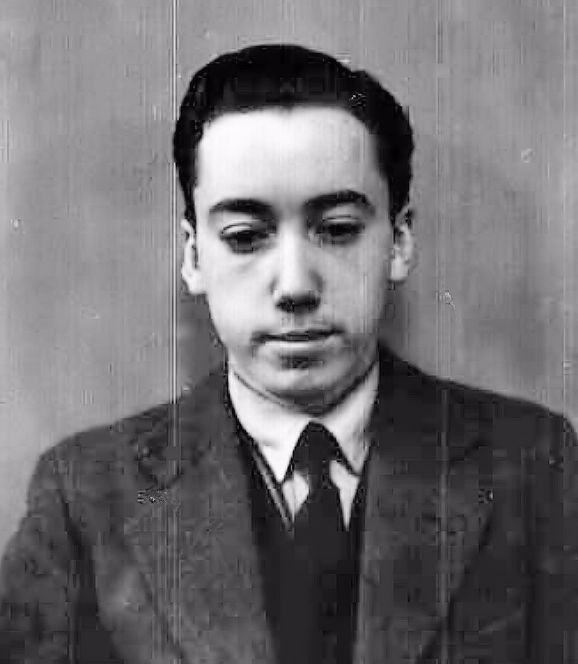 1939
1939Address in 1939: 22 Quarry Rd, Stoke-on-Trent, Staffs
RAeC Certificate 16862 dated 7 Jan 1939, taken at North Staffordshire Aero Club
Postings:
poss. m. 1957 Mavis E [Higgins]
poss. d. 4 Mar 2012
* File not seen
-
McDouall, Ferdinand Huth
M.525 First Officer Ferdinand Huth 'Mac' McDouall 
b. 10 Mar 1905, London 10 Jun 941 to 30 Nov 1945
 1933
1933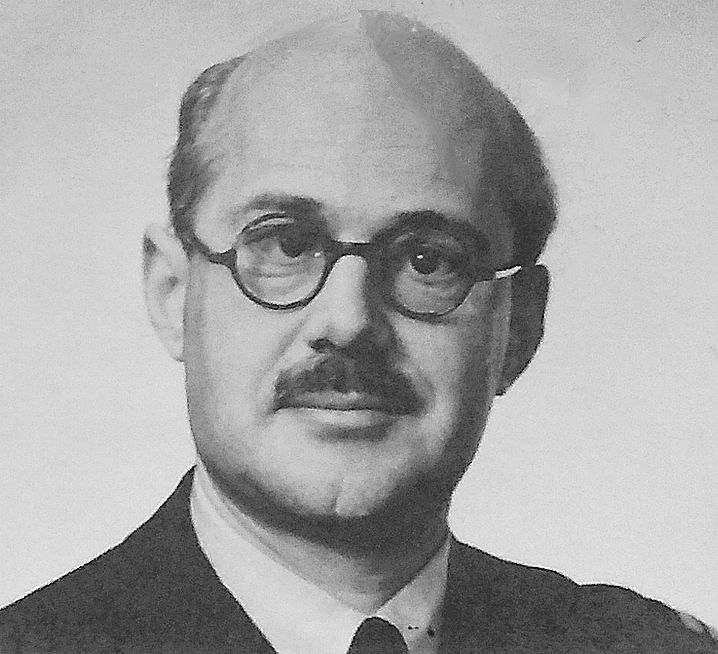 ATA
ATA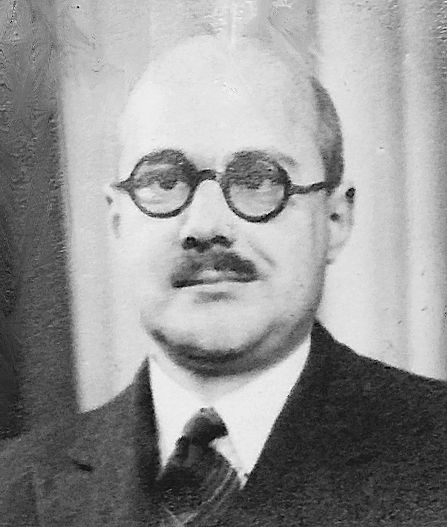 ATA
ATAEd. Malvern College
m. 1931 in Folkestone, Lilian Hall [Saville]; "The bride has been a popular and enthusiastic worker on behalf of the Junior Imperial League since going to Folkestone in 1927, and the bridegroom is a director of the Kent Air Services." - Rugby Advertiser
RAeC Certificate 11038, dated 9 Apr 1933 taken at Kent Flying Club on DH Moth
prev. of 'independent means'; RAFVR, Sgt Link Trainer 1940-41
prev. exp. 127 hrs on Gipsy Moth, Miles Hawk, Tipsy, Sopwith 2-strutter
Address in 1941: Cedarcote, 5 College Rd, Petersfield, Hants
Postings: 15FPP, 7FPP, 3FPP, 1FPP
3 accidents, all his fault:
- 7 Jun 1942, after a bad landing in a Hurricane, the aircraft turned over onto its back
- 28 Feb 1944, he hit the funnel of a steamroller whilst taxying in a Wellington
- 4 Jan 1945, he struck a notice board with his propeller whilst taxying his Spitfire XXI LA218.
Off sick from 7 Jun to 12 Oct 1942 after his accident
"A pleasing personality & a keen and willing worker", "although a trifle under-confident is aware of his shortcomings and should not get into any trouble"
d. 17 Jun 1990 - Maidenhead
-
Mead, John Denys
M.799 * 3rd Officer John Denys Mead MBE 
b. 24 Sep 1901, Woodford Green, Essex 25 Nov 1942 to 10 May 1943
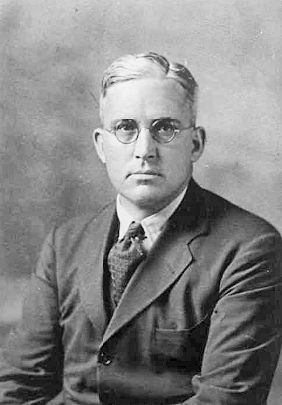 1932
1932prev. a Mining Engineer
Address in 1932: c/o Messrs. Osborne & Chappel, Ipoh, Perak, F.M.S. (Malaysia)
d. 27 Sep 1980, Eastbourne, E Sussex
-
Meadway, Percival Henry
M.769 * 2nd Officer Percival Henry Meadway 
b. 8 or 11 Nov 1904 or 1905, Sevenoaks, Kent 1 Jul 1942 to 31 Dec 1942
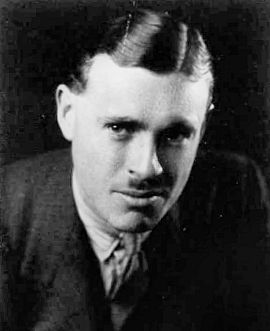 1930
1930prev a Flying School Promoter.
Address in 1930: The Billet House, Ash, Sevenoaks, Kent
m. 1931 Doris E M [Burgess]
Formed the West Kent Aero Club at West Malling in 1931; "at present he has a Moth (Gipsy) and an Avro 504K, and Mr. C. G. Hancock will be his chief pilot and instructor." Flight
Pilot Officer, RAF 1932, F/O 1934-37
Accident Report - 22 Dec 1942, when in the Training Ferry Pool; he landed on an unmarked, unserviceable area at Gravesend, his Spitfire II went through barbed wire, crossed a road and nosed over, damaging 'one propeller blade'.
Chief Pilot of Transair in 1954
Cleared of taking off in an overloaded [by 400kg, allegedly] DC-3 belonging to Starways Ltd in 1960; Flight reported that he said "As a pilot trained in the old school, my first consideration is for the safety of my passengers. If this extra weight had been present, I could not have helped noticing it."
d. Sep 1975, Chichester, W Sussex
-
Merton, Gerald
M.661 * Flight Captain Gerald Merton M.C. Ph.D., F.R.AS. 
b. 21 Jan 1893, London 25 Nov 1941 to 3 Aug 1945
[no RAeC photo, 1915]
Address in 1915: Folly Farm, Sulhampstead, nr Reading
RAeC certificate taken on a Wright Biplane at Beatty School, Hendon
Lieut., RFC in WWI;
Military Cross 1917: "Whilst on reconnaissance he attacked and drove down a hostile machine. Later, although his machine was badly damaged, he succeeded in regaining our lines."
Chairman of the Air League Executive in 1930
d. 4 May 1983, Oxford
-
Mertz, Patrick John Henry
M.--- * 2nd Officer Patrick John Henry Mertz 
b. 16 Mar 1917, Hastings, Sussex 19 Feb to 5 Mar 1941
Mother: [Reeve]
RAFVR
Fought in the Spanish Civil War, 1936: "Charles Kennett, middle-aged, black-haired ex-war pilot, and Patrick Mertz, blond, 23-year old ex-RAF Reserve flier, are the survivors of the four British pilots I watched leave Victoria [station] five weeks ago. Mertz has a scar gashing his left cheek. 'We are lucky to get back alive' they said, 'it has been plain murder... we were flying 1916 Martinsyde fighters against German and Italian regular air force trained men in 1936 Heinkels and Fiats. We hadn't a chance.'" - Newmarket Journal - Saturday 10 October 1936
m. 1938 in Southampton, Hazel M [Semadeni]
Postings:
m. Jul 1948 in Gloucestershire, Barbara B [Blakeway]
Resident in USA from 30 May 1954 (naturalized 1959)
m. 30 Oct 1955 in Las Vegas, NV, Blanche Janie [Wilson] (b. 1922 in Kentucky) (one son John, b. 6 Oct 1956)
d. 12 Apr 1976 - Pismo Beach, CA
* File not seen
-
Micklethwait, Marian Adelaide (W.---)
W.--- 2nd Officer Marian Adelaide Micklethwait
nee Talbot

b. 7 Dec 1908, Kensington, London 25 Jun 1940 to 25 July 1940
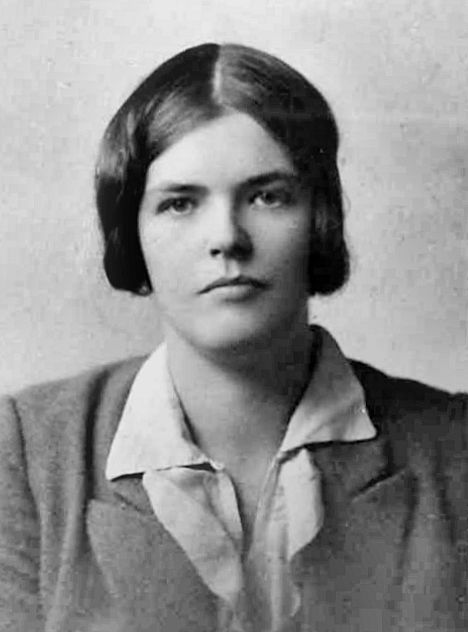 1931
1931Father: Bertram William Chetwynd Talbot (a member of the familty that included the Earls of Shrewsbury and the founder of Talbot motorcars)
Address in 1931: 361 Spen Lane, Headingley, Yorks
m. 1929 in Wiltshire, John Raymond Micklethwait
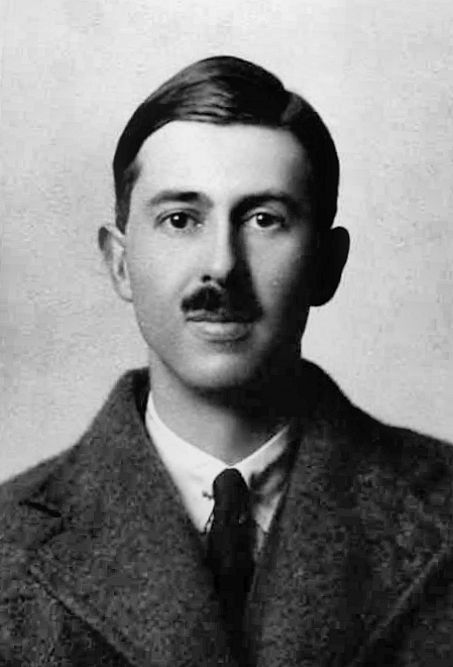 also a pilot ("a popular local owner") who won the Grimthorpe Trophy in 1934, and the Yorkshire Trophy the same year at an average speed of 104.5 mph. He owned G-AAFK, a 1929 DH60G Gypsy Moth, and then G-ABHM, a 1930 DH60G Gypsy Moth, which they used to tour Spain in 1934.
also a pilot ("a popular local owner") who won the Grimthorpe Trophy in 1934, and the Yorkshire Trophy the same year at an average speed of 104.5 mph. He owned G-AAFK, a 1929 DH60G Gypsy Moth, and then G-ABHM, a 1930 DH60G Gypsy Moth, which they used to tour Spain in 1934.
Lived at 'The Old Mansion', Bisley, Stroud, Glos 1951-53
Husband John d. 1966 in Rhodesia
d. 1 Jun 1992, Mutare, Zimbabwe
-
Miller, Daphne Alfreda (W.117)
W.117 3rd Officer Mrs Daphne Alfreda Miller 
b. 18 Jun 1919, Ramsgate 25 May 1943 to 31 Apr 1945
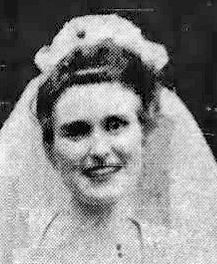 1945
1945Father: Alfred Edward Miller, mother: Elizabeth Florence [Nott]
Ed. Clarendon House, Ramsgate
prev. Secretary
Address in 1943: 6 Bellevue Rd, Ramsgate, Kent
[ab initio pilot]
m. 17 Mar 1945 in Eaton Sq, London, Lt. John Keith Rumball(b. 1922 in Ontario, Canada, wounded in Italy Sep 1944)
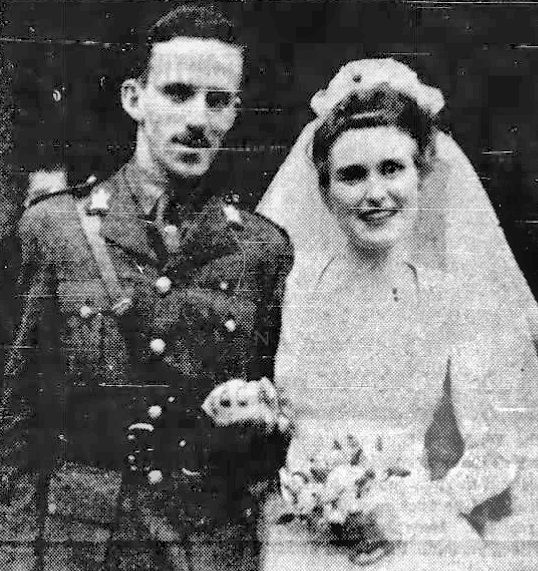
"She is expected to follow Lieut. Rumball to Canada some time in the future"
d. 10 May 2014 - Victoria, BC, Canada
-
Milliken, John Christopher
M.831 Flt-Sgt
[Seconded from RAF]
John Christopher Milliken 
b. 19 Sep 1922, Upton-upon-Severn, Worcestershire 6 Jan 1943 to 20 Aug 1943
Father: Mr Herbert Ernest Milliken (a farmer turned "broadcasting official"), mother Charlotte Jane [Goodbody]
prev. a farmer
prev. exp. 125 hrs in Stearman, Vultee, Harvard, Oxford, Wellington (some of this in Georgia and Alabama, USA - he trained at the Chicago School of Aviation in Albany, GA from August 1941)
RAF Sgt from 4 May 1941, based at RAF Shawbury and Lossiemouth; suspended due to 'inability to see & fly well at night"
Address in 1943: Bicknell Farm, Blagdon, nr Bristol
Postings: 5TFPP
"Has worked hard throughout [his Class 3 & 4 training] and although he started rather poorly has proved quite steady and should make a good type of ferry pilot. Average ability."
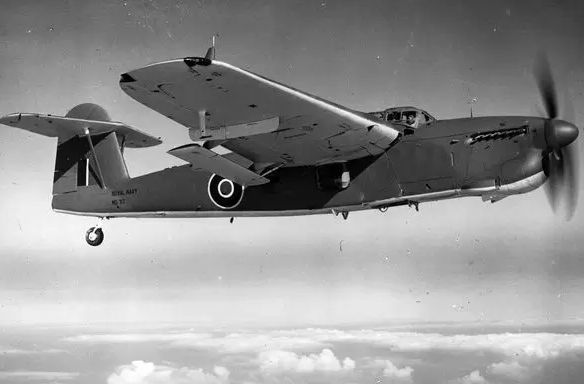
d. 20 August 1943 in Barracuda II BV759, which crashed in a field nr. Rufford Bombing Range, Mansfield, Notts after engine failure following a carburettor fault. Delivery from Blackburn Aircraft, Brough, to 15 MU (RAF Wroughton, Wilts)
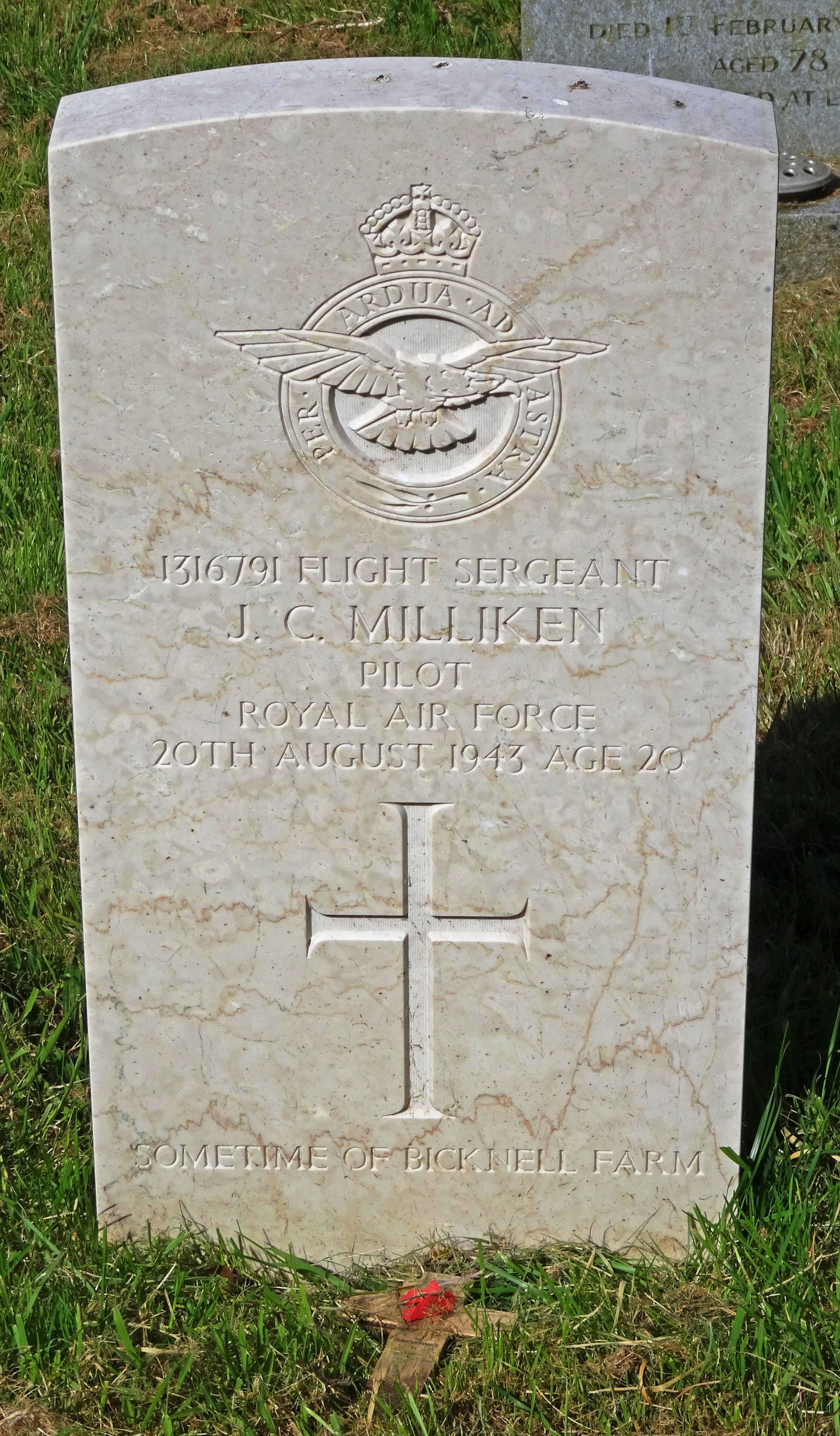 "1316791 Flight Sergeant J C Milliken. Pilot, Royal Air Force. Sometime of Bicknell Farm"
"1316791 Flight Sergeant J C Milliken. Pilot, Royal Air Force. Sometime of Bicknell Farm"Buried St Michael and Angels Churchyard, Butcombe, Somerset
-
Mills, Eric David
M.---- Cadet Eric David Mills 
b. 19 Jun 1907, Manchester 10 Jun 1941 to 28 Jun 1941
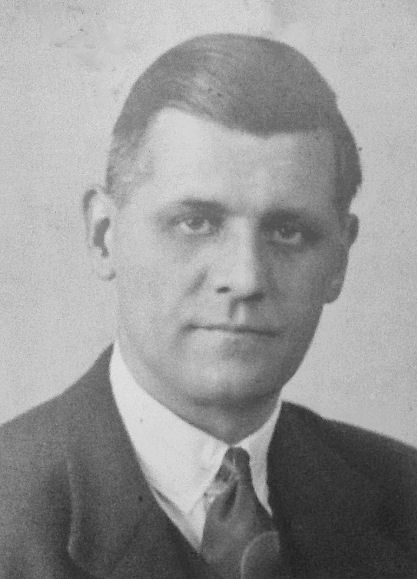
ATA
F/O in RAF 1928-32
prev. in Advertising with Chestor Studios, London

d. 28 Jun 1941 (Died in ATA Service) - in Miles Magister P2402 (William Hampton, the pilot, fractured his skull) which collided with Fairey Battle R7372 while both were landing. George Kemp (see above) and Philip de Walden Avery (see above) in the Battle were uninjured.
buried Marylebone Borough Cemetery
-
Milson, James
M.1043 3rd Officer James Milson 

b. 2 Dec 1911, Chilton, Co. Durham 27 Dec 1943 to 15 Nov 1944
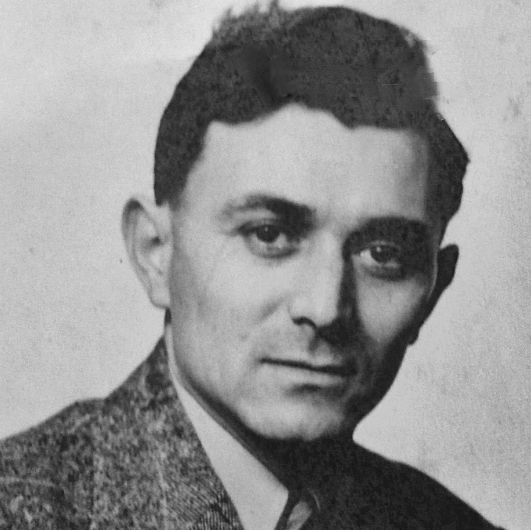 ATA
ATAFather: William Sowerby Milson, mother Frances [Evans]
Ed. "Public School"
He emigrated to Canada in May 1928, describing himself as a "Pony Driver" looking for "Farm Work"
m. 1935 in Swansea, Canada, Myrtle Davina [Geldart]. She was 18, also from Durham, England but had moved to Canada as a one-year-old. They had one son, James William, b. 1935
prev. cleaner; cutter grinder for John Inglis Co.
Address in 1943: 5 Emmett Ave., Mt. Dennis, Ontario, Canada
"He came to Canada some fifteen years ago and, under local regulations, is now considered to be a Canadian citizen. In view of this and the fact that he has a home and family over here, it was felt that he should be offered a Dominion Contract."
He was the last American or Canadian pilot taken on by the ATA : "We felt morally obligated [to him] at the time overseas recruitment ceased."
Postings: 5TFPP, 16FPP
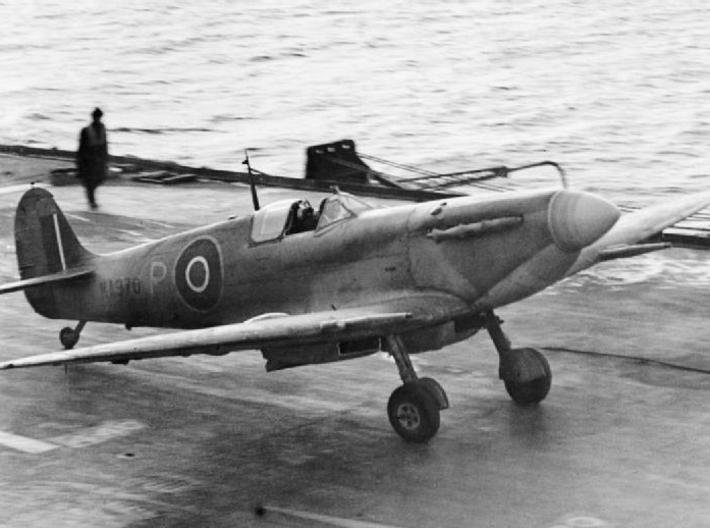
d. 15 Nov 1944 when ferrying Seafire III NN494 from Kirkbride to RNAS Donibristle, which crashed at Pettinain near Carstairs in South Lanarkshire, Scotland. The crash happened as he broke out of cloud in a snowstorm and hit the ground near Grange Hall Farm.
He was judged to be 'at fault', having persisted too far in bad weather.
Buried Tudhoe, Co. Durham:
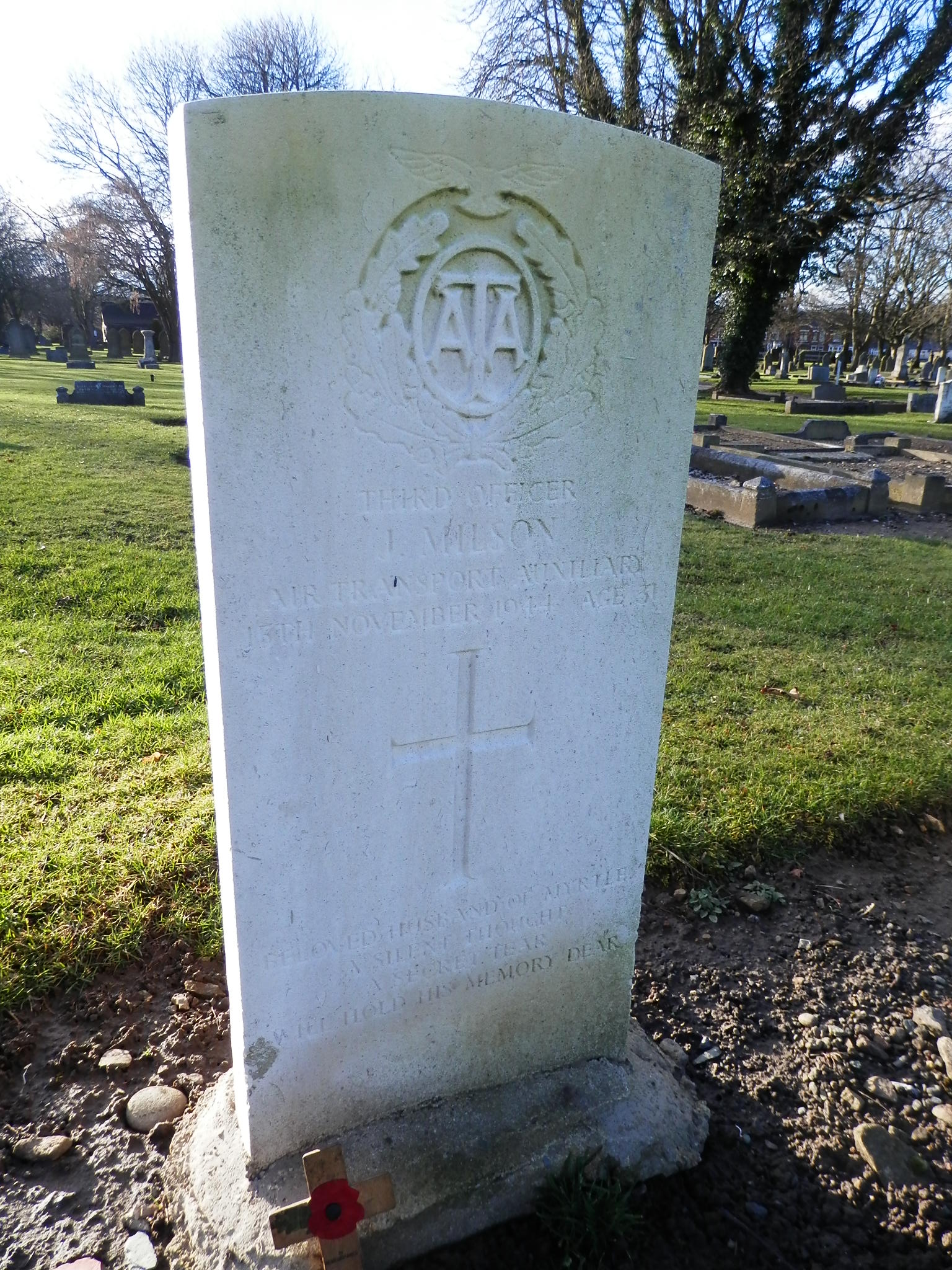 findagrave.com
findagrave.com"Beloved husband of Myrtle
A Silent Thought
A Secret Tear
Will Hold his Memory Dear"
"Those connected with [the ATA] who had cause to know T/O Milson thought very highly of him and deeply regret his untimely end."
-
Mitchell, Stanley Eric
M.285 First Officer Stanley Eric Mitchell 
b. 26 Aug 1918, Hastings 24 Feb 1941 to 25 Sep 1941,
30 Jan 1942 to 6 Sep 943
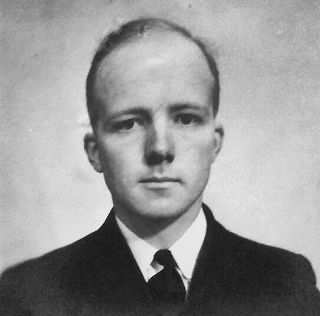
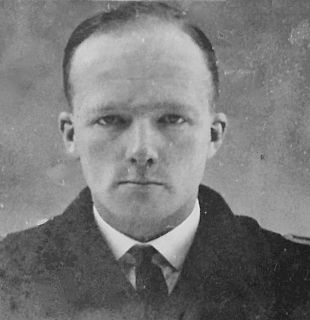 ATA
ATAFather: Thomas Edward Mitchell, a Hotel Keeper; mother,Ada Agnes [Clements],
Ed. Clarks College, Ealing
prev. Royal Navy; Air Branch RNVR 21 Feb 1939 - 6 Jun 1940 then Sub-Lt, RNVR (HMS Tormentor, Warsash, Hants)
"Suspended from flying duty due to a failure to complete the fighter deck landing course"
prev. exp. 122 hrs on Hart, Master, Skua, Roc, Gladiator
m. Oct 1941 in Somerset, Tessibel Maria [Phillips] (b. 1922 d. 2015)
Address in 1941: Worcester House, West Hill Rd, Bournemouth.
In 1942: Glen House, Saltford, Somerset
Postings: 2FPP, 8FPP
On 26 September 1941, the contracts of 4 pilots were terminated and they were taken on by BOAC, "for special work":
"I have instructed First Officers Worcester, MacCallum, Thornhill and Mitchell to report to you immediately... these are the officers I have selected from the applicants for duty in Africa and I feel pretty certain the first three will prove entirely suitable... Mitchell I am not so sure about..."
but three of them (Worcester, MacCallum, and Mitchell) were given three months notice after a few weeks, and reverted to ATA.
"An average pilot whose general flying is satisfactory, but he should pay more attention to accuracy, His accidents do not appear to have affected his flying, although he did show signs of nervousness with the Blenheim"
"Very keen to get on with the job"
In August 1942 he delivered 42 aircraft; his C.O. Leonard Leaver said, "I must admit it is a heavy month's work"
"He has been of great service to the ATA"
6 accidents, 4 his fault:
- 29 May 1941, pilot error in a Spitfire caused the selector lever to stick
- 29 Jan 1942, forced landing (due to running out of fuel, not his fault) in Hereford L6100, with undercarriage retracted . [A complaint was also lodged against him, for taking off from the wrong runway]
- 12 Apr 1942, uncontrolled swing when landing Beaufort IN1105 too fast, caused an undercarriage leg to collapse
- 5 Jul 1942, he had engine trouble with Beaufighter EL235 and overshot the forced landing, striking telephone wires and stalling (not his fault)
- 20 Jul 1942, heavy landing in Hurricane IIc HV310 and broke an undercarriage leg
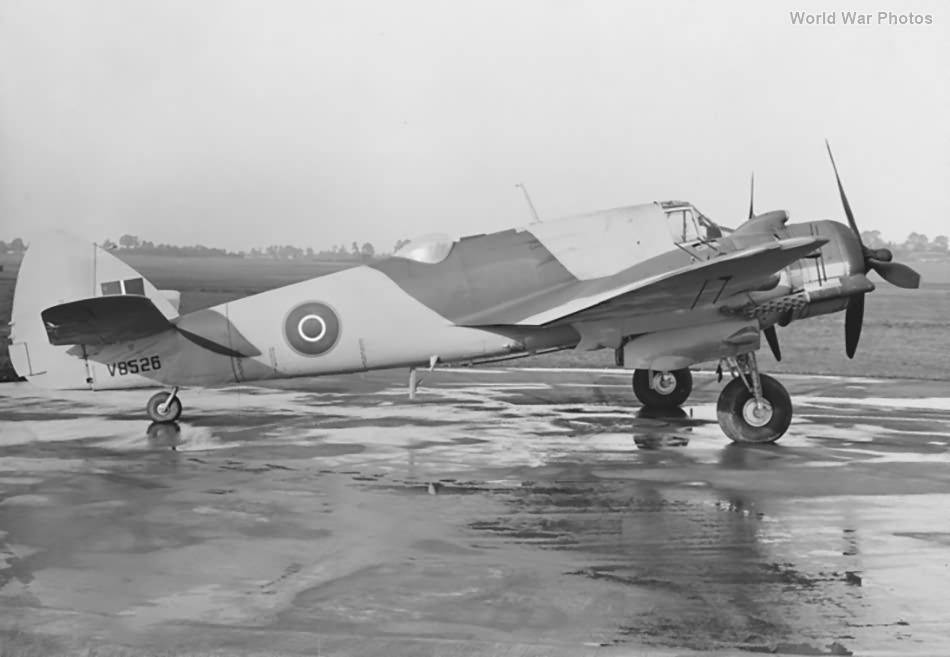
d. 6 Sep 1943 in Beaufighter VIF ND173 at St. Athan. He took off with the tail trim fully aft; the aircraft climbed steeply then stalled and crashed.
Cremated at Pontypridd Crematorium
He died intestate, so his wife Tessibel inherited his estate of £1,400, (which included the £2,000 insurance provided by the ATA).
-
Mogridge, Edward Courtenay
M.538* Flight Captain Edward Courtenay Mogridge MBE 
b. 1 Jun 1893, Scalford, Leicestershire 20 Jun 1941 to 31 May 1945
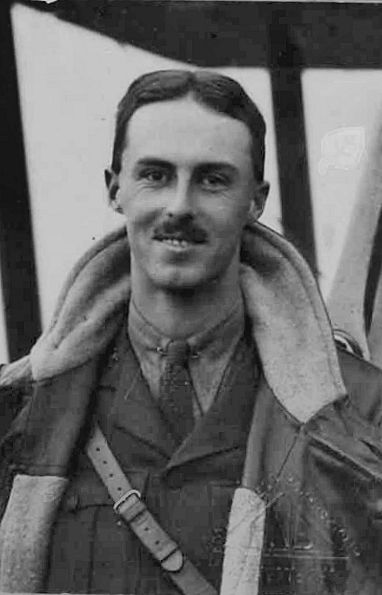
c. 15 October 1917, when a Lieutenant in the 5th Royal Irish Rifles
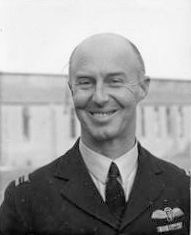 MAMM
MAMMFather: Rev. Henry Twells Mogridge M.A. (d. 1922), Mother Frances
Address in 1917: Scalford Vicarage, Melton Mowbray, Leicestershire
WWI; France from 11 Mar 1916; 2nd-Lieut. in 74th Co. MGC; Lieut. in 5th Irish Rifles, RFC.
Here are his medals and RFC 'Wings':
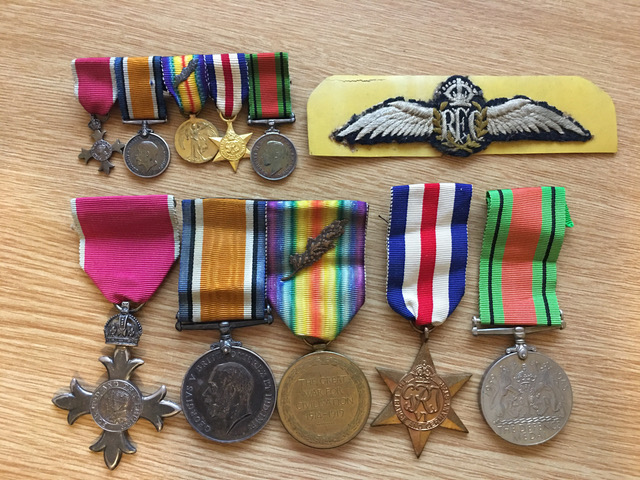
Address in 1920: 21 Wear Bay Crescent, Folkestone
Address in 1941: 58 Andover Rd, Newbury, Berks
He wrote to the ATA in March 1941:
"11 March 1941
The Ministry of AIRCRAFT PRODUCTION,
Room 101,
LONDON.
Gentlemen,
With reference to the Marquess of Londonderry's broadcast appeal for ferry pilots under 50, I should like to be considered if the response has not provided the number required.
I shall be 48 in June, and had 300 hours solo in the last War, but have not flown since 1919, though I feel confident I should quickly respond to instruction.
I am single and without any family responsibilities, and would be prepared to go anywhere after release from my present duty of Bank Manager.
Air Commodore A. J. Capel (Holborn 3434 ext. 250) will remember me in the days of the old 94 Squadron."
and presumably it was the Air Commodore who wrote back to him on the 9th May:
"Headquarters, No 20(T) Group,
Royal Air Force,
Buntingdale Hall,
Market Drayton,
Shropshire.
Dear Mogridge,
Many thanks for your letter of the 4th May. I have already heard from Air Transport Auxiliary asking for your credentials, and I have given you a good recommendation, and I have heard this morning that they have received it.
I was very glad to hear that you have already had your test, and have passed it. I think in the old days you used to be able to land most times without damage to the aircraft or yourself, and so I hope you will manage to keep that up now with modern aircraft.
Don't forget that it is absolutely necessary now-a-days to know thoroughly what is known as 'cockpit drill'; that is to say, whereas in the old days there was practically nothing to learn about a new machine except the position of the petrol taps, now-a-days, with flaps, slots, retractable undercarriage, etc., it is necessary to know intimately all the gadgets in the cockpit before it is safe to take off..."
Brief Glory says "Flt-Capt E C Mogridge, had an outstanding career in ATA, which he joined at the age of 48. He served overseas as a fighter pilot in the first war and then returned to his civil occupation with one of the big five banks. Twenty-three years later, while manager of a country branch in Berkshire, he heard Lord Londonderry's appeal for pilots, and although he had not been in the cockpit of an aircraft between the two world wars, promptly volunteered for service and was accepted."
Postings: 1FPP, 5FPP
"He brought to his career in the ATA all the meticulous efficiency which had made him the ideal bank manager and, working steadily through from light aircraft to four-engined bombers, became in turn almost the ideal ferry pilot."
7 accidents, 2 his fault :
- 25 Jan 1942, he made a normal landing in his Hurricane but it blew over in a gusty wind whilst taxying;
- 14 Jul 1942, when he failed to lock the tail wheel of a Mustang before landing and swung violently, damaging the undercarriage and wingtip;
- 29 Nov 1942, the port wing of his Anson hit a telegraph pole 'six feet from the edge of the perimter track'
- 24 Feb 1943, he made a normal landing in a Wellington, but the aircraft tipped over onto its nose due to the brakes binding;
- 28 Mar 1943, he landed back at Hawarden after the undercarriage of his Wellington failed to retract, due a broken hydraulic pipe.
- 17 May 1943, the port hatch and sliding canopy of his Brewster Bermuda were found to be damaged on delivery, due to insecure fastening
- 3 Aug 1944, he damaged the propeller tips when they hit the ground during his take-off run on a very rough surface in a Spitfire IX
By the end of 1945, he was "back in his office in Newbury and had already in exasperation told a temporary clerk that she was the 'sort of absent-minded person who would land with her undercarriage up.'"
d. 23 Apr 1974 - Exeter, Devon
With many thanks to Mark Mogridge for sending me some of his great-uncle's documents and the medals photo.
-
Moore, Ruth Margaret (W.40*)
W.40 * First Officer Hon. Mrs Ruth Margaret Moore

b. 8 Nov 1909, London 15 Apr 1941 to Apr 1943
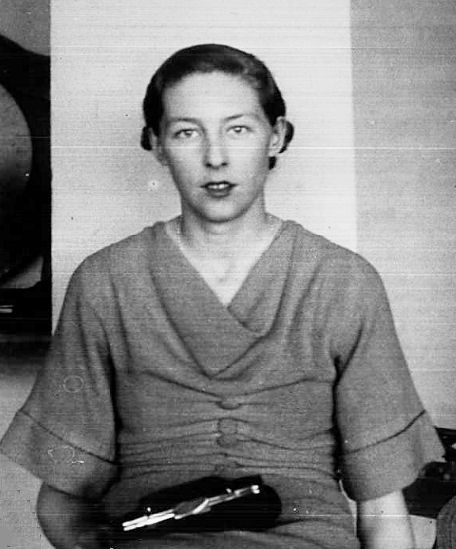 RAeC
RAeCnée Cokayne
Father: Brien Ibrican Cokayne (d. 1932), Mother: Grace Margaret [Marsham]
In 1937, she and Ruth Lambton took a 'light-hearted summer tour' to Budapest (via Brussels, Cologne, Munich, and Salzburg) in a Gipsy Moth; a trip which they reckoned cost them about £55 each in total.
 Ruth C (l) and Ruth L (r) ('Flight')
Ruth C (l) and Ruth L (r) ('Flight')They muddled along in a breathless, schoolgirlish sort of way. In Frankfurt, all their possessions were confiscated but then "we found ourselves in the officers' mess, where the entire squadron shook our hands with the utmost solemnity, clicked heels, Heiled Hitler and gave us lunch! Another round of handshakes, our belongings were duly returned to us, and we Heiled Hitler gratefully ourselves as we took off"
Address in 1939: Blythe Rd, Worksop, Notts
prev. Motor Sales
m. 17 Oct 1939 in Chelsea, Capt. Robert William Alfred Moore, Royal Artillery. He was killed 29/30 May 1940 at Dunkirk.
1 daughter, Elizabeth, b. 27 Nov 1940
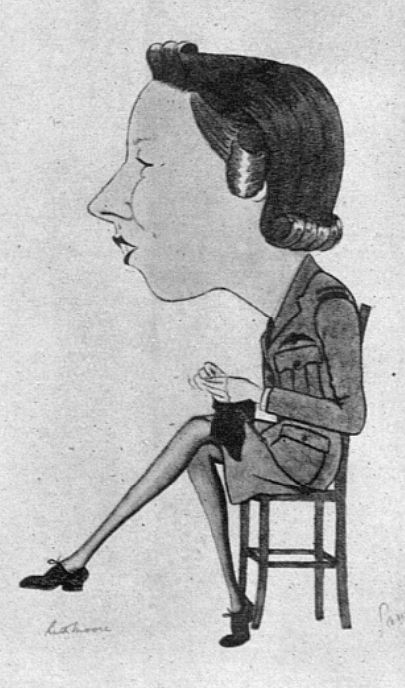 1942 caricature by 'Sammy' Clayton
1942 caricature by 'Sammy' Clayton
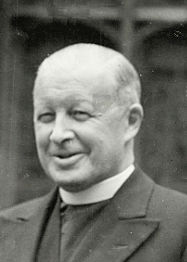
m. 1949 in London, Rev. David Henry Aitcheson Williams (Vicar of Tetbury, Gloucestershire. d. 1955)
d. 19 Jan 1997 - West Surrey
-
Morgan, Audrey Joan (W.140*)
W.140 * 3rd Officer Audrey Joan Morgan 
b. 17 Oct 1920, Wolverhampton 6 Sep-43 to Sep-45
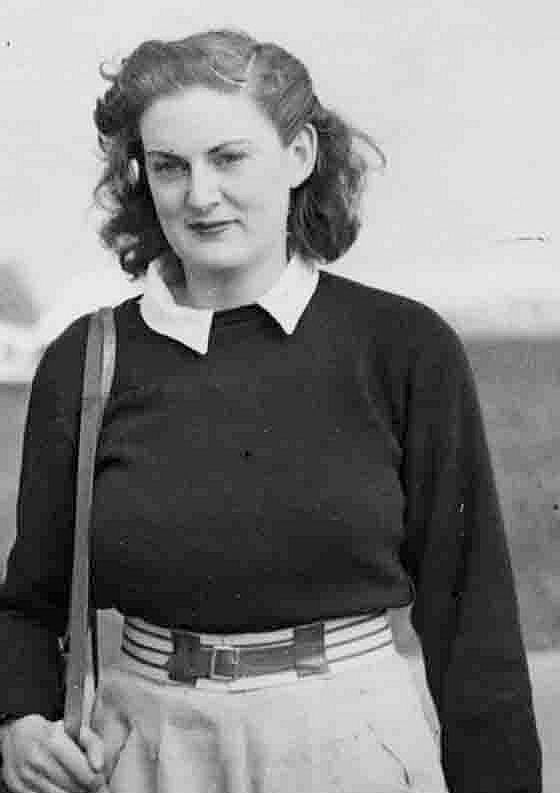 1946
1946Father: George B Morgan, a solicitor and Company Director; Mother: Constance A [Garrett]
prev: Shop Assistant, Secretary, draughtswoman
Address in 1939: Arleigh Grove, Cuckfield, Sussex
Postings: 12FPP
3 accidents, 1 her fault:
- 21 Nov 1944, a forced landing in Barracuda III MD970 after a serious oil leak into the cockpit
- 18 Dec 1944, she over-ran the end of the runway at Cosford in Spitfire VIII NH630, due to landing too far along it
- 5 Jan 1945, her Spitfire Vb W3834 nosed over after she taxied it off the hard standing. An airman, who she thought had told her to taxy off the concrete, was held to blame.
She gained her Royal Aero Club Certificate No 20546 on 9 July 1945, as part of the 'ATA Wings' programme (although the record has been lost)
Co-pilot to ex-ATA Ferry pilot Geoffrey Wikner (q.v.) on his flight to Australia in 1946 in "Waltzing Matilda", a war-surplus Halifax, with 20 passengers and crew on board:
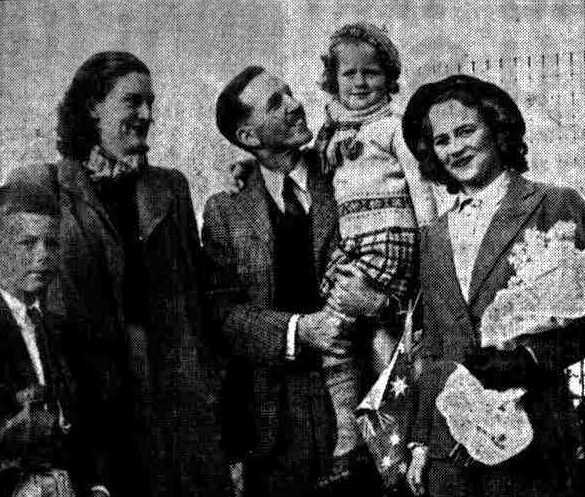
L to R: Val Wikner (9), Audrey, Capt. Wikner, Chrisabel Wikner (5 1/2) and Mrs Trudy Wikner.
She flew back on TWA from Cairo to New York in September 1946
m. 1952 in Westminster, (Richard?) John Fifield
d. 11 Dec 2005 - High Wycombe, Bucks
-
Morris, Cyril Walter
M.387 First Officer Cyril Walter Morris 
b. 30 Apr 1912, Mansfield 6 May 1941 to 17 Sep 1942
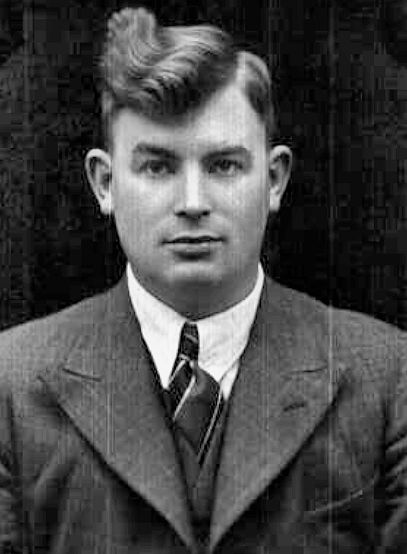 RAeC 1937
RAeC 1937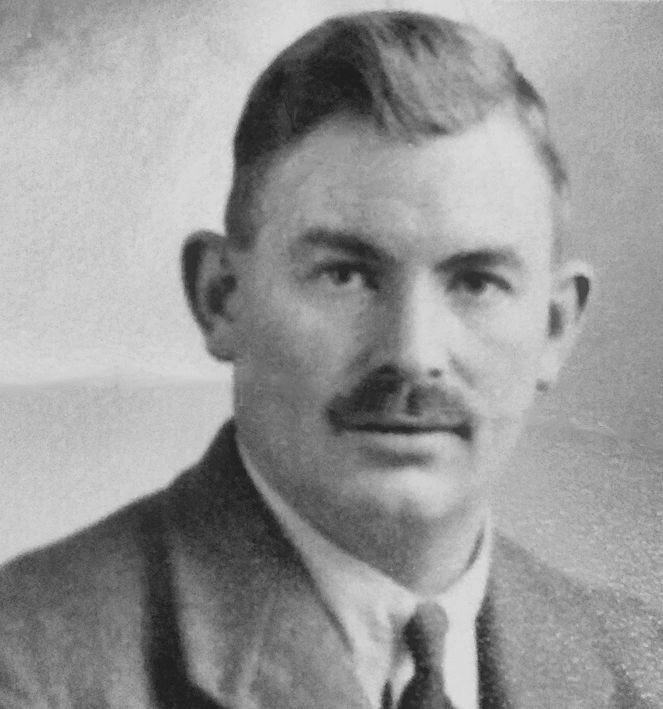 ATA
ATAEd. Central School, Coventry
m. Jan 1936 Lorna Grace [Hill], of Coventry House, Dunton Bassett, Rugby; 1 daughter Josephine b. Q3 1936
prev. a Builder and Contractor; Sergeant in RAF, 2 Nov 1939 - 4 Apr 1941
prev. exp 151 hrs on Leopard Moth, Swallow, Avro Tutor, Chilton, Taylorcraft & Cub
Address in 1941: 240 ~Walsgrave Rd, Stoke, Coventry
Postings: 6FPP, 3FPP
"This officer gives occasional trouble on questions of general discipline and behaviour, both on and off duty.... he is very sure of himself... very cocksure and self-opinionated"
"Quite a capable pilot"
5 Accidents, only one deemed to be his fault:
- 11 Dec 1941, his Hurricane IIb AP594 sank so deeply into unmarked piece of soft ground that it nosed over, 'in spite of men on tail', damaging the propeller
- 13 Mar 1942, in another Hurricane, N2666 the gun compartment cowling came loose in flight
- 3 Apr 1942, he taxied his Anson into some barbed wire due to 'bad cornering in difficult conditions, and with a stiff tailwheel pivot'
13 Jul 1942, the port undercarriage leg of his Beaufighter IV EL241 collapsed on landing, and
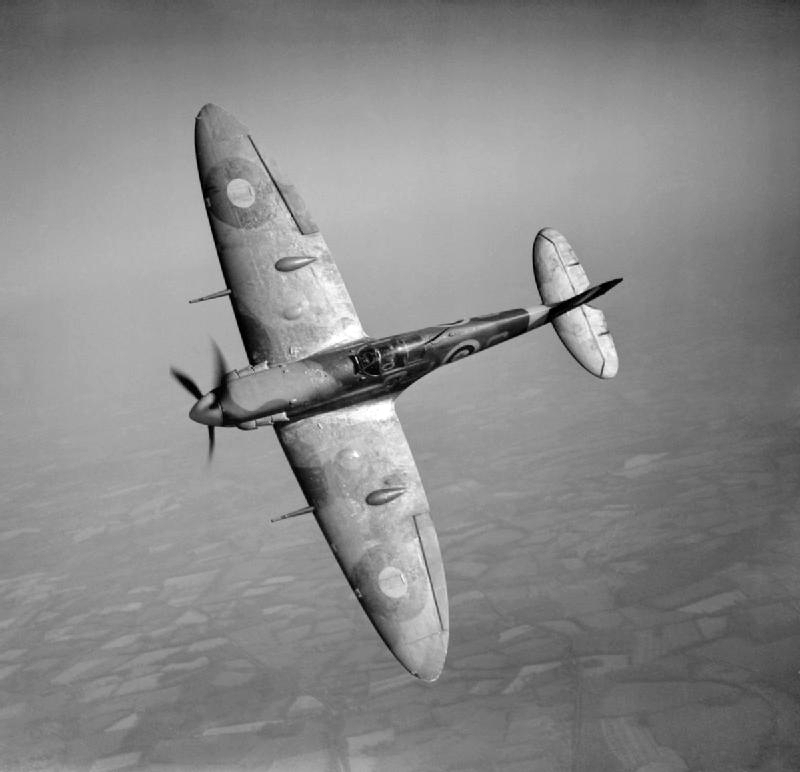
d. 17 Sep 1942 when he lost control in cloud (which was 10/10ths at 1,000ft) and his Spitfire Vb EP893 dived into the ground at Saighton, nr Chester, shortly after take-off from Hawarden
Buried St Michaels Cemetery, Stoke, Coventry
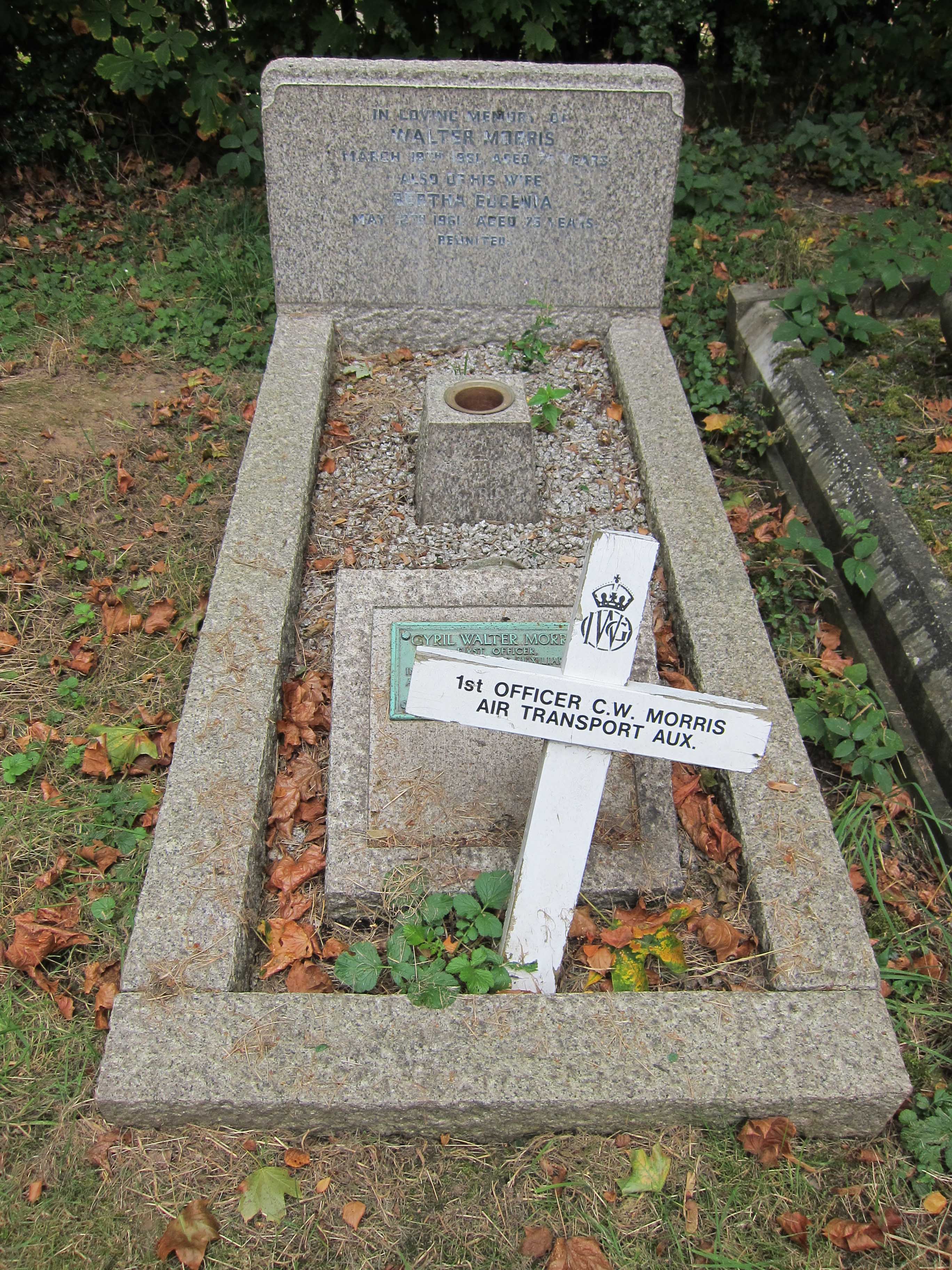
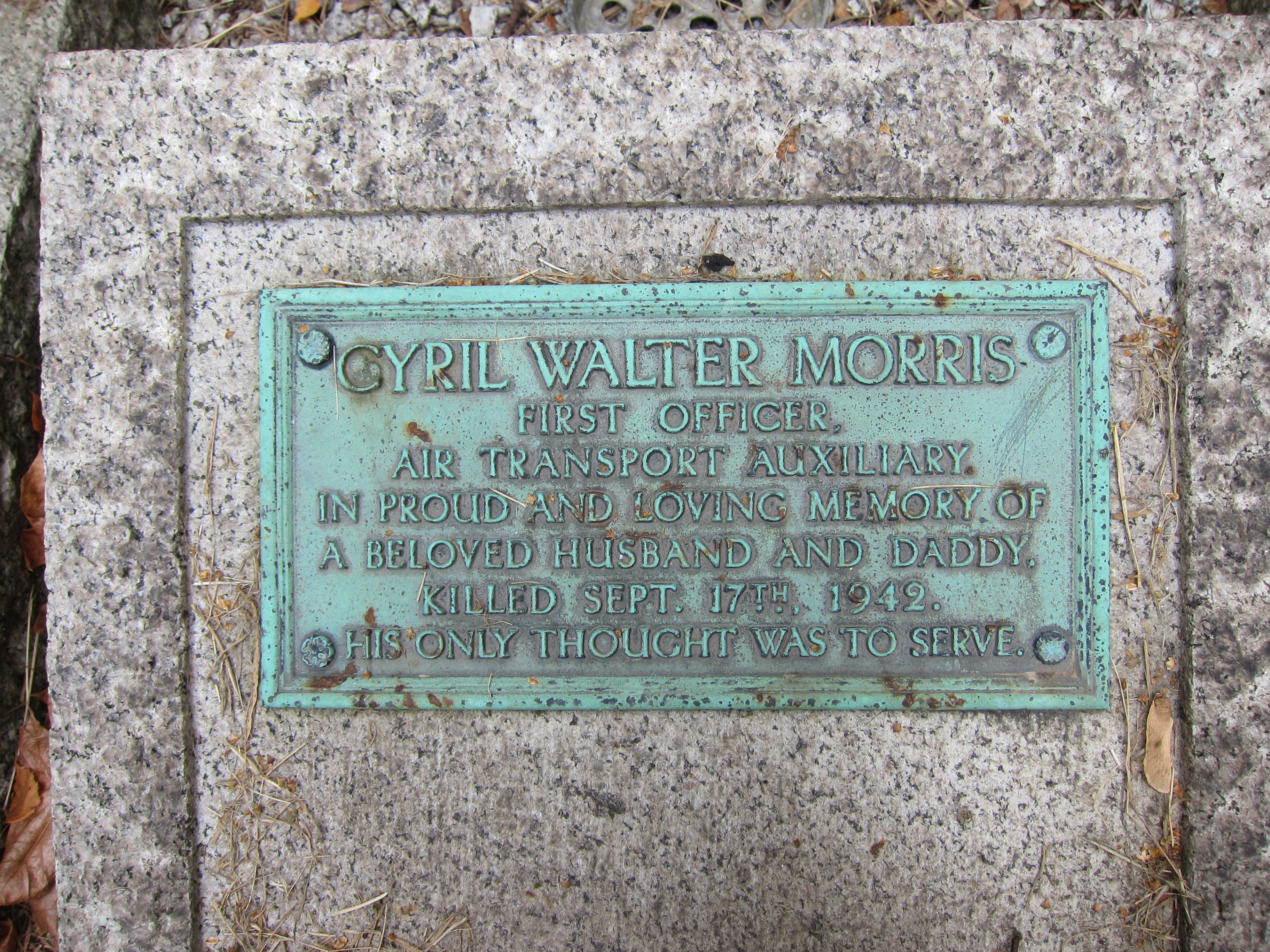
IN LOVING MEMORY OF
WALTER MORRIS
MARCH 19TH 1961, AGED 74 YEARS
ALSO OF HIS WIFE
BERTHA EUGENIA
MAY 12TH 1961, AGED 75 YEARS
REUNITEDCYRIL WALTER MORRIS
FIRST OFFICER
AIR TRANSPORT AUXILIARY
IN PROUD AND LOVING MEMORY OF
A BELOVED HUSBAND AND DADDY.
KILLED SEPT. 17TH 1942.
HIS ONLY THOUGHT WAS TO SERVE
"To: Commanding Officer, ATA,
I am writing to thank you most sincerely for your letter expressing your personal sympathy in my sad loss and for all the kindness you have shown & the help you have given me.
Our small daughter is a great comfort to me & I trust she too will one day be proud to know that you held him in such high esteem as a pilot, & that he died serving his country.
Yours Sincerely, Lorna G Morris"
-
Morris, Ernest Clive
M.425 * First Officer Ernest Clive Morris 
b. Apr 1895, Chorlton, Lancs 18 May 1941 to 17 Jul 1944
Corporal in R.E. 1915, Lieutenant (Acting Captain) in RFC in WWI
d. 17 Dec 1977, Bodelwyddan, Clwyd
-
Morris, Robert Graham
M.737 First Officer Robert Graham Morris 
b. 29 Dec 1910, Epsom, Surrey 15 Apr 1942 to 3 Jan 1945
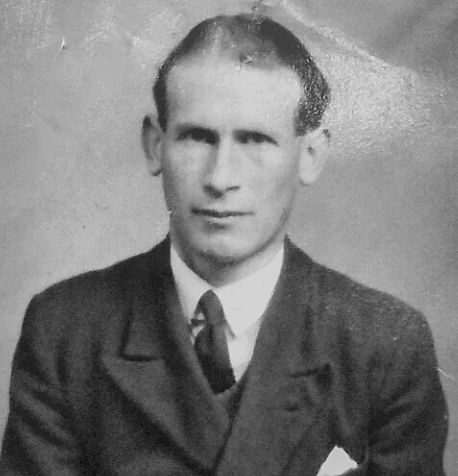 ATA
ATAFather: Alfred G Morris. Mother: Elizabeth Marian [Turner], of Dunnose Cottage, Bonchurch, Isle of Wight
Ed. Kingston Grammar School
m. 1939 Barbara Katherine [Mew], one son Robert J. b. late 1944/early 1945
prev. Ground Engineer for Air Service Training, Hamble
prev. exp. 8 hrs in Moth, Spartan, Avian, Aeronca
Address in 1942: 22 Crowsport, Hamble, Hants
Robert originally applied to the ATA in March 1941, but his recorded hours (8) were too low for him to be considered, and it wasn't until the Director of the Isle of Wight Flying Club certified that he had another 20 hrs unrecorded that they re-considered. His flight test was in November 1941.
Postings: 1FPP, 2FPP, 7FPP, 6FPP, 16FPP, [RNAS Arbroath], 9FPP
"An average pilot and a good navigator" "Morris has very little experience prior to joining ATA and should be treated very gently."
Early on, his instructor reported that "while some progress has been made he does not possess any real aptitude for flying", but later reports were much more positive: "A confident pilot of better-than-average ability"
Three accidents:
- 2 Mar 1943, when his Wellington X LP249 nosed over having been caught by a gust of wind. Pilot to blame for not keeping the stick central or forward, for taxying down-wind
- 26 Aug 1944, in Mustang III FB199, which veered sharply to starboard on take-off, reason unknown.
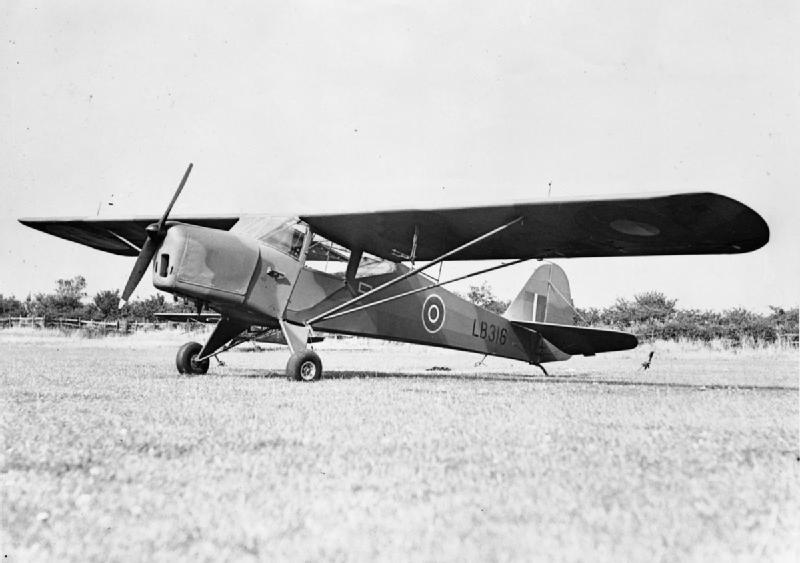
d. 3 Jan 1945 in Auster PJ222 which hit trees and crashed near Gatwick Airfield, during a ferry flight from 20MU Aston Down, to B56 [Belgium]. He was flying in gusty conditons and was not strapped in, so possibly he lost control after striking his head on the roof.
Insurance of £2,500 was paid in March 1945.
Buried St Boniface Church, Bonchurch, Ventnor, Isle of Wight.
-
Moss, Llewellyn Oliver
M.198 Flight Captain Llewellyn Oliver Moss MM 
b. 1 Feb 1895, Hollingbourn, Kent 16 Sep 1940 to Mar-43
Cavalry, Dorsetshire Yeomanry, RFC and RAF during WWI; RAF Overseas 1925-33 (Sgt and F/O).
prev exp 347 hrs
Resigned from ATA 18 Jan 1943
d. 9 May 1946, Berkshire - Flight says "It is with regret that we record the death on May 9th, in a test-flying accident, of Mr. Llewellyn Oliver Moss. Mr. Moss, who was 51 years of age, was chief production test pilot of the Gloster Aircraft Company.
After serving in the Dorsetshire Yeomanry in the first European war, he transferred to the R.F.C. and remained in the R.A.F. Reserve. At the outbreak of the second European war he was considered too old to fly with the R.A.F., and therefore joined the A.T.A. Later, he was in charge of the A.T.A. Brockworth pool, and, in view of his good work, was employed in 1942 by Glosters as production test pilot on the Typhoon contract. More recently Mr. Moss had been carrying out production tests on Meteors and had also helped with development work on this type."
-
Mullineaux, Joan Edwina Francis (W.124)
W.124 3rd Officer Mrs Joan Edwina Francis Mullineaux 
b. 27 Dec 1916, St. Annes-on-Sea, Lancs 1 May 1943 to 30 Sep 1945
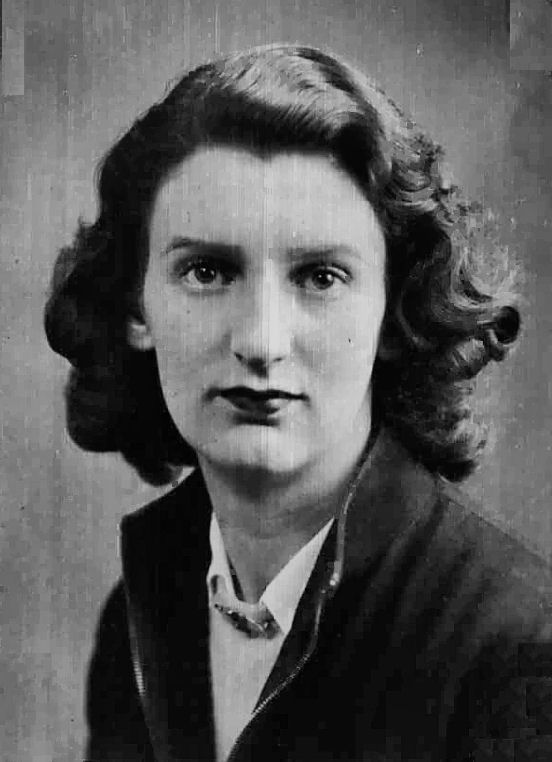 RAeC May 1939
RAeC May 1939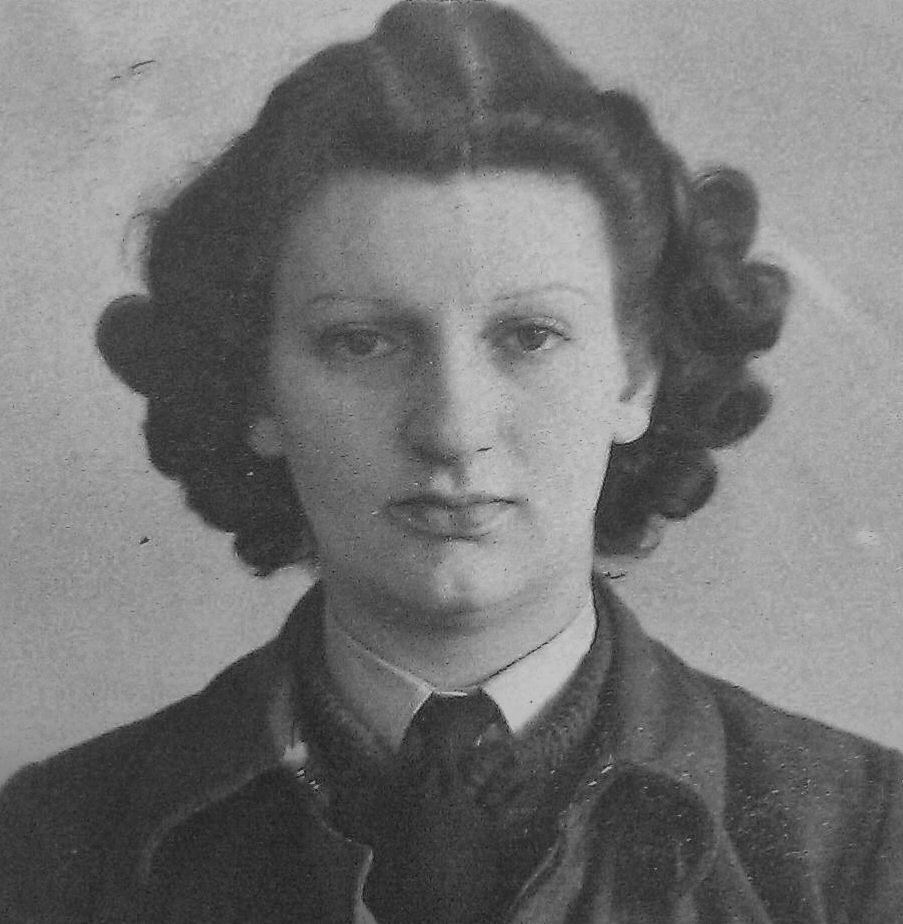 ATA
ATAnée Lee
Father: Edward George Lee, a Textile Manufacturer; Mother: Elizabeth [Dewer], of "Avonmore", St Annes-on-Sea
Ed. St Leonard's School, St Andrews, Fife
Address in 1939: 158 Stannes Rd E, Lytham St Annes
prev: Driver, Corporal in WAAF at RAF Feltwell, Norfolk from September 1939
m. 5 Dec 1942 in St Annes-on-Sea, Capt. John Lecce Mullineaux, 42 Div RASC, "only child of Mr J. H. Mullineaux , and the late Mrs Mullineaux, of Fulwood, Preston"
Postings: 5FPP, 1FPP
Off sick from 3 Aug 1943 to 16 Jun 1944 after a flying accident: she was afterwards "slightly lame"
Two accidents, one her fault:
- 3 Aug 1943, her Magister stalled and dived into the ground after it was caught in the slipstream of a Wellington
- 31 Aug 1944, she collided with a parked aircraft whilst taxying Tiger Moth EM915
Total hrs: 508 hrs, of which 276 hrs on Argus, plus Magister, Proctor, Hart, Moth, Swordfish, Whitney Straight, Oxford, Anson, Auster, Barracuda and Dominie/Rapide.
"Apart from a tendency to become overconfident, this pilot proved good average ability and her airmanship was sound"... "has done her work efficiently and willingly. A good officer"
Lancashire Evening Post - Friday 28 March 1947: "NORTH-WEST DECREES
as Special Commissioner to hear divorce suits at Preston, to-day, Judge Ormerod granted decrees nisi to the following, on the grounds stated:—
• John Lecce Mullineaux, 123. Victoria-road, Pulwood. Preston; desertion by Joan Edwina Frances Mullineaux"
m. 1948 in Westminster, John B S Smyth
d. Oct 1971 aged 54 - Eton, Bucks
-
Murphy, John Platt
M.1005 3rd Officer John Platt Murphy 
b. 2 Aug 1911, Manchester 31 May 1943 to 25 Nov 1944
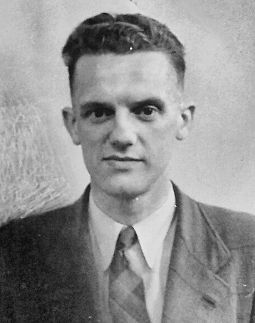 ATA
ATAFather: John Henry Murphy, a Water Works Engineer; mother Margaret Elizabeth [Gosling]
Ed. Manchester Grammar School, Manchester College of Technology
m. 1938 in Stockport, Alice [Webster]
prev. Director and Printing Works Manager, Dean & Co, Stockport; "in control of a staff of approx. 120 employees"
"Not exempt - recently de-reserved"
Ab initio pilot
Address in 1943: 29 Daylesford Rd, Cheadle, Cheshire
"As a regular reader of 'Flight' for some years, I am very keen to fly and regret that circumstances did not enable me to join the RAF as a pilot when still young enough.
Sports: Swimming, cricket, tennis and lacrosse
Hobbies: Gardening, photography, foreign touring, amateur motor engineering"
Postings: 5TFPP, 16FPP, 7FPP, 3FPP
Salary: £285 p.a. from 26 Jul 1943
"This pilot had not flown before he came to ATA. He has proved slow to get started on new things but keen and hardworking." "He is on the nervous side and his flying would improve if he put more dash and decision into it."
3 accidents, one his fault:
- 13 Dec 1943, in Magister N4583; the undercarriage collapsed on landing due to the brakes binding
- 22 Jun 1944, his Harvard IIb FX285 nosed over when he applied the brakes while taxying to take-off. He was blamed for this, as he had previously noticed that the brakes were 'fierce'

d. 25 Nov 1944 in Barracuda II MX709, which flew Into the ground at Annesley North Railway Junction ("near the signal box"), nr Hucknall, Notts in bad visibility during a ferry flight from 15MU Wroughton to RNAS Dunino.
"There is a conflict between eye-witnesses who are positive that the aircraft was on fire before the crash, and the evidence from subsequent technical examination which strongly indicated that fire only occurred after the crash."
"Insufficient evidence to determine the responsibility for this accident."
Buried Cheadle Cemetery, Manchester
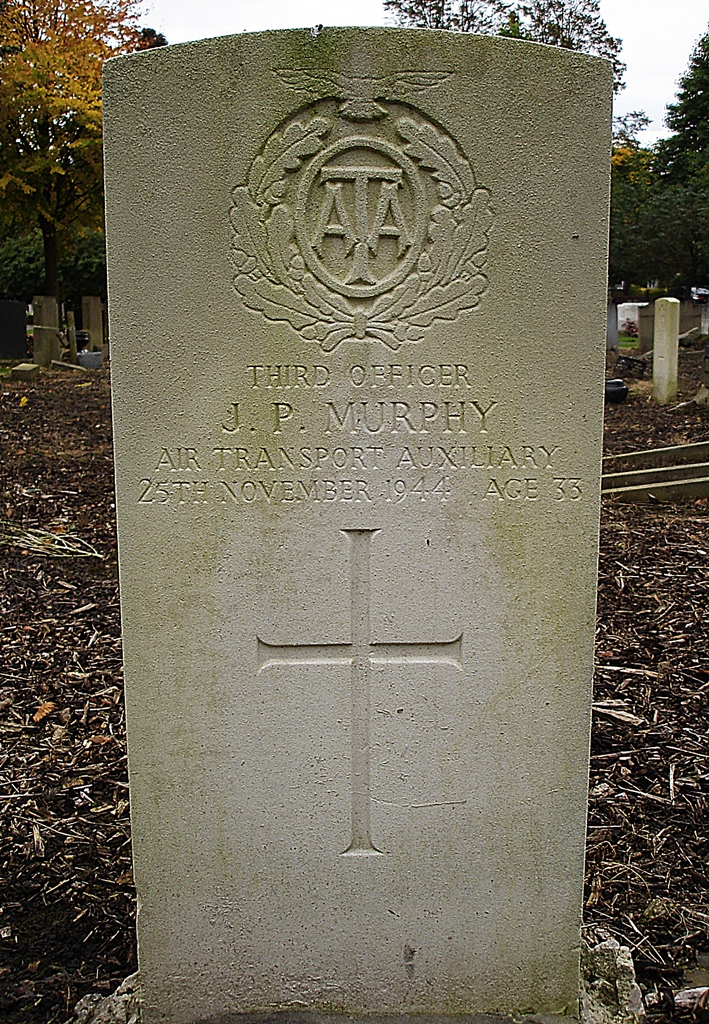
Probate of £3124 15s 7d was granted to Alice on 27 January 1945.
Alice married Rowland Pollitt in 1948; he died in 1971.
-
Mursell, Peter
M.81 Senior Commander - Chief Instructor Sir Peter Mursell MBE, DL 
b. 20 Jan 1913, Kettering 23 May 1940 to 26 Jan 1943 (as pilot)
to 30 Sep 1945
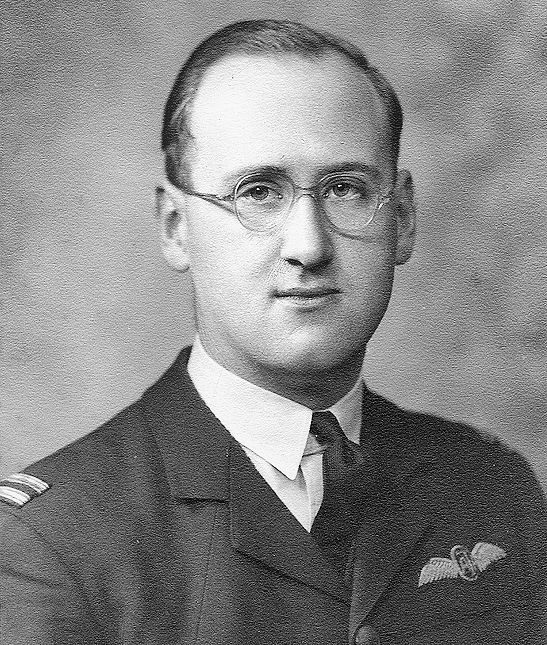 1942
1942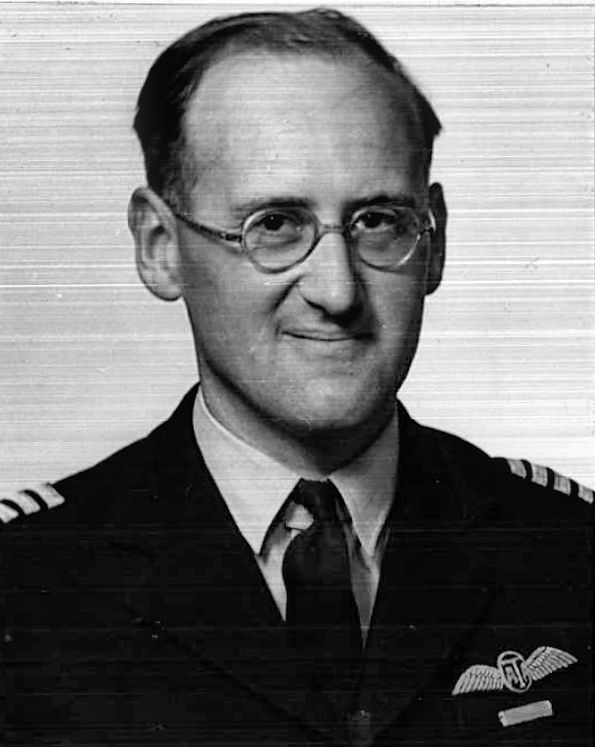 RAeC 1945
RAeC 1945Ed. Bedales School (Head Boy) and Downing College Cambridge (1st in Agriculture)
"Peter started flying in 1933. In 1936 he flew a Short Scion to India where he tried to interest the Maharaja's in the plane. He also took part in an air race from Madras to Delhi and flew over the Himalayas saying they would try to see how high they could fly before passing out! His first date with Cicely involved flying upside down in a small private plane - but she got her own back in her beloved Herbert - an Austin 7 which is still in working order!" nickimason
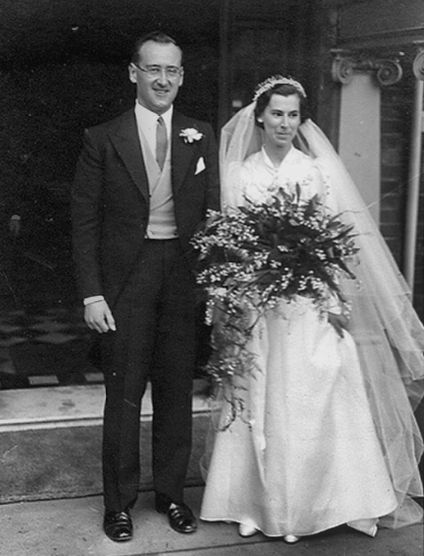
m. 1938 Cecily 'Dil' [North], 2 daughters
prev. a Fruit Grower
Address in 1940: 'Farthings', Kirdford, Sussex
Postings: 1FPP, 2FPP, 3FPP, 6FPP, AFTS
Within a few weeks of joining the ATA, he was told to deliver a Fairey Batle to the BEF in France; "I was still in civilian clothes, but someone produced a uniform three sizes too small for me which was better than nothing, as even in those days it was considered a bit risky to go to France looking like a farmer... Early on 13th June three of us went to Andover to collect our aircraft. We were told we could get maps from there, but when we arrived we found that they could only produce one set between us. Belville got the map, and Robin Hood and I followed on behind." Brief Glory
Having got there, they were stuck until the RAF offered them three unserviceable Hurricanes; "Belville and Hood had flown Hurricanes before, but I had not even seen the cockpit of one."
They later heard that the Germans had occupied the airfield less than 12 hours after they left.
"As second-in-command of 1FPP and later as O.C. of 6FPP, Cmdr Mursell proved outstanding as a pilot and officer & as a leader. This officer is first-class in every respect; both as subordinate and executive, he has proved himself entirely reliable and efficient. " G d'Erlanger
Member of the Royal Commission on Local Government in England, 1966
"After the war, his passion became boats and he and his wife had a 50 foot narrow boat named after his mother Fanny Grace, which they kept for 23 years."
"Kirdford Cricket Club originated in 1889 playing at the present football ground. After the War cricket was played on the Recreation Ground (which was donated to the village by Sir Peter Mursell)."
29th October 1974 "The Queen has been pleased to approve the appointment of Sir Peter Mursell, M.B.E., to be Vice Lord-Lieutenant for the County of West Sussex to act for Her Majesty's Lord-Lieutenant during his absence from the county, sickness or other inability to act."
d. 23 Aug 2008, Sussex
Lots more photos at https://www.flickr.com/photos/phoebebright/sets/72157607166972073/
and stories at http://petermursell.blogspot.com/
Download ATA Pilot Personal Record (.zip file):

IWM interview here: https://www.iwm.org.uk/collections/item/object/80009781
-
Murtagh, Michael Aidan
M.598 First Officer Michael Aidan Murtagh 
b. 13 Sep 1904, Birmingham 19 Jul 1941 to 30 Nov 1945
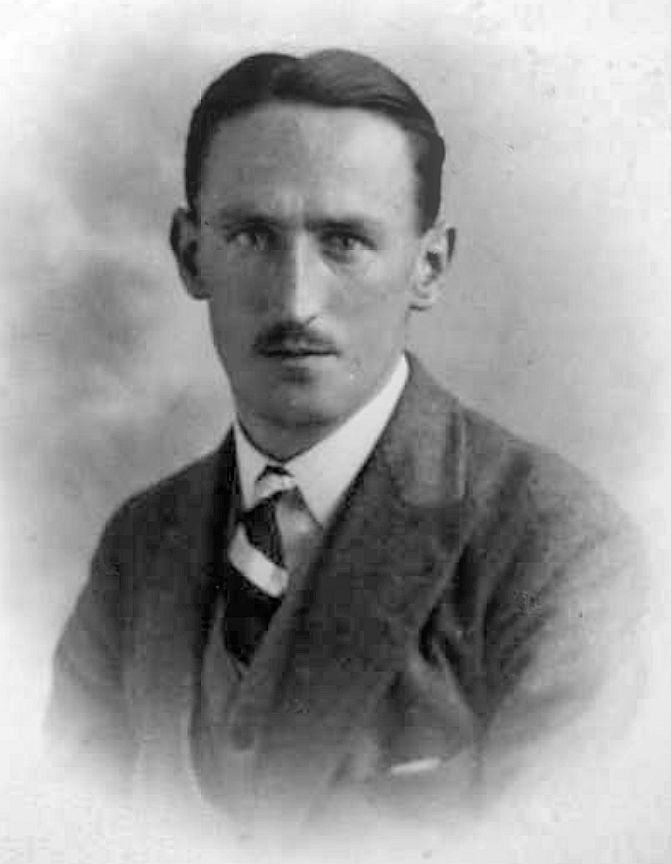 1928
1928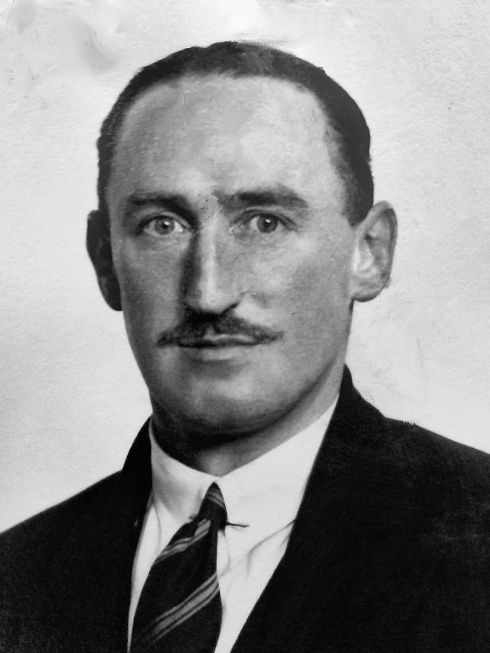 ATA
ATAEd. Mount St. Mary's College, Sheffield
m. Dec 1939 Phyllis Gladys [Creed, d. 1991], 1 son [Brian b. 1941] and 1 daughter [Kathleen b. 1945, d. 2026].
prev. RAF Flying Officer, 1929-34; Aircraft Inspector, Standard Motor Co, Coventry
Address in 1941: 72, Dunchurch Rd, Rugby, Warwickshire
Postings: 16FPP, 6FPP
Michael had a rather eventful career with the ATA, being involved in six accidents;
- 15 Apr 1942, the brakes of his Defiant failed and he ran off the runway;
- 19 Mar 1943, the rear wheel strut of his Hurricane failed on landing;
- 2 Dec 1943, his Hampden hit a concrete post while taxying (This was not his fault, as he had been given incorrect signals by the ground crew);
- On the 1 Mar 1944, he had a very nasty accident indeed. He "encountered bad weather whilst flying through the Tyne gap, turned up a side valley into the hills, and then trying to get back out of this valley, encountered icing conditions which caused the aircraft to crash."
He was held responsible for the crash, having persisted too far in bad weather.
"Murtagh was forced through the roof and over a distance of 120 feet. He received head injuries and a broken leg, and when he regained consciousness he found that it was almost dark. He realised that he would have to spend the night on the mountain top, and would have to find some cover to protect himself from the bitter winds which swept the scene. He crawled to the fuselage of the aircraft, part of which had been separated from the wings and engines and which was in an inverted position, went through a small hole in the side, and seated himself on some engine covers. The cold was intense, and he resorted to his parachute which... saved his life by affording him some measure of protection against the snow and wind.
During the night, he was forced to eat snow to keep his mouth free of congealing blood which made breathing difficult." - Birmingham Mail
He spent about 40 hours on the freezing hillside before being found. The rescue party discovered that he had a broken leg, a deep laceration of the forehead, generalised bruising, a fracture of the lower jaw, and extensive bruising of both legs below the knee.
He was taken to hospital, amazingly still alive, and then made slow and steady progress until returning to flying duties (Class I only) on 26 Feb 1945 - almost a year later.
Pretty soon, however, on the 25 April 1945, he had to make a forced landing in a Magister when the engine cut out, and then, finally,
- on 7 Aug 1945, he once again encountered bad weather flying an Anson and turned on a reciprocal course, but this brought him over a valley surrounded by hills in cloud. Luckily this time he managed to force-land without damage in a small field.
The ATA then seems to have decided he had taken quite enough punishment, and terminated his contract [admittedly at the sme time as lots of other pilots] on 30 Nov 1945.
d. Jun 1948 - Conway, Caernarvonshire, Wales
His wife applied for a pension. A report from the ATA Medical Officer A Buchanan Barbour said that, before his 1944 accident, "This pilot had been under the care of the Medical Service for hypertension and alcoholism. He was a man of considerable flying experience, and was regarded as a good pilot."
"His terminal lung condition was, in my opinion, related to this flying accident."
-
Napier, Carill Stanley
M.30 First Officer Carill Stanley Napier 
b. 29 Apr 1907, London 11 Sep 1939 to Apr-41
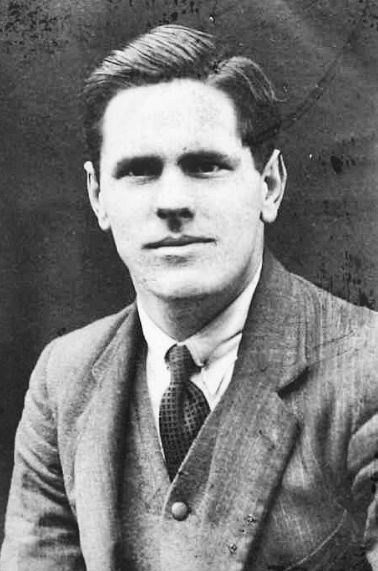
1929
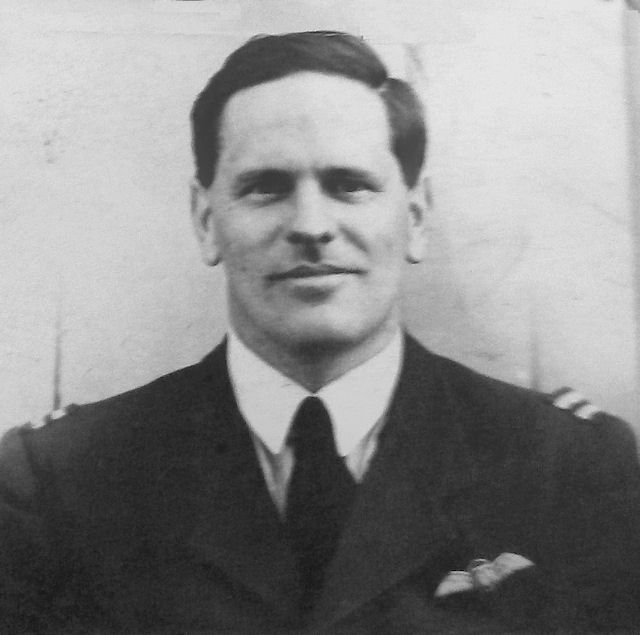
ATA
6ft 1½in. Educated at Radley, 1921-29
Learnt to fly at Stag Lane, 1928
Apprenticed to Petters Ltd, Yeovil 1928-29, then Ricardo, Shoreham 1929-30
Son of the famous engine-maker Montague.
Competed in the King's Cup in 1929, 1930, 1931, 1933, 1934, 1937
"His one recreation apart from flying is the commendable indoor sport of darts. Believes that air-racing is good fun only when taken not too seriously.''
Technical Director and engine test pilot to Cirrus Hermes Engineering Co., and then from 1937 Chief Engineer (Engines) for Blackburn Aircraft Ltd.
prev exp 1600hrs. Owned 1931 Avro Avian G-ABIB
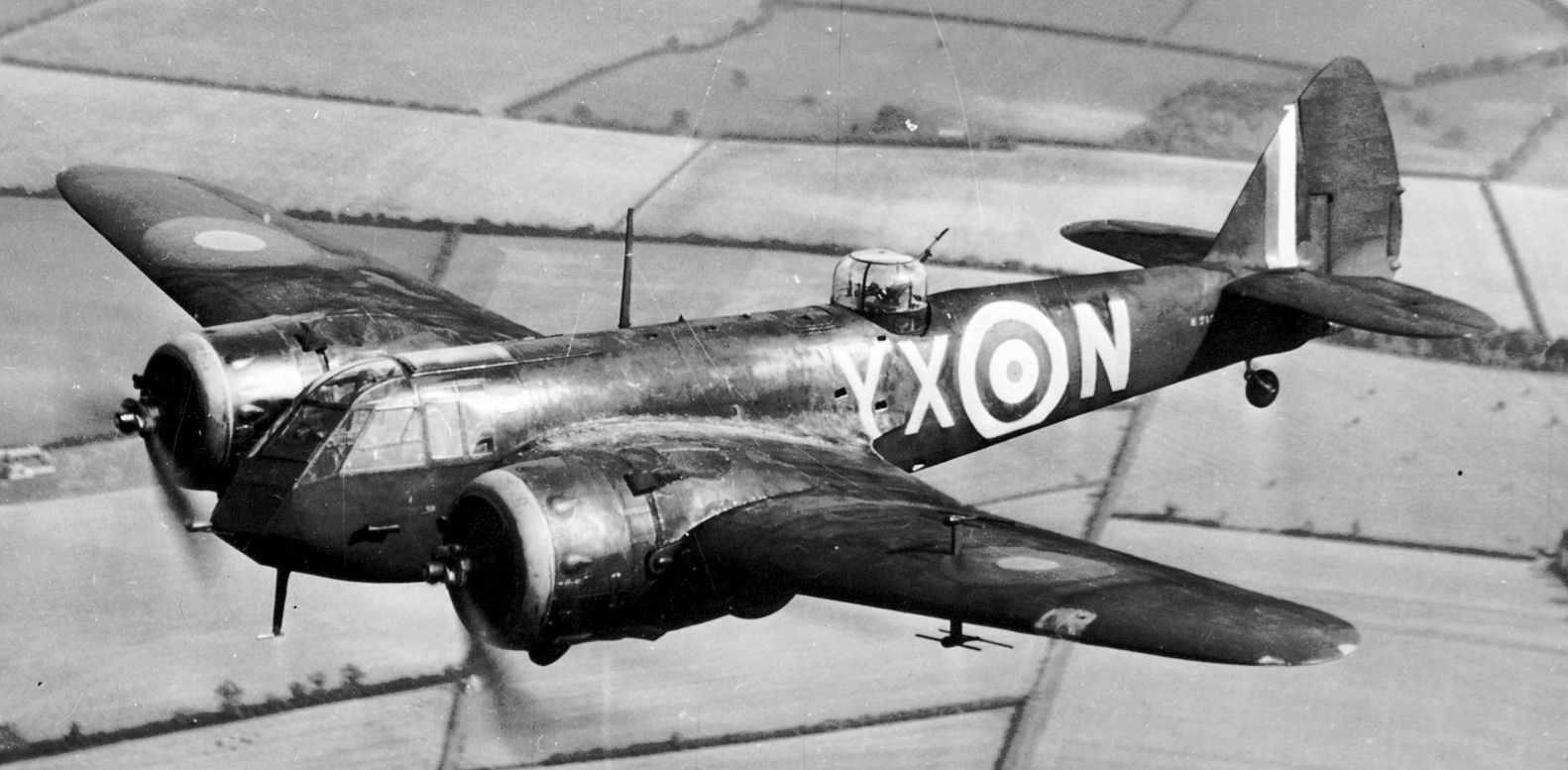
d. 29 Apr 1941 (Died in ATA Service) - on 3 Jan 1941, his Blenheim L1100 swung on takeoff from West Raynham and hit a hangar. Investigation showed that Carill had neglected to tighten the throttle friction nut, which was a contributory factor.
He was taken to Kings Lynn Hospital suffering from spinal, ankle and head injuries, then transferred to RAF Halton on the 8th February but died there from sepsis which led to heart failure.
Fellow pre-WWII air racer Peter Richards said "He was always cheery and a first class companion. If I had any technical troubles he would take endless trouble to help me out."
-
Nathan, John Alexander
M.382 2nd Officer John Alexander Nathan 
b. 21 Dec 1917, Oxford 22 Apr 1941 to 8 Feb 1942
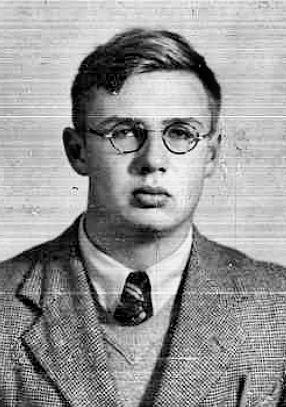
RAeC 1935
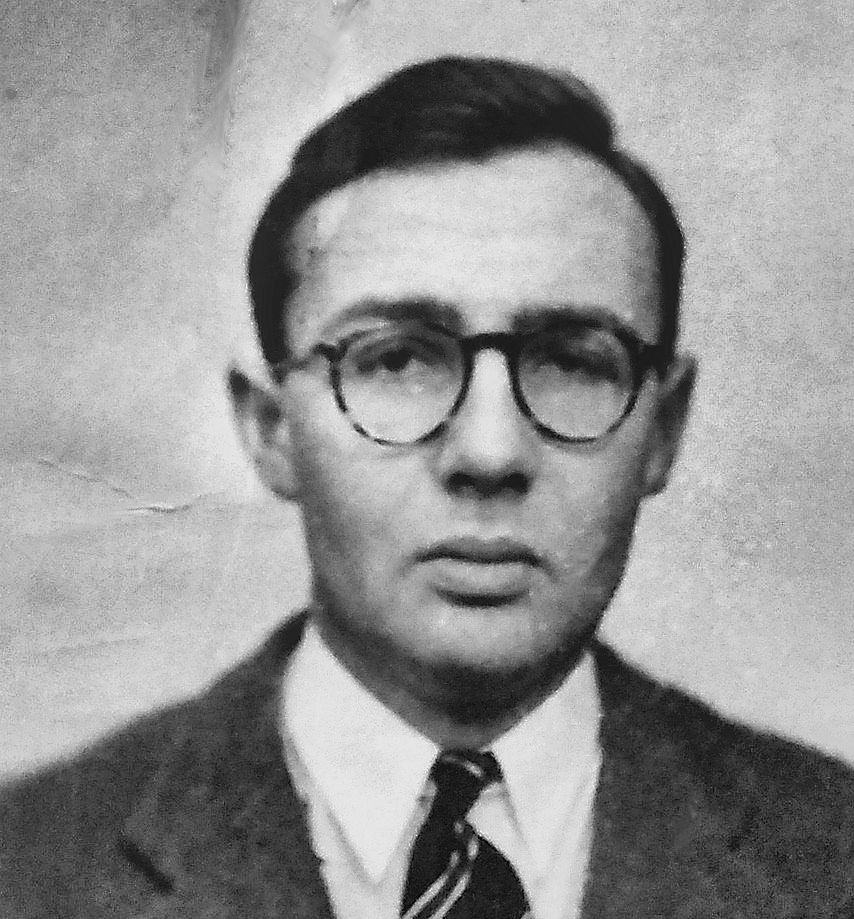
ATA
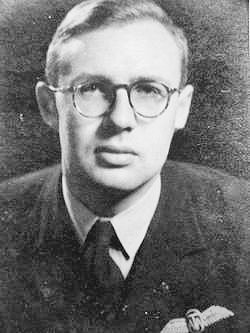
Find A Grave Memorial
Ed. Bryanston School, Blandford; Jesus College, Cambridge (BA Hons, Geography)
Next of Kin: (mother) Phyllis M Nathan (later Poyser) Savernake, Thurlestone, S Devon, later Stratfield Mortimer, nr Reading, Berks
prev. Sgt in RAFVR; Link Trainer instructor, RAF Uxbridge, Oct 1940 to 28 Jan 1941 "Unfortunately, his ability to lecture is not up to the required standard... he has applied for his release from the RAF"
prev. exp. 72 hrs in Puss Moth (G-AAYC, belonging to his father Major A A Nathan), Moth, Tiger Moth, Avian. Member of the Civil Air Guard, Cambridge University Aero Club; 'B' Certificate for gliding.
Address in 1941: Green Firs, Wellhead Lane, Westbury, Wilts
He actually passed his flight test on 20 Dec 1940 ("Good material. Requires training and practice flying to bring him up to the 100 hrs total"), but it took the ATA until 13 Apr 1941 to call him in.
Postings: 2FPP, Training Pool, 6FPP
His instructor, J Watson, rated him "Quick to learn, intelligent. A trifle lacking in confidence, but will doubtless improve with experience"
2 accidents, both deemed to be his fault:
- 1 Jun 1941, a landing accident in Magister T9913;
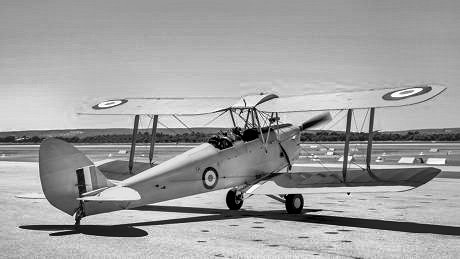
d. 8 Feb 1942 (Died in ATA Service); after landing Tiger Moth BB691 at RAF Ouston, he turned into the path of a landing Spitfire.
"It is with profound regret that I hear of the fatal flying accident of Mr Nathan, a most lovable young man who, along with the rest of his friends, has given his all, to benefit us." R A Gill, Manager, National Provincial Bank, Beaconsfield
Buried St.Mary Churchyard, Stratfield Mortimer, Berkshire
-
Nayler, Joan Emily (W.58)
W.58 First Officer Joan Emily Nayler 
b. 23 Aug 1916, London 16 Dec 1941 to 31 Dec 1945
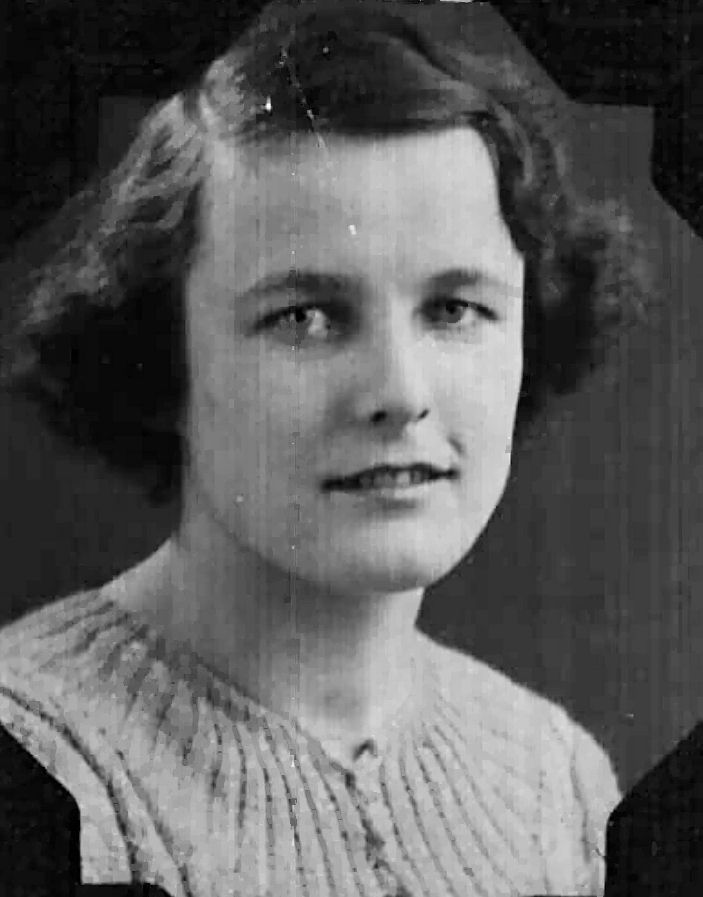 RAeC 1937
RAeC 1937Father: John William Nayler, Mother: Emily Josephine Hypatia [Wallace]
Ed. Catford Secondary School, Clarke's College
prev: Civil Servant, Shorthand Typist, Air Ministry
prev. exp: 28 hrs on DH Moth, Klemm,
Address in 1941: 24 Chancery Lane (Flat 2), London WC2
Joan originally applied in June 1940
Postings: 6FPP, 1FPP
2 accidents, one her fault:
- 26 May 1943, a landing accident in Martinet JN460, which overturned due to "inefficient marking of boundaries and absence of airfield control"
- 25 Nov 1943, she approached too fast, and overshot the landing in an Anson
"This pilot made slow progress towards an average standard due to her small stature. Flies quite well... a cushion will always be part of her equipment"
"smart, pleasant and well-disciplined... very keen and hardworking"
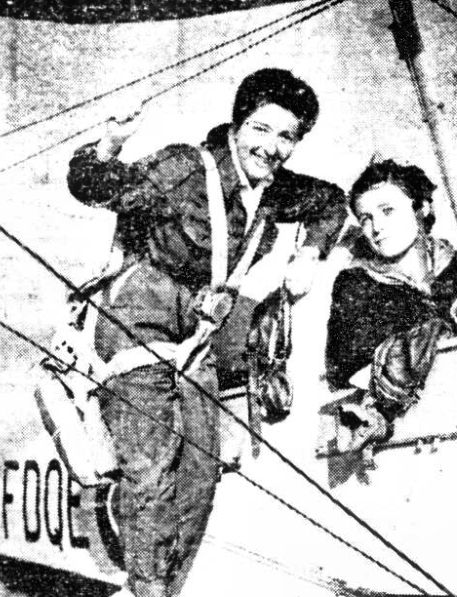 Sunderland Daily Echo and Shipping Gazette
Sunderland Daily Echo and Shipping GazetteHere she is with Margot Gore in October 1947; "Miss Joan Nayler is an air charter pilot at White Waltham".
They were the first two members of the WAAFVR - later joined by other ex-ATA women pilots including Roy Mary Sharpe, Ruth Russell, Margaret Frost, Audrey Macmillan and Freydis Leaf.
m. 1950 in Hemel Hempstead, Herts, Douglas Arthur Russell (d. 1973)
Later a Director of Harleyford Publications Ltd.
d. 3 Sep 1983 - Golder's Green, London
-
Nettleton, James Richard
M.185 First Officer James Richard Nettleton 
b. 29 Jun 1918, Albany Barracks Parkhurst 6 Dec 1940 to 30 Nov 1945
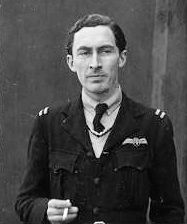
Manx Aviation & Military Museum
 ATAM
ATAM
Certificate of Commendation, 1945: "On the 3rd March 1945, whilst ferrying a Tempest the engine failed completely over difficult country. First Officer Nettleton carried out successfully a forced landing with the wheels retracted in a small ploughed field on the side of a hill."
-
Neve, Rita Mary (W.---)
W.--- Cadet Rita Mary 'Ray' Neve 
b. 1 Jun 1920, Lambeth, London 8 May 1944 to 17 Jun 1944
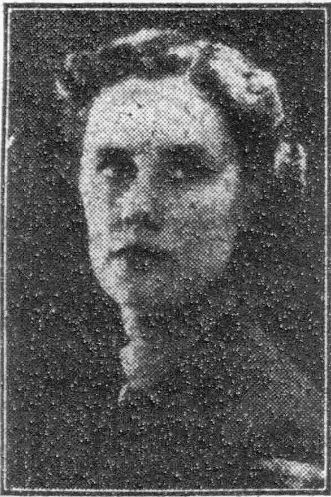 1944
1944Father: S Neve, Mother: [Atherfold] of 54 Lexham Gardens, London W8
Ed. Tunbridge Wells County School
prev: Secretary; WAAF
She "acted as clerk to the Housing and Health Committee, the Lighting Committee and the Waterworks Committee" in Tunbridge Wells.
"TRAINING AS FERRY PILOT
Her many friends In Tunbridge Wells will be interested to learn that Rita Neve, late of the Town Hall staff, has, after nearly three years in the Service, been transferred from the WAAF to the Air Transport Auxiliary.
In October, 1941, she trained at Cranwell and passing out as L.A.C.W. teleprinter operator was posted to a Bomber Command Station. After some months’ duty there, she went to the West of England for a wireless operator’s course, and subsequently to Northern Ireland, where she worked in this capacity under Coastal Command.
From Ireland she volunteered for a wireless mechanic's course, and, after completing this, was sent to a station in Training Command. Having previously applied for entry in the A.T.A., she recently passed the necessary testa and is now undergoing training aa Ferry Pilot.
During this somewhat varied career she also satisfactorily passed the Air Ministry Board as candidate for a Signals Commission, but time did not permit her to proceed with this.
We are sure that her friends will wish her good luck her new venture." - Kent & Sussex Courier - Friday 12 May 1944
[ab initio]
[Contract Terminated by ATA]
Assistant 2nd Officer, WAAF Administrative and Special Duties Branch, from 22 Aug 1945
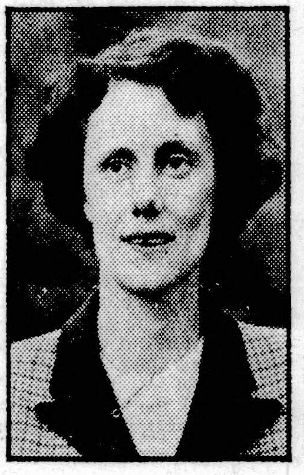
"A candidate for Hanwell South Ward In the Ealing Town Council elections next week is 28-year-old Miss Rita Mary Neve, a former pupil at the County School, who was on the Town Clerk’s staff before she Joined the W.A.A.F. during the war. She Is now employed by firm of scientific consultants In London. Keenly interested In politics and local government, she is chairman of the Hanwell South Young Conservatives." - Kent & Sussex Courier - Friday 06 May 1949
Address in 1963: 10 Church Rd, Ealing, Southall
d. 22 Mar 1999 - Tunbridge Wells, Kent
-
Newman, Evelyn Henry
M.295 Captain Evelyn Henry Newman 
b. 15 Sep 1903, Sutton, Sussex 18 Mar 1941 to Nov-45
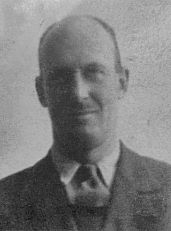
ATA
ed. Lancing College, then Oriel College Oxford.
prev. RAF and RAF Reserve, 1924-33. Later a commercial pilot for Birkett Air Services.
King's Cup in 1934
"A very experienced pilot and a good officer"... " a quiet and unassuming officer who... is carrying out his duties as second-in-command at this Pool [No 8 FPP, Belfast] in an excellent manner"
From March 1945, Officer Commanding No 10 FPP.
-
Newmark, Herbert Henry
M.291 First Officer Herbert Henry Newmark 
b. 7 Aug 1904, London 4 Mar 1941 to 31 Jul 1944
 1938
1938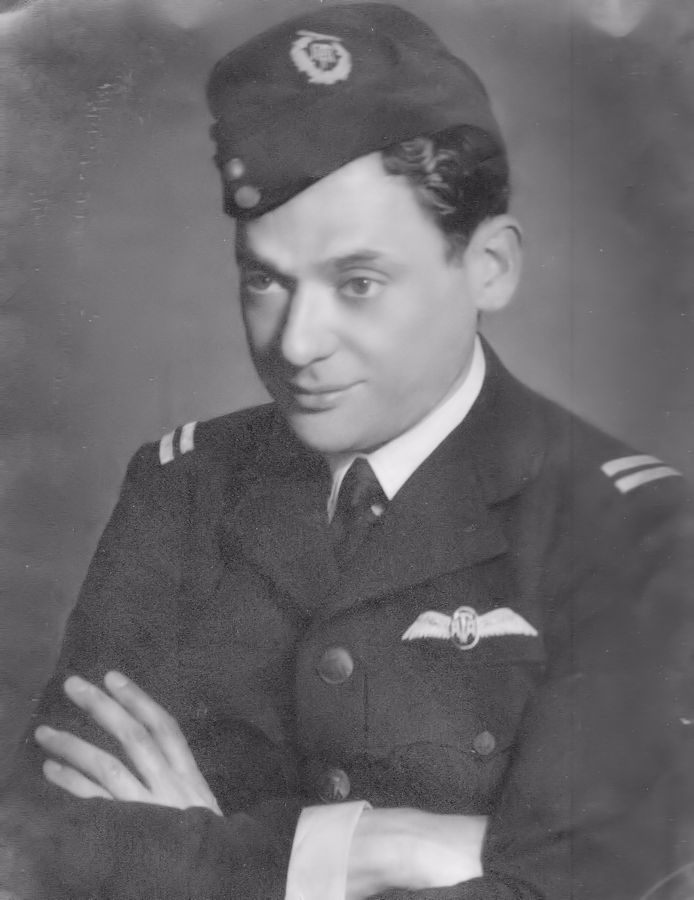 Ancestry
AncestryFather: Louis Newmark, a manufacturer (d. 1924), Mother: Elizabeth [Abrahams] (d. 1939)
Ed. Peterborough Lodge (now Downsend) ; Lausanne, Switzerland
RAeC Certificate 16103 dated 3 Aug 1938, taken at Airwork School of Flying
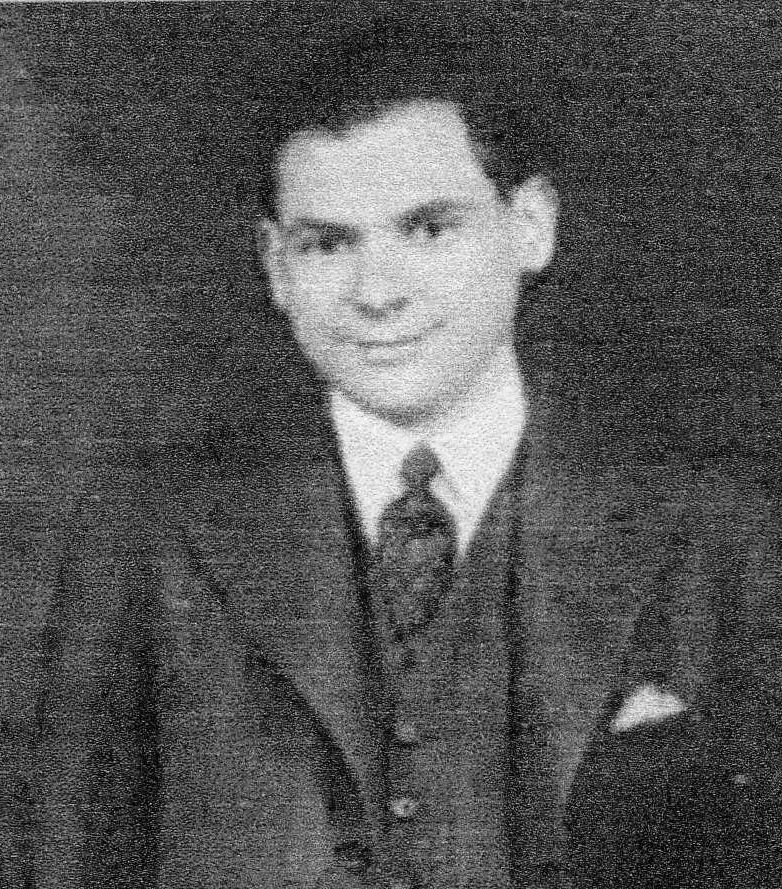
He was "a magnificent bridge player"; A member of the winning Bridge Championship Gold Cup team in 1932-33
prev. Watch Manufacturer; Ministry of Aircraft Production Mar 1940 - Feb 1941
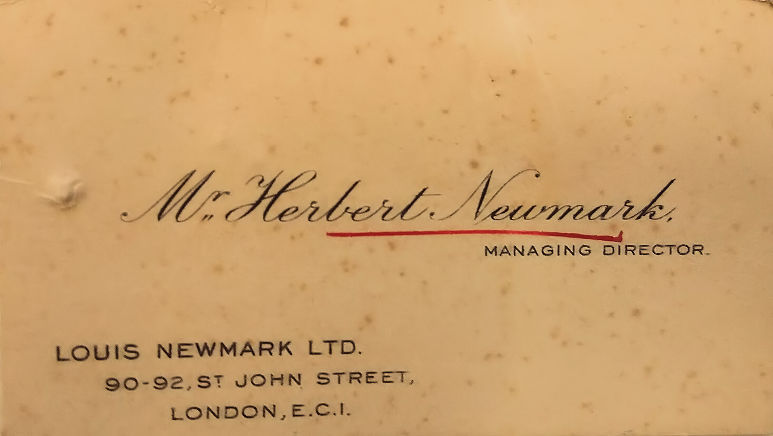 Herbert's business card
Herbert's business cardprev. exp. 227 hrs in "Gipsy Major" types, and a Fiat biplane
Address in 1941: Flat 11, 37 Grosvenor Square, London W.1
Postings: 6FPP, 1FPP
Off sick from 24 Dec 1942 to 9 Jan 1943 with bronchitis; 12 Mar to 6 Apr 1943 with influenza, and 16 to 29 Mar 1944 with bronchitis and asthma
9 accidents, 6 his fault:
- 20 Apr 1941, a taxying accident in Tiger Moth W7954
- 25 Jan 1942, an error of judgement landing Hurricane BN579 in a strong wind
- 27 Mar 1942, his Hurricane IIb Z3401 collided with a Hudson whist taxying
- 15 Apr 1942, a target drogue dropped from another aircraft onto his Spitfire Vb AR3422 whilst he was taxying
- 8 Sep 1942, when training on the Hudson, he "misused the throttles whilst landing" Hudson III AE537. (later amended to 'no responsibility', as the Hudson did not have full dual controls)
- 15 Nov 1942, he failed to control the landing swing in Spitfire BR415
- 15 Jan 1943, when landing Hurricane IIc KX402, he overshot in order to avoid an Oxford taxying towards him, but hit a parked Fairchild instead (not blamed for this one)
- 7 Mar 1943, he overshot a landing in Spitfire V R7030, ground-looped and the undercarriage collapsed
- 5 Jul 1943, he failed to control the take-off swing in Mosquito IX LR513, and the undercarriage collapsed
"A good officer with a pleasant personality. His accident record might suggest a lack of ability as a pilot. I do not think that this is so and I believe that he has had more than his fair share of misfortune and that his ability is adequate" - N Whitehurst, his CO at 1FPP
m. Jul 1946 in Marylebone, Margaret Ellen 'Faith' [Bennett], also of the ATA:

Under Herbert's chairmanship, Louis Newmark Ltd's activities included electronic precision equipment and components, importing and selling Swiss watches, engineering, industrial needles and "miscellaneous activities".
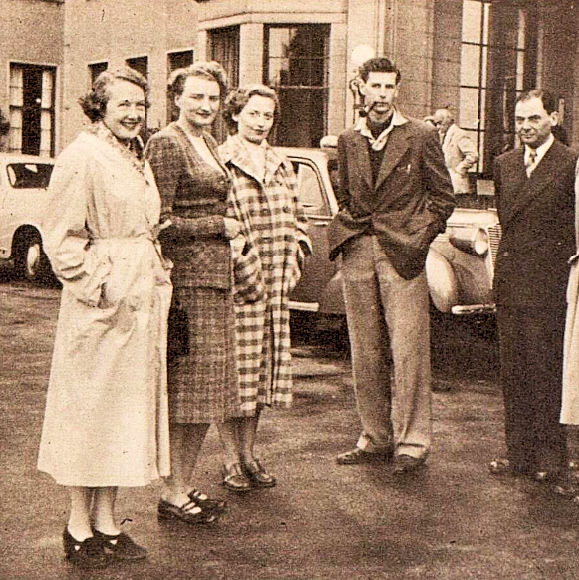 Faith (l) and Herbert (r) visiting Gleneagles Hotel in 1952
Faith (l) and Herbert (r) visiting Gleneagles Hotel in 1952d. 25 Dec 1989 - Horsham, W Sussex
-
Nichols, Cecil Vivian
M.784 First Officer Cecil Vivian Nichols 
b. 4 Dec 1913, Camberwell 10 Jul 1942 to 22 Jun 1945
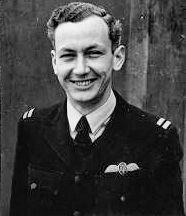 MAMM
MAMMEd. Modern School, Streatham
m 1937 Jessie B G [Pitceathly]., 2 children
prev. RAF 1934-6 Sgt Pilot 1940-42; Link Trainer Instructor. Press Telegraphist
prev. exp. 50hrs
Address in 1942: "Gwendreath", Liskey Hill Crescent, Perranporth, Cornwall
Postings: 12FPP, 6FPP, 16FPP, 2FPP
One accident, his fault:
- He landed heavily in a Beaufighter X and slightly damaged the port wing tip.
"A quiet, well-disciplined officer"
d. Jan 1990 - Exeter, Devon
-
Nicholson, Martin Richard
M.1034 * 3rd Officer Martin Richard Nicholson 
b. 14 Dec 1924, Leeds 29 Jan 1944 to 30 Sep 1945
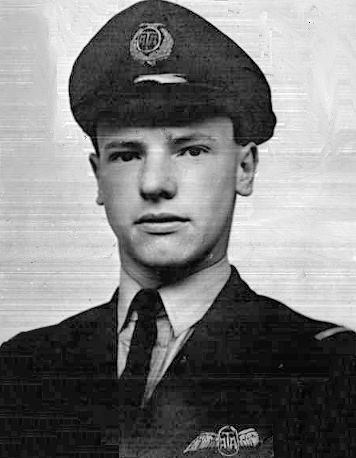 1945
1945Address in 1945: 4 Welburn Ave, West Park, Leeds 6
-
Obermer, Ruth (W.---)
W.--- Cadet Ruth Obermer  +
+ 
b. 26 Jul 1924, Marylebone, London 11 Oct 1943 to 26 Jun 1944
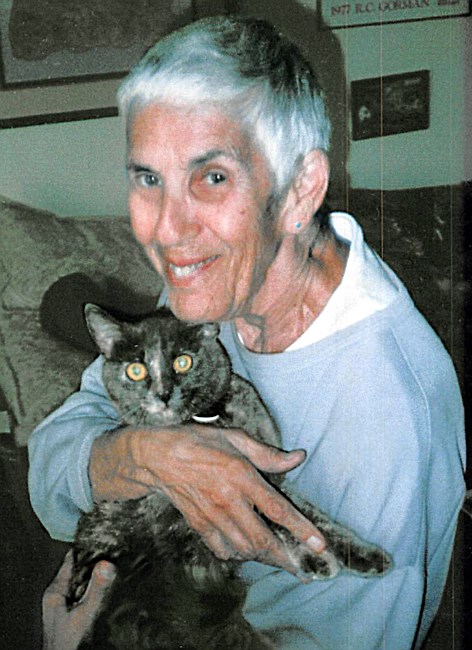
https://www.dignitymemorial.com/obituaries/culver-city-ca/ruth-obermer-8159022
Father: Dr. Edgar Obermer (b. 1895 in New Jersey), mother Sylvia [Johnson, d. Aug 1924] (both American)
grandfather Seymour, also American
Ab initio trainee
Trained as a nurse. Travelled to the USA in Jun 1956
d. 8 Feb 2019 - Culver City, CA
[Only Lettice Curtis' book 'Forgotten Pilots' has a Ruth Obermer listed, as an American cadet. So this may not even be the right person.]
-
Ogden, Sydney Watson
M.63 * Commander Sydney Watson Ogden 
b. 14 Apr 1906, Newcastle-on-Tyne 5 Aug 1940 to 30 Nov 1945
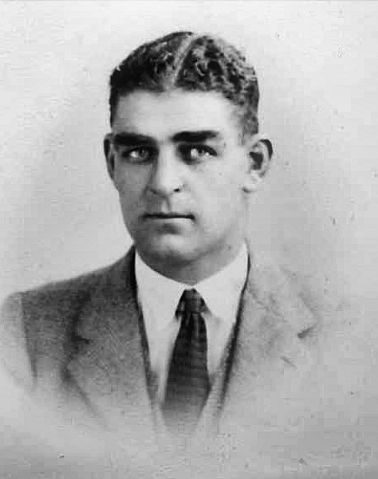 1935
1935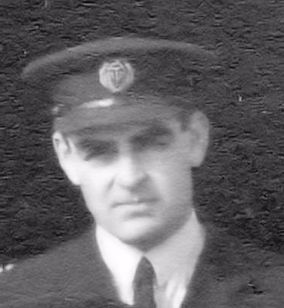 ATAM
ATAMAddress in 1935: 20 Great North Rd, Newcastle-on-Tyne
prev. an Engineer
-
Olieff , Percy Henry
M.745 * 2nd Officer Percy Henry OLieff 
b. 8 May 1895, Banbury 5 Aug 1942 to 31 Oct 1945
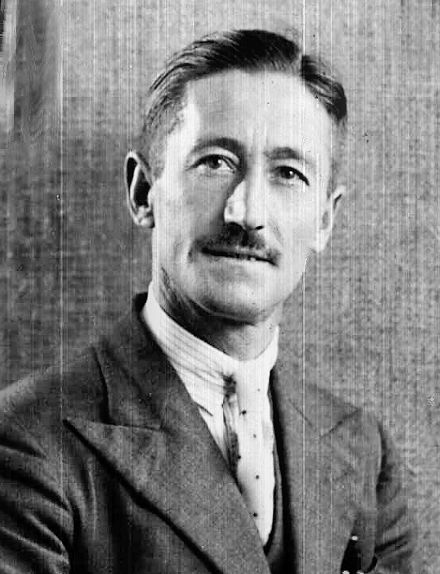 1939
1939 prev. a Motor Salesman
-
Paddon, Zita (W.132)
W.132 2nd Officer Zita Paddon 
b. 22 Apr 1913, Hampstead 27 Aug 1943 to 30 Oct 1945
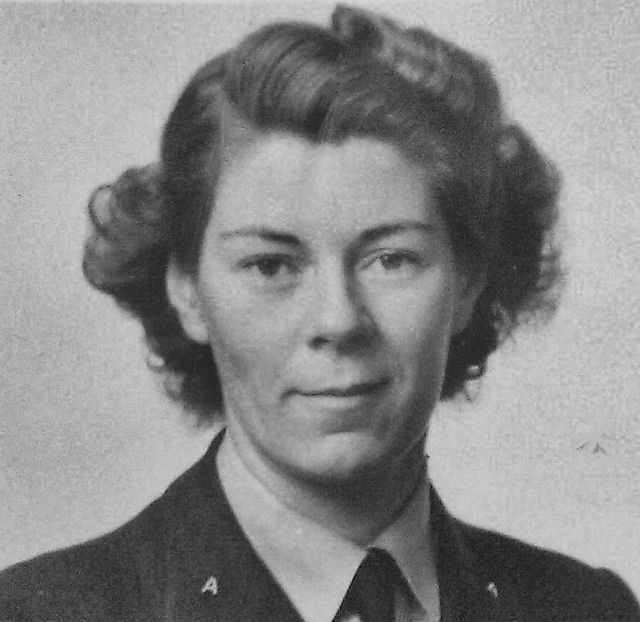 ATA
ATA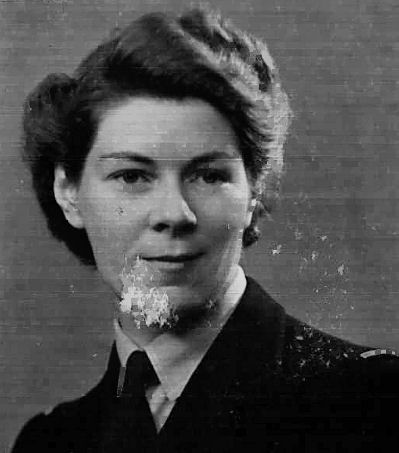 RAeC 1946
RAeC 1946Father: Charles Walter Paddon, a Civil Servant (Government Auditor)(d. 1940); Mother Amy Louise [Topham]
Ed. Sheffield High School, Southlands School Exmouth 1924-1930; Bedford College for Women, University of London (B.Sc. General Science) 1931-33
Also studied Engineering Drawing at Bedford Technical Institute, 1939.
prev: Private School Teacher; 1939-1943 WAAF. Cypher Officer working for RAF Ferry Command.
Address in 1939: 14 Pemberley Ave, Bedford (living with parents)
Postings: 7FPP
3 accidents, 1 her fault:
- 27-Oct-44, taking off in Spitfire XVI SM182, she allowed the tail to raise too high, the propeller hit the ground and sheared off the tips
- 02-Mar-45, a wheels-up landing in Barracuda II LS687 after the port undercarriage locked up
- 19-Apr-45, another wheels-up landing, this time in Mustang IV KM428 after the undercarriage selector lever stuck.
A member of the British Gliding Association's Delegation to Czechoslovakia in September 1946
Pilot Officer in WRAFVR until 1955
Moved to Harrogate c.1956
m. 4 Aug 1967 in Bedford, John H Fordham
d. 11 Feb 2001 - Tunbridge Wells
-
Paine, Ronald Leslie
M.601 * First Officer Ronald Leslie Paine 
b. 31 Jul 1893, Woolwich, London 16 Jul 1941 to 15 Dec 1943
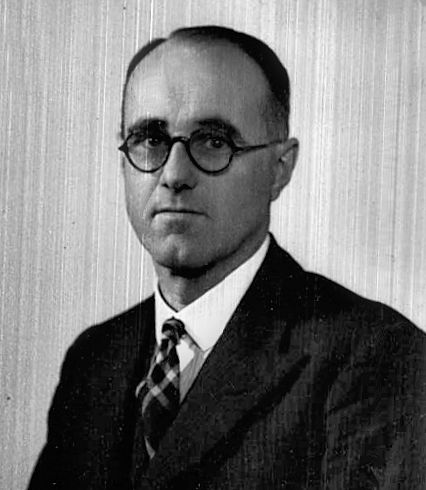 1938
1938prev. a Director
Address in 1938: 3 Langton Ridge, Tunbridge Wells
-
Palmer, Edward Gordon Masson
M.374 * First Officer Edward Gordon Masson Palmer 
b. 16 Aug 1889, London 18 Apr 1941 to 31 Mar 1945
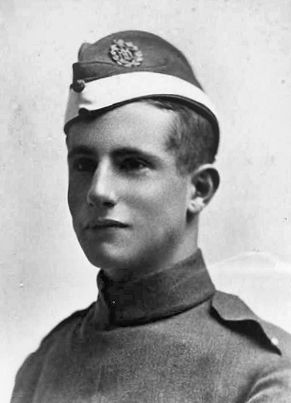 1918
1918Address in 1918: Alwyne Cottage, Horsell, Woking, Surrey
RAF Sergeant in WWI
Addess in 1927: 45H Quebec St, London, Ontario, Canada
-
Pardoe, Joan Hilda (W.---)
W.--- Cadet Joan Hilda Pardoe 
b. 20 Dec 1922, Macclesfield 18 Oct-43 to 31 Dec-43
Father: Henry Pardoe, a Company Director; Mother: Florence [Comley]
She sailed with her parents to Bombay, and back from Brisbane Australia with just her mother, in October 1932.
Address in 1932: 'Dinard', Rydal Dr., Hale Burns, Cheshire
prev: Shorthand Typist, M.A.P.
[ab initio]
[Contract Terminated by ATA]
m. 12 Jun 1945 in Bowdon, Cheshire, Sqn Ldr Michael Joachim Blaicher, of the Polish Air Force (b. 28 Jun 1898 in Hruszatyce, Poland, d. 1992)
They travelled to the USA (Wisconsin) in 1959, and were granted US nationality in 1965
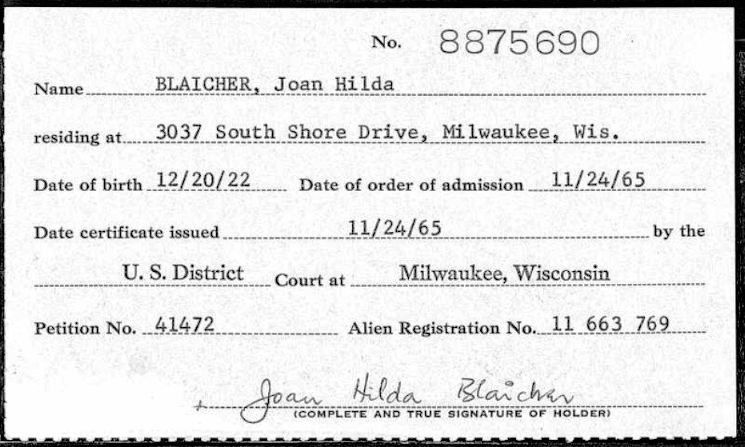
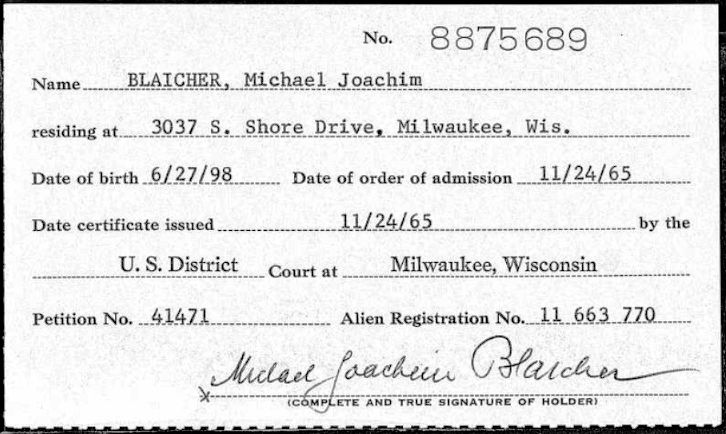
d. 1 Aug 2018
"Blaicher, Joan H. (nee Pardoe)
Reunited with her beloved husband Michael J. Blaicher on Wednesday, August 1, 2018 at the age of 95 years. Further survived by other relatives, friends and many colleagues/students she got to know over the years."
-
Parker, Patricia Mary Barbara (W.42*)
W.42 * 3rd Officer then Flight Engineer Patricia Mary Barbara 'Pat' Parker 
b. 19 Sep 1913, Insein, Burma 30 Apr 1941 to 31 Dec 1944
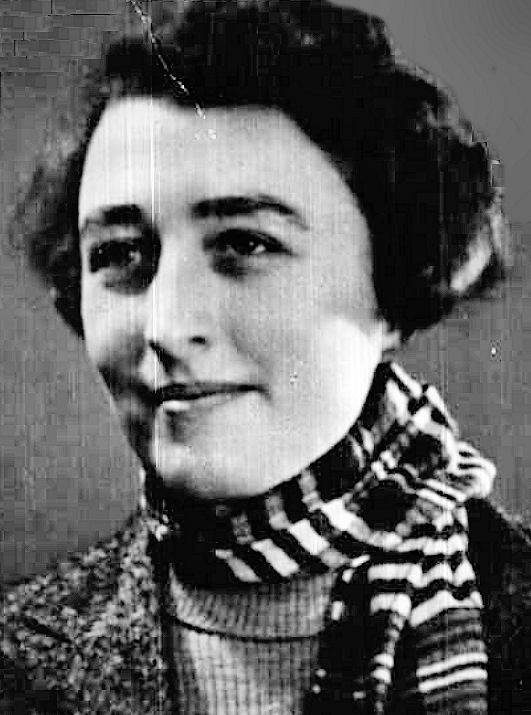 RAeC 1938
RAeC 1938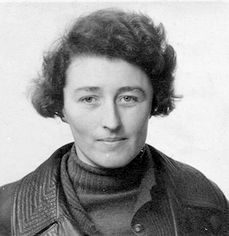 ATAM
ATAMFather: Sydney H Parker, Mother: Annie C
Address in 1938: Chasma Tangi, Ashley Rd, New Milton, Hants
prev. Teaching, Ground Engineer
Postings: 15FPP
d. 26 Sep 2000 - Wimborne St Giles, Dorset
-
Parkes, Norman Edward
M.590 * First Officer Norman Edward Parkes 
b. 30 Dec 1898, Walsall 8 Jul 1941 to 31 Jan 1944
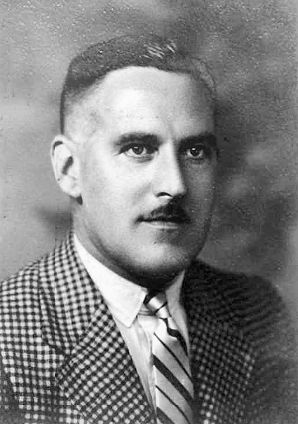 1934
1934prev. a Clerk
Address in 1934: 4 Persehouse St, Walsall
-
Parnell, Richard George Hobbins
M.230 * First Officer Richard George Hobbins Parnell 
b. 18 Sep 1901, Portsmouth 20 Sep 1940 to 31 Dec 1945
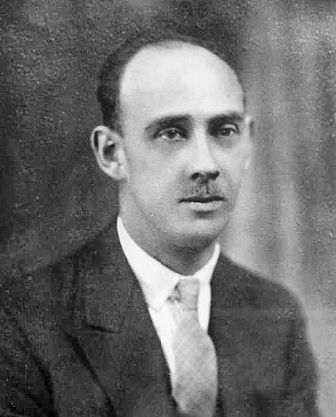 1934
1934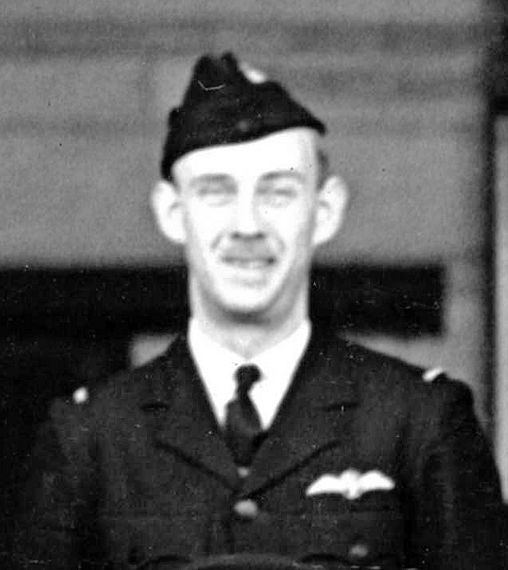 ATAM
ATAMprev. a Sales Manager
Address in 1934: 128 New Rd, Portsmouth
Postings: 1FPP
- 2 Apr 1943, the rear panel exit door of his Hampden I P1209 came loose during flight
- 2 Oct 1944, a forced landing in Tempest V JN761 following engine oil problems.
m. 1938 in Portsmouth, Dorothy May [Paine]
d. 2 Sep 1968 - Portsmouth
-
Parsons, Edward George
M.253 Captain Edward George Parsons 
b. 23 Nov 1905, Ealing 8 Feb 1941 to 30 Nov 1945
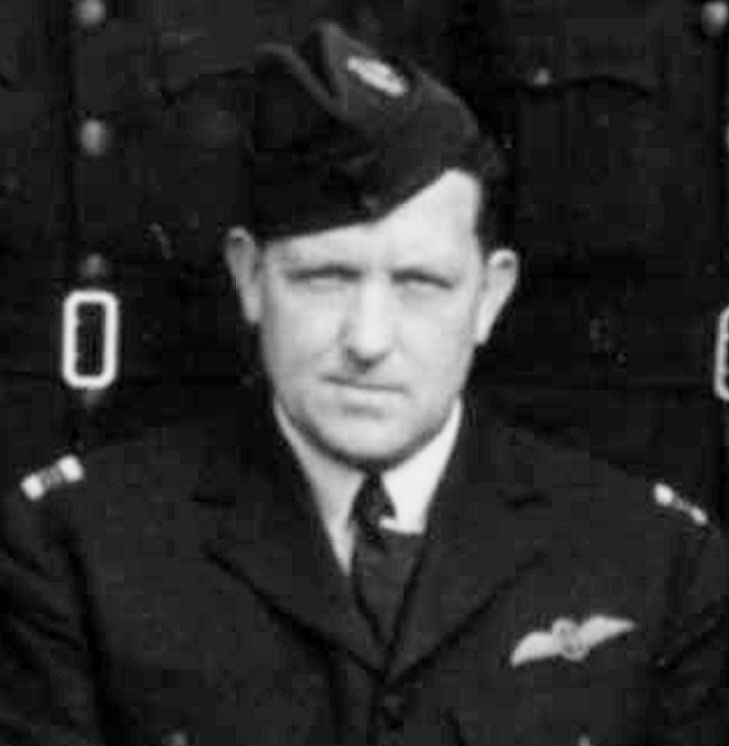 ATAM
ATAMFather: George James Parsons, a Manager, Book Retail; Mother: Hester
Ed. LCC School, Balham, LCC School Battersea
prev. Sgt Pilot, RAF 4 Feb 1922 - Aug 1932 (19 (Fighter) Sqn, then instructor); Manager of Lands End and Scilly Island Airport
m. 1933 in Bristol, Gertrude Lucy [Earp] (2 children, Ann M b. 1934, Gillian b. 1937)
prev. exp. 1,500 hrs ('B' Licence Holder) on Percival Gull, Comper Swift, D.H. 9a, 84, 86, 89, 90, Moth, Tiger Moth, Puss Moth, and Leopard Moth, Waco C.6, Vickers Vimy (!), BA Double Eagle, Avro 504K, Sopwith Snipe and Grebe, Bristol F2B, including Egypt, Palestine and Iraq.
Address in 1941: Bay Tree Cottage, Blakesley, nr Towcester, Northants
Postings: 3FPP, 4aFPP
Class 5 (4-engine) qualified pilot
One accident, not his fault:
- 26 Jan 1942, forced landing in Hudson B9040, due to a cowling coming loose in flight
Address changed to 130 Liverpool Rd, Chester, then later The Old Hall, Flookersbrook, Chester
"I could not wish for a more loyal and harworking second-in-command" (Stan Ogden)
"He has very considerable experience on all types of aircraft, and is always willing to give less experienced pilots advice"
King's Commendation for Valuable Service in the Air
Sailed to Curacao, Venezuela in November 1945
d. 2 Feb 1981 - Camberwell, London
-
Parsons, Joan Alys Helen Mary (W.---)
W.--- 2nd Officer Alys/Ailiss Helen Mary 'Joan' Parsons LRAM 
b. 8 Oct 1906, Parkstone, Dorset 25 Jun 1940 to 25 Jul 1940
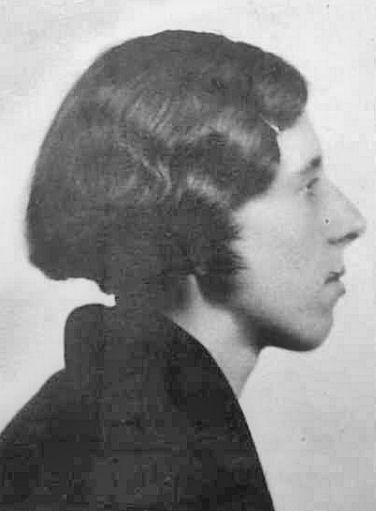 RAeC 1933
RAeC 1933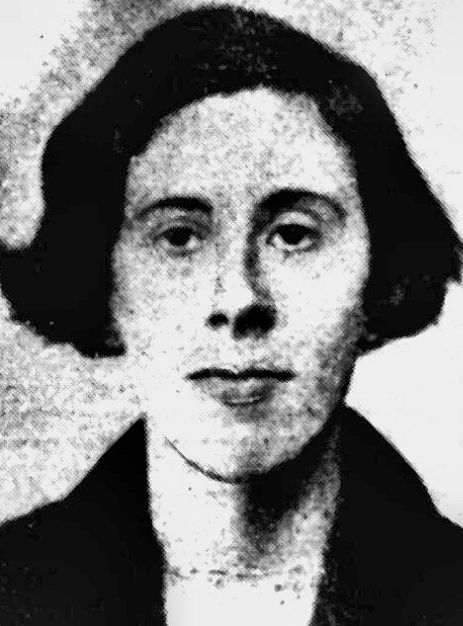 1938
1938Christened Alys Helen Mary Parsons, but always known as 'Joan', and sometimes spelt her first name as 'Ailiss'
LRAM is 'Licentiate of the Royal Academy of Music', which is a licence to teach music.
5ft 7in tall, green eyes
Father: Rev. Randolph Cecil Parsons (d. 1941), Mother: Florence Emily [Ashton] (d. 1946)
Her elder brother, John Cecil Lawrence Parsons, b. 1905 in Bournemouth, also had a pilot's licence:
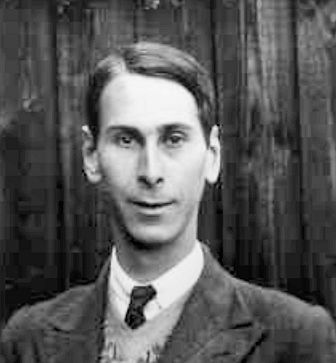 1934
1934prev: 'Domestic At Home'; piano teacher
She advertised in the Leamington Spa Courier, 8 July 1930: "MISS JOAN PARSONS, L.R.A.M. (PIANISTE). Pupil of Mr. Evlyn Howard-Jones. Is open to Public and Private Engagement and visits Pupils. Address; 19, Avenue Road, Leamington Spa."
Having gained her Royal Aero Club Certificate in 1933, she was "thwarted in her ambition to follow a career as a commercial air pilot" as, when she had put in the necessary 200 hours solo and took the examination. she was not passed. She later said that, on insisting upon an explanation, she was told that 'although her flying was up to the required standard, her health was the obstacle".
Nothing daunted. she took up "an intensive course of physical culture, and eventually improved her health sufficiently to be able to pass the test. But then, having temporarily relinquished her solo flying, she discovered, to her great disappointment, that she was unable to fulfill the condition of the requisite number of hours in the air."
She then worked for a while at Hayling Island aerodrome.
In 1938, she used a legacy "from an elderly relative" to buy G-ADNL, a Miles M.5 Sparrowhawk, first registered 12 Aug 1935 to Phillips & Powis Aircraft Ltd.
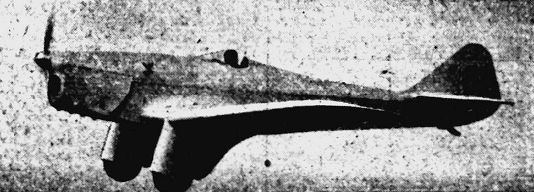 G-ADNL in 1938
G-ADNL in 1938It had competed in the King's Cup in 1935 (flown by Frederick Miles himself), coming 11th/29, 1936 (flown by Patrick Maxwell, an Instructor at the Phillips and Powis Civil Training School), coming 9th/26, and 1937, (flown by Wing-Cmdr Frederick William Stent, who died 28 Jun 1938 in the crash of the Miles M.11C G-AEYI), coming 7th/27.
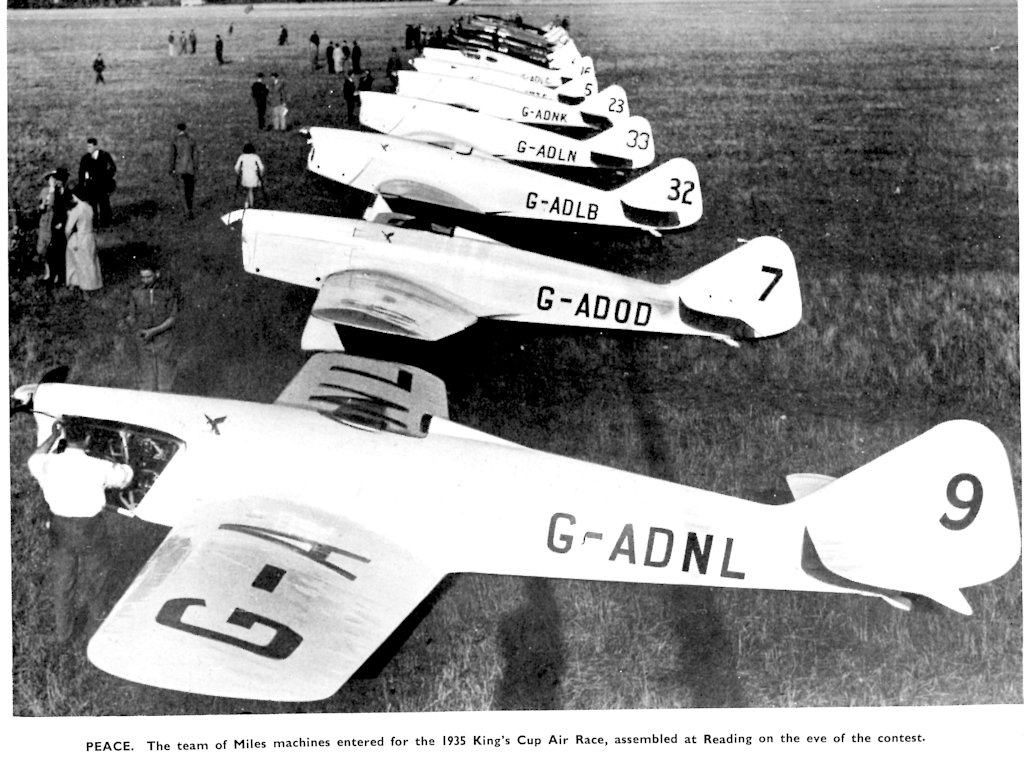 G-ADNL in 1935
G-ADNL in 1935In May 1938, she started a "lone, and almost unprepared" flight to Cape Town and back. It was her first flight outside England or Scotland.
She left Lympne, without telling anyone except her parents, on 7 May 1938.
Her father said he had absolute faith in his daughter. "I am sure she will accomplish her objective," he said. " She is not out to break records. but to gain experience. She is full of the spirit of adventure. Flying is in her blood."
Major J. E. Bonniksen, of the Leamington, Warwick and District Aero Club, said Miss Parsons, who was taught to fly by Tommy Rose, deserved real encouragement. "She is made of the right stuff," he said.
Things went smoothly to begin with: "... in 75 minutes I arrived at Le Bourget. I cannot describe the thrill I felt as I zoomed over the Channel. 1 thought of Bleriot and all the pioneers of flight who had opened up the pathways of the air — and I felt ashamed when I realised how insignificant I really was."... " After undergoing the usual formalities at Le Bourget, I flew towards St. Etienne and arrived there in a couple of hours. It was raining and I had to spend the night there. Next morning I went on to Marseilles, and 40 minutes later I was at Cannes."
Then the first hitch: "In Cannes I learned that it was impossible to fly over Rome because of Hitler's visit. That was that! I had to spend two days at Cannes. Eventually I left for Rome at three o'clock in the morning arriving five hours later. I had no time to lose, so immediately after the customs formalities I took to the air again and at 11 a.m. I was in Athens. What scenery I saw!"
"I continued on my way some minutes after my arrival, and at 2.45 p.m. I landed at Amscat, Lybya. Having a flat tyre, I had five hours to wait. At last I got going again, and landed the same day at Dekheila. I spent the night at :Alexandria before starting off again the next morning for Almaza."
[What she failed to mention is that a) she had to make a forced landing on 19 May, due to shortage of petrol, at an aerodrome at Khalkis, (which she described as being "all ridges") some distance short of Athens, and b) she had only two hours of daylight to fly from Amscat in Libya to Alexandria.]
She then spent a few days sight-seeing in Cairo.
After that, frankly, the catalogue of mishaps continued...
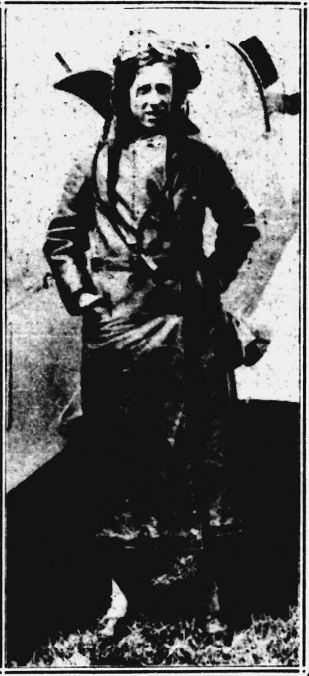
She made another forced landing, on 24 May, at Victoria West, running into a barbed wire fence which wrapped itself round the propeller and damaged the fuselage. The local garage mechanics had never worked on an aeroplane before, but eventually fixed it in five days.
However, she finally reached Capetown, and stayed there until 1 July when she started back, "following the old Imperial Airways route... she expects to take 8 days. She hopes to reach Broken Hill, Rhodesia, tomorrow"
She left Mpike, in Northern Rhodesia, on 4 July for Mbeya, in Tanganyika Territory.
By the 6th July, the newspapers reported "NATIVES SEARCH FOR MISSING LEAMINGTON WOMAN - Nothing heard of her since Monday - Concern for safety of former music mistress"
... until...
9 July 1938: "BRITISH AIRWOMAN STILL STRANDED. Motor Boat Has Not Yet Reached Her. Dar es Salaam. Tanganyika, Friday.
Miss Joan Parsons, the Leamington airwoman. who was found by natives yesterday after she had been missing for three days, is still stranded in the bush near the Rufijii River, some 200 miles north of Mbeya, Tanganyika. Miss Parsons, who came down while on a flight from Capetown to London, is believed to be unhurt, though her plane was wrecked [sic]. The District Officer for Kiberege (Mr. Theodore Pike), well known Irish Rugby international, who has gone to her rescue by motor boat up the Rufiji, has not yet reached her.
An official Government communique issued here to-night says: There has been no further news of Miss Parsons, but this is not surprising as the District Officer has not yet been able reach the position where her aeroplane is reported to have crashed.” An R.A.F. machine left Mbeya to look for her this morning, but visibility was very bad because of cloud and the plane returned to Mbeya."
Her father said "We were getting rather frightened. It was such a shock to hear that Joan was missing and then to hear nothing further"
Her mother added "She will be ordered home. She will not be allowed to go on more flights of this nature"
[Good luck with that...]
By the 12 July, more of the story emerged: "Plane Runway Cut in Bush for Air-Girl. A solitary native road worker who witnessed the landing in the bush of Miss Joan Parsons, the Leamington airwoman, ran 30 miles to inform the district officer, Mr. Theodore Pike. He set off at once by moonlight for the Rufiji River in a motor boat, and is now assisting to cut a runway through the long grass where the plane landed. Miss Parsons may take off for Iringa, 80 miles away. She was given native foods, tea and sugar by Christian natives after landing. She sent no SOS, but merely asked for petrol and oil."
She arrived back at Nairobi on the 15 July and was hoping to leave for the UK the same day, but the "Authorities" insisted that she be escorted over the Sudan, and she had to wait for some RAF machines which were flying to Egypt.
She landed back in Lympne on 8 August, then reached home in Leamington Spa on 11 August 1938
Despite the plans which had been made to give her a triumphal return home, bad weather forced a delay to her final leg from Reading, so the civic reception waited for hours, eventually presented the bouquet to her brother and then went home.
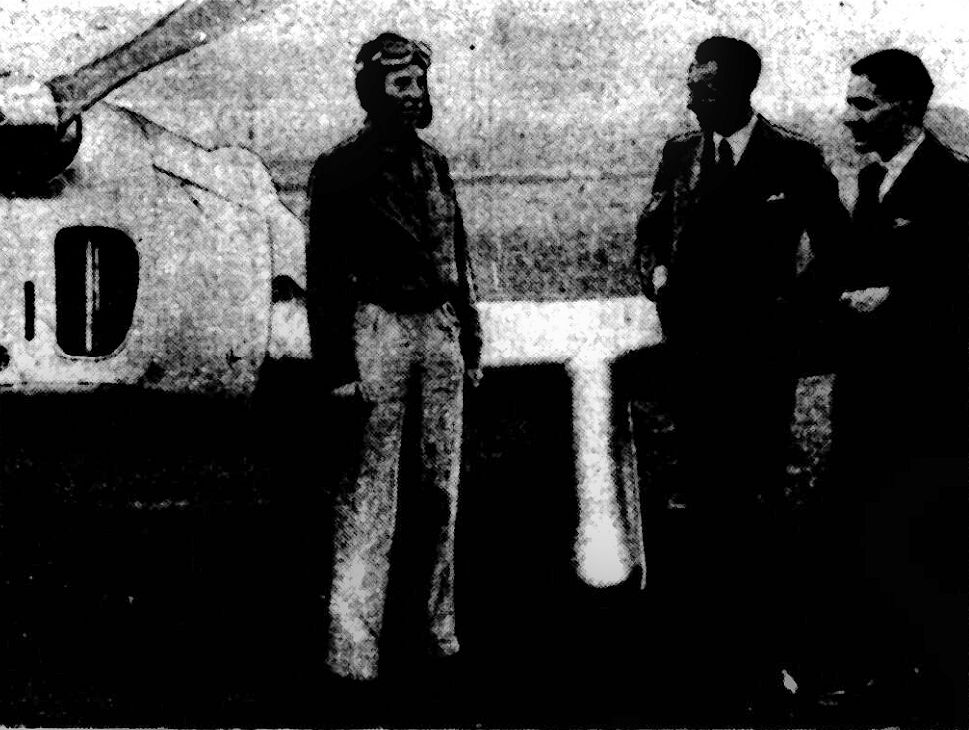
Home at last, with Maj. Bonniksen and H C Everitt, of the Leamington Spa and Warwick Aero Club
Afterwards, she said her chief anxiety was "to save sufficient money to make a flight to India"
She had other plans, too:
2 Sep 1939 - "Miss Parsons is as keen as ever on aviation, and she recently purchased an Airspeed Courier six-seater machine which was used by Sir Alan Cobham on his India flight. The machine is being refitted by the makers, and Miss Parsons will, in all probability, use it for passenger work."
She bought G-ABXN, a 1932 Airspeed AS.5 Courier formerly owned by North Eastern Airways Ltd, based at Croydon:
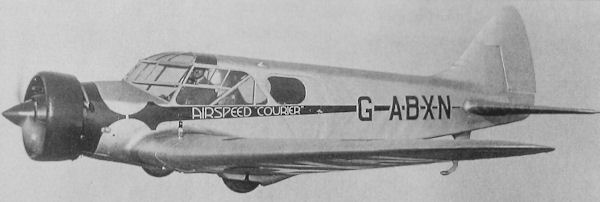
However, Britain's Declaration of War the very next day put a stop to all that; the aircraft was requisitioned in June 1940 and only lasted until September, when it was scrapped.
Contract Terminated by ATA after 1 month]
"Leamington's Airwoman of African Fame"
"AIRWOMAN FINED FOR QUITTING JOB
Complaint About Workmate "Exaggerated"
Joan Parsons, who made a name for herself 1938 by flying solo to the Cape, was fined £5 to-day at Leamington, Warwickshlre, for falling to comply with a Ministry of National Service direction to work in an aircraft factory. Mr. W. A. Coleman, prosecuting, said that after being at a bench for two days Miss Parsons wrote to the firm complaining that she had been molested by a labourer, who repeatedly jabbed her under the arm. This so played on her nerves that she could not continue, and she left, declining to return for fear of further aggression.
''Of African Fame"
The letter was signed, "Joan Parsons, Leamington's airwoman of African fame." The complaint was grossly exaggerated, said Mr. Coleman. The labourer was a reputable workman, who thought he was encouraging the defendant by a playful act. Gilbert Stackhouse, shop foreman, said the labourer just touched Miss Parsons on the shoulder and said: "It won't be long now." 'I knew what he meant, but she didn't." added witness. "I told her that the man was trying to keep her happy, and instructed him not to go anywhere near her again."
The "Rough Man"
In evidence Miss Parsons said her father was a clergyman. The "rough man" who irritated her wanted to tickle other girl employees. The man leered in her face and was very objectionable. She kept away from the factory because she feared an act of revenge. Mr. Coleman: But surely you have had some experience of the world and meeting people? Miss Parsons: Yes. I have been treated very well abroad, and natives in territories on which I have had forced landings in Africa have looked on me as a goddess”.
Mr. Overall, defending, said it was not everybody who reacted favourably to being jabbed in the ribs every two or three minutes." - The Yorkshire Post, 8 November 1943
d 20 Sep 1989 - Weston Super Mare, Somerset, leaving £118,000
[Her Sparrowhawk G-ADNL was later converted into the sole Miles M.77 Sparrowjet:
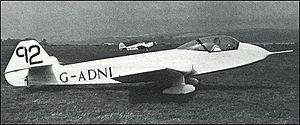
... and on 13 July 1957, it won the King's Cup with a maximum speed of 228 mph.
https://en.wikipedia.org/wiki/Miles_Sparrowjet
]
-
Partington, Harry
M.352 First Officer Harry Partington 
b. 17 Jun 1920, Chester 3 Mar 1941 to 23 Apr 1944
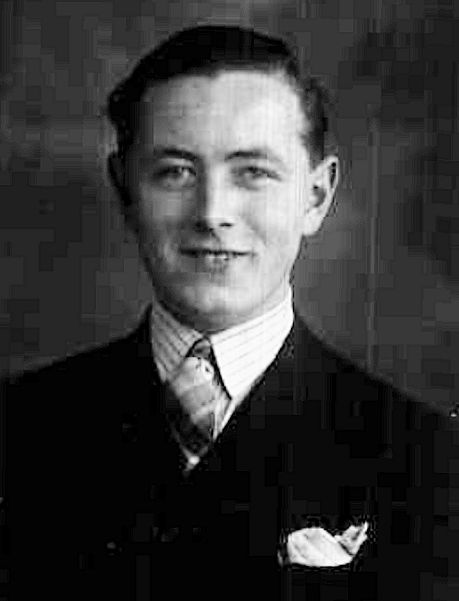 1937
1937Father: Henry Partington, Mother: Mary Ann [Geraghty], (d. 1985) of Caldecott, Farndon, nr. Chester
Ed. Miss Davis College, Chester; Royal Naval College, Greenwich
RAeC Certificate 15585 dated 4 Dec 1937, taken at The Northern Aviation School and Club
prev. clerk; Aircraft Inspector for Vickers Armstrong, Chester; Midshipman (Air), Fleet Air Arm 1 May 1939-23 May 1940
prev. exp. 130 hrs on Hillson Praga, Tiger Moth, Harvard, Fairey Battle
Postings: 4FPP, 3FPP, 16FPP, 7FPP
Class 5 (4-engine) pilot
Off sick from 17 Jul to 28 Aug with cystitis, and from 14 to 29 Mar 1943 with influenza
3 accidents, 1 his fault:
- 10 Feb 1942, a forced landing in Hector K9721 after engine failure
- 24 Oct 1942, he undershot the landing in high winds in Master II DM215 and damaged the port wheel
- 31 Mar 1943, forced landing in Anson N9741 after rapid and unexpected weather deterioration.
"Apt to be a bad time-keeper, but very much improved as a pilot and an officer"
"He has shown tendencies of over-confidence, and unless he is held back he may be inclined to "go over the top"
Suspended for 1 week with loss of pay, and transferred to 7FPP after being absent without leave from 3FPP on 22-23 Jan 1944
[Contract Terminated]
d. 1999 - Nottingham
-
Partridge, Leopold Frank
M.278 First Officer Leopold Frank 'Leo' Partridge 
b. 14 Jun 1901, London 11 Sep 1939 to Dec-40
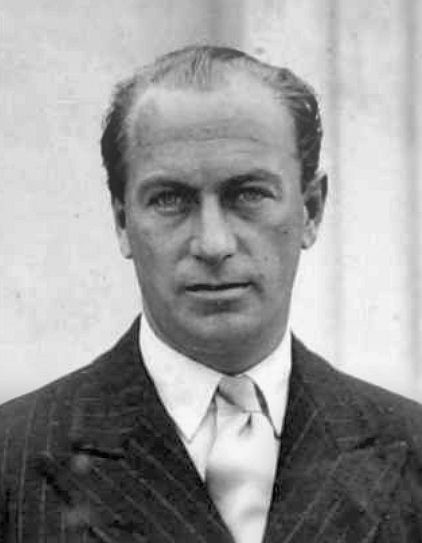
1931
ed. Aldenham then Cambridge
An antiquarian / art dealer in London
prev exp 501hrs. Owned 1930 DH Moth G-ABBO, and "a Fairchild".
ATA Contract terminated 1 Dec 1940; thereafter Leo continued as "Liaison Officer to ATA, without contract."
He ws later (1944) fined £75 plus 10 guineas costs, for "wilfully obstructing PC William Davey in the securing of public safety", after refusing to move back from an area being cleared of bombs. He said "My name is Partridge, and I will not move for you or anybody else"; he had, apparently, been drinking, but "was not drunk".
When told he would be arrested he said "I am a ferry pilot. I am not going for you trash". The judge was not impressed, telling him "You behaved extraordinarily badly. The difficulty is whether I am justified in keeping you out of prison. At times when there has been a raid, it is a very bad thing for a well-to-do man like yourself to behave in the outrageous way you did".
The family firm founded by Leo's father still exists:
see http://www.frankpartridge.co.uk/about-frank-partridge/
-
Patterson, Gabrielle Ruth Millicent (W.14)
W.14 First Officer Mrs Gabrielle Ruth Millicent Patterson
née Burr

6 July 1905, London 1 Jan-40 to Jun-43
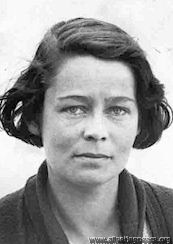 1934
1934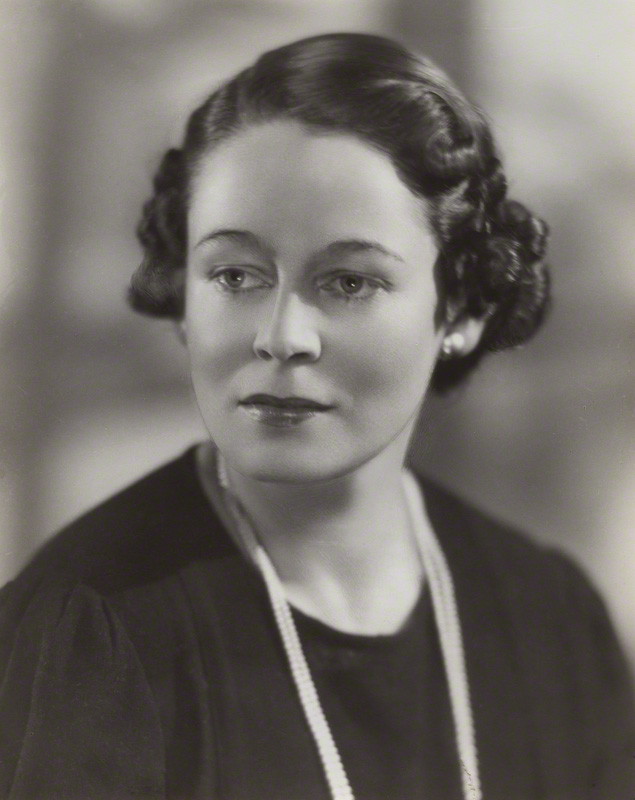 1938
1938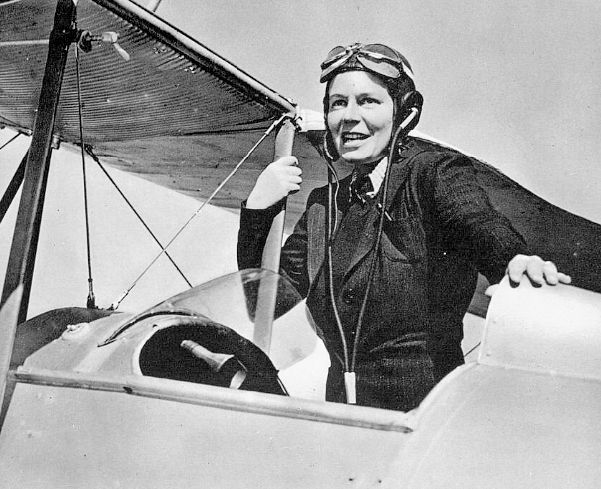 1939
1939.jpg) RAeC Cert 1931
RAeC Cert 1931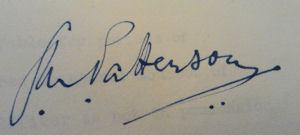
Father: Malcolm Burr, a mining engineer, Mother: Clara Millicent [Goode]
A lady with her own opinions, particularly about race handicapping, which you can read here.
b. 6th July 1905 in Paddington, London, the eldest of four daughters; grew up in Dover, Kent, but her father was a rather peripatetic amateur entomologist and she was educated all over Europe, including Paris, Berlin, Budapest, and Vienna.
Was very busy in 1931; described as a 'secretary' [actually, she was the Company Secretary of her mother's family firm of upmarket china and glassware merchants, Thos Goode & Sons], and living in Maida Vale, London, acquired both her aviator's 'A' Certificate (No 9752), and her husband, Mr Arthur L 'Pat' Patterson.
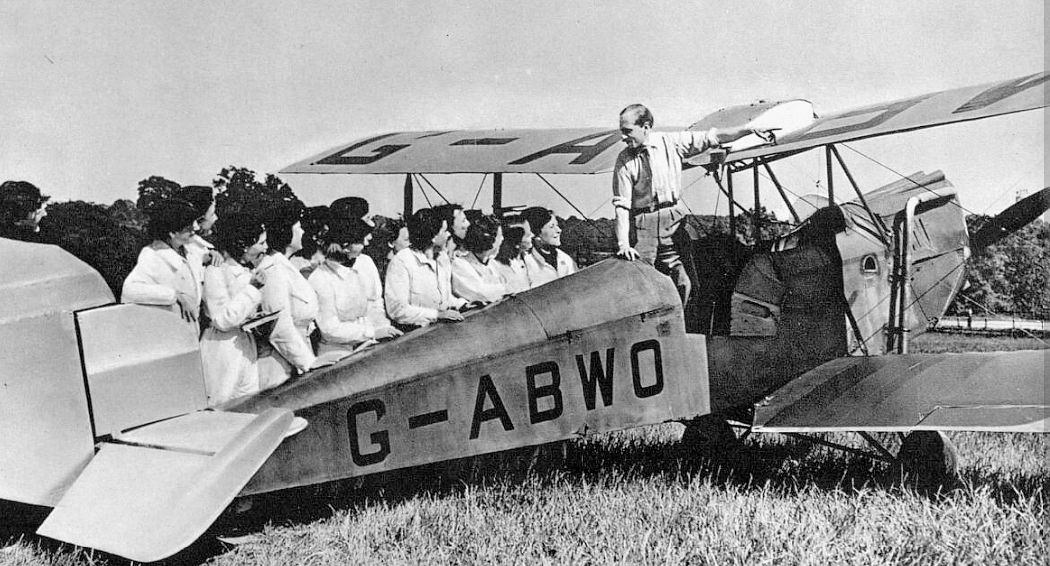
"Arthur Patterson, "Mrs Pat's " husband, and himself a distinguished aeronautical engineer, takes some of the weekly classes at Romford. Here he is giving instruction on rigging." The Bystander, 1939
[The 1932 Spartan 3-seater G-AWBO belonging to Romford Flying Club was damaged by fire in Feb 1940]
At the same time (May 1931), she also competed in the Ladies event at Reading - the other competitors were Amy Johnson, Grace Aitken, Pauline Gower, Dorothy Spicer, Susan Slade, Winifred Spooner, Christina Young, and Fidelia Crossley - a historic gathering indeed.

Her son, Ian, was born in 1932 in Eton, Oxfordshire, but Gabrielle and Pat divorced in 1939.
By 1933, she was the first woman (in Britain, at least) to hold an instructor's certificate.
She entered the King's Cup Air Race in 1934, flying a Miles Hawk G-ACTZ designed by ‘Blossom’ Miles, wife of Fred Miles:
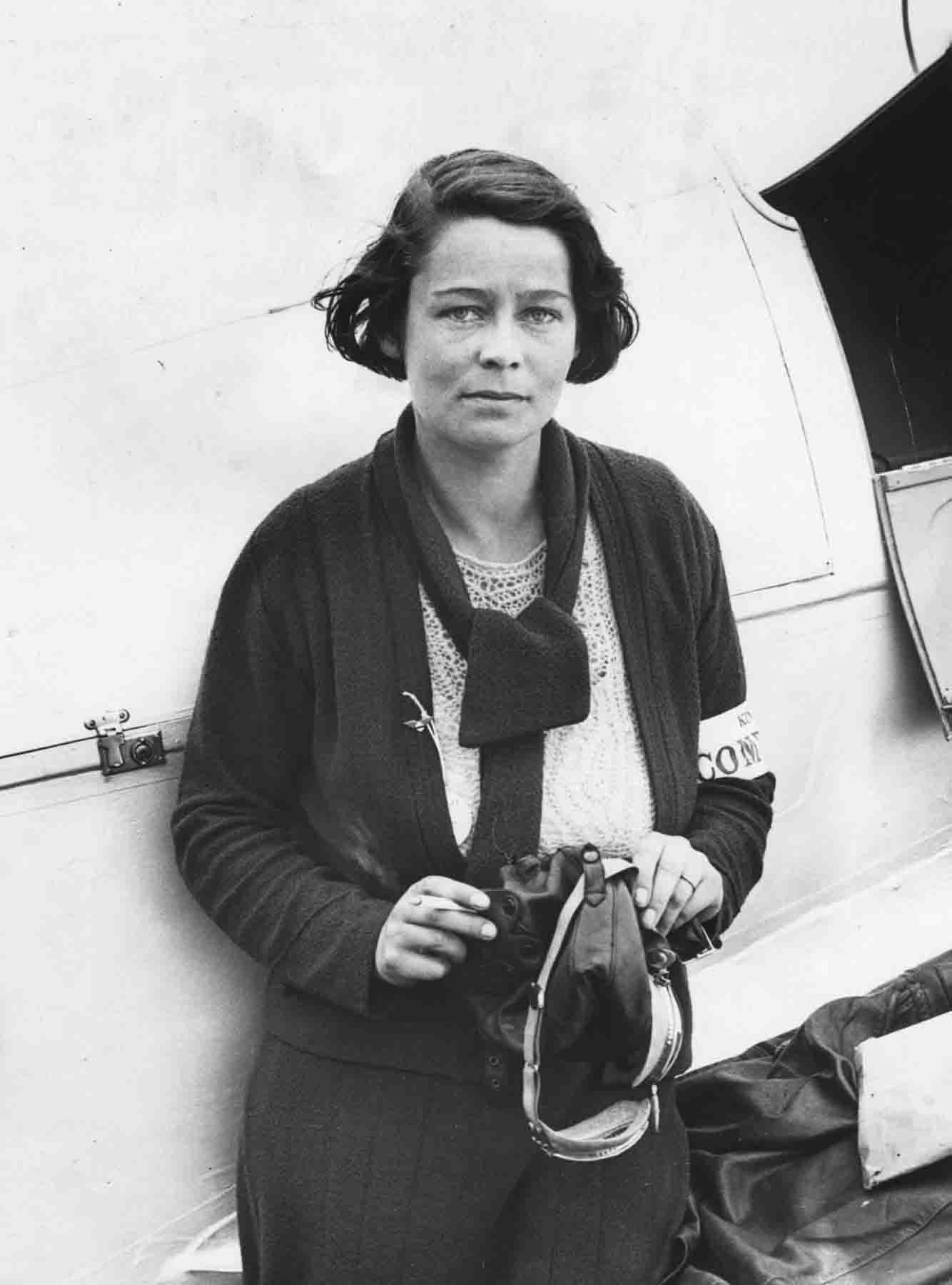
In 1938, she wrote an article on the subject 'Would women make good instructors in the event of war'. She, of course, was already a successful instructor, although admittedly her experience was limited, because "a man who is paying for his flying, and whose average age is probably a little greater on that account, is more amenable to reason than the youngster of eighteen to twenty, with his wild oats still unsown."
She thought that women instructors would probably cope, though; "The instructor always starts with the advantage of his pupil's spontaneous respect for a (relative) master of his subject, coupled with a very natural wish to shine. The woman instructor has the added advantage that this respect is enhanced by her supposed greater difficulties in acquiring that (relative) mastery and with the instinctive desire of the male to impress the female. By tactfully and subtly indicating the conduct in the air and on the ground which does win her confidence and does impress her, she can obtain it in nine cases out of ten, and in the face of such a proportion she could certainly count on disciplinary measures for the tenth."
But she worried whether there would actually be enough women to become instructors; her experience was that women didn't make such good puplis as men. "It is arguable that since of good men pilots only a few make good instructors, amongst women (where the number of good pilots is a lower percentage of pupils) the quantity of good instructors would be so small that there could be no justification for spending public funds in discovering them."
The reason for this, she thought, was that "women pilots hitherto have consisted only of those with large enough bank balances".
Flight reported her activities at the time: "19 May 1938: "ROMFORD. Miss Amy Johnson visited the Romford Flying Club last Sunday to present a flag and charter to the National Women's Air Reserve which operates there. There are 125 members of the Reserve, taking flying instruction with Mrs. G. M. Patterson."
15 June, 1939: "Mrs. G. Patterson's G.A.P.A.N. Appointment. All who have come into contact with her will wish to congratulate Mrs. Gabrielle Patterson on her appointment to the Panel of the Guild of Air Pilots and Navigators. This is the first time that a woman has received the appointment.
Mrs. Patterson has been a flying instructor for some years and is now leader of the National Women's Air Reserve, the organisation which has been putting in a good deal of flying —and securing no little amount of newspaper publicity—at Maylands Aerodrome, Romford. Mrs. Patterson herself, it may be added, has always shunned any sort of personal publicity.
She is, we believe, a first-rate pilot and an extremely capable instructor."
She was living in Bristol, aged 34, with about 1,530 hours experience when WWII broke out in September 1939; her son was at Prep. School.
She filled in the application form for the ATA that December; her 'types flown' at the time consisted of "Moth Major, Tigers, Avro Cadet, Avian, Cygnet, Hornet Moths, Cirrus I, II and III Moths, Gypsy Moths, Spartans, Puss and Leopard Moths, Klemm, Swallow, Civilian Coupe, Miles Hawk and Hawk Major, and Miles Whitney Straight" and she had owned "a Miles Whitney Straight, a Puss Moth, 2 Gypsy Moths, and 2 Swallows (Only 1 any good)". As well as in the UK, she had flown in Germany, Belgium, Holland and France.
She gave her next of kin as Arthur Patterson RNVR.
She started as one of the 'First Eight' highly-experienced women pilots at Hatfield the following month. After a while ferrying trainers at No 5 Ferry Pool, she had to learn to fly new types. Her instructors duly reported that she was "a good and very experienced pilot", and she was "keenly aware of her own limits , which I feel is an excellent feature of her character. Has the makings of a first-class ferry pilot."... "A polished pilot whose capabilities are limited by her physique. In view of her undoubted ability and experience I regard her as somewhat under-confident."
She had 2 accidents; in December 1940, flying a Rapide X7322, (she was deemed to be 'at fault') and in May 1942, when the undercarriage of Spitfre Vc BP863 jammed in the 'up' position (she was 'not to blame').
During her time with the ATA, she flew these types:
Moth (155 hrs); Miles Master (35 hrs); Oxford (105 hrs); Proctor (8 hrs); Hart (1 hr); Dominie (25 hrs); Magister (6 hrs); Harvard (8 hrs); Q.6 (1 hr); Lysander (6 hrs); DH86 (1 hr); Anson (42 hrs); Hurricane (26 hrs); Rapide (2 hrs); Spitfire (33 hrs); Blenheim (21 hrs); Douglas variants (1 hr); Defiant (1 hr); Fairchild (26 hrs); Hampden (3 hrs); Wellington (26 hrs); Hudson (6 hrs); Tutor (1 hr); Botha (3 hrs); Stinson (2 hrs); Whitley (1 hr); Beaufighter (2 hrs); Mosquito (2 hrs); Swordfish (4 hrs) and Typhoon (1 hr).
However, her slight physique also let her down in other ways; she was off sick with measles for a month in Apr-May 1941, then 2 weeks in March 1942 with an infected elbow, then a month (Oct-Nov 1942), and finally (in Feb-Mar 1943) another month with 'bronchial cattarh'. Her contract was terminated in June and she left the ATA as a First Officer [which I always find surprising; she was never promoted to 'Flight Captain'].
She died relatively young, sadly; having completed a degree at Manchester University in the 50s, she moved to France but fell ill with cancer, moved back to Little Missenden, Bucks, to live with her sister, but died there on 31st October 1968, aged 63.
Her ashes were scattered from the air over White Waltham airfield in March 1969.
-
Pattinson, Lawrence Arthur
M.715 * Senior Commander Sir Lawrence Arthur Pattinson KBE, CB, DSO, MC, DFC 
b. 8 Oct 1890, Newcastle-on-Tyne 18 Sep 1941 to 7 Oct 1942
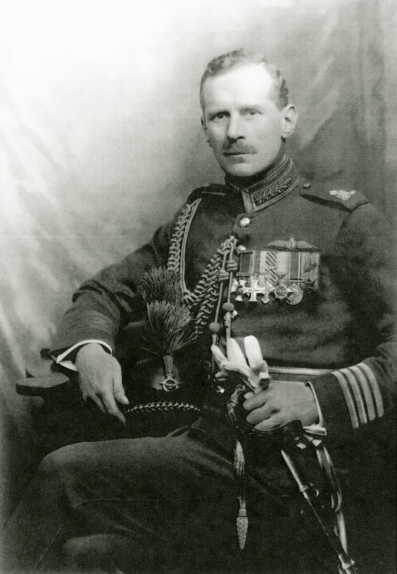 Ancestry.co.uk
Ancestry.co.uk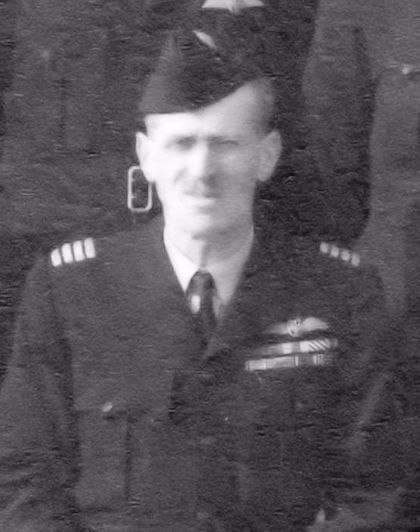 ATAM
ATAMLieutenant in 5th Durham Light Infantry, 1914
RFC, 1916
Citation for the award of the Distinguished Flying Cross
“Major Lawrence Arthur Pattinson, M.C. (R.Fus.).
This officer is not only a capable and most efficient squadron commander, but also an exceptionally fine leader of bombing formations. On the 7th of .September he led a combined formation of twenty-two machines; they were attacked by same thirty aircraft, who made the most determined effort to prevent our formation reaching their objective. By skilful leadership and manoeuvring Major Pattinson repulsed the attack and dispersed the enemy formation. Leading well over the target excellent results were obtained.
(M.C. gazetted 3rd June, 1916)”
m. 1923 Mabel Copeland [Capper]
1926-30 Wing Commander Air Staff Training, RAF India
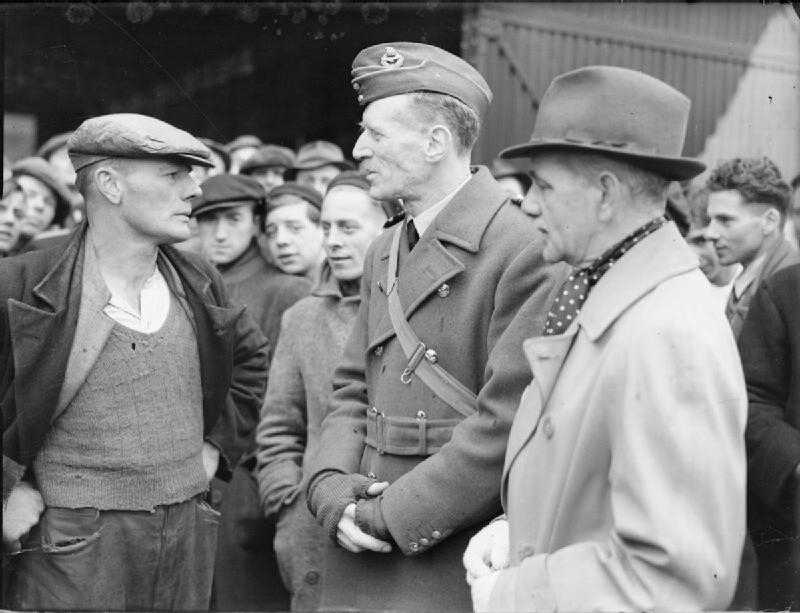
Air Marshal L A Pattinson, Air Officer Commanding-in-Chief Flying Training Command, talking to workers at Rugby, Warwickshire, on the completion of an RAF training station
www.rafweb.org says "Retiring in 1942 he was employed temporarily by the ATA until recalled to service and appointed Head of the RAF Training Mission to China, after which he reverted to the Retired List."
His ATA career did not last long: on the 14th January 1942, after he landed Airspeed Oxford Z7126 at Atcham, he selected 'undercarriage up' instead of 'flaps up' and the port undercarriage leg collapsed.
Veronica Volkerz tells the story in her book: "The Chairman of the Accidents Committee was an air vice-marshal, lent to the ATA from the RAF. Some time after my carpeting [after her accident in a Hurricane], he was ferrying an Oxford and called in at Shawbury to refuel. I was not unamused to hear that he went into the watch office to be greeted by the duty pilot with the exclamation "Oh, look sir! You've left your flaps down." "So I have", he replied, and went out and got into the aircraft, which sank to the ground with a resounding thud. He had retracted the undercarriage by mistake. Next time the Accidents Committee sat, he was 'on leave.' "
d. 28 Mar 1955, Wendover Bucks
-
Pattrick, Francis Gilson
M.255 First Officer Francis Gilson 'Binkie' Pattrick, LMSSA 
b. 17 Jan 1916, Shouldham Thorpe, King's Lynn, Norfolk 19 Feb 1941 to 31 Jul 1942
5 -13 April 1944
Father: Capt. Arthur Devereux Pattrick, (d. 12 Aug 1915 in Gallipoli), Mother: Alice Isobel Mary Gilson [Hoff]
Ed. Uppingham; Magdalene College, Cambridge
Member of University of London Air Squadron 1937-8
prev. Doctor at St Mary's Hospital, London W2
prev. exp. 145 hrs on Avro Tutor, Hawker Hart, Audax, Miles Hawk
Address in 1941: Westbriggs Wood, Wormegay, King's Lynn
Postings: 1FPP, 15FPP
4 accidents, 1 his fault:
- 25 Apr 1941, a forced landing in Miles Master T8895, after engine failure
- 27 Sep 1941, the tailwheel of his Hampden B2080 collapsed after landing; he had ignored the tailwheel indicator light
- 5 Jul 1942, his Airacobra EX227 ran off the runway, after brake failure
- 6 Apr 1944, a forced landing in Oxford V3436 following port engine failure.
"An exceptionally keen pilot"... "Only part-time but does most useful work when available"
[Resigned]
Resident Medical Officer at Redhill County Hospital, Edgware in June 1943
Flt-Lt, RAF Medical Branch from 9 Sep 1943
m. 1950 in Newcastle, Hope Annandale [Smith] (suicide, 1974)
m. 1976 in Downham, Ethel M [Wales]
d. 30 Mar 2000 - Downham, Norfolk
-
Paull, Wilfred James
M.324 * First Officer Wilfred James Paull 
b. 20 Apr 1896, Crewkerne, Somerset 23 Jan 1941 to 30 Nov 1945
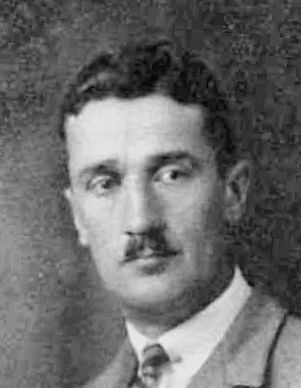 1932
1932m. 1920 Agnes Ellen [Robinson]
prev. an Insurance Broker
Address in 1932: 155 Above Bar, Southampton
d. Jun 1964, Norwich
-
Pavey, Richard Stanley
M.445 First Officer Richard Stanley Pavey 
b. 21 Dec 1913, London 28 May 1941 to 29 Nov 1942
[1939 RAeC photo missing]
m. 1939 Vera Nora [Healey] in Brentford, Middx
prev. an instrument assembler for R&S, Shannon Corner, New Malden
Address in 1941: 7 Talbot Rd, Isleworth, Middx
"A good type of officer who works hard and well."
Off duty from 5 May 1942, after the accident in which John Burge Erickson and Thomas Walton (see below) were killed.
His contract was suspended on medical grounds on 29 November.
As Stan or Stanley Pavey, a cinematographer involved in 38 films between 1944 and 1957, perhaps most famously as the Director of Photography on the 1954 version of 'The Belles of St. Trinian's'. http://www.imdb.com/name/nm0661391/
d. May 1984 - Kingston Upon Thames, Surrey
Download ATA Pilot Personal Record (.zip file):
-
Payn, Sydenham Armstrong
M.226 First Officer Sydenham 'Armstrong' Payn 
b. 6 Feb 1903, Dover, Kent 23 Sep 1940 to 22 Sep 1942
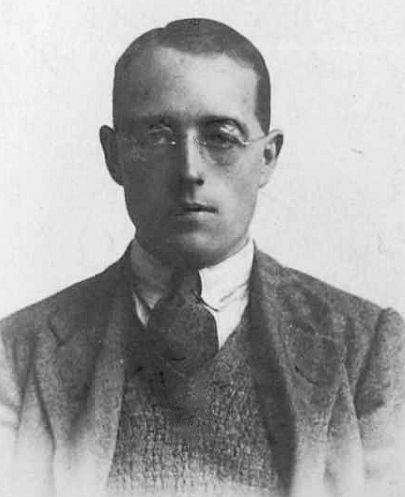 1928
1928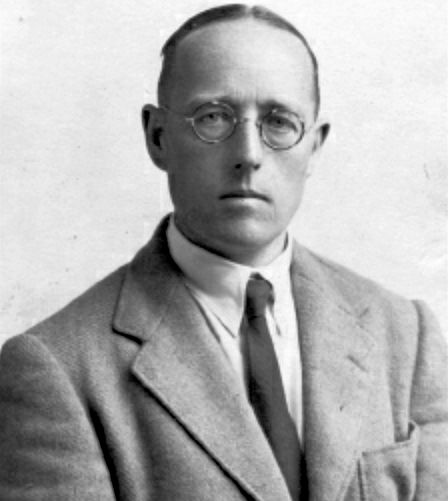 ELC
ELCEd. 'Public School'
m. 1923 Una St Mary [Kittoe]
Address in 1940: Vince Cottage, Kingsdown, Deal, Kent
Next of Kin: (brother) Squadron Leader Murray Payn, [who had "taught Prince Bernard to fly at Hatfield", according to Lettice Curtis]
prev. a Company Director; also a racing motorist [at Brooklands, and in the 1931 French Grand Prix]
prev. exp. 390 hrs
Had owned an SE5A and a 1929 Avro 504K G-AARV [which he wrote off in an accident in 1931], but had also flown "Tiger Moth, Miles Hawk, Comper Swift, Desoutter etc"
Postings: 1FPP, 2FPP, 15FPP
"An extremely keen and helpful member of the Pool"
Rather accident-prone, though... 9 accidents in 15 months, (admittedly only 3 of them deemed to be his fault)
- 2 Nov 1940, accident in a Hurricane, "not blamed but guilty of indiscretion and poor judgement";
- 17 Nov 1940, hydraulic failure in a Master, "pilot showed good judgement";
- 18 Dec 1940, taxied a Hurricane into a parked lorry, due to low brake pressure;
- 13 Feb 41, heavy landing in a Hurricane, damaging a wing tip;
- 26 Apr 1941, landed a Spitfire with the undercarriage up;
- 8 Jun 1941, accident in a Tomahawk (for which he was deemed "Not Responsible, as information which would have helped was not available to him");
- 3 Nov 1941, collided with a stationary Blenheim in (of all things) a Handley Page Hereford, after his port engine failed, and
- 18 Nov 1941, forced landing in a Swordfish after engine failure;
- 25 Jan 1942, forced landing in a Spitfire after engine failure.
d. 22 Sep 1942, at the Victoria Hospital in Deal, while on sick leave, "after a short ilness"
Buried St James Cemetery, Dover
His brother Murray wrote to Gerard d'Erlanger: "[His death] is very sad but I would like you to know that Armstrong was very happy in the ATA."
-
Payne, Albert James
M.308 First Officer Albert 'James' Payne 
b. 1 Nov 1901, High Littleton, Somerset 7 Oct 1940 to 24 Dec 1941
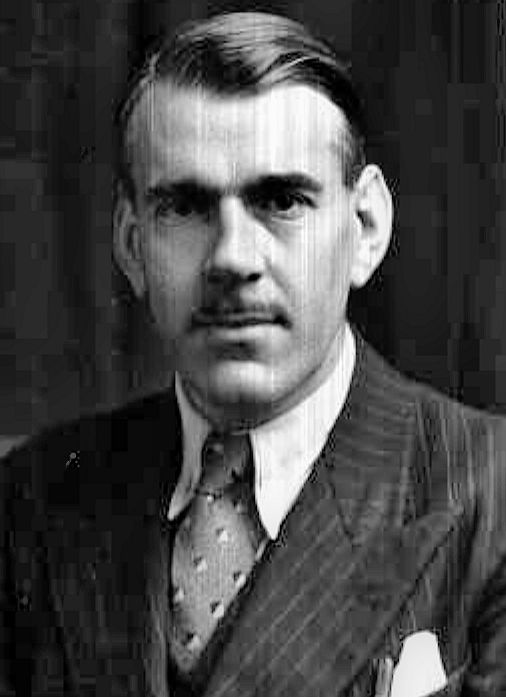 1938
1938Ed. Norton, private tutor.
A.F.R.A.S.
m Jul 1927 in Winchester, Isabel [Ridsdale]., 2 children
prev. RAF 1920-26 (but only as AC1); an aeronautical journalist and writer
prev. exp. 459 hrs
Address in 1940: Forest View Rd, Loughton, Essex
Postings: 1FPP, 6FPP
2 accidents, both his fault:
- 13 Jan 1941, he failed to clear an obstacle when taking off in a Tutor
- 21 Jun 1941, the engine of his Tomahawk failed "prior to and during flight" and he then overshot on landing and crashed into a hangar door. Considered as being to blame, partly because he should not have accepted the aircraft for ferrying.
"An extremely keen and hard worker, but is at times inclined to be a little 'rough' in his flying, although he is a safe pilot"... "his general behaviour is at times not what is expected of an officer"
He was presumably the pilot referred to in this extract from Arnold Watson's diary: "Ratcliffe (Leicester) today in brilliant if chilly weather. Then an awful man, Payne, excitable & over confident brought us back making a poor show of it." atamuseum.org
Contract Terminated 24 Dec 1941
-
Peat, Gerrard Charles
M.1001 * 3rd Officer Sir Gerrard Charles Peat KCVO 
b. 14 Jun 1920, Bushey Heath 26 Jul 1943 to 30 Sep 1945
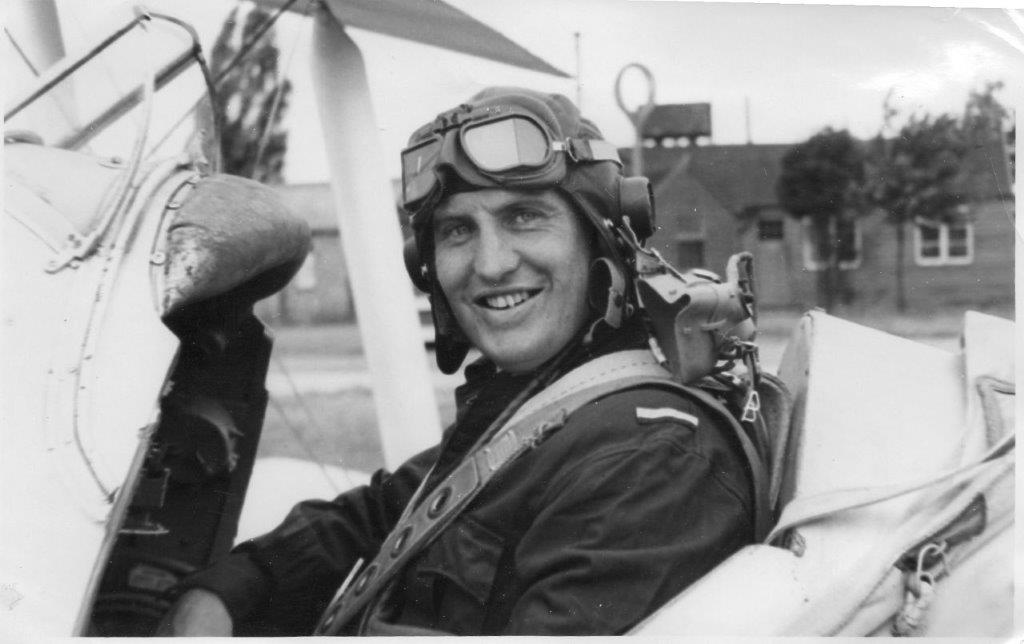 1943
1943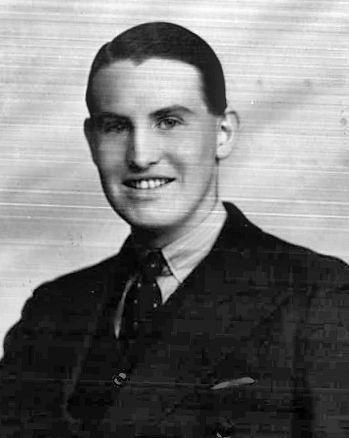 1945
1945prev. an Articled Clerk and Chartered Accountant; his grandfather Sir William Barclay Peat was founder of Peat, Marwick, Mitchell & Co. (now KPMG)
Address in 1945: Wycliffe Hall, Barnard Castle, Co. Durham
Later (from 1991) Director of Johnson Wax Ltd, and several other companies.
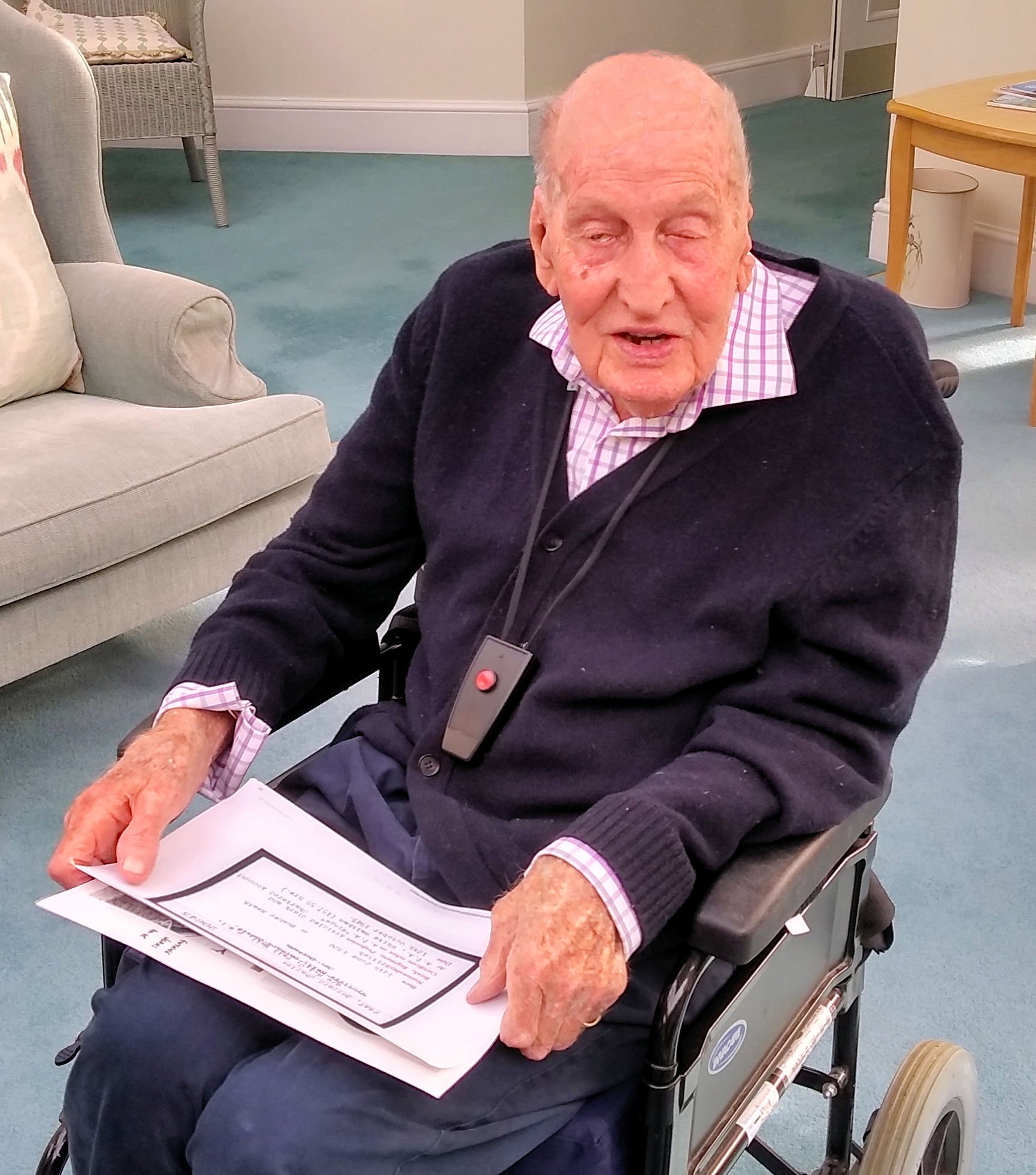 in 2018
in 2018Sir Gerrard kindly allowed us to look at his ATA Log Book - see here for a transcript, detailing his flying career with the ATA.
d. 10 Oct 2021
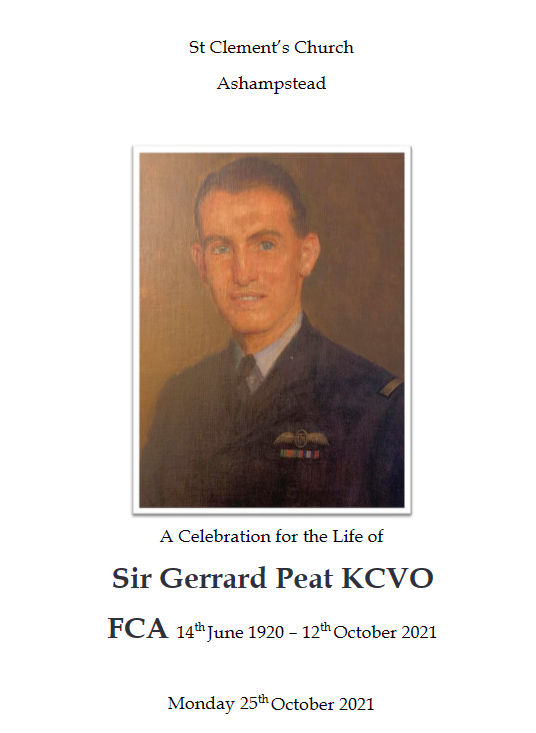
-
Pelham, Baden Lloyd
M.592 3rd Officer Baden Lloyd Pelham 
b. 9 Apr 1900, Uckfield 17 Jun 1941 to 30 Jun 1942
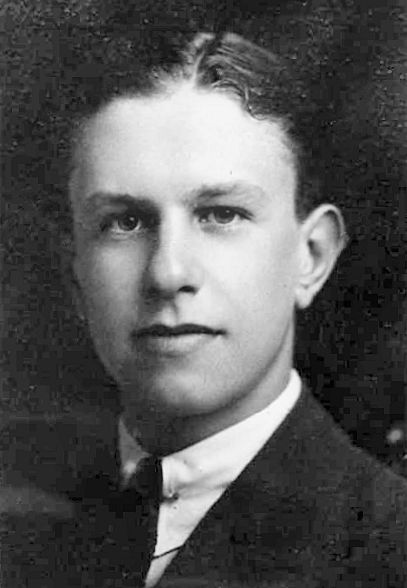
26 Sep 1918
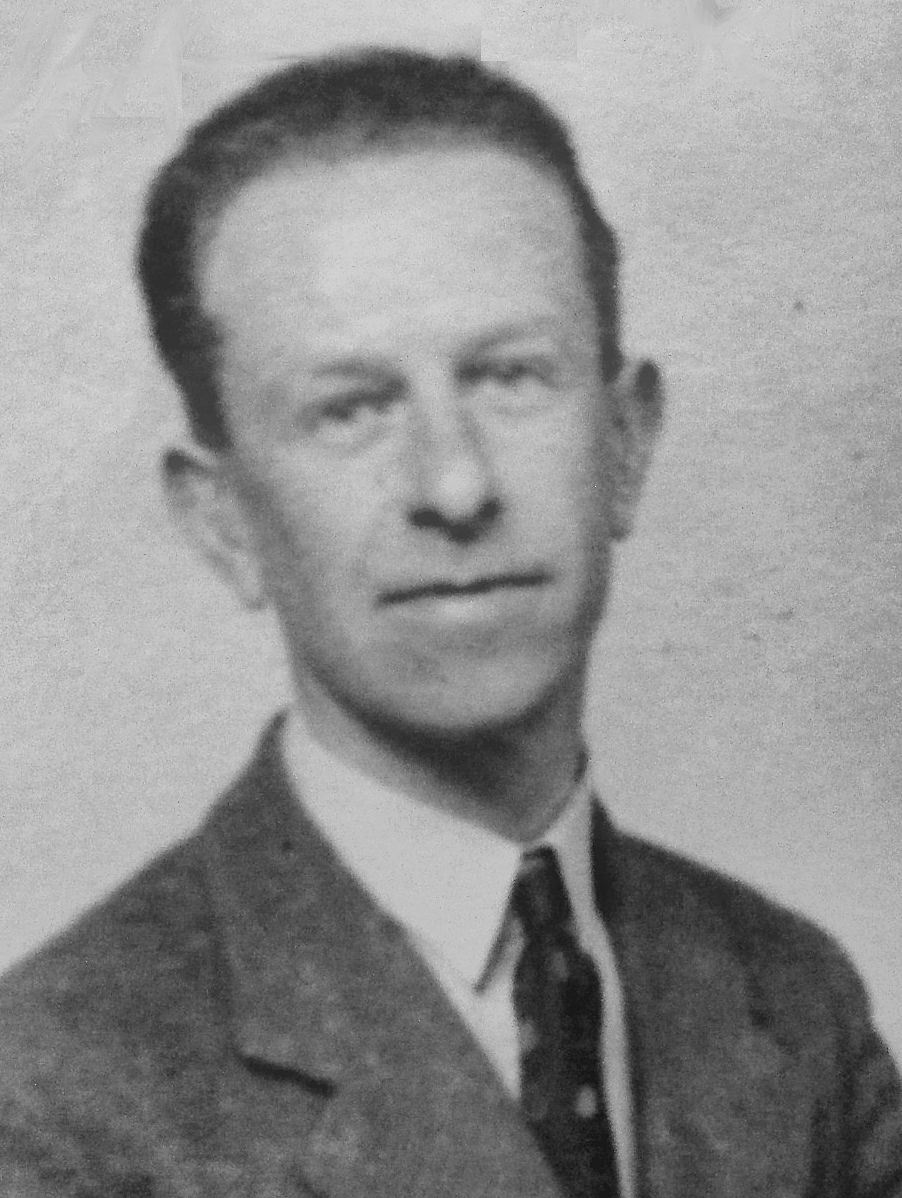 ATA
ATAFather: Charles Harvard Pelham, mother Ellen (both d. 1942)
Ed. Uckfield Grammar School
m. 1927 Violet Louise [Steele], 1 child
prev. RNAS Dec-17 to 1918; RAF 1st April 1918 (2nd Lieut.);
then C.H. Pelham and Son, Builders and Coal Merchants, High St. Uckfield
Address in 1941: White Rails, High St, Uckfield, Sussex
Postings: Seconded to Brockworth
He was absent from 16 Jan to 13 Mar 1942 after a flying acident in a Magister (he persisted too far in bad weather, and flew into the ground), and his contract was terminated on the 30th June.
d. 1957 - Uckfield
-
Petersen, Stella Joyce (W.126)
W.126 3rd Officer Stella Joyce Petersen
(Jaye Edwards)

b. 12 Oct 1918, Wandsworth, London 1 Jul 1943 to 30 Sep 1945
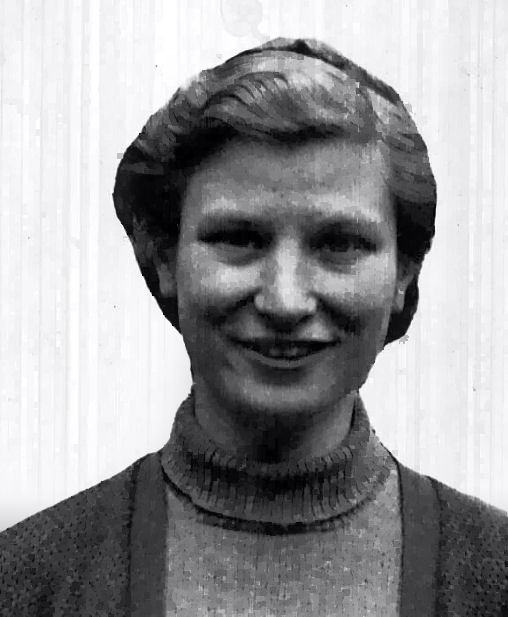 RAeC 1939
RAeC 1939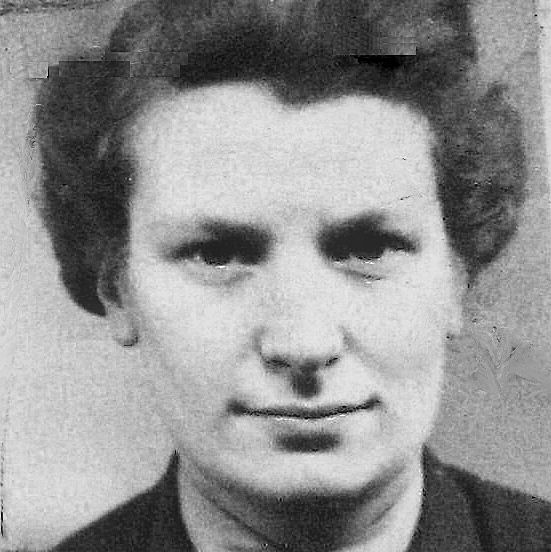 ATA
ATA [Father John Richard Sydney Petersen was born in 1876 in NSW, Australia; mother Stella C [Dawson]]
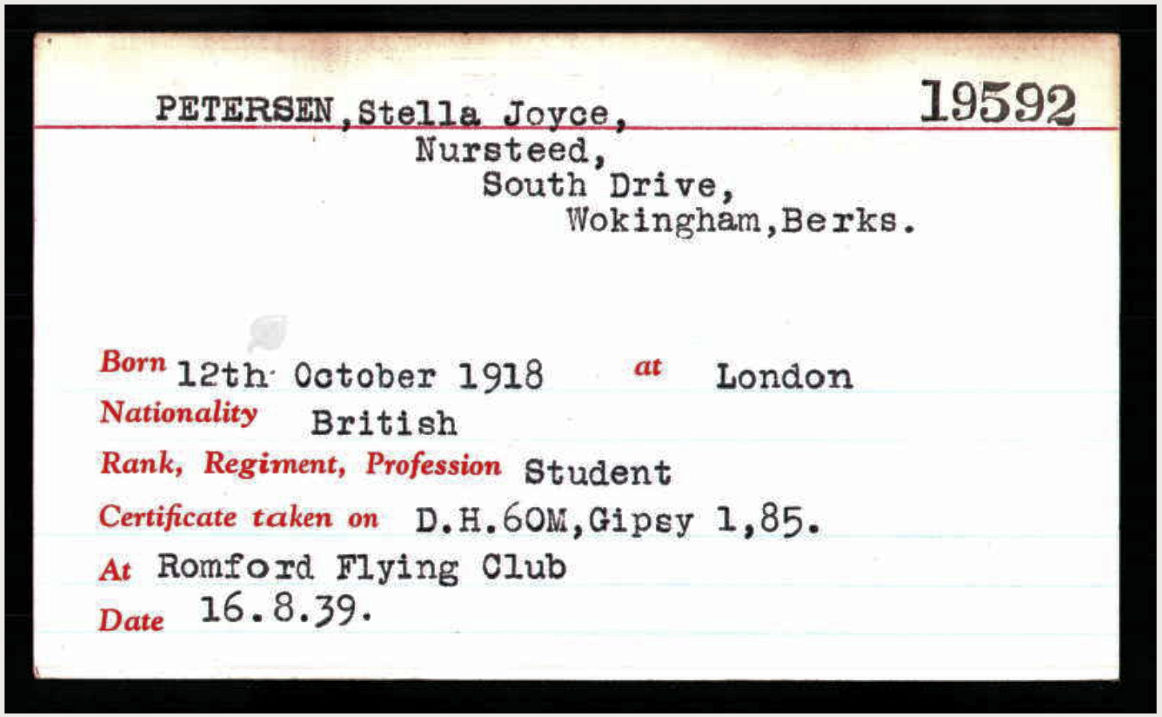
Living with her parents in Wokingham, Berks, she gained her RAeC certificate on 16 Aug 1939 at the Romford Flying Club, in a DH Moth.
prev. a nurse at Westminster Hospital
Address in 1943: Park Prewett, Basingstoke, Hants
Two accidents, both her fault:
- 19 Oct 1943, when she undershot her landing approach in Magister R1887, struck a tree, crashed, and the aircraft was written off
- 23 Oct 1944, in Spitfire IX TA855; she made a heavy landing and the undercarriage collapsed.
Travelled to Malaya in May 1946, then from Sydney, Australia, to Vancouver B.C. in Aug-Sep 1948
In 1950, qualified as a teacher.
m. c. 1951 William Austin? 'Bill' Edwards, "an electrician and former lumberjack" (d. 1988?)
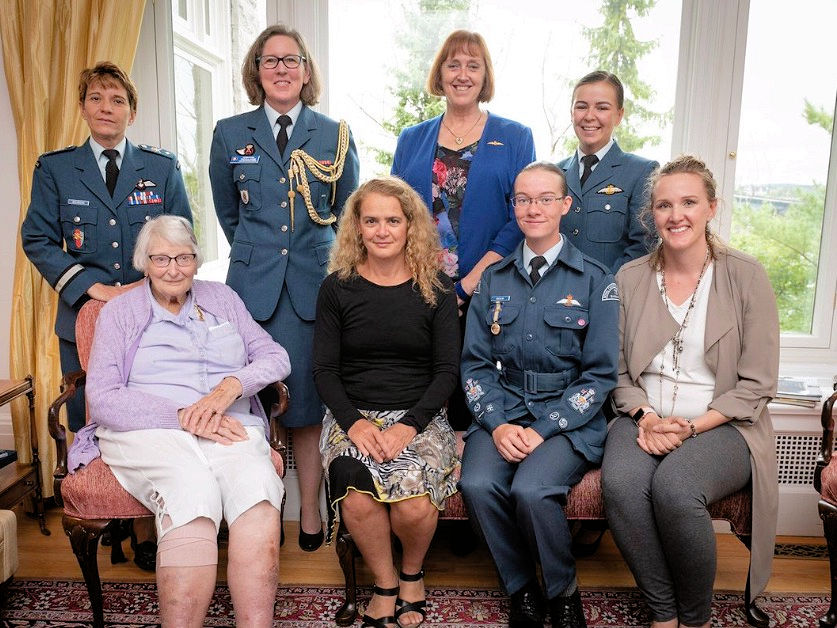
Jaye Edwards, as she became known, sitting next to Julie Payette, the Governor General of Canada, at a reception in celebration of her 100th birthday. [Photo courtesy Jaye's neice Ann.]
[Julie Payette (btw) was an astronaut and flew two missions in space; she also served many years as CAPCOM (Capsule Communicator) at NASA’s Mission Control Center in Houston, Texas, and was Chief Astronaut for the Canadian Space Agency.]
d. 15 Aug 2022, aged 103
From her obituary in The Times:
"She was gratified when the British government in 2008 belatedly awarded a commemorative “veteran’s badge” to those who had served in the ATA, but spoke matter-of-factly of her contribution to the war effort.
“Planes are built to fly and I knew the planes I was flying were in good shape. They were being sent to be used,” she said with the ‘keep calm and carry on’ pragmatism of so many of her generation.
She was on a train to Manchester returning from delivering a plane when she heard the news that the war in Europe had ended. She admitted that she had mixed feelings. There was relief that no more lives would be lost, of course; but sadness because she knew it meant that she had flown her last flight and that the ATA would be disbanded. “I was sorry because I knew that was the end of flying,” she said.
She was almost right but more than half a century later, when she was in her eighties, she was invited to take the controls of a small aircraft in mid-air over Canada, the country that she made her home for more than 70 years.
She executed a perfect turn before returning the plane to its straight and level course. Yes, she had missed flying, she said. “But not really, because there was so much new to do. You take the opportunities that you get.”
In 2011, she returned to England to attend the opening of the ATA gallery and its “Grandma Flew Spitfires” display at the Maidenhead Heritage Centre, close to the auxiliary’s wartime headquarters at White Waltham, Berkshire. Her death leaves the 103-year-old American Nancy Stratford as the only surviving female ATA pilot.
The seeds of her love of flying were planted as a child when she was cycling around the Kent countryside and stumbled upon a visiting “air circus” that had been set up in a field. She was entranced by the exploits of the “barnstormer” stunt pilots. The adventures of pioneering prewar aviatrixes such as Amelia Earhart, Jean Batten and Amy Johnson, which she followed on newsreels in the local cinema, cemented her fascination.
She described a tomboy childhood, climbing trees and having adventures on her bike, and she saw flying as a continuation of her youthful desire not to be earthbound, both literally and metaphorically.
“I think I was always a bit wild,” she admitted. “You ride a bike, you climb a tree, you’re off the ground. I would say that’s mostly it. A new outlook; a new life.”
-
Phelps, Gilbert Anthony
M.187 First Officer Gilbert Anthony Phelps 
b. Jun 1916, Winchester, Hants 5 Dec 1940 to 12 Dec 1943
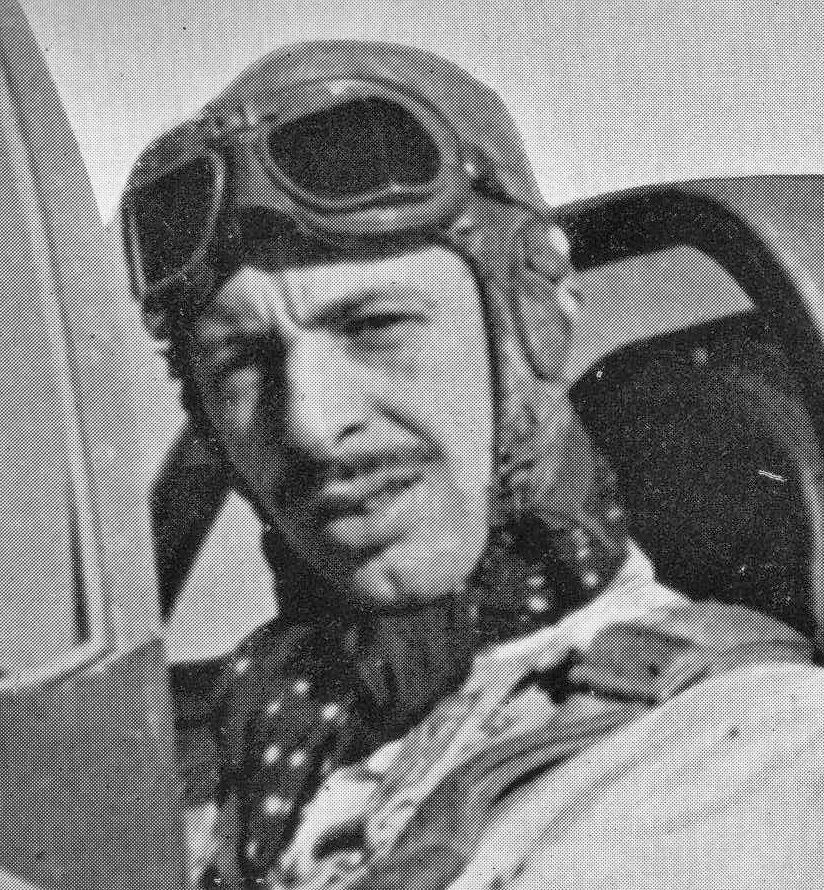 ICCL
ICCLm. 1938 Cecily Dora Sinclair [Willis], [divorced, from 1952 Mrs Adams], 1 son
m. 1952 Amy E J Russell
prev. RAF
Wrote 'I Couldn't Care Less' in 1943, shortly after leaving the ATA. It was published in October 1945. Flight's reviewer said he enjoyed it, apart from "the author's tendency to write in forced journalese, and to show repeated signs of an exaggerated consciousness about the "right" things to do, to eat and to think."
The reviewer did, however, admit that the writing became more 'free and natural' as the story continued.
'I Couldn't Care Less' ends: "Those years with the ATA have given me so many memories and so much for which to be grateful. I have been privileged to fly the world's fastest and finest aeroplanes - experience which could not have been got for unlimited money before the war. I have ranged these islands of ours from Land's End to John o'Groats, from the Thanet coast to the Western Isles of Scotland, and gained an intimate knowledge of them and their people as would have been impossible in normal times unless possessed of limitless time and money. From the air I have seen the indescribable glory of snow-covered mountains on a clear day in winter; known the peaceful charm, beyond description, of flying over a calm summer sea towards a setting sun; I have known the stern joy and healing wave of happiness that comes only to those who land at an aerodrome after struggling through a hundred miles of really bad weather. All this and much more the ATA has given me, but most of all it has given me friends who will last as long as all of us live, and that in itself is a lot for which to be grateful."
Those friends included Alexander Leslie-Melville (q.v.); "Never have I met anyone whom I liked better or whose tastes were more identical with mine."
He learnt about Melville's death in "a horribly casual fashion... In the Mess one morning the Orderly Officer, who was very new, remarked that he had to officiate at a funeral the following day. Someone called Melville; did anyone know him?"
He didn't go to the funeral; "war leaves no time for sentiment, but even so I couldn't stomach it."
d. Dec 1967 - Colchester, Essex
-
Phillips, Leslie Arthur
M.55 * First Officer Leslie Arthur Phillips 
b. 11 Dec 1900, Northampton 18 Jul 1940 to Feb-41
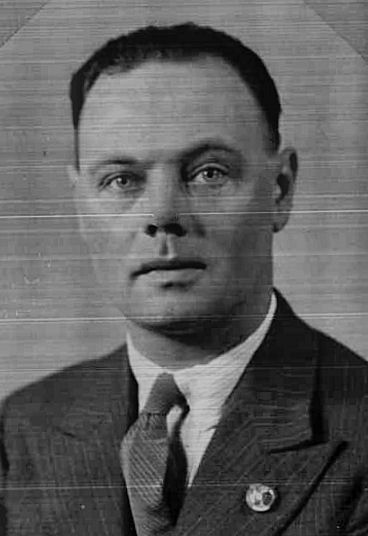 1936
1936prev. a builder and estate developer
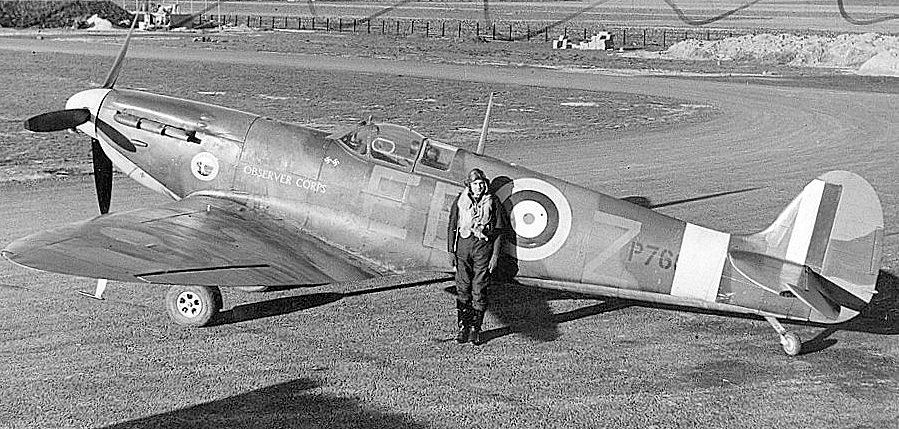
d. 9 Feb 1941 (Died in ATA Service) - misjudged landing approach to Stoke-on-Trent in Spitfire P7960, stalled and the starboard wingtip and tail hit the roof of a house.
-
Pickering, Guy Lovell
M.135 First Officer Guy Lovell Pickering 
b. 24 Aug 1901, Bromley, Kent 22 Jul 1940 to 30 Nov 1945
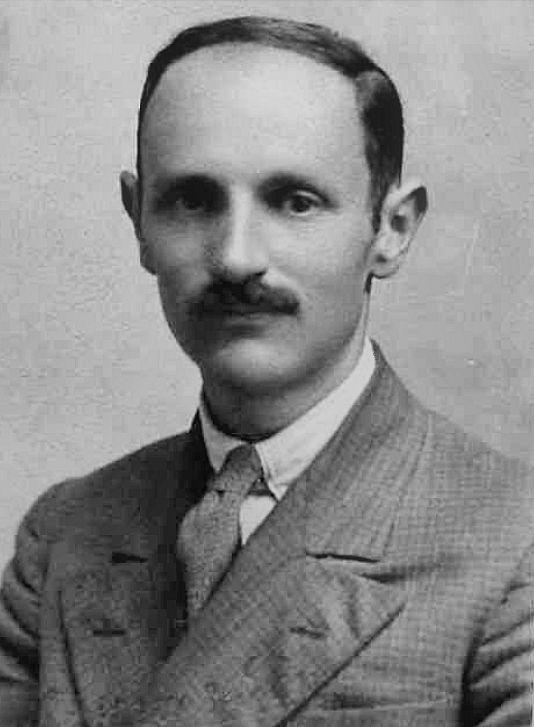 1930
1930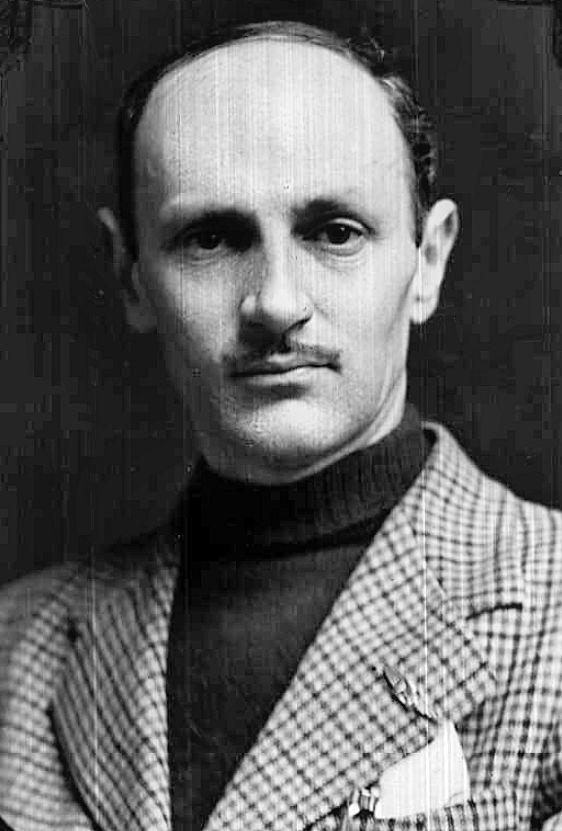 1939
1939Ed. University College London
m. 1923 Victoria Mary [Emberson, d. 1991], 1 son b. 1927
1926: "DANGEROUS MOTOR-CYCLING. Guy Lovell Pickering, 14, Mount Park-Avenue. Purley Oaks, was fined £3 at Epsom Petty Sessions Monday for driving a motor-cycle and side-car dangerously at Epsom on Sunday, August 15th. —P.C. Rose and P.C. Weeding estimated defendant’s speed at 33 to 35 miles an hour. —Pickering pleaded guilty to exceeding the speed limit, but he denied driving dangerously. He estimated that he was driving at 28 to 30 miles an hour. He mentioned that he had never been involved in an accident.— There were eight previous convictions against Pickering, two for speed."
prev. an Advertising Agent; RAFVR Sgt. (Link Trainer Instructor) Feb-Jul 1940
Address in 1940: 62 Eastdean Ave, Epsom, Surrey
Next of Kin in 1940: [wife] Lorna Geraldine Pickering
Postings: 1FPP, 15FPP, 14FPP, 6FPP, 7FPP, 9FPP, 1FPP
6 accidents (4 his fault)
"A keen pilot, but at the moment [Feb-42] rather nervous and lacking in judgement, probably as a result of recent accidents. A good officer."
"Has been employed on instructional duties. By his hard work coupled with a cheerful disposition he has contributed a lot to the high standard of pupils who have passed through IFTS." [Oct-43 - Feb-45]
d. 4 May 1947 at the Groote Schuur Hospital Observatory, Cape District, S. Africa
-
Pickup, Arthur Derek
M.199 Commander Arthur Derek Pickup OBE 
b. 9 Jun 1910, Newbury, Berks 13 Sep 1940 to 31 Aug 1945
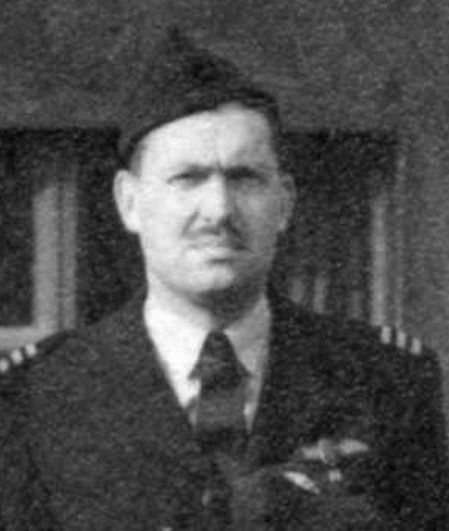 ATAM
ATAMprev. RAF Auxiliary AF 1932-40
prev. exp. 875 hrs
m. 1937 in Bristol, Betty Newton [Mason]
Addess in 1940: Seabreeze, Church Cliffs, Lyme Regis
Postings: 1FPP, 5FPP (as C.O.), 9FPP (as C.O.) 2FPP
One accident, not his fault:
- 11 Sep 1941, forced landing in a Magister, taxied into an unmarked rut.
"A pilot of above average ability. " "Has commanded IFTS in an eminently satisfactory manner."
d. 1990- Penzance
-
Piddocke, Bernard Gregory
M.156 Flight Captain Bernard Gregory 'Greg' or 'Piddle' Piddocke 
b. 8 Nov 1917, Kirknewton Wooler, Northumberland 7 Nov 1940 to 30 Nov 1945
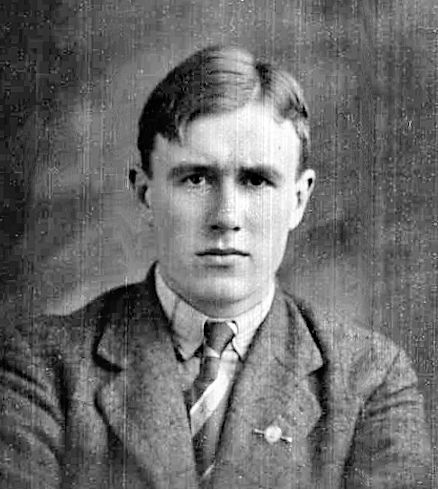 1937
1937Ed. Tynemouth School
m. 1939 Emeline M S A M [Thomson]
Pilot Officer (70813), 41 Sqn RAF from Sep 1937 to 17 Oct 1940 (resigned, after being assigned to ground duties following a misunderstanding over an incident in March 1940 when he took off without a working oxygen mask and passed out at 22,000 ft) - see https://www.facebook.com
and also http://www.yorkshire-aircraft.co.uk
prev. exp. 348 hrs on Spitfire, Gauntlet, Hart, Magister, Puss Moth, Hornet Moth, DH60G, Tiger Moth, Blackburn B2, Avro Tutor
RAeC Certificate, Newcastle Aero Club, 1937
Address in 1940: 62 Broad Walk, Wilmslow, Cheshire; later moved to Rhodes House, N Berwick, E Lothian, Scotland
Postings: Ringway, 4a FPP, 10FPP (as 2nd in Command), 4FPP
3 accidents, none his fault.
Demoted from Flight Captain to First Officer on 5 May 1942 for '"flying at 50 ft", but re-instated in June.
"A thoroughly reliable officer and a capable and polished pilot on Class 2", although he found the Halifax too much to begin with: "showed below average ability on the Halifax and it became apparent that the size of the a/c rather overawed him and it was therefore necessary to fail him on the conversion." He passed it at the second attempt, though.
 13 Dec 1949"Most stared at man in Adelaide today was 32 year-old Scottish migrant Greg Piddocke, of the ancient Stewart clan. People turned to look at him as he did his shopping in kilt, sporran, and kilt jacket. Mr. Piddocke arrived in the Orion on Saturday with his wife and three sons, Greg, nine, Stewart, six, and Ian, five.Mr. Piddocke has come to Australia to work on Mr. Byron McLachlan's outback station, Lake Everard, 300 miles north of Adelaide."If I'd had a hat in my hand, I could have collected a fortune this morning," he said. "I always wear a kilt except for work."Mr. Piddocke joined the RAF in 1936 and from 1940 to 1944 he was in the Air TransportAuxiliary. On the lapel of his coat he wears the badge of the Air Transport Auxiliary and the badge of the British Gliding Association - three white seagulls on a blue background, denoting three licences.Mr. Piddocke claims to be a jack of all trades. "I can trace my family back to pre-writing days," he said."I am not terribly impressed so far with Adelaide. Everybody is so strange and not interested in us. In Scottish cities, we go out of our way to help strangers."
13 Dec 1949"Most stared at man in Adelaide today was 32 year-old Scottish migrant Greg Piddocke, of the ancient Stewart clan. People turned to look at him as he did his shopping in kilt, sporran, and kilt jacket. Mr. Piddocke arrived in the Orion on Saturday with his wife and three sons, Greg, nine, Stewart, six, and Ian, five.Mr. Piddocke has come to Australia to work on Mr. Byron McLachlan's outback station, Lake Everard, 300 miles north of Adelaide."If I'd had a hat in my hand, I could have collected a fortune this morning," he said. "I always wear a kilt except for work."Mr. Piddocke joined the RAF in 1936 and from 1940 to 1944 he was in the Air TransportAuxiliary. On the lapel of his coat he wears the badge of the Air Transport Auxiliary and the badge of the British Gliding Association - three white seagulls on a blue background, denoting three licences.Mr. Piddocke claims to be a jack of all trades. "I can trace my family back to pre-writing days," he said."I am not terribly impressed so far with Adelaide. Everybody is so strange and not interested in us. In Scottish cities, we go out of our way to help strangers."His 11-year-old son Vincent Gregory was a 'dairyhand pupil' in Keysbrook, W. Australia, in 1951.
In 1954, he was appointed as an "Assistant (Meteorological Branch), Fourth Division" in the Western Australia Taxation Branch of the Treasury, and by 1972 he was the officer-in-charge of the Rabaul Bureau of Meteorology, in Papua New Guinea.
He later moved to Cairns, Queensland, Australia.
d. 24 Jun 2011 - Queensland, Australia
-
Pigott, Stanley Walter
M.463 Stanley Walter Pigott
Postings: 8FPP, 3FPP
-
Pilgrim, Arthur Robert
M.---- 2nd Officer Arthur Robert Pilgrim 
b. 29 Sep 1904, Edmonton, Middx 15 Apr to 6 May 1941
 1938
1938A 'Developer and Builder'
m. 1927 in Barnet, Ada Maud [Hulbert]
RAeC certificate 15789, 8 Apr 1938, on Tiger Moth at London Aeroplane Club
Address in 1939: Truro, Cornwall
Postings: --
Promoted to Sergeant, RAFVR in Feb 1944
In the fifties he acquired a Czech-built Orlicon L-40 Meta Sokol, having "found it lying in a corner of a hangar in the north of England and decided to buy it" and in 1957, he made a forced landing on "the tenth fairway of Monktonhall golf course, Musselburgh", having run out of fuel on a flight from Elstree to Turnhouse.
d. 10 Aug 1979 - Wicklow, Eire
-
Pitman, Honor Isabel (W.36)
W.36 First Officer Honor Isabel Pitman
Mrs Pomeroy Salmon

b. 30 Oct 1912, London 1 Mar-41 to Apr-43
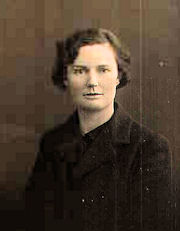
RAeC 1936
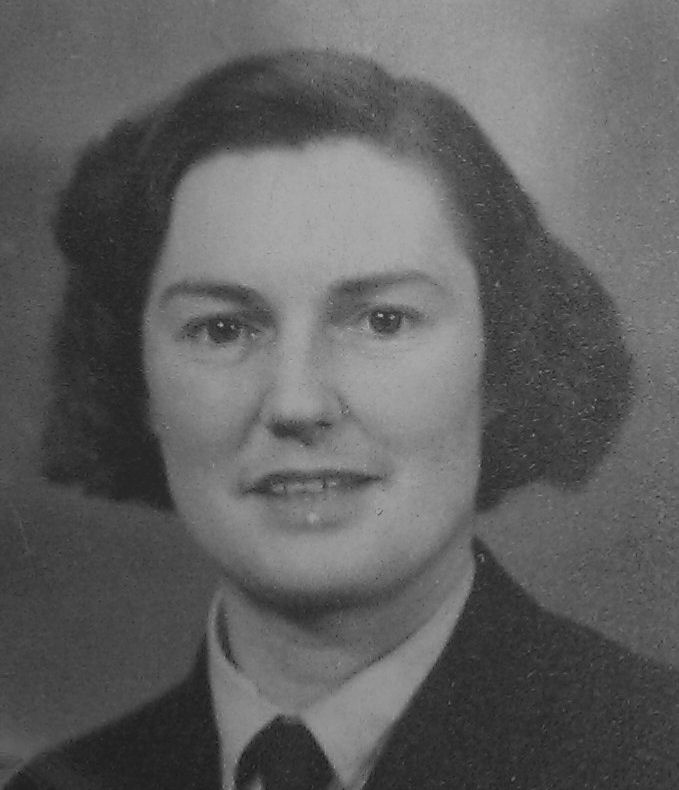
ATA
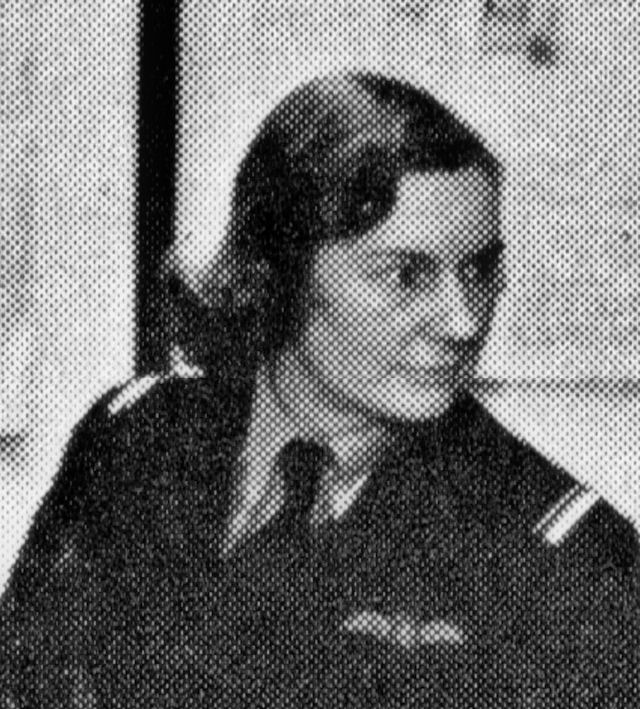
MUWW
Father Ernest, mother Frances Isabel (Butler), who was Irish. She was an heir to the Pitman (of shorthand fame) family fortune.
Honor learnt to fly originally in 1927 (at the age of 14) at the Bristol and Wessex Aero Club but "because of my age, I always had to fly with someone & could never go to other aerodromes to land." Eventually, in 1936, she passed her RAeC Certificate and had done 120 hours before the start of WWII.
She was in Australia in 1938, and then started as a driver in the 12th Oxford Motor Transport ATS on the 1st September 1939; however, when she heard that the ATA was on the lookout for people with flying experience, she wrote to them in March 1940:
"I would very much like to know if there is the possibility of my joining your section of the service? I am an 'A' pilot & have only done about 120hrs flying in small club planes - Swallows, Cadets and Aroncas, but I am prepared to take any training in any line if I could help you. 4 years ago I joined the FANYs [which I gather stands for First Aid Nursing Yeomanry] in hopes of a flying section being started, but this never materialized.... I had been hoping on my return from Australia last year to have my own plane & work for my 'B' licence but instead I have had to content myself with reading text books."
The ATS, by the sound of it, didn't want to release her, and in December 1940 she asked the ATA to "please write to my Group Commander so that she can have a letter to show the 'powers that be' that the work I am asking to transfer to will be more important than the work I am doing at this present".
Eventually she was invited to do a flight test, which she passed, although the assessment was that she lacked experience and would need to be carefully supervised during her development. She enjoyed the experience, though: "Monday was a wonderful break to this humdrum war life for me, I thought everyone was so kind."
However, as there were no vacancies at the time for less experienced pilots, she was placed on a waiting list. She wrote: "I am of course very disappointed to hear you now cannot take me, but I am still bouyed up hoping one day you may call me up. In the mean time, I have a very interesting job and am trying to persuade myself that I am lucky."
She started her probationary month with the ATA in March 1941, and became Mrs Pomeroy Salmon in June.
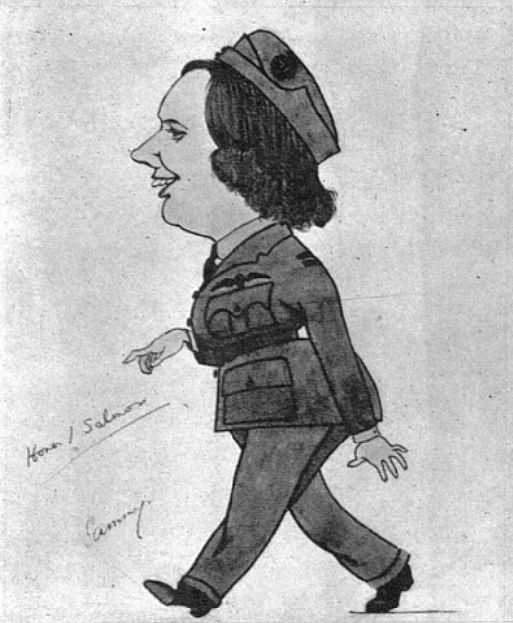 1942 caricature by 'Sammy' Clayton
1942 caricature by 'Sammy' ClaytonHer subsequent flying career started well but she then suffered two accidents in two days; firstly, on the 5th March 1942, she taxied a Spitfire into an unmarked soft patch, then on the 6th the starboard undercarriage of a Hurricane collapsed.
These events left her in what was called in those days a 'very highly strung condition', and she was given a month's rest, and then a refresher course.
The instructor's report was ambivalent: "This pilot needed a refresher and has benefitted by being returned to school. Her chief fault is her attitude towards her job. If she can be persuaded that flying is, after all, a very ordinary occupation, with common sense the main ingredient and that an ordinary sensible woman makes a better ferry pilot than a temperamental prima donna, she will do better and inspire greater confidence."
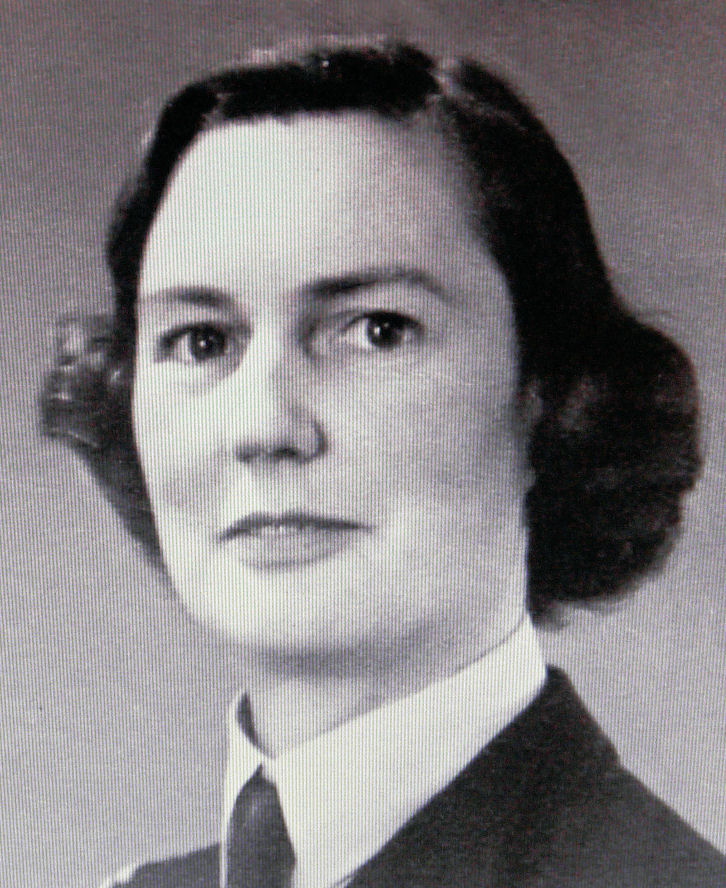 via Andrew Heron
via Andrew HeronUnfortunately her subsequent reports, whilst allowing that she did improve generally, continued to express doubts: "An unstable type. She admits she gets into a flap flying with an instructor, and claims she has no difficulty in navigating solo. Apparently tends to rely on Bradshawing [i.e. following railway lines] so I did not destroy her confidence in that, but showed her more polished methods."... "Very self-important at times"... "This pilot occasionally flies well - but not so well as she thinks she does. Her progress will need very careful watching".
She had another mishap, on the 26th August; she overran the perimeter of the runway in a Spitfire and nosed over in a heap of rubble, damaging the propeller. She was, however, deemed "Not responsible, as she had to swerve to avoid an Oxford landing"; lack of aerodrome control was blamed.
But still the worrying comments from her instructors kept coming: "She is not very bright when any difficulty arises. She is definitely very over-confident, and also lost herself on one occasion"... "this pilot has taken a long time to reach an average standard. Has worked hard and been very attentive, but should be watched carefully"..."Her greatest trouble now is her forgetfullness. Her flying is satisfactory but she is apt to forget things"
She was allowed to carry on flying, however; perhaps it was because everyone seems to have liked her, and valued her as a companion.
Eventually, what now seems inevitable happened; on the 19 April 1943 she flew on in bad weather instead of turning back, and was killed when her Airspeed Oxford MN765 hit high ground near Devizes.

She was deemed to be 'at fault' for her fatal accident.
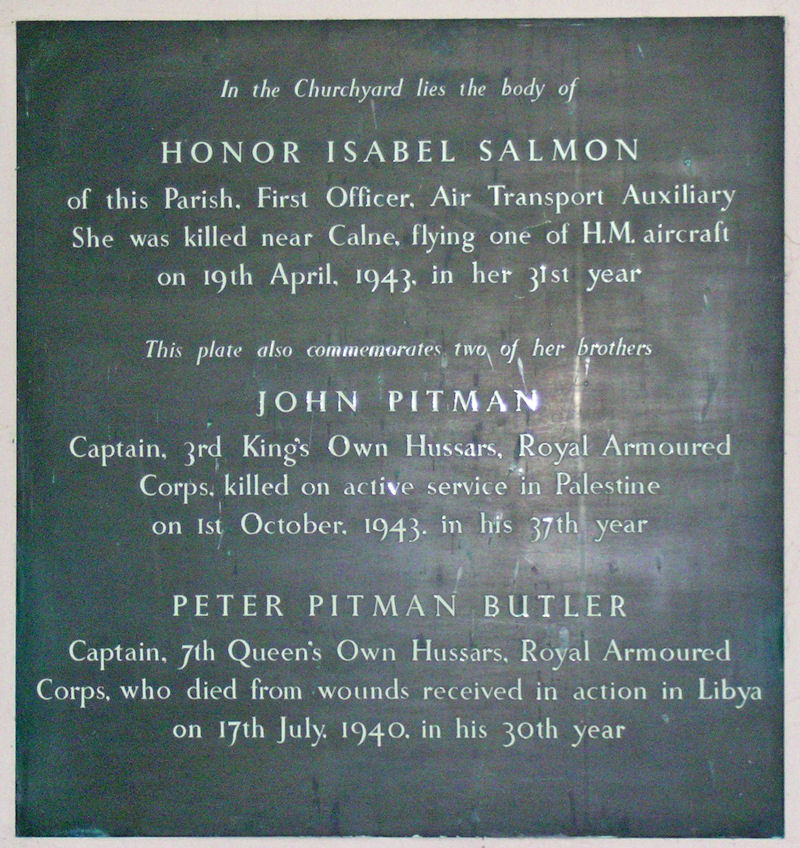
Memorial in St Peter's Church, Dyrham (with thanks to Andrew Heron)
Western Daily Press, 24 Apr 1943: "The death of First Officer Honor Isabel Pomeroy Salmon (30), of the Air Transport Auxiliary, is announced. Daughter of and Mrs Ernest Pitman, of The Cottage, Dyrham, Glos., and the grand-daughter of the late Sir Isaac Pitman, of Pitman's shorthand, she attended school at Abbot's Hill and at Westonbirt School, near Tetbury. and at the age of 17 became a member of the Bristol Flying Club, taking her licence and becoming a keen pilot. She was a keen breeder and trainer of ponies, and frequently hunted with the Duke of Beaufort's pack and took part in point-to-point meetings. In June, 1941, she married Major H. Pomeroy Salmon, of the 3rd Hussars. She had been a member of the A.T.A. for two years."
WILL OF MRS. HONOR SALMON First Officer Honor Isabel Pomeroy Salmon left £30.279 7s. 2d. gross, with net personalty £28,131 6s. 6d She left her shares in Sir Isaac Pitman and Sons, Ltd., and Dun Mallard, Ltd., to the children of her brothers Isaac, Christian and John, together with her leasehold property, the site of 1, Amen Corner, London (destroyed by enemy action) and the right to receive war damage compensation. Subject to the disposal of her effects she left the residue to her husband, to whom, together with her brother Christian E. Pitman, Doynton House, Doynton, probate has been granted. "
Pauline Gower should have the last word, perhaps. "Honor will be very much missed not only as an excellent pilot but as a friend. She was a charming and gallant person."
-
Pollock, Allen Conn
M.386 Allen Conn Pollock
Postings: 6FPP, 14FPP, 3FPP, 8FPP, 1FPP
-
Pomeroy, Lloyd Holt
M.188 First Officer Lloyd Holt Pomeroy 
b. 22 Aug 1912, Guernsey, Channel Islands 26 Aug 1940 to 3 Jun 1942
Ed. "Public School"
RAF Short Service Commission 16 Mar 1934 to 10 May 1937, 5TS, Sealand, and 41 Sqn, Northolt.
m. 1935 Mary Josephine [Morris]; [divorced 1943]
prev. exp. 525hrs
prev. Manager, Sales and Service Department of a Motor Company.
Address in 1940: 76 Upton Dr., Chester
Postings: 1FPP, 3FPP
2 accidents, 1 his fault (Taxying accident in a Havoc, August 1941)
"A good pilot and a good officer."
Contract Terminated 29 May 1942
Later a Test Pilot
d. 17 Jan 2003 - Taunton
-
Porter, Ronald Arthur
M.437 First Officer Ronald Arthur Porter 
b. 6 Apr 1913, Carlisle 15 May 1941 to Mar-42
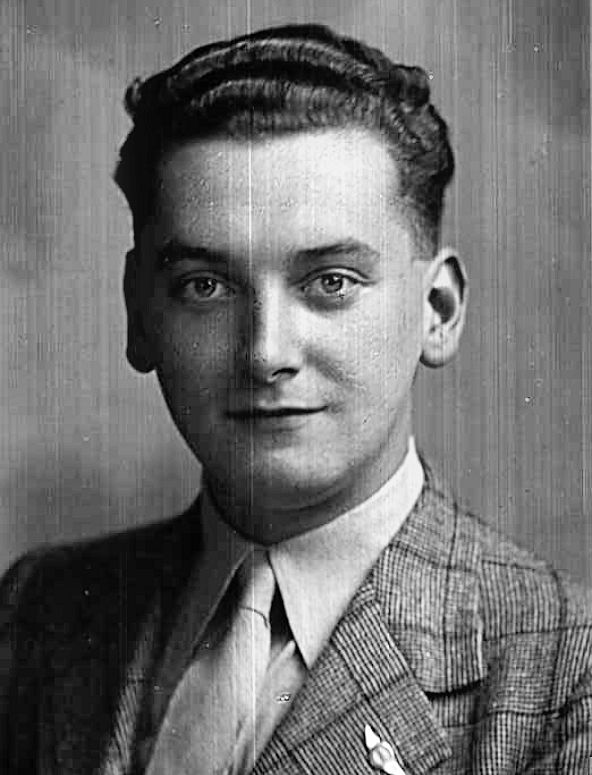
1936
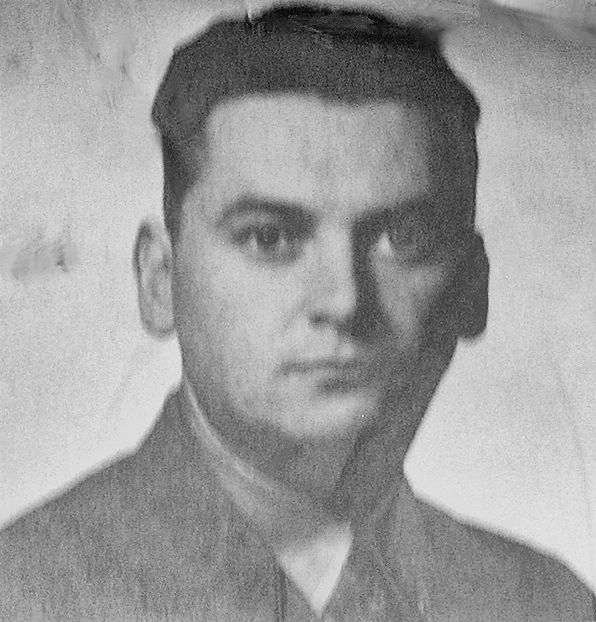
ATA
prev. a Joiner and Cabinet Maker
prev exp 100hrs
Sergeant in the RAF from Aug-40, on Link Trainer based in Cambridge

d. 15 Mar 1942 (Died in ATA Service) - Spitfire Vb AD296 crashed in poor visibility at Lochembrech Hill nr. Castle Douglas
Buried at Stanwix Cemetery, Carlisle. ATA pilot Irene Arckless (q.v.) is buried in the adjacent plot.
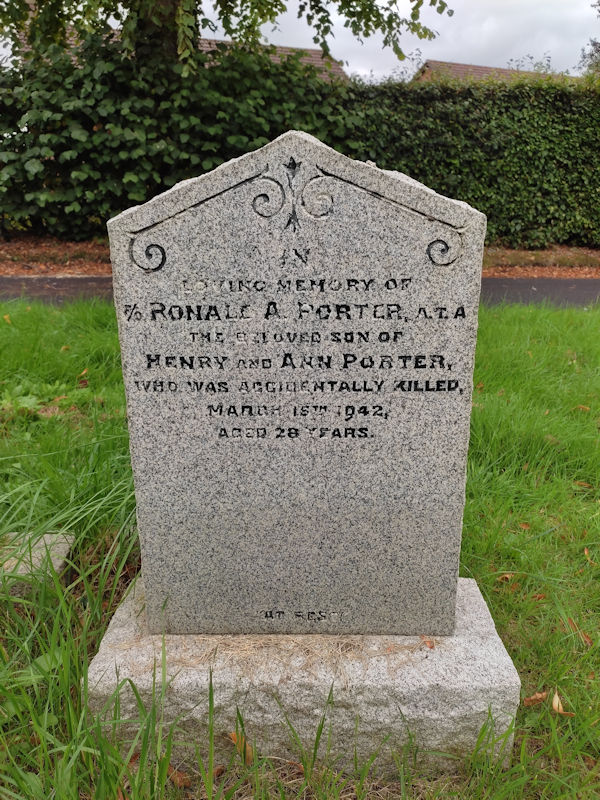
The inscription reads
"In Loving Memory of
F/O RONALD A. PORTER, A.T.A.
The Beloved son of
HENRY and ANN PORTER,
Who was accidentally killed
March 15th, 1942
Aged 28 Years"
Download ATA Pilot Personal Record (.zip file):
-
Powys, Mary Elizabeth Anne (W.129)
W.129 3rd Officer Mary Elizabeth 'Anne' Powys 
b. 12 Nov 1921, London 1 Jun 1943 to 13 Aug 1945
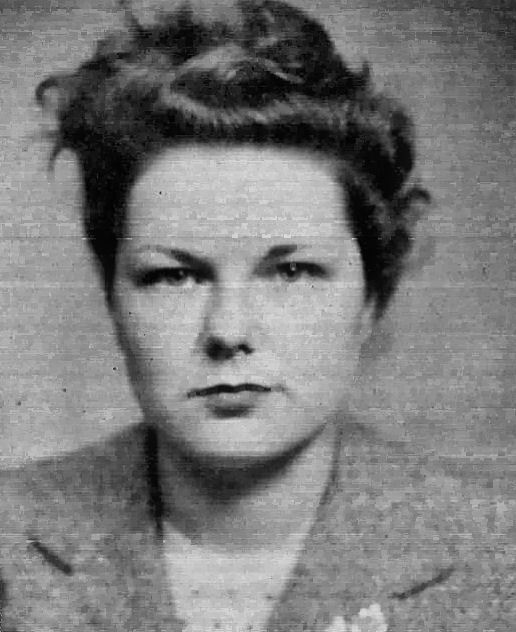 RAeC 1945
RAeC 1945Father: Atherton Richard Norman Powys, LLB (a solicitor, c/o Pollock & Co, 50 Pall Mall, London W1), Mother: Elsie Dyus [Mattingley]
Ed. Wycombe Abbey School
prev. ATA aircraft electrician from 9 Jun 1942
Address in 1943: 56 Curzon St, London W1
ab initio trainee
Postings: 12FPP, 15FPP
Off sick from 22 Jun to 27 Jul 1943 with a burnt leg
3 Accidents, 1 her fault:
- 20 Aug 1943, a forced landing in Magister P6373 after engine failure on an attempted go-round
- 8 Nov 1944, she overshot the landing in Spitfire Va X4922, partly due to a defective ASI
- 26 Jun 1945, another forced landing, this time in Seafire III NN192, after the port wing gun panel became detached
Gained her Royal Aero Club Certificate No 20516 on 22 Aug 1945, under the ATA's 'Wings' Scheme, having amassed 310 hrs
d. 3 Jan 1995 - Fakenham, Norfolk
-
Prentice, Eugene Courtney Manning
M.327 Flight Captain Eugene Courtney Manning Prentice 
b. 23 Aug 1918, Stowmarket, Suffolk 26 Feb 1941 to 31 Jul 1944
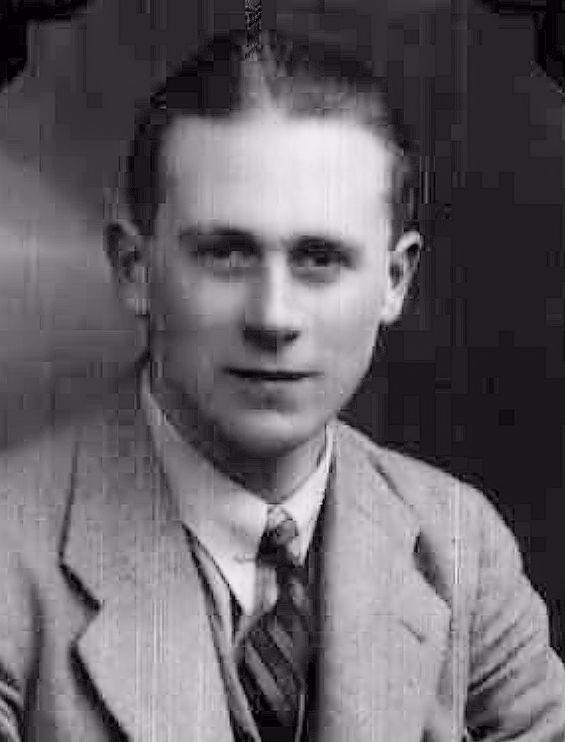 1937
1937 ATAM
ATAMFather: Sqn Ldr Courtney Napier Prentice, (RFC, RAF in WWI; Founder of Sun Petroleum & Prentice Aircraft and Cars Ltd, and the West Suffolk Aero Club), Mother: Ethel Mary 'Joy' [Gosling]
Ed. Beaumont College, Windsor, Berks
prev. Oil Representative; Flying Club Director and Chief Instructor, West Suffolk Aero Club; Sgt Pilot, RAFVR No 22 ERFTS Sep 1938 - May 1940; Aircraft Inspector
prev. exp. 700 hrs on light civil types
RAeC Certificate 14830 dated 15 Apr 1937, taken at Ipswich Aero Club
Address in 1937: The Seagulls, Undercliffe Drive, Felixstowe
m. 1939 in Bury St. Edmunds, Constance M [Quant] (2 children Denise b. 1940, Jennifer b. 1947)
poss. owned a Piper Cub: G-AEIK, a 1934 Piper J-2 Cub, regstered to C N Prentice, scrapped during WWII
Address in 1941: 20 Alwood Ave, Prestwick, Ayrshire
Postings: 1FPP, IFTS (as instructor)
Off sick from 15 Jun to 13 Jul 1943 with "burns of foot", and from 26 Feb to 15 Apr 1944 (unspecified). Posted to Medical Pool 5 Mar 1944.
Suspended 20 Jul 1941 for 1 week without pay for "non-compliance with aircraft delivery instructions", and 1 day (28 Nov 1942) for Loss of Handling Notes
1 accident, his fault:
- 6 Mar 1941, he misjudged a landing and his Magister struck an obstruction marker post
"A keen and efficient pilot"... "A conscientious, painstaking instructor who has spared no effort in the interests of his unit"
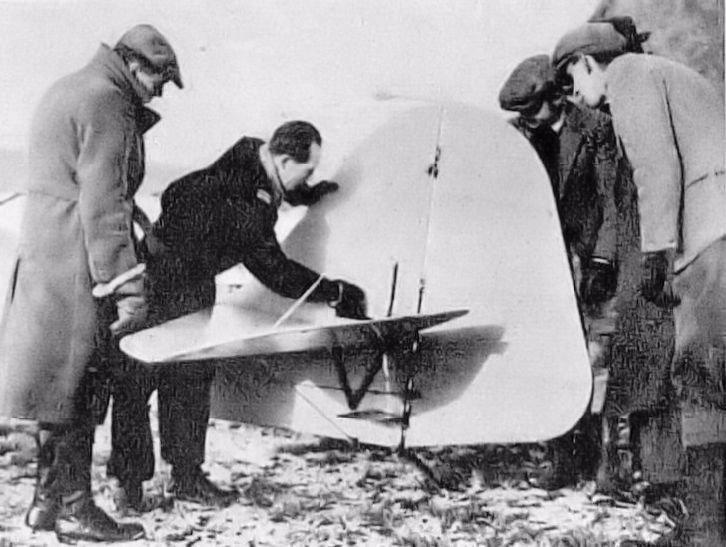
Instructing some Suffolk Farmers, 1947 - Illustrated Sporting and Dramatic News
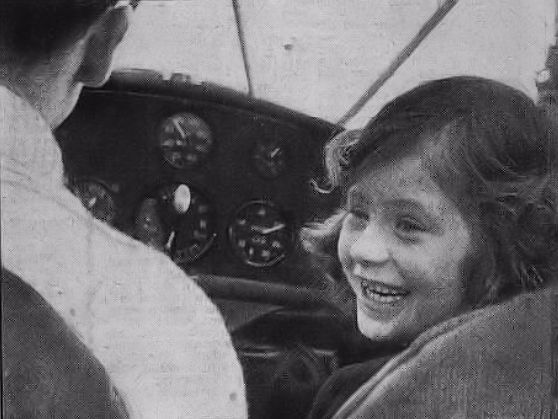
Daughter Denise with Eugene in his Auster, 1947 - Daily Mirror
d. 26 Apr 2009 - Woodbridge, Suffolk
"He was quite starved of love as a child and in later life by his parents. He was not particularly academic despite, or perhaps because of being sent away to a selection of boarding schools from the age of seven including Beaumont College near Windsor. After school, he learned to fly and soon became an instructor with light aircraft. He worked for the Air Transport Corps with the RAF [sic] during the war, flying bombers etc. from different stations around the UK, taking them from one location to another but not actually fighting. He passed his certificate to join the Royal Aero Club on 15th. April, 1937 at Ipswich Aero Club flying a D.H. 60 Gipsy III 105hp plane. His address at the time was The Seagulls, Undercliffe Drive, Felixstowe and he gave his profession as an Oil Representative.
He became a Director of Prentice Aircraft and Cars from its outset and though he worked there until retirement he never really enjoyed the business side of things. He would have much preferred to be round at the back working on the car and lorry engines himself. He always had a passion for boats and sailing. Generally messing about with them was very important in his life. The family actually lived on board for three years when his daughter Jem was very small. At the age of seventy six he still had a little sailing/cabin cruiser.
Also, having not done any flying for many years he started to have lessons in a Micro-light. After a while he decided that they were not really right for him at his age. Consequently, during 1993 he took up gliding at a club near Norwich. His wife was very long-suffering with her husband's hobbies even though she didn't really share his enthusiasm for them." - https://www.prenticenet.com/
Postscript:
"Denise Wendy Prentice married Kenneth Stringer in 1961. They divorced in 1977 when she changed her name back to 'Prentice' and in 1994 she lived in Felixstowe but, sadly, was blind. This was the result of an attempt to kill herself with a gun after her marriage had broken down" - https://www.prenticenet.com/
Denise married Alexander Tillier in 1997 in Felixstowe
-
Preston, Harry Edward William James
M.461 First Officer Harry Edward William James Preston 
b. 6 Apr 1919, Edgbaston, Birmingham 10 Jun 1941 to 1 Feb 1945
Ed. Smethwick Technical School, Birmingham Technical College
prev. Draughtsman, Austin Aero Works, Sgt Pilot, RAF, Midshipman, RNVR
RAFVR Jul 1937 - Apr 1938 and May 1940 to April 1941
RNVR Jan-May 1939
prev. exp. 87 hrs
Address in 1941: 1 Greenhill Rd, Blackheath, Birmingham
Postings: 6FPP, AFTS (as instructor), Accidents Committe, RAE Farnborough
3 accidents, 1 his fault:
- 10 Dec 1941, attempted a forced landing in Spitfire BL498 after he persisted too far in bad weather, and hit trees
- 7 Jun 1942, after landing his Master I M7954 , the engine was found to be unserviceable with a serious coolant leak
- 1 Dec 1942, he taxied his Fairchild Argus HM184 into a parked car, after ground crew directed him to proceed
Off sick from 11 Dec 1941 to 9 Feb 1942 after the attempted forced landing
" A keen and conscientious pilot", "Should bear in mind that to land in bad weather shows good judgement, and is not a reflection on a pilot's courage"
m. Apr 1943 in Birmingham, Mary [Rollason]
d. 8 Oct 977- Romsley
-
Preston, Ursula Mary (W.22)
W.22 First Officer Ursula Mary Preston

b. 23 Feb 1904, London 23 Jun 1940 to 31 Oct 1943
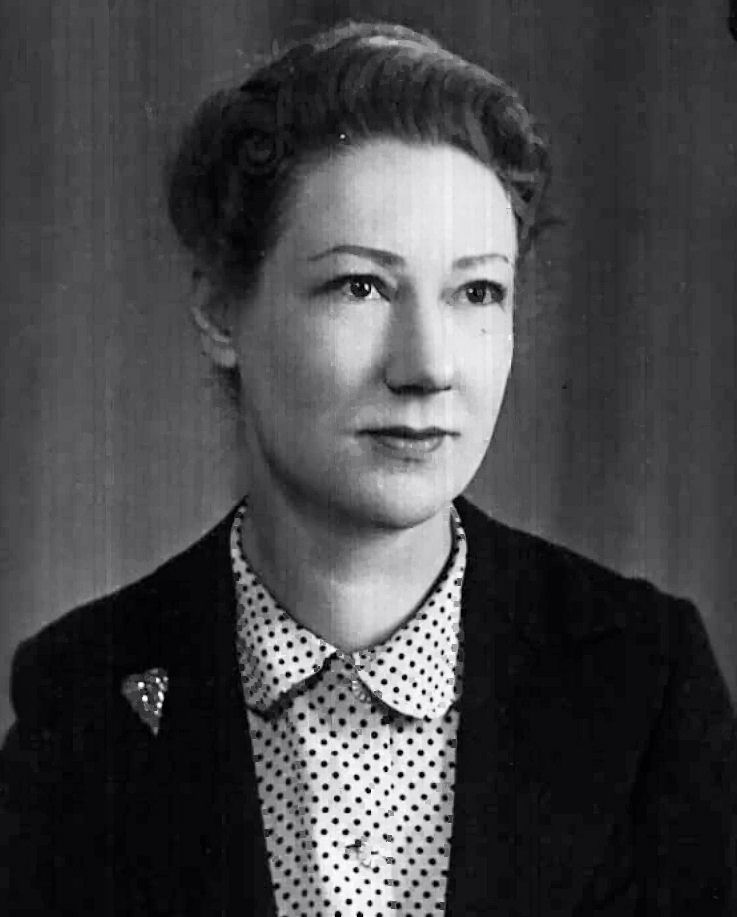 RAeC 10 May 1939
RAeC 10 May 1939Father: James Rudge Preston ("a Surgeon Dentist, of Harley Street"), mother Elizabeth Mary [Munn]
One younger brother, Michael Rudge
Ed. Malvern College
prev exp: 168 hrs on Tiger Moth, Hornet, Klemm, Swallow, Piper Cub
Address in 1939: 111 Queen's Court, Queensway, London W2
Postings: 15FPP, 6FPP, 7FPP
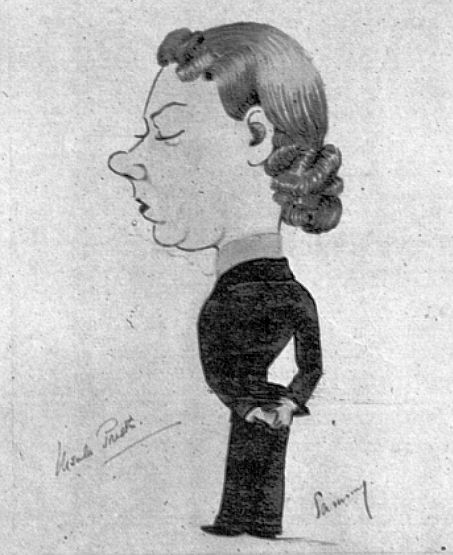 1942 caricature by 'Sammy' Clayton
1942 caricature by 'Sammy' Clayton6 Accidents, 2 her fault:
- 18 Mar 1941, landed downwind in Master N7954, due to a signal error
- 25 Jan 1942, the tail of her Hampden AT175 was damaged when the tarmac collapsed under the port wheel while taxying
- 11 Apr 1942, forced landing following engine failure in Botha W5134; she crashed into trees and was seriously injured
- 30 Dec 1942, she failed to control the landing swing in Spitfire Vc EE740 and the undercarriage collapsed
- 1 Jun 1943, forced landing in Argus FK340 after engine failure
- 22 Jul 1943, she overshot the landing in Mosquito III HJ863
"A keen and steady pilot. Her cheeriness is a great asset and she is coping with Wellington and larger aircraft excellently"
m. 2 Jun 1943 in London, Captain William Graham 'Willie' Metcalfe, also of the ATA:
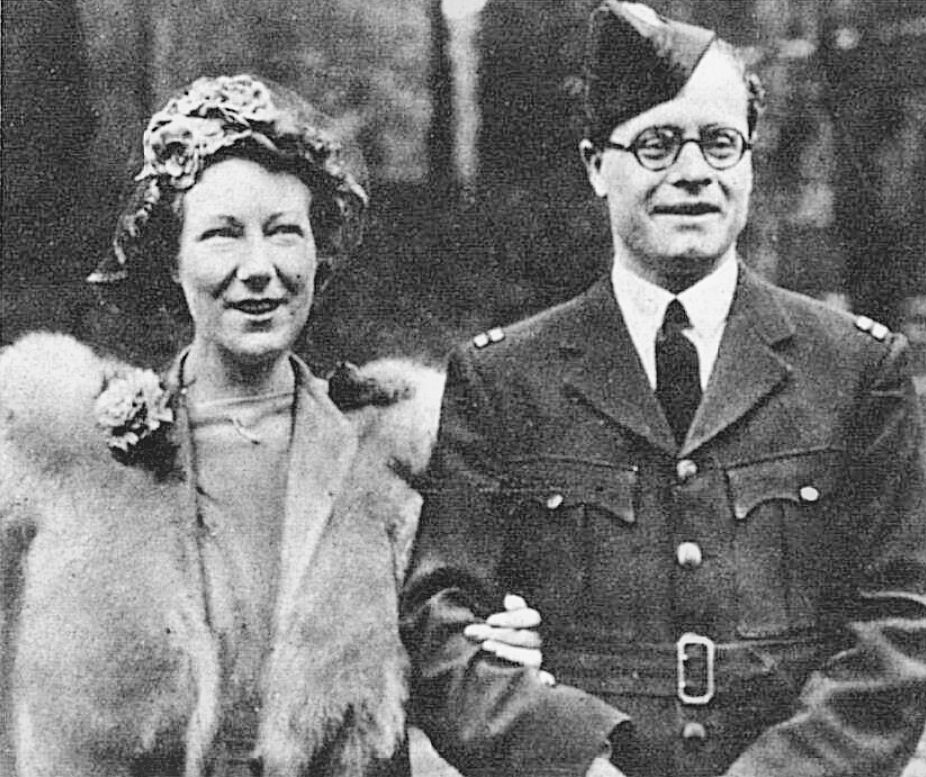
Contract terminated by ATA the following October (her son, Graham, was b. Apr 1944)
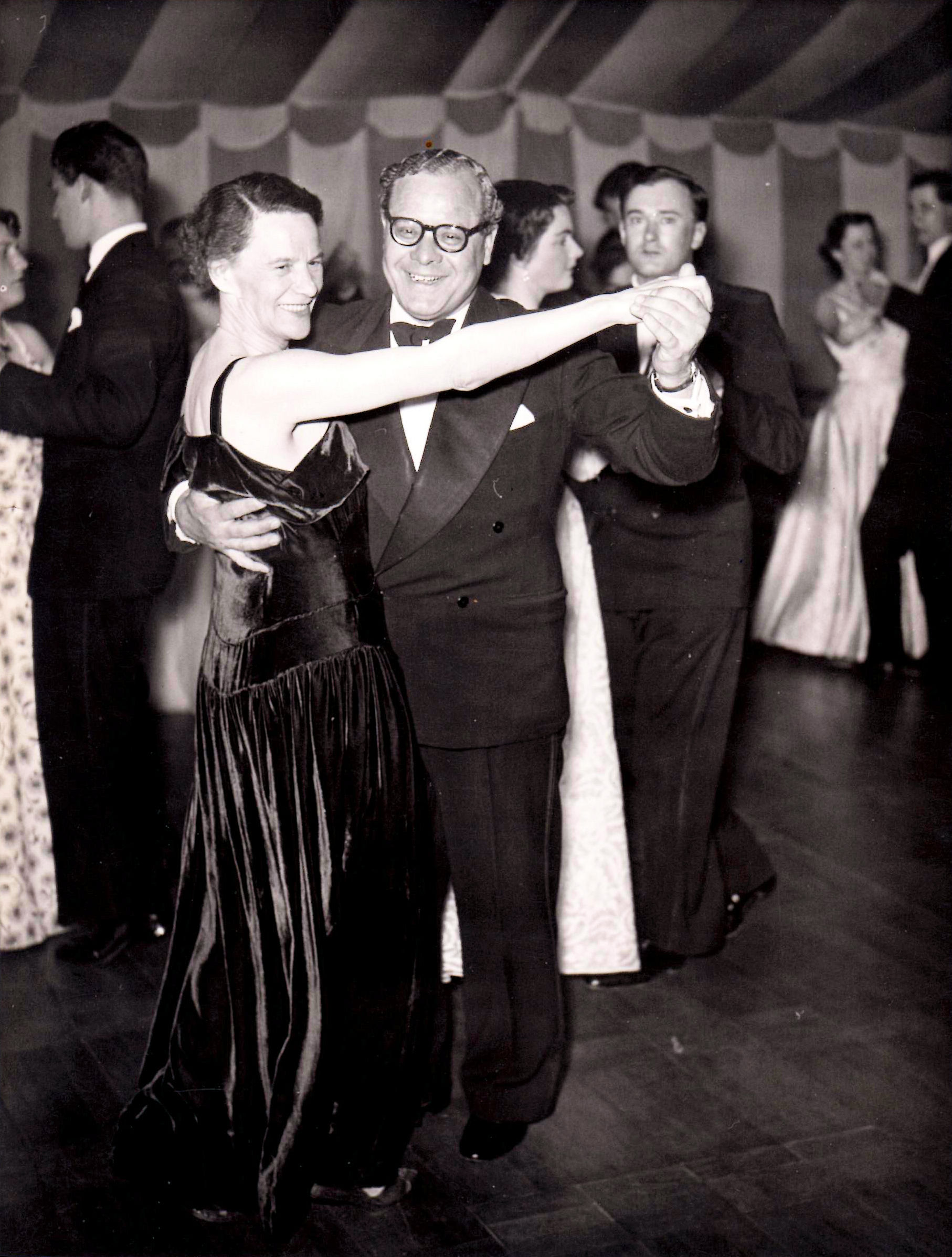 Ursula and Willie in 1954, with thanks to Chris Sturgess
Ursula and Willie in 1954, with thanks to Chris Sturgessd. 6 Feb 1975 - North Cotswold, Glos.
-
Provis, Patricia Mary (W.158)
W.158 3rd Officer Patricia Mary Provis 
b. 20 May 1923, Beckenham Kent
21 Feb 1944 to 30 Sep 1945
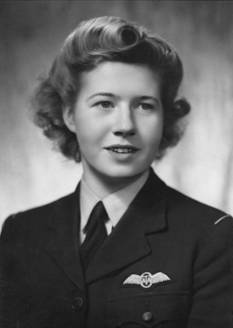 ATA
ATAFather: Roy Seymour Provis, Mother: Rose Mary [Wood] of Bankside, Oxted, Surrey
Ed. The Downs School, Seaford, and Chateau Mont Choisi, Lausanne
prev: WAAF from 10 Jun 1941:
"CpI. Patricia Provis, only daughter of Mr. and Mrs. R. S. Provis, Bankside, Oxted, has one of the most interesting jobs in the W.A.A.F. as a maps clerk at an R.A.F. station in Coastal Command. She joined the W.A.A.F. in July, 1941, and passed her medical board on her 18th birthday. Experience in map reading and credits gained in geography at her school qualified her for enrolment in this trade, and she has been made responsible for the issue and preparation of maps and charts for the air crews of her station." - Sevenoaks Chronicle and Kentish Advertiser - 22 Jan 1943
She said later: "Amy Johnson was my heroine. When I was six she flew to Australia and I listened on my crystal set wireless and said I’d like to do it.”
She was one of 17 who were transferred from the WAAF to the ATA in February 1944.
“They were only too glad to get rid of us with masses of pilots demobbed and waiting for flying jobs.” After a medical the girls awaited an interview in the library of the Ministry of Aircraft Production and there Pat noted the titles of two books on aircraft technology. When asked she said that she had read those books and learned quite a lot from them. She put her selection down to ‘being a good liar’.
Ab initio pilot
Postings: 4FPP
“I was selected to join the 16 others who went in from the WAAF and I learnt to fly the Swordfish when I was 21. I went solo after 12 hours training as we were all expected to do and if you didn’t you were sent back to the WAAF. We were posted to various stations and given cross country training so that we could use railways for navigation. (Roman roads came in useful, too). There were no radios in those days for communication with control towers. 15 of the 17 intake went on to fly Spitfires, Hurricanes, Tempests, Typhoons and Barracudas - being able to fly one you were expected to fly all the rest.
My war was mostly comic - getting in everybody’s way!
In January 1945 I crashed a Swordfish - that was comic too! The petrol pumps packed up when I was close to Turnberry Airfield. I thought that the forced landing would be easy but I made a horrible mess of it and finished up on the sea wall - what is now, I think, the ninth hole on the Turnberry Golf Course. The most dangerous thing about a Swordfish was the climbing in and out of it. However, on this occasion, there was no problem. I just put my foot over the side and there was the ground. I was still more or less on the airfield so the fire engine and ambulance came out pretty smartly but not before the Station Engineering Officer rushed up and said “Where’s the Form 700 and, by the way, are you alright?.” Then someone said “*****, it’s a woman!” I replied, “Yes it’s a woman, so can you see if you can find me a mirror?”
They took me in the ambulance to Sick Quarters where they gave me the very latest treatment for crashed pilots - a cup of tea and two Aspirins.”
I was blamed for it at the crash enquiry so did not progress to delivering Spitfires, etc. Some eventually flew Lancasters and one of our people delivered a converted Lancaster for the Dam Buster raid.”
One accident, definitely her fault:
- 12 Jan 1945, forced landing in Swordfish III NF369, after engine failure, due to "bad practice on the part of the pilot, who failed to check the contents of the gravity fuel tank before take-off. This tank was subsequently found empty."
m. Maslen Jones and lived in Rock, Cornwall
"Pat married after the war and did no flying for 44 years then she went up with an instructor in a Cessna from Bodmin Airfield (she had more flying hours than him) and found she had not forgotten how to fly. She said, “It’s like riding a bicycle - you never forget how to do it.” Of her time with ATA she said. “I was very lucky to do it from scratch and be paid to do it!”
d. 13 Aug 2012 - Wadebridge, Cornwall - "On August 13th 2012, peacefully at Trewiston Lodge, St. Minver, Pat, aged 89 years of Rock. Funeral service Glynn Valley Crematorium, Tuesday September 4th at 12.30 pm. No flowers please, donations in lieu for Cornwall Air Ambulance by retiring collection. Please wear bright clothes."
All quotes from http://www.olivehouserock.co.uk/link/144/index_files/Page549.htm
-
Pruden, John Richard
M.208 * 2nd Officer John Richard Pruden 
b. 13 May 1910, Redditch, Worcestershire c. 21 Nov 1940 to 12 Aug 1942
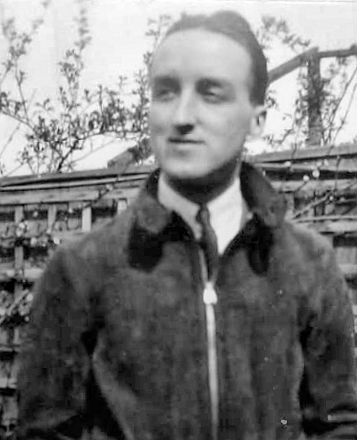 1934
1934m. 1935 Nellie Eileen [Terry]
prev. Managing Director of an Ironmongers, General Drapers and Furnishers
Member of Air Defence Cadet Corps in 1939
Address in 1942: 24 Salop Road, Redditch

d. 12 Aug 1942 (Died in ATA Service) in Spitfire V EP748, which went missing on a ferry flight from Desford to Prestwick. The aircraft was last seen off Girvan.
Commemorated on the Runnymede Memorial:

-
Purser, Richard William
M.395 First Officer Richard William Purser 
b. 5 Sep 1919, Slough 1 Apr 1941 to Sep-41
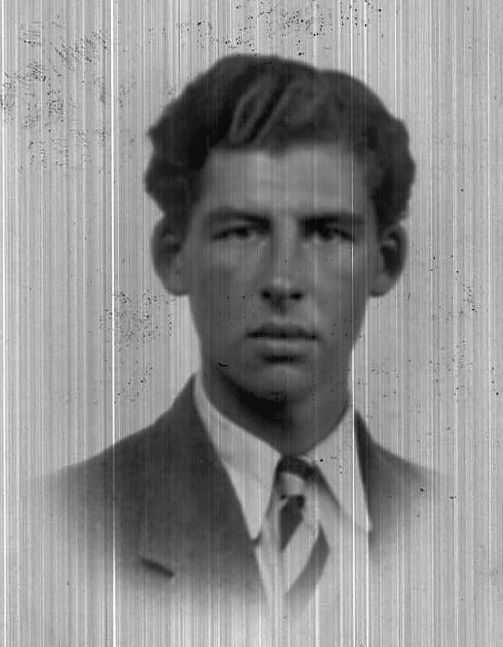
1939
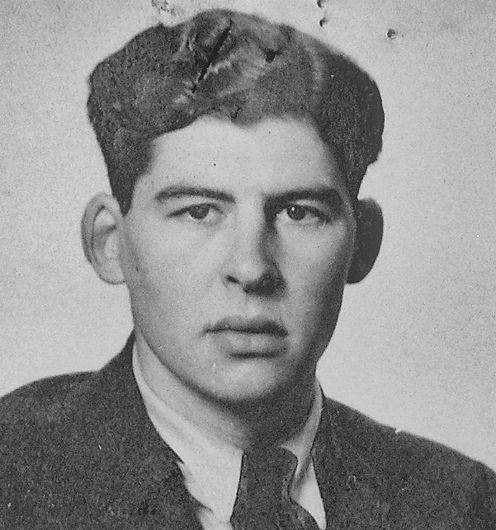
ATA
prev Acting Sergeant, RAF Sep-39 to Feb-41. Ex RAF - "failed to complete course in Rhodesia. 50 hrs solo"

d. 14 Sep 1941 (Died in ATA Service) - Oxford X6958 crashed on farm at Sandon Rd, Weston-on-Trent nr Stafford, in bad visibility.
-
Pyatt, Edward Reginald
M.429 First Officer Edward Reginald 'Reg' Pyatt OBE 
b. 22 Jan 1911, Sedgley, Staffs 15 Apr 1941 to 31 Dec 1945
 1941
1941Ed. Sedgeley Board School
m. 1934 in Kingswinford, Staffs, Ruth I Horner
prev. Aircraft Charge Hand
Address in 1941: 'Regina', Dudley Rd, Sedgley, Staffs
Postings: 9FPP, 6FPP, 12FPP, 3FPP
Off sick from 22 Mar to 4 Apr 1943 with hypertension
4 accidents, 1 his fault:
- 3 May 1942, he failed to stop his Whitley K7221 swinging into wind and hitting a pile of earth
- 26 Jun 1942, the undercarriage of his Spitfire retracted whilst taxying, due to a technical fault
- 13 Sep 1942, Forced landing in a field in Fairchild Argus EV772, after engine failure
- 24 Oct 1943, Another forced landing after engine failure, at Burscough airfield in Grumman Tarpon I (Avenger) FN883
Awarded an OBE in the 1946 Honours List
Lived at: Harbour Rd, Saundersfoot, Pembrokeshire
d. 6 Jan 2002 - Pembrokeshire
-
Pynsent, Charles Burton
M.---- * 2nd Officer Charles Burton Pynsent 
b. 27 Mar 1907, London 23 Sep 1940 to 16 Jan 1941
Father: Robert Burton Pynsent, Mother: Mary Isobel
Sailed to India (via Ceylon) in 1933, returning from Calcutta in Apr 1934
prev. Director of Aero Hire Service; Special Constable
Address in 1939: Park Hill Rd, Croydon, Surrey
Postings:
P/O RAF from 15 Aug 1941
m. 1942 Bessie F [Hunt]
d. 3 Nov 1967 - Coulsdon, London
* ATA File not seen
-
Rae, Donald Edward
M.328 *
First Officer Donald Edward Rae 
b. 20 Aug 1913, Gravesend, Kent 16 Apr 1941 to 10 Aug 1945
 1935
1935
* (M.327 on file but Eugene Prentice was 327)
RAeC certicate 12979, 12 Jul 1935 on Tiger Moth at Hatfield
m. 23 Mar 1940 in Romland, Essex, Doris Jean [Snape] , one child before 1941
prev. Manager, Wood Turner; RAF Oct 1939 - Mar 1940, Link Trainer Instructor
Address in 1941: 45 Brightside Ave, Staines, Middx
'Top joint of left thumb missing'
Postings: 6FPP, 4FPP
3 accidents, 1 his fault:
- 28 Jun 1941, a heavy landing in Hurricane '316
- 17 May 1943, a forced landing in Mosquito HK170 due to failing pressure on RH Engine.
- 19 Jul 1943, Mitchell II ER172 landed with low pressure in port engine caused by metal particles in oil filter.
"Keen, hardworking & of considerable technical knowledge. His flying is good."
May 1945 Report: "Occupational Ability: Above Average. Punctuality and Attendance: Excellent. General Conduct: Excellent both on and off duty"
Class 6 (Catalina) pilot
Resident in US from 1959, Naturalization 1967

d. 12 Oct 1992 - La Verne, Los Angeles, CA, USA
-
Randall, Percy
M.33* Captain Percy Randall 
b. 26 May 1900, Englefield Green 11 Sep 1939 to 17 Mar 1941
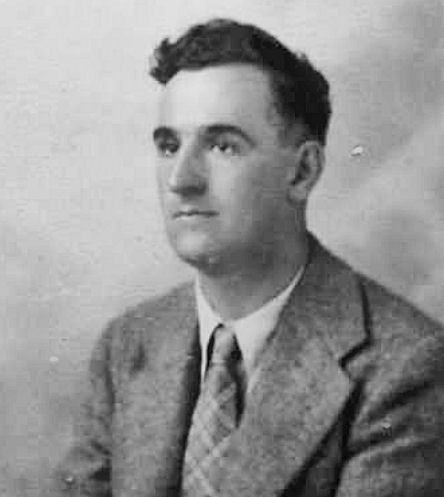
1933
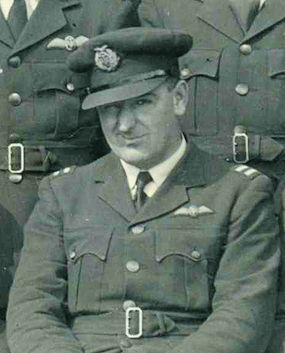 ATAM
ATAMJun 1940
A 'Garage Proprietor' in 1933

d. 17 Mar 1941 (Died in ATA Service) - Hurricane I Z7010 flew into high ground at Bledlow, Bucks in bad visibility.
-
Randrup, Ivan Christian
M.--- 2nd Officer Ivan Christian Randrup 
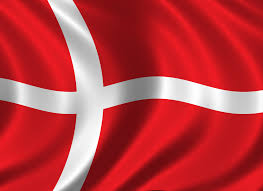
b. 9 Jan 1915, Whitley Bay, Northumberland 1 Nov 1940 to Jan-41
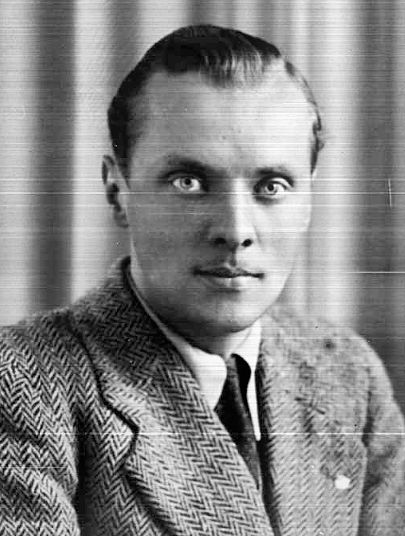
1936
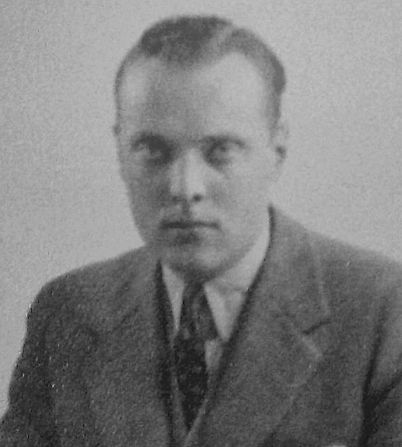
ATA
prev. Chief Pilot of AllFlights Ltd, Heston from Mar 1939 - Jan 1940, then Chairman of Directors.
Jan-Feb 1940 Temp 2nd Officer for BOAC (left for reasons of ill health)
prev exp. 484 hrs (owned D.H. Moth G-ABJZ)
He was 'known to have previously had considerable income from his late father's estate in Denmark'.
Instructor's report says "This pilot is enthusiastic and rather temperamental. He is full of ideas, many of which are incorrect and he will need constant supervision... but his flying in Class I [single-engine] is very satisfactory".
d. 29 Jan 1941, from a self-inflicted gunshot wound, in the RAF Ambulance at Edzell Camp, Kincardineshire, while being moved to the operating theatre.
-
Ratliff, Margaret Joan (W.136)
W.136 3rd Officer Mrs Margaret 'Joan' or 'Jo' or 'Peggy' Ratliff  +
+ 
b. 25 Mar 1917, London 10 Sep 1943 to 30 Sep 1945
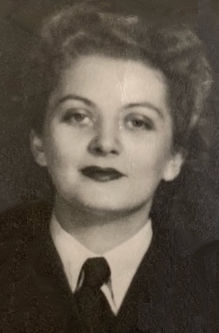
nee Clare
Father Capt. Samuel Clare, MBE, Mother Florence R [Boyling]
Travelled to Peru with her parents in 1925, intending to settle in Talara - which is presumably where her father was working (He was an Oil Mining Engineer, working for G W Brake). They then moved back to England, via the USA, in 1929.
Travelled to Paita, Peru and...
m. 1935 in Guayaquil, Ecuador, Robert Arden Ratliff, a Chemical Engineer from Sisterville, WV. They sailed to the USA to stay with his father Perry in Cromwell, Oklahoma in Nov 1936, and again in Apr 1940.
She flew from Barranca Bermeja, Colombia, to the USA in Oct 1941.
prev. exp: 157 hrs in USA
Address in 1943: 202 NW Palm St, Ponca, OK
Next of Kin: (Father) 'The Beeches', Station Rd, Blaxton, Doncaster, Yorks
She sailed to join the ATA from Canada, arriving 14 Nov 1943 in Bristol.
Postings: 7FPP
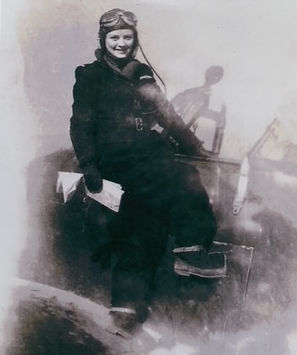 "Wildcat, Aug 45"
"Wildcat, Aug 45"
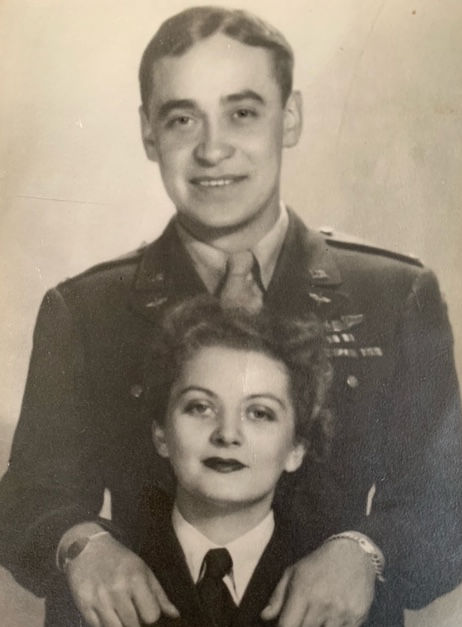
Images kindly sent to me by Jane Custons
m. 29 Sep 1945 Maj. Walker Lee Boone from Miami, Oklahoma. He was a highly-decorated P-47 and P-51 pilot who had completed 140 missions. They married at Sherburn-in-Elmet airfield, her Ferry Pool air base.
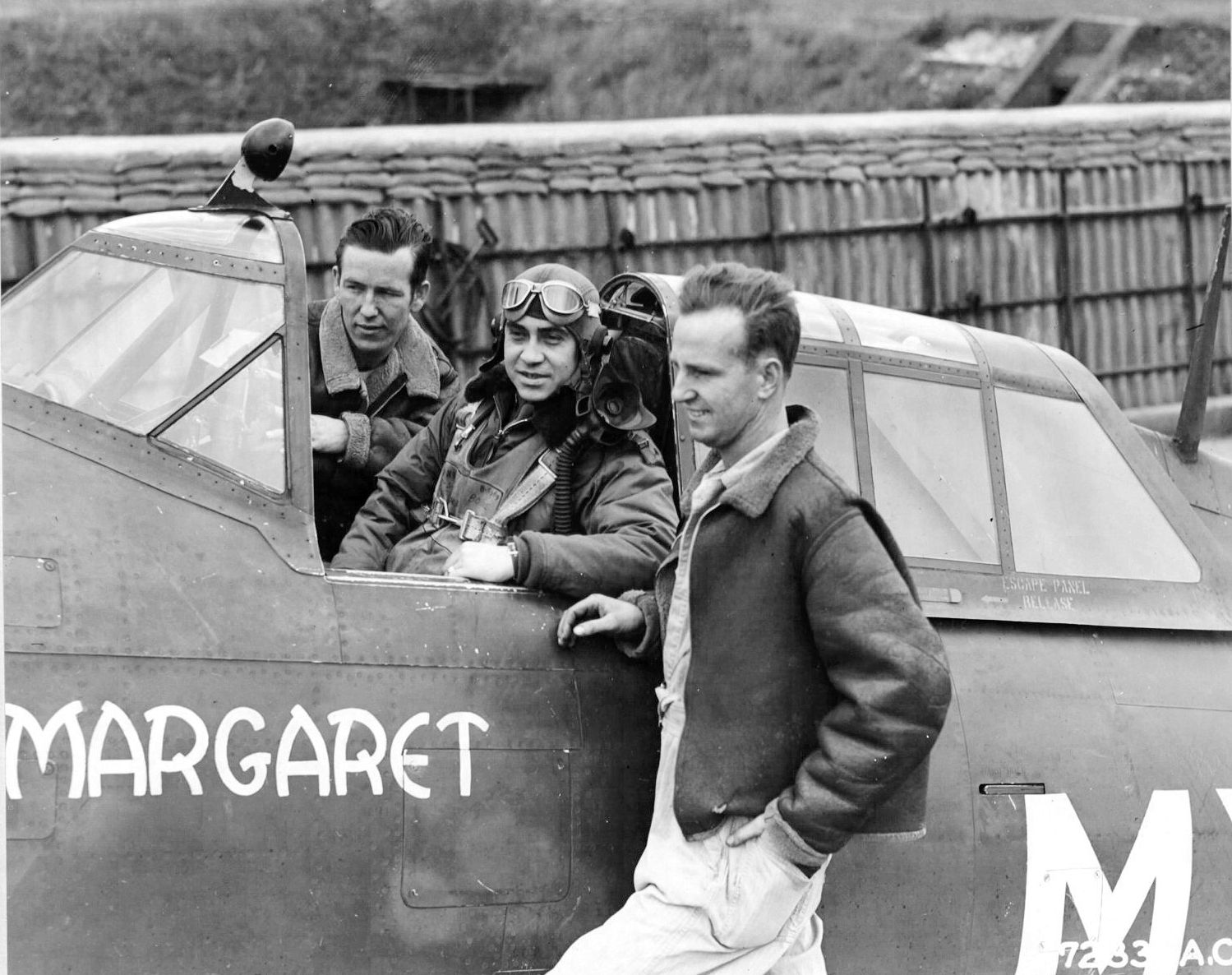 Imperial War Museum
Imperial War Museum"Capt Walker L Boone, 82nd Ftr Sqn, 78th FG in his original 'Margaret', a razorback P-47"
The Miami News-Record, Oklahoma, reported that "Mrs Boone was qualified to fly every type of single-engine aircraft and on every type of twin-engine fighter-bomber aircraft as first pilot. "[OK]
"Serving as co-pilot on multi-engine aircraft, she flew amongst others the B-17 and B-24." [Nope].
"She ferried wounded, flew blood-plasma, and carried important people to their destinations." [I doubt it]
"Among her other duties she flew fighter airplanes from the factory to their operational bases and then flew combat damaged aircraft to their repair depot for repairs." [OK, more or less...]
They then sailed on the 'Ile de France' to the USA in October 1945, the passage having been paid for by the ATA, and lived at 211 A St, NE Miami, OK
Two daughters; Leeann Malinda, (later Hughes) b. Oct 1946, and Marlee Rose (Anacker)
Walker Boone d. Aug 1962 - Wichita, KS (Age 44)
m. 'Mac' McElroy [d. 1977] and lived in North Carolina
d. 1 Jul 1985 - Carver, Minnesota [Aged 68]
Jane tells me that "My mum Mary Ann Hoole MBE (nee Clare) was half sister to Margaret. She was born in 1938 from Samuel Clare’s second marriage to Rose Alice Mitchell and was only young when she first met Joan - she remembers this very smart lady in her uniform coming to their door at Blaxton asking for their mum, and how much her and her brother were in awe of her."
-
Read, James Henry
M.339 2nd Officer James Henry Read 
b. 18 Dec 1918, Maidenhead 11 Mar 1941 to 7 Oct 1942 (as pilot)
3 May 1943 to 30 Sep 1945
(as Airfield Controller/Maps and Signals / Adjutant)
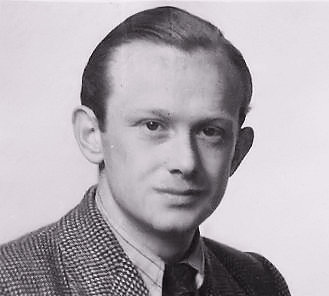
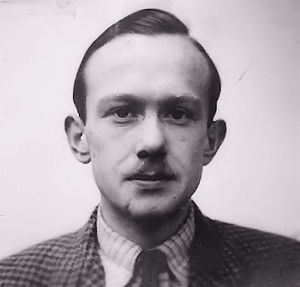 ATA
ATA"small scar on right side of chin"
Father: Thomas Henry Read, a District Inspector, Bus Company; Mother: Agnes Sybil [Sandalls]
Ed. Maidenhead College
prev. RAF F/O, Ser No 39682, Hawkinge, 9 Mar 1937 to 4 Dec 1940; F/O from 8 Nov 1939; "Invalided out of RAF"
m. ? 1940 in Kent, Cissie [Bryant]
prev. exp. 350 hrs on Tiger Moth, Hart, Magister, Tutor, Hind, Battle, Audax in England and France
Address in 1941: The Spinney, Cookham Dean, Maidenhead
Postings: 1FPP
"A keen and satisfactory pilot"
[Contract Terminated]
-----------------------------
As Airfield Controller / (Assistant Adjutant / Maps and Signals 3 May 1943 to 30 Sep 1945)
Postings: 14FPP, 4FPP
Off sick from 28 Sep to 22 Dec 1943 with "Anxiety State"
"A good airfield controller who shows initiative and common sense at all times"
[divorced]
m. 1952 in Maidenhead, Rosetta Vittoria [Paloaro]
They lived at 'The Retreat', Cookham Dean; his parents still lived at 'The Spinney'
d. 13 Jan 2013 - Ashford, Kent
-
Reddicliffe, Sheila (W.---)
W.--- Cadet Sheila Reddicliffe 
b. 6 Dec 1919, Kirkby nr Liverpool 8 May 1944 to 21 Jun 1944
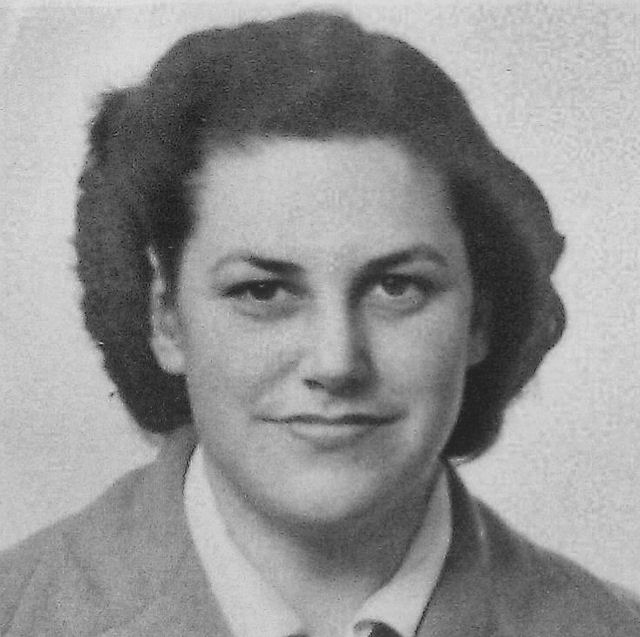 ATA
ATA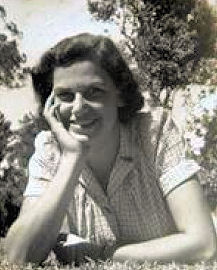 Plymouth Herald
Plymouth HeraldFather: Harold Gelsthorpe Reddicliffe, a Canned Goods merchant, Mother: Vera R [Whitty], of 32 N. Park Rd, Kirkby, Liverpool
Ed. Belvedere School GPDST (Girls' Public Day School Trust), Liverpool; https://www.belvedereacademy.net/GDST/;
Bedford College, University of London
prev. Civil Servant (Clerk, P&T Censorship, Liverpool; Imperial Censorship, Bermuda); WAAF
[She travelled from Liverpool to Bermuda on 30 Jan 1941, with about 160 other civil servants and government officials.]
[ab initio]
[Contract Terminated by ATA]
Address in 1952: 29 Lower Belgrave St, London SW1
m. 1952 Peter Brian Beresford Lightbody
Published 'The Book of Callington' in 1982, and 'Callington: A Cornish Community' in 1987
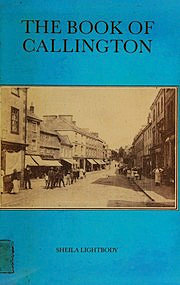 See https://archive.org/details/bookofcallington0000ligh/page/n1/mode/2up
See https://archive.org/details/bookofcallington0000ligh/page/n1/mode/2upd. 29 Jun 2017 - Callington, Cornwall
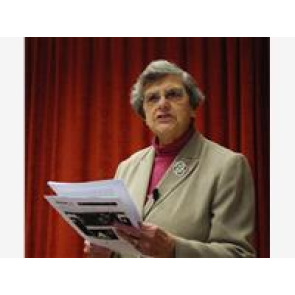 2008
2008"Lightbody Sheila (Reddicliffe) Peacefully at Launceston, Cornwall on Thursday 29th June 2017 aged 97.
Sheila was a true European, reading German & French at Bedford College, Univ. of London in 1938-39; working in Imperial Censorship in Bermuda 1940-41; Pilot Training in WAAF at RAF Thame 1944; qualified as a Surveyor RICS; raising three boys in Post-War Britain at Liss, Hants, then from 1959 in Henwood & Callington, Cornwall.
Author of the Local History of Callington leading to the establishment of Callington Heritage Centre & of three Tudor period Novels. Determined, highly intelligent and always active she was an excellent wife, mother, mentor, companion & example to us all. Her sons, Nick, Simon & Ben, step-daughter Sally and their families" - https://funeral-notices.co.uk/notice/lightbody/4504909
-
Reed, Stephen Peter
M. 48 * Captain Stephen Peter Reed 
b. 15 Sep 1912, Sandwich, Kent c. 1 April 1940 to 23 Sep 1940
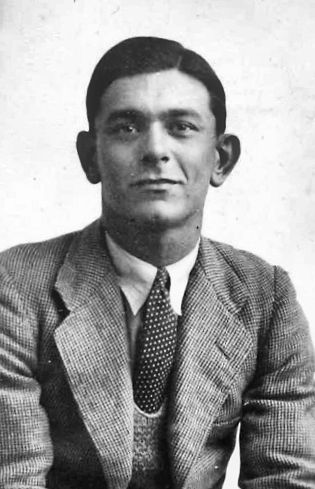 1935
1935Father: Alfred Stephen Reed (d. 8 Oct 1939); Mother: Madeline Cecil [Murphy-Grimshaw]
prev. Lieut. in Royal Artillery; BOAC Pilot
Summoned in 1933 for "causing unnecessary noise with his car."
He said to PC Durrant, who arrested him, "I don't as a rule try to square you people, but if you can see your way clear to overlook this I will have the car altered". However, the Chairman of the Bench was determined to stop "this nonsense of these horrible contraptions called sports cars" and fined him £1.
Address in 1935: RA Mess, Fort Brockhurst, Gosport, Kent
Address in 1940: Westover, Croyde Bay, Devon

d. 23 Sep 1940 (age 28) (Died in ATA) Beaufort swung on approach and wing hit ground at Dumfries
* Personnel file missing
-
Rees, Rosemary Theresa (W.15)
W.15 Flight Captain
Rosemary Theresa Rees MBE

b. 23 Sep 1901, Brompton, London 1 Jan-40 to Dec-45
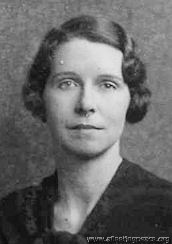 RAeC 1934
RAeC 1934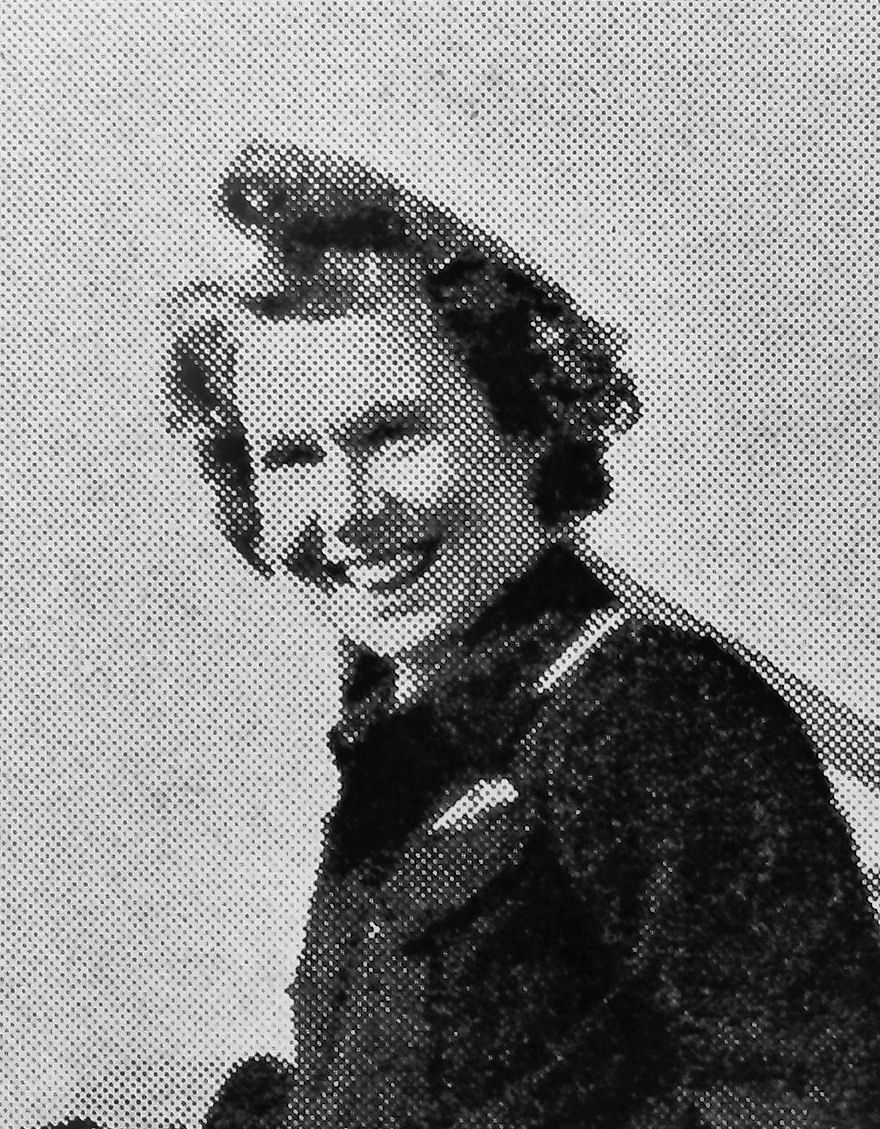 GW
GWFather: Sir John David Rees Bt, KCIE, SCVO, MP for East Nottingham d. 1922; Mother Mary Catherine [Dormer]
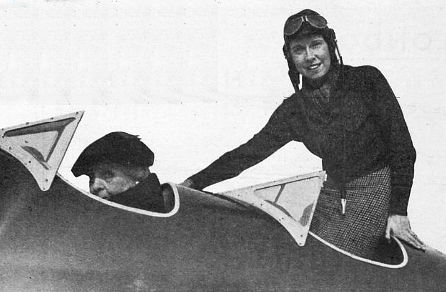 with her mother, the Hon. Lady Rees, in 1935 - Bystander
with her mother, the Hon. Lady Rees, in 1935 - BystanderOne brother, Richard (Ed. Eton and Cambridge, Lieut (SP) RNVR in WWII, author and artist)
[Both her Royal Aero Club Certificate, and her ATA record, have her date of birth as 23 Sep 1906, knocking five years off her age]
Ed. 'private' - she said "I had no proper schooling, except what I read in books and by listening to my parents" - followed by ballet school in Chelsea
prev. a dancer (member of a dancing troupe which toured Ceylon, China and America - she later said "they were all very vulgar"); then decided to learn to fly, persuaded by Gordon Selfridge and instructed by Valentine Baker, and toured all round Europe:
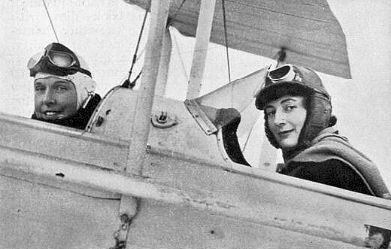 with Delia Crossley (r) in 1935 - Bystander
with Delia Crossley (r) in 1935 - Bystander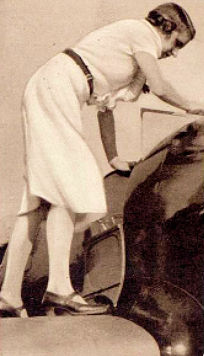 1936 - "Miss Rosemary Rees lands at Salzburg" - The Tatler
1936 - "Miss Rosemary Rees lands at Salzburg" - The TatlerDuring 1939, she worked for Army Co-operation, target towing
prev. exp. 630 hrs, in 'most light types', throughout Europe; she owned G-ADBT, a 1935 Miles M.2H Hawk Major, which she sold to SJ Hawley and replaced it with a Miles Whitney Straight.
She volunteered to fly Christmas presents to Prague in December 1938, for Czech refugees.
Address in 1940: Hillside Cottage, Witheridge Hill, Henley-on-Thames
Postings: 15FPP (as second-in-command), 1FPP
4-engine (Class 5) pilot
She hated Tiger Moths ("beastly little trainers"), after her experience in pre-war monoplanes, but loved the 'darling' Anson
Flew 91 types of aircraft with ATA
One accident, her fault:
- 20 Apr 1941, she 'employed the wrong landing technique' in a Lysander and damaged an undercarriage leg
"[operational ability] Excellent. A capable pilot who carries out her flying duties well". "an extremely intelligent and able officer", however:
"... possesses all the potential qualities of leadership - courage, direct thinking and intelligence, but does not command the respect those qualities entitle her to... she allows her personal wishes to play too large a part in the affairs of the Pool."
Post-war, joined RAFVR
m. 3 Nov 1950 in Westminster, Sir Philip Harvey Du Cros, (second baronet, Cavalry Officer in WWI, d. 1975)
She continued flying; buying a war-surplus Percival Proctor, she gained her commercial licence and operated an air-taxi charter firm, Sky Taxi, for five years.
Wrote her memoir 'ATA Girls' in 1983
d. 8 Mar 1994 - Little Bocombe, Parkham, N Devon
1986 IWM interview here: https://www.iwm.org.uk/collections/item/object/80009148
-
Reiss, Peter Quentin
M.178 * First Officer Peter Quentin Reiss 
b. 3 Jul 1897, Manchester 19 Nov 1940 to 18 May 1942
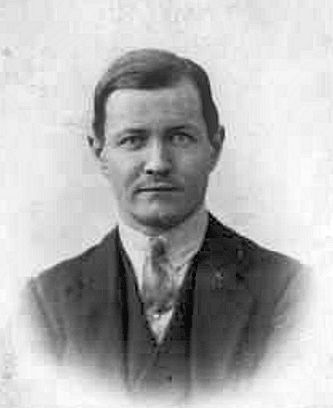 1931
1931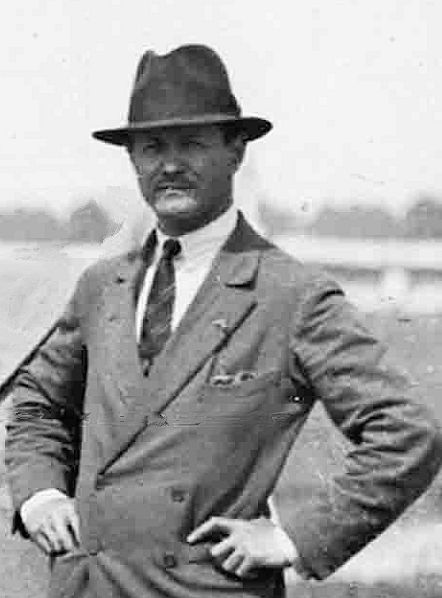 1932
1932Father: Henry Jacques Reiss, Esq.; Mother: Emilie Constance [Peel]
prev. WW1; Lieutenant, Lancs Fusiliers from Jun 1916 then RFC, RAF 27 Jan 1918 - 24 Feb 1919; Insurance Broker and Underwriter
In the RFC and RAF, he flew Maurice Farman, DH 4, DH 6, DH 9, BE2c/d, AW, RE8
m. 22 Oct 1918 in Pimlico, London, Vivian Dorothy [Whitehurst] (divorced 1951)
RAeC Certificate 9670 dated 14 Jan 1931, taken at Leicestershire Aero Club
Address in 1931: 48 Queens Gate, London SW7
![Air Bathing Party Skegness PQ Reiss, L Everard etc [0312-0136]](https://www.afleetingpeace.org/images/gallery/bread%20and%20circuses/preview/333s333/Air%20Bathing%20Party%20Skegness%20PQ%20Reiss%2C%20L%20Everard%20etc%20%5B0312-0136%5D.jpg) (r), with an "Air Bathing Party" to Skegness, 1932. © The Royal Aero Club [0312-0136]
(r), with an "Air Bathing Party" to Skegness, 1932. © The Royal Aero Club [0312-0136][Sir Lindsay Everard, later owner of ATA's Ratcliffe Aerodrome, 3rd from left]
Amy Johnson gave him some flying lessons in 1931, and he adored her with "an unquestioning devotion"- in the post-Jim [Mollison] era he was one of her unsuccessful suitors.
He flew to Brussels in 1936 and brought her home after her first attempt to fly to Cape Town had ended in Colomb Bechar, a French air base in the Sahara.
He owned G-EBRT, a 1927 D.H. 60X Moth previously owned by Alfred Jackaman (who named it 'Peridot I') and then Walter MacPherson. It had competed in the King's Cup Race in 1927 (but did not finish) and 1928 (coming 7th out of 38), and then Walter had taken it (and his daughter) on the Heston Spring 1930 Flying Cruise to Germany. It crashed at Ashington on the 20 Jun 1938, after Peter had sold it.
In 1936, he competed in the King's Cup at Hatfield but had to retire at Shoreham, when he nosed over and damaged the propeller of his Percival P.10 Vega Gull G-AELE.
He was seriously injured in the crash of G-AEKD, a 1936 Vega Gull, in Jaipur, India on 12 Oct 1937; the pilot, Patrick Randolph, was killed.
Postings:
He was still active in 1964, when he gave a dinner for Gatwick's controllers.
d. Jan 1978 - London
* ATA file not seen
-
Reynolds, Delphine Rose (W.---)
W.--- Cadet Delphine Rose Reynolds 
b. 29 Dec 1907, Woolton Lancs 8 Apr 1942 to 22 Jun 1942
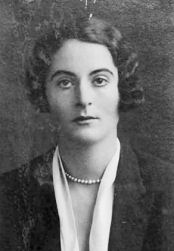 RAeC 1930
RAeC 1930Father: Sir James Philip Reynolds DSO, 1st Baronet Reynolds of Woolton, County Lancaster, a cotton merchant and MP for Liverpool Exchange 1929-32 (d. 1932); Mother: Elizabeth Emelia Leila [Roskell]
She was the 5th of their 5 daughters (followed by 3 sons)
Ed. Newhall Convent of the Holy Sepulchre, Chelmsford
Presented at Court (debutante) in June 1927
She owned G-ABMJ, a 1931 Robinson Redwing 2
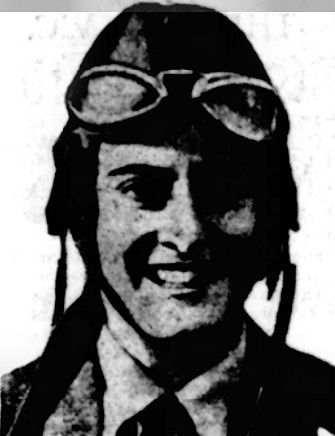
Starting on 1 March 1931, she made an attempt to fly from Hanworth to Cape Town, via the West Coast ('French') route, in the Blackburn Bluebird IV G-ABGF which her father bought for her:
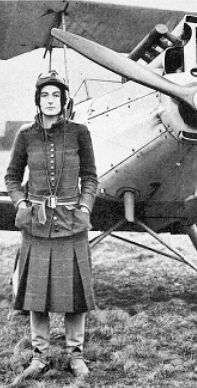 Illustrated Sporting and Dramatic News - 31 January 1931
Illustrated Sporting and Dramatic News - 31 January 1931They flew over France, reached Bathurst, Gambia on 16 March and left there on the 2 April, but problems with the aeroplane in Sierra Leone forced her, and her co-pilot Flt-Lt W G Pudney, to abandon the attempt, and the aeroplane, there on the 11 April. The Bluebird was written off - 'damaged beyond repair due to corrosion' - in May 1931.
See https://pjhap.wordpress.com/2013/04/30/flight-of-delphine-reynolds-and-w-g-pudney/
They arrived back in Plymouth on 11 May, Flt-Lt Pudney having been "ill all the way home with malarial fever". She brought back a snake.
She later owned G-ACKY, a 1933 DH.85 Leopard Moth, and in 1934 flew from Rome to Croydon "with only two stops for petrol"
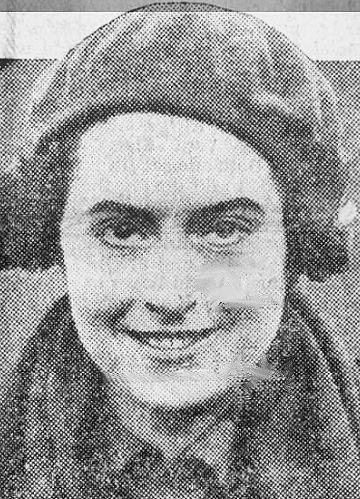
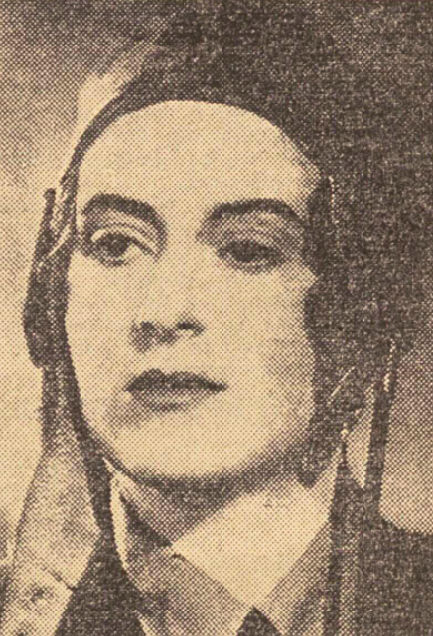
"Miss Delphine Reynolds, the attractive youngest daughter of the late Sir James Reynolds, M.P. is doing wonderful work in aiding German refugees. A few weeks ago she went over to Germany and Austria, where she arranged with the authorities to bring away at least thirty men and women who could not otherwise have left the country. The refugees are fortunate, for they are now staying at the Reynolds’s town residence in Hans Place, all expenses of their upkeep being defrayed by Miss Reynolds herself. She is, by the way, a very keen airwoman who knows not the meaning of fear. She has frequently flown to the Continent, and some years ago undertook a flight to the Cape" - Liverpool Echo - Tuesday 07 March 1939
prev: Mechanized Transsport Corps Lorry Driver, posted to Thorneycroft Ltd, from 6 Jun 1941
pre exp: 510 hrs on 'Gypsy, Klemm, Desoutter, Bluebird, Puss and Leopard Moth'
m. Jan 1944 in Oxford, Dr. Ernst (or Arnost) Schwenk Polak (d. 1948)
m. 1963 in Thanet, Kent, John B Trinick
She made a return trip to Sierra Leone in 1978
d. 16 Jun 1993 - Kendal, Cumbria
-
Richards, Sydney Charles
M.---- * 2nd Officer Sydney Charles Richards 
b. 15 Dec 1894, London 19 Aug to 30 Nov 1940
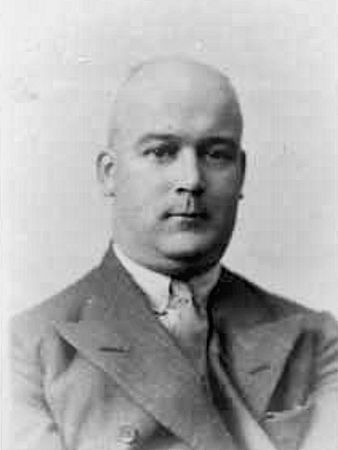 1930
1930Father: Charles Sydney Richards, Mother: Eveline Amelia [Applin]
RAeC Certificate 9421 dated 5 Sep 1930, London Aeroplane Club
prev. Telephone Operator, Bill Discounter, Company Director
m. 2 Jun 1923 in Tottenham, Agnes Eleanor Maud [Wilson]
Address in 1926-30: 35 Clevedon Mansions, Lissenden Gardens, London NW5
m. 1932 in Marylebone, Middx, Clara Frances [McAlister]
ATA
Postings:
d. 16 Oct 1985 - Alcester, Warwicks
* No ATA File
-
Riley, William Thomas Ivan
M.754 First Officer William Thomas Ivan Riley 
b. 18 Jun 1920, Coventry 17 Jun 1942 to 30 Nov 1945
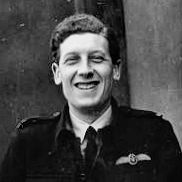 MAMM
MAMMPostings include: 8FPP
-
Robertson, Harry Sanders
M.34 First Officer Harry Sanders Robertson 
b. 2 Nov 1895, Nottingham 27 Sep 1939 to Jun-41
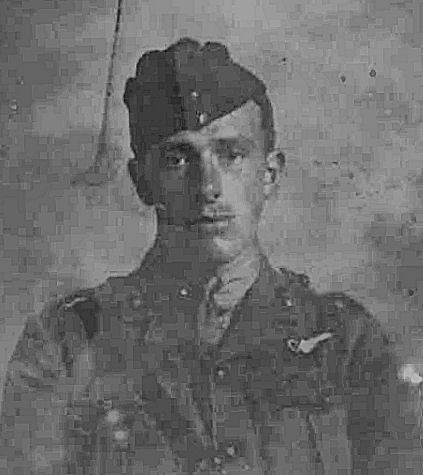
RFC, 1917
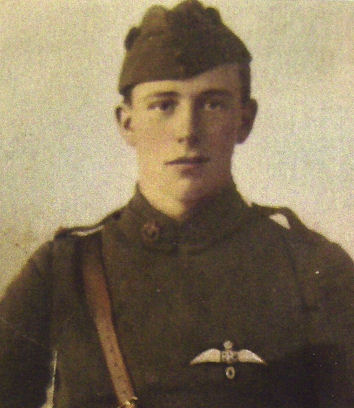
prev. London Scottish 1914, Border Regiment & R.E. 1915
RFC and RAF 1916-1919. RAF Overseas (Flt-Lt) 1924-37
One of the original 16 pilots of Imperial Airways; in fact, he was the pilot on its very first service on 26th April, 1924, flying D.H.34 G-EBCX from London (Croydon) to Paris (le Bourget).
Resigned 30 Jun 1941
d. 12 Oct 1950, Manchester
-
Robins, Bernard Vincent
M.287 First Officer Bernard Vincent Robins 
b. 28 Feb 1921, Norwood, Middx 24 Feb 1941 to 30 Nov 1945
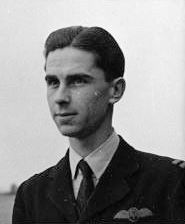 MAMM
MAMM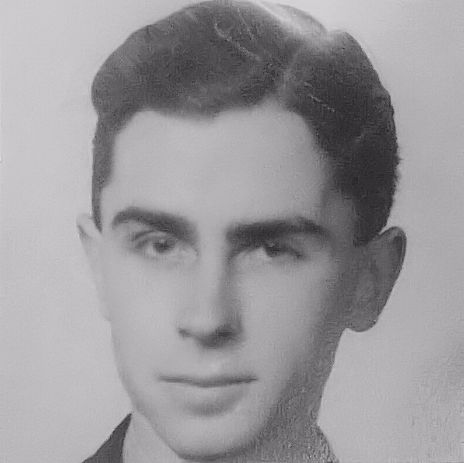 ATA
ATA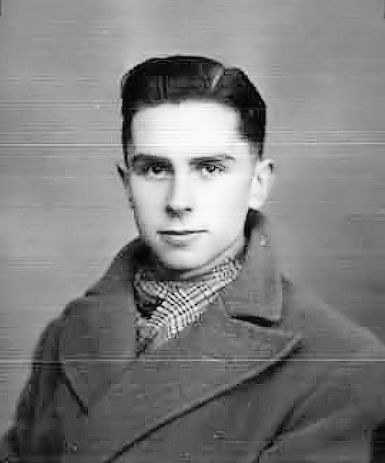 1941
1941Ed. Marylebone Grammar School
prev. General Clerk; RAF Sgt Pilot under training, 15 Aug 1939 to 27 Aug 1940
prev. exp. 79 hrs
Address in 1941: Holly Lodge, Prestwood, Great Missenden, Bucks (later 67 London Rd, Wembley, Middx)
Postings: 2FPP, 9FPP, 1FPP
Class 5 (4-engine) pilot
Gained his Royal Aero Club Certificate No 20292 on 12 Feb 1941, under the ATA's 'Wings' Scheme, taken at Little Rissington and ATA Hatfield
Off sick from 31 Oct to 23 Nov 1941 with tonsillitis
Fined one day's pay in Jul 1942 for Absence without leave
m. Apr 1942 in Weston-super-Mare, Joyce Rosina [Clark] (d. 2005 in Jersey)
5 accidents, 2 his fault:
- 29 May 1941, he landed too fast in Lysander X9643
- 2 Jun 1941, he taxied his Spitfire X3454 into an unmarked patch of soft ground
- 30 Jan 1942, avoiding another aircraft, he landed his Lysander T1697 too near the part of the aerodrome under construction
- 19 Jun 1943, taxying Albermarle I P1478 at Llandow, the starboard propeller hit a partially-concealed concrete block
- 30 Mar 1944, forced landing at White Waltham in Argus EV767 after a loss of power on take-off
"A pilot who has done steady work, in spite of lack of enthusiasm"... "An extremely careful pilot who works quietly and unobtrusively."
Address in 1950: Four Winds, Petit Point Marquet, Jersey
d. 1976 - Jersey
-
Robinson, Arthur Leonard
M.443 * First Officer Arthur Leonard Robinson AFM 
b. 1896, Doncaster, Yorks 11 Jun 1941 to 16 Jan 1943
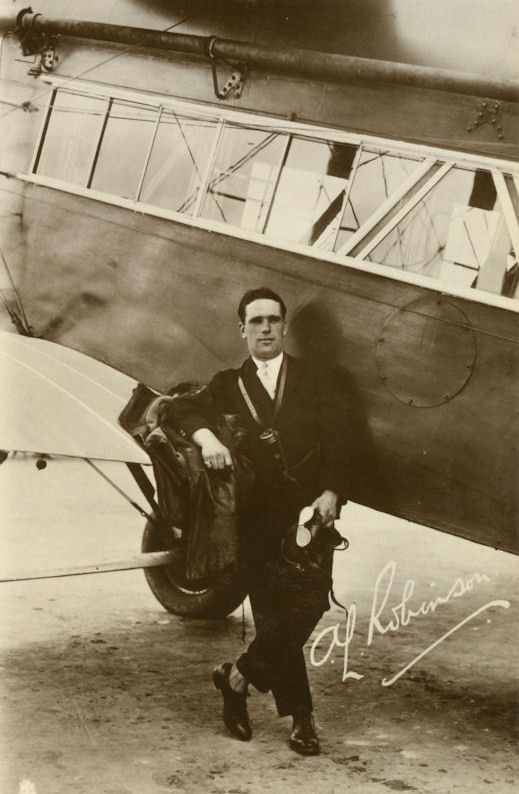
RFC and RAF in WWII; Air Force Medal
m. 1923 in Chelsea, London, Mabel Irene [Overell]
One of the original 16 pilots of Imperial Airways in 1924.
September 1925: "A new air record was created Friday, when Mr. A. L. Robinson, an Imperial Airways pilot, flew a Napier D.H. Express carrying six passengers from Londonto Amsterdam, a distance by air of 275 miles, in 110 minutes. His average speed was 150 miles per hour."
His was a rather chequered career; apparently there was a rumour that he insisted on being paid in cash because the taxman was after him.
"£900-A-YEAR AIR PILOT Fined on Fraud Charge. When Arthur Leonard Robinson (38), an engineer, of Purley-way. Waddon, was fined £5 at Croydon on Saturday on a charge of obtaining £1 by false pretences, it was stated that as an air pilot he had earned over £900 a year. Robinson, who was referred to as Captain Robinson. was alleged to have received £1 change from a cheque which was returned by the bank. The defence was that the cheque was made out on the strength of a promised payment by an aircraft firm. The firm wrote stating that the cheque waa delayed and desiring to take responsibility for what had happened." - Daily News (London) - 6 Nov 1933
"Arthur Leonard Robinson (38), of Wellesley Road. Croydon, was sentenced yesterday at Croydon to one month's hard labour for stealing £11 10s. from his employers, Provincial Airways. Det. Kingham said that Robinson was formerly an Imperial Airways pilot, earning £900 to £l,000 a year. He was an excellent pilot, but there were so many complaints about him that he was asked to resign." - Hartlepool Northern Daily Mail - 19 Apr 1934
And finally, from the Western Daily Press, 2 May 1934: "Arthur Leonard Robinson (38), a wartime flying officer, stated to have been formerly employed as a pilot by Imperial Airways, was sentenced at London Session, yesterday, to six months' hard labour for obtaining credit by fraud from a London restaurant... The Chairman said 'I do not want to drag you down any further. With the magnificent record you have, you should try to steer clear of drinking."
It looks like he heeded this advice.
Postings:
Later a test pilot for Rolls Royce at Hucknall.
d. 30 Sep 1950: "ROBINSON Arthur Leonard of 21 Marshall-drive Bramcote Nottingham. Administration Liverpool 17 November to Irene Mabel Robinson widow. Effects £2,478 5s 8d."
* File not available
-
Roch, Roderic(k) Owen
M.168 * Flight Captain Rodric / Roderic(k) Owen Roch 
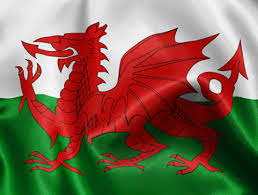
b. 28/30 Dec 1909, Mexico City 11 Nov 1940 to 11 Aug 1943
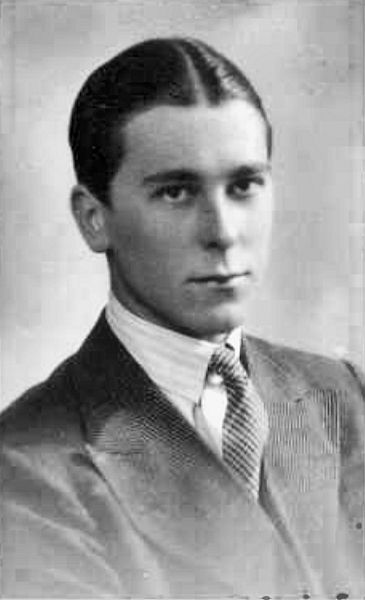 RAeC 1931
RAeC 1931Father: Cyril Roderic Roch, mother: Clytha Kathleen [Richards] (Married in Australia, 1907)
Baptised in Brawdy, Pembrokeshire, Wales, 26 Jun 1910
5ft 11in, brown hair, hazel eyes
Royal Aero Club Certificate No. 9791, 1 Apr 1931 on an Avro 504 at Hanworth (NFS)
Address in 1931: 52 Cambridge St, London W2
m. 1932 in London, Hilda Mary [Munday] (1 daughter Clytha Jane Mary b 1933)
Address in 1937: 19 Warkworth Gardens, Isleworth, Middx
Resident in Montreal, Canada 1940
Postings: 12FPP *
2 * accidents, neither his fault:
- 2 Jul 1942, a main wheel tyre collapsed on landing at High Ercall, in Mitchell I FL164
- 22 Jan 1943, he taxied his Blenheim IV T1869 into an unmarked soft patch and the starboard undercarriage leg partially collapsed
Sailed to New York en route to Canada, on the Queen Elizabeth, arriving 8 Dec 1943
Pilot for Scandinavian Airlines System (SAS) on the Stockholm/Copenhagen - New York route 1946-48
d. 23 May 1984 - Newquay, Cornwall
* ATA Personnel File Missing
-
Rodway, Norman Kenneth
M.635 First Officer Norman Kenneth Rodway 
b. 13 Dec 1915, Liverpool 5 Aug 1941 to 11 Dec 1942
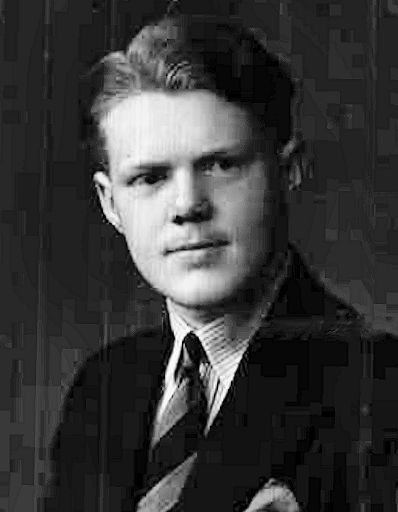 1939
1939Father: Arthur Raymond Victor Rodway; mother Kate
Ed. Holt Secondary School, Liverpool
In 1933, he was fined 40 shillings for "having driven a motor-cycle in Chester Road, Dunham Hill, without due care and attention"; a year later he was remanded at Southport on a charge of "stealing a sports car worth £225 from the centre of the town." When he was arrested, the police found thirty-seven auto ignition and door keys.
Liverpool Echo - Wednesday 21 November 1934:
"Decent Lad Who Stole A Car
"You ought to have been sent to gaol, but you are only a lad, and the bench don't want to start you on a criminal career. If you do it again, however, you will go to gaol without the slightest hesitation." Alderman J E. Willett, chairman, at Southport, to-day, said this when Norman K Rodway, aged 18. of Vandyke-street, Liverpool. was fined £25 after pleading guilty to stealing a motorcar valued £225, the property of Bamber's, Birkdale. Mr. J. G. Barr, prosecuting. said the motor-car was taken from Lord-street on Saturday night and garaged in Liverpool by the accused. He was arrested on returning to the garage, and when brought to Southport was found in possession of thirty-seven ignition and motor doorkeys. In reply to Mr. W. H. Rallis (for accused), Detective-Constable Mighall said Rodway had given the police every assistance, and seemed to be a decent lad.
In May he was fined at Liverpool City Sessions in each of two cases of stealing cars. and a third case was taken into consideration. Mr. Bells told the bench that Rodway was the son of a highly respectable Liverpool business man, and was originally apprenticed with a Liverpool drapers. He got in with several adventurous youths, and four, including Rodway, decided to go to London, to get a ship to Australia.
"ABSOLUTELY MAD" The difficulty was getting there, and they took a car, but it broke down. They reached London by getting lifts on lorries, and wandered about for a week trying to get a ship. The whole thing was absolutely mad, and realising they must get back to Liverpool, they took another car from Hampstead, and drove to Liverpool. Rodway was in the habit of hanging about Speke Aerodrome, and took a third car out of a park there, but only drove about for ten minutes, and left it. Regarding the car taken from Southport, he intended to drive it back to Southport, when he was arrested. Rodway now came before the court full of remorse.
A congregational Minister said Rodway was a boy of excellent character, and his father was a deacon"
m. 1935 Kathleen Philomena [Duffy], 1 child, Kenneth Raymond b. Nov 1935 (d. 2016 in France)
prev. a "Viewer" [also described as an Aircraft Fitter and Salesman] for Napier, Liverpool
prev. exp. 57 hrs on Tiger Moth, Avro Avian, Hillson Praga
Address in 1941: 73a Muirhead Ave, Liverpool
Norman originally applied to the ATA in March 1941, however they replied that they were not allowed to consider applications from pilots of military age (he was 25) unless they had been turned down by the RAF for some reason. Norman replied that he had "failed to pass full medical standard" for the RAF, but pointed out that he had no difficulty in passing his medical for his 'A' Licence, and had "never experienced any ill-effects while piloting aircraft".
His flight test went well, and the ATA took up references; the Rev. Machin, of Hartington Rd Congregational Church, said Norman was "strictly honest, diligent, most willing, highly intelligent - a young man of many gifts and of great promise; and will endeavour to give the utmost satisfaction to his employers."
Postings: 6FPP, 7FPP
"An average pilot, a good worker and a well-conducted officer, likely to make a good all-round ferry pilot if not progressed too rapidly".
Reprimanded once: 28 Nov 1941, suspended for 3 days without pay; "failed to report an accident"
3 Accidents, all his fault:
- 14 Oct 1941, a 'bad landing by inexperienced pilot' in Swordfish W5848; starboard undercarriage collapsed and the lower main plane was damaged.
- 2 Jul 1942, his Spitfire Vb EP521collided with another aircraft after landing, due to the windscreen being obscured with oil

d. 11 Dec 1942 in Spitfire Vc ES260. He took off from Kinloss after the last landing time, on a flight to Litchfield via Dyce estimated to take 17 minutes, but crashed in the dark 40 minutes later, at about 17:35, adjacent to the airfield at Dyce. The aircraft landed down wind into the airfield lights, stalled and crashed before reaching the runway.
"It was unfortunate that his sense of duty to his job tended to make him a little over-confident in his flying"
Buried Allerton Cemetery, Liverpool - Sec. 1A. Gen. Grave 217
His widow Kathleen was in financial difficulties while the ATA insurance was being processed, and also needed an operation which required a 3-week hospital stay and a month's convalescence. The ATA lent her various amounts of money to tide her over, and it wasn't until 14 May 1943 that the balance, some £1,830, was paid to her.
She said "as the interest from [the insurance money] together with the fifteen shillings a week pension I receive would not be sufficient to cover Kenneth's education, I shall certainly have to take a position of some kind."
She moved to 37 Stamfordham Drive, Liverpool, and married Richard Earl Slee in 1954. Kenneth then moved in with them in 1957, but Richard died in Jan 1958, and Kathleen then married Joseph Azzopardi, from Malta, in 1966. She died in Malta 24 Jul 1988.
-
Rogers, Albert Percival Clifford
M.144 First Officer Albert Percival Clifford Rogers 
b. 2 Jun 1909, Bristol 1 Aug 1940 to 31 May 1945
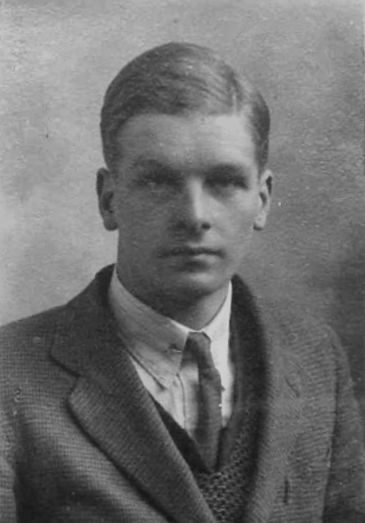 1928
1928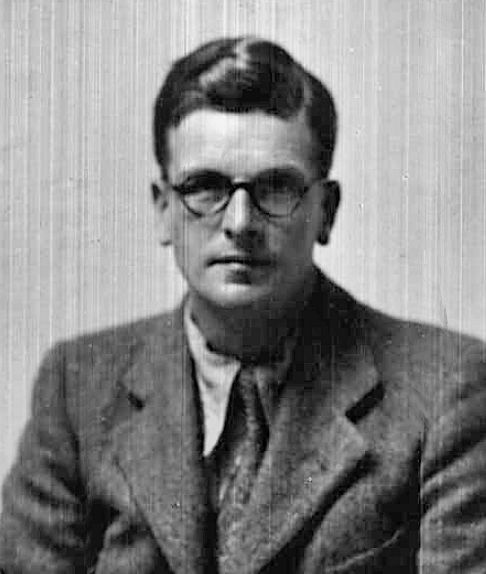 1939
1939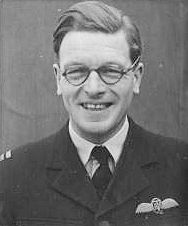 MAMM
MAMMHis father Tracey Percival Rogers [d. 1957] was "Head of a Brewery Company" [Messrs W.J. Rogers Ltd., Jacob St. Brewery, Bristol] in the 1911 Census.
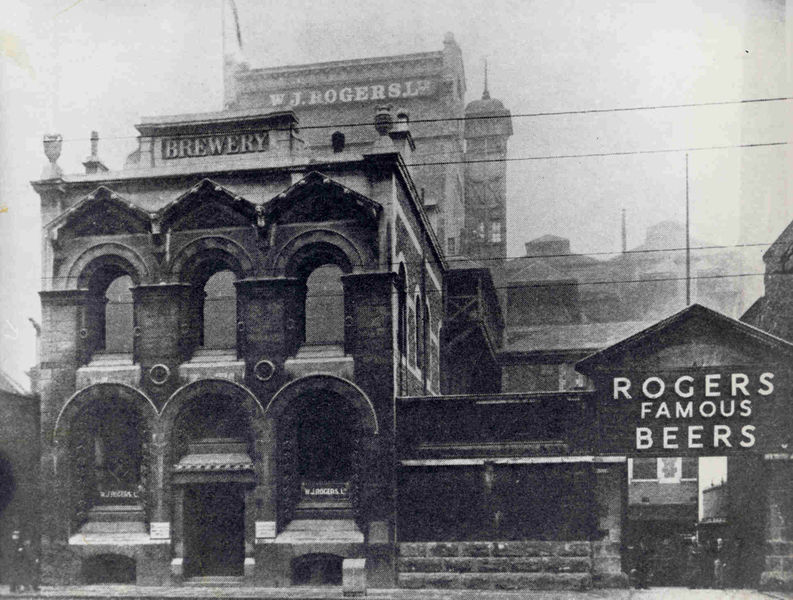
Albert and his brother Gerald Percival Vivian Rogers lived with their parents and a housemaid, an under housemaid, a cook, a parlourmaid, a groom and a nurse.
ed. at Stowe
prev. a poultry farmer; member of Civil Air Guard
prev. exp. 142 hrs on "Most types DH Moth, Avro Avian, Miles Magister, Cadet"
Address in 1940: Cleave Hill, Manaton nr Newton Abbot, Devon
Next of Kin: [brother] Capt Hubert Percival Rogers, Friezewood, Ridgeway, nr Bristol
Postings: 1FPP, 2FPP
Suspended once and reprimanded twice:
- suspended without pay for 1 day in Jun-42 for "Loss of Ferry Pilot's Notes";
- reprimanded in Oct-43 for colliding with marker flags while taxying an Anson, and
- reprimanded in Jul-44 for "Loss of ATA Handling Notes (Mosquito)".
5 accidents, two of them his fault.
"An extremely conscientious pilot who has done good work. Discipline good"
d. 9 Jan 1968 - Exeter, Devon.
Buried All Saints Churchyard, Compton Greenfield, Glos.
-
Rogers, Charles Alfred Fermor
M.572 * First Officer Charles Alfred Fermor Rogers 
b. 7 Jun 1894, London 17 May 1941 to 11 Sep 1943
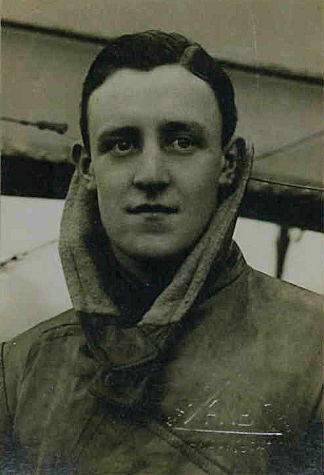 in 1916, as a 2nd Lieut, RFC
in 1916, as a 2nd Lieut, RFC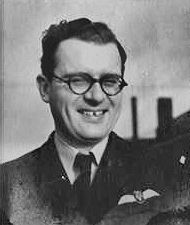 MAMM
MAMMAddress in 1916: 90 Overhill Rd, East Dulwich, SE London
m. Jan 1951 in Hammersmith, Gwendoline F [Cutler]
d. 1965 - Worthing, Sussex -
Rose, Molly Daphne (W.98)
W.98 First Officer Mrs Molly Daphne Rose 
b. 26 Nov 1920, Cambridge 16 Sep-42 to May-45
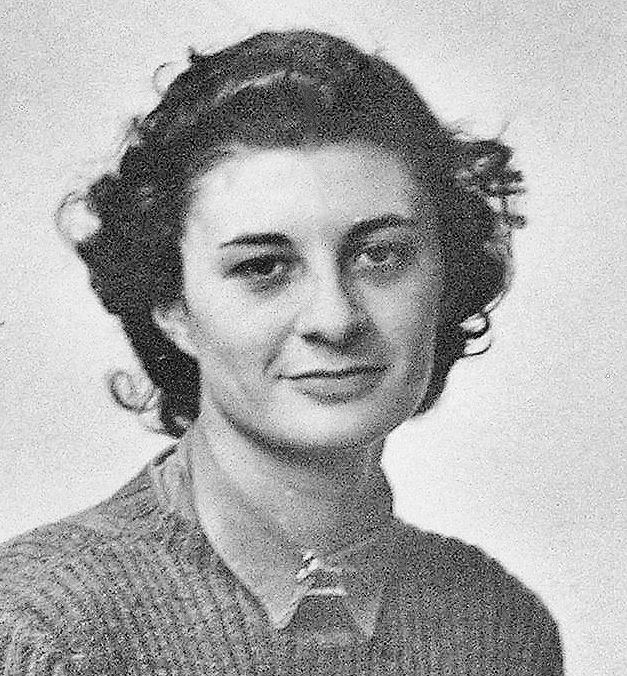
ATA
née Marshall
d. 16 Oct 2016 - Bampton, Oxfordshire
Her son, Graham, has kindly sent me "Molly's Story":
Molly Rose was born on 26 November 1920 in Cambridge, England. Her parents were David Gregory and Maude Marshall. Her father formed Marshall Motors in 1909 and later Marshall Aerospace and Defence Group. She had two older brothers, Arthur Marshall and Ronald. Ronald died of meningitis in June 1907. With four older sisters and one younger she was brought up in quite a lively household. Margery (b 1908), Dorothy (b 1910), Violet (b 1913), Mary (b 1916) and Brenda (b 1927). Her mother, Maude, died in 1930 when Molly was 10 years old and she and Brenda were, to all intents and purposes, brought up by their older sister Vi.
After schooling at Slepe Hall, St Ives, Molly was sent to Paris to a finishing school - that of Mademoiselle Le Dieux at 8 Avenue de Villaire - from January to June 1938. Having enjoyed flying as a passenger in her brother Arthur's de Havilland Gipsy Moth, it was unsurprising that on 1st June 1938 she passed her pilot's licence (Number 14624). Her father, David Marshall, developed the Marshall Motors business he set up in 1909 and her brother, Arthur, formed and ran the Cambridge Flying School. On returning from Paris Molly's father suggested she became an apprentice engineer in the hangars of the family business. She agreed and, over years, became an accomplished engineer.
In 1938 she met a Cambridge undergraduate called Bernard Rose who was studying music at St Catharine’s College. He completed his degree and in September 1939 started his career as a tutor in music at The Queen’s College, Oxford. Molly and Bernard were married in Hove Parish Church on 23rd December 1939 (David Marshall had retired to his house in Hove by that time and gave Molly away).
Upon declaration of war, Bernard volunteered for active service and by 1940 he had joined the Northamptonshire Yeomanry, a tank regiment. In 1942 he volunteered as a reserve officer for the military operations in North Africa. Her father David Marshall died on 9th July 1942, falling off his horse whilst riding on the Downs in Sussex.
Molly was contacted by ATA in August 1942: as she was to remark – “I had just lost my father, and my husband was on a ship to the Middle East. The two men in my life had gone and so I joined the Air Transport Auxiliary on 16 September 1942. As I could not seek permission from Bernard to join ATA I thought that if I sent a jolly good photograph of me in ATA livery, then he would be sure to approve!” Bernard received the photo on his arrival in Cairo and was thrilled with the photo – but worried about the risks. Prior to joining ATA, Molly had a total of just 18 hours 50 minutes of solo flying.
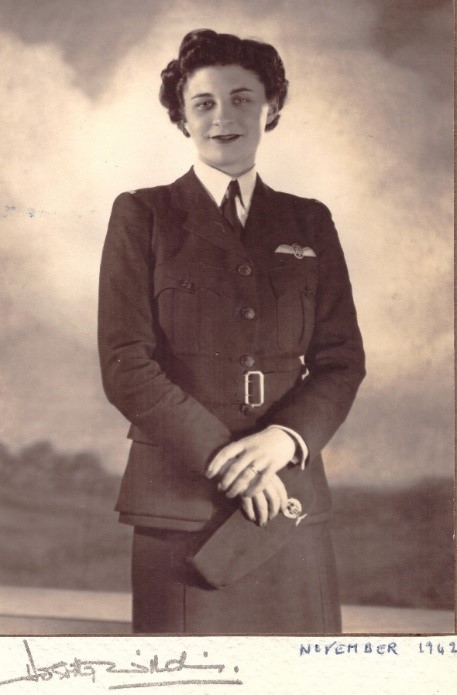
After her initial training, she started flying Magisters in September 1942 at Barton-in-the-Clay, instructed by Joan Hughes Flight Captain William Hampton and others. Her first ATA service flight was in a Magister on 6th November 1942 from Yatesbury to Odiham and by the end of November 1942 she had also trained on the Fairchild Argus, ATA’s favoured taxi aircraft. On 16th January 1943 she flew her first Hurricane and her first Spitfire on 2nd September 1943. On 24th October 1944, after further conversion training to qualify for flying Class 4 aircraft types, Molly delivered her first Wellington bomber from Squires Gate (Blackpool) to Moreton Valence (Gloucester).
Molly Rose spent most of her time with ATA based at the all-women Hamble Ferry Pool (FP 15) under Commander Margaret Gore.
To start with Molly had rather boring lodgings near the Hamble Ferry Pool. However: she approached her good friend, Diana Barnato, and suggested that, as Diana tended to spend most nights in London, Molly should take over her room in The Bugle Pub. Diana agreed!
Molly’s only accident was flying a Swordfish III (NF 262) on 13th May 1944 on a journey across the Wrekin. The Accident Report stated: “The aircraft forced landed in a field, after complete engine failure and was severely damaged” and concluded: “The pilot is held not responsible for this accident.” Molly, in her Imperial War Museum interview, said: “I was taking a Swordfish down from Shifnal to the south and the engine cut out going over the Wrekin and I had to force land. The fields round there seemed extraordinarily small and, having chosen a field and doing as rough an approach as one obviously would if you hadn’t got any engine but heading into wind and aiming at this one, I didn’t know that the field was slightly downhill and on the other side of the hedge there was a young lad ploughing. To avoid him I had to swerve hard left, whereupon the aircraft turned over and a very angry woman got out of the aircraft, and because it had got secret equipment on it I had to get the boy to mount guard on it while I went and telephoned. The RAF had to come from Cosford and mount guard overnight – this was a Saturday and I was extraordinarily unpopular in the mess because they had a dance on and two chaps had to miss the dance!”
On Monday 5th June 1944 Molly and her colleagues noticed a vast gathering of small ships in the mouth of the River Hamble. She records: “The night it all started there seemed to be added tension to the activities on the river and I remember taking a radio to bed to hear the next morning on the six o’clock news that the invasion had started and knowing that Bernard would be in it.” So, D-Day had commenced.
Molly said: “Seven days later he was posted “Missing, believed killed”. My first information of this was from a colleague of his, a fellow officer, who wrote to me, and his letter was the first thing I got saying he had seen Bernard’s tank burning and there was no way anyone could have got out of that tank – that he had seen it shot up and burst into flames. What he didn’t know was that Bernard was getting someone else out of another burning tank at that precise moment so wasn’t in his own tank that was blown up. I did not know this for six weeks and during that time I had a communication from the War Office saying Captain Bernard Rose was missing and then: he was “missing, believed killed”. My Commanding Officer and the ferry pool down at Hamble were extremely good to me. They had all known Bernard and so were very sympathetic to me, and after three days I reported back for duty and it was accepted that I was capable of going on working and this was a great blessing.
“At the end of six weeks I got a card from Bernard’s POW camp.” Bernard was in Oflag 79, a POW in Brunswick and had been marched and transported by filthy trains and trucks across France and Germany to Bavaria.
In September 1944 Molly was promoted from Second to First Officer.
Bernard was released from his prisoner of war camp on 24th April 1945 and on 23rd April Molly had her last solo flight delivering a Spitfire XIV from Lyneham to Lasham. Her last flight with ATA was on 24th April as co-pilot, with Maggie Frost as the pilot, in a Fairchild from Wroughton to Hamble.
Her record with ATA was delivering 486 aircraft during World War II, with 38 different types of aircraft, 705 hours and 45 minutes flight time and including 276 Spitfires. She never piloted a plane again: “if you have flown a Spitfire, there is nothing to compare”!
Meanwhile, Marshall, the family business at Cambridge had devised a revolutionary procedure for the rapid training of pilots and their flying instructors; during the Second World War the Marshall Flying Schools trained more than 20,000 pilots and instructors for the RAF, and its methods continue to be used by the RAF to this day.
After the war, she raised three sons with her husband Bernard and became a Justice of the Peace in Oxford. She was active raising funds for various charities in Oxfordshire, was appointed a Deputy Lieutenant for Oxfordshire in 1983 and was awarded the OBE for Services to Oxfordshire in 1990. Molly also served as a Parish Councillor in the village of Appleton in Oxfordshire.
Bernard moved from The Queen’s College, Oxford to Magdalen College in 1957 as Informator Choristarum (organist and master of the choristers) and a Fellow in Music. He became a distinguished musician and is credited with laying the foundations for the reputation the Magdalen Choir has to this day.
After the publication of the book ‘Spitfire Women’ written by Giles Whittell, Molly and the remaining ATA ladies became in demand for media activities. These included an appearance as a judge in the TV programme “The Great British Menu” in 2014, having the Teversham Primary School named “The Rose Outdoor Learning Centre” and interviews on BBC Radio Oxford.
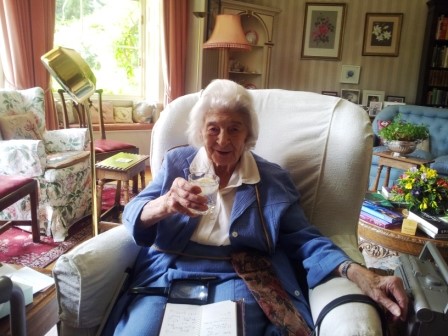
Molly and Bernard lived in Bampton (Oxfordshire) from 1946 until 1974 when they moved to live in Appleton Manor. In 1986 they moved back to Bampton to live in Bampton House.
Bernard died of emphysema in November 1996. She died of a heart attack on 16 October 2016 at the age of 95. Bernard and Molly are buried in the churchyard of St Mary the Virgin, Bampton Oxfordshire.
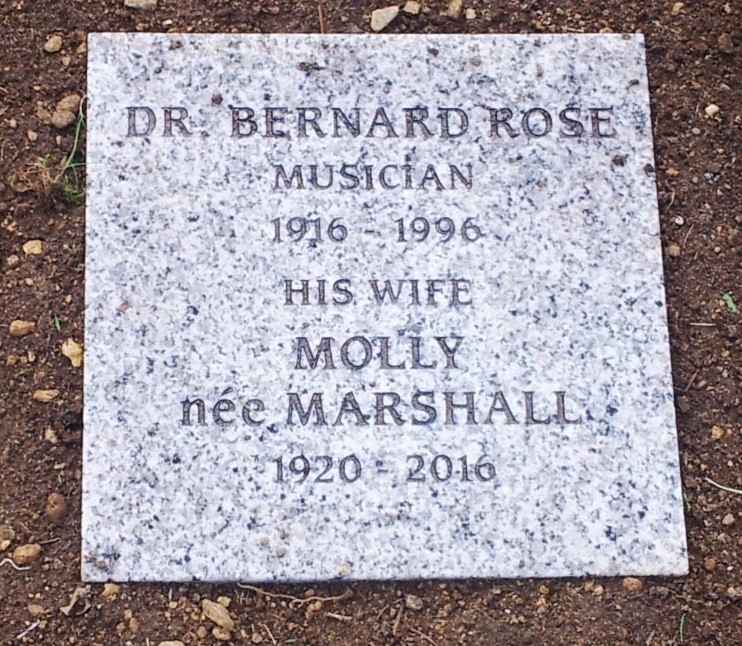
As the BBC had recorded an interview with Molly just before she died, the interview was used as part of the 2016 Remembrance held in the Royal Albert Hall, with David Dimbleby commenting: “Sadly the estimable Molly Rose recently passed away”. She had been due to join her ATA friends, Mary Ellis and Joy Lofthouse, in parading in the middle of the Royal Albert Hall in front of the Queen and the Royal family.
After Molly’s death in 2016 the Station Commander of RAF Brize Norton, Group Captain Tim Jones, suggested there should be a memorial tree and plaque at RAF Brize Norton. The family asked that Molly’s good friend, Mary Ellis (nee Wilkins), also be mentioned on the plaque. Mary’s family farmed at Brize Norton Manor Farm in her childhood – very local connections! The dedication took place in February 2017 and Mary was present.
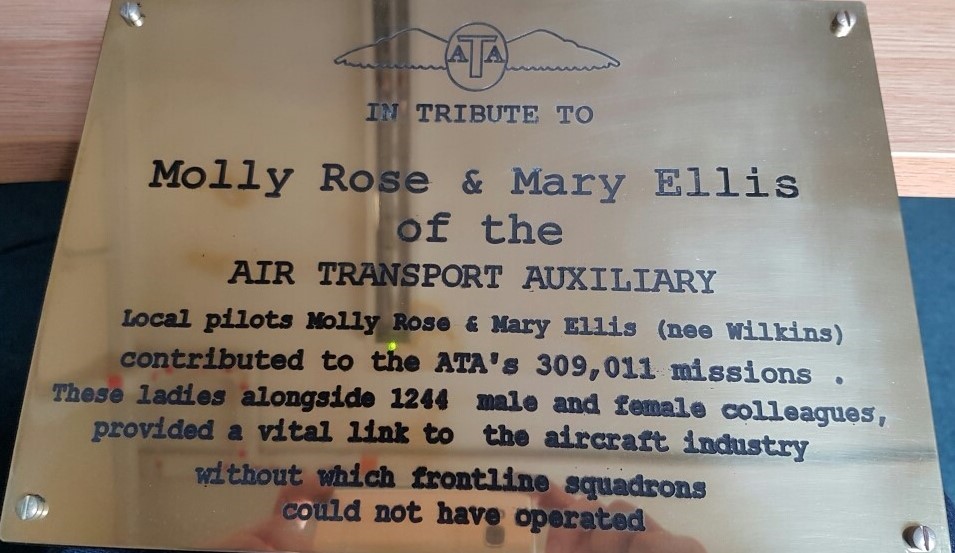
In 2018 the Rose family was asked if they would agree a trophy, to be awarded to the winner of the women’s inter-services rugby final, could be named “The Molly Rose Trophy”. The family readily agreed and below is a photograph of the Chairman of the RAF Rugby Union, Air Commodore Steve Lushington, with the 2018 winning captain, Flight Lieutenant Chrissy Siczowa.
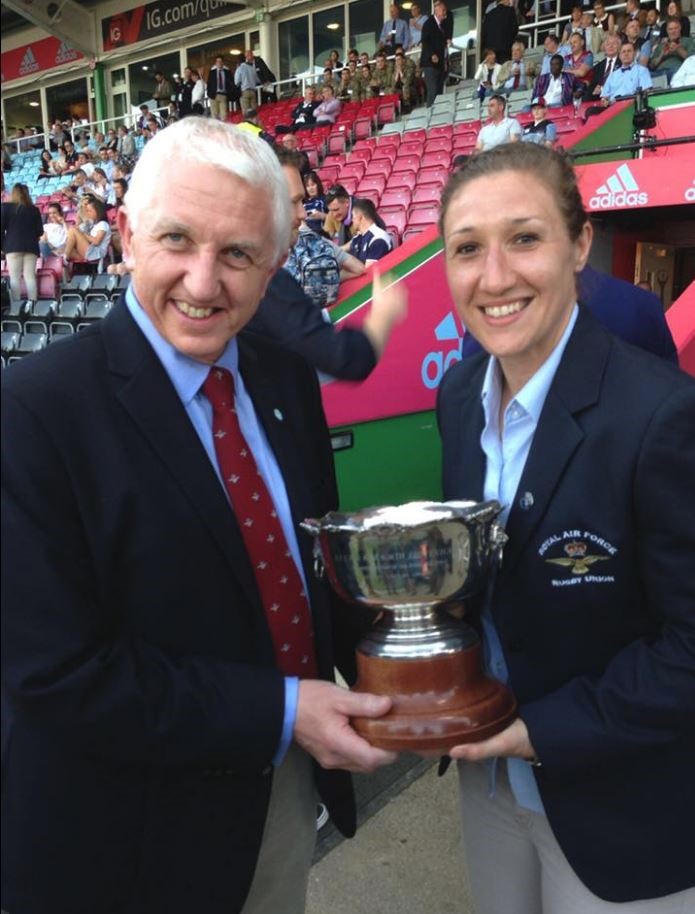
Many thanks, Graham.
Download ATA Pilot Personal Record (.zip file):

IWM interview here: https://www.iwm.org.uk/collections/item/object/80009749
-
Rowe, Frederick Herbert
M.258 * First Officer Frederick Herbert Rowe 
15 Jan 1941 to 31 Jul 1945
Frederick's personnel file is missing, and I haven't discovered any compelling evidence of who he was.
My working assumption is that he was the 'Frederick Herbt Rowe' who served as a 2nd Lieutenant in the Oxfordshire and Buckinghamshire Light Infantry, then from 20 Sep 1917 as a Lieutenant in the RFC and then RAF, in WW1.
He did not have a Royal Aero Club Certificate.
At least 5 accidents:
- 20 Sep 1941, an accident in Battle P2181, nr Silloth
- 11 Oct 1941, forced landing in Gladiator K8015 nr Bewdley after engine failure
- 8 Jul 1942, he taxied his Spitfire Vb AA971 over the grass at Prestwick, ran over an unmarked soft patch and nosed over
- 7 Feb 1943, his Hurricane I V6637 was hit by a landing Oxford whilst waiting for take-off, causing damage to both aircraft- 16 Mar 1944, he survived a crash in Albacore X9266 at Evanton after engine failure
-
Rowe, Henry John Norman
M.66 * First Officer Henry John Norman Rowe 
b. 31 Oct 1896, Lewisham, London ?16 May 1940 to 15 Jun 1944
Father: Thomas Holman Rowe; mother, Susan Kate [Rice]
RFC in WWI; 2nd Lieut. in 1917 (RAeC Cert 5375, photo missing)
Address in 1917: 28 Courtenay St, Newton Abbott, Devon
m. 1925 in Gt Yarmouth, Rosalie Beatrice [Moore]; 2 children (incl. Pamela b. 1928)
In 1939, he lived at 162 The Greenway, Harrow, with his younger brother Leslie, and was a "Counting House Manager - Textiles" and RAFVR
Address in 1944: 15 Nithsdale Rd, Weston-super-Mare, Somerset
Postings: 9FPP
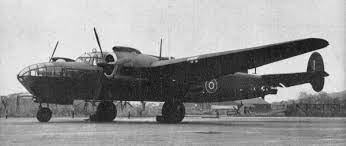
d. 15 Jun 1944 at Derbyshire Royal Infirmary, from injuries received in Albermarle I P1563, which crashed Into a barn during an attempted overshoot after landing at Ashbourne Airfield, Derbyshire.
The co-pilot survived.
Buried Weston-super-Mare Cemetery
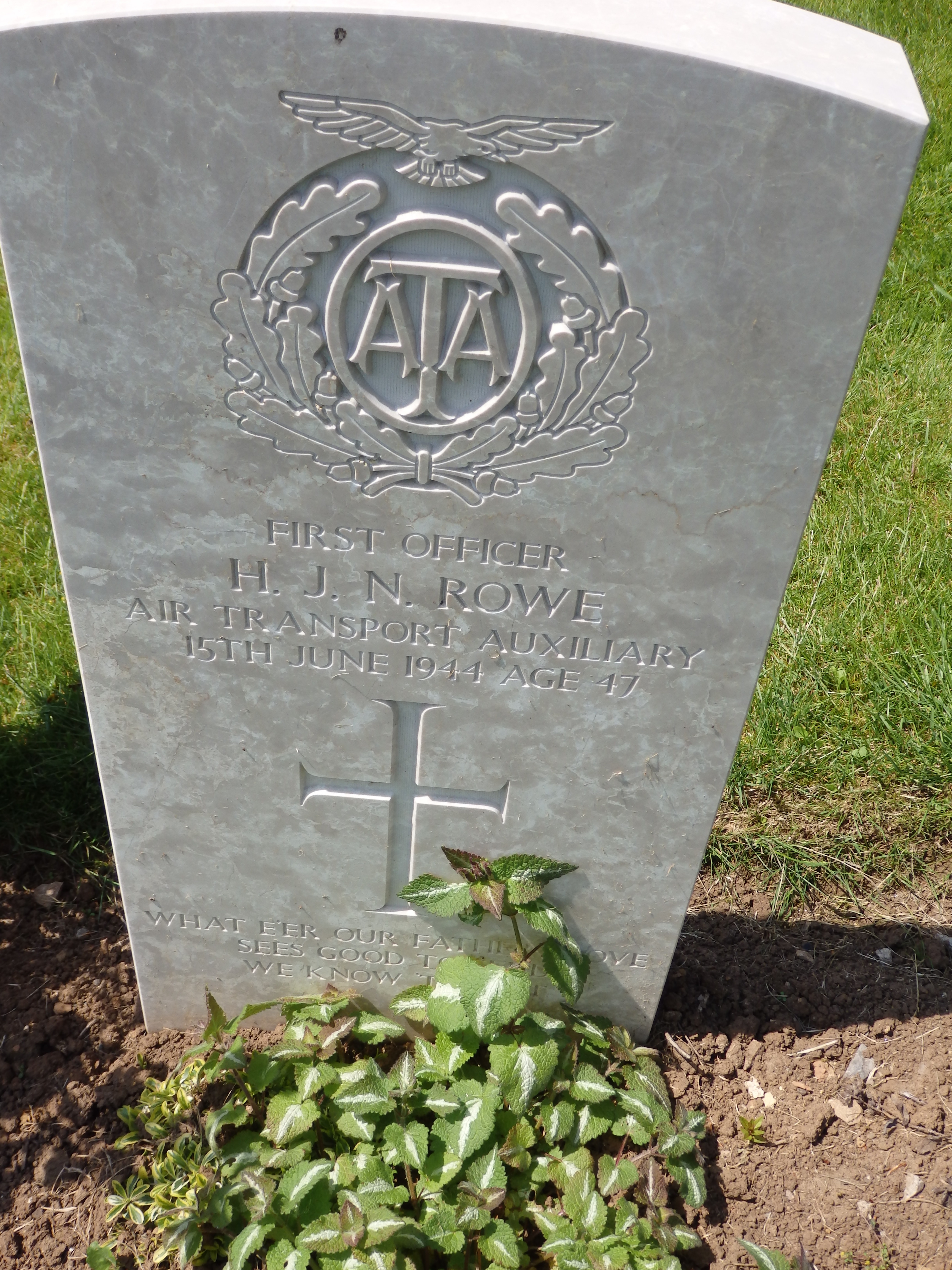
-
Rowley, Percy William
M.299 First Officer Percy William 'Bill' Rowley 
b. 7 Apr 1908, London 24 Mar 1941 to 30 Jun 1945
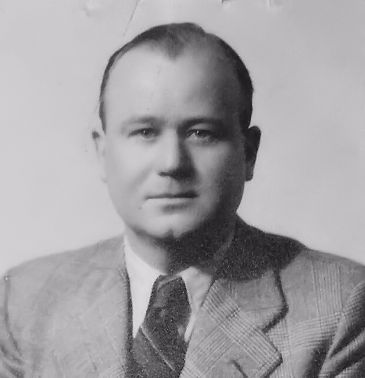 ATA
ATA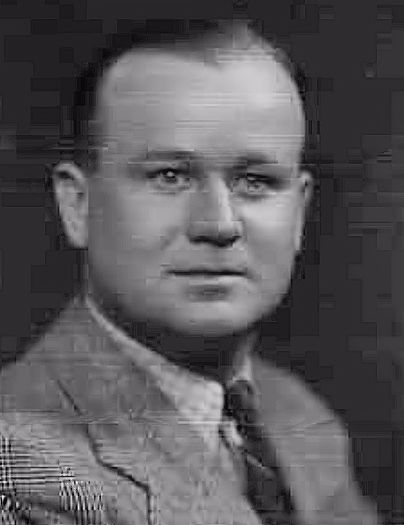 1936
1936Father: Frederick Charles Rowley, a Builder and Contractor, (d. 1925), Mother: Amy Elizabeth [Reeve] (d. 1935)
Youngest of 3 brothers; 4 sisters
Ed. Tottenham Grammar School
He had a nasty moment in 1927:
"WOMAN IN BLACK Motor-Cyclist's Night Shock. Pedestrian Seriously Injured.
Percy William Rowley, carpenter, 7, Willoughby Road, Hornsey, London, was motor-cycling from Birmingham to London, and when near the Tilsworth turn he met a motor car with brilliant headlights. After passing the car he was plunged into darkness, but could just distinguish a black object moving about the road: this proved to be an elderly woman, named Caroline Rimington, late of 9, Salisbury street, Chester, who, it afterwards transpired, was walking from Chester to - London. dressed in black and wearing a shawl.
As soon as Mr. Rowley saw her he swerved to get clear but, apparently, his handlebar caught in the shawl, and he was thrown off his machine into the road, dragging the woman with him.
Another motor car came up and took both the motor-cyclist and the woman to Dr. Fraser, at Dunstable, and after being attended to, the woman was conveyed to the Bute Hospital. Luton, suffering from a fracture of the left forearm, a lacerated wound on the left leg and a bad wound over the left eye. She is 54 years of age, and, at present, has no fixed address. The motor-cyclist received slight injury to his head and left hand. The handlebars, foot rest and wheels of his machine were damaged"
RAeC Certificate 14465 dated 10 Oct 1936, taken at London Aeroplane Club
Address in 1936: 38 Manor Hall Ave, Hendon NW4
m. Helen M [Walser]
prev. Builder and Contractor (Rowley Bros. Tower Works, Tottenham, London)
prev. exp. 85 hrs
Address in 1941: Thorley Hall, Bishop's Stortford, Herts
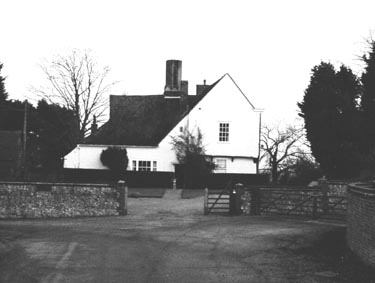 http://www.friends-stjames.org/Thorley_Hall.htm
http://www.friends-stjames.org/Thorley_Hall.htmThorley Hall is "not only one of the oldest buildings in Hertfordshire but one of the most architecturally intriguing"
Postings: 6FPP, EFTS (as Instructor)
Class 5 (4-engine) pilot
7 accidents, 4 his fault:
- 29 Apr 1941, he taxied his DH 60G Moth G-AAHG into a stick which was marking unserviceable ground
- 4 Oct 1941, his Spitfire AD364 nosed over, after he taxied into a soft patch under the directions of ground crew
- 2 Nov 1941, he overshot the landing in Spitfire AD413, ran into soft ground and nosed over (again)
- 11 Apr 1942, an undercarriage leg of his Spitfire Vc BL696 was torn off after he landed in unmarked soft ground
- 16 Jun 1942, he failed to control the take-off swing of Wellington Z1422 and the wing hit an obstruction
- 7 Nov 1942, he undershot the landing in Spitfire ER947 in poor visibility and struck a heap of rubble
Off sick from 16 Nov 1942 to 20 Jan 1943 with "post accident debility"
- 19 Dec 1943, the tail wheel of his Swordfish NE943 ran into an unmarked rut
"A pleasant type of officer, who works hard and well. A keen and reliable pilot"
"Keen, hardworking, cheerful & willing at all times to help with any work whatsoever... he is a great asset to the Station"
Address in 1971: 10 Frinton Court, Frinton-on-Sea
d. 1 Jul 1971 - Frinton-on-Sea, Essex
-
Royffe, Kenneth
M.360 3rd Officer Kenneth Royffe 
b. 3 Jan 1921, Leigh-on-Sea, Essex 15 Apr 1941 to 3 Mar 1942
Father: Frederick William Royffe, mother: Lilian
Ed. Southend College
Address in 1941: (with parents) Broomybank, Mardley Hill, Welwyn, Herts
prev. Buyer, Murphy Radio, Welwyn; RAF Sgt. Pilot Sep 1939 - Oct 1940
prev. exp 105 hrs on Tiger Moth, Miles Master
m. Apr 1941 in St Albans, Herts, Joan Violet [Fisher]
Postings: 2FPP, 6FPP, 3FPP
Suspended without pay for 14 days in July 1941 for 'low flying'
[Contract Terminated]
By 1943 he was a 'test and ferry pilot', and witness to a tragic accident:
"KILLED BY PROPELLER
Exmouth Girl's Mistake
QUESTIONS TO FERRY PILOT
How an inspectress employed by the Aeronautical Inspection Directorate walked into the revolving propeller of an aeroplane and sustained fatal injuries was described at an inquest in the West Country on Monday on Joyce Florence Bowmer, aged 23.
Garfield Henry Headon, an electrical instrument inspector, described how on Friday he was standing by an aircraft, the engine of which was running at half throttle and making a good deal of noise. Mr. Coates was in the front cockpit and Mr. Royffe in the rear cockpit.
Kenneth Royffe, test and ferry pilot, said at the time he was in the rear cockpit checking the oil gauge when his engine practically stopped, and he saw a piece of propeller flying through the air. He closed the throttle and shut off the engine, and as he got out of the cockpit he saw deceased prostrate on the ground.
The Coroner returned a verdict of "Accidental death." "I have no doubt in due course there will be some other form of inquiry held," added the Coroner, "and, therefore, I do not feel it incumbent on me to make any comments as to what may or ought to be done. That I can quite well leave in the hands of other people, but I sincerely hope there will be no recurrence of such an affair as this."- Western Morning News - Wednesday 7 April 1943
d. 2001, Southend on Sea, Essex
-
Russell, Alfred Leonard
M.326 2nd Officer Alfred Leonard Russell 
b. 22 Dec 1908, Walsall, Staffordshire 16 Apr to 18 Oct 1941
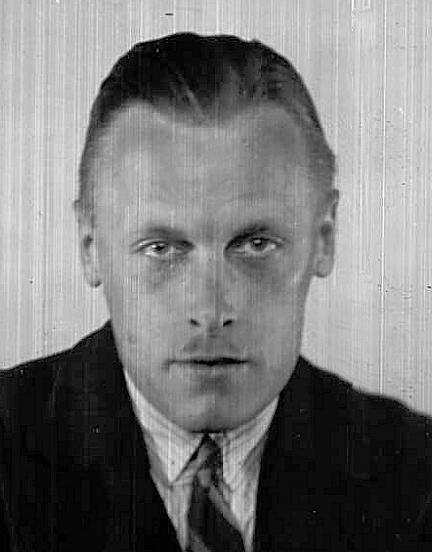 1939
1939Ed. Queen Mary's Grammar
prev. Wolverhampton Police; aircraft inspector, surveyor/auctioneer/estate agent
RAeC certificate 18822 dated 23 Jun 1939 at South Staffs Aero Club, on DH.82
prev. exp. 180 hrs
m. 1935 in Walsall, Staffs, Ruth [Griffiths]
Declared bankrupt in 1940:
"BLAMES FAILURE OF BUILDERS Affairs Of Former Walsall Auctioneer. Admitting that his failure was largely due to making himself liable for other people, Alfred Leonard Russell (31), of Leighswood-road, Aldridge, formerly in business in Walsall as an auctioneer and estate agent, appeared for public examination in Walsall Bankruptcy Court today. Liabilities were estimated at £620 19s. 7d. with a deficiency of £l98 19s. 3d., and he attributed his failure to bad debts and losses on business owing to the crisis of September 1938, and the present war.
Russell said he had lost £500 in fees and in other ways through the failure of builders. He said he was now employed as an inspector in an aircraft factory, his qualification being that he was a pilot and had been interested in flying since 1931." - Wolverhampton Express and Star - 18 March 1940
Address in 1941: 39 Paget Rd, Wolverhampton
Postings: 6FPP
2 accidents, one not his fault:
- 22 Jun 1941, he made a forced landing in Harvard H7044 after the undercarriage failed to operate, but did not "employ all the emergency devices available"
- 2 Oct 1941, a forced landing in Battle P6624 after engine failure. He was under instruction; he and the pilot (F/O C M Rambaut) were uninjured.
Experience in ATA: Magister 30:15 hrs, Harvard 1:10, Moth 5:30, Piper 7:40, Queen Bee 2 hrs, Wicko 1:10
Later a pilot in the Fleet Air Arm
Sailed to India (alone) in October 1946, apparently intending to settle there.
He applied to be released from bankruptcy and return to being a valuer and estate agent in 1957, but was refused; the Judge said that "he had no qualifications and now wanted to start again in the same business."
d. Oct 1972 - Walsall
-
Russell, Ruth Mary Hornsby (W.165)
W.165 3rd Officer Ruth Mary Hornsby Russell 
b. 20 Nov 1920, Gravesend Kent 21 Feb 1944 to 30 Sep 1945
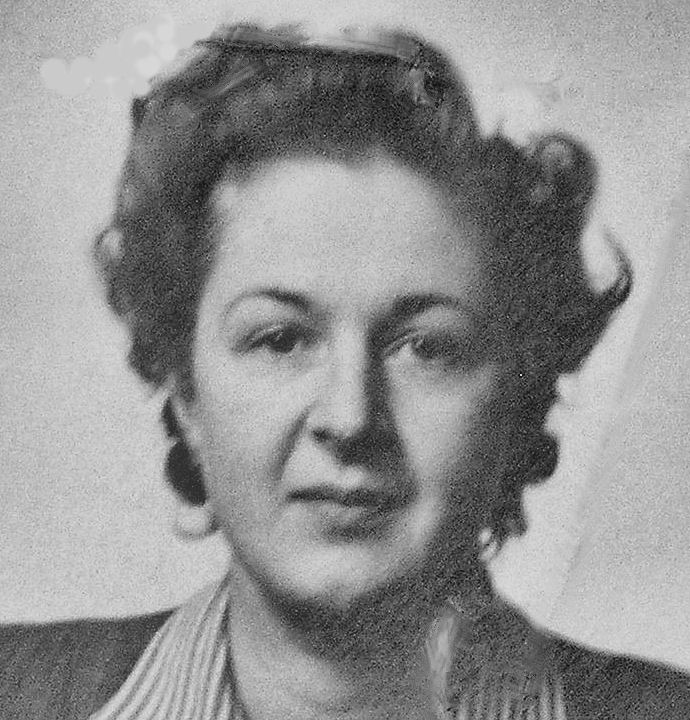 ATA
ATA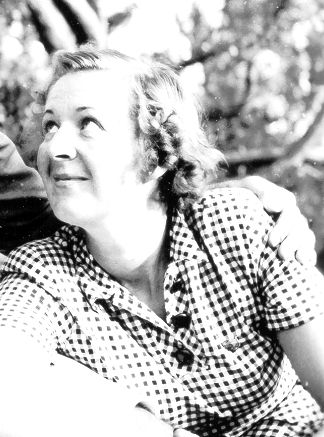

The Final 7 Women Pilots - Betty Keith-Jopp (W.167), Sue Alexander (W.163), Joan Arthur (W.166), Ruth Russell (W.165), Annette Mahon (W.164), Aimee de Neve (W.168), Katharine Stanley Smith (W.162
Father: George Ireland Russell, Mother: Irene, of 'Highfield', Linden Gardens, Leatherhead
3 sisters, 2 brothers
Ed. Parsons Mead School, Ashtead; King's College, University of London (B.Sc Hons in Geography)
prev: WAAF Meterorologist, based at Cranage and Kidlington
Ab initio pilot
Postings include: 7FPP
Off sick from 19 Apr to 22 May 1944, with concussion after a flying accident in Magister T9813. She wrote about it later: "I was just sitting there as passenger, not touching the controls. Low flying always frightened me a bit and suddenly he [her instructor, seconded from the RAF, Sgt. Ronald Codlin] flew into some wires. The next thing I knew, we were on the ground. I realised I was not badly hurt and climbed out, then came the awful part. My instructor was trapped in the front cockpit and his leg was trapped and horribly twisted. I could do nothing to get him out... it seemed ages before the ambulance came".
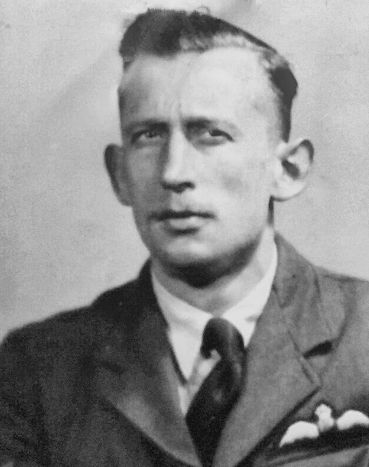 Sgt. Codlin's ATA contract was terminated the same day.
Sgt. Codlin's ATA contract was terminated the same day.One other accident, not her fault:
- 30 Aug 1945, a forced landing in Sea Otter JN252, after the engine cut out twice and then picked up again.
[Her brother-in-law was killed in action in 1944]
Address in 1947: 54 Cranley Gardens, Kensington
Sailed to Bermuda 16 Dec 1948 and m. there, on 29 May 1949, Major Keith Wilkinson AdamsMBE, RASC, originally from Cheshire:
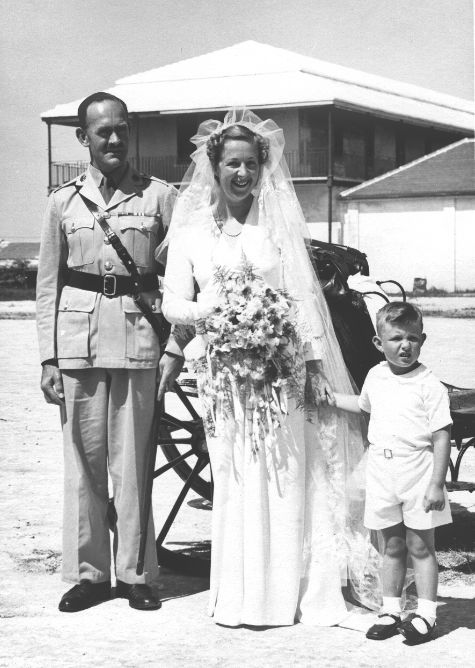
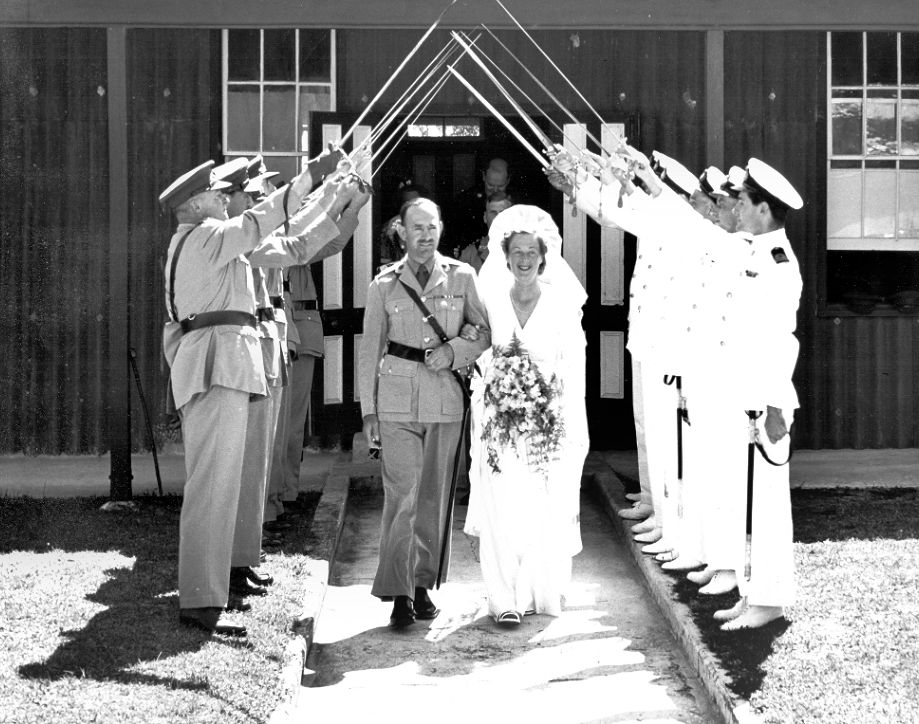
Their son Michael was b. 31 Mar 1950 in the King Edward VII Hospital, Bermuda.
They then spent 1953-56 in the Middle East, followed by a period back in the UK:
"ARMY OFFICER FINED
Lieut.-Colonel Keith Wilkinson Adams, of Greendene, Sea Lane, Bracklesham. who caused a car to stop on an approach to a pedestrian crossing at South Street, Chichester, was stated to have told P.C. D. Bond that he had been abroad and did not know the regulations. The Clerk (Mr. W. J. Booker) told the Magistrates that Lieut.- Col. Adams had written that he had been in the Middle East for the past three years and was staying at Bracklesham. Only the front part of the car was In a prohibited area. Defendant was fined £1. " - Bognor Regis Observer - Friday 26 October 1956
Then they all (Keith, Mary, children Michael, Susan, Simon and Victoria) moved to Australia in May 1958
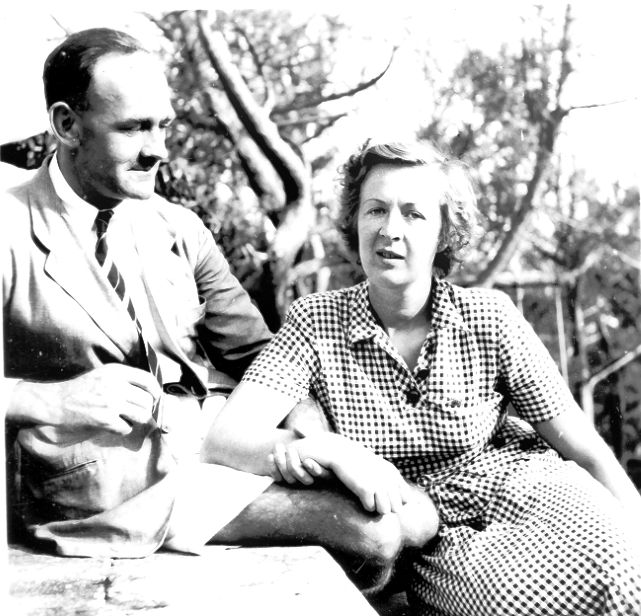
Keith d. 2004 in Adelaide, Australia
Ruth is featured here in 2013:
https://youtu.be/FGNvxndyqtc
https://youtu.be/3iop5BgGtmgd. 9 May 2014 - Darwin, Australia
"Adored wife of the late Keith Wilkinson Adams; Much loved mother of Michael, Susan, Simon and Victoria; Loved mother-in-law of Angela, Jim, Jackie and Laurie; Treasured grandmother of Erica, Timothy, James,Felicity, Olivia and Nicola and their partners Nicholas, Jessica and Anouck; and cherished great grandmother of Archer and Neve. Loved sister of Diana. A long and inspirational life, loved and admired by many and never to be forgotten" - https://www.heraldsun.com.au/tributes/notice/death-notices/adams-ruth-mary-hornsby-nee/4959447/
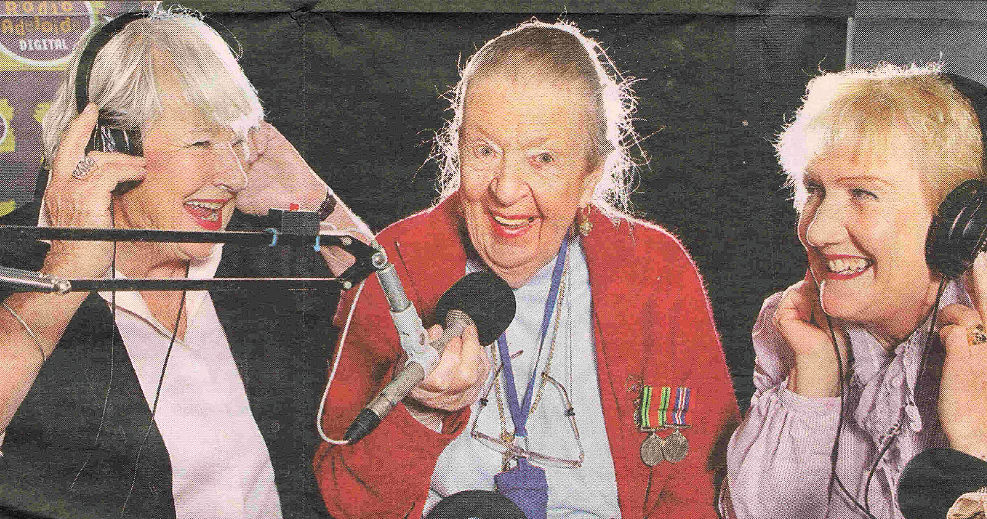
Her son (who supplied many of the photos) tells me: "Aged 94, she ran a company, did public speaking engagements, co-hosted a local Adelaide radio program, and set up and monitored her own Youtube, Twitter, LinkedIn and Facebook accounts. She didn't appreciate glass ceilings."
Buried CentennialPark Cemetery, Pasadena, Mitcham City, South Australia, Australia
-
Rye, Marion (W.---)
W.--- Cadet Marion Cecilia Rye 
b. 14 Aug 1918, Mottingham, Kent 28 Dec 1943 to 10 May 1944
Father: Horace Edward Willis Rye [d. 1969] Mother: Martha Jane [Callow] [d. 1966]
Address in 1939: 125 Union St, Maidstone, Kent
prev. a Library Assistant
d. 7 Sep 1996 - Maidstone, Kent
-
Sale-Barker, Audrey Florice Durrell Drummond (W.16)
W.16 First Officer Audrey Florice Durrell 'Wendy'
Drummond-Sale-Barker

15 Jan 1903, London
(1908 on RAeC Cert)
26 Jun 1940 to 30 Nov 1945
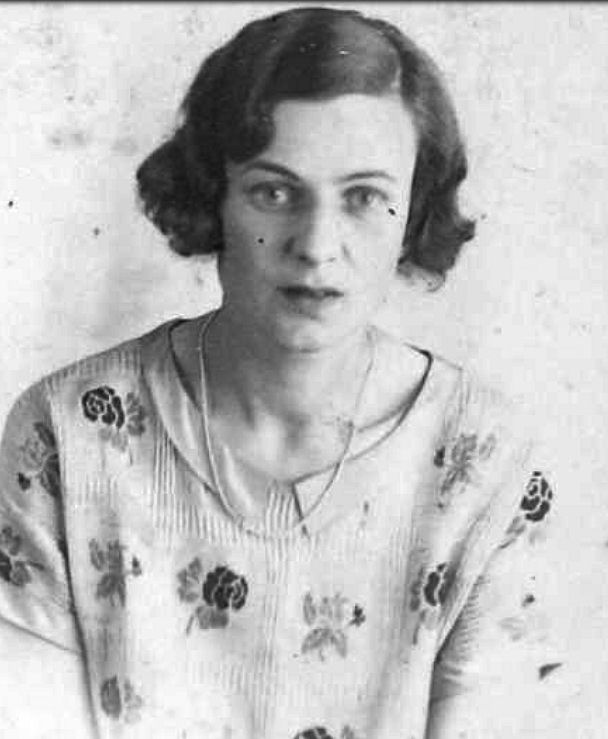 RAeC 1929
RAeC 1929Father: Horace John Maurice Drummond Sale-Barker (d. 10 Nov 1914 in Surrey), Mother: Florence Dyer [Ledgard] (later Mrs. H S Brookes)
prev: a ski Instructor - here she is in "the ski-ing school opened by Lilywhite's in what was previously a dance hall in Piccadilly", in 1931:
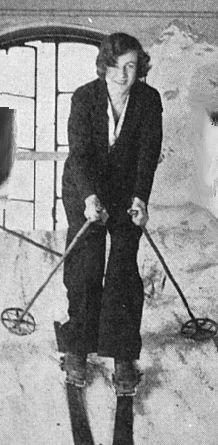 'The Graphic'
'The Graphic'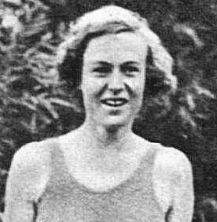 At Combermere Abbey, the home of Delia Crossley, in 1932
At Combermere Abbey, the home of Delia Crossley, in 1932In January 1933, she and Joan Page crashed on their way back from the Cape, and had to be rescued from the South African bush near Lake Magadi, 40 miles south of Nairobi, "amongst lions, elephants and buffalo" The machine was wrecked and rescue parties sent out. Joan suffered a broken leg, Audrey had a cut on the head, and they waited two days by the wrecked machine before being rescued. (They had flown to the Cape "to stay with Lady Bailey" and had crashed on their way there as well, but escaped unharmed.)
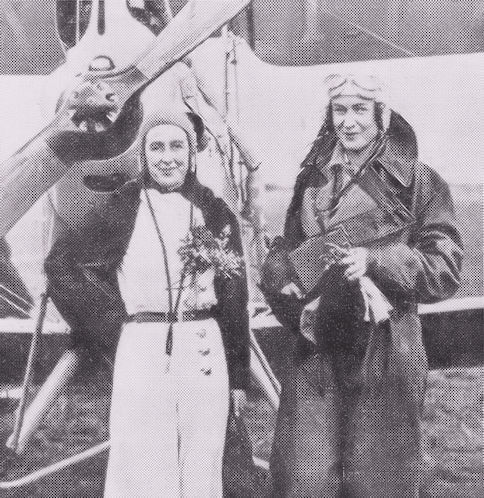 Daily Mirror
Daily MirrorShe was Captain of Great Britain's ladies' ski-ing team in 1934 and 1935.
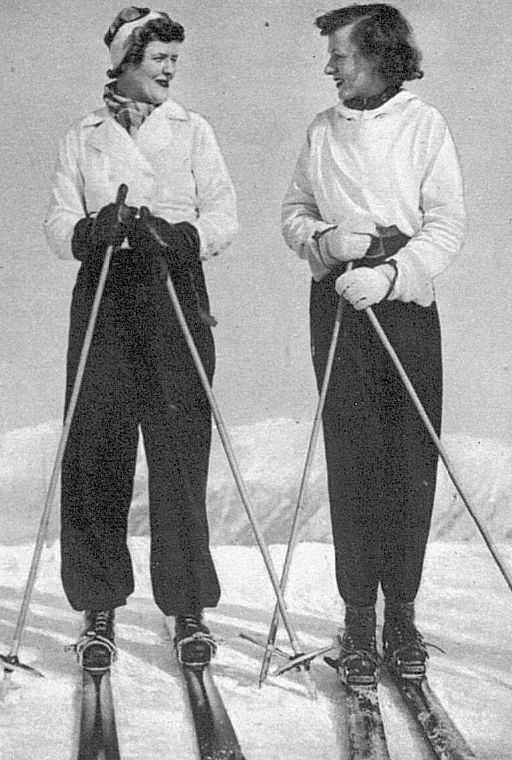 1939
1939"Sun and Snow at St. Moritz. Miss Audrey Sale-Barker (r, with Miss Patricia Lowry-Corry) has been appointed ski-ing instructress at the Corvegia Club this season. Her mother is an aunt of Lord Inchiquin" - The Tatler
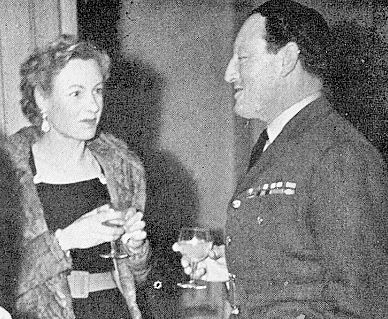
"The Cresta Party at the Dorchester - Miss Audrey Sale-Barker and Wing-Commander Walter Wilson" - 3 Jan 1940 - The Tatler
Postings: 15FPP
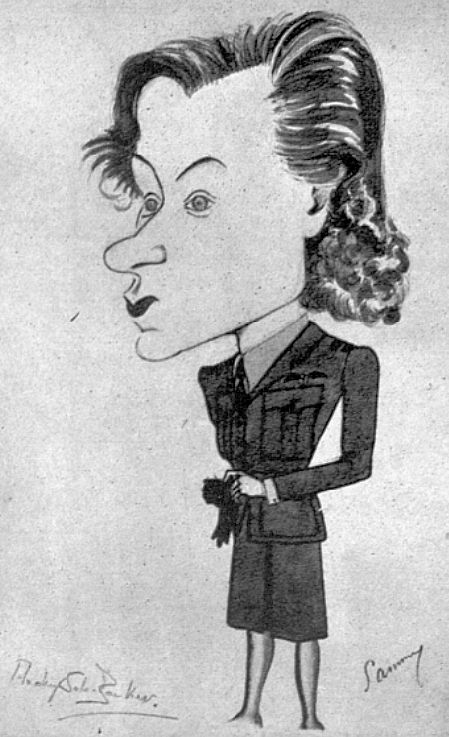 1942 caricature by 'Sammy' Clayton
1942 caricature by 'Sammy' ClaytonOne of the ATA's 'two Audreys' [along with Audrey Macmillan]
Mary du Bunsen says "The two Audreys, who were very good pilots, had a special line of feminine vapours. "My dear," one or the other would exclaim in the mess, "I've got my first Hudson (or Mitchell, or whatever it might be) and I know I shall crash and I've got a pain (cold, temperature, etc)". And they would totter out, leaving a trail of handkerchiefs, lipsticks, handbags, etc., which would be picked up by willing (male) hands. They would then fly whatever it was superbly to its destination, where they would be assisted out of the aeroplane and the same pantomime would take place. "
Off sick from 7 to 24 Feb 1941 with influenza; 17 Oct to 11 Nov 1941 with "torn ligament in foot"; 15 Feb 1943 with "defective vision", and 1 to 28 Nov 1943 with haemmorhoids.
One accident, not her fault:
- 30 Jul 1942, the port undercarriage leg of her Wellington II W5426 collapsed on landing.
Her contract was terminated 13 Jun 1943 in medical grounds, but she was re-instated.
m. 6 Aug 1949 in Edinburgh Cathedral. George Nigel Douglas-Hamilton (the Earl of Selkirk):
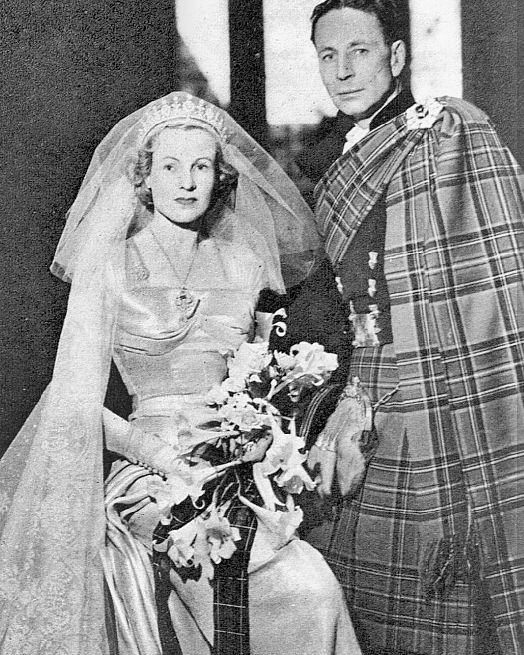
"Scotland's biggest society wedding of the season", with over 1,500 (or it might have been 4,000) guests
d. 21 Dec 1994
-
Salisbury, Cecil Douglas
M.--- * 3rd Officer Cecil Douglas Salisbury 
b. 5 Sep 1895, Weston Super Mare, Somerset 18 Nov 1940 to 5 Mar 1941
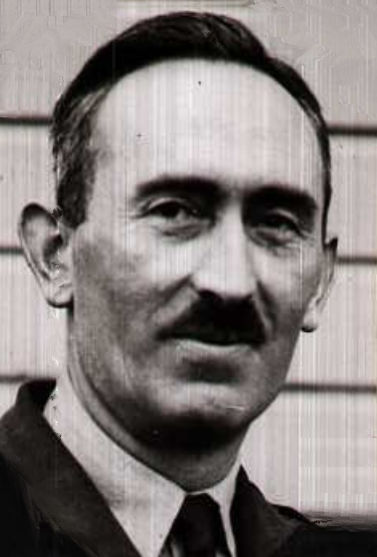 1939
1939Father: William Henry Salisbury (d. 1927), Mother: Clara [Price] (d. 1914)
prev. Private in RASC until 18 Apr 1919
RAeC Certificate dated 5 Apr 1939, taken at Weston Aero Club in a Hornet Moth
Address in 1939: Home Bungalow, Locking Rd East, Weston Super Mare
prev. Airport Traffic Superintendent
Postings:
d. 1963 St. Austell, Cornwall
* ATA File not seen
-
Salmon, Harold Nigel Egerton
M.678 First Officer Harold Nigel Egerton 'Harry' or 'Sammy' Salmon 
b. 19 Jul 1909, London 27 Jan 1942 to 28 Feb 1943
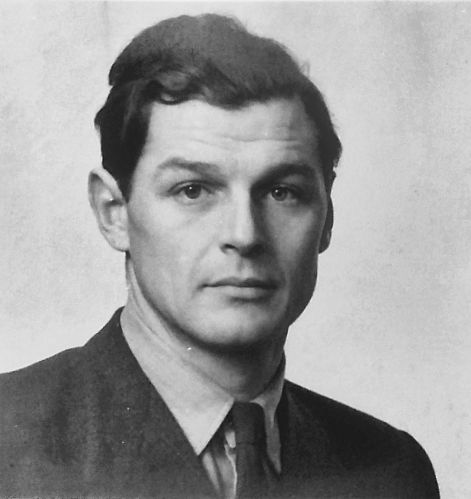 ATA
ATAFather: Capt. William Francis Egerton RN; Mother: Laura Jean Mary Stevenson
Ed. St Lawrence School, Ramsgate
prev. RAF 1933-1941 (Flt-Lt, a former Battle of Britain pilot, but was dismissed in Nov 1941 for "siphoning off service petrol for his car")
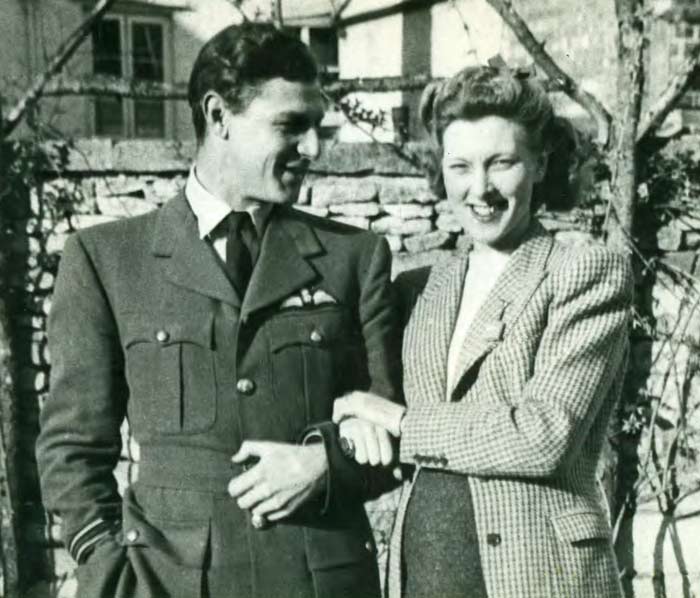 Harry and Celia bbm.org.uk
Harry and Celia bbm.org.ukNext of kin (wife): Celia Joan Salmon, 10 Crawley Mews, S Kensington, London SW7
From 29 Mar 1942, an instructor at AFTS
"A pilot of exceptional ability and a most enthusiastic and capable flying instructor"
Veronica Volkersz was one of his pupils in April 1942: "Our instructor, tall, good-looking Harry Salmon, was a recent importation into ATA from the RAF"
Resigned
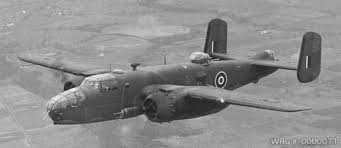
d. 6 Dec 1943 when a pilot for RAF Ferry Command, in Mitchell FW159 lost out of Goose Bay. 3 other crew also died.
Commemorated on the Ottawa Memorial, Panel 3, Column 2
Full story (apart from the ATA bit!) here: http://www.bbm.org.uk/airmen/Salmon.htm
-
Sandeman, Robert Hugh Malcolm
M.35 Flight Captain Robert Hugh Malcolm Sandeman 
b. 18 Jun 1908, Leicester 11 Sep 1939 to Sep-42
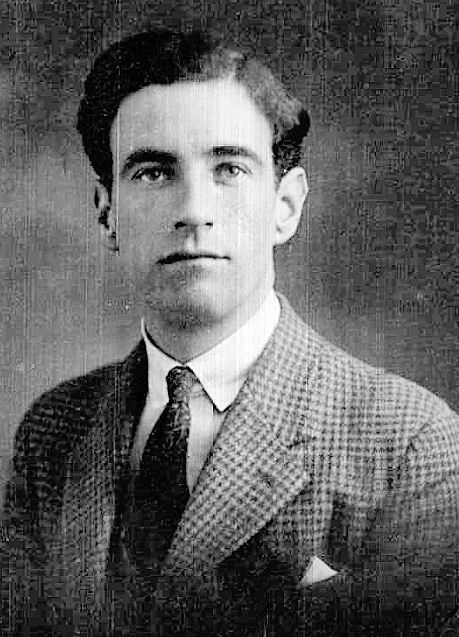 1937
1937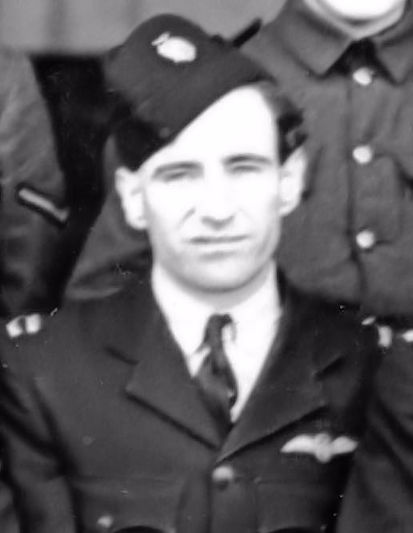 ATAM
ATAMMarch 1941
Educated at Malvern, and Chillon College Switzerland
A Stockbroker in 1937
m. 26 Apr 1940 in Chelsea, Angie [de Waltersdorff]
Address in 1940: 47 Rossmore Court, London NW
Left ATA in September 1942 and transferred to RAF Ferry Command.
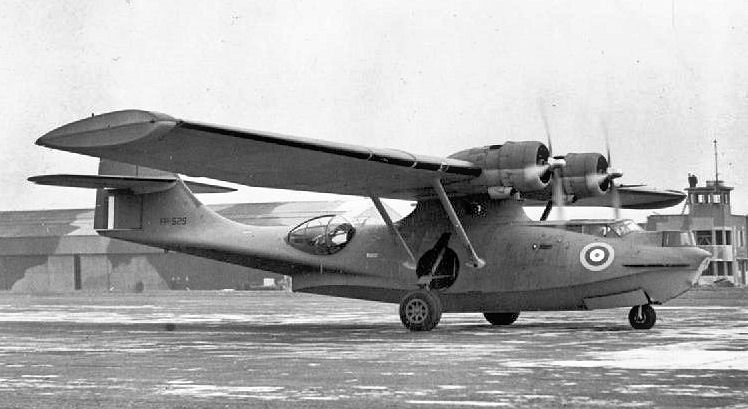
d. 12 Nov 1942 in RAF Ferry Command, flying Catalina FP209 of 117 Sqn from Dorval which crashed in the Strait of Canso.
Commemorated at Runnymede.
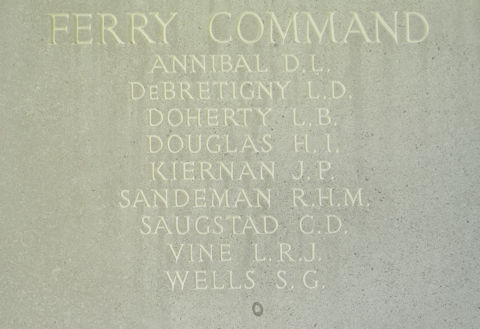
-
Sayer, Betty Eileen (W.43)
W.43 3rd Officer Betty Eileen Sayer 
b. 18 Sep 1917, London 1 May-41 to Mar-42
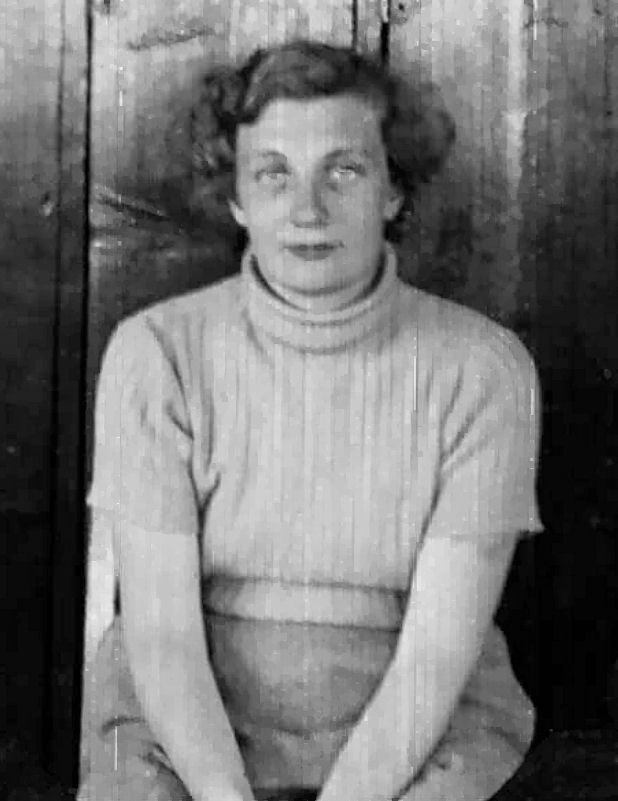 RAeC 1937
RAeC 1937
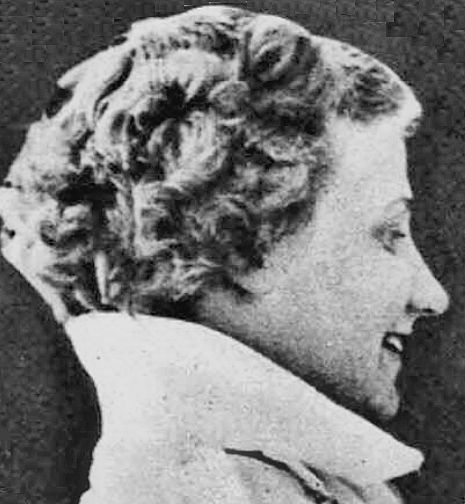 Illustrated News, 1942
Illustrated News, 1942Daughter of Samuel Arthur Sayer (a chartered civil engineer) and of Elizabeth Emma [Mills], of Stoke D'Abernon, Surrey.
Betty's niece tells me that "They came back to England in 1916 or 17 because Elizabeth was pregnant and wanted to give birth in England. She was afraid of U-boats and so came on the trans-Siberian railway but it took a long time as they got caught up in the Russian revolution and spent days parked in sidings. I think they spent several weeks on the train. I think they ended up in Sweden and had to get a boat across to Scotland."
[Davd Cooke has discovered that Samuel Sayer headed the architectural department of a company named Republic Land Investment, which was responsible for designing the New Asia Hotel in Shanghai. This was opened in 1934 and is still a landmark building – see http://www.newasiahotelshanghai.com/ ]
Betty and her elder sister Kathleen then sailed, with their mother Elizabeth, from England to Canada in 1919, and back from Japan in 1927.
Elizabeth died in October 1932 in her early 40s (apparently "she died of cirrhosis of the liver, was most annoyed by it as she had never drunk alcohol") and in the following year Betty and Kathleen (by then 15 and 19) sailed to Shanghai.
"From all accounts Betty was a bit of a tearaway (possibly taking after her mother). I remember seeing a letter from my grandfather to my mother after Betty had come back saying how much he missed her and commenting on her lively behaviour.
As far as ships go I remember my mother (Kathleen) saying quite late in life that she thought that every ship she had sailed on had ended being sunk!"
Betty was then back in England for a few years, and took her Royal Aero Club certificate in 1937.
Prev. Exp: 37 hrs solo
Betty was an 'Assistant Passenger Agent', working for Messrs Butterfield and Swire in Shanghai in 1940, but she had gained her Royal Aero Club 'A' Licence 3 years before. So, when the call came for women pilots for the Air Transport Auxiliary (ATA), she didn't hesitate; clutching this letter of introduction, she made her way back to England:
She explained to the ATA that her licence had, in fact, expired in August 1940; she had got half way through the course for a 'B' licence but abandoned this to return to Shanghai to join her father. She had 37 hrs 51 min solo, out of a total of 90 hrs 55min - "chiefly Tiger Moths and Gypsy I"
'Well', said the ATA, 'as you've come all this way, you'd better have a flight test.' Which she did, and it was satisfactory.
As quite often happened, nothing happened. When they finally did write, it was to say that there were no vacancies, and anyway, "nobody with less than 50 hrs solo can be accepted at the moment."
Betty was understandably, a tiny bit annoyed. She wrote to them, again: "I told you at the time about my solo hours... there would seem to be little point in my carrying out a flight test... I have travelled here from Shanghai for the express purpose of doing something to help the war effort... Could you please let me know when I may expect to hear from you, as naturally I do not wish to do nothing whilst awaiting a communication from you... I might join the WAAF, although naturally I would prefer to become a member of the ATA."
They wrote back on the 28 March 1941: "You are on the first reserve", then on 5 April the long-awaited call came through: "Please report on May 1st".
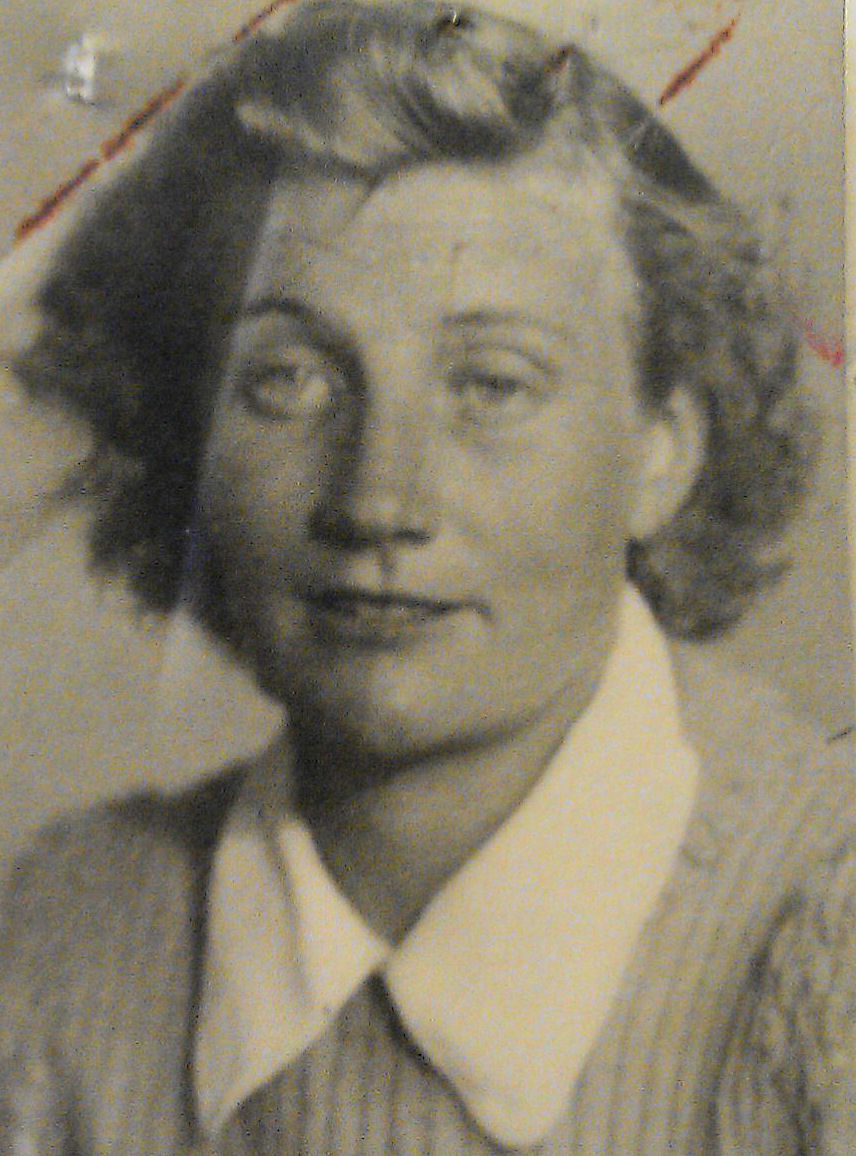
Betty was keen, and started instruction; she was 'shaping well', but the next setback came on 9 May:
"We have sufficient pilots to cope with our work at present, and we do not require your services. You had slightly less experience than any of the pilots we have taken on so far."
ATA Senior Commander Pauline Gower was not best pleased, either; she wrote to her boss, "I have had to dispense with the services of Miss Sayer as a pilot... You instructed me to bring our numbers up to 40, and this is what I have done."
Poor Betty was shunted off to the non-flying staff, as a Secretary on 3 pounds 10 shillings a week. There she languished for a few weeks until, on the 3 July 1941, in another triumph of long-term planning, she was... put on the flying strength once again. She had another test, on the 17th:
"Miss Sayer is obviously inexperienced and requires more practice with forced landings and compass turns. Try her again after another 20 hours dual and solo"
By the 9th Aug 1941 they reported: "Better: her turns near the ground have improved... enterprising and sensible in her flying."
The final, bitter blow was only just round the corner, however; on the 15 Mar 1942, she (with Bridget Hills (q.v.)) was killed at 12.20pm on the 15 Mar 1942 when flying as a passenger in Fairchild Argus HM178, which stalled and crashed onto a bungalow when returning to land at White Waltham after bad weather.

Yorkshire Evening Post, 17 Mar 1942: "AIRWOMEN KILLED Ferry Pilots' 'Plane Hit Bungalow. The Ministry of Aircraft Production announces that Flying Officer Graham Lever, Third Officer Bridget Hill, and Third Officer Bessie Sayers lost their lives in a flying accident on Sunday. The accident occurred in the course of their duties with the Air Transport Auxiliary. The 'plane crashed on to a bungalow. A fourth passenger in the machine, also a woman A.T.A. officer, was injured. Twenty-six people were injured when they rushed to the house to extricate the passengers in the 'plane. It is believed that the petrol tank in the machine exploded.
Among the injured were children who were in the street. The petrol tank exploded some time after the crash, owing, it is believed, to contact with a fire in the kitchen. A man named Croft, living in an adjoining bungalow, was blown through a window into the street and badly hurt but a child in the front room of the bungalow was rescued almost uninjured. "
She was buried at Maidenhead Cemetery - Sec. D. Row K.K. Grave 19., and is named on the memorial at Stoke d'Abernon.
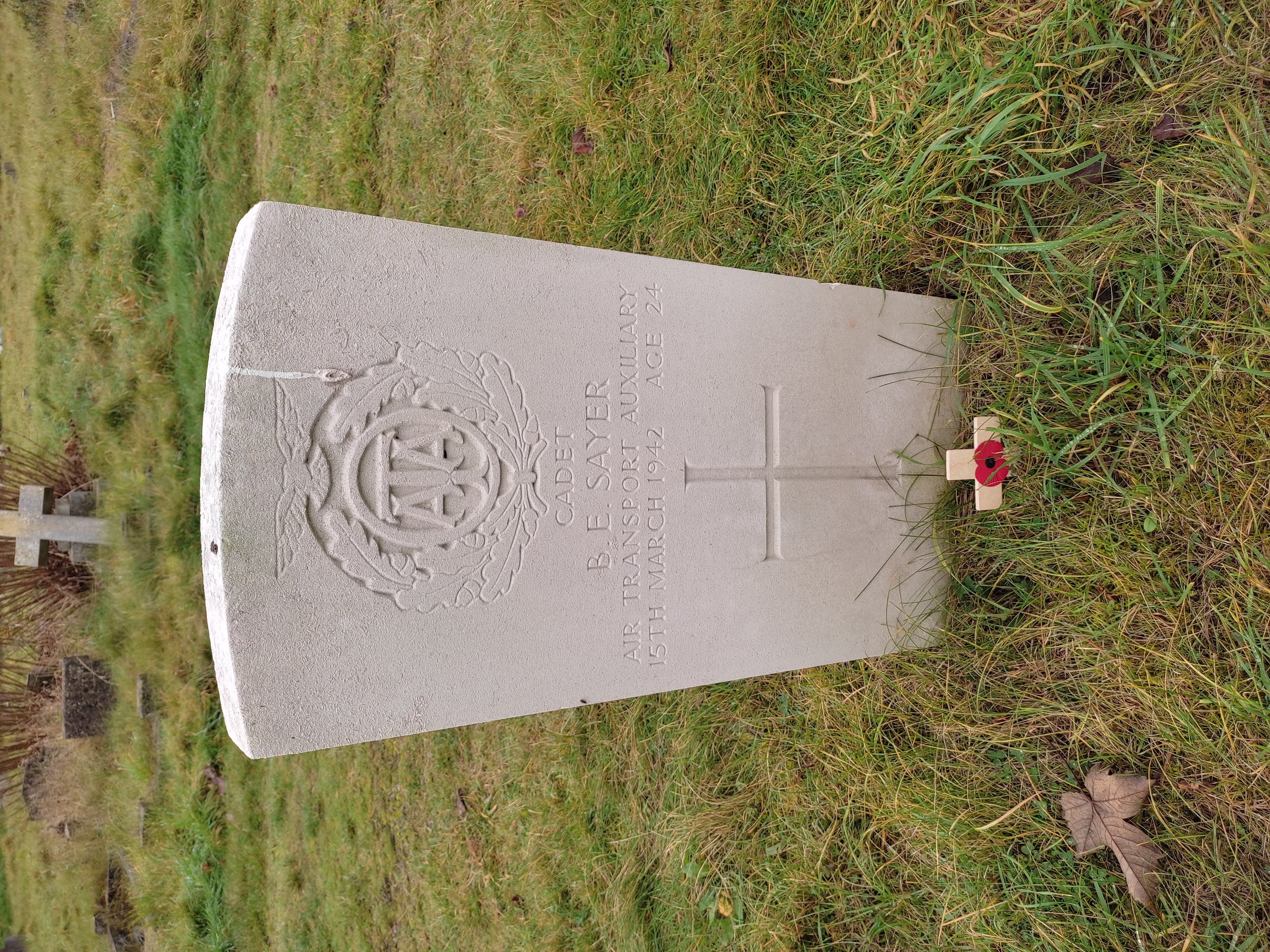
Pauline wrote that "she was a vey keen pilot, who had her heart in her work. She flew well and had the makings of a good ferry pilot."
Download ATA Pilot Personal Record (.zip file):
-
Scott-Mackirdy, Michael Evely Wallace
M.385 Flight Captain Michael Evely Wallace Scott-Mackirdy 
b. 11 Dec 1914, London 19 Apr 1941 to 31 Aug 1945
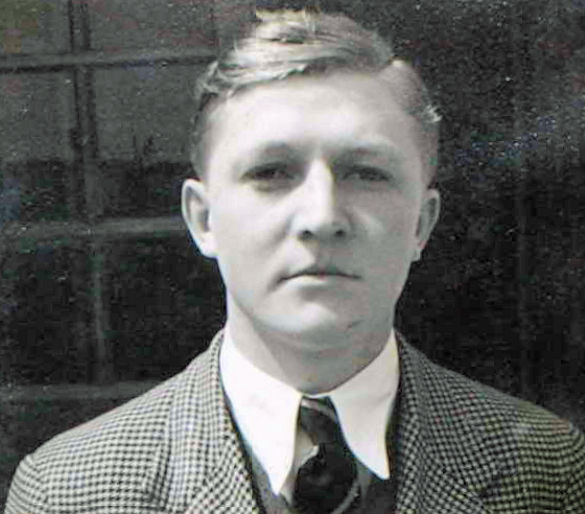 1934
1934Ed. Eton, Cranwell
prev. RAF F/O, General Duties Branch 1935-38; Ground Instructor at 8EFTS, Woodley
prev exp. 350hrs
Address in 1941: Old Tudor Place, Sonning, Berks then Cotswold View, Painswick, Glos.
Postings: 1FPP, 2FPP, 9FPP
Off sick from 28 Dec 1941 to 25 Jan 42 with bronchitis, and 29 Jan to 12 Feb 1943 with "unknown";
Fined one days flying pay in Jun 1943 for loss of ferry pilot's notes.
5 accidents, one his fault:
- 5 Nov 1941, in a Beaufort; pilot to blame
- 30 Nov 1942, his Mosquito swung on landing due to a broken brake pipe;
- 11 Jun 1943, forced landing in another Mosquito due to engine failure;
- 2 Sep 1943, in a Wellington, and
- 5 Aug 1944, on taking off in an Argus, the cowling moved forwards and fouled the propeller.
"A very smart, well-behaved and likeable officer; he is liked and respected by all his fellow officers."
m. 1945 Nancy Elizabeth [Lloyd, d. Jul 1995]; 2 children
d. 30 Nov 1995 - North Dorset
Download ATA Pilot Personal Record (.zip file):
-
Scott, Alexander
M.381 1st Officer Alexander Scott 
b. 22 May 1900, Kingstown, Carlisle 15 Apr 1941 to Mar-42
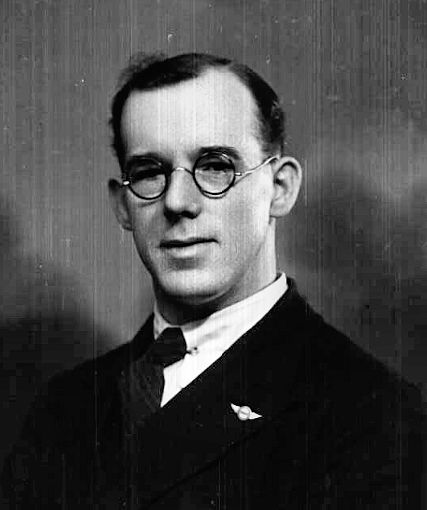
1937
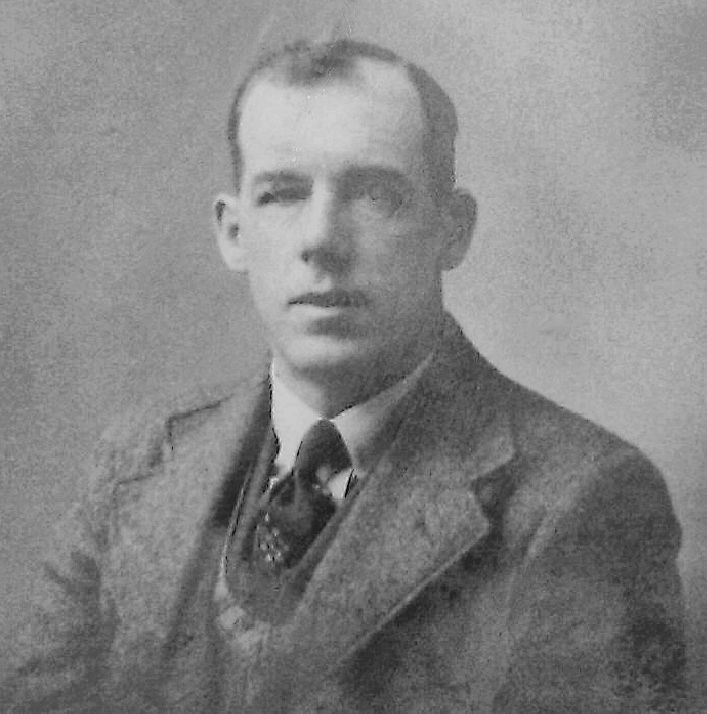
ATA
prev. Royal Navy 1917-18 (Boy 1st Class) - 'usual war medals';
[He joined on 22 May 1918, served on HMSs Powerful, Cardiff, Victory I, and Royal Sovereign firstly as an 'engine cleaner', then 'Fireman, Railway', until the end of WWI)
from 1924, a salesman for the United Yeast Co., and a member of the Carlisle Flying Club;
RAF Aug-40 to Jan-41 (Link Trainer Instructor).
prev exp 84 hrs on Gipsy Moth, Hornet Moth.
m. 1922 in Carlisle, Lillian [Snowden], 2 children: Beryl b. 1922, Ernest b. 1927
Postings: 15FPP, 16FPP
After his initial flight test he was described as "steady, but slow, particularly in navigation"

d. 15 Mar 1942 (Died in ATA Service) - Spitfire AD395 hit high ground in poor visibility at Breconside Farm, Durisdeer
Buried Carlisle Cemetery
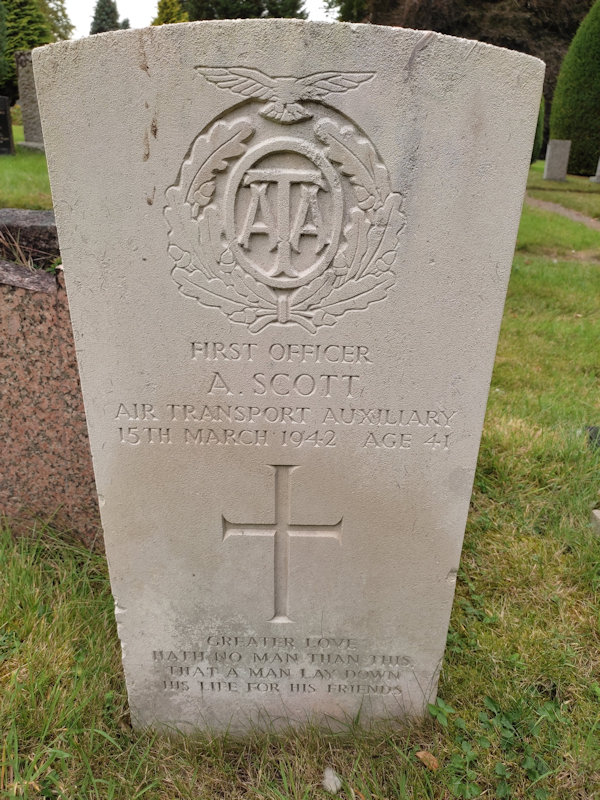
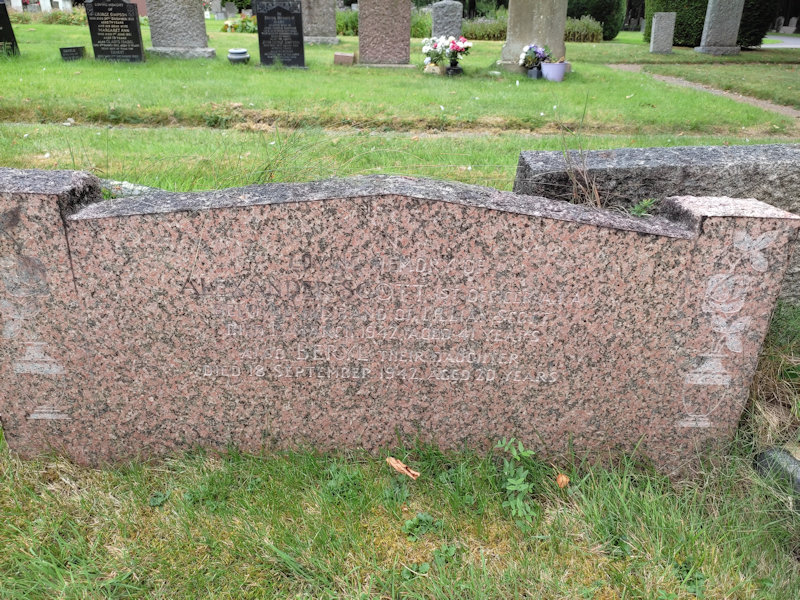
The inscription reads:
"In Loving Memory of
Alexander Scott 1st Officer ATABeloved Husband of Lilian ScottDied 15 March 1942 Aged 41 YearsAlso Beryl Their DaughterDied 18 September 1942 Aged 20 Years"
-
Scott, Stuart William Anthony
M.69 * Captain Stuart William Anthony Scott 
b. 19 Jan 1909 , Dunsford, Exeter 23 Jun 1940 to 7 Oct 1941
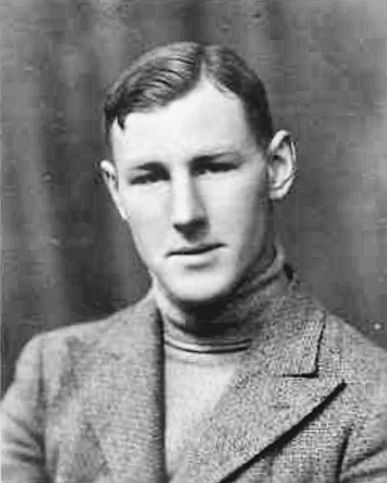 1932
1932Father: Arthur Matthew Cecil Scott, a farmer. Mother: Mabel Dorothy Mary [Hardy]
Ed. King Edward VI School, Stratford-on-Avon
RAeC Certificate 10357 dated 9 Mar 1932, at Liverpool Aero Club in an Avian.
He owned G-EBWU, a 1928 Avro 594 Avian III, which had competed in the King's Cup in 1930 and 1931.
Address in 1932: Moor House, Totnes, S. Devon
m. 3 Jul 1937 in Christ Church, Surrey, Sheila Eileen [Roberts] (2 children)
prev. Airline pilot (Gravesend Aviation, Provincial Airways and Air Despatch; Imperial Airways from 1937).
Postings:
Transferred to AtFero
"During the war he carried out operational flights over Scandinavia and with the North Atlantic Ferry Service. To-day he commands a 8.0.A.C. Stratocruiser airliner with which the Corporation operate their service across the North Atlantic to New York and Montreal."
In 1955, the first British pilot to have flown the Atlantic 500 times:
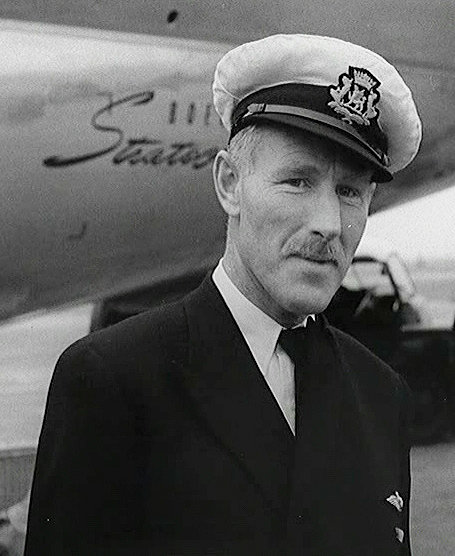 https://www.britishpathe.com/asset/59626/
https://www.britishpathe.com/asset/59626/d. 1984 - N. Dorset
* ATA Personnel File Missing
-
Seelly, Michael George St. John
M.1088 3rd Officer / Flying Officer
[Transferred from RAF]
Michael George St. John Seelly 
b. 20 Mar 1923, Wolverhampton 20 Jun 1944 to 10 Feb 1945
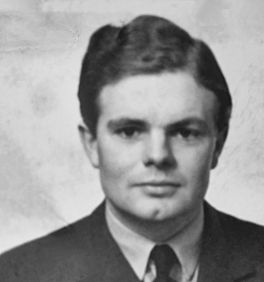 ATA
ATAFather: Dr. Edward St. J Seelly, a Surgeon; mother Vera Adelaide [Pye, who d. 24 March 1923, i.e. 4 days after Michael's birth]
Edward then m. 1925 Gertrude [Downing]
Ed. N.C. Pangbourne; Univ. of Cambridge (Part I of Engineering Tripos)
prev. RNR 1937-1940; RAFVR 1941-44, Flying Officer from Sep 1942
prev. exp. 450 hrs on Stearman, Vultee, Harvard, Kingfisher, Catalina, Oxford, Blenheim, Bisley, Beaufighter in UK, USA and Canada
Address in 1944: Frampton-on-Severn, then Cleveland, Seaview Rd., Herne Bay, Kent
The RAF Selection Board described him thus: "Has the impulsiveness and overconfidence of youth. He has intelligence and could do well if he could apply himself."
He had suffered a fractured skull in an air accident in 1943, but made "a good recovery"
Postings: 9FPP, 5TFPP, 2FPP, 4FPP
"We have all gained the impression that he suffers from a rather big dose of over-confidence"
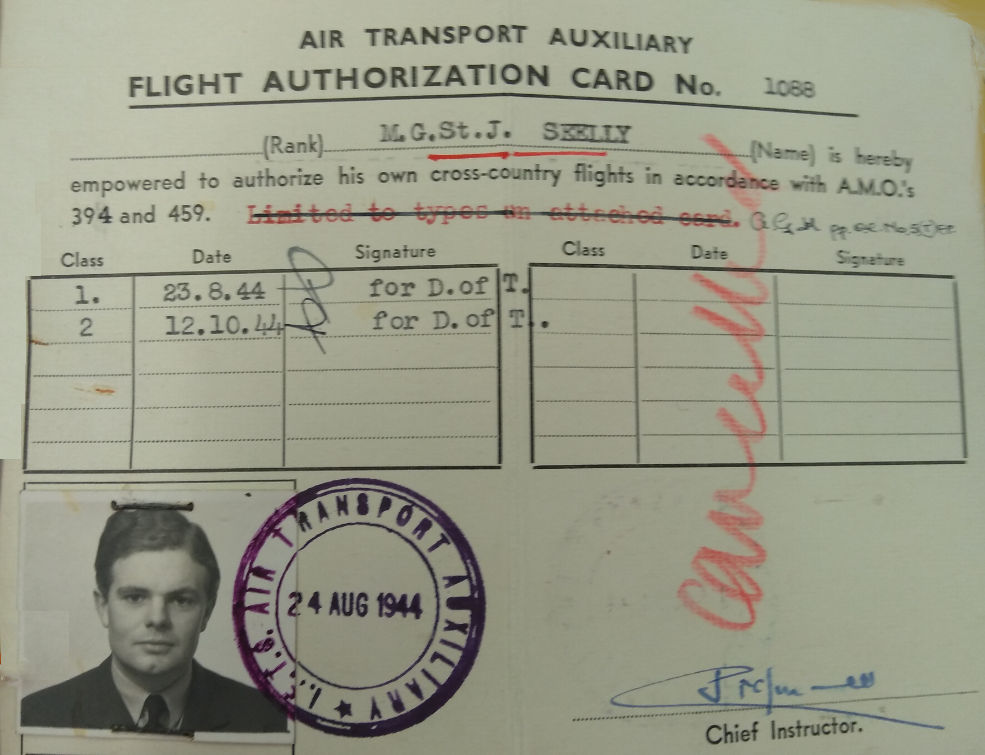 Michael's Flight Authorization Card, 24 Aug 1944
Michael's Flight Authorization Card, 24 Aug 1944"If he is going to be any use to ATA he will have to realise that his past experience is comparatively small, and that he still has a lot to learn... If he does not realise this, he will inevitably have accidents, in which case the organisation will be better off without him."
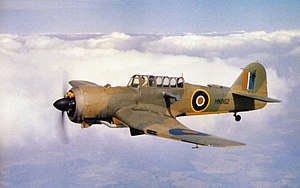
d. 10 Feb 1945 in Miles Martinet RG883 which crashed into a slag heap at Thankerton Colliery, Holytown, 4 miles NNE of Motherwell, Lanarkshire, Scotland, in bad weather on a ferry flight from NAS Evanton to NAS St. Merry.
He was deemed to be at fault for the accident, having persisted in conditions of "snow, low cloud and visiblity of less than 200 yards."
Cremated at Holmer Burial Grounds, Holmer, Herefordshire
"Dr. Edward St. John Seelly was, until a few days ago, in practice in Frampton-on-Severn, [Gloucestershire]"
-
Selby, David Martin
M.872 2nd Officer
[Seconded from RAF]
David Martin Selby 
b. 7 Dec 1921, London 21 Feb 1943 to 18 Sep 1944
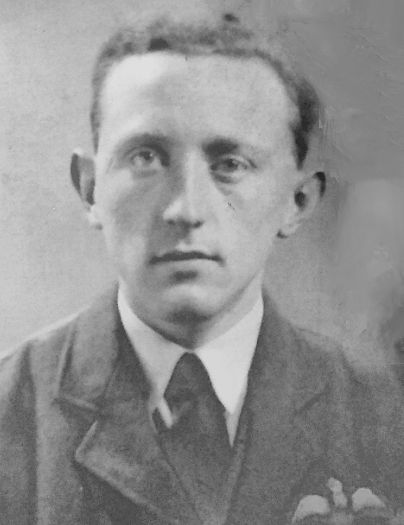 ATA
ATAFather: Henry S Selby, mother Annie F [Sleat]
Ed. Alleyn's School, Dulwich, London
m. 1942 Dorothy [Winter] , one child
prev. Insurance Clerk; RAF Sgt Pilot
prev. exp 260 hrs on Tiger Moth, Oxford, Anson, Bisley (Blenheim Mk V)
Address in 1943: 59 Horniman Dr., Forest Hill, London SE23
6 Jul 1944: "This pilot's house was recently bombed and I granted him two days compassionate leave... He has found another house"
Address in 1944: 28 Netherby Rd, Honor Oak, SE23 (parents' home)
Postings: 5FTPP, 16FPP
"His Class I flying was very disappointing" but "He was given Class III conversion in view of his previous experience and did quite well"
"He has proved himself a reliable and steady pilot"

d. 18 Sep 1944 in Beaufighter X KW326 which crashed into the sea 1.5 miles from shore after the port engine caught fire on takeoff from Lossiemouth.
His body was recovered on the 21 Sep and buried in Camberwell New Cemetery, Honor Oak.
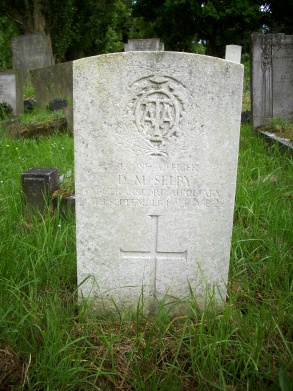
"His untimely end has been a great blow to his father and myself, as we loved him very dearly. Yours Faithfully, A F Selby"
"OFFERS IN WRITING - Velocette motor cycle, the property of the late S/O D M Selby. Age and mileage unknown, but probably 1932/34 model; at present at No. 16 Ferry Pool, Carlisle"
"Reference sale of motor cycle, I am prepared to offer the sum of £5 - F/O J Huxley, 16FPP"
His wife Dorothy m. 1948 George W H Painter
-
Sewell, Hubert Frederic Rimington
M.349 First Officer Hubert Frederic Rimington Sewell 
b. 26 Sep 1912, Carlisle 7 Oct 1940 (as Air Gunner)
28 Feb 1941 to 24 Dec 1942
to 30 Nov 1945 (as Operations Officer)
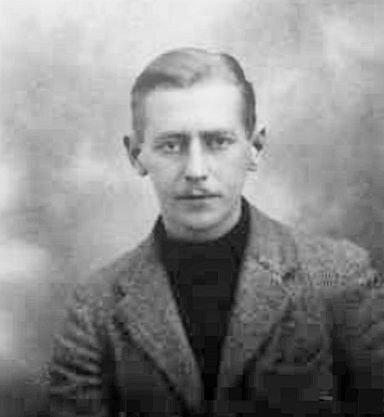 1934
1934Father: Major Hubert Woodville Sewell JP, a solicitor (d. 1925), Mother: Ethel [Rimington]
Ed. Oundle
m. 1937 in Oxford, Cordelia Mary Vashti [Benton, nee Saleeby, later Mrs Locke *, d.1990], 2 children
RAeC Certificate 12419 dated 24 Oct 1934, taken at Witney and Oxford Aero Club
Address in 1934: The Mistleborough, Minster Lovell, Oxon
prev. Engineer
prev. exp. 162 hrs
Address in 1940: 5 Linton Rd, Oxford (later moved to The Cottage, South Leigh, nr Witney, Oxon)
Postings: 2FPP, 1FPP, 8FPP; 10FPP, 4FPP
Suspended for 1 week without pay in Jun 1941 for "Non-compliance with instructions issued on aircraft delivery chit"
"A very keen and satisfactory pilot, a very good officer generally"
[Transferred to Ground Staff - Operations Officer]
Off sick from 5 Mar to 7 May 1945 with "Asthma and debility"
m. 1965 in Gibraltar, Billie Bert Wismer; "The newlyweds live on their yacht, 'Trog', at the Yacht Club in Palma, Majorca. [Billie], a native of Atlanta, GA, was a researcher for WCBS-TV in New York. She received her Master of Fine Arts degree in 1950. Mr Sewell, a retired engineer, is a native of Carlisle, England"
d. 17 Aug 1969 - Spain
[Bille d. in 1975, back in Georgia]
[* Cordelia later m. Harry Locke, b. 10 Dec 1912 in London. "He was an actor, known for Town on Trial (1957), Passport to Pimlico (1949) and Comedy Playhouse (1961). They divorced in 1965. He died on September 7, 1987 in London."]
[Cordelia's dead body was discovered, a day after she went missing, on 27 May 1990 in Coldwaltham, Pulborough, W Sussex.]
-
Sharpe, Ethel Elizabeth (W.144)
W.144 3rd Officer Ethel Elizabeth Sharpe 
b. 5 May 1922, Worcester 1 Nov 1943 to 15 Jun 1945
Father: Leonard Sharpe, a builders' merchant; Mother: Amy M [Rowe], a kindergarten mistress, of 38 Ombersley Rd, Worcester
Had an elder sister Jean, also a teacher
Ed. Alice Ottley School, Worcester
prev: "undergraduate, St Anne's Society"; Junior Clerk in 1939
Ab initio Trainee
Address in 1946: Ronkswood Hospital, Worcester:
Ronkswood Hospital "was opened in 1941 and during the war treated service and civilian casualties from the Birmingham air raids and other cases... its intended use largely disappeared after the war, but it still had a full medical, surgical and nursing staff, although bed numbers were reduced to 450 by 1951."
m. 1946 in Droitwich, Worcestershire, John H Page and they lived in St John's Avenue, Kidderminster
d. 20 Dec 2018 - Cornwall
"ETHEL ELIZABETH PAGE (Deceased)
Pursuant to the Trustee Act 1925 any persons having a claim against or an interest in the Estate of the aforementioned deceased, late of Redannick House Redannick Lane Truro Cornwall TR1 2JP also of 15 St Bernard Drive Malvern WR14 3PY, who died on 20/12/2018, are required to send particulars thereof in writing to the undersigned Solicitors on or before 23/08/2019, after which date the Estate will be distributed having regard only to claims and interests of which they have had notice.
HARRISON CLARK RICKERBYS LIMITED, 5 Deansway Worcester WR1 2JG"
-
Sharpe, Roy Mary (W.53)
W.53 First Officer Roy Mary 'Becky' Sharpe MBE 
b. 13 Aug 1910, Bristol 3 Sep 1941 to 30 Sep 1945
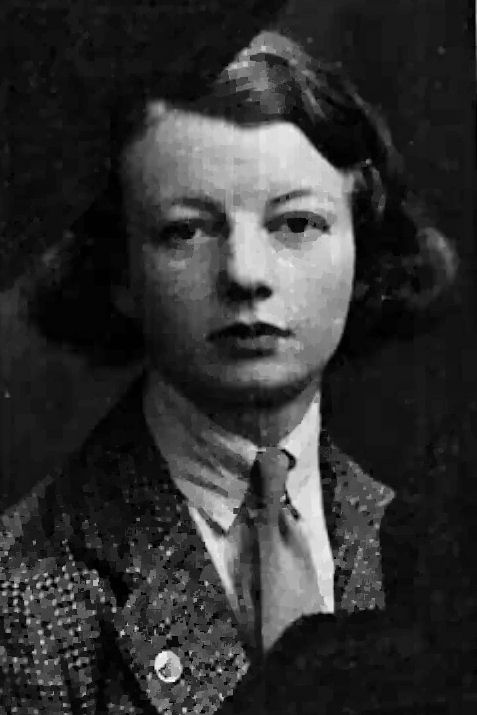 RAeC 1938
RAeC 1938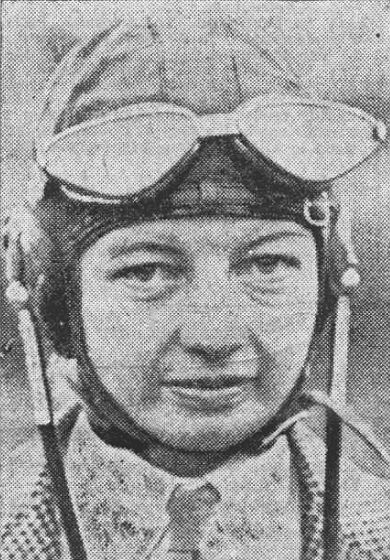 1938 (Gloucestershire Echo)
1938 (Gloucestershire Echo)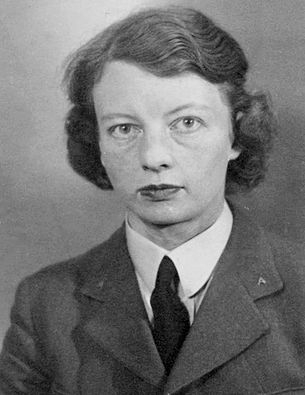 ATAM
ATAMGrew up in India, and travelled back from there to the UK in 1928, age 17
Address in 1938: Northfield, Staverton, Stroud, Glos.
Prev: Secretary and Saleswoman, Motor Cycle Trade (Leslie Paynter, of Cheltenham);
WAAF Driver (501 Sqn, Gloucester) from 3 Sep 1939; Corporal from Sep 1940, Assistant Section Officer from 1st Sep 1941 but resigned to join ATA
"An accomplished and daring motor-cyclist"
prev. exp. 10 hrs (Civil Air Guard)
She was "the first Air Guard member to go solo at the Cotswold Aero Club... She only waited a few minutes to receive the congratulations which always follow a first solo. She mounted her motor-cycle, and in a short time was back at business in a Cheltenham motor-cycle showroom. Miss Sharpe was one of the first applicants for Air Guard membership, and she commenced flying on September 29. Living at Staverton, she had made almost daily visits to the airport, and has flown on every occasion when weather permitted. Prior to her first tuition flight, she had only been in an aeroplane twice before for joy trips. Miss Sharpe is very well-known in Cheltenham, for she has ridden frequently at grass track meetings, scrambles and trials."
Address in 1941: (sister H M Sharpe), 21 Roland Gardens, London SW7
Postings: 5FPP, 15FPP
2 accidents, neither her fault:
- 21 Sep 1942, a forced landing in Spitfire IX BS336 after intermittent loss of power
- 7 Nov 1942, the tail wheel assembly of her Wellington III BJ714 broke following a normal landing at Sherburn.
"ferried about 1,030 aircraft before being posted to the Air Movements Flight, White Waltham... her passengers included Russian VIPs, loads of horseshoes, sulphuric acid, and eggs,"
MBE in the 1946 New Year's Honours List
Joined the staff of Control Commission in Germany, then test and development flying "near London"
"After D-Day she carried supplies to the Continent. Recently she has had flying job as saleswoman and demonstrator, taking her all over Europe." - Dundee Evening Telegraph
In January 1948, she was among the earliest recruits for the newly-formed WAAFVR. Others included ex-ATA pilots Margaret Frost, Freydis Leaf, Ruth Russell and Margot Gore.
She competed in the King's Cup air race in 1949, flying a Miles Mercury (unplaced) and was due to fly a Spitfire Vb in 1950, "entered by her employer, W S Shackleton", hoping to beat Lettice Curtis' womens' speed record.
ex-ATA women pilots Joan Jenkinson (by then Lady Sherborne) and Monique (Agazarian) Rendall also competed in 1950.
-
Shaw, Richard le Norman
M.379 * First Officer Richard le Norman Shaw 
b. 18 Jun 1906, Chorlton, Lancs 29 Apr 1941 to 31 Aug 1945
Father: William Campbell Shaw (1875-1942), Mother Maud Ann [Hackett] (1869-1907)
m. 31 Mar 1934 in New Zealand, Amelia Myrtle Irene Robertson (b. 11 Feb 1906 in Oamaru, Otago, New Zealand, d. 26 Apr 2004)
In the 1939 Census, he is listed as an "Agricultural Engineer Service Work" and lives with wife Amelia and son Richard, in Spalding, Lincs.
His entry adds "Civil Air Guard", and "Pilots Licence No 9166" but he didn't have a UK Royal Aero Club certificate; he must have learnt to fly in New Zealand.
In November 1939, "Richard le Norman Shaw, engineer, Gainsborough Cottage, Pinchbeck, in Pinchbeck Road. Spalding" was fined 15s. for a motoring offence.
Postings: 4FPP
Class VI Pilot

One of Richard's first 'Aircraft Collection Chits', dated 12 Oct 1941 - a Hurricane from Prestwick
3 accidents, none his fault:
- 16 Oct 1942, shortly after take-off the hood of his Spitfire Vb BM189, which was wrongly assembled, became partially detached and broke away
- 29 Nov 1942, in Blenheim V BB135, the "excessively bad state of the surface of the airfield" caused the undercarriage to collapse after a normal landing
- 8 Aug 1944, in Hellcat I JV171, he was baulked on landing and on opening up the engine again it picked up for a short time and then failed. The aircraft was subsequently landed with the wheels down, off the runway, over-ran the airfield boundary and crashed into a bank.
He was injured in this last accident, and spent some time in the RAF Sick Quarters at Prestwick.
Commander d'Erlanger sent him a 'get well soon' letter on the 14th:
 His final, impressive tally of hours was:- Single-engine: 432 hrs on 34 Types- Twin-engine: 587.35hrs on 19 Types, and- Multi-engine: 84 hrs on 56 Types"Upon the termination of your services with Air Transport Auxiliary, I should like yo express appreciation of the manner in which you have carried out your duties since you first joined us in April 1941; I have no doubt that your recollection of these services for your Country will prove a source of great satisfaction to you."Commodore G. D'Erlanger, Commanding Officer, ATA
His final, impressive tally of hours was:- Single-engine: 432 hrs on 34 Types- Twin-engine: 587.35hrs on 19 Types, and- Multi-engine: 84 hrs on 56 Types"Upon the termination of your services with Air Transport Auxiliary, I should like yo express appreciation of the manner in which you have carried out your duties since you first joined us in April 1941; I have no doubt that your recollection of these services for your Country will prove a source of great satisfaction to you."Commodore G. D'Erlanger, Commanding Officer, ATA
In May 1947, Richard and Amelia moved to New Zealand with their 2 children Richard Norman (b. 9 May 1937, d. 5 Jan 1983) and Elizabeth A (b. Jan 1940).
They lived at 44 Fortification Rd, Wellington, and then Hawke's Bay from c.1981
d. 30 Nov 1984 (aged 78) -
Shaw, William Bryan
M.223 Flight Captain William Bryan Shaw MBE 
b. 4 Jul 1907, Manchester 1 Oct 1940 to 31 May 1945
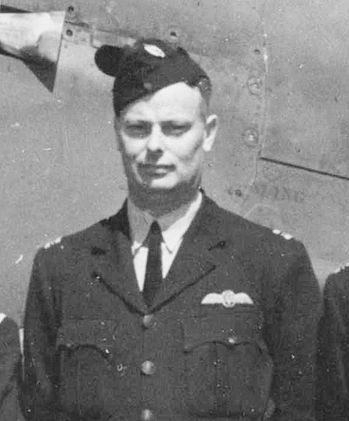 ATAM
ATAMEd. Clayesmore School, nr Winchester
m.
prev. Engineer, Ransomes & Rapier Ltd, Ipswich
prev. exp. 175 hrs
Address in 1940: Whyteleafe, Westerfield Rd, Ipswich
Postings: 4FPP, 16FPP, HQ Tech. Dept., 1FPP, RNAS Arbroath
4 accidents, none his fault:
- 11 OCt 1941, forced landing in a Battle after engine failure due to glycol leak
- 25 Apr 1942, the tail of his Rapide ran over an engineer while taxying
- 11 Nov 1943, the tail wheel of his Beaufighter "fell into a hole"
- 15 Apr 1944, another taxying accident involving a broken tail wheel, this time in a Wildcat.
"A very good officer and pilot who sets a splendid example to the others". "He has given me every satisfaction in all his duties"
d. 2003, Ipswich
-
Shepherd, Leonard Alfred
M.611 First Officer Leonard Alfred Shepherd 
b. 24 Sep 1904, Islington, London 3 Dec 1940 (as Air Gunner), 11 Aug 1941 (as pilot)
to 30 Sep 1945
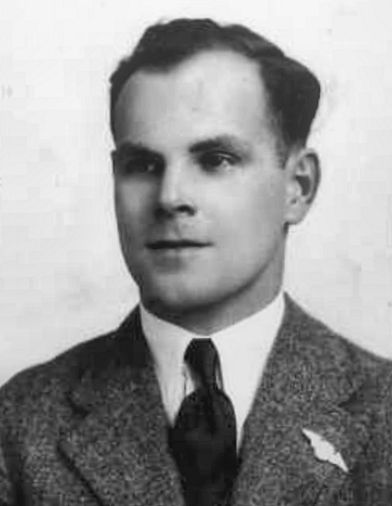 1932
1932Father: William Thomas Shepherd, Mother: Lily Amelia [Williams], of 69 Coppetts Rd, Muswell Hill, London N10
Ed. Owens Grammar School
prev. RAF Corporal Feb 1920 - May 1934; Commercial Refrigeration Sales Manager; Engineer Fitter
RAeC Certificates 10391, 28 Feb 1932 at Northants; 19855, 26 Aug 1939 at Reading
Fined 20s in 1938, for doing 39-47 mph in a 30 limit on Basingstoke Road. Alderman Tudor, one of the magistrates, said, "You spend many thousands of pounds widening roads so that motorists may go more quickly, and then you fine them. It does seem to me to be nonsense." (The Magistrates' Clerk, however, disagreed).
prev. exp. 20 hrs
Address in 1940: 39 Balmore Drive, Caversham, Reading
Postings: (as Air Gunner, 1FPP, 3FPP), (as pilot, 5TFPP, 16FPP, 6FPP, 8FPP
3 accidents, 1 his fault:
- 1 Jul 1942, he inadvertently retracted the undercarriage of his Master I M7420 or N7240, after landing at Bobbington
- 4 Feb 1944, the hood of his Spitfire V AB167 blew off in flight
- 15 Mar 1945, a wheels-up forced landing in Corsair III JS471 after engine failure.
"A hardworking officer with a good sense of discipline. A little underconfident, but is improving in this respect"... "Flies better than he thinks he does"
Lived at 3 Clifton Park Rd, Caversham, Reading (with Phyllis Emblin)
d. 6 Mar 1982 - Reading
-
Shiel, Maureen Elizabeth (W.137)
W.137 3rd Officer Maureen Elizabeth Shiel 
b. 14 Mar 1920, London 20 Sep 1943 to Aug 1945
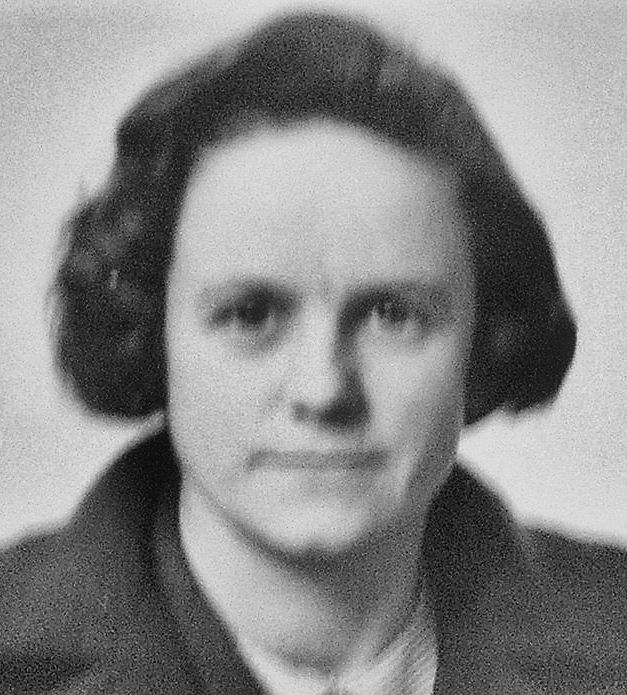 ATA
ATAFather: George Gerard Shiel, Mother: Marjorie [Melladew]
prev: Stenographer with ATA
Postings: 1FPP, 7FPP
3 Accidents, all in the same month, and none her fault:
- 1 Feb 1945, the bracing strut of the starboard undercarriage leg collapsed after a normal landing in Hurricane IIc LF422
- 24 Feb 1945, she received a Certificate of Commendation for her skill during a forced landing in Mustang I AG362, after engine failure
- 28 Feb 1945, the hood of her Spitfire XIV RN203 blew off after take-off and she had to land back at the airfield.
Gained her Royal Aero Club Certificate No. 20571 on the 20 Sep 1945, as part of the 'ATA Wings' Scheme (RAeC Certificate missing)
[Certificate of Commendation, 1945]
m. Apr 1950 in Maidenhead, Richard William Hilary Elsden
2 daughters, Mandy and Su
d. 2 Oct 1999 - Newbury, Berks
Her diary up to Jul 1944 can be viewed here: https://archive.atamuseum.org/diaries.php
-
Shirley, John Charles
M.275 * First Officer John Charles Shirley 
b. 10 Oct 1907, Berkswell, Solihull 7 Jan 1941 to 7 Aug 1943
Father: William James Shirley , mother Annie [Turrall], both d. Jan 1945
m. 1935 Joan Mary [Penrice], one son Ivor Roderick b. 1943 d. 1987prev. Motor Engineer
Address in 1930: Shirley's Garage, Meriden, nr Coventry
RAeC Certificate 9556 (Midland Aero Club, 22 Sep 1930, photo missing)
Address in 1943: 500 Stratford Rd, Birmingham 11
Postings: 6FPP, 7FPP
5 accidents:
- 5 Sep 1942, he allowed the tail of his Proctor DX241 to rise too high during take-off, and the propeller 'pecked the ground'
- 15 Sep 1942, poor landing in Spitfire Vb ER139, followed by over-zealous use of the brakes resulted in the aircraft tipping onto its nose
- 19 Mar 1943, forced landing flying Oxford HN117, after he struck balloon cables (which he should have known about)
- 16-May-43, forced landing in Argus HM179 after the engine cowling came loose and damaged the propeller
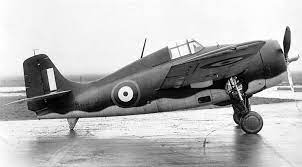
d. 7 Aug 1943 in Wildcat IV [Martlet] FN249 which crashed at Pitbauchlie, Dunfermline.
Buried Meriden (St Lawrence) Churchyard, Row 9 Grave 320
Coventry Standard, 14 Aug 1943:
"MERIDEN FUNERAL OF FIRST OFFICER J. C. SHIRLEY. A.T.A.
The funeral took place on Thursday of First Officer John Charles Shirley, Air Transport Auxiliary Service. He was 35 years of ape, and was the second son of Mr. VV. J. Shirley of Shirley's Garage, Meriden. He was educated at Meriden C.E. School, and on leaving he helped his father and brother in the garage business.
He was a member of the choir at Meriden Church and of the Bible Class held by Mrs. Rankes at Meriden Hall. He was confirmed at Berkswell Church.
He continued to assist his father and brothers in the firm of W. J. Shirley and Sons until his marriage in 1933 to Joan Mary, second daughter of Mr. and Mrs. J. Penrice, of The School House, Meriden (Mr. Penrice at that time was headmaster at Meriden School). He then went into business on his own account in Birmingham, first with a book shop and then with a greengrocery business at Stratford Road, Sparkhill.
He was always keen on flying, and five years before the outbreak of the war [sic] he obtained his Pilot’s "A" licence. He joined the Civil Air Guard before the outbreak of war, and when this body was disbanded on the commencement of hostilities he volunteered for the Roval Air Force, but was not accepted.
Nineteen months ago he volunteered as a Ferry Pilot for the Air Transport Auxiliary Service, and was accepted. During the time with this service he had two forced landings without mishap, and on another occasion his plane hit and snapped the cable of a balloon screened by cloud over a town in the north-east of Scotland.
He leaves a widow and one child, a boy not yet a month old. He died on his wife's thirtieth birthday, and had only seen his baby for two days."
-
Shoesmith, Joseph
M.89 Captain Joseph Shoesmith 
b. 7 Dec 1904, Colne, Lancs 4 Jun 1940 to 31 Dec 1945
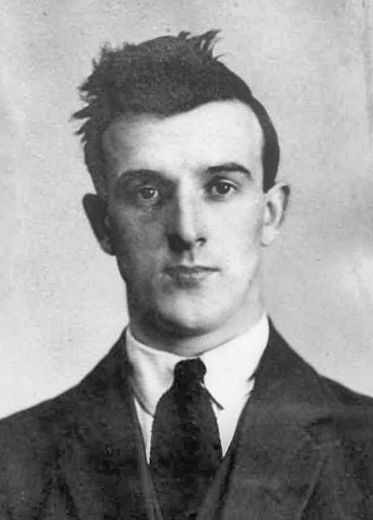 1930
1930Ed. Laneshew Council School
Father: Samuel Shoesmith
Next of kin: A Dyson (uncle), 28 Blenheim St. Colne, Lancs
prev. a motor mechanic and bus driver; he was fined £2 in 1928 for "having exceeded twelve miles an hour with a heavy motor bus".
He did better than that 2 years later:
Lancashire Evening News, 1930: "SPEED OF MOTOR COACH.
PRESTON CONSTABLE'S ESTIMATE OF 52 MILES AN HOUR.
COLNE MAN FINED FOR DANGEROUS DRIVING.
'That speed may be all right in the wilds of Cumberland or Wales, but in Preston it is dangerous, and particularly so where there are schools and entrances to parks’ said Mr. A. L. Ashton, Preston Borough Police Court, to-day, when prosecuting Joseph Shoesmith, motor driver, of 38, Brown-street, Colne, who was summoned for driving a motor coach with 30 passengers on board at a speed dangerous to the public along the Moor Park length of the Blackpool road."
This time, he was fined £2 plus 2 guineas costs.

In 1936, he demonstrated a Hillson Praga at the Midland Flying Club's 'at-home', and at the Bristol and Wessex Aero Club's Garden Party.
According to Flight: "There were demonstrations, and most enlightening they were. First Mr. Shoesmith in the Hillson Praga, with its unimpeachable flying qualities at both limits of the speed range."
He entered a Praga (on behalf of the owners, F. Hills & Son) for the Cairo meeting in February 1937, and also [not the same aircraft, as its registration was given as G-AEUN, which was only registered in March 1937] for the Tynwald Air Race at the Manx Air Derby in May 1937, in which he came second.
Postings: 14FPP, 4aFPP, 4FPP, 6FPP, 1FPP
Second-in-Command of 14FPP from 1942, and 6FPP from 1944
Qualified on Aircraft Classes 1-6 (i.e. all types, including seaplanes)
"He always sets an excellent example. He is a loyal and trustworthy officer. He is intolerant of second-class material and therefore fails sometimes to make the best use of this."
Commended for "valuable service in the air", 14 Jun 1945
Naturalized in the US in 1955 and d. 1981 in Los Angeles.
-
Short, Bernard
M.146 Flight Captain Bernard Short 
b. 1 Jul 1910, Hull 22 Jul 1940 to 24 Jan 1944
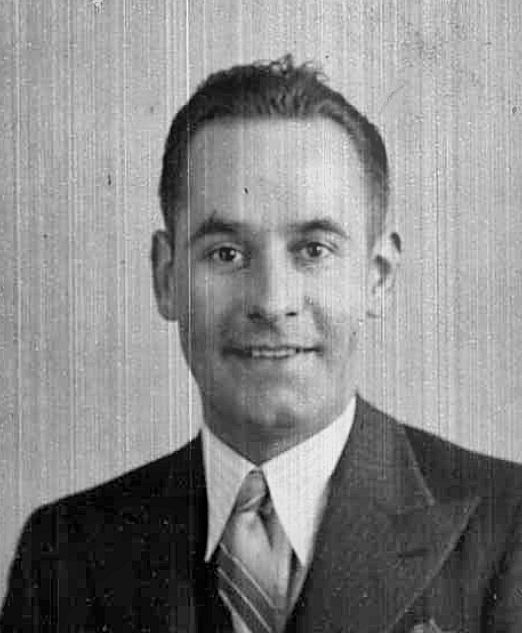 1937
1937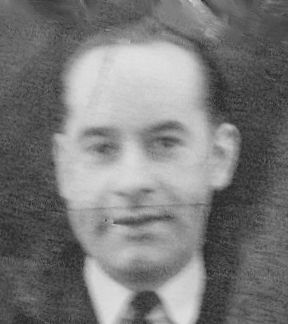 ATA
ATA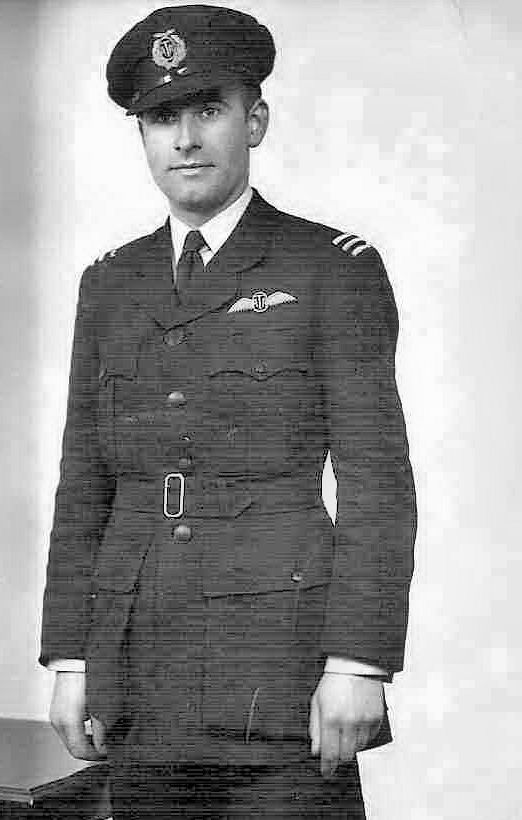 Ancestry
AncestryFather: Joseph Short, (a blacksmith for the railway company, d. 1938 in Hull Mental Asylum); Mother: Jane Hannah [Atkinson]
Ed. Boulevard Nautical College
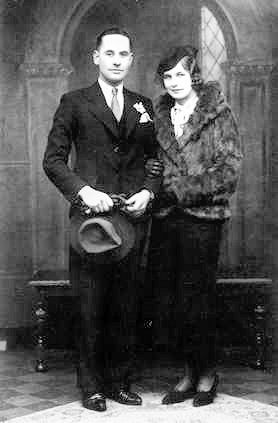 Ancestry
Ancestrym. Oct 1934 in Yorkshire, Vera Annie [Ryder] (one son, Bernard Ryder Short, b. 1 Sep 1938, d. 2016; they divorced in 1943)
prev. 'Business Proprietor (this may mean 'Newsagent'); Engineer (presumably for North Eastern Airways, who flew Couriers, Envoys and Rapides), 'short time spent at sea'. Sergeant pilot in the RAFVR from Dec 1938 to Jul 1940
prev. exp. 400 hrs on 'Avian, Moth, Hart, Hind, Audax, Blackburn B.2, BA Swallow, Puss Moth, Wellington' (He also said he had spent 50 hours 'as passenger' on DH Rapide, Oxford, Airspeed Envoy, Avro 504, Avian, Vega Gull, Anson and Stinson - so presumably he wasn't ever a pilot for North Eastern Airways.)
He was awarded his RAF 'Wings' in 1939, flying Wellingtons.
Also said he owned an Avro Avian, but I can't find any registered in his name.
Address in 1940: 26 Chamberlain Rd, Hull
Grounded in Jan 1940 by the RAFVR for a 'defective left eye' and although he said he had specialist treatment and "can now pass all medical examinations", he was released.
Postings: 1FPP, 14FPP
His flying in Nov 1940 was considered so poor that, rather than training him to fly Class III and IV aircraft as requested, they sent him back for a refresher on Class 2 twins and said that he was "not capable of flying twin aircraft." He did, however, subsequently pass for Class III in January 1941, and Class IV in May.
His personnel file contains details of one week's flying in June 1942 - 12 different aircraft types, 25 hours as pilot and 4 hours as passenger.
He did manage to rack up 11 accidents, 6 his fault:
- 9 Sep 1940, he misjudged the landing in a Lysander and hit a boundary wall
- 29 Nov 1940, an 'error of judgment' in a Hurricane (details missing)
- 28 Feb 1941, forced landing in an Oxford after engine failure
[Off sick from 29 Feb to 6 Mar 1941]
- 20 Mar 1941, commended for behaving 'with extreme coolness in a difficult situation' after a technical defect in an Anson
- 30 Aug 1941, he 'failed to make a successful takeoff' in a Leopard Moth, after making a forced landing in it the previous day
- 1 Oct 1941, his Oxford X6976 swerved off the runway during landing at Burtonwood, and collided with a pile of tarmac. He was held responsible but in mitigation he was examined and found to be unfit.
"I interviewed him and told him that in view of his accident record he would have to go very carefully. He is a very keen pilot but rough and it occurs to me that he may be in a nervous condition... I also discussed with him the need for having his tonsils attended to... " - ATA's Chief Medical Officer
- 20 Feb 1942, an unknown object 'fouled the propeller of his Walrus W3070' (? - ---
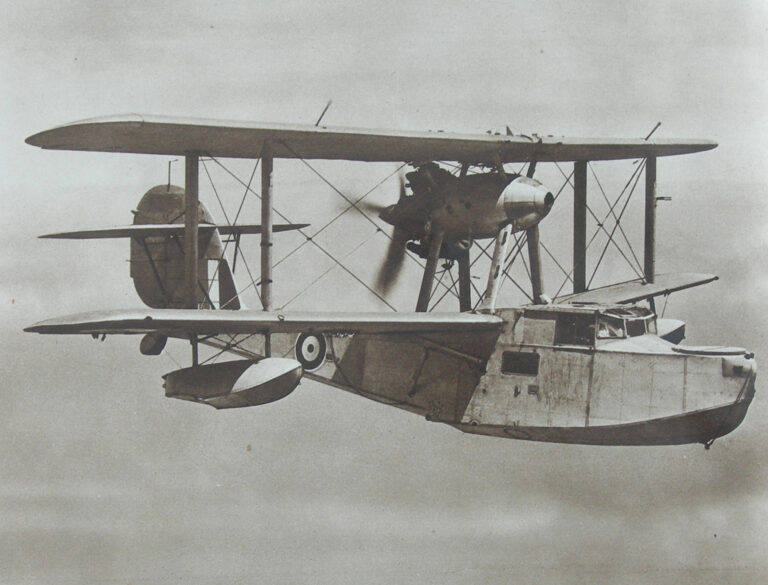 --- maybe a bird?)
--- maybe a bird?)[The Walrus was "the only aircraft I actively disliked", said ATA pilot Mary Wilkins (later Ellis). She went on, “It flapped about all over the sky. On land it was like a penguin but apparently it was good on the sea. It had a mind of its own.“]
- 6 Oct 1942, the cockpit hood of his Spitfire V W3773 blew off in flight, due to incorrect insertion of port jettisoning pins (not his fault, apparently)
- 2 Apr 1943, another Walrus I, X9482, in which he ground-looped at Kirkbride by trying to turn off the runway too early
[Demoted to First Officer for one month from 1 Oct 1943 for 'wilful disobedience of Standing Orders C.2 and D.21']
[C.2 - Flying an aircraft without proper authority; D.21 - Intermediate landing without Authority" referring to his ferrying of Lancaster DV266 on 1 October]
- 19 Oct 1943, a forced landing at Wheaton Aston after the exhaust manifold joints blew, causing damage to the ignition harness of his Barracuda II DT824
"A quiet, likeable and hard-working pilot"
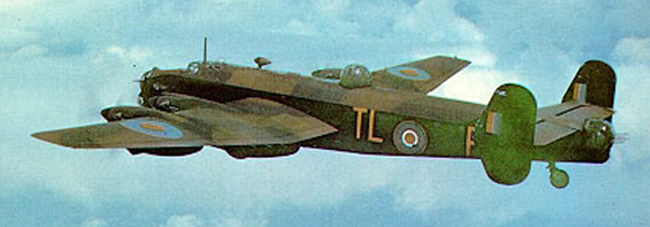
d. 24 Jan 1944 (Died in ATA Service) - Halifax II JP182 (Merlins) flew into Eel Crag 4 miles SW of Braithwaite, Cumbria, during a snowstorm.
"The cause appears to have been an error of judgement on the part of the pilot who, instead of attempting to take a course round the coast, attempted to fly over mountainous country at a height which only gave him a small clearance over the peaks. He was flying in a snow shower against a 60mph head wind and probably encountered a strong down current."
Flt. Eng. Arthur Bird also died in the crash.
One of the search party said: "I knew it was absolutely impossible for any one to be alive amongst the tangled wreckage...the weather was very bad. Whilst I was on top of the Crag the body of the plane was blown over by the wind, and it rolled down the crag side."
Buried Ringway St. Mary and All Saints Churchyard, Altrincham
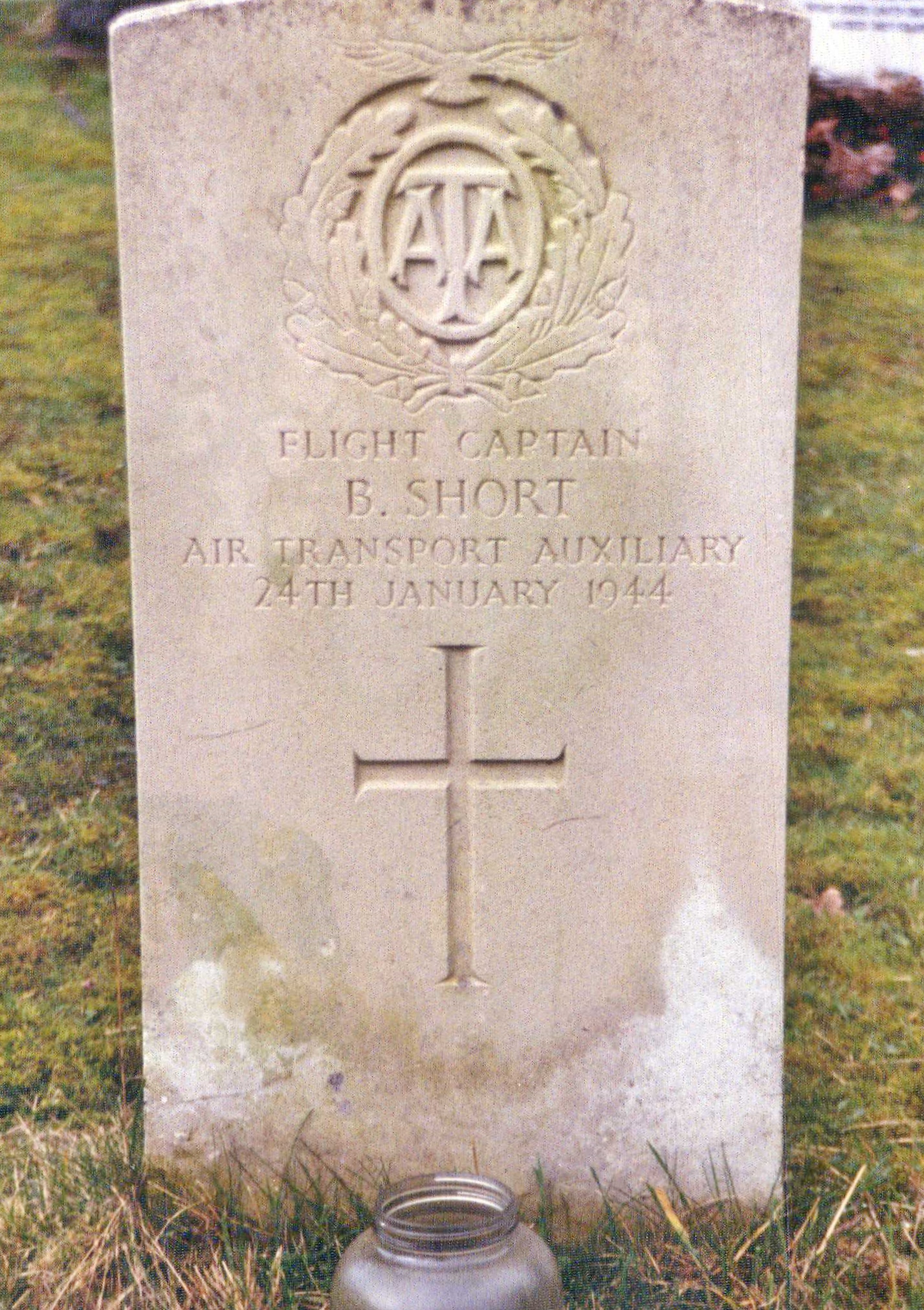 via George Cogswell
via George Cogswell
Postscript
Bernard's will stipulated that his estate should be divided:
- one half in trust for his son, and
- one-twelfth each to his sister, cousin, 2 brothers, a John Short, and his friend John Potter.
Nothing, therefore, to Vera ...
-
Shults, Eric Gordon
M.50 First Officer Eric Gordon Shults 
b. 1 Nov 1914, Erdington, Birmingham 8 Apr 1940 to 20 Sep 1941 [530 days]
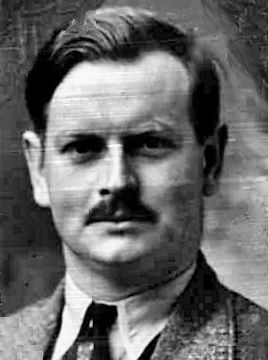 1940
1940Father: Frank Shults
Ed. Secondary School
RAF from 1937-38 (F/O), then FAA to Jul 1939 Sub-Lt, RN.
m. Sep 1939 Joan Beatrice [Morris]; "Mr Shults is a keen rugby player, and both he and his new wife are talented pianists."
Served on the aircraft carrier HMS Courageous, but was invalided out of the Fleet Air Arm 'due to a nervous breakdown'. [Just in time, too - Courageous was torpedoed and sunk in September 1939.]
prev. exp. 400 hrs
Address in 1940: Little Mancot, Hawarden, Flints
Postings: 1FPP, 3FPP
One 'pilot at fault' accident on 26 Dec 1940, in Anson N9933; he took off after sunset, ran into heavy mist and had to force land in a field.
Off sick from 14 Jan to 28 Apr 1941 with Fibrositis
"A good 'fair-weather' pilot", said his C.O. Walter Handley
Contract Terminated 20 Sep 1941
Later the Headmaster of Apley Park Boarding School, Bridgnorth, Shropshire
d. 10 Nov 1984 - Suffolk
-
Silcock, William Russell Keith
M.82 First Officer William Russell Keith Silcock 
b. 22 Apr 1909, Bedford Park, Chiswick 22 May 1940 to 13 Mar 1945
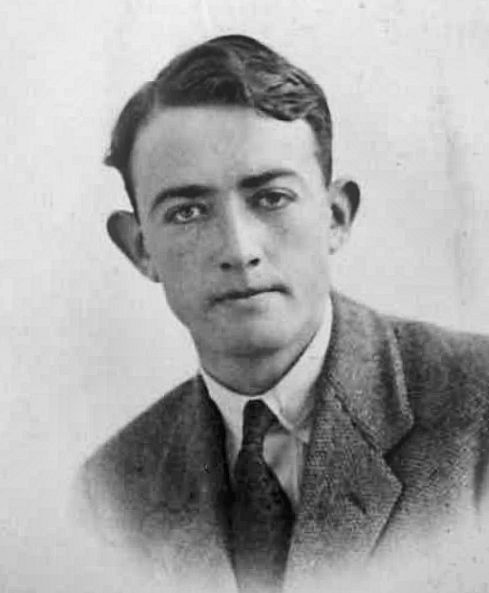 1931
1931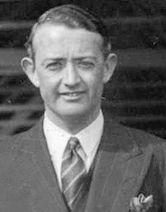 ATAM
ATAMEd. at Stowe, and Cambridge
Next of Kin: (father) William Alfred Silcock
Distinguishing marks: Phalange of third finger of right hand missing.
prev. 'Catering' - his father was Managing Director of the Clarendon Hotel and Restaurant, Hammersmith Broadway.
Owned
- G-ABCT, a 1930 DH.60G Gipsy Moth;
- G-ACLW, a 1933 DH.85 Leopard Moth (which, re-registered AX862, was taken over by the ATA and was written off (damaged beyond repair) on 18 Mar 1945 when the undercarriage collapsed on landing at RAF Carnaby), and
- G-ADMX, a 1935 BA Swallow L25C Mk.2
Address in 1940: 5, Broadway, Hammersmith, London W6
m.1942 Margery P [Sansom]
Postings: 1FPP
Off sick from 17 Dec 1941 to 3 Jan 1942 with acute tonsillitis, then 15 Oct to 19 Nov with hemorrhoids, then 17 May to 1 Jun 1944 after a flying accident.
"A sound and likable pilot, with an excellent record... a splendid officer and one of the mainstays of the pool."
He was reprimanded in March 1944 for 'taxying without due care' (his Anson's port wing hit a stationary lorry).
His other 'at fault' accident happened in May 1944, when he and his Flight Engineer were taking off in a Lancaster. The Flight Engineer thought William told him to retract the undercarriage; unfortunately he was a bit premature, the aircraft sank towards the runway and William had to belly-land the aeroplane. They were both held equally to blame.
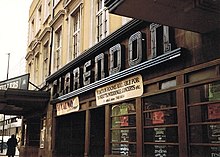 Wikipedia
WikipediaWhen his father died in 1953, William took over as Managing Director of the Clarendon Hotel. It became a famous music venue, but closed in 1989 and was demolished.
d. Feb 1989 - Surrey
-
Sims, Alfred William
M.166 * Flight Captain Alfred William Sims 
b. 20 Oct 1898, London 16 Oct 1940 to 4 Dec 1944
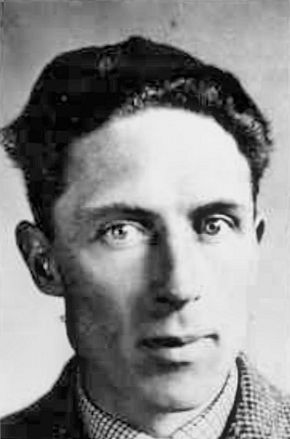 1932
1932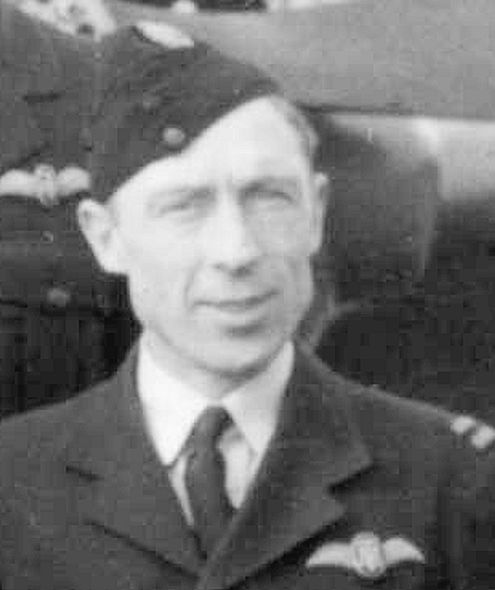 ATAM
ATAMFather: Alfred Sims (a publican who owned the 'Golden Key' pub, Edgeware Rd, d. 1906), Mother: Lydia Marie [Pennie] (prev. Mrs Webber (Richard Webber, also a publican, d. 1895), later Mrs Kiely (Sgt. Richard Kiely d. 1918 in France), d. 1920)
RAeC Certificate 10603 dated 5 Jul 1932, taken at Kent Flying Club
Address in 1932: Wellington Rd, Walmer, Kent
prev. motor engineer; garage proprietor
Member of the Civil Air Guard
Address in 1939: The Savage, Deal, Kent
Postings: 7FPP
One accident, his fault:
- 26 Jan 1943, whilst taxying his Wellington Ic X3166 at Sherburn, the starboard wheel fell into a hole filled with water, the wing dropped and 'touched' a packing case
m. 1942 in Dover, Kent, Joan Mary [Stanshall]
d. 20 Feb 1977 Deal, Kent
* ATA file not seen
-
Sisley, Norman
M.882 First Officer [Seconded from RAF] Norman Sisley 
b. 9 Oct 1920, Harlesden 7 Mar 1943 to 15 Apr 1945
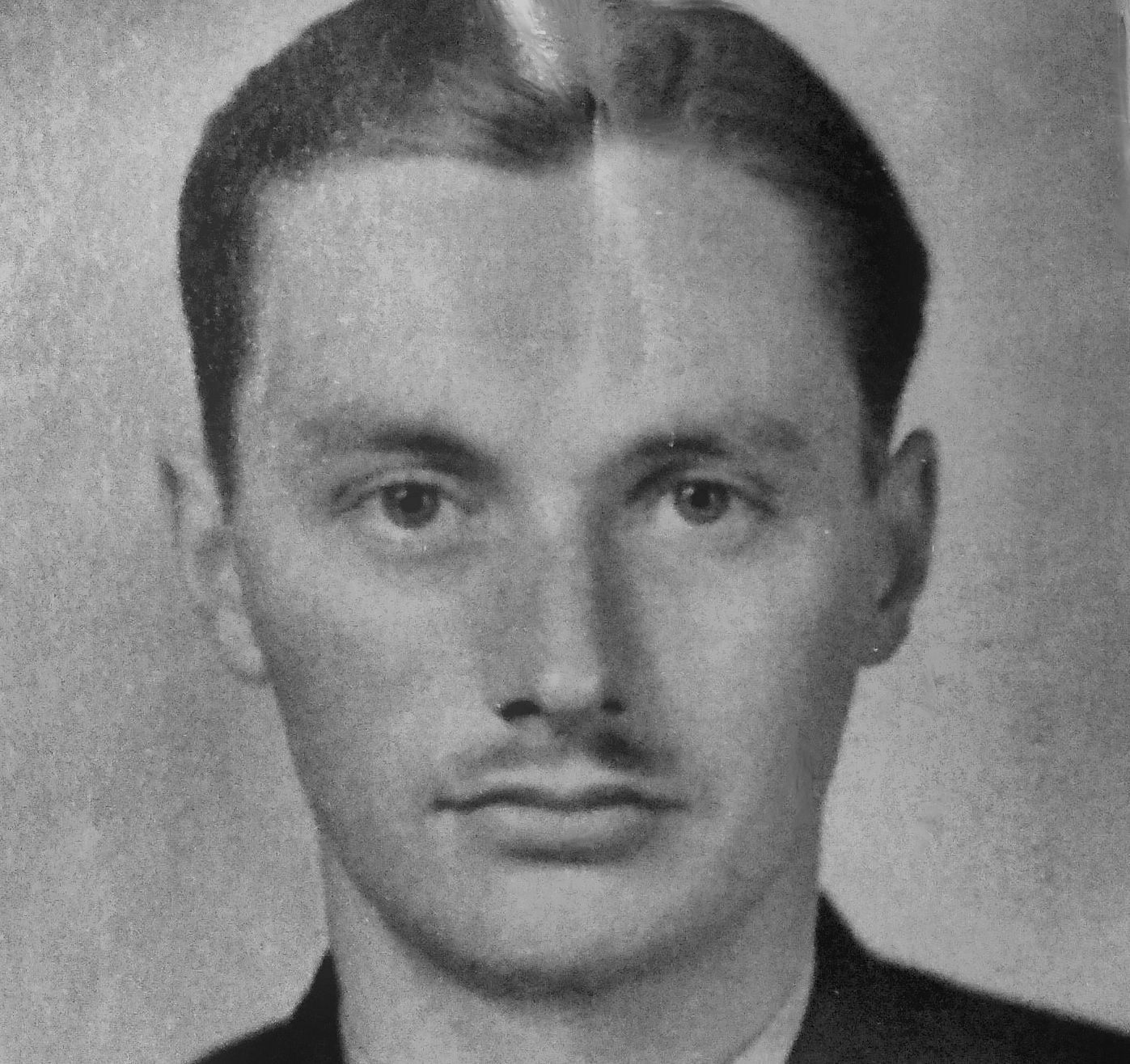
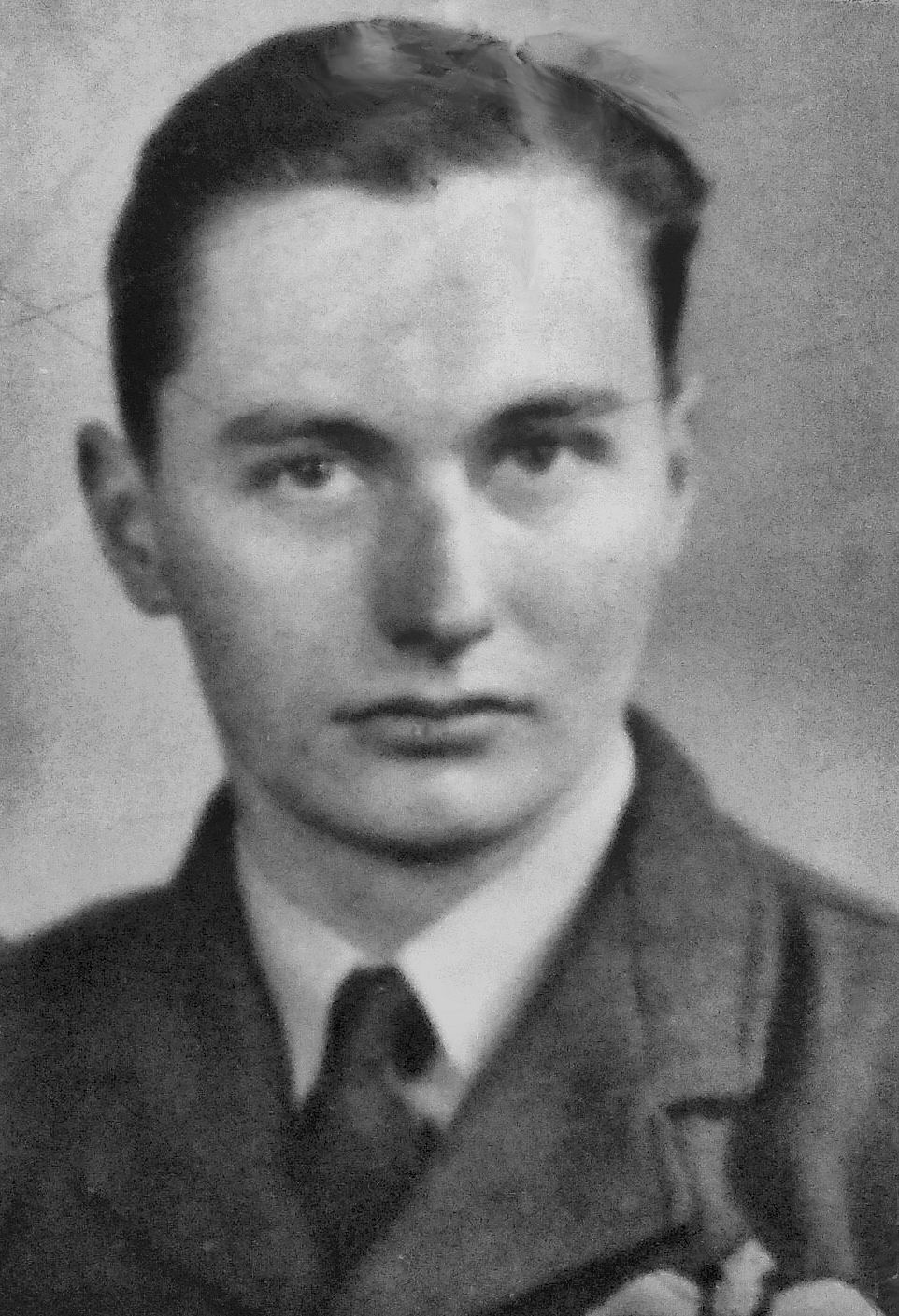
ATA
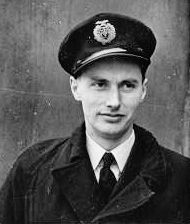 MAMM
MAMM
-
Smith, Diana Patricia Margaret Hutchinson (W.107)
W.107 First Officer Diana Patricia Margaret Hutchinson Smith 
b. 15 Apr 1920, Codsall Staffs 7 Oct-42 to Oct-45
Father: Maj Kenneth Hutchison Smith (b. 1885 in Totonto, Canada, "an architect and builder of some of the most delightful homes in the Midlands" - see http://www.historywebsite.co.uk/articles/electronic/suburbs/khsmith.htm),
Mother: Hilda Mary [Green]
Brother: David Windle Hutchinson Smith AFC, RAF, who became "the second largest producer of blue cheese in the United Kingdom, after Stilton"
prev: Farm Worker
Off sick from 16 Feb to 1 Apr 1943 with influenza
m. 1957 in Bridgenorth, Shropshire, Harold Percy Clover, Dedham Hall, Dedham, Essex (d. 9 Apr 1974)
Diana d. Oct 1975 - Dedham, Essex
Her brother David assumed legal guardianship of Diana's son, Charles R H Clover (b. 1958); Charles later became the environment editor of the Daily Telegraph.
-
Smith, Harry
M.294 Flight Captain Harry Smith 

b. 5 Aug 1902, Stockport 10 Jan 1941 to 9 Jan 1942,
15 Sep 1942 to 15 Nov 1942,
10 Sep 1943 to 29 Apr 1945
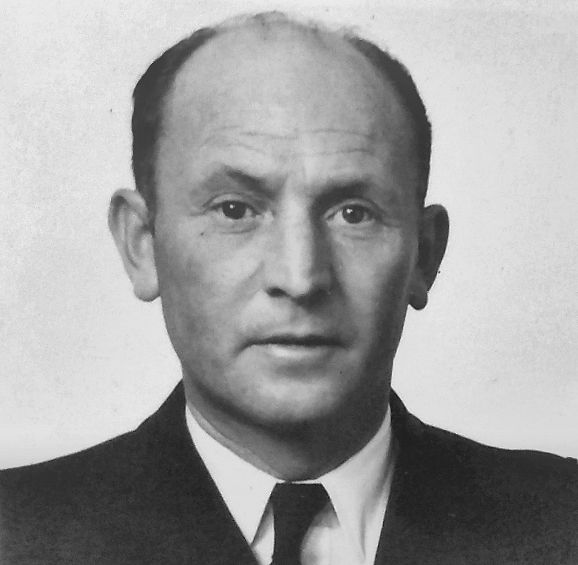 ATA
ATAFather: Eli Smith, Mother: Emily Bertha [True]
Ed. Kale Green Council School, Stockport
Moved to USA in 1925; Naturalized American 23 May 1933
m. 24 Jul 1926 in Glynn, GA, Georgia [True] (5 children)
prev. pilot
prev. exp. 2075 hrs
"Mutilated thumb of right hand"
Address in 1941: Butler Ave, St Simon's Island, Glynn, Georgia
Postings: 1FPP, 14FPP, 2FPP, Instructor (Montreal)
Off sick from 4 to 25 Mar 1941 with nasopharyngitis
2 accidents, both his fault:
- 12 Jun 1941, Hurricane Z3388, details missing but no fault found
- 18 Jun 1941, in Hurricane DG613, an "error of judgement"
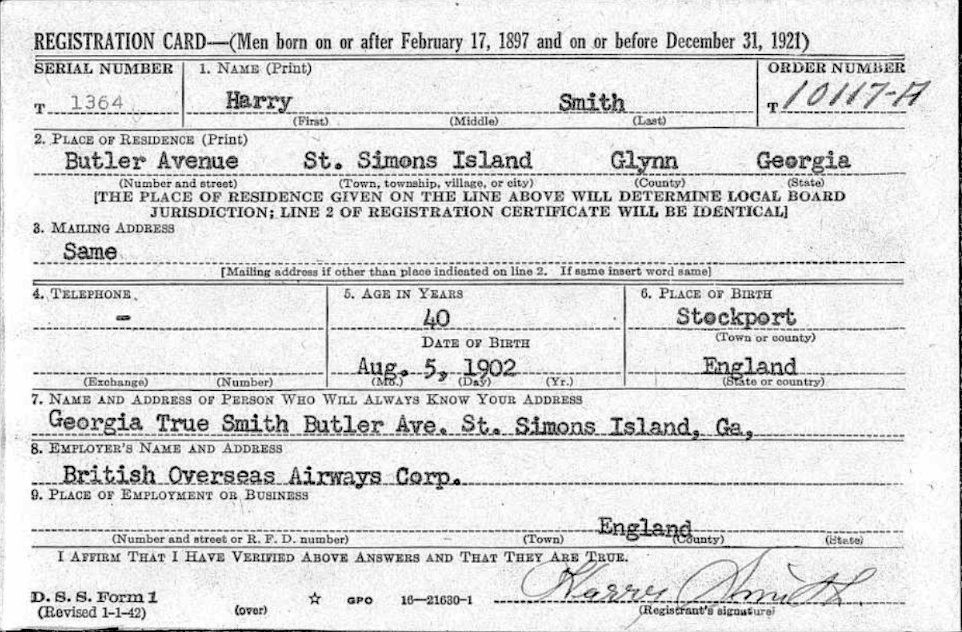 Registration Card, dated 24 Aug 1942
Registration Card, dated 24 Aug 1942"As one of the 'old-timers' this pilot has had a steadying influence on the junior instructors and has at all times proved both hard working and conscientious. An able and efficient instructor possessing a most likeable personality"
d. 13 Aug 1954 - Lake Harbor, Palm Beach, FL
-
Smith, Katharine Mary Stanley (W.162)
W.162 3rd Officer Katharine Mary Stanley 'Katie' Smith 
b. 1 Sep 1919, Croydon 8 May-44 to Sep-45
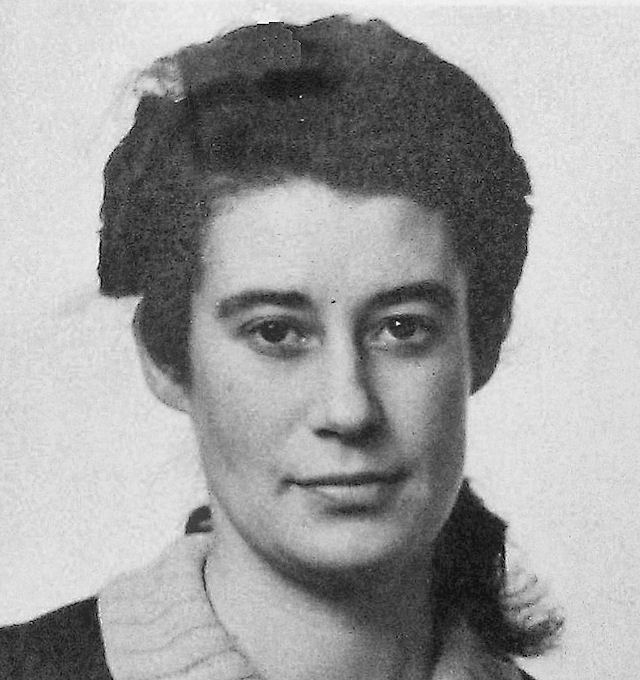 ATA
ATA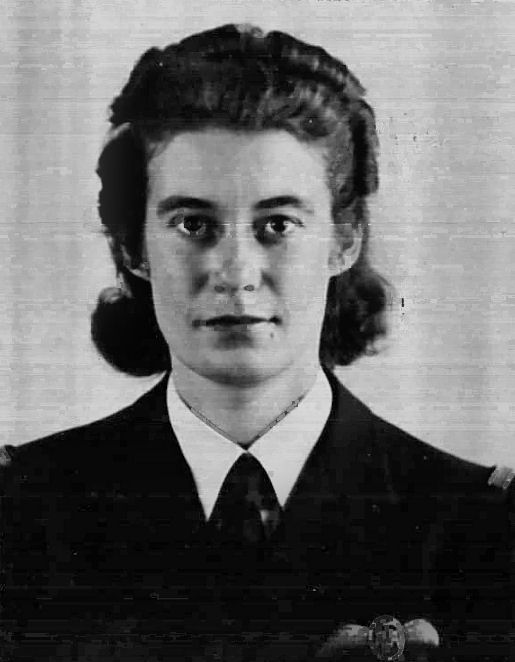 RAeC 1945
RAeC 1945
The Final 7 Women Pilots - Betty Keith-Jopp (W.167), Sue Alexander (W.163), Joan Arthur (W.166), Ruth Russell (W.165), Annette Mahon (W.164), Aimee de Neve (W.168), Katharine Stanley Smith (W.162)
Father: Alfred Ernest Stanley Smith MC, a solicitor (d. 1947); Mother: Jennie Drayton [Pitts] (d. 1967)
Ed. St. John's School, Bexhill-on-Sea
Prev. Costume staff of the Westminster Theatre, London;
Womens Land Army 12 Apr to 6 Oct 1941 ("looking after pigs and chickens in a Mental Institute at Teddington");
WAAF from Dec 1941, Meteorological Officer stationed at Aldergrove, N. Ireland
Address in 1941: 45 Normanton Rd, South Croydon, Surrey
Her elder brother Edward was a fighter pilot, serving in the Battle of Britain and ending WWII as a Wing Commander:
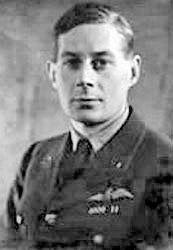
see https://bbm.org.uk/airmen/SmithES.htm
Ab initio pilot
Postings: 5TFPP, 15FPP, 7FPP
3 accidents:
- 15 Oct 1944, her Tiger Moth T5368 was blown onto its nose by a "heavy" aircraft taxying ahead of her
- 28 Feb 1945, the port tyre of her Swordfish III NS133 burst on landing, cause unknown.
- Jul 1945, a heavy forced landing in Fairchild KK477 after engine failure, breaking the undercarriage and tipping the aircraft onto its nose
Of the last accident, she wrote "The pay-off was that later that same day HQ phoned Ratcliffe and asked them to send in Fairchild 477, it was due to be broken up. Our operations cheerfully told them not to worry, we'd already broken it up for them!"
m. 5 Jun 1945 in Croydon, USAF Sgt. Arthur Zachary Hirsch Jr, from Woodbury, Connecticut, USA (They had met at Aldergrove, where he was with the US Weather Office)
Gained her Royal Aero Club Pilot's Certificate (No 20497) as part of the ATA's 'Wings' scheme on 8 Aug 1945
"Katie and her husband became involved with theatrical work, thus reviving their original interests" - WAAF with Wings
d. 16 May 2010 - Rose Lane Adult Care Home, Prescott, AZ, USA
" On April 1, 1946 she and Zach arrived in the U.S. and she obtained her U.S. Citizenship in 1951 in Worcester, Mass. Kay worked for Dennisons Stationery Store in New York from 1946-47. From 1965-73 she was on the costume staff at Guthrie Theatre in Minneapolis, MN. In the off season, costume staff at the Minnesota Opera Chanhassen Dinner Theatre, Minnesota Opera, Minnesota Children's Theatre. From 1973-79 she was on the costume staff McCarter Theatre, Princeton, NJ. From 1979-84 costume staff at the Dallas Ballet, Dallas Opera, Dallas Shakespeare-in-the-Park, SMU, Six Flags Over Texas.
In 1984 Kay and Zach moved to Prescott where she was the Resident Costumer at the Prescott Fine Arts Associations Community Theatre until 2008. During this time Kay designed and made costumes for over 110 Theatre productions. Kay was involved in the Girl Scouts serving as a Brownie Leader for 6 years, Girl Scout Troop Leader for 6 years, Senior Girl Scout Leader for 4 years and was the Girl Scout Coordinator in the Elementary School. She was involved in the Cub Scouts as a Den Leader for 4 years and her Den was selected by Howard Sanden, Brown & Bigelow Calender-printer artist to be painted on the annual Cub Scout Calender. Kay was an Executive Board Member of the Yavapai Humane Society for 10 years and originated the Santa Paws, Dog Show, and PR slide promotion programs. She was also a member of the British War Brides Association and 99's (Women's Pilots Association)." - https://www.ruffnerwakelin.com/obituaries/KatharineKay-Mary-Stanley-Smith-Hirsch?obId=487953
Arthur d. 2015
-
Spain, Henry Edward
M.794 First Officer Henry Edward Spain 
b. 18 Feb 1923, Sandwich, Kent 2 Sep 1942 to 28 Oct 1945 (dec'd)
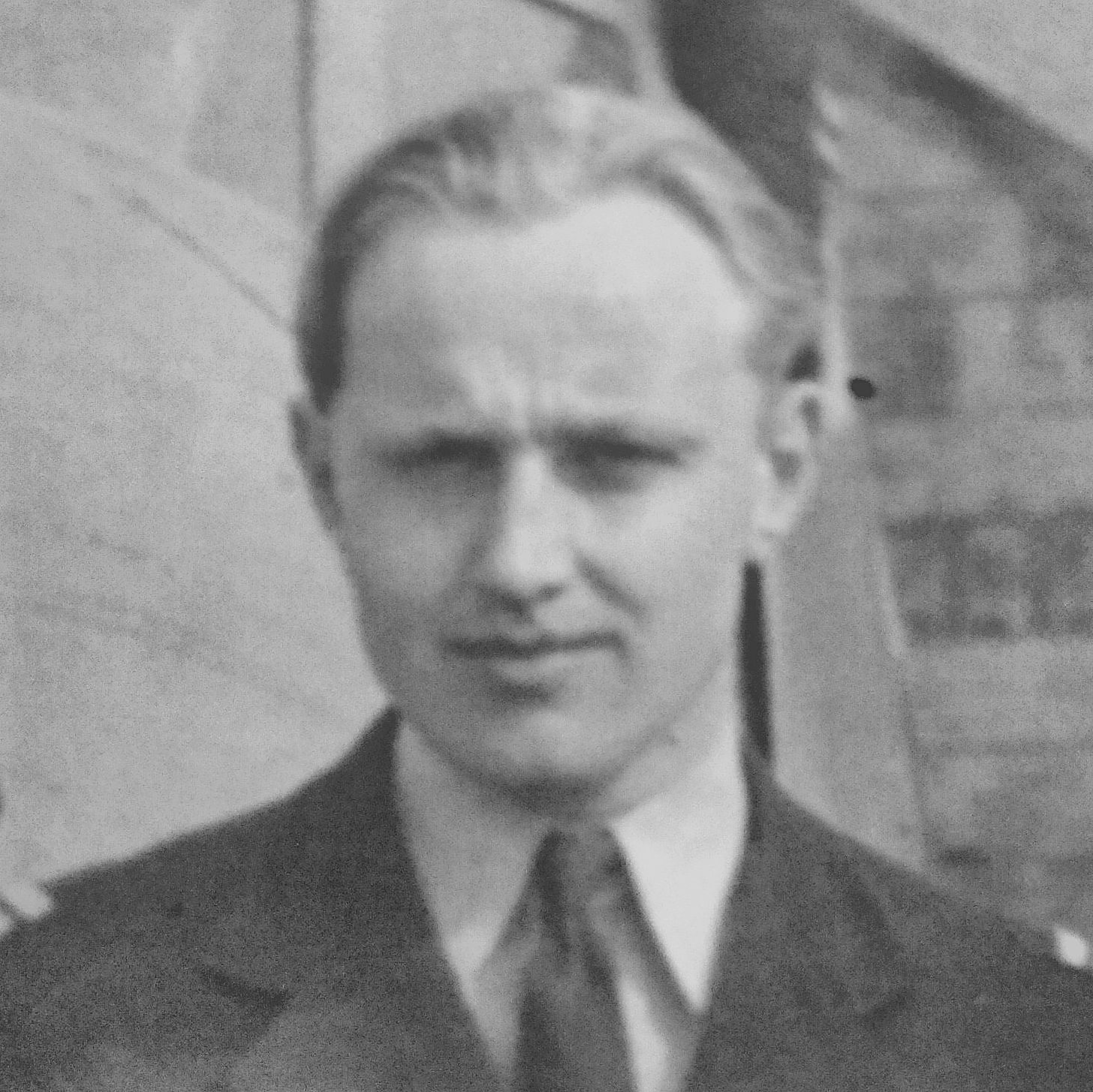
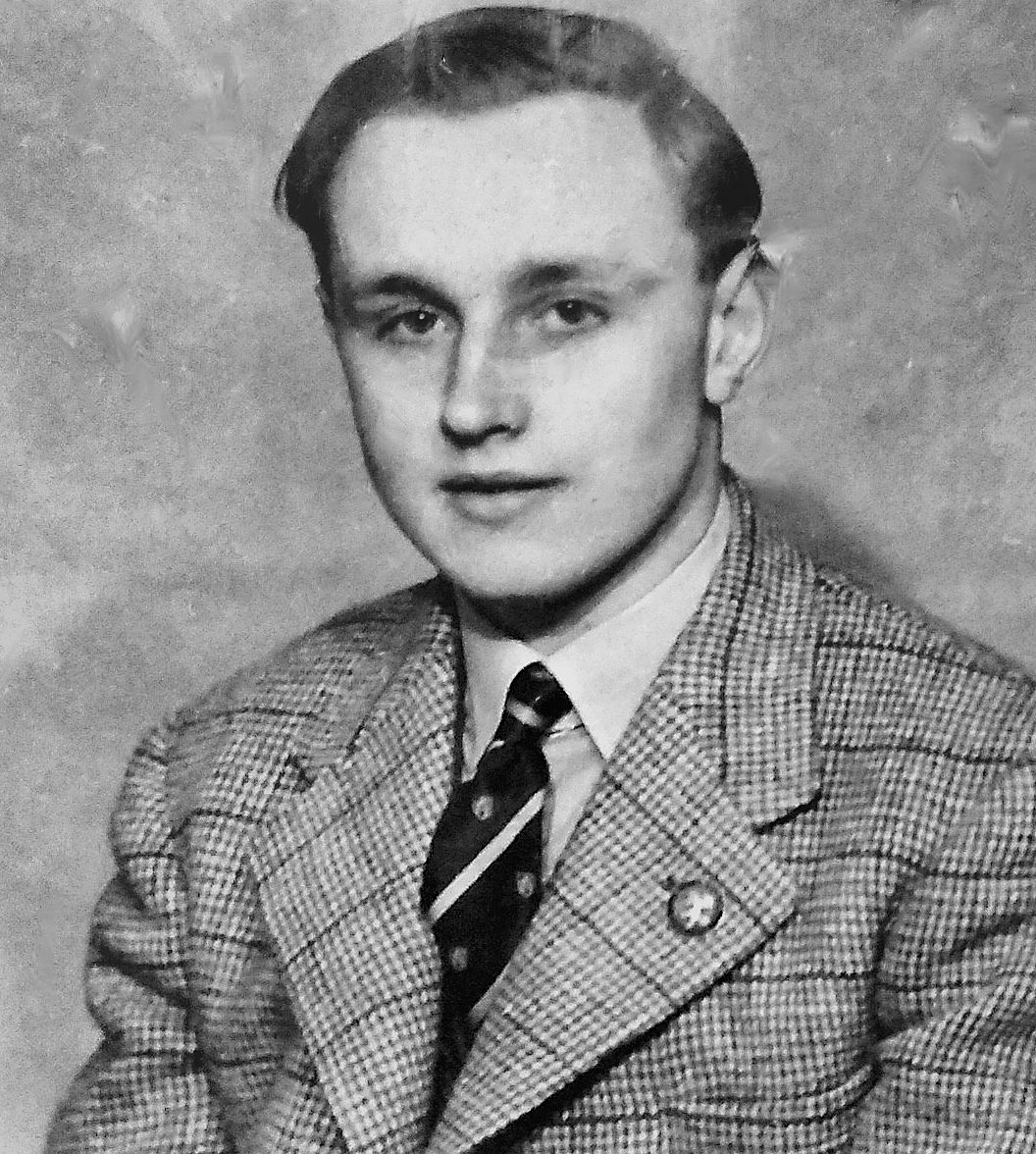 ATA
ATAFather: George, a leather merchant; mother Ethel May [Johnson]
Ed. Manwoods, Sandwich
prev. road transport driver; LAC 125667 in RAF 1940-41 (discharged on medical grounds)
Address in 1942: 23 Tredworth Rd, Gloucester
Postings: 9FPP, 6FPP, 1FPP, 14FPP, 4FPP
Reprimanded 26 Jul 1944 for Loss of Ferry Pilots Notes;
Demoted to Third Officer for 3 months from 21 Oct 1944 for "a flagrant breach of flying discipline". A witness said "At about 14:50, I heard an aircraft diving low over the airport buildings, and on looking out of my office saw a Mosquito do a roll at low altitude over Ringway Airfield. The starboard engine was feathered."
His C.O. at 14FPP, Bobby Wardle, said "There is no room at Ringway for irresponsible pilots of this type and I consider the ATA is better without them. I therefore request that F/O Spain is removed from this Pool forthwith."
4 accidents, none his fault:
- 14 Apr 1943, when he landed his Hurricane IIc and then discovered that the tailplane and rudder had been damaged by loose stones thrown up by his port wheel;
- 29 Dec 1943, a brake defect caused him to taxy his Albacore into the nose of a parked Whitley;
- 1 Aug 1944, another brake defect, this time in a Hudson, led to a broken-off tailwheel, and
- 9 Dec 1944, Commended for a forced landing in a field after engine failure in a Proctor.
"As a pilot he has worked hard and well but he is apt to let his boisterous youth take the upper hand."
He died 28 October 1945 (aged 22) as the result of an accident during the 'winding up' dinner and dance in the Officers' Mess at Ratcliffe Aerodrome.
Johnny Jordan (q.v.) said he attended the party with a woman friend, and got there at 9:45 pm. He met Spain during the evening. They were close friends at Ratcliffe. They had a few glasses of beer together; beer was the only drink. At about midnight some of the officers dared the girl who had accompanied him to throw her glass through the bar window, and she did so. The Adjutant (Capt. Rome) then appeared, and Jordan and Spain (who were 'merry') tried to get him to get a cigar from his office. He resisted, and raised his arm, and the glass struck Spain in the eye and broke. From what he could see there was nothing deliberate about it.
Henry was taken to Leicester Infirmary but failed to recover from the anesthetic after an operation.
Returning a verdict of Accidental Death, the coroner remarked that "of all people the Air Force [sic] were entitled to enjoy themselves. It was however a great pity that this farewell party was marred by what was really nothing more than a bit of horseplay, and that only by a few."
-
Spiller, Alec John
M.373 * Flight Captain Alec John Spiller 
b. 23 Dec 1910, Ilton, Ilminster 10 Apr 1941 to 31 Oct 1945
 1936
1936In 1936, a Farmer
Royal Aero Club Certificate 14555 dated 15 Oct 1936, taken at Northamptonshire Aero Club on DH.60
Address in 1936: Manor Farm, Keyston, Hunts
Postings: 6FPP
3 accidents, 2 his fault:
- 7 Oct 1941, he forgot to lower the flaps of Spitfire AD987 and overshot at Kirkbride
- 17 Aug 1944, during the take-off run in Ventura V JT888, his foot slipped off the rudder pedal and became jammed. The aircraft swung off the runway, ground-looped and was damaged
- 18 Apr 1945, a forced landing in Halifax III LW587 after a propeller feathered in flight, caused by a defective bearing
m. 1955 in Kensington, London, Ursula [Lambert]
"Farmer wins King's Cup
Forty-seven-year-old turkey farmer Alec Spiller won the King's Cup air race at Coventry yesterday in his Proctor plane — the first time he had ever qualified for the race.
Mr. Spiller, ex-ferry pilot from Great Staughton, Huntingdonshire. said: “Racing is just a hobby, I only just scraped in the final 21.”
He uses his plane to deliver turkeys." - Sunday Express, 12 July 1959
The aircraft was Percival Proctor III G-AHFK, which he bought from S Smith and Sons in May 1958, and sold in 1963.
He also finished 3rd in the 1964 King's Cup, and won the 1976 and 1980 races in Cessna 180 G-ASIT.
m. 1961 in St Neots, Huntingdonshire, Shirley A [Robinson]
d. 13 Jun 1982 - Cambridge
In 2022, his collection of trophies was auctioned:

"The John Spiller Trophy Collection. A collection of aviation prize trophies, including a miniature trophy by Wakely & Wheeler, London 1912, engraved 'Air League Cup 1962', 7.5cm wide, miniature trophy by James Dixon & Som, Sheffield 1951, engraved 'The Air League Challenge Cup Winner 1964', 11cm high, a miniature trophy by James Wakely & Frank Clarke Wheeler, London 1902, engraved 'Replica of Harmel Trophy', 4.5cm high, a two handle trophy cup by Adie Brothers, Birmingham 1926, engraved 'Bristol Air Race', 15cm high, trophy by William Devonport, Birmingham 1925, engraved 'The Siddeley Challenge Trophy 1952), damaged, 12cm plus seven further silver plated trophies, various forms and sizes, weighable silver 447g
Alec John Spiller (1911-1982) was from Huntingdonshire, he was a talented and very successful member of the Royal Aero Club Air Racing Association. He had a long flying career and won numerous air races including the Kings Cup several times."
-
Spiller, Phyllis Margery (W.31)
W.31 First Officer Phyllis Margery Spiller 
b. 23 Nov 1905, Streatham London 1 Mar-41 to Dec-41
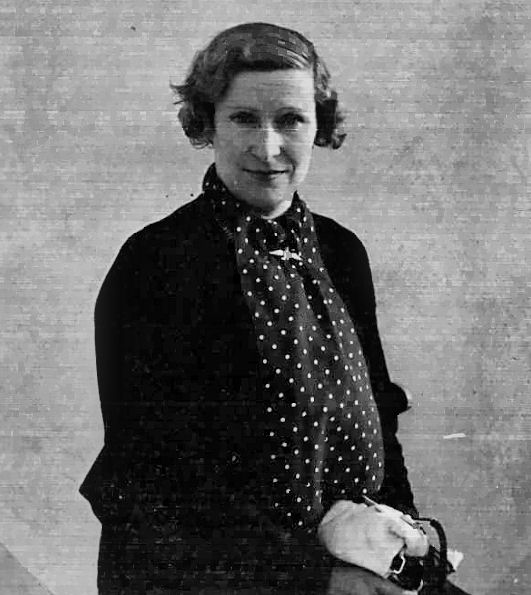 RAeC
RAeC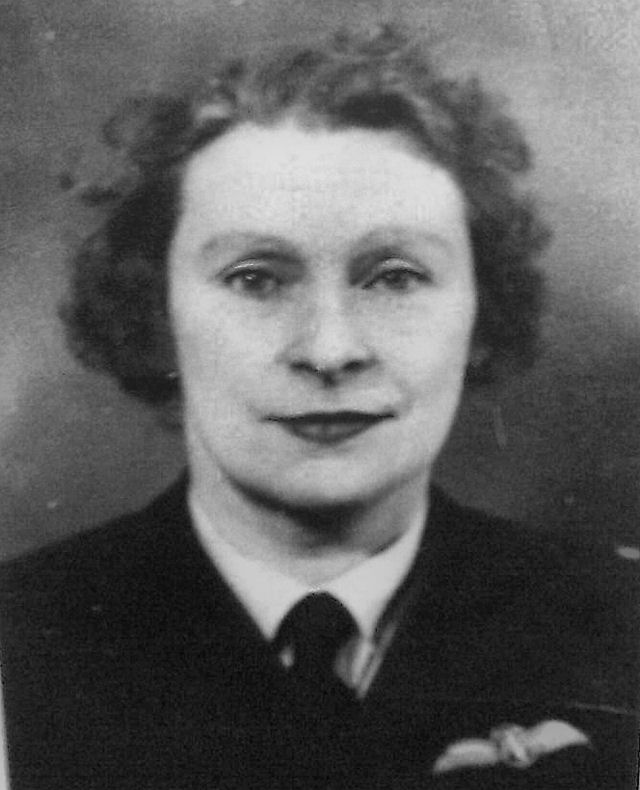 ATA1935
ATA1935[Not in 'Forgotten Pilots or 'Brief Glory']
Margery was that rare phenomenon - a female commercial pilot before WWII. Flight followed her progress thus:
10 October 1935: "South Coast Flying Club. Miss Spiller, in fact, was the first person to get her 'A' Licence with the Club, having completed her test on Saturday half-an-hour before Mr Myers."
23 October 1937: "London Flying Club. Miss Spiller completed the 'B' tests and made a night flight from Croydon to Lympne."
9 December 1937: "South Coast Flying Club. A very successful dance was held on November 27, when over a hundred members and guests attended. Miss Spiller, a member of the Club and a 'B' Licence holder, turned up in the Puss Moth which was at one time the property of the Duke of Windsor, then Prince of Wales."
1 December, 1938: "Miss Margery Spiller has joined the instructional staff of the Sheffield Aero Club as chief instructor and manager at the club's new aerodrome at Firbeck, near Worksop."
16 February 1939: "Eastbourne. Miss Margery Spiller has taken over from Mr W.S. Coates as instructor in conjunction with Mr. T.G Stubley."
If you can bear to read it (I warn you, it doesn't end happily - she died in May 1942), here is the correspondence which passed between Margery and the Air Transport Auxiliary:
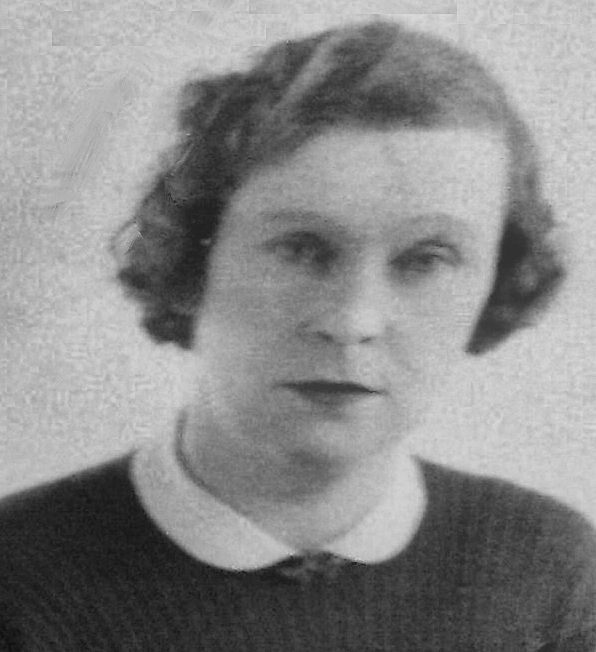
3 Dec 1939. To: Air Transport Auxiliary, Womens Section, Air Ministry. Dear Sir,
I hear you are opening up a womens section of Air Transport Auxiliary. May I apply for a job?
I have a 'B' Licence and have flown over 2,000 hrs solo - 250 hrs on a D.H. Dragon. I have been Chief Instructor at the Eastbourne Flying Club. Last spring and summer up to when war broke out I was flying the D.H. Dragon for Air Dispatch - Croydon - an army co-operator.
I wonder if you will kindly forward this letter to Mrs Pauline Gower - who I believe is representing women in this Section.
I desperately need a job - as flying is my living.
(Miss) Margery Spiller
5 December 1939. To: Miss Pauline Gower
Sandown Court, Tunbridge Wells, Kent.
Dear Miss Gower,
I attach a letter from Miss Margery Spiller in the hope that you can deal with it. I am afraid I know nothing about the Women's Air Transport Section which this lady mentions.
Yours truly, C. Fraser
7 Dec 1939. Dear Miss Gower,
Although I have never had the pleasure of meeting you - will you please accept my hearty congratulations in having been made head of the Womens Section of the A.T.A.
I wish you all the luck in the world in your new venture.
Yours Sincerely, Margery Spiller. 'B' Licence [subtle stuff, Margery]
9 Dec 1939. Dear Sirs,
Thank you for your letter of the 8th inst. calling me up for a flying test, which I will be very grateful to attend at 9:30 a.m. on Dec 15th.
It will mean a very long journey for me - but I will arrive in Bristol the day before. I wonder if you would be able to give me some idea as to what one has to do for the flying test. I have not flown since the 2nd week of August and I expect I shall feel somewhat strange and all last spring and summer I was flying a DH Dragon and as it will be impossible to hire and practice on a similar machine betwen now and my exam, I may not do my best and may get turned down. Will the examiners take into consideration that I have not flown a small aeroplane for over 12 months and I have not been up for over four months!!!
Thanking you. Yours Truly Margery Spiller.
20 Dec 1939. Dear Miss Gower,
I feel I must write and thank you for having been so perfectly sweet and kind to me last Friday. It is a great consolation to know that there is at least one woman pilot devoid of swank. If I was in your shoes I am afraid I would be just a little conceited!
It was a terrible disappointment not getting through the test as I am desperately in need of a job, and flying is my job. I can't imagine why I fell to bits. I somehow got the idea in my head as I hadn't seen an aeroplane for five months that I would not be able to fly it. I can honestly say that I did not understand what the examiner was saying in the front seat - he told me to fly back to the aerodrome before I really realised what course to steer. As you note by my logbook, for the last 100 hours all my courses were northerly, so I can fly on a northerly compass course!!!
Last night I played in a darts match at the local ARP Ambulance Depot. Well the darts went in every direction except on the board, and I am considered the local 'champ! Went to bits because I knew I was playing against crack players. I compare this with the flying test - got all fussed - and self-conscious when I know there is a better pilot in the front seat.
It was kind of you to offer me another test last Friday - but very unfortunate I could not make it owing to the bad weather conditions. I do hope I shall have the luck to do another test soon and have another chance. I do need a job as I am very hard up Heaven knows what will happen if I don't get a job soon.
Should you ever give me a job, you would find me perfectly sound and reliable. Can handle machines well in rough weather. I am tough and very fit I am not likely to break anything - at least I have been fortunate up to now. I am very careful as one must never get over-confident. Experience in hours makes you realize that aeroplanes if treated badly sometimes will turn round and bite!
Wishing you a very Happy Xmas and lots of luck in the New Year.
Please forgive this long letter. Yours Sincerely, Margery Spiller.
p.s. It does hurt when aeroplanes will fly over my house. It is worse than getting over any love affair!
11 Mar 1940. Dear Miss Gower,
Just a few lines to ask if you will kindly bear me in mind should you require any more pilots. It is not necessary to say how very keen I am to get a job as you know all about that, but I would like to say that should you ever give me a job, I am prepared to work very hard, do as I am told etc.! So as to be a real help to the ATA. If I don't do 50 hrs before the end of May I shall loose my 'B' Licence!!!
Kindest Regards, Margery Spiller.
p.s. I am still running around in a tin hat driving an ambulance, but often make epic armchair flights. Perhaps the four months rest has done me good as I am terribly fit.
28 April 1940. Dear Sirs,
I hear you may employ C.A.G. members to ferry machines etc. I have a 'B' Licence - instructors endorsement, and have done over 2,000 hrs - 250 hours on twins - Dragon and Rapide - can fly anything and have never had an accident. I was chief instructor at the Eastbourne Flying Club - and last summer I was employed by Air Dispatch, Croydon flying twins on Army Co-operation. I have been out of work since the war started. The Womens Auxiliary did not give me a job. It seemed unfair - as I have done more hours than any of them - and have a clean record. I suppose it is because I have no influence.
Last October I received a letter from the C.A.G. Ariel House London saying they may use me as a 'ferry pilot' or on general communications.
I an desperately in need of a job, as I have been out of work sometime. Flying is my job.
I would be so grateful if you can help me. Although I am a woman surely there is something in the flying world I can do.
[Her letter was referred to Cmdr d'Erlanger on 3 May 1940]
8 May 1940, from Henrietta Stapleton-Bretherton. Dear Miss Spiller,
Miss Gower has asked me to reply to your letter of the 28th ultimo, to the Civil Air Guard at Bristol, which has been forwarded to her.
Miss Gower put your name forward again when more candidates were required to take a flying test but in view of the fact that you failed on your test it was decided that others should have the same chance as you did, before you were called up for a second test. Candidates are judged solely on their merits and no amount of influence would obtain you a job in the ATA if you were not up to the standard of flying proficiency required. Likewise if you are up to that standard you are given the same opportunities as everyone else. You were given your chance and unfortunately you did not at that time prove that you had the necessary flying proficiency.
Miss Gower hopes that you will be given the opportunity of taking the test again at a later date should you still wish to do so.
14 May 1940. Dear Madam,
Will you kindly thank Miss Gower for the kind consideration, and let her know that I will be very glad to do another flying test. After my remarks in my letter to the CAG I think it very sweet of her to still bear me in mind. When I heard that others had been called up, I could not help feeling very hurt and disappointed, as I was under the impression that I would be called up for a test in the second 'batch'.
Yours Truly, Margery Spiller.
26 June, 1940. Dear Miss Spiller,
If you are still anxious to join the Women's Section of the ATA, will you please let the writer know immediately stating how soon you can report for another flying test at Hatfield Aerodrome, Herts.
Dear Miss Gower,
I feel I must write and ask you if you will be kind enough to help me. Please don't think I want to be unpleasant but I am sure you will agree that I have been treated in the most unsporting and cruel manner. Why the A.T.A. will not employ me I can't think. It is all so mysterious. After having done a flying test with you (and a very fair test I think it was), I understood I was taken on - and then filled in the necessary forms, and then the following day the non committal phone call from you postponing everything. One thing is certain - and that is that I have a very bad enemy somewhere - who has given you the wrong impression of me, and has succeeded in keeping me out of work in aviation for over twelve months. It is a very poor excuse to say that I "suffer with nerves" which is a lie - and perfectly ridiculous. I don't drink, and I have not had a single accident during the 2,000 hours that I have flown and out of those 2,000 hours I did a season's joy-riding at Blackpool with Mrs Joy Davidson. The only fault they can find is that three times while flying with Air Dispatch I 'turned back' - on account of 'no see - no fly'. I should always turn back when I could not see the ground any more - and when my altimeter showed only 500ft! providing of course I had no wireless operator.
I am so deadfully unhappy, and don't know what to do about it all. I do so want to join up with you. I know I am a bit rusty, but I feel that after a few landings and take-offs I should be perfectly O.K. You know that don't you?
I am not a difficult person to work with and I have never had a row with anyone. Should I ever have the luck to be taken on in the A.T.A. I should be perfectly humble and start all over again - I would not talk - except to tell my troubles to you - if I had any. I know I should work well and try to please the A.T.A. in every way. Won't you let me have a crack at it? I would love to go to the C.F.S. and travelling in trains at night would not bother me in the least.
Just before war broke out I had great trouble at home. I had to give up my instructors job at Sheffield, and return home. My dear mother died very suddenly - in fact she committed suicide. She had had several operations and I suppose could not face another. Afterwards while flying with Air Dispatch I was rather run down and 'spat' at one or two people over the maintenance of a particular machine - I suppose the shock of mother's death upset me - and also being left with very little money. I have never told any of my flying friends about mother's tragic death - but I feel that you are such a nice person that you may be sorry for me and understand.
When I heard that I was supposed to 'suffer with nerves' I thought perhaps someone in the flying world had heard about mother, and tried to make out she was mad - and being jealous spread it around that I was nervy. It is not true - my health is perfectly sound and my medicals at the Air Ministry have always been good.
Forgive me writing this awful long letter, but I have tried to explain things. Can anything be done about me?
I enclose a letter I received from one of the Miles Bros of Philips & Powys - reading it appears that a man called 'Delanger' is up against me. I have never met him. How I wish I could call in at Hatfield and have a talk - but as I am an A.R.P. ambulance driver I am not allowed to leave the town - besides I have given up the car. It is so difficult to explain by letter.
Could you spare the time to ring me up one morning - phone Preston 2431. I will be in any morning all this week.
Yours Very sincerely, Margery Spiller.
p.s. Capt. Harry Love at R.A.F. Aerodrome Sywell writes that he will be very glad to give me a reference, should you require one. He employed me at Eastbourne Club as an instructor.
Dear Miss Spiller,
I received your letter yesterday. I had intended to write to you concerning the possibility of you joining the Air Transport Auxiliary, but I did not know your new address.
I would point out that you are labouring under a delusion in thinking that you have an enemy in Mr. d'Erlanger or anywhere in the Air Transport Auxiliary. Personal prejudice, even if it existed, which I am sure it does not, would never be allowed to interfere with the engagement of a pilot, and I must say that although I quite understand your feelings, I do not think you do yourself or your chances any good by writing such letters.
I pointed this out to you some time ago, if you remember. However, I am now able to offer you a position as a pilot in No.5 Ferry Pool on a month's probation, providing the Air Ministry sanction the granting of a contract. Will you please send me three copies of a photograph of yourself. It should be head and shoulders, without a hat, and on receipt of these photographs, we will send them to our Administration Officer, and he will communicate with you here in the near future.
21 Nov 1940. From: Henrietta Stapleton-Bretherton, Adjutant.
To: Mr Purnell, Establishment Officer, White Waltham.
Miss P.M. Spiller passed her test here on 29.6.40. I shall be glad if you can get her pass through as soon as possible. Will you please communicate with her at 60, Wiltdean Court, Preston, Brighton, where she has gone to live, as 'Dene Place' is now shut up.
26 Nov 1940. Dear Miss Gower,
I was so pleased to receive your letter and to hear that you will give me a job. I do hope I shall make a success of it. I promise you I will try to do my best in every way. I enclose the photographs you asked for.
I wonder if the A.T.A. will kindly write to Capt. Jennings-Bramley A.R.P.O., Brighton, saying that you have called me up and ask for a transfer to the A.T.A. I would be very much obliged if you would. I propose leaving the A.R.P. say two weeks from next Wednesday. I would like a weeks rest before I start work with you. I imagine it will take about three weeks before my papers go through.
Could you suggest somewhere for me to live in Hatfield, and would it be possible to bring my old wire terrier dog as I don't know what to do with the poor little chap. It would break his heart to leave me. I thought perhaps someone may know of a kindly landlady who would not object to looking after him when I am away. He is a very old dog and gives no trouble, and I just couldn't bear to leave him.
Does one get paid during the four weeks on probation? Monthly or weekly? Would I be allowed to have a uniform providing I wear no stripes, only wings. It would save the bother of bringing lots of clothes, and would be inspiring. If allowed where do I get the uniform? Would it be cheaper to get flying kit at Hatfield - or shall I rush up to town and get a rigout, and what do you wish me to get? At the moment I have nothing as I gave it all away thinking I would never fly again.
Should I be allowed to start off with a blue uniform I could send the measurements and could have any necessary alterations made down here by my tailor. My wardrobe is so low at the moment, as I have been wearing uniform in the A.R.P.. If I could start with your uniform it would save buying a lot of things. Should I be unfortunate and not be taken on after the months probation, I would be quite prepared to take the loss.#Please excuse all these questions but they do seem rather necessary as I cannot call to see you.
Thanking you for your kind consideration. Margery
28 Nov 1940. Dear Miss Spiller,
Miss Gower has asked me to reply to your letter and to acknowledge receipt of the photographs.
Miss Gower will write to Capt. Jennings-Bramley, and will ask for you to be transferred to the Women's Section, Air Transport Auxiliary.
When your contract has been signed, Mr. Purnell, Administration Officer of the Air Transport Auxiliary, at White Waltham, will tell you when to report for duty. This will probably not be for some weeks.
Before joining us, most pilots come here and arrange about their own billet, but if you are unable to do this, I will book you a room at the Stone House Hotel for a few days, and this will enable you to look round yourself afterwards. The Stone House has no accommodation for dogs.
You will be issued, on loan, with flying kit and your pay will start from the date upon which you join. No uniform of any kind is issued to pilots until they complete their probationary month. Yours Sincerely, (Adjutant)
8 Feb 1941. Dear Miss Gower,
I do hope nothing has gone wrong with my contract to join the A.T.A. It is nearly three months since I last heard from you. I have moments of 'panic' when I think about it.
It is rather awkward not knowing when I have to report to you for duty - as I can't make any definite arrangements about 'rooms'. I have written to various addresses at Hatfield, but there doesn't seem anywhere to live there. How I wish you operated from Gatwick Aerodrome as I live so near and it would save me from keeping two places going. I suppose it would be ridiculous of me to ask if I could be fitted in at Gatwick. I heard that you did send a machine round London for that purpose. Should I have to live a little way out of Hatfield could you arrange for me to have an extra supply of petrol coupons? I have a 12 h.p. car and I only have 6 galls per month. It would take all that to get from here to Hatfield. I wish I could run up and have a talk with you. It is so difficult to explain all this by letter.
I do hope I shall make a success of the job. Believe me I do want to do my very best both in the air as a pilot and on the ground. When I start work I wonder as a special favour if you would personally give me a few 'circuits'. It would give me confidence. I have the greatest faith in you as after all you are one of the pioneers of flying & you are the right person in the right job. Please accept Best Wishes for a Happy New Year. Yours Sincerely, Margery.
10 Feb 1941, Dear Miss Spiller,
In reply to your letter of the 8th inst., addressed to Miss Gower, we have not yet received your pass from the Air Ministry, and until this comes through you will not receive your contract. There is always unlimited delay in this connection, and you will have to wait patiently until it is received.
I am afraid you have been misinformed about a taxi machine picking up pilots who live in or around London. There has never been any such means of conveyance. If you live within a radius of ten miles of Hatfield, it will be possible for you to have a little extra petrol to get to and from work.
As I said in my letter of the 28th November last, it would be better if you stayed the first few days at the Stone House and looked round for living accommodation from there.
You will be notified by Captain Kiek at White Waltham when to report here for duty. Yours Sincerely, (Adjutant)
19th February. Dear Miss Spiller,
Will you please report here for duty on March 1st.
During your probationary period you will be paid at the rate of £230 per anum, plus £7.10.0 subsistence allowance. Subject to your probationary period and final test proving satisfactory, you will then be rated as Second Officer and be entitled to a basic salary of £230 per annum plus £8 per month flying pay, plus £15 per month subsistence allowance.
If you require any further information, I shall be pleased to let you have it.
Yours Faithfully, (Adjutant)
29th February 1941. Chief Instructor To: O.C. No 5 F.P.
Re: 2nd Officer Spiller and Clayton.
The above have this day successfully passed a confirmation of appointment flight test.
Both these officers are considered good pilots for the experience they have had and are likely to become useful ferry pilots.
 At Last.
At Last.
29 May 1941: Instructor's Report:
Flies well and carefully. Little lacking in confidence and although quite good shows experience of only about 300-400 hours rather than the 2,000 claimed.
29 May 1941: This one is self-explanatory:
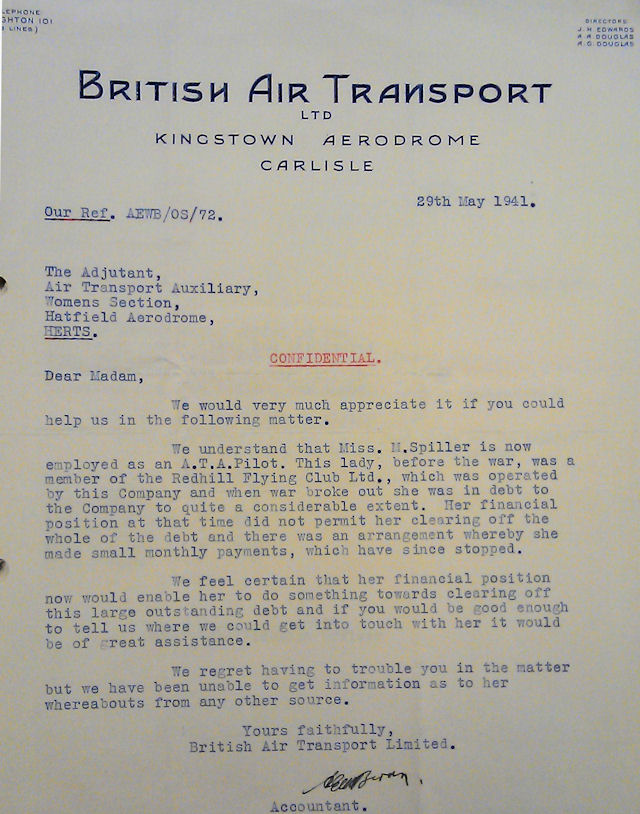
1 Jun 1941. To: The Accountant, B.A.T. From: Henrietta
Dear Sir,
Thank you for your letter of 25th May.
Miss Spiller is employed at this Ferry Pool, and the above address will find her. Her Commanding Officer has spoken to her about this matter, and Miss Spiller has said that she will look into it.
White Waltham. Sunday. Dear Miss Gower,
I hear we are retuning to Hatfield soon, as we have finished school. I wonder if you could do me a secial favour? and give me permission to stay here, and go over every morning in the Anson? I am so terribly happy and settled in my billets, and was so uncomfortable at Hatfield.... I am staying with some friends of my family and living a normal comfortable home life, which makes such a difference to my work.
Am working very hard and do hope you will receive a not-too-bad report. In haste. Please accept my love. Margery.
White Waltham. Monday. Dear Miss Gower,
Thank you so very very much for giving your permission for me to stay on here until we move to Luton. It really is most kind of you and it helps no end. How relieved I am to know that 'we girls' are sticking together under your control, although it is rather fun landing out at various aerodromes. It is more interesting and broadens our 'flying views' and I think shows the men that we can fly as well if not much better than they can.
Please may I learn to fly the Anson, so that when Margie [Fairweather] is off I could take it to Hatfield and back. It would be empty, and I know I could do the job, as I feel happy on twins (or used to). It would be a lovely way to start on a machine like that in case later on I may be needed on something big.
Please do let me? I would feel more useful. I am getting on very well and doing everything very quietly. Am so terribly happy, and love my job. I hope to have dual on the Harvard tomorrow. Do hope I put up a good show and that you will be pleased and never regret having taken me on in the A.T.A.
Am so grateful to you. Love, Margery.
6 Nov 1941. From: A.B. Macmillan, Chief Instructor.
This is to certify that First Officer M. Spiller (Miss) has this day completed a course of training qualifying her to fly Class 2 aircraft.
Confidential School Report
This Officer is a good pilot and her progress during the course has not been unduly slow. She is inclined to underconfidence however and when nearing the end of the course she became over anxious about the result and was obviously trying too hard. She was granted 7 days leave, returned and passed out with assessment average.
8 Nov 1941. To: Chief Accountant.
Please note that F/O Miss Spiller is entitled to receive "First Officer C" pay as from and including 7.11.41
4 Dec 1941. To: Miss P Gower, C.O. 5FPP, Hatfield. From: O.C. RAF Sealand, Flintshire, Wales
RE: 1st Officer Spiller
This pilot has twice recently landed at Sealand and telephoned us up asking for us to take on her machine. Each time she has given personal reasons for wanting to get back, and also complained that she is very frightened of the types of machines she has been flying, namely: Hurricanes and Masters.
This morning when she telephoned us she claims to have been at Sealand for a week, and to be short of money and laundry. We have been flying between here and Prestwick on at least three days during the last six, and at any rate there has been good enough weather for her to fly her machine into Hawarden. She seemed extremely reluctant to do this, but I think it is wrong that we should be asked to take machines from other aerodromes than Hawarden.
On both these occasions I felt more or less obliged to take over the machine, as this officer sounded very nervous and worried about her job, so I decided that it would be unwise to leave her there with it.
...Perhaps some steps can be taken to prevent this pilot continuing this practice.
[Margery went off sick on the 21st December]
12 Jan 1942. From: Dr J.G. Thwaites, Brighton
This is to certify that Miss M Spiller is suffering from debility after mumps and is not fit to return to duty.
26 Feb 1942. From Establishment Officer. To: Chief Instructor
Re: Acting F/O P.M. Spiller
According to our records the above officer has been absent from duty since 22.1.42 suffering from mumps. Her flying pay and subsistence allowance were accordingly stopped after a fortnights absence, but in view of the exceptionally long time she has been off duty I should be glad to know whether you wish any further action taken.
16 Mar 1942. From Dr. E.F.Bambury M.D, 10 Harley St London W.1
This is to certify that Miss M. Spiller is not yet fit to resume flying duties. She probably will be able to resume her duties within two months.
20 Mar 1942. From : Kitty Farrer (P.A. to Miss Gower) Dear Margery,
Miss Gower has just received your Medical Certificate dated March 16th.
In view of the fact that you have now been away on sick leave for the past three months and that this last certificate states that you "will probably be able to resume duties within two months", Miss Gower considers that it would be much more satisfactory if you were to see the Chief Medical Officer of A.T.A.
She has therefore arranged for him to see you on Tuesday March 20th[sic], and has asked me to write to you to ask you to report to him at White Waltham on that date. I understand that he will probably be able to see you at any time during the day.
11 May 1942. From Mrs Nicholas, 30 Aberdeen Pl, St John's Wood London NW8. Dear Miss Gower,
Just a short note to let you know that my cousin Margery Spiller died this morning from cancer, she unfortunately left it too long before consulting a Dr. as to what really was the trouble. I am glad to say she did not realise how seriously ill she was & it really is a happy release under the circumstances.
I wonder if you could let me have the address of her billets at Hatfield also at White Waltham as I understand she has left belongings at both places, also I believe she had some flying kit at Hatfield but I do not know if it is her property or issue & the same with her uniform, I would be glad if you would let me know.
The funeral as far as I know will be on Thursday next at Croydon Crematorium being the nearest place to Sevenoaks if any of her particular pals would come, to know [sic].
12 May 1942. From: Pauline Gower. Dear Mrs Nicholson,
Thank you very much for your letter of the 11th May. I am more sorry than I can say to hear the sad news about Marjorie [sic, I'm sorry to say] Spiller, and please accept my very deep sympathy.
She will be a great loss to us, not only as a pilot, but as a very charming companion, and I know that I am speaking for all her colleagues, as well as for myself.
Unfortunately, I shall not be able to go to the funeral myself, but I believe that some of her friends are coming.
With again my deepest sympathy. Yours Sincerely, Commandant of Women Pilots.
12 May 1942, From Flt. Capt. Stocks, Establishment Officer, ATA. Dear Mr Spiller,
It was with deep regret that I learnt from the Commanding Officer of the death of your neice - Miss P.M. Spiller, and I am directed to express the heartfelt sympathy of the Commanding Officer and fellow A.T.A. pilots in your sad bereavement.
No doubt you are aware that your neice had been with this organisation for over twelve months, and it is felt that had she been spared, her adaptability and proficiency would have made her an excellent ferry pilot, and her loss is one that we can ill afford.
15 May 1942. From P.A. Spiller, to Establishment Officer, ATA. Dear Capt Stocks,
I deeply appreciate the kind lines of sympathy in which you have expressed the sympathy of the Commanding Officer and fellow A.T.A. pilots, including yourself, to me in the sad death of my neice Miss P.M. Spiller who has been with you all for a long time now.
Your reference to her adaptability, and proficiency, is also gratefully acknowledged, for I know her whole heart and soul was in the war job which she had undertaken.
I will ask you to kindly convey my thanks, and the contents of this letter, to all who knew my neice and have so kindly thought of me in my bereavement.
I am, Yours Sincerely, P.A. Spiller
Flight recorded her passing, thus:
28 May 1942: "We regret to record the death, at Sevenoaks, after an illness, of Marjory [sic, and I wish somebody would spell her 'f'ing name right for goodness' sake] Spiller , who was Chief Instructor to the Eastbourne Flying Club before the outbreak of war, and afterwards joined the women's section of the A.T.A.
She learnt to fly at Shoreham in 1935 as a member of the South Coast Flying Club and gained an instructor's endorsement to her 'B' licence in 1938."
15 May 1942. From Betty Nicholas. Dear Miss Gower,
Thank you very much for your kind sympathy and the lovely flowers.
I am sure Margery would have been very honoured to know that she was missed as she was so proud of being in A.T.A. & of being of some use to the country during these trying days.
Margery's flying record in the ATA:
Moth: 74hrs 50min;
Magister: 18hrs 35min;
Tutor: 4 hrs 35min;
Hart: 1hr 10min;
Harvard: 3hrs 30min;
Battle: 1hr 05min;
Hurricane: 1hr 30min;
Master: 4hrs 25 min
-
Starkey-Howe, Holman Roland
M.179 First Officer Holman Roland Starkey-Howe
Real name, possibly: Daniel Leroux

Said he was: b. 19 Apr 1901, Westcliffe on Sea
Possibly: b. 1894, Small Heath, Birmingham
10 Dec 1940 to 14 Jan 1942
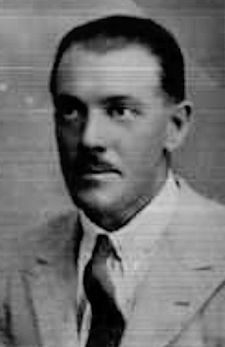 1935
1935It's rather difficult to sort fact from fiction when it comes to this pilot. He went by the name of Starkey-Howe, but later in court said that his real name was Daniel Leroux. The information he gave in his ATA personnel file is very suspicious: he said that he served as a Captain in WW1, despite having claimed to being born in 1901 - so, 13 when WW1 broke out; he said he had an MBE (for which I can find no evidence), he gave his infant daughter as his next-of-kin, etc..
In fact, it later emerged that he had a series of convictions in South Africa and he was, shortly after his ATA contract was terminated, sent to prison for 3 years for attempted blackmail.
---------------------------
This is from his Personnel File:
"Ed. Milton College, Bulawayo, Southern Rhodesia
Captain in British South African Police, Motor Transport Corps, East Africa in WWI 1916-18
Next of Kin: Anne Yvonne Starkey Howe, 24 York Rd, Maidenhead (daughter) (later Flat 2, King St, Maidenhead)
[His daughter Anne was born c. 1938, so this is rather unusual]
prev. Starkey-Howe Aviation, South Africa: Director of Union Flying School, Managing Director Air Operating Taxis.
prev. exp. 1577 hrs
MBE"
Address in 1940: c/o Barclays Bank, Maidenhead
---------------------------
He part-owned, with AJAL Veber, G-AAWI, a 1930 Avro 616 Sports Avian which was sold in South Africa in Feb 1937
He also owned G-ACYH, a 1934 Cierva C.30A (Avro 671) autogyro which was impressed 1 Jun 1941 as DR622 and later became G-AHRP.
 a C.30a
a C.30aIt was presumably this aircraft which, with co-pilot J R Wetton, he piloted from South Africa to London in 1937. During the flight, it "jounced about, flopped over on its back, leaving them dangling heads down against their safety belts." - The Charlotte Observer
His wife, Phyllis Marjorie Howe, sailed from Southern Rhodesia (via Durban, SA), unaccompanied, to England in June 1937. She gave her address as Glenwood, West Ave, Clacton on Sea, Essex. She and her infant daughter (Anne Yvonne) sailed back to South Africa in July 1938, apparently intending to live there.
He definitely sailed to England in March 1939 from South Africa with Phyllis (age 30) and Anne, aged 1. They gave their future address as Clacton on Sea, as above.
Phyllis and Anne also sailed to England from Kenya in Feb 1940.
Postings: 4FPP, 6FPP
Of sick from 15 Sep to 15 Oct 1941 with 'flying fatigue'
Suspended for 1 day without pay in September 1941 for going AWOL
Contract Terminated (after his fourth'at-fault' accident), as of 12 Jan 1942
Those accidents were:
- 22 Feb 1941, 'taxying without due care', his Audax K7386 collided with a lorry
- 10 Aug 1941, he stalled during landing and hit a boundary fence in Magister R1834
- 4 Nov 1941, he damaged the undercarriage of his Spitfire P8794 during a bad landing at Kirton-in-Lindsey
- 5 Jan 1942, he got lost, ran out of fuel, and landed his Hurricane BH119 with the wheels up. On a golf course...
Either a "good pilot" (Frank White, his CO in 4FPP),
or
"A rather rough and unstable pilot. Would be more useful if he talked less and flew more" (Peter Mursell, his CO in 6FPP)
3 months after leaving ATA, he was in court in Leicester, accused of blackmail:
"Smartly attired, his grey hair neatly brushed, 45 year old Holman Roland Starkey-Howe, alias Jack Stevens, alias Daniel Matthew Joseph Leroux, described as an aviation pilot", pleaded not guilty.
He was accused of demanding money with menaces; £50 from garage owner Sidney Wakefield in 1939, regarding certain letters about the disposal of petrol without coupons, just before rationing began. He told Sidney he was Jack Stevens, Head of the Investigation Department of the Petroleum Board", and was "investigating petrol matters to help the war effort", and added, "The Board consider your case to be a bad one."
Anyway, he was found guilty and sentenced to 3 years in prison. "Pleading that prison would not do him any good, Starkey-Howe urged that he would be more benefit to his country flying a plane than in a prison cell. 'Couldn't you bind me over for 10 years, sir?' he asked."
"The Chairman: 'I should't like to bind you over for 10 minutes"
"Convictions in South Africa [for theft, injury to property, and demanding more than the legal fare] and in this country were proved, and it was stated that Starkey-Howe's real name was Leroux. He stated he was born in the Transvaal, but his criminal record showed he was born at Small Heath, Birmingham, in 1894." - Leicester Evening Mail
After that, he appears to have returned to South Africa. Here is an advertisement from The Guardian, Nov-Dec 1948:
"IMMIGRANTS to South Africa
Secure your home before arrival. Caravan Homes 18ft x 7ft x 6ft 3in high, furnished with own electric plant. From £650.
Starkey-Howe, PO Box 895, Port Elizabeth"
-
Stedall, Gerald Anthony
M.74 Captain Gerald Anthony 'Jerry' Stedall MBE 
b. 18 Jul 1906, Beckenham, Kent 15 May 1940 to 31 Dec 1945
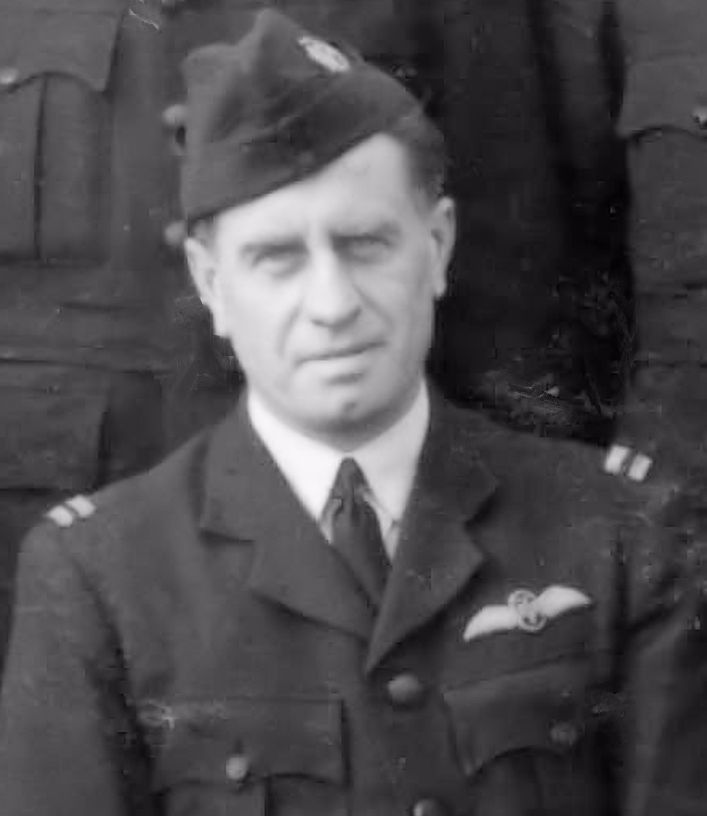
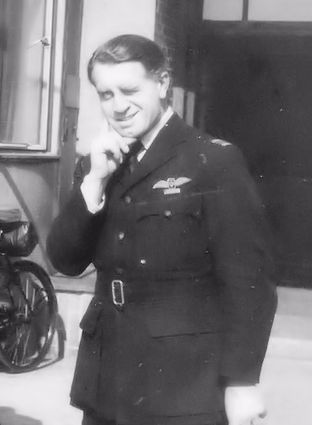 ATAM
ATAMSpecial Characteristics: 'blue scar on bridge of nose'
Ed. Sherborne College
m. 1930 Doreen Isabel [Nicholls], 1 child; 1940 Gladys M [Wilson]
[RAeC 1931, 1935 - photos missing]
prev. of 'Independent means'.
He did have a rather chequered past, particularly when it came to driving, or flying, dangerously:
- in 1924, he was fined 40/-, 50/- and 10/- for 3 separate motorcycling offences, then
- in 1925 he was fined £4 5/-, 1/-, £1 (for having no light), £5 , 10/- and then £20, with £3 3s. costs and disqualified for riding for two years, when he "travelled on a motor cycle at 70 miles an hour in a manner dangerous to the public, an allegation which he did not deny". In the last case, "Defendant, who did not seem much perturbed by the decision, was granted time in which to pay the fine."
- In 1930, he was fined £20 or two month's imprisonment for flying an aeroplane dangerously at Parson's Hill Field, near Downe golf course, and fined £20 for flying an aeroplane without a pilot's certificate. A Mr Lane stated: "It came straight for me, so I threw myself to the ground. It went on and turned and came back, swooping down again only four feet above my head." ;
- In 1931, he was sentenced to three months' imprisonment "in the first division, for driving a motor car in a manner dangerous to the public";
- In 1938, he was sentenced to four months imprisonment for driving dangerously at Bray, Berks. His licence was suspended for three years. This accident led to the death of a Mr Bernard Sprackling, an insurance clerk; his widow sued Gerald and another driver and they ended up paying £3,750 to the widow and her son, born posthumously. "Mrs. Sprackling's jaw was broken and she lost three teeth, and two more teeth had still to come out. Although she had made a splendid recovery, she underwent considerable pain and suffering. Mr. Justice Hawke said: 'She has suffered, poor creature, in a way for which she cannot get any damages.'"
He served this sentence in Oxford Prison.
Address in 1940: The Studio, Shiplake, nr Henley
Postings: 1FPP, 6FPP, 4FPP, 3FPP, 9FPP, 12FPP (as C.O. then later as 2nd in Command), 5FPP (as C.O.), 16FPP, Air Movements Flight
Class 5 (4-engine) qualified pilot
"A keen and very capable ferry pilot and a loyal and efficient deputy" (Thomas Gale, OC 1FPP, 1944)
"He is a competent and hard-working pilot. His administrative ability is not of the highest order, and I do not consider that at the present time he would be capable of handling a larger unit"
One 'pilot to blame' accident amongst his 4 incidents; in Feb 1942 his Hurricane II "collided with a hangar support cable whilst manoeuvring in a confined space with a defective tail castor."
"All the Ferry Pools began as small informal communities, but none more so than No 12 at Cosford, for Jerry Stedall - the first C.O. - was soon joined by his wife in the ostensible role as caterer." Brief Glory
MBE, 1946
He married once more, in 1965, to Jennifer K [Young].
d. Jun 1972 - Surrey
-
Stewart, Iain Hunter
M.337 First Officer Iain Hunter Stewart 
b. 21 Apr 1920, Isles of Scilly 4 Mar 1941 to 31 Oct 1945
Father: John Hunter Stewart MBE, a civil servant; Mother: Jean Blair [Stevenson] of 89 The Glade, Shirley, Croydon, Surrey
Ed. Selhurst Grammar School, Croydon
prev. RAF: Acting P/O from 24 Jun 1939, P/O from 10 Apr to 7 Sep 1940 (he relinquished his commission due to ill-health)
prev. exp. 150hrs
Postings: 2FPP, 4aFPP, 10FPP, 4FPP
Off sick from 23 Jul to 27 Dec 1943 with 'bad eyes'
8 accidents, 3 his fault:
- 17 Jun 1941, a forced landing in Defiant T5054 after an oil leak obscured the windscreen
- 17 Jul 1941, the hydraulic and emergency system failed on his Spitfire K9850
- 15 Aug 1941, another forced landing , this time in Battle L5301, due to engine failure
- 23 Aug 1941, the tail wheel structure of his Defiant N1560 failed
- 7 Dec 1941, he turned across a strong wind after landing in Tiger Moth T6980 and it blew over onto a wingtip
- 4 Jun 1942, a propeller blade of his Hurricane IIc HL670was damaged by a stone whilst taxying
- 7 Feb 1943, one wheel of his Anson I EG326 ran off a narrow track into mud whilst taxying (OC Ground Control also blamed)
- 20 Mar 1945, he landed in a strong wind in Corsair IV KD184, the starboard wing touched ground and was damaged (bent, probably)
"An intelligent and capable pilot who shows good judgement and whose flying is smooth and steady. Is most conscientious and has worked hard throughout"
His elder brother, 2nd-Lieut. Robert Young Stevenson Stewart BA, b. 1916, d. 28 May 1942 on war service with the Royal Corps of Signals in India, and is commemorated at Imphal War Cemetery
d. 1966 - Cambridge
-
Stokes, Winifred (W.153)
W.153 * 3rd Officer Winifred 'Pooh' Stokes 
b. 27 Sep 1918, Benwick Cambs 21 Feb 1944 to 30 Sep 1945
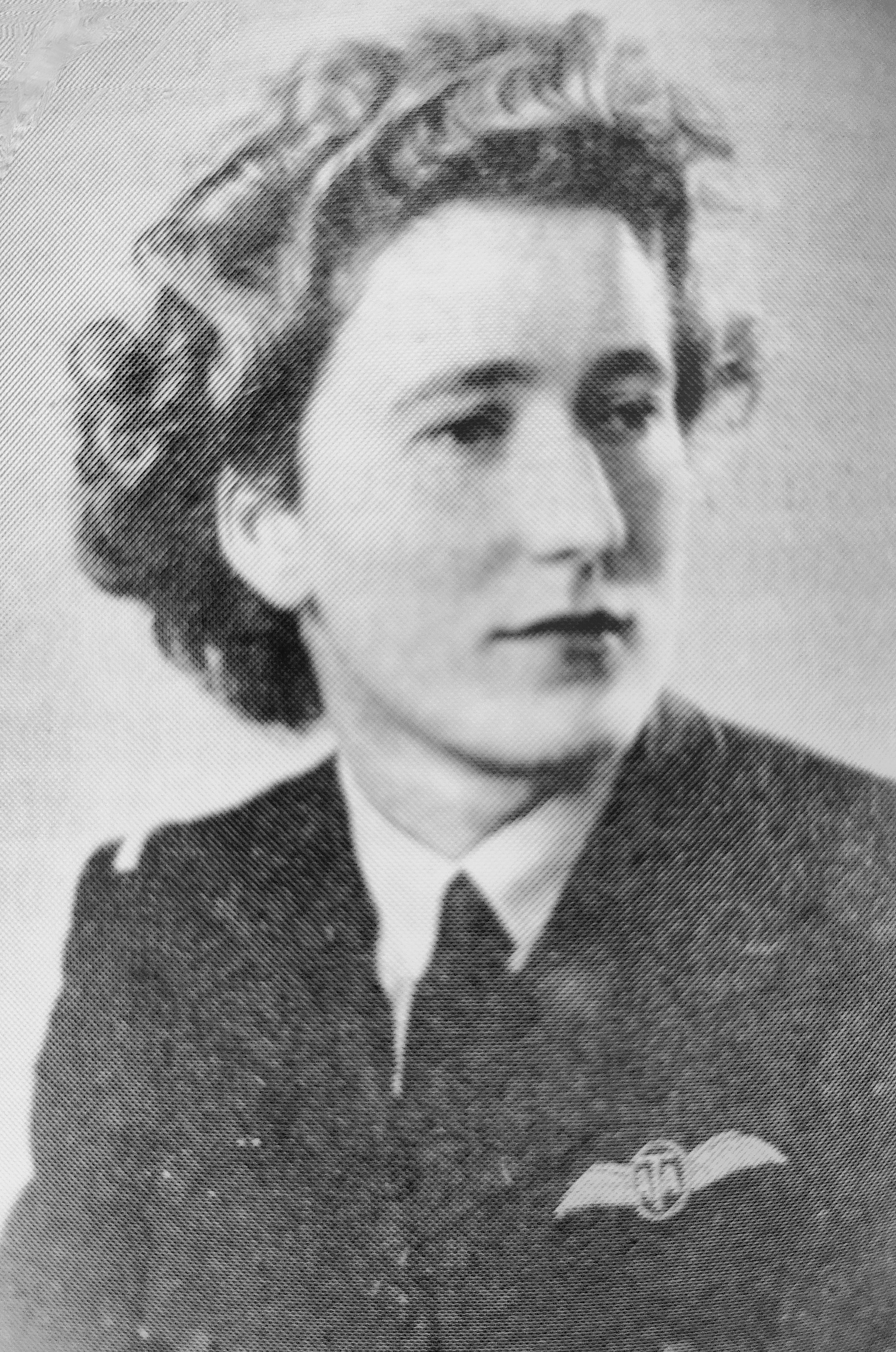 ATA
ATA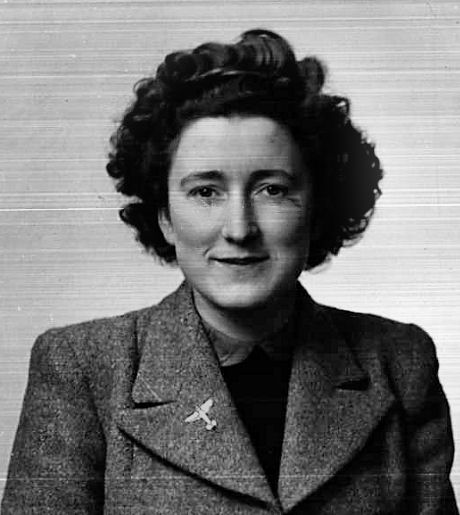 RAeC 1945
RAeC 1945Father: Herbert Stokes, a garage proprietor, Mother: [Smith]
prev. Bank Clerk; Ambulance Driver; WAAF
Address in 1939: London Rd, Peterborough
Ab initio pilot
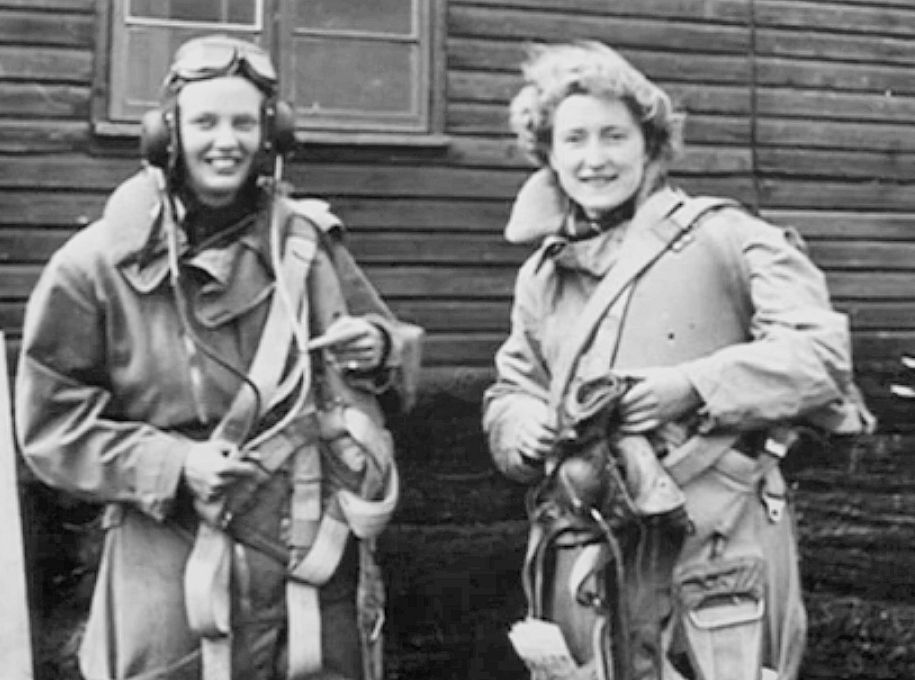 with (l) Di Faunthorpe
with (l) Di FaunthorpeShe gained her Royal Aero Club Certificate No 20942 on 3 Aug 1945, as part of the 'ATA Wings' programme
Address in 1945: New Rd, Benwick, Cambs
m. 12 Nov 1946 in Ash Shatibi, Al Iskandariyah, Egypt, F/O (later Sqn-Ldr) Peter George Pudney Henson RAF
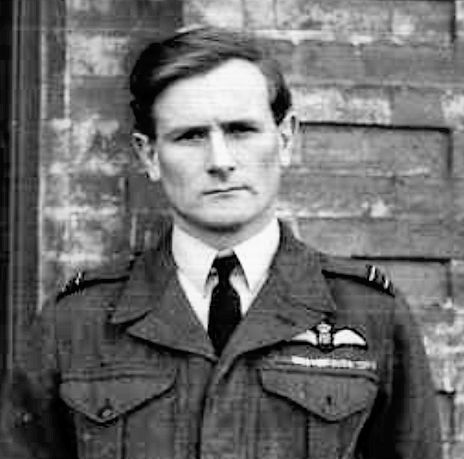 1951
1951from Wellingborough, Northants
Winifred and 4-month old daughter Pamela sailed back from Egypt to the UK in September 1948; she and Peter then sailed to the USA in 1954 with daughters Pamela (age 6) and Christine (b. 1950 in York)
Peter d. 1956 missing presumed killed as a result of a flying accident in Florida; flying a F-84 Thunderjet, he parachuted into the water 3 miles offshore but bad weather prevented a rescue.
"His wife and two small daughters live at Eglin Air Force Base, Florida" - The Montgomery Advertiser, 2 Feb 1956
Address 1969-83: Lansdowne Rd, Bedford
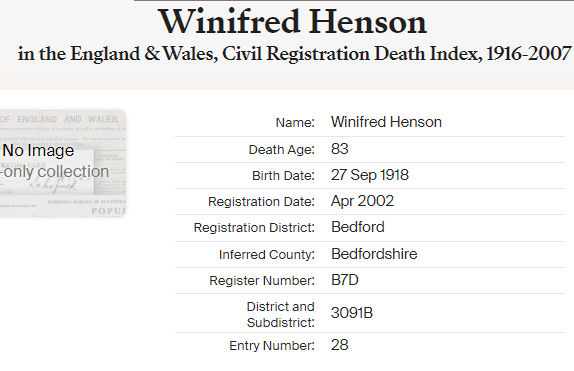
d. 1 Apr 2002 - Bedford
-
Strodl, Vera Elsie (W.60)
W.60 First Officer Vera Elsie 'Toni' Strodl 

b. 16 Jul 1918, Braughing, Herts 2 Dec 1941 to 30 Nov 1945
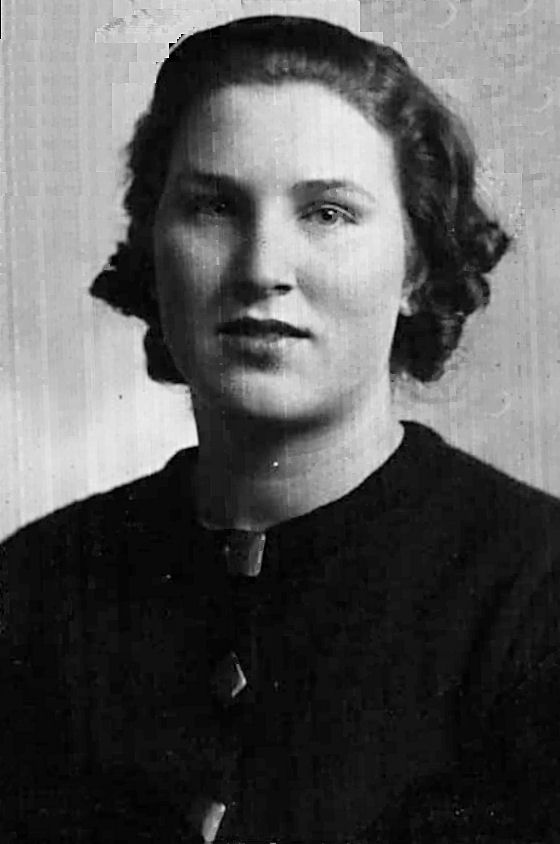 RAeC 1937
RAeC 1937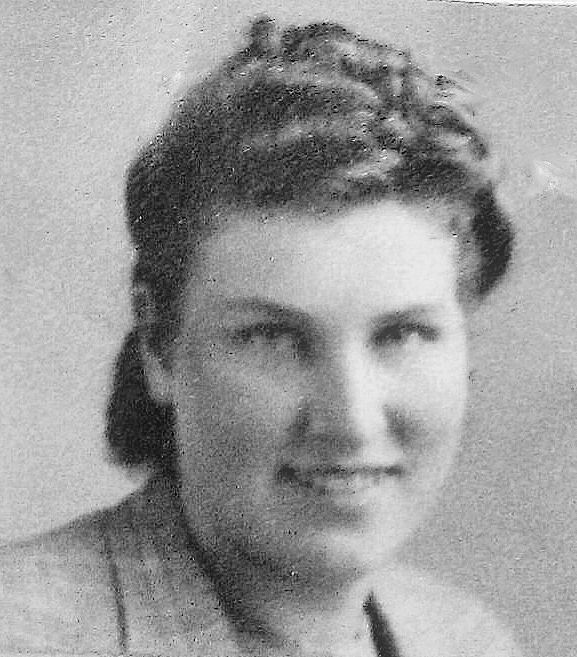 ATA
ATAFather: Raymond Edward Strodl, mother: Maren Sophie Christine [Holst], both Danish
Moved to Denmark in 1930, but returned to the UK in April 1934
prev: cashier; Flight Mechanic for Taylorcraft, Rearsby
Address in 1937: 46 Kenilworth Rd. St Leonards on Sea, Sussex
Postings: 15FPP, 4FPP
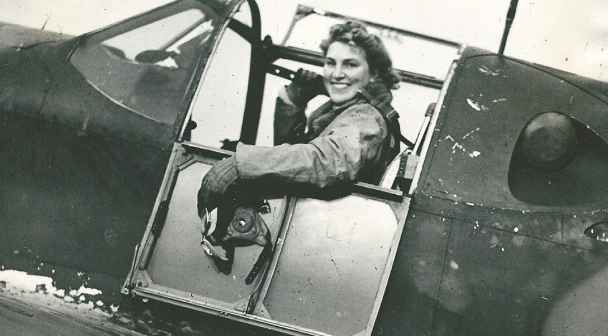 Vera with Mustang, 1943 - Wikipedia
Vera with Mustang, 1943 - Wikipedia3 accidents, none her fault:
- 1 Dec 1942, a forced landing in Seafire IIc MB259 after a hydraulic failure
- 6 Dec 1942, another hydraulic failure, this time in Spitfire IX EN286, meant that the undercarriage would not retract. After using the emergency system, she made a forced landing
- 25 Aug 1944, a forced landing in Firefly I Z2037 after engine failure; the aircraft over-ran the runway and was damaged.
Post-WWII, Pilot Officer in the short-lived (1 Feb 1949 - 1954) Women's Royal Air Force Volunteer Reserve (WRAFVR), then an instructor for the Womens Junior Air Corps.
In Jul 1949, the Western Daily Press reported that "... Other sufferers from the heavy rain on Saturday were the five WRAFVR. pilots, from No. 8 Reserve Flying School at Woodley, Reading, who were scheduled to fly formation over the exhibition 2.30 p.m. During the morning a squall hit their airfield, damaged some of the aircraft and delayed their take-off. Ten minutes after their arrival Filton, however, the five Tiger Moths were airborne again, flying over Southmead towards .the Downs cloudburst, and at 2.30 exactly led by Miss Vera Strodl, they flew over the exhibition site. The other four pilots were Mrs Fay Bragg, Mrs Marigold Rowland, Miss Sheila Van Damm, and Mrs Ann Kendall. All of them were, at one time A.T.A. pilots. "
m. 1963 Standford J Dowling
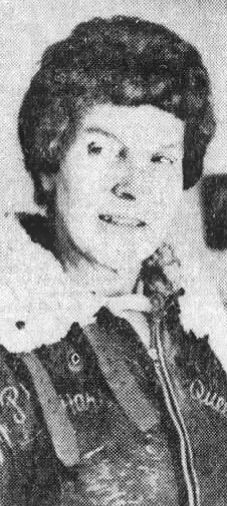 1972
1972According to the Wichita Beacon and others, "She joined the Air Transport Auxiliary in WWII"... "it was mostly girls who were doing the flying", she [apparently] said...
Her biography, 'Pursuit of a Dream: The Story of Pilot Vera (Strodl) Dowling' was published in 2012:
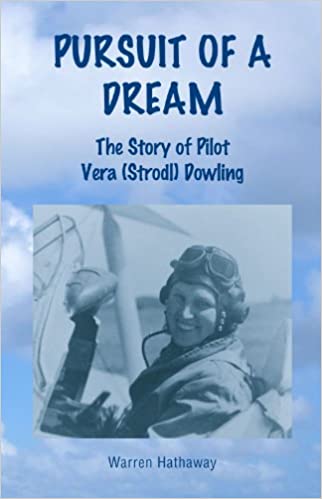
d. 11 Jan 2015
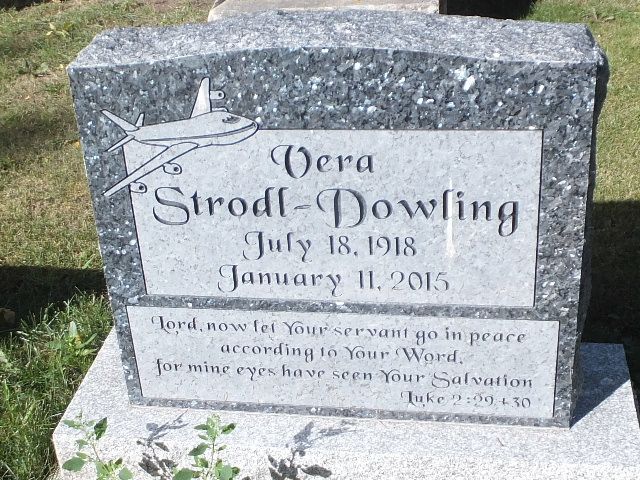 Edmonton Municipal Cemetery, Alberta, Canada
Edmonton Municipal Cemetery, Alberta, Canada"Vera Dowling died quietly at Youville Home in St. Albert on January 11, 2015, at 96 years of age."
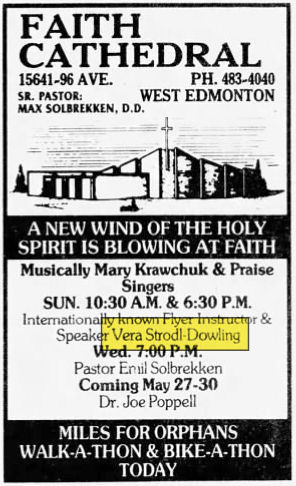 1990
1990"In Edmonton, she focused on Christian mission work in the prairies and the north, often flying to her post. Vera continued to fly in her 70's, testing planes at the Camrose airport. In 2000, Vera was named to the Aviation Hall of Fame. Four years later, she parachute jumped on her 85th birthday. Vera was a strong spirit and she looked forward to joining her Lord. Journey well!"
Canada's Aviation Hall of Fame: https://cahf.ca/vera-elsie-strodl-dowling/
Wikipedia: https://en.wikipedia.org/wiki/Vera_Strodl_Dowling
-
Stroud, Hilda Mary (W.---)
W.--- Cadet Hilda Mary Stroud 
b. 13 Jun 1920, London 24 Jan to 4 Apr 1944
Father: Arthur E Stroud, a Government Clerk, Mother: Emily V [Martin] of 2 North Close, Danson Rd, Bexley Heath, Kent
Ed. Erith County School, Dartford
prev: Chemist, Fuel Research Station
"scar on left wrist"
One accident, for which she was held responsible:
- 31 Mar 1944, in a Magister, she damaged the starboard wing and the port undercarriage leg during a heavy landing.
[Contract Terminated by ATA]
m. 1944 in Dartford, Kent, Jack Derrick
d. 5 Oct 1980 - Stroud, Glos.
-
Stuart, James Aloysius
M.268 James Aloysius Stuart
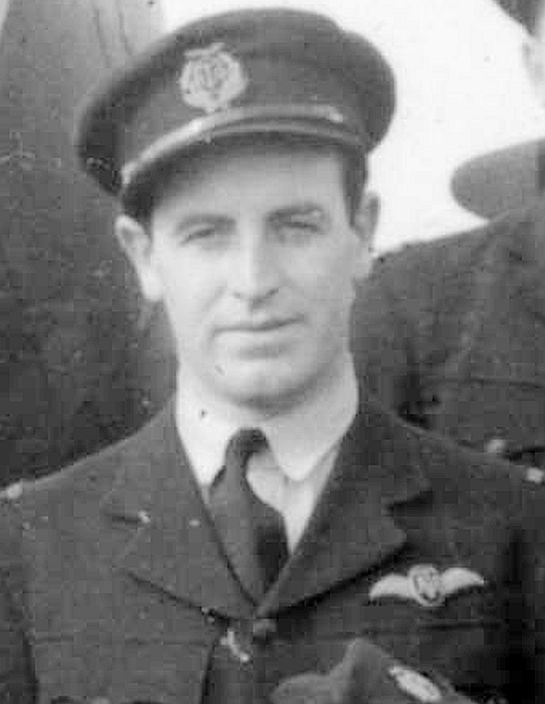 ? ATAM
? ATAMPostings: 6FPP, 7FPP, 8FPP
-
Stubbs, James Hector
M.724 2nd Officer James Hector Stubbs 
b. 6 Sep 1913, Liverpool 31 Mar 1942 to 12 Dec 1942
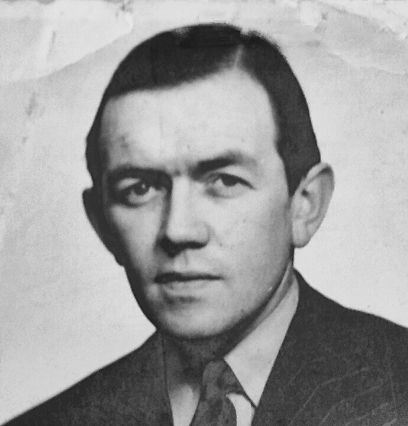 ATA
ATA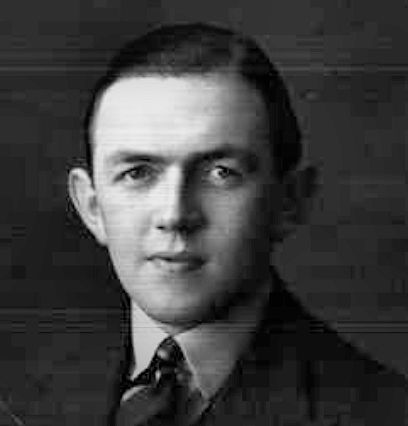 RAeC 1936
RAeC 1936Father: James Sanderson Stubbs; mother (and next-of-kin) Dorothea Noel [Capstick]
Ed. St Edwards, Oxford ["it was in the Second World War and the R.A.F. in particular, that the names of Guy Gibson, Douglas Bader, Adrian Warburton, Arthur Banks, Alec Cranswick and others raised the School’s profile to national fame"]
m., 1939 Marjorie Duxbury [Shuttleworth], but she applied for a divorce in 1942.
prev. 2nd-Lt. in Royal Engineers, 1938-41 [served in Egypt, invalided out with a duodenal ulcer]. Applied to RAF but was refused.
prev. exp. 150hrs on Tiger Moth, Avian, Leopard Moth, Puss Moth, Comper Swift, BA Swallow
Address in 1942: 'Kelvin', New Chester Rd, Hootton, Cheshire
He originally applied to the ATA in March 1941, but the interview process, bad weather, and a subsequent shortage of training places, delayed his start until the end of the following March.
His references were very good: "I had a high opinion of Mr Stubbs"... "With regard to your enquiry re Mr J H Stubbs, he comes of a very good family who were resident in this disctrict until his father fell on bad times... I believe he will give every satisfaction."
Postings: 8FPP, 6FPP, 3FPP
"An average pilot but inclined to be overconfident." "He worked well and proved he has a capacity for hard work above the average"
2 accidents, one his fault:
- 1 Aug 1942, after landing his Miles Hawk HL538, it swung violently due to excessive friction in the port wheel bearing

d. 21 Dec 1942; his Spitfire Vb JG924 struck telegraph wires, crashed near the Post Office, Mollington, 3.5 miles N of Chester, and was totally destroyed. "Pilot was off course and apparently 'shooting up' friends on ground, in contravention of Standing Orders, and is held responsible."

buried Allerton Cemetery, Liverpool, and also commemorated on the family grave along with his mother Dorothea Noel (d. 1965), and his sister, Kathleen Isobel, who was also killed in a flying accident: she died, with her husband Donald, in the crash of a British European Airways Vickers Viscount G-ALWE on 14th March 1957.
The £2,000 insurance money was paid to his mother in April 1943.
-
Symondson, Francis Stanley
M.932 First Officer Francis Stanley Symondson 
b. 27 Mar 1897 Sutton, Surrey 21 Jun 1943 to Oct-45
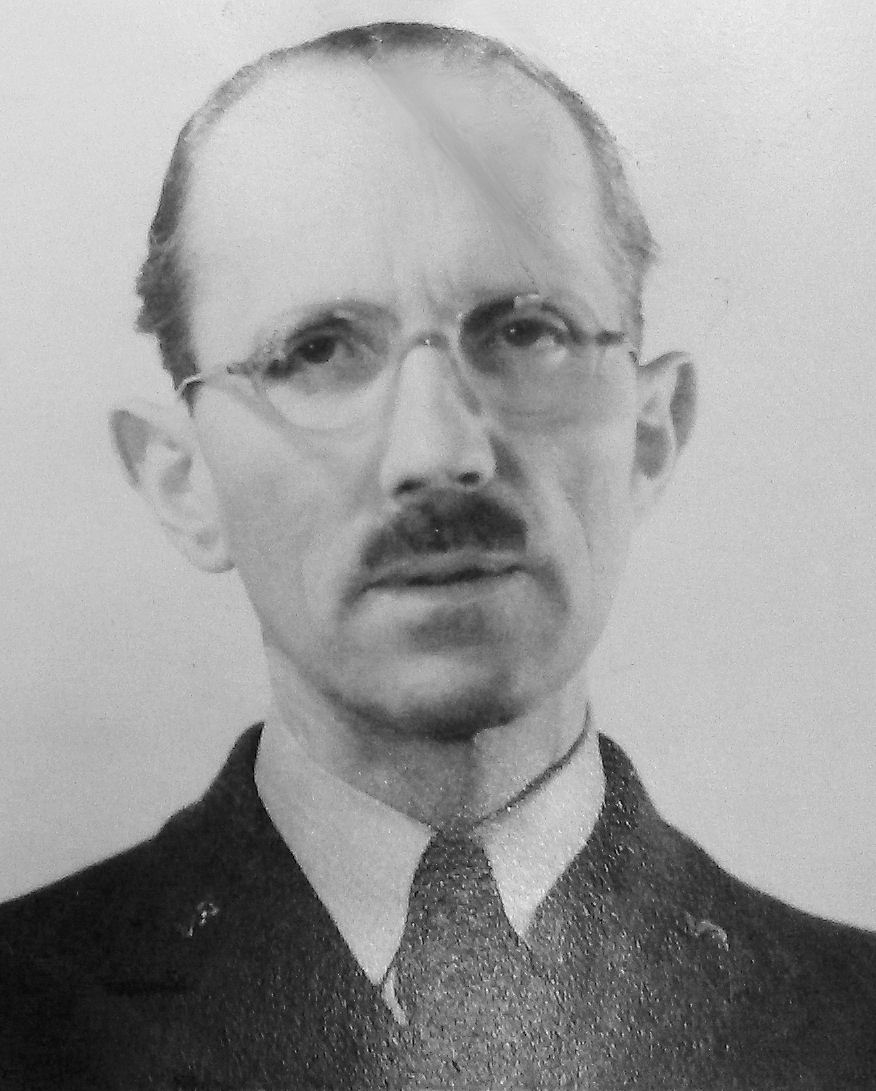 1930
1930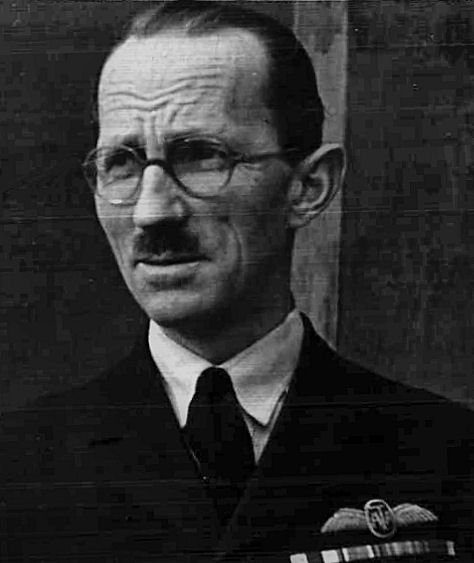 ATA
ATA1945
Address in 1943: The Haven, Fowey, Cornwall
WWI ace (12 victories) - went to Italy flying Camels with 66 Sqn, and was shot down once in Belgium and twice in Italy.
Competed in the King's Cup in 1930 and 1931.
Despite being over 40 when WWII broke out, Francis joined the RAF as a Flt-Lt in Apr-39 and then in June 1943 joined the ATA.
He was certainly experienced (1,500 hours, although mostly on light types), and keen - in fact, "his keenness to do a job may lead him to ask for more than he can safely cope with". He went on to complete a very large number of successful aircraft deliveries on 24 different aircraft, mostly Spitfires, in "an eminently satisfactory manner".
Although he did have one senior moment, in January 1944, when he landed a Hurricane with the wheels up. He had "failed to carry out his cockpit drill".
By 1945 though, even the ATA noticed that he was perhaps getting on a bit to be a ferry pilot; "This pilot was very nervous and under-confident at the beginning of the course but eventually settled down and reached an average standard. I would suggest however that owing to his age he has reached the limits of his ability and should not be considered for further progress".
He was nevertheless "an extremely enthusiastic and hard working pilot who has been of great value".
d. 1975
-
Taylor, Harold Anthony
M.36* First Officer Harold Anthony Taylor 
b. 22 Nov 1904, London 11 Sep 1939 to Oct-40
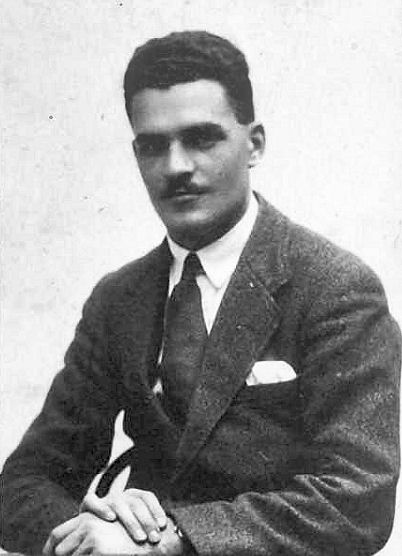 1929
1929A journalist in Coventry in 1929
d. Feb 1985, London
-
Taylor, Henry Edward
M.488 2nd Officer Henry Edward Taylor 
b. 23 Apr 1904, London 22 May 1941 to Aug-41
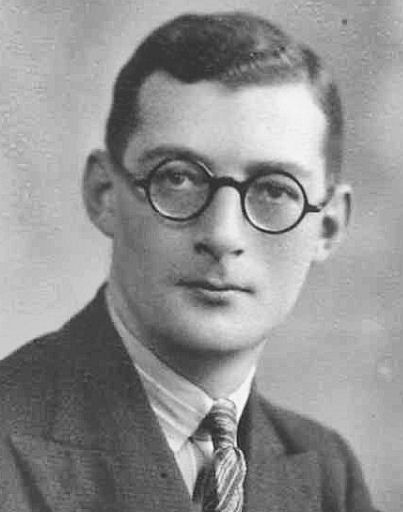
1936
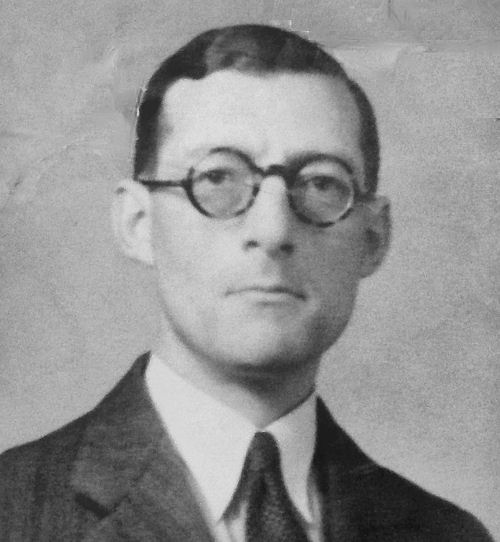
ATA
prev. A Stockbroker, then with the Ministry of Economic Warfare
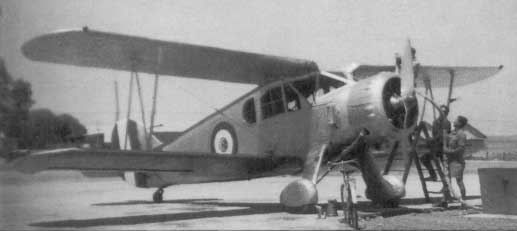
d. 17 Aug 1941 (Died in ATA Service) - Avro Commodore stalled on approach and crashed at White Waltham aerodrome on the 10th August; Henry had multiple fractures and chemical burns, and died in hospital a week later.
Buried Maidenhead Cemetery:
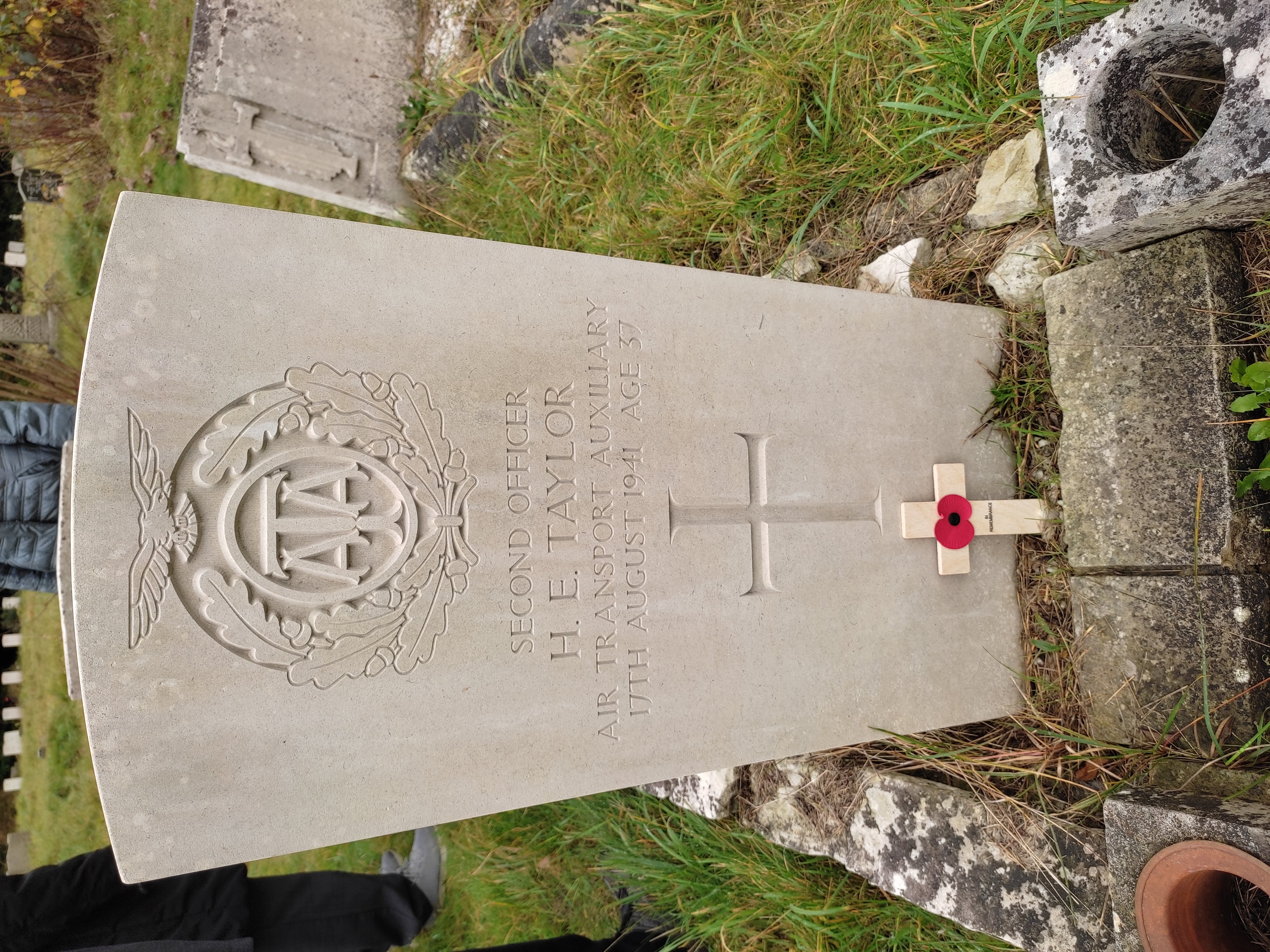
28 Oct 1941 "Please let me know what has happened to P.O. H. E. Taylor who was with you on a 'course' in June and July last... It is so unusual for him not to answer letters and we have become extremely anxious. He has no living relations and we are his oldest friends. Valerie Clemson-Young"
Download ATA Pilot Personal Record (.zip file):
-
Taylor, Hugh
M.738 First Officer Hugh Taylor 

b. 9 Dec 1915, Edinburgh 20 May 1942 to 10 Mar 1945
3rd son of Lt-Col Thomas George Taylor, DSO (d. 1946). His grandfather Hugh (d. 1901) was owner of Ryhope Colliery and MP for Tynemouth.
I presume he was named in memory of his uncle, Captain Hugh Taylor, who was killed in action on 19 Dec 1914.
Ed. Eton
m. 1940 in Singapore Diana Catherine [Elliot]
6ft 1in tall, brown-green eyes
Owner of the "Widdrington Hotel" (in Widdrington, near Morpeth)
RAF 1937-8 Acting P/O, and 1941 - Jan 1942 A/C.2
prev. from 1938, a refrigerator salesman for United Engineers Ltd, Singapore
prev. exp. 83 hrs on Blackburn B.2, DH Moth, Hawkr Hart, Audax & Fury
Address in 1942: Chipchase Castle, Wark, Hexham, Northumberland
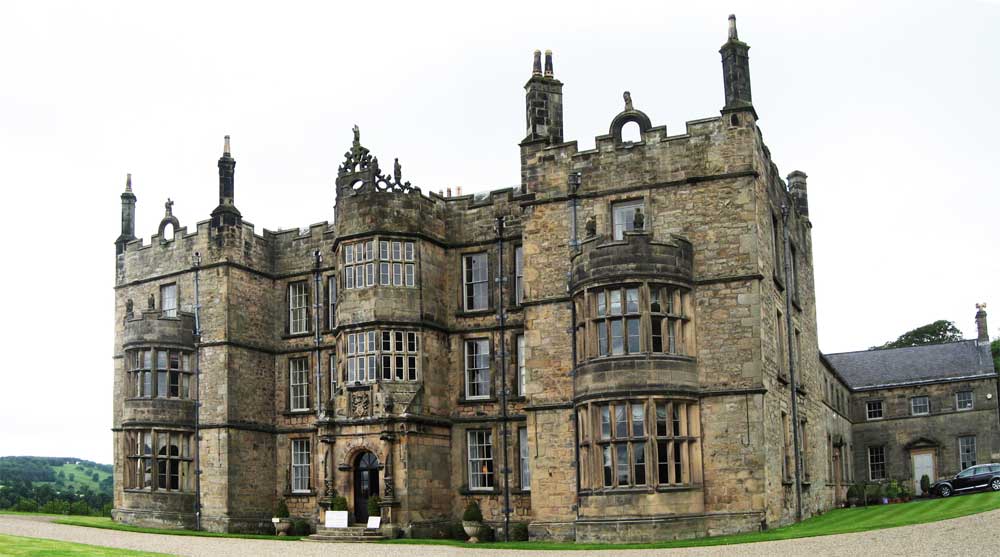
https://historicengland.org.uk/listing/the-list/list-entry/1155161
Postings: 7FPP, 16FPP
Fined one day's pay in Mar 1944 for loss of Ferry Pilots Notes
[His elder brother Tom was killed in action in July 1942]
Off sick from 23 Jan to 13 Feb 1943 with "Aeroneurosis", and from 12 Nov 1943 to 3 Mar 1944 after a car accident.
[As a result of a motor accident on the Kelso-Jedburgh road on [14 Nov 1943], First Officer H. Taylor, A.T.A., and a friend. Miss Donna Gordon, employed at the War Office, received injuries. Mrs Taylor, who was also a passenger, was uninjured. First Officer Taylor, who was driving, received facial injuries and was taken to Kelso Cotage Hospital. Miss Gordon was found to be suffering from a fracture of the skull and was taken to Peel Hospital, First Officer Taylor is a son of Col Taylor, Chipchase Castle, and formerly of Hendersyde Park, Kelso.] - Berwick Advertiser
3 accidents, none his fault:
- 2 Jun 1942, the engine of his Magister failed during the takeoff run;
- 9 Oct 1942, when taxying in a Fairchild, one wheel dropped into an unmarked hole, and
- 8 Apr 1943, another engine failure during takeoff, this time in a Spitfire.
On the 24 Nov 1943, he laid the foundation stone of a new Primitive Methodist Chapel and schoolroom at Cullercoats, North Shields.
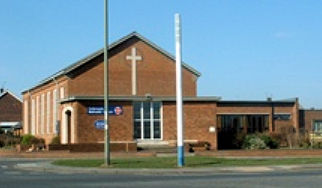 I think this must be it - Cullercoats Methodist Church...
I think this must be it - Cullercoats Methodist Church..."Carries out his ferry duties in a very excellent manner but still possesses the unfortunate manner of showing a lack of discipline which necessitates supervision."
On leaving ATA, he was entitled to a free passage back to Singapore but opted to go to New York instead.
His eldest brother Richard inherited Chipchase Castle, and it is now "associated with Paul Torday, the author of the novel Salmon Fishing in the Yemen, which was made into a popular film. He lived there with his second wife Penelope (née Taylor), who inherited the estate, and reportedly did much to help manage it.
The grounds are open to the public but the Castle is open to the public only in June." Wikipedia
-
Tebbutt, Richard Rainalt
M.--- 2nd Officer Richard Rainalt Tebbutt 
b. 12 Oct 1913, Leicester 3 Apr to 25 Jun 1941
Father: Hubert Harry Ward Tebbutt (d.1957), Mother: Helen 'Nellie' [Syndall]
An electrical engineer
prev. a radio salesman; Sgt Pilot, RAF
Address in 1939: 292 Victoria Park Rd, Leicester
Postings:
Royal Navy (Lieut) from 1 Jun 1942
m. 15 Aug 1946 in Dartmouth, Althea Rosemary [White-Cooper] and they lived at 166 Hornsey Lane, London N6
"Members of a large crowd spilled into the church aisle and stood on the pew seats to get a better view of the bride at Dartmouth's biggest post-war wedding yesterday when the marriage was solemnised at St Saviour's Church. During the war the bridegroom was the senior pilot of the Royal Naval School of Airborne Radar attached to the Royal Naval Air Arm and was in command of a squadron of the Fleet Air Arm. The bride was an aircraft direction WREN in the Royal Naval Air Arm." - Herald Express
They (Richard, Althea, Anne Tracey age 1 and Christopher Rainald 5 months), moved to Kenya in 1952; they returned in 1956 for 3 months leave
In 1975 Richard (retired) and Althea (working as a receptionist) lived in Aubrey Rd, Wanaka, New Zealand.
Naturalised in New Zealand, 4 Apr 1977. By 1981 they were both retired.
d. 21 Mar 1992 - Wanaka, NZ
-
Temple-Harris, Ronald George
M.131 First Officer Ronald George Temple-Harris 
b. 5 Sep 1911, Eastling, nr. Faversham, Kent 19 Jul 1940 to 31 Mar 1945
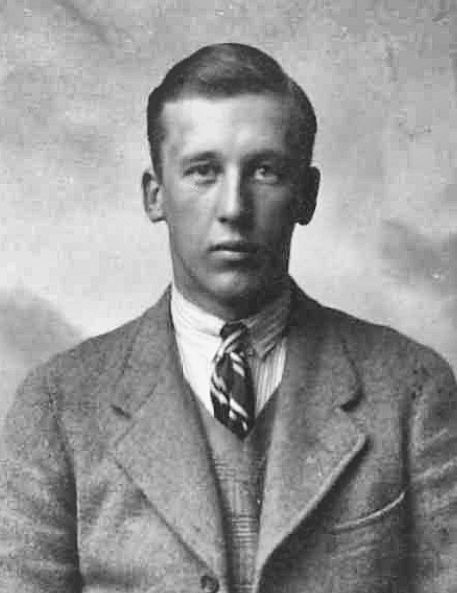 1930
1930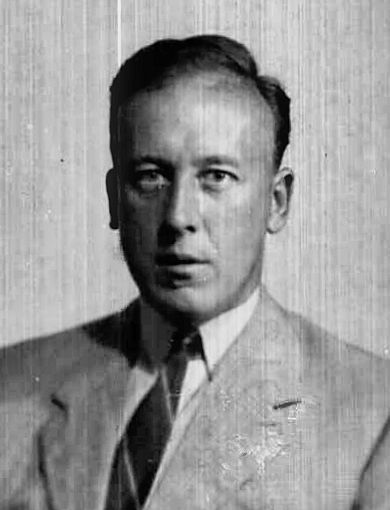 1946
1946m. 1937 Simone E B [Hogben] [divorced 1958], 1958 Beryl Sylvia [Brown]
prev. Pilot Officer, RAF (74 Sqn, Hornchurch Jan 1937-Feb 1940)
prev. exp. 960 hrs
Address in 1940: The Drive, Ray Mill Rd, Maidenhead
Postings: 1FPP, 7FPP
Off sick 3 times:
- 30 Jan to 30 Mar 1942, with influenza
- 28 Jun to 16 Jul 1943, and then 3 Nov 1943 to 26 Jan 1944, with Dental Sepsis.
Suspended for 7 days in October 1942 for 'Disobedience of Standing Orders D.8 and D.21', and reprimanded in May 1944 for Loss of Ferry Pilot's Notes.
6 accidents, one and a half of them his fault:
- 26 October 1940, his Oxford nosed over in soft ground;
- 19 Mar 1941, a mechanical fault meant that the undercarriage would not come down;
- 20 Jan 1943, he landed his Spitfire when he smelt something burning (later found to be an electrical short-circuit);
- 28 Feb 1943, he braked too heavily and his Proctor nosed over;
- 5 Apr 1943, he hit a picketing block while taxying in an Oxford. He and Ground Control each got half the blame;
- 18 Sep 1943, the port undercarriage on his Walrus failed to lock down and collapsed on landing. Not his fault.
"A good pilot, but nervous. Keenness leaves something to be desired."
"A capable pilot who has made good progress. He still does not show an excess of keenness but this may be due to his somewhat retiring nature."
His perceived lack of zeal meant that he was actually given three months' notice in August 1943, but this was rescinded when he showed that "he has ability and can, if he wishes, be a ferry pilot of above average ability."
d. 31 Dec 1994 - Honiton, Devon
-
Terry, George David
M.371 First Officer -> 3rd Officer George David Terry 
b. 15 Oct 1900, Liverpool 16 Apr 1941 to 30 Sep 1945
 1932
1932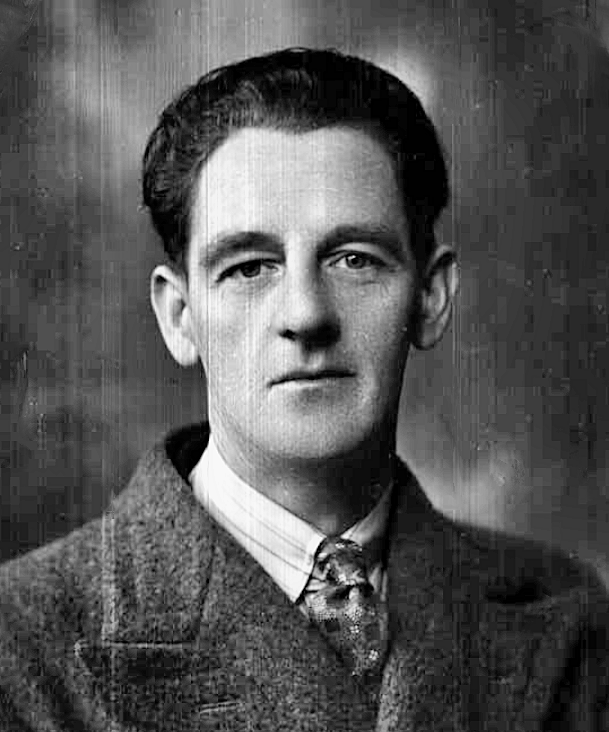 1939
1939Ed. Liverpool Collegiate School
Mercantile Marine Medal and British Medal Ribbons in 1919
m. Jul 1940 in Liverpool, Irene Frances [Haigh]
prev. Stores Inspector, Provision Merchant; Insurance Agent
prev. exp 114 hrs
RAeC certificate 10527 dated 25 May 1932 taken on Avian at Liverpool & District Aero Club
He was fined £3 in 1933 for stunt flying over Liverpool: "The first case of its kind in Liverpool." George pleaded guilty to looping-the-loop (etc) over Wavertree, but confessed he was unaware of the regulation, which prompted the Deputy Stipendiary to say "the grave thing in the case is that he did not know the regulations. Every pilot should make himself acquainted with Air Regulations".
RAeC certificate(2) 18933 dated 30 Jun 1939 taken on DH Tiger Moth at Liverpool & District Aero Club
Address in 1941: 56 Brodie Ave, Mossley Hill, Liverpool
Postings: 3FPP
Class 3 pilot
Off sick from 11 Nov to 16 Dec 1941 with 'post-influenza', and from 18 Mar to 17 Apr 1942 with 'pharyngitis & anxiety state'
7 accidents, 4 his fault:
- 25 Jun 1941, after a bad landing his Hector K9735 tipped over onto its nose
- 17 Dec 1941, he overshot the landing in Hurricane BG968 and ran into a hedge
- 12 May 1942, he raised the tail of his Hurricane P2814 too early on takeoff and the propeller struck the ground
- 30 Jun 1942, a forced landing in Proctor III CK215 after an oil leak onto the windscreen
- 1 Jul 1942. he overshot the landing in Defiant N3459 and ran into a ditch
[Demoted from First Officer to 3rd Officer on 1 Aug 1942]
- 16 May 1943, he taxied his Argus HM175 into an unmarked hole and burst the port tyre
- 5 Sep 1944, he was waiting on the runway at St. Athan and a strong gust of wind overturned his Queen Bee LF866
"Rather a slow starter; suffers from bad health but a careful pilot and good officer"... "does not appear to be able to cope with aircraft of high wing loading"
"Much happier since he was demoted to Class 2"... "A good taxi pilot"
d. 24 Dec 1980 - Pagewood, NSW, Australia
-
Thackeray, Margaret Elizabeth (W.---)
W.--- Cadet Margaret Elizabeth Thackeray 
b. 1 Mar 1913, Newcastle-on-Tyne 15 Apr to 6 Jun 1942
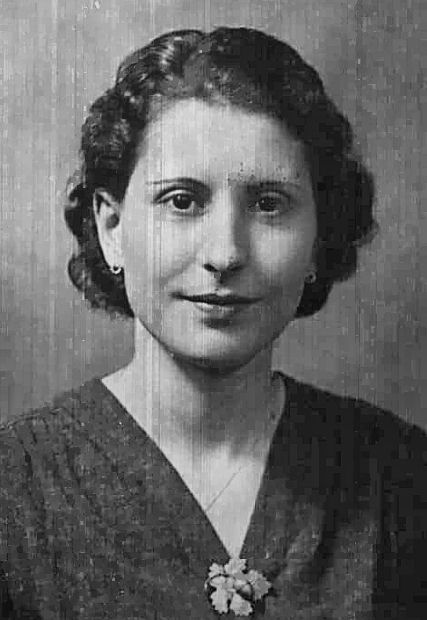 RAeC 1939
RAeC 1939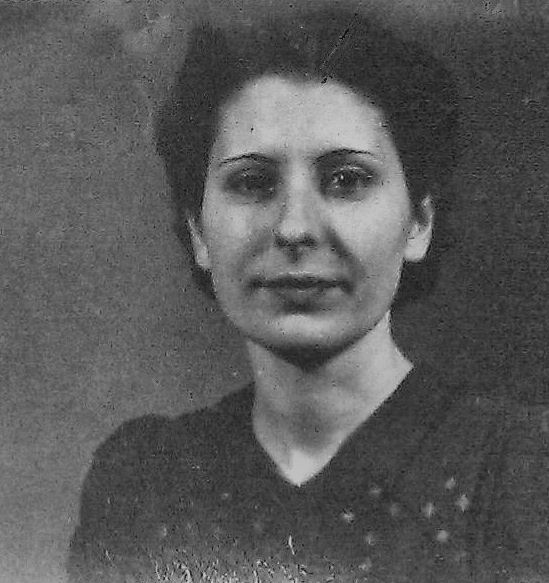 ATA
ATA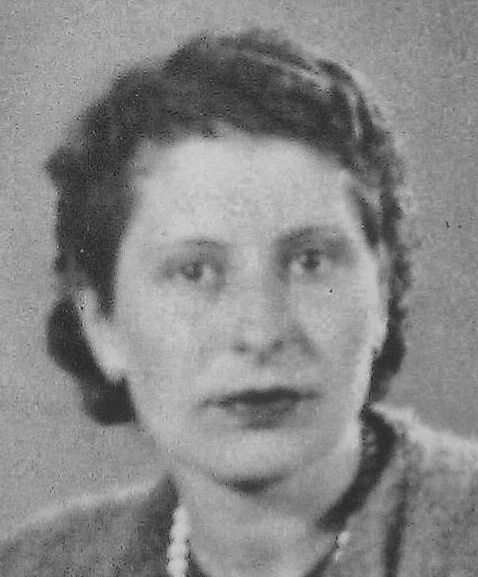 ATA
ATA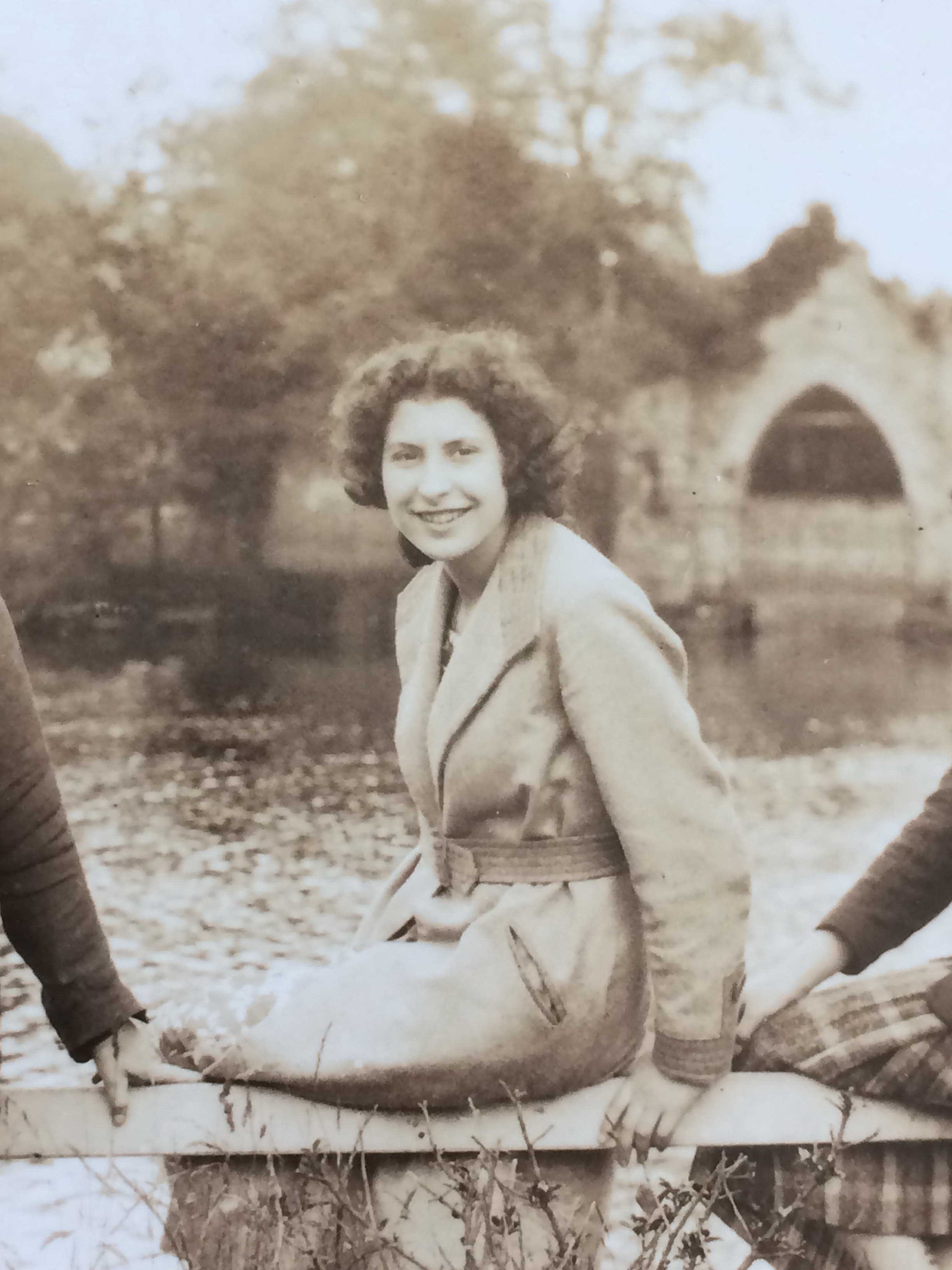 Ancestry
Ancestry Father: Lt-Col Edward Rawcliffe Thackeray, Mother: Agnes Mildred [Hodgson] of The Lower House, Dinas Powys, Cardiff
Ed St. Maur College, Chepstow
Address on 1939 RAeC Cert (Yapton Aero Club): 168 London Rd, North End, Portsmouth, Hants
prev exp: 15hrs in Moth, Spartan, Miles Hawk, Whitney Straight
Address in Sep 1939: Richmond, Yorks.
Postings: 1FPP
poss. m. 1952 in Droxford, Hants, Donald A Edwards
-
Tharp, John de Winton
M.1003 3rd Officer John de Winton Tharp 
b. 21 Oct 1916, Bushey, Herts 5 Jul 1943 to 30 Sep 1945
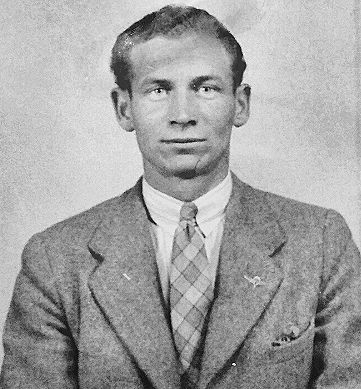 1943
1943 1945
1945Father: Charles Julian Theodore Tharp, "the well-known portrait painter", see https://suffolkartists.co.uk/index.cgi?choice=painter&pid=621
Mother: Ethel Winifred Elizabeth [Simpson]
Had an elder brother, Howard Grahame Tharp, b. 3 Jul 1912, m. Jan 1949 in London, Silvia JA Smith, (3 children Rosamund S b. 1951, Alison L b. 1954, Richard D G b. 1957)
Ed. Bedales, Petersfield
prev. L/Cpl, Parachute Battalion, Army Air Corps 3 Sep 1939 to 24 Jan 1943; "Agriculture", Essex War Agricultural Executive Committee
Address in 1943: 84 Boundary Rd, London NW8
Postings: 5TFPP, 2FPP, 7FPP, 16FPP
Ab initio pilot
Suspended with loss of pay for 1 day in August 1944 for infringment of standing orders.
2 accidents, 1 his fault:
- 12 Jul 1944, he undershot the landing in a Swordfish and hit a barbed wire fence
- 2 Nov 1944, his Seafire III NN333 swung after a normal landing and the undercarriage collapsed. A fault was later found.
"This officer obviously has intelligence but comments were made on his occasional carelessness"... "Quiet and reliable"... Keen and conscientious"
m. Sep 1944 Joyce Ann Fenwick, also of the ATA.

"Flying Romance
There was a wedding in Old Bosham Church on Tuesday, which was the culmination of a war time flying romance, when Third Officer John Tharp, of the A.T.A., married Cadet Joyce Fenwick, also of the A.T.A. They are both pilots and ferry aircraft.
John Tharp is the second son of Mr. Charles Tharp, the well-known portrait painter, who has made his home in Old Bosham since the war, and whose beautiful picutres, portraits and landscapes are hanging in the Anchor Inn. Charles Tharp was at The Slade School of Art with Sir William Orpen and Augustus John, and has had many pictures hung in the Royal Academy.
John Tharp was in the First Parachute Battalion formed in the early days of the war, but injured his back doing a jump, and was invalided out. Later he joined the A.T.A.
The bride was given away by Third Officer John Gilbert, A.T.A. pilot, and her sister Marjorie Fenwick, was bridesmaid. The best man was Hugh Stewart, B.B.C. producer. The Rev. A. L. Chatfield officiated. Mrs. Turvey. the bridegroom’s sister, made the wedding cake, and decorated the church with the help of Third Officer (Mrs.) Bannister, another A.T.A. pilot. A delicious tea for 30 people was provided by Mrs. Leather at The Grange. Mr. Graham Tharp, who is a film producer for M.o.I., did a lot of work as M.C., and Mrs. Diana Britton did “billeting officer,” finding bed and accommodation for numerous guests, not an easy thing to do these days. After spending a night in Bosham, the happy couple left for the Scilly Isles to spend their honeymoon. " - Chichester Observer - Saturday 16 September 1944
Gained his Royal Aero Club Pilot's Certificate (No 20700 ) as part of the ATA's 'Wings' scheme on 30 Oct 1945
Address in 1945: 45a Buckland Crescent, Hampstead London NW3
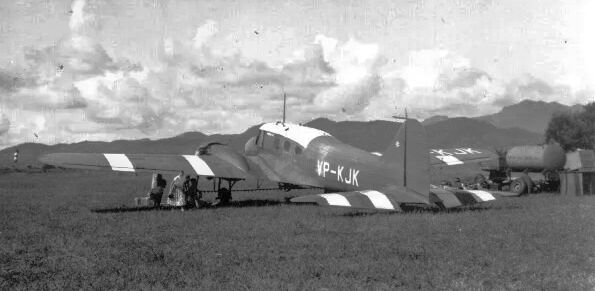
d. 20 Jul 1951 in Tangayika, in the crash of Anson VP-KHT - see Accident Avro Anson Mk I VP-KHT, 20 Jul 1951 (aviation-safety.net)
-
Thomas, Vyvyan John Somerset
M.--- * 2nd Officer Vyvyan John Somerset Thomas 
b. 29 May 1899, Bournemouth 24 Jun to 12 Jul 1940
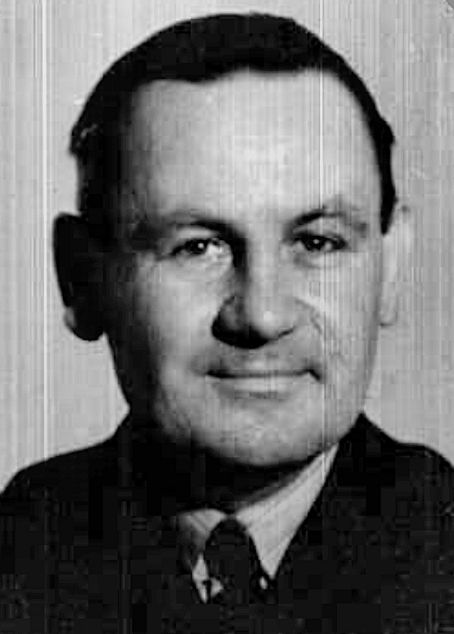 1939
1939prev. Lt-Cmdr, RN from 1917; Flt-Lt, RAF from 1923
m. 1922 in Portsmouth, Gladys Irene Rochford [Shaw-Yates] (d. 1941)
A member of the 'Caterpillar Club', having made use of his parachute in 1930 in Egypt.
RAeC Certificate 17034 dated 9 Feb 1939 on a DH 60 Moth at Wiltshire Flying Club
Address in 1939: High Post Aerodrome, Middle Woodford, Salisbury, Wilts
Postings: ---
Rejoined the RAF as Pilot Officer, 5 Aug 1940
m. 1949 in Hammersmith, London, Mary V [Gilder]
d. Jul 1964 - Chelsea
* Personnel File Missing
-
Thompson, Thomas Frank
M.841 First Officer
[Seconded from RAF]
Thomas Frank Thompson 
b. 31 Mar 1921, London 28 Jan 1943 to 27 Aug 1944
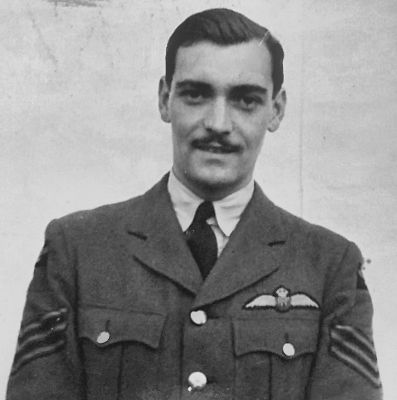 ATA
ATA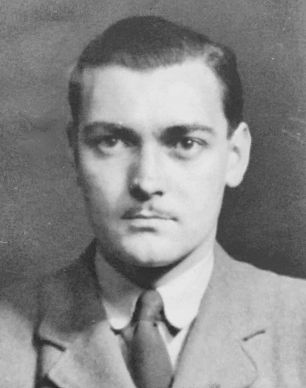 ATA
ATAFather: Thomas George Thompson, mother: Fanny Edith Rosetta [Galloway] of 54 Patmos Rd, London SW9
Ed. Reay Central Borough Polytechnic (National Certificate of Electrical Engineering)
prev. an electrical engineer; Sgt, RAF Lichfield from 14 Jan 1942
prev. exp. 140 hrs on Tiger Moth, Oxford, Wellington
Address in 1944: 521 Lordship Lane, E Dulwich, SE22
"Turned down night flying - scared" "Rather nervous"
Postings: 6FPP, 5TFPP, 14FPP
Reprimanded for negligence on 18 Nov 1943 when he taxied Hurricane Z4924 into a mooring block at Barton airfield and nosed over, damaging the propeller. His instructor said "I firmly believe that this pilot's trouble is due to a very poor retentive memory and inclined to carelessness and taking chances"
3 other accidents, one his fault
- 27 Oct 1943, forced landing in Anson N9536 after engine failure
- 30 Nov 1943 in Barracuda II LS486 which weather-cocked to starboard when landing, ran off the runway and the undercarriage collapsed.
On 21 Jun 1944 he was absent, having been on leave; when he returned he said this was due to "some trouble with a flying bomb which had damaged his house"
"A quiet and efficient pilot and a well disciplined NCO." "Navigation and map reading very good"

d. 17 Aug 1944 (age 24) in Oxford PH235.
Ferrying from Airspeed's factory in Portsmouth to 44 MU Edzell, Angus, Scotland; for an unknown reason (possibly hitting HT cables), the aircraft dived into the ground at about 17:30 near Holmes Chapel, Cheshire.
The two passengers, Third Officers John Douglas Dale (M.968) and Archibald Campbell Couser (M.967) were also killed.
"HOLMES CHAPEL 'PLANE CRASH
THREE KILLED
Three pilots of the Air Training Auxiliary (A T.A.) were killed when their 'plane crashed in a field off Knutsford-road. Holmes Chapel, last Thursday. They were Thomas Frank Thompson (23). chief pilot, of 31 Patmos-road. London ; John Douglas Dale (23). of 14. St. Mary's Crescent, Blackhill. Durham, and Archibald Campbell Couser (24), of 73, High Pleasance Falkirk. Their 'plane was seen flying low over the the village before diving suddenly to earth. The bodies were recovered from a wood thirty yards away.
At the inquest conducted by Mr R. A. Daniel on Monday Dr. A. D. Picton said he saw the machine flying level over the village at about 500 feet. Within a second or so it went into a fairly steep dive and crashed behind some trees. His impression was that the engines cut out and that the machine then dived. Before that he thought the engines were working normally.
Norman Forshaw, electrical engineer, Macclesfleld Road. Holmes Chapel. and Walter Caulfield, 30. Middlewich-road, Holmes Chapel. also gave evidence.
A Captain of the A.T.A. said it was a bad crash—too bad to ascertain any technical cause. The Coroner recorded a verdict of " Accidental death" in each case.
First Officer Moore. A.T.A., thanked the local police for their assistance. " - Winsford Chronicle - Saturday 26 August 1944
Buried Streatham Park Cemetery, London
-
Thompson, William
M.690 First Officer William Thompson 
b. 1 Oct 1914, Lanchester 11 Nov 1941 to 6 Oct 1944
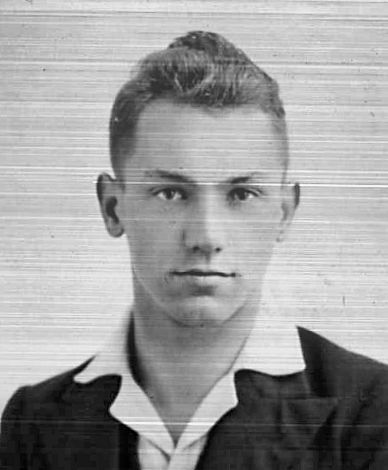 1936
1936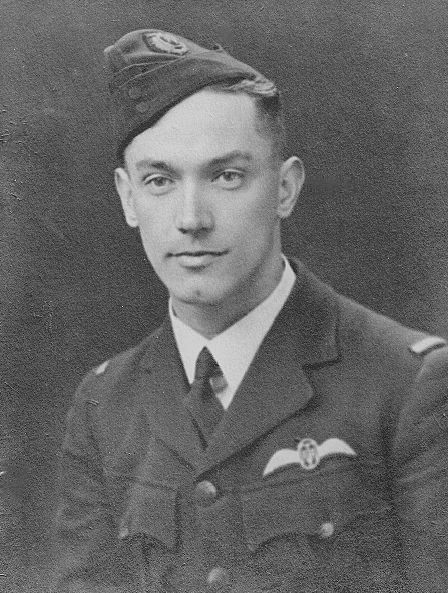
via Dave Bowman
prev. a Joiner and cabinet maker
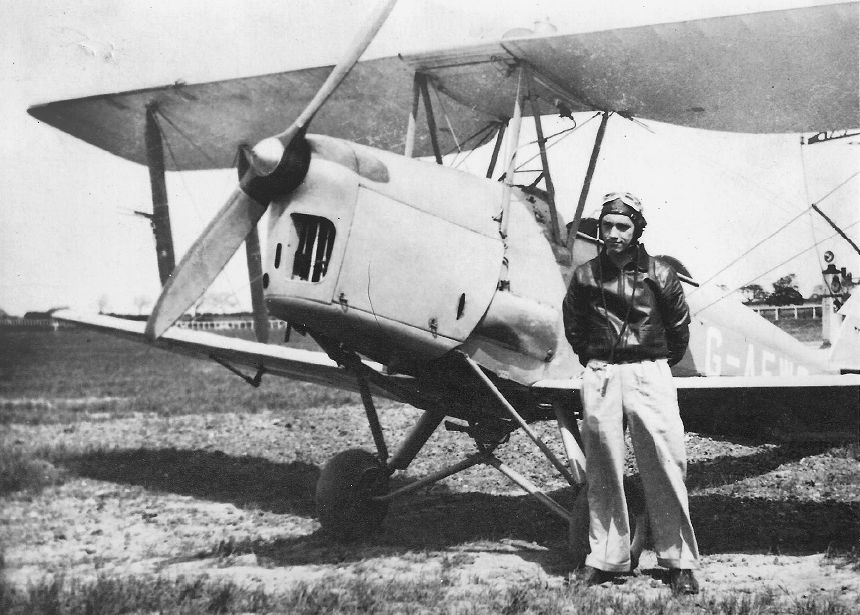
c.1938, with Tiger Moth 'AEWG at Newcastle/Woolsington
"He was passionate about flying and like many young enthusiastic would-be flyers who didn't come from well heeled backgrounds he worked extra hard to raise the funds to learn to fly, cycling some considerable distance to get to the airfield. He ended up in ATA as he was unfit for military service due to a pre-war accident at work which left him with a badly damaged foot and leg.
I do know he was an accomplished maker of furniture and remember as a child the superb aircraft models crafted from scrap, collected I believe from the Ratcliffe hangars .He was described to me by someone who knew him at Ratcliffe as a quiet unassuming person who got on with the job and was noted for doing a lot of flying."
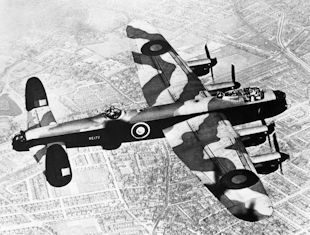
d. 6 Oct 1944 when his Lancaster I MC918 collided in flight with Blenheim VZ946 (flown by RAF F/O Tucker, with his instructor Flt-Sgt Field) near RAF Spitalgate, Lincs.
ATA 3rd Oficer (Flt-Eng) Dennis John Richard Howell in the Lancaster, and Flt-Sgt Field in the Benheim, were also killed in the accident. F/O Tucker escaped by parachute.
William was buried in Hollywood Avenue Cemetery, Gosforth, Newcastle-on-Tyne (Section A Grave 80)
-
Thornhill, Leonard
M.282 Leonard Thornhill
Postings: 2FPP, 3FPP, 9FPP, 8FPP, 1FPP
-
Tildesley, Dora Joyce (W.---)
W.--- Cadet Dora 'Joyce' Tildesley 
b. 22 Mar 1921, Wolverhampton 8 May to 9 Jun 1944
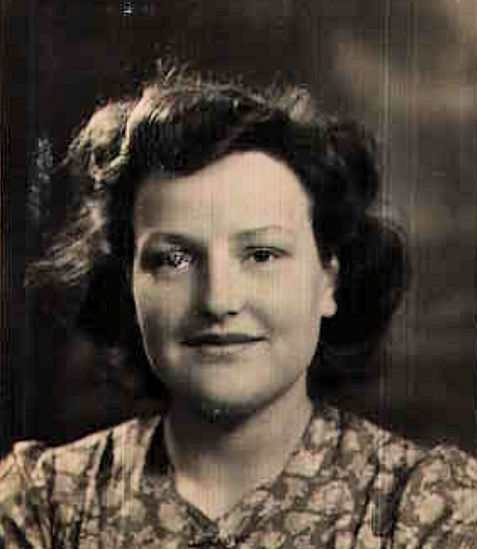 RAeC 1946
RAeC 1946Father: Horace William Tildesley, a Company Director, Mother: Dora Louise Mills [Corker], of 167 Penn Rd, Wolverhampton
prev: WAAF; Nurse & Ambulance Driver
[Contract Terminated by ATA]
Address in 1954: Chequerfield House, Stubbs Rd, Wolverhampton
Sailed to Australia in Jan 1954, (profession: Radiographer), then flew to San Francisco (on Qantas) 25 Nov 1955
m. 1972 in Gloucestershire, Humphrey Carnfield 'Huff' Windeyer (b. 1899 in Australia, d. 1989 in Banbury)
She lived in 'Hillside Cottage', Southrop, Hook Norton, Oxfordshire
d. 1 Jan 2006 - Banbury, Oxfordshire
-
Todd, Gilbert Redvers
M. 860 First Officer
[Seconded from RAF, Ser No. 1331104]
Gilbert Redvers Todd 
b. 24 Jun 1908, Beverley 7 Oct 1942 to 31 Mar 1945
[RAeC Cert 1930, photo missing]
Ed. Hull Grammar School
m. 1939 Norine E [Pascal]
Address in 1939: 311 Highfield, Kington-upon-Hull, Yorks
prev. Ground Engineer, Aircraft Inspector for Imperial Airways and Blackburn Aircraft Co.
prev. exp. 21 hrs in Cirrus, Gipsy and Puss Moths
Postings: 5FPP, 7FPP, 16FPP
Two accidents, one his fault:
- 24 Jul 1943, his Proctor III hit another aircraft after swerving during landing, due to badly-adjusted brakes;
- 17 Oct 1944, he again swung off the runway on landing, this time in a Warwick III. "Error of judgement on the part of the pilot, landing in difficult conditions."
"Motorist Fined For leaving a motor car stationary without front or rear lights, and for failing to immobolise the car during darkness on December 3, 1941.
Gilbert Redvers Todd, 33. formerly of Palmer-avenue, Willerby, and now working near Glasgow, was fined 10s in each case at the East Riding Court to-day. In a letter to the court he explained that at the time he had just had an exhausting journey, and had lef the car for five minutes in order to collect a suitcase." Hull Daily Mail - Wednesday 28 January 1942
"A keen, hard working pilot"
14 Apr 1945: "F/O G. R. Todd is due to leave the country immediately to take up work overseas."
d. 16 Jan 1989, Hull
-
Tointon, Sheila Marion (W.---)
W.--- Cadet Sheila Marion Tointon 
b. 20 Aug 1916, Hornsey 8 May to 17 Jun 1944
Mother: [Charles]
prev: Shorthand Typist; WAAF from 12 Jan 1942
Address in 1944: 3 Alum Chine Rd, Westbourne, Bournemouth
Ab initio pilot
m. Jul 1948 in Wolverhampton, George D Dobson
Jennifer b. 1954 in Swindon
d. 27 Apr 2008 - Faringdon, Oxfordshire
-
Tollemache, Frances Patricia (W.---)
W.--- 2nd Officer Hon. Frances Patricia Tollemache

b. 24 Nov 1908, Tarporley Cheshire 31 Jan to 7 Mar 1941
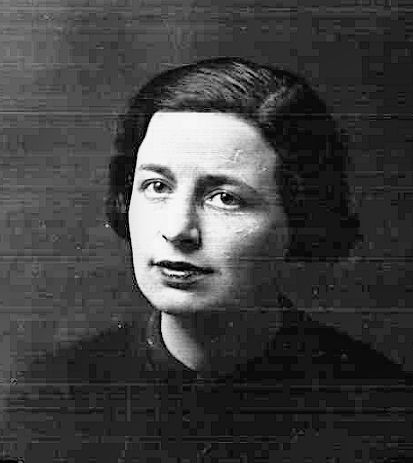 RAeC 1936
RAeC 1936Father: Bentley Lyonel John, 3rd Baron Tollemache, a British Army officer, peer, and writer on croquet and bridge, Mother: Wynford Rose [Kemball], The Lady Tollemache (d. 1926)
Her elder sister was the Hon. Dorothy Cecily Tollemache (Verney, d. 1994)
"Lord Tollemache succeeded his grandfather in 1904, and owns about 35,800 acres. His two seats are Peckforton Castle, Tarporley, and Helmingham Hill, Stowmarket. During the war he served as a Lieut-Commander with the R.N.V.R. and was wounded. He has been a captain in the Cheshire Regiment and in the R.G.A."
The 1911 Census shows them living in Peckforton, Cheshire, with a cook, a lady's maid, 2 nurses, 3 housemaids, a kitchen maid, a scullery maid, a butler, a valet, a footman and a hall porter:
 Now a hotel...
Now a hotel...Miss Dorothy and Miss Frances were debutantes in 1927, "presented by Susan Duchess of Somerset".
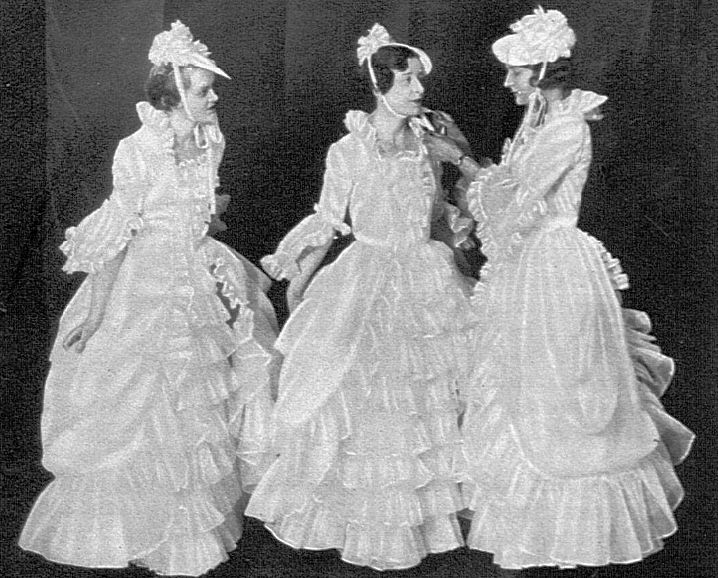 The Three Graces
The Three Graces"Miss Valerie Domville, the Hon. Frances Tollemache and Miss Rosabelle Perowne in the dresses they wore at the Calico Ball at Claridge's Hotel" The Bystander, 20 Dec 1933
Address in 1936: The Mill House, Duddington, nr Stamford, Lincs
"Daughter Of Peer In Air Crash
The Hon. Frances Tollemache, daughter of the Baron Tollemache, escaped unhurt when the 'plane in which she was flying irom London to the Cape was wrecked while attempting to land at Mbeya, Tanganyika. The pilot [Vernon Motion] was also uninjured.
The Hon. Frances Tollemache gained an "A" pilot's licence after only three weeks' instruction, and in April last left Heston for a 30,000-mile air tour of Egypt, Palestine and South Africa. With her then was Mr. Vernon Motion as co-pilot. Miss Tollemache intended to visit her sister in Johannesburg and Mr. Motion intended to sell British machinery in Africa" - Daily Record - 30 Jun 1936
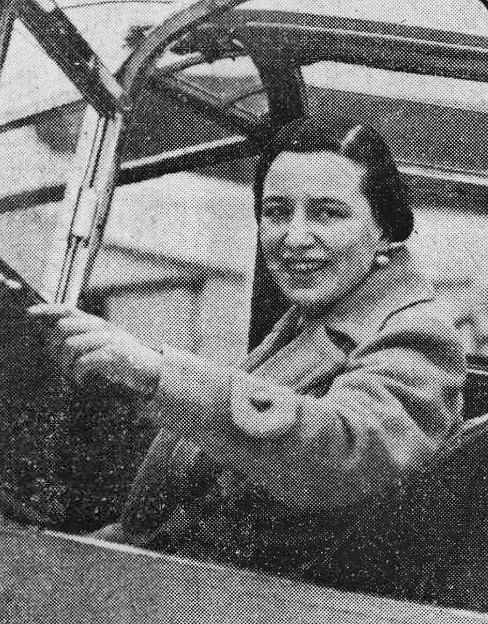 "Miss Tollemache in the cockpit of the machine" - Daily Mirror
"Miss Tollemache in the cockpit of the machine" - Daily Mirror[The aircraft was a Percival P.10 Vega Gull, G-AEAS 'The Export Raider', first registered in January 1936. It was badly damaged in the crash at Mbeya on the 28 June and written off in December 1936. ]
Address in 1939: The Mill House, Barleythorpe Dairy Farm, Doddington, nr Oakham, Rutland
[Resigned]
m. 10 Feb 1949 at the Church of All Saints, Bombay, Charles Edward Lloyd-Worth, from Hastings, Sussex, "who has an appointment in India", (divorced 1965)
d. Nov 1992 - Cheltenham, Glos.
Download ATA Pilot Personal Record (.zip file):
-
Traherne, Olivera Rowena (W.---)
W.--- Cadet Olivera Rowena Traherne OBE 
b. 3 Sep 1910, Pampisford nr Cambridge 1 Jul to 28 Aug 1942
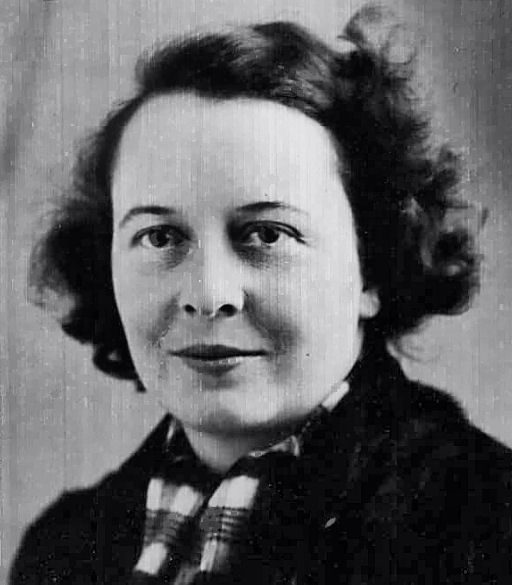 RAeC 1939
RAeC 1939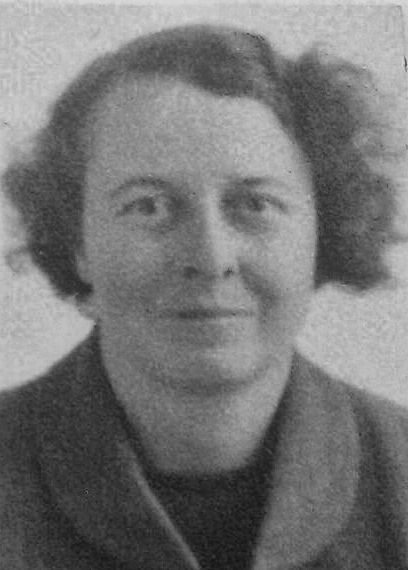 ATA
ATAnee Binney
Father: James Binney JP, Sherriff of Cambridgeshire and Huntingdonshire in 1903, "a well known sportsman", Mother: Lady Violet Louisa Marjory Binney, (d. 1923) of Pampisford Hall, Cambridgeshire
"A grand-daughter of the Fifth Marquis of Ailesbury"
Ed. Heathfield School, Ascot
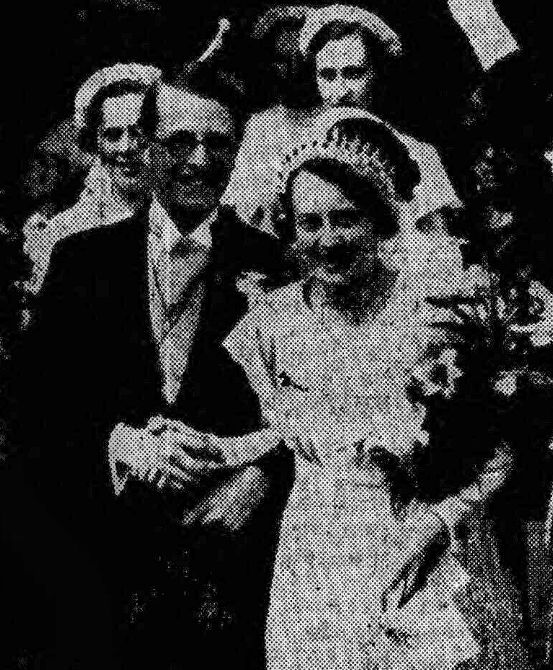
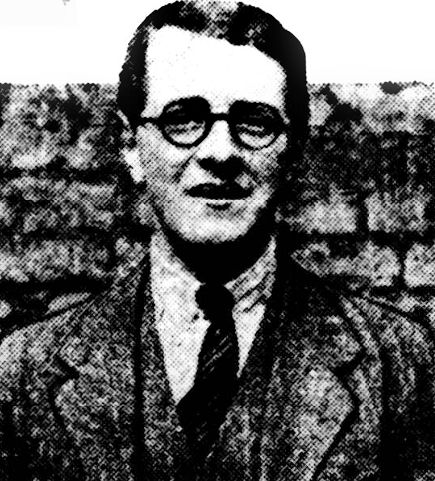 Cennydd in 1937
Cennydd in 1937m. 24 May 1934 in Pampisford, Capt. (later Sir) Cennydd George Traherne - "Mr. Traherne is a popular figure in social circles. He rides with the Glamorgan Hunt and races frequently at point-to-point meetings. He is a graduate of Oxford, and is at present reading for the Bar at the Inner Temple." - Western Mail
prev exp: 20hrs on Moths, Tiger, DH Swallow
In 1938, they lived in the "largish mansion in Ennismore Gardens, Kensington" belonging to Lady du Bunsen, the mother of fellow ATA pilot Mary du Bunsen.
Address in 1942: Coedarhydglyn, "formerly Old Coedarhydyglyn (meaning 'the wood along the glen') is a private Grade I listed neo-classical regency villa and estate on the western rim of Cardiff" - Wikipedia
"Her chief inbterests are agriculture, farming, and riding"
[Contract Terminated]
[Cennydd Traherne was later Lord Lieutenant of Glamorgan. He inherited Coedarhydglyn Estate as a four-year-old, and in 1937 acquired the nearby 2,274-acre Duffryn Estate and gifted it to the Welsh Nation; it is now managed by the National Trust.]
Later, President of the Glamorgan Division of the Red Cross, and Commodore of the Sea Rangers. OBE in 1980.
d. 22 Oct 1986 - Australia
-
Trappitt, Lawrence Dudley
M.108 * First Officer Lawrence Dudley Trappitt 
b. 6 Dec 1903, London 16 Dec 1940 to 4 Aug 1942
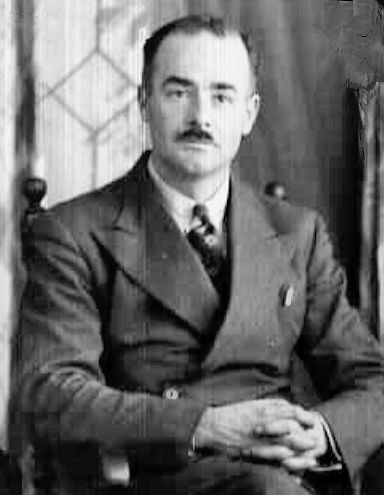 1938
1938Father: Thoms Trappitt, a Coal and Oil Dealer, d. 1930; Mother: Elizabeth Harriet [Nixon, d. 1914]
youngest of 7 children (2 sisters 4 brothers)
prev. RAF; Salesman
RAeC certificate 16768 dated 12 Dec 1938, taken at Romford Flying Club on a BA Swallow
He owned G-AAVW, a 1930 Avro 504K, which was later acquired by Richard Shuttleworth (but soon exchanged for the last new-build Sopwith Dove, G-EBKY) and was scrapped in 1935.
m. 26 Mar 1936 in Upminster, Essex, Ethel May [Staines]
Address in 1938: 20 Hog Hill Rd, Romford, Essex
Postings:
He acquired ex-ATA D.H. Dragon Rapide G-AKZB on 15 Jul 1948; this later became part of BEA's fleet but crashed in 1961 on landing at St Just Airport after striking a post in poor visibility. There were no casualties.
m. Jul 1950 in Kensington, Phyllis L A [Bunting]
d. 5 Sep 1995 - Woodford Green, Essex, leaving £166,908
* ATA File not seen

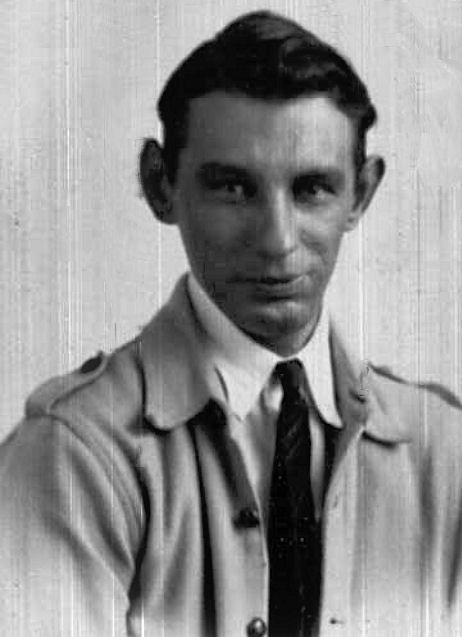 1938
1938